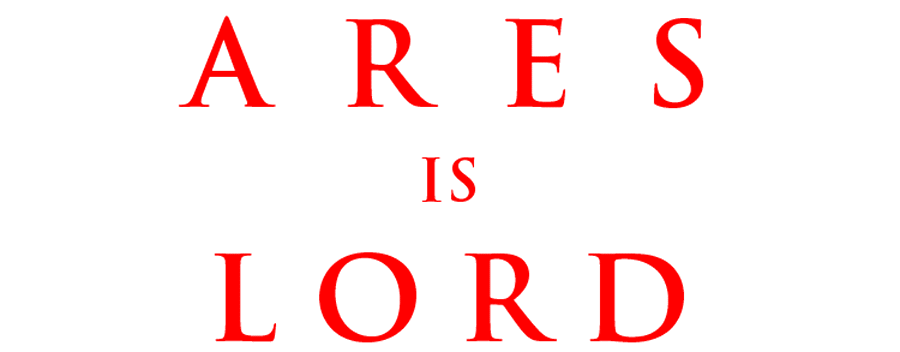























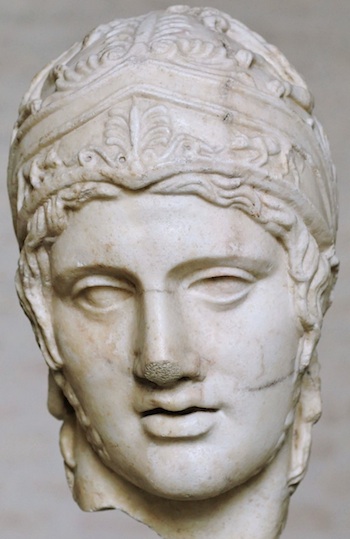

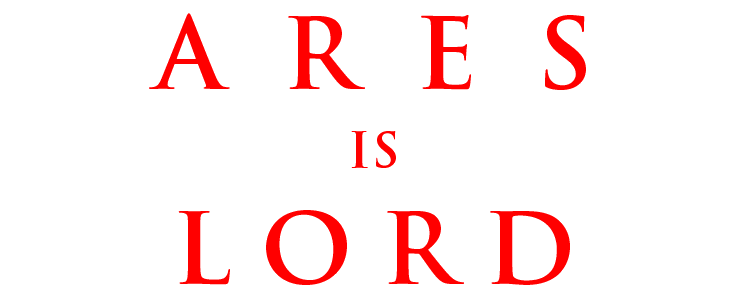
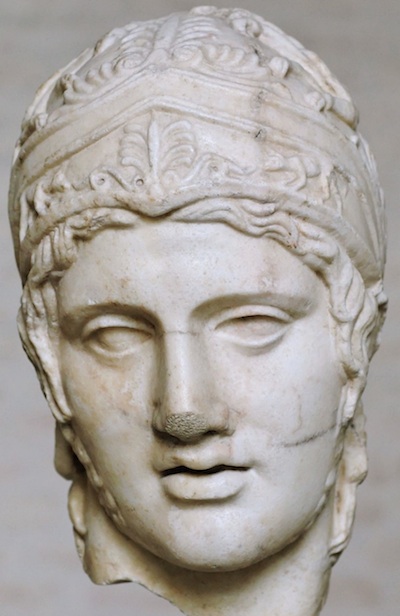





















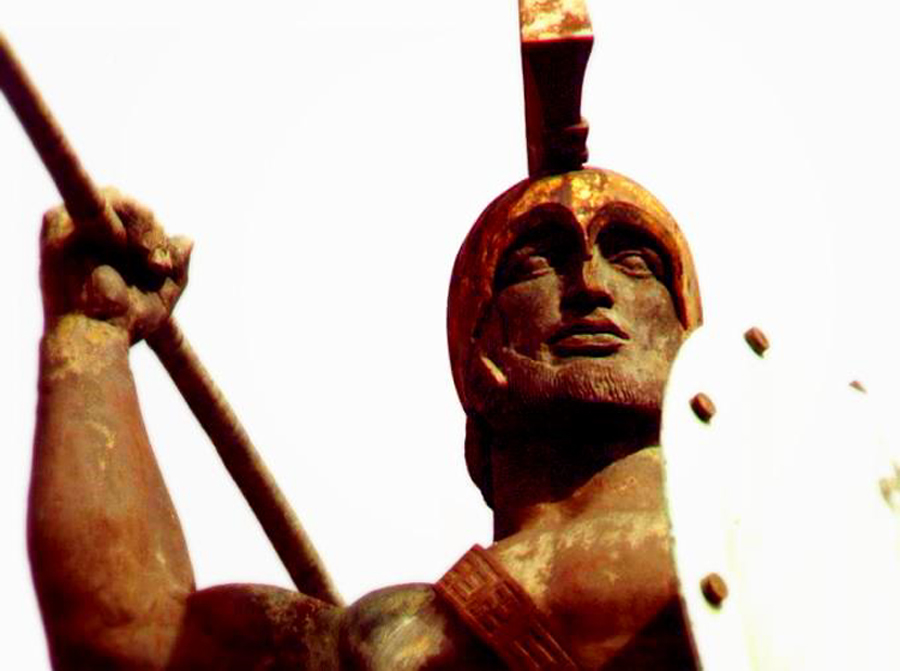


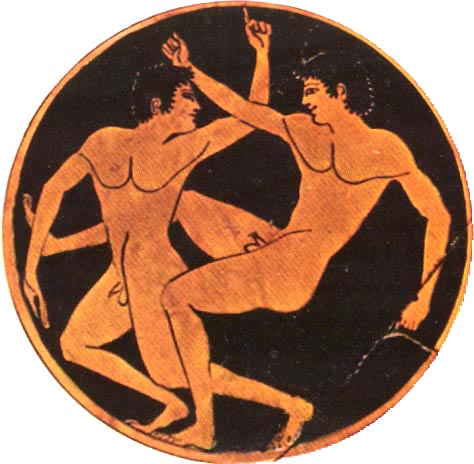
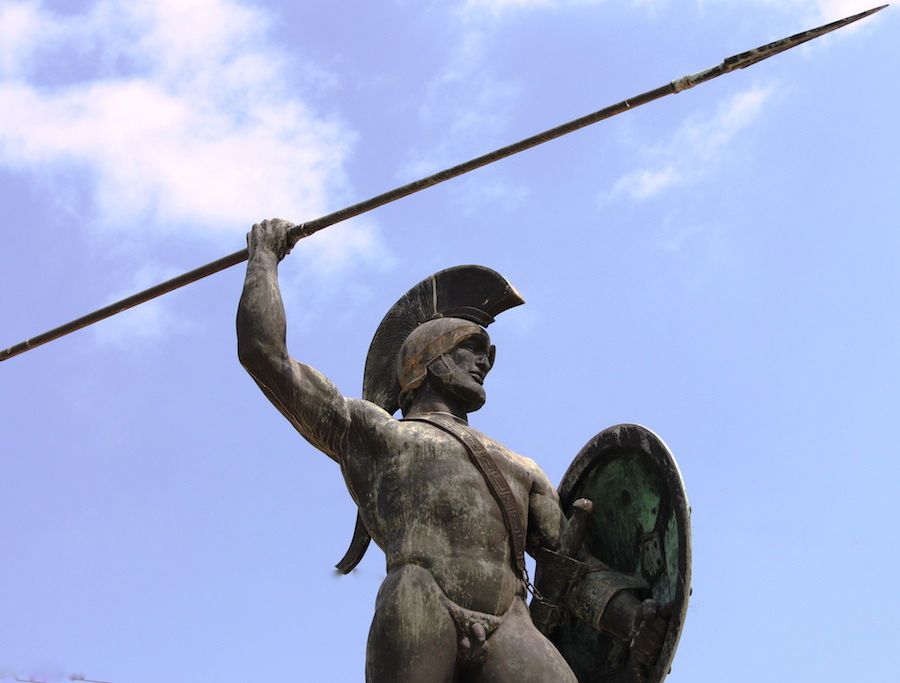
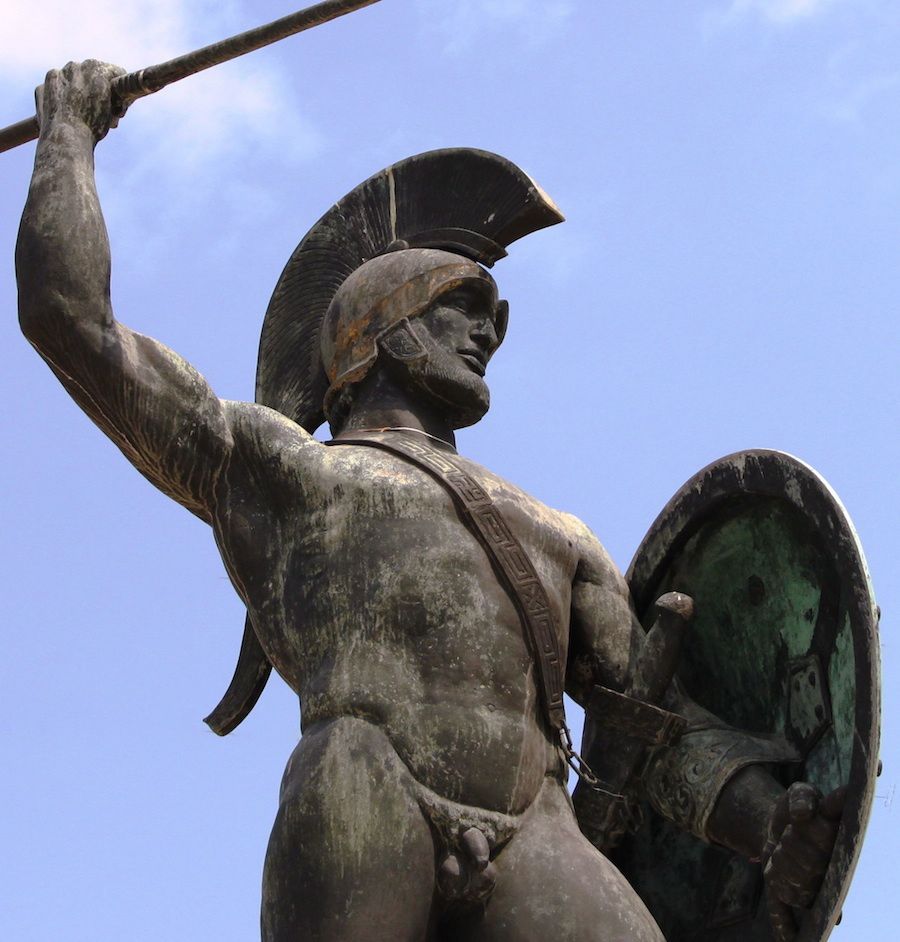
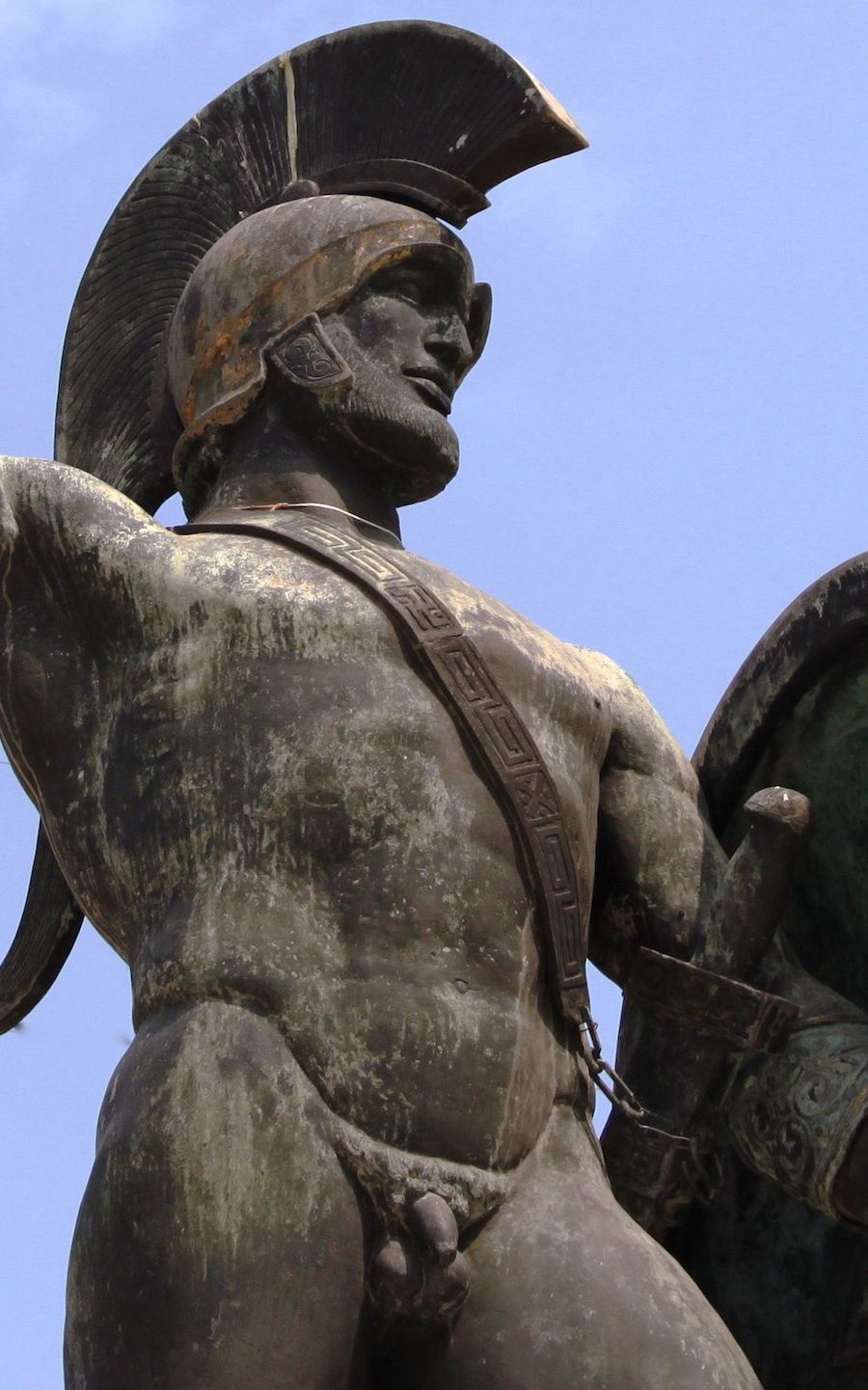

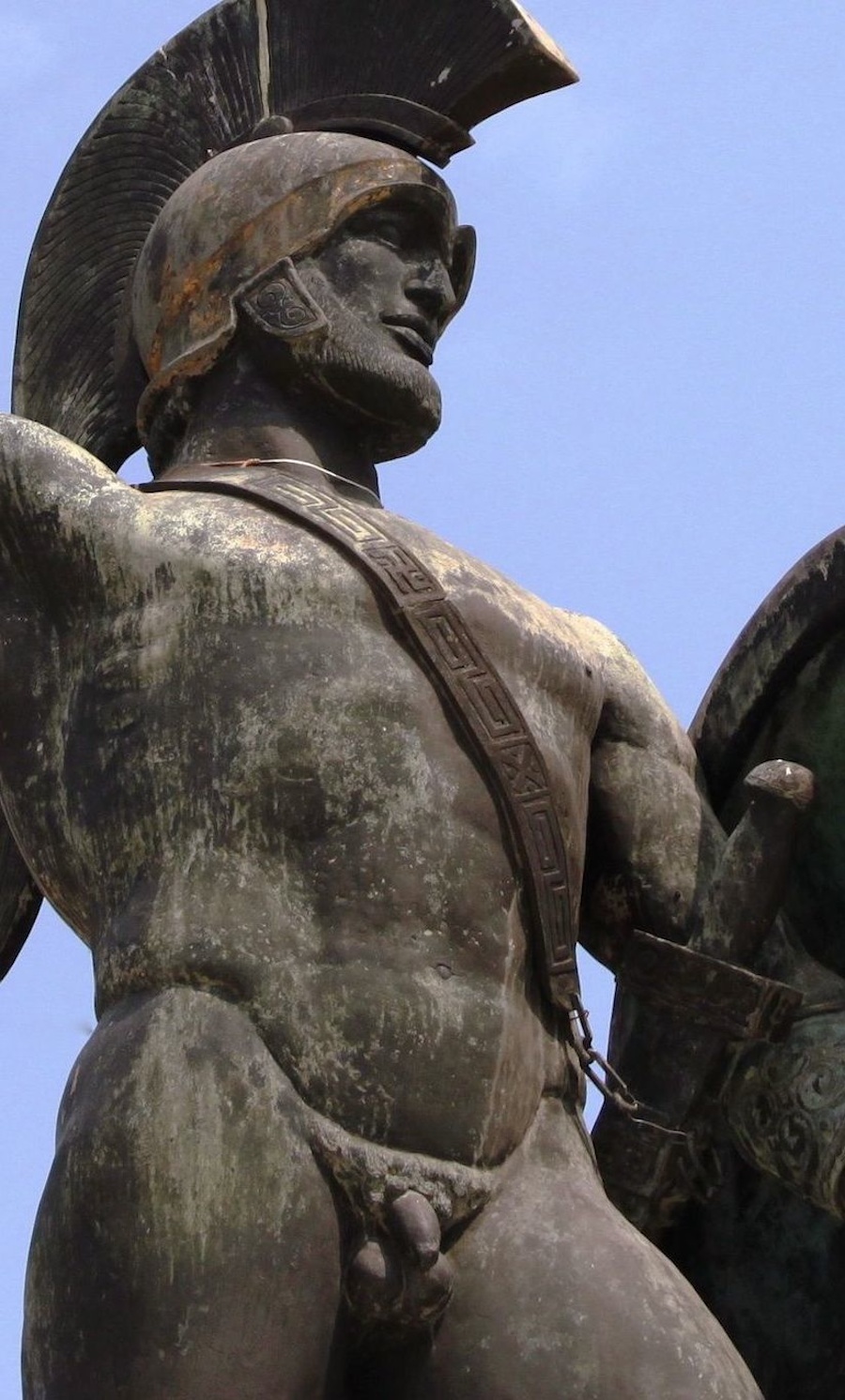








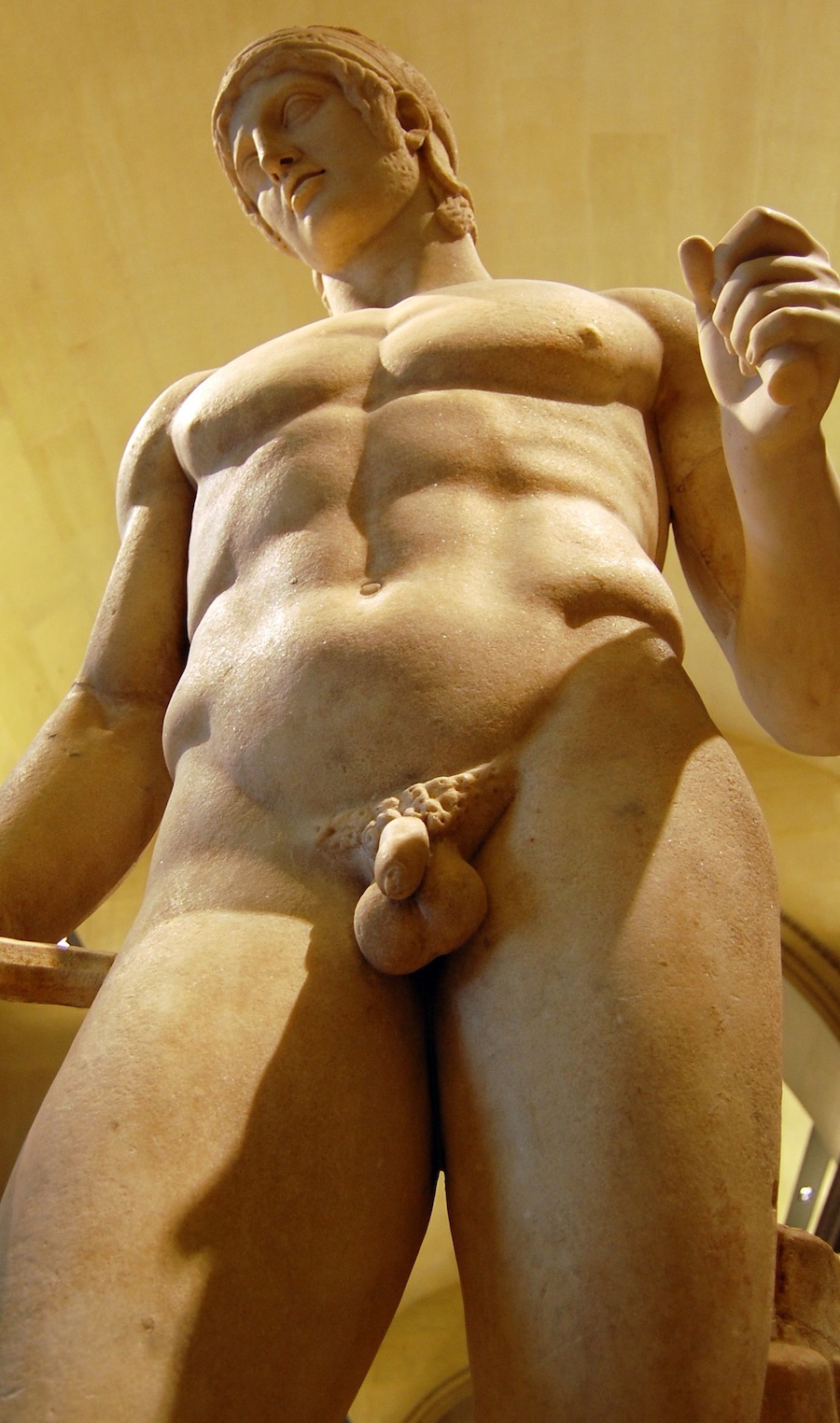



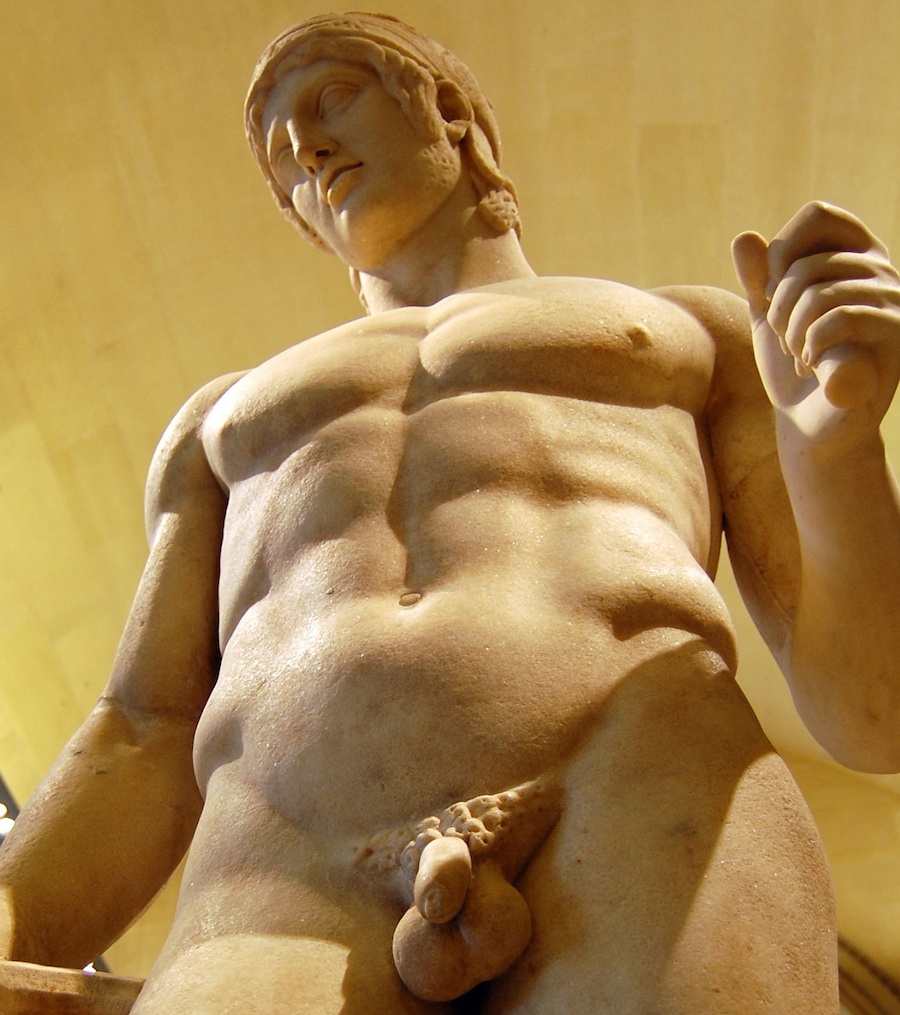











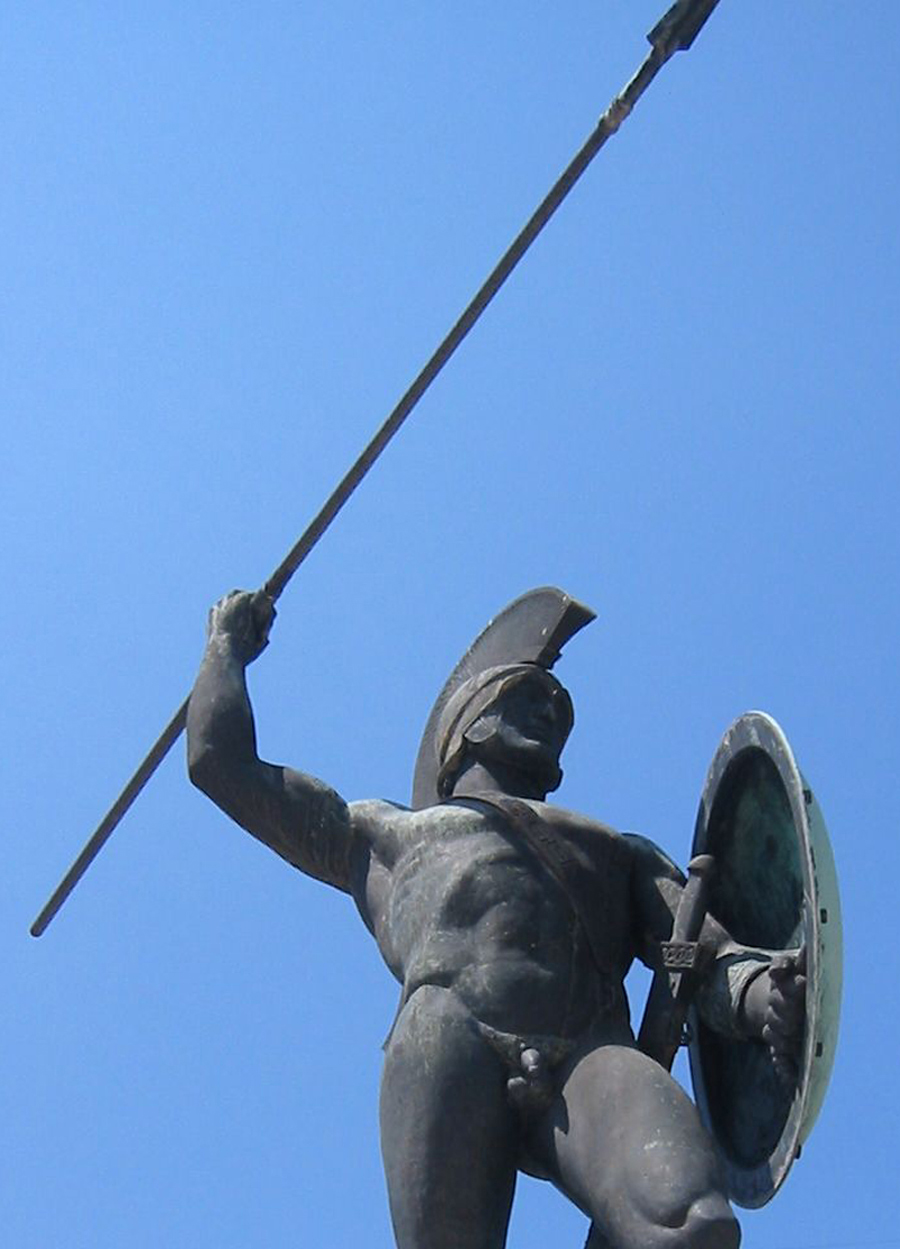
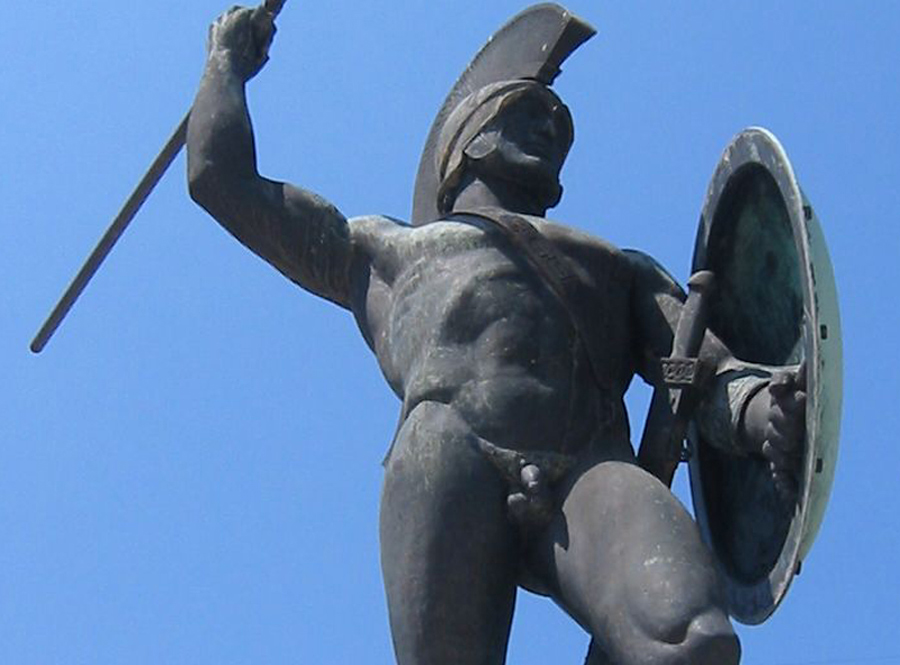
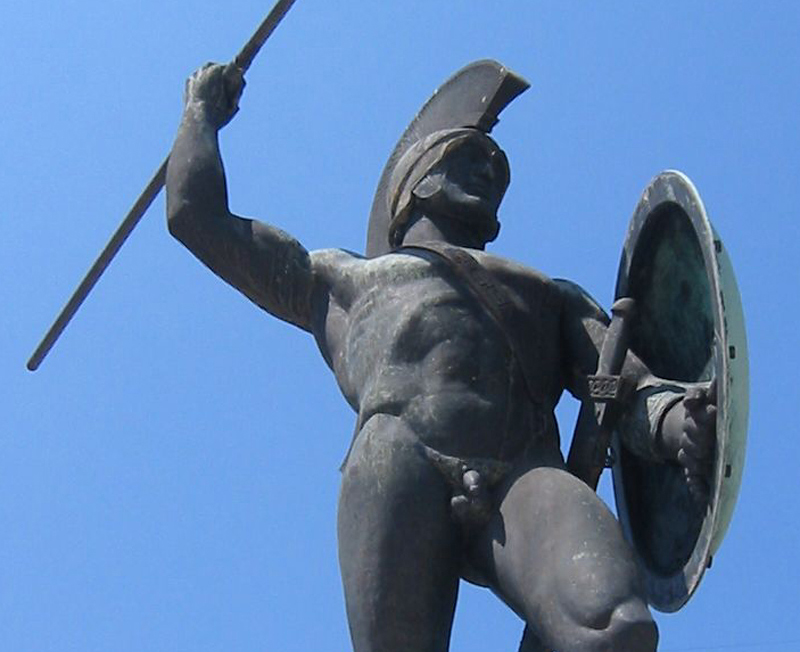


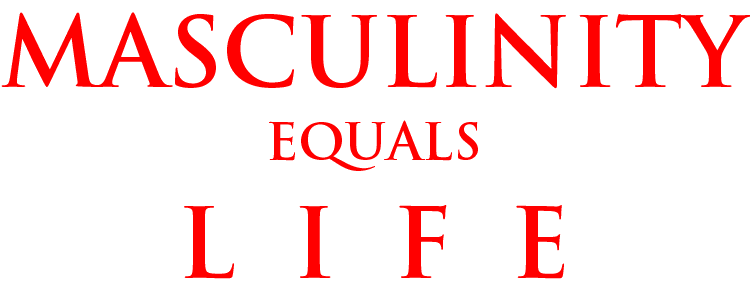







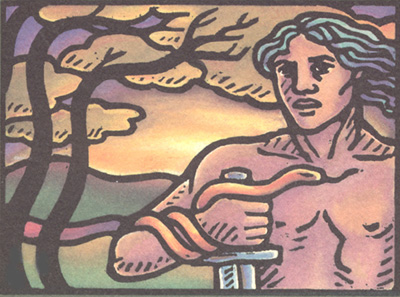


Hail Warrior!
Welcome to Biblion Pempton -- Book V -- of Manhood: A Lexicon.
My name is Bill Weintraub, and I'm the creator of The Man2Man Alliance and Ares is Lord websites, and the author of Manhood: A Lexicon.
Manhood: A Lexicon is, basically, a book -- masquerading as a webpage.
And, like any book, it's best read from the beginning.
So -- I strongly encourage you to read, if you haven't already, the Prefatory Note and Prolegomena to Manhood: A Lexicon ;
And then Biblion Proton ;
Followed by Biblion Deuteron, Biblion Triton, Biblion Tetarton and, finally, Biblion Pempton.
It's important that you read that material, and in this order:
Prefatory Note -- please read this first.
Prolegomena:
Men, Manhood, and Fighting -- please read this next.
MANHOOD -- A LEXICON
I Prologue II The Alphas of Male III Men of Honor: The Morally Beautiful, the Righteously Erect, and the Warrior Worthy I Warriors and Warriordoms
II Father and King
III Ares - Eros - Agon
IV Manly Moral Order
V In Union with Valour
I ARES : Manliness is Godliness
II ARES : High-Minded Passion and Noble Anger
III ARES : Adventus through Askesis
IV ARES : On Equal Terms
V ARES : Warlike and Wise
VI ARES : Scenes from a Munus
VII ARES : Nude Fight Free Fight
VIII ARES : Warrior Virtue
IX ARES : Warrior Communion
X ARES : Warrior Theourgia
Again, it's important that you read all the material, and in the order given:
Prefatory Note and Prolegomena
Doing so will not only greatly aid your understanding of the material you encounter in Biblion Pempton and the rest of Manhood: A Lexicon -- but is essential to your understanding that material.
Translation :
You won't be able to understand Biblion Pempton -- Book V -- without having first read the Prolegomena and the first four books.
Similarly, if you've already read that material -- but it's been a long time since you re-read it -- you'll need to review it.
For example :
Can you explain the difference between the world of becoming and the World of Being?
You have to be able to.
Can you tell me who Shorey, Jaeger, Jowett, and Lendon are?
Or Xenophon?
Or Arrian?
Or Aristonicus?
You have to be able to.
The material in Biblion Deuteron regarding being vs becoming is particularly important.
But so is your ability to explain the difference between the definition of Manhood in ancient Greece and its definition in contemporary America.
So :
You need to read -- and if you've already read once -- to review.
Now :
Biblion Pempton -- Book V -- which is titled Warrior Kosmos, Warrior Sanction /
Ares is Lord : Manhood is God -- is divided into ten chapters, of which the first two were published in 2014, and the third, titled III ARES : Adventus through Askesis, was published December 10, 2015.
The fourth, titled IV ARES : On Equal Terms, was published December 24, 2015.
And the fifth, titled V ARES : Warlike and Wise, was published December 30, 2015.
While the sixth, titled VI ARES : Scenes from a Munus, was published January 15, 2016.
And the seventh, titled VII ARES : Nude Fight Free Fight was published February 1, 2016.
And the eighth, titled VIII ARES : Warrior Virtue, was published March 23, 2016.
And the ninth, titled IX ARES : Warrior Communion, was published April 10, 2016.
While the tenth and final chapter, titled X ARES : Warrior Theourgia, is being published in sections, the third of which, which is also titled Warrior Theourgia, was published November 30, 2016.
And the first part of Warrior Theourgia -- Warrior Pro-oimion -- was also published on November 30, 2016.
And Warrior Theourgia constitutes the heart of Chapter X of Biblion Pempton.
Theourgia is an ancient Greek word which means God-Work.
Warrior Theourgia, then, is Warrior God-Work.
And Warrior God-Work is what we'll be doing in the Holy Communion of Ares Is Lord.
A very hands-on practice of embodying and enacting Divine Principles from the Warrior World of Being -- right here in the World of Becoming.
It's a practice which is based on that of the Neo-Platonic philosopher Iamblichos -- and on which the Roman emperor Julian, himself a philosopher and Platonist, as well as a Military Man -- based his re-organization of ancient religion.
Reading about it will enlighten you ;
And doing it will enrich your life -- your one sweet precious Manly Life -- immeasurably.
And it explains, among other things, how Warrior Theourgia enables Men to transform the chaos of their embodiment -- into the Perfect Measures of the Warrior Kosmos.
Perfect Measures.
Perfect Warriors.
So, and again, the first part of Warrior Theourgia -- Warrior Theourgia I : Warrior Pro-oimion -- was published on November 30, 2016.
The second part of Warrior Theourgia -- Warrior Theourgia II : Warrior Cosmogenesis -- was published January 17, 2017.
The third part of Warrior Theourgia -- Warrior Interregnum I : Warrior Contest : Warrior Conquest -- was published on January 30, 2017.
The fourth part of Warrior Theourgia -- Warrior Theourgia III : Warrior Machogenesis -- was published May 5, 2017, along with --
The fifth part of Warrior Theourgia -- Warrior Interregnum II : Perfect Manliness and the Eternal Return of the Fighter -- which was also published May 5, 2017.
The sixth part of Warrior Theourgia -- Warrior Theourgia IV : Warrior Erotogenesis -- was published November 14, 2017.
And the seventh part of Warrior Theourgia -- Warrior Interregnum III : Warrior Timogenesis : The Ethical Supremacy conferred by Fighting Men and their Fighting Manhood is the Source of All Manly Honour -- was published March 31, 2018.
New parts will be announced directly above, and on the Chapter X Section List, directly below.
Chapter X Section List :
Needless to say -- hopefully -- it's critical that you read the first part of Warrior Theourgia -- Warrior Pro-oimion -- before reading the second or third or fourth.
Otherwise, you won't understand what you're reading.
So :
If you've already read Warrior Theourgia I : Warrior Pro-oimion -- you can move on to
Warrior Theourgia II : Warrior Cosmogenesis -- and so on through the list.
But if you haven't already read Warrior Theourgia I : Warrior Pro-oimion, you should read the introductory material immediately below, and Warrior Theourgia I : Warrior Pro-oimion.
Bill
Again, the eight NEW chapters are Chapter III ARES : Adventus through Askesis, which was published December 10, 2015 ;
Chapter IV ARES : On Equal Terms, which was published December 24, 2015 ;
Chapter V ARES : Warlike and Wise, which was published December 30, 2015 ;
Chapter VI ARES : Scenes from a Munus, which was published January 15, 2016 ;
Chapter VII ARES : Nude Fight Free Fight, which was published February 1, 2016 ;
Chapter VIII ARES : Warrior Virtue, which was published March 23, 2016 ;
Chapter IX ARES : Warrior Communion, which was published April 10, 2016 ; and,
Chapter X ARES : Warrior Theourgia, which is being published in sections, the third of which was published today, November 30, 2016.
I ARES : Manliness is Godliness
II ARES : High-Minded Passion and Noble Anger
III ARES : Adventus through Askesis
IV ARES : On Equal Terms
V ARES : Warlike and Wise
VI ARES : Scenes from a Munus
VII ARES : Nude Fight Free Fight
VIII ARES : Warrior Virtue
IX ARES : Warrior Communion
X ARES : Warrior Theourgia
Future chapters will be announced on this page, and on The Man2Man Alliance Personal Stories message board.
Again, it's important that you read all ten chapters, and in the order given, starting with the first two, and then moving on first to Chapter III ARES: Adventus through Askesis ; and then to Chapter IV ARES: On Equal Terms ; and then to Chapter V ARES: Warlike and Wise ; and then to Chapter VI ARES: Scenes from a Munus ; and then to Chapter VII ARES: Nude Fight Free Fight ; and then to Chapter VIII ARES : Warrior Virtue ; and then to Chapter IX ARES : Warrior Communion ; and then to Chapter X ARES : Warrior Theourgia :
I ARES : Manliness is Godliness
II ARES : High-Minded Passion and Noble Anger
III ARES : Adventus through Askesis
IV ARES : On Equal Terms
V ARES : Warlike and Wise
VI ARES : Scenes from a Munus
VII ARES : Nude Fight Free Fight
VIII ARES : Warrior Virtue
IX ARES : Warrior Communion
X ARES : Warrior Theourgia
And Please Note :
Of chapters III through IX, Chapter III ARES : Adventus through Askesis -- is by far the most important.
It's vital that you read and re-read Chapter III until you're sure you understand it -- before moving on to Chapter IV.
Again, it's vital and absolutely necessary that you read and re-read Chapter III ARES: Adventus through Askesis -- until you're sure you understand it and are confident you can explain its main points in your own words -- before starting Chapter IV.
Throughout all five books of the Lexicon, there appear translations of ancient Greek texts.
Certain words within the texts are indicated with brackets and a link, thus :
Whenever you see a bracketed link of that nature, it's *important* that you click on it and read the definition given.
But -- whenever you see a bracketed link which refers to some aspect of Manhood and/or the Warrior's Being and Life, such as Manliness, Honour, Valour, Moral Beauty, Virtue, Courage, Bravery, Glory, Strife, Struggle, Combat, Battle, Fight, War, Agony, Athletics, Contention, Obedience, Boxing, Weaponry, Wrestling, Spearmen, Pankration, Martial Order, Righteous Erectness, Love, etc. -- as well as words which are specific to the Greeks and/or Romans -- such as Doric, Lakedaimon, Lakon, Honestum, Pugna, Purus -- it's essential that you click on it and read the definition given.
I repeat :
Not once, but every time you see the word, until you are 100% absolutely and without a doubt confident that you know exactly and precisely what the word means, you MUST click on and read the link.
Doing so is particularly important for the words we discussed in Parts II and III of Biblion Proton : The Alphas of Male, including Andreia, Arren, Aristos, Areté / Areta, etc ; and Men of Honor : The Morally Beautiful, the Righteously Erect, and the Warrior Worthy : Kalos-Kalon-Kala, Orthos, and Timé / Tima.
However, every word in the Lexicon is important -- and all bracketed links should be read.
Here's an example of why -- from Plato's Symposion :
Sokrates :
~Plato. Symposion. 212b, translated by Fowler.
The first bracketed link is of [timao] -- a word which greatly matters because it's derived from Timé -- Honour.
So -- the first sentence should read "I tell you now that every Man should Honour Love" ; and the word "Honour" is important because it's a Warrior Word which, in this context, connects Romantic, Passionate Love between Men -- with the Manly Honour -- the Timé -- Men earn through their Prowess on the Battlefield -- through their Prowess in Fight.
Again :
The first sentence should read "I tell you now that every Man should Honour Romantic, Passionate Love between Men" ; and the word "Honour" is important because it's a Warrior Word which, in this context, connects Romantic, Passionate Love between Men -- with the Manly Honour -- the Timé -- Men earn through their Prowess on the Battlefield -- through their Prowess in Fight.
In other words, Sokrates' use of the word Honour -- Manly Honour -- very explicitly connects Romantic, Passionate Love between Men -- with -- FIGHTING.
And in so doing, connects that Love with the Warrior Worlds of both Warriordom and Warrior Kosmos.
In short, timao matters.
But the other words matter too -- a LOT.
Why?
Here's Fowler's translation of the second clause :
And here's the actual meaning of that second clause :
both now and always do I praise as one would a conquering hero [enkomiazo -- see enkomios], the Might [dynamis] and Manliness [andreia] of Romantic, Passionate Love between Men [Eros] -- as far as I am able.
Hopefully you can see the difference between Lamb's translation and the actual meaning of the second clause, and understand therefore why it matters that you learn the actual meaning of ancient Greek words.
Here's another example :
The ancient Greek word athletes.
It looks like our modern English word "athlete," and certainly that's where we get our word from.
But the ancient Greek word doesn't refer to just any athlete.
Its definition, according to Liddell and Scott, is a combatant, champion, prizefighter.
So its first meaning is combatant ;
and its second meaning is champion ;
while its third is prizefighter.
So :
An athletes is either a combatant in wrestling-boxing-pankration -- or on the battlefield.
The ancient Greek word athletes is about fighting and combat.
Yet two different translations of Pindar's Victory Ode known as Isthmian 6, For Phylakidas of Aigina, Winner, Pankration, render the ancient Greek word athletes -- as our word modern English word "athletes."
And that's both misleading -- and wrong.
The context is that Pindar is complimenting a Man named Lampon, who has two sons (and a brother-in-law and grandfather) who've been victors at the various Crown Games -- in Pankration :
You might say that for athletes he is like the bronze-mastering Naxian whetstone among other stones.
~Pindar I 6.72, translated by Svarlien.
You would say that among athletes the man is a bronze-taming whetstone from Naxos compared to other stones.
~Pindar I 6.72, translated by Race.
That's not what Pindar's saying.
He's saying that "for combatants and prizefighters, Lampon is a bronze-taming whetstone from Naxos compared to other stones."
In other words, he produces a superior Combatant -- a superior Fighter.
A Champion.
Because, again, Lampon has two sons (and a brother-in-law and grandfather), who are Winners in Pankration.
Not in a foot race, not in throwing the discus, but in the roughest and toughest Agonia around.
Pindar's remark -- and his ode -- is about Fighters and Fighting.
So :
In another ode, Pindar uses the word thego -- to sharpen, whet.
Like the best whetstone, the Naxian whetstone, superior for sharpening swords and spear-points, Lampon has sharpened his sons into superior Pankratiasts.
And, by implication, superior Warriors.
Indeed, what Lampon has really sharpened is their Areta -- their Manly Excellence, their Fighting Manhood.
But to understand that, you have to understand the actual meaning of the ancient Greek word athletes ; and not be fooled by its superficial resemblance to a modern English word.
And to do that -- to have that understanding and not be fooled -- you have to CLICK ON THE LINK.
Until you know what the word -- actually means.
So --
You may not like that I tell you to click on a link.
Repeatedly.
But if you want to be liberated -- you're going to have to do some work.
Just like you're going to have to learn to Fight.
You can't get there -- by doing nothing.
That's been your strategy your entire life.
And it's gotten you nowhere.
If you want to be liberated --
If you want to be a Man --
You're going to have to do the work.
I said that, in another ode Pindar uses the verb thego -- to sharpen, whet.
It's in Olympian 10, for Hagesidamos of Western Lokri, Winner, Boys' Boxing :
~Translated by Wm Race.
"Without toil, only a few have attained joy"
Hagesidamos of Western Lokri was the winner in Boys' Boxing in 476 BC.
Boys' Boxing.
Most of you are middle-aged -- and you've never thrown a punch.
You're pathetic.
You need to do the work.
You have to do the work.
Given that it's important -- very important -- that you learn the actual meaning of ancient Greek words, particularly when those words refer to some aspect of Manhood and/or the Warrior's Being and Life, such as Manliness, Honour, Valour, Moral Beauty, Virtue, Courage, Bravery, Glory, Strife, Struggle, Combat, Battle, Fight, War, Agony, Athletics, Contention, Obedience, Boxing, Weaponry, Wrestling, Spearmen, Pankration, Martial Order, Righteous Erectness, Love, etc. -- as well as words which are specific to the Greeks and/or Romans -- such as Doric, Lakedaimon, Lakon, Honestum, Pugna, Purus -- you need to know how to read the Liddell and Scott definitions that you'll see when you click on a bracketed link.
So :
In Liddell and Scott's definitions of ancient Greek words, the words in italic type are the actual definitions of the Greek word, while the words in roman type are explanatory and/or serve to link several words.
For example, in this entry on
reverence, awe, respect and shame, self-respect, sense of honour are the actual translations of the word ; that is, Aidos can mean and can be translated as reverence, awe, respect, shame, self-respect or sense of honour.
The last three definitions derive from the first three in the way that Liddell and Scott explain in roman type :
In other words, because the Warrior has reverence, awe and/or respect for the feeling and opinion of others or for his own conscience, he may feel shame, self-respect, or a sense of honour.
So -- to take a specific instance -- in Sparta, the young Warriors were taught to always give up their seat to an elder Warrior.
A young Warrior, seeing an elder Warrior who needs a place to sit, will give up his seat to that elder because of the reverence, awe, or respect he has for the opinion of his peers or the promptings of his own conscience.
If he does not give up his seat, he'll feel shame.
While if he does offer his seat to the elder, he'll experience self-respect and a sense of honour.
Same with keeping his place in the Hoplite formation.
The Warrior would feel shame if he broke ranks and ran away.
While he feels honour when he stays at his post.
Thus aidos can mean both shame and honour or self-respect, and it derives from the sense of reverence, awe, and respect which the Warrior feels for the opinion of his elders, his peers, and his own conscience.
And -- if you go to the definition of aidos as it appears in our Lexicon, you'll see that I've written an explanation under Liddell and Scott's definition -- which expands upon what I've just said.
Here's another example :
So -- areté / areta (the Doric form of the word) -- can be translated as goodness or excellence of any kind, but especially of manly qualities -- qualities such as goodness, excellence, and virtue -- thus
areté / areta can be translated as Manly Goodness, Manly Excellence, Manly Virtue -- or just plain Manhood, which is really what the word means when referring to a human male -- and Liddell and Scott add, valour, prowess --
Which makes perfect sense, because valour is the Willingness to Fight, and prowess is the Ability to Fight ; and Areté / Areta is Manhood, which, at its most basic, is The Willingness and Ability to Fight.
And, Liddell and Scott say, under their entry for Ares,
So they repeat the word goodness, saying "the first notion of goodness being that of manhood, bravery in war."
And in both definitions they refer the reader -- and this is a VERY IMPORTANT POINT -- with the words "cf." = confer = compare Lat. = Latin -- virtus.
They tell the reader to compare the Greek word areté / areta with the Latin, that is, Roman, word, virtus.
Why?
Because, and again this is a VERY IMPORTANT POINT, from the Renaissance forward, boys were taught Latin FIRST -- and then ancient Greek.
Again, kids learned Latin BEFORE they learned Greek.
That was the standard pedagogy for centuries -- and until very recently.
Therefore, Liddell and Scott FREQUENTLY make reference to Latin words -- assuming that their readers, most of whom are students, have already learned some Latin -- and perhaps a lot.
And those students certainly would have learned the Roman words vir -- man -- and virtus -- which is usually translated as "virtue," but which really means, according to Charlton Lewis, another 19th-century scholar, "manliness, manhood, i. e. the sum of all the corporeal or mental excellences of man, strength, vigor; bravery, courage; aptness, capacity; worth, excellence, virtue, etc."
So :
Both Areté / Areta and Virtus mean Manliness, Manhood, i. e. the sum of all the corporeal or mental excellences of man, strength, vigor; bravery, courage; aptness, capacity; worth, excellence, virtue.
Which is something I explain in three places in our Lexicon, Understanding the Core Position and Actual Meaning of Andreia-Areté-Virtus within the Culture of Fighting Manhood ; Fowler's Translator's Note ; and The Attributes and Qualities of Fighting Manhood.
Which is that Areté / Areta / Andreia -- and Virtus -- mean and are essentially the same thing or, if you prefer, set of attributes.
Of which *the most important*, consistently, in both cultures, both of which are Warriordoms, is Fighting Manhood, which is The Ardent Willingness and Requisite Ability, to Fight.
Again :
Liddell and Scott expect the average student of Greek, who in their day would have been an adolescent boy, or perhaps younger, to have already encountered the Latin / Roman word Virtus, and know what it means.
They also expect the boy's teacher, who's a classicist and who knows both Latin and ancient Greek -- to make the comparison for the boy.
Which means that when you read a Liddell and Scott definition, and see a reference to a Latin word which, on the Perseus website, is always a clickable link -- you should click on it -- and see what the word means.
Because, again, Liddell and Scott expect, and not without reason, that you know what it means.
So :
That's how to read a Liddell and Scott definition.
The words in italic are the actual translation, the words in roman are explanatory, and the comparisons to Latin words, indicated by the notation "cf. Lat." -- matter.
Now :
Let's look again at our earlier discussion of Prof Fowler's translation of a few lines in Plato's Symposion :
Sokrates :
~Plato. Symposion. 212b, translated by Fowler.
Here's Fowler's translation of the second clause :
And here's the actual meaning of that second clause :
both now and always do I praise as one would a conquering hero [enkomiazo -- see enkomios], the Might [dynamis] and Manliness [andreia] of Romantic, Passionate Love between Men [Eros] -- as far as I am able.
You'll notice that Fowler has translated andreia as "valor," when its actual meaning is Manliness, Manhood, Manly Spirit.
Does that mean Fowler has done something bad or wrong?
No -- not within the context of when he was writing -- ca 1925 -- and the Men he was writing for.
But he has, inadvertently, done something injurious to males like yourselves, who not only don't know how to Fight, but are completely ignorant of the ancient Greek and Roman, Fighting-Manhood-based, Ethical System.
We'll discuss that system throughout Biblion Pempton.
In the first two chapters of Biblion Pempton, we examine, among other matters, two variants of the system :
In Chapter One, the Involved or Integral Virtues of Manhood, Piety, Temperance, and Manly Moral Order ;
and, in Chapter Two, the more common variant, which puts MANHOOD and its attributes at the center and core of that system.
It's essential that you understand BOTH variants.
The idea of the Four Integral Virtues is simple : There are Four Virtues -- Manhood, Piety, Temperance, and Moral Order -- and you can't have one without having the other three.
The Manly Man is Pious, Temperate, and Morally Ordered ;
The Pious Man is Manly, Temperate, and Morally Ordered -- etc.
In the Manhood System, which, again, was more common in ancient thought, Manhood, Fighting Manhood, is at the Moral Center of Society -- the Warriordom -- and of the Kosmos -- both created -- Fight is the Father of All -- and eternal -- the Warrior World of Being, the Warrior Kosmos.
Fighting Manhood has attributes -- one classicist names fifteen -- which every Man Struggles to Attain -- so as to Perfect his Manhood.
Put differently, the Perfect Man, the Man every male should strive to be, has all of the positive and active attributes of Fighting Manhood :
You should memorize both the Four Integral Virtues and what we can call the Four V's of Fighting Manhood -- Vigor, Valour, Virtue, and Value -- along with all their attributes of Strength, Gallantry, Manly Goodness, Martial Merit, etc. ;
And then, as you read, keep the two systems constantly in mind.
And to help you better understand the second of the systems, which again we call the Manhood System, I've written a small article with a long title, Understanding the core position
and actual meaning of Andreia-Areté-Virtus within the Culture of
Fighting Manhood, which I encourage you to read.
Again, these ethical models of Integral Virtue and the Manhood System are discussed in the first two chapters of Biblion Pempton.
Now :
In Chapter III, we'll begin to look at the word "Good," and it's big brother, "Virtue," and start to understand what these words actually meant to ancient Men -- ancient Warriors.
Because they don't even remotely mean the same to us -- living in a Christian, effeminized, and heterosexualized society -- as they meant to Men living in a Warriordom -- a pagan, patriarchal, phallo-centric, very pugnacious, and totally Masculinist culture.
So -- the ancient Greek word agathos, usually translated as "Good," actually means "Excellent," and when referring to a Man, 99.99% of the time, actually means Manly -- that is, Willing and Able to Fight.
And even when not referring to a Man directly, because almost everything in a Masculinist society exists in relationship to Men, the word is colored by its frequent reference to Men -- so that, for example, and as we'll see, many objects, such as drinking cups, are considered "good" or excellent because they have a "Manly" use -- that's to say, Fighting Men benefit from their existence.
Similarly, the ancient Greek word areté / areta, often translated as "Virtue," actually means "Excellence," and as we'll see in Chapter III, when referring to a Man, actually means, and 99.99% of the time, Manly Excellence, which is Manhood -- Fighting Manhood -- which is the same as Manliness, which is the same as Manly Goodness, which is the same as Manly Virtue, which is the same as Manly Spirit -- which is the same as Fighting Spirit.
Manly Excellence aka Manhood is the Man's Ardent Willingness -- and Requisite Ability -- to Fight.
And that form of Manhood, that Fighting Manhood, is, to the ancient Greeks and Romans, the best thing in the world.
Just as its lack -- an-andria -- the want of Manhood -- is the worst.
So :
This is a little ditty by Plautus, a Roman playwright of the middle Republic :
Virtus is the greatest prize,
~translated by Lendon.
And, adds Prof Lendon, quoting the Roman poet and tragedian Quintus Ennius,
So :
Plautus says that Virtus -- which is Andreia -- which is Areté / Areta -- which is Manly Excellence which is Manliness which is Fighting Manhood --
"has everything in it!"
And that's true -- if by everything is meant all things Masculine and Manly.
As 19th-century scholar Charlton Lewis tells us in his definition of Virtus :
But -- as another historian of Rome, Thomas Wiedemann, demonstrated in his award-winning book Emperors and Gladiators, there's one element or attribute of Virtus / Areté / Areta / Andreia which is more important than the others :
Single combat was the context in which a Roman had to prove that he possessed the most important constituent of 'virtue' [that is, Virtus, which is Fighting Manhood].
. . .
It was this same quality, the courage to confront an opponent coupled with the technical ability to maim and/or kill him, which the gladiator instantiated [made concrete].
So :
Single combat was the context in which a Roman had to prove that he possessed the most important constituent of Virtus, which is Fighting Manhood : the courage to confront an opponent coupled with the technical ability to maim and/or kill him.
"the courage to confront an opponent" is Willingness
"the technical ability to maim and/or kill" is Ability
And what's true for the gladiator is true of the ordinary -- that is to say, Free -- Warrior in both Rome and ancient Greece :
Virtus-Areté-Areta-Andreia is the Willingness and Ability to Fight.
That's to say, the Willingness to Confront an Opponent coupled with the Ability to Defeat Him.
And in both Rome and Greece, that Willingness and Ability was without question the single most important component, the most important constituent, as Wiedemann says, of Virtus, which is Areté / Areta, which is Manly Excellence, which is Fighting Manhood.
Which brings us back to Ennius.
The Roman poet Ennius, who lived from 239 to 169 BC, and was fluent in Greek, Latin, and Oscan, promoted Greek literature and Greek ways among the Romans, and was well-regarded, being, at different times, the friend of such luminaries as Cato the Elder and Scipio Africanus, and was therefore very influential too.
And if you click on the link, you can read Harry Thurston Peck's really sweet 1898 -- that is to say, pre-heterosexualized -- biography of Ennius, which ends with this encomium :
He gave to Latin literature an impulse it never quite lost. In nearly every field he led the van. To him, more than to any one, it owes its predominant tone of sober directness and moral strength. In him Greek culture, grafted on an Oscan or Messapian stock, combined with Roman patriotism to form for the first time that special intellectual type, enthusiastic but disciplined, imitative yet independent, Hellenic in source but in development intensely national, which we can trace all through the subsequent course of Roman letters, and most conspicuously in their best and most illustrious representatives.
Ennius gave to Latin literature, says Peck, "its predominant tone of sober directness and moral strength."
Sober Directness and Moral Strength -- indeed.
These are the lines in Latin which Prof Lendon quotes -- they're spoken by Phoenix in Ennius' tragedy of that name :
Phoenix
Sed virum vera virtute vivere animatum addecet
And this is the translation :
Phoenix
But it behooves a man [vir] of true [verus] Virtus -- of true Manliness, true Manly Excellence, true Fighting Manhood --
Ennius Phoenix 311, translated by Warmington and myself.
True Virtus -- True Manhood, says Ennius, which is True Liberty -- resides in standing with innocent bravery in the face of foes, keeping oneself pure and steadfast.
That's True Liberty, which is True Manhood.
All other conduct lurks in darkness, fraught with guilt.
And notice the emphasis on innocence and purity, on freedom from sensuality and luxury, which is not just Roman, but Spartan as well.
And which we'll examine in Chapter V of Biblion Pempton, when we look closely at the Apophthegmata Lakonika, The Terse and Pointed Sayings of the Spartans.
So again, both Sparta and Rome, like all Warriordoms, encourage innocence and purity among their Warriors, putting a premium on freedom from sensuality and luxury.
Indeed, Joseph Campbell, the great mythographer and student of mythic heroism, says, in The Masks of God, that the Hero is "the uncorrupted son of nature, pure in the yearning of his heart."
Because that's how Warriordoms -- Masculine and Martial Phallo-Centric Cultures -- conceive of the Hero.
For now, what you can see, hopefully, is how close in thought the fragment from Ennius, written in Latin ca 200 BC, is to Plato's "In Union with Valour -- that is, Fighting Manhood" speech -- from the Menexenus, written in Greek ca 400 BC, and which we first examined in Biblion Tetarton :
So first Plato, the Greek philosopher, and then Ennius, the Roman poet, are saying that the lack of Areté - Virtus -- of Manly Excellence, which is Fighting Manhood -- is fatal to anything else a male might attempt to do.
"Everything else is subordinate and hides in dark night," says Lendon ; "All conduct else lies lurking in dim darkness, fraught with guilt," says Warmington -- and it's the same deal as Plato :
So :
Manly Excellence aka Manhood is the Man's Ardent Willingness -- and Requisite Ability -- to Fight.
And that form of Manhood, that Fighting Manhood, is, to the ancient Greeks and Romans, the best thing in the world.
Just as its lack -- an-andria -- the want of Manhood -- is the worst.
Again, we'll look closely at this in Chapter III.
In the context of understanding the way Men achieve the Adventus -- the arrival and realization of their Manhood -- through Askesis -- the discipline of Fight -- Mache -- and of self-control -- Enkrateia.
For now, however, those interested can read an extended discussion of Ennius, Plato, and the Guileless Purity of the Warrior by visiting our exploration of Warrior culture -- Warriordom.
Throughout our Lexicon I use the term Fighting Manhood.
Why?
To make clear that the Manhood I'm talking about is the Manhood which equips a Man with that which he needs to be a Man, the Willingness and Ability to Fight.
Why?
Because, although that definition of Manhood was clearly understood to be the definition of Manhood for literally thousands of years, in the latter part of the 20th century and on into the 21st, and as I discuss in Biblion Proton, the word manhood came to be associated with sex, rather than Fighting.
That association is dead wrong.
But it's extremely widespread, and what that means is that I have to constantly clarify, in my writing, that I'm talking about Fighting Manhood, and not some sort of sexual "manhood."
It's tedious to have to constantly do that, but I have to be realistic about what the larger and dominant heterosexualized culture is saying, over and over and over again, to the Men who read my work.
And I have to counter those constant cultural messages from the dominant hedonist and ethically-nihilist cultures which rule our contemporary world in such matters.
So -- and to give an example :
In her 1978 book, The Nude Male, feminist Margaret Walters says
The continuing centrality of the male nude [in Greek and Roman art] is a product of the religious and cultural reverence accorded the phallus, the symbol of arete [sic] and manly strength.
That's completely wrong.
First of all, as anyone who's looked at my work, and the pictures which illustrate that work, knows, the male nude in Greek and Roman art doesn't commonly display a phallus, that is, an erect penis.
Instead, the penis is, to our eyes, small and decidely not erect ; and the testicles are emphasized.
For example, here's a bronze copy of the statue known as the Doryphoros, the Spear-Bearer :
In the ancient world, the Doryphoros was considered to be canonical, that is, it set the standard for the physical proportions which should be displayed by the Ideal Man.
And you can see what those standards are.
The shoulders are broad and well-developed, as is the chest, the abs are well-defined --
While the penis is small and detumescent, and the testicles clearly and lovingly modeled.
There are a great many sculptures like the Doryphoros.
Unfortunately, many are missing their penises, because those were destroyed by Christian mobs.
But there remain to us a fair number of sculptures which are genitally complete because they were lost at sea or were buried by ancient Men to protect them :
As you can see, in none of these sculptures -- and this is equally true of vase paintings --
In none are the penises erect or phallic ; to the contrary, they're small and detumescent.
So that what the feminist Ms Walters and we are seeing are not phalloi -- to use the Greek word -- but the aidoia, the genitals, which are indeed objects of religious and cultural reverence among the Greeks.
As you can see when you click on the link, for the word aidoia is related to aidoios -- regarded with reverence, august, venerable -- and aidos -- reverence, awe, respect -- and aidios, meaning everlasting, eternal -- to aidion is the eternal.
So -- the genitals are to be treated with reverence, awe, and respect, they're to be venerated, which means treated as something sacred, because they partake, in some way, of the Eternal.
And aidoia is the common word for genitals.
Here, for example, are two accounts by the Spartan poet Tyrtaios, who lived ca 650 BC, of hoplite warfare and its aftermath:
. . .
At the very forefront an older man falls and lies down in front of the younger, So why does Margaret Walters, who's obviously not un-intelligent, make this patently absurd statement :
The continuing centrality of the male nude [in Greek and Roman art] is a product of the religious and cultural reverence accorded the phallus, the symbol of arete [sic] and manly strength.
Well, the ideological answer would be that as a feminist, she doesn't like Manhood, that is Fighting Manhood, or the phallus, and wants to confuse them.
While a simpler answer might be that as a resident of the 20th-century, she's addled about phallus and manhood -- that is, she thinks that the phallus *is* manhood.
But it isn't.
At least not 99.99%, as I like to say, of the time.
The Greeks have two words for Manhood, Fighting Manhood : Areté / Areta and Andreia.
Areté / Areta, when referring to a Man, always means Fighting Manhood and its synonyms, Manliness, Manly Excellence, Manly Goodness, Manly Virtue, etc.
But Andreia, which derives from the genitive form of the word for Man, andros, is used, once in a very great while, to refer, as Liddell and Scott put it, to the membrum virile, the virile member, the penis and/or phallus.
But that genital use of the word Andreia is very very very rare.
Again, 99.99% of the time, Andreia means Fighting Manhood.
And contrary to what Walters says, the phallus is NEVER "the symbol of arete and manly strength."
First of all because Areté is what Liddell and Scott say it is,
To which they add
Manhood.
Manhood is Goodness, and not just any goodness, but the first notion of goodness --
"the first notion of goodness being that of manhood, bravery in war"
Manhood, Bravery in War.
"goodness, excellence, of any kind, esp. of manly qualities, manhood, valour, prowess"
Manhood, valour, prowess, that is, Fighting Manhood, the Man's Eager Willingness and Requisite Ability -- to Fight.
That's what Areté / Areta -- is.
Nowhere do Liddell and Scott say that Areté is Phallos or that phallus is the symbol of Areté.
Because the phallus is most certainly NOT "the symbol of" Areté / Areta.
Areté / Areta is what Liddell and Scott and we ourselves say it is : Manly Excellence, Manly Goodness, Manly Virtue, Fighting Manhood.
FIGHTING MANHOOD.
That's what it is.
So :
Given that Areta is Fighting Manhood, if Areta had a symbol, it would be of Men Fighting -- like this :
And, again, as anyone who's read my work and looked at the illustrations knows, there were a gazillion such "symbols" in ancient Greece and Rome, which properly speaking aren't symbols, but are cultural messages about the Excellence of Areta, which is Fighting Manhood, and the Excellence of Fight, which is, in its essence, about Men Struggling to Bring Their Manhood, their Areta, to Perfection.
For, really and truly, that's what the Greek ethos was about -- an entire Masculinist and Martial culture communally dedicated to Men Struggling to Bring Their Manhood, their Areta, to Perfection :
Pindar speaks, in the context of Boxing -- Pugme -- and of Pankration -- of one Man helping another to sharpen [thego] his Areta.
Think about, in that regard, Xenophon, and his ecstatic account of the Erin Peri Aretes, the Struggle of, for, and about Manhood, which is found in his Lakedaimonian Republic 4.5 :
Here then you find that kind of strife that is Dearest to, Most Beloved of, the Gods [Theophilestatos], and in the highest sense political -- the strife that sets the standard of a brave man's [agathos -- a Manly Man's] conduct ; and in which either party exerts itself [askeo -- either party practices, exercises, trains itself] to the end that it may never fall below its best [kratistos -- its strongest, its mightiest, its most powerful], and that, when the time comes, every member of it may support the state with all his might [sthenos -- strength, might and power].
And they are bound, too, to keep themselves fit [euexia], for one effect of the strife is that they fight [pukteuo -- strike with the fist] whenever they meet [symballo -- to bring men together in hostile sense, to set them together, match them : to join in fight, come to blows] ; but anyone present has a right to part the combatants.
Xenophon is talking about Communal Fights among Spartan Young Men, whose purpose it is to make the Spartans the MOST MANLY -- that is to say, the MOST MANFULLY EXCELLENT -- MEN, among all the Greeks ; and he says that this kind of Struggle, this kind of Fight, is in the Highest -- that is, best -- sense, Political [politikotatos], that is, of Benefit to the Polis, the City-State, in this case the Spartan City-State, the Lakedaimonian Commune ; and is Dearest to and Most Beloved of -- the Gods.
Whom Xenophon greatly reverences.
So he's speaking of a Communal Struggle, a Communal Fight, to fully Realize, to fully achieve, Areta -- Fighting Manhood -- for the benefit of the state, Sparta ; and, Xenophon says, the Gods Smile Upon Such Struggle and Fight.
For : neikeon symphytos tekton
What about the phallus being a symbol of "manly strength"?
Absolutely NOT.
Because the Warrior's Manly Strength derives not from his phallus, which is most of the time, after all, an instrument of sensuality, but from his askesis, his practice and discipline -- which is, to some degree, ascetic.
Indeed, our word English word ascetic derives from from the ancient Greek word askesis.
Although the Sokratic ideal of askesis honors the body in a way that Christian asceticism doesn't.
Nevertheless, Warrior thinkers, like Ennius and Plato, routinely say that the Ideal Warrior should be free of sensuality.
So : Walters is wrong.
Phallus is not the symbol of areté ; nor is it a symbol of manly strength.
Again, if manly strength had a symbol, it would be of Men Fighting.
That said -- are there representations of Phallus in Greek art and Greek life?
Yes.
What's their role?
They have two different roles, only one of which Margaret Walters gets right.
Walters :
Walters says that phallic symbols "turn up everywhere in ancient folklore, cult, and art."
But we just saw that isn't true.
They're not everywhere.
They're where the ancients want them to be, and for two specific purposes.
One of those purposes has to do with what Walters calls "comic personifications of virility," except that once again she's wrong about what's being depicted, or in this case, personified.
Walters no doubt thinks that virility is or should be comic, and she and other feminists have come a long way in convincing everyone, including most males, that virility is comically out-of-date.
The Greeks don't think that way -- to put it mildly.
Virilitas -- Andreia -- Areta -- is something they take very seriously.
So :
Phalloi to the Greeks are often "comic personifications" NOT of virility, but -- of lack of self-control.
Satyrs, for example, are figures of fun because they can't control themselves, and most especially their erections.
Whereas Self-Control -- Sophrosyne -- is the pivotal Greek Civic Virtue.
Sophrosyne -- and Moderation (metron, kairos) -- along with, per Pindarist Wm Race, "the aristocratic ("Doric") values of order (eunomia), civic concord (hesychia), and reverence for the Gods (eusebeia)" are what matter.
Walters then conflates two different functions of phalloi -- as symbols of an animalistic lack of control -- and as fertility symbols :
What Walters says is so confused that is has to be broken down :
The phalloi in Dionysiac processions are FERTILITY symbols, symbols of the creative power of nature.
Those actors are portraying Satyrs -- they're comic figures, again, because of their LACK OF SELF-CONTROL.
So -- I said that the ancients had two specific purposes in presenting phalloi.
One is to make fun of those who lack sexual and other self-control ;
While the other is to celebrate and venerate Male Creative Power.
"to bring luck" is to belittle what Herms were about.
They were highly sacred symbols of Male Creative Power.
They were always found in palaistrai, and the athletes there worshipped them.
So :
What Walters says about representations of the male genitals in Greek and Roman art is mostly wrong -- and often fatally confused.
She does better, however, when she sticks with the idea that the phallus, "was the most sacred fertility symbol [in ancient Greece and Rome], summing up all the procreative powers of nature" :
The phallus, rather than the vulva, was the most sacred fertility symbol [in ancient Greece and Rome], summing up all the procreative powers of nature. This aspect was hinted in the satyrs, but personified most clearly in the God Priapus, whose cult originated in Lampascus [an ancient Greek city on the Hellespont], but spread all other the ancient world. He was the God of gardens and vineyards and orchards ; early bronzes showing him pouring oil on to his large erect penis probably refer to ancient rituals to ensure the growth of the crops. . . . [Priapus] never loses his magical powers. He, or his phallus, attracts good fortune and wards off the powers of evil.
Phallic symbols were almost as important to the Romans. The genius worshipped on the hearth of every home "represented the virile potency of the master of the house" [and, in one Roman myth, it's Martial Genius in the form of the disembodied Phallus of the God Mars, floating about the hearth, which impregnates the maiden Rhea, mother of Romulus and Remus, the founders of Rome] ; the God Fascinus, who ensured fertility and warded off the evil eye, was a personification of the phallus. Phalli were often worn as good-luck charms around the neck. The image occurs with remarkable frequency in the remains of Pompeii . . . The most ordinary domestic objects in Pompeii -- lamps, vases, handles, and lids -- are decorated with phallic figures . . . [while] animated phalli, some ridden by dwarfs and hung with bells, were placed outside buildings for luck. The local casino advertised itself with a bas-relief showing a vase set between two phalli.
Phallic symbols were sometimes placed in the grave to symbolize man's hope for an after life. "Hic habitat felicitas" runs the roughly printed legend above another Pompeian relief showing phallus and testicles : happiness dwells here. Phallic symbols are carved everywhere -- on shops, on public buildings, on private houses. They were the most powerful of charms, designed to propitiate the Gods and ensure good fortune.
~Walters, The Nude Male, 1978.
And what Walters says in her last three paragraphs is, even if a bit over-simplified, actually useful, because she details how, in a Warriordom like that of ancient Rome, a Martial, Masculinist, Pagan, Patriarchal, Phallo-Centric, and very Pugnacious Culture, not the vulva but the Phallus, is "the most sacred fertility symbol, summing up all the procreative powers of nature."
But where she's wrong, and dangerously and destructively so for Men, is where she confuses the phallus or the male genitals in general with Manhood, which, again, is Fighting Manhood, the Man's Ardent Willingness and Requisite Ability, to Fight.
Yes, the Greeks might occasionally use the word Andreia and the Romans Virilitas to mean their genitalia, just as 19th-century Men might occasionally refer to their genitals as their Manhood.
But that doesn't mean that Manhood is about fucking.
It's not.
It's about Fighting.
Manhood is Fighting Manhood.
And because Manhood exists in and emanates from the World of Being, the Warrior World of Being, it is Eternally and Immutably Fighting Manhood.
Again, the Manhood which exists in the World of Being is an eternal and immutable paradeigm, changeless in and of itself and impervious to any and all mutations in the constantly shifting world of becoming.
It was Fighting Manhood twenty-four hundred years ago, it's Fighting Manhood now, and it will be Fighting Manhood forever.
Indeed, it was Fighting Manhood twenty-four thousand years ago, it was Fighting Manhood two hundred thousand years ago, and it will be Fighting Manhood -- FOREVER.
Men Fought before the Holocene -- and they will Fight -- and long to Fight -- after the Holocene.
That will never change.
Again, the Ideas, Forms, Essences, Models, Concepts -- which exist in the World of Being -- are changeless and cannot be changed.
That's the whole point of their existence.
Which means that those who think that Manhood -- or anything else of that ilk -- such as Honour --
Those who think that Manhood today is somehow different from what it was to ancient Men -- are deceived.
Manhood will NEVER change.
It has always been, and it will always be, Fighting Manhood.
The Love of Fighting Manhood is Agapenor, it was put into the Male Soul by Lord Ares when he created Men -- and it will be there forever.
For that reason, attempts by males to deny that Love of Manhood will always be both futile -- and dreadfully painful to the attempting denier.
Because ultimately such denial is a terrible and profound betrayal of the male's most primal, most inmost, and indeed most intimate need -- to attain the ultimate object of desire -- Fighting Manhood.
Finally, I should say that very occasionally one comes across, in Greek vase paintings, a sexual scene, whether male-male or male-female, in which the Man is erect.
The erection in such a case is, by our standards, proportional to the Man's size.
In other words, the erection is, to our eyes, a normally-sized phallus.
Why then are the penises in classical Greek art so, to our eyes, small?
Because the cultural ideal of Sophrosyne, of Temperance, Moderation, and Self-Control, can be summed up in this phrase :
The penis is small because the cultural ideal is that the person -- and his penis -- show no sign of sexual passion.
Nor fear.
And obviously, to the Greeks, those detumescent penises show neither fear nor passion.
As such, to the Greek eye, and like the rest of the Man, they're Perfect.
Two last notes :
The last two of these are particularly important, and should probably be read first, starting with Warriordom.
December 10, 2015
30 November, 2016
BIBLION PEMPTON
By Bill Weintraub
Chapter List :
I ARES : Manliness is Godliness
II ARES : High-Minded Passion and Noble Anger
III ARES : Adventus through Askesis
IV ARES : On Equal Terms
V ARES : Warlike and Wise
VI ARES : Scenes from a Munus
VII ARES : Nude Fight Free Fight
VIII ARES : Warrior Virtue
IX ARES : Warrior Communion
X ARES : Warrior Theourgia
BIBLION PEMPTON
ARES: Manliness is Godliness
By Bill Weintraub
ωe begin with a new word and phrase, and a very important one for our subsequent discussion:
So:
Liddell and Scott define Homoiosis as "a being made like" and then add, immediately, "Theo" -- that is, God -- referring the reader to Plato's Theaitetos 176b, in which the phrase Homoiosis Theo means:
to become like God
ομοιωσις Θεω
~Plat. Theaet. 176b, translated by Fowler.
And that, according to Plato, is the goal of ALL philosophy -- that the individual, as much as possible, become like God.
But what, then, is God like?
Plato :
"to become like God, so far as this is possible," says Fowler ;
"Become like to God as far as may be" -- says Shorey.
To become like to God is to become "Dikaios" -- which, as we saw in Biblion Tetarton, means righteously well-ordered -- that is, well-ordered in a Manly way: the word refers, de facto, to a Manly Moral Order -- which means that to be Manly, according to Plato, and as I said at the end of Biblion Tetarton -- is to be like to God ;
And then there's
"Hosios" -- holy and pious -- and readers of the discussion of hybris in this Lexicon know that Greek Warriors, and in particular the Spartans, who were without question the Manliest of the Greek Warriors, were very pious ;
And,
"Phronesis" -- again, Phronesis is actually defined as purpose, intention, thoughtfulness, prudence -- Fowler says "wise," and that's fine in context, but the word is obviously related to sophrosyne -- which is the distinctly Manly quality of temperance, prudence, moderation, sensible and purposeful living -- in short, Manly Self-Control.
So:
Virtue, as we saw in the last section of Biblion Tetarton, In Union With Valour -- Virtue, canonically and to the Greeks, has four components, each of which is "involved," as Paul Shorey puts it, with the other three:
And you'll notice, first off, that each of the virtues has at least two words which characterize it, eg Piety / Wisdom.
Piety / Wisdom is actually one virtue -- Plato sometimes uses one word or the other, but clearly, given that Plato has said that we should seek to become like God, he's very religious -- indeed, he was far more religious than most of the philosophers who'd preceded him --
Which means that to him, Wisdom and Piety are virtually the same thing.
And that's so with the other three as well:
Self-Control / Temperance -- they're the same deal ;
Justice and Moral Order -- if you've read Biblion Tetarton, you understand that Justice is the result of a Moral Order, indeed of a Manly Moral Order, a Moral Order suffused with Fighting Manhood -- and that within such a Manly Moral Order, Justice is a given ;
And, of course, that Manliness is Fighting Manhood.
So -- those nine or ten words signifying Piety, Temperance, Moral Order, and Manhood, make up the Four Canonical Greek Virtues.
And the "involvement" works like this:
You can't have one -- without the other three.
So:
The Manly Man is Pious ; the Pious Man is Manly.
And Just -- Morally Ordered -- and Temperate.
The Morally Ordered Man is Manly ; the Manly Man is Morally Ordered.
And Pious -- and Self-Controlled.
For example :
I have a friend who has a co-worker who claims he used to be a Fighter.
And my friend therefore thinks of him as Manly.
But Plato -- and most of the other Greeks -- would NOT have agreed.
Because this alleged former fighter is NOT self-controlled -- anything but ;
he claims to be pious, but his actions do not remotely support his words ; and, of course,
he's not morally ordered -- his life is NOT a morally-ordered place.
Rather, it's an amoral, hedonistic, greedy, mess.
By Greek standards, then, of what we can call Integral or Involved Virtue, he's not manly.
He's not anything.
So, and once again :
Piety, Temperance, Moral Order, and Manhood, make up the Four Canonical or Integral Greek Virtues.
And the "integral" part works like this :
You can't have one -- without the other three.
So :
The Manly Man is Pious ; the Pious Man is Manly.
And Just -- Morally Ordered -- and Temperate.
The Morally Ordered Man is Manly ; the Manly Man is Morally Ordered.
And Pious -- and Self-Controlled.
And, you know, Fowler, the translator, doesn't have it quite right.
What Plato actually says is
And that's a very clear statement of what we might call Integral Virtue : Righteousness [Manly Moral Order] and Holiness [Manly Piety] in union with Thoughtfulness -- Manly Temperance.
What about Manliness aka Fighting Manhood?
Hang on for a moment.
Because in the Laws, Plato says that Wisdom and Temperance, when combined with Fighting Manhood -- yields perfect "Justice" -- that is, Perfect Order, a Manly and Moral Perfect Order :
Wisdom + Temperance + Fighting Manhood → Manly Moral Order -- Perfect Moral Order.
Again, Plato states that Wisdom and Temperance, when combined with Fighting Manhood -- yield perfect Moral Order.
And the reason Plato says that is because, as we'll see, in his view, a Wise and Temperate Manly Moral Order is dependent upon -- the Fighting Manhood -- of Men.
Now :
So far, in this particular passage from the Theaitetos, Plato hasn't mentioned Manliness per se.
Though we heard a lot about the Manliness of Theaitetos himself -- his Andreia -- both as a boy and a Man -- a Warrior -- at the beginning of the dialogue.
We saw that Theaitetos' conduct in battle was imbued with both kalon -- Manly Moral Beauty ; and agathon -- Manly Goodness -- both of which reduce, as you'll know if you've read Biblion Proton, to Fighting Manhood ;
And that as a youth, Theaitetos was characterized by his teacher, the geometrician Theodorus, as "brave [andreios -- that is, Manly] beyond any other."
And that, too, we discuss in In Union With Valour.
Because Valour too is Manhood.
Fighting Manhood.
And now, in the Theaitetos, and after much dialectic, Plato's about to speak of Fighting Manhood again -- and with a vengeance:
For Plato, through his spokesman Sokrates, goes on to say that
It is herein that the true cleverness [deinotes = terribleness -- "cleverness" here is highly perjorative] of a male is found and also his worthlessness [oudenia = worthlessness, nothingness] and cowardice [an-andria -- want of manhood, UN-manliness] ; for the knowledge of this is wisdom [sophia] or true [alethinos = true, real] virtue [areté -- Manhood, Manly Goodness, Manly Excellence], and ignorance [agnoia = want of perception, ignorance] of it is folly [a-mathia = stupidity, willful blindness] or manifest wickedness [kakia = wickedness, vice, cowardice, etc -- derives from kakke = human ordure] ; and all the other kinds of seeming cleverness and wisdom are paltry when they appear in public affairs and vulgar in the arts.
That's a really strong statement.
To put it mildly.
And by using the term an-andria -- want of Manhood, UN-manliness -- Plato goes unequivocally to the heart of the matter :
It's here that the superficiality of a male -- his lack of honour, his nothingness, his complete want of Manhood -- is found ; for the Knowledge of Righteousness, of Manly Moral Order, is Wisdom -- that is, True Manhood ; and ignorance of it is willful blindness and manifest and excremental wickedness ; and all the other kinds of seeming cleverness and wisdom are paltry when they appear in public affairs and vulgar in the arts.
Like I say, a strong and unequivocal statement.
And notice that Plato links lack of Honour -- want of HONOUR -- with want of MANHOOD.
Honour is Manhood ; Manhood is Honour.
And that's the Warrior and the Warriordom and the Warrior Kosmos within Plato -- speaking.
Again, Plato cannot escape the postulates of his own culture and its World of Being.
His fellow Athenians may wish to -- but he cannot and moreover will not.
Plato then continues :
Two patterns [paradeigma], my friend, are set up in the world, the divine [Godly, theios], which is most blessed [happy, fortunate], and the godless [atheos], which is most wretched. But these males do not see that this is the case, and their silliness and extreme foolishness blind them to the fact that through their unrighteous acts they are made like the one and unlike the other. They therefore pay the penalty for this by living a life that conforms to the pattern they resemble ; and if we tell them that, unless they depart from their "cleverness," the blessed place that is pure of all things evil will not receive them after death, and here on earth they will always live the life like themselves -- evil men associating with evil [kakoi kakois synontes = evil with evil joined] -- when they hear this, they will be so confident in their unscrupulous cleverness [terrible wickedness] that they will think our words the talk of fools.
So you can see that to be like God is to be Manly, to be possessed of Manhood, which man-ifests as Manly Righteousness, Manly Moral Order, and which includes Manly Self-Control ; while the worthless and wicked are characterized as exhibiting -- literally -- an-andria
-- UN-manliness, which Liddell and Scott define, and beautifully, as "want of manhood."
The Manly are blessed through full possession of their Manhood ; the UN-manly are wicked through want of manhood.
And remember too that the worthless -- are without Honour.
There are then, in this Platonic Warriordom informed by a Warrior Kosmos, two paradigms :
The Godly, which is, due to Manly Virtue, most happy and most fortunate ;
and the un-godly, which is, due to un-manly vice, most wretched.
And just as the word for UN-manly is an-andria -- want of Manhood -- so the word for UN-godly is a-theos -- want of God.
So:
The Manly are blessed, fortunate, and happy in their Manhood -- their Andreia ; the wicked are wretched through their an-andria -- their want of Manhood.
And a parallel is made between andreios -- Manliness ; and theios -- Godliness ;
and between an-andria -- UN-manliness ; and a-theotes -- UN-godliness.
That's presented with crystalline clarity in the Greek text ; you're free to disagree, but the words speak for themselves :
Manhood -- Fighting Manhood -- is Godliness.
Goodness.
And the Sum of All the Excellences of Man.
Now:
The idea of homoiosis Theo -- to be like to God, or, to be like to a God -- and since Greek lacks the indefinite articles "a" and "an," it's up to the translator, or the reader, if he reads Greek, to decide if Plato or anyone else means God -- or a God --
and please note in this regard that Plato was not a nascent Judeo-Christian monotheist -- he was a polytheist :
He frequently refers to "the Gods" -- hoi Theoi -- and says the most important human activity is to commune with those Gods :
And wise men tell us, Callicles, that Heaven and Earth and Gods and Men are held together by Communion and Friendship, by Orderliness, Temperance, and Justice ; and that is the reason, my friend, why they call the whole of this world by the name of Kosmos [order], not of disorder or dissoluteness. Now you, as it seems to me, do not give proper attention to this, for all your cleverness, but have failed to observe the great power of geometrical equality amongst both Gods and Men : you hold that self-advantage is what one ought to practice, because you neglect geometry.
~Plato. Gorg. 508a, translated by Lamb.
[O]f all rules this is the noblest [kalos] and truest [aletheia] -- that to engage in Sacrifice and Communion with the Gods continually, by prayers and offerings and devotions of every kind, is a thing most Noble [kalos] and Good [aristos] and helpful towards the happy life, and superlatively fitting also, for the Good [agathos] Man ; but for the wicked [kakos], the very opposite.
For the wicked man [ho kakos] is unclean [akathartos = uncleansed, unclean, impure ακαθαρτος]
of soul, whereas the Good Man [enantios = opposing, facing in fight εναντιος] is clean [katharos = clear of dirt, clean, spotless, unsoiled, clear, open, free, in moral sense, clear from shame or pollution, pure καθαρος] ;
and from him that is defiled [miaros = defiled, polluted, unclean μιαρος] no Good Man, nor God, can ever rightly receive gifts.
~Plato. Laws 4.716, translated by Bury.
He acted just as we now do in the case of sheep and herds of tame animals : we do not set oxen as rulers over oxen, or goats over goats, but we, who are of a nobler race, ourselves rule over them. In like manner the God, in his love for humanity, set over us at that time the nobler race of Daimones who, with much comfort to themselves and much to us, took charge of us and furnished peace and modesty and orderliness and justice without stint, and thus made the tribes of men free from feud and happy.
And even today this tale has a truth to tell, namely, that wherever a State has a mortal, and no God, for ruler, there the people have no rest from ills and toils ; and it deems that we ought by every means to imitate the life of the age of Kronos, as tradition paints it, and order both our homes and our States in obedience to the immortal element within us, giving to reason's ordering the name of "law."[1] But if an individual man or an oligarchy or a democracy, possessed of a soul which strives after pleasures and lusts and seeks to surfeit itself therewith, having no continence and being the victim of a plague that is endless and insatiate of evil -- if such an one shall rule over a State or an individual by trampling on the laws, then there is no means of salvation.
[Footnote 1] A double word-play: nous [mind] νους = nomos [law] νομος, and dianoia [thought, intelligence] διανοια = daimones [daimons]. Laws, being "the dispensation of reason," take the place of the "daimons" of the age of Kronos : the divine element in man (το δαιμονιον), which claims obedience, is reason (nous νους).
~Plato. Laws 4.713, translated by Bury
So -- Plato makes frequent reference to the GODS -- plural -- and the importance of Continual Communion, through prayer and sacrifice, with Them.
So -- Plato -- and the ceramic record -- makes frequent reference to the GODS -- plural -- and the importance of Continual Communion, through prayer and sacrifice, with Them.
And Plato says that the City-State -- like the individual -- must have a God -- or a God in the form of the Divine Element in Man, which is Reason -- for its ruler.
Again:
Plato says that the City-State -- like the individual -- must have a God -- not a mortal -- for its ruler.
So -- the GODS -- and the various individual Gods -- matter.
Each has His or Her own Temple, own rites, etc.
And Plato is very clear about that.
For example, he says, in the Laws, that in the city-state he's there proposing, a race in armor -- a hoplites dromos -- will be run to a Temple of Ares -- hieron Areos.
It's true that in the Timaeus, Plato hypothesizes a single creator God or Spirit -- the Demiurgos [Δημιουργος = the Craftsman, the Maker of the World ] -- who imposes Order, copied from the World of Being, upon the chaos of the world of becoming -- to the limited extent that that's possible, since there's always an intractable or incorrigible element in the world of becoming which defies ordering --
and that the Demiurgos then creates the other Gods, to whom He promises Immortality -- and whom He taxes with, among other things, designing human beings.
But just because those other Gods were secondarily created, doesn't mean They're unimportant, or, more to the point, not Gods ; the Demiurgos addresses Them with the intensively honorific Gods of Gods -- Θεοι Θεων -- making clear that They're Gods, Divine Beings, who, as Plato repeatedly makes plain, and as you've just seen, human beings must commune with -- continually.
It's also true that later interpreters of Plato -- particularly the intellectuals known as the Neo-Platonists, who lived many hundreds of years after Plato had died, and re-interpreted Plato to meet their own needs and purposes --
the Hellenist Neo-Platonists -- that is, the anti-Christian Neo-Platonists -- said that the Gods were Eternal -- that they could neither be created nor destroyed.
Thus obviating that passage in the Timaeus.
And they said that as part of their polemic against Christianity and the Christian Neo-Platonists.
Because, Yes, Virginia, there were Christian Neo-Platonists too.
By the third and fourth centuries AD, virtually all intellectuals were Neo-Platonists -- or in reaction to Neo-Platonism.
The fight between Christianity and what the non-Christians called Hellenism -- was a fight between two (or more) schools of Neo-Platonism.
Which had very little, if anything, to do -- and why mince words, it actually had nothing to do -- with a Jewish rabbi who may or may not have been crucified in Palestine sometime during the reign of Tiberius.
Be all that as it may -- for now --
The idea of homoiosis Theo -- to be like to God, or to a God -- occurs in a number of places in Plato, including in the concluding lines of Book II of the Republic, where Plato says the goal of
~Plat. Rep. 2.383C, translated by Shorey.
Again :
The Warrior-and-Governing Elite of the ideal Republic will be so educated as to be God-fearing and GOD-LIKE Men -- in so far as that's possible.
"To be like to God -- as far as may be"
"To be God-like Men -- as far as may be"
It's the same idea and the same goal -- for humanity and for Mankind.
And notice that these are Warriors who are to be God-like :
The goal of education in the Republic will be to produce Warriors who are "God-fearing [theosebes] Men and God-like [theios] -- in so far as that is possible for humanity."
The Warriors will be God-fearing and God-like Men.
Manliness is Godliness ; Godliness is Manliness.
Indeed, that educational goal is so important to Plato -- that paidei-ic goal of raising the young Warriors to be not just God-fearing but God-like Men --
that he devotes much of Books II and III of the Republic to setting forth, and demonstrating, through dialectic, just what God and the Gods are like --
and why, therefore, much of the poetry of Homer and Hesiod et alia, the glorious heritage of the Greek people, needs, for educational purposes at least, to be expurgated, re-written, and/or censored.
That's a shocking idea to us today, who think of poetry and art in general as sacred --
But so did Plato, himself a poet, who says unabashedly in Book X of the Republic that "a certain love and reverence for Homer has possessed me from boyhood" ; and then adds, "Yet all the same we must not honor a man above truth."
And, in point of fact, many Greek intellectuals of the fourth century BC thought as Plato did.
Why?
Because in Homer, in particular, the Gods are depicted, often, as both very powerful and very petty -- they get into arguments with each other, they play dirty tricks on each other, etc -- and worst of all, from Plato's point of view, they do things which are to the detriment of Humanity.
That, to Plato -- and remembering that he was a philosopher -- was logically simply not possible.
God -- and the Gods -- are Good -- and They never, therefore, harm human beings.
They are Beneficent Beings whose actions are always attuned to and augment the Well-Being of Men and of Mankind.
The argument that Plato makes in that regard is very important.
It's sometimes dismissed as being of little interest to the people of our modern and oh-so-enlightened world.
That's not true.
Plato's argument, and in particular his dialectic, his reasoning-through of the Why of this matter -- is both very important and highly germane to Men like ourselves.
And for that reason, we're going to look at it, and analyze what it says.
We'll start with Book II of the Republic.
The expositor is Sokrates, his concern, once again, is with the education of the Warrior-Ruler Elite -- the Guardians -- in the Republic -- and he's discussing that education with Adeimantus, one of Plato's brothers :
Sokrates
"Yes, that is reasonable," Adeimantus said; "but if again someone should ask us to be specific and say what these compositions may be and what are the tales, what could we name?"
And I replied, "Adeimantus, we are not poets, you and I at present, but founders of a state. And to founders it pertains to know the patterns on which poets must compose their fables and from which their poems must not be allowed to deviate; but the founders are not required themselves to compose fables."
"Right," he said; "but this very thing -- the patterns or norms of right speech about the Gods, what would they be?"
"Something like this," I said. "The true quality of God we must always surely attribute to Him whether we compose in epic, melic, or tragic verse."
"We must."
"And is not God of course good [agathos] in reality and always to be spoken of as such?"
"Certainly."
"But further, no good thing is harmful, is it?"
"I think not."
"Can what is not harmful harm?"
"By no means."
"Can that which does not harm do any evil [kakos]?"
"Not that either."
"But that which does no evil would not be cause of any evil either?"
"How could it?"
"Once more, is the good [to agathon -- the Supreme Good] beneficent [ophelimos]?"
"Yes."
"It is the cause, then, of welfare [eupragia -- well-being]?"
"Yes."
"Then the good [to agathon -- the Supreme Good] is not the cause [aitia] of all things, but of things that are well [eu] it's the cause -- of things that are ill [kakos] it is blameless."
"Entirely so," he said.
"Neither, then, could God," said I, "since he is good, be, as the multitude say, the cause of all things, but for mankind he is the cause of few things, but of many things not the cause. For good things are far fewer with us than evil, and for the good we must assume no other cause than God, but the cause of evil we must look for in other things and not in God."
"What you say seems to me most true," he replied.
"Then," said I, "we must not accept from Homer or any other poet the folly of such error as this about the Gods when he says
and to whomsoever Zeus gives of both commingled --
but the man for whom he does not blend the lots, but to whom he gives unmixed evil --
nor will we tolerate the saying that 'Zeus is dispenser alike of good and of evil to mortals.'
"But as to the violation of the oaths and the truce by Pandarus, if anyone affirms it to have been brought about by the action of Athena and Zeus, we will not approve, nor that the strife and contention of the Gods was the doing of Themis and Zeus; nor again must we permit our youth to hear what Aeschylus says --
A God implants the guilty cause in men
but if any poets compose a 'Sorrows of Niobe,' the poem that contains these iambics, or a tale of the Pelopidae or of Troy, or anything else of the kind, we must either forbid them to say that these woes are the work of God, or they must devise some such interpretation as we now require, and must declare that what God did was righteous [dikaios] and good [agathos], and they were benefited by their chastisement. [Shorey: "Plato's doctrine that punishment is remedial must apply to punishments inflicted by the Gods. . . . Yet there are some incurables."] But that they were miserable who paid the penalty, and that the doer of this was God, is a thing that the poet must not be suffered to say ; if on the other hand he should say that for needing chastisement the wicked [hoi kakoi] were miserable and that in paying the penalty they were benefited by God, that we must allow. But as to saying that God, who is good, becomes the cause of evil [kakon de aition] to anyone, we must contend in every way that neither should anyone assert this in his own city if it is to be well governed, nor anyone hear it, neither younger nor older, neither telling a story in meter or without meter ; for neither would the saying of such things, if they are said, be holy [hosios], nor would they be profitable to us or concordant with [symphonos] themselves."
"I cast my vote with yours for this law," he said, "and am well pleased with it."
"This, then," said I, "will be one of the laws and patterns concerning the Gods to which speakers and poets will be required to conform, that God is not the cause of all things, but only of the good."
"And an entirely satisfactory one," he said.
Bill Weintraub:
So, first off, God -- and the Gods -- are Good, and they cannot therefore be the authors of bad events or human suffering, etc. -- The Gods' actions towards human beings are always beneficial and always enhance the well-being, the welfare, of humanity :
And notice please that "The Good" -- which is really the Idea of Good -- and God -- are two different entities.
To you, as to the Neo-Platonists, they may appear identical -- but they aren't to Plato.
They're two distinct entities.
And that matters not least because of the functional definition of the Idea of Good --
Once again, for Plato, God and that Good Purpose -- are two distinct entities.
But, you may say, if "The Good [to agathon -- the Supreme Good] is not the cause of all things, but of things that are well it's the cause" ; and if "God is not the cause of all things, but only of the Good" -- doesn't it appear they'd have to be identical -- or at least virtually identical?
Yes, it does, but for ontological reasons, and for now, at least, you need to understand that to Plato, they're not.
And that's because Plato is Plato, and he's just smart enough to figure out that if, as the Neo-Platonists did, you make them identical, things become, philosophically speaking, very messy -- and in very short order too.
So, and that said :
What you need to be clear about for now is that --
God, the Gods, and the Good -- are themselves good and the cause of all that's well and good ; They're capable only of acts of well-being and beneficence ; and to humanity in particular, They do no harm.
Plato then attacks the notion of God and the Gods as shape-shifters and wizards :
Sokrates
"I cannot say offhand," he replied.
"But what of this: If anything went out from its own form, would it not be displaced and changed, either by itself or by something else?"
"Necessarily."
"Is it not true that to be altered and moved by something else happens least to things that are in the best condition, as, for example, a body by food and drink and toil, and plants by the heat of the sun and winds and similar influences -- is it not true that the healthiest and strongest is least altered?"
"Certainly."
"And is it not the soul that is bravest [andreios = Manly, andreiotatos = most Manly] and most intelligent [phronimos = wise, sensible, phronimotatos = wisest, most sensible], that would be least disturbed and altered by any external affection [pathos -- a complex word -- Shorey translates it as "affection," Jowett, as "incident," but what Plato means is clear enough -- pathos here is anything external to the Self -- be it an incident or accident or calamity or passion or emotion -- and Plato's rheorical question to Adeimantus is -- Will not the Soul -- or God -- which is Most Manly and Most Wise -- be least disturbed and altered by any such external event]?
"Yes."
Bill Weintraub:
So :
Plato is here saying that the Soul -- the God -- which is Most Manly and Most Wise -- and in later chapters we'll hear a Spartan king talk of being Warlike and Wise -- the God which is Most Manly and Most Wise -- would be least disturbed and altered by any external "affection" -- pathos -- and as you can see from the definitions of pathos, these are world of becoming incidents, accidents, sufferings, misfortunes, etc.
Clearly, a God is not subject to such incidents, accidents, etc.
Because, basically, the Gods are outside and independent of the world of becoming -- like the entities in the World of Being, they're immortal and immutable.
Plato:
"And, again, it is surely true of all composite implements, edifices, and habiliments, by parity of reasoning, that those which are well made and in good condition are least liable to be changed by time and other influences."
"That is so."
"It is universally true, then, that that which is in the best state by nature or art or both admits least alteration by something else."
"So it seems."
"But God, surely, and everything that belongs to God is in every way in the best [aristos -- best, Most Manly] possible state."
"Of course."
"From this point of view, then, it would be least of all likely that there would be many forms in God."
"Least indeed."
"But would he transform and alter himself?"
"Obviously," he said, "if he is altered."
"Then does he change himself for the better and to something fairer [kalos], or for the worse and to something uglier than himself?"
"It must necessarily," said he, "be for the worse if he is changed. For we surely will not say that God is deficient in either beauty [kalon -- Moral Beauty] or excellence [areté -- Manly Goodness]."
"Most rightly [orthotatos] spoken," said I.
"And if that were his condition, do you think, Adeimantus, that any one God or Man would of his own will worsen himself in any way?"
"Impossible," he replied.
"It is impossible then," said I, "even for a God to wish to alter himself, but, as it appears, each of them being the fairest and best [kalos kai aristos -- Most Noble and Most Manly] possible abides for ever simply in his own form."
"An absolutely necessary conclusion to my thinking."
"No poet then," I said, "my good friend, must be allowed to tell us that
Nor must anyone tell falsehoods about Proteus and Thetis, nor in any tragedy or in other poems bring in Hera disguised as a priestess collecting alms 'for the life-giving sons of Inachus, the Argive stream.'
And many similar falsehoods they must not tell. Nor again must mothers under the influence of such poets terrify their children with harmful tales, how that there are certain Gods whose apparitions haunt the night in the likeness of many strangers from all manner of lands, lest while they speak evil of the Gods they at the same time make cowards of children."
"They must not," he said.
Bill Weintraub:
Why does this matter?
Plato:
"But," said I, "may we suppose that while the Gods themselves are incapable of change they cause us to fancy that they appear in many shapes deceiving and practising magic upon us?"
"Perhaps," said he.
"Consider, would a God wish to deceive, or lie, by presenting in either word or action what is only appearance?"
"I don't know," said he.
"Don't you know," said I, "that the veritable lie, if the expression is permissible, is a thing that all
Gods and Men abhor?"
"What do you mean?" he said.
"This," said I, "that falsehood in the most vital part of themselves, and about their most vital concerns, is something that no one willingly accepts, but it is there above all that everyone fears it."
"I don't understand yet either."
"That is because you suspect me of some grand meaning," I said; "but what I mean is, that deception in the soul about realities, to have been deceived and to be blindly ignorant and to have and hold the falsehood there, is what all men would least of all accept, and it is in that case that they loathe it most of all."
"Quite so," he said.
"But surely it would be most wholly right, as I was just now saying, to describe this as in very truth falsehood -- ignorance namely in the soul of the man deceived. For the falsehood in words is a copy of the affection [pathema παθημα = anything that befals one, a suffering, calamity, misfortune ; a passive emotion or condition ; in pl incidents, occurences] in the soul, an after-rising image of it and not an altogether unmixed falsehood. Is not that so?"
"By all means."
"Essential falsehood, then, is hated not only by Gods but by Men."
"I agree."
"But what of the falsehood in words, when and for whom is it serviceable so as not to merit abhorrence? Will it not be against enemies? And when any of those whom we call friends owing to madness or folly attempts to do some wrong, does it not then become useful to avert the evil -- as a medicine? And also in the fables of which we were just now speaking owing to our ignorance of the truth about antiquity, we liken the false to the true as far as we may and so make it edifying."
"We most certainly do," he said.
"Tell me, then, on which of these grounds falsehood would be serviceable to God. Would he because of his ignorance of antiquity make false likenesses of it?"
"An absurd supposition, that," he said.
"Then there is no lying poet in God."
"I think not."
"Well then, would it be through fear of his enemies that he would lie?"
"Far from it."
"Would it be because of the folly or madness of his friends?"
"Nay, no fool or madman is a friend of God."
"Then there is no motive for God to deceive."
"None."
"From every point of view the divine and the divinity are free from falsehood."
"By all means."
"Then God is altogether simple and true in deed and word, and neither changes himself nor deceives others by visions or words or the sending of signs in waking or in dreams."
"I myself think so," he said, "when I hear you say it."
"You concur then," I said, "this as our second norm or canon for speech and poetry about the Gods -- that they are neither wizards in shape-shifting nor do they mislead us by falsehoods in words or deed?"
"I concur."
"Then, though there are many other things that we praise in Homer, this we will not applaud, the sending of the dream by Zeus to Agamemnon, nor shall we approve of Aeschylus when his Thetis avers that Apollo singing at her wedding,
Their days prolonged, from pain and sickness free,
"When anyone says that sort of thing about the Gods, we shall be wroth with him, we will refuse him a chorus, neither will we allow teachers to use him for the education [paideia] of the young [hoi veoi] if our
Guardians [phulax -- Warriors] are to be God-fearing [theosebes] Men and God-like [theios] in so far as that is possible for humanity."
"By all means," he said, "I accept these norms and would use them as canons and laws."
~Plat. Rep. 2.379a - 383C, translated by Shorey.
Bill Weintraub:
Again, what we see here is a view common to many fourth-century BC intellectuals, that the Iliad, and Homer and the other poets, as wonderful as their work may be -- must be expurgated -- censored, we would say -- if they are to be fit educators for the young.
For, says Plato -- Boys, Youth, and Young Men must be taught the plain truth :
So -- "our Warriors are to be God-fearing Men and God-like -- in so far as that is possible for humanity," says Plato --
And we're back to the Theaitetos and Plato's homoiosis theo -- "to be like to God -- as far as may"
So -- Plato's goal, from at least the Republic forward is homoiosis theo -- that Men "be like to God, be God-like, so far as that's possible" --
And for that to occur, says Plato in Books II and III of the Republic, the old Greek myths, as charming and poetic as they are, must be reformed.
Re-written.
Expurgated.
For, unlike the way the Gods are depicted in Homer and other poets :
The Gods are profoundly Moral -- that is to say, Good.
They hate falsehood and lies.
They Love Manliness.
And for hoi neoi -- the youth -- to become, to grow up to be, Manly Men, Warriors -- they must be told, as boys, those Truths -- and, the Truth about Death as well -- that Death is nothing to fear, for the afterlife, too, is not to be feared, but is worthy of praise.
So -- in setting out his educational reforms, Plato, in the Republic, also presents his reformed view of the Gods -- again, a view common among the intellectuals of his day --
That the Gods are Godly -- we would say "good" -- that They hate falsehood and lies and deceit, and are simple and true in word and deed -- and that They love Manliness, and that for a Man and a Warrior, the noblest goal, therefore, is to be a "God-fearing Man [theosebes] and God-like [theios] -- in so far as that is possible for humanity."
And that's why Plato's view of Ares, as presented in the Kratylos, is not of some fiend-like destroyer spirit insatiate of blood --
but of a God who's Virile because He's possessed of Fighting Manhood and the requisite Hardness to express that Fighting Manhood:
So :
In his magesterial What Plato Said, famed Platonist Paul Shorey offers this precis of Plato's view of the Gods :
Such tales as Homer and Hesiod tell about the Gods must never be told to [the] alumni [of our Republic's Warrior training program], says Sokrates ; and in pursuance of his criticism he lays down three canons of sound theology :
That view of the Gods -- Plato's view of the Gods -- asserted ca 380 BC -- is the one that subsequently prevailed in the ancient world -- as we can see from this excerpt from the Neo-Platonist and Hellenist Sallustius' fourth-century AD book, Concerning the Gods and the Universe, written more than 700 years after the Republic :
These considerations decide the problem of worship. The Gods need nothing ; the honours we pay them are for our own benefit. Their providence extends everywhere, and all who are fit may enjoy it.
Fitness is obtained by imitation, and imitation is the basis of all cult : the shrines correspond to the sky, the altars to the earth, the images to life (that is why they are made in the likeness of living beings), prayers to the intellectual element, the magic vowels to the unspeakable powers of the sky, plants and stones to matter, and the animals sacrificed to the unreasonable life in us. From all this the Gods gain no benefit, but we gain union with them.
~Sallustius, Concerning the Gods and the Universe, translated and epitomized by Arthur Darby Nock.
Now -- what does all this have to do with Lord Ares?
A lot.
Because, if you click on the link for Liddell and Scott's definition of Ares, you get "god of war and slaughter, strife and pestilence, destruction"
To Plato, that's not acceptable, and more to the point, cannot logically be true, since God and the Gods are always Good and Beneficent ; They don't deceive or lie ; They're deficient neither in Moral Beauty nor in Manly Goodness.
For that reason, a God couldn't possibly wish to bring about mass slaughter, pestilence, and destruction -- at least not destruction which is harmful to the Good.
Those are evils -- and says Plato, in the Theaitetos,
So :
Evils cannot be done away with ;
but neither can they have their place among the Gods.
Rather, they hover about mortal nature and this earth -- the world of becoming.
Which means that Liddell and Scott's definition, while it may be "true" of a character in Homer's poem, is not true to the Gods, to the Divine, to the very structure, the moral structure, of the Kosmos.
And, as Plato says, "We must not honor a man -- above Truth."
Who, then, and Truly, is Ares?
As I said, Plato tells us, quite clearly, in the Kratylos :
Ares is the God of Fighting Manhood.
And Fighting Manhood is beneficent -- and necessary -- in a world of becoming whose denizens are far from perfect :
Every man ought to be at once passionate [thumoeides : high-spirited, courageous] and gentle in the highest degree. For, on the one hand, it is impossible to escape from other males' wrongdoings, when they are cruel and hard to remedy, or even wholly irremediable, otherwise than by victorious [nikao] fighting [machomai] and self-defence [amuno], and by punishing most rigorously ; and this no soul can achieve without noble passion [thumos gennaios].
We'll be discussing this quote from Plato and his Laws at length in the next chapter of Biblion Pempton.
But what you can hear Plato saying quite clearly in the Theaitetos is that
And that in turn takes us back to Liddell and Scott's somewhat schizoid definition of Ares, for in it they also say
The Root ΑΡ [ΑΡΗΣ], appears also in αρετη, the first notion of goodness (virtus) being that of manhood, bravery in war.
Ares, then, far from being a force for ill, is the Divine Source of the First Notion of Goodness (Virtus) -- which is Manhood, FIGHTING Manhood.
Fighting Manhood : "the First Notion of Goodness (Virtus)," say Liddell and Scott.
And what is Virtus?
We're going to look at Virtus in depth in Chapter VI of Biblion Pempton, but we can here note that in 1890, Lewis defined Virtus as
Ares is the God of Fight, Ares is the God of Manhood, Ares is the God of Fighting Manhood.
And Ares is the God therefore of Goodness, the Manly Goodness of Andreia and Areté and Virtus -- and all that's apprehended therein :
And those are boons to Mankind, they're beneficent, they contribute to and make possible the well-being of humanity and the flourishing of Men -- in the chaotic environment of the world of becoming.
And in the succeeding chapters of Biblion Pempton, we'll see just how a Warrior Culture and a Warrior Kosmos ruled by Lord Ares and informed by the Divine Gift of Fighting Manhood -- functions to benefit, celebrate, and exalt -- the Lives of Men.
Because :
Manhood -- Fighting Manhood -- is Godliness.
Goodness.
And the Sum of All the Excellences of Man.
Which is why -- to be possessed of Fighting Manhood --
Is to be like to -- a God.
~Liddell and Scott. An Intermediate Greek-English Lexicon. Bill Weintraub
BIBLION PEMPTON
ARES : High-Minded Passion and Noble Anger
By Bill Weintraub
Chapter II Section List
Let's begin by returning, for a moment, to Plato and the Theaitetos :
It's here that the superficiality of a male -- his lack of honour, his nothingness, his complete want of Manhood -- is found ; for the Knowledge of Righteousness, of Manly Moral Order, is Wisdom -- that is, True Manhood ; and ignorance of it is willful blindness and manifest and excremental wickedness ; and all the other kinds of seeming cleverness and wisdom are paltry when they appear in public affairs and vulgar in the arts.
Question :
Where before have we seen Plato make such a strong condemnation of an-andria -- want of manhood, UN-manliness -- and link it with evil and that which is un-Godly?
While saying that Manhood -- Fighting Manhood -- is essential to Virtue -- and thus Godliness?
Answer :
It was in the Menexenus, which we discussed in Biblion Tetarton, in the section titled In Union With Valour.
Second Question :
Is it common for Plato to say one thing in one dialogue -- and then what is essentially the same thing -- in another?
Answer :
YES.
And this is a very important point.
In The Unity of Plato's Thought, published in 1903, Paul Shorey demonstrated, quite conclusively, that Plato, unlike those thinkers whose opinions change over the years, was extremely consistent in what he said and therefore believed for a period of about fifty years -- that is, from about the age of thirty, when he first, we think, "published" -- to the age of eighty -- when he died.
Which means that if Plato says something once -- chances are he'll say it again.
His emphasis and focus change from dialogue to dialogue -- as we discussed in Biblion Tetarton.
BUT HIS ESSENTIAL BELIEFS DO NOT.
And what he thinks about Manliness -- Fighting Manhood -- and its opposite -- UN-manliness -- does not change, and it is this :
Men who lack Manhood -- Fighting Manhood -- are worthless and thus without Honour ; and that worthlessness and lack of Honour poisons the society in which they live :
It's here that the superficiality of a male -- his lack of honour, his nothingness, his complete want of Manhood -- is found ; for the Knowledge of Righteousness, of Manly Moral Order, is Wisdom -- that is, True Manhood ; and ignorance of it is willful blindness and manifest and excremental wickedness ; and all the other kinds of seeming cleverness and wisdom are paltry when they appear in public affairs and vulgar in the arts.
Now :
Why does Plato believe what he believes and say what he says?
Because --
and this is not to take anything away from Plato, which can't be done in any case because he was and remains the World's greatest and most humane Thinker --
But Plato believes what he believes and says what he says because he's a Warrior, living in a Warriordom, which is informed by a Warrior World of Being -- a Warrior Kosmos.
And that too takes nothing away from Plato because what it says is that Plato had the Wisdom, the great and overwhelming Wisdom, to accept and to promulgate -- that Warrior Wisdom, that great and overwhelming Warrior Wisdom -- of his Warriordom and his Warrior World of Being.
So :
As we discussed in Biblion Tetarton, and as Shorey and Jaeger make clear, to Plato the world -- the Kosmos -- is and must be -- a morally-ordered place.
And it is so-ordered by God and the Gods.
And what I'm saying in this Lexicon is that to Plato -- Manliness, Manhood, Manly Spirit -- Fighting Manhood -- is Integral to that Godly Moral Order, which is a Manly Moral Order.
Again :
To Plato, Fighting Manhood is Integral to the Godly, Manly, Moral Order -- of the Kosmos.
As it was to the Greeks who preceded him -- and to the Greco-Roman world, as we'll see, which succeeded him.
Fighting Manhood is Integral to the Kosmos.
Fighting Manhood is Integral to the Moral Universe.
Which is Ordered by the Gods.
So :
Manliness -- Fighting Manliness -- is Godliness.
Ancient civilization -- both Greek and Roman -- understood and believed that.
Fervently.
Our "civilization" -- has forgotten it.
It needs to be UN-forgotten.
Now :
That great and overwhelming Warrior Wisdom, that Wisdom of a Godly Moral Order which is intrinsically Manly and intrinsically Warrior -- that's to say, a Moral Order based upon FIGHTING Manhood -- is core to who Plato is.
And what he believes.
For example --
In the Republic, Plato presents his own, per Paul Shorey, "distinctively Platonic sense of [the ancient Greek word] Thumos Θυμος" -- which means Spirit -- but which, in Plato's thinking, indicates "the power of noble wrath and righteous indignation," which is allied to Reason -- Manly Reason :
Sokrates:
Footnote from Paul Shorey:
[1] We now approach the distinctively Platonic sense of Thumos Θυμος as the power of noble wrath, which, unless perverted by a bad education, is naturally the ally of the reason, though as mere angry passion it might seem to belong to the irrational part of the soul, and so, as Glaucon suggests, be akin to appetite, with which it is associated in the mortal soul of the Timaeus 69 D. In Laws 731 B-C Plato tells us again that the soul cannot combat injustice without the capacity for righteous indignation.
For Plato, Thumos is, per Shorey, the power of noble wrath, the capacity for righteous indignation, without which the soul -- and the Man -- cannot combat injustice.
Which injustice is an inescapable aspect of the world of becoming.
And which injustice is, much of the time, per Lendon, hybris, an arrogant insult to Timé.
Which is Manhood.
Which means that Plato's concept of Thumos is another aspect of his essentially Warriordom and Warrior World of Being -- way of thinking.
Plato, like most ancient Greeks, thinks like a Warrior.
And, artist that he is, Plato uses the word Thumos in a variety of ways, of which one of the most striking is
Thumos gennaios : noble or high-minded passion.
Related:
Thumoeides : high-spirited, courageous (Plato), hot-tempered (Xenophon)
Related:
Thumuo : to make angry, to be angry
And guys, if you click on the link, you'll see that Thumos -- spirit, courage, anger -- is the root of Thumuo -- to be angry -- ; just as Ares is the root of Areté -- and Aristos.
Also related -- conceptually -- are
Phuché : breath, life, spirit, the soul or spirit of man ; and
eupsychia : good courage, high spirit
The Soul and Spirit of Man, then, to the Greeks, is innately courageous and high-spirited.
And as we'll see -- a Spartan king uses eupsychia to refer -- to Spartan bravery.
Translation, and once again :
While the particular expression of these ideas belongs to Plato, the ideas are not his alone -- they are part of his Warriordom and his Warrior Kosmos, and so are found among Men -- Warriors -- who not only had no contact with Plato and his works, but who lived before he was born, or long after he'd died, and so forth.
Put differently, Plato often gives voice to a Warrior Ethos which was widespread among the Greeks and particularly prominent among the Spartans.
That said, let's get back to Plato's Principle of High Spirit, and the conversation between Sokrates and Glaukon, one of Plato's brothers :
Sokrates :
Glaukon :
"But," I said, "I once heard a story which I believe, that Leontius the son of Aglaion, on his way up from the Peiraeus under the outer side of the northern wall, becoming aware of dead bodies that lay at the place of public execution at the same time felt a desire to see them and a repugnance and aversion, and that for a time he resisted and veiled his head, but overpowered in despite of all by his desire, with wide staring eyes he rushed up to the corpses and cried, 'There, ye wretches, take your fill of the fine spectacle!' "
"I too," he said, "have heard the story."
"Yet, surely, this anecdote," I said, "signifies that the principle of anger sometimes fights against desires as an alien thing against an alien."
"Yes, it does," he said.
"And do we not," said I, "on many other occasions observe when his desires constrain a man contrary to his reason that he reviles himself and is angry with that within which masters him and that as it were in a faction of two parties the high spirit of such a man becomes the ally of his reason? But its making common cause with the desires against the reason when reason whispers low 'Thou must not' -- that, I think, is a kind of thing you would not affirm ever to have perceived in yourself, nor, I fancy, in anybody else either."
"No, by heaven," he said.
"Again, when a man thinks himself to be in the wrong, is it not true that the nobler he is the less is he capable of anger though suffering hunger and cold and whatsoever else at the hands of him whom he believes to be acting justly therein, and as I say his spirit refuses to be aroused against such a one?"
"True," he said.
"But what when a man believes himself to be wronged, does not his spirit in that case seethe and grow fierce (and also because of his suffering hunger, cold and the like) and make itself the ally of what he judges just [dikaios] ; and in noble [gennaios] souls it endures and wins the victory and will not let go until either it achieves its purpose, or death ends all, or, as a dog is called back by a shepherd, it is called back by the reason within and calmed."
"Your similitude is perfect," he said, "and it confirms our former statements that the helpers [epikouros -- assisters, allies επικουρος -- warriors] are as it were dogs subject to the rulers who are as it were the shepherds of the city."
"You apprehend my meaning excellently," said I. "But do you also take note of this? -- That what we now think about the spirited element is just the opposite of our recent surmise. For then we supposed it to be a part of the appetitive, but now, far from that, we say that, in the factions of the soul, it much rather marshals itself on the side of the reason."
"By all means," he said.
"Is it then distinct from this too, or is it a form of the rational, so that there are not three but two kinds in the soul, the rational [logistikos] and the appetitive, or just as in the city there were three existing kinds that composed its structure, the moneymakers, the helpers [warriors], the counsellors, so also in the soul there exists a third kind, this principle of high spirit [thumoeides], which is the helper of reason by nature unless it is corrupted by evil nurture?"
"We have to assume it as a third," he said.
"Yes," said I, "provided it shall have been shown to be something different from the rational, as it has been shown to be other than the appetitive."
"That is not hard to be shown," he said; "for that much one can see in children, that they are from their very birth chock-full of rage and high spirit, but as for reason, some of them, to my thinking, never participate in it, and the majority quite late."
~Plat. Rep. 4.439e, translated by Shorey.
So, and just for starters :
Plato's saying that the Principle of High Spirit, that is, the Spirit of Just Indignation -- of Anger at a Wrong -- is allied with Reason -- Manly Reason -- provided that it has been properly nurtured -- provided, I would say, that the proper Structure has been present for its nurturing -- as it was at Sparta.
And that this is the Spirit which enables a Man to Fight -- Injustice.
And given that to Plato, Fighting Manhood is Moral Manhood -- Pious, Temperate, and Morally-Ordered -- Thumos is virtually identical to -- Fighting Spirit.
Of which, by the way, Ares is Guardian.
And we can see that particularly well in the adjectival form of Thumos, Thumoeides, which means high-spirited, courageous.
In other words, imbued with Fighting Spirit.
Which is Fighting Manhood.
Of which Ares is God.
Just as the adjectival form of eupsychia, which is eupsychos, means high-spirited, courageous.
In other words, imbued with Fighting Spirit.
Which is Fighting Manhood.
Of which Ares is God.
So -- in the "city," the city-state, the Republic, there are three classes : the money-makers ; the Warriors -- for whom Plato here uses the wonderful word epikouros ; and the counsellors -- the wise men.
While in the individual soul, there's desire or appetite ; Fighting Spirit ; and Reason.
And, given the proper education, Fighting Spirit -- which is Manliness -- and Reason -- which is Manly -- are naturally allied -- they work together.
Plato thus sets out for us a Warrior Conception -- of Man's Inner Nature.
In which the Principle of High Spirit -- Fighting Spirit -- is one-third of the Man ;
and Manly Reason is the second third.
And Manly Reason and Fighting Spirit work together to govern the remaining third -- which is desire.
Which means that the two highest faculties of Man -- are his Manly Reason -- and his Fighting Spirit.
Further, that Fighting Spirit must be understood for what it is -- as an aspect of Lord Ares -- which is to say, a Divine Expression of the Warrior God, the God of High-Minded Passion and Noble Anger -- within the human soul.
Properly nurtured and welcomed, the God is within us.
And He's the God of High-Minded Passion and Noble Anger.
Which goes back to what we discussed in Chapter I -- the Gods, including Ares, are Good and Beneficent -- High-Minded and Noble.
And Noble, I remind you, means SELFLESS.
Unlike human beings, the Gods are not inherently selfish, nor are they controlled by their appetites.
Just the opposite.
By their very nature, the Gods are Selfless -- in part, because They need nothing.
Which is why what Sallustius says is True :
Which means that for a human being To Become Like to a God -- so far as may be -- entails becoming Selfless.
Which is why a male's attitude towards money matters.
And why this one observation by Arrian--
tells us so much about Alexander the Great.
And about you.
Because, with just one exception, there's not a one of you to whom Arrian's words could even remotely be applied.
You're truly disgusting.
The only reason I put up with you is that the so-called gay community's continuing embrace of the act which killed my Lover disgusts me more.
But only by so much.
In all but that one department, you have nothing to recommend you.
Nothing.
So --
Ares, unlike you, but like all the Gods, is Selfless.
His Passion is High-Minded ; his Anger is Noble and thus Selfless.
I've tried explaining that to some of you and found that not only that you do not, but that you cannot, understand it.
How could you?
All you've known -- and want to know -- is selfishness.
That's all that interests you.
Sallustius says of the Gods, correctly -- it's what any religious teacher would say --
And how do you become fit?
Fitness is obtained by imitation, and imitation is the basis of all cult
And that's a problem.
Because you're not capable of imitation.
Imitation of the Gods would require that you become Selfless -- just for starters -- and you're not capable of that.
Which means that you'll spend your lives permanently divorced -- from the Divine.
Forever separated -- from the Sacred.
Sallustius :
You are for now, and for ever, separated from the Gods.
And I can't change that.
Only you can change it.
And you give no sign -- and have not for fifteen years -- of being able to change it -- or being even ever-so-slightly interested -- in changing it.
So -- it won't change.
Nevertheless, and to get back to the matter obstensibly at hand :
Ares, as the God of Fight and Fighting Manhood, is the God of High-Minded Passion and Noble Anger.
Which goes back to what we discussed in Chapter I -- the Gods, including Ares, are Good and Beneficent -- High-Minded and Noble.
Moreover :
In his footnote to Plato's introduction of Thumos, the Principle of High Spirit which is Fighting Spirit, Shorey refers us to Plato's Laws 731 B-C :
Every man ought to be at once passionate [thumoeides : high-spirited, courageous] and gentle in the highest degree. For, on the one hand, it is impossible to escape from other men's wrongdoings, when they are cruel and hard to remedy, or even wholly irremediable, otherwise than by victorious [nikao] fighting [machomai] and self-defence [amuno], and by punishing most rigorously ; and this no soul can achieve without noble passion [thumos gennaios].
So, in a very strong statement in the Laws, and one in which he clearly had Sparta in mind, Plato first urges that the citizens of a city-state -- and please remember that in a Greek city-state, the citizens were Men --
Plato first urges that the citizens of a city-state contend -- compete -- to attain the highest degree of Manliness and Manhood, but without jealousy and the slander which accompanies it.
Which is exactly and precisely what the Spartans did :
Charillus
When someone asked him what type of government he considered to be the best [aristos -- the most manly], he said, 'The one in which the largest number of citizens are willing to compete [agonizomai -- contend, fight, struggle] with each other in virtue [areté -- Fighting Manhood], and without civil discord.'
~ Plutarch, Sayings of the Spartans, 68.4, translated by Talbert.
That system was very effective.
The "citizens," who at Sparta were the Warriors, were encouraged, from their earliest moments in the agogé, to compete in both aggression -- Manliness, Manhood, Fighting Spirit -- and obedience.
Lendon :
Sparta was supreme in Manhood -- Fighting Manhood.
The Spartan Homoioi [homoios ομοιος -- hoi homoioi = the equals] -- the Equals -- strove to create, through their uniquely Spartan institutions, which prized and rewarded both aggression and obedience aka harmony -- a Homonoia -- a Concord of Equals -- while year after year churning out the Manliest Warriors -- in Greece.
We can see those institutions and that Homonoia in action in this paragraph from Plutarch's Life of the Spartan king Agesilaus :
During the year that he spent in one of the companies [boua -- herds] of boys who were brought together under the Spartan system [the agogé], he had as his lover [the great Spartan general] Lysander, who was especially struck by his natural modesty and discretion [kosmios -- decorum, good order, moderation]. Agesilaus was more aggressive [philoneikos -- strife-loving] and hot-tempered [thumoeides -- courageous, full of fighting spirit] than his companions. He longed to be first in all things, and he had in him a vehemence [sphodros]
and impetuosity [actually, fury -- ragdaios] which were inexhaustible [and none would contend with], and carried him over all obstacles ; yet at the same time he was so gentle and ready to obey authority [eupeitheo] that he did whatever was demanded of him. He acted in this way from a sense of honour, not of fear, and he was far more sensitive to rebuke than to any amount of hardship [ponos]. He was lame in one leg, but the beauty of his physique in the prime of his youth made the deformity pass almost unnoticed, and the ease and light-heartedness with which he endured it went far to compensate for the disability, since he was the first to joke and make fun of himself on this subject. In fact his lameness served to reveal his ambition [PhiloTimia -- his Love of Honour] even more clearly, since he never allowed it to deter him from any enterprise, however arduous it might turn out. . . .
~Plut. Ages. 2.1-2, translated by Scott-Kilvert.
So : Agesilaus is aggressive -- philoneikos, he has a love of strife and contention -- and "hot-tempered" -- and the word is Plato's, thumoeides, courageous, full of fighting spirit ; as a consequence, Agesilaus longs to be first in all things -- just as Plato says he should -- with a vehemence and impetuosity -- the latter word in Greek is actually "fury" -- and in Chapter VI we'll discuss the Latin word furor -- a hallmark of the young Warrior -- which are inexhaustible and which none want to contend with, and which, as a consequence, carry him over all obstacles ;
while, at the same time, Agesilaus is ready to obey authority and do whatever is demanded of him, not out of fear, but from a sense of honour ;
and he's far more sensitive to rebuke than to any amount of hardship.
In other words, Agesilaus advances in Manly Excellence, in Fighting Manhood, not through calumny, not through slandering his fellow boys, but through a combination of Aggression -- Fighting Spirit -- Plato's thumos -- and Obedience -- which is really an expression of Harmony with both his fellows in the agogé and the Spartan "system" -- Ta Kala -- The Noble Way -- in general.
So :
Manhood -- Fighting Manhood -- is the goal ; and it's best achieved in a society which values and creates order, harmony, discipline, and restraint.
And notice, in Plutarch's account of Agesilaus, the many words we see which we frequently encounter in discussions of Greek Warrior Culture -- and in Plato :
Greek Warrior Culture, and particularly Spartan Warrior Culture, is consistent -- it wants its Youth and Men to be strife-loving and contentious, courageous and full of fighting spirit ; to never shirk from toil, physical labor, or the hardship of battle --
While pursuing Honour within a system which encourages decorum, modesty, good order, restraint, discipline, and harmony.
That's why the Spartan king, Charillus, says, The best State is 'The one in which the largest number of Warriors are willing to compete, contend, fight, and struggle with each other in Fighting Manhood -- and without civil discord -- without disrupting the Good Order and Good Harmony of the State.'
And that in turn is why, in the Laws, albeit four centuries later, Plato says,
And, Plato then says, no doubt thinking of his beloved Dion, that every man should be both passionate [thumoeides : high-spirited, courageous] and gentle in the highest degree ; and,
That Thumos gennaios -- high-minded passion, noble anger -- which again, is an expression of Fighting Spirit -- is what enables and indeed is necessary for a Man to escape from other males' wrongdoing -- through victorious Fighting and Self-Defense -- which includes rigorous punishment of the wrong-doer.
Again, this is a strong statement by a strong Man and a Warrior, and one with an eye on the Homeric past, calling upon Men to strive -- essentially, to compete, but without jealousy or rancour -- for Manhood -- Morally Just Fighting Manhood -- and saying that you can't, in this chaotic world of becoming, escape the wrongdoing of others -- other than through Victorious Fighting and Self-Defense -- and by rigorous punishment of malefactors -- and that no soul can achieve this without high-minded passion, noble anger, righteous indignation, fighting spirit.
And remember, please, that Thumos means spirit, and that Thumos gennaios -- that noble anger which leads to noble deeds -- is a SPIRITUAL quality.
That's what it is.
It's spiritual.
So that in terms of Unitary Virtue, it can be thought of as Hallowed Fighting Manhood in the service of Restraint, Discipline, and Manly Moral Order.
Thumos gennaios -- noble anger, righteous indignation -- is a spiritual quality, a quality of the Warrior's Soul, originating of necessity in the Warrior World of Being, the Warrior Kosmos, and mediated by Lord Ares so as to enable the Warrior's actions in the world of becoming.
Sallustius :
The God -- in this case, Ares -- exists to help the human being -- in this case the Warrior -- to overcome the chaos of embodiment in the world of becoming.
How?
In part, through imitation :
. . .
These considerations decide the problem of worship. The Gods need nothing ; the honours we pay them are for our own benefit. Their providence extends everywhere, and all who are fit may enjoy it.
Fitness is obtained by imitation.
Which is why Plato says homoiosis Theo -- to be like to God -- or to a God.
And when Plato says "homoiosis Theo," he's talking about, in part, Thumos gennaios -- a very Militant and Manly Warrior Righteousness :
It's here that the superficiality of a male -- his lack of honour, his nothingness, his complete want of Manhood -- is found ; for the Knowledge of Righteousness, of Manly Moral Order, is Wisdom -- that is, True Manhood ; and ignorance of it is willful blindness and manifest and excremental wickedness ; and all the other kinds of seeming cleverness and wisdom are paltry when they appear in public affairs and vulgar in the arts.
And then we come back to Plato's statement in the Laws :
Every man ought to be at once passionate [thumoeides : high-spirited, courageous] and gentle in the highest degree. For, on the one hand, it is impossible to escape from other males' wrongdoings, when they are cruel and hard to remedy, or even wholly irremediable, otherwise than by victorious [nikao] fighting [machomai] and self-defence [amuno], and by punishing most rigorously ; and this no soul can achieve without noble passion [thumos gennaios].
And having read that statement by Plato in the Laws, we can better understand his earlier statement in the Republic, that the Guardians of his ideal city -- his Republic -- will settle their personal disputes -- through fist-fights.
So :
In Book V of the Republic, Plato is discussing how the "Guardians" -- the Warrior Caste of his ideal city-state -- and ideal Men -- will possess nothing, not even wives or children -- and that this will keep them free of dissensions and disputes :
"They will necessarily be quit of these," he said.
"And again, there could not rightly arise among them any law-suit for
assault or bodily injury. For as between age-fellows [men of the same
age, comrades] we shall say that self-defence [to defend oneself, to
repel an assault] is honorable [kalon -- morally beautiful] and just [dikaios]
"And again, there could not rightly arise among them any law-suit for
assault or bodily injury. For as between age-fellows [men of the same
age, comrades] we shall say that self-defence [to defend oneself, to
repel an assault] is morally beautiful [kalon] and just, well-ordered, and righteous [dikaios], thereby
compelling them to keep their bodies in condition."
"Right," he said.
"And there will be the further advantage in such a law that an
angry man, satisfying his anger in such wise, would be less likely to
carry the quarrel to further extremes."
"Assuredly."
"As for an older man, he will always have the charge of ruling and
chastising the younger."
~Plat. Rep. 5.464e, translated by Shorey
Let's play that again.
Plato, the greatest thinker of his age, and many believe, any age, is saying that among the Warriors in his ideal state,
And you'll notice that the translator, Paul Shorey, has a footnote after the word for age-mate/comrade -- which reads as follows :
So, Shorey refers us back to Xenophon's account of the Strife of Valour, the Struggle of, for, and about Manhood, in "Rep. Lac. 4.5" [ = Lakedaimonian Republic 4.5] :
Here then you find that kind of strife that is dearest to the Gods, and in the highest sense political -- the strife that sets the standard of a brave man's conduct ; and in which either party exerts itself to the end that it may never fall below its best, and that, when the time comes, every member of it may support the state with all his might.
And they are bound, too, to keep themselves fit, for one effect of the strife is that they fight whenever they meet ; but anyone present has a right to part the combatants.
So -- what both Plato and Xenophon are saying -- and it's truly eye-opening for Men like ourselves, living in the times we do --
is that Fist Fights -- and these are Fist Fights -- in Laws 880 A, which Shorey also refers us to, Plato says explicitly that "the man attacked shall defend himself with bare hands, as nature dictates, and without a weapon" ;
So -- what both Plato and Xenophon are saying -- and it's truly eye-opening for Men like ourselves, living in the times we do --
is that Fist Fights to settle disputes -- are both Morally Beautiful -- and Just, Well-Ordered, and Righteous.
Why?
Because in a Warriordom powered by a Warrior World of Being, a Warrior Kosmos, such Fights express Thumos gennaios -- high-minded passion and noble anger -- which are spiritual qualities :
So that Plato is envisioning -- as is Xenophon -- FIGHTS -- between two (or more) guys -- equally NOBLE and HIGH-MINDED -- whose spirits -- Fighting Spirits -- have seethed and grown fierce -- because they believe themselves to have been wronged -- in the case of Plato ; or,
In the case of Xenophon -- because they believe they are right -- their spirits have seethed and grown fierce because they believe they have more Timé, and that they're more capable of ta kala -- acts of moral beauty -- acts of Fighting Moral Beauty -- than their opponents.
So :
Plato's view of Fighting -- *like Xenophon's* -- is, at least in this instance -- that it's an essentially NOBLE and HIGH-MINDED pursuit.
Which of course makes such Fighting -- Morally Beautiful.
And -- Plato's use of the word dikaios says that such Fighting isn't just Morally Beautiful, but Socially Beautiful -- that it's well-ordered, civilized, observant of right, and righteous.
And when, as he very often does, Plato uses the word "just," that is, dikaios, to mean well-ordered, what he's referencing, once again, is a Manly Moral Order, which is, ultimately, a Form or Ideal in the Warrior Kosmos, the Warrior World of Being.
A Manly Moral Order --
A Warrior Moral Order.
Plato's view -- his conception -- of FIGHTING -- is WARRIOR.
Because, to the Warrior, Fighting, which originates from and is the gift of Lord Ares, isn't just physical -- it's SPIRITUAL.
βefore leaving our discussion of Thumos -- Fighting Spirit -- a core attribute of Lord Ares -- and its High-Minded Anger and Noble Passion -- also attributes of Lord Ares -- I want to re-iterate Plato's view of the tripartite division of the soul into appetite, Reason, and Fighting Spirit, and emphasize how consistent he is in using this idea and this image in his thought.
So, for example, in Book IX of the Republic, we encounter this discussion between Sokrates and Glaukon :
"That is so," Glaukon said.
"And that is why we say that the primary classes of men also are three, the philosopher or lover of wisdom [philosophos], the lover of victory [philonikos] and the greedy of gain [philokerdes] ."
"Precisely so."
"And also that there are three forms of pleasure, corresponding respectively to each?"
"By all means."
"Are you aware, then" said I, "that if you should choose to ask men of these three classes, each in turn, which is the most pleasurable of these lives, each will chiefly commend his own? The financier will affirm that in comparison with profit the pleasures of honor or of learning are of no value except in so far as they produce money."
"True," he said.
"And what of the lover of honour [philotimos ?" I said; "does he not regard the pleasure that comes from money as vulgar [phortikos] and low, and again that of learning, save in so far as the knowledge confers honour, mere fume [kapnos -- smoke] and moonshine?"
"It is so," he said.
"And what," said I, "are we to suppose the philosopher thinks of the other pleasures compared with the delight of knowing the truth and the reality, and being always occupied with that while he learns? Will he not think them far removed from true pleasure, and call them literally the pleasures of necessity [ananke -- force, constraint, necessity αναγκη], since he would have no use for them if necessity were not laid upon him?"
"We may be sure of that," he said.
~Plat. Rep. 9.581c-e, translated by Shorey.
. . .
"There being, then, three kinds of pleasure, the pleasure of that part of the soul whereby we learn is the sweetest, and the life of the man in whom that part dominates is the most pleasurable."
"How could it be otherwise?" he said. "At any rate the man of intelligence speaks with authority when he commends his own life."
"And to what life and to what pleasure," I said, "does the judge assign the second place?"
"Obviously to that of the warrior [polemikos -- warlike] and honour-loving [philotimos] type, for it is nearer to the first than is the life of the money-maker."
"And so the last place belongs to the greedy of gain [philokerdes], as it seems."
"Surely," said he.
~Plat. Rep. 9.583a, translated by Shorey.
Now :
It's critical that you see, and understand, that Plato says that the life -- and pleasure -- of the Warrior is far closer to that of the Philosopher -- than it is to that of the money-loving greedy of gain.
Just as he says, that Fighting Spirit is the natural ally of Manly Reason.
Why does he say that?
First off, of course, because there's a huge difference between the sensual pleasures of those who are greedy for gain, and the Good of the Honour-Loving, which is Timé.
And the difference is that you can't eat honour, you can't fuck it, nor can you wrap it around yourself in the winter to keep warm.
Honour, like the Wisdom of the philosopher, is an Idea and an Ideal -- which exists in the World of Being.
It's true that in theory, the degree of Honour -- is a function of kala -- acts of moral beauty and noble deeds -- usually performed on a battlefield, usually in a Fight, usually with weapons.
And the battlefield itself exists in the world of becoming.
Whereas the Wisdom of the philosopher is gained through Intellect and Thought -- through which the philosopher rises to contemplation of the World of Being.
However, the Wisdom of the philosopher can and should, says Plato, be used in the world of becoming to make that world, in effect, a better, more orderly -- that is, just -- and thus more humane -- because more God-like -- place.
Similarly -- and it's a similarity which is obvious to Plato and which he is far too intellectually honest to ignore -- what's motivating the morally beautiful and nobly accomplished deeds of the Warrior in the world of becoming -- are Ideals -- which are, not just semantically, but in fact -- part of the Wisdom of the World of Being.
The Warrior World of Being.
The Warrior Kosmos.
Which means -- that there's an Eternal Aspect to Fighting.
Something every Fighter -- every Warrior -- knows.
How, when you're Fighting, the world disappears -- and all that matters is the Fight.
For when you're Fighting, all that matters is the Fight -- the Fight is your entire consciousness.
In that respect the Fight is a moment out of time -- out of the world of becoming, and into another place.
That other place is the Warrior Kosmos.
Changeless, Timeless, Eternal and Immutable.
Not surprisingly, Fighters will tell you that they remember every moment of every Fight -- many many years later.
That's not anything like a sensuous pleasure -- it's an altered state, higher consciousness, World of Being experience.
It explains the Passion for Fighting of someone like Alexander the Great -- each Battle would have been, for Alexander, a piece of Eternity.
Plato either didn't know that or declined to speak of it, since it got in the way of his advocacy of the contemplative life.
But it's true nevertheless, and it may be, on the other hand, why he consistently puts the warrior and his love of manly honour, just beneath the philosopher in -- life ranking.
Futhermore, PhiloTimia, Love of Honour, is sometimes translated as ambition -- but in Plato, it's often ambition for a higher state -- as in the Sympsion, when Phaidros says,
~Plato. Sym. 178d, translated by Fowler.
Indeed, that entire section of the Symposion -- the speech or oration of Phaidros -- beginning at Plat. Sym. 178a and ending at Plat. Sym. 180b --
That entire section of the Symposion is concerned with the Intersection, the Interface, between the Eternal Aspect of Fighting -- and Eternal Love -- that is, between Romantic, Passionate, Male-Male Love -- which is built upon Honour and the Love of Honour --
And what classicist Werner Jaeger calls the Moral Nobility of Honour -- the Morally Noble Honour earned through Fighting.
Plato, via Phaidros :
Phaidros continues :
Let me then say that a man in love, should he be detected in some shameful act or in a cowardly submission to shameful treatment at another's hands, would not feel half so much distress at anyone observing it, whether father or comrade or anyone in the world, as when his favorite [paidika] did ; and in the selfsame way we see how the beloved is especially ashamed before his lover when he is observed to be about some shameful business.
So that if we could somewise contrive to have a city or an army composed of lovers [erastai] and their favorites [paidika -- a male lover, darling, favorite, mostly of a boy] [which both Xenophon and JE Lendon say Sparta was], they could not be better citizens of their country than by thus refraining from all that is base [aischros] in a mutual rivalry for honour [PhiloTiméomai] ; and such men as these, when fighting side by side, one might almost consider able to make even a little band victorious [nikao] over all the world.
For a man in love [erao] would surely choose to have all the rest of the host [army] rather than his favorite [paidika] see him forsaking his station [taxis] or flinging away his arms [hopla] ; sooner than this, he would prefer to die many deaths : while, as for leaving his favorite [paidika] in the lurch [enkataleipo], or not succoring [bontheo --coming to aid] him in his peril, no man is such a craven [kakos -- coward] that Love's own influence cannot inspire him with a Manhood [Areté -- Manly Excellence, Manly Goodness] that makes him equal to the Manliest [aristos] born ; [179b] and without doubt what Homer calls a "fury inspired [menos -- rage, passion] [empneo -- breathed into]" by a God [Father-Ares-Eros-Son] in certain Heroes is the effect produced on lovers by Love's power.
~Plato. Sym. 179b, translated by Fowler.
And you begin to see, I hope, how Love of Honour intersects with Nobility -- which is Selflessness -- in both Eros and Polemos -- in both Love and War.
Jaeger :
[E]ven in the age of [ancient Greek] democracy we can see that love of honour [PhiloTimia] was often held to be justifiable in the intercourse of both individuals and states. We can best understand the moral nobility of this idea by considering Aristotle's description of the megalopsychos, the proud or high-minded man. In many details, the ethical doctrines of Plato and Aristotle were founded on the aristocratic morality of early Greece . . . . The class limitations of the old ideals were removed when they were sublimated and universalised by philosophy: while their permanent truth and their
indestructible ideality were confirmed and strengthened by that process.
[emphases mine]
Three points :
As it should be by us.
~Plat. Alc. 1 122c, translated by Lamb.
Gold and silver, we will tell them, they have of the divine quality from the Gods always in their souls, and they have no need of the metal of men nor does holiness suffer them to mingle and contaminate that heavenly possession with the acquisition of mortal gold, since many impious deeds have been done about the coin of the multitude, while that which dwells within them is unsullied. But for these only of all the dwellers in the city it is not lawful to handle gold and silver and to touch them nor yet to come under the same roof with them, nor to hang them as ornaments on their limbs nor to drink from silver and gold.
So living they would save themselves and save their city.
~Plat. Rep. 3.416d-417a, translated by Shorey.
So -- I called this section of Chapter II, Manly Reason, Fighting Spirit and the Warrior Love of Manly Honour ; but I could have just as easily called it the Noble Love of Manly Honour ; or the Heroic Love of Manly Honour.
Because, as with so many other words which we've looked at in the Lexicon, words like Areté and Andreia and Virtus -- words like Timé and PhiloTimia mean far more than their English translations ordinarily indicate.
So, if it's Honorable, chances are it's Noble ; if it's Noble, it's probably Selfless ; and if it's Selfless, it's probably Heroic too.
Which means that to a Greek, this section of Chapter II would be titled Manly Reason, Fighting Spirit and the Noble, Selfless, and Heroic Love of Manly Honour.
Which means in turn that Warrior Honour is Manly Honour -- and is Honourable : It merits and deserves -- that Honorable, Noble, and Heroic Love.
So :
All that is by way of saying that I do not agree with, and take strong exception to, Plato's placing of Love of Honour on a necessarily lower plane -- than Love of Wisdom.
In my view, and as I will make clear, Plato's argument is a straw man argument.
Because, most of the time, and among the people -- the Warriors -- who matter -- Honour and Wisdom are, and as you've just seen, intimately and inextricably connected.
Both being aspects of and residing in the Warrior World of Being, the Warrior Kosmos.
For example :
In Plato's work, both the Warrior and the Philosopher spend much of their time engaged in battle -- intellectual battle for the latter to be sure, but battle nevertheless.
Indeed, Sokrates, Plato's spokesman, frequently uses Fight metaphors -- usually taken from Wrestling -- to describe what he does :
Socrates
~Plat. Theaet. 169a, translated by Fowler.
So :
It's not just that many of Plato's dialogues, and thus Sokrates' conversations, take place at the Palaistra, where Men Strip and Wrestle.
It's that Sokrates himself, in his own words and in his own mind and the minds of those with whom he engages, Strips and Wrestles too.
Plato's dialectic demands that -- it demands that the interlocutors Strip, that they abandon all their world of becoming props -- which in reality are fetters -- and engage in Nude Combat -- Naked Fight :
Obviously, it's not fair.
Everyone must STRIP, and Everyone must FIGHT.
That FIGHTING, that Naked Fighting, is vitally important to Plato -- and anyone who thinks or says it isn't, is living in some sort of 20th/21st-century denial of who Plato was, where he lived, and how he thought.
It's clear, in that regard, that Shorey isn't super-comfortable with Plato's Thumos -- his Principle of High Spirit, which is Fighting Spirit, and which emerges when the Spirit Seethes and Grows Fierce in order to Right a wrong -- an injustice.
Too bad.
It's the High-Minded Passion and Noble Anger of Thumos, acting in concert with Manly Reason -- Wisdom -- which gives Man the ability to attack the innumerable evils of the world of becoming.
And if it's High-Minded and Noble, isn't it too Wisdom?
Yes -- under Plato's ethical system, which is, as Jaeger says, and as I've long said, derived from and often identical to the Warrior Code of ancient Greece -- it has to be.
Once again, because, in my very strongly held view, and as I will make abundantly clear in Chapter IV, and in which, as you've just seen, I'm not alone -- Plato's idea of and model for Wisdom -- is Warrior.
Plato's Wisdom -- is a Warrior Wisdom.
He's correct -- and no one would argue with him -- in saying that Wisdom should lead a Man through Life.
But his conception of that Wisdom -- is Warrior.
His disdain for the lower, sensual pleasures of food, sex, and luxury ; his intense dislike of what he terms "lust for wealth" and its attendant focus on private property rather than public good ; his oft-stated concern for the upbringing and welfare of the Warrior Caste, and, in that regard, his advocacy of communal living characterized by austerity and equality both for his Warriors and for the commune in general ; his constant putting forward of sobriety, temperance, and self-control ; his celebration of societal harmony, discipline, and restraint ; and most of all, his understanding that the abstract values of Manhood, Selflessness, Communion, Righteousness, Freedom, and Moral Order -- are both infinitely more important and infinitely more real than the material values of money and that which money can buy -- are pure Warrior -- and Spartan Warrior to boot.
While his contempt for the "Greedy of Gain" -- is almost infinite :
those who have no experience of wisdom [phronesis -- thoughtfulness, intention, prudence] and virtue [Areté -- Manhood, Manly Goodness, Manly Excellence] but are ever devoted to feastings and that sort of thing are swept downward, it seems, and back again to the center, and so sway and roam to and fro throughout their lives, but they have never transcended all this and turned their eyes to the true upper region [the World of Being] nor been wafted there, nor ever been really filled with real things, nor ever tasted stable and pure [katharos -- clear from shame or pollution, pure] pleasure, but with eyes ever bent upon the earth and heads bowed down over their tables they feast like cattle, grazing and copulating [οχευω -- ocheuo -- denotes animal copulation], ever greedy for more of these delights; and in their greed kicking and butting one another with horns and hooves of iron they slay one another in sateless avidity [insatiable lust], because they are vainly striving to satisfy with things that are not real the unreal and incontinent part of their souls.
~Plato. Rep. 9.586a-b, translated by Shorey.
That's a strong statement -- to put it mildly.
Those who have no experience of Manhood and Wisdom -- of a Being which is both Warlike and Wise -- but are ever devoted to the lowest forms of pleasure -- never transcend the world of becoming, because they've never turned their eyes to the Truth -- the Truth of the World of Being -- ; nor been taken, by dint of effort, there, nor ever experienced the immutable and changeless pleasure of the World of Being --
but instead live like cattle, their eyes bent upon the earth and heads bowed down, grazing and copulating, ever greedy --
"they slay one another in sateless avidity [insatiable lust],] vainly striving to satisfy with things that are not real the unreal and incontinent part of their souls"
Plato's condemnation is harsh, and biting, and undeniable.
And could we not apply it to analists, anal, and HIV?
Yes, we could.
Analists slay one another in sateless avidity [insatiable lust],] vainly striving to satisfy with things that are not real [anal "sex"] the unreal and incontinent part of their souls.
AIDS activist Larry Kramer, speaking in 2004 :
I have recently gone through my diaries of the worst of the
plague years. I saw day after day a notation of another friend's
death. I listed all the ones I'd slept with. There were a couple
hundred. Was it my sperm that killed them, that did the trick?
It is no longer possible for me to avoid this question of
myself. Have you ever wondered how many men you killed? I know I
murdered some of them. I just know.
Does it ever bother, I don't know, maybe just one of you, that someone like Larry Kramer, who in this speech confesses to both murder and murderous intent, is not only not jailed, but is instead lionized, while someone like myself, who's killed no one, nor ever sought to, and whose only "crime" has been to attempt to point the way to a better and safer form of male-male sex, is constantly defamed and ultimately defeated?
Tell ya what.
If it bothers you, send an email to BillWeintraub@Man2ManAlliance.org with the subject line "bothered."
And tell me what -- precisely -- you intend to do about this small injustice.
Which has such large repercussions for yourselves.
For, and as I said, Plato's condemnation is harsh, and biting -- and undeniable.
In addition, when Plato says, of the Warrior, that the Warlike and Honour-loving type takes second place to the Lover of Wisdom -- he's being critical of those Men who consider War and Honour more important than Wisdom.
To which I respond, Okay, but of how many Warriors, in Plato's own day, or our own, was and is that true?
Because, first off, when, in Chapter Four, you read, as I have, from the Apophthegmata Lakonika -- The Sayings of the Spartans -- you'll see that Wisdom was very important to the Spartans.
And that their idea of Wisdom -- and Plato's -- is virtually identical.
And that often their formulation of that Wisdom occurred Centuries before Plato was born.
Charillus
When someone asked him what type of government he considered to be the best [aristos -- the most manly], he said, 'The one in which the largest number of citizens are willing to compete [agonizomai -- contend, fight, struggle] with each other in virtue [areté -- Fighting Manhood], and without civil discord.'
~ Plut. Apoph. 68.4, translated by Talbert.
Second off, Shorey points to Xenophon, a contemporary of Plato's, as the typical philotimic, we might say, type.
That is, the Honour-loving Warrior who has little use for philosophy.
And I suspect it's true that Xenophon didn't much like Plato.
Not least because Plato, who, in his Republic and other works, took and took and took from Sparta, was also critical of Sparta.
And Xenophon didn't like people who were critical of Sparta.
But that doesn't mean Xenophon disliked or had no use for Wisdom.
He published, after all, an entire book of his own Memorabilia of Sokrates and his Wisdom -- as Xenophon understood it.
That book contains beautiful and elegiac passages, such as this one:
You may plant a field well, but you know not who shall gather the fruits ; you may build a house well, but you know not who shall dwell in it ; able to command, you cannot know whether it is profitable to command ; versed in statecraft, you know not whether it is profitable to guide the state ; though, for your delight, you marry a pretty woman, you cannot tell whether she will bring you sorrow ; though you form a party among men mighty in the state, you know not whether they will cause you to be driven from the state.
If any man thinks that these matters are wholly within the grasp of the human mind and nothing in them is beyond our reason, that man, [Sokrates] said, is irrational. But it is no less irrational to seek the guidance of heaven in matters which men are permitted by the Gods to decide for themselves by study : to ask, for instance, Is it better to get an experienced coachman to drive my carriage or a man without experience? Is it better to get an experienced seaman to steer my ship or a man without experience? So too with what we may know by reckoning, measurement or weighing. To put such questions to the Gods seemed to his mind profane. In short, what the Gods have granted us to do by help of learning, we must learn ; what is hidden from mortals we should try to find out from the Gods by divination : for to him that is in their grace the Gods grant a sign.
~Xen. Mem. 1.1.8-9, translated by Marchant.
That's the sort of Wisdom, of philosophy if you will, which Sokrates conveyed to Xenophon and which Xenophon understood.
Did Xenophon's understanding include Plato's use of dialectic to access and contemplate the World of Being and the True Forms, Essences, and Ideas which reside therein?
If so, there's no sign of it.
So what?
Xenophon was certainly not so profound a thinker as Plato -- No one was, and No one is -- but, again, that doesn't mean Xenophon despised Wisdom.
It just means he lacked Plato's brilliance -- as do we all.
Despite that, in many areas -- I would think most -- including contempt for pleasure, disdain for money, admiration for societal austerity, social harmony, and individual self-restraint, and so forth as I discussed above, and in particular regarding the involved Virile Virtues of Fighting Manhood, Noble Selflessness, Manly Self-Control, Masculine Moral Order, Upstanding Righteousness, and Manful Piety, he and Plato are reading from the exact same page.
Which is why no less an intellect than John Milton could say that Plato and Xenophon were the two ancient authors he found most congenial -- and equal:
And, I must say, I agree with Milton.
To me, Plato and Xenophon complement each other.
Which is not surprising, because thirdly, and as I've said, Plato's Wisdom is a Warrior Wisdom.
As is Xenophon's -- and that of the Spartans.
For just those reasons, Plato's Honour-loving Warrior -- who thinks only of Honour and not at all of Wisdom -- seems, and as I said, more than a bit of a straw man to me.
It's not that such men didn't and don't exist.
But clearly Warrior and Wisdom were not and are not antithetical.
Which is why Plato says that in the human soul, Fighting Spirit and Reason are allied ; and that the Warrior's way of life and assessment of value is far closer to that of the philosopher than that of the greedy.
And, in point of fact, it's Plato's plan in the Republic that it will be from among the Guardians -- those trained as Warriors -- that the Rulers of the State -- the Philosopher-Kings -- will be selected and recruited.
As in the Soul, so in the City : the appetites will be held down, kept at bay, and governed by Reason and Fighting Spirit.
Moreover, and also in point of fact, in Chapter Three of Biblion Pempton of our Lexicon, we'll look, in depth, at a speech by the real, not fictional but real, Spartan king Archidamus, a Warrior who was renowned for his Wisdom, and who does indeed make a very wise speech, recorded by Thukydides, counseling his fellow Spartans not to rush into war against Athens :
In practice we always base our preparations against an enemy on the assumption that his plans are good ; indeed, it is right to rest our hopes not on a belief in his blunders, but on the soundness of our provisions. Nor ought we to believe that there is much difference between man and man, but to think that the superiority lies with him who is reared in the severest school.
~Thuc. 1.84.3, translated by Crawley.
As I said, we'll look at this speech at more length and in more depth in the next chapter.
But -- if ever there was a philosopher-king, it was Archidamus -- who, as it happens, died the year Plato was born.
And, unfortunately for Sparta, Athens, Greece, and, arguably, the rest of the world, the Spartans ignored their king's moderate and wise advice, and voted -- yes, the Spartans voted -- to go to war -- to rush to war -- against Athens.
Which war became the first ten years of the Peloponessian War, and which ten years were, eventually, called, by the Greeks, the Archidamian War.
Go figure.
The Athenians provoked it and Archidamus was against it, but the Greeks gave it his name.
Sounds like an Athenian plot to me.
In any case, why did the Spartans rush to war?
Why?
Because they lived in a Timocracy and were eager for the chance to garner more Timé?
Well, according to Prof Lendon, and in a sense, all of Greece was a Timocracy:
The quest for timé drove or touched much of what we think of as characteristic of ancient Greece. Competition in athletics was propelled by lust for timé, for games had been a source of glory since the days of Homer. Rivalry powered literature too; the dignified writer of Athenian tragedies waited anxiously to hear whether his was judged the best play of the festival. And, of course, Greeks from the age of Homer down sought timé especially in battle, for combat always remained the special arena "where men win glory."
But, according to Thukydides, the Spartans voted for war not because they wanted an opportunity to win more Timé, but because they believed that Athens had egregiously and outrageously violated the rights of their allies -- who'd come to Sparta asking for help.
And that's not the act of Timocrats.
It's something that Plato himself might have recommended :
Every man ought to be at once passionate [thumoeides : high-spirited, courageous] and gentle in the highest degree. For, on the one hand, it is impossible to escape from other males' wrongdoings, when they are cruel and hard to remedy, or even wholly irremediable, otherwise than by victorious [nikao] fighting [machomai] and self-defence [amuno], and by punishing most rigorously ; and this no soul can achieve without noble passion [thumos gennaios].
If after all, Plato in the Laws not merely recommends but mandates victorious fighting and self-defence as the only means of escape from other males' cruel wrongdoings, and says in the Republic that such fighting is an expression of thumos gennaios -- Noble and High-Minded Fighting Spirit --
and further says in the Timaeus that the best test of his own fictional Republic would be to see it go to War :
If Plato says what he says -- which he does --
He's not really in a position to take the Spartans or anyone else to task when they go to war in order to remedy wrongdoing through the expression of their own thumos gennaios -- their own Noble and High-Minded Fighting Spirit.
Nor is he in a position to criticize Timé -- or PhiloTimia -- per se.
Because Timé is gained most especially in Fighting -- in, per Lendon, "competition in athletics," and "especially in battle," for combat is the special arena "where men win glory."
Now -- how do they win that glory?
Through Prowess -- that is, Ability.
Valour is the Willingness to Fight ; Prowess is the Ability to Fight -- and whether in the Games or in Armed Battle, the Warrior needs both in order to Fight and Win.
And Plato, repeatedly, throughout his work, and particularly in the Republic and in the Laws -- insists that the Men whom he calls "Athletes of War" receive training in skills -- abilities -- specific to Warfare.
Indeed, in his last work, the Laws, Plato says that most athletic competition should be replaced by War Games -- mock battles, but with potentially deadly weapons, races in armor to a Temple of Ares, etc.
Why?
Because --
Every man should be valiant [thumoeides], but he should also be gentle. From the cruel, or hardly curable, or altogther incurable acts of injustice done to him by others, a man can only escape by fighting and defending himself and conquering, and by never ceasing to punish them ; and no man who is not of a noble spirit [thumos gennaios] is able to accomplish this.
~Plato, Laws, translated by Jowett.
"From the cruel, or hardly curable, or altogther incurable acts of injustice done to him by others, a man can only escape by fighting and defending himself and conquering, and by never ceasing to punish them ; and no man who is not of a noble spirit is able to accomplish this."
And if a Man is, inevitably, to be engaged in "fighting and defending himself and conquering," -- he has to know HOW to Fight and Defend and Conquer.
Noble Spirit and High-Minded Passion is fine -- and I, like Plato, am all for it ; but, Plato recognizes, as do I, that Noble Passion alone isn't enough -- if a Man is to defend himself and conquer -- that is, defend himself successfully -- he has to know HOW to Fight.
And that HOW is -- Prowess.
Ability.
And also inevitably, in human societies, particularly Warrior Societies, but I daresay all human societies, Men of Ability, Men who know HOW to Fight and Defend and Conquer -- will gain Honour -- Timé -- by so doing and thus so protecting both themselves and their fellow citizens, Warriors, etc, from "the cruel, or hardly curable, or altogther incurable acts of injustice done to them by others."
In short, the Warrior protects ; he does so through his Prowess, his Ability to Protect ; and the act of protecting combined with the Ability to protect earns him Timé -- Honour -- in the eyes and estimation of his fellows.
And there's NOTHING wrong with that.
To the contrary, it's necessary if "Just," that is, Morally-Ordered, Societies -- are to survive in the chaos of the world of becoming.
Plato himself says so -- and knows, from his own bitter life-experience, that such is so.
What about the Fighting in "athletic" competitions -- what about ancient Greek wrestling, boxing, and pankration, and their modern counterparts, particulary MMA?
Is it wrong for a Man to seek to gain Timé -- Honour -- through his Ability and consequent Victories in those competitions?
No.
And is it therefore right for a Man to to seek to gain Timé -- Honour -- through his Ability and consequent Victories in those competitions?
Yes!
Moreover, it's clear to me that Timé is not the only motivator in modern or ancient Fight "Sport" -- which is better called Agonia, because that's what it is -- one man's strenuous and agonizing physical attempt to overcome another and thus perfect -- his Manhood.
Men Fight because they NEED to Fight ;
And because Fight provides those Men with Communion --
Communion with their own Manhood and that of their opponent ;
Communion with Lord Ares during the Fight, during which the Fighters become Lord Ares in his kinetic aspect -- that is to say, they become Fight ;
Communion with their fellow Fighter after the Fight, when Lord Ares departs and Lord Eros takes his place -- and all is Masculine Peace and Loving Manly Order between the two Fighters ; and,
Communion, as we've discussed, with Eternity -- Changeless and Immutable.
The Fight is Eternal ; the Fight is a Moment out of Time.
And Communion with Eternity and the Eternal Gods -- is Ecstasy.
So again, there's nothing wrong with Men seeking to gain Timé through Fighting.
To the contrary -- Timé -- Honour -- Manly Honour -- is an integral part of Manhood and Fighting Manhood --
It's in, in some form, for example, every extended definition of Latin and Greek terms for Manhood, as in this definition of Virtus :
And that's what Andreia, Areté, and Virtus all mean -- Manhood -- Fighting Manhood -- and all the Noble Excellences and Virile Virtues which Fighting Manhood brings to those Men who, in their own lives, celebrate and exalt it : Vigour, Strength, Might, Power, Mastery, Potency ; Valour, Gallantry, Fortitude ; Manly Virtue, Manly Honour, Manly Goodness, Manly Moral Perfection and Self-Control, Manfully High Character ; Virile Value, Martial Merit, Warrior Worth.
"Goodness, moral perfection, high character, virtue ; Honour, merit, value."
Does Plato think that "Goodness, moral perfection, high character, virtue ; Honour, merit, value" -- which are, ultimately, World of Being attributes -- aren't worth having or striving for?
No -- of course not.
So :
It's vital that you, dear reader, dear would-be Manly reader, understand that Honour is, particularly in terms of Fighting Manhood, a Good -- indeed, Aristotle says that Honour is the greatest of external Goods -- and it's something that every Man should have --
but which 99.99999999999% of you lack because you have no Prowess, no Ability -- because you resolutely refuse to learn how to Fight.
Which means you'll never attain Honour.
Never.
Not ever.
So, and again, Honour is a Good, it's the greatest of external Goods, and it's something that every Man should seek.
But -- it's not all there is to Man -- or to Warrior.
Which Plato knows perfectly well.
Which is why his Honour-loving, Wisdom-despising, Warrior seems a straw man to me.
Because there's more to Warrior -- than Honour and the ceaseless seeking of Honour.
What Plato's saying, nevertheless, in separating the philo-sophos from the philo-timos, is that the ceaseless seeking of Honour is as futile as the ceaseless seeking of sensual pleasure.
Neither, in Plato's view, have real value, and, as Shorey says, "to seek our true life in them is to weave and unweave the futile web of Penelope."
Do I agree with Plato in this instance?
No.
Not even the tiniest bit.
First of all because I don't think that the seeking of Manly Honour through Fighting -- is even remotely like the ceaseless and futile seeking of sensual pleasure.
It can't be.
Because Honour, like Manhood itself, is a spiritual quality.
It emanates from the Warrior World of Being, the Warrior Kosmos, and, in effect, returns there.
That's why Manly Honour and the Manly, Noble, and Heroic Love of Honour can be said to have, per Jaeger, Moral Nobility.
If Honour were a sensual pleasure, particularly given the particular meaning and use of the Greek word hedone, which is low, sensual pleasure, it couldn't possibly be Noble.
If such pleasure were necessary "for our human estate," as Shorey puts it, it might well be morally neutral.
But it would not and could not be Morally Noble.
Because Noble means Selfless -- and sensual pleasure is never selfless.
But Nobility is.
Nobility is Selflessness.
And as we'll soon see, such Selflessness is a core Warrior trait.
Moreover, Plato understands very well that Timé is not a sensual pleasure -- nor anything like it.
Plato :
Again, Plato says that because he understands that Timé is not a sensual pleasure -- nor anything like it.
Timé is, ultimately, an Ideal which is based upon both Valour -- an aspect and component of both Areté and Andreia -- both of which Plato greatly values -- and Ability -- Training, and Hard Training, Hard Work, Toil, the Toil of Battle -- Maches Ponos -- at that.
That's very different from eating and copulating and dressing in silks and satins.
It's a completely different level of human life and endeavor.
Because it is, above all, moral.
As Werner Jaeger says :
an insatiable thirst for Honour [Timé] [is] a moral quality of heroes
An insatiable thirst for Honour is a Moral Quality of Heroes.
One wouldn't say the same of an insatiable thirst for wine or money or women.
A thirst for Manly Honour -- even an insatiable thirst for that Honour -- is MORAL.
A thirst for pleasure and the money which buys pleasure -- is not.
Which is, and again, why Plato separates the Warlike Lover of Honour -- from the greedy for gain.
Νevertheless, a Platonist like Paul Shorey might, for example, point to a Warrior like Alexander the Great, whom I greatly admire, as someone who spent his life in ceaseless rivalry with Achilles -- a mythic being, though Alexander didn't know or believe that -- and who drove his troops, as a consequence, almost to distraction, since the last conquest was never enough or as good -- as the conquests to come.
Alexander, in other words, had, it would appear, a ceaseless need to excel -- to find, if you wish, Honour -- in conquest after conquest, battle after battle.
For, as Arrian puts it,
And -- Hero that he was -- that's what we would expect of Alexander :
an insatiable thirst for honour [Timé] [is] a moral quality of heroes --
says Werner Jaeger.
And we discuss Honour, Manly Honour, its relationship to Glory, and Aristotle's views on both Manliness and Manly Honour -- in Warrior Interregnum III : Warrior Timogenesis.
And we see that Alexander's Passion for Honour, his Insatiable Thirst for Timé was indeed a moral quality -- of the World's Greatest and All-Conquering Hero.
Who, it should be said, was extraordinarily good at what he did -- Alexander was not only extraordinarily brave and extraordinarily gifted as a Warrior, but an extraordinary leader of Men and a brilliant strategist.
Who Fought and Won -- battle after battle.
Battles which in his view -- and that of many Greeks -- had to be Fought, because unless Asia was conquered and tamed, it would continue to do what it had done for hundreds of years : interfere, for ill, in the affairs of the Greeks and other Europeans, and, ultimately, seek to conquer them.
And that's a rationale which Plato would have understood.
Nevertheless, and that said, what are we to make of Alexander's ceaseless war-making?
Interestingly, Alexander came face-to-face with Plato's view in India, when he asked some of the local people the Greeks called Naked Wise Men -- Gymnoi Sophistai -- the native Sages of India -- what they thought of him.
Their response was blunt -- You're wasting your time, they told him.
You're traipsing all over the earth, killing and getting your own Men killed, while accomplishing nothing.
Because, ultimately, you can only occupy that much of the earth on which you're currently standing, and after you die, your corpse will be put in the ground, where it will molder away.
Characteristically, Alexander greatly admired these Men both for the candor of their words -- and the words themselves ; and Alexander even took one of the Naked Wise Men, who volunteered to go, with him on his further travels.
But, and also characteristically, Alexander did not cease his Fighting -- nor his conquering.
What are we to make of that?
Arrian says of Alexander that Fighting was his Passion.
Something I understand, and endorse -- in my view, Fighting should be every Man's Passion.
But that Fighting can be characterized as a passion -- just as Sokrates' love of dialectic can be characterized as a passion -- Sokrates refers to that passion as a "terrible love" [Eros deinos] --
That Fighting can be characterized as a passion -- just as Sokrates' love of dialectic can be characterized as a passion -- doesn't mean that either are in any way shape or form the same as the low sensual pleasures of the hedonists.
Something which, again, Plato clearly understands.
Which is why he separates the Martial Lover of Honour -- from the greedy for gain.
But Plato also separates the Martial Lover of Honour -- from the Lover of Wisdom.
While Arrian, who was a Stoic, and a student of the leading Stoic of his day, finds, and regarding his book as a whole, no fault whatsoever -- with Alexander's passion for the Glory and thus Honour accrued through Fighting.
I repeat, because it's correct :
Arrian, who was a Stoic, and a student of the leading Stoic of his day, finds no fault whatsoever with Alexander's passion for the Honour accrued through Fighting.
Arrian does say, on a few occasions, that Alexander's "ambition" -- (which, regardless of the Greek word used, is always, in effect, PhiloTimia -- "Love of Honour") -- was "excessive."
And some -- classicists and others -- have seized upon those statements -- to criticize Alexander.
It's clear to me, however, that Arrian says what he does -- only because, as a Stoic, he feels he should.
Because it's very much at variance with the praise he lavishes on Alexander -- for those very actions which were inspired by Alexander's Love of Honour ;
And because it's also at variance -- again very much at variance -- with what Arrian, as a Greek aristocrat, which is what he was -- would have been taught and would have believed about the relationship between Areté -- Manhood, Manly Goodness, Manly Excellence -- and PhiloTimia -- the Love of Manly Honour -- beliefs which had not changed since Homer and before.
And this is the core belief, set out in the Iliad, not once, but twice, which shaped the character of every Greek boy from the time of the Iliad forward, which was ceaselessly inculcated into those boys, and which says -- dictates, really -- and with crystal clarity what a boy, youth, and Man should strive to be and to do throughout his life :
~Glaukos to Diomedes, Homer. Iliad. 6.208 The great classicist Werner Jaeger says of these lines, and others like them, that
The hero's whole life and effort are a race for the first prize, an unceasing strife for supremacy over his peers . . .
And that's what Alexander was -- a Greek hero, steeped, like all the Men of his class, in the Iliad, and who believed what the Iliad taught -- that life should be an unceasing struggle for supremacy -- supremacy in Timé -- over his peers ;
That a Man should strive always to be the Best -- and to Excel, to Excel in Manly Excellence, above all others.
And that's what Alexander did -- and that's the source of his "ambition" -- his PhiloTimia -- his intense Love of and Passion for Manly Honour -- which is Fighting Manhood.
Here's more Werner Jaeger -- and it's worth keeping in mind, in reading what follows, that Alexander was a Macedonian, and that the Macedonian aristocracy, it's said, was closer, in its way of life, to that of the Homeric aristocracy -- than were the aristocracies of the Greek city-states.
Nevertheless, the belief-system described by Jaeger applies to both Macedonians and Greeks.
Jaeger:
. . .
The hero's whole life and effort are a race for the first prize, an unceasing strife for supremacy over his peers . . .
Into that one sentence the poet [Homer] has condensed the whole educational outlook of the nobility.
(This motto, which teachers of all ages have quoted to their pupils, modern educational 'levelers,' have now [ca 1932], for the first time, abandoned.)
. . .
[Areté is not just warlike prowess ; the] ideal of human perfection was that which united nobility of action with nobility of mind.
. . .
Achilles [was] the pattern-hero of Greece [that is, Achilles was the model -- the pattern -- the form, essence, or idea -- on which the young Man setting out to be a hero -- modelled himself.]
Bill Weintraub:
Hopefully, that's all clear enough:
And this is important because, as we'll see, Arrian tells us that from boyhood forward, Alexander believed himself to be in rivalry with Achilles ; Alexander's life-goal, in other words, was to equal and if possible surpass Achilles -- in Honour, in Glory.
Jaeger:
Homer and the aristocracy of his time believed that the denial of honour [Timé] due was the greatest of human tragedies. The heroes treat each other with constant respect, since their whole social system depends on such respect. They have all an insatiable thirst for honour [Timé], a thirst which is itself a moral quality of individual heroes. When the Homeric man does a great deed, he never hesitates to claim the honour which is its fit reward.
. . .
Christian sentiment will regard any claim to honour, any self-advancement, as an expression of sinful vanity. The Greeks, however, believed such ambition [PhiloTimia -- Love of Honour] to be the aspiration of the individual towards that ideal and supra-personal sphere in which he alone can have real value. Thus it is true in some sense to say that the areté of a hero is completed only in his death. Areté exists in mortal man. Areté is mortal man. But it survives the mortal, and lives on in his glory, in that very ideal of his areté which accompanied and directed him throughout his life.
. . .
Bill Weintraub:
Again, hopefully, this is clear:
And this is extremely important : PhiloTimia, the insatiable thirst for Honour, is itself a moral quality of individual heroes : Timé -- Honour, which, ultimately and reductionally, is Manhood, is moral ; and PhiloTimia, the Love of Honour, the ceaseless passion for Honour, is itself a moral quality.
That's what it is to the Greeks -- and that's what it would have been -- to Alexander.
And can one be too moral, "excessively" moral?
No -- and certainly not to Alexander -- who rejected his father's libertinism in favor of a life which, by his lights, was highly moral :
Again -- to Alexander -- and without question, Arrian too -- Alexander's passion for glory was a moral quality.
Again, that's important -- indeed, very important :
Love of Honour is, in effect, a pathway to an ideal and supra-personal sphere.
Love of Honour is a pathway to an ideal and supra-personal sphere.
Which, of course, is the Warrior Kosmos -- the Warrior World of Being.
And it's only in that ideal and supra-personal sphere, that the Hero has real Value.
And "Value" of course doesn't mean money ; Value is Virile Value, Manly Value, Manly Goodness, Manly Excellence, Fighting Manhood, Areté.
And Jaeger quite purposefully uses the word "real" :
Only in the ideal and supra-personal sphere of the World of Being, the Warrior World of Being, can the Hero have real Value.
And that of course is because only the Essences, Ideas, Forms, and Ideals of the World of Being -- are real.
What we experience in the world of becoming are copies or shadows of those Perfect and Immutable Forms -- and those copies are imperfect, and changeable, all too subject to decay and dissolution.
PhiloTimia, then, far from being of little merit, says Jaeger, is "the aspiration of the individual towards that ideal and supra-personal sphere in which he alone can have real value."
These are "Platonic" ideas -- but they're being put forth by Homer and his Heroes minimally 400 years before Plato lived and probably 800 years before Plato lived.
Which means that the Greeks were thinking, long before Plato, in terms of a world of becoming and a World of Being --
And their thinking was that the Warrior strives in the world of becoming so that he may, in some way, enter or partake of the World of Being -- the Warrior World of Being.
In other words, and in Platonic terms, Areté -- Manhood, Manly Goodness, Manly Excellence -- exists in the World of Being.
The Warrior World of Being.
The Warrior Kosmos.
Jaeger:
[E]ven in the age of [ancient Greek] democracy we can see that love of honour [PhiloTimia] was often held to be justifiable in the intercourse of both individuals and states. We can best understand the moral nobility of this idea by considering Aristotle's description of the megalopsychos, the proud or high-minded man [actually, the great-souled man]. In many details, the ethical doctrines of Plato and Aristotle were founded on the aristocratic morality of early Greece . . . . The class limitations of the old ideals were removed when they were sublimated and universalised by philosophy: while their permanent truth and their
indestructible ideality were confirmed and strengthened by that process. . . . [I]n many respects Aristotle, like the Greeks of all ages, has his gaze fixed on Homer's characters, and he develops his ideals after the heroic patterns. That is enough to show that he was far better able to understand early Greek ideas than we are.
It is initially surprising for us to find that pride or high-mindedness [actually, megalopsychia -- greatness of soul] is considered as a virtue. And it is also notable that Aristotle does not believe it to be an independent virtue like the others, but one which presupposes them and is 'in a way an ornament to them'. We cannot understand this unless we recognise that Aristotle is here trying to assign the correct place in his analysis of the moral consciousness to the high-minded areté of old aristocratic morality. In another connexion he says that he considers Achilles and Ajax to be the ideal patterns of this quality. High-mindedness is in itself morally worthless, and even ridiculous, unless it is backed by full areté, the highest unity of all excellences, which neither Aristotle nor Plato shrinks from describing as kalokagathia [Moral Nobility, which is Noble Manliness].
[emphases mine]
Bill Weintraub:
In Alexander, what Jaeger is calling "high-mindedness" is indeed "backed by full areté, the highest unity of all excellences, which neither Aristotle nor Plato shrinks from describing as kalokagathia."
Love of Honour -- has Moral Nobility.
If it has Moral Nobility -- if it's an attribute of the World of Being -- how can struggling and striving to attain it -- and as much of it as possible -- be bad?
It can't be.
Jaeger and I, then, agree -- Plato's Wisdom is a Warrior Wisdom, "founded on the aristocratic morality of early Greece," with its ethics of "permanent truth and indestructible ideality" -- and Jaeger is here, of course, referring to Plato's World of Being, which is a Warrior World of Being -- and which is where those ethical truths and ideals, the ethical truths and ideals of the Warrior Aristocracy of Dorian Greece, dwell, permanently and indestructibly.
So -- it's not clear, to say the least, that, based on the moral ideals of the Iliad, which still held sway in Alexander's day and in Arrian's --
that Alexander's ambition -- was "excessive."
Even if Arrian thought that, as a good Stoic, he ought occasionally to censure Alexander for its sweep and breadth.
But clearly, without that sweeping and world-encompassing ambition, Alexander wouldn't have been Alexander, he wouldn't have been the all-conquering hero for whom Arrian had, in his own words, such "ungrudging admiration."
And that's not all.
Because in this passage, Jaeger talks about *Aristotle*'s description of the megalopsychos, the "big-souled" or high-minded man.
Plato died when Alexander was just five years old.
But when Alexander was thirteen, his father, Philip, hired Aristotle, Plato's most famous pupil, to be his tutor.
Aristotle was the tutor of Alexander the Great, and in his crucial and formative adolescence.
Aristotle had a big impact on Alexander.
And if Aristotle taught that PhiloTimia had moral nobility -- which he did -- Alexander would have learned that lesson, and well.
Moreover, Jaeger also says that "Aristotle, like the Greeks of all ages, has his gaze fixed on Homer's characters."
Which helps explain why Alexander has his gaze fixed on Homer's characters, and on Achilles and Patroclus in particular.
So -- the link between Aristotle and Alexander is important -- it's another link which forged the chain of Alexander's
"passion for glory" -- for Manly Honour.
Jaeger:
[Aristotle] explains that human effort after complete areté is the product of an ennobled self-love (φιλαυτια) [philautia]. This doctrine is not a mere caprice of abstract speculation -- if it were, it would be misleading to compare it with early conceptions of areté. Aristotle is defending the ideal of fully justified self-love as against the current beliefs of his own enlightened and 'altruistic' age; and in doing so he has laid bare one of the foundations of Greek ethical thought. In fact, he admires self-love, just as he prizes high-mindedness and the desire for honour [Timé], because his philosophy is deeply rooted in the old aristocratic code of morality. We must understand that the Self is not the physical self, but the ideal which inspires us, the ideal which every nobleman strives to realise in his own life. If we grasp that, we shall see that it is the highest kind of
love which makes man reach out towards the highest areté: through which he 'takes possession of the beautiful'.
The last phrase is so entirely Greek that it is hard to translate. For the Greeks, beauty meant nobility also [kalos]. To lay claim to the beautiful, to take possession of it, means to overlook no opportunity of winning the prize of the highest areté.
But what did Aristotle mean by the beautiful? Our thoughts turn at once to the sophisticated views of later ages -- the cult of the individual, the humanism of the eighteenth century, with its aspirations towards aesthetic and spiritual self-development. But Aristotle's own words are quite clear. They show that he was thinking chiefly of acts of moral heroism. A man who loves himself will (he thought) always be ready to sacrifice himself for his friends or his country, to abandon possessions and honours in order to 'take possession of the beautiful'. The strange phrase is repeated: and we can now see why Aristotle should think that the utmost sacrifice to an ideal is a proof of a highly developed self-love. 'For,' he says, 'such a man would prefer short intense pleasures to long quiet ones; would choose to live nobly for a year rather than to pass many years of ordinary life; would rather do one great and noble deed than many small ones.'
These sentences reveal the very heart of the Greek view of life -- the sense of heroism through which we feel them most closely akin to ourselves. By this clue we can understand the whole of Hellenic history -- it is the psychological explanation of the short but glorious aristeia of the Greek spirit. The basic motive of Greek areté is contained in the words 'to take possession of the beautiful'. The courage of a Homeric nobleman is superior to a mad berserk contempt of death in this -- that he subordinates his physical self to the demands of a higher aim, the beautiful. And so the man who gives up his life to win the beautiful, will find that his natural instinct for self-assertion finds its highest expression in self-sacrifice. The speech of Diotima in Plato's Symposium draws a parallel between the struggles of law-giver and poet to build their spiritual monuments,
and the willingness of the great heroes of antiquity to sacrifice their all and to bear hardship, struggle, and death, in order to win the prize of imperishable fame. Both these efforts are explained in the speech as examples of the powerful instinct which drives mortal man to wish for self-perpetuation. That instinct is described as the metaphysical ground of the paradoxes of human ambition.
Aristotle himself wrote a hymn to the immortal areté of his friend Hermias, the prince of Atarneus, who died to keep faith with his philosophical and moral ideals; and in that hymn he expressly connects his own philosophical conception of areté with that found in Homer, and with its Homeric ideals Achilles and Ajax. And it is clear that many features in his description of self-love are drawn from the character of Achilles. The Homeric poems and the great Athenian philosophers are bound together by the continuing life of the Hellenic ideal of areté [-- Manhood, Manly Goodness, Manly Excellence].
[emphases mine]
Bill Weintraub:
The Self is an Ideal -- which resides in the World of Being.
And this of course is Alexander -- Alexander, who possessing an en-NOBLED -- that is, SELF-LESS -- SELF-love -- a SELF-LESS SELF-LOVE -- is always ready to sacrifice himself for his friends or his country -- so as to take possession of the beautiful.
"the utmost sacrifice to an ideal is a proof of a highly developed self-love"
And that too is Alexander, and part of the old Warrior Code -- as Leonidas of Sparta and the Three Hundred said, the Best Men [hoi aristoi] will always choose a Glorious Death over an inglorious life -- and Alexander agreed -- he like Achilles -- and Leonidas -- traded length of days -- for Glory -- for Timé -- for the Moral Nobility of Honour.
Again, this is important :
The Noble Man, by subordinating his physical self to the demands of the "beautiful," finds that his natural instinct for self-assertion -- that is, his natural male instinct for Aggression -- finds its highest expression in self-sacrifice.
And that's Alexander -- he's constantly sacrificing himself -- as in the Gedrosian Desert -- for his Men.
And they know it :
At this point in my story I must not leave unrecorded one of the finest things Alexander ever did. . . . The army was crossing a desert of sand ; and the sun was already blazing down upon them, but they were struggling on under the necessity of reaching water, which was still far away. Alexander, like everyone else, was tormented by thirst, but he was none the less marching on foot at the head of his men. It was all he could do to keep going, but he did so, and the result (as always) was that the men were better able to endure their misery when they saw that it was equally shared. As they toiled on, a party of light infantry, which had gone off looking for water, found some -- just a wretched little trickle collected in a shallow gully. They scooped up with difficulty what they could and hurried back, with their priceless treasure, to Alexander ; then, just before they reached him, they tipped the water into a helmet and gave it to him. Alexander, with a word of thanks for the gift, took the helmet and, in full view of his troops, poured the water on the ground. So extraordinary was the effect of this action that the water wasted by Alexander was as good as a drink for every man in the army. I cannot praise this act too highly ; it was proof, if anything was, not only of his power of endurance [karteria], but also of his genius for leadership [strategos].
~Arrian. An. 6.26.1-2, translated by de Selincourt.
Two brief asides :
Alexander repeatedly uses Warrior Altruism to, in effect, make his Men -- better than they are.
As Arrian says :
Warrior Altruism is very much about fearlessness -- and the intense bonds between Men at War.
And, again, Alexander was a master of Warrior Altruism, and clearly, that mastery was instinctive.
Instinctively Male.
Which brings me to my second point :
Alexander, in my opinion, is the closest we will ever see, in this sensible realm, of Man as he exists in the World of Being -- the Warrior Kosmos.
Alexander was and is the truest personification of Men and Manhood -- Fighting Manhood -- that the phenomenal world will ever know.
Warrior Altruism of course still exists -- just read this NY Times obit for a description of a remarkable instance of Warrior Altruism.
But -- for most guys, Warrior Altruism is a one-time deal.
Not for Alexander -- he displayed Warrior Altruism over and over again :
"Noble indeed."
As I say in our Lexicon discussion of the word Kalos -- Noble and Beautiful -- Noble most often means -- Selfless.
Alexander was Selfless.
And it's that Selflessness which gives his Love of Honour -- its Moral Nobility.
Aristotle's point also explains why you -- yes, that's you, dear reader -- are so weak.
You don't love yourself.
You think you do, but you don't.
Only the Man who LOVES HIMSELF -- is capable of SACRIFICING HIMSELF -- for others.
You're NOT capable of that.
Taken as a group, you're the sorriest excuse for human beings I've ever seen.
And whatever else you may be, you're NOT men.
That's not hyperbole -- it's not even diatribe.
Look at the list of the fifteen attributes of Manhood.
You don't have even one of them.
Alexander has modeled himself on the great heroes of antiquity, who sacrifice their all and bear hardship, struggle, and death, in order to win the prize of imperishable fame -- of Timé.
"The Homeric poems and the great Athenian philosophers are bound together by the continuing life of the Hellenic ideal of areté [-- Manhood, Manly Goodness, Manly Excellence]."
And I could not agree more.
What's important for you to see is -- that if Aristotle, Alexander's teacher, expressly connects his own philosophical conception of areté with that found in Homer, and with its Homeric ideals Achilles and Ajax -- so does Alexander.
And that --
With whom Alexander is in constant rivalry -- ceaseless rivalry -- throughout his life.
And Alexander is part of that mix -- the Homeric poems, the Athenian philosophers, and Alexander -- are all bound together by the continuing life of the Hellenic ideal of areté [-- Manhood, Manly Goodness, Manly Excellence].
All of which means --
That Alexander's allegedly excessive passion for glory is not -- not in any way shape or form -- UN-philosophical.
To the contrary, it comes out of the deepest and most fervent expressions of Greek and Athenian philosophy -- which is based upon, ethically, and in my phrase, Warrior Wisdom, and in Jaeger's phrase, the "aristocratic morality of early Greece."
So :
A Man -- a Warrior -- is supposed to excel ; he can't be, in effect -- too excellent.
Because the Warrior seeks Areté -- Manhood, Manly Goodness, Manly Excellence --
His entire life.
And he can't have too much of it.
And that core Greek belief is reflected in the praise -- and we'll look at just a *bit* of it -- that Arrian showers upon Alexander :
~Arrian, I, 12, translated by de Selincourt.
Personally, I have no data from which to infer precisely what Alexander had in mind, and I do not care to make guesses ; one thing, however, I feel I can say without fear of contradiction, and that is that his plans, whatever they were, had no lack of grandeur or ambition : he would never have remained idle in the enjoyment of any of his conquests, even if he had extended his empire from Asia to Europe, and from Europe to the British Isles. On the contrary, he would have continued to seek beyond them for unknown lands, as it was ever his nature, if he had no rival, to strive [erizo -- to strive, to rival, to contend with] to better his own best.
~Arrian, VII, 2, translated by de Selincourt.
Another translator, Robson, writing for Harvard's Loeb Classical Library, renders that passage thus:
Alexander had no small or mean conceptions, nor would ever have remained contented with any of his possessions so far . . . but would always have searched far beyond for something unknown, being always the rival, if of no other, yet of himself.
Anyone who wants to belittle Alexander has no right to do so only on the evidence of what merits censure in him ; he must base his criticism on a comprehensive view of his whole life and career. But let such a person, if blackguard Alexander he must, first compare himself with the object of his abuse ; himself, so mean and obscure, and, confronting him, the great King with his unparalleled wordly success, the undisputed monarch of two continents, who spread the power of his name all over the earth. Will he dare to criticize him then, when he knows his own unworthiness, and the triviality of his own pursuits, which even so, prove too much for his ability?
It is my belief that there was in those days, no nation, no city, no single individual beyond the reach of Alexander's name ; never in all the world was there another like him, and therefore I cannot but feel that some power more than human was concerned in his birth ; indications of this were, moreover, said to be provided at the time of his death by oracles ; many people saw visions and had prophetic dreams ; and there is the further evidence of the extraordinary way in which he is held, as no mere man could be, in honour and remembrance. Even today, when so many years have passed, there have been oracles, all tending to his glory, delivered to the people of Macedon.
In the course of this book I have, admittedly, found fault with some of the things Alexander did, but of the man himself I am not ashamed to express ungrudging admiration. Where I have criticized unfavourably, I have done so because I wished to tell the truth as I saw it, and to enable my readers to profit thereby. Such was the motive which led me to embark upon this History ; and I, too, have had God's help in my work.
~Arrian, VII, 30
And in addition to these words, Arrian wrote a famous encomium of Alexander, which we looked at in the Prolegomena, and which we'll look at again a bit later in this chapter.
So the first thing you can see is that Arrian has a tremendous admiration for Alexander, an ungrudging admiration, as he puts it, and that any faults he may have found with Alexander have to be seen in the context of that ungrudging admiration for the Man, for the Man's unique place in the history of Humanity, and for the Man's seeming Divinity.
You can also see -- and this is quite important, and again, we'll be looking at it in more depth just a bit later in this chapter, that Alexander was, according to Arrian, his own greatest rival :
~translated by de Selincourt
Alexander had no small or mean conceptions, nor would ever have remained contented with any of his possessions so far . . . but would always have searched far beyond for something unknown, being always the rival, if of no other, yet of himself.
~translated by Robson
As we've discussed, this was a core belief among Greeks and in Greek Warrior Culture, and had been since at least the Iliad -- a Youth and then Man was to seek continually to excel, to be best beyond all others.
Those words -- that one line in particular -- was taught to boys and guided Youth and Men for literally thousands of years, starting in the ancient world and resuming in the Renaissance.
So :
The idea of constantly being the rival of others, and if no others are left, yourself -- of constantly seeking to better your own best, is not, to the Greeks, excessive ambition --
It's what a Man and a Warrior is supposed to do, and throughout his life.
And throughout the history of the ancient world.
And let's just, in that regard, repeat this bit from Werner Jaeger :
[E]ven in the age of [ancient Greek] democracy we can see that love of honour [PhiloTimia] was often held to be justifiable in the intercourse of both individuals and states. We can best understand the moral nobility of this idea by considering Aristotle's description of the megalopsychos, the proud or high-minded man [actually, the Great-souled Man]. In many details, the ethical doctrines of Plato and Aristotle were founded on the aristocratic morality of early Greece . . . . The class limitations of the old ideals were removed when they were sublimated and universalised by philosophy: while their permanent truth and their
indestructible ideality were confirmed and strengthened by that process. Of course the thought of the fourth century is more highly detailed and elaborated than that of Homeric times. We cannot expect to find its ideas, or even their exact equivalents, in Homer. But in many respects Aristotle, like the Greeks of all ages, has his gaze fixed on Homer's characters, and he develops his ideals after the heroic patterns. That is enough to show that he was far better able to understand early Greek ideas than we are.
It is initially surprising for us to find that pride or high-mindedness [actually megalopsychia -- greatness of soul] is considered as a virtue. And it is also notable that Aristotle does not believe it to be an independent virtue like the others, but one which presupposes them and is 'in a way an ornament to them'. We cannot understand this unless we recognise that Aristotle is here trying to assign the correct place in his analysis of the moral consciousness to the high-minded areté [Manly Excellence, which is Fighting Manhood] of old aristocratic morality. In another connexion he says that he considers Achilles and Ajax to be the ideal patterns of this quality. High-mindedness is in itself morally worthless, and even ridiculous, unless it is backed by full areté, the highest unity of all excellences, which neither Aristotle nor Plato shrinks from describing as kalokagathia [Moral Nobility, which is Noble Manliness].
[emphases mine]
"High-mindedness is in itself morally worthless, and even ridiculous, unless it is backed by full areté, the highest unity of all excellences, which neither Aristotle nor Plato shrinks from describing as kalokagathia [Moral Nobility, which is Noble Manliness]."
In Alexander, what Jaeger is calling "high-mindedness" is indeed "backed by full areté, the highest unity of all excellences, which neither Aristotle nor Plato shrinks from describing as kalokagathia [Moral Nobility, which is Noble Manliness]."
While PhiloTimia itself has, says Jaeger, Moral Nobility.
Love of Honour -- has Moral Nobility.
Jaeger and I, then, agree -- Plato's Wisdom is a Warrior Wisdom, "founded on the aristocratic morality of early Greece," with its ethics of "permanent truth and indestructible ideality" -- and Jaeger is here, of course, referring to Plato's World of Being, which is a Warrior World of Being -- and which is where those ethical truths and ideals, the ethical truths and ideals of the Warrior Aristocracy of Dorian Greece, dwell, permanently and indestructibly.
So -- it's not clear, to say the least, that, based on the moral ideals of the Iliad, which still held sway in Alexander's day and in Arrian's --
that Alexander's ambition -- was "excessive."
Even if Arrian thought that, as a good Stoic, he ought occasionally to censure Alexander for its sweep and breadth.
But clearly, without that sweeping and world-encompassing ambition, Alexander wouldn't have been Alexander, he wouldn't have been the all-conquering hero for whom Arrian had such ungrudging admiration.
That said, and as to Arrian himself --
Arrian's ambition may not have been as ceaseless -- or as great as Alexander's -- but he was, by any reasonable standard, a Duly Ambitious, Honour-Loving, Man.
A Greek, no matter how good his family and his connections, did not become the governor and military commander of Cappadocia, a critical border province, under the Roman Empire -- and later a Consul at Rome and an Archon at Athens -- by leaving either his brains or his ambition -- under the pillow when he got up in the morning.
Arrian himself was ambitious -- Honour-Loving.
He may not have been as ambitious as Alexander -- but he rose to the very top -- he rose as far as he could go -- within his own society.
And he wrote a number of books -- some of which are still extant -- and both very well-written and very valuable.
And, like Alexander, Arrian -- whose full name, scholars now agree, was Lucius Flavius Arrianus Xenophon -- had an antique rival -- whom he strove to emulate and outdo :
That was his namesake, Xenophon of Athens, who died ca 350 BC, and who, like Arrianus Xenophon of Bithynia, was a military Man, a commander of Men, and a writer about military affairs and tactics, and other matters.
And the one Man emulated the other.
For example :
Xenophon of Athens wrote several memoirs of his teacher Sokrates.
Arrianus Xenophon of Bithynia recorded eight books of Discourses by his teacher Epictetus -- and then published a Handbook of the same.
Xenophon of Athens wrote a history of his actions against the Persians and other barbarians.
Arrianus Xenophon of Bithynia wrote a history of his actions against the Alani -- and other barbarians.
Xenophon of Athens wrote a book about calvary tactics.
So did Arrianus Xenophon of Bithynia.
Xenophon of Athens wrote a book about hunting.
So did Arrianus Xenophon of Bithynia.
Xenophon of Athens wrote an Anabasis.
So did Arrianus Xenophon of Bithynia.
Etc.
But the latter's book was about the Anabasis of Alexander.
In short, Arrian, like Alexander, strove to excel.
He was an impressive -- and ambitious -- Man.
Both for himself -- and for his book and its subject, which he says, stirringly and unequivocally, "is, and has been from my youth, more precious than country and kin and public advancement -- indeed, for me, it is these things."
So :
Plato separates the Martial Lover of Honour -- from the Lover of Wisdom.
While Arrian, who was a Stoic, and a student of the leading Stoic of his day, finds no fault whatsoever with Alexander's passion for the Glorious Honour accrued through Fighting.
Why the difference?
Well, in part, because the two Men lived in and through very different times.
Plato, who lived from about 427 to 348 BC, spent his life in a country -- Greece -- which was locked in seemingly perpetual war with itself.
And not to good effect.
He was born in the opening years of the Peloponessian War, and came of age in the dismal closing years of that war -- when Athens, which should have won the war and become the undisputed leader of the Greeks, instead, due to democratic bungling, lost.
Plato then lived through the Spartan occupation, the bloodthirsty reign and overthrow of the Thirty Tyrants, two of whom were his relatives and were killed by the resurgent Athenian democracy, and the execution, four years later, and by that same democracy, of his teacher Sokrates.
In the years following, he witnessed the failure of Sparta to govern, let alone in any way unify, the Greeks ; and the subsequent failure of Thebes, which effectively destroyed Spartan power at the Battle of Leuktra in 371 BC, to do the same.
Because the Thebans, who after defeating Sparta, held the de facto hegemony of Greece, were, like the Spartans, unable to exploit their success in a way that was good for Greece.
Instead, and whatever the Theban intent, both their leaders, Pelopidas and Epaminondas, were soon killed, and Thebes simply drifted ;
Making virtually inevitable the conquest of Greece by the Macedonians ten years after Plato's death -- a conquest which was clearly coming.
It was the failure of Sparta, however, which was particularly significant to most Greek intellectuals, and particularly Plato, given that Plato, an Athenian, came from an aristocratic and pro-Spartan family, and that he obviously found much to like in Sparta, borrowing heavily from and/or citing Spartan practice in three major works, the Republic, the Statesman aka Politicus, and the Laws, and numerous minor ones as well.
The fact that Sparta had not been designed, as Plutarch wisely said, to be an imperial power or state, did not, it would appear, excuse that failure from Plato's point of view.
Nevertheless, Plutarch's words are worth hearing :
Sparta fell, says Plutarch, because, instead of focusing on virtue [Areté -- Manhood] and unanimity [homonoia -- the Concord of Like-Minded Warrior Equals] they [the Spartans] had attached empires and sovereignties won by force, not one of which Lykourgos [the Spartan law-giver] thought needful for a city that was to live in happiness [eudaimonia].
Plato would say that attaching those empires etc, wasn't wise.
And clearly, it wasn't.
But King Archidamus -- also clearly -- understood that, and told the Spartans so, in a speech which emphasizes Wisdom and Good Order :
In practice we always base our preparations against an enemy on the assumption that his plans are good ; indeed, it is right to rest our hopes not on a belief in his blunders, but on the soundness of our provisions. Nor ought we to believe that there is much difference between man and man, but to think that the superiority lies with him who is reared in the severest school.
~Thuc. 1.84.3, translated by Crawley.
His *wisdom* was over-ruled by the voters, who felt, and not without reason, that if they didn't go to war, Athens would eventually be so strong that it would simply gobble up Sparta.
Having gone to war, spent thirty years at war, and won that war, the Spartans then attempted to defend what they'd won.
Was that un-wise?
Wasn't it reasonable of the Spartans to think that if they didn't hold on, in some fashion, to what they'd won -- they'd have to fight -- again and again and again?
Those are questions I'd ask Plato -- if I could.
Because :
Plato himself says that even the Best Republics -- those ruled by the Best -- hoi aristoi -- inevitably decay.
Why?
Because they're mired in the world of becoming.
Which is a chaotic world of continual change -- of birth, flourishing, dissolution, and death.
Repeated -- ad infinitum.
Man's task is to defeat -- that chaotic and continual change.
To impose Order upon it.
Order -- which is Honourable.
And Sparta did both -- for a good long time.
It not only beat back the chaos -- but imposed its Own Honourable Order upon it.
So Sparta's problem wasn't Sparta -- or its Timokratia -- its Rule of Honour.
Which as you'll see, in Chapter IV, and just heard from the Spartan king Archidamus, was more than accompanied by Wisdom.
Sparta's problem wasn't a surfeit of Honour -- or a lack of Wisdom.
Fact is, Sparta lasted hundreds of years -- and in a state of inner peace :
The aim, therefore, of all his arrangements and adjustments was to make his people free-minded [eleutherios], self-sufficing [autarkes], and moderate [sophron -- sober, temperate, self-controlled] in all their ways, and to keep them so as long as possible.
"To keep them so -- as long as possible."
Lykourgos understood the problem.
Which was neither Honour nor Wisdom.
Sparta's problem was the world -- and all those imperfect copies masquerading as men.
Which no polity, in the history of the human race, has -- thus far -- been able to defeat.
In addition, Plato had, if the Seventh Epistle can be believed, a very unpleasant upclose and personal encounter with the Syracusan tyrant, Dionysius I, who though a monster as a ruler -- was, at it happens, a very successful military leader.
In short, and despite Sparta's more than apparent and many noble excellences, Plato felt that neither the Love of Honour nor the Rule of Honour had given the Greeks the government they needed.
That wasn't true of Arrian -- who lived from about 87 to 173 AD, under the benevolent and very pro-Greek rule of the five adoptive Roman emperors, Nerva, Trajan, Hadrian, Atoninus Pius, and Marcus Aurelius.
These Men were both military leaders and phil-Hellenes -- Greek-Lovers -- and under their benign governance, both Rome and Greece experienced a Golden Age.
So, like Plutarch, who was a bit older than Arrian -- ca 50 - 120 AD -- Arrian could say, and given that he was a Greek aristocrat who served Rome as both a governor and military commander, that under the Rule of Warrior Wisdom and Honour, life had become steadily better.
Arrian was, after all, a personal friend of the emperor Hadrian, without question a Military Man -- a Warrior -- Hadrian had even undertaken gladiatorial training to improve his prowess with weapons -- but who, like Archidamus and Lykourgos and others I'll later name, was also as close to a philosopher-king as this earth will ever see.
He was extraordinarily gifted -- as was Arrian.
Hadrian beautified the Empire ; the Pantheon --
with its great Oculus --
was just one of his buildings.
And when his beloved Antinous, who, like Arrian, was from Bithynia, died, Hadrian had him deified, and erected temples and statues to his Lover -- everywhere.
So that Arrian, it would appear, had good reason to genuinely appreciate Rome and its military might -- Rome as the bringer and guarantor of order -- and the protector of Greek culture.
At Arrian's birth, the Roman conquest of Greece was more than 250 years in the past -- about as far distant as 1750 is for us.
And Greeks no longer resented what had happened.
Particularly not Greeks like Arrian, who was born not in mainland Greece, but in the ancient Greek kingdom of Bithynia, in northwest Anatolia, and was for that reason very aware of the constant barbarian threat to Greek culture and freedom.
So -- the difference between Plato's time and Arrian's, is simply that in Plato's era, the Warrior Code of Honour -- even though, as we've seen and will continue to see, Plato believed both Honour and Warriors were absolutely necessary to the survival of a city-state ;
Nevertheless, in Plato's time, and to Plato, the Warrior Code of Honour had failed to bring Greece what it needed -- which was some sort of unity under some sort of "Wise" government.
Arrian, by contrast, who lived about 500 years later, had a very different experience of the value of Honour.
He saw Rome -- and we'll come to understand this better when we look more closely at Rome in Chapter V -- Arrian saw Rome as doing what Men should do -- that is, imposing Order on the chaos of what Plato called the world of becoming.
And by so doing, defending civilization -- the life of cities -- and human achievement.
Defending that achievement through Might -- Military Might -- Prowess in which, generated Honour.
And of course Arrian himself was a Military Man -- a Roman commander and governor, and of a crucial province.
That was very unusual, perhaps unique, for a Greek in that era -- and because it was under Hadrian, a very careful and competent administrator who left nothing to chance, we can assume that Arrian received those appointments on the basis of ability.
So Arrian, unlike Plato, didn't withdraw from the world -- because, obviously, he felt no need to.
Instead he became both a Roman consul and an Athenian archon -- the two highest positions open to him in the political and military capital of his world, Rome, and the intellectual capital -- Athens.
While carrying on a very active life as an author, primarily on military matters.
And of course on Alexander's Campaigns -- which to Arrian was not just a book, but the work he considered the most important of his life.
And that's because of the extremely high regard he had for Alexander, whose Nobility and Heroism, Selflessness and Courage, virtually pour off of every page, as in this, famous, Arrianic, encomium :
~Arrian, The Campaigns of Alexander, 7.28.1, translated by Aubrey de Selincourt.
So -- Arrian, who was a Stoic, and who doesn't hesitate to criticize -- or praise -- Alexander -- from a Stoic perspective when such is, in Arrian's view, merited -- Arrian obviously saw no problem in Alexander's "passion for glory."
And let me just say that de Selincourt has separated some superlative descriptive phrases in his translation, which reads like this in Arrian's original Greek :
So what Arrian presents in describing Alexander are four core Masculine and Warrior traits linked together -- Most Manly, Most Honour-Loving, Most Adventuresome, and Most Attentive to the Gods.
And he follows up that ringing affirmation with this famous observation :
And although the word Arrian uses for "glory" isn't Timé -- that's clearly what he means.
Because Glory and Honour are basically the same deal.
"Most temperate in the pleasures of the body, his only passion was for the Honour won by Fighting, and in that he was insatiable."
To Plato, that's a lower way of life than that of the philosopher.
To Plato, a Man should be insatiable for Wisdom, and Wisdom alone.
But Alexander, who, Arrian tells us, had a "keen intellect," had been educated by Aristotle, Plato's greatest pupil, and obviously Alexander -- who didn't disdain Wisdom -- didn't agree that Wisdom should be the sole goal of life.
The problem is difficult, because Plato is, well, Plato, and disagreeing with him isn't easy.
When he says, Wisdom should be the goal -- my response is, Yes, it should be.
But the fact is that just as Plato never defines the Good, he never defines Wisdom either.
Yet there's no question, as again, you'll see very clearly in Chapter IV, and as Jaeger said, that Plato's Wisdom is a Warrior Wisdom.
And Honour -- is part of Warrior Wisdom.
A huge part of Warrior Wisdom.
Because Honour is the working expression of the Manhood-based System of Ethics which was the operating system of the ancient world.
Moreover, because Plato lives in and comes out of a Warrior Society informed by the Warrior Wisdom of the Warrior World of Being, filled with permanent truth and indestructible ideality, he well understands the need for Honour and its moral nobility.
We can see that quite clearly by coming back to the question of rivalry and ceaseless competition for Honour.
Alexander had, according to Arrian, felt himself to be Achilles' rival for Manly Honour, which is Manhood, "ever since he was a boy" :
[When Alexander's own Philtatos Hetairos, his own Most Beloved Comrade, Hephaestion, died,]
Alexander cut his hair short in mourning for his friend . . . in emulation [zelos = eager rivalry, zealous imitation, emulation, a noble passion] of Achilles [zelon ton Achilleos], whose rival in PhiloTimia [= Love of Timé = Love of Honour] he'd felt himself to be ever since he was a boy. . . .
Is Plato opposed to that sort of rivalry?
No.
He distinctly says, in the Laws, as you saw earlier in this chapter, and in emulation of the Spartans, that Men should be ambitious -- "victory-loving, rivalry-loving" -- "to gain Manhood" :
Within the city-state, as in athletics and war, Men should compete to gain, should be rivals in, Manly Excellence, which is Fighting Manhood ; "but without jealousy" -- that is, as Charillus of Sparta says, without causing civic discord.
And indeed, in Warrior Societies, in Warriordoms, that sort of "eager rivalry, zealous imitation, emulation, noble passion" -- is common and encouraged.
In ancient Greek it's called Zelos ; in Latin, Aemulatio.
Eager Rivalry and Zealous Emulation is encouraged in Warrior Cultures to spur Boys, Youth, and Young Men -- to develop and hone their Fighting Manhood.
Again, it's common.
And Plato himself, in the Republic, speaks openly of using sex, in its various forms, as a driver of that rivalry and emulation :
"I do."
"And be greeted with the right hand?"
"That, too."
"But I presume you wouldn't go as far as this?"
"What?"
"That he should kiss and be kissed by everyone?"
"By all means," he said, "and I add to the law the provision that during that campaign none whom he wishes to kiss be allowed to refuse, so that if one [he] is in love with anyone, male [arren] or female, he may be the more eager to win the prize."
"Excellent [kalos -- noble and beautiful]," said I, "and we have already said that the opportunity of marriage will be more readily provided for the good [agathos -- Manly] man, and that he will be more frequently selected than the others for participation in that sort of thing, in order that as many children as possible may be born from such stock."
"We have," he replied.
"But, furthermore, we may cite Homer too for the justice of honoring in such ways the valiant [agathos -- Manly] among our youth [neoi]. For Homer says that Ajax, who had distinguished himself in the war, was honored with the long chine, assuming that the most fitting meed for a brave man [andreios] in the prime of his youth [hebe] is that from which both honor [Timé] and strength [ischus] will accrue to him."
~Plat. Rep. 5.468b,c,d, translated by Shorey.
Jowett's translation -- which is earlier than Shorey's -- is actually, I think, a bit better, in this crucial, gender-neutral, passage:
Let no one whom he has a mind to kiss refuse to be kissed by him while the expedition lasts. So that if there be a lover in the army, whether his love be youth or maiden, he may be more eager to win the prize of valour.
"whether his love be youth or maiden"
That says it all.
The promise of a "kiss" makes the Warrior more eager to win the "prize of valour" -- which is, by the way, aristeia -- "whether his love be youth or maiden."
Plus! -- such a Warrior will be given more opportunities to, shall we say, reproduce -- Plato says, euphemistically, "marriage," but that's in the context of the communal marriages which Plato envisions for his Republic.
Which means, and to make it country simple, that some guys -- because they're Manlier -- will get to fuck more women than other guys -- "in order that as many children as possible may be born from such stock."
Which is yet another borrowing, as we'll see later in Biblion Pempton, from Spartan practice.
And I must say, and with all due respect to Plato, that if you're planning on breeding your Warriors like dogs or horses so as to obtain the most Valiant and Able -- that's to say, gifted with Prowess -- children from among them -- you're not in a position to complain about the emphasis upon Honour among Warriors -- since you're going to be fostering, through selective breeding -- a selective breeding that, no matter how hard you try to conceal it, will not be lost upon those Men who benefit from it and those males who don't --
If you're going to do that, you're not in a position to complain about the emphasis upon Honour among Warriors -- since you yourself will be fostering that sense of and competition for Honour among your own Fighters.
And really -- what choice do you have?
If you don't do all you can to develop the best Warriors you can -- you won't have the Force you need to defend and protect the State you plan to create.
So :
Plato himself intends on using both Love and Sex as a means of fostering Zelos and Aemulatio --
Eager Rivalry and Zealous Emulation -- among his Warriors.
And that's not surprising.
Eager Rivalry and Zealous Emulation is encouraged in Warrior Cultures in general to spur Boys, Youth, and Young Men -- to develop and hone their Fighting Manhood.
Again, it's common -- and necessary -- if those societies are to be successful, as Plato says they should be, in Fighting and Victoriously Defending themselves against the innumerable injustices and wrongdoers of the world of becoming:
Every man ought to be at once passionate [thumoeides : high-spirited, courageous] and gentle in the highest degree. For, on the one hand, it is impossible to escape from other males' wrongdoings, when they are cruel and hard to remedy, or even wholly irremediable, otherwise than by Victorious [nikao] Fighting [machomai] and self-defence [amuno], and by punishing most rigorously; and this no soul can achieve without noble passion [thumos gennaios].
Nevertheless, and in order to beat the drum more loudly in favor of Wisdom over Honour, a false dichotomy in my view, Plato insists that ceaseless seeking after the Honour gained by Prowess -- Skill -- in Fighting -- the sort of seeking seen in Alexander, and, again, which is common and encouraged in Warriordoms and by Plato himself --
Plato insists that such ceaseless seeking after the Honour gained by Fighting -- is as futile as the ceaseless seeking of sensuality -- because neither leads to the Higher Wisdom and Serenity of the World of Being.
In the case of Fighting, I don't agree.
Because in my experience of Fighting -- and that of many other Men, and as I said earlier -- Fighting produces what we today call an altered or higher state of consciousness -- an ecstatic state, which is, in effect, a taste -- of Eternity.
Of the Warrior Kosmos.
And were Plato here, I would seek to explain that to him.
Now, and that said --
Of course there are males who go to war for what are essentially criminal reasons -- because they want to shed blood, they want to kill, they want to rape, they want to loot.
But that's not the Honorable Love of Manly Honour.
That's criminality, against which the Honorable Love of Warrior Honour -- is the only bulwark and the sole defense.
As Plato says.
Further, to me, those criminal males, those, in Plato's words, cruel wrongdoers, aren't Warriors -- and have no idea what the Warrior's Life is actually about.
To me, the Warrior spends his life in devotion to certain Ideals -- all of which are contained in the Ideal of Manhood, and which include Selflessness, Austerity, and Piety ; Valour, Fortitude, and Excellence ; Prowess, Merit, and Honour ; Manly Goodness, Virile Virtue, and Moral Beauty ; Loyalty to one's Fellow Warriors ; and Intense Love for one other Warrior, one's Philtatos Hetairos, Most Beloved Comrade, Love which is Lifelong and Exclusive and Eternal.
And the Warrior attempts -- also an Ideal -- to improve this world, this chaotic world of becoming, into which he's been born and embodied, and make it more like the Warrior World of Being -- the Orderly and Honorable Warrior Kosmos.
And I admire Alexander not for his seemingly compulsive need to conquer, but because he followed those Ideals consistently and throughout his life.
And, in point of fact, his behavior, at times, was better than that recommended by his tutor, the leading Greek philosopher, Plato's student Aristotle.
Alexander was born in 353 BC ; Plato died in 348 -- when Alexander was only five years old.
But when he was thirteen, his father hired Aristotle, Plato's greatest pupil, as his tutor.
The temple complex in which they studied, from 340 to 337 BC or so, was still around in 360 AD, seven hundred years later, when Julian visited.
But in some ways Alexander surpassed Aristotle.
Aristotle believed, for example, that Alexander should treat the Persians he conquered, as barbarians -- others, who could never be civilized -- that is, Hellenized -- and should be, instead, enslaved.
Alexander didn't agree.
He attempted instead to in some way merge Hellenic and Persian culture.
Alexander's vision, then, whether it was truly, as some have claimed, of "one world," or merely of a united Middle East -- was much greater than Aristotle's.
Or Plato's, for that matter, who said in the Laws that Greek should make war much more gently against Greek -- than against barbarian.
Alexander didn't see it that way.
He went beyond a sense of Greek superiority -- to look for something else -- what we might call universal goods, or virtues, which might be found among many peoples.
Xenophon, by the way, had done something similar -- said, to his fellow Greeks, that the Persians too had their good points.
Which for Xenophon came down to the correspondences between the Warrior Wisdom of the Greeks and that of the Persians.
So again, and as I said, I admire Alexander for his devotion to certain Ideals contained within the Ideal of Manhood, and which include Selflessness, Austerity, and Piety ; Valour, Fortitude, and Excellence ; Prowess, Merit, and Honour ; Manly Goodness, Virile Virtue, and Moral Beauty ; Loyalty to one's Fellow Warriors ; and Intense Love for one other Warrior, one's Philtatos Hetairos, Most Beloved Comrade, Love which is Lifelong and Exclusive and Eternal -- and for his attempt to improve the world into which he was born.
Plato, after all, doesn't say we should withdraw from this world -- though that's what he, by and large, did.
Rather, he says that philosophers should become kings -- and both formulate and then adopt policies which educate their subjects in True Virtue -- the True Virtue of the World of Being.
That's what Alexander did -- or at least tried to do -- in his brief life.
And that too is what Sparta was about.
Lykourgos was Sparta's philosopher-king ; and Plato himself not only frequently praises Lykourgos, but as Jaeger says, sees himself as one of Lykourgos' spiritual descendants.
Further, the Structure which Lykourgos put into place was consciously and carefully administered and maintained by the Spartan Warriors who succeeded him -- for hundreds of years.
The Spartan Homonoia, the Spartan collective mind, then, functioned as its own philosopher-king -- again, for hundreds of years.
Giving Sparta a stable, austere, and equal government -- a Eunomia -- for centuries.
A huge achievement.
It should be remembered too that many Warriors have been philosophers, including Arrian, the biographer of Alexander, and Marcus Aurelius -- both of whom were Stoics, a philosophy even more austere than Platonism.
Men such as Lykourgos, Charillus, Polydorus, Archidamus, Kleomenes, and all the other tens of thousands of Spartan Warriors who over the centuries made up the Spartan Homonoia -- plus Alexander, Arrian, Hadrian, Marcus Aurelius, and Julian -- represent a type intermediate between Plato's ivory-tower philosophos -- Lover of Wisdom -- and his philotimos -- Lover of Honour -- whom we might call the Philosophos Polemikos -- the Warlike and Martial Lover of Wisdom.
And, as I said, if Plato believes, as he repeatedly says he does, that every Man must be passionate (thumoeides) -- that is, Full of Fighting Spirit -- in battling irremediable injustice and wrong-doing -- then every Man must be Warlike and Martial.
Meaning, that every Man -- must be a Warrior.
Which, of course, is what Plato's culture -- believed.
So :
There's more to Warrior than Honour.
Which is why I said, and I here repeat, that Plato's Honour-loving, Wisdom-despising, Warrior seems a straw man to me.
Not because such doesn't and didn't exist.
But because it's clear there also existed and exists not just Wise Warriors, but a tremendous Warrior Wisdom -- upon which Plato himself relied -- in all his work.
Bill Weintraub
January 30, 2014
Finally :
Ρlato's school, located in a grove in which there was a shrine to the hero Academus, is known to us as the Academy -- in Greek, the Akademeia.
But the Akademeia, according to Liddell and Scott, was actually "a gymnasion near Athens, where Plato taught."
So, in the Grove Academus, there was a Gymnasion -- a Gymnasion, a "place of nude exercise," was just a slightly more elaborate Palaistra -- a "wrestling school" -- and that's where Plato taught.
He taught in a Palaistra / Gymnasion -- a Place of Naked Fighting.
This is what such a place looked like :
That's why I said that Fighting, that Naked Fighting, was vitally important to Plato -- and anyone who thinks or says it wasn't, is living in some sort of 20th/21st-century denial of who Plato was, where he lived, and how he thought.
Because it's in Palaistrai like the one pictured that Sokrates taught.
Plato would have studied with Sokrates in just such a setting.
Which is why a number of Platonic dialogues -- such as the Lysis and the Charmides -- take place in Palaistrai -- again, like the one pictured.
What you can see in these pictures is how integrated Fighting was into daily life -- how it was accompanied by music -- Harmonia kai Rhythmos -- and courtship -- and philosophic discourse.
You can also see, in both the artist's illustrations, and in these original vase paintings, how communal -- even in an individualistic and relatively an-archic place like Athens -- life was :
Notice that the word Loutron -- a bath, bathing place ; is derived from Louo -- to wash another, properly, to wash his body.
The Athletes didn't just bathe together -- they bathed each other's bodies.
They bathed each other after -- in the self-loving self-less pursuit of the perfection of their mutual Manhood -- they had beaten each other up.
Remember that all these Men were Warriors.
They may -- or may not -- look it in these paintings.
But they were.
They trained not just in Wrestling and Boxing and Pankration, but did their Military Training at the Palaistra too.
And their comportment in war, as you would know if you bothered to read a Platonic dialogue like the Theaitetos, was vital to them, both personally, and to their standing in society.
It determined their Honour -- which was, as I've emphasized in this chapter, a moral quality.
Again, their standing -- both to themselves as individuals and in society -- depended upon their comportment -- their SELFLESSNESS -- in war.
Moreover, the Palaistra and the Naked Fighting which was practiced at the Palaistra wasn't relegated to a slummy neighborhood occupied solely by the disadvantaged.
The Youths and Men you see in pics like these were the Kaloi Kagathoi -- the upper crust of Greek society.
Not necessarily in terms of money, but in terms of being, as Liddell's definition correctly says, "Perfect Men, Men as They Should Be."
And the word "perfect" is telling.
Because, as Prof Fowler explains in his translator's note, both the Latin and ancient Greek words for Manhood, virtus and andreia,
And what are those Virile Virtues, those Noble Excellences of Fighting Manhood?
That list was created by Prof Lewis in the nineteenth century, when Fighting Manhood was less of an abstraction and more of a concrete and indeed daily reality than it is today.
Again, that list of Virile Virtues was created by Prof Lewis in the nineteenth century, when Fighting Manhood was less of an abstraction and more of a concrete and indeed daily reality than it is today.
And when, because of gender segregation, and the absence of notions of "sexual orientation," male nudity in athleticism was more commonplace.
As it was among the Greeks.
Although it should be said that among the Greeks, such nudity wasn't merely commonplace, but societally-mandated :
I do.
But when, I take it, experience showed that it is better [comparative of agathos = more Manly] to strip [apoduo] than to veil all things of this sort, then the laughter of the eyes faded away before that which reason [logos] revealed to be best [aristos = most Manly], and this made it plain that he talks idly who deems anything else ridiculous but evil [kakos], and who tries to raise a laugh by looking to any other pattern of absurdity than that of folly [aphron] and wrong [kakos] or sets up any other standard of the beautiful [kalos -- morally beautiful] as a mark for his seriousness than the good [to agathon -- the Supreme Good, Manhood].
~Plat. Rep. 5.452d, translated by Shorey
Now :
If you study Prof Lewis' list and even choose to memorize it, which I strongly recommend you do, you'll notice that there are four categories of active and positive attributes, virtues, within Fighting Manhood, and that each of those can be charactized by a word beginning with the letter "V" : Vigor, Valour, Virtue, Value.
In the Vigor category falls Strength and other Excellences of the Body, including, in Lewis' formulation, Bravery and Courage ;
While Valour, which connotes Ardent Willingness, has as its companions Gallantry -- Nobility of Spirit and Action -- and Fortitude -- the Manliness shown in undertaking and enduring hardship ;
Virtue is Manly Goodness, High Character, and Moral Perfection ;
And Value refers to Ability, which is Martial Merit and Warrior Worth.
Those, then, are the Virile Virtues, the Noble Excellences of Fighting Manhood :
And that's how the Kaloi Kagathoi thought of themselves :
As Men who were training and educating themselves to be Perfect, to be Men as They Should Be, both Physically and Mentally -- Men Struggling to Perfect their Manhood.
And so those Perfect Men Boxed, and Wrestled, and did Pankration ; and Discussed and Debated the Nobilities and Beauties of the Soul ; and did their Military Training ; and were Courted -- Courted for Passionate Male-Male Romances -- all in this one place -- this Palaistra / Gymnasion, this School of Naked Fighting.
Naked Fighting was vitally important to Plato -- as it was to every other Greek.
These youths are throwing the javelin and the discus :
But the Warrior aspect of what they're doing -- is unmistakeable and cannot be missed :
And that's the way I feel about Plato's Wisdom and his attempt to separate it from Honour -- which is, as he himself makes plain, a Warrior Trait.
The Warrior aspect of Plato's Wisdom -- is also unmistakeable -- and cannot be missed.
Bill Weintraub
January 30, 2014
BIBLION PEMPTON
III ARES : Adventus through Askesis
By Bill Weintraub
Chapter III Section List
ωelcome to Chapter Three of Biblion Pempton of our Reductional, Functional, Teleological, Incantational, and, above all, Sanctional Lexicon of Manhood.
Chapter Three, like some of our other chapters, is divided into parts, and Part One of Chapter Three is titled Manliness, Godliness, and Fighting Manhood ;
And it's both a review of *some* of the material in Chapters One and Two of Biblion Pempton -- and an introduction to NEW material.
What that means is that even if you recently re-read Chapters One and Two -- as I've asked you to do -- you still have to read Part One of Chapter Three.
Otherwise you'll miss out on some really important and critical NEW INFORMATION -- without which, you won't be able to understand the rest of Chapter Three.
So please don't skip Part One, and please try to understand, that this Lexicon, like the rest of the material on The Man2Man Alliance and Ares is Lord sites, is not a comic book, or a TV show, or a youtube video.
The articles on our sites are dense with ideas, complex ideas, and the only way to truly understand them, is to read slowly and repeatedly.
Which means that even if you recently reviewed Chapters One and Two, reading Part One of Chapter Three won't hurt you -- it can only help you, and it will.
Now :
In Chapter One of our Biblion Pempton, we looked at the nature of God and the Gods.
And we saw that the Gods are good -- that They hate falsehood and lies and deceit, and are simple and true in word and deed -- that They're beneficent, that They're interested in human welfare, and that They never act to the detriment of the human race --
And that They love Manliness, and that for a Man and a Warrior, the highest goal, therefore, is to be a "God-fearing Man [theosebes] and God-like [theios] -- in so far as that is possible for humanity."
That the Ideal Man will be both Godly -- Theios -- and Manly -- Andreios.
Theios and Andreios, Andreios and
Theios -- is what a Man should be.
Because, again, the Gods are Beneficent, and Just, and Kind.
And that's why Plato's view of Ares, as presented in the Kratylos, is not of some fiend-like destroyer spirit insatiate of blood --
but of a God who's Virile because He's possessed of Fighting Manhood and the requisite Hardness to express that Fighting Manhood :
We then saw that Platonist Paul Shorey summarized Plato's canons of sound theology thus :
That view of the Gods -- Plato's view of the Gods -- asserted ca 380 BC -- is the one that subsequently prevailed in the ancient world -- as we can see from this excerpt from the Neo-Platonist and Hellenist Sallustius' fourth-century AD book, Concerning the Gods and the Universe, written more than 700 years after the Republic :
These considerations decide the problem of worship. The Gods need nothing ; the honours we pay them are for our own benefit. Their providence extends everywhere, and all who are fit may enjoy it.
Fitness is obtained by imitation, and imitation is the basis of all cult : the shrines correspond to the sky, the altars to the earth, the images to life (that is why they are made in the likeness of living beings), prayers to the intellectual element, the magic vowels to the unspeakable powers of the sky, plants and stones to matter, and the animals sacrificed to the unreasonable life in us. From all this the Gods gain no benefit, but we gain union with them.
~Sallustius, Concerning the Gods and the Universe, translated and epitomized by Arthur Darby Nock.
Two key points :
Like-ness and Imitation are essential to Communion :
It is by our like-ness that we're given Union with the Gods ; and,
Fitness is obtained by imitation, and imitation is the basis of all cult.
We'll return to these facts -- in later chapters.
We also, in Chapter I, saw that Plato is a polytheist : that he makes frequent reference to the Gods -- plural ; and to individual Gods --
As in this passage in the Laws, in which he says
meaning Apollo, whose oracle at Delphi approved Sparta's government.
Both Bury and Jowett translate the passage as a God -- "there was a God watching over you," says Bury -- even though Greek lacks the indefinite article and the passage could just as well read -- God was watching over you.
Indeed, Sallustius says the Gods are in constant contact with each other -- in which case the Gods constitute, at the least, a collective mind -- a God.
That Plato nevertheless refers to the Gods -- plural -- says that he sees value, as do I, in a system in which there are many Gods, from among whom human beings can choose the God or Gods who are most congenial.
Thus, if you value arren and andreia and areté and arratos, you become an acolyte of Ares, whose Virility and Manliness and Manhood's Hard and Unbending Nature -- speak to you.
In Chapter I, we also looked at the Four Integral Virtues of Fighting Manhood, Piety, Self-Control, and Manly Moral Order.
And I said that the four are all involved and thus integrated with each other :
You can't have one -- without the other three.
So:
The Manly Man is Pious ; the Pious Man is Manly.
And Just -- Morally Ordered -- and Temperate.
The Morally Ordered Man is Manly ; the Manly Man is Morally Ordered.
And Pious -- and Self-Controlled.
So :
We began Chapter One with a discussion of Plato's famous "homoiosis Theo" from the Theaeteus 176b -- "to become like God, so far as this is possible."
And we saw that what Plato actually says is
And that's a very clear statement of what we might call Integral Virtue : Righteousness [Manly Moral Order] and Holiness [Manly Piety] in union with Thoughtfulness -- Manly Temperance.
What about Manliness aka Fighting Manhood?
Hang on for a moment.
Because in the Laws, Plato says that Wisdom and Temperance, when combined with Fighting Manhood -- yields perfect "Justice" -- that is, Perfect Order, a Manly and Moral Perfect Order :
Wisdom + Temperance + Fighting Manhood → Manly Moral Order -- Perfect Moral Order.
Again, Plato states that Wisdom and Temperance, when combined with Fighting Manhood -- yield perfect Moral Order.
And the reason Plato says that is because, as we'll see, in his view, a Wise and Temperate Manly Moral Order is dependent upon -- the Fighting Manhood -- of Men.
Now :
So far, in this particular passage from the Theaitetos, Plato hasn't mentioned Manliness per se.
Though we heard a lot about the Manliness of Theaitetos himself -- his Andreia -- both as a boy and a Man -- a Warrior -- at the beginning of the dialogue.
We saw that Theaitetos' conduct in battle was imbued with both kalon -- Manly Moral Beauty ; and agathon -- Manly Goodness -- both of which reduce, as you'll know if you've read Biblion Proton, to Fighting Manhood ;
And that as a youth, Theaitetos was characterized by his teacher, the geometrician Theodorus, as "brave [andreios -- that is, Manly] beyond any other."
And that we discuss in the last section of Biblion Tetarton, In Union With Valour.
Because Valour -- the Eager and Ardent Willingness to Fight -- Valour too is Manhood.
Fighting Manhood.
And now, in the Theaitetos, and after much dialectic, Plato's about to speak of Fighting Manhood again -- and with a vengeance:
For Plato, through his spokesman Sokrates, goes on to say that
It is herein that the true cleverness [deinotes = terribleness -- "cleverness" here is highly perjorative] of a male is found and also his worthlessness [oudenia = worthlessness, nothingness] and cowardice [an-andria -- want of manhood, UN-manliness] ; for the knowledge of this is wisdom [sophia] or true [alethinos = true, real] virtue [areté -- Manhood, Manly Goodness, Manly Excellence], and ignorance [agnoia = want of perception, ignorance] of it is folly [a-mathia = stupidity, willful blindness] or manifest wickedness [kakia = wickedness, vice, cowardice, etc -- derives from kakke = human ordure] ; and all the other kinds of seeming cleverness and wisdom are paltry when they appear in public affairs and vulgar in the arts.
That's a really strong statement.
To put it mildly.
And by using the term an-andria -- want of Manhood, UN-manliness -- Plato goes unequivocally to the heart of the matter :
It's here that the superficiality of a male -- his worthlessness, his nothingness, his complete want of Manhood -- is found ; for the Knowledge of Righteousness, of Manly Moral Order, is Wisdom -- that is, True Manhood ; and ignorance of it is willful blindness and manifest and excremental wickedness ; and all the other kinds of seeming cleverness and wisdom are paltry when they appear in public affairs and vulgar in the arts.
Like I say, a strong and unequivocal statement.
And notice that Plato links worthlessness -- want of Honour -- with want of MANHOOD.
Honour is Manhood ; Manhood is Honour.
And that's the Warrior and the Warriordom and the Warrior Kosmos within Plato -- speaking.
Again, Plato cannot escape the postulates of his own culture and its World of Being.
His fellow Athenians may wish to -- but he cannot and moreover will not.
Plato then continues :
Two patterns [paradeigma], my friend, are set up in the world, the divine [Godly, theios], which is most blessed [happy, fortunate], and the godless [atheos], which is most wretched. But these males do not see that this is the case, and their silliness and extreme foolishness blind them to the fact that through their unrighteous acts they are made like the one and unlike the other. They therefore pay the penalty for this by living a life that conforms to the pattern they resemble ; and if we tell them that, unless they depart from their "cleverness," the blessed place that is pure of all things evil will not receive them after death, and here on earth they will always live the life like themselves -- evil men associating with evil [kakoi kakois synontes = evil with evil joined] -- when they hear this, they will be so confident in their unscrupulous cleverness [terrible wickedness] that they will think our words the talk of fools.
So you can see that to be like God is to be Manly, to be possessed of Manhood, which man-ifests as Manly Righteousness, Manly Moral Order, and which includes Manly Self-Control ; while the worthless and wicked are characterized as exhibiting -- literally -- an-andria
-- UN-manliness, which Liddell and Scott define, and beautifully, as "want of manhood."
The Manly are blessed through full possession of their Manhood ; the UN-manly are wicked through want of manhood.
There are then, in this Platonic Warriordom informed by a Warrior Kosmos, two paradigms :
The Godly, which is, due to Manly Virtue, most happy and most fortunate ;
and the un-godly, which is, due to un-manly vice, most wretched.
And just as the word for UN-manly is an-andria -- want of Manhood -- so the word for UN-godly is a-theos -- want of God.
So:
The Manly are blessed, fortunate, and happy in their Manhood -- their Andreia ; the wicked are wretched through their an-andria -- their want of Manhood.
And a parallel is made between andreios -- Manliness ; and theios -- Godliness ;
and between an-andria -- UN-manliness ; and a-theotes -- UN-godliness.
That's presented with crystalline clarity in the Greek text ; you're free to disagree, but the words speak for themselves :
Manhood -- Fighting Manhood -- is Godliness.
Goodness.
And the Sum of All the Excellences of Man.
Now :
That's just some of what was covered in Chapter One of this Biblion Pempton.
It's vital, as I said in the Preface, that you go back and read all of the Lexicon from the beginning, from the Prefatory Remarks and the Prolegomena which precede Biblion Proton right through to Chapter Two of Biblion Pempton -- before you read any further.
Otherwise, you won't understand what's being said, and you'll get no benefit -- from what little reading you do.
You must read and re-read.
In Chapter Two of Biblion Pempton, we encountered Thumos, Plato's Principle of High Spirit, which is Manly Spirit, which is Fighting Spirit.
And please be clear that Manly Spirit and Fighting Spirit are the same thing.
Just as Manhood, Manliness, and Manly Spirit -- are the same thing.
And Manhood, Manly Excellence, Manly Goodness, and Manly Virtue -- are all the same thing.
So :
Manly Excellence = Manly Spirit = Manly Goodness = Manliness = Manly Virtue = Manly Spirit = Fighting Spirit =
Manhood =
Fighting Manhood.
That is to say, that the core definitions of Andreia, Areté / Areta, and, for that matter, Anorea as well -- which is defined as Manhood, Prowess, Manly Beauty, its Strength and Force --
That those core definitions all equate to each other ;
And all REDUCE -- to Fighting Manhood.
Thus, in Chapter II we encountered Plato's Principle of High Spirit, Thumos, which is Fighting Spirit, and which makes up one-third of the tripartite human soul :
And we saw how important Fighting Spirit aka Fighting Manhood, which is a function of the God Ares, is in Plato's conception of the Ideal Man, whose soul seethes and grows fierce when he must -- and he inevitably, in the world of becoming, must -- Fight Injustice :
Every man ought to be at once passionate [thumoeides : high-spirited, courageous] and gentle in the highest degree. For, on the one hand, it is impossible to escape from other men's wrongdoings, when they are cruel and hard to remedy, or even wholly irremediable, otherwise than by victorious [nikao] fighting [machomai] and self-defence [amuno], and by punishing most rigorously ; and this no soul can achieve without noble passion [thumos gennaios].
And as it happens, I'm writing this on the very same day that two American servicemen, one trained in Martial Arts, the very same Martial Arts which I have urged you for fifteen years and without success -- to train in --
I'm writing on the very same day that that serviceman in particular, Spencer Stone, demonstrated the highest degree of courage imaginable, by taking out a terrorist.
Plato:
And the phrase he uses for noble passion is "thumos gennaios" which means, simply, Noble Fighting Spirit -- which is Selfless Fighting Manhood.
And you can see, in the case of the two servicemen and the terrorist, that Plato is speaking the truth :
And you can see, again, that Plato's speaking the plain truth.
This was a terrorist armed with an assault weapon and other weapons ; had these Men not fought him to the bitter end -- which involved "punishing most rigorously" by one soldier choking him to unconsciousness while the other hit him repeatedly in the head with his own weapon -- that terrorist would have killed them and everyone else he could have -- on the train.
He would have killed and killed and killed.
Fortunately, he was stopped.
By two Men who allowed their Thumos -- their Fighting Spirit -- to seethe and grow fierce -- and who then unleashed that spirit in effective action -- action which was effective in no small part because they'd been trained -- in how to take effective action.
A sort of training which is readily available -- but which none of you will undertake.
Do you wonder that I'm so disgusted with you?
Do you?
Because by any objective standard, you're disgusting.
One of the many ways you're disgusting is in how selfish you are.
And yet the two servicemen who took on the terrorist and the two other Men who helped them acted SELFLESSLY.
I know that all four guys said they felt what they were doing was necessary if they were to survive.
And that's fine so far as it goes.
But there were other people who ran away or who cowered in their seats.
The two servicemen got up and out of their seats and ran TOWARDS the danger -- not away from it.
The New York Times :
"Mr. Stone was unarmed; his target was visibly bristling with weapons."
"visibly bristling with weapons"
"visibly"
They put themselves knowingly and consciously directly in harm's way.
In other to prevent an atrocity.
Which is why they and the other two Men were made Knights of the Legion of Honor.
A reward they richly deserved.
In looking at your own puny and miserable lives, you cannot escape either what Plato said -- or what those Men did.
You cannot escape either.
Now :
Having looked at Thumos, we then took up the question of Honour --
That is to say, Timé --
That is to say, the Honour which accrues to a Man though his Prowess in Fighting.
For though Plato says that Manly Reason and Fighting Spirit work together to govern the appetites, the irrational desires which threaten always to overwhelm and submerge the Human Spirit --
He also says that the Lovers of Wisdom -- the philosophers --
Rank higher than the Warriors -- the Lovers of Honour ;
Who are however much above the lowest category of human being, that of the greedy for gain.
I part company with Plato on this question of Honour, for several reasons.
Firstly, because, as I've long understood, and as eminent historians like Werner Jaeger point out, both Plato and Aristotle's ethical systems -- their Ethical Wisdom -- is based on the Warrior Code -- that is the Warrior Wisdom -- of the Greek Warrior Aristocracy, going back at least to Homer.
And Honour, according to classicists like Jaeger and Bowra, and the Love of Honour, are Moral.
Highly Moral.
Jaeger :
An insatiable thirst for Honour -- Timé -- is a Moral Quality of Heroes.
Love of Honour -- PhiloTimia -- is Morally Noble.
To understand why, and to understand why the question of Honour so matters, we need to be clear about what Honour actually is -- to both the ancient Greeks, and to contemporary Americans.
To do that, we need to go back to a crucial distinction made in the Prolegomena about how Manhood itself is defined.
So :
In the Prolegomena, we saw that to the ancient Greeks, Manhood was defined by Fighting.
Whereas to contemporary Americans, it's defined by fucking.
Think about that.
Manhood -- for Millenia the Most Exalted Essence of the Male -- has been, in contemporary America, reduced to the level of a low, sensual, pleasure.
Similarly, Worth -- which means what it sounds like -- that is, being at its simplest, what a Man is worth to his society --
Worth is very differently defined by our society and that of the ancient Greeks.
To contemporary Americans, worth is defined by money.
The more money a male has, the greater his "worth."
And yet, the ancient Greeks could not disagree more.
For to the ancient Greeks, Worth, which is the precursor to Honour, Manly Honour --
Worth and Honour, like Manhood, are defined by Fighting.
Jaeger :
An essential concomitant of areté [Fighting Manhood, Manly Goodness, Manly Excellence] is honour [Timé]. In a primitive community [sic -- better : In a Warrior Society, a Warriordom], it is inseparable from merit and ability.
Jaeger :
Honour "is inseparable from merit and ability."
That is to say, merit and ability are precursors to Honour.
Honour, say Liddell and Scott, is that which is paid in token of value or worth --
And value and worth in that context is ability -- and well as willingness -- specifically Martial Prowess.
So :
An essential concomitant of Fighting Manhood's Manly Excellence is Honour. In a Warriordom, Honour is that which is paid in token of merit and ability.
While money, more often than not, confers "negative worth" -- that is, it takes away from worth.
Thus this famous saying by the Spartan general Pausanias :
~Plut. Apoph. 58.5, translated by Talbert and Babbitt.
Better for them to be Men of Great Fighting Ability -- than to have expensive possessions which, in a Fight, are worthless.
That's what Pausanias says -- as any Spartan would.
So :
To the ancient Greeks, both Worth and Manhood are defined by Fighting.
Which means that Worth -- is Fighting Manhood.
While to contemporary Americans, manhood is reduced to fucking ; and worth -- to money -- greed.
The contrast could not be more stark.
From the beginning, Manhood has been understood to be, as I said, the Most Exalted Essence of the Male.
The Highest Expression of the Manly Spirit.
And the Master of the World.
But now it's been reduced -- trivialized -- into being the plaything -- the mistress -- of hedonism and greed.
The two most destructive forces in society.
Now :
I quoted from the great classicist Werner Jaeger.
I'm going to augment his words with those of another classicist, CM Bowra, writing ca 1960, who tells us more about Honour, Fighting, and Manhood in ancient Greece :
They were men of leisure, active in sports and outdoor pursuits, if only as part of their military training.
They were accustomed to country life, but not afraid to put to sea.
They were versed in the social skills demanded by life in a small community.
Taught from childhood to take part in singing and dancing, they shared a common interest in music and the art of the spoken and sung word.
And they subscribed to a strict code of conduct that required them to be truthful, trustworthy, courteous (even to enemies), courageous, respectful of the rights of others, generous with their possessions, immune to the temptation to cheat, and proud of the code itself.
These aristocrats . . . had a splendid energy. They excelled in many graces but were not in the least effete. Unlike members of some aristocracies, they did not enjoy a position secure enough to allow them to become over-refined.
. . .
The political and geographical center of Greek life was the polis, or city-state. The polis came to mean, and to be, much more than merely the seat of government. It included the lands around it, and was the meeting-place of people who lived inside and outside its walls. In it business was transacted, manufacturing was carried on, ceremonies and rites were conducted, public affairs discussed and decided on. Although the number of people who actually lived within the walls of the polis was small, its total population included townsmen and countrymen, and in maritime centers like Corinth and Athens, seafaring men as well. Farmers, craftsmen, tradesmen and sailors mingled freely. Life was at once varied and intimate, full of various kinds of civic activity, including that one to which the term "politics" now refers.
. . .
Under the aristocrats the polis acquired a more stable system of government and the rich civic life that came to differentiate the Greeks from their foreign neighbors. Long after the aristocrats had lost their power, the polis remained the focus of Greek life because of its inspired view of what a man's existence ought to be. Because their superiority supposedly came from the favor of the Gods, the aristocrats considered that they were "good" men.
I have to interrupt Prof Bowra here so as to explain that what he's just said is a half-truth.
The superiority of the Warrior Aristocracy came from the plain fact that they or their ancestors were better Fighters than other Men.
That ability to Fight was in part, it's true, a gift of the Gods -- but also the result of the individual Warrior's hard work and training.
This is made abundantly clear in the great Greek poet Pindar's Victory Odes, his epinikia, written by an aristocrat, about aristocrats, and for aristocrats.
The victors in Pindar's Odes are victorious because of a combination of inborn ability -- phua, syngonos, syngenes -- and hard work -- ponos -- guided and informed by training.
Twentieth-century American classicist and Pindar translator Wm Race :
These are lines 20-22 :
Nineteenth-century American classicist Basil Gildersleeve's version :
So : Inborn ability -- which comes from the Gods -- and a God's help -- are absolutely necessary ; but so is training, and hard work.
And Pindar uses the word thego, meaning to sharpen, to describe what the trainer does ; the image, Race tells us, is taken from a whetstone.
The more usual word for training is paidotribeo -- to train, -- which come from paidotribes -- a trainer.
So, and once again : Inborn ability -- which comes from the Gods -- and a God's help -- are absolutely necessary ; but so is training, and hard work.
Inborn ability often runs in families and clans, some of whom can claim as many as sixty victories in the various Crown Games and other athletic festivals throughout Greece -- and comes without question from the Gods -- many of these families and clans, after all, claim descent from a God or semi-divine Hero.
But the ponos, the hard work, belongs to the athletes -- the Fighter, the Combatant, the Champion -- himself.
As the Spartan king Archidamus himself said in a famous speech :
In practice we always base our preparations against an enemy on the assumption that his plans are good ; indeed, it is right to rest our hopes not on a belief in his blunders, but on the soundness of our provisions. Nor ought we to believe that there is much difference between man and man, but to think that the superiority lies with him who is reared in the severest school.
~Thuc. 1.84.3, translated by Crawley.
"Nor ought we to believe that there is much difference between man and man, but to think that the superiority lies with him who is reared in the severest school."
The superiority lies with him who is reared -- trained -- in the severest school -- thus the agogé.
It's said that the Spartans were the first among the Greek aristocrats to acknowledge the value of training in military affairs, and that may well be true ;
but the importance of training among athletes is recognized and stressed by Pindar, who goes back to the sixth-century BC, to "archaic" Greece.
To Pindar, it's a combination of phua -- inborn ability, which is a gift of the Gods -- and ponos -- hard work -- which wins the day.
And, as we'll see later in this chapter, Pindar's idea that "one Man can sharpen or train another who is born for Areta -- Manly Excellence, Manly Goodness, Fighting Manhood" -- is virtually identical to Plato's formulation of Adventus through Askesis -- that is, the realization of Manhood through Disciplined Training -- which of course, is taken from the Spartans, and Archidamus' statement, which originates with Lykourgos, the Spartan nomothetes or Law-Giver, that "the superiority lies with him who is reared in the severest school."
Among the Greeks, and especially among the Spartans, but not among the Spartans alone by any means, it's clearly the duty and responsiblity of one Man to sharpen another, often a youth, who is born for Areta just by virtue of being male, but who cannot and will not realize and achieve that Areta -- without the help of his Fellow Man.
Then Prof Bowra gets into the question of "good," and what the word meant to the Greeks, and he quite properly puts our English word "good" in quotation marks -- because what we mean by "good" and what the Greeks mean by "good" are not necessarily the same thing.
Bowra:
Because their superiority supposedly came from the favor of the Gods, the aristocrats considered that they were "good" men.
Again, the word "good" is quite properly in quotation marks.
One very cogent reason for that is that our word "good" has been Christianized and feminized and thus totally divorced from Fighting -- which is considered "bad."
To the pagan and patriarchal Greeks, by contrast and to the contrary, Goodness and Fighting were inextricably intertwined -- as Prof Bowra is about to tell us :
Bowra:
But for them [the Greeks] "good" was by no means an exclusively or even predominantly ethical concept. Goodness, or areté, was an intrinsic excellence that existed in all things.
That's so, and I'll be spending a great deal of the rest of Chapter Three explaining what exactly it means.
And there's a corollary from Werner Jaeger, as follows :
[emphasis mine]
And we'll be discussing Jaeger's corollary at length in Chapter X.
For now, I'll just say that to the Greeks, everything has its own intrinsic or inherent excellence, which, however, is latent until such time as it is, and ideally, realized, arrives, or becomes present [paragignomai].
So -- an implement -- such as a drinking cup -- has its own areté.
And so does a body part -- such as an eye.
And so does a Man -- and a Man's soul.
To take an easy example, the excellence of an eye is vision, and when the eye sees well, that excellence is present.
Socrates
~Plat. Alc. 1 133b, translated by Lamb.
The areté -- excellence -- of an eye [ophthalmos] is sight, eyesight, vision [opsis] ; when that excellence is present or realized, the eye is capable of and experiences good vision.
But -- suppose that excellence is not there ?
Socrates
~Plat. Alc. 1 126b, translated by Lamb.
So : the presence of areté, of excellence, in an eye, is vision -- good vision ; the absence of excellence is blindness.
Similarly for an ear -- the presence or realization of an ear's areté is good hearing ; its absence is deafness.
That being the case, for the human male, excellence -- Areté / Areta -- is Manly Excellence, which is Manhood, which is Fighting Manhood.
Which Liddell and Scott make plain in their definition of Areté / Areta ; Areté, they say, is
Let's take a look -- word by word :
goodness, excellence
"excellence" we already know from Prof Bowra -- areté is an intrinsic excellence which exists in all things, he says ; but what about "goodness," which Bowra de facto warns us against?
The difference is that Bowra is writing in the 1960s, while Liddell and Scott are writing in 1889 -- or earlier -- and the concept of goodness, although Christianized, hadn't yet been effeminized and heterosexualized to the extent it was by the 1960s --
so "goodness" -- provided we think of it in its ancient Greek sense, in which it's intertwined with and derives from Fighting -- and in its martial and masculinist 19th-century sense -- which is also about Fighting -- is fine.
esp. of manly qualities
manly
Also fine and more than fine.
But -- what does Manly mean?
It means Willing and Able to Fight.
That's what Manly means.
Manly means Willing and Able to Fight.
That's what it means.
Again, in 1889, the word Manly hadn't been under attack by, belittled by, made the butt of jokes by, feminists, both women and their male fellow-travelers -- for more than a hundred years.
Manly still meant Manly -- and Men were PROUD to be Manly -- Men were Proud to be Willing and Able to Fight.
Aside :
I find that some guys, and despite what I've said so far, still have trouble with the idea of Manly, the definition of Manly, etc.
But "Manly," like any other word, doesn't have an infinite number of meanings, nor does it have an infinite number of definitions.
So, for example, here's what Manly does NOT mean :
It doesn't mean to walk with a bipedal posture ; nor to have external genitalia.
Even though human males do walk with a bipedal posture -- and have external genitalia.
But that's not what Manly means.
It means one thing and one thing only :
It means Willing and Able to Fight.
Which Liddell and Scott make abundantly clear in their definition.
Manly means Willing and Able to Fight.
Here's another area in which some guys have problems :
Liddell and Scott say : goodness, excellence, of any kind, esp. of manly qualities, manhood, valour, prowess
What do they mean by qualities ?
Qualities are attributes, such as are listed by Lewis and Short in their various definitions of the Latin word Virtus :
Vigour, strength, excellence, courage, valour, value, virtue, etc.
And that includes Spirit.
Spirit is a quality or attribute.
And Manly Spirit means Spirit that's Willing and Able to Fight.
Most guys don't have a problem with that because they're used to the term Fighting Spirit -- which has the same meaning and definition as Manly Spirit.
Fighting Spirit is Spirit that's Willing and Able to Fight ; and so is Manly Spirit.
Manly Spirit is Spirit that's Willing and Able to Fight.
What, then, about Manly Virtue -- what does that mean?
It means Virtue that's Willing and Able to Fight.
That's what it means.
As opposed to -- Virtue that's UN-willing and UN-able to Fight -- Virtue that, shall we say, always and consistently turns the other cheek.
Does that mean an ancient Greek would never turn the other cheek?
Well, here's what Plato says in the Republic :
[W]hen a man believes himself to be wronged, does not his spirit [Thumos -- Fighting Spirit ~Plat. Rep. 4.439e, translated by Shorey.
And here's what Plato says in the Laws :
Every man ought to be at once passionate [thumoeides : high-spirited, courageous] and gentle in the highest degree. For, on the one hand, it is impossible to escape from other males' wrongdoings, when they are cruel and hard to remedy, or even wholly irremediable, otherwise than by victorious [nikao] fighting [machomai] and self-defence [amuno], and by punishing most rigorously ; and this no soul can achieve without noble passion [thumos gennaios].
~Plato. Laws 5.731, translated by Bury.
In the Laws, Plato does add that
And "give free course to wrath" means what he says : "victorious fighting and self-defence, and by punishing most rigorously ; and this no soul can achieve without noble passion [thumos gennaios]."
And what Plato means by punishing most rigorously is -- killing.
While what Bury translates as "noble passion" is really Noble Fighting Spirit.
Because that's what Thumos is -- it's Fighting Spirit, which, like so many other words, reduces, ultimately, to Fighting Manhood.
And that makes sense :
So Plato -- isn't a turn-the-other-cheek sort of guy.
Nor are his fellow ancient Greeks.
He's not unreasonable.
He does say that if you can work with a person to remedy a wrong -- you should.
But -- "in dealing with the man who is totally and obstinately perverse and wicked one must give free course to wrath."
And that's what the Greeks believed.
So :
The Greek concept of Virtue is inextricably intertwined with the Willingness and Ability to Fight.
As is the Greek concept of Manhood.
Which is why we can confidently say that --
Manly Virtue is Virtue that's Willing and Able to Fight ; and
Manly Goodness is Goodness that's Willing and Able to Fight ; and
Manly Excellence is Excellence that's Willing and Able to Fight --
And so on and so forth.
Again, Manly Virtue isn't Virtue which walks with a bipedal posture ; nor is it Virtue that has external genitalia.
It's Virtue that's Willing and Able to Fight.
And Manly Goodness and Excellence and Vigour and Value -- are Goodness and Excellence and Vigour and Value that are Willing and Able to Fight.
That's what they are.
And I hope that's clear.
Let's get back to Liddell and Scott's definition -- word-by-word :
manhood, valour, prowess
Manhood of course is absolutely right, provided, also of course, that we remember Liddell and Scott mean Fighting Manhood -- which is how Manhood was defined in 1889 and had been so defined for literally millenia.
So -- just as Areté is the noun and agathos is the adjective, so is Manhood the noun, and Manly the adjective :
Manhood is the Willingness and Ability to Fight, Manly means Willing and Able to Fight.
It's that simple.
Now -- what about valour and prowess?
Well, remember that I said, in How to Read Liddell and Scott's Definitions of Ancient Greek Words, that the words in italics are legitimate translations.
And in the 19th century and on into the early years of the 20th century, Valour and Prowess were still legitimate translations -- that's why we see Marchant's Strife of Valour for Xenophon's Erin Peri Aretes -- A Struggle of, for, and about Manhood -- and Bury's In Union with Valour, for Plato's Met' Aretes -- In Union with Manhood.
The problem is, as I explain in Understanding the Core Position and Actual Meaning of Andreia-Areté-Virtus within the Culture of Fighting Manhood, the Translator's Note, and the Lexicon entry for the Attributes and Qualities of Fighting Manhood -- the problem is that Valour is just one attribute of Manhood among many -- and obviously Xenophon and Plato mean more than just Valour.
Which is why Liddell and Scott then say
And when you click on the link, as again, you're supposed to, you see manliness, manhood, and a long list of attributes, including vigour and strength, valour, gallantry, and fortitude, virtue, moral perfection, and high character, and value, merit, and worth -- "the sum of all the corporeal and mental excellences of Man," says Charlton Lewis in another version of the same definition.
And what we need to understand is that Lewis is right -- and that it's natural for a Masculinist and Martial culture to wax ecstatic about Manhood -- as the Roman playwright Plautus does, when he says, Manhood is Everything, Manhood is the Best Thing in the World.
Because in a Masculinist and Martial culture, in a Warriordom, Fighting Manhood is Everything, Fighting Manhood is the Best Thing in the World.
And if you're not clear about that, it's important that you read our article about Warriordoms -- what they're about, and what they believe.
But we need to also remember Thomas Wiedemann and his book Emperors and Gladiators, in which he says, regarding *armed* combat, that without question the most important constituent of Manhood is the Willingness to Confront an Opponent, coupled with the Ability to Maim and/or Kill Him.
Again, that's in *armed* combat.
Where the combat isn't intended to be lethal, Manhood is the Willingness to Confront an Opponent, coupled with the Ability to Defeat Him.
And that's absolutely correct, and it's true in EVERY WARRIOR CULTURE.
All those attributes we discuss are fine, and they matter.
But ultimately, the most important, and which indeed is light years ahead of the others in degree of importance, is The Willingness to Confront, coupled with the Ability to Defeat.
So :
This is a picture of Fighting Manhood -- of Fighting Manhood "instantiated" -- made concrete :
F I G H T I N Gxx M A N H O O D
The Fighter's Willingness to Confront his Opponent, the Courage he needs to Confront his Opponent, Fighting Manhood is the Ardent Willingness, and Requisite Ability, to Fight.
So :
Areté is goodness or excellence of any kind, but especially of manly, that is to say Fighterly and Warrior, qualities, manhood, valour, prowess.
Which means that the areté of a Man is Manhood, Fighting Manhood, whose two constituents are Valour -- Willingness ; and Prowess -- Ability.
Manhood is the Willingness and Ability to Fight.
And, Liddell and Scott say, areté is excellence, "esp. of manly qualities," which means that the areté, the excellence, of a Man is Manly Excellence, a unique excellence which belongs to the Man precisely because he's Willing and Able -- to Fight.
And Liddell and Scott reinforce what they've said by adding :
From the same root [ARES] come areté, ari-, areion [better -- stronger, braver, more Manly], aristos [best -- strongest, bravest, most Manly], the first notion of goodness being that of manhood, bravery in war; cf. Lat. virtus
Manhood, Bravery in War
Lord Ares -- the God of Battle, Fight, War -- is the source of Areté / Areta -- Excellence, which, in the human male, is Manhood, Bravery in War, Courage in Combat, Fortitude in Fight -- Manly qualities which encompass Willingness and Ability.
Fighting -- Man2Man and Hand2Hand -- is the root and source of Areta -- Manly Excellence, which is Manly Goodness, which is Fighting Manhood.
To make this as clear as possible, then, the areté of an eye is sight, vision ; and we can, if we wish, call that Ocular Excellence.
While the areté of an ear is hearing -- which we can call Aural Excellence.
But the Excellence of a Man is Manhood -- Fighting Manhood -- which we call Manly Excellence because it derives from and is inextricably intertwined with Manhood, the Man's Ardent Willingness and Requisite Ability to Fight.
Again, Manhood is the Willingness and Ability to Fight ; and
the Man is Manly *precisely because* he's Willing and Able -- to Fight.
That's what the words mean, and you should learn and know those definitions :
and
The Man is Manly precisely because he's Willing and Able -- to Fight
So that when speaking of Man, and of Man's Soul, there's no question that to the Greeks, as to us, the Areta of a Man -- is Manhood.
The presence or realization of Manly Excellence is the Adventus -- the arrival -- of Manhood, Fighting Manhood ; its absence is, in Greek, an-andria -- the want or lack of Manhood, UN-manliness.
And un-manliness is as devastating to the human male as blindness to the eye, and deafness to the ear.
Nevertheless, and no matter how many times I say that, the vast majority of you remain willfully deaf and blind.
And willfully UN-manly.
And will for all your lives.
Let's get back to Prof Bowra :
Bowra:
A good man, the poet Simonides wrote, was "truly noble, in hands and feet and mind, fashioned foursquare without blemish."
According to this Ideal of Manhood, public honor [Timé] and private honor [also Timé] were intimately related. A man owed it to himself to display his best qualities and be recognized for them, and the praise he received for his actions was a mark of his success. But success was not only a personal reward : it was an obligation he owed his city. If a man died [in battle, died Fighting] for his city's honor, he was a "good" man. And during his lifetime he was expected to keep its laws, do nothing to disgrace it, maintain a certain sobriety of behavior among his fellows, and be worthy of his ancestry and his upbringing. In this view of "goodness," what are now considered strictly moral virtues were less important than the social ones, and mattered only when moral failure brought shame upon a man and his class.
Notice that Prof Bowra once again puts the words "good" and "goodness" in quotation marks.
That's because, as I said before, of the disconnect between our view of goodness, and that of the Greeks.
To us, good and goodness exclude Fighting and that which relates to Fighting, because Fighting is "bad."
To the Greeks, Good and Goodness were inextricably intertwined with Fighting, which, in the form of Fighting Manhood (along with Honour, which reduces to Fighting Manhood), was at the core of their ethical system, as Prof Bowra makes clear just a bit further on.
Prof Bowra:
If a man died [in battle, died Fighting] for his city's honour, he was a "good" man. And during his lifetime he was expected to keep its laws, do nothing to disgrace it, maintain a certain sobriety of behavior among his fellows, and be worthy of his ancestry and his upbringing. In this view of "goodness," what are now considered strictly moral virtues were less important than the social ones, and mattered only when moral failure brought shame upon a man and his class. The aristocratic Ideal of Manhood was wide and generous. It did not limit "goodness" to a specific field of behavior, but simply expected a Man to be in every sense a Man.
Let's repeat that, because it sure bears repeating :
The aristocratic Ideal of Manhood was wide and generous. It did not limit goodness to a specific field of behavior, but simply expected a Man to be in every sense a Man.
However, and having repeated those lines, it must be said that while "The aristocratic Ideal of Manhood . . . didn't limit goodness to a specific field of behavior," it did most certainly link Manly Goodness to a specific field of behavior, and that was Fighting.
As Liddell and Scott say :
Αρετη Αρης
From the same root [ARES] come areté, ari-, areion [better -- stronger, braver, more Manly], aristos [best -- strongest, bravest, most Manly], the first notion of goodness being that of manhood, bravery in war; cf. Lat. virtus
So, and to repeat, Lord Ares -- the God of Battle, Fight, War -- is the source of Areté / Areta -- Excellence, which, in the human male, is Manhood.
Fighting -- Man2Man and Hand2Hand -- is the root and source of Areta -- Manly Excellence, which is Manly Goodness, which is Fighting Manhood.
Which is why "the first notion of goodness is that of manhood, bravery in war.
And, Liddell and Scott re-inforce that point by saying that areté is
So :
The First Notion of Goodness is that of Manhood, Bravery in War, which is Fighting ; thus The First Notion of Goodness is Fighting Manhood.
While areté when used by the ancient Greeks means goodness, excellence, of any kind, but esp. of manly qualities, manhood, valour, prowess -- Prowess being Exceptional Valour, Bravery, and Ability -- in Combat.
Again, Areté, that Manly Goodness which constitutes the Excellence of a Man, is Fighting Manhood.
So : among the Greeks and the Greek Warrior Aristocracy, for a Man to be in every sense a Man required above all that he Fight -- as Prof Bowra makes abundantly clear in this next passage.
And remember as you read it that what Prof Bowra calls "honor" is Timé -- the Honour which is paid to a Man in recognition of his Prowess -- which, again, is Exceptional Valour, Bravery, and Ability -- in Combat.
Prof Bowra:
When civic and personal honor were this closely connected, an affront to one was an affront to the other. The city's interests were identified with personal interests. This helps to explain the Greek propensity for war. Although Men went to war initially because their cities' reputations were at stake, they also did so for personal gain and for personal satisfaction. The Fighting was essentially hand-to-hand, taxing a Man to his utmost, physically and mentally. Thus war gave a Man an opportunity to display those qualities most admired by his fellows. His prowess not only gained him their admiration [Timé] but also brought honor [Timé] to his city and was in equal measure a source of pride to himself and his family. Some idea of the intensity of this public pridefulness can be gotten from an epitaph on a stone slab in a tomb, dating from about 600 B.C., found on the island of Corcyra. It honors the courage in battle of a warrior felled by Ares, the God of War :
To die in battle was regarded as a fitting end to life, the right way to defy life's brevity. And when a Greek died in the defense of his city's honor, his name gained even greater dignity [Honour -- Timé]. He was mourned by his fellowmen, commemorated by a public memorial and thenceforth held in the highest esteem [also Timé]. Greeks in general thought only vaguely about life after death, and most men seemed doubtful that any existed. It was not for hope of heaven that they died so willingly in battle, but rather because death in this form was ennobling in itself.
CM Bowra:
"The Fighting was essentially hand-to-hand, taxing a Man to his utmost, physically and mentally. Thus war gave a Man an opportunity to display those qualities most admired by his fellows. His prowess not only gained him their admiration [Timé] but also brought honor [Timé] to his city and was in equal measure a source of pride to himself and his family."
Bill Weintraub:
The ultimate test of Manly Goodness -- Manhood -- is always to be found in Fighting -- as, and to repeat, Liddell and Scott say :
Αρετη Αρης
[Areté is] goodness, excellence, of any kind, esp. of manly qualities, manhood, valour, prowess (like Lat. virtus, from vir)
. . .
From the same root [ARES] come areté, ari-, areion [better], aristos [best], the first notion of goodness being that of manhood, bravery in war; cf. Lat. virtus.
"like Lat. virtus," they say ; cf. (compare to) Latin virtus.
Andreia, Areté, Virtus.
Fighting Manhood : Manly Goodness, Manly Excellence, Manly Virtue.
Jaeger :
Bowra :
Jaeger :
[T]he areté of a hero is completed only in his death. Areté exists in mortal man. Areté is mortal man. But it survives the mortal, and lives on in his glory, in that very ideal of his areté which accompanied and directed him throughout his life.
Translation :
[T]he Manly Excellence, Goodness, and Virtue of a hero is completed only in his death. Manly Virtue exists in mortal man. Manly Virtue is mortal man. But it survives the mortal, and lives on in his Glory [Kleos, which is also Timé -- Honour], in that very ideal of his Fighting Manhood which accompanied and directed him throughout his life.
Arniadas' Manly Virtue, his Manly Goodness and Manly Excellence, was completed only in this death, when he displayed "the highest valor -- the hightest aristeia -- amid the groans and shouts of war."
Arniadas' physical form was destroyed as he fought by the streams of Arrathus ;
And that's what his grave stele is about.
And you can see a picture of the stele of Arniadas here.
I have my own favorite among such epitaphs, and it's this one, from Gerber's Greek Elegiac Poetry, dated to the 3rd century BC :
So again, it's Timocritus, the Honour Chosen, who chooses Honour by putting Fighting Manhood and its Manly Goodness and Manly Excellence, ahead of Life.
Having prayed for Victory or Death, He Fights and Falls in the Front Ranks, thus honoring his Noble -- that is, Selfless -- Upbringing.
There are many inscriptions like this one, including, as we'll see, among Fight "Sport" Athletes, Agonistes, and they speak to the ubiquity, as well as longevity, of the Dominant Masculinist Culture of Fighting Manhood, which consistently taught Men, both Greek and Roman, to choose Manhood, Glory, and Honour -- over sensual pleasure, over money, and over length of days.
That culture was highly idealistic, its idealism rooted in the Warrior World of Being, the Warrior Kosmos.
Which is why Werner Jaeger refers, correctly, to its "permanent truth and indestructible ideality."
The Truth and Ideals of the Warrior Kosmos are permanent -- and indestructible.
Now :
Before getting into the meat of Chapter Three, which is an extended discussion of Areté / Areta, and just how it is a Man realizes his Areta, that is, just how it is a male becomes a Man -- let's return to Plato's Thumos -- the great philosopher's own vision, and described in his usual exquisite prose, of that Fighting Spirit which, in tandem with Manly Reason, rules the Male Soul :
"[W]hen a man believes himself to be wronged, does not his spirit [Thumos -- Fighting Spirit "Your similitude is perfect," he said, "and it confirms our former statements that the helpers [epikouros -- assisters, allies επικουρος -- warriors] are as it were dogs subject to the rulers who are as it were the shepherds of the city."
"You apprehend my meaning excellently," said I. "But do you also take note of this? -- That what we now think about the spirited element is just the opposite of our recent surmise. For then we supposed it to be a part of the appetitive, but now, far from that, we say that, in the factions of the soul, it much rather marshals itself on the side of the reason."
"By all means," he said.
"Is it then distinct from this too, or is it a form of the rational, so that there are not three but two kinds in the soul, the rational [logistikos] and the appetitive, or just as in the city there were three existing kinds that composed its structure, the moneymakers, the helpers [warriors], the counsellors, so also in the soul there exists a third kind, this principle of high spirit [thumoeides], which is the helper of reason by nature unless it is corrupted by evil nurture?"
"We have to assume it as a third," he said.
"Yes," said I, "provided it shall have been shown to be something different from the rational, as it has been shown to be other than the appetitive."
"That is not hard to be shown," he said; "for that much one can see in children, that they are from their very birth chock-full of rage and high spirit, but as for reason, some of them, to my thinking, never participate in it, and the majority quite late."
~Plat. Rep. 4.439e, translated by Shorey.
This, of course, is the critical passage :
[W]hen a man believes himself to be wronged, does not his spirit [Thumos -- Fighting Spirit If we apply those lines to the serviceman, Spencer Stone, who attacked and neutralized the terrorist, we can see very plainly that, having seen the terrorist with an assault weapon, Spencer allowed his thumos, his fighting spirit, to seethe and grow fierce, and make itself the ally of what he knew to be just, and attacked the terrorist.
Plato : "and in noble [gennaios] souls Fighting Spirit endures and wins the victory and will not let go until either it achieves its purpose, or death ends all."
And indeed, Stone told the press that "He [the terrorist] seemed like he was ready to fight to the end, and so were we."
"In noble souls Fighting Spirit endures and wins the victory and will not let go until it achieves its purpose."
That's what Mr Stone and his friends did.
They endured and won the victory.
And they couldn't have done that without Thumos -- without Manly Fighting Spirit.
As Paul Shorey himself says : Thumos is the power of noble wrath, the capacity for righteous indignation, without which the soul -- and the Man -- cannot combat injustice.
And you're born with it.
As Glaucon observes -- "children . . .are from their very birth chock-full of rage and high spirit"
But it's probably the case that if you suppress that rage and high spirit often enough -- as you guys do -- it eventually atrophies and withers.
And, just by the by, for all of you still cowering out there, the 62-year-old Englishman who went to the aid of the three young Americans said, "Once you start moving, you're not afraid anymore."
You just have to start moving.
Now :
In his footnote to Plato's introduction of Thumos, the Principle of High Spirit which is Fighting Spirit, Platonist Paul Shorey refers us to Plato's Laws 731 B-C :
Every man ought to be at once passionate [thumoeides : high-spirited, courageous] and gentle in the highest degree. For, on the one hand, it is impossible to escape from other men's wrongdoings, when they are cruel and hard to remedy, or even wholly irremediable, otherwise than by victorious [nikao] fighting [machomai] and self-defence [amuno], and by punishing most rigorously ; and this no soul can achieve without noble passion [thumos gennaios].
So, in a very strong statement in the Laws, and one in which he clearly had Sparta in mind, Plato first urges that the citizens of a city-state -- and please remember that in a Greek city-state, the citizens were Men --
Plato first urges that the citizens of a city-state contend -- compete -- to attain the highest degree of Manliness and Manhood, but without jealousy and the slander which accompanies it.
Which is exactly and precisely what the Spartans did :
Charillus
When someone asked him what type of government he considered to be the best [aristos -- the most Manly], he said, 'The one in which the largest number of citizens are willing to compete [agonizomai -- contend, fight, struggle] with each other in Areté -- Manly Excellence, which is Fighting Manhood -- and without civil discord.'
~ Plutarch, Sayings of the Spartans, 68.4, translated by Talbert.
That system was very effective.
The "citizens," who at Sparta were the Warriors, were encouraged, from their earliest moments in the agogé, to compete in both aggression -- Manliness, Manhood, Fighting Spirit -- and obedience.
Lendon :
Sparta was supreme in Manhood -- Fighting Manhood.
The Spartan Homoioi [from homoios] -- the Equals -- strove to create, through their uniquely Spartan institutions, which prized and rewarded both aggression and obedience aka harmony -- a Homonoia -- a Concord of Equals -- while year after year churning out the Manliest Warriors -- in Greece.
We can see those institutions and that Homonoia in action in this paragraph from Plutarch's Life of the Spartan king Agesilaus :
During the year that he spent in one of the companies [boua -- herds] of boys who were brought together under the Spartan system [the agogé], he had as his lover [the great Spartan general] Lysander, who was especially struck by his natural modesty and discretion [kosmios -- decorum, good order, moderation]. Agesilaus was more aggressive [philoneikos -- strife-loving] and hot-tempered [thumoeides -- courageous, full of fighting spirit] than his companions. He longed to be first in all things, and he had in him a vehemence [sphodros -- violence]
and impetuosity [actually, fury -- ragdaios] which were inexhaustible [and none would contend with], and carried him over all obstacles ; yet at the same time he was so gentle and ready to obey authority [eupeitheo] that he did whatever was demanded of him. He acted in this way from a sense of honour, not of fear, and he was far more sensitive to rebuke than to any amount of hardship [ponos]. He was lame in one leg, but the beauty of his physique in the prime of his youth made the deformity pass almost unnoticed, and the ease and light-heartedness with which he endured it went far to compensate for the disability, since he was the first to joke and make fun of himself on this subject. In fact his lameness served to reveal his ambition [PhiloTimia -- his Love of Honour] even more clearly, since he never allowed it to deter him from any enterprise, however arduous it might turn out. . . .
~Plut. Ages. 2.1-2, translated by Scott-Kilvert.
So : Agesilaus is aggressive -- philoneikos, he has a love of strife and contention -- and "hot-tempered" -- and the word is Plato's, thumoeides, courageous, full of fighting spirit ; as a consequence, Agesilaus longs to be first in all things -- just as Plato says he should -- with a vehemence and impetuosity -- the latter word in Greek is actually "fury" -- and in Chapter VI we'll discuss the Latin word furor -- a hallmark of the young Warrior -- which are inexhaustible and which none want to contend with, and which, as a consequence, carry him over all obstacles ;
while, at the same time, Agesilaus is ready to obey authority and do whatever is demanded of him, not out of fear, but from a sense of honour ;
and he's far more sensitive to rebuke than to any amount of hardship.
In other words, Agesilaus advances in Manly Excellence, in Fighting Manhood, not through calumny, not through slandering his fellow boys, but through a combination of Aggression -- Fighting Spirit -- Plato's thumos -- and Obedience -- which is really an expression of Harmony with both his fellows in the agogé and the Spartan "system" -- Ta Kala -- The Noble Way -- in general.
So :
Manhood -- Fighting Manhood -- is the goal ; and it's best achieved in a society which values and creates order, harmony, discipline, and restraint.
And notice, in Plutarch's account of Agesilaus, the many words we see which we frequently encounter in discussions of Spartan Warrior Culture -- and in Plato :
Greek Warrior Culture, and particularly Spartan Warrior Culture, is consistent -- it wants its Youth and Men to be strife-loving and contentious, courageous and full of fighting spirit ; to never shirk from toil, physical labor, or the hardship of battle --
While pursuing Honour and Glory within a system which encourages decorum, modesty, good order, restraint, discipline, and harmony.
So : The Spartans want their boys -- and their Men -- to be
Because if you're going to have so much aggression, you also have to have ready obedience -- as a means of curbing that aggression.
That's why the Spartan king, Charillus, says, The best State is 'The one in which the largest number of Warriors are willing to compete, contend, fight, and struggle with each other in Fighting Manhood -- and without civil discord -- without disrupting the Good Order and Good Harmony of the State.'
And that in turn is why, in the Laws, albeit four centuries later, Plato says,
And, Plato then says, no doubt thinking of his beloved Dion, that every man should be both passionate [thumoeides : high-spirited, courageous] and gentle in the highest degree ; and,
That Thumos gennaios -- high-minded passion, noble anger -- which again, is an expression of Fighting Spirit -- is what enables and indeed is necessary for a Man to escape from other males' wrongdoing -- through victorious Fighting and Self-Defense -- which includes rigorous punishment of the wrong-doer.
Again, this is a strong statement by a strong Man and a Warrior, and one with an eye on the Homeric past, calling upon Men to strive -- essentially, to compete, but without jealousy or rancour -- for Manhood -- Morally Just Fighting Manhood -- and saying that you can't, in this chaotic world of becoming, escape the wrongdoing of others -- other than through Victorious Fighting and Self-Defense -- and by rigorous punishment of malefactors -- and that no soul can achieve this without high-minded passion, noble anger, righteous indignation, fighting spirit.
And remember, please, that Thumos means spirit, and that Thumos gennaios -- that noble anger which leads to noble deeds -- is a SPIRITUAL quality.
That's what it is.
It's spiritual.
So that in terms of Unitary Virtue, it can be thought of as Hallowed Fighting Manhood in the service of Restraint, Discipline, and Manly Moral Order.
Thumos gennaios -- noble anger, righteous indignation -- is a spiritual quality, a quality of the Warrior's Soul, originating of necessity in the Warrior World of Being, the Warrior Kosmos, and mediated by Lord Ares so as to enable the Warrior's actions in the world of becoming.
Sallustius :
The God -- in this case, Ares -- exists to help the human being -- in this case the Warrior -- to overcome the chaos of embodiment in the world of becoming.
How?
In part, through imitation :
. . .
These considerations decide the problem of worship. The Gods need nothing ; the honours we pay them are for our own benefit. Their providence extends everywhere, and all who are fit may enjoy it.
Fitness is obtained by imitation.
Which is why Plato says homoiosis Theo -- to be like to God -- or to a God.
And when Plato says "homoiosis Theo," he's talking about, in part, Thumos gennaios -- a very Militant and Manly Warrior Righteousness :
It's here that the superficiality of a male -- his worthlessness, his nothingness, his complete want of Manhood -- is found ; for the Knowledge of Righteousness, of Manly Moral Order, is Wisdom -- that is, True Manhood ; and ignorance of it is willful blindness and manifest and excremental wickedness ; and all the other kinds of seeming cleverness and wisdom are paltry when they appear in public affairs and vulgar in the arts.
And then we come back to Plato's statement in the Laws :
Every man ought to be at once passionate [thumoeides : high-spirited, courageous] and gentle in the highest degree. For, on the one hand, it is impossible to escape from other males' wrongdoings, when they are cruel and hard to remedy, or even wholly irremediable, otherwise than by victorious [nikao] fighting [machomai] and self-defence [amuno], and by punishing most rigorously ; and this no soul can achieve without noble passion [thumos gennaios].
And having read that statement by Plato in the Laws, we can better understand his earlier statement in the Republic, that the Guardians of his ideal city -- his Republic -- will settle their personal disputes -- through fist-fights.
F i s t - F i g h t s
So :
In Book V of the Republic, Plato is discussing how the "Guardians" -- the Warrior Caste of his ideal city-state -- and ideal Men -- will possess nothing, not even wives or children -- and that this will keep them free of dissensions and disputes :
"They will necessarily be quit of these," he said.
"And again, there could not rightly arise among them any law-suit for
assault or bodily injury. For as between age-fellows [helix -- men of the same
age, comrades] we shall say that self-defence [amuno -- to defend oneself, to
repel an assault] is honorable [kalon -- morally beautiful] and just [dikaios]
"And again, there could not rightly arise among them any law-suit for
assault or bodily injury. For as between age-fellows [men of the same
age, comrades] we shall say that self-defence [to defend oneself, to
repel an assault] is morally beautiful [kalon] and just, well-ordered, and righteous [dikaios], thereby
compelling them to keep their bodies in condition."
"Right," he said.
"And there will be the further advantage in such a law that an
angry man, satisfying his anger in such wise, would be less likely to
carry the quarrel to further extremes."
"Assuredly."
"As for an older man, he will always have the charge of ruling and
chastising the younger."
~Plat. Rep. 5.464e, translated by Shorey
Let's play that again.
Plato, the greatest thinker of his age, and many believe, any age, is saying that among the Warriors in his ideal state,
And you'll notice that the translator, Paul Shorey, has a footnote after the word for age-mate/comrade -- which reads as follows :
So, Shorey refers us back to Xenophon's account of the Strife of Valour, erin peri aretes;, the Struggle of, for, and about Manhood, in "Rep. Lac. 4.5" [ = Lakedaimonian Republic 4.5] :
Here then you find that kind of strife that is Dearest to, Most Beloved of, the Gods [Theophilestatos], and in the highest sense political -- the strife that sets the standard of a brave man's conduct ; and in which either party exerts itself [askeo -- either party practices, exercises, trains itself] to the end that it may never fall below its best [kratistos -- its strongest, its mightiest, its most powerful], and that, when the time comes, every member of it may support the state with all his might [sthenos -- strength, might and power].
And they are bound, too, to keep themselves fit [euexia], for one effect of the strife is that they fight [pukteuo -- strike with the fist] whenever they meet [symballo -- to bring men together in hostile sense, to set them together, match them : to join in fight, come to blows] ; but anyone present has a right to part the combatants.
So -- what both Plato and Xenophon are saying -- and it's truly eye-opening for Men like ourselves, living in the times we do --
is that Fist Fights -- and these are Fist Fights -- Xenephon tells us so by his use of the word pukteuo -- strike with the fist -- which derives from puktes boxer, fist-fighter --
and there's a bunch of similar, very similar words among the Romans, including pugil, pugillor, pugna, pugnator, pugnax, pugno, and pugnus -- so you can see how common and socially-sanctioned fist-fighting was --
and in Laws 880 A, which Shorey also refers us to, Plato says explicitly that "the man attacked shall defend himself with bare hands, as nature dictates, and without a weapon" ;
So -- what both Plato and Xenophon are saying -- and it's truly eye-opening for Men like ourselves, living in the times we do --
is that Fist Fights to settle disputes -- are both Morally Beautiful -- and Just, Well-Ordered, and Righteous -- and Dearest to the Gods, and in the Highest Sense, Political.
Why?
Because in a Warriordom powered by a Warrior World of Being, a Warrior Kosmos, such Fights express Thumos gennaios -- high-minded passion and noble anger -- which are spiritual qualities :
So that Plato is envisioning -- as is Xenophon -- FIGHTS -- between two (or more) guys -- equally NOBLE and HIGH-MINDED -- whose spirits -- Fighting Spirits -- have seethed and grown fierce -- because they believe themselves to have been wronged -- in the case of Plato ; or,
In the case of Xenophon -- because they believe they are right -- their spirits have seethed and grown fierce because they believe they have more Timé, and that they're more capable of ta kala -- acts of moral beauty -- acts of Fighting Moral Beauty -- than their opponents --
and that therefore it's right and politic and above all Dearest to, Most Beloved of, the Gods that these Men be Thrown Together, Matched Together, in Fight and decide the issue with their Fists.
To Xenophon, this sort of Fighting isn't simply loved by the Gods, but is Most Beloved by the Gods.
And when Xenophon, who's very religious, says something like that in reference to the Gods, he most emphatically means it.
He couldn't be more sincere or more devout in what he says and what he believes.
So :
Plato's view of Fighting -- *like Xenophon's* -- is, at least in this instance -- that it's an essentially NOBLE and HIGH-MINDED pursuit.
Which of course makes such Fighting -- Morally Beautiful.
And -- Plato's use of the word dikaios says that such Fighting isn't just Morally Beautiful, but Socially Beautiful -- that it's well-ordered, civilized, observant of right, and righteous.
And when, as he very often does, Plato uses the word "just," that is, dikaios, to mean well-ordered, what he's referencing, once again, is a Manly Moral Order, which is, ultimately, a Form or Ideal in the Warrior Kosmos, the Warrior World of Being.
A Manly Moral Order --
A Warrior Moral Order.
Both Plato's and Xenophon's view -- their conception -- of FIGHTING -- is WARRIOR.
Because, to the Warrior, Fighting, which originates from and is the gift of Lord Ares, isn't just physical -- it's SPIRITUAL.
There's a lot more material and information in Chapter 2, particularly about Alexander the Great, and again, it's vital that you review it.
The chapter ends with a discussion of the Attributes of Fighting Manhood.
This is an updated version of the discussion as it appears in the Word List :
Writing in 1890, classicist Charlton Lewis defined Manhood in a list of fifteen attributes of the Ideal Man.
In 1921, Prof Fowler, also a classicist, said, in a Translator's Note, that the Greek word Andreia, that is, Manhood,
We can, then, easily and comfortably combine what Lewis and Fowler said, in a list of the Attributes of Manhood, the Qualities of the Ideal Man, the Perfect Warrior, grouped under four categories : Vigour, Valour, Virtue, and Value :
Strength
Might
Power
Mastery
Potency
Ardent and Eager Willingness to Fight
Gallantry : Nobility -- that is to say, Selflessness -- of Spirit and Action
Fortitude : The Manliness needed to Undertake and Endure Hardship
Manly Goodness -- which is Fighting Manhood
High Moral Character
Manfully Moral Perfection, including Moral Self-Control [Enkrateia] and Manly Temperance [Sophrosyne].
Martial Merit
Virile Value
Warrior Worth : Timé -- Worth which accrues to a Man through his Prowess, his Exceptional Valour, Bravery, and Ability in Combat.
So -- in the last of the categories, we see Ability or Skill, which is what gives a Warrior a significant part of his Value, Merit, and Worth, in a Fight.
While Valour is about the Willingness, the Ardent Eagerness, to Fight.
In between are Vigour -- the Excellence of the Manly Body ;
And Virtue -- the Excellence of the Manly Soul.
When, in an ancient text you see the Greek words Andreia Ανδρεια or Areté / Areta Αρετη / Αρετα, the latter used in the context of a human male ; or the Latin word Virtus -- you need to understand that all three mean Manhood in all its attributes, and that any other translation -- be it valour, virtue, courage, esteem, etc -- is inadequate and misleading.
For, as Prof Fowler says,
And a much wider meaning than the words "valour, virtue, esteem," etc
Finally, we should be clear that in a Warrior Society, and indeed in any society, the core attribute of Manliness will always be the Willingness and Ability to Fight :
That is, the Willingness to Physically Confront an Opponent, and the Ability to Physically Defeat Him, in a One-on-One, Skin-on-Skin, Face-to-Face, Man2Man Fight.
True MANLINESS is the ability and willingness to FIGHT.
ωe're now at Chapter III Part II of Book V -- Biblion Pempton -- of our Lexicon of Manhood.
Once again, it's important that you read Chapter III Part I -- before reading Part II.
Because there's new information in Part I -- from classicist CM Bowra and Pindarist Wm Race -- which you need to know.
That said, we're now ready to examine in-depth Areté / Areta -- which, for a human male, is Manly Excellence, which is Fighting Manhood --
And to do that, we're going to look at a passage from Plato's Gorgias, one of the two most important books -- the other is the Republic -- which Plato wrote about Ethics.
About Virtue.
Goodness.
Which is, as we'll see, Manly Goodness --
Which is Manly Excellence --
Which is Manly Virtue --
Which is Fighting Manhood.
The First Notion of Goodness, as Liddell and Scott say.
And when speaking of that First Notion of Goodness in relationship to Plato, the primary thing to remember is that Plato's ethics are Warrior Ethics, his Ethical Wisdom is a Warrior Wisdom -- as eminent classicist and historian Werner Jaeger confirms :
"In many details," says Prof Jaeger -- not just the broad outlines, but in the details -- Plato and Aristotle's ethical doctrines are "founded on the aristocratic morality of early Greece."
That is to say, on the Homeric aristocracy of Greece -- the Warrior Aristocracy of the Iliad, the ancient epic whose battles were fought perhaps 800 years before Plato lived ; which served as a model for all subsequent Greeks ; and whose greatest Warrior was Achilles, Beloved of Patroklos.
So :
"The ethical doctrines of Plato" -- what I call his Warrior Wisdom -- "were founded on the aristocratic morality" -- that is, the Warrior Morality, the Warrior Code -- "of early" -- that is, Homeric -- "Greece" ; of which Sparta's Ta Kala -- The Noble Way, The Noble Spartan Warrior Way of Manly Moral Beauty -- was, in Plato's day, the most complete and comprehensive survival -- thus, Plato's oft-stated admiration for and frequent borrowing from Spartan practice :
~Plat. Alc. 1 122c, translated by Lamb.
Gold and silver, we will tell them, they have of the divine quality from the Gods always in their souls, and they have no need of the metal of men nor does holiness suffer them to mingle and contaminate that heavenly possession with the acquisition of mortal gold, since many impious deeds have been done about the coin of the multitude, while that which dwells within them is unsullied. But for these only of all the dwellers in the city it is not lawful to handle gold and silver and to touch them nor yet to come under the same roof with them, nor to hang them as ornaments on their limbs nor to drink from silver and gold.
So living they would save themselves and save their city.
~Plat. Rep. 3.416d-417a, translated by Shorey.
Those ethical doctrines, says Jaeger, have
permanent truth and indestructible ideality
And, he adds,
[I]n many respects Aristotle, like the Greeks of all ages [including his teacher Plato and his student Alexander the Great], has his gaze fixed on Homer's characters, and he develops his ideals after the heroic patterns.
Aristotle "has his gaze fixed on Homer's characters, and he develops his ideals" -- ideals of permanent truth and indestructible ideality -- "after the heroic patterns."
Heroic -- Warrior -- Patterns.
Which express Ethical Standards of Permanent Truth and Indestructible Ideality --
Permanently True and Indestructibly Ideal --
Because they reside in and emanate from the World of Being, the Warrior World of Being, which is the purest of all the Worlds of Being.
And the purest of those Ideals --
is the Ideal of Manhood.
Which is the Sanction :
In order to understand that Ideal of Manhood -- which some Greeks called Areté and others, the Dorian Greeks, called Areta --
and in order to understand how it is that Men realize that Ideal of Manhood --
we're going to, in this Third Chapter of Book V of our Lexicon of Manhood, take a very close look, as I said, at a critical passage in the Gorgias, which, as I'm sure you all remember, features a fierce debate between Sokrates, the proponent of Virtue and Temperance, and Kallikles, a hot-headed hedonist and ethical-nihilist -- who believes in licentiousness -- and power.
But before looking at the Gorgias, which was written in the 4th century BC, we're going to examine some passages from the Life of the Spartan Law-giver known in English as Lycurgus -- in ancient Greek as Lykourgos -- a Life which was written in the 1st century AD by Plutarch, a very devoted student and follower of Plato.
And we're going to start in medias res, in the middle of the Life, Chapter 13, where Plutarch discusses Lykourgos' rhetras, his unwritten laws which were so important to the Spartans :
Plutarch:
None of his laws were put into writing by Lykourgos, indeed, one of the so-called rhetras forbids it. For he thought that if the most important and binding principles which conduce to the prosperity [eudaimonia -- happiness None of his laws were put into writing by Lykourgos, indeed, one of the so-called rhetras forbids it. For he thought that if the most important [megistos] and binding [kuriotatos -- having the most power, being the most dominant, being supreme] principles which conduce to the Happiness and Manliness of a city were implanted in the habits [ethos] and training [agogé] of its citizens [polites -- all citizens were male], they would remain unchanged [akinetos] and secure [bebaios], having a stronger [ischyros] bond [desmos] than compulsion [ananke -- necessity, constraint] in the fixed purposes imparted to the young by education [paideusis -- training and discipline], which performs the office of a law-giver [nomothetes] for every one of them.
~Plut. Lyc. 13.1, translated by Perrin.
Bill Weintraub:
This is a very important paragraph from Plutarch's Life of Lykourgos, important because it gives us insight into how Warrior Societies think about the training and upbringing of the young Warrior, and because too, as you'll see, Plato, whose ethics are Warrior ethics, strongly agrees with and indeed echoes, as he often does, Spartan practice.
That said, some commentators have trouble with this paragraph, thinking that Plutarch somehow contradicts himself in the last clause of the second sentence.
He does not.
What Plutarch is saying is quite clear :
For Lykourgos thought that if those principles which were the most important, the strongest, and the most powerful in bringing about the Happiness and Manliness of a city-state were implanted in the habits
and training -- the agogé -- which is defined by Liddell and Scott as the "direction, training, esp. of the public education of the Spartan youth, Λακωνικη αγωγη" --
So -- if those principles which were the most important, the strongest, and the most powerful in bringing about the Happiness and Manliness of a city-state were implanted in the habits, direction, and agogic training, that is, the public education, of the Spartan youth -- which was primarily physical and oral, that is, spoken, rather than written -- those principles would remain unchanged and secure in the fixed purposes imparted to the young by paideusis -- which can mean education in any and all of its aspects, including book-learning, but which here clearly means education as training, direction, and discipline -- the agogé -- which, Plutarch adds, performs the office of a law-giver [nomothetes] for every one of the youthful and someday-to-be-adult Warriors.
So :
Lykourgos didn't put his laws, his rhetrai, into writing, and indeed one of the rhetrai forbids doing so.
For Lykourgos thought that if those principles which were the most important, the strongest, and the most powerful in bringing about the Happiness and Manliness of a city-state were implanted in the habits, direction, and agogic training of the Spartan youth -- which was primarily physical and spoken rather than written -- those principles would remain unchanged and secure in the fixed purposes imparted to the young by the agogic training, discipline, and education, which is stronger than compulsion, and which performs the office of a law-giver [nomothetes] for every one of the Warriors, both those who are youthful and those who are adults.
And while I don't want to belabor the point, I do want to make clear that Plutarch commonly uses the word for education -- paideusis -- and its opposite, want of education -- a-paideutos -- when referring to the agogé and Spartan devotion to the agogé :
~Plut. Apoph. 69.54, translated by Babbitt.
So :
Sparta can't survive without its boys -- and the traditional, patristic, education of those boys -- tes patriou agoges της πατριου αγωγης -- for it's that which makes them Spartans.
We would rather die than have that taken away from us, says Eteocles the Ephor ; and, he warns Antipater, if we do choose to die, we're going to take as many of your guys with us -- as we can.
Training and education -- a certain sort of training and education, which is uniquely Spartan, and which is known to us as the agogé -- really matters.
Which returns us to Lykourgos, who's the founder of this particular feast :
Lykourgos didn't put his laws, his rhetrai, into writing, and indeed one of the rhetrai forbids doing so.
For Lykourgos thought that if those principles which were the most important, the strongest, and the most powerful in bringing about the Happiness and Manliness of a city-state were implanted in the habits, direction, and agogic training of the Spartan youth -- which was primarily physical and spoken rather than written -- those principles would remain unchanged and secure in the fixed purposes imparted to the young by that agogic training, discipline, and education, which is stronger than compulsion, and which performs the office of a law-giver [nomothetes] for every one of the Warriors, both those who are youthful and those who are adults.
And, we can very clearly see what Plutarch's saying by looking at a quote from Zeuxidamas, the son of a Spartan king who lived about three hundred years after Lykourgos had given the Spartans their rhetrai :
When someone inquired why the Spartans kept the laws [nomoi] in regard to bravery [andreia -- Manhood -- once again, if you're not clear about why "bravery" is not an adequate translation of "andreia," you need to review the article on Understanding the Core Position and Actual Meaning of Andreia-Areté-Virtus within the Culture of Fighting Manhood, the Translator's Note, and the Lexicon entry for the Attributes and Qualities of Fighting Manhood] --
When someone inquired why the Spartans kept the laws [nomoi] in regard to Andreia -- Manhood -- unwritten [agraphos], and did not have them written down and thus give them to the young men [neoi] to read, Zeuxidamus said, 'Because the young ought to accustom themselves to deeds of manly valour [andragathia -- (deeds of) Manliness and Manly Excellence], a better [kreisson -- stronger, mightier] thing than to apply their mind to writings.'
~Plut. Apoph. 34.1, translated by Babbitt.
So -- this is what Zeuxidamus says :
When someone inquired why the Spartans kept the laws in regard to Manhood unwritten, and did not have them written down and thus give them to the young Men to read, Zeuxidamus said, 'Because the young ought to accustom themselves to Deeds of Manliness and Manly Excellence, a stronger and more powerful thing by far than to apply their mind to writings.'
And Zeuxidamus would have known whereof he spoke, given that his father, Leotychidas, was one of the two Spartan kings -- the other being Leonidas -- who took on the Persians in 480 and thereafter.
What's interesting is that Plato too believed that it was vital that his Warriors and Guardians have a very practical, and, as it were, hands-on education in Warfare, going so far as to say that if some soldiers get killed in training exercises, that's not a big deal -- what matters is the Welfare of the Warriors Communally.
In general, Plato believes, as do the Spartans, that the well-being of the "commune" -- of the commonality -- determines the well-being of the individual, and vice-versa -- the city and the citizen mirror each other.
In addition, Plato, although he wrote more than a few books, was dubious, like the Spartans, about the value of the written word.
He sets out his mis-givings in a charming passage of the Phaidros, which begins with an Egyptian myth, and then comes to this point :
Phaidros
Sokrates
Phaidros
Sokrates
Phaidros
Sokrates
"And every word,
when once it is written, is bandied about, alike among those
who understand and those who have no interest in it, and it knows not
to whom to speak or not to speak ; when ill-treated or unjustly reviled
it always needs its father to help it ; for it has no power to protect
or help itself."
This, in my experience as a writer, is true.
Readers have a seemingly limitless ability to, first, mis-read, and then, mis-interpret -- that is to say, ill-treat and, often, unjustly revile -- what I've written, no matter how clearly I try to write it.
That's why Lykourgos, the Spartan law-giver, and the Spartans who came after him, believed that oral teaching was superior to the written word.
Of course Plato can't resist putting that written-spoken dichotomy into a world-of-becoming-world-of-being matrix, which is why he has Phaidros say "You mean the living and breathing word of him who knows, of which the
written word may justly be called the image [eidolon -- phantom or copy]."
The living and breathing word of him who knows is the Idea in the World of Being ; the written word its image, shadow, phantom, copy, in the realm of the senses ; a "material copy which," as Paul Shorey says, "men mistake for the reality."
Copies are never as good -- that is, Real -- as the original, and inevitably and over time they deteriorate and become distorted.
So :
Centuries before Plato put the concepts behind Spartan practice into very beautiful and precise prose, Lykourgos and his Spartans were no less precise in understanding what had to be done to produce the best -- that is, the most Manly -- citizens and city-state :
Plutarch:
Lykourgos didn't put his laws, his rhetrai, into writing, and indeed one of the rhetrai forbids doing so.
For Lykourgos thought that if those principles which were the most important, the strongest, and the most powerful in bringing about the Happiness and Manliness of a city-state were implanted in the habits, direction, and agogic training of the Spartan youth -- which was primarily physical and spoken rather than written -- those principles would remain unchanged and secure in the fixed purposes imparted to the young by the agogic training and discipline, which is stronger than compulsion, and which performs the office of a law-giver [nomothetes] for every one of the Warriors, both those who are youthful and those who are adults.
Bill Weintraub:
It's worth noting that Plutarch, a Platonist who lived more than four hundred years after Plato's death, regards a spiritually-gifted Nomothetes, a spiritually-gifted law-giver like Lykourgos as being, in effect, an agent of the World of Being, in this case the Warrior World of Being.
Put differently, Lykourgos is divinely-inspired, and so are his educational practices, which are intended to awaken and thus permanently inculcate the Warrior Ways of the World of Being into the Spartan Warrior Citizenry.
Plutarch makes a similar point when he describes the Nomothetes -- Lykourgos -- as freeing up the energies of the Lakedaimonian Demiourgoi -- the Lakonikan artisans -- to create necessary and therefore virtuous objects such as the Kothon, the Spartan drinking cup which filters the often muddy water soldiers must drink while on campaign :
[Under the Lykurgan reforms,] luxury [truphe], thus gradually deprived of that which stimulated and supported it, died away of itself, and men of large possessions had no advantage over the poor, because their wealth found no public outlet, but had to be stored up at home in idleness. In this way it came about that such common [procheiros] and necessary [ananke] utensils [skeuoi] as bedsteads, chairs, and tables were most excellently [beltistos] made among them, and the Lakonikan kothon, or drinking-cup, was in very high repute [eudokimos] for usefulness among soldiers in active service [strateia], as Critias [Plato's notoriously PhiloLakon cousin] tells us.
For its colour concealed the disagreeable appearance of the water which they were often compelled to drink, and its curving lips caught the muddy sediment and held it inside, so that only the purer part reached the mouth of the drinker. For all this they had to thank their lawgiver [nomothetes] ; since their artisans [demiourgoi] were now freed from useless [achrestos] tasks, and displayed the beauty of their workmanship [kallitechnia] in objects of constant and necessary [ananke] use.
~Plut. Lyc. 9.4-5, translated by Perrin.
The idea is that the Nomothetes acts as the World of Being or at least the agent of the World of Being -- the Aidion, the Eternal -- in pointing the way towards and providing a Virtuous, that is to say, Manly, model or paradigm which the Demiourgos copies to produce, in this case, the Kothon.
There's a paradigm in the Warrior World of Being ; under the benevolent agency of a Nomothetes, a Law-Giver, a Demiourgos, an Artisan / Handicraftsman, copies that paradigm in the world of becoming to produce an, again, necessary and Virtuous -- that is, Manly -- object such as a Kothon, a drinking cup ; or, even, a human being, such as a Warrior.
To be a bit fanciful --
There's a Demi-ourgos -- a crafts-worker, who gives us drinking cups ;
and there's a Lyko-urgos -- a Wolf-Worker, who gives us -- Warriors.
So :
Everything -- whether it's an object or implement like a drinking-cup, a Kothon, a body part such as an Eye, or a complete male human being, a Warrior, possesses Areté / Areta -- an intrinsic Excellence.
That Excellence is put there by its Maker -- its Demiourgos.
In the case of a Kothon, a drinking-cup, the Demiourgos is a human being -- an artisan or craftsman.
In the case of a Human Being, a Warrior, the Demiourgos is God or, more properly speaking, a God -- a Divine Being, a Maker and Molder of Men, Manly Men, Fighting Men -- Lord Ares.
In both cases -- indeed, in all cases -- Areta -- Excellence -- is a capacity that's within the object or subject, inherent but latent ;
In other words, it's a potentiality -- a potential for action, for kinesis.
But until certain conditions are met, it cannot be realized or experienced.
So :
Both Kothon and Warrior-to-be possess Areta, that is, an inherent but latent Excellence, a potential Excellence.
But for that Excellence to be realized, to be actualized, for that Excellence to have an adventus, an arrival, is more complicated for the Warrior-to-be than for the drinking cup.
The drinking cup needs only to be used as intended -- in the case of the Kothon, to be used to filter muddy water -- for its excellence to be realized and revealed.
The Warrior, born, embodied as, a male infant, has to be raised -- he has to be reared, brought up, and educated -- within the proper structure, that is, a structure which encourages and enables him to UN-forget his Manhood and thus realize his true Manly Areta, his Manly Excellence.
And that structure has to be assembled by a Nomothetes, a Law-Giver, who understands the importance of training guided by an oral tradition and actual acts of Areta, not mere reading.
And, if I may get back to my bit of fancy, what's required is a Nomothetes who's also a Lyko-urgos, a Wolf-Worker, who takes the polis, the city-state, which is, as he finds it, weak because divided, and re-crafts it into a Lean, Mean, Fighting-Machine, a Wolf Pack -- in Human, that is, Warrior, Form.
Such a Nomothetes, such a Lyko-urgos, would be the Mantis Areos, the Prophet of Lord Ares, here on earth -- whose reforms and teachings are such as to produce the Ideal Man, who is by definition the Ideal Warrior.
So :
The Warrior is born, embodied as, a male infant, into the perpetual chaos of the world of becoming.
That chaos causes the young male to forget the pure and absolute Manhood he experienced in the Warrior World of Being as a male soul between embodiments.
That being the case, he now has to be raised, to be reared, brought up, and educated -- within the proper structure, that is, a structure which encourages and enables him to UN-forget his Manhood and thus realize his true Manly Areta, his Manly Excellence.
And that structure has to be assembled by a Nomothetes, a Law-Giver, who's also a Lyko-urgos, a Prophet and Wolf-Worker, and who understands the importance of training guided by an oral tradition and actual acts of Areta, not mere reading.
In his Life of Lykourgos, Plutarch looks at that training in depth.
For example, he discusses how a young Man called an Eiren -- a Lakedaemonian youth who had completed his 20th year, when he was entrusted with authority over his juniors, say Liddell and Scott -- would take charge of a herd or boua of Spartan boys and both "command them in their fights" and train them intellectually as well :
The Eiren, as he reclined after supper, would order one of the boys to sing a song, and to another would put a question requiring a careful and deliberate answer, as, for instance, 'Who is the best [aristos -- most Manly] man in the city?' or, 'What do you think of this man's conduct [praxis]?' In this way the boys were accustomed to pass right judgements [ta kala -- to understand what is Morally Beautiful, what constitutes a Noble Achievement, what contributes to Manly Moral Order, etc] and interest themselves at the very outset in the conduct of the citizens [polites]. For if one of them was asked who was a good citizen [polites agathos -- Manly and Good], or who an infamous one [ouk -- NOT eudokimos -- of good repute], and had no answer to make, he was judged to have a torpid [nothros] spirit [psyche], and one that would not aspire [aphilotimos -- not loving honour, lacking that love of Worth which inspires and leads a youth --] to excellence [Areta -- Manly Excellence, Manly Goodness, Fighting Manhood].
~Plut. Lyc. 18.2, translated by Perrin.
Bill Weintraub:
First off, we see the use of the words "ta kala" -- which reference Ta Kala -- The Noble Spartan Warrior Way :
So -- by asking questions regarding "the conduct of the citizens" -- that is to say, of the Spartan Warriors -- the Eiren was testing and shaping the boys' understanding of Ta Kala, the Kala : The Noble Spartan Warrior Way of Manly Moral Beauty.
The Spartan Warrior Code.
The Eiren might have asked, for example, about Anaxibios : When he chose to stay and die at his post -- was that kala? And what about his Beloved's decision to stay with him -- was that too kala?
We know the story of the Spartan general Anaxibios and his Beloved because of Xenophon -- who recorded it in his Hellenika, and who, being an Athenian, and speaking the Athenian Attic dialect, refers to the Beloved as Anaxibios' paidika -- which is an Athenian term.
But there's a specifically Doric aka Spartan term for a Beloved Youth -- and that's aitas.
Was there a difference between a paidika and an aitas?
Hard to say, since there were cultural norms which governed their conduct, and those norms *might* have differed slightly in Athens -- from what they were in Sparta.
But Xenophon, who was thoroughly familiar with both places, having grown up in one and raised his two sons in the other, clearly thought that a paidika was the equivalent of an aitas.
That said, what about Areté / Areta?
Areté is Athenian, Attic, Ionic, etc.
Areta is Doric -- click on the link to understand what Doric means -- and if it's Doric, it's also Spartan.
So -- do the two words mean the same?
Well, the great poet Pindar, who lived, it's thought, from 518 to 438 BC, who was a Theban aristocrat and very well-traveled, and who consistently uses Areta rather than Areté -- Pindar certainly intends for Areta to mean the same as Areté.
And I think they did.
At the same time, because our work in this Lexicon looks so closely at Sparta and Spartan practice ; and given Lendon's observation that to the Greeks, Sparta was supreme in Andreia -- that is, Manhood ; and given that this Lexicon *is* a Lexicon of Manhood -- it makes sense to me, from this point forward, to use the term Areta.
Which is what the Spartans would have done.
And which, in Spartan hands, is very close in meaning to another Doric word, Anorea :
Let's get back to the Eiren, and Plutarch's account of his questioning of the boys in the boua :
The Eiren, as he reclined after supper, would order one of the boys to sing a song, and to another would put a question requiring a careful and deliberate answer, as, for instance, 'Who is the best [aristos -- most Manly] man in the city?' or, 'What do you think of this man's conduct [praxis]?' In this way the boys were accustomed to pass right judgements [ta kala -- to understand what is Morally Beautiful, what constitutes a Noble Achievement, what contributes to Manly Moral Order, etc] and interest themselves at the very outset in the conduct of the citizens [polites]. For if one of them was asked who was a good citizen [polites agathos -- Manly and Good], or who an infamous one [ouk -- NOT eudokimos -- of good repute], and had no answer to make, he was judged to have a torpid [nothros] spirit [psyche], and one that would not aspire [aphilotimos -- not loving honour, lacking that love of Worth which inspires and leads a youth --] to excellence [Areta -- Manly Excellence, Manly Goodness, Fighting Manhood].
~Plut. Lyc. 18.2, translated by Perrin.
Bill Weintraub:
First off, we see the use of the words "ta kala" -- which reference Ta Kala -- The Noble Spartan Warrior Way :
So -- by asking questions regarding "the conduct of the citizens" -- that is to say, of the Spartan Warriors -- the Eiren was testing and shaping the boys' understanding of Ta Kala, the Kala : The Noble Spartan Warrior Way of Manly Moral Beauty.
The Spartan Warrior Code.
The Eiren might have asked, for example, about Anaxibios : When he chose to stay and die at his post -- was that kala? And what about the decision of his aitas to stay with him -- was that too kala?
The Eiren's questions, in other words, constituted cultural messages about Spartan norms -- the norms of Manly behavior, as defined by the Spartans, who, the other Greeks agreed and acknowledged, were Supreme in Andreia -- in Manhood, Manliness, Fighting Spirit.
Second off, Plutarch juxtaposes, and properly so, PhiloTimia -- the Love of and Ambition for Worth -- with Areta -- Manly Excellence, Fighting Manhood :
So :
Plutarch uses the word "a-philo-timos" = UN or NOT - loving (philos) - Worth (Timé).
Liddell and Scott define the word as without due ambition -- and it's the due which matters :
Both Worth -- Timé -- the Love of which classicist Werner Jaeger assures us is Morally Noble -- and Areta -- reside in and emanate from the World of Being.
Where the Warrior's soul first encounters them and learns of them.
But in the chaos of embodiment, they're forgotten.
The Spartans understand that they must be UN-forgotten.
And that that unforgetting cannot be separated from due ambition.
That the Spartan elders must constantly seek to awaken the Boy-Warrior's latent desire for Honour and Worth --
A desire, a Love, which will lead him to perform Good -- that is, Manly -- and Noble -- that is, Selfless -- deeds [ta kala] and thus bring about the adventus -- the arrival, through recollection, and the realization -- of his Areta -- his Manly Excellence, which is his Fighting Manhood.
Thus the Eiren's after-supper questioning of the boys, their logos, their discourse -- is a continuation of what the elders have done during the day :
[16.5] Moreover as they exercised boys were constantly watched by their elders, who were always spurring them on [macha-o] to fight [euballo] and contend [philoneikia -- love of strife, eager rivalry, contentiousness] with one another : in this their chief object was to get to know each boy's character, in particular how bold [tolma, tolmao] he was, and how far he was likely to stand his ground in combat [hamilla -- in his struggles].
~Plut. Lyc. 16.5, translated by Perrin and Talbert.
So :
We have two "philo's" -- philoneikia -- love of strife, love of eager rivalry -- and philonikia -- love of victory, rivalry, contentiousness -- which are essential concomitants of a third -- PhiloTimia -- Love of Worth -- Love of that Worth which accrues to a Man through his Prowess -- his Exceptional Valour, Bravery, and Ability -- in Combat.
Which means that at Sparta, UN-forgetting -- AN-amnesis -- is both a physical and intellectual process.
Designed to awaken Areta -- through the due Love of Worth -- PhiloTimia.
Plutarch doesn't fear that process -- nor does he fear Worth or the Love of Worth.
He sees both as necessary adjuncts -- to Areta.
As do I.
Of course structure is essential.
And the Spartans have that structure -- in spades :
[25.3] In a word, Lykourgos trained his fellow-citizens to have neither the wish nor the ability to live for themselves [idios] ; but like bees [melissa] they were to make themselves always integral parts [symphuo] of the whole community [koinos], clustering together about their leader [archon], almost beside themselves with enthusiasm [enthousiasmos] and noble ambition [PhiloTimia -- Love of Worth], and to belong wholly to their country [patris].
~Plut. Lyc. 25.3, translated by Perrin.
Compare Plutarch's description of the Spartan state as a hive-like whole, whose citizens are besides themselves with God-given enthusiasm and noble ambition -- that is, PhiloTimia, Love of Worth -- for Sparta ; and who live not for themselves but for their country --
that is, not for their private welfare or private property but for the common good --
with Plato's description of the ideal state in Book V of the Republic :
"By all means," he said.
"Do we know of any greater evil for a state than the thing that distracts it and makes it many instead of one, or a greater good than that which binds it together and makes it one?"
"We do not."
"Is not, then, the community of pleasure and pain the tie that binds, when, so far as may be, all the citizens rejoice and grieve alike at the same births and deaths?"
"By all means," he said.
"But the individualization of these feelings is a dissolvent, when some grieve exceedingly and others rejoice at the same happenings to the city and its inhabitants?"
"Of course."
"And the chief cause of this is when the citizens do not utter in unison such words as 'mine' and 'not mine,' and similarly with regard to the word 'alien'?"
"Precisely so."
"That city, then, is best ordered in which the greatest number use the expression 'mine' and 'not mine' of the same things in the same way."
"Much the best."
"And the city whose state is most like that of an individual man. For example, if the finger of one of us is wounded, the entire community of bodily connections stretching to the soul for 'integration' with the dominant part is made aware, and all of it feels the pain as a whole, though it is a part that suffers, and that is how we come to say that the man has a pain in his finger. And for any other member of the man the same statement holds, alike for a part that labors in pain or is eased by pleasure."
"The same," he said, "and, to return to your question, the best governed state most nearly resembles such an organism."
"That is the kind of a state, then, I presume, that, when anyone of the citizens suffers aught of good or evil, will be most likely to speak of the part that suffers as its own and will share the pleasure or the pain as a whole."
"Inevitably," he said, "if it is well governed."
Footnote from Paul Shorey : Cf. 423 B, Aristotle Politics 1261 b 16 ff., "Plato's Laws and the Unity of Plato's Thought," Class. Phil. ix. (1914) p. 358, Laws 664 A, 739 C-E, Julian (Teubner) ii. 459, Teichmuller, Lit. Fehden, vol. i. p. 19, Mill, Utilitarianism, iii. 345 : "In an improving state of the human mind the influences are constantly on the increase which tend to generate in each individual a feeling of unity with all the rest, which, if perfect, would make him never think of or desire any beneficial condition for himself in the benefits of which they are not included;" Spinoza, paraphrased by Hoffding, Hist. of Mod. Phil. i. p. 325: "It would be best, since they seek a common good, if all could be like one mind and one body."
~Plato, Republic, Book V, Sections 462a-d, translated by Shorey.
Plato:
"Do we know of any greater evil for a state than the thing that distracts it and makes it many instead of one, or a greater good than that which binds it together and makes it one?"
Bill Weintraub:
What Plato's saying, and what it would mean in practice in a contemporary state, is that if one citizen suffered from lack of healthcare, or from homelessness, ALL the citizens would feel his or her pain instantly, and would IMMEDIATELY take steps to end that pain by providing the citizen with healthcare and a home.
Not complicated.
John Stuart Mill :
"In an improving state of the human mind the influences are constantly on the increase which tend to generate in each individual a feeling of unity with all the rest, which, if perfect, would make him never think of or desire any beneficial condition for himself in the benefits of which they are not included."
Not complicated either.
And that "feeling of unity with all the rest" is what, as the Apophthegmata Lakonika -- The Terse and Pointed Sayings of the Spartans demonstrate -- the Spartans had :
Argileonis, mother of the Spartan Warrior Brasidas, who has died in battle, and is being praised by visitors as the Best of the Spartans :
~Plut. Lyc. 25.5, translated by Perrin.
Argileonis, to lightly paraphrase Mill, "would make never think of or desire any beneficial condition for herself in the benefits of which her fellow citizens are not included."
And that includes the Manliness of her son :
Because without question, the most beneficial condition for a Man -- is to live in the full realization of his Fighting Manhood.
Thus the questioning, by the Eirens, of the Spartan youth :
And that questioning of the Spartan youth, that very structured education -- paideusis -- and askesis -- exercise, practice, training, discipline -- of the Spartan youth in those behaviors and habits of thought which lead to Areta, was one of the ways the Spartans created and maintained Mill's and Plato's "feeling of unity with all the rest" -- that is to say, their Homonoia, their Concord of Equals, which Plato tells us, correctly, is so desirable.
That's why it's irritating when Plato, having so heavily, if only literarily, borrowed from Sparta's very successful paradigm and practice, complains about Sparta's PhiloTimia and TimoKratia, and says it should be replaced by a PhiloSophia -- without *ever* saying what that Sophia -- would be.
The Spartans were clear, as Plato says we all must be, about their Idea of Good -- their Idea of Good was Manhood, Fighting Manhood, Areta and Andreia -- and Sparta was, Prof Lendon tells us, supreme in it.
Sparta was supreme in Andreia and Areta.
But that doesn't mean they weren't wise.
Or didn't love Wisdom.
Because Manhood doesn't exclude Wisdom.
To the contrary.
Manhood is Wisdom -- Warrior Wisdom.
As King Archidamus of Sparta says :
Put differently, a Man can Love and Value both Fighting and Thinking -- can he not?
So :
As Plutarch says, and more than once, Sparta was "an example of an entire city given to the love of wisdom [philosophia]," noting that "The character of their apophthegms [apophthegmata] was such as to justify the remark that love of wisdom [philosopheo] rather than love of bodily exercise [philogymnasteo] was the special characteristic of a Spartan."
Plutarch took what he just said from -- once again, Plato -- this time, something Sokrates says in the Protagoras :
Now when the Lakedaimonians want to unbend and hold free conversation [syngignomai] with their wise men, and are no longer satisfied with mere secret intercourse, they drive out all these laconizers [Lakonizo], and any other foreigners who may happen to be in their country [xenelasia], and they hold a philosophical seance unknown to strangers ; and they themselves forbid their young men [hoi neoi] to go out into other cities -- in this they are like the Cretans -- in order that they may not unlearn [apomanthano] the lessons which they have taught them.
And in Lakedaimon and Crete not only men but also women have a pride in their high education -- megas paideusis. And hereby you may know that I am right in attributing to the Lakedaimonians this excellence in philosophy and speculation : If a man converses with the most ordinary Lakedaimonian, he will find him seldom good for much in general conversation, but at any point in the discourse he will be darting out some notable saying, terse and full of meaning, with unerring aim [deinos akontistes -- like a mighty javelin-man] ; and the person with whom he is talking seems to be like a child in his hands.
And many of our own age and of former ages have noted that the true Lakedaimonian type of character has the love of philosophy [philosopheo] even stronger than the love of nude physical exercise [philogymnasteo] ; they are conscious that only a perfectly educated man is capable of uttering such expressions. Such were Thales of Miletus, and Pittacus of Mitylene, and Bias of Priene, and our own Solon, and Cleobulus the Lindian, and Myson the Chenian; and seventh in the catalogue of wise men was the Lakedaimonian Chilon. All these were emulators and lovers and disciples of the culture of the Lakedaimonians [zelotai kai erastai kai mathetai paideias Lakedaimonion], and any one may perceive that their wisdom was of this character ; consisting of short memorable sentences, which they severally uttered. And they met together [synerchomai] and dedicated in the temple [naos] of Apollo at Delphi, as the first-fruits [aparche] of their wisdom, the far-famed inscriptions, which are in all men's mouths -- "Know thyself," and "Nothing too much" : gnothi sauton kai meden agan :
So :
As Plutarch says, and more than once, Sparta was "an example of an entire city given to the love of wisdom [philosophia]," noting that "The character of their apophthegms [apophthegmata] was such as to justify the remark that love of wisdom [philosopheo] rather than love of bodily exercise [philogymnasteo] was the special characteristic of a Spartan."
Those "apophthegms" are difficult to translate into English, without losing their pungent, graceful, and at the same time terse quality.
But, as we'll see in Chapter V, they amply demonstrate the Warrior Wisdom of the Spartans -- a Warrior Wisdom which Plato shared and borrowed heavily from.
In short, until the Lykurgan Eunomia was mucked up by the personally -- as in idios and idiotic -- by the personally ambitious general Lysander -- Sparta functioned beautifully.
And was admired and envied, and with good reason, by the other Greeks.
Plutarch:
In Lykourgos' view
it was also better that minor financial agreements where needs change from time to time should not be bound by written constraints and fixed conventions, but that additions and deletions to be made as circumstances require should be allowed for, subject to the approval of experts. In fact he made his whole legislative endeavour altogether depend upon education [paideia].
[By paideia, Plutarch means the agogé and other elements of Ta Kala, The, per Prof Lendon, Noble Way, the Spartan Code, which seems to have governed virtually all aspects of Spartan life -- n.b, in that regard, how many times Xenophon uses the term "kala" in his brief discussion of Archidamus and Kleonymus.]
Plutarch :
Thus, as has been explained, one of the rhetras prohibited the use of written laws. . . .
Ordinances such as these then, Lykourgos called rhetras, because they were considered to come from the God and to be oracles [chresmoi].
~Plutarch, Life of Lykourgos, 13.1
So for educational and other purposes, Lykourgos preferred, as did Plato, "the word which is written with intelligence in the mind of the learner . . . the living and breathing word of him who knows."
It's just that, once again, the Spartan, Lykourgos, came to his conclusion centuries -- before Plato was born.
And we have to assume, then, that much of what happened in Sparta, educationally and otherwise, happened as the result of oral traditions -- which endured for hundreds of years.
And we can see that in the statement of the Spartan king Archidamus in 432 BC, at least 300 years after Lykourgos had lived, and five before Plato was born, that "we are wise, because we are educated [paideuo -- to bring up, rear, train, and educate a child] with too little learning to despise the laws [nomos], and with too severe a self-control [sophron] to disobey them, and are brought up not to be too knowing in useless matters . . ."
So:
Archidamus says "we are educated" -- brought up, reared, trained -- and, of course, he's talking about the Agogé -- "with too little learning to despise the laws" and "not to be too knowing in useless matters".
When Archidamus says "too little learning," he means book learning, and when he says, "not to be too knowing in useless matters," he's talking about the sort of sophistry which both Sokrates and Plato condemn as being particularly damaging to "hoi neoi" -- the young -- and which was all too prevalent in fifth- and fourth-century BC Greece -- and still is in our own society.
Finally, and before leaving Plutarch's and our own discussion of Lykourgos the Wolf-Worker and his shaping of Spartan society and its psyche, we need to revisit the vital subjects of PhiloTimia -- the Love of that Worth which accrues to a Man through his Prowess -- his Exceptional Valour, Bravery, and Ability -- in Combat -- and Aphilotimos -- the lack of due ambition -- for just that worth --
And see how those two forces still function in those few areas of the modern world which haven't been completely corrupted by effeminization and heterosexualization.
So :
One of our guys, NW, was, in the late 1970s, a wrestler on his collegiate wrestling team, at a place we'll call State University.
Here's how the team worked :
Wrestlers compete at a given weight-class -- for example, 135 lbs.
Within the State U Wrestling Team, there were ten guys who wrestled at 135 lbs.
But -- at any given competition, at any one "meet" against a wrestling team from another university, ONLY ONE of those ten could wrestle at 135 lbs.
In other words, on the State U team, there was only one slot for a 135 pounder.
So -- the ten guys on the team who wrestled at 135 lbs were in CONSTANT COMPETITION for the right to compete at a meet.
They were in a state of constant PhiloNeikia and PhiloNikia -- constant rivarly, constant contention -- which were essential concomitants of the PhiloTimia -- of the Love of Worth -- which had been inculcated into them by their Coach at State U and other coaches they'd had earlier in life.
So -- every one of the ten guys, boys, youths, was filled with PhiloTimia, with a Love of that Worth in Combat which would win them the ONE coveted spot on the team where they could actually compete for the team and for their university against an athlete from an opposing team and university.
I've discussed this dynamic with NW repeatedly, and I've asked him each time if that said dynamic of PhiloNeikia - PhiloNikia - PhiloTimia created on the team by the Coach had led to the advent, the realization -- of NW's own Areta.
And his answer has always been -- YES.
It was the competition for Worth -- coupled with the extreme physical training, which includes a lot of wrestling, that is, Fighting, which every wrestler must go through -- which led to the Adventus, the arrival and realization, of NW's Areta -- his Manly Excellence, which is Fighting Manhood.
Now -- notice that it was the Coach who was both in charge of the team and who taught the boys to wrestle, and that NONE of that -- was book-learning.
The instruction was all oral.
Notice also that although the focus was on Fighting Manhood -- that is, the Willingness and Ability to Fight, in this case Wrestle -- other Attributes of Manhood mattered to the coach and came into play.
For those of you who don't remember, we can think of those Attributes as Vigour, Valour, Virtue, and Value.
Valour is Willingness and Value is Ability -- so those are already spoken for.
And obviously the boys needed to be Vigorous -- they needed to be strong and healthy.
But they also needed to be Virtuous -- in relatively small things, like never missing practice and never being late for practice ; and too in being good team players, that is, having the good of the team at heart ; and in the much larger sense of being of good moral character in general.
That mattered.
And all that was part of their training -- their training in what it means not just to Wrestle, but to be a Man.
That's what Plutarch is talking about -- put in modern terms.
Was this as intensive as Sparta or the Athenian palaistra?
No.
Wrestling at State U was just an extracurricular activity.
And nowadays Wrestling has been written out of the Olympics and of the NCAA.
And yet Wrestling -- Boxing -- Pankration -- when properly structured -- is how boys -- become Men.
This is NW's description of the experience :
What was tough about the wrestling team in college was that I came to the realization that because I hadn't wrestled in high school, that I was not going to "succeed" in wrestling at the University.
That's not defeatism.
It was reality.
You can't learn the Muscle Smart part of wrestling that comes from YEARS of wrestling. College wrestlers don't "learn" wrestling in college. They already know just about every move there is by the time they get there. College wrestling is a time of wrestlers refining what their minds AND their bodies already know. Their bodies react in counter-moves like you cannot believe. I was NO match for them.
AND it was ruthless and brutal.
I had NO credentials in the wrestling room. None. No State Titles, no trophies that I had in my memories of wrestling. The other guys did. They talked about it. They knew I was meat to beat up on ; it gave them confidence to beat up on me with. I knew it too.
In a college wrestling team you really have no friends. There can only be ONE guy in each weight class. ONE. The wrestling room is divided into about 4 groups, based on weight. You don't want the little guys (no matter how fearless they are) to take on the big guys. They WILL get busted up. And then the coach will lose his best guys. The wrestling room is like a gladiator school. Sooner or later, you're going to have to fight the guys you're training with. And there is no love lost between wrestlers who want that weight class on the team, when they have challenge matches. The college wrestling room, because it eventually only allowed one guy in each weight class (we live in a numbers world), was a selfish place.
I can remember sometimes in there, having no ATP (adenosine tri-phosphate) left in my muscles. ATP is the last stage of the energy we get from glucose ; it is actually what the strands of cells in your muscles use to "fire" to make your muscles move. I'd be COVERED in sweat, and totally bruised up fighting for my life against some dude in a 2 minute takedown drill. And my body would suddenly NOT respond to commands from my brain. It truly was wrestling to exhaustion.
Real battle.
There was nothing erotic at that point. Just survival. And the opponent would throw me to the ground face first. The saying that, "All is fair in love and war," applied in that wrestling room. Brutal was putting it mildly. The college wrestling room system is designed to make you want to quit, WHILE you're getting beaten up.
I have never known fighting to total exhaustion--TOTAL exhaustion--before or since that time in the University Wrestling Room.
It's strange, but I have no buddies from college wrestling.
But I loved every minute of it. I would not trade that experience --
For anything.
Bill Weintraub:
Let's come back to the question and concept of Excellence -- Areta -- and its varying manifestations in a Lakonikan drinking cup, a Kothon ; a human Eye ; and a Warrior.
To better understand the Greek idea of Excellence, we need to examine in depth an extremely important passage in Plato's Gorgias.
And to understand that passage, we need to understand two Greek words which you've already heard a great deal about -- Areta, a noun, which, although it's variously translated, means, in general, Excellence ; and Agathos, an adjective, and indeed the adjectival form of the word Areta.
Agathos is usually translated as "good" -- but because it's the adjectival form of the word for "excellence," clearly "excellent" would often be a better translation.
So :
Just as Strength is the noun and strong is the adjective -- The Man has Strength, the Man is Strong ;
and just as Bravery is the noun and brave is the adjective -- The Warrior displays Bravery, the Warrior is Brave ;
So Areta / Excellence is the noun and Agathos / Excellent is the adjective :
The Warrior possesses Excellence, the Warrior is Excellent.
Now, and as you already know :
Areta means, in general, Excellence.
But when referring to a Man, rather than a kothon, say, or an eye, it means Manly Excellence.
Which is Manhood, which is Fighting Manhood, which is Manly Goodness and Manly Virtue and Manly Spirit.
Liddell and Scott :
And, Liddell and Scott add,
This is something we've gone over many, many, many times, and it should by now be clear to you.
If it isn't, you need to re-read Biblion Proton.
Along with Prof Fowler's translator's note.
But you should probably start with reading and re-reading our Discussion of Areté / Areta, which includes a word-by-word dissection of Liddell and Scott's definition, in Chapter III Part I of this Biblion Pempton.
So, and again, when referring to Men, Areta means Manhood, Manly Excellence, Manly Goodness.
Which is Fighting Manhood.
All that being so, we now need to expand our understanding of Areta, of Excellence, and how it is a Man can take possession of and realize his Manhood, his Fighting Manhood, which is his Manly Excellence --
By looking at Plato's Gorgias.
Here's Plato, and his spokesman Sokrates, in the Gorgias, sections 506c-d, as translated by classicist WRM Lamb :
Sokrates
And is that thing pleasant by whose advent we are pleased, and that thing good by whose presence we are good? Certainly. But further, both we and everything else that is good, are good by the advent [paragignomai -- arrival, realization] of some virtue [areté -- excellence].
But surely the virtue [areté -- excellence] of each thing, whether of an implement [skeuos] or of a body [soma -- the body of a Man], or again of a soul [psyche -- a human soul, a Man's soul] or any live creature [zo-on], does not arrive [paragignomai] most properly [kallistos -- the superlative of Kalos, so most Nobly and Most Beautifully] by accident [eike -- without plan or purpose], but by an order [taxis] and rightness [orthotes] and art [techne] that is apportioned [apodoteos -- apportioned or assigned] to each.
~Plat. Gorg. 506c-d, translated by Lamb.
Now :
Hopefully, you remembered, as you were reading that, that Prof Bowra, when he used the word good in an ancient Greek context, put quotation marks around it :
And I commented, when we first saw that, that
One very cogent reason for that is that our word "good" has been Christianized and feminized and thus totally divorced from Fighting -- which is considered "bad."
To the pagan and patriarchal Greeks, by contrast and to the contrary, Goodness and Fighting were inextricably intertwined -- as Prof Bowra goes on to tell us (and you can re-read what he said, starting here).
But before Prof Bowra talked about the importance of Fighting to the Greeks, he said this regarding the word "good" :
Prof Bowra is correct.
Why then does Prof Lamb begin his translation of the Gorgias, sections 506c-d, in this manner :
Sokrates
That is to say, why doesn't he put the word "good" in quotation marks?
The reason, I think it's safe to say, is that Prof Lamb is translating the Gorgias for use as a textbook by professors of Greek and of Plato, and he knows that those professors will be discussing what the word "good" actually means.
Moreover, Prof Lamb lived at a time when Greek and Latin, and Plato in particular, were still almost universally taught -- at colleges and universities.
That's no longer the case -- but that's not something he could have foreseen.
And again, hopefully, you see Plato's point, in the Phaidros, that words on the page cannot explain themselves.
For that you need the spoken word -- and an oral tradition, of the sort the Spartans had and had nurtured for hundreds of years.
All that's by way of saying that while Prof Lamb's translation isn't "wrong," for our purposes and really for most purposes, the actual meaning of the Greek words needs to be made plainer.
So : we said that Areta is the noun, and Agathos the adjective.
Which means that, given that Areta means, in general, Excellence, Agathos means, in general, -- Excellent :
Sokrates
And is that thing pleasant by whose advent we are pleased, and that thing excellent by whose presence we are excellent? Certainly. But further, both we and everything else that is excellent, are excellent by the advent [paragignomai -- arrival, realization] of some Excellence [Areté / Areta].
But surely the Excellence [Areté / Areta] of each thing, whether of an implement [skeuos] or of a body [soma -- the body of a Man], or again of a soul [psyche -- a human soul, a Man's soul] or any live creature [zo-on], does not arrive [paragignomai] most properly [kallistos -- the superlative of Kalos, so most Nobly and Most Beautifully] by accident [eike -- without plan or purpose], but by an order [taxis] and rightness [orthotes] and art [techne] that is apportioned [apodoteos -- apportioned or assigned] to each.
So -- as you can see from the third paragraph -- and it's the third paragraph which is crucial -- every thing has its own excellence -- an implement, such as a Kothon, has excellence, the Male body has excellence, the Male soul has excellence, as does any living creature.
But -- says Sokrates -- and this is the tricky bit -- that Excellence is, as I said earlier, inherent and thus latent and only potential in the implement or body or Manly soul -- until its "arrival,", its Adventus, its coming and becoming, becoming present.
So : a Kothon's excellence is incorporated into the structure of the Kothon by its demiourgos, its artisan, its maker, when he creates a Kothon using as his model the Ideal Form or Paradigm in the World of Being, which, because the Kothon is a military implement, is of course the Warrior World of Being.
But that excellence is only inherent ; the Kothon has the potential to fulfill its purpose, the reason for its creation, of filtering the muddy water which Warriors must often drink when on campaign -- but that purpose can only be fulfilled if the Kothon is actually used -- not put up on a shelf somewhere and forgotten, but taken on campaign, dipped in a stream of muddy water, put between a soldier's lips, and tilted upwards, so that the rim of the Kothon can trap the dirt and other sediment, while the soldier drinks the water.
The only problem with the illustration is the cloaks. So :
A Spartan Hoplite, on campaign, drinks from a Kothon, and the muddy water in the Kothon is, to some degree, filtered.
Using the Kothon in that way provides for the Adventus, the Arrival, the Realization, the Fulfillment, and the Becoming Present, of its Excellence, its Areta.
Prof Lamb translates the Greek word paragignomai as "advent" -- and he's right to do so.
And if you click on the link for paragignomai -- you'll understand why.
Because the realization of Excellence is indeed an Advent.
As we'll see very clearly when we talk about Man and the Advent of his Manly Soul.
First, however, what about the human eye -- or almost any animal eye, certainly most mammalian eyes?
What is the Excellence, the Areta -- of an Eye?
The answer is simple -- Seeing, or Vision.
Plato, through his spokesman Sokrates, says so :
Sokrates
~Plat. Alk. 1 133b, translated by Lamb.
And, of course, Good Vision.
But again, and as with the Kothon, the Eye must be used for that purpose to realize its Excellence.
If, as in Plato's great Parable of the Cave in Bk VII of the Republic, the eye and its owner are kept in a dimly lit cave all their lives, its excellence will not be fulfilled.
And I've been told that nowadays, many animals used for food production are reared in factory farms in which they're kept in the dark throughout their lives.
The eyes of such animals never realize their Areta, their excellence, because they're never allowed to be used.
They've been, in the great Greek poet Pindar's phrase, "suppressed in a hole" -- their entire lives.
Pindar wrote what are called "Victory Odes" -- odes to athletic victors.
This is something I said about one such ode in an article titled Excellence, Honor, and the Molding of Men :
The next ode, Isthmian 8, is "For Kleandros of Aigina, Winner, Pankration."
And it seems likely that Kleandros -- whose name means, as best I can tell, Glorious Man -- won in the youth division.
The ode was written after the Persian defeat at Plataia, and as such has as its theme "deliverance."
There's a lot of mythology in the ode, mainly references to Achilles, and a comparison between Achilles and Kleandros' cousin Nikokles, a successful boxer who apparently has died -- perhaps in the wars against the Persians.
Pindar says that Nikokles too, in his day,
conquered the men who lived around him,
~ Isthmian 8, translated by Wm Race
"A good man has the means to praise him,
Pindar, to our ears, can be obscure -- but when he wants to be, he can be utterly and devastatingly blunt.
Which is perhaps another way of saying that the Greeks understood all too well what was at stake as they put forth their ethical system based on areta, honour, worth, kalokagathia, moral heroism -- and the love of man for man.
In the poem titled "To Theoxenos of Tenedos," Pindar warned that those who did not know the Love of Man for Man would spend their lives "in service to an utterly cold path" -- that is, the path of what we today would call "exclusive heterosexuality."
The path dictated by our culture.
And in Isthmian 8, Pindar says that a youth raised "without experience of noble deeds" has been "suppressed in a hole."
Suppressed in a hole.
Isn't that true of all of us?
Isn't that how we've all been raised?
And how our sons today continue to be raised?
"suppressed in a hole" and "in service to an utterly cold path"
It is that which I call upon you to change -- and which the life of our times calls upon you to change.
You don't want to do it?
You don't want to fight that fight?
So be it.
But without that fight -- you will NEVER live.
You will spend your life as you spend it now -- in service to an utterly cold path -- because, even if you identify as "gay" or "homosexual," the form of "homosexuality" you follow is a heterosexualized form which has NOTHING to do with the True Love of Man for Man --
You will spend your life in service to an utterly cold path --
and suppressed in a hole.
A hole which is deep and dank.
And from which you'll never emerge.
So --
Let's talk about Men, and Areta, and how they realize that Areta.
And because we're talking about the Areta not of an implement such as a Kothon, or of a body part, such as an eye, but of a Man, we can use the definition of Areta which applies to Men -- Manhood, Manly Excellence, Manly Goodness, Fighting Manhood :
Sokrates
Bill Weintraub:
This is a critical point, not just for Plato, but for the Warrior Culture which he here represents, and which we'll examine in depth :
Manhood must never be the servant of pleasure. Sokrates
But surely the Areta, the Excellence of a Man, which is Manhood, Fighting Manhood, and which confers Manly Goodness and Manly Virtue, does not arrive [paragignomai] most properly [kallistos -- the superlative of Kalos, so most Nobly and Most Beautifully] by accident [eike -- without plan or purpose], but by an order [taxis] and rightness [orthotes] and art [techne] that is apportioned [apodoteos -- apportioned or assigned] to the Male Soul.
Bill Weintraub:
But surely the Areta, the Excellence of a Man, which is Manhood, Fighting Manhood, and which confers Manly Goodness and Manly Virtue, does not arrive [paragignomai], does not undergo its Adventus, most Nobly and Most Beautifully by accident [eike], that is, without plan or purpose, but rather by an order [taxis] and rightness [orthotes] and art [techne] that is apportioned [apodoteos -- apportioned or assigned] to the Male Soul.
The Excellence, of a Man, Fighting Manhood, does not arrive, does not undergo its Adventus, most Nobly and Most Beautifully without plan or purpose, but by a Martial Order [taxis] and Combative Erectness [orthotes] and Aggressive Art [techne] that is apportioned [apodoteos -- apportioned or assigned] to the Male Soul, the Male Psyche.
And what is that Martial Order and Combative Erectness and Aggressive Art?
It's Fighting -- in a Structured environment.
That's why Plato speaks of a Taxis -- and please click on the link to see what Taxis means --
Taxis is a Martial Order, a Battle Array, an Order of Battle ;
and of an Orthotes, an Erectness -- again, click on the link so you see the definition -- an Upright, Righteous, and Combative Erectness known only to the Male ; while the phrase "orthioi hoi lochoi," is, like Taxis, Martial -- it means to form the lochoi, the companies, the regiments, the bodies of soldiers, in orthioi, in columns, straight and erect.
So both Taxis and Orthotes refer to a distinctly Martial Manliness, a Military and Combative Erectness, a Preparedness to Fight ;
To which Plato adds a Techne, a skill and art, which, given what has gone before, can only be an Aggressive Art --
The Art of Fighting.
Taught, again, in a Structured environment.
Which is why every classicist agrees that the Twin Spartan Virtues were Aggression and Obedience.
The Boys were taught to Fight -- and to Obey -- that is, to stop fighting the instant the word was given.
There was no anarchia in Sparta -- only Order, Harmony, Discipline, and Restraint :
And what you can see is that the language, Plato's language, Plato, whose ethics, the great classicist Werner Jaeger assures us, are Warrior Ethics, what you can see is that Plato's langauge is loaded with Martial and Masculinist and Phallo-centric and Pugnacious Warrior imagery :
So -- And hopefully you're all clear about this :
Manhood, Fighting Manhood, is the goal -- it's the Excellence, the Manly Excellence, which every male must achieve in order to become a Man.
Its achievement -- the realization and arrival of Manhood -- is called Adventus.
Once Adventus has occurred, Manhood is present -- and the male has realized and actualized his Manly Excellence.
And Adventus in turn is brought about through Askesis, which is the discipline and training in Fight -- and the spoken and un-spoken intangibles which are communicated by the trainers -- in the case of Sparta, the other Warriors, including the Eirens, the 20-year-olds who each head up a boua.
And, having just mentioned Sparta, I can say that hopefully too you now understand why we looked at Plutarch's Life of Lykourgos first -- before looking at Plato.
Because the Spartan practice which was the gift of the Law-giver and Prophet Lykourgos the Wolf-Worker -- had been in place for hundreds of years before Plato came along in the fourth-century BC and constructed a very elegant philosophic theory -- to support and explain that practice.
Furthermore :
Fighting Manhood is Areta, and as such, it's -- almost any superlative you can think of --
the Supreme Good, the Primal Love, the First Cause -- and above all, the Idea of Good.
It's the most important and powerful Idea -- in the Warrior Kosmos.
As we discuss in our article on Warriordom, Fighting Manhood is the most important Form, Essence, Paradeigma in the Warrior World of Being -- it's Light and both the Father of Light -- and the Father of itself.
While Fight is the Askesis -- the discipline which, practiced over many years, leads to the Adventus -- the Arrival -- of Areta -- which is Fighting Manhood.
That said, Fight and Fighting Manhood are, as I discuss in our Lexicon definitions of Proten Aitian and Proton Philon, symbiotes.
Obviously, you can't have Fighting Manhood without Fight -- and you can't have Fight, ManFight, without Fighting Manhood -- without Men, Manly Men, Men who are Willing and Able to Fight.
Which means, once again, that Fight and Fighting Manhood are symbiotes, that their relationship is symbiotic, and we can't really say therefore that one precedes the other.
BUT -- WITHOUT QUESTION, IN THE WARRIOR WORLD OF BEING, IT'S FIGHTING MANHOOD WHICH IS THE IDEA OF GOOD AND THE SANCTION.
Not Fight.
Because, ultimately, the Warrior World of Being is the Warrior World of Being, it's the World of Being of Fighting MEN.
And for Fighting Men, Fighting Manhood has to be the Sanction and the Idea of Good.
Fight, we can say, and provided it's disciplined Fight, is the PrimoGenitor which Fathers the Arrival, the Adventus, of that which makes the male -- a Man : MANHOOD.
FIGHTING MANHOOD.
And -- in the Warrior Kosmos, it's Fighting Manhood which is the Father of All -- including Fight.
Lord Ares, remember, is the personification, the hypostatization of Fighting Manhood, and it's Fighting Manhood in the person of Lord Ares which generates the Fight without which Men cannot be Men.
But Lord Ares is also Fight itself -- Lord Ares is Biatas Ares, Violent Ares -- Fight is Violent Lord Ares' Violent Gift -- the Gift of Manly Violent Bodily Force -- to Fighting Men.
Again, Lord Ares *is* Fight -- so that when Men Fight, they commune with Lord Ares -- by becoming the Fight itself.
So :
In ancient Greek there's a word enTheos And there's a related word :
Enthousiazo : to be inspired or possessed by the God, be rapt, be in ecstasy
Example :
A Warrior and/or Fighter who is possessed by Ares and experiences the Ecstasy of Fight, is "enthousiazo" -- He too is In-Godded, He too has a God -- Lord Ares -- within.
Putting him in intense Communion with, and experiencing Like-Ness with, the God.
And that Communion, that Like-Ness, pleases the God :
So :
The Manly Goodness -- which is Manhood -- of each male -- doesn't arrive by accident, or without plan or purpose, but by a Martial Order and Righteously Combative Erectness and Aggressive Art that's been apportioned and assigned -- to the Male Soul, the Male Psyche.
Both Sokrates and Plato, then, are profoundly religious.
But they're religious in a polytheistic, pre-Christian, sense.
They're not proto-Christian or nascent Christians.
They're polytheistic ancient Greeks.
And they're saying that the Manly Goodness -- which is Manhood -- of the Male -- doesn't arrive by accident, or without plan or purpose, but by a Martial Order and Righteously Combative Erectness and Aggressive Art that's been apportioned and assigned -- to the Male, to the Masculine.
Sokrates:
Hence it is a certain order [kosmos] proper to each existent male that by its advent in each makes him Manly [agathos].
Bill Weintraub:
In the case of the male, that certain order is Manliness, Manhood, Fighting Manhood, which by its advent -- its coming into being, its arrival and realization, its presence and actualization -- makes the male -- Manly -- makes the male -- a MAN.
And that's what Plutarch is talking about in his description of the Spartan system of rearing, upbringing, and training of its Warrior youth, the agogé, which is embedded in the Kala, the Noble Spartan Warrior Way of Manly Moral Beauty :
During the day,
As they exercised boys were constantly watched by their elders, who were always spurring them on [macha-o] to fight [euballo] and contend [philoneikia -- love of strife, eager rivalry, contentiousness] with one another : in this their chief object was to get to know each boy's character, in particular how bold [tolma, tolmao] he was, and how far he was likely to stand his ground in combat [hamilla -- in his struggles].
~Plut. Lyc. 16.5, translated by Perrin and Talbert.
That Day of Fighting, of Eager Rivalry and Contentiousness, of Mache and Hamilla, of Agonia and Neikos and Athlos and Zelos, was followed by an Evening of Discourse, of Logos :
The Eiren, as he reclined after supper, would order one of the boys to sing a [martial] song, and to another would put a question requiring a careful and deliberate answer, as, for instance, 'Who is the best [aristos -- most Manly] man in the city?' or, 'What do you think of this man's conduct [praxis]?' In this way the boys were accustomed to pass right judgements [ta kala -- to understand what is Morally Beautiful, what constitutes a Noble Achievement, what contributes to Manly Moral Order, etc] and interest themselves at the very outset in the conduct of the citizens [polites]. For if one of them was asked who was a good citizen [polites agathos -- Manly and Good], or who an infamous one [ouk -- NOT eudokimos -- of good repute], and had no answer to make, he was judged to have a torpid [nothros] spirit [psyche], and one that would not aspire [aphilotimos -- not loving honour, lacking that due ambition and love of Worth which inspires and leads a youth --] to excellence [Areta -- Manly Excellence, Manly Goodness, Fighting Manhood].
~Plut. Lyc. 18.2, translated by Perrin.
And this last paragraph is extraordinarily important because of its juxtaposition of aphilotimos -- the want of due ambition -- and anandria -- the want of Manhood, the want of Areta.
For the youth who lacks PhiloTimia -- the Love of Timé, the Love of that Worth bestowed by Fighting Prowess, Plutarch tells us, can never aspire to the realization of his own Andreia, his own Areta, his own Fighting Manhood.
Translation : The youth who won't Fight -- who won't engage in the Strenuous Physical Rivalry of Nude Agonia -- will never be a Man.
Nor will you.
Let's return to this :
The Excellence, of a Man, Fighting Manhood, does not arrive, does not undergo its Adventus, most Nobly and Most Beautifully by accident, or without plan or purpose, but by a Martial Order [taxis] and Combative Erectness [orthotes] and Aggressive Art [techne] that is apportioned [apodoteos -- apportioned or assigned] to the Male Soul.
If the Adventus of Manly Excellence does not occur by accident, if it is not without plan or purpose --
Who is it who does the apportioning -- who is it that has designated Fighting -- to be the agent of the Adventus of Manhood -- in Men?
Lord Ares.
Lord Ares is a God who is one of many Sons of God.
And He is in particular the God of Fight, the God of Manhood, the God of Fighting Manhood.
It's Ares who, in the initial act of creation, puts Agapenor, the Manly Love of Manhood and Manliness, into the Male Soul.
The Male Soul, then, during its sojourns in the World of Being, the Warrior World of Being, constantly seeks out and seeks to remain in the presence of Pure, Immutable, Perfect and Eternal Manhood, which, in its perfect and ideal form, exists only in the Warrior World of Being.
When that same male soul is born into a male body, in the chaos of embodiment, in the chaos of the world of becoming, that soul forgets Manhood -- at least consciously.
But it takes relatively little for the process of the UN-forgetting of Manhood to begin.
For Fighting Spirit, Plato tells us, is one-third of the Male Soul.
And once that Fighting Spirit is aroused, once that Spirit seethes and grows fierce, the re-collection of Manhood -- has begun.
That re-collection must be properly structured ; the boy and then youth must be imbued with all the Attributes of Manhood, not Fighting alone --
But all the Attributes and Qualities which flow from Fighting and Fighting Manhood :
Nevertheless, Fighting is without question the most important element in the Askesis, the Practice and Discipline of Philoneikia, Philonikia, and PhiloTimia, which leads to Manhood's Adventus.
Adventus is achieved through Askesis -- through the physical training, discipline, and structure of Fight.
Further, because Ares is the God of Manhood, He's the Divinity of Manhood's Adventus, its Actualization.
Manhood can only be fully actualized, realized, and arrive -- with His help.
Which is why Communion with Lord Ares, particularly Communion with Lord Ares as the Fight itself, is so important.
Which means that Lord Ares is present and essential for both the Fight -- Askesis ; and Manhood itself -- Adventus.
Lord Ares is the God of Men -- and it's only through his agency that males can become Men.
Lord Ares puts the Love of Manhood into the male soul ;
He provides the Askesis, the practice and discipline, of Fight, whereby that Love is UN-forgotten ;
and, when Adventus is achieved, He is present as its Manifestation.
Lord Ares is Agapenor ; Lord Ares is Fight ; He's Mache and Neikos and Polemos and Hamilla and Athlos and Agonia and Agonisma ; He's Pale and Pankration and Pugme and Pugmachia and Pugillor and Pugna ; and Lord Ares is Andreia-Anorea-Areta itself.
Lord Ares is Fighting Manhood.
We Worship Him.
Νow :
Let's return to the Gorgias, and the seven points which Plato, in the person of Sokrates, and very logically, is making there about Askesis -- and Adventus.
Here, first of all, and just to refresh your memory, is the original passage, in Lamb's original translation, from Plato's Gorgias :
Sokrates
And is that thing pleasant by whose advent we are pleased, and that thing good by whose presence we are good? Certainly. But further, both we and everything else that is good, are good by the advent [paragignomai -- arrival, realization] of some virtue [Areté -- Excellence].
But surely the virtue [areté] of each thing, whether of an implement [skeuos] or of a body [soma -- the body of a Man], or again of a soul [psyche -- a human soul, a Man's soul] or any live creature [zo-on], does not arrive [paragignomai] most properly [kallistos -- the superlative of Kalos, so most Nobly and Most Beautifully] by accident [eike -- without plan or purpose], but by an order [taxis] and rightness [orthotes] and art [techne] that is apportioned [apodoteos -- apportioned or assigned] to each.
Then the virtue [areté] of each thing is a matter of regular [taxis] and orderly [kosmios] arrangement? I at least should say so. Hence it is a certain order [kosmos] proper to each existent thing that by its advent in each makes it good [agathos -- Manly and Good] ? That is my view. So then a soul which has its own proper order [kosmos] is better than one which is unordered [akosmetos]? Necessarily. But further, one that has order [kosmos] is orderly [kosmios -- well-ordered, regular, moderate]? Of course it will be.
~Plat. Gorg. 506c-e, translated by Lamb.
Now :
You should all know by now that Lamb's translations of areté as "virtue" and agathos as "good" are not accurate.
Areté means Excellence in general, and when referring to a Man, Manly Excellence, which is Fighting Manhood -- the Willingness and Ability to Fight.
And agathos, the adjectival form of Areté, means Excellent in general and Manly -- Willing and Able to Fight -- when referring to a Man.
With that in mind, here are the seven points Plato's making in that passage, as applied to the Areta, the Excellence, of a Man and a Man's Soul -- and the Adventus -- the Arrival and Realization -- of that Areta, that Manly Excellence, that Fighting Manhood :
Manhood -- Manly Excellence and Manly Goodness -- must never serve pleasure ; pleasure must always serve Manly Excellence and Manly Virtue -- which is Fighting Manhood.
Let us, then, go through Plato's Seven Points, as applied, once again, to the Areta, the Excellence, of a Man and a Man's Soul -- and the Adventus -- the Arrival and Realization -- of that Areta, that Manly Excellence, that Fighting Manhood -- through Askesis :
Manhood -- Manly Excellence and Manly Goodness -- must never serve pleasure ; pleasure must always serve Manly Excellence and Manly Virtue -- which is Fighting Manhood.
And the words Plato uses are
The pleasant thing is to be done only in service to, in obligation to, the Manly -- Manhood.
Manhood must never exist in service or obligation to pleasure ; pleasure must always serve Manhood.
And Plato, a few paragraphs earlier in the Gorgias, presents a simple rule :
Only those desires [epithumia] which make a man better [beltion -- attic comparative of agathos -- more Manly] by their satisfaction should be fulfilled, but those which make him worse should not.
~Plat. Gorg. 503d, translated by Lamb.
So :
Manhood must never serve pleasure ; pleasure must always serve Manhood.
Which means that --
Only those desires which make a Man more Manly by their satisfaction should be fulfilled, but those which make him less manly should not.
This is a point I examine in an article titled Sexual Freedom, and you should read and re-read that article.
Because reading it will help you.
So : as we've much discussed, the word Greek word agathos is the adjectival form of Areta -- Manhood -- which means that agathos means Manly.
And it does -- look, for example, at the entry for agathos in Georg Autenrieth's A Homeric Dictionary, dated 1891, and what you see is "brave, valiant."
And, of course, brave and valiant mean --
Manly -- Willing and Able to Fight.
That's what they mean.
That's what Manly means.
Willing and Able to Fight.
Which also means -- that the pleasant and the Good -- that is, the Excellent -- aren't the same thing ; but the Manly and the Good -- are.
The Manly *is* the Good.
The Manly *is* the Excellent.
Which is why Liddell and Scott say the First Notion of Goodness is Manhood.
And the pleasant must always serve that Goodness, that Excellence -- which is Manliness, Manhood -- Fighting Manhood.
Which means that any time we experience a pleasure -- that pleasure and that experience must be in the service of Manly Goodness and Manly Excellence -- which is Fighting Manhood.
So : pleasure must be, in effect, the slave of Manhood ; Manhood must NEVER be the slave of pleasure.
Because the man whose manhood becomes the slave of pleasure, will himself become the slave of pleasure, and cease to be a man.
He will be as one taken in war and sold as a slave, a captive -- both his freedom and his manhood -- forever lost.
Whereas the Man who is master of his appetites through the discipline -- askesis -- both of Fight and of the Fighter's Moral Self-Control -- enkrateia -- strengthens and exalts his Manhood, his Fighting Manhood, his Warrior Manhood, and through an ennobled self-love -- the Manly Love of His Own Fighting Manhood -- achieves the Sacred Selflessness of the Hero.
Which takes us to our next two points :
To understand points 3 and 4, we need to first consider them in the case of Areta, that is, Excellence, in general:
What does that mean?
Well, and Yes, I know we've already discussed this several times.
But, believe me, it won't do you any harm to hear it repeated -- nor to consider it from a slightly different angle.
So :
The Greeks believed that every one and every thing contained within it the seed and potential of its own Excellence -- its own fulfillment.
Prof Bowra :
Notice that Prof Bowra says "intrinsic."
Areté / Areta -- Excellence -- is "intrinsic in all things" ; but it has to be brought out, to be realized, to be fulfilled.
Which takes us back to a point made by famed classicist Werner Jaeger :
Areté exists in mortal man. Areté is mortal man. But it survives the mortal and lives on in his glory, in that very ideal of his areté which accompanied and directed him throughout his life.[24]
So, Jaeger says, the Ideal of His Areté -- His Excellence -- His Manly Goodness and Virile Virtue -- Accompanies and Directs the Greek Warrior throughout His Life.
His Areté, says Jaeger.
His Excellence, His Manly Goodness, His Fighting Manhood.
And there's a footnote -- number 24 :
24. This is especially manifest in the Greek system of proper names. They frequently were taken from the realm of social ideals and therefore often refer to such concepts as glory, reputation, fame, etc., and in addition were combined with some other word which expressed the degree of or reason for such fame or reputation (such as Pericles, Themistocles, etc.). The name was an anticipation of the future areté of its bearer; it set, as it were, the ideal pattern for his whole life.
So -- those wonderful ancient Greek Warrior names -- names which were given at birth, remember -- names such as Thrasymachos -- Bold in Battle -- and Aristomachos -- Best in Battle -- are, as Jaeger says,
Let's repeat that :
An ancient Greek name like Protomachos -- Foremost in Battle -- or Nikomedes -- Victorious Virility -- is an anticipation of the future Areta -- that is to say, of the fully realized and fulfilled Martial Manliness and Fighting Manhood -- of its bearer ; it sets the Ideal Pattern for His Whole Life.
And why am I capitalizing that last phrase, that Ideal Pattern for His Whole Life?
Because that Ideal Pattern emanates from and forever exists in the World of Being.
The Warrior World of Being.
Again the Warrior's intrinsic Areta -- His Manly Goodness, Manly Excellence, Manly Virtue -- constitutes and sets the Ideal Pattern for His Whole Life.
His Whole -- Complete, Entire, Realized, and Fulfilled -- Life.
And then, because that Areta originates in and belongs to the World of Being, the Warrior World of Being, it survives that Life.
Jaeger :
Areté exists in mortal man. Areté is mortal man. But it survives the mortal and lives on in his glory -- his honour -- his worth, in that very Ideal of His Areté which Accompanied and Directed Him throughout His Life. . . . [and which set] the Ideal Pattern for His Whole Life.
Areta -- Manly Excellence, Manly Goodness -- FIGHTING MANHOOD -- survives the mortal and lives on in the Warrior's Glory, Honour, and Worth, in the very Ideal of His Areta which Accompanied and Directed Him throughout His Life.
Areta is in that sense the Ideal Pattern, the Indestructible and Perfect Pattern and Permanent Truth of a Man's -- a Warrior's -- existence.
And I discuss that at more length in our article on Greek Warrior Names, which I strongly recommend you read.
That said -- having gained the understanding offered by that brief excursus into Jaeger's fervent and heroic Hellenism -- into what he calls "the short but glorious aristeia of the Greek spirit" -- we come back to Bowra :
In all things.
Not just Warriors.
Or Men.
But all things.
For example :
An Eye -- human or otherwise.
What is the areta of an eye?
What makes an Eye -- Excellent?
What gives an Eye -- Goodness, Virtue, Excellence?
The answer is plain : Vision -- Seeing.
Seeing is the both the Essence and the Excellence of the Eye.
Thus, an Eye which sees, and sees well, is an Excellent Eye -- an Ocular Eye -- an Eye whose purpose has been fulfilled.
While an Eye that can't see -- has failed, as an eye, and is fundamentally useless -- it's an UN-eye.
So :
Everything that's good -- that is, excellent -- is excellent by the advent, the arrival, of some Excellence -- some Virtue.
And the Excellence of each thing, whether Man or Eye, does not arrive by accident or without purpose or plan, but by an order [taxis] and rightness [orthotes] and art [techne] that is apportioned to each.
In the case of an Eye, Excellence is Vision.
Vision is Ocular Virtue, Ophthalmic Excellence.
And that Vision doesn't arrive by accident, or without plan or purpose, but through an order, rightness, and art -- that's apportioned -- to the Eye.
(And that apportioning, it's clear, is by the Gods.
You, dear reader, might prefer that it be by the blind, as it were, forces of evolution, but that's not what Plato intends, nor does that intent stem, as I made clear in Biblion Tetarton, from Plato's ignorance of the general concept of evolution ; it stems, rather, from what Plato believes, based on his close and meticulously thought-through reasoning, about the nature of the Kosmos :
The Apportioning is Divine.
That's what Plato believed, that's what *most* of the Greeks believed, and that's what I believe.)
So :
Vision is the Excellence of the Eye.
And its presence, its arrival, is not without plan or purpose, but the result of an order, rightness, and art -- that is apportioned, by the Gods -- to the Eye.
Vision is the Eye's Goodness, its Excellence, its Virtue.
Its Essence.
What about Man?
Manhood -- Fighting Manhood -- is Man's Virtue -- Man's Goodness, Man's Excellence.
Fighting Manhood is the Essence -- of Man.
That's not just my opinion -- that too is what the Greeks believe.
Which Liddell and Scott repeatedly explain :
Αρετη Αρης
Areté Ares And, they add, and just in case that isn't clear, that areté is
Manhood.
"the first notion of goodness being that of manhood"
Manhood.
"goodness, excellence, of any kind, esp. of manly qualities, manhood, valour, prowess"
Manhood.
Fighting Manhood :
The first notion of Goodness -- which remember is Excellence -- and not just any Excellence, but the Intrinsic and Inherent Excellence of the Male, that characteristic which distinguishes the human male from all other beings and things in the Universe, and which makes the Male Truly Male, that's to say, a Man --
The first notion of Goodness and of Excellence, of Areta, is that of Manhood.
Manhood.
True Manhood, which is Fighting Manhood.
Which means --
That Manhood is to the Male ;
As Seeing is to the Eye.
Seeing is the Eye's Excellence.
Manhood, Fighting Manhood, is the Male's Excellence.
Seeing is the Eye's Excellence, Goodness, and Virtue.
Fighting Manhood is the Male's Excellence, Goodness, and Virtue.
And what is Fighting Manhood?
It's the Man's Willingness and Ability to Fight.
And just as the Eye which cannot see is not a realized or actualized eye --
So the male who will not and cannot fight -- is not a realized or actualized male.
Such a male is not a Man.
He's an UN-man ; he's to an-andron -- the UN-manly.
Can a Man have other attributes -- other qualities?
Sure.
But Plato's meaning is plain :
There's ONE quality, ONE Excellence, whose Advent makes the Male -- Excellent, makes the Male -- a Man :
Translation :
So :
Just as -- There's an order and erectness and art that is proper and apportioned to the Eye --
So is there an order and erectness and art that is proper and apportioned to Men.
And that order and erectness and art -- is Fighting.
Fighting.
Fighting is the Askesis -- the Physical Exercise, the Physical Practice, the Physical Discipline --
Which brings about the Adventus, the Arrival and Presence -- of Manhood.
Why does the Discipline have to be Physical ?
Because it's taking place among the embodied souls -- of the world of becoming.
Fighting is the Askesis.
Fighting.
Fighting is the Physical Practice --
Which brings about the Spiritual Adventus -- of Manhood.
So :
There's a martial order and combative erectness and aggressive art that is proper and apportioned to Men.
And that order and erectness and art -- is Fighting.
Fighting is Man.
That's what Plato believes -- and it's a belief he shares with all the Warriors in his Warriordom and Warrior Kosmos, past, present, future, eternal : that there's a martial order and combative erectness and aggressive art that is proper and apportioned to Men, and that martial order and combative erectness and aggressive art is Fighting.
That's why Arrian, who lived half-a-millenium after Plato, could say that Aristonicus, who Died Fighting, died not like a harp-player, but like a Man.
The Askesis of Fighting in Aristonicus' Life brought about his Adventus, his realization of a new state of being -- that of Man.
Whose actualized Areta then survived his mortal form, and which was immortalized, so far as that's possible in the world of becoming, by Alexander the Great in the shape of a nude Male statue bearing both a lyre -- and an erect spear.
Fighting is Man.
Forever.
Once that's clear, the next three points should be plain, so long as you remember that in the context of the debate between Sokrates, Plato's spokesman and the spokesman for Temperance and Order -- and Kallikles, the champion of licentiousness and thus dis-order --
The word "Order" becomes, in Plato's language, and to some extent, a stand-in for the word "Virtue" -- which is Manly Excellence which is Manliness which is Fighting Manhood :
So :
There are males who exist a-theos, an-andria, and a-kosmia -- without God, without Manhood, and without Order ; and,
There are Men -- Warriors -- who live and thrive because they're Theophiles, Andreios, and Kosmios -- Dear to the Gods, Manly, and Well-Ordered -- Manfully and Morally Ordered -- Morally Self-Controlled.
Because Moral Self-Control [enkrateia] is an essential part and attribute of Fighting Manhood and its Manly Moral Order.
So let's talk about enkrateia -- moral self-control.
"Enkrateia", says famed classicist Werner Jaeger, "means moral self-control, moderation, and steadfastness."
Enkrateia derives from enkrates, meaning having authority over, "but the noun [enkrateia] is found only in the meaning of moral self-mastery."
Bill Weintraub:
What's interesting about the word is its relationship to kratos, meaning strength, might, power, mastery, victory -- and which is often seen, in the form of krates, in Greek Warrior Names.
So :
Strength and other goods of the body are among the fifteen prime attributes of Fighting Manhood -- but now what we can see added is an inner strength -- enkrateia -- moral self-control.
Jaeger credits that idea of moral self-control to Sokrates.
But we can see quite clearly, in the Apophthegmata Lakonika, and which we'll examine closely in Chapter V of Biblion Pempton, that it predates Sokrates and his students Plato and Xenophon -- by hundreds of years.
And that moral self-control contrasts with akrateia, which is incontinence, want of self-control, and which derives from akrates, powerless, IM-potent, without command over oneself, intemperate, incontinent, UN-strong, weak.
So Enkrateia is moral strength through moral self-control and moral self-mastery.
In his Memorabilia of Sokrates, Xenophon recounts this Sokratic conversation about strength -- and moral strength -- through moral self-mastery :
"Oh yes," replied Aristippus, "food does seem to come first ; for one can't live without food."
"Well, now, will not a desire for food naturally arise in both at certain times?"
"Yes, naturally."
"Now which of the two should we train in the habit of transacting urgent business before he satisfies his hunger?"
"The one who is being trained to rule, undoubtedly; else State business might be neglected during his tenure."
"And must not the same one be given power [dynamai] to resist thirst when both want to drink?"
"Certainly."
"And to which shall we give the power of limiting his sleep so that he can go late to bed and get up early, and do without sleep if need be?"
"To the same again."
"And the power to control [enkrateo] his [sexual] passions [aphrodisios], so that he may not be hindered in doing necessary work?"
"To the same again."
"And to which shall we give the habit of not shirking a task, but undertaking it willingly?"
"That too will go to the one who is being trained to rule."
"And to which would the knowledge needful for overcoming [krateo] enemies [antipalos -- wrestling against] be more appropriately given?"
"Without doubt to the one who is being trained to rule; for the other lessons would be useless without such knowledge."
"Don't you think that with this education he will be less likely to be caught by his enemy than other creatures? Some of them, you know, are so greedy [gaster -- paunch, belly, greed], that in spite of extreme timidity in some cases, they are drawn irresistibly to the bait to get food, and are caught; and others are snared by drink."
"Yes, certainly."
"Others again -- quails and partridges, for instance -- are so amorous, that when they hear the cry of the female, they are carried away by desire and anticipation, throw caution to the winds and blunder into the nets. Is it not so?"
He agreed again.
"Now, don't you think it disgraceful that a man should be in the same plight as the silliest of wild creatures? Thus an adulterer enters the women's quarters, knowing that by committing adultery he is in danger of incurring the penalties threatened by the law, and that he may be trapped, caught and ill-treated. When such misery and disgrace hang over the adulterer's head, and there are many remedies to relieve him of his carnal desire without risk, is it not sheer lunacy to plunge headlong into danger?"
"Yes, I think it is."
"And considering that the great majority of essential occupations, warfare, agriculture and very many others, are carried on in the open air, don't you think it gross negligence that so many men are untrained to withstand cold and heat?"
He agreed again.
"Don't you think then, that one who is going to rule must adapt himself to bear them lightly?"
"Certainly."
"If then we classify those who control themselves in all these matters as 'fit to rule,' shall we not classify those who cannot behave so as men with no claim to be rulers?"
He agreed again.
~Xen. Mem. 2.1.1-7, translated by Marchant.
Bill Weintraub:
When we look at this passage, we see that first off, and once again, Sokrates is using a Spartan model of upbringing and training -- as we can see from this anecdote about the Spartan king Agesilaus :
~Plutarch, Apophthegmata Laconica, 2.18, translated by Babbitt.
That's the Spartan king Agesilaus' way of life -- the result of centuries of Warrior Askesis -- of Warrior Discipline and Training.
Compare that with what Sokrates says :
And just look at the language which Sokrates, as reported by the very pro-Spartan Xenophon, is using :
If a Man is to archo -- lead, be best, excel -- to be best and excel above all others -- and krateo -- be strong, mighty, powerful -- against his antipaloi -- his adversaries and antagonists -- he must EN-krateo -- be master of, exercise control over -- his appetite epithumia for eating and drinking, and his sexual lust aphrodisiazo --
Through the discipline -- askesis -- of moral self control -- EN-krateia.
So we see many words which derive from Kratos -- strength, might, power, mastery, victory -- a key Warrior Word -- Kratos -- which is the source and father of krateo, enkrateo, and enkrateia.
The last being moral self-control, moral self-mastery, which, again, is an askesis, a Warrior practice, a Warrior Discipline.
An askesis which frees the Warrior from the tyranny of embodied appetite -- and thus connects him with the spiritual World of Being, the Warrior World of Being, the Warrior Kosmos.
Which is home to Lord Ares, the God of Warrior Askesis and of Warrior Adventus -- the Discipline needed for the Realization of Manhood.
Lord Ares -- God of Fight, God of Manhood, God of Fighting Manhood.
And Fighting is without question the most important element in the Askesis, the Practice and Discipline of Philoneikia, Philonikia, PhiloTimia, and Enkrateia -- which leads to Fighting Manhood's Adventus.
Adventus is achieved through Askesis -- through the physical training, discipline, and structure of Fight.
And the mental discipline of Enkrateia -- of Manfully Moral Self-Control.
Further, because Ares is the God of Manhood, He's the Divinity of Manhood's Adventus, its Actualization.
Manhood can only be fully actualized, realized, and arrive -- with His help.
Which is why Communion with Lord Ares, particularly Communion with Lord Ares as the Fight itself, is so important.
Which means that Lord Ares is present and essential for both the Fight -- Askesis ; and Manhood itself -- Adventus.
Lord Ares is the God of Men -- and it's only through his agency that males can become Men.
Lord Ares puts the Love of Manhood into the male soul ;
He provides the Askesis, the practice and discipline, of Fight, whereby that Love is UN-forgotten ;
And He provides the Askesis, the practice and discipline, of Enkrateia --
For He's the God of Kratos -- of strength, might, power, mastery, victory -- and so the source and father of krateo, enkrateo, and enkrateia.
As well as the God of Menos -- might, force, strength, prowess, courage ; Sthenos -- might and strength of all kinds, moral as well as physical ; and Bia -- bodily strength, force, power, might, including manly violent bodily force.
Α Ρ Η Σ Α Ρ Η Σ Α Ρ Η Σ Α Ρ Η Σ Α Ρ Η Σ Α Ρ Η Σ Α Ρ Η Σ
Warrior Ares Mighty Ares Furious Ares Brazen Ares Ares Ares Violent Ares Lord Ares is Agapenor ; Lord Ares is Fight ; He's Strength and Power, Might and Force, the Violent Bodily Force of Men ; He's Mache and Neikos and Polemos and Hamilla and Athlos and Agonia and Agonisma ; He's Pale and Pankration and Pugme and Pugmachia and Pugillor and Pugna and Luctor and Luctatus and Luctito and Luctatio ; and Lord Ares is Agenoria-Andreia-Anorea-Areta itself.
And, when Adventus is achieved, Lord Ares is present as its Manifestation.
Lord Ares is Fighting Manhood.
We Worship Him.
To Review -- and guys, these are attributes and aspects of Lord Ares which you should learn and know :
The Warrior World of Being, the Warrior Kosmos, is home to Lord Ares, the God of Warrior Askesis and of Warrior Adventus -- Askesis being the Discipline needed for the Adventus, the Realization, of Manhood.
Lord Ares -- God of Fight, God of Manhood, God of Fighting Manhood.
And Fighting is without question the most important element in the Askesis, the Practice and Discipline of Philoneikia, Philonikia, PhiloTimia, and Enkrateia -- which leads to Fighting Manhood's Adventus.
Adventus is achieved through Askesis -- through the physical training, discipline, and structure of Fight.
And the mental discipline of Enkrateia -- of Manfully Moral Self-Control.
Further, because Ares is the God of Manhood, He's the Divinity of Manhood's Adventus, its Actualization.
Manhood can only be fully actualized, realized, and arrive -- with His help.
Which is why Communion with Lord Ares, particularly Communion with Lord Ares as the Fight itself, is so important.
Which means that Lord Ares is present and essential for both the Fight -- Askesis ; and Manhood itself -- Adventus.
Lord Ares is the God of Men -- and it's only through his agency that males can become Men.
Lord Ares puts the Love of Manhood into the male soul ;
He provides the Askesis, the practice and discipline, of Fight, whereby that Love is UN-forgotten ;
And He provides the Askesis, the practice and discipline, of Enkrateia --
For He's the God of Kratos -- of strength, might, power, mastery, victory -- and so the source and father of krateo, enkrateo, and enkrateia.
As well as the God of Menos -- might, force, strength, prowess, courage ; Sthenos -- might and strength of all kinds, moral as well as physical ; and Bia -- bodily strength, force, power, might, including manly violent bodily force.
Α Ρ Η Σ Α Ρ Η Σ Α Ρ Η Σ Α Ρ Η Σ Α Ρ Η Σ Α Ρ Η Σ Α Ρ Η Σ
Warrior Ares Mighty Ares Furious Ares Brazen Ares Ares Ares Violent Ares Lord Ares is Agapenor ; Lord Ares is Fight ; He's Strength and Power, Might and Force, the Violent Bodily Force of Men ; He's Mache and Neikos and Polemos and Hamilla and Athlos and Agonia and Agonisma ; He's Pale and Pankration and Pugme and Pugmachia and Pugillor and Pugna and Luctor and Luctatus and Luctito and Luctatio ; and Lord Ares is Andreia-Anorea-Areta itself.
And, when Adventus is achieved, Lord Ares is present as its Manifestation.
Lord Ares is Fighting Manhood.
We Worship Him.
Νow :
A question for you all :
What two elements are necessary for the "advent" -- the arrival and realization -- of the Manly in the male?
Here's a hint from Plato :
"They do indeed," he said.
"But our present argument indicates," said I, "that the true analogy for this indwelling power in the soul and the instrument whereby each of us apprehends is that of an eye that could not be converted to the light [phanos] from the darkness [skotodes] except by turning the whole body."
~Plat. Rep. 7.518b-c, translated by Shorey.
Please send your response with the word Advent in the subject field to BillWeintraub@Man2ManAlliance.org.
Αnother question, this one rhetorical :
Why are the appetites or desires -- and that's what Sokrates means by "the pleasant" -- the low sensual pleasures -- hedonai -- which exist in service to the appetites and desires --
Why are the appetites -- primarily for food, sex, and material possessions -- and their pleasures -- a problem?
Part of the answer is that our attachment to those pleasures confines us to the ever-shifting shadows and corrupted copies of the world of becoming and thus leaves us ignorant of the Permanent Truths and Indestructible Ideals -- of the World of Being.
The Warrior World of Being.
And, because of that ignorance, liable to do harm.
Plato :
"[T]he excellence of thought [phronesis], it seems, is certainly of a more divine [Theios] quality, a thing that never loses its potency [dynamis], but, according to the direction of its conversion, becomes useful [chresimos] and beneficent [ophelimos], or, again, useless [achrestos] and harmful [blaberos]. Have you never observed in those who are popularly spoken of as bad [poneros], but smart [sophos = clever, like the sophists] men, how keen is the vision of the little soul, how quick it is to discern the things that interest it, a proof that it is not a poor vision which it has, but one forcibly enlisted in the service of evil [kakia], so that the sharper its sight the more mischief [kaka] it accomplishes?"
"I certainly have," he said.
"Observe then," said I, "that this part of such a soul, if it had been hammered from childhood [ek paidos -- from a child], and had thus been struck free of the leaden weights, so to speak, of our birth and becoming [genesis kai syngenes], which attaching themselves to it by food and similar pleasures [hedonai] and gluttonies [lichneia] turn downwards the vision of the soul -- If, I say, freed from these, it had suffered a conversion towards the things that are real and true [alethes], that same faculty of the same men would have been most keen in its vision of the higher things, just as it is for the things toward which it is now turned."
"It is likely," he said.
~Plat. Rep. 7.518e-519b, translated by Shorey.
So it matters where and how the mind, and in particular the intelligent mind, is focused.
The acts of a mind focused on the world of becoming are useless at best and harmful at worst ;
Whereas if the mind's focus is the World of Being, its actions become useful and beneficent.
Being determines consciousness.
Consciousness matters.
And, then, there's the problem of excess.
For human beings, unlike other animals, have the ability to manipulate their environment so as to produce an excess -- which they usually think of as an "abundance" -- of material goods.
But in so doing, they rarely give any thought as to how to equitably distribute those goods ; nor do they often consider how the techniques they use to produce those goods will affect both their culture and their environment over the long term.
Which means that some people have too much -- and are corrupted by that excess ; while most people have too little -- and are demoralized and demeaned by their deprivation.
So what Plato is often looking at, and from a Warrior perspective, is the problem of excess.
Which was well-known to the Greeks.
The temple of Apollo at Delphi, for example, had inscribed upon it the words, Know Thyself (γνωθι σαυτον) and Nothing in Excess (μηδεν αγαν).
(And you can find a discussion of those inscriptions by Plato's very philolakon cousin Critias in Plato's dialogue Charmides, starting here.)
While the Greeks also believed that koros -- another word for satiety, surfeit and excess -- led inevitably to hybris -- wanton and insolent attacks on Timé / Tima -- the Worth accrued to a Man through his Prowess in battle.
Indeed, one interpretation of the outbreak of the Peloponessian War was that Athenian koros -- the excess which the city had acquired through its empire aka protection racket -- led to its hybristic attacks on Sparta -- and in particular, on Spartan Andreia -- Spartan MANHOOD, Fighting Manhood.
And, as we'll see, both to the Warrior Greeks in general, and to the Spartans and Plato in particular, excess was clearly a threat to Manhood, to Fighting Manhood.
So : Nothing in Excess -- Not too much (μηδεν αγαν) of any thing, say Liddell and Scott -- -- was the goal.
As was metron and kairos -- due measure, proportion.
And that goal, that goal of Nothing in Excess, of Moderation and Proportion, was, as Critias says, intimately related to sophrosyne -- self-control, temperance -- one of the four Integral Virtues.
So -- this culture, this Masculinist, Warrior Culture, this Warriordom informed by a Warrior World of Being, was coherent and consistent, very consistent, in what it taught.
Temperance [sophron], moderation, self-control was one of the Integral Virtues -- the Manly Man is Temperate, the Temperate Man is Manly -- while Nothing in Excess was carved over the entrance to Apollo's temple at Delphi, site of the most important Greek oracle.
Warrior Culture was coherent and consistent :
The Manly Man is temperate -- the Manly Man is master of his appetites --
Pleasure serves the Good.
Pleasure serves Manhood.
Manhood never serves pleasure.
Manhood can never be the slave of pleasure.
Manhood can never serve nor be the slave of pleasure.
Thus this famous remark by the Spartan general Pausanias :
~Plut. Apoph. 58.5, translated by Talbert and Babbitt.
Better for them to be Men of Great Fighting Ability -- than to have expensive possessions which, in a Fight, are worthless at best and an impediment, a fatal impediment, at worst.
Again, Manhood must not and cannot serve pleasure.
Manhood put to the service of pleasure is Manhood squandered and soon lost.
Here's another famous quote from Pausanias, commander of the united Greeks at the Battle of Plataia :
After his victory at Plataia over the Persians [479 BC], the Spartan general Pausanias ordered that the dinner which had been prepared for the Persians should be served to himself and his officers. As this had a wondrous sumptuousness, he said, 'By the Gods, with a spread like this, what greedy [lichnos] characters the Persians were to chase after our barley-bread [maza].'
~Plut. Apoph. 58.6, translated by Talbert and Babbitt.
From the Greek point of view, the original Persians -- the Men who defeated the Assyrians and established the Persian Empire -- were like the Greeks -- they were Warriors from a hard-scrabble land who practiced a rule of Austerity -- and, to some degree -- Equality.
But their descendants were ruined by their ancestors' success.
For as those descendants became increasingly wealthy and at first accustomed to and then ensnared by luxury, Manhood -- Fighting Manhood -- became less important to them than the power and material possessions which Manhood had brought them.
At which point, pleasure no longer existed to serve Manhood, but Manhood to serve pleasure.
But Manhood cannot long serve pleasure.
For Manhood in the service of pleasure quickly dissipates and disappears, leaving behind it not Men -- but weak and effeminate creatures in the vague semblance of males.
Thus the sumptuous feast which the Persians were no longer capable of defending ; taken from them by the Spartans whose Manhood was nurtured both physically and spiritually by communal meals of austere and frugal barley-bread.
And it's worth noting in that regard that the ancient Greek work trophe means both nurturance in the sense of food and nurturance in the sense of upbringing and education.
Both forms of nurturance must be correct and in accord.
Plato has a discussion of the Persians, and nurturance, and communion, in the Laws.
It's well worth reading :
Athenian
Kleinias
Athenian
Kleinias
Athenian
Kleinias
Athenian
Kleinias
Athenian
Kleinias
Athenian
Kleinias
Athenian
Kleinias
Athenian
Since then there has hardly ever been a single Persian king who was really, as well as nominally, "Great." And, as our argument asserts, the cause of this does not lie in luck [tyche], but in the evil life [kakos bios] which is usually lived by the sons of excessively rich monarchs; for such an upbringing can never produce either boy or man or greybeard of surpassing goodness [Areté -- Manly Excellence, Manliness, Fighting Manhood]. To this, we say, the lawgiver [nomothetes] must give heed -- as must we ourselves on the present occasion. It is proper, however, my Lacedaemonian friends, to give your State [Sparta] credit for this at least -- that you assign no different honor [timé -- Worth] or training [trophe -- nurture both in the sense of nourishment -- food -- and in the sense of upbringing and education] whatsoever to poverty or wealth, to the commoner or the king, beyond what your original oracle [Lykourgos] declared at the bidding of some God. Nor indeed is it right that pre-eminent honors [timé -- Worth] in a State should be conferred on a man because he is specially wealthy, any more than it is right to confer them because he is swift or comely or strong without any virtue [Areté -- Manhood], or with a virtue [Manhood] devoid of temperance [sophrosyne].
~Plat. Laws 3.694, translated by Bury.
So Plato -- and the Greeks who preceded him -- understood very early on that it was structure -- the traditions and institutions which shaped the way a boy was raised -- which determined whether, in his life, pleasure served Manhood, or the reverse.
And understand :
When Manhood is forced to serve pleasure, that Manhood swiftly disappears, and the male is left bereft and in want -- of manliness ; manliness which he can never regain --
Or which, as we'll see in Chapter VI, he can attempt to regain only through the most desperate of measures.
Notice also the importance Plato places upon philia kai koinonia -- friendship and communion -- among Men.
Indeed, in a famous passage in the Gorgias, he says,
And wise men tell us, Kallikles, that Heaven [ouranos] and Earth [Ge] and Gods and Men are held together by Communion and Friendship [koinonia kai philia], by Orderliness [kosmiotes], Temperance [sophrosyne], and Justice [dikaiosyne] ; and that is the reason, my friend, why they call the whole of this world by the name of order [kosmos], not of disorder [akosmia] or dissoluteness [akolasia]. Now you, as it seems to me, do not give proper attention to this, for all your cleverness [sophos], but have failed to observe the great power of geometrical [geometrikos] equality [isotes] amongst both Gods and Men : you hold that self-advantage [pleonexia] is what one ought to practice, because you neglect geometry.
And, returning to the Laws, we again hear Plato emphasizing the importance of Friendship and Fellowship, Friendship and Communion, and attacking, as he consistently does, self-aggrandizement and a societal emphasis on private property and money -- rather than on the common good, Warrior Selflessness, and Warrior Worth :
~Plat. Laws 3.698, translated by Bury.
Now :
Both the Greeks and the Romans -- and like many other ancient peoples -- thought their present age had been preceded by a Golden Age in which Men had enough -- but not too much.
And that during that age, what Men had, had been equally distributed.
But that this age had been succeeded by their own, in which the distribution of -- almost everything, and except for a place like Sparta -- was constantly out of whack.
The ancient ideal, then, was "neither rich nor poor" ; but again, and except in a place like Sparta, which had, through the good offices of its Nomothetes and Wolf-Worker Lykourgos, carried out a radical land re-distribution early in its history, and had introduced other equalizing measures, such as communal messes and a ban on gold and silver -- except in such a place, that ancient ideal was rarely realized.
Which meant that some people had too much -- and were corrupted by that excess ; while most people had too little -- and were demoralized and demeaned by their deprivation.
In Book III of the Laws, Plato describes the state of primitive Men, living in a Golden Age which followed a great flood, and which was without gold, silver, or iron :
In the first place, the desolation of these primitive men would create in them a feeling of affection and good-will towards one another ; and, secondly, they would have no occasion to quarrel about their subsistence, for they would have pasture in abundance . . . ; and from their pasture-land they would obtain the greater part of their food in a primitive age, having plenty of milk and flesh ; moreover they would procure other food by the chase, not to be despised either in quantity or quality. They would also have abundance of clothing, and bedding, and dwellings, and utensils either capable of standing on the fire or not ; for the moulding and weaving arts do not require any use of iron : and God has given these two arts to man in order to provide him with all such things, that, when reduced to the last extremity, the human race may still grow and increase. Hence in those days mankind were not very poor [penes] ; nor was poverty a cause of difference among them ; and rich [plousios] they could not have been, having neither gold nor silver : such at that time was their condition.
And the community which has neither poverty [penia] nor riches [ploutos] is generally the one in which the noblest [gennaios] principles and characters [ethos -- customs, principles, or characters] will be formed ; in it there is no insolence [hybris] or injustice [adikia], nor, again, are there any rivalries [zelos] or jealousies [phthonos].
And therefore they were good [agathos -- Manly], and also because they were what is called simple-minded [euethes -- guileless] ; and when they were told about good [kalon -- moral beauty] and evil [aischros -- shame, that which is base], they in their simplicity [euetheia -- guilessness, goodness of heart] believed what they heard to be very truth and practised it. No one had the wit to suspect another of a falsehood, as men do now ; but what they heard about Gods and Men they believed to be true, and lived accordingly.
. . .
[The Men] of such a community were simpler [euethes -- guileless] and more Manly [andreios], and also more temperate [sophron] and altogether more just [dikaios] -- than the males of today.
~Plat. Laws 3.679, translated by Jowett.
Notice the word euethes -- guileless.
In our article on Warriordom, we discuss the shared Greek and Roman view that the Warrior should be essentially innocent and without guile.
This is a VERY COMMON BELIEF in Warriordoms and among Warriors, and it's not surprising that Plato says that the Men of the past were guileless, and thus more Manly, more temperate, and more just -- more Manfully well-ordered -- than the males of his day.
Again, the guilelessness, the innocence, the simplicity of the Warrior, who is purus, who keeps himself, as much as possible, free from sensuality, is well understood by Warriors and Warriordoms.
As the great mythographer Joseph Campbell says of the Warrior-Hero whom we find in a thousand cultures, he's "the uncorrupted son of nature, pure in the yearning of his heart."
And the absence of corruption is clearly, for Plato, the heart of the matter :
And the community which has neither poverty [penia] nor riches [ploutos] is generally the one in which the noblest [gennaios] principles and characters [ethos -- customs, principles, or characters] will be formed ; in it there is no insolence [hybris] or injustice [adikia], nor, again, are there any rivalries [zelos] or jealousies [phthonos].
[The Men] of such a community were simpler [euethes -- guileless] and more Manly [andreios], and also more temperate [sophron] and altogether more just [dikaios] -- than the males of today.
The development of Manliness, then, is in part a function of Equality -- neither poverty nor riches, neither rich nor poor ;
And of Austerity -- Nothing in Excess --
In a society which prizes and deems Manhood and the other Integral Virtues worthy -- and despises and dishonours money.
Plato :
We maintain, then, that a State [polis -- city-state] which would be safe and happy, as far as the nature of man allows, must and ought to distribute Honour [Timé] and dishonour [a-timia] in the right way. And the right way is this : it shall be laid down that the goods [agathoi = excellences] of the soul [manliness, moral order, piety, and self-control] are highest in Honour and come first, provided that the soul possesses temperance [sophron] ; second come the good and fair things of the body [health, strength, and beauty] ; and the third place to money and property. And if any legislator or state departs from this rule by giving money the place of Honour, or in any way preferring that which is really last, may we not say that he or the state is doing an unholy and unpatriotic thing?
~Plat. Laws 3.697, translated by Jowett.
So :
In the well-ordered -- that is to say, just -- state, Honour goes first to the Goods -- the Integral Virtues -- of the Soul -- Manliness, Moral Order, Piety, and Self-Control ; second to the goods of the body ; and only last to money and property.
And he who would give money the place of Honour, is unholy and unpatriotic.
Because :
Some four hundred and fifty years later, the Roman writer Tacitus, having, also clearly, read Plato, takes up his theme :
Primitive man had no evil desires. Being blameless and innocent, his life was free of compulsions or penalties. He also needed no rewards, for he was naturally good. Likewise, where no wrong desires existed, fear imposed no prohibitions. But when men ceased to be equal, egotism replaced fellow-feeling and decency succumbed to violence.
~Tac. Ann. 3.26, translated by Michael Grant.
So :
When Men -- Warriors -- cease to be equal, egotism replaces fellow-feeling, which is Warrior Altruism ; and Decency -- which, remember, is an expression and extension of Manly Moral Order -- succumbs to violence.
Which is why the Spartans put so much emphasis on the Equality of their real-world Warriors ; and why Plato did the same for the imagined Warriors of his fictional Republic.
It's also why first the Spartans and then Plato voiced disdain for pleasure ; why they openly despised those in thrall to pleasure and money ; and why they admired Men whose lives exemplified the victory of self-control -- over excess :
~Plut. Apoph. 2.20, translated by Babbitt.
After his victory at Plataia over the Persians [479 BC], the Spartan general Pausanias ordered that the dinner which had been prepared for the Persians should be served to himself and his officers. As this had a wondrous sumptuousness, he said, 'By the Gods, with a spread like this, what greedy [lichnos] characters the Persians were to chase after our barley-bread [maza].'
~Plut. Apoph. 58.6, translated by Talbert and Babbitt.
~Plut. Apoph. 9.3, translated by Talbert and Babbitt.
When someone asked him how much property he owned, he said: 'No more than enough [hikanos].'
~Plut. Apoph. 67.4, translated by Talbert.
So :
The Warrior practices a martial discipline -- which too, and like Fighting, is part of his askesis -- and in so doing, puts the Eternal Realities of the World of Being, the Permanent Truths and Indestructible Ideals of the Warrior World of Being, the Warrior Kosmos, ahead, far ahead, of the illusory pleasures of the world of becoming.
Agesilaus of Sparta, a commander and king, owns but one threadbare cloak, which he wears summer and winter.
Neither his bed nor his food is any different or better than that of the Men who serve with him.
His food, his bed, his cloak are all part of his askesis, and they all express the same : contempt for pleasures.
Pausanias of Sparta, eats, like every other Spartan, barley-bread.
Wheat is the grain of the rich, barley the grain of the poor, and Pausanias, a general, could easily obtain wheat.
But he doesn't because to do so would violate his askesis -- which is part of his code, the Spartan code, the Spartan Honour Code, the Kala, the Heroic Spartan Warrior Way of Noble Manly Honour.
Being True to the Heroic Warrior Way of Manly Honour -- the Noble Warrior Way of Manly Moral Beauty -- is more important to Pausanias -- than the grain he eats.
His askesis -- and the code of which it's part -- is what gives him the strength first to control his appetites -- for food, for sex, for material possessions ; and thereby to overcome his enemies, who are often, as was the case at Plataia, far greater in number than are he and his Men.
And Pausanias' askesis is one he's inherited from generations of Spartan Warriors, going all the way back to the eighth century BC Spartan Warrior King Alkamenes -- his name means Valiant Strength -- who says that "It's Morally Beautiful for one who possesses much to live according to Manly Reason and not according to his desires and appetites."
While King Teleklos says of his own property that he has "No more than enough" -- that is, Nothing in Excess, Not Too Much -- meden agan μηδεν αγαν, ne quid nimis -- not too much of any thing.
And in Chapter V, you'll meet many examples of this martial askesis, taken from the Apophthegmata Lakonika -- The Terse and Pointed Sayings of the Spartans.
Now :
As we saw earlier, Plato presents a simple rule :
Only those desires which make a Man more Manly by their satisfaction should be fulfilled, but those which make him less manly -- should not.
And Plato also speaks of "the pleasures of necessity."
Meaning that some pleasures are necessary -- for, as Platonist Paul Shorey says, "our human estate" -- our embodied condition.
We have to eat, for example.
But why we eat, what we eat, how much we eat, and where we eat -- matters.
Let's start with the Spartan law-giver Lykourgos, who lived perhaps four hundred years before Plato, and who laid down regulations regarding why, what, where, and how much -- his Spartans would eat.
Lykourgos was a social leveler, and he began his reforms by creating a senate or council of elders -- the Gerousia -- consisting of twenty-eight Men over the age of 60, who were elected to their posts, and the two Spartan kings ; and an assembly -- an ekklesia -- consisting of all the full-blooded Spartan Warriors.
So he took the government of Sparta away from the kings alone, and gave it to all the Warriors.
Here's Plutarch with more of the story :
[8.1] A second, and a very bold political measure of Lykourgos, is his redistribution of the land [anadasmos]. For there was a dreadful inequality in this regard, the city was heavily burdened with indigent [aktemon] and helpless [aporos] people, and wealth was wholly concentrated in the hands of a few. Determined, therefore, to banish insolence [hybris] and envy [phthonos] and crime [kakourgia] and luxury [truphe], and those yet more deep-seated and afflictive diseases of the state, wealth [ploutos] and poverty [penia],
[2] he persuaded his fellow-citizens to make one parcel of all their territory and divide it up anew, and to live with one another on a basis of entire uniformity [homales] and equality in the means of subsistence [isokleros], seeking pre-eminence [proteion] through Areta -- Manly Excellence, Fighting Manhood -- alone, assured that there was no other difference or inequality between man and man than that which was established by blame [psogos] for base [aischros] actions and praise [epainos] for good [kalos -- morally beautiful, noble, selfless] ones.
Bill Weintraub:
So :
The purpose of the land redistribution was to remove wealth as a social divider, and to establish a society in which only Manliness -- Fighting Manhood -- mattered, the citizenry, now limited to Warriors and Warriors only,
Plutarch:
[3] Suiting the deed to the word, he distributed the rest of the Lakonikan land among the perioikoi, or free provincials, in thirty thousand lots, and that which belonged to the city of Sparta, in nine thousand lots, to as many genuine Spartans. But some say that Lykourgos distributed only six thousand lots among the Spartans, and that three thousand were afterwards added by Polydorus ; others still, that Polydorus added half of the nine thousand to the half distributed by Lykourgos.
[4] The lot of each was large enough to produce annually seventy bushels of barley for a man and twelve for his wife, with a proportionate amount of wine and oil. Lykourgos thought that a lot of this size would be sufficient [hikanos] for them, since they needed sustenance [trophe] enough to promote vigour [euexia] and health [hygieia] of body, and nothing else. And it is said that on returning from a journey some time afterwards, as he traversed the land just after the harvest, and saw the heaps of grain standing parallel and equal [homales] to one another, he smiled, and said to them that were by: 'All Lakonika looks like a family estate newly divided among many brothers.'
~Plut. Lyc. 8.1-4, translated by Perrin.
[9.1] Next, he undertook to divide up their movable property also, in order that every vestige of unevenness [anhomalos] and inequality [anisos] might be removed ; and when he saw that they could not bear to have it taken from them directly, he took another course, and overcame their avarice [pleonexia] by political devices [katapoliteuomai]. In the first place, he withdrew all gold and silver money from currency, and ordained the use of iron [sideros] money only. Then to a great weight and mass of this he gave a trifling value, so that ten minas' worth [Perrin, writing in 1914, gives ten minas a value of $200, which would be about $5000 today] required a large store-room in the house, and a yoke of cattle to transport it.
[2] When this money obtained currency [kuro-o], many sorts of iniquity [adikema] went into exile from Lakedaimon. For who would steal, or receive as a bribe, or rob, or plunder that which could neither be concealed, nor possessed with satisfaction, nay, nor even cut to pieces with any profit? For vinegar was used, as we are told, to quench the red-hot iron, robbing it of its temper and making it worthless for any other purpose, when once it had become brittle and hard to work.
[3] In the next place, he banished [xenelasia] the unnecessary [achrestos] and superfluous [perissos] arts. And even without such banishment most of them would have departed with the old coinage, since there was no sale for their products. For the iron money could not be carried into the rest of Greece, nor had it any value there, but was rather held in ridicule. It was not possible, therefore, to buy any foreign wares or bric-a-brac; no merchant-seamen brought freight into their harbours [limne]; no rhetoric teacher set foot on Lakonikan soil, no vagabond soothsayer, no keeper of harlots, no gold- or silver-smith, since there was no money there.
[4] But luxury [truphe], thus gradually deprived of that which stimulated and supported it, died away of itself, and men of large possessions had no advantage over the poor, because their wealth found no public outlet, but had to be stored up at home in idleness. In this way it came about that such common [procheiros] and necessary [ananke] utensils [skeuoi] as bedsteads, chairs, and tables were most excellently [beltistos] made among them, and the Lakonikan kothon, or drinking-cup, was in very high repute [eudokimos] for usefulness among soldiers in active service [strateia], as Critias [Plato's notoriously PhiloLakon cousin] tells us.
[5] For its colour concealed the disagreeable appearance of the water which they were often compelled to drink, and its curving lips caught the muddy sediment and held it inside, so that only the purer part reached the mouth of the drinker. For all this they had to thank their lawgiver [nomothetes]; since their artisans [demiourgoi] were now freed from useless [achrestos] tasks, and displayed the beauty of their workmanship [kallitechnia] in objects of constant and necessary [ananke] use.
~Plut. Lyc. 9.1-5, translated by Perrin.
Bill Weintraub:
Note the resemblance to the Shakers and their simplicity of design -- 'tis a gift to be simple, 'tis a gift to be free' ;
And then note that Plutarch is a Platonist, and fully believes what he's saying -- which is that there are necessary pleasures, which are beneficent, and unnecessary pleasures, which are useless and malign.
Which is why he keeps repeating the word ananke -- a word Plato often uses to denote necessary pleasures -- hedonai anankaias -- pleasures of necessity -- those pleasures which and again, as Shorey puts it, "our human estate" requires.
Those pleasures and those pleasures alone were permitted by the Spartans, and were to be allowed for the Warriors in Plato's fictional Republic -- which is why the Spartan king Agesilaus, when asked what advantage the laws of Lykourgos had brought the Spartans, replied, "contempt for pleasures." [kataphronein ton hedonon]
And he was and is right.
The Warrior has to be contemptuous not just of the UN-necessary pleasures, which are, virtually by definition, not just useless, but maleficent and malign --
Why?
Because pleasure qua pleasure doesn't exist -- there are always, as Shorey tells us, inseparable accompaniments and consequences to pleasure --
for example, HIV and AIDS --
the first an accompaniment, the second a consequence to the alleged pleasure of anal penetration, an inherently vicious practice which exemplifies the plain fact that UN-necessary, useless, and indeed illusory "pleasures" are indeed maleficent and malign --
So :
The Warrior has to be contemptuous not just of the UN-necessary pleasures, which are, virtually by definition, maleficent and malign --
but of the necessary pleasures too -- he must be, as we'll see further on in this section, aphilopsychos, contemptuous of mere life as well as of death.
Otherwise his philopsychos, his love of life and life's pleasures, will render him cowardly and, inevitably, UN-free.
Only the Man who has contempt for life and its pleasures, can remain Free -- not free to be a slave of his appetites, but Free to Strive for Manly Honour and thus live in the full realization of his Manly Excellence, his Fighting Manhood.
This is something Tyrtaios, the great Spartan national poet, well understood :
Come, take courage, for you are of the unconquered [aniketos] blood [genos] of Herakles -- and do not fear throngs of men or run in flight, but let a man hold his shield straight toward the front ranks [promachoi], despising life and loving the black death-spirits no less than the rays of the sun.
The Warrior must despise life and love the black death-spirits no less than the rays of the sun.
Because, Tyrtaios says, for a Man, nothing matters -- except that Furious Valour -- which is Manly Excellence, which is Manly Goodness, which is Fighting Manhood :
I would not mention or take account of a man for his prowess in running or wrestling, not even if he had the size and strength of the Cyclopes and outstripped Thracian Boreas in the race, nor if he were more handsome than Tithonus in form and richer than Midas and Cinyras, nor if he were more kingly than Pelops, son of Tantalus, and had a tongue that spoke as winningly as Adrastus', nor if he had a reputation for anything -- save furious [thouros] valour [alke].
For no man is good in war unless he can endure the sight of bloody slaughter and, standing close, can lunge at the enemy.
This is excellence [areta -- Manly Excellence, Manly Goodness, Fighting Manhood], this the best [aristos -- most Manly] human prize and the fairest [kallistos -- most Noble, most Honourable, and most Morally Beautiful] for a young man to win.
This is a common benefit for the state and all the people, whenever a man with firm stance among the front ranks [promachos] never ceases to hold his ground, is utterly unmindful of shameful [aischros] flight, risking his life and displaying a steadfast spirit [thumos -- Fighting Spirit], and standing by the man next to him speaks encouragingly.
This man is good [agathos -- Manly] in war. He quickly routs the bristling ranks of the enemy and by his zeal stems the tide of battle.
And if he falls among the front ranks, pierced many times through his chest and bossed shield and corselet from the front, he loses his own dear life but brings glory [Kleos -- Kleos and Timé -- Honour -- are essentially the same] to his city, to his people, and to his father. Young and old alike mourn him, all the city is distressed by the painful loss, and his tomb and children are pointed out among the people, and his children's children and his line after them. Never do his name and good fame perish, but even though he is beneath the earth he is immortal, whoever it is that furious [thouros] Ares slays as he displays his prowess [aristeuo -- to be best, to be most Manly, not just in courage, but in prowess] by standing fast and fighting for land and children.
And if he escapes the doom of death that brings long sorrow and by his victory makes good his spear's splendid boast, he is honoured [timao] by all, young and old alike, many are the joys he experiences before he goes to Hades, and in his old age he stands out among the townsmen ; no one seeks to deprive him of respect [aidos] and his just rights [dike], but all men at the benches yield their place to him, the young, those of his own age, and the elders.
Let everyone strive now with all his heart to reach the pinnacle [akros] of this excellence [areta -- this Manly Excellence, this Fighting Manhood], with no slackening in war.
~Translated by Douglas Gerber for the Loeb Classical Library's Greek Elegiac Poetry.
So :
You'll notice first off that Tyrtaios begins by dismissing one attribute of both Andreia and Areta -- prowess or ability, in this case in athletics, that is, wrestling and running -- by saying he'll take no account of a Man who has a reputation for anything -- save furious valor.
So :
Manhood -- Fighting Manhood -- has attributes.
One classicist, Charlton Lewis, writing in 1890, lists fifteen.
And those fifteen can be put into Four Groups -- Vigour, Valour, Virtue, Value.
Vigour refers to the Excellences of the Male Body -- Strength, Might, Power, Potency, etc.
Valour is Ardent and Eager Willingness, and is accompanied by
Gallantry -- Nobility of Spirit and Action ; and
Fortitude -- The Manliness needed to undertake and endure Hardship -- ponos.
Virtue actually means Excellence, and, again, because we're referring to Men, it means Manly Excellence, Manly Goodness, Manly Moral Perfection and Self-Control -- Enkrateia -- and High Moral Character.
And Value is Worth -- for it's Worth, Warrior Worth, which makes a Man Valuable in Battle -- in Fight.
So the Value is Virile -- Virile Value, and Martial Merit, and Warrior Worth.
But -- in this instance, the poet, Tyrtaios, whose task is to rally Spartan Youth to War -- is not concerned with Value.
Or Prowess.
He's after one thing and one thing only.
And that is Valour.
And the word he uses for Valour is alke -- which means -- valour.
Tyrtatios doesn't use Andreia or Areta -- because he wants to be specific.
He's looking for one aspect, one attribute of Andreia / Areta -- and that is, the ability to "endure the sight of bloody slaughter and, standing close, [to] lunge at the enemy."
This, he proclaims, is -- "excellence," says Prof Gerber -- and the Greek word is Areta ; but what Areta actually is, what excellence actually is when applied to a Man, is what Liddell and Scott say it is --
And, they add, and just in case that isn't clear, that areté is
Manly Excellence -- which is --
Fighting Manhood -- "the best [most Manly] prize and the fairest [most noble and most morally beautiful] for a young man to win."
And that's absolutely true : Within the Dominant Masculinist and Warrior Culture of Fighting Manhood, it's Fighting Manhood which is the Most Manly prize and therefore the Most Noble and Morally Beautiful -- for a Young Man -- a Young Warrior -- to win.
Such a Fighting Man, Tyrtaios says, is good in war -- and the word for good is agathos, which, you'll remember, is the adjectival form of Areta, and which therefore, like Areta, partakes of all the attributes of the Perfect Man, the Ideal Warrior.
Which Prof Gerber confirms in a footnote, in which he says,
areté . . . encompasses the qualities of excellence deemed necessary for one to be an ideal soldier
So : Such a Fighting Man, says Tyrtaios, is Good / Excellent, that is, Manly, in War -- routing the enemy -- specifically, by breaking the enemy's phalanx -- and through his zeal -- stemming the tide of battle.
And, within the context of this poem, that's what was necessary.
Sparta was engaged in a 20-year-long life-and-death struggle with a neighboring city-state, Messenia.
The Winning City would Win ; the losing city would be razed to the ground and its inhabitants and their descendants enslaved in perpetuity.
When this poem was written, Sparta was losing ; Tyrtaios had been brought in, from Athens, and on the advice of the oracle of Apollo at Delphi, to turn that around.
And he did, by telling the Youth of Sparta that the only thing which mattered -- was Fighting Manhood.
The sort of Fighting Manhood -- Furious Valour, Fierce and Ferocious Ardent and Eager Willingness -- which can "endure the sight of bloody slaughter and, standing close, lunge at the enemy."
What a Man musn't do, says Tyrtaios, is
fear throngs of men or run in flight,
Instead, and remembering that he's of the unconquered [aniketatos] blood [genos] of Herakles,
Despising life -- A-philopsychos.
So :
All these guys -- Plutarch, Plato, Tyrtaios, Lykourgos, Agesilaus -- share the same culture, the same Masculinist and Warrior Culture -- and therefore the same beliefs, and therefore think in the same ways.
What we call Virtue is for them Excellence, Manly Excellence ; Manly Excellence is Goodness, Manly Goodness ; and Manly Goodness is Manhood.
Fighting Manhood.
Which has nothing to do with pleasure except to the extent that pleasure is necessary to keep the Man in health and in good fighting trim.
There are pleasures of necessity, which by definition are beneficent, but all other pleasures are not only unnecessary and thus useless, but both by definition and in fact, maleficent and malign.
That's how these guys, these Men, these Warriors, think.
And that's why when Plutarch is speaking of the effects of Lykourgos' ban on money, he waxes so eloquent in describing its many benefits in ridding the country of that which was useless and un-necessary -- and not just useless and un-necessary, but ridden with vice -- vicious -- pimps and harlots and sophists and rhetoricians and vagabond soothsayers -- and replacing them with useful objects such as the Kothon, the Spartan Warrior's drinking cup, which had so many necessary virtues, so many beneficent excellences :
For its colour concealed the disagreeable appearance of the water which they were often compelled to drink, and its curving lips caught the muddy sediment and held it inside, so that only the purer part reached the mouth of the drinker. For all this they had to thank their lawgiver [nomothetes]; since their artisans [demiourgoi] were now freed from useless [achrestos] tasks, and displayed the beauty of their workmanship [kallitechnia] in objects of constant and necessary [ananke] use.
The Kothon is Virtuous both as a Drinking-Cup, and because it helps the Warrior achieve what Tyrtaios says he should achieve :
Let everyone strive now with all his heart to reach the pinnacle [akros] of Areta, of Manly Excellence, Fighting Manhood, with no slackening in war.
And indeed, that's what Lykourgos wanted and was the purpose of the paideusis and politeia he put into place :
Finally, it's important to note and understand the way Plutarch uses the terms nomothetes -- lawgiver -- and demiourgos -- craftsman, artisan.
Because in Plato's great creation myth, the Timaeus, and remembering that Plutarch was a Platonist, Plato uses the term demiourgos to denote God -- the Craftsman and Maker of All :
[28a] Everything which becomes must of necessity [ananke] become owing to some Cause [aitia] ; for without a cause it is impossible [adynatos] for anything to attain becoming. But when the artificer [demiourgos] of any object, in forming its shape [idea] and quality [dynamis], keeps his gaze fixed on that which is uniform [tautos], using a model [paradeigma] of this kind, that object, executed in this way, must of necessity [ananke]
[28b] be beautiful [kalos -- noble and beautiful -- morally beautiful] ; but whenever he gazes at that which has come into existence and uses a created model, the object thus executed is not beautiful. Now the whole Heaven [Ouranos], or Cosmos [Kosmos], or if there is any other name which it specially prefers, by that let us call it, -- so, be its name what it may, we must first investigate concerning it that primary question which has to be investigated at the outset in every case, -- namely, whether it has existed always, having no beginning of generation, or whether it has come into existence, having begun from some beginning. It has come into existence ; for it is visible [horatos] and tangible [haptos] and possessed of a body [soma] ; and all such things are sensible [aisthetos],
[28c] and things sensible, being apprehensible by opinion [doxa] with the aid of sensation, come into existence, as we saw, and are generated. And that which has come into existence must necessarily, as we say, have come into existence by reason of some Cause [aitia]. Now to discover the Maker [poietes] and Father [pater] of this Universe [pas] were a task indeed ; and having discovered Him, to declare Him unto all [pas] men were a thing impossible. [To discover the Maker and Father of All [pas] were a task indeed ; and having discovered Him, to declare Him unto All [pas] were a thing impossible.] However, let us return and inquire further concerning the Cosmos, -- after which of the Models [paradeigma] did its Architect [ho tektainomenos] construct it?
[29a] Was it after that which is self-identical [tautos] and uniform [hosautos], or after that which has come into existence? Now if so be that this Cosmos [Kosmos] is beautiful [kalos -- noble and morally beautiful] and its Constructor [Demiourgos] good [agathos -- Manly and good], it is plain that he fixed his gaze on the Eternal [to Aidion] ; but if otherwise (which is an impious supposition), his gaze was on that which has come into existence. But it is clear to everyone that his gaze was on the Eternal ; for the Cosmos is the fairest of all that has come into existence, and He the best of all the Causes [aristos -- the best, most Manly -- ton Aition -- of all the Causes]. So having in this wise come into existence, it has been constructed after the pattern of that which is apprehensible by reason [logos] and thought [phronesis] and is self-identical [tautos].
[29b] Again, if these premisses be granted, it is wholly necessary that this Cosmos should be a Copy [eikon] of something. Now in regard to every matter it is most important to begin at the natural beginning. Accordingly, in dealing with a copy [eikon] and its model [paradeigma], we must affirm that the accounts given will themselves be akin to the diverse objects which they serve to explain ; those which deal with what is abiding [monimos] and firm [bebaios] and discernible by the aid of thought [kataphanes] will be abiding [monimos] and unshakable [ameta-ptotos] ; and in so far as it is possible and fitting for statements [logoi] to be irrefutable [anelenktos] and invincible [aniketos],
[29c] they must in no wise fall short thereof ; whereas the accounts of that which is copied after the likeness of that Model, and is itself a likeness, will be analogous thereto and possess likelihood ; for as Being [ousia] is to Becoming [genesis], so is Truth [aletheia] to Belief [pistis -- derives from peitho = to persuade, to be persuaded]. Wherefore, Sokrates, if in our treatment of a great host of matters regarding the Gods and the generation of the Universe we prove unable to give accounts that are always in all respects self-consistent and perfectly exact, be not thou surprised ; rather we should be content if we can furnish accounts that are inferior to none in likelihood, remembering that both I who speak
[29d] and you who judge are but human creatures, so that it becomes us to accept the likely account of these matters and forbear to search beyond it.
~Plat. Tim. 28a-29d, translated by Bury.
Bill Weintraub:
First off, if you had trouble understanding that passage, it's probably because you aren't clear about world of becoming vs World of Being ; so you need to read and re-read Biblion Deuteron, which explains those two vital concepts.
Now :
If the Demiourgos is God, the Maker, the Craftsman, then the Nomothetes is or represents the World of Being -- in other words, the Nomothetes is providing the True, Eternal, and Immutable Paradeigmata -- Models -- which the Demiourgos -- the Craftsman -- copies.
Which means, in this instance, that is, in the instance of Sparta and of Sparta's Politeia, its Eunomia, its Kala, its Agogé, etc -- that Lykourgos is, in effect, operating from, or, if you prefer, is inspired by, in-Godded by, the World of Being -- to Aidion -- the Eternal ; thus his endorsement by Apollo and the other Gods.
Who were themselves created by the Demiourgos and given immortality ; and then taxed by the Demiourgos with creating beings with a finite lifespan, including human beings.
Jesse Chapman writing on Perseus :
The notion that entities of the earth, who are so detached from the divine realm, were created in literally the same place and manner as Gods inherently connects the two kinds of beings. Thus Gods and mortals were believed to be purposefully made from the same material, but of varying degrees and ingredients, and therefore are separate entities that, together, constitute the essence of the universe.
[[Plat. Tim. 40e-41e, translated by Bury.]]
So : Gods and mortals are
Which helps explain why they can, to some degree, communicate.
So, when we look at this little paragraph about the kothon and its many excellences, its many virtues :
For its colour concealed the disagreeable appearance of the water which they were often compelled to drink, and its curving lips caught the muddy sediment and held it inside, so that only the purer part reached the mouth of the drinker. For all this they had to thank their lawgiver [nomothetes]; since their artisans [demiourgoi] were now freed from useless [achrestos] tasks, and displayed the beauty of their workmanship [kallitechnia] in objects of constant and necessary [ananke] use.
When we look at that paragraph, we can see that because the Nomothetes, the Lawgiver, understands and is, in effect, operating from the World of Being, he's able to free the demiourgoi from their dependence on generated models, that is, copies, the copies that litter the world of becoming -- and enable them to instead contemplate eternal and immutable models [paradeigmata], which "must of necessity [ananke] be beautiful [kalos -- noble and beautiful -- morally beautiful]."
So that by eliminating, from Sparta, that which is un-necessary, useless, and vicious -- the Lawgiver has freed the artisans to consider and create that which is necessary, useful, and virtuous.
Another way of understanding this is to go back to what Platonist Paul Shorey said about the Idea of Good -- that it's the Good Purpose in some Controlling Mind Able and Eager to Achieve that Purpose.
At Sparta, the Controlling Mind was that of its Nomothetes, its Lawgiver, Lykourgos, and of all the tens of thousands of Spartan Warriors who'd followed in his footsteps and who constituted the Spartan Homonoia -- the Spartan Concord, the Spartan Oneness-of-Mind.
And the Good Purpose in that Spartan Controlling Mind was one thing and one thing only -- Fighting Manhood.
In the Warrior World of Being, in the Warrior Kosmos, Fighting Manhood -- Andreia, Areté / Areta, Virtus -- is the Sanction, the First Cause, the Primal Love, and the Idea of Good.
So :
The objects produced in Sparta after the Lykurgan reforms had a certain Warrior-World-of-Being Immutability and Simplicity, a Rigor and Austerity, because they'd been designed to benefit a Society in which Warrior-World-of-Being Manhood -- Fighting Manhood -- was Supreme.
They were, to use the language of the Timaeus, and like the Warriors they served, Abiding, Steadfast, and Unyielding.
To Tyrtaios and his Spartans, then, the only thing a Man should strive for is Areta -- Manly Excellence, which is Fighting Manhood.
Nothing else, says Tyrtaios, is worth having.
Because nothing else is as Powerful, or as Real.
And as you'll see, as you read further in this chapter and succeeding chapters, that's the commmon belief in the Warriordoms of the ancient world --
that Fighting Manhood is both the best thing in that world -- and the only thing truly worth having.
Nothing in the world of becoming is as important -- as the Manly Virtue, the Fighting Manhood, of the World of Being.
It's Achilles, the great and unyielding Achilles, who establishes that belief.
Forever.
Let's get back to Plutarch's Life of Lykourgos :
[10.1] With the aim of stepping up the attack on luxury [truphe -- softness, wantonness, effeminacy] and removing the passion [zelos] for wealth [ploutos], Lykourgos introduced his third and finest reform, the establishment of common messes [syssitia -- all-male messes], so that they might eat with one another in companies, of common [koinos -- notice the relationship between koinos -- common -- and koinonia -- communion] and specified meat-sauces and grains. This prevented them from spending the time at home, lying at table on expensive couches, being waited upon by confectioners and chefs, fattened up in the dark like gluttonous animals, and ruining themselves physically as well as morally, and by giving free rein to every craving [epithumia -- desire] and excess [plesmone] which demanded lengthy slumbers, warm baths, plenty of rest, and, in a sense, daily nursing.
[10.2] This, then, was indeed a great achievement, yet, as Theophrastus says, it was an even greater one to have made wealth [ploutos] undesirable and to have produced 'non-wealth' [a-ploutos = UN-wealth] by meals taken in common [koinotes] and by the frugality [euteleia -- from euteles -- frugal -- from telos -- fulfillment, perfection] of the diet. When the rich man would go to the same meal as the poor one, he could have no use nor pleasure from lavish table settings, let alone view them or display them. Thus in Sparta alone of all the states under the sun was seen that proverbial blind Plutus [ploutos -- Plutus, God of Riches] lying inanimate and inert, as if in a picture. It was not even possible for the rich to dine at home first and then to proceed to their messes on a full stomach. Rather, the rest were on the look-out for whoever would not eat and drink along with them, and they would abuse him for being a weakling [akrates -- a weakling, UN-strong, impotent, powerless, without command over oneself] and too effeminate [apomalakizomai -- effeminate, weak, cowardly] to consume the common [koinos] fare.
~Plut. Lyk. 10.1-2, translated by Talbert and Perrin.
Bill Weintraub:
So :
I said that Lykourgos had laid down regulations regarding the why, what, where, and how -- his Spartans would eat.
To attack luxury and effeminacy -- that is, UN-manliness -- and not only remove any passion for wealth, but make wealth itself UN-desirable by associating it with effeminacy, weakness, and lack of self-control -- a-krateia.
In other words, to establish a firm and uncontested rule of Manly Equality and Austerity -- among the Warriors of Sparta.
In common messes, together -- and notice the relationship between the word for common -- koinos -- and the word for communion koinonia ; the Warriors not only ate in common messes, but communed in those messes.
Specified meat-sauces and grains -- that is to say, they all ate the exact same thing :
Mainly barley-bread, along with cheese, figs, vegetables in season, one assumes, and not much meat or fish.
Meat and fish were relatively rare in ancient Greece.
Although they did eat, as you'll read, a pork dish called "Black Broth" :
Plutarch :
Boys also used to come to these public messes, as if they were attending schools of self-discipline [sophrosyne -- temperance, self-control] ; there they would listen to political discussions and witnessed the kinds of entertainment appropriate for free Men [eleutheros]. There they themselves also became accustomed to sport and jest without scurrility [bomolochia -- indecency, obscenity, abuse, and slander], and to endure jesting without displeasure. Indeed, it seems to have been especially characteristic of a Spartan to endure jesting ; but if any one could not bear up under it, he had only to ask it, and the jester ceased.
As each one came in, the eldest of the company pointed to the door and said to him: "Through that door no word goes forth outside." And they say that a candidate for membership in one of these messes was vetted in the following way. Each of the mess-mates took in his hand a bit of soft bread, and when a servant came along with a bowl upon his head, then they cast it into this without a word, like a ballot, leaving it just as it was if he approved of the candidate, but if he disapproved, squeezing it tight in his hand first. For the flattened piece of bread had the force of a perforated, or negative, ballot. And if one such is found in the bowl, the candidate is not admitted to the mess, because it's the mess-mates' wish that all should be happy in each other's company. The candidate thus rejected is said to have been "caddished," for the bowl into which they throw the pieces of bread is called a "caddichos."
Of their dishes, the black broth [melas zomos -- μελας ζωμος -- pork cooked in its own blood and seasoned with salt and vinegar] is held in the highest esteem, so that the elderly men do not even ask for a bit of meat, but leave it for the young men, while they themselves have the broth poured out for their meals. And it is said that one of the kings of Pontus actually bought a Spartan cook for the sake of having this broth, and then, when he tasted it, disliked it ; whereupon the cook said: "O King, those who relish this broth must first have bathed in the river Eurotas." After drinking moderately, they go off home without a torch ; for they are not allowed to walk with a light, either on this or any other occasion, that they may accustom themselves to marching boldly and without fear in the darkness of night.
This, then, is how the messes are organized.
~Plut. Lyc. 12.2-7, translated by Perrin and Talbert.
Hundreds of years later, after generations of Spartan Warriors and Sparta itself had flourished under the Lykurgan rules, Plato adopted them, unaltered, but presented in characteristically gorgeous prose, for the fictional Warriors of his fictional Republic :
Gold and silver, we will tell them, they have of the divine quality from the Gods always in their souls, and they have no need of the metal of men nor does holiness suffer them to mingle and contaminate that heavenly possession with the acquisition of mortal gold, since many impious deeds have been done about the coin of the multitude, while that which dwells within them is unsullied. But for these only of all the dwellers in the city it is not lawful to handle gold and silver and to touch them nor yet to come under the same roof with them, nor to hang them as ornaments on their limbs nor to drink from silver and gold.
So living they would save themselves and save their city.
~Plato. Rep. 3.416d-417a, translated by Shorey.
Notice :
The Men are eating because they're "warrior combatants," charged with protecting the city.
They're eating in "such quantities as are needful for such combatants," with "neither superfluity at the end of the year nor any lack" -- neither excess nor want, neither poverty nor riches.
They're eating in "a common mess, like soldiers on campaign," and living together.
Plato doesn't specify what they eat, but we can reasonably assume, from all else he's said, that their diet is -- Spartan.
And like Spartan Warriors, they're to have no contact with mortal gold or silver.
Such a life, temperate and Manly, sober and brave, will, Plato assures us, save themselves and save their city.
And that's why the Spartans ate barley-bread and not wheat -- and why every Spartan Warrior ate the same food.
To be sure that the pleasure of eating served the Manhood -- the Sacred Manhood -- of Sparta and the Spartan State.
In that sense, the eating of barley-bread was both necessary and beneficent.
While the eating of wheat would have been neither.
So :
Plato tells us that some pleasures are necessary and some aren't ;
that some are benign and beneficent ; and others malign and malignant.
Which is clearly true.
And he presents a simple rule, which you would all do well to memorize and remember :
Only those desires which make a Man more Manly by their satisfaction should be fulfilled, but those which make him less manly should not.
The eating of barley-bread nourished -- and thus ensured the Spartan Warrior's continued existence in the world of becoming -- while it re-inforced the Indestructible Ideals, Ideals of Austerity and Equality, of the Warrior's World of Being, his Warrior Kosmos.
From which all Reality -- ultimately stems.
It may seem strange to say that a code -- the Kala -- and a discipline -- askesis -- required that all Spartan Warriors ate barley-bread and none wheat ;
but think about it.
Requiring all the Warriors to eat the same food, ensured that both Austerity and Equality would reign among them ;
while differences in diet based upon differences in income -- would have promoted inequality and luxury -- that is to say, differences based upon the ability to afford more expensive, though not necessarily more nutritious, food.
So :
Classicist Paul Shorey, commenting on the Platonic critique of pleasure :
The issue thus raised is really the old question of a distinction of quality and value in pleasure. No one can judge or prescribe another's pleasure, it is argued ; pleasure qua pleasure admits no differences [footnote -- Gorgias 494e]. But is there any such thing as pleasure qua pleasure? Are there not always inseparable accompaniments and consequences?
And the answer, obviously, is Yes.
And in a footnote Shorey refers us to Gorgias 494e, which is, surprise, surprise, the anal debate :
Sokrates
Kallikles
Socrates
So, Plato's question is, according to Shorey,
And Plato's answer is -- No, there's no such thing as pleasure qua pleasure -- there are ALWAYS inseparable accompaniments and consequences.
And since Shorey has brought up anal in his footnote, we can, and of course, as I said above, apply this to HIV and AIDS --
the first an accompaniment, the second a consequence to the alleged pleasure of anal penetration, an inherently vicious practice which exemplifies the plain fact that UN-necessary, useless, and indeed illusory "pleasures" are indeed maleficent and malign.
And we need to understand in that regard that AIDS was and is, as we have MUCH discussed on The Man2Man Alliance site, a disease of affluence or relative affluence, of abundance, of excess -- both in the West among "homosexuals" and in Africa, among men and women who were and are part of an emerging middle class.
So the AIDS epidemic was a consequence of excess -- sexual and material.
Yet, as Plato demonstrates, pleasure -- in this case, sexual pleasure and sexuality in general -- must serve Manhood ; and not vice-versa, not manhood serve pleasure -- which is always, and as my generation learned, fatal.
"The pleasures of necessity," says Plato :
In so-called primitive Warrior societies, the male's need for affection, intimacy, sex and love with another male -- was satisfied by his being in a relationship with just one other male -- sometimes assigned at birth -- and which was lifelong.
But by the 1970s, and after more than a hundred years of wholesale heterosexualization -- see Sex Between Men : An Activity, Not a Condition -- males forced into the effeminized "gay" slot by the relentless rules of sexual orientation could and indeed were encouraged to jet to Thailand or Rio and be degraded anally with five guys in a night -- and then return to NYC or SF or LA and be anally degraded with another ten guys on the following night.
Thus -- the epidemic, which so swiftly became worldwide, and which was most devastating among the affluent in the West and relatively affluent in Africa.
Again, this is something we have MUCH discussed on the Alliance site, and I'm not going to repeat that discussion here.
Those interested are directed to the Alliance's Personal Stories board, where a great many articles can be found relating to every aspect of HIV-AIDS.
Now :
Intimately related to the Problem of Excess is the question of the Pleasures of Necessity.
Indeed, we can say that a proper understanding of the Pleasures of Necessity -- will alleviate forever the problems of excess.
And that the enemies of such an understanding are hedonism and ethical nihilism.
And that in particular, it is the inability and unwillingness to recognize the difference between kalon -- moral beauty -- and aischron -- moral ugliness ; between honestum et turpe, virtue and vice, Manhood and its absence -- which constitutes both the method and the intended madness of ethical nihilism : the destruction of Manhood, and with it, Man.
Plato examines this process many times and in many places in his work.
For example, in Book VIII of the Republic, he says,
"[W]hen wealth [ploutos] and the wealthy [plousios] are honored [timao -- deemed worthy] in a state [polis -- city-state], Virtue [areté -- Manhood, Manly Goodness, Manly Excellence, Fighting Manhood] and the Good [to agathon -- the Manly] are dishonored [atimos -- UN-honored, deemed UN-worthy]."
"And that which men at any time honor [timao -- deem worthy] they practise [askeo], and what is not honored [atimazo -- not deemed worthy] is neglected [ameleo]."
When wealth and the wealthy are deemed worthy in a state, -and-
That which men deem worthy they practise, A bit further on in Book VIII, Plato tells us, through his spokesman Sokrates, that some world-of-becoming desires are necessary -- anankaios -- and beneficent, and some harmful and malign :
Sokrates :
"Rightly."
"And what of the desires from which a man could free himself by discipline [meletao] from youth [neos] up, and whose presence in the soul does no good and in some cases harm? Should we not fairly call all such unnecessary?"
"Fairly indeed."
"Let us select an example of either kind, so that we may apprehend the type."
"Let us do so."
"Would not the desire of eating to keep in health and condition and the appetite for mere bread and relishes [opson -- meat or other cooked food] be necessary?"
"I think so."
"The appetite for bread is necessary in both respects, in that it is beneficial [ophelimos] and in that if it fails we die."
"Yes."
"And the desire for relishes, so far as it conduces to fitness [euexia -- vigour] ?"
"By all means."
"And should we not rightly pronounce unnecessary the appetite that exceeds these and seeks other varieties of food, and that by correction [kolazo] and training [paideuo] from youth up can be got rid of in most cases and is harmful to the body and a hindrance to the soul's attainment of intelligence [phronesis] and sobriety [sophron] ?"
"Nay, most rightly."
"And may we not call the one group the spendthrift [analotikos -- wasteful] desires and the other the profitable [chresimos -- useful, serviceable, apt], because they help production [erga] ?"
Bill Weintraub:
Shorey, the translator, says "production," as in work, but Plato says ta erga τα εργα, the plural of ergon, which most often means deeds of war, action, battle, Fight.
Again, erga means deeds of war, action, battle, Fight.
So that the necessary appetites are those which are useful for, exist in service to, deeds of war, action, battle, Fight.
That's what Plato says :
"And may we not call the one group the wasteful desires and the other the useful, because they serve to produce erga, deeds of war, of action, battle, Fight?"
Now :
Is my interpretation of ergon here some sort of Weintraubian over-reach?
By which I mean --
Is my assertion that the words ergon and erga don't simply mean "work," but most often the work of battle, the work of Fight --
Is that an over-reach, a going-too-far -- on my part?
No -- of course not.
Deeds of War, Action, Battle, Fight -- is the most common use of the terms ergon /erga in both the Iliad and in the leading literature of the fourth century BC, as in this excerpt from a hortatory speech made to his fellow soldiers by Xenophon, Plato's contemporary and a fellow student of Sokrates, in the Anabasis :
And now, since it may be that others also have these same thoughts in mind, let us not, in the name of the Gods, wait for others to come to us and summon us to the noblest deeds [kallista erga -- noblest, most fair, most selfless -- erga -- deeds of war, battle, action, Fight], but let us take the lead ourselves and arouse the rest to valour [Areté -- Manhood]. Show yourselves the best [aristos -- most Manly] of the captains, and more worthy to be generals than the generals themselves.
~Xen. Anab. 3.2.24, translated by Brownson.
So Xenophon exhorts his fellow Men, heroic Greek hoplitai stranded in the hostile hinterlands of barbaric Mesopotamia :
Let us not, in the name of the Gods, wait for others to come to us and summon us to the most Heroically Selfless Deeds of Battle, but let us take the lead ourselves and arouse the rest to Manhood. Show yourselves the most Manly of the captains, and more worthy to be generals than the generals themselves.
Again, this is a common use of the word ergon (singular), erga (plural) -- deed or deeds of war, battle, action, Fight.
And that's how Plato means it :
"And may we not call the one group the wasteful desires and the other the useful, because they serve to produce erga, deeds of war, of action, battle, Fight?"
For, Plato is about to say, just as the alimentary appetites must serve euexia -- Vigor -- one of the Attributes of Fighting Manhood ; so must the sexual appetites be brought to the service of deeds of action -- kinesis -- as the old Boiotian soldier says to Alexander, "Action is a Man's job, my lord" -- deeds of action, of battle, Fight, and war -- erga :
Plato:
"And may we not call the one group the wasteful desires and the other the useful, because they serve to produce erga, deeds of war, of action, battle, Fight?"
"Surely."
"And we shall say the same of sexual [aphrodisios] and other appetites?"
"The same."
Bill Weintraub:
It's critical that we understand that what Plato says applies equally to alimentary appetite as well as sexual appetite.
He is, remember, a philosopher, and he chooses his words and develops his argument with great care :
"The appetite for bread is necessary in both respects, in that it is beneficial [ophelimos] and in that if it fails we die."
"Yes."
"And the desire for relishes [opson -- meat], so far as it conduces to fitness [euexia -- vigor] ?"
"By all means."
"And should we not rightly pronounce unnecessary the appetite that exceeds these and seeks other varieties of food, and that by correction [kolazo] and training [paideuo] from youth up can be got rid of in most cases and is harmful to the body and a hindrance to the soul's attainment of intelligence [phronesis] and sobriety [sophron -- self-control] ?"
"Nay, most rightly."
"And may we not call the one group the spendthrift [analotikos -- wasteful] desires and the other the profitable [chresimos -- useful, serviceable, apt], because they help ta erga -- deeds of war, action, battle, Fight?"
"Surely."
"And we shall say the same of sexual [aphrodisios] and other appetites?"
"The same."
So : The appetites for certain foods are necessary and beneficial and
useful, "because they help erga" -- which are defined as "deeds of
war", "action, battle" -- that is, Fight.
Again :
The appetites for certain foods are both necessary and beneficial "because they help
erga" -- deeds of war, action, battle, Fight.
"And we shall say the same of sexual [aphrodisios] and other appetites?"
"The same."
The same standard can and should be applied, says Plato, to sexual appetites.
Such appetites are both necessary and beneficial when they aid in and
promote Fight.
Male-female aids Fight by producing Warriors and the females who give
birth to Warriors.
Male-Male aids Fight by producing an unbreakable bond between two Men
which, through Aidos, Honor and Shame, prevents shameful deeds in
battle and promotes Honorable -- that is, Selflessly Heroic -- deeds.
But -- to function in that way, such Male-Male must be absolutely Faithful.
No Man would be willing to die for the sake of a casual sexual partner
-- a "hook-up."
But he will die for the sake of a Male Lover with whom he has a sexually exclusive and thus emotionally intense bond.
One of the many reasons modern-day "gay" male life is so vicious -- Vice-ious --
is that it promotes hook-ups while denigrating -- Fidelity.
It should do the opposite.
Now :
Is it yet another over-reach -- on my part -- to say that for Plato, sexual appetite, like the appetite for food, must serve ergon -- deeds of war, action, battle, Fight?
No.
Remember that Plato's ethics are Warrior Ethics, his Ethical Wisdom is a Warrior Wisdom -- as eminent classicist and historian Werner Jaeger confirms :
"In many details," says Prof Jaeger -- not just the broad outlines, but in the details -- Plato and Aristotle's ethical doctrines are "founded on the aristocratic morality of early Greece."
That is to say, on the Homeric aristocracy of Greece -- the Warrior Aristocracy of the Iliad, the ancient epic whose battles were fought perhaps 800 years before Plato lived ; which served as a model for all subsequent Greeks ; and whose greatest Warrior was Achilles, Beloved of Patroklos.
So --
Abraham Lincoln described democracy as government of the people, by the people, for the people.
By the same token, in Ancient Greece, not just the government, but the entire culture -- and Ancient Greece was a Warrior Culture --
A Warriordom --
That entire culture, like that of all Warriordoms, was of, by, and for the Warriors.
Warriors called the shots, Warriors determined the cultural norms, and those norms were always to the benefit of Warriors.
For in a Warriordom, it is Warrior norms, Warrior standards of behavior and belief, which matter and hold absolute sway.
Again, Ancient Greece was a Warrior Culture -- of, by, and for Warriors -- Fighting Men.
In addition, among the ancient Greeks, there were no "divine prohibitions" against same-sex -- though there was a divine prohibition against anal.
Translation : The Fighting Men -- the Warriors -- who ran the culture and created its institutions were free to do what they wanted to do and what they found beneficial in the matter of sex.
And what they found beneficial was the sequestering of women, and the promotion of intensely passionate and romantic male-male Love -- Eros -- in the service of Fight -- Ares.
Again, the Fighting Men of the Warriordoms promoted intensely passionate and romantic male-male Love -- Eros, the Son -- in the service of Fight -- Ares, the Father, who's both Fight and Fighting Manhood.
And if there's a Father and a Son, is there a Holy Spirit?
Yes, of course.
The Holy Spirit is Manly Spirit.
Fighting Manhood is the Father of All Manly Moral Order -- which includes Eros, Passionately Romantic Love between Fighting Men.
And Father and Son are bathed continually in the Radiance of Manly Spirit, of Manhood, which emanates from the Warrior World of Being, the Warrior Kosmos -- the Warrior Order.
Which is why Plato says what he does :
"And may we not call the one group the spendthrift [analotikos --
wasteful] desires and the other the profitable [chresimos -- useful,
serviceable, apt], because they help ta erga -- deeds
of war, action, battle, Fight ?"
"Surely."
"And we shall say the same of sexual [aphrodisios] and other appetites?"
"The same."
Again, it's important that you understand and be absolutely clear that the Fighting Men -- the Warriors -- who ran Greek culture and created its institutions were free to do what they wanted to do and what they found beneficial in the matter of sex.
And what they found beneficial was not anal, promiscuity, and effeminacy, but the promotion of intensely Passionate and Romantic -- that is, Faithful -- Male-Male Love -- Eros -- among Martial Men -- Warriors -- who Lived in the service of Fight -- Lord Ares.
For a man in love [erao] would surely choose to have all the rest of the host [army] rather than his favorite [paidika] see him forsaking his station [taxis] or flinging away his arms [hopla] ; sooner than this, he would prefer to die many deaths : while, as for leaving his favorite [paidika] in the lurch [enkataleipo], or not succoring [bontheo --coming to aid] him in his peril, no man is such a craven [kakos -- coward] that Love's own influence cannot inspire him with a Manhood [Areté -- Manly Excellence, Manly Goodness] that makes him equal to the Manliest [aristos] born ; [179b] and without doubt what Homer calls a "fury inspired [menos -- rage, passion] [empneo -- breathed into]" by a God [Father-Ares-Eros-Son] in certain Heroes is the effect produced on lovers by Love's power.
~Plato. Sym. 179b, translated by Fowler.
The most important representative of this Martial Manly Love is Achilles, the greatest mythic Warrior who was, in Jaeger's words, the "pattern-hero" for all subsequent Greek and Roman Men :
Tho' much is taken, much abides; and tho'
Plutarch, writing some 500 years later, takes up Plato's theme in his brilliant Essay on Love, Erotikos :
Plutarch:
[A] band that is held together by the friendship between lovers [erotikos philia] is indissoluble and not to be broken, since the lovers are ashamed to play the coward before their beloved, and the beloved before their lovers, and both stand firm in danger to protect each other.
Nor is this a wonder, since men have more regard for their lovers even when absent than for others who are present, as was true of him who, when his enemy was about to slay him where he lay, earnestly besought him to run his sword through his breast, 'in order,' as he said, 'that my beloved may not have to blush at sight of my body with a wound in the back.'
Plutarch then reinfoces his point by saying that it's the most Warlike of Men -- and the cultures which produce them -- which evidence the Greatest Romantic Passion -- in their Love of Men :
And Men who Love Men are, he tells us, the most unyielding of their Love, the least likely to let it be used for political or other gain, even under the most extreme pressure.
He speaks of those famous Lovers whose handsome and happy young Beloveds, glowing with the full bloom of radiant youth, were advidly and persisently sought after by tyrants for the most vicious of sexual purposes -- and how those Lovers Died, Fighting, rather than let their Virtuous Beloveds be violated by those lords of vice :
"Holy and inviolable shrines," says Plutarch, in Helmbold's admirable translation.
And then Plutarch once again contrasts the often adulterated nature of male-female with the purity of male-male.
For, having described several famous cases of males proffering their wives for political gain, Plutarch asks,
On the other hand, of all the throngs of [male-male] lovers [erastes] past and present, do you know of a single one who sold the favours of his beloved [eromenos] even to gain the honours [Timé] of Zeus himself ? I think not.
After which Plutarch returns to what is de facto a world of becoming vs World of Being dichotomy :
It is a fact that men desert their fellow tribesmen and relatives and even (God knows) their parents and children ; but lover and beloved, when their God is present [entheos -- when they're in-Godded, filled with their God, have their God within], no enemy has ever encountered and forced his way through.
"It is a fact, says Plutarch, "that men desert their fellow tribesmen and relatives and even (God knows) their parents and children" ; "but Lover and Beloved, when their God is present," that is, when they're in-Godded and filled with Eros, "no enemy has ever encountered and forced his way through."
Although that may sound like hyperbole to you, it's not -- it is, rather, a clear statement of what is both a Masculinist and Warrior Cultural Value and a Societal Fact ; and it's also a cultural message.
Which is followed by this :
In some cases, even when there is no need for it, Lovers -- Erastai -- are moved to exhibit their love of danger [philokindunos], their disregard for mere life [aphilopsychos].
"Their disregard for mere life."
As we discussed, Men will disregard mere life because it's the mere life of the world of becoming.
Just as -- "men will desert their fellow tribesmen and relatives and even (God knows) their parents and children" -- because they too are linked to the world of becoming.
But not Lover and Beloved.
They cannot, says Plutarch, be parted, they cannot be separated.
Because they partake of the World of Being -- the Warrior World of Being.
And their bond, as a consequence, is too powerful.
Why?
Because the Idea of Good in the Warrior World of Being, the Warrior Kosmos, is Manhood.
Fighting Manhood.
And that Idea, that Form, that Essence -- is too Powerful -- to be betrayed.
Now :
Let's look at a couple of anecdotes about the Pleasures of Necessity -- and the problem of excess :
So :
You remember, hopefully, that Plato makes the following two points :
Manhood -- the Good -- must never serve pleasure ; pleasure must always serve the Good -- Manhood.
And the words Plato uses are prakteos -- to be done, practised -- and eneka -- for the sake of, in service to, in obligation to.
The pleasant thing is to be done only in service to, in obligation to, the Good -- Manhood.
Manhood must never exist in service or obligation to pleasure ; pleasure must always serve Manhood.
So : pleasure must be, in effect, the slave of Manhood ; Manhood must NEVER be the slave of pleasure.
And, also hopefully, you recognize that implicit in what Plato has said and what the Greeks believe is that neither excess nor the UN-neccesary pleasures -- can be allowed to rule a Man's life, that is, to over-rule Manhood.
Manhood dictates that there be no excess, no surfeit, of material "goods" ; and that no UN-necessary pleasures be experienced.
As Xenophon, in a succinct statement of the Warrior Creed, says to the Great King's emissary :
And that's all the Warrior needs.
Except of course for the pleasures of necessity, which is to say,
Male-Female to produce children ; and
Male-Male with ONE other Man to both thego -- sharpen, through mutual Struggle -- Manhood -- and to create an unbreakable because absolutely faithful Warrior Bond which can not be destroyed in Battle -- or anywhere else.
Which is, for a Warrior, just another way of saying that
So :
The Warrior's Life, the Life of Fighting Manhood, must be Austere -- and Controlled.
Which means, once again, that pleasure must be, in effect, the slave of Manhood ; Manhood must NEVER be the slave of pleasure.
I can present many examples of this dictum in practice among the ancient Greeks, and I will in Chapter V.
For now, let's look at a just a couple, both about King Agesilaus of Sparta.
The first concerns food, and the typically Spartan attitude towards it :
As Agesilaus was traversing the Thasians' territory with his army, they sent him barley-meal, geese, dried fruit, honey cakes, and all sorts of expensive things to eat and drink. He accepted just the barley-meal, but as for everything else, he instructed those who brought it to take it back, since his Men would have no use for it. Yet when they begged and pleaded with him to accept it all the same, he told them to give it to the slaves. When they asked why, he said, 'It's quite inappropriate for those who profess true Manly qualities [andragathia -- Manliness, which is Manly Virtue, Manly Goodness, Manly Excellence] to accept such delicacies [lichneia -- gluttony]. Things which attract slavish [andrapododes -- males enslaved because they've been taken in battle] characters are alien to Free Men [eleutheros].'
~Plutarch, Apophthegmata Laconica, 2.24, translated by Talbert.
And let's look at it one more time :
As Agesilaus was traversing the Thasians' territory with his army, they sent him barley-meal, geese, dried fruit, honey cakes, and all sorts of expensive things to eat and drink. He accepted just the barley-meal, but as for everything else, he instructed those who brought it to take it back, since his Men would have no use for it. Yet when they begged and pleaded with him to accept it all the same, he told them to give it to the slaves. When they asked why, he said, 'It's quite inappropriate for those who profess true Manliness to give in to such gluttony. Things which attract the sort of un-manly male who allows himself to be taken in battle and enslaved -- are alien to Free Men.
Bill Weintraub:
Here, in typically Spartan -- and Sokratic -- fashion, Agesilaus associates austerity with Manly Virtue and Freedom, and gluttony with UN-manly cowardice and slavery.
Indeed, the word which is translated as "slavish" -- andrapododes -- derives from andrapodon -- one taken in war and sold as a slave, a captive.
Those who are slaves to their appetites, says Agesilaus, are likely to be taken captive and enslaved -- in war.
Very Spartan.
And Sokratic.
And Platonic.
Here's another anecdote, this one about mastering sexual passion.
This is the context :
In 394 BC Agesilaus, recently raised to the dual Spartan kingship, was granted permission by the Spartan Assembly to take "thirty Spartans to act as commanders and advisors, a picked body of two thousand Helots, and a force of six thousand men drawn from Sparta's allies in Greece," to oppose the Persians on their home turf in Asia Minor.
Why?
Because, having been defeated in their attempt to invade Greece at Plataia in 479 BC, the Persians had spent the next eighty years using their money to meddle in Greek affairs and keep the Greeks divided.
Agesilaus understood that that had to be stopped.
In two years of campaigning he enjoyed great success in freeing the Greek cities of the region from Persian rule.
He also made friends among some of the Persians, particularly commanders, whom he encouraged, sometimes successfully, to defect to the Greek side.
But as you'll see, in at least one instance, that friendship led to a romantic complication :
When [the Persian youth] Megabates, the son of Sphridates, who had a most handsome figure, came up to embrace Agesilaus and kiss him -- under the impression that he was extremely fond [phileo -- to love, to kiss, etc.] of him [which he was] -- Agesilaus recoiled. Since Megabates then ceased to approach him, Agesilaus asked after him. His friends told him that it was his own fault for being frightened of a kiss from the handsome youth, but that if he were willing and wouldn't flinch, then Megabates would return.
Agesilaus thought this over in silence for a while and declared : 'You needn't try to persuade him, since my view is that I should prefer to be above such things than to take by storm [kratos] the best-manned city of my opponents. For it is better to maintain one's own freedom [eleutheria] than to deprive others of theirs.'
~Plutarch, Apophthegmata Laconica, 2.15, translated by Talbert.
First off, notice how casually Plutarch recounts this incident of male-male romance among Warriors, and then try to imagine it in modern terms.
Agesilaus was a hugely important king and commander who had charge of all Spartan and allied forces in Asia -- he's comparable to someone like Eisenhower or Patton.
Yet try to imagine that a handsome youth had tried to kiss Eisenhower -- in public, in front of his officers -- and that Eisenhower had then to think over, also in public, whether to invite the youth back for a second kiss.
But that's what happened.
Here's another point :
At the time of the attempted kiss, Agesilaus would have been about fifty years old.
Although handsome as a youth, Plutarch tells us, he was quite plain as an adult, being short, lame, and altogether unprepossessing in physical appearance.
He was probably in good shape for someone his age -- he didn't overeat, Lord knows, and he'd spent his life on campaign under rather rough circumstances -- but he simply wasn't handsome.
No one thinks that.
He was a fifty-year-old Man.
And yet Megabates, who was an adolescent, and who's described as having "a most handsome figure," wanted not just to kiss him, but to be his Lover -- or Beloved -- his Aitas, in Doric.
Gee.
Gosh.
And shucks.
That sorta kinda suggests that sexual desire is controlled not by biology -- since, after all Agesilaus was not remotely "biologically attractive" -- but by -- culture !!!
Yes, yes, culture -- that's the only possible explanation.
But wait -- and Yes, I know, I know, that couldn't possibly be, because if it were, the categories of sexual orientation would have no validity -- nor would the transgendered.
So, oh, I don't know, Megabates and Agesilaus must have just been freaks of nature.
Except in that case so would have Alkibiades and Sokrates and Harmodius and Aristogeiton -- and -- oh -- I guess it's best I not get started -- not be allowed -- to ride that particular hobby horse, which would so disrupt our current and very hard won understanding of the inevitability and, of course, immutability, of "gay" and "straight."
That said, and for whatever reason, clearly Agesilaus would have liked a second kiss from Megabates -- Xenophon, for example, who was a good friend of Agesilaus' and who was there, in Asia, on that occasion, says that Agesilaus "loved Megabates, the handsome son of Spithridates, with all the intensity of an ardent [sphodros -- violent and impetuous] nature" ; and it's my sense that Agesilaus did have some sort of affair with the youth -- the word used in the Apophthegmata to describe Agesilaus' feelings towards Megabates -- phileo -- means, basically, and after all, to love.
But in this instance, he tells his friends not to encourage the youth, because Agesilaus doesn't want his own Manhood to be a slave to passion.
And once again he uses a military image -- he says he'd rather
Translation :
It's better to maintain your own psychological and spiritual freedom -- from appetite and desire -- than it is to deprive others of their physical freedom.
A very striking thing for a military man to say.
Again, the basic rule is that pleasure must serve Manhood ; not Manhood serve pleasure.
And please be clear :
It's not that Agesilaus was opposed to male-male ; he was, after all, as a youth, and as part of the agogé, the beloved of the Spartan general Lysander.
While as an adult, it's well-known -- again Xenophon tells us -- that he engaged in male-male love affairs and that he had a bond with one of his co-kings, Agesipolis, who likewise engaged in such affairs --
Specifically, it's said that Agesilaus, wanting to maintain good relations with his co-king, made a point of expressing an interest in and helping him with -- his own male-male affairs.
And, Xenophon tells us, he was very supportive of his own son Achidamus' love-affair with the handsome and promising youth Kleonymus, the son of Sphodrias, a political opponent of Agesilaus.
Indeed, and much to Xenophon's dismay, Agesilaus used his considerable power to acquit Sphodrias of a capital charge -- of which he was clearly guiilty.
You can read about that here.
So :
Agesilaus, like other Spartans, was no stranger to male-male, and involved himself not just in his own Manly love-affairs, but in those of his friends, colleagues, and even children.
But in this situation, in which Agesilaus is frequently leading Men into battle, and having constantly to think strategically, he's clear that his Manhood cannot and will not be a slave to his passion.
Because austerity confers freedom.
While those who are slaves to their appetites are forever imprisoned.
So :
Sokrates says that a leader must have
the power to control [enkrateo] his [sexual] passions [aphrodisios], so that he may not be hindered in doing necessary work.
And that's what Agesilaus is demonstrating.
He has to think it over -- that is to say, struggle a bit with it internally -- because he's so attracted to Megabates.
But his Warrior Training -- his Warrior Askesis -- discipline -- sees him through, and gives him the clarity he needs to recognize that what's essential is to preserve his own freedom from passion.
As a consequence, he's successful in both freeing the Greek cities of Asia Minor and setting an example of austerity and equality that's in great contrast to the behavior of the former Persian overlords.
Plutarch :
Agesilaus was now nearing the end of the second year of his command in Asia. By this time his fame had spread far and wide within the Persian empire, and he gained an almost legendary reputation for self-discipline [sophrosyne], for frugality [euteleia], and for the simplicity [metriotes] of his way of life. Whenever he travelled, he made a point of taking up his quarters in the most sacred precincts [hieron -- temples] by himself, and in this way he made the Gods the witnesses of the most private details of his life. Among all the thousands of soldiers in his army, it would have been hard to find one who slept on a harder bed than the king, and in his resistance to the variations of heat and cold he seemed to be constituted as though nature had given him alone the power to endure whatever seasons or weather the Gods might send.
In particular it delighted the Greek inhabitants of Asia to see their former tyrants, the Persian governors and generals, who had long been intolerably harsh and who had reveled in wealth [ploutos] and luxury [truphe], now bowing and trembling before a man who walked about in a coarse [litos] cloak [tribon], and to watch them obsequiously change their whole bearing and appearance in reponse to a single curt [brachus] and 'laconic' [lakonikos] speech from him. For many of them this sight called to mind the words of the poet Timotheus
~Plut. Ages. 14.1-2, translated by Talbert.
And what those few lines of poetry tell us is that Agesilaus' actions, including his frugality, moderation, and self-control, which includes his sexual self-control, have imbued Agesilaus with both a divine and heroic quality among the Greeks he's come to liberate.
Homoiosis Theo -- to be like to a God -- says Plato.
That's what a Greek Hero strives to be.
And I just want to say, and to emphasize, before leaving this pretty little story of Megabates and Agesilaus -- that we should not and indeed MUST NOT confuse Agesilaus' self-control -- his enkrateia -- with our homophobia.
The Greeks were NOT homophobic.
They had, thank the Gods, no notion of "sexual orientation," and they thought it natural and normal that one male would desire -- and love -- another.
Indeed, such love played a huge role in their culture, and many institutions supported it, including the palaistrai and gymnasia and symposia -- and the military itself -- which was, ultimately, and in the global sense, the most important institution among the Greeks.
Those of you who've read the Anabasis, which is available for free online -- will know that I'm speaking the Truth.
Those who haven't read the Anabasis, because they had better things to do, like watching the latest episode of the Walking Dead in streaming video -- won't.
I wonder which of you -- is better off ?
Now :
Here's another example, albeit fictional, that's much closer to us in time -- and place :
In the modern American movie, The Maltese Falcon, a private detective named Sam Spade, played by Humphrey Bogart, and his partner, a guy named Miles Archer, become embroiled with a disparate group of people, criminals, who are searching for an allegedly valuable artifact they call the Maltese Falcon.
Early in the movie, Miles -- Bogart's partner -- is mysteriously shot and killed.
No one knows by whom.
As the movie progresses, Bogart's character becomes romantically involved with one of the criminals, Brigid, who's played by Mary Astor.
She stays at his apartment, and it's assumed that the two are having sex.
Eventually, Bogart figures out that it had to be Mary Astor -- that is, Brigid -- who killed Miles.
And when he does figure that out he turns her over, much to her shock, to the police for prosecution, saying to her,
And that's a good example of Manhood -- the Good -- refusing to be the slave of pleasure, because it knows that if it doesn't so refuse, it will be corrupted and destroyed by that pleasure.
So :
Bogart's character is enjoying a hedone, a low, sensual, pleasure, in this case penile-vaginal sex, with Mary Astor's character.
That pleasure conflicts with Bogart's duty to bring his partner's killer -- to justice.
Bogart has to choose between the Good -- Manhood -- and pleasure.
He chooses Manhood.
He chooses to avenge Miles.
Not that he particularly liked Miles.
Miles was his hetairos, his comrade, in a quasi-military, non-romantic sense, only.
But as his hetairos, his comrade, Bogart has a duty to him and to society, which he carries out.
The last scene of the movie shows Astor's character being taken away by the police in an elevator.
As the inner door of the elevator closes, it looks as though she's behind bars.
And that's what Bogart's character has done.
Rather than sheathing his manhood in his girlfriend's vagina, he's liberated his Manhood by imprisoning the appetite for sexual pleasure she represents.
And by honouring -- fulfilling -- his Manly duty toward his partner.
Pleasure must serve Manhood.
Manhood must never serve -- be the slave of -- pleasure.
And that's something I've always believed.
Which is why Bogart's line -- "When a Man's partner is killed, he's supposed to do something about it" -- has long resonated for me.
Indeed, in my mind, the line became slightly altered and more personal :
And that's not surprising.
Because my own partner, Brett Averill, was my hetairos in both a martial and romantic sense.
When he was killed by an anally-vectored disease, I felt, as I still do, that I needed to do something about it.
"When your partner's killed, you're supposed to do something about it."
That's right.
You are.
At the same time, we should remember that The Maltese Falcon is a fiction and that Bogart's character is a fiction -- in Platonic terms, a copy of a copy, a shadow of a shadow.
In addition, The Maltese Falcon is what's called a film noir, which is another way of saying that it takes a bleak view of humanity.
Bogart's character, for just that reason, isn't a Hero -- or at least not the sort of Hero in which ancient Greece abounded.
He's not a Harmodius or Aristogeiton or Miltiades or Leonidas or Themistocles or Aristides or Kimon or Brasidas or Agesilaus or Pelopidas or Epaminondas or Kleonymus or Alexander the Great.
He's not perfect, he's not ideal, he doesn't remotely possess the fifteen attributes of Fighting Manhood.
But, at a critical moment, he does the right thing.
He does what we, as human beings, expect our Heroes to do :
To reject the blandishments of sex and money, and stand up -- for Virtue --
For Manhood.
Νow :
I said that Bogart's character isn't a Hero -- or at least not the sort of Hero in which ancient Greece abounded.
Having said that, I have to point out that the rationale for what Bogart does -- "When your partner's killed, you're supposed to do something about it" --
That that rationale is what motivates the Most Heroic Act, without question, of the Greatest, par excellence et sans pareil, of the Great Greek Heroes -- the Greatest of the Great -- Achilles.
Whose actions become the model -- and Achilles the "pattern-hero," in Jaeger's phrase -- for all subsequent Greek and other ancient Men -- and, as we've seen, reach far into the future, as far as a twentieth-century American literary creation like Sam Spade, who may or not, in his creator's mind, have ever read the Iliad ; but who still has, somewhere -- perhaps lodged in his bit of the Male Collective Unconscious -- that crucial and critical requirement of the Kala, the Warrior Code :
~Plat. Sym. 180a, translated by Fowler.
Is this a case of Manhood taking precedence over pleasure?
Of course.
The choice for Achilles is to go home, freely fuck his wife and any slave girls who might be available, take a pretty if not necessarily promising youth as his paidika, have kids and grandkids, and enjoy the pleasures, into old age, including sex, food, drink, and all the comforts of home, of a clan chief and country squire who rules his petty domain as an absolute monarch.
Or to stay at Troy, living the austere and dangerous life of a soldier, and die violently and young because he's chosen to do that which is both Manly and Worthy : to avenge the life of his "partner."
Now, in Achilles' case, as in mine, the partner in question is, the Greeks of the sixth, fifth, and fourth century BC believed, a romantic partner -- Achilles' philtatos hetairos, his most beloved companion or comrade.
He's not just a partner or comrade in the military sense, or in a quasi-business sense, as in the case of Bogart's character, Sam Spade.
He's Achilles' Lover.
And in avenging the death of his Lover, Achilles is, in terms of the Honour Society which his Warriordom most certainly was -- in terms of that Honour Society -- Achilles is redressing an insult to Worth --
To Timé.
Which is why, in Phaidros' account of what happened, there are so many words derived from Timé, the most important of which is Timoreo :
Derives from
As you can see when you click on the link, Timoreo derives from Timoros :
Τιμωρεω ← Τιμωρος
So that when Achilles avenges [timoreo] Patroclus, he's "upholding honour" [timoros], which is Worth -- Achilles is upholding, and in essence, restoring, Worth.
And because he's restoring Worth, he's also easing [bontheo] Patroclus' pain.
But at great cost to himself.
Phaidros says that Achilles
But the word Prof Fowler translates as "bravely," tolmao, means far more than that -- it means "to undertake, to take heart, to do or bear anything terrible or difficult -- to have the courage and grace to do a thing in spite of any natural feeling" --
and that's what Achilles is doing.
Achilles is not only facing in naked battle the mightiest of the Trojan Warriors, but he's facing him knowing that by Fighting and Killing him, he himself will die, and not long thereafter.
And that's not like any other duel Achilles has Fought.
For this time, he's knows that by winning -- he will, ultimately, die.
So that Achilles has the courage and grace to Fight and Kill Hector -- in spite of the natural fear he must have of the death which he knows will now inevitably and quickly come to him.
And that's why the picture caption reads as it does :
Classicist Werner Jaeger insists that PhiloTimia -- Love of Worth -- has its own moral nobility.
And clearly that's true.
Because an en-nobled -- that is, self-less -- self-love [philautia] --
A self-less self-love, when combined with the Warrior's natural instinct for aggression, leads to heroic self-sacrifice ; for, and again, Achilles knows that by choosing to slay Hektor and so avenge his Lover's death, he himself will die.
Put differently, PhiloTimia -- Love of Warrior Worth -- leads to Morally Noble and Heroic Self-Sacrifice -- Moral Heroism.
Hektor's slaying of Patroclus -- a slaying aided and abetted by the God Apollo -- is both an injury and an insult to the Timé of both Achilles and Patroclus.
It must be redressed and the Warrior World -- the Manly Realm, the Dominion of Manhood, the Sovereignty of Lord Ares -- brought back into balance.
And that's what Achilles does --
Even though doing so will ultimately cost Achilles his life.
People no longer believe that, because both Honour and Shame -- Aidos -- have been cast down.
And replaced with hedonism and ethical-nihilism -- dis-honour and shamelessness.
But for thousands of years, starting with the great Achilles and the Iliad, and as late as Dashiell Hammett's Sam Spade, Men believed just that --
Or, if you prefer,
That belief is one which puts MANHOOD above pleasure, and says that pleasure must serve Manhood -- not the opposite.
It was core to a culture which taught Men
The two beliefs -- the two dicta -- are intertwined.
Because they're intrinsic to Manhood --
Before leaving the story of Achilles and Patroclus, I want to say a bit more about this brilliant vase painting, which occupies just part of the neck of a krater, a vessel used for mixing wine and water at a Symposion.
I first encountered this minor masterpiece in a book on Greek mythology published in 1972, and it has stayed with me ever since because, from the moment I saw it, I understood that it expressed the very essence of Manhood --
Which the Greeks called, after Lord Ares, Areta --
Which is Manly Excellence, which is Manly Virtue, which is Manly Goodness, which is Fighting Manhood.
And thus, the very Essence of Man.
In addition, the painting represents, in iconic fashion, a crucial relational dichotomy in the ancient world : that between male-female marriage, and male-male Eros -- Romantic, Passionate Love.
Historian John Boswell neatly sums up that dichotomy in his classic Same-Sex Unions in Premodern Europe by saying that in the ancient, Greco-Roman, world, Marriage was for Family and Country, while a Male Lover was a Friend Inspired by God.
A brief aside :
While I like Boswell's turn of phrase regarding a Male Lover, it's important that we understand its history :
A Male Lover [erastes], says Plato, "filled as he is with a God [entheos], surpasses his favorite [paidika, beloved] in Divinity" [Plato. Sym. 180b] ; while Plutarch, in his Life of Pelopidas, and no doubt quoting from memory, says, in Perrin's translation, that "even Plato calls the Lover a friend 'inspired of God' "[entheos philos] [Plut. Pel. 18.4] ; and that latter phrase was undoubtedly picked up by Boswell.
But properly speaking, what Plato says is that an Erastes -- a Male Lover of another Male -- is Entheos -- that he has a God within and is in-Godded or filled with that God.
Why does that matter?
Because there's a significant difference in degree between saying that something has inspired you, and saying that you have a God within you, that you're filled with that God.
And what Plato's saying is that a Male Lover has a God within and is filled with that God.
So :
Marriage in the ancient world was arranged, and it was a financial and dynastic arrangement -- as well as a patriotic duty.
The State -- which in ancient Greece was the City-State -- needed its Men to marry and produce children -- children who would grow up to be either Warriors or the Mothers of Warriors.
For without Warriors, the State could not exist.
The basic division, in the ancient world, was between slave and Free.
And Freedom was a function, as you saw in the Agesilaus-marching-through-Thasia anecdote -- of Fighting.
Heraclitus :
So it was critical that Men marry and reproduce.
They didn't have to love their wives, though no doubt some did, nor did they have to love their children, about whom they were not, or at least not necessarily, by modern standards, particularly sentimental.
But they had to have children -- the Warrior had to re-produce -- and reproduce, in effect, himself, or, preferably, a more lethal version of himself.
As the dead-Warrior-fathers tell their Warrior-to-be-sons in Plato's Athenian funeral oration in the Menexenus :
~Plat. Menex. 247a-c, translated by Lamb.
So :
The killed-in-action Warrior fathers tell their sons to "make it your endeavor, first and last and always, in every way to show all zeal that you may exceed, if possible, both us and those who went before us in Fighting Manhood."
And they also tell them that they must earn their own Worth -- their own Timé -- and not just live off the Timé of their fathers, for to do the latter is an-andros -- UN-manly.
So -- what the Warrior, and his city-state, wanted -- was for him to produce children -- Sons -- who were more Manfully Excellent -- which in this and every case meant "more lethal in battle, more ardent and lethal in Fighting Manhood" -- than even he was.
That was utterly crucial.
The Sons had to be superior to their Fathers.
Otherwise, a free-born Warrior might find himself spending his old age -- enslaved.
And while Plato's funeral oration was Athenian, these were common sentiments throughout Greece.
For example, Plutarch tells us that at Sparta,
The choir of old men would sing first :
Next the choir of men in their prime [akme] would respond with the words :
Then the third choir, that of the boys, would sing :
~Plut. Lyc. 21.2, translated by Talbert.
The Sons had to be Mightier than the Fathers.
This was True in Ancient Greece.
And in Ancient Rome, where, as JE Lendon points out, that expectation must have been a challenge, to say the least, to a Son whose Father might have as many as twenty-eights suits of armor in his home that he'd taken from enemies he'd killed in single combat.
Yet that expectation was what enabled Rome to conquer the World.
Now :
Eros -- Male-Male Romantic, Passionate Love -- also had a martial role to play.
But unlike marriage, which was strictly arranged by parents so as to benefit the families, rather than the spouses, involved, Eros -- Romantic, Passionate Love between Men -- was freely chosen by its Male participants, and its sole purpose, in theory, was to better both Men by making both more Excellent, which is to say more Virtuous, which is to say more Martial, which is say to more Manly, which is to say more Nobly Manly -- more SELFLESSLY Manly, more SELFLESSLY Warlike, more SELFLESSLY Eager and Able to FIGHT.
Classicist JE Lendon:
At Sparta lover and beloved stood beside each other in the hoplite line ; before battle the Spartans sacrificed to Eros, to love.
Such relationships were institutionalized, played a large role in the training of boys, and were thought to contribute to bravery in combat.
Classicist Werner Jaeger:
It is, after all, easy to understand how a passionate admiration of noble bodies and balanced souls could spring up in a race which for countless years had prized physical prowess and spiritual harmony as the highest good attainable by man, and which had striven by grave and ceaseless rivalry, by exertion involving the utmost energies of mind and body alike, to bring those qualities to the greatest possible perfection.
Men who loved the possessors of those enviable qualities were moved by an ideal, the love for areté. Lovers who were bound by the male Eros were guarded by a deeper sense of honour from committing any base action, and were driven by a nobler impulse in attempting any honourable deed.
The Spartan state deliberately made Eros [Male-Male Love] a factor, and an important factor, in its agogé.
Lendon:
Jaeger:
The Spartan state deliberately made Eros a factor, and an important factor, in its agogé.
Ares is the Father of Eros.
War is the Father of Martial and Manly Love.
So :
In the painting, as well as in the Iliad, one Man, Hektor, Fights for family and country -- the other, Achilles, to avenge his dead Lover -- his Lover Inspired of God, his erastes en-Theos, "in-Godded," "having a God within," "filled with a God."
And you can't beat that, can you?
You can't beat having a Lover who's inspired of and filled with a God, who has a God within.
The notion, the idea, the ideation, is too powerful -- it can't be overcome.
Which is why Achilles looks as he does -- and triumphs -- as he does :
Both Achilles and Hektor are Noble -- that is, Self-Less.
Neither Fight for material gain.
But, to the archaic and classical Greeks, Achilles is the Nobler.
Because he's motivated by Eros -- Romantic, Passionate Love -- which to them was, in effect, by far Nobler, than marriage.
Marriage, ultimately, was about money.
Eros was about Love -- and Manhood.
Fighting Manhood -- which is Manly Excellence.
Which is Areta.
Boswell :
Plutarch adduces with evident disapproval cases of husbands who allowed their wives to be unfaithful to gain some advantage, and then notes, "By contrast, of all the many [same-sex] lovers there were and have been, do you know of a single one who surrendered his beloved, even to gain favor from Zeus? I do not." (Erotikos 760B).
The proponent of same-sex passion in the Hellenistic Affairs of the Heart says that wisdom and experience teach that love between males is the most stable of loves. This prejudice [sic] was doubtless influenced by the Symposium of Plato, in which heterosexual relationships and feelings are characterized as "vulgar," and their same-sex equivalents as "heavenly."
This contrast exercised wide influence on subsequent discussions of love.
~ Boswell, 74.
And Boswell's quote from Plutarch's Erotikos, written ca 100 AD, just stratches the surface of the dominant Masculinist and Warrior Culture's belief in the superiority of Male Eros, of Male-Male Love -- there's a lot more said about it in the Erotikos -- a lot more :
Protogenes said, "So you think that I'm at war with Love [Eros] now, do you, and not fighting on his side against lechery and insolence when they try to force the foulest acts and passions into the company of the most honourable and dignified of names ?"
"When you say foulest," asked Daphnaios, "are you referring to marriage, the union of man and wife, than which there has not existed, now or ever, a fellowship more sacred ?"
"Why, of course," said Protogenes, "since it's necessary for producing children, there's no harm in legislators talking it up and singing its praises to the masses [hoi polloi -- the many]. But genuine Love has no connexion whatsoever with the women's quarters. I deny that it is love that you have felt for women and girls -- any more than flies feel love for milk or bees for honey or than caterers and cooks have tender emotions for the calves and fowls they fatten in the dark.
"In a normal state one's desire for bread and meat is moderate, yet sufficient ; but abnormal indulgence
of this desire creates the vicious habit called gluttony and gormandizing. In just the same way there
normally exists in men and women a need for the pleasure derived from each other ; but when the impulse that drives us to this goal is so vigorous and powerful that it becomes torrential and almost out of control, it is a mistake to give the name Love to it. Love, in fact, it is that attaches himself to a young and talented soul and through friendship brings it to a state of virtue [Areté -- Manhood, which is Manly Excellence] ; but the appetite for women we are speaking of, however well it turns out, has for net gain only an accrual of pleasure in the enjoyment of a ripe physical beauty. To this Aristippus [a well-known hedonist] bore witness when he replied to the man who denounced Lais [a famous courtesan -- that is, an expensive prostitute or porne] to him for not loving him : He didn't imagine, he said, that wine or fish loved him either, yet he partook of both with pleasure. The object of desire is, in fact, pleasure and enjoyment ; while Love, if he loses the hope of inspiring friendship, has no wish to remain cultivating a deficient plant which has come to its prime, if the plant cannot yield the proper fruit of character to produce friendship and virtue [philia kai Areté = Friendship and Manhood, Brotherhood and Manhood].
"You know the husband in the tragedy who says
to his wife :
You hate me ? I can lightly bear your hate
Yet the man who, not for gain, but for lust and intercourse, endures an evil, unloving woman is no more
in love than the husband in the play. Such was the orator Stratocles whom the comic poet Philippides ridiculed :
She turns away : you barely get her braids to kiss.
"If, however, such a passion must also be called Love, let it at least be qualified as an effeminate and bastard love that takes its exercise in the women's quarters as bastards do in the Cynosarges [translator's note : The gymnasion at Cynosarges was the only one in Athens which residents of illegitimate birth or born of a
foreign mother could frequent : Life of Themistocles, i (112 a)]. Or rather, just as there is one eagle, called the true or mountain eagle, which Homer qualifies as 'black' and 'the hunter,' though there are other bastard
varieties which catch fish and slow-flying birds in marshes ; when they grow hungry, as they often do,
they give a famished and plaintive scream -- just so : there is only one genuine Love, the love of boys [paidika -- actually, a Male Lover -- not necessarily a boy]. It is not 'flashing with desire,' as Anacreon says of the love of maidens, or 'drenched with unguents, shining bright.' No, its aspect is simple and unspoiled. You will see it in the schools of philosophy, or perhaps in the gymnasia and palaistrai, searching for young men whom it cheers on with a clear and noble cry to the pursuit of virtue [Areté -- Manhood, Manly Goodness] when they are found worthy of its attention.
"But that other lax and housebound love, that spends its time in the bosoms and beds of women, ever pursuing a soft life, enervated amid pleasure devoid of manliness [an-andros] and friendship and inspiration -- it should be proscribed, as in fact Solon [the Athenian law-giver] did proscribe it. He forbade slaves to make love to boys or to have a rubdown, but he did not restrict their intercourse with women. For friendship is a beautiful [kalos -- morally beautiful] and courteous relationship, but mere pleasure is base and unworthy of a free man [aneleutheros]. For this reason also it is not gentlemanly [eleutherios -- fit for a free man] or urbane [asteios -- civilized] to make love to slave boys : such a love is mere copulation, like the love of women."
Bill Weintraub:
So what we see in this first excerpt is that ancient Men didn't hesitate to attack male-female marriage, and to condemn it as "mere copulation, devoid of manliness -- that is, an-andros -- and friendship and inspiration."
Notice also how that argument fits into the general Masculinist and Warrior cultural bias against "pleasure" and in favor of the Ideals of the Warrior World of Being -- in this case, Friendship and Virtue.
Friendship and Fighting Manhood.
So, the speaker, Protogenes, whose name, made up of protos -- first -- and genos -- race, stock, family, offspring -- means at its simplest "first-born" or primeval -- Protogenes contrasts the low hedonai -- the low and effeminate sensual pleasures of male-female copulation -- with the high societal value of Eros -- Love -- attaching itself to a young and talented Male soul and through Friendship bringing that soul to a state of Areté -- "Virtue" -- which is Manhood, which is Manly Goodness, which is Manly Excellence, which is Fighting Manhood.
And which makes sense.
Because from the point of view of a Masculinist, Warrior, Society -- if it doesn't lead to the Development, Enhancement, and indeed Exaltation of Fighting Manhood and its attributes, including Vigour, Might, Valour, Gallantry, Fortitude, High Moral Character, Moral Self-Control, Martial Merit, Virile Value, and Warrior Worth -- it's -- worthless -- not worth doing or pursuing.
It's true that later in the dialogue, Plutarch, who was himself happily married, mounts a spirited defense of marriage -- but always in terms that are either gender-neutral or compare it with the best aspects of male-male love.
So it is as Boswell says -- Male-Male is, in a sense, the gold standard, to which all other relationships which claim to be informed by Eros -- must rise.
And as I said, and as I've stressed since the Prolegomena, Plutarch, like most ancient writers, is always gender-neutral ; never does he suggest that male-male is inferior simply because both partners are male -- nor does he say that the mixed-gender aspect of marriage renders it superior.
He doesn't and wouldn't say that because he doesn't believe it.
Nor does his society.
Not even remotely.
Which we can better understand if we look at the physical setting of Plutarch's dialogue, of the Erotikos, and the ramifications of that setting :
The dialogue takes place, Plutarch tells us, "on [Mount] Helicon in the shrine of the Muses while the people of Thespiae [a near-by city-state] are celebrating the Erotidia. This they do every four years in honour of Eros as well as the Muses, with great zeal and splendour."
So the Erotidia is a major festival, held every four years, in honour of Eros -- the God of Love.
And, there's a helpful translator's note :
"See also Frazer's Pausanias, v, pp. 140 ff."
Here's what first Pausanias, writing ca 170 AD, and then Frazer, writing in 1898 AD, have to say :
Pausanias :
Frazer :
[emphases mine]
~Pausanias' Description of Greece with a Commentary by JG Frazer.
So :
Eros was a very great God, He had, according to Cicero, a colossal statue in the City-State of Thespiai, and there was a major festival in His honor in that city, celebrated every four years "with great zeal and splendor," and called the Erotidia.
The Erotidia included Games -- Agones -- that is, Athletic Games, which included Wrestling, Boxing, and Pankration.
And that's not surprising.
Because to the Greeks, there was a distinct link between Eros and Agon.
And in both Biblion Proton and Biblion Triton, we talked about Eros and his twin and Lover Ant-Eros being "an important agonistic presence" in the gymnasion.
That erotic and agonistic presence is worth looking at in more depth -- which we can do by considering Pausanias' account of
Pausanias, Description of Greece. 6.23.1 :
[1] One of the noteworthy things in Elis [site of the Olympic Games] is an old gymnasium. In this gymnasium the athletes are wont to go through the training through which they must pass before going to Olympia. High plane-trees grow between the tracks inside a wall. The whole of this enclosure is called Xystus, because an exercise of Heracles, the son of Amphitryo, was to scrape up (anaxuein) each day all the thistles that grew there.
[2] The track for the competing runners, called by the natives the Sacred Track, is separate from that on which the runners and pentathletes practise. In the gymnasium is the place called Plethrium. In it the umpires match the competitors according to age and skill ; it is for wrestling that they match them.
[3] There are also in the gymnasium altars of the Gods, of Idaean Heracles, surnamed Comrade, of Love [Eros], of the deity called by Eleans and Athenians alike Love Returned [Ant-Eros], of Demeter and of her daughter. Achilles has no altar, only a cenotaph raised to him because of an oracle. On an appointed day at the beginning of the festival, when the course of the sun is sinking towards the west, the Elean women do honor to Achilles, especially by bewailing him.
[4]
There is another enclosed gymnasium, but smaller, adjoining the larger one and called Square because of its shape. Here the athletes practise wrestling, and here, when they have no more wrestling to do, they are matched in contests with the softer gloves. There is also dedicated here one of the images made in honor of Zeus out of the fines imposed upon Sosander of Smyrna and upon Polyctor of Elis.
[5] There is also a third enclosed gymnasium, called Maltho from the softness of its floor, and reserved for the youths [epheboi] for the whole time of the festival. In a corner of the Maltho is a bust of Heracles as far as the shoulders, and in one of the wrestling-schools is a relief showing Love and Love Returned [Eros and Ant-Eros], as he is called. Love holds a palm-branch, and Love Returned is trying to take the palm from him.
[6] On each side of the entrance to the Maltho stands an image of a boy [pais] boxer [puktes]. He was by birth, so the Guardian of the Laws at Elis told me, from Alexandria over against the island Pharos, and his name was Sarapion ; arriving at Elis when the townsfolk were suffering from famine he supplied them with food. For this reason these honors were paid him here. The time of his crown at Olympia and of his benefaction to the Eleans was the two hundred and seventeenth Festival [88 AD].
So :
Pausanias, who was a physician by profession, and who wrote what we today might call a travelogue, but whose primary interest was religion, describes two instances of the Gods Eros and Ant-Eros being present in the gymnasion at Elis.
In the first, there's simply an altar to each of the Gods, to Eros and to Ant-Eros -- which is interesting in and of itself.
But in the second, in a room dedicated, apparently, to wrestling, boxing, and pankration, there's "a relief showing Love and Love Returned [Eros and Ant-Eros], as he is called. Love holds a palm-branch, and Love Returned is trying to take the palm from him."
If Eros is Love, Romantic, Passionate, Love -- between, in this setting, Men -- who is Ant-Eros?
Liddell and Scott :
Ant-Eros Αντερως
A. return-love, love-for-love, Pl.Phdr.255d, Ach.Tat. 1.9, Them.Or.24.305a.
II. Anteros, personified as a god who avenged slighted love, Paus.1.30.1, etc.: -- but also (as it seems) a god who struggled against Eros, Paus.6.23.5.
III. name of a gem, Plin. HN37.123 (pl.).
Liddell and Scott's second point is correct -- provided we read it correctly.
Ant-Eros is a God who Struggles Against his Brother and Twin God Eros.
But Ant-Eros isn't struggling against Eros in the sense of rejecting Eros.
The Two Divine Youths are Competing, Contesting, Agon-izing -- that is, CONTENDING, FIGHTING, STRUGGLING -- for the Palm.
They are involved in a strenuous, physical struggle -- just like the strenuous physical struggles which are undertaken by the young athletes who train beneath that image --
Eros and Ant-Eros are involved in a strenuous, physical struggle to perfect their mutual Manhood -- and thus gain the Palm.
The Palm signifies Honour and Worth.
In Latin: Palmam qui meruit ferat.
"Let he who merits the palm, bear it."
And that's what classicist JE Lendon says -- that Lover and Beloved competed for Worth -- Honour -- on the battlefield :
The Oxford Classical Dictionary says Eros and Ant-Eros are shown Wrestling.
(And as you can see, they're nude, like any other Greek athletes.
Their contest is a gymnikos agon -- a nude, athletic contest and struggle.
A Contest and Struggle Between Two Nude Men.)
So -- by "Love Returned" Liddell and Scott really mean "Love Requited."
If you love someone and he returns the love, we say the love is requited.
If you love someone and he doesn't return the love, the love is unrequited.
Think in terms of an Agon, or better, an Agonia -- for example, a wrestling match.
In order to have an Agon or Agonia, such as a wrestling match, you need an agon-ist and an ant-agon-ist -- an ant-agon-ist.
Indeed, in wrestling, the Greeks had a specific word -- anti-palos -- meaning "wrestling against."
To have an Agonia, then, you need an agonist and someone who "returns" or "requites" the agonia -- the agony -- the ant-agonist.
It takes, in other words, two Men -- both willing -- to Wrestle.
Same for Love.
There's Eros, and there's Ant-Eros.
Contest for Contest, Love for Love.
Eros and Anteros -- Love and Love Requited.
That's definitely the way it's used by Plato in the Phaedrus.
~Pl.Phdr.255d, translated by C W Wright.
And in the lover's presence, like him he [the beloved] ceases from his pain, and in his absence, like him he is filled with yearning such as he inspires, and love's image, requited love [anteros], dwells within him;
~Pl.Phdr.255d, translated by Fowler.
Because Plato understands the ant-agon-ism which is at the heart of male Eros.
"love's image [eidolon -- phantom], requited love [anteros], dwells within him;"
And the word translated as "image" is ειδωλον = eidolon = image or phantom -- our word "idol."
What dwells within the beloved is the image or phantom of his agonist -- the one whom he both Fights and Loves.
It's what Mart Finn said in the Alliance years ago -- that fighting cocks become mating cocks.
Men Fight -- and then Love.
So :
Let's revisit what Pausanias, writing, again, ca 170 AD, says about the image in the Gymnasion at Elis :
[5] There is also a third enclosed gymnasion, called Maltho from the softness of its floor, and reserved for the youths for the whole time of the festival. In a corner of the Maltho is a bust of Heracles as far as the shoulders, and in one of the wrestling-schools is a relief showing Love [Eros] and Love Returned [Ant-Eros], as he is called. Love holds a palm-branch, and Love Returned is trying to take the palm from him.
Classicist Thomas Scanlon :
Let's go through what Prof Scanlon has said point by point :
and
Eros/Anteros are Agonistic.
They're Agonists.
No question and no doubt about that.
Eros is a Wrestler.
And really, as you can see from the vase paintings, both Eros and Anteros are Wrestlers, or, better put, Fighters.
Love is about Fighting.
Fighting is about Love.
Fighting is an Agon.
Love is an Agon.
Agonist vs Ant-Agonist.
Eros vs Ant-Eros.
And that would have been obvious to the Olympic athletes.
They would have known perfectly well that Eros / Anteros were "an important force" -- an understatement if ever there was one -- shaping not just the Olympics, but ALL Agon.
And Agon -- shapes everything.
Heraclitus :
And -- in back of Fight -- is Eros.
So :
The Three Gods -- Ares, Agon, Eros -- are inter-related and constantly interact :
Ares ↔ Agon
Agon ↔ Eros
Ares ↔ Eros
Ares ↔ Agon ↔ Eros
Ares ↔ Eros ↔ Agon
Eros ↔ Ares ↔ Agon
And so forth.
The Three Gods cannot be separated or parted.
Nor can Eros and Ant-Eros.
Eros and Anteros.
When the Neo-Platonist philosopher Iamblichos "materialized" Eros and Anteros at the hot springs in Gadara, ca 320 AD, they were youths, both were nude, and one was fair-haired and the other dark-haired.
Fair and Dark.
Those were, and are, Archetypes.
Divine Models -- Mythic Forms.
You can think of the myth as existing in the World of Being -- what the German philosopher Immanuel Kant calls the noumenal realm --
and being repeated or played out over and over again in the World of Becoming -- the phenomenal realm.
So:
Eros and Anteros are Fighters -- Agonist and Antagonist -- and Lovers -- Eros and Anteros -- in the World of Being.
Indeed :
Eros and Anteros are *Ideal* Fighters -- Agonist and Antagonist -- and *Ideal* Lovers -- Eros and Anteros -- in the World of Being.
In the World of Mind -- the Noumenal World.
In the World of Becoming -- the phenomenal world -- that myth plays out over and over again in the embodied souls -- and bodies -- of Men.
So :
When, here in the Combatant Cosmos, Two Men Fight and Love, Fight as an Expression and Realization of their Love, they are, in Warrior Theurgic Terms, Embodying and Enacting the Divine Forms of Eros and Anteros as they exist in the Warrior World of Being -- the Warrior Kosmos.
Which Embodiment and Enactment is a religious obligation and duty.
In the World of Being -- the Myth is Perfect, Immutable, and Eternal.
It never ends.
Eros and Anteros Fight and Love -- Forever.
And for just that reason we are deeply indebted to the physician and travel-writer Pausanias, who preserved, in words at least, the Immortal Image of the God Eros and his Twin, Brother, and Lover Anteros -- Fighting -- in the Gymnasion -- at Elis.
So :
Eros was a hugely important God -- and living presence -- to the Men of the ancient world.
As was Lord Ares -- Lord of Manhood, Lord of Fight, Lord of Fighting Manhood.
And Eros was connected explicitly both to Agon -- and to Lord Ares.
You'll see that clearly expressed in the next excerpt from Plutarch's Erotikos, as the conversation continues, with Plutarch himself now doing the talking.
Before going forward, however, two points :
Which begs the question --
What, in 100 AD, which is about when Plutarch is writing, does "Virtue" mean ?
The answer is simple, and particularly given that a significant portion of what we today would call Plutarch's "target audience" are Romans.
Upper-crust Romans, to be sure -- Romans who read Greek -- but still Romans.
So, and like I said, the answer is simple :
In 100 AD, Virtue still means what Virtus meant and what Areté / Areta meant -- in 400 BC -- five hundred years earlier.
It still means, as Charlton Lewis tells us, Manliness, Manhood : the sum of all the corporeal and mental excellences of Man -- with, as Thomas Wiedemann demonstrates, Fighting Manhood still leading the list.
And, for those of you who have forgotten, this is our earlier discussion of Wiedemann from the Preface, where I'd referenced the Roman playwright Plautus, who said that Virtus -- that is, Fighting Manhood -- was the best thing in the world :
As another historian of Rome, Thomas Wiedemann, demonstrated in his award-winning book Emperors and Gladiators, there's one element or attribute of Virtus / Areté / Areta / Andreia which is more important than the others :
Single combat was the context in which a Roman had to prove that he possessed the most important constituent of 'virtue' [that is, Virtus, which is Fighting Manhood].
. . .
It was this same quality, the courage to confront an opponent coupled with the technical ability to maim and/or kill him, which the gladiator instantiated [made concrete].
So :
Single combat was the context in which a Roman had to prove that he possessed the most important constituent of Virtus, which is Fighting Manhood : the courage to confront an opponent coupled with the technical ability to maim and/or kill him.
"the courage to confront an opponent" is Willingness
"the technical ability to maim and/or kill" is Ability
And what's true for the gladiator is true of the ordinary -- that is to say, Free -- Warrior in both Rome and ancient Greece :
Virtus-Areté-Areta-Andreia is the Willingness and Ability to Fight.
That's to say, the Willingness to Confront an Opponent coupled with the Ability to Defeat Him.
And in both Rome and Greece, that Willingness and Ability was without question the single most important component, the most important constituent, as Wiedemann says, of Virtus, which is Areté / Areta, which is Manly Excellence, which is Fighting Manhood.
F I G H T I N Gxx M A N H O O D
The Fighter's Willingness to Confront his Opponent, the Courage he needs to Confront his Opponent, So :
In 100 AD, Virtue still means what Virtus meant and what Areté / Areta meant -- in 400 BC -- five hundred years earlier.
It still means, as Charlton Lewis tells us, Manliness, Manhood : the sum of all the corporeal and mental excellences of Man -- with, as Thomas Wiedemann demonstrates, Fighting Manhood still leading the list.
Let's talk about that a bit more.
First of all I said that a significant portion of Plutarch's readers were Romans.
And in 100 AD, the Romans, though ruled by an emperor, were still what they'd been in the Republic -- to use JE Lendon's phrase, "a martial people governed by a warrior aristocracy."
To be sure, not every Roman went to War ; but Romans still thought like Warriors, and Rome was still a Warriordom, and indeed, the ruffest and tuffest Warriordom not just in the neighborhood, but in the World.
What about Greece ?
In 100 AD, Greece, by contrast, and which had been conquered by the Romans more than 250 years earlier, was no longer in any way a military power.
Indeed, Plutarch himself tells us that in his day, mainland Greece could not have fielded more than 3000 spears.
In part because Greece had become to some degree de-populated, with many Greeks migrating to Greco-Roman cities like Alexandria, where there was more opportunity.
And also in part because the Romans didn't want the Greeks to possess anything resembling a national army which might, someday, function as a nucleus of resistance to Roman rule.
Nevertheless, Manhood still meant what it had always meant -- Fighting Manhood --
And Greeks both on the mainland and throughout the cities of the Empire still Struggled to bring that Manhood to Perfection --
They still trained in Fight "Sport" -- that is, Fight Agonia -- at the palaistrai and gymnasia, and, as we'll see in Chapter VII, even in adulthood maintained "post-ephebic" clubs where they both socialized and trained and fought.
There were, as again we'll see in Chapter VII, a huge number of Festivals and Games, like the Erotidia, throughout the Empire, and some Greeks became professional and *free* athletes -- Fighting Nude in the Agones of Pale, Pugme, and Pankration.
There were also Greeks, as we'll see in Chapter VI, who fought voluntarily as gladiators.
Indeed, the Greek East, despite what some people think, embraced gladiatorial games -- and gladiators.
Because the Greeks liked Fighting -- and Fighters.
And there were other Greeks, like Arrian, a near contemporary of Plutarch, who sought out professional careers in the Roman bureacracy, including military administration.
And Arrian was spectacularly successful, having command of a critical Roman border province, which he very ably defended, and being twice named Consul by the Romans -- the highest political honor to which he could aspire.
So there were Greeks who had military careers within the Roman army -- as well as, no doubt, being mercenaries in other armies.
Greece itself, then, was no longer a military power ; but the Greeks still trained as Fighters from a very early age, and some of those who trained had professional careers as Free Fighters in Nude Fight Agonia -- while others served in various armies, no doubt at all levels.
And the meaning, therefore of Areté / Areta -- like that of Virtus -- had simply not changed.
Areté / Areta was and is Fighting Manhood, which is Manly Virtue.
Of course, Men like Protogenes want the possessors of Areté / Areta to have High Moral Character, including, as we've talked about Enkrateia and Sophrosyne -- Moral Self-Control.
But, as we've discussed, and as Thomas Wiedemann makes very plain, in a Warriordom, while Areté / Areta and Virtus may well mean all the corporeal and mental excellences of Man -- the most important of those excellences by far, and by a factor of many many many ten's -- is Fighting Manhood -- the Ardent Willingness and Requisite Ability to Fight.
That was as true in 100 AD -- as it was in 400 and 500 and 600 and 700 BC.
Now :
If you're a Platonist and Pagan like myself, you'll say that's because Areta emanates from the Warrior World of Being, the Warrior Kosmos, where it dwells in Permanent Truth and Indestructible Ideality.
If you're a more mundane materialist, you'll say that's because the material conditions of life -- had not significantly changed from 400 BC to 100 AD.
Regardless, Areté / Areta still means Manly Virtue which is Manly Excellence which is Fighting Manhood.
And that's what Protogenes and Pemptides and the other speakers, including Plutarch himself -- are talking about.
Manly Virtue.
Which is
Fighting Manhood.
So -- that answers the question of what "Virtue" means.
But here's a second question :
Unhonoured and without a friend.
from other authors ?
The simple answer is -- to demonstrate that they're educated Men who've memorized, as was necessary in a culture in which books themselves were relatively rare, the works of a number of poets, historians, playwrights, etc.
In short, they're showing off their erudition.
In addition, these quotes are usually a lot more interesting and, we'd say today, snappy, than they are in English translation.
For example, this phrase from a play by the great Greek dramatist Aeschylus,
Unhonoured and without a friend
in ancient Greek is
atimon kaphilon
And the accent in both words is on the first syllable :
Atimon KAphilon
So the phrase has a ring.
And neither word should be difficult for the readers of this Lexicon, since both are simply inflected forms of words you already know.
atimos = a-Timé = not deemed worthy, UN-worthy, UN-honoured ; and
aphilos = a-philos = UN-friended, friendless, without a friend
So the use of quotes like these added spice and, really, fun, to the conversation.
And that needs to be understood -- these sorts of discussions or debates or dialogues were -- fun!
It was one of the ways that educated Men amused themselves.
By debating, in a learned manner, and for example, the nature of Eros -- Love -- with quotes from famous authors dropped into the conversation.
And we too can learn from those quotes.
For example, atimos also means unrevenged, unavenged.
Had Achilles chosen to NOT avenge Patroklos, Patroklos would have been atimos -- unavenged -- and thus, of far less worth.
His Timé -- would have been done yet another injury.
And Patroklos would have felt "atimon kaphilon" -- unavenged and unloved.
Which is another reason why Achilles had to do -- what he did.
By slaying Hektor, Achilles affirmed that Patroklos was both entimos and philos.
Now :
Getting back to the Erotikos --
As the dialogue resumes, Plutarch himself is doing the talking.
The context is that he wants to establish that Love -- Eros -- isn't merely an emotion, but a true and existent God.
And, as you'll see, he very purposefully links Ares and Eros :
. . .
My father [Plutarch] addressed Pemptides by name. "Pemptides," he said, "it is, I believe, a grave and dangerous matter that you are broaching ; or rather, you are altogether violating our inviolable belief in the Gods when you demand an account and proof of each of them. Our ancient traditional faith is good enough. It is impossible to assert or discover evidence more palpable than this faith,
Whatever subtle twist's invented by keen wit.
"This faith is a basis, as it were, a common foundation, of religion ; if confidence and settled usage are disturbed or shaken at a single point, the whole edifice is enfeebled and discredited.
"You have no doubt heard what an uproar burst upon Euripides when he began his Melanippe with
this verse :
Zeus, whoever he is, for I know him only by report.
"Well, he got another chorus (for he had confidence in the play, it seems, since it was composed in an elevated and elaborate style) and changed the verse to the present text :
Zeus, as the voice of truth declares.
"So what is to be gained by the use of argument to make our belief in Zeus or Athena or Eros debatable or uncertain ? Love is not now requesting his first altar and sacrifice. He is no alien intruder from some barbaric superstition like certain Attises and Adonises, as they are called. He does not, assisted by hermaphrodites and women, smuggle himself in to reap a harvest of honours [Timé] to which he has no right, which would make him liable to indictment for illegal registration as a God, and bastardy. On the contrary, my friend, when you hear Empedocles declaring,
Among them Love is equal, far and wide ;
you must suppose that his verses apply also to Eros ; for though He is not visibly among the most ancient
divinities, He is there conceptually. If you are going to demand a proof of each one of them, probing every
temple and attacking each altar with sophistic assault, not a God will you exempt from malicious prosecution
and inquisition.
Not to go farther,
Do you not see how mighty is the Goddess Aphrodite ? She sows and gives that love from which all we upon this earth are born.
"Empedocles has called her 'giver of life' and Sophocles 'fruitful' ; both epithets being perfectly just and apt. And yet this great and wonderful primary function of Aphrodite becomes only a secondary task of Eros when he accompanies the Goddess. If He is not present, what occurs is precisely a dreary residue and becomes
Unhonoured and without a friend.
"For intercourse [homilia] without Eros is like hunger and thirst, which can be sated, but never achieve a noble [kalos -- morally beautiful] end. It is by means of Eros that the Goddess removes the cloying effect of pleasure and creates affection [philotes] and fusion [synkrasis]. This is the reason why Parmenides declares that Eros is the most ancient work of Aphrodite ; his words in the Cosmogony are
And first of all the Gods she framed was Love.
"But Hesiod, in my opinion, was more scientific when he depicted Eros as the first-born of them all, in order
to make him indispensable for the generation of all things.
"If, then, we strip from Love any of his customary honours, even those given to Aphrodite will not remain undisturbed. Nor is it in fact possible to affirm that there are some who rail at Eros without disparaging Aphrodite. Rather on the selfsame stage we hear
Love is Idle and born God for idle men ;
and again
My children, Cypris [Aphrodite] is not Cypris alone.
In the same way practically none of the other Gods has escaped unscathed the stupidity of those ready to slander. Look at the case of Ares who occupies a position diametrically opposite to that of Eros, as it were, on a design etched in bronze. Observe how great are the honours men give him [timao] and again how numerous are the invectives hurled against him :
Ladies, Ares is blind and cannot see ;
Homer calls him 'bloodstained' and 'turn-coat' Chrysippus' explanation of the name is an accusation and an indictment of the God. He declares that Ares means Anaires (assassin), which gives an opening to those who believe that the contentious [machetikos -- inclined to Fight], argumentative [diaphoros -- adversarial], and spirited [thumoeides -- courageous, possessing fighting spirit] quality inside us is called 'Ares.' Others [especially, says Prof Helmbold, the Stoics, to whom Plutarch was opposed] in their turn will state that Aphrodite is merely desire and Hermes eloquence and the Muses the arts and Athena wisdom. You surely perceive the abyss of atheism [buthon atheotetos] that engulfs us if we list each several God on a roster of emotions, functions, and virtues."
"Yes, I do perceive it," said Pemptides. "But if it is impious to identify the Gods with our passions,
it is equally so, on the other hand, to consider our passions as Gods."
"Well now," my father [Plutarch] asked, "do you believe Ares to be a God or an emotion of ours ?"
Pemptides replied that he believed Ares to be a God who ordered [kosmeo -- order, arrange, honour, pay honour to] the spirited [thumoeides -- Fighting Spirit] and courageous [andreios -- Manly, that is, Willing and Able to Fight] element within us.
Bill Weintraub:
And of course Pemptides is right :
Lord Ares is the God who helps us to both Order and Honour our Fighting Spirit and our Manhood.
And Pemptides is taking that description of Lord Ares from Plato's Kratylos :
Plato :
Moreover, Plutarch criticizes those who would turn Ares into just a collection of qualities within a Man, qualities like machetikos, diaphoros, and thumoeides -- that is, being Inclined to Fight, Adversarial, and Full of Fighting Spirit.
NO -- says Plutarch.
Ares, like Eros and Hermes and Athena and Aphrodite, is a God.
And those qualities of machetikos, diaphoros, and thumoeides may well exist inside of us because of Lord Ares -- but both He and they exist INDEPENDENT of us.
That's a core Platonic idea or formulation, or, if you will, postulate.
The entities of the World of Being -- in this case, the Warrior World of Being -- exist INDEPENDENT of any human existence or thought.
Plutarch, as a Platonist, understands that.
And he understands that if we think of Ares in any other way, what opens before us is the abyss of atheism.
Which is true.
Plutarch also notes that Aphrodite, who, properly speaking, is the Goddess not of Love, but of Sex, and as such the "giver of life," and "fruitful," is nevertheless lacking if not accompanied by Eros -- by Love.
And his words are easily understood :
And we all know that too to be true.
There's a huge difference between empty and meaningless "recreational" sex, which is constantly -- and ruinously -- put forward by the hedonists -- and Sex as an expression of Love -- which creates genuine affection and fusion -- the merging of one soul with another.
That said, I want to say something about Plutarch's very humane attack on soulless sex, meaningless materialism, and the abyss, as he properly calls it, of atheism, and contrast it with the way our present-day culture supports atheism and materialism and hedonism and ethical nihilism.
Because while I was working on incorporating Plutarch's words into this section of the Lexicon, there appeared two NY Times articles.
The first was on some new evidence of the "Big Bang," by which the materialists' universe allegedly came into existence.
The Times reporter said that some time after the Big Bang, and as the universe expanded, "the laws of physics evolved."
The statement was so nonsensical -- from my point of view, and Plato's, and Plutarch's -- that it reminded me of a phrase from the great American writer Flannery O'Connor :
Gibberish.
How did the laws of physics evolve?
Why did the laws of physics evolve?
And out of what?
Thin air, I suppose, except there wasn't any air at that point, thin or otherwise.
The Times reporter was so eager to avoid any imputation of agency -- which of necessity would be Divinity -- behind the laws of physics -- that what he or she said was de facto gibberish.
"the laws of physics evolved"
Around the same time that that article appeared, there was another, with a title on the order of "Bisexuals seek scientific proof of their existence."
They sought that proof, according to the article, by subjecting themselves to "scientific experiments."
The "experiments" described were suggestive of the sorts of "experiments" the Nazis carried out on Jews and captured Allied soldiers :
Let's see if we can get the Jew sexually aroused by both a man and a woman -- and then we'll shoot him or gas him or inject him full of poison and cut off his head and boil it and use the skull as a paperweight and evidence of his sub-humanity.
Because sub-humanity is always the sub-text in that sort of study.
There are "gays" -- who are human ; and there are "straights" -- who are human ; and then there are "bisexuals" -- who are grotesque and sub-human.
Truly, I don't know who's more degraded -- those who plan and carry out such "experiments" or those who voluntarily submit to their procedures because they lack the courage of their own convictions --
but I do know that Plutarch -- nevermind Plato, who's the world's greatest thinker -- but a far lesser light, Plutarch --
I do know that Plutarch's view of both the universe -- the Kosmos -- and sexual desire -- is both far more humane and, yes, broad-minded and liberal, than that put forth by, in this instance, The New York Times.
Indeed, compared to almost any 21st-century "intellectual," Plutarch, who was a priest of Apollo at Delphi, is a genuine free-thinker -- and a far freer thinker.
On two counts :
First off, it doesn't occur to him to torture anyone -- and that's what our society does, and worldwide -- it tortures literally billions of men -- on the basis of a cultural -- not biological but cultural -- will o' the wisp we call "sexual orientation" to which we assign enormous importance -- but which to Plutarch and his friends -- who are educated, intelligent, experienced sexually and otherwise, and above all thoughtful human beings -- simply doesn't exist -- note in that regard the casual mention of what we would call Admetus' "bisexuality" -- Admetus, who loved his wife, Plutarch tells us, but was also the beloved of both Herakles and Apollo.
And second off, he doesn't rip away profound religious faith -- and suggest replacing it with materialist nothingness.
Paul Shorey says that in Plato's work,
Plutarch's will is always Virtuous -- and never vicious.
Of how many moderns can we say the same?
Basically -- none.
And that's because modern culture, a bizarre mix of Christianity, hedonism, materialism aka insatiable avarice, and ethical nihilism -- is fundamentally vicious.
Ancient culture was not.
It supported, encouraged, and indeed exalted -- VIRTUE -- at every turn.
Bill Weintraub
Plutarch:
. . .
"Well now," my father [Plutarch] asked, "do you believe Ares to be a God or an emotion of ours ?"
Pemptides replied that he believed Ares to be a God who ordered [kosmeo -- order, arrange, honour, pay honour to] the spirited [thumoeides -- Fighting Spirit] and courageous [andreios -- Manly, that is, Willing and Able to Fight] element within us. "What is this, Pemptides ?" cried my father. "So the warlike [machetikos], inimical [polemikos], and antagonistic [antipalos -- literally, wrestling against] element has a divinity, while the affectionate [philetikos], sociable [koinonikos], coupling [syneleutikos] impulse is to be left without a God ? When men slay and are slain, is there a God, Enyalios or Stratios, overseeing and presiding over their arms
and arrows, their storming of towns and their driving off of booty, but when they desire marriage and an affection [philotes] that will lead to concord [homophrosyne] and co-operation [koinonia], is there no God to witness and direct, to lead and help us ?
Bill Weintraub:
Notice first off and once again that Pemptides' response to the question of whether Ares is a God, is taken almost verbatim from Plato's characterization, often repeated in this Lexicon, of Ares in the Kratylos.
Plato :
Plutarch :
Ares is the God who helps Men to both Order and Honour [kosmeo] their Fighting Spirit [thumos] and Manhood [andreia].
Which is correct.
Why do Plato and Plutarch agree?
Because Plutarch was a Platonist -- living about five hundred years after Plato, and though a Greek who spoke little Latin, he spent fifteen years in Rome lecturing on Platonism, in Greek ; and because Plato's view of Ares and the Gods in general had, as I said earlier in Biblion Pempton, prevailed throughout the ancient world.
Plutarch then matches three characteristics of Ares -- machetikos, polemikos, antipalos -- combative, warlike, and antagonistic ; with three of Eros' -- philetikos, koinonikos, syneleutikos -- affectionate, sociable, and affiliative -- disposed to couple.
Ares, Plutarch will say a bit further on, "leads us to combat evil and ugliness," and is "fundamentally and
from the beginning present in our soul" ; as is Eros -- who leads us to love and beauty.
The two Gods, Father and Son, are two sides of a single coin : combative and sociable, warlike and affectionate, antagonistic and affiliative, the one leading us to Fight that which is evil and morally ugly, the other leading us to Love that which is morally beautiful.
Plutarch:
"When men hunt roebucks and hare and deer, have they a goddess, Artemis Agrotera, to urge and help them on ? Do those who trap wolves and bears with pits and nets pray to Aristaios,
Who first set snares for beasts ?
When Heracles makes ready his bow to shoot at the bird, does he invoke another God to help him, as
Aeschylus says,
May Hunter Apollo guide my shaft aright ?
"But when a man sets out to catch the fairest prey, namely affection, does no God or spirit lead him straight and second his efforts ?
"As for me, no oak nor sacred olive nor that vine which Homer exalts with the epithet 'cultivated' seems to me a growth superior in beauty and value to the human plant, dear Daphnaios, since its vital force of growth reveals a youthful beauty that belongs to soul and body alike."
"In heaven's name," said Daphnaios," who could think otherwise ? "
"Why, in heaven's name," said my father, "just these very men, all of them believe that agriculture -- ploughing, sowing, planting -- merits the Gods' attention. Don't they have certain tree nymphs, to
whom is
Allotted a term of life as long as the years of a tree --
as Pindar says ?
But the case is otherwise, of course, with boys and striplings [meirakion -- youths, adolescents] : when they are at the ripening and flowering season and are being shaped and educated, it is the office of not a single God or Divinity to sustain and promote their progress ; nor is there a God whose care it is that a man grows straight [orthos -- erect] in the direction of Virtue [Areté -- Manhood] with no deviation or crushing of the main stem of excellence through lack of a protector or by the viciousness of those he encounters.
"Is it not, moreover, shocking and ungrateful of them to say such things, especially as they continue to profit by Divinity's Love for Man, which is everywhere dispensed and at no point fails him in his needs, even though some services are necessary rather than decorous ? For example, there is the service connected with parturition which -- with its accompaniment of blood and travail is no lovely thing, yet enjoys the divine supervision of Eileithyia and Locheia. It might, in fact, be better not to be born at all than to be born defective for lack of a good guardian and protector. Deity does not abandon man even when he is sick : there is a special God [Asclepius] whose mission it is to bring help and strength at such a time. Not even when a man dies is he forsaken : there is a God [Hermes] who cares for him and leads him to the other world, who is for the dead a lord of repose, an escort of souls [psychopompos] to Hades' realm :
Night did not bear me lord of the lyre
"These matters, too, involve many disagreeable features.
"Love, on the other hand, has a function as holy [hieros] as any you could mention, nor is there any contest [hamilla] or competition [agon] more fitting for a God to preside over and inspire than the pursuit and tendance by lovers [eron] of handsome young men. Here there is no ignoble compulsion ; instead persuasion and favour, prompting truly
leads the way to virtuous friendship [literally, Areté kai philia -- Manly Virtue and Friendship, Manly Goodness and Brotherhood, Manly Excellence and Warriorhood, etc]. Not
does such friendship attain its proper goal, nor is the guide to it, to whose dominion it belongs, any other
God than Eros, companion of the Muses, the Graces and Aphrodite. For it is he who, in the words of
Melanippides,
Sows secretly a delightful harvest
mingling what is most pleasant with what is best [kallistos -- most noble].
"Well, Zeuxippus," he said, "is this what we mean ? "
"Heavens, yes," said the other. "Exactly right. The contrary would be quite absurd."
"And would not this also be absurd," asked my father, "if in the four classes of friendship that the ancients distinguished : blood kinship, hospitality, comradeship, and love, the first three of these should have as their patron a God, of comrades or guests or clan or family, and that only love should be ignored as though it were profane and unsuitable for a God's protection -- and this when above all others it needs surveillance and guidance ?"
"Yes," said Zeuxippus, "that would be very illogical."
"But," my father said, "Plato's doctrine might help in the discussion at this point, though it is a
digression. There is one form of madness that rises from the body to the soul : when a noxious exhalation
is put into circulation as a result of distempers or commixtures of a certain sort, a madness ensues that is savage, harsh, and diseased. There is a second kind, however, which does not exist without divine inspiration. It is not intrinsically generated but is, rather, an extrinsic afflatus that displaces the faculty of rational inference ; it is created and set in motion by a higher power. This sort of madness bears the general name of 'enthusiasm.' For just as what possesses breath within it is called 'breathing' and what has sense is called 'sensible,' just so this kind of agitation in the soul has been named 'enthusiasm' because it shares in and participates in a power that is divine." [Translator's note : En-thusiasm is derived from enTheos, "having a God within."]
"There are several kinds of enthusiasm : the prophetic comes from the inspiration and possession of Apollo ; the Bacchic from Dionysus --
says Sophocles, for the festivals of Cybele and Pan have much in common with the Bacchic revels.
"The third kind comes from the Muses. It takes a pure and virgin soul, strikes a spark in it and fans it into a blaze of poetic and musical creation.
"As for that kind which is called 'mad with Ares' [Areimanes] and is concerned with war, everyone knows which of the Gods it honours in its frenzied inspiration :
It calls Ares to arms [ex-opli-zo], the stranger to dance and lyre,
"There remains within the class of mutations and aberrations that man is subject to yet another kind,
Daphnios, that is neither inconspicuous nor quiescent. I have a question about it to put to Pemptides
here . . [there's a short lacuna in the manuscript here]
Which God shakes the thyrsus of fair fruits
this enthusiasm which arouses affection [philetikos] for virtuous [agathos -- Manly and Good] boys and chaste [sophron] women, which is much the fiercest and warmest of all our enthusiasms ?
"You have observed, have you not, that as soon as the soldier [stratiotes] lays down his arms [hopla] he is relieved from
the madness of war --
And then his joyful servants
he sits still, an unwarlike spectator of everything else. Likewise in Bacchic orgies and Corybantic
revels the dance grows milder and comes to rest when the musicians switch from the trochaic rhythm
and the Phrygian mode. In the same way the Pythia regains calm and tranquillity once she has left her tripod and its exhalations. In erotic madness, however, when once it has really seized upon a man and set him on fire, there is no reading of literature, no 'magic incantation' no change of environment, that restores him to calm. He loves when present and longs when absent, pursues by day and haunts the door by night, summons his lad when sober and sings his praises while he drinks.
"Someone has said that the images entertained by the poetic imagination, because they impose themselves so vividly, are dreams of those wide awake ; but this is much more true of the images entertained by the imagination of lovers who speak to the beloved and embrace him or chide him as though he were present. For our sight seems to paint its other pictures on wet plaster : they fade away quickly and slip from mind ; the images [eikon] of the beloved, however, burned into the mind by sight, as if using encaustic technique, leave behind in the memory shapes [eidolon] that move and live and speak and remain forever and ever.
"Roman Cato declared that the soul of the lover is ever present in that of the beloved . . . form,
Translator's note :
There is a lacuna at this point, though it is not indicated
in the mss.
Rabinowitz thinks that this corrupt passage has conceptual
affinities with Plato, Phaedrus, 252 e -- 253 b, and has somewhat the following meaning :
"That is to say, the form (to eidos) or character of the beloved -- his way of life, his actions -- affect (note tou pathous below [759d]) the soul of the lover and lead him to achieve a lengthy journey in swift compass. As the Cynics [a school of philosophy] say, he comes to discover that the passage to virtue [Areté -- Manhood, Manly Goodness, Manly Excellence, Fighting Manhood] is 'strenuous and short at the same time.' For the soul of the lover proceeds first to friendship [philia] and then to virtue [Areté -- Manhood, Manly Goodness, Manly Excellence, Fighting Manhood], moving swiftly, as it were, on the wave of affection [kumatos = wave, tou pathous = of affection] with the God's [Eros'] help."
[end of lacuna]
"To sum up : it is clear that neither is the lover's [erastes] enthusiasm [en-thusiasm] without divine assistance, nor does it
have as director and charioteer any God [Eros] other than Him whose festival and sacrifice [Erotidia] we are now engaged in celebrating.
"It is, however, principally in respect to power and benefits that we distinguish between the Gods, just as
there are two human goods [agathoi -- excellences], kingship and Virtue [Basileia kai Areté -- Manhood, Manly Goodness, Manly Excellence, Fighting Manhood], that are held and said to be the most divine [theiotatos -- superlative of theios]. Let us first, then, see whether Love yields to any other God in power. Though
Mighty the victory which the Cyprian [Aphrodite] bears away,
as Sophocles says ; yet the strength [ischus] of Ares is also mighty. Indeed we see the two-way distribution of
the power [dynamis] of all the other Gods illustrated in the case of these two. For the one power, which makes us
receptive to beauty [kalon -- physical and moral beauty], and the other, which leads us to combat [antitaktikos] evil and ugliness [aischros], are fundamentally and
from the beginning present in our souls as, I dare say, Plato [another lacuna in the text -- the translator suggests it may have referred to Republic 440a, where Plato discusses Thumos, the Principle of High Spirit, that is, Fighting Spirit, which is also present from the beginning in our souls] also . . . the kinds.
"For example, then, let us recognize that the work of Aphrodite, if Love is not present, can be bought for a drachma [that is, from a prostitute -- again, Aphrodite is the Goddess of Sex] and that no one not in love ever endured pain or danger merely for the sake of Aphrodite's pleasures. This is not the place to mention Phryne, my friend, while some girl [porne -- prostitute] like Lais or Gnathaenion
Kindles at evening the gleam of her lamp ;
though they welcome and solicit, their doors are
often passed by.
But suddenly the wind will rise
and bring with it love and desire in all its force : at once to this same activity it gives a worth equal to the fabulous wealth of Tantalus and the kingdom of Gyges. So weak and quickly sated are the favours of Aphrodite if Love [Eros] has not inspired them.
"You will find this even more clearly indicated by the fact that many have shared their pleasure with
others, playing the pander not merely to their mistresses, but even to their wives. An example, my friend, is that notorious Roman, Gabba. He was, they say, giving a dinner to Maecenas and observed the latter toying amorously [diaplektizomai -- sparring] with his wife when given the signal to do so ; so he let his head nod gently as if he were sound asleep. But meanwhile one of his slaves glided into the dining room and started to steal wine. 'Damn you !' cried Gabba, glaring. 'Don't you know that it's only for Maecenas that I'm asleep.' This, perhaps, is not so shocking, for Gabba was a buffoon.
"But at Argos Nicostratus was the political opponent of Phayllus. When King Philip came to town, everyone thought that Phayllus, who had a wife of great beauty, would obtain a dominant position for himself if his wife should become intimate with Philip. Nicostratus' party got wind of this and patrolled the street before Phayllus' door. The latter, however, put soldiers' boots on his wife and a cape and a Macedonian hat and got her undetected to Philip, since she passed for one of the royal pages.
"On the other hand, of all the throngs of [male-male] lovers [erastes] past and present, do you know of a single one who sold the favours of his beloved [eromenos] even to gain the honours [Timé] of Zeus himself ? I think not. How could this happen, when even tyrants, whom no one dares to contradict, whose policies no one dares to oppose, have had many rivals in love, many competitors for the friendship of handsome young lads [horaios -- lads in the bloom of youth]? You know the tales of Aristogeiton of Athens and Antileon of Metapontum and Melanippus of Agrigentum : they had at first no quarrel with their tyrants, though they saw that these were acting like drunkards and disfiguring the state ; but when the tyrants tried to seduce their beloveds, they spared not even their own lives in defending their loves, holy [athiktos], as it were, and inviolable [asylos] shrines [hieron].
. . .
"And now consider," he [Plutarch] said, "the extent of Eros' superiority in the sphere of battle, in Ares' [areios] sphere [ergon -- deeds of war]. [Cf Plato Symposion 179a.] He is not idle, as Euripides said ; he has seen service in the field ; he does not
Spend his nights on the soft cheeks of girls.
A man filled with Love has no need of Ares to fight [machomai] his enemies [polemios] ; if he has his own God with him, he is
Ready to cross fire and sea, the air itself,
on behalf of his friend [philos -- beloved, lover], wherever the friend may bid him. When the sons of Niobe in Sophocles' play
are being shot at and about to die, one of them calls for help -- and for no other helper or ally [symmachos] than his lover [erastes] :
O . . . place about me . . .
"You know, of course, the story of Cleomachus [Kleos + Machos = Glory in Fight -- cf Aristo-machos = Most Manly in Fight] of Pharsalia and the reason for his death in battle."
"No, we don't," said Pemptides and his party.
"But we should be glad to hear it told."
"It's worth hearing," said my father. "Cleomachus came to help the Chalcidians when the Lelantine War against the Eretrians was at its height. The Chalcidian infantry was thought to have considerable strength, but they found it difficult to resist the enemy cavalry. Accordingly his allies requested Cleomachus, a man of splendid courage, to be the first to charge the horse. His beloved [eromenos] was there and Cleomachus asked him if he was going to witness the battle. The youth [neaniskos] said that he was, embraced Cleomachus tenderly, and put on his helmet [kranos] for him. Filled with ardour, Cleomachus assembled the bravest of the Thessalians about himself, made a fine charge, and fell upon the enemy with such vigour that their cavalry was thrown into confusion and was thoroughly routed. When subsequently
their hoplites also fled, the Chalcidians had a decisive victory. It was, however, Cleomachus' bad fortune
to be killed in the battle. The Chalcidians point out his tomb [taphos] in the market-place with the great pillar [kion]
standing on it to this day. Formerly they had frowned on paederasty [paiderastia], but now they accepted it and honoured [timao] it more than others did.
"Now Aristotle says that the circumstances of Cleomachus' death in victorious battle with the Eretrians were different and that the lover embraced by his friend was one of the Chalcidians from Thrace sent as an ally to the Chalcidians of Euboea. And this, he says, is the reason for the Chalcidian popular song :
Ye lads of grace [charis] and sprung from worthy [esthlos] stock.
"Anton was the name of the lover and Philistus was his beloved, as the poet Dionysius relates in his
Origins.
"In your city, Thebes, Pemptides, isn't it true that the lover made his beloved a present of a complete
suit of armour [pan-oplia] when the boy was registered [engrapho] as a man ?
Bill Weintraub:
In Athens -- not in Thebes, but in Athens -- we know that at age 18 a youth was registered, not precisely as a Man, but as a Youth of Fighting Age -- an ephebos. He was registered in his deme -- his township -- and once his identity was verified by the officials of the deme, he was subject to two years of compulsory military training and service.
Something similar happened in Sparta, although there the youth of Fighting Age were called, we think, paidiskoi.
If Thebes followed the same pattern, it would make perfect sense that the Erastes, the Lover, present his Beloved, his Eromenos, with a full suit of armour -- that is, the hoplite panoply -- at the time of his registration.
And it's worth noting that at the Beloved's age of 18, the Lover and his Beloved were still bonded and united in Love.
Since, as you'll soon hear, these two Men were expected to Fight side by side, or, as Plutarch puts it,
"Lover beside Beloved," in the hieros lochos, the Sacred Band of Thebes, it's reasonable to assume that they remained so bonded for many years thereafter.
Plutarch:
"Pammenes, a man versed in love, changed the order of battle-line [taxis] for the hoplites [hoplites], censuring Homer as knowing nothing about love, because he arranged the companies of Achaeans by tribes and clans and did not station lover beside beloved, in order to bring it about that
Shield supported shield and helmet helmet,
for he considered that Love is the only invincible general [strategos]. It is a fact that men desert their fellow tribesmen and relatives and even (God knows) their parents and children ; but lover and beloved, when their God is present [entheos -- when they're in-Godded, filled with their God, have their God within], no enemy has ever encountered and forced his way through.
Bill Weintraub:
Plutarch's words --
constitute one of the strongest statements in the Erotikos -- or anywhere else -- of the extraordinary Martial and Military Might this ancient, Masculinist, Warrior, Culture -- attributed -- and justly so -- to the Romantic Passion of Male Eros.
It's a statement we'll revisit --
Because it tells us a lot about Men -- and how and where -- they thrive.
Plutarch:
"In some cases, even when there is no need for it, Erastai are moved to exhibit their love of danger [philokindunos], their disregard for mere life [aphilopsychos].
This word has to be understood within the context of a "Victory or Death" Masculinist and Warrior Culture in which Men are taught to despise death and to regard a "glorious death" -- that is, a death in battle -- as globally redemptive and the height of honour -- which is Worth.
The opposite of a-philopsychos is :
Philopsychos : loving one's life, cowardly, dastardly, faint-hearted -- Euripides
In other words, loving one's life to the point of a cowardly and faint-hearted fear of death -- is dastardly and dishonourable ; it's both an-andros -- UN-manly ; and a-timetos -- UN-worthy.
And the last thing you want to be in a Warrior Society -- is UN-manly and UN-worthy.
The pattern-hero, to use classicist Werner Jaeger's term, the mythic model, for all of the ancient world is Achilles, who chooses to die young so as to avenge his Lover Patroklos' death, thus demonstrating, through his disregard for the mere life and low pleasures of the world of becoming -- his fierce-hearted and brave contempt for death -- unequivocal proof that that he's both Manly and Worthy, Worthy of the true Areta of the Warrior World of Being.
Plutarch:
"This was what prompted Theron of Thessaly to place his left hand on the wall, draw his sword, and cut off the thumb, challenging his rival [ant-erastes] to do the same.
"When another man had fallen in battle on his face and an enemy was about to kill him, he begged the latter to wait for a moment in order that his beloved might not see him wounded from behind.
[Alternate version, also by Plutarch :]
[A] band that is held together by the friendship between lovers [erotikos philia] is indissoluble and not to be broken, since the lovers are ashamed to play the coward before their beloved, and the beloved before their lovers, and both stand firm in danger to protect each other.
Nor is this a wonder, since men have more regard for their lovers even when absent than for others who are present, as was true of him who, when his enemy was about to slay him where he lay, earnestly besought him to run his sword through his breast, 'in order,' as he said, 'that my beloved may not have to blush at sight of my body with a wound in the back.'
~Plut. Pel. 18.2-3, translated by Perrin.
"It is not only the most warlike [machimotatos] peoples, Boeotians, Spartans, Cretans, who are the most susceptible to love [erotikotatos], but also the great heroes of old, Meleager, Achilles, Aristomenes, Cimon, Epaminondas.
Bill Weintraub:
I like Prof Helmbold's translation of the Erotikos, but he stumbles in this paragraph.
First of all, Plutarch is making a strong parallel between the superlatives of machimos -- warlike -- and erotikos -- loving.
And he's saying that the most warlike ethnoi -- Bodies, per Liddell and Scott, of Men -- including the Thebans, Spartans, and Cretans -- are the most romantically passionate in their male love affairs.
That's an important point by a major ancient writer, and it's one, therefore, that we'll frequently re-visit :
Regarding Plutarch's list of "great heroes of old, Meleager, Achilles, Aristomenes, Cimon, and Epaminondas," Helmbold, in a footnote, says that "Meleager and Cimon were inspired by the love of women, so far as we know. In literature, Achilles is sometimes bisexual ; Epaminondas is not." And he says that we know nothing of "Aristomenes' proclivities," but that Plutarch, who wrote lives of both Epaminondas and Aristomenes, undoubtedly did.
Is Helmbold correct about Meleager, Cimon, and Achilles ?
NO NO and NO.
This section of the Erotikos is plainly and clearly dedicated to the power and might of the Male Eros, and in "Ares' sphere" -- that of Battle, of Fight.
And it's about Male Lovers.
As Plutarch says :
Ready to cross fire and sea, the air itself,
on behalf of his friend [tou philou -- his male beloved or lover], wherever the friend may bid him.
The Men in the list that's given, therefore, like virtually EVERY OTHER ANCIENT GREEK MAN we know of, would all have had MALE LOVERS.
So -- let's look at what the professor said.
His statement that Achilles is "sometimes bisexual" is ludicrous on its face.
As devised by the forces of heterosexualization, the categories of sexual orientation are plain -- bisexual is bisexual -- and it's not "sometimes," nor are "homosexual" and "heterosexual."
They are, according to the categories, immutable and always.
And, on that basis, ALL GREEK MEN -- are bisexual.
All the time.
Meleager is mythic -- and Plutarch -- and his audience -- would have known versions of Meleager myths that have long since disappeared -- but in which, clearly, he had at least one Male Lover or Beloved.
Cimon is *not* mythic ; he was a real and very famous Athenian general and statesman of the period between the Persian and Peloponnesian Wars.
But -- the only reason we know anything about his personal life is that Plutarch wrote a Life of Cimon.
It's true that in that Life, there's no mention of a male love affair.
But that doesn't mean there was none.
Again, ALL the Greek Men Plutarch wrote about had Male Love Affairs.
Moreover, Cimon was famously philolakon -- pro-Spartan -- in both his public and personal life :
He named his twin sons Lakedaimonios and Eleios -- that is, "Spartan" and "Elis-ian" ; and he was often heard to remark, when Athens faced some crisis or other and a, to his mind, feckless proposal had been made for a way out -- "But this is not what the Spartans would do."
Plutarch adds that
And goes on to say of Cimon, in Perrin's translation, that
While in a court case brought against him, Cimon characterized himself as
Now :
Given that Plutarch has just said that "the most warlike bodies of men," including the Spartans, "are most susceptible to Love" -- by which he means the Military and Martial Love of Men -- and then inserted Cimon's name into a list of such Men -- it's ridiculous to think that Cimon didn't, like other Athenian aristocrats, follow a Spartan model -- and have at least one Male Lover.
Why then is that Lover not mentioned in Plutarch's life ?
Because Plutarch, as he himself tells us -- most famously in his Life of Alexander -- did not write his Lives to be complete and thorough histories.
Rather, he wrote them to ELUCIDATE CHARACTER.
That's what they're about -- CHARACTER -- and that's why they've had such tremendous staying power over the centuries.
If *nothing* about Cimon's Male Lover or Lovers was remarkable or would serve to tell us more about Cimon's character -- it's *entirely* in keeping with Plutarch's system and with his worldview -- to omit any mention of a Male Lover.
Plutarch is not us.
He's not a modern.
He doesn't think that having a Male Lover is titillating.
To the contrary -- he thinks it's natural and ordinary.
And he only talks about it, therefore, when he thinks there's something remarkable to report, something which, again, ELUCIDATES CHARACTER -- as he does in his tale of Theron, who cut off his thumb before going into battle -- to demonstrate his Martial and Masculine Romantic Ardor.
So -- Prof Helmbold is wrong.
Plutarch's list is meant to be a list of Men, "great heroes of old," who had Male Lovers.
As his very next sentence -- and the ones which follow -- so clearly demonstrate :
Plutarch:
"Epaminondas, in fact, loved two young men, Asopichus and Caphisodorus. The latter died with him at Mantineia and is buried close to him ; while Asopichos showed himself a most formidable [phoberos] warrior and so redoubtable to his foes that the first man who stood up to him and struck back, Eucnamus of Amphissa, received heroic [heroikos] honours [timé] among the Phocians.
"As for Heracles, it would be difficult to list all his loves [Erotas -- Loves], they are so numerous. For example, believing Iolaos to have been beloved by him, to this very day lovers worship [sebouai] and honour [timao] Iolaos, exchanging vows [horko-o] and pledges [pistis] with their beloved at his tomb [taphos].*
*Translator's note : See also Life of Pelopidas xviii :
~Plut. Pel. 18.4, translated by Perrin.
Translator's note : The shrine was still standing in Pausanias' day (ix. 23. 1), shortly after Plutarch's :
~Paus. 9.23.1, translated by Jones and Ormerod.
Translator's note : For another and more miraculous shrine of Iolaos see Diodorus, iv. 24. 4 :
[4.24.5] And such a holiness and majesty pervade the sacred precinct that the boys who fail to perform the customary rites lose their power of speech and become like dead men. But so soon as anyone of them who is suffering from this malady takes a vow that he will pay the sacrifice and vouchsafes to the God a pledge to that effect, at once, they say, he is restored to health.
~translated by Oldfather.
Translator's note : And for the connexions of Iolaos and Thespiae Diodorus, iv. 29. 4 :
[4.29.3] And when Heracles was still a boy, but already of extraordinary strength of body, the king strongly desired that his daughters should bear children by him. Consequently he invited Heracles to a sacrifice, and after entertaining him in brilliant fashion he sent his daughters one by one in to him; and Heracles lay with them all, brought them all with child, and so became the father of fifty sons. These sons all took the same name after the daughters of Thespius, and when they had arrived at Manhood Heracles decided to send them to Sardinia to found a colony, as the oracle had commanded.
IOLAOS & THE COLONY OF SARDINIA
[4.29.4] And since the expedition was under the general command of Iolaos, who had accompanied Heracles on practically all of his campaigns, the latter entrusted him with the care of the Thespiadai and the planting of the colony. Of the fifty boys, two continued to dwell in Thebes, their descendants, they say, being honoured even to the present day, and seven in Thespiai, where they are called demouchi [protector of the people], and where their descendants, they say, were the chief men of the city until recent times.
Plutarch:
"It is also related that Heracles exhibited his talent for healing by rescuing Alcestis[, the wife of Admetus,] from a mortal disease to please Admetus, who was not only in love with his wife, but had also been Heracles' beloved.
"In fact, Apollo also was Admetus' lover according to the
tale :
He served Admetus for a mighty year.
. . .
~Plutarch, Erotikos, translated by Helmbold.
Bill Weintraub:
There's a tremendous amount of information in the Erotikos, but what's most striking is the denigration of male-female forms of relationship, and the extravagant praise lavished on Manly Love :
"[T]here is only one genuine Love, the love of males. It is not 'flashing with desire,' as Anacreon says of the love of maidens, or 'drenched with unguents, shining bright.' No, its aspect is simple and unspoiled. You will see it in the schools of philosophy, or perhaps in the gymnasia and palaistrai, searching for young men whom it cheers on with a clear and noble cry to the pursuit of virtue [Areté -- Manly Goodness, which is Fighting Manhood] when they are found worthy of its attention.
"But that other lax and housebound love, that spends its time in the bosoms and beds of women, ever pursuing a soft life, enervated amid pleasure devoid of manliness [andreia] and friendship and inspiration -- it should be proscribed, as in fact Solon [the Athenian law-giver] did proscribe it. He forbade slaves to make love to boys or to have a rubdown, but he did not restrict their intercourse with women. For friendship is a beautiful [kalos -- morally beautiful] and courteous relationship, but mere pleasure is base and unworthy of a free man [aneleutheros]. For this reason also it is not gentlemanly [eleutherios -- fit for a free man] or urbane to make love to slave boys : such a love is mere copulation, like the love of women."
Bill Weintraub:
Pindar, ca 400 BC :
Protogenes, aka Plutarch, ca 100 AD :
The thought hasn't changed -- in 500 years.
Pindar says syn Theos -- with the help of a God -- without specifying which God.
Plutarch would say Eros.
I'd say Ares.
But they're actually two sides of the same coin, as Plutarch himself says they are.
Now :
Protogenes :
'Friendship -- that species of Friendship in which one male helps bring another to a state of Areta -- of Full and Fighting Manly Excellence and Masculine Virtue -- is morally beautiful ; but the mere, the low, pleasure of male-female is base and unworthy [atimetos] of a free Man.'
Notice how, in Protogenes' speech, Plutarch has him link male-female with the low pleasures, the hedonai, of the world of becoming, while he continually associates male-male with the Noble Ideals, the Areta, the Philia, and, by implication, the Koinonia -- that is, the Manhood, Fellowship, and Communion -- of the Warrior World of Being.
That association of Male Eros with a higher order of being was first put forward -- philosophically -- by Plato in his Symposion, five hundred years earlier.
But that philosophic statement by Plato would not, alone, have given that association the staying power it clearly had -- and has.
It is rather the nature of Men within Warrior Societies to promote and exalt what the Greeks called Eros -- Passionate, Romantic, Love -- between Men.
Because that Eros in return promotes an extraordinarily powerful dyadic bond, and with it, the Martial Values most cherished by Warriors :
Honour, Strength, Valour, Gallantry, Fortitude, Moral Beauty, Manly Goodness, Virile Value, and Warrior Worth.
All of them informed by that Masculine Selflessness which leads to Heroic Acts of Self-Sacrifice.
Thus the story of Cleomachus -- Glory-in-Fight -- with which Plutarch begins his discussion of Eros in what he calls the "sphere of battle, Ares' sphere" --
Cleomachus -- Glory-in-Fight -- who, "filled with ardour" by his beloved's presence, leads his Men to victory, even as he loses his own life.
His allies award him a tomb topped with a kion -- a columnar, that is, phallic, grave-stone ; and henceforth give great honour -- Worth -- to the Love of Youths.
While in Thebes, Plutarch tells us, the lover presents his beloved with a complete suit of armour when "the boy is registered as a Man" -- that is, when he makes the transition from child to Youth of Fighting Age ; and lover and beloved swear undying faith and fidelity at the tomb and hero-shrine of Iolaos, beloved of Herakles.
Plutarch then speaks of the Sacred Band of Thebes -- a Theban military unit of 150 pairs of Erotically-bonded Lovers -- though he doesn't use that exact term, instead making somewhat veiled reference to a band [lochos] which is sacred [hieros].
But his readers would have known to whom and what he referred, since it was the Sacred Band which broke the Spartan line at Leuktra in 371 BC, and then Died Fighting, to a Man, at Chaeronea -- Plutarch's home town -- in 338 BC, when Philip II of Macedon conquered the Greeks.
Plutarch:
[A] band that is held together by the friendship between lovers [erotikos philia] is indissoluble and not to be broken, since the lovers are ashamed to play the coward before their beloved, and the beloved before their lovers, and both stand firm in danger to protect each other.
Nor is this a wonder, since men have more regard for their lovers even when absent than for others who are present, as was true of him who, when his enemy was about to slay him where he lay, earnestly besought him to run his sword through his breast, 'in order,' as he said, 'that my beloved may not have to blush at sight of my body with a wound in the back.'
Plutarch then reinfoces his point by saying that it's the most Warlike of Men -- and the cultures which produce them -- which evidence the Greatest Romantic Passion -- in their Love of Men :
And Men who Love Men are, he tells us, the most unyielding of their Love, the least likely to let it be used for political or other gain, even under the most extreme pressure.
He speaks of those famous Lovers whose handsome and happy young Beloveds, glowing with the full bloom of radiant youth, were advidly and persisently sought after by tyrants for the most vicious of sexual purposes -- and how those Lovers Died, Fighting, rather than let their Virtuous Beloveds be violated by those lords of vice :
"Holy and inviolable shrines," says Plutarch, in Helmbold's admirable translation.
And then Plutarch once again contrasts the often adulterated nature of male-female with the purity of male-male.
For, having described several famous cases of males proffering their wives for political gain, Plutarch asks,
On the other hand, of all the throngs of [male-male] lovers [erastes] past and present, do you know of a single one who sold the favours of his beloved [eromenos] even to gain the honours [Timé] of Zeus himself ? I think not.
After which Plutarch returns to what is de facto a world of becoming vs World of Being dichotomy :
It is a fact that men desert their fellow tribesmen and relatives and even (God knows) their parents and children ; but lover and beloved, when their God is present [entheos -- when they're in-Godded, filled with their God, have their God within], no enemy has ever encountered and forced his way through.
"It is a fact, says Plutarch, "that men desert their fellow tribesmen and relatives and even (God knows) their parents and children" ; "but Lover and Beloved, when their God is present," that is, when they're in-Godded and filled with Eros, "no enemy has ever encountered and forced his way through."
Although that may sound like hyperbole to you, it's not -- it is, rather, a clear statement of what is both a Masculinist and Warrior Cultural Value and a Societal Fact ; and it's also a cultural message.
Which is followed by this :
In some cases, even when there is no need for it, Lovers -- Erastai -- are moved to exhibit their love of danger [philokindunos], their disregard for mere life [aphilopsychos].
"Their disregard for mere life."
As we discussed, Men will disregard mere life because it's the mere life of the world of becoming.
Just as -- "men will desert their fellow tribesmen and relatives and even (God knows) their parents and children" -- because they too are linked to the world of becoming.
But not Lover and Beloved.
They cannot, says Plutarch, be parted, they cannot be separated.
Because they partake of the World of Being -- the Warrior World of Being.
And their bond, as a consequence, is too powerful.
Why?
Because the Idea of Good in the Warrior World of Being, the Warrior Kosmos, is Manhood.
Fighting Manhood.
And that Idea, that Form, that Essence -- is too Powerful -- to be betrayed.
"It is a fact, says Plutarch, "that men desert their fellow tribesmen and relatives and even (God knows) their parents and children" ; "but Lover and Beloved, when their God is present," that is, when they're in-Godded and filled with Eros, "no enemy has ever encountered and forced his way through."
And as I said, although Plutarch's dictum may sound like hyperbole to you, it's not -- it is, rather, a clear statement of what is both a Masculinist and Warrior Cultural Value and a Societal Fact ; and it's also a cultural message.
And not the only one of its kind.
Here, for example, is a story by Lucian, who was roughly contemporaneous with Plutarch, in which a Man abandons his wife and children in a fire in order to save his male lover :
One night they were all asleep in the upper story, when a tremendous fire broke out ; the whole building was wrapped in flames, and every means of exit blocked. Abauchas started up, and leaving his sobbing children, and shaking off his wife, who clung to him and implored him to save her, he caught up his friend [hetairos] in his arms, and just managed to force his way down without being utterly consumed by the flames. His wife followed, carrying the boy, and bade the girl come after her ; but, scorched almost to a cinder, she was compelled to drop the child from her arms, and barely succeeded in leaping through the flames ; the little girl too only just escaped with her life.
Abauchas was afterwards reproached with having abandoned his own wife and children to rescue Gyndanes. 'I can beget other children easily enough,' said he: 'nor was it certain how these would turn out : but it would be long before I got such another friend [philos -- beloved] as Gyndanes ; of his affection [eunoia -- good-will] I have been abundantly satisfied by experience.'
~Luc. Tox. 59 ff, translated by Harmon.
This story may be distasteful to us and our modern, heterosexualized, taste.
But we shouldn't ignore what Abauchas says about the relative value of family and lover :
In short, a wife and kids are easy to come by -- which is true in the ancient world, because marriages are arranged by families for financial gain ;
But a Male Lover is, in effect, a pearl, not of great price, but priceless -- not something or someone ever to be tossed aside.
Which is also true because a Male Lover has to be fought for and won -- Men compete for Lovers, and young Men compete to be Beloveds.
And once a Lover has demonstrated his Fidelity and Affection -- by, for example, Manfully Fighting Off a band of robbers even though wounded, thus showing disregard for mere life and contempt for death -- you must and will keep him -- forever.
As Boswell says, this ancient view is at "striking" variance with that of the moderns :
Yet that was the view which prevailed for more than a thousand years.
And which inspired innumerable acts of valour.
Indeed, in Chapter VI, we'll look at another account by Lucian in which a Lover voluntarily Fights as a gladiator -- a Fight which is to the Death -- in order to earn money he and his beloved desperately need.
So this is, as I said, both a Cultural Value and a Societal Fact :
Men do not desert their Male Lovers ; rather, they stay beside them, and Fight, unto Death.
In the Age of Homer and Hesiod, Lykourgos and Lucian, Plato and Plutarch, Male Love is Manly and Martial -- Phallic, Faithful, and Heroic.
It's not a pale imitation of male-female ; Male Eros is, rather, a uniquely Male creation and institution, designed to meet the Passionate and Romantic needs of Martial Men living in Warriordoms, Men whose primary values are those of their Warrior Kosmos : Selflessness, Manliness, and Warrior Worth.
So, after what even I admit was a long digression, a long but necessary digression into the divergent natures of male-female and male-male in the ancient world -- we return to Achilles and his righteous slaying of Hektor.
Righteous because absent that slaying, his Lover, Patroklos, would have been unavenged and unloved.
But he wasn't.
Achilles avenged his death, and in so doing demonstrated his own immortal contempt for mere life -- and its pleasures.
He chose the Moral Beauty of Fighting Manhood -- over the sensual pleasures of a long life.
He Fought, unhesitatingly, for Victory -- or Death.
And in Fighting gave his late lover, Patroklos, the Gifts of Worth and Love.
The Greatest Gifts, and Bestowed by Fighting, any Warrior -- can Give.
Bill Weintraub
December 10, 2015
BIBLION PEMPTON
IV ARES : On Equal Terms
By Bill Weintraub
Ιn Chapter III, we talked a great deal about Areta, which is Manly Excellence, which is Fighting Manhood.
And we talked about the Adventus -- the arrival -- of Areta in the male soul through the Askesis -- the discipline -- of Fight and of Enkrateia -- Manfully Moral Self-Control.
Before reading further, you need to be clear about that process, and the essential and indeed pre-eminent role which Lord Ares plays in it, since Lord Ares is the God of Fight, of Manhood, and of Fighting Manhood, as well as the God of Adventus -- Manhood's Realization -- and of both Kratos -- potency, power, mastery, and might -- and Enkrateia -- that moral self-control which comes from both physical and spiritual strength.
Again, you need to be clear about the process of Adventus through Askesis -- you should be able to explain it -- and you should check out, in that regard, the definition of Asketes -- "a Practitioner of Fight" -- Disciplined Fight which is learned through Askesis.
You should also be clear about the problem of excess and the pleasures of necessity --
And how all of the above come together in the person of Achilles as the Exemplar and Pattern-Hero of Self-less Self-Love and Heroic Self-Sacrifice in the Sacred Precincts of Lord Ares and his Son Eros.
Again, you need to understand and be able to explain -- all of that.
Now :
In Chapter III we also reviewed what we first talked about in Chapter II --
Which is that for a philosopher like Plato, who's a brilliant and often original thinker but whose thoughts are nevertheless informed by his Warriordom which in turn is powered by the Ideals of the Warrior Kosmos --
Fighting is a noble and high-minded activity -- which is, in its essence, morally beautiful because spiritual :
And again, there could not rightly arise among them [the Guardians, the Warrior-Caste of Plato's utopian Republic] any law-suit for
assault or bodily injury. For as between age-fellows [men of the same
age, comrades] we shall say that self-defence [to defend oneself, to
repel an assault] is morally beautiful [kalon] and just, well-ordered, and righteous [dikaios], thereby
compelling them to keep their bodies in condition."
Again, to Plato, Fighting is a noble, righteous, morally beautiful, and high-minded activity -- which is, in its essence, spiritual.
Which it must be because it's a reflection of the Permanent Truth and Indestructible Ideality of the Supreme and Immutable Fighting Manhood -- as well as the Perfect and Never-Ending Fight Itself -- of the Warrior World of Being, the Warrior Kosmos.
And, as you'll see, the essentially spiritual nature of the Fight -- is, in the Warriordoms of ancient Greece, understood both by Men in Combat -- and by Men in what we call Combat "Sport," but would be better called Combat or Fight Agonia -- because it entails one Man's Strenuous and indeed Agonizing Physical Struggle to Overcome Another --
So, as you'll see, the essentially spiritual nature of the Fight is understood both by Men in Combat -- and by Men in Combat Agonia.
We'll start with Men in Combat :
After the pitched Battle of the Three Hundred, when the Argives in full force had again suffered a defeat, the allies were urging Polydorus not to pass up the chance of assaulting the enemy's wall and taking their city, which would be very easy to do with the men now dead and only the women left.
So he said to them, 'While it's honourable [kalon -- morally beautiful] in my view to defeat one's opponents when fighting [machomai] on equal [isos ισος = equal] terms, I do not consider it just [dikaios -- morally well-ordered], to want to capture their city after having fought over land boundaries ; for I came to recover territory, not to seize a city.'
~Plutarch, Sayings of the Spartans (Apophthegmata Lakonika), 63.3, translated by Talbert.
Let's play that again without the annoying brackets, because it speaks volumes about the Spartan view of War and Fighting :
After the pitched Battle of the Three Hundred, when the Argives in full force had again suffered a defeat, the allies were urging Polydorus not to pass up the chance of assaulting the enemy's wall and taking their city, which would be very easy to do with the men now dead and only the women left.
So he said to them, 'While it's morally beautiful, in my view, to defeat one's opponents when fighting on equal terms, I do not consider it morally well-ordered, to want to capture their city after having fought over land boundaries ; for I came to recover territory, not to seize a city.'
To the Spartans, Warfare was, basically, a Noble and High-Minded pursuit.
Because it was an expression of Andreia and of Areta -- of Manly Excellence, which is Manhood.
Fighting Manhood.
Which, by definition, and to the Spartans, was and is Noble and High-Minded.
But in order for it to be Noble and High-Minded, it had to be, as Polydorus says, Fought on equal terms.
On EQUAL terms.
That's the operative phrase -- and word.
It had to be a Combat of Equals -- an Erin Peri Aretes -- a Struggle, per the very philolakon Xenophon, of, for, and about -- Manhood.
Which means that it had to be, at this point in history, and for both sides, Hoplite Warfare, each side having the same armament and panoply, and Fought at very close quarters, Hand-to-Hand and Man-to-Man.
Let's think back to Biblion Proton, and what was there said about the Spartan Way of War :
To the Spartans, the true test of a Man -- was hoplite battle.
As Prof Lendon says,
Greek customs of warfare made fighting a test of personal excellence.
Heavy-armed were supposed to match their courage against other heavy-armed in the close grind of hand-to-hand combat.
Archers and javelin throwers were not supposed to take a decisive part, let alone stone throwers.
So -- what Lendon's saying is that to the Greeks, and especially the Spartans, "Fighting [was] a test of Personal Excellence."
And what is "Personal Excellence?"
It's Areta.
And what is Areta?
It's Manly Excellence.
Which is Manhood.
Fighting Manhood.
Fighting was and is a test of Fighting Manhood.
Lendon:
Heavy-armed [hoplitai] were supposed to match their courage against other heavy-armed [hoplitai] in the close grind of hand-to-hand combat.
So :
Hoplitai fought face-to-face -- the word for that in Greek is enantios --
Cf Latin adversus opposite, in opposition, facing, face to face with, against, in opposition to ; thus, an enemy, an opponent
Hoplitai fought face-to-face -- and hand-to-hand.
And to the Spartans, as to most of the other Greeks, that form of Fighting was the true test of Courage, and thus of
Andreia -- Manliness, Manhood, Manly Spirit.
So -- let's look at some pix we saw in the course of this discussion in Biblion Proton :
The Man in the center is a Hoplites.
He is, by the standards of his time, heavily armed, with a helmet, heavy shield, and a sword.
And he's genitally nude -- which may not have been true at all times in warfare, but was often the case.
To understand more about that, please see the discussion of Timé / Tima in Biblion Proton.
So -- the Man in the center is a Hoplites --
Hoplites is singular ; Hoplitai is plural --
And the Man in the center is a Hoplites --
And he Fights, whenever he can, Face-to-Face.
He usually carries a spear as well, but the spear is NOT for throwing.
It's for stabbing the enemy -- at close quarters.
Face-to-Face.
The person on the left is a psilos, and hoi psiloi οι ψιλοι were soldiers without heavy armour, light troops, such as archers and slingers.
So a psilos doesn't Fight face-to-face -- he throws things -- from a distance.
The person on the right is either a Persian calvaryman or an Amazon.
Doesn't matter.
To the Spartans, for the Fight, the Battle, to be truly *equal*, it must be Hoplites vs Hoplites.
Not Hoplites vs psilos or calvaryman -- but Hoplites vs Hoplites.
Lendon:
Heavy-armed [hoplitai] were supposed to match their courage -- their Manhood -- against other heavy-armed in the close grind of hand-to-hand combat.
And notice the word "grind."
The Men ground against each other, shield again shield, helm against helm, chest against chest, groin against groin.
So here's another pic from Biblion Proton of a typical Hoplites, possibly Spartan :
These Men Fought, most of the time, in what's called the Hoplite Formation, in which they stood shoulder-to-shoulder, the shield of one Man overlapping that of the Man next to him.
Here are two images that may help you better visualize the formation :
In this schematic aerial or bird's-eye view of the hoplite formation, the soldiers' spears are in attack position, pointing toward the bottom of your computer screen. The top five rows of soldiers are grouped relatively loosely so that they can advance. The bottom four rows have come together in a tight formation to make or withstand an attack.
As you can see, so long as the soldiers stand tightly shoulder-to-shoulder and shield-to-shield, the line is impenetrable -- there's simply no way to get through it, and any individual who attempts to stop it will be killed.
Conversely, if the line begins to give way -- if just one soldier wavers -- the opposing line can force its way into the gap, gaining a tremendous advantage, and can then easily crush the opposition.
This formation was so formidable that very often battles didn't happen -- if one line of soldiers judged its opposition unbeatable, they would just abandon the field.
It was the hoplite formation that stopped the Persians in 490 at Marathon and then again in 480 BC at Thermopylai. The Achaemenids weren't prepared for it, and though they vastly outnumbered the Greeks, they couldn't beat it.
Similarly, it was Sparta, more than any other Greek city-state, which perfected the use of the hoplite formation, and so held supremacy in land warfare for 200 years. The Spartans drilled incessantly. And in addition, the Spartan system of warrior training, called the agogé, inculcated a shared warrior mentality and created an atmosphere of fervid m2m eroticism that kept the hoplite bonds at a level of ferocious intensity
In this second illustration, an artist's conception based upon a passage in Xenophon's Hellenika, we see the Spartans drilling.
The men on the far right are in a tight hoplite-formation phalanx -- they need only lower their spears to be ready to receive an enemy attack.
The men on the left are also in formation, but placed more loosely, so that they have greater freedom of movement.
Through incessant drill, the Spartans gained the ability to modify their formations quickly. That's what made them so dangerous.
That, and the strength of the erotic bonds between warriors, which meant that the lines simply would not give way. When, in 371 BC, the Spartan line was finally broken, it was by another erotically bonded military unit, the Sacred Band of Thebes.
It's important to understand, in considering the hoplite formation and the terrain of Greece, just how ritualized Greek warfare actually was. Greece is a mountainous country, well-suited to guerilla tactics -- but the formation only worked on open plains.
Yet the Greeks stuck to it doggedly. And though they did use ambush and other guerilla methods on occasion, to them the ideal test of strength -- of Manhood -- between two armies was the clash of phalanxes.
So -- here's what happened, again from an aerial view :
The two opposing armies marched or ran towards each other, shields overlapping and with spears at the ready.
The two frontlines met with great force, often causing the shields to buckle.
And as they met, the Men in the frontlines stabbled vigorously and repeatedly at each other with their spears.
So -- when Lendon says,
Heavy-armed [hoplitai] were supposed to match their courage against other heavy-armed [hoplitai] in the close grind of hand-to-hand combat.
-- this is what he means:
The Men in back were often literally pushing the Men in front forward, and there was a brutal "storm of spears" where the two sides met.
And, within that meeting place, virtually anything could go.
For example, if you could wrench the shield of the Man facing you from his grasp, and, using your wrestling skills, throw him down, you could step over him or on him while stabbing him with either end of your spear or with your sword, and breach the enemy line.
So the Fighting was hand-to-hand, as Lendon says it was.
It was a ritualized and brutal test of Manhood, Fought face-to-face and hand-to-hand.
And that ritualized and brutal test of Manhood was for the participants, says classicist CM Bowra, personally very satisfying :
[emphasis mine]
What Bowra says --
Is, of course, both significant and true.
War gave a Man an opportunity to display those qualities most admired by his fellows.
And what were those MOST admired qualities?
The Supreme Attributes, the Most Manly Excellences, of Fighting Manhood -- Willingness and Ability.
The Willingness to Confront the Enemy ; the Ability to Defeat Him.
That, reductionally, and in action, is Areta.
And Areta -- in action -- is what confers Tima -- Worth.
Tima is the Worth which accrues to a Man through Prowess in Battle.
And Prowess is defined as Exceptional Valour -- that is, Willingness ; Exceptional Bravery ; and Exceptional Ability -- in Combat.
And those are indeed the qualities *most* admired by a Man's Fellow Men.
Men admire Fighting Manhood.
Men aspire to achieve Fighting Manhood.
Every Man yearns for that Askesis which will lead to the Adventus of Areta -- which is his Fighting Manhood.
To any ancient writer about Men and Fighting, this is self-evident.
For example, in an early book, the Kynegetikos, a treatise On Hunting with Hounds, Xenophon says
[9] For they whose toils [ponoi] root out whatever is base [aischros] and froward [hybristikos -- insolent, wanton] from mind and body and make desire for Areta, which is Manly Excellence and Fighting Manhood, to flourish in their place -- they are the best [aristos -- the Most Manly, that is, the Most Willing and Able to Fight], since they will not brook injustice to their own city nor injury to its soil.
. . .
[12] But many of those who are critical of hunting, blinded by jealousy [phthonos], choose to be ruined through their own evil [kakia] rather than be saved by other men's virtue [Areta -- which is Manly Virtue, which is Manly Excellence, which is Fighting Manhood]. For most pleasures [hedonai] are evil [kakai], and by yielding to these they are encouraged either to say or to do what is wrong.
Bill Weintraub:
Those Men are Most Manly, that is, Most Willing and Able to Fight, whose toils root out whatever is base and insolent from mind and body and make desire for Areta, for Fighting Manhood, to flourish in its place.
Such Men are possessed of what Plato calls Thumos, Fighting Spirit, and in the highest degree, since they will not brook injustice to their own city nor injury to its soil.
Moreover, those unmanly males who are critical of hunting and blinded by jealousy, choose to be ruined through their own excremental evil rather than *saved* by other Men's Areta, which is Manly Virtue, which is Manly Excellence, which is Fighting Manhood.
For, warns Xenophon, most pleasures are evil [kakai], and by yielding to these males are encouraged either to say or to do what is wrong.
And as we saw in Chapter III, Section III of Biblion Pempton of our Lexicon, Plato heartily agrees :
There are the pleasures of necessity, which are benign -- and all the rest, which are not.
Which are malign.
So -- remember first off that Plato, in the Gorgias, presents a simple rule :
Only those desires which make a Man more Manly by their satisfaction should be fulfilled, but those which make him less manly -- should not.
And that then, in Book VIII of the Republic, Plato tells us, through his spokesman Sokrates, that some world-of-becoming desires are necessary -- anankaios -- and beneficent ; while the rest, which are UN-necessary, are harmful and malign :
Sokrates :
"Rightly."
"And what of the desires from which a man could free himself by discipline [meletao] from youth [neos] up, and whose presence in the soul does no good and in some cases harm? Should we not fairly call all such unnecessary?"
"Fairly indeed."
"Let us select an example of either kind, so that we may apprehend the type."
"Let us do so."
"Would not the desire of eating to keep in health and condition and the appetite for mere bread and relishes [opson -- meat or other cooked food] be necessary?"
"I think so."
"The appetite for bread is necessary in both respects, in that it is beneficial [ophelimos] and in that if it fails we die."
"Yes."
"And the desire for relishes, so far as it conduces to fitness [euexia -- vigour] ?"
"By all means."
"And should we not rightly pronounce unnecessary the appetite that exceeds these and seeks other varieties of food, and that by correction [kolazo] and training [paideuo] from youth up can be got rid of in most cases and is harmful to the body and a hindrance to the soul's attainment of intelligence [phronesis] and sobriety [sophron] ?"
"Nay, most rightly."
"And may we not call the one group the wasteful [analotikos] desires and the other the useful [chresimos], because they serve to produce erga, Deeds of War, of Action, Battle, and Fight?"
And hopefully you all remember our discussion of the term erga in Chapter III, Part III of this Biblion Pempton.
If not, you may need to review it.
For, Plato is about to say, just as the alimentary appetites must serve euexia -- Vigour -- one of the Attributes of Fighting Manhood ; so must the sexual appetites be brought to the service of deeds of action -- kinesis -- as the old Boiotian soldier says to Alexander, "Action is a Man's job, my lord" -- Deeds of War, of Action, Battle, and Fight -- erga :
Plato:
"And may we not call the one group the wasteful desires and the other the useful, because they serve to produce erga, Deeds of War, of Action, Battle, and Fight?"
"Surely."
"And we shall say the same of sexual [aphrodisios] and other appetites?"
"The same."
Bill Weintraub:
It's critical that we understand that what Plato says applies equally to alimentary appetite as well as sexual appetite.
He is, remember, a philosopher, and he chooses his words and develops his argument with great care :
"The appetite for bread is necessary in both respects, in that it is beneficial [ophelimos] and in that if it fails we die."
"Yes."
"And the desire for relishes [opson -- meat], so far as it conduces to fitness [euexia -- vigour] ?"
"By all means."
"And should we not rightly pronounce unnecessary the appetite that exceeds these and seeks other varieties of food, and that by correction [kolazo] and training [paideuo] from youth up can be got rid of in most cases and is harmful to the body and a hindrance to the soul's attainment of intelligence [phronesis] and sobriety [sophron -- self-control] ?"
"Nay, most rightly."
"And may we not call the one group the spendthrift [analotikos -- wasteful] desires and the other the profitable [chresimos -- useful, serviceable, apt], because they help ta erga -- Deeds of War, of Action, Battle, and Fight?"
"Surely."
"And we shall say the same of sexual [aphrodisios] and other appetites?"
"The same."
So : The appetites for certain foods are necessary and beneficial and
useful, "because they help erga" -- which are defined as "Deeds of
War", "Action, Battle" -- that is, Fight.
Again :
The appetites for certain foods are both necessary and beneficial "because they help
erga" -- Deeds of War, Action, Battle, and Fight.
"And we shall say the same of sexual [aphrodisios] and other appetites?"
"The same."
The same standard can and should be applied, says Plato, to sexual appetites.
Such appetites are both necessary and beneficial when they aid in and
promote Fight.
Male-female aids Fight by producing Warriors and the females who give
birth to Warriors.
Male-Male aids Fight by producing an unbreakable bond between two Men
which, through Aidos, Honour and Shame, prevents shameful deeds in
battle and promotes Honorable -- that is, Selflessly Heroic -- deeds.
And it's clear that Xenophon agrees -- very clear in the way, for example, he relates the Story of Kleonymus and Archidamus, saying of the two Lovers that the heroic and noble -- because selfless -- death of Kleonymus in battle brought Archidamus not just "extreme grief" -- but also, Honour.
Manly Honour.
Manly Virtue.
And that Manly Excellence, thus conferred, strengthened Archidamus.
As it did every ancient Man who was so honored.
So, says Xenophon,
Men can only be Saved through other Men's Manly Excellence, their Fighting Manhood.
Which is to say that
A point Xenophon repeats frequently, as he does in his Lakedaimonian Constitution, where he says that All Men Want to Ally Themselves with the Brave.
Which they do -- and which, again, is self-evident.
And Xenophon also says that the purpose of the Spartan Erin Peri Aretes, the Spartan Struggle of, for, and about Manhood -- Fighting Manhood -- is, for each Man involved, to reach the highest possible level of Manliness -- which is Manly Excellence -- which is Fighting Manhood -- which is Areta.
And of course that's a typically Masculinist and Martial incantational use of the words Manhood and Manliness and Manly Excellence, etc.
Which mirrors, in language, the Ecstasy -- that is, the Altered and Higher State of Consciousness, of Warrior Consciousness -- achieved by the Warrior -- when He Fights.
So -- we can paraphrase what Bowra says in this way :
Which it does.
Even today.
Because that's what Lord Ares intends Fighting to do --
To awaken agapenor and thus deepen the male desire -- for Manhood --
Fighting Manhood.
Now :
To get back to the Hoplite Formation :
When we look at ancient Combat Agonia, later on this page, we'll hear one writer say that
And you can see how, with the vital addition of teamwork and the dogged refusal to leave one's position in the line, that description would apply to Hoplite Warfare as well -- that it tested "boldness, courage, self-reliance, and perseverance."
Perseverance -- again, perserverance being in this case eutaxia -- good order, discipline -- eutaxia is, above all, keeping one's position in the hoplite formation no matter what -- never breaking the line, the shield wall.
So :
This next scene, which portrays the Fight over Patroclus' armor and body, gives a rough approximation of how hoplitai would have stood, though it's only an approximation, since the scene is from the Trojan War, sometime in the distant and mythic past, and thus an anachronism.
For one thing, the hoplite line would, of course, have been longer and deeper.
Nevertheless, you can see the Men standing shoulder to shoulder :
And that it's three against three.
Not three against ten.
Again, they're Fighting on Equal Terms.
And that's the Spartan conception of Warfare in the archaic and classical periods in Greece :
Heavy-armed Men -- Hoplitai -- standing shoulder-to-shoulder -- and matching their courage -- their Manhood -- "against other heavy-armed in the close grind of hand-to-hand combat."
Again :
Heavy-armed were supposed to match their courage against other heavy-armed in the close grind of hand-to-hand combat.
And what is "courage?"
Once again, it's Areta and Andreia -- Manliness, Manhood, Manly Spirit.
Heavy-armed were supposed to match their Manhood against other heavy-armed in the close grind of hand-to-hand combat.
So :
The cultural ideal in this Masculinist Society was a match, a contest, a struggle and strife, of Manhood -- Fought Face-to-Face -- in the close Grind of Hand-to-Hand Combat.
And to the Spartans, such a contest, Fought on *equal terms*, was, of its essence, Noble and High-Minded.
In other words, Morally Beautiful.
But for it to be Morally Beautiful, it had to be, as the Spartan king Polydorus said -- EQUAL :
Polydorus -- King Polydorus -- is essentially interested in the Fight itself.
What he wants to do, is, as Werner Jaeger explains, "take possession of the beautiful," the kalon, the morally beautiful, by Fighting and defeating his opponents on EQUAL terms.
He wants not only to Win the Fight -- but to occupy the Moral High Ground.
That's what he wants.
Offered the opportunity to seize someone else's city because he's killed most of their fighting men, he refuses, again, on what are essentially MORAL grounds :
Polydorus doesn't say that siezing the city from its women wouldn't be honorable -- though I'm sure that occurred to him ;
but the more important point is that the Fight was about *land-boundaries* -- NOT the city.
Polydorus "came to recover territory," and having achieved that goal, he and his Spartans are ready to turn around and go home.
The allies propose the morally UN-beautiful -- and if it's morally UN-beautiful, guys, by now you should understand that it's also UN-manly --
The allies propose the morally UN-beautiful and UN-manly act of siezing the city -- from a bunch of no-doubt terrified women, afraid, and with good reason, that they're about to be raped and then sold into slavery -- but Polydorus refuses :
The Fight was about land-boundaries -- we got our territory back -- we're leaving.
So -- the Warfare is, from our somewhat less-than-high-minded point of view, not just ritualized, but extraordinarily high-minded and noble.
It's as though two factory workers, two grunts, agree to Fight over an argument they've had at work.
One ko's the other.
His friends propose that he take the loser's wallet.
The Winner refuses.
I didn't Fight for money, his or anyone else's.
I Fought to settle the argument.
In both cases, what's involved is Virtue.
Manly Virtue.
The goal is not the hedonist and ethical-nihilist goal, against which Plato, Polydorus, and, as we'll see, Leonidas and many others Argued and Fought so strenuously, of gaining the most advantage from any situation ;
it's the Manfully Virtuous goal of a Fair and Equal Fight to settle a particular dispute.
And such a Fight is, without question, and in Plato's terms, Noble and High-Minded :
What does this have to do with Lord Ares?
A lot.
A Fair and Equal Fight is Virtuous -- and therefore, Godly.
A Noble and High-Minded Fight -- is also, Godly.
Fights which are Fair, Equal, Noble, and High-Minded, are Manifestations of the God of Fight and Fighting Manhood -- Lord Ares.
Who remember, because He's a God, is Beneficent.
His Manifestations are intended to, and do, Benefit -- Men.
Lord Ares doesn't harm -- He helps.
Hedonism and ethical-nihilism, by contrast, are godless philosophies and endeavors -- which seek to gain the most advantage regardless of the harm thereby done.
They, and not the God of Fighting Manhood, are what menace Mankind.
Let's come back, in that regard, to Prof Lendon and his description of the Spartan Ideal of Warfare:
Heavy-armed were supposed to match their Manhood against other heavy-armed in the close grind of hand-to-hand combat.
Archers and javelin throwers were not supposed to take a decisive part, let alone stone throwers.
Why?
Because "fighting" from a distance -- by shooting an arrow, or throwing a stone -- was not manly.
It wasn't virtuous.
Because -- it didn't require the same degree of Andreia / Areta -- of Manhood -- that Fighting hand-to-hand did.
And for the Greeks, and in particular and in this case, the Spartans, Virtue -- Manly Virtue -- and Fighting Man-to-Man and Hand-to-Hand -- are inextricably intertwined.
You can't have one -- without the other.
Because, as we discussed in Chapter III, Manly Virtue and Fighting Manhood are one and the same.
That's why, in the Menexenus, Plato says, "Whatever else you do, it must be done In Union with Valour" -- that is, Manhood.
Fighting Manhood.
But -- as Lendon explains, in the Peloponessian War, which pitted Athens and its allies against Sparta and its allies, the Athenians often violated Andreia and Areta -- they violated Manhood and the rules of Manhood -- by using stone-throwers and archers -- males who "fought" at a distance -- against Spartan hoplites.
MEN who FOUGHT hand-to-hand.
Yet the Athenians were successful.
Often killing great numbers of Spartans in that way.
In discussing the Spartan surrender at Sphakteria, in which a Spartan force of hoplitai was cut in two by archers and stone throwers, Lendon says,
Let's play that again:
Nor were the Athenians "stand-up" guys.
They weren't orthos -- they didn't stand erect to do battle.
Again, what is excellence?
It's Areta.
And what is Areta?
MANHOOD.
Which is what virtually all modern warfare is -- males shooting at each other, lobbing grenades at each other, dropping bombs, using drones -- from a distance.
And Lendon is absolutely correct about the revulsion Spartans felt towards this sort of "combat" :
When King Archidamus of Sparta [r. 360-338 BC] saw the missile shot by a catapult, which had been brought then for the first time from Sicily, he exclaimed, 'By Herakles! Man's Areta -- Man's Fighting Manhood -- is done for!'
~Plut. Apoph. 20.8, translated by Babbitt and myself.
And please note that Prof Lendon's "excellence" is really Areta, which is Manly Excellence, which is Fighting Manhood --
It was as worthless for testing Manhood as a football game would be in which one team was armed with revolvers.
And Archidamus, who was the son of King Agesilaus, and the Lover of Kleonymus, and who'd engaged in a lot of Hand-to-Hand Fighting both before becoming King and as King, could plainly see that the use of weapons like catapults -- would destroy Manhood, Manhood which could only be shaped, sharpened, and tested -- by Hand-to-Hand Fighting.
Prof Lendon:
That is, imbued with the Moral Beauty which comes of Fighting Manhood locked in Manly Struggle with Fighting Manhood
"for the whole structure of honor in warfare had been cast down."
The whole structure of Honor -- which is Tima and To Kalon and Ta Kala and Areta --
Which is Manhood --
Fighting Manhood --
The whole structure of Manhood in Warfare -- had been cast down.
Here's Thukydides -- Lendon's source :
. . .
happened to hit
That really says it all.
You didn't take the measure of the Man and then, in hand-to-hand Fight, try to defeat him and possibly kill him -- knowing that he might do the same to you ;
instead, and from a safe distance, you shot an arrow in the air -- and it landed -- who knows where?
Now -- the term translated as "men of honor" is "kaloi kagathoi" = kalos kai [and] agathos -- which is actually, in Greek, and as translated by Crawley in the nineteenth century -- and Crawley's translation of Thukydides is generally considered to be the best -- as "noble and good men."
But Liddell and Scott, and as we saw in Part III of Chapter II, define Kaloi Kagathoi as Perfect Men, Men as they should be.
And what makes them perfect?
Many attributes.
But we can say, in short, that they're Men who are characterized by
If you don't understand that, please review the discussion of kalos and agathos.
Because kalos is nobility and beauty, nobility is selflessness, in particular the Warrior's selflessness in battle, the beauty is moral beauty -- that is, goodness -- and of course the first notion of goodness is Manhood ;
while agathos is the adjectival form of Areta -- meaning Manhood.
Again, that's how the words reduce and it's how they're used -- how they function, what they functionally mean.
Oh, and by the way --
The word the Spartan chose for "arrow" could also mean "spindle" -- the spindle used by women in spinning wool.
The Spartans had great contempt for arrows and those who used them -- and it's not just Thukydides who tells us so :
~Plut. Apoph. 69.46, translated by Babbitt.
[The word translated by Babbitt as "womanish" is gynnis, which actually means "a womanish male" ; the word "archer" is also present in the text, so that the Spartan's insult is compound -- he's been wounded by a womanish male whose idea of "fighting" is to shoot an arrow in the direction of a distant enemy.]
And -- it's worth noting that the Spartan hoplite's retort to the insulting remark of the Athenian ally --
Should put to rest the notion that the Spartans were dullards, made so by a lifetime spent in nothing but military drill.
To the contrary, in Thukydides' account it is as Plutarch says, and as we saw in Chapter III of Biblion Pempton, that Sparta was "an example of an entire city given to the love of wisdom [philosophia]," noting that "The character of their apophthegms [apophthegmata -- terse, pointed sayings] was such as to justify the remark that love of wisdom [philosopheo] rather than love of bodily exercise [philogymnasteo] was the special characteristic of a Spartan."
So :
To the Spartans, who could not only Fight, but also Think -- Warfare could and should be Noble and High-Minded.
But -- to be so, it had to be Fought -- in a certain way.
If it wasn't, it was no longer kalos, it was no longer agathos, no longer orthos or kalon or expressive of ta kala.
It was no longer honorable ; and as such -- not "worth," as we say, Fighting.
And what is Worth?
It's Tima -- it's the Worth which accrues to a Man through prowess in battle.
That prowess is, ideally, Noble and High-Minded.
And certainly the goal of that prowess MUST be Noble and High-Minded.
After the pitched Battle of the Three Hundred, when the Argives in full force had again suffered a defeat, the allies were urging Polydorus not to pass up the chance of assaulting the enemy's wall and taking their city, which would be very easy to do with the men now dead and only the women left.
So he said to them, 'While it's morally beautiful, in my view, to defeat one's opponents when fighting on equal terms, I do not consider it morally well-ordered, to want to capture their city after having fought over land boundaries; for I came to recover territory, not to seize a city.'
Νow :
Let's consider another aspect of Fighting on Equal Terms, and one the Spartans, like all other Men, would have known deep in their souls not just from birth, but from long before birth -- and, once embodied as Spartans, would most assuredly have been re-awakened to, from childhood onward.
And that is, that in a Fight, and if the Fight is to be on Equal Terms, and certainly in a Fight without weapons, your opponent should be about your age, about your height and weight, and about your skill level.
Again, if a Fight is to be a Fight on Equal Terms, the opponents need to be about equal in those three areas -- age, height and weight, and skill.
And I'm speaking here not of Hoplite Warfare or any other Fight with weapons, but of ordinary one-on-one Fist Fights and Grappling.
Just everyday All-In Fighting.
And we know from accounts of Gang Fights in the 1930s, 40s, and 50s, Group Fights in which no weapons were involved, that a guy from one gang would naturally seek out an opponent from the other gang -- who was about his size, age, height, and weight.
Depending upon how well the two gangs knew each other, one boy might be able to seek out another of about his own skill level as well.
And this is what guys -- or, at least, properly socialized guys, that is, guys who with the help of their Warrior Male elders and a correctly-structured Warrior Male peer group have UN-forgotten their True and Fighting Manhood -- want.
A Man wants to Fight another Man -- On Equal Terms.
Just as a Youth and/or Boy wants to Fight another Youth or Boy -- on Equal Terms.
A properly socialized fifteen-year-old doesn't want to kick the shit out of a ten-year-old.
Indeed, to do so would be infra dig -- beneath worth.
If he's going to be in a Fight, he wants that Fight to be with another fifteen-year-old.
And if he's going to be in a Group Fight, he wants to be able to select an opponent with whom he can Fight on Equal Terms.
Now :
You can assume, if you wish, that the Longing to Fight on Equal Terms is very probably biological, inborn, that it resides at the very least somewhere on the XY chromosome.
But, in Ares Is Lord, we understand that that Burning and Yearning to FIGHT FIGHT FIGHT another and Equal MAN -- resides in and emanates from -- and this I assure and promise you is far more powerful than mere biology -- the World of Being, the Warrior World of Being.
That it's an intrinsic part of Fighting Manhood, that it's absorbed by the un-embodied male soul as it basks in the radiance of Pure, Immutable, and Supreme Fighting Manhood in the Warrior Kosmos, and, that while it may be forgotten in the chaos of embodiment, it's readily re-called to mind, that is, UN-forgotten, when other boys and Men tell the growing boy --
that to Fight on UN-equal terms is, as I just said, infra dig -- beneath worth.
That no boy worth his salt, piss, or vinegar, would want to beat up a younger and smaller boy.
That he should and would always seek an Equal Fight, a Fight on Equal Terms, with a Peer -- an Equal.
And that only such a Fight can be a True Test of Manhood --
And that only such a Fight and Fighting can Sharpen and Perfect Manhood.
And this remains as True today as it was at Sparta.
And it's why, at the beginning of a Bout of Boxing or an MMA Fight, there's always displayed to the spectators what's called The Tale of the Tape.
Here's one such tale I found at random on youtube while viewing what are de facto amateur MMA Fights :
And you can see that the two guys -- the two young Men -- are well-matched.
They're about the same age, they're the same height and weight, and they have very similar records of wins and losses.
And that's what guys want to do, and what guys want to see --
It's how guys want to Fight -- and what they want to see in a Fight.
And you know what ?
It's what they've ALWAYS wanted to do and see.
How can I say that ?
Well, just look at these ancient Greek vase paintings, created, thank the Gods, long before our modern era of cages and hype and etiolated beer -- and look at how well-matched, how EQUAL, the agonists and ant-agonists are.
Look at these two :
And these two :
And these two :
And these :
And these :
And these :
And these :
This is the Manly Ideal.
Just as every Man admires and desires FIGHTING MANHOOD --
So does every Man want to test that MANHOOD against that of another Man -- in a FIGHT -- ON EQUAL TERMS.
MAN AGAINST MAN.
MANHOOD AGAINST MANHOOD.
That's the Masculine and Manly Ideal, and that's what the Spartans understood, and what kept them Supreme in Greece for hundreds of years.
Man Against Man.
Manhood Against Manhood.
Again, look at how well-matched, how EQUAL, this agonist and ant-agonist are :
And these two :
And these two :
And these :
And these :
And these :
And these :
And these :
Those vase paintings are about 2500 years old.
And yet the hypostasis -- the essence, the underlying reality -- of what Men want to do and see in a Fight -- hasn't changed.
Not a bit.
This is the Manly Ideal :
Once again :
Just as every Man admires and desires FIGHTING MANHOOD --
So does every Man want to test that MANHOOD against that of another Man -- in a FIGHT -- ON EQUAL TERMS.
MAN AGAINST MAN.
MANHOOD AGAINST MANHOOD.
Because that too is part of Agapenor.
To Love Manliness is also to Love Fighting a Manly Man.
That's why Agapenor is an epithet of Homeric Heroes like Achilles and Patroklos and Diomedes -- Manly Men -- Men who are Willing and Able to Fight -- who Love Fighting Manly Men -- Men who are Willing and Able to Fight.
Agapenor is the Love of Manhood and Manliness, the Love of Fighting Manhood and Manliness, and the Love of Fighting that Fighting Manhood and Manliness.
AGAPENOR is CORE to what a MAN is.
Again :
Agapenor is a Gift of Lord Ares to the Warriorhood of Men -- and for just that reason,
AGAPENOR is CORE to who and what a MAN is.
And that too is what the Spartans were after -- to Possess and Own that Manfully and Morally Beautiful Heart and Core of Manhood.
And by keeping their eyes on that prize -- the Spartans remained Supreme in Andreia and so Supreme in Greece -- for hundreds of years.
Now -- and that being the case --
Let's come back to our earlier observation that if a Fight is to be a Fight on Equal Terms, the opponents need to be about equal in the three areas of age, height and weight, and skill.
And that we know from accounts of gang fights in the 1930s, 40s, and 50s, group fights in which no weapons were involved, that a guy from one gang would naturally seek out an opponent from the other gang -- who was about his size, age, height, and weight.
Depending upon how well the two gangs knew each other, one boy might be able to seek out another of about his own skill level as well.
And this is what guys -- or, at least properly socialized guys, that is, guys who -- with the help of their Warrior Male elders and a correctly-structured Warrior Male peer group -- have UN-forgotten their Fighting Manhood -- want.
A Man wants to Fight another Man -- On Equal Terms.
Just as a Youth and/or Boy wants to Fight another Youth or Boy -- on Equal Terms.
And this would certainly have applied at Sparta, where the boys in the agogé were regularly involved in gang fights, some, it would appear, improvised, but others institutionalized.
The two institutionalized gang fights that we know about are the Plantanistas, the Battle at Plane-Tree Grove, described by writers as varied as Cicero, Lucian, and Pausanias ; and the Struggle of, for, and about Manhood, described by Xenophon.
In the Plantanistas, the boys or youths are described by Pausanias as epheboi, an ambiguous and non-Spartan term which might mean they were eighteen, and thus "youths of fighting age" -- or younger -- lads, of some sort.
Those boys are organized into teams, the Sons of Lykourgos against the Sons of Herakles, and though Pausanias doesn't say how many were on a team, the numbers probably weren't great -- perhaps ten or twenty boys to a side -- though it might have been as high as fifty.
Because :
In the Struggle of, for, and about Manhood, the guys are somewhat older -- they're young Men.
And, according to Xenophon, the two teams consist of three hundred young Men each -- who get into fist fights whenever they meet.
Potentially, that's 600 guys in a gang Fight.
More than that we don't know.
Other than that Xenophon tells us that any bystander -- by which he means any Citizen-Warrior -- could stop the Fight at any time -- just by saying -- Stop.
And that any combatants who didn't stop would be fined by the ephoroi -- so that the young Men might learn to NEVER disobey a command.
Aggression and Obedience were the twin Spartan Virtues.
Regarding the Plantanistas, Pausanias, a Greek writer who lived in the second century AD, gives a relatively detailed account, starting with a description of other athletic and educational facilities extant at Sparta ca 170 AD :
The Lakedaimonians [Spartans] give the name Dromos (Running Course) to the place where it is the custom even down to the present day to practice running. ... In the course are two Gymnasia, one being a votive gift of Eurykles, a Spartan. Outside the Course, over against the image of Herakles, there is a house now belonging to a private individual, but in olden times to Menelaus. Farther away from the course are sanctuaries of the Dioskouroi, of the Graces, of Eileithyia, of Apollo Karneios, and of Artemis Leader. ... At the beginning of the Dromos are the Dioskouroi Starters, and a little further on a hero-shrine of Alkon, who they say was a son of Hippokoon.
Beside the shrine of Alkon there is a sanctuary of Poseidon, whom they surname "of the House." And there is a place called Plantanistas (Plane-tree Grove) from the unbroken ring of tall plane-trees growing around it. The place itself, where it is customary for the youths to fight, is surrounded by a moat just like an island in the sea ; you enter it by bridges. On each of the two bridges stand images ; on one side an image of Herakles, on the other a likeness of Lykourgos. Among the laws [nomoi] Lykourgos laid down for the constitution [politeia] are those regulating the fighting of the youths [ten machen ton ephebon -- Pausanias uses the Athenian term ephebos -- the corresponding Spartan term may have been paidiskos -- in both cases, a Youth of Fighting Age].
There are other acts performed by the youths which I will now describe.
Before fighting they sacrifice in the Phoibaion, which is outside the city, not far distant from Therapne. Here each company of youths sacrifices a puppy to Enyalios [Ares], holding that the most valiant of tame animals is an acceptable victim for the most valiant of the Gods. I know of no other Greeks who are accumstomed to sacrifice puppies other than the people of Colophon ; these too sacrifice a puppy, a black bitch, to the Wayside Goddess. Both the sacrifice of the Colophonians and the youth of Sparta are appointed to take place at night. At the sacrifice the youths set trained boars to fight ; the company whose boar happens to win generally gains the victory in Plane-tree Grove. Such are the performances in the Phoibaion. A little before the middle of the next day they enter by the bridges into the place I have mentioned. They cast lots during the night to decide by which entrance each band is to go in. In fighting they use their hands, kick with their feet, bite, and gouge out the eyes of their opponents. Man to man [aner pros andra] they fight in the way I have described, but in the mellay they charge violently and push one another into the water.
~Paus. 3.14.8-10, translated by Jones and Ormerod.
In addition to the sacrifice in the Phoibaion, Pausanias notes further along in his description of Sparta and Lakonika that the youths sacrifice to Achilles in his sanctuary :
Not far from Therapne is what is called Phoibaion, in which is a temple [naos] of the Dioskouroi. Here the [Spartan] youths sacrifice to Enyalios.
[There's also a] sanctuary [hieron] of Achilles. This is not customary to open [to the public], but all the youths who are going to take part in the contest [agon] in Plane-tree Grove [Plantanistas] are wont to sacrifice to Achilles before the fight [pros tes maches]. The Spartans say that the sanctuary was made for them by Prax, a grandson of Pergamus, the son of Neoptolemus [who was Achilles' son].
That's Pausanias' account.
And I must say that the first time I read about the Phoibaion, my eyes teared up -- both in sorrow and frustration.
We have lost so much.
And, at the same time, we don't really know what the Phoibaion was.
Was it a single temple -- or a complex of temples and shrines within a sacred "precinct" -- a sacred space ?
And does the name Phoibaion reflect a connection to Phoibos Apollo ?
Or does it signify the brightness and radiance of Divinity ?
We don't know.
But we do know there was a temple of the Dioskouroi there -- two Great Spartan Male Heroes who became Gods ; and that boys and Men could sacrifice there to Enyalios / Ares.
And that a bit further on, there was a sanctuary of Achilles -- the Greatest Mythic Hero -- where one could also worship and sacrifice.
I don't know how many of you can understand this, but that's a lot of Heroic, Mythic, and Godly Manliness -- a lot of Sacred and Divine Fighting Manhood -- all in the same place :
Lord Ares.
Kastor and Polydeukes.
Achilles.
You should be angry that's been taken from you.
Very angry.
And you should be determined -- to get it back.
Now :
As you read, the Fighting in Plane-tree Grove was -- "pankrationic."
It was all-in.
Pausanias says of the young Warriors that "In fighting they use their hands, kick with their feet, bite, and gouge out the eyes of their opponents."
Is that credible?
Yes, because we know that pankratiasts fought that way.
Here for example are two vase-paintings of pankratiasts kicking :
What about eye-gouging?
Yep.
In this vase-painting, also ca 490 BC, the guys are eye-gouging, and it looks like it's against the rules, since the judge is about to whap one or both of them with his stick:
While in the remains of this Hellenistic era (323 - 168 BC) statuary group, a pankratiast is attempting to pull his opponent's hand out of his eye :
Biting?
I haven't come across any pictures of pankratiasts biting -- but, in the famous statuary group from Olympia of the battle between the Lapiths and Centaurs, a centaur is biting a young man's arm -- and the man winces in pain.
I should note that, properly speaking, biting and eye-gouging were not allowed in the sport of pankration -- like I said, in the vase-painting of the guys eye-gouging, we can see that the judge is about to whap them with his stick.
But the Fighting in Plane-Tree Grove wasn't about sport.
The Spartans weren't interested, on this occasion, in sport.
They weren't training these kids to compete in the Olympics.
They wanted them to learn what was necessary to win a fight.
Remember what the great Spartan national poet Tyrtaios says in a poem we've often discussed -- most recently in Chapter III of Biblion Pempton -- I'm not interested, he says, in "prowess in running or wrestling," or whether a guy's good-looking or well-spoken.
Only one thing concerns me, and it's this :
Furious Valour.
Courage in the Fight.
"This is Areta, this is Fighting Manhood -- the best [aristos-- most Manly] human prize [anthropos aethlon -- male prize of a contest -- so, the most Manly Male Prize of the Contest] and the fairest [kallistos -- Most Noble and Most Beautiful] for a young man to win."
So : the point of these exercises, from the Spartan point of view, was to prepare their young men for war, and to win at war, and if that meant biting and eye-gouging -- they'd learn to do it and what to do about it -- that is, how to counter it.
Now, I said that the hypostasis -- the essence and underlying reality of Man Fighting Man -- hasn't changed in almost three millenia.
But, of course, there is one major difference between contemporary MMA and ancient Greek.
And that is that such fighting as Pausanias describes would have been two things :
Well, Fights are still Bloody -- but they're no longer Nude.
But if the hypostasis hasn't changed, then MEN STILL WANT TO SEE NUDE FIGHTS.
Because MEN NEED TO SEE -- and TO EXPERIENCE -- NUDE MALE FIGHT.
And the time is ripe -- to give Men what they need.
And we'll come back to the question of Nude Combat in a later chapter.
For now, we'll just think about blood.
And here we have a vase fragment of pankratiasts which you've seen before.
And as you can see, not only are there bloody handprints on both men's bodies, but both are smeared and spattered with blood:
There's a lot of blood, just as there sometimes is in modern-day mixed martial arts.
Guys fight, guys bleed.
And this little fragment, because it has a free-form feel, probably best reflects what the Spartan youth would have looked like during those Sacred Fights in Plane-tree Grove.
Indeed, the smearing of the blood is represented very realistically, as we can see if we compare the vase fragment to this picture of contemporary mixed martial arts fighters:
Now, as you know, even in the year 2015, and even in an elective fight, when guys bleed during a fight it rubs, as it were, a lot of folks the wrong way.
But these were NUDE guys who were bleeding in their fights.
And in 1968, a classicist named W G Forrest, who didn't much like Sparta, nonetheless wrote and published A History of Sparta.
And, to be fair, some of the information he compiled -- is useful.
But he also exhibits a lot of prejudice and bias, much of it rather crude, against the Spartans, and by extension, against Manhood.
And, clearly, one of the aspects of Sparta that Forrest didn't like about Sparta was the prevalence of Fights -- involving nude guys and blood.
He doesn't like either.
Indeed, in his History of Sparta, he speaks sarcastically of this line from Xenophon's description of the Struggle of, for, and about Manhood -- "fall to fighting each other whenever they meet" :
Forrest says of that line, again, sarcastically, that it's "a nice touch."
So Forrest was very dismissive of that team rivalry, which was instituted, as Xenophon tells us and makes plain, to awaken and develop the highest level of Manly Excellence, Manliness, and Fighting Manhood possible among the Warrior citizenry of the World's Greatest Warrior State.
Moreover Fighting, as Forrest certainly knew, was for the ancient Greeks -- not just the Spartans -- the core element of a classical education -- an education designed to produce Areta -- Manly Excellence, Manly Goodness, Manly Virtue -- Fighting Manhood.
Forrest knew that.
He knew that the palaistra -- and its nude Fights -- was literally core to the way boys learned to be Men -- of culture.
That's right -- culture.
What the Greeks called Paideia.
That's not news now and it wasn't news in 1968.
Forrest just didn't want to acknowledge it.
Why?
Because the Fighting was skin-on-skin.
And not just skin-on-skin but nude.
"nudamque lacessere pugnam" says the Roman poet Statius.
"and incites to nude combat"
incite to nude fight
It's a Latin phrase written by a Roman poet -- but it reflects a Greek -- and Roman -- reality.
Nude, Man2Man, all-in Fighting.
Forrest doesn't like that.
Because it expresses not just aggression but attraction too.
Phallus and Fighting.
Forrest doesn't want to think about that.
Most people don't want to think about it.
But we do.
And guys, for more on this point, please read or re-read AGOGE I: the spear-points of young men blossom there -- and specifically the section titled
Νow :
Let's come back to King Archidamus, and the revulsion which Spartans in general felt towards "combat" which didn't require Face-to-Face, Hand-to-Hand, Fighting.
They felt as they did because they believed that Life was about, in their Dorian dialect, Areta -- Fighting Manhood, Fighting Manliness ;
that such Manliness, though innate in the male child, had to be brought out, trained, and developed ;
and that such training must be, perforce, Disciplined, Harsh, and Hard.
So :
In his history of the Peloponessian War, Thukydides quotes the Athenian politician and War Leader Perikles as follows :
~Thuk. 2.39.1, translated by Crawley.
But that proved not to be true.
Perikles' policies, policies which centered on cleverness [metis μητις = cunning] rather than Manliness, for a time appeared to put Athens on the road to victory.
But then a plague, a plague which Perikles' policies had provoked, struck Athens, and killed thousands, including Perikles and his family.
And ultimately, Sparta's painful discipline of Manliness, which Lykourgos, centuries earlier, had initiated -- proved successful -- Sparta Won the War.
Why?
Because, as King Archidamus of Sparta, according to Thukydides, said,
The hardest school.
The hardest school -- is also the most Manly school.
Here's more of what King Archidamus -- and please note that this King Archidamus is the grandfather of the Archidamus who was the Son of Agesilaus and the Lover of Kleonymus and who felt such disgust and dismay at the sight of the Sicilian catapults --
Here's more of what King Archidamus said, in 432 BC, about Sparta and the Spartans, as translated by Richard Crawley :
In practice we always base our preparations against an enemy on the assumption that his plans are good ; indeed, it is right to rest our hopes not on a belief in his blunders, but on the soundness of our provisions. Nor ought we to believe that there is much difference between man and man, but to think that the superiority lies with him who is reared in the severest school.
~Thuk. 1.84.3, translated by Crawley.
Archidamus:
We are both warlike and wise, and it's our sense of order -- our Eu-Kosmos, our Good Kosmos -- which makes us so.
That's a wonderful and profound statement.
Because Archidamus is saying that it's Order, Harmony, Discipline, and Restraint -- the Order, Harmony, Discipline, and Restraint of the Good Kosmos, which is the Warrior Kosmos -- which renders Men -- Warlike and Wise.
He continues by saying,
And that's just Warrior 101 : Self-control -- Temperance -- contains Honour -- which is Awe and Respect and Reverence -- and Honour -- Bravery.
Which of course is Manliness.
Again, it's a beautiful statement -- and gives you a sense of how the Spartans educated their kids.
Which Thukydides, who reported this speech, may well have known, since he was exiled by the Athenians and lived for a time, we think, in Sparta.
Self-Control contains Honour -- contains Awe and Respect and Reverence --
And if you look at the definition of aidos -- Honour -- you'll see an anecdote about how the Spartan boys and young Warriors instantly gave up their seats for an elder.
Because that's how they'd been trained, and because of the reasoning behind that training and that act :
When you offer your seat, you're expressing Awe and Respect and Reverence for the Elder Warrior --
And that expression of Awe and Respect and Reverence contains within it, in turn, Bravery and Manliness.
Archidamus then attacks the "over-enlightened," as Shorey puts it, Athenians, whose "learning" has taught them only to despise their laws, without giving them the moral strength -- to obey those laws :
So Archidamus understands that War is a chancy and inherently chaotic business.
In practice we always base our preparations against an enemy on the assumption that his plans are good ; indeed, it is right to rest our hopes not on a belief in his blunders, but on the soundness of our provisions. Nor ought we to believe that there is much difference between man and man, but to think that the superiority lies with him who is reared in the severest school.
Lendon translates the last words as "he is best who trains in the hardest school" ; while Crawley says, "the superiority lies with him who is reared in the severest school."
And both versions are fine.
The point is that the severity -- the discipline -- the hardness and harshness of the training -- conveys Manly Excellence.
And Noble Excellences.
Prof Lendon:
[O]ne thing that set the Spartans apart from the other Greeks was their belief that many noble excellences could be taught, and their public care to see to it that they were. At seven a Spartan boy was taken from his mother and raised in barracks, beneath the eyes of older boys. Boys were whipped to inculcate respect (aidos) and obedience ; they went ill-clad to make them tough ; and they were starved to make them resistant to hunger. They were schooled to silence and taught to look at the ground while walking to train them in the supreme Greek civic virtue of self-control (sophrosyne). The cruel Spartan regime was believed to make Spartans brave. In short, as a frantic Athenian admirer of Sparta put it, "more men are excellent [agathos, the Homeric term] from practice than from nature."
Prof Lendon speaks first of "many noble excellences" which might be taught, describes how they were, and then, a few lines later says, "The cruel Spartan regime was believed to make Spartans brave."
But they were brave.
Extraordinarily so.
Thermopylai, Plataia, and many other battles -- demonstrated that.
And Lendon himself says so :
Andreia -- which is Manhood, Manliness, and Manly Spirit -- and which includes bravery.
And the regime, so-called, was not, by ancient standards, "cruel."
Our contemporary world, in my experience of 67 years, is cruel.
And the ancient world, without question, was cruel.
But was it crueller than our own?
I doubt it.
Nevertheless, here's one instance of cruelty in the ancient world :
In 416-15 BC, in the midst of the Peloponessian War, the Athenians demanded that the tiny island city-state of Melos break its treaty obligations to Sparta.
The Melosians, regarding the oath behind the treaty as sacred, refused.
At which point, the, per one classicist, "subtle and sophisticated Athenians" invaded the island with a superior force, KILLED EVERY MAN, and sold the women and children into slavery.
Having first, no doubt, raped the women.
That's cruel.
The Athenians had done the same thing to the city-state of Scione in 421 BC.
That was cruel too.
In the face of such a world, instituting a "regime" among your kids designed to make them tough, respectful, resistant to hunger, obedient, self-controlled, and, above all, brave -- that is, Manly -- that is, Willing and Able to Fight -- was not cruel.
To the contrary :
The Spartan regime gave its boys the Manliness needed to confront this world's cruelty -- in its many forms.
Plato :
Every man ought to be at once passionate [thumoeides : high-spirited, courageous] and gentle in the highest degree. For, on the one hand, it is impossible to escape from other males' wrongdoings, when they are cruel and hard to remedy, or even wholly irremediable, otherwise than by victorious [nikao] fighting [machomai] and self-defence [amuno], and by punishing most rigorously ; and this no soul can achieve without noble passion [thumos gennaios -- which is Fighting Spirit, which is Fighting Manhood].
Again :
The Spartan regime gave its boys the Manliness -- which the Athenian Plato says is needed -- needed to confront this world's cruelty -- in its many forms.
As such, that Spartan regime, known to us today as the agogé, was, ultimately, Loving.
And the Athenian idea, voiced by Perikles, that such "painful discipline" in pursuit of Manliness wasn't necessary -- was proved false.
Archidamus was right :
And remember that the word for best is aristos, that it derives from Ares, and that it means, therefore and ultimately, most Manly.
He is most Manly -- who trains in the hardest school ; and
The hardest school -- is the most Manly school.
And hardness, by the way -- arratos -- is an attribute, Sokrates tells us, of Lord Ares :
Hardness is an attribute of Lord Ares.
As are Manliness and Virility.
So :
The Spartan regime gave its boys the Manliness and Virility needed to confront the cruelty of other males -- in its many forms.
Which is exactly and precisely and, once again, what Plato, in the Laws, and just after de facto endorsing the Spartan Homonoia, says such "regimes" of upbringing and training, should do:
Every man ought to be at once passionate [thumoeides : high-spirited, courageous] and gentle in the highest degree. For, on the one hand, it is impossible to escape from other males' wrongdoings, when they are cruel and hard to remedy, or even wholly irremediable, otherwise than by victorious [nikao] fighting [machomai] and self-defence [amuno], and by punishing most rigorously ; and this no soul can achieve without noble passion [thumos gennaios].
"It is impossible to escape from other males' wrongdoings, when they are cruel and hard to remedy, or even wholly irremediable, otherwise than by victorious fighting and self-defence, and by punishing most rigorously ; and this no soul can achieve without noble passion."
Other males' wrongdoings are CRUEL and either hard or impossible to remedy, other than by Victorious Fighting in self-defence ; and by punishing most rigorously --
and this no soul can achieve without NOBLE Passion.
Lendon:
The Spartans believed "that many NOBLE excellences could be taught," and took care to see that they were -- and to every -- EVERY -- child.
Not just the boys.
The girls too Wrestled Nude -- and ran and threw the discus and javelin -- and were taught martial dances, that they might have, as Plutarch puts it, a taste of masculine gallantry :
~Plut. Life of Lycurgus 14, translated by Talbert.
It is beyond me how that could be seen, particularly given the world that the Spartans and Melosians and Athenians, etc lived in, as "cruel."
It was not.
And as for our world :
How many innocents were killed in terrorist acts this week?
And how many by American and allied drone and other air strikes -- in response?
How many Americans will die for lack of health care?
How many homeless?
How many people worldwide will die of starvation, or of treatable diseases?
Or of the many other consequences of simple greed?
People in the contemporary world should be careful of the word "cruel" -- when applied to the Spartans or anyone else in the ancient world --
Who sought to inculcate a sense of Manly Moral Beauty and other Noble Excellences -- in their kids.
Xenophon, a contemporary of Plato's, a close friend of the Spartan king Agesilaus, a professional soldier, and a student of Sokrates :
. . .
To me indeed it seems that whatever is honourable [ta kala -- {whatever adheres to} The Noble Warrior Way of Manly Moral Beauty], whatever is good [tagathon -- supremely excellent] in conduct is the result of training [askesis], and that this is especially true of prudence [sophrosyne -- self-control, temperance, sobriety]. For in the same body along with the soul are planted the pleasures which call to her : "Abandon prudence, and make haste to gratify us and the body."
~Memorobilia, 1.2.19, 23, translated by Marchant.
So Xenophon, the military professional, extols askesis -- training, saying that the ability to engage in Noble Acts of Manly Moral Beauty, the ability to seek out the Supreme Excellence, which of course is Fighting Manhood, is the result of training, and in particular, the inculcation of sophrosyne, self-control.
Which is needed to control desire.
Plato's view of the soul is similar, but tripartite :
Nobly exercised.
And which brings us back to the Spartan king Polydorus, and what he said three centuries before Plato and his friends -- were born :
So :
In archaic and classical Greece, and among the Spartans, the Men of Lakedaimon, in particular, the idea of Warfare was essentially Noble and High-Minded.
It was Morally Beautiful to defeat your opponent -- when Fighting on Equal Terms.
And when inspired by Righteous Wrath and Noble Passion.
To defeat your opponent by fighting on un-equal terms -- was not morally beautiful.
Or anything else.
It was, arguably, clever.
But it wasn't Manly, and therefore, was neither noble nor morally beautiful.
Or, in the most fundamental and primal sense, Good.
Because -- the First Notion of Goodness -- is Manhood.
Bill Weintraub
December 24, 2015
BIBLION PEMPTON
ARES : Warlike and Wise
By Bill Weintraub
So :
What we just saw, in Chapter IV of this Biblion Pempton, this Fifth Book, of our Lexicon of Manhood, and based on readings from Bowra, Jaeger, Lendon, Plato, Xenophon -- and Polydorus and Archidamus, both Spartan kings -- was that :
In archaic and classical Greece, the Idea of Fighting and of Warfare in particular was essentially Noble and High-Minded.
It was Morally Beautiful to defeat your opponent -- when Fighting on Equal Terms.
And when inspired by Righteous Wrath and Noble Passion -- which are spiritual qualities.
Whereas :
To defeat your opponent by fighting on un-equal terms -- was not morally beautiful.
Or anything else.
It was, arguably, clever.
But it wasn't Manly, and therefore, it wasn't Noble.
Or, in the most fundamental and primal sense, Good -- or Godly.
Because -- the First Notion of Goodness -- is Manhood.
And Manhood -- Manliness -- is Godliness.
Now :
That notion of Noble and High-Minded applied to Warfare.
Combat.
Which of course is an arena dominated and informed by a God, Lord Ares, God of Virility and Fighting Manhood :
Before looking at Combat / Fight "Sport" -- which as readers of this Lexicon know, we refer to as Fight Agonia --
Because the Greeks themselves didn't have a term like our "sport" -- to them, what we call "sport" *was* an Agonia -- a Struggle, One Man's Strenuous and indeed Agonizing Physical Struggle to Overcome Another --
Before looking, then, at Agon, Athlos, and Agonia among the Greeks and Romans, I want to come back to the idea of Warrior Wisdom, so as to make clear that Plato, on whom much of our discussion so far in Biblion Pempton has centered --
To make clear to you that Plato, as brilliant as he is both as a thinker and a writer, is, and as I've pointed out before, very often simply stating cultural values, that is, Warrior Norms, a Warrior Wisdom, which long preceded him.
And, the great classicist Werner Jaeger, as we saw in Chapter II, agrees with me.
Here are three critically important points Prof Jaeger makes in that regard :
Bill Weintraub:
"The aristocratic morality of early Greece" and "the old aristocratic code of morality" is the Warrior Code -- which I call Warrior Wisdom -- and which dates back to perhaps 1200 BC and remained in force during the lives of Plato and Aristotle in the fifth and fourth centuries BC -- and right through to the life of Julian -- who died in 363 AD.
It's a code built upon and structured around Fighting Manhood -- Virtus, Andreia, Areta.
Because :
PhiloTimia -- Love of Worth -- is "an ennobled self-love" ; and it is an en-nobled self-love -- a self-less self-love -- which enables a Man "to take possession of the beautiful" -- that is, the morally beautiful. "And so the man who gives up his life to win the beautiful [the kalon, the noble, the self-less, the morally beautiful], will find that his natural instinct for self-assertion [aggression] finds its highest expression in self-sacrifice."
Bill Weintraub:
"An ennobled self-love" : Because noble -- kalos -- means self-less, an ennobled self-love is a self-less self-love.
"to take possession of the beautiful" -- Kalos also means "beautiful" -- to take possession of the beautiful is to take possession of the Noble -- of Selflessness.
Which is why :
"The man who gives up his life to win the beautiful [the kalon, the noble, the self-less, the morally beautiful], will find that his natural instinct for self-assertion [aggression] finds its highest expression in self-sacrifice."
These ideas, says Jaeger, have a "permanent truth" and "indestructible ideality" -- which means they're part of the World of Being, the Warrior World of Being.
And which is why there exist in both myth and history :
Achilles and Patroklos, Arrachion, Harmodius and Aristogeiton, Leonidas and the 300, Archidamus and Kleonymus, Alexander -- exemplars all of self-less self-love leading to heroic self-sacrifice.
~Plat. Sym. 180a, translated by Fowler.
Now :
I've just pointed out how, in three critical areas, Werner Jaeger and I are in agreement.
And just to be fair to myself -- and I've learned, in sixteen years on the internet, that I have to be fair to myself, because no one else will be fair to me or for me -- to the contrary, I've learned that not only are there are lots of "people" who are eager to be unfair to me, but they waste no opportunity to be unfair.
So, just to be fair to myself, as I must be, it's long been clear to me and was clear to me that what I call Plato's Warrior Wisdom was taken from his culture, his Warriordom, and was shaped by his Warrior Kosmos -- long before I read what Jaeger had to say.
I first wrote about this in Mythic Identification and the Warrior Bond, published in 2001.
Many people have written about it -- from Walter Pater to Thomas Mann to JE Lendon.
Nevetheless, I'm grateful to have Prof Jaeger's agreement and confirmation.
Particularly because it's a fact which tends to get forgotten or ignored by those who wish to turn Plato into a sort of proto-Christian and paleo-pacifist.
He was neither.
His ethical thinking was Warrior.
So -- Plato, as brilliant as he is both as a thinker and a writer, and as I've pointed out before and in which Prof Jaeger concurs, is, very often, simply stating cultural values, that is, Warrior Norms, a Warrior Wisdom, which long preceded him.
And which he grew up with in the Warriordom of ancient Athens, among his pro-Dorian -- pro-Spartan -- aristocratic family.
For example :
In Chapter III, and again towards the end of Chapter IV, I quoted a speech by King Archidamus of Sparta which begins, "We are both warlike and wise."
King Archidamus died the year Plato was born.
But Plato would have known of him, and of that particular speech, at the very least because Plato would have read Thukydides.
Here's the extended passage from Archidamus :
In practice we always base our preparations against an enemy on the assumption that his plans are good ; indeed, it is right to rest our hopes not on a belief in his blunders, but on the soundness of our provisions. Nor ought we to believe that there is much difference between man and man, but to think that the superiority lies with him who is reared in the severest school.
These practices, then, which our ancestors [pateres -- forefathers] have delivered to us, and by whose maintenance we have always profited, must not be given up. And we must not be hurried into deciding in a day's brief space a question [of whether to go to war against Athens] which concerns many lives and fortunes and many cities, and in which honour is deeply involved, -- but we must decide calmly. This our strength peculiarly enables us to do.
As for the Athenians, send to them on the matter of Potidaea, send on the matter of the alleged wrongs of the allies, particularly as they are prepared with legal satisfaction ; and to proceed against one who offers arbitration as against a wrongdoer, law forbids. Meanwhile do not omit preparation for war. This decision will be the best for yourselves, the most terrible to your opponents.
~Thuk. 1.84.3 - 85.2, translated by Crawley.
Thus Archidamus, sometime in 432 BC.
Here's Plato, about eighty years later :
Now, every man should be valiant [thumoeides], but he should also be gentle. From the cruel, or hardly curable, or altogther incurable acts of injustice done to him by others, a man can only escape by fighting and defending himself and conquering, and by never ceasing to punish them ; and no man who is not of a noble spirit is able to accomplish this.
As to the actions of those who do evil, but whose evil is curable, in the first place, let us remember that the unjust man is not unjust of his own free will. For no man of his own free will would choose to possess the greatest of evils, and least of all in the most honourable [timiotatos, from Timé = most Worthy] part of himself. And the soul, as we said, is of a truth deemed by all men the most honourable [timiotatos -- most Worthy]. In the soul, then, which is the most honourable part of him, no one, if he could help, would admit, or allow to continue the greatest of evils. The unrighteous and vicious are always to be pitied in any case ; and one can afford to forgive as well as pity him who is curable, and refrain and calm one's anger, not getting into a passion, like a woman, and nursing ill-feeling. But upon him who is incapable of reformation and wholly evil, the vials of our wrath should be poured out ; wherefore I say that good men ought, when occasion demands, to be both gentle and passionate.
~Laws, translated by Jowett.
In his first paragraph, and as we've seen, Plato is de facto supporting the Spartan agogé:
Now, every man should be valiant, but he should also be gentle. From the cruel, or hardly curable, or altogther incurable acts of injustice done to him by others, a man can only escape by fighting and defending himself and conquering, and by never ceasing to punish them ; and no man who is not of a noble spirit is able to accomplish this.
Plato's saying that you have to develop, in your boys, that Noble Spirit which makes it possible for a Man to Fight and Defend Himself and Conquer those who will assail him with cruel, hardly curable, or incurable acts of injustice.
And that's plain enough.
But in his second paragraph, Plato is echoing, in effect, what Archidamus has said about when to go to War -- when to Fight -- and when not.
Archidamus :
As for the Athenians, send to them on the matter of Potidaea, send on the matter of the alleged wrongs of the allies, particularly as they are prepared with legal satisfaction ; and to proceed against one who offers arbitration as against a wrongdoer, law forbids. Meanwhile do not omit preparation for war. This decision will be the best for yourselves, the most terrible to your opponents.
"to proceed against one who offers arbitration as against a wrongdoer, law forbids."
What law?
Warrior Law.
Which, in the preceding paragraph, Archidamus tells us, has come to the Spartans from their forefathers :
Archidamus is enunciating a Warrior Norm -- an ancient Warrior Norm, no doubt handed down orally among the Spartans -- and which is still the Warrior norm as Plato nears the end of his own long life :
As to the actions of those who do evil, but whose evil is curable, in the first place, let us remember that the unjust man is not unjust of his own free will. For no man of his own free will would choose to possess the greatest of evils, and least of all in the most honourable [timiotatos = from Timé = most Worthy] part of himself. And the soul, as we said, is of a truth deemed by all men the most honourable [timiotatos -- most Worthy]. In the soul, then, which is the most honourable part of him, no one, if he could help, would admit, or allow to continue the greatest of evils. The unrighteous and vicious are always to be pitied in any case ; and one can afford to forgive as well as pity him who is curable, and refrain and calm one's anger, not getting into a passion, like a woman, and nursing ill-feeling. But upon him who is incapable of reformation and wholly evil, the vials of our wrath should be poured out ; wherefore I say that good men ought, when occasion demands, to be both gentle and passionate.
If someone does evil, but his evil is curable, we can afford to forgive, and refrain and calm our anger.
But upon him who is incapable of reformation, the vials of our wrath should be poured out -- that is, we should go to war and never cease to punish the wrongdoer.
Which is what Archidamus has said :
You don't proceed against someone who's willing to accept arbitration -- that is, correction.
In such a case, you forgive, and calm your anger.
But you also "do not omit preparation for war."
Because, to use Plato's language, if, as it turns out, the Athenians are incapable of reformation -- you'll need to punish them as wrongdoers.
So -- these two Men, who never met, and who were raised in two different Warriordoms, nevertheless enunciate the same Warrior Norm :
It is Noble and High-Minded to Fight -- when the Fight is necessary, and Morally Just.
Plato :
Every Man should be both Valiant and Gentle.
Archidamus :
Every Man should be both Warlike and Wise.
Is there any difference between what these two Men are saying?
No.
But Archidamus -- the Spartan -- said it first.
What I want to make clear then is that Plato -- often -- in his writing, and particularly in his ethical writings -- is functioning as a representative of the old Warrior Culture -- the old Dorian -- that is, Spartan -- Warrior Culture -- and its Warrior Wisdom.
Plato, and with good reason, was strongly opposed -- as am I -- to the prevailing a-moralism and hedonism of his age.
His Athenian age.
He searched, says Shorey, for
In seeking to confute that nihilism, and to demonstrate that Virtue -- which, as we've seen, and as a practical matter, is Manly Virtue, which is Fighting Manhood and its manifestations as Moral Beauty, Noble Deeds, Manfully Upstanding and Erect Righteousness, Masculine Temperance, Virile Worth, and Manly Moral Order --
In seeking to confute that nihilism, and to demonstrate that Manly-Virtue-aka-Fighting-Manhood and Happiness coincide, there was no way, as I've said before, that Plato could escape the fundamental postulates of his own culture -- which was a Warriordom ; or of that culture's World of Being, a Warrior World of Being.
Suffused -- with Fighting Manhood.
Nor did he have any reason to wish to escape those postulates.
For they were not -- and are not -- dysfunctional.
To the contrary, it's the absence of manliness -- the want of Manhood -- which results in dysfunction, disorder, dis-harmony and dissonance.
For it is Manhood -- Fighting Manhood -- which gifts us with Order, Harmony, Discipline, and Restraint.
That was true in Plato's time, and it's true today.
So --
Plato, can, in the Laws, say that of the Four Integral Virtues, Wisdom should be paramount ; but when he says that, it's a Warrior Wisdom which he has in mind, which both emerges from and creates a society which, like Sparta's, is at once austere and equal ; which frowns upon trade and commerce ; which has Temples of Ares ; and which gives precedence to the training and well-being of the Men Plato calls "Athletes of War" -- Fighters.
What Plato is doing ethically and, we might say, sociologically, in his writing, is re-calling Greece to its Warrior Roots.
Which, again, are Dorian -- that is to say, Spartan.
And we can see that quite clearly when we look at some more of the "Sayings of the Spartans" -- the Apophthegmata Lakonika --
And just so you know, Apophthegmata are terse, pointed sayings ; and Lakonika is simply the region of Greece where Sparta is located.
So -- we're going to look at some more of the "Sayings of the Spartans" -- the Apophthegmata Lakonika --
as collected by Plutarch ca 100 AD, and which we first saw in Chapter II of Biblion Pempton in the form of the Saying
of King Charillus of Sparta about the Most Manly State being the one in which the greatest number of Warriors compete in Fighting Manhood -- without disrupting the Harmony of the State ;
And the Saying in Chapter III from King Polydorus of Sparta about the Moral Beauty of defeating one's opponents -- when Fighting on Equal Terms.
These Sayings help illuminate the Warrior Culture and Warrior Norms of the Spartans -- and thus of the Dorian Aristocracy -- to which Plato belonged.
So we're going to look at some more of the Sayings of the Spartans -- and compare them with what Plato himself says.
There are more than 400 Sayings in Plutarch's compendium.
We'll start with some of those attributed to King Agesilaus.
Who was the grandson of that King Archidamus who characterized the Spartans as both Warlike and Wise ;
And the father of that King Archidamus who was repelled by what Sicilian catapults would do -- to Manhood.
A brief aside :
Eurysthenes -- whose name we examine in Greek Warrior Names -- is one of the Dorian and Herakleidai twins (the other is Prokles) who become the progenitors, through their sons, Agis and Eurypontus, of the two lines of the kings of Sparta : the Agiads and Eurypontids.
Leonidas I, for example, is an Agiad, the 17th Agid king.
Because Eurysthenes was born before his twin Prokles, the Agiad house is the First Royal House, and the Eurypontid the Second Royal House -- of Sparta.
But rarely does that matter.
Agesilaus, for example, who was a Eurypontid king, was far more powerful during his reign than any of his Agiad co-kings.
That said, here are some of the Apophthegmata -- of
Agesilaus of Sparta (Eurypontid king, lived from ca 444 - 360 BC, ruled from 400 - 360 BC) :
[Agesilaus' idea is typical of the Warrior Greeks, and had been since at least the Iliad -- it's not the office which confers Worth ; rather it is the Man who earns and retains Worth.]
[Again, this is typical of the Warrior Greeks -- and of Plato -- for both of whom wealth is associated with base and ignoble behavior.]
[Again, these are typical Warrior values which are often stressed by Plato : Agesilaus' Warrior Way is both temperate and austere.
Plato:
Should you choose, again, to look at the self-control and orderliness, the fortitude and good temper, the magnanimity and discipline, the Manliness and endurance, and the toil-loving, victory-loving, worth-loving spirit of the Lakedaimonians, you would count yourself but a child in all these things.
[Again, Plato consistently condemns "soft living and luxury," while praising karteria and andreia -- Manliness.]
[Here again, Plato strongly agrees: Manly Virtue, he insists, must always take precedence over pleasure, and most pleasure is, at best, illusory.
Indeed, this cannot be stated or stressed too strongly :
"Contempt for pleasures" -- that is, the understanding that Manly Virtue, which is Manhood, Fighting Manhood -- must always take precedence over pleasure, and that bodily pleasure -- hedone -- which is inherently low, must always exist in the service of Manly Virtue which is Manly Excellence which is Fighting Manhood --
is not only a core Warrior and Spartan Value, but is core to Plato's entire philosophy -- not just his ethics, but all his philosophy, which is based upon his Theory of Ideas, Ideas which, because they're both generated and apprehended by Mind, are innately superior to and more real than the objects of the senses, and such pleasures therefore as such objects might appear to extend.
Put differently, the Ideas are Real, True, and Knowable ; the objects of sense, mere copies and shadows of those Eternal and Immutable Ideas.
Moreover :
Manly Virtue -- Fighting Manhood -- is an Idea in the Warrior World of Being, the Warrior Kosmos, and not just any Idea, but the Warrior Idea of Good, the Warrior Sanction ; as such, it's both All-Powerful and Supremely Real in a way that sensory pleasures -- can never be.
So -- I said, in Biblion Deuteron, Book II, of this Lexicon of Manhood, that the notion of two distinct realms, a World of Becoming and a World of Being, was not unique to Plato, but was known to the Greeks in general.
And you can hear that in what Agesilaus has said.
Plato took the notion of Being vs Becoming and ran with it, making it core, as I said, to his entire philosophy.
But, one can argue, and as a practical matter, so had the Spartans -- and long before Plato.
As you can see in the next three quotes :]
[So --
By owning a single threadbare cloak and eating barley-bread -- the bread of the poor -- by severely restricting, that is, his sensory pleasures -- the Spartan Warrior gains an Idea -- Freedom -- which is immense in scope.
Again, Freedom is an Idea ; put differently, it's an intangible -- you can't smell it, you can't eat it, you can't fuck it --
And yet it's tremendously powerful.
And immeasurably valuable.
Once again, then, this is a Warrior value and Spartan norm with which both Sokrates and Plato -- and Men like Xenophon -- eagerly agree : Moderation and temperance in the realm of bodily pleasure -- are key to Freedom -- for both the individual, and the state.]
[Agesilaus' Spartan training in contempt for pleasure -- enables him to be, even as an old man, not a do-as-I-say -- but a do-as-I-do -- kind of guy.
Contempt for pleasure, contempt for the comfort of the body, then, is empowering, and that empowerment can be conveyed from generation to generation.
Again, this is a Warrior Value with which Plato strongly agrees :
[We first examined this particular anecdote in Chapter III, Part III of Book V of our Lexicon of Manhood -- and I encourage you to re-read the discussion that's there.
That said, and continuing our present discussion, we can see again that this is a common theme among Sokrates and Plato : things, objects, possessions, to which the slavish are not just attracted but addicted, are alien to Free Men. Those who practice Manly Virtue -- Fighting Virtue -- have no need of delicacies or luxuries.
Indeed, to both the Spartans and Plato -- and to history -- luxury inevitably corrupts Warriors and the Martial Peoples from whom they spring.
Plato in the Gorgias -- the same quote we just saw, and just as relevant :
Only those desires which make a Man more Manly by their satisfaction should be fulfilled, but those which make him less manly should not.
And the sub-text here is that to Plato, as to the Spartans, satisfying un-necessary desires, indulging in un-necessary pleasures, corrupts -- Men in general, and Warriors in particular.
Excess corrupts.
Plato, in the Laws:
Athenian
Clinias
Athenian
Clinias
Athenian
Clinias
Athenian
Clinias
Athenian
Clinias
Athenian
Clinias
Athenian
Megillus
Athenian
Megillus
Athenian
Clinias
Athenian
~Plat. Laws 8.830-832, translated by Bury and myself.
So -- Plato says that lust for wealth, devotion to private property, and greed for silver and gold, turns men into beasts, interested only in sating themselves to repletion with food, drink, and sex ; and with no interest in "military operations or any other noble pursuits [kalon -- ta kala], and which turns men who are of a quiet nature into traders, ship-owners, and servants, while of the Manly [andreios = Manly = Willing and Able to Fight] -- while of the Manly, it makes pirates, burglars, temple-robbers, mercenaries, and tyrants."
Plato also condemns three forms of government -- democracy, oligarchy, and tyranny -- which, he says, through fear of their subjects, will never allow them to become noble, or strong, or brave, or in any way warlike.
"Wealthy" [plousios] is also in that list -- between "noble" and "strong" -- even though Plato has just condemned the pursuit of wealth [ploutos] in the strongest possible terms -- as he often does.
Plato speaks of the "lust for wealth," and he does mean "lust" -- an out-of-control sexual desire -- for money ; his language is severe.
But Plato puts "plousios" in the list between noble and strong, simply to indicate, as readers of the Republic will understand, that certain forms of government, and in particular tyrannies, exist in constant fear of their subjects -- whether those subjects be noble, strong, brave -- or just wealthy.
And he's correct.
A Greek tyrant, like Dionysius, would, out of fear, exile or kill a wealthy man -- like Dion -- and confiscate his property.
The tyrants among the Roman emperors did the same.
As I'm sure tyrants still do today.
Nevertheless, in Plato's universe, as in the Spartans', the words noble, strong, brave, and warlike -- ordinarily just don't go -- with wealthy.
Wealth consistently leads males to behavior which isn't kalos -- noble, that is, selfless -- but is kakos -- ignoble and base -- and selfish.
In addition -- and make no mistake -- Plato doesn't like private property.
He doesn't.
Nor do the Spartans.
It isn't clear, in his fictional Republic, how far Plato would go in abolishing private property among the ordinary citizens ; but the Guardians, the Warrior Caste, from among whom the Rulers will be chosen -- will have NONE.
They will own NOTHING.
They will live -- and die -- communally :
Socrates
Timaeus
Socrates
Timaeus
Socrates
Timaeus
Socrates
~Plato. Timaeus. 17c-18b, translated by Lamb.
~Plato. Republic. 3.416d-417a, translated by Shorey.
And those -- theoretical -- ideas -- are taken directly from Spartan practice.
As we discussed in Chapter III of Biblion Pempton, Lykourgos, the Spartan law-giver, went as far as he could in abolishing private property -- among everyone.
He found that he couldn't get people to give up their private household possessions --
But he did succeed in dividing the land into equal plots, equally distributed among the Warriors --
And in instituting communal meals among the Warriors.
And who weren't allowed to practice any other profession -- than that of Warrior.
And who, as a consequence, called themselves hoi homoioi -- the Equals or Peers:
So :
The Spartan Equals were the same, alike, like in mind, at one with and agreeing with each other, always the same because they had equal advantages.
And you can see that in their way of life :
Each Warrior having been given an equal amount of land at birth, as boys the Warriors were raised together in the agogé, where they lived in little "herds" [boua] with everything in common ; and as adults, that communal way of life persisted : There was, in theory and, it would appear, fact, neither rich nor poor among them, they ate communally, they shared not only food but living and sleeping quarters, horses, hunting dogs, and, on occasion -- wives -- and they strongly believed that every Warrior was Equal -- to the others.
Every Warrior was Equal -- to the others.
And just because they were equal, alike and like in mind, at one with and agreeing with each other --
Sparta itself was a
Which means there was, in the Spartan Homonoia, and as you can see from Liddell's very helpful definition, "oneness of mind or thought, unity, concord."
A trait which Plato thought was particularly valuable to a city-state -- and, of course, an individual.
So :
It's clear that Plato believed, as did the Spartans, that money gets in the way of Manhood.
As Agesilaus says :
And how do you remain Free?
By Fighting.
Something that not a one of you gives any evidence of understanding.
You may not be moral idiots, but you are without question martial idiots.
Actually, you're moral idiots too.
You don't understand Fighting, and you don't understand Virtue.
You're idiots -- period.
Which is why you live in subjugation to the analists and heterosexists now -- and will remain slaves to them -- all your lives.
Nevertheless, and again, to both Plato and the Spartans, there's a clear conflict between the too abundant objects of sense, the material chaos of the sensible realm, and the Austere Fighting Focus -- Selfless, Strong, Martial, and Manly -- of the Warrior.
Who, like Agesilaus, disdains the wealth of this world.
And, once again, the Spartans were aware of that conflict -- literally centuries before Plato was born.
As we'll see when we look, for example, at one of the Apophthegmata of Kleomenes [Glory in Strength], son of Anaxandridas [Son of Lord of Man], an Agiad king who long preceded Agesilaus.]
[Plato agrees -- it's the Warriors, the Guardians, the Prize-Fighters of War, who keep the city safe.]
[And Plato would agree here too -- Plato's Republic seeks to discover how to most effectively imbue its citizens with "the strong virtues" -- which, again, are the Manly Virtues, the Manly Excellences, Fighting Manhood -- and are fundamentally attributes of the Mind.]
Agesilaus, as befits a Spartan, is more "laconic" -- but this is virtually the *exact* and same advice that Plato presents in the Menexenus :
[Once again, this is a notion often -- to put it mildly -- put forward by Plato -- that self-mastery, that is Sophrosyne, Self-Control and Enkrateia -- Moral Self-Control -- like Manhood, Piety, and Good Order -- is far, far, far more important than position or wealth.]
[Warrior 101 and Philosopher 101 -- The Warrior, like the Philosopher, has no fear of death -- Agesilaus and Plato are again reading from the same page.
Nor is this bravado on Agesilaus' part. He Fought many Battles, he always Led his Men into and in those Battles, his Body was Seamed with the Scars he received in those Battles, and he died, at the age of 84, while on campaign -- in Egypt. And, by the way, he wouldn't allow any images of himself -- whether painted, sculpted, or constructed out of wood and ivory etc to be made -- he wanted to be remembered for his works -- alone.]
When someone desired to know why Spartans do battle amidst the sound of fifes, he said, 'So that, as all keep step to the music, the cowardly and the Manly -- those who are Willing and Able to Fight -- may be plainly seen.'
[Again, Plato repeatedly and consistently condemns the cowardly -- the UN-manly.]
[Alexander, when confronted by barbarian hostility -- would do the same -- about sixty years later.]
[Like Agesialus', Plato's ideal is of a society of order, harmony, discipline, and restraint.]
[First off, and as we've discussed, when an ancient Greek like Agesilaus says dikaiosyne, which is often translated as "justice," what he actually means is Moral Order -- which in a Warriordom is Manly Moral Order. While the word dikaios, often translated as "just," means well-ordered, which means Morally Ordered, which in a Warriordom means Manfully Morally Ordered.
So Justice is Manly Moral Order.
And what Agesialus is saying is that "Manliness has no value if Manly Moral Order isn't present too" -- and that's just what a Platonist would call Integral or Involved Virtue -- the Manly Man is Morally Ordered ; the Morally Ordered Man is Manly.
Agesilaus continues -- "but if everyone were to be just, then no one would need Manliness."
Compare Plato :
Now, every man should be valiant [thumoeides -- full of Fighting Spirit], but he should also be gentle. From the cruel, or hardly curable, or altogther incurable acts of injustice done to him by others, a man can only escape by fighting and defending himself and conquering, and by never ceasing to punish them ; and no man who is not of a noble spirit is able to accomplish this.
Agesilaus : 'if everyone were to be Manfully Morally Ordered, then no one would need Manliness'
But they're not, says Plato, so you need Thumos -- Fighting Spirit -- which is Manliness, which is Fighting Manhood.
Again, the Four Canonical Virtues are all "involved" with each other -- the Morally Ordered Man is Manly ; the Manly Man is Morally Ordered.
Plato continues :
As to the actions of those who do evil, but whose evil is curable, in the first place, let us remember that the unjust man is not unjust of his own free will. For no man of his own free will would choose to possess the greatest of evils, and least of all in the most honourable [timiotatos = most Worthy] part of himself. And the soul, as we said, is of a truth deemed by all men the most honourable [timiotatos]. In the soul, then, which is the most honourable part of him, no one, if he could help, would admit, or allow to continue the greatest of evils. The unrighteous and vicious are always to be pitied in any case ; and one can afford to forgive as well as pity him who is curable, and refrain and calm one's anger, not getting into a passion, like a woman, and nursing ill-feeling. But upon him who is incapable of reformation and wholly evil, the vials of our wrath should be poured out ; wherefore I say that good men ought, when occasion demands, to be both gentle and passionate.
Agesilaus would certainly agree.
As would his grandfather, King Archidamus.
Plato writes with great artistry.
Agesilaus is typically "laconic."
But the basic idea -- and ideas -- are the same, and they're all Warrior.
So, and once again :
Plato, can, in the Laws, say that of the Four Integral Virtues, Wisdom should be paramount ; but when he says that, it's a Warrior Wisdom which he has in mind, which both emerges from and creates a society which, like Sparta's, is at once austere and equal ; which frowns upon trade and commerce ; which has Temples of Ares ; and which gives precedence to the training and well-being of the Men Plato calls "Athletai of War."
What Plato is doing ethically and, we might say, sociologically, in his writing, is re-calling Greece to its Warrior Roots.
Which are Dorian -- that is to say, Spartan.]
Being asked how one might most surely have a good name among men, he said, 'If one says what is most Manly and does what is most morally beautiful.'
~Plutarch, Apophthegmata Lakonika, 2.6-67, translated by Babbitt.
Again, these sayings are all from Agesilaus, who was older than Plato -- although they were both alive and active from 400 to 360 BC.
Would Agesilaus have known who Plato was?
Yes.
Plato was famous, both Agesilaus and Plato had political dealings with the tyrants of Syracuse, they had at least one acquaintance, Xenophon, in common, etc. -- they certainly knew of each other.
Might Agesilaus, then, have read something that Plato had written?
Impossible to say, but I doubt it, because Xenophon, who was Athenian, but who lived near Sparta and was a close friend of Agesilaus and a frequent visitor to Sparta, would have served as a filter, and Xenophon didn't like Plato.
He never mentions him -- which is a sure sign of his dislike -- and to a practical military man like Xenophon, Plato's philosophizing about the ideal state would have been, as Shorey says, just so much flume.
Besides which, and despite the fact that he took, took, took from Sparta in designing his Republic, Plato was also critical of Sparta -- not something which Xenophon, on the whole, would tolerate.
So -- it's unlikely that Agesilaus ever read any work of Plato's.
But Plato certainly knew a lot about Sparta -- both the contemporary Sparta which Agesilaus ruled, and the Sparta of the past.
Plato was an aristocrat, and the Greek aristocracy, for the most part, was Dorian culturally and pro-Spartan politically, and that was true of Plato's family :
An uncle, Charmides, and a cousin, Critias, made up two of the pro-Spartan Council of Thirty, known as the Thirty Tyrants, which, following Athens' defeat in the Peloponessian War, ruled Athens under the protection of a Spartan garrison.
The Thirty Tyrants had a bad habit of killing people with whom they disagreed -- and for that reason and others, the Athenians detested them, and they were, ultimately, deposed, and some were themselves killed, including both of Plato's relatives -- both of whom, by the way, subsequently had books by Plato named for them -- the Charmides and the Critias.
So -- it's fair to say that Plato knew far more about Sparta, both present and past, than did any Spartan about him.
And that he was greatly influenced by Dorian culture.
What's important to understand about Agesilaus or any Spartan Warrior is that his upbringing and training would have been largely spoken or oral -- as we discuss in Chapter III of Biblion Pempton.
And that, therefore, his contempt for pleasures and disdain for luxury would have been a Patristic Warrior Wisdom handed down from generation to generation.
It wasn't something, in other words, he'd read in a book.
It was something he'd been told, and trained in, from birth.
And I do mean, and quite literally, from birth.
The Spartans employed special wet-nurses who'd been taught to keep the babies from, for example, being fussy about their food or afraid of the dark :
The children's nurses [trophos -- nurse, wet-nurse] exercised special care [epimeleia] and skill [techne]. To allow free [eleutheria] development of limbs [melos] and physique [eidos -- form], they dispensed with swaddling clothes. They trained children to eat up their food [eukolos] and not to be fussy [asinchos] about it, not to be frightened [athambes -- to be fearless] of the dark [skotos] or of being left alone [aphobos eremia], and not to be prone to ill-bred [agennes] fits of temper [dyskolia] or crying [klauthmurismos]. This is why some foreigners bought Lakonikan wet-nurses [titthe] for their children.
Amykla, who breast-fed [tittheuo] the Athenian Alkibiades [in a footnote, the translator, Richard Talbert, describes Alkibiades as a "distinguished fifth-century leader". Distinguished is one way of putting it. Distinguished for his good looks, certainly, and as the beloved of Sokrates -- but distinguished also for his treachery, which led to his exile to Sparta, and his lechery, which led to his exile from Sparta] --
Amykla, who breast-fed [tittheuo] the Athenian Alkibiades, is said to have been a Lakaina -- a Lakonikan woman -- [and, in this instance, a slave].
~Plutarch, Lykourgos, 16.3, translated by Talbert.
Bill Weintraub:
Notice how the characteristics inculcated into Spartan children in earliest infancy by their Lakonikan nurses, bear abundant fruit in the character traits, as described by Sokrates, of Spartan adulthood :
Should you choose, again, to look at the self-control and orderliness, the fortitude and good temper, the magnanimity and discipline, the Manliness and endurance, and the toil-loving, victory-loving, worth-loving spirit of the Lakedaimonians, you would count yourself but a child in all these things.
So :
Nothing about the up-bringing of the Spartan Youth -- was left to chance or otherwise neglected.
Something Plato knew -- and greatly respected.
Especially because that wasn't true in a city like Athens.
And to understand that better, I strongly recommend reading Plato's Sokratic dialogue known as the First Alkibiades.
It's enlightening.
And Yes, I know I repeat that passage from First Alkibiades -- the self-control / orderliness / fortitude passage -- fairly frequently, which I do because it neatly and concisely sums up Sparta's virtues from the point of view of an Athenian -- who, as it happens, admires Sparta, but not uncritically.
As such, it's very useful.
And, it's also famous, and a passage you guys should be familiar with.
Now :
Just so you won't think this is about Agesilaus alone, here are some more sayings from Plutarch's collection -- there are, as I said, more than 400 of them -- and I'm presenting just a few :
When someone was remarking that he lived frugally although possessing adequate means, he said : 'Yes, for it is a noble thing [kalon -- an Act of Moral Beauty] for one who possesses much to live according to reason [logistikos] and not according to his desires [epithumia].'
[Again, Alkamenes gives voice to what we think of as a typically Platonic contempt for pleasure, desire, and appetite -- accompanied by a celebration of Manly Reason ; but the sentiments come from a Warrior who died more than 300 years before Plato was born.]
When someone was inquiring why in their wars Spartiatai confidently face danger, he said : 'Because we practice proper respect for life, not fear of it like the rest of mankind.'
As some Athenian was reading a funeral eulogy in praise of men killed by Spartans, he said : 'What, then, do you think was the quality of our Men who defeated them?'
[This, once again, is a common sentiment in Plato's works -- that the Spartans, being both highly trained and highly disciplined, are better able to make war than the lax Athenians :
Should you choose, again, to look at the self-control and orderliness, the fortitude and good temper, the magnanimity and discipline, the Manliness and endurance, and the toil-loving, victory-loving, worth-loving spirit of the Lakedaimonians, you would count yourself but a child in all these things.
When someone inquired why the Spartans kept the laws [nomoi] in regard to Andreia -- Manhood -- unwritten [agraphos], and did not have them written down and thus give them to the young men [neoi] to read, Zeuxidamus said, 'Because the young ought to accustom themselves to deeds of manly valour [andragathia -- (deeds of) Manliness and Manly Excellence], a better [kreisson -- stronger, mightier] thing than to apply their mind to writings.'
~Plut. Apoph. 34.1, translated by Babbitt.
Again :
When someone inquired why the Spartans kept the laws in regard to Manhood unwritten, and did not have them written down and thus give them to the young Men to read, Zeuxidamus said, 'Because the young ought to accustom themselves to Deeds of Manliness and Manly Excellence, a stronger and more powerful thing by far than to apply their mind to writings.'
[We discussed this quote from Zeuxidamas in Chapter III, and I'm repeating some of that discussion, and expanding on other parts of it, here, because it's important :
Plato too believed that it was vital that his Warriors and Guardians have a very practical, and, as it were, hands-on education in Warfare, going so far as to say that if some soldiers get killed in training exercises, that's not a big deal -- what matters is the Welfare of the Warriors Communally :
~Plat. Laws 8.831, translated by Bury and myself.
In general, Plato believes, as do the Spartans, that the well-being of the "commune" -- of the commonality -- determines the well-being of the individual, and vice-versa -- the city and the citizen mirror each other.
But -- the health of the commune is paramount.
Because an un-healthy commune cannot produce or protect healthy individuals.
That's why Plato says, "[W]hen a few men die, others equally good will grow up in their place ; whereas, once fear is, so to speak, dead, the lawgiver will be unable to find a test to distinguish, in all such cases, the good from the bad -- and that is a far greater evil than the other for a State."
This is not an uncommon way of thinking among the ancients -- and it's based on and rooted in the world-of-becoming / world-of-being dichotomy.
In Chapter III, for example, in the section on Plutarch's Erotikos, we saw a story by Lucian in which a Man named Abauchas rescues his Lover Gyndanes from a building in flames, leaving his wife and kids to fend for themselves.
Abauchas was afterwards reproached with having abandoned his own wife and children to rescue Gyndanes. 'I can beget other children easily enough,' said he : 'nor was it certain how these would turn out : but it would be long before I got such another friend [philos -- beloved] as Gyndanes ; of his affection [eunoia -- good-will] I have been abundantly satisfied by experience.'
Bill Weintraub:
As we discussed in Chapter III, Part IV, wives and children are of the world of becoming.
A Male Lover, and the Manly Virtue he both represents and presents -- are of the World of Being.
That which is of the world of becoming -- is easily come by -- "I can beget other children easily enough," says Abauchas -- just as he can get another wife.
But a beloved like Gyndanes is an other-worldly pearl of great price -- because of his "Eu-noia" -- Good-Mindedness -- which emanates from his Fighting Manhood -- which emanates from the World of Being -- the Warrior World of Being.
Gyndanes, remember, was wounded Fighting off bandits who would have killed Abauchas and enslaved his family.
His Fighting was an expression of his Fighting Manhood.
And it's that which Abauchas so admires -- and, as we saw in Chapter IV -- desires.
Fighting Manhood is both admired -- and desired -- by *all* Men.
Which is why Abauchas, in a society, a Warriordom, which permits him to do so, rescues Gyndanes -- and leaves his wife to fend for herself.
(And which is also why so much damage is done to Men by our heterosexualized society when those Men are in effect constantly and repeatedly forced to choose a woman over another Man.)
Something similar is at work with Plato, who says that a few soldiers -- who exist in the world of becoming -- can be allowed to die, since others "equally good will grow up in their place" -- birth-death-birth being a constant of the world of becoming.
But the Principle of Bravery -- which is Fighting Manhood -- and which the Law-giver seeks to inculcate -- is of the World of Being -- the Warrior World of Being -- and must be nurtured and protected and, in effect, given precedence.
The Law-giver, says Plato, must have the means of distinguishing the Brave, the Manly -- who, again, partake of the World of Being -- from the un-manly.
The loss of such a test would be a far greater evil for the city-state, says Plato -- than the loss of a few soldiers -- who, in a sense, were lost from the moment they were embodied in the chaos and corruption of the world of becoming.
That's why, as you'll read below, Plato -- and other ancient philosophers like the Stoics -- are opposed to excessive lamentation when someone dies or some other loss occurs.
And particularly in a Warrior context.
As you'll see, Plato says -- and again, this is not so much exalted philosophy as it is simply part of the Warrior Ethic and Warrior Code, which at Sparta is the Kala, Ta Kala --
Again, we'll discuss that statement and others like it -- below.
Now :
Getting back to Zeuxidamas and his preference for Deeds -- Erga -- of Manliness, rather than books about such deeds --
Plato, although he wrote more than a few books, was dubious, like Zeuxidamas and the other Spartans, about the value of the written word.
He sets out his mis-givings in a charming passage of the Phaidros, which begins with an Egyptian myth, and then comes to this point :
Phaidros
Sokrates
Phaidros
Sokrates
Phaidros
Sokrates
"And every word,
when once it is written, is bandied about, alike among those
who understand and those who have no interest in it, and it knows not
to whom to speak or not to speak ; when ill-treated or unjustly reviled
it always needs its father to help it; for it has no power to protect
or help itself."
This, in my experience as a writer, is true.
Readers have a seemingly limitless ability to, first, mis-read, and then, mis-interpret -- that is to say, ill-treat and, often, unjustly revile -- what I've written, no matter how clearly I try to write it.
That's why Lykourgos, the Spartan law-giver, and the Spartans who came after him, believed that oral teaching was superior to the written word.
Of course Plato can't resist putting that spoken-written dichotomy into a world-of-becoming-world-of-being matrix, which is why he has Phaidros say "You mean the living and breathing word of him who knows, of which the
written word may justly be called the image [eidolon -- phantom or copy]."
The living and breathing word of him who knows is the Idea in the World of Being ; the written word its image, shadow, phantom, copy, in the realm of the senses ; a "material copy which," as Paul Shorey says, "men mistake for the reality."
Copies are never as good -- that is, Real -- as the original, and inevitably and over time they deteriorate and become distorted.
Which is why, says Plato, "the living and breathing word of him who knows" is far superior and preferable to the written word, which "may justly be called the eidolon -- the phantom or copy."
Fact is, however, and again, that the Spartans and their law-giver Lykourgos had an instinctive knowledge of that superiority, centuries before Plato appeared :
Lykourgos didn't put his laws, his rhetrai, into writing, and indeed one of the rhetrai forbids doing so.
For Lykourgos thought that if those principles which were the most important, the strongest, and the most powerful in bringing about the Happiness and Manliness [eudaimonia kai areta] of a city-state were implanted in the habits, direction, and agogic training of the Spartan youth -- which was primarily physical and spoken rather than written -- those principles would remain unchanged and secure in the fixed purposes imparted to the young by the agogic training, discipline, and education, which is stronger than compulsion, and which performs the office of a law-giver [nomothetes] for every one of the Warriors, both those who are youthful and those who are adults.
In his view
it was also better that minor financial agreements where needs change from time to time should not be bound by written constraints and fixed conventions, but that additions and deletions to be made as circumstances require should be allowed for, subject to the approval of experts. In fact he made his whole legislative endeavour altogether depend upon education.
[By "education" Plutarch means the agogé and other elements of Ta Kala, The, per Prof Lendon, Noble Way, the Spartan Code, which governed virtually all aspects of Spartan life -- n.b, in that regard, how many times Xenophon uses the term "kala" in his brief discussion of Archidamus and Kleonymus.]
Thus, as has been explained, one of the rhetras prohibited the use of written laws. . . .
Ordinances such as these then, Lykourgos called rhetras, because they were considered to come from the God and to be oracles.
~Plutarch, Life of Lykourgos, 13.1
So for educational and other purposes, Lykourgos preferred, as did Plato, "the word which is written with intelligence in the mind of the
learner . . . the living and breathing word of him who knows."
It's just that, once again, the Spartan, Lykourgos, came to his conclusion centuries -- before Plato was born.
And we have to assume, then, that much of what happened in Sparta, educationally and otherwise, happened as the result of oral traditions -- which endured for hundreds of years.
And we can see that in the statement of the Spartan king Archidamus in 432 BC, at least 300 years after Lykourgos had lived, and before Plato was born, that "we are wise, because we are educated [paideuo -- to bring up, rear, train, and educate a child] with too little learning to despise the laws [nomos], and with too severe a self-control [sophron] to disobey them, and are brought up not to be too knowing in useless matters . . ."
So :
Archidamus says "we are educated" -- brought up, reared, trained -- and, of course, he's talking about the agogé -- "with too little learning to despise the laws" and "not to be too knowing in useless matters".
When Archidamus says "too little learning," he means book learning, and when he says, "not to be too knowing in useless matters," he's talking about the sort of sophistry which both Sokrates and Plato condemn as being particularly damaging to "hoi neoi" -- the young -- and which was all too prevalent in fifth- and fourth-century BC Greece -- and still is in our own society.]
[Notice first that the noun Andragathia -- Manly Goodness, Manly Virtue, Manliness -- can become the verb Andragatheo -- to behave in a Manly, Upright -- that is, Erect -- manner ; in equating Manly Righteousness with the act of Standing Erect, the verb andragatheo is very similar to orthos -- standing erect, morally righteous. And again, we see the sentiment that for the Warrior, a glorious death in battle is better than an inglorious life.
For, the Warrior is, as we saw in Chapter III, aphilopsychos -- literally, "not loving life" -- having, as Plutarch puts it, a disregard for mere life. That may seem severe, but without that disregard, the Warrior can't fully function -- as a Warrior.]
~Plut. Apoph. 34.2, translated by Talbert.
When someone asked him who were at charge at Sparta, Archidamus son of Zeuxidamas said : 'The laws [nomoi] and the magistrates [ephoroi] in accord with the law.'
[This is the same Archidamus, Thukydides tells us, known for his moderation and wisdom, and who made the speech about Spartans being both "warlike and wise" ; the idea that law should rule and that Men should obey the law, is thought of as Sokratic and Platonic ; but, before it was either, it was Spartan.]
Once when the ephoroi said to him, 'Take the young men and march against the country of this man here. He will personally guide you to its akropolis,' Agis replied: 'And how is it proper [kalon -- morally beautiful], o ephoroi, to entrust so many youths to a man who is betraying his own country?'
When asked how one should remain a Free Man [Eleutheros], he said, 'By despising death.'
~Plut. Apoph. 5.1, 18, translated by Talbert.
[Again, this is a very common Warrior sentiment, and you hear it over and over again -- clearly, it was drummed into those boys who were destined to become Fighting Men, and was normative throughout ancient Warrior societies -- Warriordoms.
And, indeed, in Book III of his Republic, Plato talks about the importance of preserving and strengthening that norm among the Youth who will grow up to be the "Guardians" -- the Fighting Men -- of his ideal city-state.
For example, in Book III, Plato cites a number of poetical passages like this one regarding the terrors of life after death :
And says :
"We will beg Homer and the other poets not to be angry if we cancel [censor, expurgate] those and all similar passages, not that they are not poetic and pleasing to most hearers, but because the more poetic they are the less are they suited to the ears of boys and men who are destined to be free [eleutheros] and to be more afraid of slavery than of death."
"By all means."
"Then we must further taboo in these matters the entire [literary] vocabulary of terror and fear, [of, for example,] Cocytus named of lamentation loud, abhorred Styx, the flood of deadly hate, the people of the infernal pit and of the charnel-house, and all other terms of this type, whose very names send a shudder through all the hearers every year. And they may be excellent for other purposes [aesthetic or perhaps to frighten the wicked, says Shorey], but we are in fear for our Guardians lest the habit of such thrills make them more sensitive [like metal that has been heated] and soft [malakos -- effeminate] than we would have them."
"Yes."
"And the opposite type to them is what we must require in speech and in verse?"
"Obviously."
"And shall we also do away with the [literary] wailings and lamentations [threnodies] of men of repute?"
"That necessarily follows," he said, "from the other."
"Consider," said I, "whether we shall be right in thus getting rid of them or not : What we affirm is that a good man will not think that for a good man, whose friend [hetairos -- comrade] he also is, death is a terrible thing."
"Yes, we say that."
"Then it would not be for his friend's sake as if he had suffered something dreadful that he would make lament."
"Certainly not."
"But we also say this, that such a one is most of all men sufficient unto himself [autarkes] for a good life and is distinguished from other men in having least need of anybody else."
"True," he replied.
"Least of all then to him is it a terrible thing to lose son or brother or his wealth or anything of the sort."
"Least of all."
"Then he makes the least lament and bears it most moderately when any such misfortune overtakes him."
"Certainly."
"Then we should be right in doing away with the [again, literary] lamentations of men of note and in attributing them to women, and not to the most worthy of them either, and to inferior [kakos -- evil, bad] males, in that those [Warriors] whom we say we are breeding for the Guardianship of the land may disdain to act like these."
"We should be right [orthos]," said he.
~Plato. Rep. 3.386d - 388a, translated by Shorey.
This is the core point:
Like I say, that's the core point.
And it's also laden with male-male connotations.
Because the term hetairos can mean a comrade or companion, or, as we saw in the discussion of Phokion's son in the Prolegomena -- a male lover -- almost always in a military situation.
And that's what Plato has in mind.
And he says so, earlier in Book III.
He doesn't like, for educational purposes at least, Achilles' excessive, Plato believes, lamentation over the death, in the Iliad, of Patroklos, his "philtatos hetairos" -- his "most beloved companion" -- who sixth and fifth and fourth-century BC Greeks believed had been his Lover.
Plato:
What we affirm is that a good -- and the word Plato uses means fair and reasonable as well as good -- a good man will not think that for another good man, whose most beloved comrade he also is, death is a terrible thing.
And of course he's right -- according to the Warrior Code, death in battle is never a terrible thing -- it's a glorious thing.
And the written record we have of real Warriors, Spartan Warriors, confirms that view, even when the death causes one of the surviving Warriors, "extreme grief."
For example, Xenophon, after relating the dramatic love story of Agesilaus' son Archidamus and a youth in the agogé named Kleonymus -- and it is a love story -- the translator, Brownson, writing in 1921, says that Archidamus was "extremely fond" of Kleonymus, but the Greek says Archidamus was "in love" -- erao εραω -- from Eros Ερως -- Romantic, Passionate Love -- with him --
Xenophon, after relating that dramatic story of romantic love between Warriors, tells us that when, seven years later, having promised Archidamus that he would never cause him shame, Kleonymus was killed at the Battle of Leuktra, his death caused Archidamus terrible pain -- but also brought him honour :
~Xen. Hell. 5.4.33, translated by Brownson.
So :
Archidamus was a real person, and a real Spartan Warrior, the son of King Agesilaus and, from 360 to 338 BC, king in his own right, who himself died in battle.
He was raised under Ta Kala, The Noble Way, The Noble Warrior Way, The Noble Warrior Way of Manly Moral Beauty -- The Spartan Warrior Code -- and he had a male lover, as was mandated under that code, a youth named Kleonymus who "of all the boys in the agogé, showed the greatest promise."
And remember that Xenophon, who relates the story, knew *everyone* involved -- indeed, his own sons, who were also killed in battle, were themselves brought up in the agogé as part, in Xenophon's own words, of "the so-called foster-children of Sparta," and at about the same time, possibly, as Kleonymus.
So Xenophon knew them all -- the adults, that is the adult Warriors, including the King, and the kids -- the Warriors-to-be.
And what happened is that Kleonymus' father -- a Spartan Warrior, a Spartiates, named Sphodrias, did something really bad, something for which he should have been executed.
So -- there were two fathers and two sons :
And after his father had been indicted by the ephors on a capital offense, Kleonymus asked Archidamus to intervene with his father Agesilaus, the king :
The ephors recalled Sphodrias and brought capital charges against him.
He, however, out of fear did not obey the summons ; but nevertheless,
although he did not obey and present himself for the trial, he was
acquitted. And it seemed to many that the decision in this case was
the most unjust ever known in Lakedaimon. The reason for it is as
follows :
Sphodrias had a son Kleonymus, who was at the age just following
boyhood and was, besides, the handsomest and most highly regarded of
all the youths of his years. And Archidamus, the son of Agesilaus,
chanced to be in love with him. Now the friends of
Kleombrotus [the other Spartan king -- there were always two Spartan
kings] were political associates of Sphodrias, and were therefore
inclined to acquit him, but they feared Agesilaus and his friends, and
likewise those who stood between the two parties ; for it seemed that
he had done a dreadful deed [invading Athenian territory and thereby starting a war -- without
permission from the Spartan government].
Therefore Sphodrias said to Kleonymus : "It is within your power, my
son, to save your father by begging Archidamus to make Agesilaus
favourable to me at my trial." Upon hearing this Cleonymus gathered
courage to go to Archidamus and begged him for his sake to become the
saviour of his father.
Now when Archidamus saw Kleonymus weeping, he wept with him as he
stood by his side ; and when he heard his request, he replied :
"Kleonymus, be assured that I cannot even look my father in the face,
but if I wish to accomplish some object in the state, I petition
everyone else rather than my father ; yet nevertheless, since you so
bid me, believe that I will use every effort to accomplish this for
you."
At that time, accordingly, he went from the public mess-room [philition] to his
home and retired to rest ; then he arose at dawn and kept watch, so
that his father should not leave the house without his notice. But
when he saw him going out, in the first place, if anyone among the
citizens [Spartan Warriors] was present, he gave way to allow them to converse with
Agesilaus, and again, if it was a stranger, he did the same, and again
he even made way for any one of his attendants who wished to address
him. Finally, when Agesilaus came back from the Eurotas [River, on whose banks the Spartans conducted their public business] and entered
his house, Archidamus went away without even having approached him. On
the next day also he acted in the very same way.
And Agesilaus, while he suspected for what reason he kept going to and
fro with him, nevertheless asked no question, but let him alone. But
Archidamus, on the other hand, was eager, naturally enough, to see
Kleonymus ; still, he did not know how he could go to him without first
having talked with his father about the request that Kleonymus had
made. And the partisans of Sphodrias, since they did not see
Archidamus coming to visit Kleonymus, whereas formerly he had come
often, were in the utmost anxiety, fearing that he had been rebuked by
Agesilaus.
Finally, however, Archidamus gathered courage to approach Agesilaus
and say : "Father, Kleonymus bids me request you to save his father ;
and I make the same request of you, if it is possible." And Agesilaus
answered : "For yourself, I grant you pardon ; but how could I obtain my
own pardon from the state if I failed to pronounce guilty of
wrong-doing a man who made traffic for himself to the hurt of the
state, I do not see."
Now at the time Archidamus said nothing in reply to these words, but
yielding to the justice [dikaios -- moral order] of them, went away. Afterwards, however,
whether because he had conceived the idea himself or because it had
been suggested to him by some one else, he went to Agesilaus and said :
"Father, I know that if Sphodrias had done no wrong, you would have
acquitted him ; but as it is, if he has done something wrong, let him
for our sakes obtain pardon at your hands." And Agesilaus said: "Well,
if this should be honourable [kala -- if this should be morally beautiful, if it should be Worthy of the Noble Spartan Warrior
Way, if it's congruent with our Fighting Manhood, if it's kala] for us, it shall be so." Upon
hearing these words Archidamus went away in great despondency.
Now one of the friends of Sphodrias in conversation with Etymokles,
said to him : "I suppose," said he, "that you, the friends of
Agesilaus, are all for putting Sphodrias to death." And Etymokles
replied : "By Zeus, then we shall not be following the same course as
Agesilaus, for he says to all with whom he has conversed the same
thing, -- that it is impossible that Sphodrias is not guilty of
wrong-doing ; but that when, as child, boy, and young man, one has
continually performed all the duties of a Spartan [ta kala],
[when, as child, boy, and young man, one has
continually followed the Noble Warrior Way of Manly Moral Beauty,]
it is a hard thing
to put such a man to death ; for Sparta has need of such soldiers."
The man, then, upon hearing this, reported it to Kleonymus. And he,
filled with joy, went at once to Archidamus and said : "We know now
that you have a care for us ; and be well assured, Archidamus, that we
in our turn shall strive to take care that you may never have cause to
be ashamed on account of our friendship." And he did not prove false
to his words, for not only did he act in all ways as it is deemed
honourable [kala] for a citizen of Sparta to act while he lived,
[And he [Kleonymus] did not prove false
to his words, for not only did he act in all ways as it is deemed
honourable [kala -- morally beautiful, characterized by Noble Deeds
and Noble Achievements, following the Noble Spartan Warrior Way of
Manly Moral Beauty, congruent with Fighting Manhood] -- for a citizen of Sparta to act while he lived,]
but at
Leuktra [371 BC], fighting in defence of his king with Deinon the
polemarch, he fell three times and was the first of the citizens to
lose his life in the midst of the enemy. And while his death caused
extreme grief to Archidamus, still, as he promised, he did not bring
shame upon him, but rather honour [kosmeo]. It was in this way, then, that
Sphodrias was acquitted.
~Xen. Hell. 5.4.24 - 33, translated by Brownson.
And so Xenophon tells us that the death of Kleonymus caused Archidamus "extreme grief" -- "terrible pain," says another translator -- though Archidamus was consoled by the fact that "as Kleonymus promised, he did not bring shame upon Archidamus, but rather honour."
And the word used for "bring honour" -- kosmeo κοσμεω -- is, and particularly in a Spartan context, a really interesting one.
Because, clearly, it's derived from Kosmos, Order.
And it means to order, arrange, as well as, to honour, pay honour to.
And that's interesting in a Spartan context because Sparta was all about, as Shorey says, order, harmony, discipline, and restraint.
So Kleonymus' brave death in battle brought Archidamus order -- in the Spartan sense of discipline and harmony -- as well as honour.
Order is honourable.
Honour -- is orderly.
If so, then, did Archidamus lament -- aloud?
Well, he must have said something to somebody, because Xenophon knew about and didn't hesitate to describe -- Archidamus' "extreme grief."
Nevertheless, and as for a prolonged and literary lament -- the Warrior Code that Plato describes and prescribes -- wouldn't have allowed it :
For a good man, an hetairos, death is not a terrible thing.
Nor will his hetairos -- think it so.
Indeed Plato insists on what to many of you will seem an almost extreme self-sufficiency.
Lose a son, a brother, your wealth?
The good man "makes the least lament and bears it most moderately," says Plato.
That's the ideal.
The Warrior should be self-sufficient in all things ; and, says Platonist Paul Shorey in a footnote, such "Self-sufficiency is the mark of a good man, of God, of the universe (Timaeus 33 D), of happiness in Aristotle, and of the Stoic sage."
But, Shorey adds, the Platonic ideal is restraint over misfortune ; the Stoic is apathy and insensibility.
So the Stoic ideal -- and Arrian, whom you also met in the Prolegomena, and who chronicled The Campaigns of Alexander, was a Stoic -- the Stoic ideal is even more extreme.
Nevertheless, it's clear that what Agis said
was a cherished and fundamental Warrior norm, inculcated into Warrior Youth throughout not just Greece, but Warriordoms world-wide.
And it was a norm which Plato, himself a Warrior, and seeking to create ideal Warriors, fully and fervently endorsed.]
In answer to a base and worthless man who asked repeatedly who was the best Spartan [aristos -- most Manly -- Spartiates], he said, 'The one least like you.'
~Plut. Apoph. 6.2, translated by Talbert.
Agis, the last Spartan king [of that name, who had tried to restore Sparta to the ways of Ta Kala and the agogé, and for whom the Youth and Young Men of Sparta, in response to his call for Liberty, had, says Plutarch, "stripped to show their mettle" -- their Manhood] was arrested by means of a trap and condemned by the ephors without trial. As he was being led off to the noose, he noticed one of the attendants in tears and said, 'Man, stop crying for me, since my death in defiance of law and justice makes me superior [kreisson -- stronger, mightier, master of] to my murderers.' With these words, he readily allowed the noose to be placed around his neck.
~Plut. Apoph. 7.1, translated by Talbert.
After Philip had invaded the Peloponnese and someone remarked: 'The Spartans are running a terrible risk if they won't make terms with him,' Daimindas said: 'You effeminate man, since we have no fear of death, what terrible thing could we suffer?'
~Plut. Apoph. 26.1, translated by Talbert.
[And actually, the word Daimindas uses for "effeminate" is androgynos, an androgyne ανδρογυνος = a man-woman, hermaphrodite, a womanish male, effeminate male, pathicus, kinaidos; once again, what we see is that in a Warriordom informed by a Warrior Kosmos, to be indifferent to death is Manly ; to fear it -- effeminate or worse.]
When Agis was lining up for battle next to Archidamus, Hippodamus was sent by Agis to Sparta to carry out duties there. 'But,' he said, "won't I die more nobly [kalon] here, battling manfully [andragatheo] for Sparta?' (He was over eighty years of age.) And with these words he took up his arms, stood on the king's right, and died fighting.
~Plut. Apoph. 41.1, translated by Talbert.
[Andragatheo, say Liddell and Scott, means to behave in a manly, upright manner -- and obviously, in a society which centers on Fighting Manhood, to behave in a manly, upright manner is hugely important. Babbitt translates Hippodamus' words as 'I shall meet no more honourable [kalon] death than in playing the part of a brave man [andragatheo] for Sparta's sake.' -- And that's terrific too, since honourable here is kalos / kalon, which means selfless and morally beautiful -- Being more than eighty years old, says Hippodamus, I shall meet no more Morally Beautiful and Selfless Death than by Fighting in a Manly and Upright Manner by my King's side.
And he's right.]
Kleomenes, the son of Anaxandridas, said that Homer was the poet of the Spartans, and Hesiod of the Helots ; for Homer had given the necessary directions for fighting, and Hesiod for farming.
When someone was insulting him and said, 'Kleomenes, you're soft,' he replied : 'Well, that's an improvement on being unjust [a-dikia -- morally ill-ordered]. Look at you, you're avaricious [philocrematos] even though you have adequate means.'
After Maiandrios the tyrant of Samos had fled to Sparta because of the Persians' onslaught and had displayed all the gold and silver goblets which he had brought, he freely offered Kleomenes as many as he wanted. But he accepted none, and took equal care that Maiandrios should not present them to any other citizens : he went to the ephoroi and said that it would be better for Sparta if his Samian guest should leave the Peloponesse so as not to influence any of the Spartiatai [the Spartan Warriors] into becoming a bad [kakos -- evil] character. They took his advice and proclaimed Maiandrios' banishment the same day.
~Plut. Apoph. 45.1, 14, 16, translated by Babbitt and Talbert.
[The Spartans didn't like tyrants, nor of course did they like the Persians. As early as 545 BC the Spartans had warned the Persians to leave the Greeks of Asia Minor free -- which the Persians didn't. For just that reason, it was Kleomenes and a Spartan army which rid the Athenians of their pro-Persian tyrant -- the same tyrant whom the Athenian Lovers and would-be tyrannicides Harmodius and Aristogeiton -- had not succeeded in killing.
Anyways, I really like these three "sayings," which present Kleomenes as a Fighter who detests greed and keeps Sparta free of the taint of gold and silver -- a taint which Plato too, albeit about a hundred years after Kleomenes had died -- was determined that the Fighting Men of his fictional Republic -- would not suffer :
Gold and silver, we will tell them, they have of the divine quality from the Gods always in their souls, and they have no need of the metal of men nor does holiness suffer them to mingle and contaminate that heavenly possession with the acquisition of mortal gold, since many impious deeds have been done about the coin of the multitude, while that which dwells within them is unsullied. But for these only of all the dwellers in the city it is not lawful to handle gold and silver and to touch them nor yet to come under the same roof with them, nor to hang them as ornaments on their limbs nor to drink from silver and gold.
So living they would save themselves and save their city.
~Plato. Rep. 3.416d-417a, translated by Shorey.]
Kleomenes, the son of Kleombrotos, when someone offered him fighting cocks and said that they would die fighting for victory, said, 'Well then, give me some of those that kill them, for those are better than these.'
~Plut. Apoph. 46.1, translated by Babbitt.
When somebody asked why they do not dedicate weapons won from their enemies to the Gods, he said : 'Because there's nothing honourable [kalon -- morally beautiful] in the young men [hoi veoi -- the youths] seeing things seized through their owners' cowardice, or in dedicating them to the Gods.'
~Plut. Apoph. 49.4, translated by Talbert.
[Again, what you see in this "saying" is the Spartan sense that War should be Noble and High-Minded -- and thus Morally Beautiful.
And the Spartans' determination that that sense of Noble, High-Minded, and Morally Beautiful Fighting be passed on to their Youth and Young Men.]
In answer to the man who was weak in body, but was urging that they risk a battle against the enemy by both land and sea, he said, 'Are you willing to strip [ekduo -- to strip, to take off, strip off, to put off one's clothes] yourself and show what kind of a man you are -- you who advise us to fight [machomai]?'
[Plato: "it's better to strip than to veil." In the Warriordoms of ancient Greece, as in the Warrior Kosmos, Nudity -- particularly Genital Nudity -- and Fighting -- go hand-in-hand.]
When amongst the spoils some people were amazed at the extravagance of the Persians' clothing, he said : 'Better for them to be men of great worth rather than have possessions of great worth.'
[This and the following apophthegma we looked at in Chapter III Part II of Biblion Pempton.
So, and as we discussed :
Pausanias is saying : Better for the Persians to be Men of Great Fighting Ability -- than to have expensive possessions which, in a Fight, are worthless at best and an impediment, a fatal impediment, at worst.
And Plato agrees.
In the Gorgias he asks, should the Excellent -- which is Manhood -- serve pleasure, or pleasure serve Manhood ?
And he answers : Pleasure must serve Manhood.
Again, Manhood must not and cannot serve pleasure.
Manhood put to the service of pleasure is Manhood squandered and soon lost.
As the Persians continually demonstrate : ]
After his victory at Plataia over the Persians he ordered that the dinner which had been prepared for the Persians should be served to himself and his officers. As this had a wondrous sumptuousness, he said, 'By the Gods, with a spread like this, what greedy characters the Persians were to chase after our barley-bread.'
~Plut. Apoph. 58.4, 5, 6, translated by Talbert and Babbitt.
[From the Greek -- both Spartan and Platonic -- point of view, the original Persians -- the Men who defeated the Assyrians and established the Persian Empire -- were like the Greeks -- they were Warriors from a hard-scrabble land who practiced a rule of Austerity -- and, to some degree -- Equality.
But their descendants were ruined by their ancestors' success.
For as those descendants became increasingly wealthy and at first accustomed to and then ensnared by luxury, Manhood -- Fighting Manhood -- became less important to them than the power and material possessions which Manhood had brought them.
At which point, pleasure no longer existed to serve Manhood, but Manhood to serve pleasure.
But Manhood cannot long serve pleasure.
For Manhood in the service of pleasure quickly dissipates and disappears, leaving behind it not Men -- but weak and effeminate creatures in the vague semblance of males.
Thus the sumptuous feast which the Persians were no longer capable of defending ; taken from them by the Spartans whose Manhood was nurtured both physically and spiritually by communal meals of austere and frugal barley-bread.
And it's worth noting in that regard that the ancient Greek work trophe means both nurturance in the sense of food and nurturance in the sense of upbringing and education.
Both forms of nurturance must be correct and in accord.
Plato has a discussion of the Persians, and nurturance, and communion, in the Laws.
It's well worth reading -- and you can find it, again, in Chapter III Part II of Biblion Pempton -- which is the same Book you're now reading.]
When he observed some effeminate [malakia] person being nonetheless praised by the citizens for his fairness, he said: 'Men who are like women should not be praised, nor should women who are like men, unless some necessity forces the woman.'
When he was not chosen [by the hippagretai] as one of the Three Hundred, which was rated as the highest honour [kala -- moral beauty, noble achievement] in the State, he went away cheerful and smiling ; but when the Ephoroi called him back, and asked why he was cheerful, he said : 'Because I congratulate the State for having three hundred citizens better than myself.'
~Plut. Apoph. 60.2, 3, translated by Talbert and Babbitt.
[What's referenced here is of course Xenophon's Struggle of, for, and about Manhood, between two rival groups of Three Hundred Spartan Young Men -- who Fight whenever they meet.
Would Plato approve ?
Yes!
As we just saw, he believes that professional Fighting Men -- which is what the Spartans are -- should Fight -- as much as possible :
~Plat. Laws 8.831, translated by Bury and myself.]
When some Athenian politician was disparaging the Lakedaimonians as uneducated, Pleistoanax son of Pausanias said : 'Your point is correct, since we are the only Greeks who have learned nothing evil [kakos] from you Athenians.'
~Plut. Apoph. 62.1, translated by Talbert.
Bill Weintraub:
As I observed in Chapter IV, the always-simmering conflict between the Spartans and the Athenians was a conflict between Andreia -- Manliness ; and metis -- cunning.
This is well-illustrated by the following apophthegma, which is filed, in English, under the title Various Sayings of Spartans to Fame Unknown :
~Plut. Apoph. 69.65, translated by Babbitt.
So what the Spartan says to his "fellow-citizens," who by definition are his fellow Warriors, is that in Athenai, everything's kala -- meaning that the Athenians have no idea of what Kala actually is, and that to them, everything's kala and nothing's aischros -- shameful.
And to the cunning male -- who is, Plato tells us, very much a creature of hedonism and ethical nihilism, and, therefore, very much a creature of the world of becoming -- that's "true."
Because everything and anything is simply a way of making more money so that he can have more world-of-becoming pleasures.
Everything is about avarice and greed.
While for the Manly Warrior Spartans, NOTHING is about avarice and greed.
Their values are those of the Warrior World of Being -- where Manhood, Fighting Manhood -- reigns supreme.
Again, it's a kulturkampf -- a struggle between the "values" of the world of becoming -- and the Permanent Truths and Indestructible Ideals of the World of Being.
And in such a contest, Plato, like the Spartans, is firmly and forever on the side of the World of Being.
So -- in the world of becoming -- and Athens, a commercial power and maritime center -- is very much a world-of-becoming place -- the end always justifies the means.
You can keep a brothel -- or manage a hedge fund -- if doing so will give you more money with which to slate your never slackening appetites and desires.
While to those whose existence is centered upon the World of Being, the Warrior World of Being, the goal and the askesis, is to minimize desire -- and to continually enhance Manhood.
Fighting Manhood.
Bill Weintraub]
When someone asked him how much property he owned, he said: 'No more than enough.'
[Teleklos was the father of the Spartan Warrior King Alkamenes, with whom we began this section of the Sayings --
When someone was remarking that he lived frugally although possessing adequate means, he said : 'Yes, for it is a noble thing [kalon -- an Act of Moral Beauty] for one who possesses much to live according to reason [logistikos] and not according to his desires [epithumia].'
~Plut. Apoph. 67.4, translated by Talbert.
and you can see that Teleklos, like his father, both preaches and practices temperance, moderation, and self-control. So does Plato. But, as I observed earlier, Teleklos and his son Alakamenes lived more than 300 years before Plato was born.]
So :
What we can see in these Apophthegmata Lakonika is that Plato and the Spartans are on the same page ;
but that many of the Spartans quoted lived before, some of them long before, Plato.
Which means that Plato is getting his ethics from the Spartans and from Warrior norms in general -- and not vice-versa.
And we can see that in this Saying from Alkamenes, Alkamenes who died more than three hundred years before Plato was born :
That's Platonism -- one should live according to Reason -- and not according to his desires.
That's Platonism -- pure Platonism.
Sans Plato.
So :
Plato is a brilliant thinker and a brilliant writer.
He expresses and dresses Warrior Values, Warrior Norms, in dazzling concepts and soaring language, as when he speaks of
And we can think of Kleonymus that way, Kleonymus who, "fighting in defence of his king with Deinon the
polemarch, fell three times and was the first of the Warriors to lose his life in the midst of the enemy."
And there's this powerful passage from the Menexenus, in which the dead Warriors admonish their sons :
There's Plato's characterization of the Warrior as both valiant and gentle :
Now, every man should be valiant [thumoeides], but he should also be gentle. From the cruel, or hardly curable, or altogther incurable acts of injustice done to him by others, a man can only escape by fighting and defending himself and conquering, and by never ceasing to punish them ; and no man who is not of a noble spirit is able to accomplish this.
And there are Plato's Athletes, his Prize-Fighters, of War, sober and brave :
Gold and silver, we will tell them, they have of the divine quality from the Gods always in their souls, and they have no need of the metal of men nor does holiness suffer them to mingle and contaminate that heavenly possession with the acquisition of mortal gold, since many impious deeds have been done about the coin of the multitude, while that which dwells within them is unsullied. But for these only of all the dwellers in the city it is not lawful to handle gold and silver and to touch them nor yet to come under the same roof with them, nor to hang them as ornaments on their limbs nor to drink from silver and gold.
So living they would save themselves and save their city.
Plato's Warriors are in-Godded, they have "Gold and silver of the divine quality from the Gods always in their souls, and they have no need of the metal of men nor does holiness suffer them to mingle and contaminate that heavenly possession with the acquisition of mortal gold. . . ."
So there's the Divine Gold, which exists purely, timelessly, perfectly, as an Idea in the Warrior World of Being ;
and there's the base and ignoble mortal gold, a copy, a shadow, a corruption of the Divine -- which is why "many impious deeds have been done about the coin of the multitude" --
while the Divine Gold from the Gods "which dwells within the Warriors -- is unsullied."
Uncontaminated, then, by the base metals of the multitude, taking their meals in common and living communally --
"They would save themselves and save their city."
These are brilliant concepts brilliantly expressed -- there's no one to equal Plato.
And of course there are those who would say that Plato's ethical theory -- his Theory of Ethics -- is far more complex and developed -- than anything to be found in the Apophthegmata Lakonika.
I'm not convinced that's so.
(Though for those of you who want to consider Plato's last word on ethics, I recommend Paul Shorey's precis of the Philebus in What Plato Said.)
Again, I don't believe that Plato's ethical theory -- his Theory of Ethics -- is necessarily more complex and developed -- than anything to be found in the Apophthegmata Lakonika.
But even if it were -- that wouldn't mean that Plato isn't heavily in debt to the Warrior Norms, Values -- and Practices -- expressed in the Apophthegmata.
For example, the very basic and fundamental idea that Warriors must be free of "the coin of the multitude" -- because, as Plato says,
isn't original with Plato.
Plato says it, but the idea didn't originate with him.
It belongs to Lykourgos, the Spartan Law-Giver, who lived perhaps four hundred years before Plato ;
And who applied it not just to his Warriors, but to his entire society :
In theory, there was no gold or silver anywhere in Sparta -- other than, as Plato so beautifully says, that "of the divine quality from the Gods" to be found only and always in the Spartan Warriors' souls.
Shorey :
King Archidamus of Sparta :
"We are both warlike [polemikos] and wise [euboulos], and it is our sense of order [eukosmos] that makes us so."
Our sense of order.
Eu-Kosmos.
Eu = Good ; Kosmos = Order.
Archidamus :
It is our sense of Eu-Kosmos, of Good-Order -- that makes us both Warlike and Wise.
Plato :
The Ethical Good of Man is associated with Order, Harmony, Measure, Beauty, and Good.
Eu-Kosmos is all of those : Order, Harmony, Measure, Beauty, and Good.
Archidamus :
"self-control [sophrosyne] contains honor [aidos] as a chief constituent, and honor bravery [eupsychia]"
Self-control = measure, honor = beauty, bravery -- eu-psychia = good spirit, courage.
Eu-Psychia.
Eu = Good ; while Psyché itself equals, Liddell and Scott tell us, the Soul or Spirit of Man.
Eu-Psychia then is the Good Spirit of Man -- which is Fighting Spirit -- which is Fighting Manhood.
That's what it is.
That's the spiritual essence of Man.
Fighting Manhood is the Spiritual Essence of Man.
And the Ethical Good of Man.
After four and a half books of this Lexicon of Manhood, that should be clear to all of you.
But -- and knowing what doubting, and more to the point, corrupted, thomases you are -- here's some more discussion of that critical idea :
At one point in another of Plato's dialogues, the Statesman, there's a translator's note regarding the Greek word Andreia -- which means Manliness, Manhood, Manly Spirit :
This is a somewhat confused, in part, and from my point of view, pronouncement from the translator, Prof Fowler, who was writing in 1921, but it's useful because its central point is right on the mark.
In order to understand that, we need to look at what Prof Fowler has said sentence by sentence :
Bill Weintraub:
Actually, andreia doesn't mean courage -- it means Manliness, Manhood, Manly Spirit.
Please click on this link -- ανδρεια --
so you can see that I'm telling you the truth.
Andreia -- ανδρεια -- means Manliness, Manhood, Manly Spirit -- which is Fighting Spirit, just as Manhood is Fighting Manhood.
So, in that sense, Prof Fowler is right :
Because andreia means Manhood.
Why then does Prof Fowler say "courage?"
Because he's writing in 1921, and in 1921, courage was understood to be an essential and constituent part of Manhood.
Fighting Manhood.
As I've explained and have continued to explain in this Lexicon from the Prolegomena forward, True Manhood is the Ability and Willingness to Fight -- and Courage, Bravery, Valour, etc -- are all, obviously, part of that Willingness and Ability.
But they're not the only part, and for just that reason, "courage" or "bravery" or "valour" alone -- and even though that's what you often see in the English texts -- is not an adequate translation of the Greek, as Prof Fowler goes to on to say :
Bill Weintraub :
That's absolutely correct, and it's the critical point.
I made that same point in the discussion and definition of Areté / Areta, and of related words like agathos, and by now you should be very familiar with those discussions and thus that critical point :
Again, Prof Fowler is correct :
All qualities.
All.
But what does he mean by "the more active and positive virtues?"
He means what we can call the Warrior Virtues, the Fighting Virtues, as you can see from Lewis and Short's 1879 definition of the Latin word Virtus :
Both Andreia and Virtus, then, mean Manhood, Fighting Manhood, that is, the sum of all the corporeal and mental excellences of Man :
strength, vigor ;
bravery, courage ;
aptness, capacity ;
worth, excellence, virtue.
In short, Manhood is Excellence.
Warrior Excellence.
Fighting Excellence.
Manly Excellence.
And we can see that quite clearly simply by revisiting the link which contains the definition of andreia -- ανδρεια -- and which reads as follows :
Because when we click on that link for virtus, this is what we see:
And that's just the short list.
Because in an expanded definition, which bears Lewis's name alone, and which appeared in 1890, Prof Lewis defines Virtus as
And that's what Andreia, Areté / Areta, and Virtus mean -- Manhood -- Fighting Manhood -- and all the Noble Excellences and Virile Virtues which Fighting Manhood brings to those Men who, in their own lives, celebrate and exalt it : Vigour, strength, might, power, mastery, potency ; Valour, gallantry, fortitude ; Virtue, goodness, moral perfection, high character ; Value, merit, worth.
And that's exactly and precisely what Prof Fowler means when he says "[the Greek word 'andreia'] embraces all qualities which are desirable in a perfect man, especially the more active and positive virtues."
Andreia "embraces all qualities which are desirable in a perfect man" --
A Perfect Man.
A Man such as you would find in the World of Being.
The Warrior World of Being.
Because Plato is talking about Warriors -- when he uses the word.
Which is why Prof Fowler says, "the more active and positive virtues."
He's talking about Men of Action.
Warriors.
Perfect Warriors.
"Action is a Man's job, my lord."
Do any of you remember that?
It's in the Prolegomena, and it's said by a Boiotian Warrior to Alexander the Great.
"Action is a Man's job, my lord."
"Andreia embraces all qualities which are desirable in a perfect man, especially the more active and positive virtues."
The Perfect Man is a Warrior.
The Perfect Man.
The Perfect Warrior.
Bill Weintraub :
I'm not entirely sure what Prof Fowler means in this one clause -- it would appear he means 'when applied to one kind of virtue in isolation from other virtues it is applied to courage' --
Though if that's what he intends, he really should say, 'when applied to one kind of virtue in isolation from other virtues it is sometimes applied to courage or bravery or the like.'
Because, for example, in this line from Plutarch's Life of Dion, describing an encounter between Plato and the tyrant of Syracuse, the translator, Bernadotte Perrin, writing in 1918, says,
So -- "Human Virtue" and "Manliness / Manhood" are juxtaposed, equated, identified one with the other.
Except that the phrase Perrin translates as "Human Virtue" actually reads the Areté of Man -- which actually means the Excellence of Man -- which we could say is Man's Manhood, but, and to be fair, is equally Manly Excellence which is Manly Goodness which is Manly Virtue which is Fighting Manhood.
Sound redundant?
In that case, you need to review Liddell and Scott's definition of Areté
Manhood.
"the first notion of goodness being that of manhood"
And, Liddell and Scott re-inforce that point by saying that areté is
Manhood.
"goodness, excellence, of any kind, esp. of manly qualities, manhood, valour, prowess"
Manhood :
The first notion of Goodness.
The first notion of Goodness is that of Manhood.
Manhood.
True Manhood, which is Fighting Manhood.
And the word Perrin translates as "Manliness" is Andreia ; which, once again, is how the standard Ancient Greek Lexicon, written by Liddell and Scott, translates it :
manliness, manhood, manly spirit, Lat. virtus
Nevertheless, sometimes, a translator will render the word "Andreia" as valor -- as happens in this passage we looked at in Biblion Proton when Sokrates is talking about the "broken ears" -- battered and broken from Boxing -- of the Spartans and their allies :
Doesn't matter.
Because the word is still -- Andreia -- MANHOOD :
manliness, manhood, manly spirit, Lat. virtus
Which means that the passage actually reads -- and meant, to a Greek -- this :
And Manhood of course is Fighting Manhood.
Which means that the passage actually reads -- and meant, to a Greek -- this :
So -- if this passage sounds redundant --
that's because it is.
Because that's the way the Greeks thought.
Areté / Areta -- Fighting Manhood -- derives from Ares -- the God of Fighting Manhood ; and Andreia -- Fighting Manhood -- derives from Andros -- Man -- who is Man -- who is Manly -- who possesses Manhood -- because He Fights :
αρετη Αρης ανδρεια ανδρος
In Masculinist cultures like the Warriordoms of Ancient Greece, informed as they are by the Warrior World of Being, the Warrior Kosmos, the constant repetition of the words for Man, Manhood, Fighting, Fighting Manhood, and the God of Fighting Manhood -- becomes incantational :
Ares, Areté, Areta, Andros, Andreia.
And that incantational repetition becomes in effect a cultural message which unceasingly extols -- Fighting Manhood.
Moreover, in terms of integral or "involved" Virtue, which we've repeatedly discussed, Andreia means Fighting Manhood.
That's what it means -- and that's what Prof Fowler, writing almost a hundred years ago, almost certainly means also.
Once again, he's using the word "courage" instead of Manhood, because, in 1921, when he was translating, courage was understood to be a constituent of Manhood.
But it no longer is so understood.
In addition, in 1921, most educated people studied first Latin and then Greek, and in the course of studying Latin they were introduced to Virtus, and the concept of a Manhood which embraces all the positive and active virtues of the perfect Man.
Afterwards, when they studied Greek, they encountered Andreia, and it's reasonable to assume that their professors told them that Andreia was the Greek equivalent of Virtus -- and, moreover, that's what they would have learned when they looked up the word in their print edition of Liddell and Scott :
But of course that was in 1921 ; it's now 2016, and almost no one studies Latin and Greek.
And, in any case, the word "courage" alone isn't adequate -- and never has been -- as Prof Fowler has the decency to state and admit.
Yet words like "courage" or "bravery" or "valour" are what you often see in English translations -- when the Greek text reads Andreia or Areté.
But Andreia and Areté mean Manhood -- Fighting Manhood -- which is the sum of and which embraces all the excellences of the perfect Man.
Which is why I have to keep stressing what exactly it is that Andreia and Areté and Manhood -- actually mean.
Bill Weintraub :
"throughout this discussion" -- Prof Fowler is referring to the discussion in the Statesman, which is the Platonic dialogue he's translated, and the discussion he refers to is, basically, about how the Statesman, the Ruler of a City-State, can achieve what we might call balance in and among the various components of virtue such as andreia and sophrosyne (self-control) and thus balance in his citizens -- who, of course, are Men.
Paul Shorey : The Statesman,
~What Plato Said
(And that, by they way, is yet another transparent borrowing, by Plato, from Spartan practice :
At Sparta -- aggression -- which is an expression of Fighting Manhood -- was "blended" with obedience -- which is an expression of self-control.
Those twin Spartan Virtues of Aggression and Obedience were ceaselessly inculcated into the boys in the agogé, and it's reasonable to assume that eugenically, that blend was what the Spartans were looking for :
~Plutarch, Lykourgos, 15.7, translated by Talbert.
"Fill her with Noble Sperm" is exactly what the Greek says ; and "Noble Sperm," in the Spartan context, is Sperm created by a young Man who possesses a good-to-magnificent physique, and, true product of Ta Kala and the Agogé, is both fiercely Aggressive and instantly Obedient.
And that of course is the purpose of the exercise -- to preserve and extend that Pugnacious and Harmonious Young Man's -- and his Noble Sperm's -- bloodline.)
So, Prof Fowler says, "throughout this discussion it [andreia] is used in the wider sense, for which there is no single English equivalent."
"no single English equivalent"
Well, perhaps that was true in 1921, and perhaps not.
Perhaps, by 1921, the word Manhood was becoming a bit too blatant and too strong for educated and increasingly heterosexualized taste.
But what I'm doing in this Lexicon of Manhood, clearly, is to make the term Fighting Manhood the single English equivalent.
And I'm doing that by demonstrating that the term Fighting Manhood can be said to incorporate all these other Greek words -- Andreia, Areté / Areta, Arren, Agathos, Agathon, Eupsychia, Eukosmos, Kalos, Kalon, Kala, Orthos, Thumos, Timé / Tima, and so forth -- which words, as a practical and functional matter, all *reduce* to Fighting Manhood.
For example, Douglas Gerber, in his Loeb Classical Library translation of the great Spartan national poet Tyrtaios, translates one line from the poem which begins
thus :
when one [a Warrior] runs away, all esteem [areté] is lost.
In a footnote, Prof Gerber says
["Esteem"] is a somewhat free rendering of areté, a word which here encompasses the qualities of excellence deemed necessary for one to be an ideal soldier.
"[areté] encompasses the qualities of excellence deemed necessary for one to be an ideal soldier"
That is to say, the qualities or attributes of excellence needed to be the ideal soldier, the Ideal Warrior, the Perfect Man.
And "esteem" is here just another word for value, merit, Worth.
Which is without question, true -- cowardice, UN-manliness, an-andria -- utterly destroys Worth.
And in a Warrior Society, a male who can't or won't fight -- is worthless.
So, in theory, Areté / Areta means excellence.
But in actuality, it reduces, as Liddell and Scott say it does, to excellence in Manliness -- that is, Manly Excellence, Manly Goodness -- which is Fighting Manhood.
Areté / Areta, like Andreia, is Fighting Manhood.
And Areté / Areta, like Andreia, encompasses all the qualities of excellence displayed by the Man, the Warrior, in full possession of his Fighting Manhood.
So -- if we come back to this statement by Prof Fowler --
Like the Latin "virtus," it embraces all qualities which are desirable in a perfect man, especially the more active and positive virtues.
We can see that that's true.
So :
Remembering Lewis and Short's definition of Virtus -- Manliness, Manhood : the sum of all the corporeal and mental excellences of Man --
We look again at Prof Lewis's own definition of Virtus :
And we see that both Andreia and Virtus -- and Areté / Areta -- mean Manhood, Fighting Manhood, that is, the sum of all the corporeal and mental excellences of Man :
Vigour -- strength, might, mastery, potency, power ;
Valour -- willingness, fortitude, gallantry ;
Virtue -- manly self-control, high moral character, manfully moral perfection ;
Value -- virile value, martial merit, warrior worth.
All of which -- and taken together -- is Excellence.
Manly Excellence.
And Manly Excellence, Liddell and Scott tell us, is Manly Goodness :
Fighting Manhood is Manly Goodness.
Which is Manly Virtue.
Warrior Virtue.
And -- it must always be understood -- that Manly Virtue always reduces to the Ardent Willingness and Requisite Ability -- to Fight.
That's what Manly Virtue always and ultimately is --
Willingness and Ability.
So :
This is a picture of Fighting Manhood -- of Fighting Manhood "instantiated" -- made concrete :
F I G H T I N Gxx M A N H O O D
The Fighter's Willingness to Confront his Opponent, the Courage he needs to Confront his Opponent, Fighting Manhood is the Ardent Willingness, and Requisite Ability, to Fight.
So :
Areté / Areta is goodness or excellence of any kind, but especially of manly, that is to say Fighterly and Warrior, qualities, manhood, valour, prowess.
Which means that the areta of a Man is Manhood, Fighting Manhood, whose two chief constituents are Valour -- Willingness ; and Prowess -- Ability.
Manhood is the Willingness and Ability to Fight.
And that Willingness and Ability -- is Goodness.
Again :
Fighting Manhood is Goodness.
Manly Goodness.
Both the First, and the Last, Notion of Goodness --
Is Manly Goodness, which is Manhood, which is Fighting Manhood.
Fighting Manhood is Manly Goodness.
And if Fighting Manhood is Manly Goodness --
Fighting Manhood is the Spiritual Essence -- of Man.
Fighting Manhood is the Manly Idea of Good.
Fighting Manhood is Man's Idea of Good.
And while, as we've also discussed, Plato himself never defines the Idea of Good, he does say that its attributes, its constituents, are truth [aletheia], beauty [kalon], and symmetry [symmetria].
So --
We come back to this :
Plato, and with good reason, was strongly opposed -- as am I -- to the prevailing a-moralism and hedonism of his age.
His Athenian age.
He searched, says Shorey, for
In seeking to confute that nihilism, and to demonstrate that Virtue -- which, as we've seen, and as a practical matter, is Manly Virtue which is Fighting Manhood and its manifestations as Moral Beauty, Noble Deeds, Manfully Upstanding and Erect Righteousness, Masculine Temperance, Martial Merit, Virile Value, Warrior Worth, and Manly Moral Order --
In seeking to confute that nihilism, and to demonstrate that Manly-Virtue-aka-Fighting-Manhood and Happiness coincide, there was no way, as I've said before, that Plato could escape the fundamental postulates of his own culture -- which was a Warriordom ; or of that culture's World of Being, a Warrior World of Being.
Suffused -- with Fighting Manhood.
Nor did he have any reason to wish to escape those postulates.
For they were not -- and are not -- dysfunctional.
To the contrary, it's the absence of manliness -- the want of Manhood -- which results in dysfunction, disorder, dis-harmony and dissonance.
For it is Manhood -- Fighting Manhood -- which gifts us with Order, Harmony, Discipline, and Restraint.
That was true in Plato's time, and it's still true today.
It's still true because Fighting Manhood is a key attribute of Lord Ares, and it flows, via Lord Ares, from the Warrior Kosmos to those Men who, with Lord Ares' help and through Communion with the God, undergo first Askesis and then Adventus, and are fully re-awakened to their true selves, their Manly, Fighting, Selves.
So --
Plato, can, in the Laws, say that of the Four Integral Virtues, Wisdom should be paramount ; but when he says that, it's a Warrior Wisdom which he has in mind, which both emerges from and creates a society which, like Sparta's, is at once austere and equal ; which frowns upon trade and commerce ; which has Temples to Ares ; and which gives precedence to the training and well-being of the Men Plato calls "Athletes -- Prize-Fighters -- of War."
What Plato is doing ethically and, we might say, sociologically, in his writing, is re-calling Greece to its Warrior Roots.
Which, again, are Dorian -- and that is to say, Spartan.
Sparta --
Supreme in Fighting Manhood.
Whose citizens -- Warriors all -- are both Warlike and Wise ;
Who live according to Reason, not desire ; and,
Who are rich, not in money, but in Manhood.
Bill Weintraub
December 30, 2015
BIBLION PEMPTON
ARES : Scenes from a Munus
By Bill Weintraub
Chapter VI Section List
ςo far, in this Biblion Pempton, this Fifth Book, of our Lexicon of Manhood, we've seen that Manliness is Godliness --
and that the goal of all Philosophy, of all Wisdom, which in ancient Greece, and including thinkers like Plato and Aristotle, is more often than not Warrior Wisdom ---
that the goal of Philosophy, of all Wisdom, is To Be Like to God -- or To Be Like to *a* God -- as far as may be.
To Be Like to a God -- as far as may be.
And we've learned of Plato's tripartite division of the soul into appetite, Manly Reason, and Thumos -- the Principle of High Spirit, which is Fighting Spirit -- Eupsychia -- the Good Courage, the Good Fighting Spirit, of Man.
And we've seen that Manly Reason and Fighting Spirit work together -- that, says Plato,
And we've seen, further, how this conception of Plato's of noble and high-minded passion, colors his perception of Fighting and Fighting Manhood --
Every man ought to be at once passionate [thumoeides : high-spirited, courageous] and gentle in the highest degree. For, on the one hand, it is impossible to escape from other males' wrongdoings, when they are cruel and hard to remedy, or even wholly irremediable, otherwise than by victorious [nikao] fighting [machomai] and self-defence [amuno], and by punishing most rigorously ; and this no soul can achieve without noble passion [thumos gennaios].
Noble Passion -- thumos gennaidos -- is the Principle of High Spirit -- it's Fighting Spirit, and by definition, it's High-Minded.
That in turn explains why Plato wants the Guardians -- the Warriors in his ideal Republic -- to settle disputes between themselves through fisticuffs.
Fist Fights -- which the Greeks called Pugmachia and the Romans Pugna.
Plato:
That concept -- of Fighting between Age-Mates, between Equals -- as morally beautiful, manfully well-ordered, and righteous -- is not unique to Plato.
It's found throughout ancient Greek culture, as we learned when we looked at Warfare in archaic and classical Greece, and heard the seventh-century Spartan king Polydorus say,
While it's honourable [kalon -- morally beautiful] in my view to defeat one's opponents when fighting [machomai] on equal [isos] terms, I do not consider it just [dikaios -- morally well-ordered], to want to capture their city after having fought over land boundaries ; for I came to recover territory, not to seize a city.
The Spartans were supreme in Warfare -- as they were in Andreia -- Manliness, Manhood, Manly Spirit -- and it was their view that Fighting should occur between opponents who were both equal, and equally High-Minded and Courageous -- and who were committed to settling their differences Man-to-Man and Hand-to-Hand.
The Spartans had a horror of stones, arrows, and other such projectiles ; to be Honorable, Warfare had to be Face-to-Face and Hand-to-Hand, the heavy grind of Hoplitai against Hoplitai.
They also believed that success in War was a matter of training, and harsh training at that :
said King Archidamus.
And while some have described that Spartan upbringing as "cruel" -- it patently was not.
And we saw too that the Athenian idea, voiced by Perikles, that Sparta's "painful discipline" in pursuit of Manliness wasn't necessary -- was proven false by the events of the Peloponessian War.
Archidamus was right :
And remember that the word for best is aristos, that it derives from Ares, and that it means, therefore and ultimately, most Manly.
He is most Manly -- who trains in the hardest school ; and
The hardest school -- is the most Manly school.
And hardness, by the way -- arratos -- is an attribute, Sokrates tells us, of Lord Ares :
Hardness is an attribute of Lord Ares.
As are Manhood and Virility.
So :
The Spartan regime gave its boys the Manliness and Virility needed to confront the cruelty of other males -- in its many forms.
Which is exactly and precisely what Plato, in the Laws, and just after de facto endorsing the Spartan Homonoia, says such "regimes" of upbringing and training, should do :
Every man ought to be at once passionate [thumoeides : high-spirited, courageous] and gentle in the highest degree. For, on the one hand, it is impossible to escape from other males' wrongdoings, when they are cruel and hard to remedy, or even wholly irremediable, otherwise than by victorious [nikao] fighting [machomai] and self-defence [amuno], and by punishing most rigorously ; and this no soul can achieve without noble passion [thumos gennaios].
"It is impossible to escape from other males' wrongdoings, when they are cruel and hard to remedy, or even wholly irremediable, otherwise than by victorious fighting and self-defence, and by punishing most rigorously ; and this no soul can achieve without noble passion."
Other males' wrongdoings are CRUEL and either hard or impossible to remedy, other than by Victorious Fighting in self-defence ; and by punishing most rigorously --
and this no soul can achieve without NOBLE Passion.
Lendon:
The Spartans believed "that many NOBLE excellences could be taught" --
And, as we saw in Chapter IV, they took care to see that they were -- and to every -- EVERY -- child.
Having seen that concordance between Platonic Ideal and Spartan Practice, we then, in Chapter Five of our Fifth Book, looked in some depth at the many ways in which Plato's ethical teaching corresponded to the Warrior Wisdom of the Spartans -- a Warrior Wisdom which in many cases had preceded Plato's own by centuries.
Plato, like the Spartans, was contemptuous of pleasure and disdainful of death ; disliked money and those who pursued it ; exalted Reason over desire ; extolled both High-Minded Aggression and Manly Self-Control ; sought a Just and Harmonious Moral Order ; believed that Harmonious Moral Order was best achieved and maintained by a Warrior Caste whose members possessed no private property and were held together through a communal upbringing in an agogé-like setting, communal meals, communal quarters, and other material expressions of austerity and equality ; thought that Manly Virtue should be inculcated into citizens in a lifelong process which began early in childhood ; endorsed censorship and other restrictions on poetry, music, literature, and other forms of art which were perceived to be at odds with the elements of that Virtue ; scorned both private property and the incessant pursuit of private gain, saying that both "hinder the polis, the city-state, from adequately practicing either military operations or any other morally beautiful pursuits" ; consistently put the Welfare of the Commune above that of the individual ; and understood that the Ideas and Ideals of the Mind were, in the most fundamental sense, more real and more important than the objects of sense.
And even in relatively minor matters, including distrust of the written word, a preference for oral education, and the use of eugenics and the manipulation of marriage to improve the quality of the race -- Plato and the Spartans were in agreement.
In sum, and in general, Plato's ethical assumptions -- and the ethical assumptions of the Dorian Aristocracy, the Warrior Aristocracy of ancient Greece -- were essentially the same.
Plato's system of ethics may or may not have been more worked-out and complex than that of the Spartans -- but the ethical assumptions -- were essentially -- the same.
Except that -- Sparta's Dorian Code of Ethics, its ethical assumptions, predates Plato by hundreds of years.
And now we'll see that many of those same Greek ethical assumptions -- were shared with a very different, but still Warrior, people -- the Romans.
Why would that be ?
Well, it has to do with the nature of Warriors and Warriordoms, and of Fighting Manhood, which the Greeks called Areta and Andreia, and the Romans Virilitas and Virtus.
And in Chapter III of Biblion Pempton, we talked a great deal about Areta, which, and like Andreia and Virilitas and Virtus, is Manly Excellence, which is Manly Goodness, which is Manly Virtue, which is Fighting Manhood.
And which emanates from the World of Being, the Warrior World of Being, where it's the Idea of Good, the Sanction, the Primal Love, and the First Cause.
And we talked about the Adventus -- the arrival -- of Areta in the male soul through the Askesis -- the discipline -- of Mache -- Fight -- and of Enkrateia -- Manfully Moral Self-Control.
And we read Plato's discussion of that process, his explanation in the Gorgias that the Adventus of Manly Virtue does not occur "most nobly and beautifully without plan or purpose, but through a Martial Order -- taxis -- and a Combative Erectness -- orthotes -- and an Aggressive Art -- techne -- that's proper and apportioned to the Male Soul" by its Creator -- the Great and Goodly God of Manhood, Fight, and Fighting Manhood -- Lord Ares.
And we read of how the Spartan Law-giver and Wolf-Worker Lykourgos had structured the upbringing of the Spartan youth so that the power of their innate philonikia and philoneikia came together in PhiloTimia -- how their instinctually Male Love of Contention and Rivalry and their indomitably Masculine Love of Struggle and Strife came together in the intensely Manly Love of and Desire for that Worth which accrues to a Man through his Prowess in Battle -- and how that Love of and Striving for Worth is essential in producing the Adventus, the Arrival and Presence in the Man and Warrior of Andreia and Areta, of Virilitas and Virtus.
We also discussed the vital and indeed pre-eminent role which Lord Ares plays in that process, since Lord Ares is the God of Fight, of Manhood, and of Fighting Manhood, as well as the God of Adventus -- Manhood's Realization and Arrival -- and of both Kratos -- potency, power, mastery, and might -- and Enkrateia -- that moral self-control which comes from both physical and spiritual strength.
We then talked about the problem of excess and the pleasures of necessity -- and the simple stark fact that such pleasures which are congruent with being a Man and a Warrior must always serve Manhood -- that Manhood must not and can not ever be the servant of pleasure.
Finally, we saw all of the above come together in the person of Achilles as the Exemplar and Pattern-Hero of Self-less Self-Love and Heroic Self-Sacrifice in the Sacred Precincts of Lord Ares and his Son Eros.
And we saw in the writing of the Greco-Roman essayist Plutarch, who lived some 1300 years after Achilles and some 900 years after Homer had given Achilles poetic immortality, that the Ideal by which Achilles -- and all subsequent generations of Greek and Roman Men -- lived, was Fighting Manhood ; which was for Achilles and was for Plutarch and his friends too, all those years later, the one and only True Manly Virtue.
And, again, we saw that that Idea, that Idea of Good, of Supreme Excellence and Permanent Truth and Indestructible Ideality -- emanated from the World of Being, the Warrior World of Being.
And what we now need to understand is that that Warrior World of Being isn't just for the Greeks -- it's for all Warriors, past, present, and future -- and that includes the Romans, who were, says classicist JE Lendon, a Martial People led by a Warrior Aristocracy.
And that's why it is and how it is that many of those same Greek ethical assumptions we spoke of in the preceding chapters -- we'll now find were shared with a very different, but still Warrior, people -- the Romans.
For example, in the Preface to this Biblion Pempton, Book V, of our Lexicon of Manhood, there's this discussion in the section titled
Andreia - Areta - Virtus is Manly Excellence aka Manly Goodness aka Manly Virtue aka Manhood -- which is the Man's Ardent Willingness -- and Requisite Ability -- to Fight.
And that form of Manhood, that Fighting Manhood, is, to the ancient Greeks and Romans, the best thing in the world.
Just as its lack -- an-andria -- the want of Manhood -- is the worst.
So :
This is a little ditty by Plautus, a Roman playwright of the middle Republic :
Virtus is the greatest prize,
~translated by Lendon.
And, adds Prof Lendon, quoting the Roman poet and tragedian Quintus Ennius,
So :
Plautus says that Virtus -- which is Andreia -- which is Areta -- which is Manly Excellence which is Manliness which is Fighting Manhood --
"has everything in it!"
And that's true -- if by everything is meant all things Masculine and Manly.
As 19th-century scholar Charlton Lewis tells us in his definition of Virtus :
But -- as another historian of Rome, Thomas Wiedemann, demonstrated in his award-winning book Emperors and Gladiators, there's one element or attribute of Virtus / Areta / Andreia which is more important than the others :
Single combat was the context in which a Roman had to prove that he possessed the most important constituent of 'virtue' [that is, Virtus, which is Fighting Manhood].
. . .
It was this same quality, the courage to confront an opponent coupled with the technical ability to maim and/or kill him, which the gladiator instantiated [made concrete].
So :
Single combat was the context in which a Roman had to prove that he possessed the most important constituent of Virtus, which is Fighting Manhood : the courage to confront an opponent coupled with the technical ability to maim and/or kill him.
"the courage to confront an opponent" is Willingness
"the technical ability to maim and/or kill" is Ability
And what's true for the gladiator is true of the ordinary -- that is to say, Free -- Warrior in both Rome and ancient Greece :
Virtus-Areta-Andreia is the Willingness and Ability to Fight.
That's to say, the Willingness to Confront an Opponent coupled with the Ability to Defeat Him.
And in both Rome and Greece, that Willingness and Ability was without question the single most important component, the most important constituent, as Wiedemann says, of Virtus, which is Areta, which is Manly Excellence, which is Manly Virtue, which is Fighting
Manhood.
F I G H T I N Gxx M A N H O O D
The Fighter's Willingness to Confront his Opponent, the Courage he needs to Confront his Opponent, Which brings us back to Ennius.
The Roman poet Ennius, who lived from 239 to 169 BC, and was fluent in Greek, Latin, and Oscan, promoted Greek literature and Greek ways among the Romans, and was well-regarded, being, at different times, the friend of such luminaries as Cato the Elder and Scipio Africanus, and was therefore very influential too.
And if you click on the link, you can read Harry Thurston Peck's really sweet 1898 -- that is to say, pre-heterosexualized -- biography of Ennius, which ends with this encomium :
He gave to Latin literature an impulse it never quite lost. In nearly every field he led the van. To him, more than to any one, it owes its predominant tone of sober directness and moral strength. In him Greek culture, grafted on an Oscan or Messapian stock, combined with Roman patriotism to form for the first time that special intellectual type, enthusiastic but disciplined, imitative yet independent, Hellenic in source but in development intensely national, which we can trace all through the subsequent course of Roman letters, and most conspicuously in their best and most illustrious representatives.
Ennius gave to Latin literature, says Peck, "its predominant tone of sober directness and moral strength."
Sober Directness and Moral Strength -- indeed.
These are the lines in Latin which Prof Lendon quotes -- they're spoken by Phoenix in Ennius' tragedy of that name :
Phoenix
Sed virum vera virtute vivere animatum addecet
And this is the translation :
Phoenix
But it behooves a man [vir] of true [verus] Virtus -- of true Manliness, true Manly Excellence, true Manly Virtue, true Fighting Manhood --
Ennius Phoenix 311, translated by Warmington and myself.
True Virtus -- True Manhood, says Ennius, which is True Liberty -- resides in standing with guileless bravery in the face of foes, keeping oneself pure and steadfast.
That's True Liberty, which is True Manhood.
All other conduct lurks in darkness, fraught with guilt.
And notice the emphasis on innocence and purity, on freedom from guile, cunning, sensuality and luxury, which is not just Roman, but Spartan as well.
And which we examined in Chapter V of Biblion Pempton, where we looked closely at the Apophthegmata Lakonika, The Terse and Pointed Sayings of the Spartans.
So again, both Sparta and Rome, like all Warriordoms, encourage innocence and purity among their Warriors, putting a premium on freedom from guile, sensuality, and luxury.
Indeed, Joseph Campbell, the great mythographer and student of mythic heroism, says, in The Masks of God, that the Hero is "the uncorrupted son of nature, pure in the yearning of his heart."
Because that's how Warriordoms -- Masculine and Martial Phallo-Centric Cultures -- conceive of the Hero.
For now, what you can see, hopefully, is how close in thought the fragment from Ennius, written in Latin ca 200 BC, is to Plato's "In Union with Valour -- that is, Fighting Manhood" speech -- from the Menexenus, written in Greek ca 400 BC, and which we first examined in Biblion Tetarton :
So first Plato, the Greek philosopher, and then Ennius, the Roman poet, are saying that the lack of Areté - Areta - Virilitas - Virtus -- of Manly Excellence, which is Fighting Manhood -- is fatal to anything else a male might attempt to do.
"Everything else is subordinate and hides in dark night," says Lendon ; "All conduct else lies lurking in dim darkness, fraught with guilt," says Warmington -- and it's the same deal as Plato :
So :
Manly Excellence aka Manhood is the Man's Ardent Willingness -- and Requisite Ability -- to Fight.
And that form of Manhood, that Fighting Manhood, is, to the ancient Greeks and Romans, the best thing in the world.
Just as its lack -- an-andria -- the want of Manhood -- is the worst.
Again, we looked closely at this in Chapter III, Part II.
In the context of understanding the way Men achieve the Adventus -- the arrival and realization of their Manhood -- through Askesis -- the discipline of Fight -- Mache -- and of self-control -- Enkrateia.
And those interested can read an extended discussion of Ennius, Plato, and the Guileless Purity of the Warrior by visiting our exploration of Warrior culture -- Warriordom.
Now, and of course :
Rome is a textbook illustration of and posterboy for the problem of excess --
Because Rome's Winning Warrior Ways gave Rome an Empire -- and with it immense power and wealth --
and clearly many Romans were corrupted by that wealth and power.
BUT -- that doesn't mean that Rome's Warrior Ideals were totally lost.
They weren't.
For Rome remained, in JE Lendon's sagacious phrase, an "Empire of Honour."
Which means that the Warrior Ideal of Fighting Manhood persisted in Rome and throughout the Empire even though many Romans themselves were badly and sadly corrupted by the excess of empire.
Here, for example, is a Roman statue.
It's Roman.
It's not a Roman copy of a Greek original, but Roman.
And it's of the young Hercules.
Again, what you can see in this statue is that Sober Directness and Moral Strength described by Prof Peck and which he says is a result of "Greek culture . . . combined with Roman patriotism" :
So :
"The Young Hercules" is very much a Warrior Image -- and cultural message -- produced by a Warriordom which is being guided -- in its Good and Godly impulses -- by the Warrior World of Being -- and we'll have reason to re-visit it below.
For now, let me just say, once again, that it's because of the Warrior World of Being, the Warrior Kosmos, that we find many of those same Warrior Greek ethical assumptions we spoke of in the preceding chapters --
We now find that these are shared with a very different, but still Warrior, people -- the Romans.
So -- we're going to leave, for a time, the cool Parian marble of classical Greece, and look at the succeeding seven hundred years of the ancient world --
With this caveat :
The focus of this Lexicon, this Lexicon of Manhood, has, up to now, been on archaic and classical Greece.
Archaic Greece -- 776 - 480 BC
Classical Greece -- 480 - 323 BC
Those two bits of history, taken together, constitute the two periods of the greatest clarity -- including clarity about Men and Manhood -- Mankind has ever known.
The greatest clarity and, I believe, the greatest happiness -- the Human Race has ever known.
And, certainly, Men have ever known.
Three towering figures of Earthly Manliness and Manhood dominate the two periods.
The first is Achilles -- who by his Heroic Self-Sacrifice in Embrace of his Own and his Lover's Manhood -- becomes the Pattern-Hero, as Jaeger says, for all subsequent Greek and Roman Men.
The second is Leonidas of Sparta -- who also sacrifices himself -- who dies that his fellow Greeks may live.
And the third is Alexander the Great of Macedon, like Achilles and Leonidas, Paragon and Exemplar of Manliness --
Who dies, having conquered all that lay before him, and yet still engaged in that life-long and unceasing Struggle to Perfect His Manhood which was the task of every ancient Man -- at Babylon, in 323 BC, having been preceded in death by his Lover, Hephaestion, just as Achilles was preceded in death by his Lover, Patroklos.
And if you click on the link under the name of each of these Men, you'll find an encomium of each -- of Achilles by Plato, of Leonidas by Diodorus Siculus, of Alexander by Arrian.
Three Great Men of Antiquity eulogized by Three Great Men of Antiquity.
Now :
The institution of the Olympics and with it Nudity in Athletics in 776 marks the beginning of Archaic Greece.
Leonidas' death at Thermopylai, in 480, marks the end of Archaic Greece.
And Alexander's death at Babylon, in 323, the end of Classical Greece.
And the end -- for the Human Race -- of that extraordinary clarity which burned so brightly
for 450 years.
Never again does Humanity see so clearly -- as it did then.
Nor is there ever again even one Man -- let alone three -- who can in any way even begin to equal Achilles, Leonidas, or Alexander in the possession and expression of his Areta, his Manly Excellence, his Manly Goodness, his Manly Virtue, his Fighting Manhood.
An aside :
To the academy, and nowadays, Achilles is a "mythic" figure.
But Ares Is Lord is a religion, which seeks to emulate ancient Men and ancient Religious Practice.
And to ancient Men and ancient Religion, Achilles was just as real as Leonidas of Sparta and Alexander of Macedon.
And so He is to us.
At once a God-like Man -- and a God.
And someday, like the Spartan Youth on the eve of Plantanistas, we too will sacrifice to Him -- at His Hero-on.
So that's how it is.
When we leave archaic and classical Greece, we leave, in greater or lesser degree, Hellenic Clarity -- and with it --
The Three Greatest Men -- Mankind has ever known.
Their memory abides -- and inspires the subsequent Greeks and then Greco-Romans.
But the world of those Greco-Romans in particular -- is often confused and jumbled -- it lacks the clarity of the world of the Greeks which preceded it.
So :
I'll try to keep our discussion, particularly of the Romans, as clear as possible.
The Romans are, without question, a great people.
But Rome itself and the Roman Empire is an often disorderly place, in which the Warrior Ideals of the Warrior Kosmos, the Warrior World of Being -- Ideals shared, sometimes, and to a surprising extent, by rulers and slaves, emperors and gladiators -- compete and conflict with the deepest and worst decay and corruption of the world of becoming.
Nevertheless, and as you'll see -- and this is the reason we're going there -- at Rome and within the Greco-Roman Empire, and very, very literally,
ςo -- we're now going to leave, for a time, the cool Parian marble of classical Greece, and look at the succeeding seven hundred years of the ancient world.
And that means examining two forms of one-on-one, Man-Against-Man Combat -- presented as spectacle.
The first is what we call Combat Sport ;
while the second is what the Greeks called monomachia -- and the Romans munera gladiatora.
What about Combat Sport?
First off, we need to remember that the Greeks didn't have a term like our Combat Sport, the "sport" part of which, as classicist Erich Segal points out, and as we discussed in Biblion Tetarton, denotes levity.
To the Greeks, and to the contrary, what we call Combat or Fight Sport was an Agon and an Agonia -- a struggle, one man's strenuous and agonizing physical struggle to overcome another :
It was serious.
Very serious.
Often, life-and-death serious.
Moreover, the idea of Fight -- Combat, Conflict, Struggle -- as the Father of Everything -- permeated Greek life.
Segal:
And so it seems to me, in discussing Greek Agon and Agonia in a Lexicon, particularly a Lexicon of Manhood, we should discard, whenever possible, our American term Fight Sport -- and use the Greek words themselves :
And, in addition, when euphony or other literary needs dictate, use Agon and Agonia as a catch-all phrase for what we in contemporary America call Fight Sport.
Of course, that latter choice is arbitrary in several ways.
As we talked about in Biblion Tetarton, there are many Greek terms -- Agon, Agonia, Athlos, Hamilla, Mache -- just to cite a few -- which refer to Combat, Conflict, Struggle, Fight --
and, that Fight may be what we would call an athletic contest -- or it may be on the battlefield -- with weapons.
Again, Agon was at the core of Greek life.
Nevertheless, we do need some words, ancient Greek words, and rather than use five or more, it makes sense to me to use Agon and Agonia and another related word, Agonisma, plural Agonismata -- rather than the English word "sport."
Because, as you'll see, Pale, Pankration, and Pugmachia were far more than "sport" -- to the ancients.
For the ancients, they were profound and religious experiences.
En-Godded.
Suffused with Spirit.
As they should be for us.
Combat, Conflict, Contest, Struggle, Battle, Fight, War.
Fighting between Men Well-Matched is the kind of Strife, Xenophon tells us, which is Dearest to the Gods -- for it sets the standard of a Brave Man's Conduct.
While Plato describes Fighting between Comrades as Morally Beautiful and Just, Well-Ordered and Righteous.
Nevertheless, and that said, when we first look at Pale, Pankration, and Pugmachia, we encounter difficulties, for we are led into what many academics would no doubt call the "vexed question" of their status, the status of Agon and Agonia, not in classical and archaic Greece, but in the Hellenistic and particularly Imperial Roman periods which followed.
But it's an important question, so we're going to look at it in some depth.
So -- here's the problem :
In archaic and classical Greece -- 776 to 323 BC -- the participants in Pale-Pankration-Pugmachia -- Wrestling, Pankration, and Boxing -- which were always Fought Nude -- were also, virtually to a Man, citizen-soldiers.
Other than the Spartans, there were no "professional" soldiers in Greece in that period, and most Greek Men prided themselves on what we might call their "amateurism" -- amateurs in athletics, and in war, but un-beatable, or so they thought, nevertheless.
And even the Spartans, though "professionals" at war, did participate in the Olympics -- Xenophon tells us that "Lakrates, the Olympic victor, and other Lakedaimonians" were killed in a dust-up with the Athenians near Piraeus in 403 BC, for example.
That reliance on amateurism -- in military matters -- began to be called into question, first during the Peloponessian War, and then -- and with a vengeance -- after first the Macedonians and then the Romans conquered Greece.
And, in point of fact, neither the Macedonians nor the Romans had, at least in theory, much use for Pale, Pankration, or Pugmachia.
They thought that if you were going to learn how to Fight, you should learn how to Fight with sword and shield -- because that's what you'd have to do to defend your country and your life -- in war.
And, on the whole, they didn't buy the archaic and classical Greek argument, which you can hear enunciated on this page by Lucian, that training in Pale and Pugmachia in the palaistra would give future and present soldiers skills they could use on the battlefield.
They just didn't buy it.
Tacitus, for example, a leading Roman Man of Letters, refers dismissively to those who, instead of joining the army, "strip and go in for boxing."
He didn't think -- from a military point of view -- that boxing mattered.
Yet, clearly, and given the Masculinist and essentially Warrior emphasis on Andreia and Areta among the Greeks and Virtus among the Romans -- it did.
Nevertheless, and I should say, that I understand Tacitus' point.
In an empire facing constant threats from barbarians on its borders, slaves in its midst, and other great empires like the Parthian, to strip and box -- appears frivolous.
You're not defending the homeland, after all.
And I feel the same way whenever I consider the disconnect between our current crop of UFC stars, whose bodies are frequently decorated with the symbols of Christianity, who earn in the millions, and whose lives are not ordinarily at risk ;
While defending them -- and the rest of us -- overseas, and from Islamic militants who've made clear that they'll stop at nothing to stamp out both Christianity and the sort of monied excess which the UFC too often represents -- are American soldiers -- "grunts" -- poorly paid, and in daily danger of painful disability, gruesome disfigurement -- and death.
The contrast is jarring, to say the least.
And yet the fact is that many -- most -- UFC and other MMA venue Fighters -- and even in our contemporary world -- consider themselves Warriors.
And -- that was FAR MORE SO -- in the ancient world.
Where it had been taken for granted -- for a very long time.
Pindar -- the great poet of archaic Greek values, ca 460 BC :
[H]e who wins rich renown [kudos -- "renown, glory, esp. in war," say Liddell and Scott] in the games [aethloi] or in war [polemizo -- in making war] receives the highest gain [hypsistos kerdos -- the loftiest gain] : to be well spoken of by his fellow-citizens [polites] and by strangers [xenoi -- usually, fellow-Greeks who aren't from your city-state], the choicest bloom of speech.
~Isthmian 1.50, translated by Svarlien.
[H]e who wins luxurious glory in games or as a soldier by being praised gains the highest profit, the finest words, from citizens and from foreigners.
~Isthmian 1.50, translated by Race.
[H]e who wins rich renown in the games or in war receives the loftiest gain : Pindar, as you can see, explicitly equates winning kudos -- Glory -- in War -- Polemos -- with winning Glory in the Games -- Aethloi -- which he says is the loftiest gain or highest form of profit : to receive praise, and in the finest words, from both your fellow-citizens and those from other city-states.
Which is a highly significant statement.
Because Pindar is an aristocrat and, in his poems, serves as the voice of and enunciates the values of the aristocracy, particularly the Dorian aristocracy, and if he says that winning Glory in the Games is as good as and equivalent to -- Winning Glory in War -- then it is.
And we need to be clear that "winning glory" is in large degree code for -- gaining Timé / Tima -- that is, earning that Worth which accrues to a Man through Prowess in Combat.
Again, this is a very significant statement, and it tells us that being a Warrior in War and being a Warrior in the Games -- is seen, at least by many of the Greeks -- as virtually the same thing.
Of course it's true that Tyrtaios, the great Spartan national poet, says, in his most famous surviving poem, that he has no interest in athletic prowess, that he cares only for "furious valour" in War, and that such valour alone is Areta.
But this has to be seen in context -- a context in which Tyrtaios had been called to Sparta to rally the Warriors, and particularly the young Warriors, to Fight with all their might in a life-and-death struggle with Messenia -- which the Spartans were losing.
So -- and obviously -- in certain circumstances, Valour in War is more important than striving in the Games.
Nevertheless, Pindar's words can't be ignored.
He's equating the Glory gained from War -- with that gained from the Games.
And he says that such Glory is the loftiest form of Profit -- not money, but to be praised by both citizens and foreigners alike.
And clearly, that view prevailed.
For -- we'll see, and it's crystal clear, that Agonistai and Antagonistai, Athletai and Machetai, Palaistai and Pankratiastai and Puktai and Pugmachoi in the ancient world thought of themselves as Warriors -- even after the tradition of the citizen-soldier of archaic and classical Greece had died out -- as it has, lamentably, in America -- and soldiers were professionals and/or mercenaries.
And if Agonistai and Antagonistai thought of themselves as Warriors, that meant, and which is most important for us, that they partook of Warrior Values.
Such as Plato's Thumos Gennaios, Noble and High-Minded Passion.
And the all-pervasive Warrior Belief that a Glorious Death in Battle -- was preferable to an inglorious life.
Moreover, and as you'll see, there was, under the Roman Empire, a huge network of professional Agonic Athletes, organized into guilds -- and participating in festivals scattered throughout the empire.
As Michael Poliakoff says in his 1987 book, Combat Sports in the Ancient World, the Greco-Roman world "was packed with athletic festivals," and, he adds, that "by the Roman period more than three hundred Greek contests were held all over the Mediterranean, from Asia Minor to Egypt to Italy."
THREE HUNDRED.
Held all over the Mediterranean -- and beyond.
We have at least one mention, for example, of a festival held in Arab lands ; and of another along the Euphrates.
That's a lot of geography -- and it's more than "just" Asia Minor, Egypt, and Italy.
And, of course, we had an example of just such a festival in Chapter III, Part IV, of this Biblion Pempton, where we looked at readings from Plutarch's Erotikos, an extended dialogue, with a number of participants, about Love -- which takes place at an athletic festival honoring the God Eros, the Erotidia, at Thespiai, a city in mainland Greece, which is part of the Roman Empire -- and the translator of Plutarch's Erotikos, WC Helmbold, alerts us to a helpful footnote from the pioneering anthropologist Sir James Frazer, author of The Golden Bough, who says
~Pausanias' Description of Greece with a Commentary by JG Frazer.
So, you can see that Fight Agonia were prominent at a gymnikos agon honoring Eros, Lord Ares' Son and the God of Love.
Now, and of course, maybe most of the audience for those contests were Greeks.
Maybe -- and maybe not.
Because Prof Poliakoff also tells us that the athletic guilds were headquarted not in some Greek city like Athens or Antioch or Ephesos or Alexandria, but at Rome itself, since, he says, "naturally the emperors took great interest in the politics and economics of festivals and worked closely with the guilds."
If the emperors cared to that extent -- the Agonic Festivals -- and let me make clear that those participating were FREE MEN and FREE ATHLETES -- they were not slaves or gladiators -- and as you'll see, some achieved very high social status in the Empire --
So -- if the emperors cared to that extent -- the Agonic festivals must have been important -- very important -- in the life of the Empire.
Why would that be?
Let's think it through for a moment.
By the time of the Roman Empire -- and well before -- amateurism in war was dead.
In war, fighting with sword and shield -- among other weapons -- was what mattered, and if you didn't know how to use those weapons, you'd soon be dead yourself.
Moreover, if you were a non-combatant, but wanted to see the art, shall we say, of swordplay practised, you needed only turn to the nearest arena and its gladitorial games :
Contests in Virtus -- Fighting Manhood -- in which only the Valiant and Skilled -- survived.
Every Roman or Romanized city -- and that included the cities of the Greek East -- had an arena, or some public space which functioned as an arena.
And although it's been claimed that many Greeks were reluctant to have gladiatorial contests in their cities, most classicists don't agree.
They say that the Greek cities, once under Roman rule, moved quickly to incorporate gladiatorial displays, in part as a demonstration of their loyalty to Rome and Roman ways.
If, then, fighting with sword and shield were the ultimate test of manhood -- wouldn't the Festivals of Pale-Pankration-Pugmachia, of Agon and Agonia and Agonisma, have dwindled and died out?
Wouldn't the sight of Nude Men Fighting but only occasionally killing each other -- have paled against the not only bloody but assuredly fatal spectacles of elaborately armored and armed Men -- their genitals covered -- fighting to the death?
And yet the guilds of professional and well-paid Agonistai and Antagonistai, of Palaistai and Pankratiastai and Pugmachoi -- Men who Fought Nude and weaponless -- and their Agonismata -- flourished.
Flourished to such an extent that the Roman emperors insisted that the Xystarchies, the Guilds of Free Fight Agonists, be headquarted in Rome, so that they, the emperors, could retain control of the politics and economics of their festivals.
In short, the Festivals of Manly Free-Fight-Nude-Fight were a Force of such Magnitude that they had to be reckoned with -- by the great Roman Empire itself.
Once again, why would that be?
The obvious answer, to me, is that Men have a need to Fight ;
And a need to see other Men Fight -- Nude, Skin-on-Skin and Hand-to-Hand -- which includes, from time to time, Genitals-on-Skin and Genitals-on-Genitals -- and without weapons.
Men need to Fight, and to see other Men Fight, Hand-to-Hand, Skin-on-Skin, Genitally and otherwise Nude, and without weapons.
Pure MAN AGAINST MAN.
That's what Men need.
Even Roman Men.
Suetonius, who wrote biographies of the first Twelve Caesars, says that Augustus enjoyed watching Boxing -- Pugillor -- which was fought nude, and which, and for that reason, Augustus said should be seen only by Men -- no female spectators allowed.
And that's what Men need :
To be able to Watch Men Fight Nude -- in an all-male environment.
Something the Greeks had institutionalized.
As one authority has said,
The Games gave birth to yet another Greek idea, a whole attitude to life -- the attitude of a free man competing with his peers, naked, unfettered by any element foreign to his own body, conforming only to the rules of the game, with the sole aim of winning for himself an olive crown -- in other words a purely moral victory -- and the praise of his fellow men.
~ Andronikos, The Greek Museums, 186
Think about it:
It's that ethos, that Manly Ethos of Free Men --
who Fight each other Nude, unfettered by any element foreign to their bodies --
with the sole aim of Winning a Moral Victory and the Praise of their Fellow Men --
to which Pindar gives voice in his Victory Songs.
He sings of Pytheas :
I am not a sculptor, so as to fashion stationary
Rather, on board every ship
And of Alkimedon :
He was beautiful to behold, in action he did not discredit
And of Aristokleidas :
If, being fair, and performing deeds to match his form,
...
Zeus, yours is the blood, and yours the contest, which
And of Strepsiadas :
Therefore celebrate in a sweetly sung hymn
~Isthmian 7.22, translated by Race.
Bill Weintraub:
Pindar's description of Strepsiadas --
"he is awesome in strength and handsome to behold and his Areta -- his Manhood -- is no worse than his looks" --
is echoed by Virgil five centuries later in his characterization of the victorious Euryalus at Aen V. 344 :
Gratior et Pulchro veniens in Corpore Virtus
Nobler seems the Worth of Valor [virtus -- Manhood] clothed in Youthful shape so Fair
And of Hagesidamos --
Upon you, however, the sweetly speaking lyre and melodious pipe are spreading glory [charis -- grace],
And I have earnestly joined in and embraced the famous race of the Lokrians,
I have praised the lovely [eratos] son [Hagesidamos] of Archestratos,
Pindar sings of Pytheas and Alkimedon and Aristokleidas and Strepsiadas and Hagesidamos --
And of all the boys, youths, and men like them.
Of all those who, in their Manly Moral Life, strive to drive a team of Four Integral Virtues :
Manhood, Piety, Moral Order, and Self-Control.
And Pindar doesn't hesitate, you'll notice, to characterize the Victors, whether Men or Boys, whom he praises, as handsome, fair, lovely, and beautiful.
Because his was a culture -- a culture of Warriordoms, and as we saw in Chapter III -- in which not only were Men allowed and encouraged to Love Men, but the Love of Man for Man was both believed and routinely said to be higher and of more worth than that of male for female.
And in which the Gods themselves had Male Lovers.
And that Culture of Manly Love was an integral part of the Culture of Manly Fight -- of Nude Manly Fight, both in Agon -- and Polemos -- War.
And the Romans shared in that culture of Manly Love too.
The Romans didn't talk about it the way the Greeks did -- again, they lacked that Greek clarity, that fearless willingness and ability to see things as they are -- but, as Plutarch makes abundantly clear, they were part of it.
So :
Men -- and not just Greeks -- need to participate in, and to witness, Nude ManFight.
Which is why, following the Roman conquest of Greece, the Fight Festivals, far from folding, burgeoned and flowered.
Of course, many of the Men in the audience, particularly the Greeks, would have trained, as boys and young men, in Nude Fighting at their local palaistra / gymnasion.
But ALL the Men in the audience, regardless of nationality, would have had the experience of Fighting -- as boys and youths -- and adults too.
In a culture, particularly in the Greek areas, in which Male Nudity -- was a given.
Now :
Critical question :
Given their number, ubiquity, and elaborate structure -- "three hundred Greek contests held all over the Mediterranean" and beyond, whose Athletai were organized into Guilds --
Why don't we hear more about these Three Hundred Festivals of Free Nude Men Freely Fighting Each Other -- and less about the "depraved" gladiatorial contests ?
Prior to reading Poliakoff, for example, I didn't know those Festivals existed.
I knew about the Four Greek "Crown" Games -- the Olympic, Pythian, Nemean, and Isthmian Games -- which had persisted into the Roman era.
But aside from those, I only knew, of the Roman era, about gladiators -- who were clothed and, it was said, were prisoners and/or slaves.
Why ?
Why didn't I know about these Free Nude Men Freely Fighting -- in more than Three Hundred Festivals of Fight ?
Because, obviously, the idea of Free Nude Men Freely Fighting Each Other -- in more than Three Hundred Fight Festivals held all over the known world -- both offends and terrifies Christianized and heterosexualized sentiment.
Think about that.
Think about it long and hard.
Try to actually recognize, acknowledge, and confront -- your OPPRESSION.
The ancient world constituted a Masculinist Culture of Andreia - Areta - Virilitas - Virtus.
That Masculinist and Warrior Culture -- that Warriordom -- was a highly religious culture.
A Pious Culture.
Which means that the Men of that Warriordom worshipped Manhood.
Fighting Manhood.
In the Divine Person of Lord Ares.
In the Divine Persons of Other Gods.
And Heroes.
And Heroic Athletai.
All possessed of Fighting Manhood.
And that's what that Martial and Masculinist Culture of Andreia - Areta - Virilitas - Virtus was about -- Manhood -- Fighting Manhood -- and all the Noble Excellences and Virile Virtues which Fighting Manhood brings to those Men who, in their own lives, celebrate and exalt it : Vigour, Strength, Might, Power, Mastery, Potency ; Valour, Gallantry, Fortitude ; Manly Virtue, Manly Honour, Manly Goodness, Manly Moral Perfection and Self-Control, Manfully High Character ; Virile Value, Martial Merit, Warrior Worth.
Fighting Manhood.
The Worship of Fighting Manhood.
You know, in my neck of the woods, I sometimes see a sign or bumper sticker which says "Jesus is Lord -- It's Hell without Him."
But for the ancients, as well as for us, and as you will see, Ares was and is Lord -- and it was and it is Hell without Him -- the Hell of a Life without Manhood.
ςo -- let's talk for a bit about that Masculinist and Martial Warrior Culture of Fighting Manhood -- Fighting Manhood which was Worshipped, and properly so, as a God -- and the Gladiatorial Games.
For years, those Games -- known to the Romans as munera gladiatora -- were seen as depraved and cruel.
But in 1992, a leading classicist named Thomas Wiedemann published a ground-breaking examination of the Games titled Emperors and Gladiators.
His book won the prestigious Routledge Ancient History Prize.
And our view of gladiators has never been the same.
Let's hear from Wiedemann, starting with a glossary :
So -- ludi were NOT munera ;
BUT:
Here's Wiedemann:
GLADIATORS AND ROMAN IDENTITY
Instead of seeing a gladiatorial combat as a public display of killing, it might be useful to see it
as a demonstration of the power to overcome death. The victorious gladiator overcame death by showing that he was a better fighter than his opponent. But the loser, too, might win back his life by satisfying the audience that he had fought courageously and skilfully. If he did not prove this, he would be killed by the opponent with whom he had shared his gladiatorial training. He would die no lingering death, like a criminal, but would be dispatched quickly and with a minimum of pain : even though the gladiator was infamis, he would die by the sword, the death of a citizen on the field of battle.
He was expected to take the coup de grace without protest, and the ritualised way in which it was carried out will have helped many defeated gladiators to fulfil this expectation. In that sense, even the gladiator who died in the arena had overcome death. The knowledge that he had proved his ability at fighting may have been small consolation to him (though latter-day cynicism is not to the point) ; his death was certainly a consolation to those who watched it. They had assembled in order to be reminded of the death of a great Roman. Each pair of gladiators brought the Roman audience face-to-face with death ; through their skill in fighting, they might escape that death, just as the deceased in whose honour the munera was being given would overcome death because, while alive, he had demonstrated the qualities which for Romans constituted virtus.
Wiedemann:
The connection between virtue and fighting in the Roman system of values is generally recognised.
Bill Weintraub:
Wiedemann's statement is valuable, but understated -- as Wiedemann goes on to point out, the most important element of Roman Virtue -- Virtus -- was Fighting Manhood ; so, just as, for archaic and classical Greeks, Fighting Manhood was the most important element of Andreia and Areta -- for the Romans, Fighting Manhood was by far the most important attribute or component of Virtus :
manliness, manhood, strength, vigor, bravery, courage, excellence
And here's a longer definition :
f. vir, manliness, manhood, i. e. the sum of all the
corporeal or mental excellences of man, strength, vigor; bravery,
courage; aptness, capacity; worth, excellence, virtue, etc
Virtus is "manliness, manhood, i. e. the sum of all the
corporeal or mental excellences of man, strength, vigor; bravery,
courage; aptness, capacity; worth, excellence, virtue."
Virtus derives from Vir -- Man.
Andreia derives from Andros -- Man.
While Areta derives from Ares -- the God of Fight, Manhood, and Fighting Manhood.
Clearly, the most important aspect, attribute, and element of Man is Manhood -- Fighting Manhood.
Fighting Manhood defines Man.
And it defines Manly Virtue.
Which means that --
Virtus was first and foremost Manhood / Manliness, which was demonstrated by Fighting.
Plain and simple.
As Wiedemann explains:
During the third and second centuries BC, it was primarily as military commanders that members of the Roman elite could prove to themselves and to their peers that they were good men, that they possessed virtus. That military virtus was not restricted to commanders, but could be demonstrated by, and rewarded in, ordinary soldiers, is shown both by literary anecdotes and by the system of Roman military decorations. Virtus was a complex concept which could include a variety of components relating to private peaceful activities as well as behaviour in public life and warfare. The range of qualities which virtus covered is listed in a passage from a funeral speech which Q. Metellus gave in 221 BC in honour of his father, L. Caecilius Metellus.
Primarium bellatorem, to excel as a warrior, is not only distinguished from, but precedes, being a brave general, military victories under his own auspices, and being elected to magistracies. Courage and skill in hand-to-hand combat was something required from every Roman legionary. . . .
Success in battle was the result of the individual soldier's ability to survive hand-to-hand combat, rather than maximizing the impact of the weight of the phalanx on the enemy line. As an example of such a display of individual virtus, we may cite the story of a 15-Year-old 'Aemilius Lepidus, who advanced into battle, killed an enemy, and saved a fellow-citizen' for which he was rewarded with a statue on the Capitol.
Single combat was therefore the context in which a Roman had to prove that he possessed one of the most important constituents of 'virtue'.
...
It was this same quality, the courage to confront an opponent coupled with the technical ability to maim and/or kill him, which the gladiator instantiated.
[Definition of Instantiate : to represent (an abstraction) by a concrete instance -- "heroes instantiate ideals" -- W. J. Bennett]
Bill Weintraub:
Please note these two vitally important sentences from Wiedemann :
Single combat was the context in which a Roman had to prove that he possessed one of the most important constituents of 'virtue'.
It was this same quality, the courage to confront an opponent coupled with the technical ability to maim and/or kill him, which the gladiator instantiated.
Bill Weintraub:
The most important constituent of Virtue was Fighting Manhood.
And "courage to confront" (Valour aka Willingness) plus "technical ability" (Prowess) = Fighting Manhood.
As we discussed in the Prolegomena, at its most basic, Fighting Manhood is the Willingness and Ability -- to Fight.
And Wiedemann tells us, it was that "quality . . . which the gladiator instantiated."
To "instantiate," according to Webster's is "to represent (an abstraction) by a concrete instance -- [for example,] heroes instantiate ideals"
So :
The gladiator instantiated the Willingness and Ability to Fight -- which is Fighting Manhood.
Fighting Manhood -- consisting of Willingness and Ability -- is an abstraction, or, if you will, an Ideal, an Indestructible and Indomitable Ideal -- which emanates from the Warrior World of Being, and which the gladiator, like any other Fighter, and by his actions, makes concrete -- that is, "existent in material or physical form," says Google -- in the world of becoming.
Of course, and to the philosopher -- and to us too -- concrete, or, we might say, "real" -- in the world of becoming -- is never as Real -- as Real in the World of Being.
For only in the World of Being is anything -- Truly Real.
What we see or otherwise experience in the world of becoming inevitably decays and is corrupted -- and eventually, disappears.
That's what makes Achilles, Leonidas, and Alexander -- Most Manly.
Their Manhood -- in the primal sense of Fighting Manhood -- never decays.
Nor does it ever take French leave or otherwise vanish.
Born Fighters, they remain Fighters right through to the moment of their deaths.
Both Achilles and Alexander do, however, suffer moral lapses.
So their Manhood isn't perfect -- in that sense.
In the case of Leonidas, Plutarch's Life of Leonidas, like his Lives of Epaminondas and Scipio Africanus -- went missing sometime in the Middle Ages or earlier.
Which isn't surprising, given that Epaminondas and Leonidas are the most Christ-like of the Men Plutarch profiled -- and therefore, the greatest threat to the Church -- which, and as you'll see, always acts to destroy such threats.
So -- because we have no Life of Leonidas, we don't know of any moral lapses.
But it's reasonable to assume that Leonidas, like any other denizen of the world of becoming -- had moral lapses.
Although -- that missing Life suggests if he did, they were minor.
Be all that as it may, "real" -- in the world of becoming -- is never the same as Real -- in the World of Being.
Fighting Manhood -- Willingness and Ability -- can be made real aka concrete in the world of becoming -- it can exist in physical / material form --
but only, and usually, temporarily.
Sooner or later, it becomes corrupted, decays, and is wiped out -- by the chaos of embodiment.
For example :
Both Themistokles -- the Athenian Hero of Salamis (480 BC) -- and Pausanias -- the Spartan Hero of Plataia (479 BC) -- were later corrupted by Persian gold, and plotted to betray the Greeks.
The Spartans found out about Pausanias, lured him back to Sparta, and killed him.
Themistokles fled to Persia, where he either died of natural causes or committed suicide.
So the Heroism of these Men -- didn't last.
If they'd been heroes in the World of Being -- their Heroism would have lasted -- Forever.
Because they were heroes in the world of becoming -- their Heroism decayed and was corrupted within a few years.
Which means that "real" -- in the world of becoming -- is never the equal of Real -- in the World of Being.
But -- that is, for the moment at least, an ontological and/or epistemological quibble.
Furthermore, just because that which is instantiated -- made concrete, given material and physical existence -- doesn't last -- does NOT mean it should not be instantiated.
To the contrary :
The Gods want beings existing as embodied souls in the world of becoming -- and it is the life-task of those beings, those human beings -- to instantiate the Indestructible Ideals and Permanent Truths of the World of Being --
And so instantiated -- to impose Order upon the chaos of the world of becoming.
And without question, the single most important act of instantiation -- is the instantiation of Fighting Manhood.
Nothing is as important or more important than that.
Even when it decays, as it inevitably must.
Where would the Greeks have been without Themistokles and Pausanias?
The answer is simple -- enslaved by the Persians.
Which means not only that some Fighting Manhood is better than no Fighting Manhood --
But that some instantiation is better -- than none.
Again, it's better to instantiate -- than not.
So :
Here are two images of Fighting Manhood instantiated :
The first of a modern-day Boxer ;
The second of a Roman Gladiator :
F I G H T I N Gxx M A N H O O D
The Fighter's Willingness to Confront his Opponent, the Courage he needs to Confront his Opponent, So :
The issue of instantiation isn't small or unimportant, and particularly not to the matter at hand.
Wiedemann:
It was this same quality, the courage to confront an opponent coupled with the technical ability to maim and/or kill him, which the gladiator instantiated.
Bill Weintraub:
The quality, to use Wiedemann's word, in question is Fighting Manhood, which, as we've repeatedly said, is the Ardent Willingness and Requisite Ability to Fight.
From the Roman point of view -- and indeed, from the point of view of almost anyone in the ancient world -- a male who was infamis or atimetos -- worthless -- because of his want of Manhood -- was far better off working -- struggling -- Fighting -- to be recalled to his Manhood and thus his Life through the repeated instantiation of Willingness and Ability -- the repeated instantiation of "courage to confront coupled with ability to maim or kill" -- or, if you prefer, "courage to confront coupled with ability to defeat" --
than he was doing virtually anything else with his Life.
It's what Plato says in the Menexenus -- and which bears repeating and repeating and repeating :
NOTHING THAT YOU DO IN THIS WORLD, says Plato, is of any use unless done IN UNION WITH FIGHTING MANHOOD.
Because divorced from Fighting Manhood, ALL POSSESSIONS AND ALL PURSUITS ARE BASE AND IGNOBLE.
To the Romans, then, as to the Greeks, the possessions and pursuits of a male who was infamis / atimetos -- who was without worth -- because of an-andria -- UN-manliness and want of Manhood -- would always be BASE AND IGNOBLE.
And that's at best.
At worst his activities would be criminal and punishable by death.
The best a male who was infamis and atimetos could do -- was to be re-called to life through the constant and iterated instantiation of -- that most sacred and essential male attribute -- FIGHTING MANHOOD, the Ardent Willingness and Requisite Ability to Fight.
Absent that, and again, the male's activities and pursuits would inevitably render him criminal and punishable by death :
. . .
Wiedemann:
THE GLADIATORS: BACKGROUND AND STATUS
Condemnation to crucifixion or to death by being thrown to wild beasts was perceived as the proper penalty for someone of servile status who had chosen to reject the rules of civilised Romans. The wicked and the rebellious had acted in a way that put them outside society. Some Christians, too, marked themselves out as not belonging to the cities of this world (only some, of course, and those often disowned as extremists by their bishops). These people had chosen to deny their social existence,
and the community reacted accordingly. As Eusebius says of the Christians martyred in the arena : 'You [sc. the persecuting authorities] treat us as though we have no existence.'
There was another penalty which a Roman judge could impose ; condemnation to a gladiatorial school, ad ludos. It may be worth repeating that, in comparison with the standard forms of execution, the punishment of handing one's slave over to a professional trainer, lanista, to become a gladiator, was lenient.
There was a significant difference between condemning a criminal to the beasts or the flames, and to the gladiatorial school. The criminal condemned ad ludos was a socially 'dead man' who had a chance of coming alive again.
The late Roman Collatio Mosaicarum et Romanarum Legum, citing Ulpian, envisages that a criminal condemned ad ludos would be allowed to retire from fighting after three years, and be granted his freedom again after five. Of course that only applied if the gladiator survived ; but in other categories of punishment, too, such as hard labour in the mines ([damnatio] ad opus or ad metallum), the chances of survival might be minimal. Pliny couples those condemned to forced labour with those condemned to train as gladiators when he reports to Trajan that many such convicts had in fact avoided
undergoing the penalty to which they had been sentenced, presumably by Roman governors of Bithynia.
If a convict fought bravely enough, the community might be sufficiently impressed to be prepared to give him back his life. A brave fighter might rise from the dead, and re-join the society of the
living. That was not in the gift of the president of the games, magistrate or even emperor, but in the gift of society as a whole ; of the Roman people, present in the amphitheatre.
[emphasis mine]
Bill Weintraub:
Several things need to be understood :
The Romans had neither the vast prison systems nor the vast sums of money to be spent on incarcerating felons, often for decades -- which do present-day Americans.
If someone broke the law in a serious way -- rape, murder, etc -- Roman choices were limited :
He could be executed -- usually by crucifixion, being thrown to wild beasts, or being burnt alive ;
or he could sent to the mines (damnatio ad metalla) or some other highly punitive and universally fatal form of slavery.
Being sent to gladiatorial training was actually lenient and a reprieve -- it gave a male who, in Roman eyes, was infamis, worthless -- a chance to regain his Virtus -- specifically, his Fighting Manhood, which, to the Romans, like the Greeks, was the most important element, as Wiedemann says, of Virtus.
The Romans believed, as did Plato, that God and the Gods had imposed order on chaos.
The Romans believed, as did Plato, that humans should do the same.
The Romans believed that their victories in battle over "barbarians" like the Kelts, the Dacians, the Teutons, and the Jews were proof of divine favor and the fact that the Gods had chosen the Romans to civilize -- that is, to make orderly -- such barbarians.
Barbarians who resisted by fighting against Roman rule were agents of dis-order and chaos, who might legitimately be punished by being killed or enslaved.
Being sent "ad ludos" -- to gladiatorial training -- was, again, to the Romans, lenient :
It gave a rebellious and therefore worthless male a chance to regain his Virtus.
Wild animals were not experienced by the Romans on National Geographic specials where they were presented as cute, cuddly, remote, and harmless.
Wild animals, including lions, bulls, and bears, were experienced by the Romans in the wild, where they were dangerous and deadly.
Hunting such beasts in the arena was a demonstration of human superiority -- God-given -- over vicious animals.
For example :
Michael Grant, in his useless book Gladiators, claims that a Latin inscription celebrates the "cruel" killing of a bear in the arena ;
what the inscription actually says, according to Wiedemann, is that a "cruel bear" -- had been killed.
To the Romans, the killing of a cruel animal, like the execution of cruel criminals, which might also take place in the arena, was comforting -- it was a demonstration of human control over the chaos of what Plato called the world of becoming.
Life-expectancy in the ancient world was brief.
Not only was mortality in infancy very high, but at any point thereafter anyone could be carried off by some gruesome disease, and rarely was the death gentle -- nor, to be frank, is it often gentle even today.
Given the likely prospect of prolonged sickness and suffering, death on the battlefield -- or in the arena -- was comparatively merciful.
For the Romans to take someone who'd been condemned to death for some grisly act and say -- we'll give you three years to train for the arena, and then two years to Fight for your life -- was, by the standards of its time, and given the alternatives, unusually humane.
Again, by the standards of its time -- and which you will soon see.
For -- and --
As discussed and documented in Biblion Tetarton, one-on-one armed duelling -- what the Greeks called monomachia -- was the norm among most of the peoples first Alexander and then the Romans conquered ; and indeed continued to be normative throughout Europe through the Dark Ages, Middle Ages, Renaissance, Reformation, Enlightenment, Industrial Revolution, and early 20th century.
Modern sensibilities may be offended by making Men Fight -- in an arena.
And it may have been offensive to some of the Men so forced.
But clearly, it wasn't to all.
To many -- such Fighting was, simply, and regardless of where it took place, part of a Man's -- a Warrior's -- Life.
And the idea that Andreia-Areta-Virtus, like Timé / Tima, was to be found or re-found in armed combat -- whether in glorious victory or glorious death -- was, and as should be clear to you from the preceding chapter -- core to the way Warriors, through years of rigorous training and upbringing, training and upbringing in the Warrior Way, training and upbringing which began early in boyhood, thought :
Two boys were fighting, and one of them wounded the other mortally with the stroke of a sickle. The friends of the wounded boy, as they were about to separate, promised to avenge him and make away with the one who had struck him, but the boy said, 'Do not, by the Gods, for it isn't right ; the fact is, I should have done that myself if I'd been quick enough and Manly [agathos] enough.'
When the captives, to the last man, called for sword and combat [pugna], and lots were being cast to decide amongst them, each hoped that he should be the one whom fortune selected for that contest ; and he who had drawn the lot would leap for joy, and dancing about -- as their custom is -- while the others showered congratulations on him, would eagerly snatch up his weapons. But when they fought [dimico], the feeling, not only in the hearts of the other captives but even amongst the onlookers in general, was such that the fortune of those who conquered was not more praised than that of those who met an honourable death. [bene mori -- to die honorably, bravely, creditably, gloriously]
~Livy, History of Rome, Bk 21, translated by Foster.
In every case the service of the Men who Fought [pugno] was voluntary and without compensation. For some were sent by their chieftains to display an example of the Virtus -- Fighting Manhood -- inbred in their tribe ; some declared on their own motion that they would fight [pugno] to please the general ; in other cases rivalry [aemulatio] and the desire to compete led them to challenge [provoco] or, if challenged, not to refuse.
Some who had been unable or unwilling to end their differences by a legal hearing, after agreeing that the disputed property should fall to the victor, settled the matter with the sword.
Men also of no obscure family but conspicuous and distinguished, Corbis and Orsua, being cousins and competing for the post of chief of a city called Ibes, declared that they would contend with the sword. Corbis was the older in years. Orsua's father had lately been chief, having succeeded to an elder brother's rank upon his death. When Scipio desired to settle the question by a hearing and to calm their anger, they both said they had refused that request to their common relatives, and that they were to have as their Judge no other God or Man than Mars [Ares].
No other God or Man -- than Mars -- as Judge
The older man was confident in his strength, the younger in the bloom [flore] of his youth [ferox = wild, bold, courageous, warlike, spirited, brave, gallant, fierce], each preferring death in the combat [certamen] rather than to be subject to the rule of the other. Since they could not be made to give up such madness, they furnished the army a remarkable spectacle, demonstrating how great an evil among mortals is the ambition [cupiditas] to rule. The older man by his skill with arms and by his cunning easily mastered the brute strength of the younger.
[emphases mine]
~Livy, History of Rome, Bk 28.21, translated by Moore.
So :
When I say something, I DOCUMENT my statement with sources and links.
And that presents you with a problem.
Because either I and my sources and their links are lying -- or -- YOU NEED TO CHANGE YOUR THINKING.
What you can see, then, is that MEN FOUGHT VOLUNTARILY AND EAGERLY -- with weapons, and to the death.
Because, as I said,
That's what I said.
And you see it in the anecdote about the Spartan boys, as well as the tales told by Livy of two great generals, Hannibal and Scipio, who BOTH staged gladiatorial combats -- WHICH WERE WELCOMED BY THE COMBATANTS :
So :
In the case of the Spartan boys, the boy who's mortally wounded tells his friends NOT to seek revenge, because 'by the Gods, it isn't right ; the fact is, I should have done that myself if I'd been quick enough and Manly enough.'
In the case of the Keltic captives, when offered the chance to FIGHT FOR LIFE OR DEATH, they, "to the last man, called for sword and combat [pugna]" ; and, when lots were cast to see who would Fight, "each hoped that he should be the one whom fortune selected for that contest ; and he who had drawn the lot would leap for joy, and dancing about -- as their custom is -- while the others showered congratulations on him, would eagerly snatch up his weapons."
And please note that Livy, the greatest of Roman historians, says of the Kelts,
In other words, both those who lived and those who died were equally fortunate -- "[T]he fortune of those who conquered was not more praised than that of those who met an honourable death."
An honourable death, which is a brave death, which is a creditable death, which is a glorious death.
All those words -- honourable, brave, creditable, and glorious -- reduce, as they almost always do, to -- Manly.
A Manly Death is a Glorious Death.
And the Fortune of those who Manfully Conquered was not to be more praised than the Fortune of those who met a Manly Death.
The Death of a Man Willing and Able to Fight.
That's what virtually all Men, raised in to be Warriors in Warriordoms, believed.
All Men.
All Men believed that a Manly Death was a Glorious Death.
To Conquer was Glorious -- to Die was Glorious -- because both were Manly.
Which should help you understand Livy's next statement, about the munus gladiatorum staged by Scipio Africanus to honor his dead father and uncle, to the effect that "In every case the Men Fought voluntarily and without compensation" :
In every case the service of the Men who Fought [pugno] was voluntary and without compensation. For some were sent by their chieftains to display an example of the Virtus -- Fighting Manhood -- inbred in their tribe ; some declared on their own motion that they would fight to please the general ; in other cases rivalry and the desire to compete led them to challenge or, if challenged, not to refuse.
And there were also Men who Fought -- with weapons and to the death -- to settle legal or political differences --
Declaring "that they were to have as their Judge no other God or Man than Ares."
Aka Mars.
And please understand :
The Men who Fought to settle their political dispute were neither Greeks nor Romans.
They were North Africans, which meant they had their own Warrior God, with His own name.
What Livy did, and what the Romans did in general, was simply translate the name of the local Warrior God to one that was recognizable by Romans -- Mars.
Ares, Mars, Tu, etc -- He's the same Deity.
He's the Warrior God, the God of Fight, the God of Fighting Manhood.
And to us, He's Ares.
So :
Men Fought -- with weapons and to the death -- because they would have as their Judge -- the Judge of their Worth and their Manhood -- no other God or Man -- than ARES.
FIGHT.
That's how normative Fighting with Sword-and-Shield, One-on-One, monomachia -- was.
IT WAS NORMATIVE.
Notice also that in the games staged by Scipio, Men Fought "voluntarily and without compensation," either "to display the Virtus -- Fighting Manhood -- inbred in their tribe," or "on their own motion, to please the general," or through "rivalry and the desire to compete, [which] led them to challenge or, if challenged, not to refuse."
THE MEN FOUGHT VOLUNTARILY.
ON THEIR OWN MOTION.
"to display courage" ; "to please the general" ; through "rivalry and the desire to compete, [which] led them to challenge or, if challenged, not to refuse."
The Men wouldn't refuse a challenge.
And notice that the Latin for challenge is provoco, which is defined, in part, as "to vie with in virtue" -- virtue which is Manly Virtue which is Virtus which is Fighting Manhood.
The Men wouldn't refuse a challenge to their Manhood, an opportunity to contend in Manhood -- against another Man.
To contend in Manhood was normative.
IT WAS NORMATIVE.
Guys FOUGHT with sword and shield, and to the death, through "rivalry and the desire to compete."
And they wouldn't refuse a challenge.
Because they would have as their Judge NO OTHER GOD OR MAN THAN ARES.
ONLY ARES -- THE GOD OF MANHOOD, OF FIGHT, AND OF FIGHTING MANHOOD -- CAN DETERMINE THE TRUE WORTH OF A MAN.
Because Ares is not only the God of Fight --
ARES is FIGHT.
And ONLY FIGHT -- CAN DETERMINE THE TRUE WORTH OF A MAN.
FIGHT -- THE FATHER AND KING OF ALL.
That's why Men Fought.
And that's why Men Fight.
They Fight for the Manhood --
And the Warriorhood --
Which only Fight can bestow.
Notice too that in the case of the cousins who Fought, "the younger [was] in the bloom [flore] of his youth [which is] [ferox = wild, bold, courageous, warlike, spirited, brave, gallant, fierce]".
To the Romans, Youth is ferox et furor [a raging, raving (in sickness or violent passion), rage, madness, fury] -- fierce and full of rage.
Which is why both the Greeks and the Romans speak of "boys of fighting age" being "in the bloom of youth," and "the flower [flore] of youth."
Youth is Ferox et Furor -- Fierce and Furious -- think of Romeo and Juliet and Mercutio in particular -- Shakespeare knew his Livy -- and he knew his Men --
Youth is Ferox et Furor -- Ferocious and Furious -- and in the Bloom and Flower of Youth, it's NORMAL for Boys to FIGHT.
It's NORMAL ; and, in the past --
IT WAS NORMATIVE.
And if it was normative, you can't call the gladiatorial games -- depraved.
But, you might say, it would have been nice if the Romans had given the gladiators who fought in the arena a choice.
Except, remember, that they were criminals and already condemned to death.
From the Roman point of view, they were given a choice :
A base and ignoble death by crucifixion or fire or wild beast -- or a glorious death -- in battle :
Pugna -- a hand-to-hand fight, fight at close quarters, battle, combat, action, engagement
; a fight fist to fist, man to man ; hence, in gen., a fight between individuals or armies, a battle, combat, action, engagement
And, once again, Livy's comment about Hannibal's Combative Keltic Captives bears that out :
"the fortune of those who conquered was not more praised than that of those who met an honourable, brave, creditable, and glorious death"
In BOTH cases, the Man who conquered, and the Man who died, had demonstrated Virtus -- Fighting Manhood -- and so behaved worthily, bravely, creditably, and gloriously.
And YOU CANNOT DISPUTE WHAT I'VE SAID, BECAUSE I'VE GIVEN YOU THE SOURCE.
You may not think Fighting was or is Glorious -- but the Ancients did.
And you'll never understand MANHOOD -- including your own Manhood -- until you understand that.
And having understood it -- CHOOSE TO FIGHT.
And that's why I spent so much time on the issue of instantiation.
Wiedemann:
It was this same quality, the courage to confront an opponent coupled with the technical ability to maim and/or kill him, which the gladiator instantiated.
Bill Weintraub:
The quality, to use Wiedemann's word, in question is Fighting Manhood, which, as we've repeatedly said, is the Ardent Willingness and Requisite Ability to Fight.
From the Roman point of view -- and indeed, from the point of view of almost anyone in the ancient world -- a male who was infamis or atimetos -- worthless -- because of his want of Manhood -- was far better off working -- struggling -- Fighting -- to be recalled to his Manhood and thus his Life through the repeated instantiation of Willingness and Ability -- the repeated instantiation of "courage to confront coupled with ability to maim or kill" -- or, if you prefer, "courage to confront coupled with ability to defeat" --
than he was doing virtually anything else with his Life.
It's what Plato says in the Menexenus -- and which bears repeating and repeating and repeating :
NOTHING THAT YOU DO IN THIS WORLD, says Plato, is of any use unless done IN UNION WITH FIGHTING MANHOOD.
Because divorced from Fighting Manhood, ALL POSSESSIONS AND ALL PURSUITS ARE BASE AND IGNOBLE.
To the Romans, then, as to the Greeks, the possessions and pursuits of a male who's infamis / atimetos -- who's without worth -- because of an-andria -- UN-manliness and want of Manhood -- will always be BASE AND IGNOBLE.
And that's at best.
At worst his activies will be criminal and punishable by death.
The best a male who's infamis and atimetos can do -- is to be re-called to life through the constant and iterated instantiation of -- that most sacred and essential male attribute -- FIGHTING MANHOOD, the Ardent Willingness and Requisite Ability to Fight.
And that goes for all of you guys.
You're all infamis and atimetos.
And yet you could easily turn that around.
Easily.
By learning to Fight.
By CHOOSING TO FIGHT.
Bill Weintraub
Weidemann:
OPPOSITION AND ABOLITION
It was not the element of death or suffering in a gladiatorial performance that Christians found impossible to come to terms with, but the possibility of resurrection.
We may recall the association between gladiators and funeral games : it was this association that [the Christian writer] Tertullian was reduced to appealing to in his claim that the games were inextricably linked to pagan ritual, though with little conviction. Apart from their alleged origins in the cult of the manes, he noted the appearance of umpires and assistants in the guise of Charon, the Etruscan Mercury ; a very tenuous proof that the worship of pagan Gods was an essential part of a munus.
Whether Christians were conscious of it or not, the link with death and renewal might have been more worrying than the honour granted to any pagan God. We have seen that the Roman games were closely associated with the winter solstice, with five days before and five after the Saturnalia : the last day of gladiatorial munera corresponded to Christmas eve. [In addition, there were Gladiatorial Games in March -- at what became Easter.] The Christian celebration of the winter solstice as the time when the saviour-god was born developed in the course of the later fourth century, precisely at the time when the performance of gladiatorial games during the preceding fortnight fell into abeyance, in spite of the efforts of pagans like Symmachus.
Unlike the venatio [hunting of wild animals like lions and bears] and the execution of criminals, the games were an expression of the belief, which had been fundamental to Roman society for centuries, that a person who was infamis, had no claim to respect from society, might nevertheless prove his virtus by fighting well in the arena.
. . .
If a convict fought bravely enough, the community might be sufficiently impressed to be prepared to give him back his life. A brave fighter might rise from the dead, and re-join the society of the
living. That was not in the gift of the president of the games, magistrate or even emperor, but in the gift of society as a whole ; of the Roman people, present in the amphitheatre.
[emphases mine]
Bill Weintraub:
The belief "that a person who was infamis [that is, was worthless -- a-timetos in ancient Greek] -- had no claim to respect from society, might nevertheless prove his Virtus by fighting well" or simply Fighting -- "had been fundamental to Roman society for centuries," says Wiedemann.
In point of fact, that belief had been fundamental to Warriordoms world-wide for centuries.
And remained so, in most societies, until very recently.
Thus, for example, the story of Aristonicus -- which pre-dates Rome, and is about Macedonians and Greeks.
Whatever Alexander may have thought of Aristonicus as a harp-player, as a man, and from the point of view of a Warrior Society like Macedonia's, he was useless and worthless -- an UN-man.
But by choosing to Fight the Scythians, and by Dying Gloriously in that Fight, he became a Man.
And Alexander, delighted, had a statue of him nude and holding a spear, erected -- as he did, we're told, for any and all of his Men who died Fighting.
What you guys need to understand is that it's the belief that Manly Virtue -- that is, Virtue which is Willing and Able to Fight -- is conferred by Fighting --
It's the belief that Virtue is conferred by Fighting -- which the Church sought to destroy.
Wiedemann:
It was not the element of death or suffering in a gladiatorial performance that Christians found impossible to come to terms with, but the possibility of resurrection.
What bothered Christians wasn't the death or suffering in a gladiatorial performance, but the possibility of resurrection -- of being Re-called to Life.
The Church was indifferent to the death and suffering of the gladiators -- because, for one thing, that was a constant in the ancient world.
What was intolerable to the Church was the possibility of resurrection.
Because the Church wanted to be the only avenue to Salvation -- and it could not allow the Fighting option to stand in opposition.
As Wiedemann explains -- in his next paragraph :
That was not the way in which Christians saw resurrection. Unlike the chariot-racing and venationes [wild-beast hunts], gladiatorial games could not be tolerated by Christians, not because of any residual pagan religious rituals (which could easily have been excluded from such spectacles), but because they usurped the symbolism of the Christian religious sacraments in providing salvation. They also assigned the source of that salvation, not to a divine being or his representative, the Christian church, but to a secular human entity : the Roman people.
Bill Weintraub:
Wiedemann is absolutely correct that the Roman v Christian conflict was between two very different views of what constituted rebirth.
A conflict which is still very much with us -- today.
However, I don't agree with Wiedemann that the Christian idea of rebirth was religious, while the Roman was essentially secular.
These are the three critical points which Wiedemann is making :
Regarding the first point : The belief "that a person who was infamis [that is, was worthless -- a-timetos in ancient Greek] -- had no claim to respect from society, might nevertheless prove his Virtus by fighting well" or simply Fighting -- "had been fundamental to Roman society for centuries," says Wiedemann.
As I said above, and in point of fact, that belief had been fundamental to Warriordoms world-wide for centuries.
It was not simply a given but *the* given of ancient life.
Fighting Well -- and in particular, Dying Well, that is, Meeting Death while Facing the Enemy and Fighting -- wiped out any prior misdeeds.
Fighting -- within the proper cultural framework -- Conferred -- and Confers -- Salvation.
And, in my experience of life, that's not just a societal belief ; it is -- experentially -- True.
But -- Structure and Context Matter.
Just going out and picking a fight -- will confer neither worth nor salvation.
Wiedemann: "A brave [that is, manly, that is, willing and able] fighter might rise from the dead, and re-join the society of the living" -- if the adult male citizens, the sovereign people, accorded him that privilege.
But that doesn't mean that Greco-Roman religious belief played no part in that decision and ultimate rebirth.
Because, in point of fact, the Romans, like the Greeks, were very pious.
As mythographer Joseph Campbell points out, their world was suffused with spirit.
The Romans, Campbell tells us, had two words for the Divine : Deus, which is usually translated as God ; and Numen -- for which, Campbell says, there's no good translation, but which is similar to the Algonquian Manitu, meaning an immanent spiritual force.
Campbell then quotes the Roman author Seneca :
Campbell adds that "there was the idea also of a numen of the procreating power of each male, his genius. . ."
Campbell then tells us that
~Campbell, The Masks of God : Occidental Mythology
So -- the Gods of Fight -- Mars and Ares -- were at first numina, immanent spiritual forces, forces within the Man -- which then became -- I would say were hypostatized into -- Gods.
And if, clearly, you believe that Fighting Manhood is an immanent and inner spiritual quality, and that there's a God of Fighting and of Fighting Manhood -- then clearly your sense of Fight -- is spiritual and religious.
That being the case, the conflict was not and could not have been between secularism and religion, but between two essentially religious ideas of Salvation :
Which is why, in the Alliance and Ares Is Lord, we have a saying :
That's what the Greeks and the Romans believed.
And for them, as for us, the Way of the Warrior was and is a profoundly spiritual path, which, through a methodical and structured process of UN-forgetting, enables the male caught, temporarily, in the chaos of embodiment, to experience the essentially divine nature of Man, Fighting, and Fighting Manhood --
in the Warrior Kosmos.
Wiedemann:
CONCLUSION: IMPERIAL SOVEREIGNTY AND POPULAR SOVEREIGNTY
A gladiator was a man who might lack any positive quality except the skill to fight to the death. But that virtus was so important in defining who was a Roman that its public display might lead to the gladiator's being accepted back into the community of Romans. Although Rome had effectively ceased to be a city-state generations before the first three pairs of gladiators fought at Junius Brutus Pera's funeral in 264 BC, the city-state principle that sovereignty ultimately resided with the body of adult male citizens was adhered to even under the emperors. Consequently it was not the editor of the games, even if that editor was the emperor himself, but the assembled people that decided whether a defeated gladiator had shown enough courage to be granted his life, and whether a successful gladiator deserved to be restored to the privileges of citizenship.
...
The Roman Hercules was closely associated with gladiators [just as the Greek Herakles was closely associated with Agonismata and Pankratiastai]; a shrine to Hercules was found in the London amphitheatre Guildhall site in 1988 [similarly, statues of Herakles were commonplace in palaistrai]. When they were allowed to retire, gladiators dedicated their weaponry to Hercules. For Romans, the Hercules they worshipped at the Ara Maxima in the Forum was the creator of order and destroyer of barbarism, akin to the Herakles who was the hero of the Greek colonies of the west.
As the founder of the city of Rome, Romulus was seen as playing the role of creating an ordered society which Hercules fulfilled elsewhere (and the founding hero Theseus did at Athens). Hence Romulus was represented as Hercules, in stories and on coins.
The order that Romulus had first created in founding Rome, and for which he was, like Hercules, rewarded with a place in heaven, was reconstituted by Augustus and maintained by his successors. An emperor might quite reasonably hope that, if he continued to protect that order, his people would see him too as a Hercules-like figure, and like Hercules he might ultimately be rewarded with divinity. If such an emperor wished to demonstrate his likeness to Hercules publicly by appearing in the arena, then that was a symbolic realisation of his ambition both to win divinity himself and to preserve Roman civilisation. It was a dangerous assumption : if he lost the favour of the people (or, more precisely, of those members of the elite whose histories survive), he was likely to be represented as mad rather than divine. The madness of bad emperors was expressed in their association with the 'mad' Hercules.
For Christians, the qualities attributed to Hercules made him a rival of Christ as a man who had won immortality by bringing civilisation and salvation to the world. Christian martyrs are explicitly compared to Hercules : Augustine says that, when the thirteen-year-old St Agnes overcame the devil, she was conquering a more dangerous enemy than Kakos [a giant and criminal = Kakos = Evil] and Kerberos [the hundred-headed hound of hell] had ever been. Not surprisingly, Julian the Apostate encouraged the cult of Hercules as Christ's rival, claiming that the story of Hercules and the cup of the sun actually referred to his walking on water, thus proving his divinity, like Christ.
Kakos and Kerberos between them represent several aspects of Hercules' civilising mission : the destruction of beasts and of monsters, the punishment of criminals, and the conquest of Hades. In Seneca's tragedy Hercules Oetaeus, Hercules uses the words of the gladiator at the moment of his death and apotheosis : 'habet'.
The arena was where Roman society dealt not just with the chaos represented by wild beasts and of crime, but also the chaos of death. It was a symbol of the ordered world, the place where the civilised world confronted lawless nature. To kill wild beasts was to share in the divine mission of Hercules, and indeed of all the other great heroes :
The Roman emperor was not supposed to be a tyrant like Caligula, but rather a guarantor of law and order like Hercules. The Colosseum was not just a monument to the successful suppression of the Jewish revolt, but also to the restoration of traditional Roman 'freedom' by Vespasian following the civil wars of 68-9 and the overthrow of Nero :
Nero's fishponds used to be here, where the amazing mass of the amphitheatre is being raised up, visible from far away. ...
Rome has been restored to herself, and under your presidency, Caesar, what was once enjoyed by a tyrant
is now enjoyed by the people.
The Colosseum was built on the site of Nero's highly unpopular Golden House, on land he had sequestered from its owners after the fire of AD 64 ; when Vespasian had an amphitheatre built on the site, he was symbolising his own legitimacy as emperor by claiming that he had restored to the Roman people its right to decide on life and death. It was appropriate that at its inauguration, the new birth of Roman liberty should be celebrated not just by the traditional slaughter of animals -- the destruction of natural evil -- but also by the spectacle of a pregnant sow being killed in such a way as to give birth to its young in the arena, in the full view of the Roman people.
On each occasion when they fought, gladiators enacted a spectacle of death and rebirth ; and they did that in the presence of the Roman people, enabling individuals to come to terms with their mortality by reflecting on the unprecedented power and continuity of Rome's universal rule.
Bill Weintraub:
So, Prof Wiedemann -- whose analysis I admire for the scholarship, clarity, and light it brings to a topic shrouded in darkness not just for years but centuries by Christian obfuscation.
And please note Prof Wiedemann's very proper emphasis on the role of Warrior-Heroes like Herakles, Hercules, Theseus, and Romulus in bringing order to a chaotic and lawless world.
That idea is actually Platonic -- God and the Gods order the universe.
Lykourgos, too, the Spartan law-giver, brings order.
At the two entrances to Plane-Tree Grove, where Spartan youth engaged in Nude Gang Fights, stood statues of Herakles -- and Lykourgos.
~ translated by Sweet.
"after this contest there is peace and no one would strike another"
FIGHTING -- brings Order and Peace.
Manly Order.
Masculine Peace.
Manly Moral Order.
Masculine and Moral Peace.
So again, Wiedemann's analysis is right on the mark.
That said, I know that I also have to say that my inclusion of Wiedemann's analysis does NOT mean that I endorse gladiatorial games or their revival.
I don't.
Nor does Prof Wiedemann.
But I understand what he's saying, and its relevance to us.
These five paragraphs are critical to understanding the conflict between Masculinist-Warrior-Greco-Roman Culture and Christianity -- then and now :
So -- the question is --
How do you Save a Man?
By sprinkling him with a few drops of water?
Or by re-calling him to his Manhood by teaching him to Fight, and with that, the Culture and Integral Virtues -- of Fighting Manhood?
The first was and is the Christian way.
The second was and is the Warrior Way -- And
Because that's what happened at the Gladiator School -- the Ludus.
In other words, and in my view, Resurrection would have been first conferred by other Fighting Men -- other Warriors -- at the Ludus -- who in conferring it, and following the dictates of their own Manly Faith in Fighting Manhood and the Gods of Fighting Manhood, honored the gladiator's born-again Virtus.
Resurrection was not the gift of some Christian sect somewhere -- it came firstly from your fellow Men, your fellow Warriors and acolytes of Lord Ares and Lord Mars and Lord Hercules -- and then from the Roman people -- actually, from the male citizens of Rome -- who decided that because of your Virtus, you were no longer infamis, worthless -- but a Man again, and therefore worthy.
Now, obviously, and as Wiedemann says, some of the Men "saved" by that system -- may not have been of great worth other than as Fighters.
But -- that's also true of males "saved" by the Christian system.
And certainly that's my experience -- I know a great many people who claim to have been saved and born again etc -- who engage in immoral conduct -- repeatedly, and shockingly so.
And we, and the entire American nation, have witnessed that time and time again among our innumerable born-again politicians and pastors.
Moreover, the Salvation conferred by Fighting and the Warrior Ethic is different, it seems to me, because the male, to earn that salvation, must demonstrate both the Courage to Confront -- and the Ability to Defeat -- another Fighter.
Those are Ideals which he must "instantiate" -- make concrete and real.
Whether in Agonia, or the Arena, or on the Battlefield.
At which point the Ideals become both tangibles ;
And what they manifestly are -- Attributes of Fighterly Virtue.
So :
What matters is WHO'S DOING THE SAVING.
MAN the FIGHTER -- who is made in the image of and is following the dictates of his Gods ;
Or a group of Christians who follow a doctrine which is alien to both Greek and Roman thought because it preaches and teaches salvation WITHOUT Virtue.
Without Manhood.
That's the difference, and it's critical.
For the Greeks, as for the Romans, Virtue -- which is Manly Virtue -- which is Fighting Manhood -- properly developed -- was Salvational.
FIGHTING MANHOOD.
And MANLINESS.
And MANLY SPIRIT.
FIGHTING SPIRIT.
But that Fighting Manhood -- that Manly Virtue -- had to be developed.
It had to be UN-forgotten -- and developed -- as the result of concious choice.
The Parable of Herakles at the Crossroads of Virtue and Vice -- is a model of that choice.
Man has a choice.
He can choose Manhood -- or evil.
Manhood -- or want of manhood.
Timé / Tima -- or a-timia.
Worth -- or want of worth.
The Man chooses.
To be Manly -- or UN-manly.
Worthy -- or UN-worthy.
And the choice, once made, has to be developed, worked on and at :
Salvation is a consequence of both choice -- and work -- labor, ponos, toil, hard work, maches ponos -- the toil of battle.
As Virtue tells Herakles :
~Xen. Mem. 2.1.28, translated by Marchant.
So, Virtue tells Herakles,
Of all things Manly and Morally Beautiful, the Gods give nothing to Man without toil and effort.
And those include the Arts of War, the powers that liberate friends and subdue foes.
You must learn those Arts from those who know them and practice their Right Use -- just as, if you want your Body to be Strong, you must make it the servant of your Mind, and Train Naked with Toil and Sweat.
So -- Salvation must be worked for.
And you can see that in these pictures :
The Roman Warriors-to-be aren't as Naked as the Greeks, more's the pity -- but the idea is the same :
The Men train their Naked Bodies with Toil and Sweat in the Arts of War -- and thus gain Andreia and Virtus -- Fighting Manhood.
Wiedemann on the Romans :
Single combat was the context in which a Roman had to prove that he possessed one of the most important constituents of 'virtue' [Fighting Manhood].
It was this same quality, the courage to confront an opponent coupled with the technical ability to maim and/or kill him, which the gladiator instantiated [made concrete -- that is, caused to exist in physical and material form].
We can apply those words to the Greek Warriors :
Single combat was the context in which a Greek Warrior had to prove that he possessed one of the most important constituents of 'virtue' [Fighting Manhood].
It was this same quality, the courage to confront an opponent coupled with the technical ability to maim and/or kill him, which the Warrior instantiated [made concrete].
The Courage to Confront and the Technical Ability to Kill -- are needed by both the Gladiator and the Warrior.
Does that mean that morally the Gladiator and the Warrior are the same?
Not to us, obviously.
But the point to Wiedemann's work is to help us understand the Roman point of view.
The world they lived in was gritty and harsh -- far more so, we like to think, than ours.
Given just how raw that world was, the Roman idea was to offer a relatively few males who were, in their eyes, worthless -- a chance to gain or re-gain their Virtus -- by Fighting -- and maybe Dying -- Gloriously.
And in so doing, provide not just an object lesson but Manly Inspiration for the spectators who witnessed the male ability, seen even among criminals and slaves, to face wounds honorably and to scorn death -- while fighting for victory and glory.
Would those males have been better off burned at the stake or eaten alive by wild beasts?
It's a choice, we may say, that we wouldn't make.
Although here in America we still do execute people.
And/or incarcerate them in great numbers in prisons, gritty and harsh, where they're often forced into gang activity that requires fighting -- some of it, inevitably, fatal.
And we can see on the internet -- and buy if we so wish -- videos -- quite raw -- of what are purported to be former felons fighting.
The difference, of course, is that in the American world-view, that fighting does not confer salvation.
It's just two worthless males engaging in worthless activity for the amusement of the -- worthless -- internet mob.
The Roman perspective was very different.
To the Romans, Fighting -- within a certain Structure -- did convey both Worth -- and Salvation.
Because the Fighters would have as their Judge NO OTHER GOD OR MAN THAN ARES.
Yes, I know that it was, in theory, the Roman people who determined who lived or died.
But both Salvation and Worth -- were the Gift -- of Lord Ares.
Moreover, the Roman attitude was consistent with the ancient point of view.
Remember Plato himself, the great and humane Plato, saying that some males must be punished rigorously :
It is impossible to escape from other males' wrongdoings, when they are cruel and hard to remedy, or even wholly irremediable, otherwise than by victorious fighting and self-defence, and by punishing most rigorously ; and this no soul can achieve without noble passion.
The male wrongdoer who is both cruel and wholly irremediable must be punished most rigorously.
That means fatally.
And in order to do that, says Plato, you have to be capable of, you have to be educated in, victorious fighting and self-defence -- along with noble passion -- which must, at the least, be properly educated, or, I would say, be awakened -- as we discussed in Biblion Triton, UN-forgotten.
Which too is a form of education.
Now :
The text of the Parable of Herakles at the Crossroads was recorded, and just by the way, by Xenophon, as part of his Memorobilia of Sokrates.
Plato, in the Republic, continues the discussion and puts it in terms of the world of becoming vs the World of Being :
"[E]ducation is not in reality what some people [that is, the sophists] proclaim it to be in their professions. What they aver is that they can put true knowledge into a soul that does not possess it, as if they were inserting vision into blind eyes."
"They do indeed," he said.
"But our present argument indicates," said I, "that the true analogy for this indwelling power in the soul and the instrument whereby each of us apprehends is that of an eye that could not be converted to the light from the darkness except by turning the whole body. Even so this organ of knowledge must be turned around from the world of becoming together with the entire soul, like the scene-shifting periact in the theater, until the soul is able to endure the contemplation of essence and the brightest region of being. And this, we say, is the good [to agathon, the Supreme Excellence], do we not?"
"Yes."
"Of this very thing, then," I said, "there might be an art, an art of the speediest and most effective shifting or conversion of the soul, not an art of producing vision in it, but on the assumption that it possesses vision but does not rightly direct it and does not look where it should, an art of bringing this about."
"Yes, that seems likely," he said.
"Then the other so-called virtues of the soul do seem akin to those of the body. For it is true that where they do not pre-exist, they are afterwards created by habit and practice. But the excellence of thought [phronesis], it seems, is certainly of a more divine quality, a thing that never loses its potency, but, according to the direction of its conversion, becomes useful and beneficent, or, again, useless and harmful. Have you never observed in those who are popularly spoken of as bad, but smart men, how keen is the vision of the little soul, how quick it is to discern the things that interest it, a proof that it is not a poor vision which it has, but one forcibly enlisted in the service of evil, so that the sharper its sight the more mischief it accomplishes?"
"I certainly have," he said.
"Observe then," said I, "that this part of such a soul, if it had been hammered from childhood, and had thus been struck free of the leaden weights, so to speak, of our birth and becoming, which attaching themselves to it by food and similar pleasures and gluttonies turn downwards the vision of the soul -- If, I say, freed from these, it had suffered a conversion towards the things that are real and true, that same faculty of the same men would have been most keen in its vision of the higher things, just as it is for the things toward which it is now turned."
"It is likely," he said.
~Plat. Rep. 7.518c-519d, translated by Shorey.
This is not an easy passage, but it's very much to our point.
It occurs in Book VII of the Republic, just after the Parable of the Cave -- which if you haven't read, or read recently, you should -- it's one of the most important pieces of writing in all of world literature -- and we've had a discussion of it, by Chuck Tarver, on the site for years, here.
So:
What Plato's talking about here is, again, world of becoming vs World of Being.
And UN-forgetting.
Which is work.
Salvation -- Knowledge -- must be worked for.
The virtues of the soul, Plato says, are akin to those of the body -- "where they do not pre-exist, they are afterwards created by habit and practice."
Ponos -- work and toil.
But there's also a higher Virtue, which can be gained only by an-amnesis -- UN-forgetting.
And he speaks of a soul which has been turned to the service of evil, and says this :
If the soul is hammered from childhood, and thus struck free of the leaden weights of birth -- embodiment -- and becoming -- which attach to it via the pleasures -- if the soul is freed from attachment to those pleasures, it undergoes a conversion towards the World of Being and that which is Real and True.
Now -- compare what Plato has said to what we heard King Agesilaus of Sparta say in the preceding chapter, ARES: Warlike and Wise, of this Biblion Pempton, Fifth Book, of our Lexicon of Manhood --
Contempt for pleasures FREES the soul from attachment to pleasure, and makes possible its conversion to Virtue -- which to the Spartans, as to us, is Fighting Manhood.
So -- this is what I said in the preceding chapter regarding the Spartan "contempt for pleasures":
Here again, Plato strongly agrees: Virtue, he insists, must always take precedence over pleasure, and most pleasure is, at best, illusory.
Indeed, this cannot be stated or stressed too strongly:
"Contempt for pleasures" -- that is, the understanding that Virtue, which to the Spartans is Manhood, Fighting Manhood -- must always take precedence over pleasure, and that pleasure, which is inherently low, must always exist in the service of Virtue --
is not only a core Warrior and Spartan Value, but is core to Plato's entire philosophy -- not just his ethics, but all his philosophy, which is based upon his Theory of Ideas, Ideas which, because they are both generated and apprehended by Mind, are innately superior to and more real than the objects of the senses, and such pleasures therefore as such objects might appear to extend.
Put differently, the Ideas are Real, True, and Knowable ; the objects of sense, mere copies and shadows of those Eternal and Immutable Ideas.
Moreover :
Virtue -- Fighting Manhood -- is an Idea in the Warrior World of Being, the Warrior Kosmos, and not just any Idea, but the Warrior Idea of Good, the Warrior Sanction ; as such, it's both All-Powerful and Supremely Real in a way that sensory pleasures -- can never be.
So -- again, Salvation must be earned -- through effort.
Now, and just so you know -- if you should happen to click on the link for this particular passage from the Republic, and actually read it, you'll see that Paul Shorey has footnotes delineating, as he should, the finer points of Platonism there -- to wit, what can be taught, and what can be only UN-forgotten by the more gifted of souls.
You don't have to worry your pretty little heads about that.
The point is -- again -- that to the ancients, Salvation must be worked for, worked towards, earned.
Virtue can be both inculcated -- drilled into the child -- as it was at Sparta -- AND -- UN-forgotten -- as it was too at Sparta.
The point is that the acquisition of Virtue, Manly Virtue, is a process.
And an on-going process.
And that point of view -- remained basic to ancient thinking about the acquisition of morality and thus a certain sort of salvation -- throughout antiquity -- and until Christianity displaced it.
We can see that continuity of thought about Virtue in an essay by the first-century AD Platonist Plutarch, which is titled How a Man May Become Aware of His Progress in Virtue.
Here are some excerpts -- and please remember as you read, and as we discussed in Chapter III, Part IV of this Biblion Pempton, that when Plutarch and his friends use the word Virtue -- Areta -- 99.99% of the time what they mean is Manly Virtue -- that is, Virtue which is Willing and Able to Fight :
For to cease emulating what the great majority admire is impossible, except for those who have acquired the faculty of admiring Manly Virtue. For to confront the world boldly is with some people possible only under the influence of anger or mental derangement ; but to contemn actions which the world admires is quite impossible without real and solid wisdom.
This is the reason why they compare their own state with the other and vaunt themselves over it, as does Solon :
We will not bargain with them ever to take in exchange
Whenever, then, by thus setting the advantages of Manly Virtue over against merely external advantages, you have succeeded in dispelling all envy and jealousy and the things that vex and depress many beginners in philosophy, you are thus again making clear to yourself in a significant way the reality of your progress.
. . .
Aeschylus at the Isthmian games was watching a boxing-match, and when one of the men was hit the crowd in the theatre burst into a roar. Aeschylus nudged Ion of Chios, and said, 'You see what a thing training is ; the man who is hit says nothing ; it is the spectators who shout.'
. . .
For if true love for a youth or a woman does not seek witnesses, but enjoys the fruits of pleasure even if it consummate its desire in secret, it is even more to be expected that the lover of honour and wisdom, in the familiar intercourse with Manly Virtue which comes through his actions, should keep his pride in himself to himself and be silent, feeling no need of eulogists and auditors.
. . .
It is therefore the mark of a man who is making progress, not only when he has given to a friend or done a kindness to an acquaintance to refrain from telling of it to others, but also when he has given an honest judgement amidst a numerous and dishonest majority, when he has peremptorily declined a discreditable conference with some rich man or some official, when he has scorned bribes, and even when he has felt a craving in the night for a drink and has not taken it, or when he has fought a good fight, like Agesilaus, against a kiss of a lovely girl or youth, to keep all this to himself and put the seal of silence on it. In fact, such a man, by standing well in his own estimation, inasmuch as he feels no disdain, but only pleasure and satisfaction at the thought that he is at the same time a competent witness and observer of honourable deeds, shows that reason is already growing within him and taking root in his own self, and, in the words of Democritus, that he is 'becoming accustomed to find within himself the sources of enjoyment.'
~Plut. Quis Suos, translated by Babbitt.
These sorts of sentiments --
were taught at the Palaistrai / Gymnasia, where Fight Pits were literally core :
So :
As we discussed in the Prolegomena, the Palaistra evolved from being a Fight School to being an All-Around School -- but Fighting remained literally core to its function.
The classrooms were built around a central court which contained Fight Pits -- skamma.
So, for example, in this picture,
the viewer is standing in the central courtyard where the Fighters train, and looking in at a classroom which faces out -- which faces the Fight Pits.
Now :
You'll notice the anecdote about the boxers -- Puktai, Pugmachoi -- in Plutarch's essay :
This sort of story is a cultural message -- it tells the student-Warrior that through training, a Man will learn not to cry out when he's hit.
In a Warrior's training, such messages were communicated in their thousands and tens of thousands.
Just as today, gushing articles about anally-receptive figure skaters in furs, and tales of Pfc Manning lip-synching to Lady Gaga while betraying state secrets and contemplating a sex change -- convey other messages.
Messages about what's desirable -- in a "male's" behavior.
So :
Hercules, the Roman Herakles, is a mythical being and a culture hero.
He's a Man -- and a God.
A Man-God who kills monsters and criminals and brings order to the World.
Manly Order.
Manly Moral Order.
That Manly Moral Order exists, to the extent it can, in this world -- the world of becoming.
But it's a reflection and a shadow, a poor copy, of the Manly Moral Order of the
which exists Immutably and Eternally as the Warrior World of Being.
And that, to me, is the meaning of Wiedemann's last sentence :
"Rome's Universal Rule" was -- at its best -- an attempt to emulate and re-produce here in the world of becoming -- the Universal Rule and Perfect Manly Moral Order of the Warrior World of Being.
And Yes, it was a reflection and a shadow, a poor copy.
Even at its best, it was far from perfect.
For, as WC Fields says, Nothing in this world is perfect.
Nevertheless, it was an attempt.
On a grand scale, covering a significant portion of the world, and containing many different varieties of human being.
It was an attempt to govern those people, those many different people, and to provide order, with some degree of fairness and equity.
An attempt Men are still making.
And an attempt, Prof Lendon tells us, that depended upon Honour -- and Worth --
Timé / Tima -- and Dignitas.
So :
The gladiators, when they Fought, "enacted a spectacle of death and rebirth" --
And that spectacle of death and rebirth experienced by the Roman people in the world of becoming -- helped awaken them to, helped them UN-forget -- if only for a moment --
The Immutable and Eternal Fight -- the Eternal Expression of Never-Changing Manliness and Manhood -- which exists Perfectly, Forever, and Without End -- in the
Νow :
Ιn the Menexenus, Plato says that the Gods themselves instructed the Athenians in the acquisition and use of arms :
So :
It's the Gods who teach Men the useful arts -- of agriculture, of seamanship, of architecture -- and of war.
Wiedemann:
A gladiator was a man who might lack any positive quality except the skill to fight to the death. But that virtus was so important in defining who was a Roman that its public display might lead to the gladiator's being accepted back into the community of Romans.
Question for you all :
Why was that Virtus -- "[the willingness and] skill to fight to the death" -- "so important in defining who was a Roman that its public display might lead to the gladiator's being accepted back into the community of Romans"?
And why did the Greeks believe that it was the Gods themselves who'd taught Men how to acquire and use the implements of war?
Please respond to me, Bill Weintraub, and put Virtus in the subject line of your email.
We discussed this in Biblion Tetarton.
And you have to know the answer.
Otherwise, there's no way you can make sense of images like these :
They're known as the Borghese mosaics, and in what I've already described as his "useless" book Gladiators, Michael Grant describes them as "monuments to bad taste."
Are they?
Or are they what Wiedemann would have us think they are -- a pictorial record of Men re-finding their Virtus -- some in life, some in death -- in the arena?
Where, as on any other field of combat, there is no other Judge, whether God or Man, than Ares.
Every day, in the ancient world, somewhere, on a battlefield, Men Fought like this, with arms, with sword and shield, to the death.
And they continued doing so long after first Greece, and then Rome, had fallen.
If first the Greeks and then the Romans had said that only those Men who prevailed on those battlefields had Virtus -- Andreia -- Areta -- that would have been inhumane and, in my view, inhuman.
But they didn't say that.
They said that any Man who FOUGHT -- whether he lived or died -- had displayed and could claim Virtus -- Andreia -- Areta -- and with it, GLORY.
The GLORY of FIGHTING MANHOOD.
This book, this Lexicon of Manhood, begins with the story of Aristonicus -- "who fought not like a harpist, but like a Man" -- "and was slain fighting gloriously."
Gloriously, Nobly, Selflessly.
In the Menexenus, the speakers are dead Warriors, who by the very act of dying nobly in the Fight, have earned the right to exhort their Sons :
Wherefore you must bear in mind our words, and whatsoever else you practice you must practice it in Union with Fighting Manhood, being well assured that when divorced from this all possessions and pursuits are base and ignoble. For neither does wealth bring honor to its possessor if combined with an-andria -- want of manhood, UN-manliness -- for such an one is rich for another rather than for himself -- nor do beauty and strength appear comely, but rather uncomely, when they are attached to one that is un-manly and base, since they make their possessor more conspicuous and show up his lack of manliness ; and every form of knowledge when sundered from that which is just, right, lawful, and well-ordered [dikaios] and the rest of Manly Virtue -- which is Fighting Manhood -- is seen to be plain roguery rather than wisdom.
"We, who might have lived ignobly choose rather to die nobly" --
And nobly means selflessly -- in Battle, Fighting, for friends, for family, for country, for freedom -- for Manhood.
So -- while we have no way of knowing what exactly was in the mind of the Man who commissioned this mosaic and these scenes --
We do know, and without question, that for that Man, as for virtually every other member of his culture, Virtus -- Virtue, which by definition was Manly Virtue -- was to be found in Fighting.
And that to his mind, therefore, this scene was Virtuous.
It may not be to you, but it was to him, because Manly Virtue was to be found, first and foremost, in Fighting -- specifically, and as in the case of Aristonicus, in the Willingness, and then the Ability, to Fight.
That may be why the names of the dead gladiators are given -- as well as the victors.
It may be that the mosaic was meant to memorialize the dead as well as the living.
Memorialize them as Men -- who Fought.
In which case this is not remotely a memorial to bad taste -- but a Memorial to Virtus.
And Virtus is what the Men of the ancient world cared about.
For example, Pliny the Younger, an accomplished public speaker and writer, military tribune, and consul and governor of Bithynia under the emperor Trajan, who today is best known for his letters and is generally considered, in classicist Wm Melmoth's words, "a man of public spirit and integrity," characterized his friend and benefactor Trajan's munera as
So :
The munus inspires the Manly Spirit to face honorable wounds and look scornfully upon death, by demonstrating a love of glory and a desire for victory, even in criminals and slaves.
Or, as Wiedemann says, Pliny, like most of his peers, believed that
And then there's the account, in Livy, of how and why a Greek king introduced gladiatorial displays to his kingdom :
~Livy. 41 20.12, translated by Roberts.
Antiochus IV Epiphanies is not considered a great king or a great guy -- he was known to his subjects as the "Mad" -- as in insane -- and he's most remembered today as the person whose inflammatory policies touched off the Maccabean revolt in Judea.
Nevertheless, what you can see here, in both Pliny and Antiochus, is a common thread and a common belief :
Seeing Brave Men Fight Bravely, whether to the death or not, is inspiring -- in Syria, it's used as a bit of statecraft by Antiochus to inspire among the young Men a passion for arms ; while in Rome, says Pliny, and almost 300 years later, the munera strengthen the Manly Spirit by inspiring Men "to face honourable wounds and look scornfully upon death, by demonstrating a love of glory and a desire for victory even in the persons of criminals and slaves."
The culture -- the Martial, Masculinist, Patriarchal, Phallo-centric, and Pugnacious Warrior Culture of the ancient world -- is consistent and coherent in what it believes and what it puts forth : Men must learn "to stand up to blows face to face," says Lucian ; "to face honorable wounds," says Pliny ; "to have disregard for mere life," says Plutarch ; and, "to despise death," says virtually everyone from Agesilaus to Plato to Leonidas to Zeuxidamus to -- almost any ancient Man you can think of.
To Fight, to stand up to blows, to face honorable wounds, to have contempt for mere life, to despise death, and indeed to welcome death in battle because it's glorious -- is a huge component of Virtus.
And Virtus is a shared cultural norm, a shared belief, shared by Emperors -- and Gladiators.
And what you're seeing in these mosaics, is a memorial to Virtus.
Among gladiators.
Not all of whom, by the way, were slaves or criminals.
Some were free Men who'd elected to Fight.
They were known as auctorati, and they Fought for fame and money.
And sometimes, according to ancient authors like Lucian, for romantic reasons.
Male-Male Romantic Reasons.
This is from Lucian's Toxaris vel amicitia : Toxaris -- A Dialogue of Friendship -- the narrator is, as is often the case in Lucian, a non-Greek, a Scythian, named in this case Toxaris:
The next morning, he took a walk in the market, where it seems he saw a company of fine likely young fellows [gennaios kai kalos neaniskos -- high-minded, well-born, and nobly handsome youths], who as it turned out were hired as gladiators [monomachoi], and were to perform two days after. He found out all about them, and then came back to me. 'Toxaris,' he exclaimed, 'consider your poverty at an end! In two days' time, I will make a rich man of you.' We got through those two days somehow, and then came the show, in which we took our places as spectators, Sisinnes bidding me prepare myself for all the novel delights of a Greek amphitheatre. The first thing we saw on sitting down was a number of wild beasts : some of them were being assailed by javelins, others hunted by dogs, and others again were let loose upon certain men who were tied hand and foot, and whom we supposed to be criminals. The gladiators [monomachoi] next made their appearance. The herald [kerux] led forward a strapping [eumegethes] young fellow [neaniskos], and announced that any one who was prepared to stand up against him [monomacheo -- fight in single combat] might step into the arena and take his reward, which would be £400. Sisinnes rose from his seat, jumped down into the ring, expressed his willingness to fight, and demanded arms. He received the money, and brought it to me. 'If I win,' he said, 'we will go off together, and are amply provided for : if I fall, you will bury me and return to Scythia.' I was much moved.
He now received his arms, and put them on ; with the exception, however, of the helmet, for he fought bareheaded. He was the first to be wounded, his adversary's curved sword drawing a stream of blood from his groin. I was half dead with fear. However, Sisinnes was biding his time : the other now assailed him with more confidence, and Sisinnes made a lunge at his breast, and drove the sword clean through, so that his adversary [antipalos] fell lifeless at his feet. He himself, exhausted by the loss of blood, sank down upon the corpse, and life almost deserted him ; but I ran to his assistance, raised him up, and spoke words of comfort. The victory was won, and he was free to depart ; I therefore picked him up and carried him home. My efforts were at last successful : he rallied, and is living in Scythia to this day, having married my sister. He is still lame, however, from his wound. Observe : this did not take place in Machlyene, nor yet in Alania ; there is no lack of witnesses to the truth of the story this time ; many an Amastrian here in Athens would remember the fight of Sisinnes.
One more story, that of Abauchas, and I have done. Abauchas once arrived in the capital of the Borysthenians, with his wife, of whom he was extremely fond, and two children ; one, a boy, was still at the breast, the other was a girl of seven. With him also was his friend [hetairos] Gyndanes, who was still suffering from the effects of a wound he had received on the journey : they had been attacked by some robbers, and Gyndanes in resisting them had been stabbed in the thigh, and was still unable to stand on account of the pain.
One night they were all asleep in the upper story, when a tremendous fire broke out ; the whole building was wrapped in flames, and every means of exit blocked. Abauchas started up, and leaving his sobbing children, and shaking off his wife, who clung to him and implored him to save her, he caught up his friend [hetairos] in his arms, and just managed to force his way down without being utterly consumed by the flames. His wife followed, carrying the boy, and bade the girl come after her ; but, scorched almost to a cinder, she was compelled to drop the child from her arms, and barely succeeded in leaping through the flames ; the little girl too only just escaped with her life.
Abauchas was afterwards reproached with having abandoned his own wife and children to rescue Gyndanes. 'I can beget other children easily enough,' said he : 'nor was it certain how these would turn out : but it would be long before I got such another friend [philos -- beloved] as Gyndanes ; of his affection [eunoia -- good-will] I have been abundantly satisfied by experience.'
~Luc. Tox. 59 ff, translated by Harmon.
~Toxaris, English text.
Now -- these two tales from Lucian may appear to be a bit off topic, but they aren't.
In both, what you hear are cultural messages about the power of Passionate, Romantic Bonds between Men -- all of them, by the way, Scythians, not Greeks.
But they're all Warriors, and they come from a culture, a Warriordom like that of the Greeks, of Passionate Warrior Romance.
In the first story, Sisinnes, who is the philos -- the Beloved -- of Toxaris, and has been since childhood -- thus the use of the word hetairos, which, as I said in the text, links Sisinnes and Toxaris in the ancient reader's mind with two other pairs of ancient Warrior-Lovers, Achilles and Patroclus, and Alexander and Hephaestion --
Sisinnes rescues the two of them when they're robbed while traveling and, now penniless, are in danger of starvation and/or slavery.
Sisinnes does that by volunteering to Fight for pay -- for money -- as a gladiator against other FREE Men -- Youths, actually -- who have also volunteered to Fight for pay.
Once again : The Monomachoi -- the Greek Gladiators -- are described by translator Harmon as "fine likely young fellows" -- the Greek says they're "high-minded, well-born, and nobly handsome youths" -- who "were HIRED as gladiators."
These are Men -- young Men -- Youths -- who've hired themselves out to Fight to the Death -- and do so cheerfully.
Because -- to die in Battle -- is Glorious.
You may have a hard time with that idea -- but that's how the ancients thought of it.
And they, after all, were the ones doing the Fighting.
On the day of the event, a herald leads forward a "strapping young fellow" -- the Greek eumegethes means of good size -- that is, very large -- he's a big guy -- and invites anyone who's so minded to step into the arena and Fight him -- to the Death -- for £400 in Harmon's translation, done in 1936 -- according to various online calculators, that would be £19,765 and about $28,500 -- in today's terms.
Sisinnes gallantly jumps into the ring, accepts the challenge, and gets arms and money, telling his Lover that if he wins they'll be provided for, and that if he dies, to bury him and return to Scythia.
"I was much moved," says Toxaris, as well he might be.
But, remember, the norm for Lovers in the ancient world was a military norm, and that was that they be willing -- indeed eager -- to die for one another.
So that what Sisinnes has chosen to do is not unusual -- again, it's normative -- but it is romantic, it's the very stuff of male-male romance in the ancient world.
In the event, Sisinnes is wounded, but then manages to run his young opponent through, and see him fall dead at his feet.
Again, this sort of Fighting with sword and shield and to the death, was normative.
The "fine likely young fellow" who was killed met a glorious death in battle.
He died with his Virtus not just intact, but amplified.
As was that of the victor, Sisinnes, who gained more than a little Timé as well.
Further :
Sisinnes' wound leaves him permanently lame -- which is good -- because such wounds, as we discussed in Biblion Proton, are Ikons of Manhood -- Symbols, and permanent symbols, of Fighting Spirit.
They are proudly borne.
So, what you see here in terms of gladiators, is that not all gladiators were slaves -- many were FREE MEN who Fought -- because they wanted to.
And you're going to have to come to terms with that :
That not only did Armed Men Fight to the Death before audiences, but that some -- and actually, it would appear, many -- of those Men did it -- because they wanted to do it.
And -- be clear -- Fighting to the Death -- for your sake, for your Lover's sake -- is a Warrior World of Being Value -- it's an expression of the Warrior World of Being.
Again, Warrior Romance, Warrior Love, that Manly Love of Mutual Manliness and Manhood which enables Male Lovers to Die for Each Other -- is an expression of the Warrior World of Being.
Which we discussed in Chapter III, Part IV, Self-less Self-Love and Heroic Self-Sacrifice.
And for which Achilles is, in Werner Jaeger's phrase, the Pattern-Hero -- Achilles sets the pattern for all subsequent Greek and Roman Men.
And you can see that right here in the story of Toxaris and Sisinnes -- in which Sisinnes' self-less self-love enables him to heroically sacrifice himself for another Man -- Toxaris -- who's his Lover.
Just as Achilles' self-less self-love enables him to heroically sacrifice himself for another Man -- Patroklos -- who's his Lover.
And that Self-Less Self-Love and the resultant Heroic Self-Sacrifice is a function of Manhood, Manliness, Manly Virtue -- FIGHTING MANHOOD -- which resides in and emanates from the World of Being, the Warrior World of Being, the Warrior Kosmos.
In the ancient world, and in complete contra-distinction to our own, Male-Male Values are always a function of the World of Being.
They are Pure, and High, and En-nobled.
And that's as True in the Story of Toxaris and Sisinnes -- as it is in the Story of Achilles and Patroklos.
Yes, Sisinnes is paid to Fight -- and he wants and needs the money, though through no fault of his own -- rather it's thieves -- agents of the chaotic world of becoming -- who've left him impoverished --
But ultimately the Fight in the Arena isn't about the money --
It's about the Love, the Invincible Warrior Love, he bears for Toxaris.
And for which Sisinnes is willing to risk his life.
And it's win-win -- as it should be, because it's a Warriordom and the Warriors are making the rules.
If Sisinnes dies, he dies Gloriously, sword in hand, Fighting for Manly Love.
But as it is, he lives -- Victoriously, with an Honorable Wound -- an Ikon of Manhood -- with his Lover at his side and his Lover's sister as his bride.
The Warrior World of Being has triumphed -- as it would have in either case.
Now, in the second story, which I included because it too speaks to the very powerful bonds of male-male Eros, of male-male Romantic Passion, we meet Abauchas and his hetairos Gyndanes, two Lovers who are traveling with Abauchas' wife and children.
Gyndanes, in the course of these travels, has been wounded in the thigh defending his friend and his friend's family, from robbers.
His wound is disabling, and he's unable to stand un-assisted.
When a fire breaks out in the inn where they're staying,
Abauchas was afterwards reproached with having abandoned his own wife and children to rescue Gyndanes. 'I can beget other children easily enough,' said he : 'nor was it certain how these would turn out : but it would be long before I got such another friend as Gyndanes ; of his affection I have been abundantly satisfied by experience.'
Now :
We've discussed the Abauchas story twice before -- in Chapters III and V of Biblion Pempton.
Here's my analysis from Chapter V :
Bill Weintraub:
As we discussed in Chapter III, Part IV, wives and children are of the world of becoming.
A Male Lover, and the Manly Virtue he both represents and presents -- are of the World of Being.
That which is of the world of becoming -- is easily come by -- "I can beget other children easily enough," says Abauchas -- just as he can get another wife.
But a beloved like Gyndanes is an other-worldly pearl of great price -- because of his "Eu-noia" -- Good-Mindedness -- which emanates from his Fighting Manhood -- which emanates from the World of Being -- the Warrior World of Being.
Gyndanes, remember, was wounded Fighting off bandits who would have killed Abauchas and enslaved his family.
His Fighting was an expression of his Fighting Manhood.
And it's that which Abauchas so admires -- and, as we saw in Chapter IV -- desires.
Fighting Manhood is both admired -- and desired -- by *all* Men.
Which is why Abauchas, in a society, a Warriordom, which permits him to do so, rescues Gyndanes -- and leaves his wife to fend for herself.
(And which is also why so much damage is done to Men by our heterosexualized society when those Men are in effect constantly and repeatedly forced to choose a woman over another Man.)
Yes, Abauchas' decision is hard cheese for his wife and kids.
But it gives you an idea of how highly male-male Love was regarded by the ancients.
I can always get another wife, Abauchas says, and breed more children -- but a true male friend is much harder to come by : "It would be long before I got such another friend as Gyndanes," says Abauchas -- and the word for friend is philos -- beloved -- "It would be long before I got another such Beloved as Gyndanes."
For, having proven his devotion by Fighting off bandits and being wounded in the process, Gyndanes deserves an equal measure of devotion -- which means he deserves to and indeed must be rescued.
So :
Notice that in both stories, thieves and bandits are the actual villains.
Again, they're agents of the world of becoming, agents of chaos, and first Sisinnes and then Gyndanes have to put right what they've made wrong.
And in the case of Gyndanes, he plays the role of Herakles / Hercules -- as Wiedemann discussed -- in defeating the chaos of the sensible realm by Fighting off the bandits, and thus defending Order.
That's what He -- Gyndanes -- as a Man -- is supposed to to.
In the Toxaris story, the opposing gladiator should not be taken to be the villain.
He's not.
He's a Warrior, Fighting Honorably, in a Fight which both He and Sisinnes have Freely Chosen.
Again, the Warriordom makes the rules.
The thieves, agents of chaos, are the villains.
The Warriors, agents of Order, are the Heroes.
And in both stories, the Male-Male Lovers -- win.
Toxaris and Sisinnes get to tour Greece and then return comfortably to Scythia.
Abauchas and Gyndanes remain united, their Warrior Bond even stronger than before.
Gyndanes has saved Abauchas from the bandits ; Abauchas has rescued Gyndanes from the fire.
Their Warrior Love now has a perfect symmetry.
Just as Plato says it will and should.
Bill Weintraub
So -- and getting back to the matter at hand :
Sisinnes is an example of an auctoratus -- someone who was hired, in effect, to Fight.
Auctorati, says one classicist, "were valued for their high morale and reliable performance."
And sometimes, as a consequence, there were more auctorati in a munus -- than slaves and criminals.
But even slaves and criminals, according to Pliny and many other ancient writers, could convey a valuable lesson in Manliness to the spectator.
Yes, and in theory, those Men had been forced to Fight.
Which we find distasteful.
Even though, and within my own lifetime, our own and great American republic prosecuted a war, undeclared and unquestionably unconstitutional and therefore illegal, in Vietnam, in which not criminals or slaves, but citizens in good standing, were forced to fight -- and die -- in great numbers.
So don't kid yourselves -- it's not all that rare for Men to be forced to Fight -- on the battlefield.
In the ancient world, that was particularly true when a "great king" like Xerxes assembled huge armies made up of subject peoples -- peoples he or his forefathers had conquered and enslaved -- and ordered those armies into battle.
But even Warriors like Alexander did the same.
Alexander, for example, might conquer a city, or accept its surrender, and then order its governing council, its senate, to send him its best Warriors -- perhaps 100 horse and 300 foot.
Who he then incorporated, in some way, into his own army.
And we cannot assume that the Men thus incorporated were necessarily unhappy about what had happened.
For, as we saw in the two anecdotes from the great Roman historian Livy, many Men -- whether Keltic captives of Carthage or North African allies of Rome -- WELCOMED the chance to Fight.
They welcomed the chance to have no other Judge, no Man or God, than Ares.
~Athenian
~Spartan
That is the ancient world, and it must be judged, firstly, by its own standards.
Having done that, you may then, if you so wish, contrast them with your own.
But what will you have?
For today, after all, what is rewarded and celebrated is not the Virtus of Pugna, the Virtue of Hand-to-Hand, Fist-to-Fist, Man-to-Man --
but the lies and chicanery of greed and hedonism.
Our "heroes," if you can call them that, are those CEOs who can most cunningly connive, through lies and deceit, to increase the value of shareholder stock, and thus their own remuneration, while destroying the lives of those who work for their companies.
Whether those lives and those workers be in America or in foreign lands like China and Bangla Desh.
The people in China and Bangla Desh are worse off than those in America, but only by a matter of degree.
And there's every indication that those same CEOs would not scruple to reduce their American employees to the working and living conditions of their foreign employees -- if only they could.
And that's the problem -- our "heroes" today are ethically-nihilist -- slime.
The Men who created the munera gladiatora -- were not.
They had an ethic and an ethos -- Virtus -- and they were true to it.
Wiedemann:
Single combat was the context in which a Roman had to prove that he possessed one of the most important constituents of 'virtue' [-- Fighting Manhood].
It was this same quality, the courage to confront an opponent coupled with the technical ability to maim and/or kill him, which the gladiator instantiated.
We can generalize Prof Wiedemann's statements, which are both extraordinarily clear and extraordinarily useful, to any sort of One-on-One Combat:
Single combat was the context in which a Man had to prove that he possessed one of the most important constituents of 'virtue' [-- Fighting Manhood].
It was this same quality, the courage to confront an opponent coupled with the technical ability to defeat him, which the Warrior instantiated [-- made concrete, made physical].
And that's what a picture like this
is about.
Gladiators were a special case, not because they were forced to fight, which as I've said was not all that rare in the ancient world, nor because they fought to the death, which was the norm when fighting with weapons in the ancient world ; but because they were males who, because of acts regarded as criminal by the Romans, had been labeled "infamis" -- worthless -- and were scheduled to be executed ; and who were then granted, for whatever reason, a chance to redeem themselves and, possibly, live, by demonstrating their re-found Manhood -- their Virtus -- before their fellow Gladiators and the assembled citizens of Rome.
That's what the Munera were about.
And if a gladiator died -- not running away, but Fighting -- he then died not like a criminal, not like the UN-worthy, but like a Man, like any other citizen-soldier on any other field of battle.
And in the ancient world, that really really really really mattered.
Wiedemann says the gladiator's redemption was secular.
But that's misleading.
Nothing in the Greco-Roman world was secular, and certainly not to the extent that it is in our world.
The Greco-Roman world was suffused with Spirit -- Fighting Spirit, the Fighting Spirit of Gods like Ares and Mars and Divine Heroes like Achilles and Herakles and Hercules.
Which is why the North African combatants told Scipio that they'd have as their Judge no other God or Man than Mars.
No other God or Man -- than Mars -- as Judge
And Mars is Ares.
Ares Mars.
As Liddell says,
In a very real sense, the only Judge of Manhood is the God of Manhood -- ARES -- who is also the Fight itself.
Fight was -- and is -- the Judge -- the only Judge -- of Fighting Manhood.
That's why the Greeks instituted Festivals of Nude Fight Agonia -- eventually having more than three hundred of them -- in Pale, Pugmachia, and Pankration.
And that's why the Romans -- trying to deal with slaves and criminals whose character was, from their point of view, dicey -- made them Fight as Gladiators.
Leaving to Mars -- whom the Romans ardently believed in -- the question of their Manhood.
So :
Men need to Fight.
ALL MEN.
Including the putative males reading this page.
You may succeed in evading that need -- for your entire life.
In which case you will have managed to have lived -- without living.
You may also succeed in evading your need for Manly Love -- your entire life.
In which case your life will have been spent, as Pindar says, in service to an utterly cold path.
You need to Fight.
And to Love.
Now.
Bill Weintraub
January 15, 2016
~Liddell and Scott. An Intermediate Greek-English Lexicon. F I G H T I N Gxx M A N H O O D
The Fighter's Willingness to Confront his Opponent, the Courage he needs to Confront his Opponent, BIBLION PEMPTON
ARES : Nude Fight Free Fight
By Bill Weintraub
Chapter VII Section List
Νow :
Βefore we start talking further about Free Fighters, we need to talk some more about Gladiators.
Because, in a sense, the two can't be separated -- yet have to be separated.
They can't be separated because they were both part of a truly vast culture of Fighting -- and specifically one-on-one Fighting -- presented as spectacle -- in the Greco-Roman world.
Vast.
Three hundred Free Fight Festivals.
How many munera gladiatora?
We don't know.
How many Free Fighters and how many Gladiators?
We don't know that either.
But I suspect there were more Free Fighters than Gladidators because the latter were expensive.
They were slaves and prisoners.
They had to be fed, and clothed, and housed, and trained, and transported, and above all -- guarded -- the Romans never forgot Spartacus -- at somebody's not inconsiderable expense.
Free Fighters, by contrast, cost nothing.
Because they were Free.
They were Free Men who fed themselves, and housed themselves, and didn't have to be kept under lock and key, and made it on their own to the various festivals where they competed.
Free Fighters cost the state -- next to nothing.
Gladiators were high-maintenance.
That said, just as there are now, there were many people in the Greco-Roman world who had vast fortunes, and could afford to support Gladiators.
So, it's hard to say.
But, taken all together, there were a lot of guys, Free Fighters and Gladz, who Fought as part of Spectacles -- either munera -- or ludi.
And remember, the two were not the same.
On the whole, Free Fighters did not appear at Munera, and Gladz did not appear at Ludi, though, as you'll read below -- sometimes they did.
Also -- while Free Fighters Fought Nude and Gladz clothed, there are references in the literature to Gladiators parading nude and en masse, their bodies oiled, either through the town or in the arena on the day of the munera -- apparently before the other events, that is, before the execution of criminals and hunting of wild beasts -- which always preceded the munera themselves.
Here's more Wiedemann, on the role of the arena -- and the way the Church usurped the calendar of munera gladiatoria and Christianized it :
At the margins of the Roman empire, amphitheatres reassured Roman soldiers far from home that they were part of the Roman community. But the arena did not just serve to integrate into Roman society : it also symbolically divided off what was Roman from what was not. It was the limit of Roman civilisation in a number of senses. The arena was the place where civilisation confronted nature, in the shape of the beasts which represented a danger to humanity ; and where social justice confronted wrongdoing, in the shape of the criminals who were executed there ; and where the Roman empire confronted its enemies, in the persons of the captured prisoners of war who were killed or forced to kill one another in the arena. Amphitheatres could represent the dividing line between culture and the wild more directly. It is striking how many amphitheatres are sited at the edge of the city, either just inside (as in the case of Pompeii) or outside, as with many amphitheatres associated with military camps. Sometimes, as at Trier or Pula in Dalmatia, the amphitheatre was actually part of the circuit of walls surrounding the city. .. .
The arena was visibly the place where civilisation and barbarism met, and civilisation for the Romans meant the city.
The activities that went on in the arena were liminal [transitional] in a number of further respects. The audience saw beasts and criminals passing from life to death ; gladiators also passed from life to death, though in their case there was the possibility that their display of fighting skill might allow them to pass from the social death of infamia back to life as part of the Roman community again. They symbolised coming to terms with death in otherways, too: they were originally associated with funerals. When Augustus institutionalised them as annual ceremonies, they took place at the two times of the year that correspond to Christian Easter and Christmas. They were, in other words, symbols of spring regeneration and of the ending of one year and beginning of the next at the period of the winter solstice. The munera which formed part of the spring festival, the Quinquatrus, held from the 19 -- 23 March, are attested by Dio and Ovid.
The dates of the games provided by the magistrates in January [modern-day December] are specified in the fourth-century list of festivals known as the Calendar of Philocalus: the games begin (initium muneris) on 2 January, and the 4th, 5th and 6th are listed as the days of the munus arca : the arca is the imperial exchequer. The 8th is stated to be the day of a
munus kandidati, when the emperor's favoured candidate for the quaestorship added his own resources to make a particularly impressive showing. Then came the Saturnalia, with the main feast-day on the 17th ; and afterwards five more days of munera (munus area on the 19th, 21st and 23rd ; munus kandidati on the 20th ; and on the 24th, munus consummatum).
. . .
In the east, too, there is evidence that gladiatorial spectacles were associated not only with festivals honouring Rome and the emperor, but also the end of the Roman calendar year. During Hadrian's visit to Greece in AD 125, he instituted a new cycle of Nemean games at Argos to take place in January [ie, December]. Inscriptions reveal that such 'imperial Nemeans' took place in other cities too, and at least by the 30 January AD 214, might include gladiatorial combat.
A gladiatorial match was thought an appropriate accompaniment both to the funeral of an individual, and to the end of the year. The year's end is also a new beginning. Death and killing were essential associations of the arena : but so also was rebirth.
"Death and killing were essential associations of the arena : but so also was rebirth."
And that was the point.
This is an artist's conception of the end of a Fight between Two Provocators -- Two Challengers :
The Man on the right has lost --
Except that he hasn't.
Because, to the Romans, by Fighting to the Death -- he's also won -- he's won his Virtus, he's reclaimed his Manhood.
And now he'll die not like a criminal, not like an infamis and outcast, but by the sword -- "the death," as Wiedemann says, "of a citizen on the field of battle."
That's why Men Fought.
And that's why Men Fight.
They Fight for Manhood.
And Warriorhood.
But -- different Warriordoms had different ideas about how -- and to what degree -- Manhood -- could be reclaimed.
Take, for example, Sparta -- and Rome.
A few lines above, I mentioned Spartacus, the Heroic Gladiator who, in 73 BC, led a slave revolt which terrified the Romans and came close to freeing large numbers of slaves and sending them back to their native lands.
The name Spartacus of course derives from Sparta.
A State for which both the Romans -- and their Gladiators -- had great admiration.
But -- a State which the Romans -- never succeeded in emulating.
Wiedemann:
Again, and as we discussed in Chapter VI, the belief that Wiedemann describes was, in one form or another, fundamental to all Warriordoms :
And that belief is a corollary to the plain fact that in Warriordoms, Fighting Manhood is the Idea of Good and the Sanction.
That's why re-claiming Virtus / Areta by Fighting -- is so important.
So :
To the Spartans, as to other Warriors, Fighting Manhood was the Idea of Good and the Sanction ; but Sparta, alone among ancient Warriordoms, had the unique good fortune to be guided by the Law-Giver and Wolf-Worker Lykourgos --
And under his Inspired which is to say In-Godded which is to say Godly Direction, the Spartans succeeded in constructing the Ultimate Warriordom, a society which nurtured the Manhood of its Warriors in every way possible while at the same time protecting its Fighting Men by banning any and all world-of-becoming distractions which might detract from or otherwise injure Manly Virtue and Fighting Manhood --
And as a consequence, Sparta soon became Supreme in Andreia -- in Manliness --
And, within Greece, and against the Persians -- Indomitable -- for centuries.
Until, at the end of the Peloponessian War, it over-reached -- and was corrupted -- by gold.
As Plutarch explains :
Now, and as I said, the Romans greatly admired Sparta ; indeed, Sparta had a second life under the Roman Empire as what's known as Roman Sparta, which was a tourist destination for wealthy Romans.
Yes, the Romans greatly admired Sparta -- until they came to the question of, as Plutarch says, being "self-sufficing and moderate in all their ways."
For, and given, I think it's safe to say, that for the Romans too Fighting Manhood was the Idea of Good --
Even so, the Romans failed to emulate the Spartans in a number of crucial areas :
The Romans, by contrast, understood that the gap between rich and poor at Rome was destructive, but never succeeded in getting rid of that gap, or even narrowing it.
There were a number of Romans who tried, such as the Gracchi, but they failed because of and were killed by the rich -- who were too attached to their possessions and their power.
So disparity between rich and poor got worse and worse, there was civil war, and, eventually, the imposition of the "principate," which was basically a tyranny resting upon an oligarchy -- a senate made up of the very rich.
But it was a Tyrant -- the Roman Emperor -- who actually ruled.
The agogé functioned to help awaken the boys' Manhood through a structure that was both physical and intellectual.
In addition, the agogé both was part of and acted to educate the boys and young Warriors in Ta Kala, the Kala, the Spartan Warrior Code, known to us in Ares Is Lord as the Noble Way and more formally as the Noble Spartan Warrior Way of Manly Moral Beauty -- an education which was largely oral, and which taught the Spartan Youth to evaluate their own acts -- as well as those of their fellows -- in terms of Selflessness and Manly Virtue.
That was a huge achievement, and went a very long way towards enabling the homonoia, the oneness of mind, which effectively governed Sparta for centuries.
And I discuss these Spartan institutions and reforms at more length, and presented with the original text of Plutarch's Life of Lykourgos, in Chapter III, Part III of our Biblion Pempton.
The result was a self-sufficient city-state with enough land to feed itself comfortably -- but no more than that -- because the Spartans, thanks to their upbringing, had no use for unnecessary pleasures or possessions.
What Sparta did have was an army which could defend the City and its Land.
Basically, then, we can say that Virtus was as important to the Romans as Andreia / Areta was to the Spartans.
But along with its dedication to the Warrior World of Being Ideal of Manliness and Fighting Manhood, Sparta added a committment to Equality and Austerity ; Rome didn't -- it was never socially leveled as Sparta had been, because the Roman rich -- the Patricians -- cared more about money than Manhood.
As a consequence, class conflict destroyed the Roman Republic, which had protected the freedom of the rich and the poor, and left the rich occupying a senate which was effectively enslaved to the emperors -- some of whom were competent and some of whom weren't, some of whom were sane and some of whom weren't.
The sane and competent emperors -- were sane and competent.
But the insane and incompetent emperors greatly oppressed, and frequently killed, the descendants of the rich families who'd refused to make concessions to the poor.
Indeed, the emperors not infrequently destroyed a wealthy family in order to confiscate its property -- its money -- and make it their own.
And there was nothing the oligarchs of the Senate could do --
Because the emperor held a monopoly on armed force -- two or more legions of Praetorian Guards within the city of Rome whose only job was to do whatever the emperor asked.
Rome's is a cautionary tale which every Republic since has had to, or should have to -- consider.
(And for those of you who don't know : The Founding Fathers of our American Republic here in the United States modeled it upon the Roman Republic --
which devolved, as I just said, into an oligarchy -- rule by the very rich -- and then a Tyranny -- rule by an extremely rich tyrant.)
Now :
Would the Spartans have had Gladiators?
No -- In a state in which every Male, from a very early age, Fought, they would have been seen as superfluous and un-necessary.
For part of the reason the Romans had Gladiators was that Rome, particularly under the empire, had a large non-combatant population, whom the Roman leadership wanted to expose to the sight of Men receiving honorable wounds and Fighting fiercely to the death.
The Spartans had no need of that.
And if a male offended the Spartans in a significant way, they would either kill him or force him to commit suicide.
A policy with which the pro-Spartan Athenian Xenophon, as he tells us in his Lakedaimonion Politeia, heartily agreed :
The following achievement of Lykourgos, again, deserves admiration. He caused his people to choose an honourable death [kalos thanatos -- a noble, that is, selfless, death] in preference to a disgraceful life [aischros bios]. And, in fact, one would find on consideration that they actually lose a smaller proportion of their men than those who prefer to retire [phoberos -- the fearful] from the danger zone.
[2] To tell the truth, escape from premature death more generally goes with valour [Areté -- Manhood] than with cowardice: for Manhood is actually easier [padios] and pleasanter [hedus] and more resourceful [euporos] and mightier [ischyros]. [Translator's note: The sentiment is taken from {the great Spartan national poet} Tyrtaios.] And obviously glory adheres to the side of Manhood [Areté], for all men want to ally [symmacheo] themselves somehow [pos πως -- in any way they can] with the brave [agathos -- the Manly].
[3] However, it is proper not to pass over the means by which Lykourgos contrived to bring about this result. Clearly, what he did was to ensure that the Manly [agathos] should have happiness [eudaimonia], and the coward [kakos] misery [kakodaimonia].
[4] For in other states when a man proves a coward [kakos], the only consequence is that he is called a coward [kakos]. He goes to the same market as the brave man [agathos -- the Manly Man], sits beside him, attends the same gymnasium, if he chooses. But in Lakedaimon everyone would be ashamed [aischyno] to have a coward with him at the mess [syskenos] or to be matched with him [syngymnastes] in a wrestling bout [palaisma].
[5] Often when sides [antisphairizontes] are picked for a game of ball he is the odd man left out : in the chorus he is banished to the ignominious place ; in the streets he is bound to make way ; when he occupies a seat he must needs give it up, even to a junior ; he must support his spinster relatives at home and must explain to them why they are old maids : he must make the best of a fireside without a wife, and yet pay forfeit for that : he may not stroll about with a cheerful countenance, nor behave as though he were a man of unsullied fame, or else he must submit to be beaten [plege] by his betters [ameinon -- those who are more Manly].
[6] Small wonder, I think, that where such a load of dishonour [atimia] is laid on the coward [kakos], death seems preferable to a life so dishonoured [atimos], so ignominious.
~Xen. Const. Lac. 9.1-6, translated by Marchant.
Let's talk about the way what Xenophon's said, functioned in practice -- at least in one instance.
In 480 BC, one man, Aristodemos, survived the massacre of the 300 at Thermopylai, because he had an eye infection and went back to Sparta before the final battle.
Unfortunately for him, there was another Spartan at Thermopylai, Eurytos, who also had an eye infection, but who, instead of going home, ordered his slave to lead him to his post, and there he died, blind, but Fighting, against the Persians.
Needless to say, the Spartans were very angry at Aristodemos, the man who'd deserted his post, when the other had stayed on.
And he was treated with opprobrium :
[7.229] Two of the three hundred, it is said, Aristodemos and Eurytos, having been attacked by a disease of the eyes, had received orders from Leonidas to quit the camp ; and both lay at Alpeni in the worst stage of the malady. These two men might, had they been so minded, have agreed together to return alive to Sparta ; or if they did not like to return, they might have gone both to the field and fallen with their countrymen. But at this time, when either way was open to them, unhappily they could not agree, but took contrary courses. Eurytos no sooner heard that the Persians had come round the mountain than straightway he called for his armour, and having buckled it on, bade his helot lead him to the place where his friends were fighting. The helot did so, and then turned and fled ; but Eurytos plunged into the thick of the battle, and so perished. Aristodemos, on the other hand, was faint of heart, and remained at Alpeni. It is my belief that if Aristodemos only had been sick and returned, or if both had come back together, the Spartans would have been content and felt no anger ; but when there were two men with the very same excuse, and one of them was chary of his life, while the other freely gave it, they could not but be very wroth with the former.
[7.230] This is the account which some give of the escape of Aristodemos. Others say that he, with another, had been sent on a message from the army, and, having it in his power to return in time for the battle, purposely loitered on the road, and so survived his comrades ; while his fellow-messenger came back in time, and fell in the battle.
[7.231] When Aristodemos returned to Lakedaimon, reproach [oneidos] and disgrace [atimia] awaited him ; disgrace, inasmuch as no Spartan would give him a light to kindle his fire, or so much as address a word to him ; and reproach, since all spoke of him as "the craven." However he wiped away all his shame afterwards at the battle of Plataia.
[7.232] Another of the three hundred is likewise said to have survived the battle, a man named Pantites, whom Leonidas had sent on an embassy into Thessaly. He, they say, on his return to Sparta, found himself in such disesteem [atimia] that he hanged himself.
~Hdt. 7.229-232, translated by Rawlinson.
Aristodemos bided his time however, and when, in 479 BC at Plataia, the Spartans again faced the Persians, he was there in the vanguard.
He Fought Bravely -- that's to say, Manfully -- albeit recklessly, and was killed.
The Spartans, in considering his case, refused to award him the Meed of Valour [aristeia] for being the most brave, that is, most Manly, and Fighting with the most prowess in the battle -- because, they said, the accusation of cowardice had made him Fight recklessly.
Herodotus :
The bravest man by far on that day was, in my judgment, Aristodemos -- the same who alone escaped from the slaughter of the three hundred at Thermopylai, and who on that account had endured disgrace and reproach : next to him were Posidonios, Philokyon, and Amompharetos the Spartan. The Spartans, however, who took part in the Fight, when the question of "who had distinguished himself most [aristos -- who was Most Manly]," came to be talked over among them, decided -- "that Aristodemos, who, on account of the blame [atimia] which attached to him, had manifestly courted death, and had therefore left his place in the line [taxis] and behaved like a madman, had done of a truth very notable deeds [erga megala] ; but that Posidonios, who, with no such desire to lose his life, had quitted himself no less gallantly [agathos -- Manfully], was by so much a braver man [ameinon -- more Manly Man] than he."
Perchance, however, it was envy that made them speak after this sort. Of those whom I have named above as slain in this battle, all, save and except Aristodemos, received public honours [timé / tima -- Worth] : Aristodemos alone had no honours [ouk timao -- was not deemed worthy], because he courted death for the reason which I have mentioned.
~Hdt. 9.71, translated by Rawlinson.
Not only was Aristodemos denied Worth after death, but, in another and striking repudiation of his cowardice and UN-manliness, his body wasn't buried with that of the other heroes :
~Hdt. 9.85, translated by Rawlinson.
So :
The Spartans had a special grave for the Men who had been particularly heroic :
Posidonius, Amompharetus, Philokyon, and Kallikrates.
You've heard of Kallikrates before -- in Chapter IV -- but you probably don't remember him.
Here's what Herodotus and everyone else in Greece knew about him :
~Hdt. 9.85, translated by Rawlinson ca 1850.
Two things here :
First of all, notice that Rawlinson, translating in pre-heterosexualization 1850, doesn't hesitate to describe Kallikrates -- the name means Most Noble in Might -- as "the most beautiful man, not among the Spartans only, but in the whole Greek camp."
Rawlinson, like the Greeks, is NOT afraid to describe a Man as "beautiful."
He just isn't.
I bet you are -- though.
Notice too that the Spartans buried Kallikrates with the other Heroes -- Posidonius, Amompharetus, and Philokyon.
Even though he hadn't struck a blow.
Why then was he buried with the Heroes?
Because of his Noble Sentiments :
This is Plutarch's version of Kallikrates' story :
~Plut. Apoph. 69.46, translated by Babbitt.
[The word translated by Babbitt as "womanish" is gynnis, which actually means "a womanish male" ; the word "archer" is also present in the text, so that the Spartan's insult is compound -- he's been wounded by a womanish male whose idea of "fighting" is to shoot an arrow in the direction of a distant enemy.]
That was Kallikrates.
Now :
Posidonius, Amompharetus, Philokyon, and Kallikrates, that is, four guys, were buried together in the grave reserved for Heroes.
What might such a grave have looked like?
Well, believe it or not, we actually know.
Because we have photographs of just such a grave, with the skeletal remains of FOUR SPARTAN WARRIORS -- excavated, in the 1930s, in Athens.
Those photos are so important, and what they tell us about Spartan Life is so important, that I'm giving them their own section, titled
This is a photo of the excavated grave of four Spartan Warriors who died in battle near Athens in 403 BC and were buried, probably by pro-Spartan Athenians, in the Athenian cemetery known as Kerameikos, which was just outside the walls of Athens.
We have an account of the battle, and the burial, from Xenophon, the Athenian aristocrat who was exiled for his pro-Spartan activities, lived on an estate gifted him by the Spartans, and wrote a history of his times known as the Hellenika -- and who you just heard from above.
Xenophon was a buddy of King Agesilaus -- whom he greatly admired -- and had both his sons raised in the agogé.
So Xenophon was in a position to know -- what was happening.
And in this case that's particularly so because in 403 BC he was not yet living in Sparta ; he was, rather, still in Athens, where he was pal-ing around with Sokrates.
Now : When the action in this excerpt begins, a Spartan column has stumbled upon some Athenian soldiers preparing to fight :
[34] Now Thrasybulus and the rest of his troops -- that is, the hoplitai -- when they saw the situation, came running to lend aid, and quickly formed in line, eight deep, in front of their comrades. And Pausanias, being hard pressed and retreating about four or five stadia to a hill, sent orders to the Lakedaimonians and to the allies to join him. There he formed an extremely deep phalanx and led the charge against the Athenians. The Athenians did indeed accept battle at close quarters ; but in the end some of them were pushed into the mire of the marsh of Halae and others gave way; and about one hundred and fifty of them were slain.
~Xen. Hell. 2.4.33, translated by Brownson.
So -- while the politics of what happened are far too complex for us to go into here, basically we can see that there was a battle between some Athenians, who were in the Athenian port of Piraeus, about five miles from Athens proper, and a Spartan force.
The Spartans were hoplitai -- and as we discussed at great length in Chapter IV, what they expected in battle was to fight face to face and man2man, shield against shield, spear against spear.
The Athenians attacked first, however, and in their UN-manly way, using "light troops" -- psiloi -- "throwing javelins, hurling stones, shooting arrows, and discharging slings."
That of course was anathema to the Spartans -- and also deadly for them.
And indeed, the psiloi, who could attack from a distance, at first did a lot of damage -- so much so that the Spartans had to retreat.
It was in that intial encounter that the Spartans buried in the Kerameikos were killed :
Then the Spartan commander, Pausanias, who was actually one of the two Spartan kings at the time, re-grouped, and the Athenians made the mistake of accepting battle "at close quarters."
That was traditional hoplite warfare, at which the Spartans excelled, and the Athenians took a beating -- "about one hundred and fifty of them were slain."
So -- here's the same pic we've seen before :
The guy on the left, about to hurl a stone, is a psilos, or lightly-armed soldier.
The guy in the middle is a hoplites -- hoplites is singular, hoplitai is plural --
And the hoplites, by the standards of his day, is heavily and expensively armed, which makes him of higher social status than the psilos -- and you'll notice he's nude.
Nudity was common among all classes of ancient Greeks -- but it's telling that in this vase painting, the Man of higher social status -- is the Man who's Nude.
And certainly -- to the Spartans at least -- Manliness -- andreia, a word we've much discussed -- was the province of hoplitai -- because they Fought Man2Man.
To the Spartans -- and you should all know this by now -- the true test of a Man -- was hoplite battle.
You can imagine, then, and if you wish, the Spartan hoplitai looking like the guy in the middle -- and the Athenian psiloi looking like the guy on the left :
And it was Spartan hoplitai who were killed and buried in the Kerameikos :
They were given their own tomb, which as you can see was substantial:
Carved on the tomb, in Lakonikon -- that is Spartan -- rather than Athenian letters, were a Lambda and Alpha -- for Lakedaimon -- again, that's Sparta -- and the names of the two Spartan polemarchoi, or war leaders, who were killed in the battle -- Chairon and Thibrakos.
When the tomb was excavated, in 1930, a total of thirteen or fourteen bodies were found, in three separate chambers -- just as Herodotus describes in the Spartan burial at Plataia --
So -- if it happened in 479 BC, and then again in 403 BC, it was probably standard Spartan practice to bury the Heroes in a separate chamber or grave --
and the Men had been buried, according to Spartan custom, and as set forth by Lykourgos -- without "grave goods" -- that is, without trinkets such as daggers or ceremonial pins or anything like that.
And that is one of many reasons that I, like so many other people, admire the Spartans.
They didn't just talk the talk, they walked the walk :
Austere in life, and austere in death.
Plutarch:
[The Spartan law-giver] Lykourgos made most excellent regulations in the matter of their burials. To begin with, he did away with all superstitious terror by allowing them to bury their dead within the city, and to have memorials of them near the sacred places, thus making the youth familiar with such sights and accustomed to them, so that they were not confounded by them, and had no horror of death as polluting those who touched a corpse or walked among graves. In the second place, he permitted nothing to be buried with the dead ; they simply covered the body with a scarlet robe and olive leaves when they laid it away.
To inscribe the name of the dead upon the tomb was not allowed, unless it were that of a man who had fallen in war, or that of a woman who had died in sacred office. He set apart only a short time for mourning, eleven days ; on the twelfth, they were to sacrifice to Demeter and cease their sorrowing.
Indeed, nothing was left untouched and neglected, but with all the necessary details of life he blended some Commendation of Areta -- Manly Virtue -- or rebuke of kakia -- vice ; and he filled the city full of good examples, whose continual presence and society must of necessity [anankaios] exercise a controlling and moulding influence upon those who were Walking the Noble Path of Moral Beauty [kalon].
~Plut. Lyc. 27.1, 2, translated by Perrin and myself.
Let's look again at the photo -- and indeed, this is a photo I recommend you hang with for a long time.
Because guys, these are the remains of Spartans -- actual Spartan Warriors.
And you can see that the bodies weren't just thrown into the grave, but were carefully arranged.
Very carefully arranged.
And I think it's a very very very safe bet that if those doing the burying were careful to follow Spartan custom in the matter of "grave goods," that they were also careful to follow Spartan custom in the way the bodies were arranged.
So let's look again -- let's look close:
And what do we see?
We see that the Men are actually touching.
That they are, literally in the case of the two Men on the right, rubbing elbows.
Is that because the grave-diggers ran out of space or time, and had to crowd the bodies together?
No.
The tomb, as you can see and like I said, was substantial --
which means there was money behind it, which is what we'd expect ; because the pro-Spartan faction, in most cities, was made up of aristocrats and their buddies -- and they had money.
So -- the touching of the bodies is not because the Men were thrown together at random, or because the grave was too small.
The touching-in-death that we see is purposeful, and reflects the way Spartan Men lived.
Communally, and with lots of touching.
Indeed, the ancient Greek name for this sort of tomb is polyandreion -- which is simple :
Poly = many ;
Andros = man.
So this is a communal tomb, a tomb of many Men.
MEN.
MEN who went into battle almost totally nude, and fought other Men with sword and spear.
And I mean it when I say they were almost totally nude.
In this Osprey artist's conception of the Battle of Koronea, which was fought not long after the skirmish at Piraeus, and ignoring the long robes which, as I will explain, the Men were unlikely to have worn into battle, you can see that they have no body armor.
All they have are helmets, and not very substantial helmets -- the top of the head is covered, but not the side or front.
Why?
Well, because at this point in their history, the ability to maneuver quickly and see clearly was more important to Greek Warriors than wearing a lot of heavy and obscuring armor.
And that's the technical explanation.
Historian and classicist JE Lendon says that the popularity of this sort of helmet -- which is called a pilos -- was cultural.
That the Spartans were the first to use it -- because in revealing the face, it emphasized the much-admired Spartan virtue of sophrosyne -- self-control -- and that its use was then adopted by other Greek city-states who were in competition with Sparta :
The quirks of the city and its folk were on display in the way the city fought. The Spartans particularly prided themselves on, and were admired by the other Greeks for, their quality of sophrosyne. They displayed this in daily life with their famous terse, Laconic style of speech, and in battle in the way they advanced to combat. The phalanxes of other states often broke into a shambling run before contact, overwhelmed by the excitement of danger, so ruining the dressing of their ranks. The Spartans, by contrast, advanced to the tune of pipe players, a practice intended "to remove anger from the warriors," and proceeded at a walk, "without a gap in their lines, and with no confusion in their spirits, calmly and cheerfully," without "excessive fear or passion." It makes sense in this context that when Greeks abandoned the all-concealing Corinthian helmet in the fifth century, it was the Spartans who adopted the most revealing helmet of all, the conical pilos (see figure). In the competition of self-control, the pilos announced, the Spartans had nothing to hide, no fear or passion in their faces. And, naturally, stung by the challenge, many hoplites all over Greece adopted the pilos as well.
Prof Lendon says "see figure," and here's a figure :
And I like this figure because this is indeed a Spartan hoplites -- we can tell from the way his hair and beard are dressed -- and he's wearing the pilos helmet.
Prof Lendon, I should say, uses a figure wearing a cloak in his book -- but that was not the norm, and particularly not among the Spartans.
This is a Persian cameo, also of a hoplites facing off against calvary :
This hoplites too is nude -- and wearing the pilos helmet.
And this is from the cheekpiece of a helmet -- not a pilos helmet -- found at Dodona -- a sanctuary sacred to Zeus ; the helmet was a votive offering, that is an offering to the God made in fulfillment of a vow.
Here the standing Warrior wears the pilos helmet, and carries a chlymas -- a short cloak -- but is genitally nude.
And at least one source claims that the standing Warrior is the mythic and very important Spartan prince Polydeukes -- one of the two Dioskouroi, or Sons of God.
Is the nudity we see in these three objects of art reflective of actual Greek and Spartan battlefield practice?
This is what Prof Sekunda says in this book The Spartan Army, a book which Prof Lendon specifically recommends :
So -- let's look again at the burial pic :
These are True Men and True Warriors, actual Spartans, who Fought in Battle virtually Nude, were killed, and were buried together.
TOUCHING EACH OTHER.
They were buried together -- TOUCHING EACH OTHER.
Is it possible, by the way, that two of these Men, these Warriors, had been lovers?
Yes, very possible.
No less an authority than Prof Lendon tells us that
And, he adds,
If lover and beloved stood beside each other in the Spartan hoplite line, they may well have died together and been buried together -- too.
That happens often enough in ancient literature -- for example, Virgil's Euryalus and Nisus -- and, as we've seen, in historians like Xenophon -- that one can well imagine that it happened not infrequently in real life too.
That's not why the bodies are touching -- again, male touching would have been part of their very communally male and masculinized culture.
But it's certainly possible that you're looking at the remains not just of four Spartan Warriors -- but, at least, of two Spartan Lovers -- too :
And ALL of these guys, please remember, would have, at some point in their lives, been in a male-male relationship.
Because as Prof Lendon emphasizes :
Now -- where did the Spartan Warriors learn the communal nudity and touching?
And the male-male loving?
And with it, Manliness in daily life, Manliness in combat?
In the Agogé -- that's where :
Lykourgos [the Spartan lawgiver] did not put Spartiate children in the care of any tutors who had been bought or hired. Neither was it permissible for each father to bring up and educate his son in the way he chose.
Instead, as soon as boys reached the age of seven, Lykourgos took charge of them all himself and distributed them into Troops [the Spartan word was boua -- herd] : here he accustomed them to live together and be brought up together, playing and learning as a group. The captaincy of the troop was conferred upon the boy who displayed the soundest judgement and the best fighting spirit. The others kept their eyes on him, responded to his instructions, and endured their punishments from him, so that altogether this training served as a practice in learning ready obedience. Moreover as they exercised boys were constantly watched by their elders, who were always spurring them on to fight and contend with one another : in this their chief object was to get to know each boy's character, in particular how bold he was, and how far he was likely to stand his ground in combat.
The boys learned to read and write no more than was necessary. Otherwise their whole education was aimed at developing smart obedience, perseverance under stress, and victory in battle. So as they grew older they intensified their physical training, and got into the habit of cropping their hair, going barefoot, and exercising naked. From the age of twelve they never wore a tunic, and were given only one cloak a year. Their bodies were rough, and knew nothing of baths or oiling : only on a few days in the year did they experience such delights. They slept together by Squadron and Troop on mattresses which they made up for themselves from the tips of reeds growing along the River Eurotas, broken off by hand without the help of any iron blade. During winter they added the so-called thistledown and mixed it into the mattresses, since it was a substance thought to give out warmth.
By this age the boys came to be courted by lovers from among
the respectable young men.
~Plutarch, Life of Lykourgos, 16.4 - 17, translated by Talbert.
So -- Spartan boys "lived together and were brought up together, playing and learning as a group."
And
By this age the boys came to be courted by lovers from among
the respectable young men.
Now -- the nudity in exercise, the emphasis on Fighting, and the Male Lovers -- were not unique to Sparta.
And we have, on this page, Lucian's account of training in Nude Fight Agonia at Athens -- which I strongly recommend you read.
But -- the communal aspect of the upbringing -- was unique to Sparta.
"They slept together by Squadron and Troop on mattresses which they made up for themselves from the tips of reeds growing along the River Eurotas, broken off by hand without the help of any iron blade."
Once again, and as I said, the nudity in exercise, the emphasis on Fighting, and the Male Lovers -- those were not unique to Sparta.
What about the use of Male Lovers to acculturate youth -- to teach them group and societal norms?
Well, that too was true throughout ancient Greece.
Although the Spartans appear to have been particularly formal, we might say, in what they did.
Classicist Werner Jaeger :
The Spartan state deliberately made Eros a factor, and an important factor, in its agogé.
Nonetheless, male-male was the norm in ancient Greece.
But living together, being brought up together, sleeping together "by Squadron and Troop" or Herd, in the Spartan word -- the Herds of the Bull-Calves -- that was uniquely Spartan.
From age seven forward, Spartan Warriors lived together.
Theirs was a communal life.
And, on occasion, a communal death.
And, as I said earlier, this was part of the reason that the Spartan state, unlike the Roman, was so cohesive, and so free of civil strife.
Fighting Manhood was the Idea of Good, and we might say, the Ideal of Good, but accompanying that Ideal were other Ideals about Austerity and Equality and Communal Life -- and Death.
Sparta was an extraordinary place -- and, if it's within the power of the Communion of Ares Is Lord, will be again.
So :
You can see that Xenophon is telling the truth :
The Spartan way of dealing with males who had "played the coward" was to treat them with so much atimia -- that they committed suicide.
And while I don't know about every instance, in the case of Aristodemus, when he tried to redeem himself by Fighting well in battle, the Spartans acknowledged that he Fought well -- but would still not accord him Tima -- Worth -- for his part in the battle -- saying that he was reckless, because he wanted to die.
So : Aristodemus didn't receive Tima at home in Sparta ; and he didn't receive it in the grave either -- he was buried apart from those the Spartans considered truly Manly and Heroic.
With the Spartans -- once you were disgraced -- you were disgraced.
That's certainly a very Tough form of Tough Love -- but remember, that as King Archidamus said, Spartans were raised in the severest school, which is the hardest school -- arratos.
And were expected, therefore, to always be -- most Manly -- aristos.
Both attributes of Lord Ares.
Now :
To be fair, and before going on :
The Spartan exclusion of cowards from Worth, Honour, and the Graves of the Worthy and Honourable -- is a mark of Spartan, and to some degree, Greek -- exclusivity.
The Greeks were exclusive.
The Spartans very so.
Only a very few Men, Men born in Sparta of Spartan parents, could be Spartans, and even an ardently pro-Spartan military Man like Xenophon, who'd Fought side-by-side with the Spartans in battle, wasn't given Spartan citizenship.
Or even allowed to live in Sparta.
He was gifted with an estate by the Spartans -- but about 60 miles north of Sparta.
And while his sons were brought up in the agogé -- as members of the "so-called foster children of Sparta," as Xenophon himself puts it -- they too would never be considered true Spartans.
The Spartans excluded, the Spartans were exclusive.
The Romans, by contrast, were inclusive.
They were always looking for ways to include people -- who would then become Romans.
And the munera gladiatora can certainly be seen that way.
The Romans were saying -- No matter how criminal and rebellious you've been, no matter how worthless you are -- we'll include you too -- *if* you Fight well enough.
Whereas the Spartans said -- and both Xenophon and Herodotus make this very clear -- You're out -- and you'll never get back in.
And for most Spartans -- that was a death sentence.
Only the highest ranking Spartans -- like the exiled Spartan king Demaratus -- could flee to Persia and hope to be treated well there.
Anyone else who was labeled kakos -- craven, coward -- would either die of slow starvation -- or, more likely, kill himself.
So -- I've said, and it certainly is on the whole and 99.99% of the time true -- that Dying Gloriously in Battle -- wiped out any mistakes, any deficiencies in Manliness in particular -- a male had suffered earlier in life.
To Die Gloriously in Battle was to Die a Man, and not just a Man, but a Man among Men, which is to say, a Manly Man -- a Man Willing and Able to Fight -- whose Manhood therefore -- his Willingness and Ability to Fight -- was in place and intact.
And the story of Aristonicus is a textbook illustration of that fact.
Aristonicus died not like a harp-player, but like a Man.
End of discussion.
Which is why Alexander erected a statue of him holding a spear, just as he did for any other of his Men killed in battle.
But what we can see with the Spartans and Aristodemos, is that in some Warriordoms, and in some cases, some deficiencies in Manhood -- could not be and would not be overlooked.
And walking away from three hundred of your comrades, who are going not just willingly but eagerly to their deaths to defend the Sanctity of Sparta and the Freedom of the Greeks -- was one of those cases.
Aristodemos did die a Spartan -- and presumably he was buried with the other Spartans -- not the slaves -- and it was agreed he'd done notable deeds ; but his motives for doing them were, in effect, suspect, his recklessness, ironically, was looked upon as calculated, and the Spartans therefore wouldn't accord him either Honour or Worth for his deeds, nor would they bury him with Men they considered to be True Heroes.
To have honoured Aristodemos, they concluded, as they had honoured Posidonios, Philokyon, Kallikrates, and Amompharetos, Men whose Manhood was without blemish, wouldn't be kala, it wouldn't be in accord with the Noble Spartan Warrior Way of Manly Moral Beauty.
Νow --
And getting back to the matter at hand :
Why re-visit gladiators and their often, though not always, forced fighting?
Because it helps illuminate the purpose and function of Free Fight -- in the Greco-Roman world.
While reminding us of the ubiquity of Fighting and One-on-One Fighting -- in that world.
A world which valued Manhood, Fighting, and Fighting Manhood -- above all else.
As Wiedemann tells us in his description of the funeral speech which Q. Metellus gave in 221 BC in honour of his father, L. Caecilius Metellus :
And not just every Roman legionary.
Courage and Skill -- Valour and Prowess -- Willingness and Ability -- in Hand-to-Hand Fighting was required of every Man in the ancient world.
To excel as a Warrior was, simply, the best that any Man could achieve in that world.
And, even if he didn't excel, if he died like a Warrior -- if, like Aristonicus, he died not like a harp-player but like a Man, gloriously, in battle -- any deficiencies in his prior life as a male -- were forgiven and forgotten.
To die like a Man was -- in effect -- to have lived like a Man.
And anyone who reads a reasonable amount of ancient literature soon realizes that this is true :
To excel as a Warrior -- Primarium Bellatorem, to be a Warrior of the First Rank -- to emulate the Greatest Warrior, the Great Achilles -- to emulate and if possible to rival him -- as Alexander attempted to do -- was what most motivated and moved -- ancient Men.
It's why Romans like Julius Caesar and Augustus made pilgrimage to Alexander's tomb.
It's why the last of the great Hellenist emperors, Julian, sought out the site of the tomb of Achilles himself.
The more philosophical of the Greeks, of course, understood that Excellence in Fighting Manhood needed to be combined with the three other integral virtues of piety, self-control, and moral order.
But Fighting Manhood virtually always topped the list.
Even when, as we've seen throughout Biblion Pempton, Plato declares that Wisdom is the most important element in "Virtue" -- which is really just the most common English translation of the ancient Greek word Areta -- and which means, at its most basic, Manly Excellence --
and which, to the extent it means Virtue, actually means Manly Virtue -- that is, Virtue which is Willing and Able to Fight --
So that even when, as we've seen throughout Biblion Pempton, Plato declares that Wisdom is the most important element in "Virtue" -- which is Manly Virtue -- he's speaking of a Warrior Wisdom, a Wisdom born of and suffused with Fighting Manhood.
Which is why we can say that Fighting Manhood is the Supreme Good, the Idea of Good.
Because it's the best Form, Essence, Idea, and Ideal -- in the Kosmos.
So :
In considering the place and role of Free Fight in the Greco-Roman world, we can take these two sentences from Wiedemann --
Single combat was the context in which a Roman had to prove that he possessed one of the most important constituents of 'virtue' [Fighting Manhood].
It was this same quality, the courage to confront an opponent coupled with the technical ability to maim and/or kill him, which the gladiator instantiated.
And just plug them into Free Fight :
Single combat was the context in which a Man had to prove that he possessed the most important constituent of 'virtue' -- Fighting Manhood.
It was this same quality, the courage to confront an opponent coupled with the technical ability to defeat him, which the Free Fighter, be he Wrestler, Pankratiast, or Pugilist, instantiated.
Free Fight Festivals, like the munera, consisted of single, one-on-one combats in which a Man had to prove that he possessed the most important constituent of Andreia-Areta-Virtus -- Fighting Manhood.
The Courage to Confront an Opponent -- Valour -- coupled with the Technical Ability to Defeat Him -- Prowess -- is what the Free Fighter, be he Wrestler, Pankratiast, or Pugilist -- both demonstrated and instantiated -- that is, gave physical form, here in the world of becoming.
And he did it without weapons, and nude.
That's something which ALL MEN want to do and dream of doing ;
and which ALL MEN will watch -- over and over and over again.
That's why the Free Fight Festivals were so popular.
And why the emperors insisted on involving themselves in the administration of those festivals.
Clearly, the Festivals of Agon and Agonia were not marginalized.
Like the munera, they were highly visible and highly important in the life of the Greco-Roman world.
But their function was very different from that of the munera.
Because :
Whereas the Roman "games," the munera, had the legal and religious goal of bringing the condemned male who was considered infamis, worthless -- an-andria and atimia in Greek -- suffering from want of manhood and want of worth -- back into the Brotherhood and Warriorhood of Men ;
The Free Fight Athletai, on the other hand, through their guilds, and their Fight Festivals, consituted a Brotherhood and Warriorhood which was on open and constant display for the male inhabitants of the Empire.
Unlike the gladiator, who was condemned to fight because he was viewed as infamis :
There was no question of the Agonic Athletes' Worth -- they had Worth -- Timé / Tima -- in spades.
They Fought to augment and exalt that Tima ; -- and in so doing perfect that most precious commodity, their Areta, their Manly Goodness and Fighting Manhood.
Τhat said --
Let's revisit a remark we examined in Chapter IV, a remark by the Spartan king Archidamus, that same Archidamus who as a young Man had loved the most promising youth in the agogé, Kleonymus ; Kleonymus, who in turn, as an adult and heroic Spartan Warrior, had died defending his king and country at Leuktra in 371 BC :
When King Archidamus of Sparta [r. 360-338 BC] saw the missile shot by a catapult, which had been brought then for the first time from Sicily, he exclaimed, 'By Herakles! Man's valour [areta -- Fighting Manhood] is done for!'
~Plut. Apoph. 20.8, translated by Babbitt.
The Spartans, Prof Lendon tells us, were supreme in Andreia -- Manhood.
Fighting Manhood.
Fighting Manhood, as we've much discussed, was the Spartan Idea of Good --
The Good Purpose in some Controlling Mind eager and able to execute and achieve that Purpose.
The Controlling Mind being, in this case, the Spartan Homonoia -- the Spartan Concord of Equals, Equals of Like Mind, which was made up of all the Spartan Warriors.
Fighting Manhood was, without question, the Spartan Purpose, the Spartan Sanction, the Spartan Idea of Good.
Which is why the Spartan system itself, the system of the Agogé and Ta Kala, was designed to produce Men who, in turn, were themselves supreme in Fighting Manhood.
Fighting Manhood which was to be tested, as we saw in Chapter IV of this Biblion Pempton, this Fifth Book of our Lexicon of Manhood, in battle -- hand-to-hand battle.
And what Archidamus's remark about the catapult says to me is that he recognized as a Spartan, as the representative and king of a people devoted to Fighting Manhood above all, that Men need hand-to-hand Fighting.
That for Men to possess Areta -- in the Spartan dialect -- Fighting Manhood -- they need to Fight Hand-to-Hand.
Need that Fighting be Deadly?
No.
Or certainly not universally so.
Classicist Victor Davis Hanson, an expert on the Greek Way of War, says that for most of the archaic and classical period in ancient Greece, hoplite warfare resulted in a very low casualty rate -- about 5% is his estimate.
That changed with the Peloponessian War.
But Sparta wasn't created to fight the Peloponessian War.
It was created to fight the little border skirmishes which characterized most Greek-against-Greek warfare prior to the Peloponessian War.
What is it then that Men who seek to exalt, celebrate, and above all perfect, their Fighting Manhood, need?
They need to Fight Hand-to-Hand -- and whenever possible skin-on-skin.
And while they don't need the likelihood of death -- I suspect strongly that they do need, and as you will see, the possibility of it.
Archidamus understood that weapons like the catapult -- which led, eventually, to bullets and bombs -- would destroy Fighting Manhood by destroying both the necessity and the possibility -- of Male-Male contact in battle.
By putting distance -- great distance -- between the combatants.
By eliminating hand-to-hand.
And thus skin-on-skin.
So :
What not merely the survival, but the flourishing, of Nude Fight, Free Fight, in a world in which the deadly spectacle of sword against shield was not only valued but readily available --
what the flourishing of such Fighting tells us -- is that Men need it.
That even in a world in which shield and sword are the norm in battle --
Men still need the primeval experience of Fighting -- bare handed, and nude.
An experience which was available to them personally in the palaistrai / gymnasia --
And which they could witness at the many Festivals of Free Fight --
Nude Free Fight.
The wrestling mats were like this during PE class in high school, except we had little red PE shorts on. But we did wrestle shirtless on those matts. ALWAYS shirtless. Everybody pulled off their shirts as we entered the mat area.
Then we took turns challenging each other to matches.
We wrestled one match at a time while the other boys stood or sat on their butts around the mats and watched.
As a match ended by a pin, where one boy tapped his hand on the warm sweaty back of the boy who was pinning him, there was that manly out of body communion of young sweaty muscle and skin at the end of the grapple.
Spontaneously, pairs of boys who had been watching it all, and had also been eyeing each other and sizing each other up, would make eye contact with each other.
"You wanna wrestle?" one would ask the other.
Pairs of boys would stand up and take their turn to walk out to the center of the circle and repeat the Manly Ritual of the Grapple for Domination. It happened over and over and over on those mats during Winter PE. It was beautiful.
Mentally, I can relive it anytime.
Today it reminds me of Sparta.
~NW
Now :
I said that Men still need the primeval experience of Fighting -- bare-handed, and nude.
Most of you -- 99.99% of you -- have NEVER Fought -- so you have NO WAY of evaluating even the Fighting and bare-handed part of that statement -- let alone the nude part.
You can't evaluate what I've said.
You have NO WAY of knowing whether I'm telling the Truth.
And whose fault is that?
Yours.
But, as it happens, I'm telling the Truth :
Men need the primeval experience of Fighting -- bare-handed, and nude.
All Men.
And frequently.
So :
Let's look at more of what Professor Poliakoff has to tell us about those Free Fighters and their Festivals.
And in light of the Warrior Values enunciated first by the Spartans and then by Plato -- and many others.
So, and first off, and as I've said :
Men in Agonia and Agon in the ancient world thought of themselves as Warriors -- even after the tradition of the citizen-soldier of archaic and classical Greece had died out and soldiers were professionals and/or mercenaries.
Poliakoff :
Eurybates of Argos, victor at Nemea in the pentathlon, was a general of his city and fought formidably in single combat long after such encounters became uncommon in Greek warfare. Promachos of Pellene, an Olympic victor in pankration, served valiantly in the war against Corinth ; so also Timasitheos of Delphi took two crowns at Olympia and three at Delphi in pankration and served with great distinction in battle.
In all of these cases, the sources explicitly note the athletic and military achievements side by side. The strange story of Dioxippos of Athens, moreover, deserves consideration here. During a drinking party in the
camp of Alexander the Great, a Macedonian named Koragos challenged Dioxippos, victor at Olympia in pankration in 336 B.C.E. Alexander appointed a day for the fight and thousands of his soldiers came to watch. The Macedonian appeared like Ares himself in full armor, Dioxippos came naked and oiled, carrying only a club. Koragos first hurled a javelin, which Dioxippos dodged, then attacked with a stabbing spear, only to have his opponent smash it with his club. Finally Koragos reached for his dagger ; Dioxippos, in the best Olympic form, grabbed Koragos's right hand with his left, and with his other hand pushed him slightly off his feet, then kicked his legs out from under him. Dioxippos completed his triumph by putting his foot on his opponent's throat while raising his club and looking to the crowd.
Such events, of course, have more symbolic than practical implications, but other evidence suggests more regular military applications of the palaestra. The clubs of the ephebes in the Greco-Roman period record with pride that their members participated in high-level competitions in all athletic events, including the combat sports ; since the purpose of the ephebes had once been military training and patrol, it is possible that this conservative institution was preserving the practices of an earlier, military era, and other signs also point to this conclusion . . .
[For example,] There were postephebic clubs : free, private, bands of young men devoted purely to physical culture, with both athletic and weaponry contests. . . .
Athletes' honorary inscriptions are worded in language quite similar to that of soldiers' inscriptions : the athlete finds much the same terms of approval that the warrior does, praise for his toughness and perseverance. Like the soldier, the athlete might receive a public funeral.
So :
Which strongly suggests that the "ideation," as we would say -- the way of thinking about both soldier and athlete -- was similar in the public Mind and thus the Warrior World of Being, where Combat Warrior -- Machetes -- and Agonia Warrior -- Agonistes -- would stand side-by-side, just as, at Olympia, statues of Ares and Agon -- stood side by side.
Poliakoff also talks about the enormous difference in attitude toward Fight Agonia -- between our contemporary world -- and that of the ancients :
When Duk Koo Kim [-- a boxer who died after a bout in the early 1980s --] died, Leigh Montville, sportswriter for the Boston Globe, wrote an imaginary epitaph for him :
Nothing more clearly shows the gulf between classical and modern values than the contrast between this sportswriter's reaction to Kim's death and an epitaph recently discovered at Olympia for a young boxer who suffered the same fate about eighteen hundred years ago :
The epitaph shows no embarrassment about the boxer's ambition ; to the contrary, it celebrates his demise with the phrase "victory or death," which is a point of honor recorded on the tombs of Greek soldiers. The Camel's sentiments were as common in antiquity as condemnations of the hazards of prizefighting are today ; as an orator of that era noted, "You know that the Olympic crown is olive, yet many have honored it above life."
About a century before the Camel died, a pankratiast named Tiberius Claudius Rufus fought his way through the Olympic tournament, drawing no byes and encountering in the finals an opponent who had drawn a bye ; the pair fought until nightfall, but Rufus, as the decree honoring him reads, "considered it better to scorn life than the hope of the crown," and for this brave perseverance he gained high honors despite the fact that the match ended in a tie.
To Fight for Victory or Death, says Prof Poliakoff, was "a point of honour" for both Armed Combatant and Free Fighter, both of whom might receive a public funeral.
Again, the ideation -- the way of thinking about both the Armed Combatant and the Free Fighter -- was the same.
Because they both Fought for Victory or Death.
Because both exhibited a-philo-psychos -- disregard for mere life -- and PhiloNeikia -- Love of Struggle -- PhiloNikia -- Love of Victory -- and PhiloTimia -- Love of Worth.
Indeed, in the most famous instance of that disregard and love, a Free Fighter Fought not merely to the Death -- but beyond Death -- in order to achieve Victory -- Immortal Victory -- and with it, Eternal Worth and Eternal Areta, Honour and Manhood without End :
Prof Poliakoff :
The clearest praise for the athlete who scorns death comes in the accounts of Arrhachion, who died in the final round of pankration at the Olympic festival of 564 B.C.E. but still won, since his injured opponent signaled submission before the lifeless Arrhachion collapsed. Of the three ancient accounts of his victory, one is matter-of-fact and two praise him warmly for refusing to concede to his opponent. The following account, which claims to be a description of a painting of the pankratiast, is highly rhetorical, but at the heart of it lies the popular sentiment that Arrhachion's decision was sensible and praiseworthy :
The one strangling Arrhachion is depicted like a corpse, and he signals concession with his hand, but Arrhachion is depicted as all victors are -- indeed his blush is blooming and his sweat is still fresh, and he smiles, as do the living, when they perceive their victory.
Another account tells how Arrhachion had been on the point of giving up when his trainer made him actually desire death by shouting, "What a noble epitaph, not to have conceded at Olympia!" The death-scorning perseverance of athletes in combat sport practically became a byword, and Philo the Jewish philosopher wrote, "I know wrestlers and pankratiasts often persevere out of love for worth and zeal for victory to the point of death, when their bodies are giving up and they keep drawing breath and struggling on spirit alone, a spirit which they have accustomed to reject fear scornfully. . . . Among these competitors, death for the sake of an olive or celery crown is glorious."
So :
First off guys, and just so you know, Poliakoff spells Arrhachion -- Arrichion.
That spelling is also used by Waldo Sweet in his book on Greek athletics -- like the other books mentioned here, it's on the Reading List.
But the spelling, both on the Greek government website which recounts this story and in UC Berkeley archaeologist Stephen Miller's books, is Arrhachion or Arrachion -- not "Arrichion."
Why are there two versions of the name?
I don't know.
There could be two manuscript "traditions" for the Philostratus story -- or some other reason.
But I'm going with Arrhachion because Miller's work is more recent than Poliakoff's, because that's the version on the Greek government website --
And because I'm used to that spelling.
Doesn't mean that Poliakoff is wrong.
But if you research this story further, you should know that there are variant spellings.
Now :
First and foremost, Arrachion's is an amazing and also highly illustrative story of how Free Fighters Thought -- and Fought :
"What a noble epitaph!"
Unfortunately, Poliakoff doesn't say and I don't know what word the trainer used for noble, but almost certainly it would have been either agathos -- Manly -- or kalos -- Morally Beautiful.
And as I explained in Biblion Proton, Morally Beautiful, for these Men, reduces to Manly.
Because Manly -- Willing and Able to Fight -- is, for these Men, Morally Beautiful.
And Morally Beautiful is Manly.
"The death-scorning perseverance of athletai" -- the aphilopsychos, the disregard-for-mere-life perseverance -- karteria -- of athletai -- of Free Fight Agonists -- was a virtual byword --
While Philo said, "I know wrestlers and pankratiasts [palaistes kai pankratiastes] often persevere out of love for worth [PhiloTimia] and zeal for victory [PhiloNikia] to the point of death, when their bodies are giving up and they keep drawing breath and struggling on spirit alone, a spirit which they have accustomed to reject fear scornfully. . . . Among these competitors, death for the sake of an olive or celery crown is glorious [kleos]."
So :
This is what survives of a statue erected to an Olympic victor in Pankration -- which means All-Strength and which we call Mixed Martial Arts -- named Arrhachion.
This statue was found buried in the agora of Phigalia -- his native city.
Arrhachion was twice a victor in Pankration at the Olympics.
But in 564 BC, on his third try at the Olympics, he won while losing his life.
As Pausanias, writing ca 170 AD, explains :
~ translated by Miller and myself.
Now, this same anecdote, albeit with slightly different details, is told by a later author, Philostratos, ca 240 AD, who says he's describing a painting of the event :
The one who is strangling Arrhachion is painted to look like a corpse as he signals with his hand that he is giving up. But Arrhachion is painted to look as are all victors : His blood is in full flower, and sweat still glistens, and he smiles like a living man who sees his victory.
~ translated by Miller.
We can see several things here.
One is that Pausanias, as any Greek would, attributes Arrhachion's victory to his areté -- his Manly Excellence, his Manly Goodness, his Manly Virtue, his Fighting Manhood.
And that Philostratos says that, in the painting, Arrhachion's opponent looks like a corpse as he raises his hand in defeat.
But that Arrhachion is painted to look like a Victor : "His blood is in full flower, and sweat still glistens, and he smiles like a living man who sees his victory."
So Arrhachion's victory takes place in both the earthly Warrior realm of the world of becoming, which is a realm of constant change and transition -- that is to say, a realm of chaotic birth, fluctuating life, moral and bodily decay, dissolution, and death ; and the divine realm of the Warrior World of Being, the Warrior Kosmos, home of Permanent Truth and Indestructible Ideality, of all that which is Eternal and Immutable, and in which Arrhachion's blood is forever in full flower, the Bloom of Manly Youth, his sweat glistens, and he smiles like a Man who sees his Victory.
For, as Philostratos notes, Arrhachion has gone "to the Land of the Blessed with the dust still on him."
The Land of the Blessed -- or, more often, the Isles of the Blest -- hoi nesoi makaron -- is where the Virtuous spend Eternity.
And Arrhachion is Virtuous -- he possesses true Areta -- he's Excellent in every way because of his Pankratiatic or "All-Strength" Striving, his Strenuous Struggles, to Perfect his Manhood.
Which means that Arrhachion's victory in the earthly realm is an expression of Permanent Truths and Indescructible Ideals transmitted to him from the eternal and immutable realm of the Warrior Kosmos ;
and he returns to that eternal and immutable realm as an eternal and immutable symbol of Warrior Valour and Warrior Prowess.
Which is Fighting Manhood.
The people of Phigalia thought so highly of Arrhachion that they preserved his statue, most likely burying it some eight hundred years after it was first erected, to protect it from barbarians and Christians.
The head is gone, and the body is roughed up, but the "aidoia" -- the genitals -- in this case, the earthly symbol of Arrhachion's Eternal and Fighting Manhood -- are still there.
Related:
Aidoios : regarded with reverence, august, venerable
So : Arrhachion was a real person who existed and thrived in the earthly realm of his ancient Greek Warriordom -- and who then, because of his acts of Manly Virtue -- of pure and untrammeled Fighting Manhood -- Training in Pankration, Fighting in Pankration, Winning Twice in Pankration at Olympia, and then, on his third try, Fighting not simply to the death but literally beyond death -- earned eternal existence in the spiritual realm of the Warrior Kosmos.
Arrhachion achieved immortality in 564 BC.
Clearly, Plato, who was born in 427, and would certainly have known of him, had Arrhachion, among others, in mind when he said that the Spirit -- the Fighting Spirit -- seethes and grows fierce, and in noble and high-minded souls it endures and wins the victory and will not let go until either it achieves its purpose, or death ends all. . . .
Leonidas -- in 480 -- was another Man whose Spirit seethed and grew fierce, and made itself the ally of what Leonidas knew to be Manly Moral Order, and endured and won the victory and would not let go and achieved its purpose -- again, even and beyond death.
Victory or Death.
And, if necessary and possible, both.
That was the ethos of the ancient world.
Plato is giving voice to it -- and magnificently, as only Plato can.
But he didn't invent that ethos.
His work, in my opinion and without question, helped insure that that ethos would have at least a thousand years of life -- after Plato's death.
But Plato didn't invent that ethos.
He was born into it.
Leonidas of Sparta, ruled 491 - 480 :
When the ephors said, "Haven't you decided to take any action beyond blocking the passes against the Persians?", "In theory, no," he said, "but in fact I plan to die for the Greeks."
When Xerxes wrote to him, 'It is possible for you, by not fighting against the gods but by ranging yourself on my side, to be the sole ruler of Greece.' He wrote in reply, 'If you had any knowledge of the noble things of life [ta kala -- The Noble Warrior Way of Manly Moral Beauty], you would refrain from coveting others' possessions ; but for me to die for Greece is better than to be the sole ruler over the people of my race.'
~ Plut. Apoph. 51.10, translated by Babbitt and Talbert.
And that is the ethos of Fighting Manhood.
This early marble bust, which was found on the Spartan acropolis, is often associated with Leonidas, the heroic Spartan king who courageously chose to die, with 299 of his royal guard, at Thermopylae in 480. In fact, while the sculpture may represent another early Spartan hero or God, the stern expression of resolve, elegant though simple headgear, and muscular physique magnificently capture the Spartan ideal.
~Victor Davis Hanson
When someone said, 'Leonidas, are you here to take such a hazardous risk with so few against so many ?' he said, 'If you think that I should rely on numbers, then not even the whole of Greece is enough, for it is but a small fraction of their horde ; but if I am to rely on Men's Valour [Areta -- Manly Virtue, Fighting Manhood], then this number is quite adequate.'
Being asked why the best of men [hoi aristoi -- the best, the most manly] prefer a glorious [endoxos = held in esteem or honour, of high repute] death to an inglorious [adoxos = inglorious, disreputable] life, he said, 'Because they believe the latter to be Nature's gift but the former to be within their own control.'
Let's come back to Poliakoff and this inscription :
The Camel's given name was Agathos Daimon.
And it means something like Noble, Brave, and Manly -- Spirit.
This is something we've discussed in Biblion Proton as well as in this Biblion Pempton -- how, according to Werner Jaeger, ancient Greek names expressed the aspirations of the namer -- for the child named :
And, indeed, the Camel lived up to that ideal pattern.
His was a Noble, Brave, Good, and Manly -- Spirit.
Plato :
Now, and Yes, I know, that, in theory at least, and in an Athletic Agon, in a Fight Agonia, no one has "actually" been wronged.
But -- it's the nature of Agon, of Agonia and Agonisma, that during the Fight, you experience the person you're Fighting -- as your enemy.
He's trying to defeat you.
In Greek terms, he's trying to take your Timé.
Your Worthy Manhood -- your Manly Worth.
When the Fight's over, that's no longer, strictly speaking, in play, as Plato says:
The Spirit -- the Spirit of High Principle, the Fighting Spirit -- is called back by the Manly Reason within -- and calmed.
Lucian :
~ translated by Sweet.
We're told that during those Fights at Plane-Tree Grove, kicking, biting, and gouging were all allowed.
They were brutal Fights.
Indeed, all Fights are brutal.
Poliakoff remarks, at one point, that "Greek wrestling was, to put it simply, a bitter struggle."
When I told NW what Poliakoff had said, NW, who was a collegiate wrestler and has since trained in MMA, said -- ALL Wrestling is a bitter struggle.
You get beat up, as he put it.
But afterwards, as Lucian says of ancient Sparta, and it's still true today, "there is peace and no one would strike another."
Plato of Athens, ca 380 BC :
Leonidas of Sparta, ca 480 BC :
Being asked why the best of men [hoi aristoi -- the most manly] prefer a glorious death to an inglorious life, he said, 'Because they believe the latter to be Nature's gift but the former to be within their own control.'
Agathos Daimon, the Camel, a citizen of Alexandria, died ca 187 AD.
But clearly he -- and his culture -- were still on the same page as Plato and Leonidas had been -- five and six centuries earlier :
He prayed to Zeus for Victory or Death.
Why?
In part because of what Plato says -- that in choosing to compete at Olympia, his spirit had seethed and grown fierce and made itself the ally of what he judged to be Manfully and Morally Ordered ;
And in part because of what Leonidas says -- that he preferred a glorious death to an inglorious life, because the latter is simply a gift of nature, but the former -- and this, you guys may have a very hard time understanding, but you *need* to understand it --
The former, that is, a glorious death, was within the Camel's own control.
And that's how he wanted to live -- and die -- as a FREE MAN, freely choosing a Glorious Victory -- or a Glorious Death.
In the Masculinist and Manly Warriordoms of the ancient world, cultural messages which answered to cultural norms such as Plato's and Leonidas' and Arrhachion's -- and the Camel's -- were everywhere.
Again, in a Warriordom, it's Warrior norms, Warrior standards of behavior and belief -- which devolve, ultimately, from the Warrior World of Being, the Warrior Kosmos -- it's those eternal and immutable Warrior standards of behavior and belief -- which matter and hold absolute sway.
And that was true in Athens, and Alexandria, and Sparta, and Phigalia, and Olympia and Nemea and Delphi and Thespiai and Thebai and Korinthos and Megara and Aigina and Aitna and Antioch and Ephesos and Lokri and Syrakusa and so forth.
ςo :
Let's look at some more aspects of ancient Agon and Agonia -- as described by Poliakoff, and in light of what Plato's said about "the principle of high spirit," which is FIGHTING Spirit --
and of which LORD ARES -- is the Guardian.
[T]the athletes' ability to suffer in silence was proverbial. Cicero noted it as an example of fortitude, and according to an ancient anecdote the poet Aischylos observed while watching the Isthmian games that the boxer's training is such that though the spectators cry out at the force of the punches, the one struck is silent. So Eurydamas of Kyrene in large measure won through his grim determination -- his opponent hit him hard enough to break several of his teeth, but Eurydamas preferred to swallow them rather than spit them out and thereby inform his opponent that he had landed such a successful blow.
If the punches were not damage enough, the sun also was threatening. The Olympics were held in July or August in a stadium that offered no shade ; with the exception of the Isthmian Games, virtually all the important festivals fell in the hottest months, and at least at Olympia the
combat sports began at midday. The spectators found the sun uncomfortable -- some slaveowners in jest threatened their unruly slaves with the punishment of a trip to Olympia -- but for the athletes it was an even greater problem. Cicero observed that often eager but inexperienced
boxers who could bear the blows were unable to bear the heat at Olympia. In one Olympic final contest reportedly both boxers were on the verge of giving up, one because of injuries, the other because of thirst ; but luckily for the latter a storm broke, and he lapped up the rainwater that the sheepskin rim of his boxing gloves absorbed and went on to win the contest. Given this notorious stress factor, it became a source of mockery for athletes to train indoors with light sparring but to shun the sun and blows of the stadium.
These grueling fights, moreover, had no time limit save nightfall, and not surprisingly karteria ("toughness" or "endurance") figures prominently in ancient descriptions of all the combat sports as well as on the victors' monuments. A pankratiast who
fought hard in the finals at Olympia after winning taxing preliminary rounds, continuing the match until night interrupted it, gained praise for "toughing it out." One boxer's inscription states, "I won at boxing thrice by my skill and the endurance of my hands" : perseverance was
also the particular strength of the boxer Melankomas, who was said to have been able to keep his guard up for two days. An incident that Philo of Alexandria witnessed shows how crucial the will to continue was :
Endurance -- Karteria.
Let's talk about Karteria.
Just as Areté and Aristos derive from Ares --
So Karteria, which Poliakoff defines as "toughness" or "endurance," derives from Karteros :
Those are all attributes of Fighting Manhood.
Fighting Manhood is strong, staunch, stout, sturdy, steadfast, mighty -- and potent.
And that's what this is about and what the ancient world was about :
Fighting Manhood.
Ares is the personification of Fighting Manhood.
Ares is Fighting Manhood.
And Fighting Manhood is the Ideal and the Purpose and the Goal :
I am the talk of all Asia, I Ariston,
Ariston was a victor in boys' pankration at Olympia in 49 AD.
There were only two age classes at Olympia -- boys and men --
And, according to Peter Levi, the classicist who translated and edited Pausanias' Guide to Greece, a boy victor in pankration at Olympia -- was probably sixteen years old.
He couldn't have been ten -- because then he would have been too small to defeat the older boys ; but he couldn't have been much older than sixteen -- because then he would no longer have been a boy.
So --
Ariston -- whose name means Most Manly, that is, Most Willing and Able to Fight, and derives, of course and as you've just seen, from Ares -- Ariston says of himself
In Boyhood's Flower I held in my hands -- Manhood's Power.
Now :
Boyhood's Flower is the Flower and Bloom of Youth.
It's when the Youth possesses the greatest Fighting Spirit, when, as the Latins say, he's possessed of furor et ferox.
For example, the Roman poet Statius says that when the War of Seven Against Thebes commenced, the Flower of Argive and Theban Youth came together in Combat :
~Statius, Thebais. VII.621-22, translated by Melville.
While Terpander says of Sparta
That's Boyhood's Flower -- and what it's meant to be used for -- that is, the Struggle of Youth Against Youth -- the Furious and Agonized Contest of Blossoming Spear-Point Against Blossoming Spear-Point -- and I'll have more to say about that in the next section of Nude Fight, Free Fight.
Ariston Most Manly :
And Manhood's Power is, of course,
It's what every boy -- and every Man -- in the ancient world -- strove to possess.
And where did it come from?
From ARES.
Ares is the God of Fighting Manhood.
And Ares is the God of Fight.
So, and as we discuss in our article on Warriordoms, Fighting Manhood is the most important Form, Essence, Paradeigma, and Idea in the Warrior World of Being -- it's Light and both the Father of Light -- and the Father of itself.
While Fight is the Askesis -- the discipline which, practiced over many years, leads to the Adventus -- the Arrival -- of Areta -- which is Fighting Manhood.
That said, Fight and Fighting Manhood are, as I make clear in our Lexicon definitions of Proten Aitian and Proton Philon, symbiotes.
Obviously, you can't have Fighting Manhood without Fight -- and you can't have Fight, ManFight, without Fighting Manhood -- without Men, Manly Men, Men who are Willing and Able to Fight.
Which means, once again, that Fight and Fighting Manhood are symbiotes, that their relationship is symbiotic, and we can't really say therefore that one precedes the other.
BUT -- WITHOUT QUESTION, IN THE WARRIOR WORLD OF BEING, IT'S FIGHTING MANHOOD WHICH IS THE IDEA OF GOOD AND THE SANCTION.
Not Fight.
Because, ultimately, the Warrior World of Being is the Warrior World of Being, it's the World of Being of Fighting MEN.
And for Fighting Men, Fighting Manhood has to be the Sanction and the Idea of Good.
Fight, we can say, and provided it's disciplined Fight, is the PrimoGenitor which Fathers the Arrival, the Adventus, of that which makes the male -- a Man : MANHOOD.
FIGHTING MANHOOD.
And -- in the Warrior Kosmos, it's Fighting Manhood which is the Father of All -- including Fight.
Lord Ares, remember, is the personification, the hypostatization of Fighting Manhood, and it's Fighting Manhood in the person of Lord Ares which generates the Fight without which Men cannot be Men.
And Lord Ares is also Fight itself -- Lord Ares is Biatas Ares, Violent Ares -- Fight is Violent Lord Ares' Violent Gift -- the Gift of Manly Violent Bodily Force -- to Fighting Men.
Again, Lord Ares *is* Fight -- so that when Men Fight, They Commune with Lord Ares -- by Becoming the Fight Itself.
Which brings us back to --
Ariston --
and his God and Guardian Spirit, Lord Ares.
"In Boyhood's Flower I held in my hands -- Manhood's Power," Ariston tells us.
And --
Only Lord Ares could have conferred that power on Ariston -- and I assure you, Ariston knew it.
He knew who his Tutelary Deity was --
LORD ARES.
Ares is Manhood.
Ares is God.
Which means that in the Warriordoms of the Ancient World -- and in the Warrior Kosmos --
MANHOOD IS GOD.
Without question,
ARES IS LORD --
And --
MANHOOD IS GOD.
So -- Lord Ares conferred upon his namesake Ariston -- Manhood's Power.
Godly Power.
And that's not all.
For, Ariston tells us,
So -- Ariston fought seven other boys, in pankration, and without cease.
He, alone, had no rest -- that means, that the other boys sometimes sat out a bout for lack of an opponent -- but that Ariston was paired SEVEN times and FOUGHT -- all SEVEN.
Each time he Fought, and as we've discussed, he became -- in some sense, Lord Ares.
For Lord Ares is not only the God of Fighting Manhood, He's also the Fight itself.
And when we Fight -- we find ourselves in Glorious and Holy Communion with Lord Ares.
As did Ariston -- Seven Times.
Seven times, as he felt the Flesh of his Opponents in Bitter Struggle against his own, in Fierce Fight to, in Boyhood's Flower, Hold Manhood's Power, the earthly youth Ariston Most Manly became -- if only for moments -- the Immortal God Ares.
Poliakoff doesn't speak of this "aspect" of the Fight.
But it's why MEN FIGHT.
Because the FIGHT is ECSTASY.
The ECSTASY of COMMUNION with the DIVINE.
The Spirit seethes, it grows Fierce.
And then it meets, as intimately as is possible in this life, the Seething and Fierce Spirit of another Man.
And there's synergy.
One plus One does not equal Two.
In this case, it equals Infinity.
The Infinity of Lord Ares.
The vast spiritual power -- of the Lord of the Fight.
And Ariston of Ephesos understood -- that that vast spiritual power -- was Manhood's Power.
The Gift of Lord Ares.
Τhe Ecstasy of Agonia -- and in the ancient world, it was Nude Agonia -- was so great, the power of that ecstatic experience so huge --
that under first the Greeks and then the Greeks and the Romans, the number of festivals devoted to Agon and Agonia grew and grew and grew.
Poliakoff :
THE ATHLETIC FESTIVALS
One important difference between the Greek world (along with that of the Romans, who imitated it) and the Near East is the system of athletic festivals. There is no parallel in the rest of the ancient world for the massive Greek system.
. . .
The Greek, and later the Greco-Roman, world was packed with athletic festivals, ranging from small contests that admitted only local citizens to the great national festivals, to which the whole ancient world thronged. In the top rank were the games at Olympia and Delphi (Pythian festival), held every four years, and those at Corinth (Isthmian festival) and Nemea, held every two years. These were the period games, that is, the games of the four-year circuit (periodos), also known as sacred crown games, since at the festival sites the victors received only wreaths : of olive leaves at Olympia, of laurel plus a handful of apples at Delphi, of pine or in some eras of celeriac at the Isthmus, and of celeriac at Nemea, and had to wait until they returned to their city-states to receive more practical monetary rewards. A man who won at all four festivals received the special title of periodonikes.
Other sacred crown games, fully as international as the Big Four of Period, often gave material prizes as well as a wreath. Among these were the Great Panathenaia of Athens, a prestigious contest that gave valuable olive oil
to the victors and runners-up. Other sacred crown games gave cloaks (Pellene), bronze shields (Argos), tripods, that is, three-legged cauldrons (Lykaia), and a variety of other material rewards. Certain games were reorganized as isolympic ("equal to Olympic") or isopythian ("equal to pythian"), that is, they imitated the organization, events, and even the name of their models : for example, Smyrna in Asia Minor had its own Olympics and Tralles had a Pythian festival. Finally, a category of games existed that did not give crowns at all but only a material prize -- sometimes a large amount of money.
By the Roman period more than three hundred Greek contests were held all over the Mediterranean, from Asia Minor to Egypt to Italy. The victors' monuments are the most eloquent testimony to the proliferation of festivals. One inscription, for example, boasted that the man it celebrated competed among three nations, Italy, Greece, and Asia. Perhaps the best summary is that of a nineteenth-century scholar who elegantly wrote when reviewing the victories of a pankratiast who lived during the reign of Marcus Aurelius, "Coming from Aphrodisias, he drank from the Euphrates, received a crown from Caesar's hand on the banks of the Tiber, and filled the Arabs with admiration no less than the Athenians!"
. . .
ORGANIZATION OF COMPETITION
At the festivals the athletes were required to register. According to one second-century author, the athletes swore to stay and attempt the contest, though a few inscriptions show that there were exceptions : the presence of a famous and formidable athlete could make others, even after they had registered, abandon the contest. The officials did, however, enforce the registration deadline strictly, barring tardy athletes from the competition ; the only acceptable excuses for late arrival were illness, pirates, or storm. . . . [T]he competitions in the combat sports had no weight classes ; they did have, however, a division according to age. Some festivals offered as many as five different categories, though usually there were only two. The Greeks had no birth certificates, and arguments sometimes arose over the appropriate category, though certain particularly gifted and ambitious young men of their
own will entered more than one age division in the same competition.
At some point before the first century B.C.E., athletes began to organize into guilds, through which they pursued their corporate interests. At first there were two groups, sacred victors and athletes (without further distinction), based, it appears, in Asia Minor. Around the middle of the second century C.E. the two guilds merged, establishing their headquarters in Rome, for naturally the emperors took great interest in the politics and economics of festivals and worked closely with the guilds. The athletes were required to pay a membership fee, but the associations were very advantageous, arranging athletic festivals and the awards, and they seemed to have gained official favors for their members such as tax exemption.
There were further formalities. At Olympia, for example, the athletes, along with their fathers and brothers, and their trainers swore that they would commit no foul play and that they had trained faithfully. Their instructions were, "If you have worked in a manner worthy of coming to Olympia, and have done nothing in an offhand or base way, proceed with good courage ; but as for those who have not so exercised, go away wherever you like." Those responsible for adjudicating the age categories swore that they would judge without accepting bribes and would keep all information concerning the athletes confidential. The officials also ensured that the athletes were Greeks of free birth and that they were free from the taint of homicide, even absolved homicide. When the time for competition came, the participants made a formal entry into the stadium and gave their names.
All Greek competitions took place in the stadium, for the palaestra could not accommodate the large numbers of spectators. These structures were simple and remained so throughout Greek history ; even in the Roman era they often provided mere mounds of earth for spectators' seats. Athens and Delphi were unusual in having stone seats, the donation of Herodes Atticus in the second century C.E. ; Olympia and Epidaurus never had more than earth mounds. In contrast to this apparent unconcern for spectator amenities, the organizers gave considerable care to the competition surfaces, and an inscription from Delphi records the large sum of 145 drachmas for preparing the boxing area.
The heavy [that is, Fighting] athletai competed in tournaments, sometimes with many rounds. The pairing for each round was determined by lot ; a second-century account of the process is so complete that it can stand by itself with only a few notes :
The process was repeated for every round until the finals, which means, of course, that when there was an odd number of competitors, there could be a bye in several rounds with, perhaps, the same man resting twice or even more times. (There may have been a rule that no competitor could draw a bye more than once, but the sources are silent on this question.) The athletes were keenly aware of the effects of this system. The term an-ephedros ("winning without a bye") appears on some inscriptions as a particular sign of honor, testimony to great endurance and stamina. Pindar speaks of an athlete deprived of victory by the draw -- probably he had to compete in straight rounds against a fresh and rested opponent. One victor in boys' pankration at Olympia thought it worth recounting in verse all the details of his triumph in such a situation :
I am the talk of all Asia, I Ariston,
Worth recounting -- indeed.
And we're going to spend more time with Ariston Most Manly -- below.
So :
The first thing I want to remind you guys of -- is how extensive the world of Nude Fight Free Fight was in the Greco-Roman era.
More than 300 festivals.
That's a lot of Nude Fighting.
Pindar, whom we'll discuss below, wrote Victory Odes for Winners in the Four Crown Games, the Olympian, Pythian, Isthmian, and Nemean.
But he also mentions, in "Olympian 13," these, as listed by classicist Basil Gildersleeve :
And that's just in one Ode -- Pindar mentions others in other Odes.
Again, as we'll discuss below, each of these Games was sacred to a God or Divine Hero.
The Olympian and Nemean to Zeus, the Pythian to Apollo, the Isthmian to Poseidon.
And -- the Heraia to Hera, the Herakleia to Herakles, the Iolaia to Herakles' beloved Iolaos, the Hermaia to Hermes, the Aiakeia to Aiakos, the Demetria to Demeter, the Erotidia to Eros, the Asklepieia to Asklepios, the Hyakinthia to Apollo and his beloved Hyakinthos, the Gymnopaidiai to Apollo also, the PanAthenaia to Athena, the Amarynthia to Artemis.
And then there are all the Games instituted by the Romans.
Including the Capitoline, in Roma itself, sacred to Jupiter.
And the Actian Games, in Nikopolis, near Actium, site of Octavian's victory over Anthony and Cleopatra -- sacred to Apollo.
More than 300 festivals.
That's a lot of Nude Fighting.
And, of course, these were Free Men -- Free Athletai -- not gladiators.
And -- their Values were, essentially, those of Plato and Leonidas and Arrhachion and the legions of Palaistai and Pankratiastai and Puktai who'd preceded them.
They believed in Fighting.
They believed in Manhood.
They believed in Lord Ares.
They believed, that is to say, in the Godly and Manly Moral Order -- of what they were doing --
For they believed that it was all those words we've studied in this Lexicon of Manhood --
That it was kalos -- Morally Beautiful -- and andreios -- Manly -- and agathos -- Good, Brave, and Manly -- and orthos -- Standing Erect, Morally Right and Morally Righteous; and arren -- also Manly -- and aristos -- Strongest, Bravest, Best, and Most Manly; and agapenor -- Loving Manliness -- and andrikos -- Masculine and Manly -- and arrenopos -- Manly and Virile ; and that it was Areta -- Manly Excellence, Manly Goodness, Manly Virtue, Fighting Manhood ; and Andreia -- Manliness, Manhood, Manly Spirit ; and Anorea -- Manhood, Prowess, Manly Beauty, its Strength and Force ; and Androtes -- Manliness, Manhood, Courage ; and aristeia -- Heroism -- and dikaiosyne -- Manly Moral Order -- and eleutheria -- Manly Freedom -- and tima -- Manly Worth -- and ta kala -- The Noble Warrior Way of Manly Moral Beauty ; that it was gennaios -- Noble and High-Minded -- and thumoeides -- High-Spirited and Courageous -- and hosios -- Pious -- and karteros -- Strong -- and katharos -- Pure -- and sophron -- Temperate ; and that it was kratos -- Strength, Might, Power, Mastery, Victory -- and menos -- Might, Force, Strength, Prowess, Courage, Rage, Passion -- and sthenos -- Strength and Might, both physical and moral -- and bia -- Bodily Strength, Power, Might, Violent Bodily Force ; and that it was androdes -- Manly -- and andrikos -- Composed of Men -- and euandros -- Abounding in Good Men and True -- and -- above all -- Theios -- Godly -- and Areios -- Devoted to Lord Ares.
Theios and Areios -- Godly and -- Lidell and Scott say "devoted to Ares," but really, what's closer is "of Ares, of the God Ares."
Theios and Areios -- Godly and of the God Ares.
That's what they believed about Fighting Manhood -- and about Fighting.
That Fighting Manhood and Fighting were Godly -- and "divinely inspired," we would say -- but the Greek word for "inspired" is in-Godded --
Related:
Enthousiazo Example:
A Warrior and/or Fighter who is possessed by Ares and experiences the Ecstasy of Fight, is "enthousiazo" -- He too is In-Godded, He too has a God -- Lord Ares -- within.
Such a Man Full of Fighting Manhood might also be described as
Related:
Theophoreo : to bear God within one, to be possessed by a God
So that Fighting Manhood and Fighting were Godly -- and in-Godded with and by Ares -- the God of Fight, the God of Manhood, the God of Fighting Manhood.
That the Fight itself was Ares -- and that when Men Fought -- they communed with Ares, they became Ares.
And while maybe they didn't think that about each and every individual Fight they were in --
Over all, that's what they believed.
Because that's what their culture believed -- and what their culture's World of Being, their Warrior Kosmos -- taught.
So that everyone believed it.
Not just the little guy.
But their leading Thinkers and Men of Action -- they believed it -- and lived it too :
Polydorus of Sparta, ca 650 BC :
it's Morally Beautiful to defeat one's opponents when Fighting on Equal Terms
Heraklitos of Ephesos, ca 500 :
Fight is the Father of All and the King of All ; and some He has made Gods and some Men, some slave and some Free.
Leonidas of Sparta, ca 480 :
When Xerxes wrote to him, 'It is possible for you not to fight the gods but by siding with me, to be the monarch of Greece.' He wrote in reply, 'If you had any knowledge of the noble things of life [ta kala -- The Noble Warrior Way of Manly Moral Beauty], you would refrain from coveting others' possessions ; but for me to die for Greece is better than to be the sole ruler over the people of my race.'
When someone said, 'Leonidas, are you here to take such a hazardous risk with so few against so many ?' he said, 'If you think that I should rely on numbers, then not even the whole of Greece is enough, for it is but a small fraction of their horde ; but if I am to rely on Men's Areta -- their Manly Virtue, their Fighting Manhood --, then this number is quite adequate.'
Being asked why the best of men [hoi aristoi -- the Most Manly] prefer a glorious death to an inglorious life, he said, 'Because they believe the latter to be Nature's gift but the former to be within their own control.'
Plato of Athens, ca 380 :
Plato of Athens, ca 380 :
Xenophon of Athens and Sparta -- writing about Sparta ca 380 :
[The Spartan law-giver, Lykourgos] believed that if he could match [symballo] the young men [hoi hebontes] together in an Eris peri Areta -- a Struggle of, for, and about Manhood -- , they too would reach a high level of Manly Excellence [andragathia]. I will proceed to explain, therefore, how he instituted matches [symballo] between the young men.
[3] The Ephors [ephoroi], then, pick out three of the very best [akmazo] among them. These three are called Commanders of the Guard [hippegretai]. Each of them enrols a hundred others, stating his reasons for preferring one and rejecting another.
[4] The result is that those who fail to win the honour [ta kala] are at war [polemeo] both with those who sent them away and with their successful rivals ; and they are on the watch for any lapse from the Noble Spartan Warrior Way of Manly Moral Beauty [ta kala].
[5] Here then you find that kind of strife [eris] that is dearest to the Gods [Theophiles], and in the highest sense political -- the strife that sets the standard of a Manly Man's [ton agathon] conduct ; and in which either party exerts itself to the end that it may never fall below its best [kratistos], and that, when the time comes, every member of it may support [arego] the state with all his might [sthenos].
[6] And they are bound, too, to keep themselves fit [euexia], for one effect of the strife is that they fight [pukteuo -- strike with the fist] whenever they meet [symballo -- come together, are thrown together, come together in a hostile sense]; but anyone present has a right to part the combatants [machomai]. If anyone refuses to obey the mediator the Warden [paidomonos] takes him to the Ephors; and they fine him heavily, in order to make him realize that he must never yield to a sudden impulse [orge] to disobey [krateo] the laws [nomos].
Plato of Athens, ca 350 :
Now, every man should be valiant [thumoeides : high-spirited, courageous], but he should also be gentle. From the cruel, or hardly curable, or altogther incurable acts of injustice done to him by others, a man can only escape by fighting [machomai] and defending himself [amuno] and conquering [nikao], and by never ceasing to punish them ; and no man who is not of a noble spirit [thumos gennaios] is able to accomplish this.
~translated by Jowett
That's what these Men believed.
And those beliefs, so far as I can see, were not restricted to one social class or another, but were virtually universal among Men.
And extended over a very long period of time.
Nevermind the Homeric past -- whenever that was.
If we just consider Nude Fight -- which began, the Greeks said, in 776 BC and continued, we'll say, to about 350 BC -- that's more than a thousand years.
More than a thousand years of Nude Men engaging in protracted and brutal Fighting -- to Perfect Their Manhood.
Why would you do that?
Unless you believed that Manhood -- Fighting Manhood -- was God?
And that you wanted -- to be like to God?
Earlier, in regard to the Boxer named Agathos Daimon, I mentioned Werner Jaeger's discussion of the Greek system of naming -- naming children.
Here's the full quote from Jaeger, which we've looked at before and will again -- because it's important :
Areté exists in mortal man. Areté is mortal man. But it survives the mortal and lives on in his glory, in that very ideal of his areté which accompanied and directed him throughout his life.[24]
So, Jaeger says, the ideal of areté accompanies and directs the Warrior throughout his life ;
And then lives on after his death.
And there's a footnote -- number 24:
24. This is especially manifest in the Greek system of proper names. They frequently were taken from the realm of social ideals and therefore often refer to such concepts as glory, reputation, fame, etc., and in addition were combined with some other word which expressed the degree of or reason for such fame or reputation (such as Pericles, Themistocles, etc.). The name was an anticipation of the future areté of its bearer; it set, as it were, the ideal pattern for his whole life.
So, says Jaeger :
"Areté exists in mortal man. Areté is mortal man."
We need, then, and first off, to be absolutely clear about what Areté, which derives DIRECTLY from ARES --
We need, then, and first off, to be absolutely clear about what Areté, which, as you've just seen, derives DIRECTLY from ARES -- is :
And what is Virtue, which derives from the Roman word Virtus?
Jaeger :
Areté -- Manhood -- Fighting Manhood -- is mortal man. But it survives the mortal and lives on in his glory, in that very ideal of his Fighting Manhood which accompanied and directed him throughout his life.
Was that true of the Boxer from Alexandria named Agathos Daimon?
YES!
Fighting Manhood was the mortal Man, Agathos Daimon.
No question of that.
But it survived the mortal and lives on in his glory, in that very ideal of his Fighting Manhood which accompanied and directed him throughout his life :
Like Aristonicus, Agathos Daimon died gloriously in battle, having prayed to Zeus for victory or death.
And the ideal of his Fighting Manhood lives on.
1800 hundred years later.
And more than 1800 hundred years because that Ideal will live forever, immutable and timeless, in the Warrior World of Being, the Warrior Kosmos.
No question of that either.
Now :
The Boxer's name -- Agathos Daimon -- means Noble, Brave, and Manly -- Spirit.
Jaeger :
So -- and first off :
The names "were taken from the realm of social ideals."
IDEALS.
Social -- meaning cultural and shared -- IDEALS.
Within the Warriordom, which existed in the world of becoming, the name expressed social ideals.
And because the name expressed an ideal, it also in effect connected the Warrior-to-be with the Warrior World of Being, the Warrior Kosmos :
"the ideal pattern for his whole life"
Ideal Patterns, Forms, Ideas, Essences are the stuff of the World of Being.
So the name was complex.
It expressed a social ideal ; and,
An ideal pattern or model -- a paradeigma -- which was laid up in Heaven.
So -- here's a list of actual names -- taken from the literature of the period of Sokrates, Plato, and Xenophon.
Some, for example, are from Xenophon's Hellenika and his Anabasis -- which are histories -- the people in them are real people.
Others are from Plato's dialogues, the names of people whom we know from other sources were real people, people whom Plato knew.
They all consist of the suffix "machos," which derives from two Greek words we've often looked at in our Lexicon of Manhood :
Mache : battle, fight, combat ; which derives from
Machomai : to fight, to fight with, to fight against, etc.
So "machos" is about FIGHTING.
And to the suffix "machos" is added a prefix, which is taken, per Jaeger, "from the realm of social ideals."
So -- Aristos, which derives directly from ARES --
and which means "Best" and "Most Manly" -- and those are social ideals -- is added to machos -- which arguably and really more than arguably is also a social ideal for the Greeks -- but in Jaeger's system, "expresses the degree of or reason for such fame or reputation" or, in this case, Manliness, and what we get is the name --
Aristomachos = Best in Fighting, Most Manly in Fighting.
So -- in Jaeger's system, "Most Manly" is a social ideal, while "in Fighting" "expresses the degree of or reason" that the Warrior is Most Manly --
That is, he's Most Manly, because he's Most Manly in Fighting.
As I say, Fighting too is a social ideal.
But I understand what Jaeger means.
For example, if we look at another suffix, menes, which means "in strength," and add Aristos to it, we get Aristomenes -- Most Manly in Strength.
The thing is that Strength, like Fighting, is also a social ideal among the Greeks.
And that Strength refers back to Fighting, Strength is an attribute, after all, of Fighting Manhood.
Nevertheless, the important point that Jaeger's making is, for me, this one --
So when you name an infant "Most Manly in Fighting," you're anticipating that newly embodied soul's future Areta -- his Manly Excellence -- and setting the ideal pattern of his whole life.
Which will be that he'll be a Warrior, a Warrior Most Manly in Fighting.
And you can learn more about that in our Ares Is Lord article on Greek Warrior Names.
In the meantime, here are some other actual ancient Greek names -- proud -- and above all, like Lord Ares himself, Combative and Aggressive :
Therimachos = Brutal in Fighting
Deinomachos = Terrifying in Fighting
Thrasymachos = Bold in Fighting
Andromachos = Manly in Fighting
Lampromachos = Brilliant in Fighting
Timomachos = Worthy in Fighting
Kleomachos = Glorious in Fighting
Protomachos = Foremost in Fighting
Hagesimachos = Leading in Fighting
Promachos = For in Fighting
Antimachos = Against in Fighting
Kleitomachos = Renowned in Fighting
Ischomachos = Staunch in Fighting
Nikomachos = Victorious in Fighting
These are names -- and without question -- from a Warriordom -- and a World -- ruled by Lord ARES.
I know that Zeus was King of the Gods and that the oracle of Apollo at Delphi was the most important.
Doesn't matter.
A father naming his son Timomachos is thinking about Battle, Fight, War.
And ARES is the God of Battle, Fight, War.
And then there are other ancient Greek names, names like :
Kleandros = Glorious Man ; and
Klearchos = Glorious in Leading, Glorious in Commanding.
Why would Kleandros be a Glorious Man?
Because he was Glorious in Fighting.
And who would Klearchos be glorious in leading?
Other Men into Battle.
And, as it happens, there was a Man named Klearchos, he's in Xenophon's Anabasis, which is a true story, and Xenophon, who knew him and Fought at his side, draws a very vivid picture of him.
Basically, Klearchos was a Spartan who Loved Fighting, and who, at the close of the Peloponessian War, defied the ephoroi and instead of returning to Sparta, signed on as the leader of the Greek contingent, the hoplitai, in the "Persian Expedition," the attempt by a Persian prince named Kyrus to take the throne from his brother.
[Xenophon then describes how Klearchos got in trouble with the Spartans by refusing to de-mobilize and instead hired himself out as a mercenary.]
. . .
Now such conduct as this, in my opinion, reveals a man fond of war. When he may enjoy peace without dishonour or harm, he chooses war ; when he may live in idleness, he prefers toil, provided it be the toil [ponos] of war ; when he may keep his money without risk, he elects to diminish it by carrying on war. As for Klearchos, just as one spends upon a loved one [paidika -- a male lover -- darling, favorite, mostly of a boy] or upon any other pleasure, so he wanted to spend upon war -- such a lover he was of war. On the other hand, he seemed to be fitted for war in that he was fond of danger, ready by day or night to lead his troops against the enemy, and self-possessed amid terrors, as all who were with him on all occasions agreed.
He was likewise said to be fitted for command, so far as that was possible for a man of such a disposition as his was. For example, he was competent, if ever a man was, in devising ways by which his army might get provisions and in procuring them, and he was competent also to impress it upon those who were with him that Klearchos must be obeyed.
[Xenophon says that Klearchos was a strict disciplinarian -- ] in fact, he used to say, it was reported, that a soldier must fear his commander more than the enemy if he were to perform guard duty or keep his hands from friends or without making excuses advance against the enemy.
In the midst of dangers, therefore, the troops were ready to obey him implicitly and would choose no other to command them ; for they said that at such times his gloominess appeared to be brightness, and his severity seemed to be resolution against the enemy, so that it appeared to betoken safety and to be no longer severity.
. . .
And as soon as they began in his service to overcome the enemy, from that moment there were weighty reasons which made his soldiers efficient ; for they had the feeling of confidence in the face of the enemy, and their fear of punishment at his hands kept them in a fine state of discipline.
~ Xen. Anab. 2.6.1 - 14, translated by Brownson.
So:
Klearchos, Xenophon tells us, was a Man both fitted for war and fitted for command.
Of course, not every boy named Klearchos would grow up to be a Glory Leader.
Nevertheless, you can see by reading that list of names, and by reading the true histories of Men like Klearchos, how important Fighting was -- to the Greeks.
And to what extent ARES -- the God of Fighting Manhood -- ruled their world.
Now:
Around 100 AD, Plutarch assembled a large collection of Sayings of the Spartans, both known -- mainly kings -- and unknown -- ordinary Spartan citizens, that is to say, ordinary Spartan Warriors, whose thinking mirrors that of their Homonoia -- and that of the Warriordoms of Greece in general.
We looked at many of these in Chapter V of Biblion Pempton -- but it won't hurt any of us to look at some of the same and more :
The Spartans appointed no trainers to instruct in wrestling so that the rivalry might be not in skill, but in Areta -- Fighting Manhood ; and PhiloTimia -- Love of Worth.
Two boys were fighting, and one of them wounded the other mortally with the stroke of a sickle. The friends of the wounded boy, as they were about to separate, promised to avenge him and make away with the one who had struck him, but the boy said, 'Do not, by the Gods, for it is not right; the fact is, I should have done that myself if I had been quick enough and Manly enough.'
In the case of another boy, when the time had arrived during which it was the custom for the free boys to steal whatever they could, and it was a disgrace not to escape being found out, when the boys with him had stolen a young fox alive, and given it to him to keep, and those who had lost the fox came in search for it, the boy happened to have slipped the fox under his garment. The beast, however, became savage and ate through his side to the vitals ; but the boy did not move or cry out, so as to avoid being exposed, and later, when they had departed, the boys saw what had happened, and blamed him, saying that it would have been better to let the fox be seen than to hide it even unto death ; but the boy said, 'Not so, but better to die without yielding to the pain than through being detected because of effeminacy [malakia = effeminacy, weakness of spirit] to gain a life to be lived in disgrace.'
A Spartan being asked what he knew, said, 'How to be free.'
A Spartan boy, being taken captive by Antigonus the king and sold, was obedient in all else to the one who had bought him, that is, in everything which he thought fitting for a free person to do, but when his owner bade him bring a chamber-pot, he would not brook such treatment, saying, 'I will not be a slave' ; and when the other was insistent, he went up upon the roof, and saying, 'You will gain much by your bargain,' he threw himself down and ended his life.
A Spartan had as an emblem on his shield a fly, and that, too, no bigger than life-size. When some mockingly said that he had done this to escape being noticed, he said, 'Rather that I may be noticeabl e; for I come so close to the enemy that my emblem is seen by them in its true size.'
A lame man was going forth to war, and some persons followed after him laughing. He turned around and said, 'You shit heads [kakai kephalai]! A man does not need to run away when he fights the enemy, but to stay where he is and hold his ground.'
Another, mortally wounded by an arrow, said, as his life was ebbing away, 'I am not troubled because I must die, but because my death comes at the hands of a womanish archer, and before I have accomplished anything.'
A man stopped at an inn and gave the innkeeper a piece of meat to prepare ; and when the innkeeper asked for cheese and oil besides, the other said, 'If I had cheese, what need should I have of meat too ?'
Tynnichus, when his son Thrasybulus was slain, bore it sturdily ; and this epigram was written on him :
After the defeat of Agis [III of Sparta, in 331 BC], Antipater [of Macedon] demanded fifty boys as hostages, but Eteocles, who was Ephor, said they would not give boys, lest the boys should turn out to be uneducated through missing the agogé ; and they would not be fitted for citizenship either. But the Spartans would give, if he so desired, either old men or women to double the number. And when Antipater made dire threats if he should not get the boys, the Spartans made answer in common, 'If the orders you lay upon us are harsher than death, we shall find it easier to die.'
While the games were being held at Olympia, an old man was desirous of seeing them, but could find no seat. As he went to place after place, he met with insults and jeers, and nobody made room for him. But when he came opposite the Spartans, all the boys and many of the men arose and yielded their places. Whereupon the assembled multitude of Greeks expressed their approbation of the custom by applause, and commended the action beyond measure ; but the old man, shaking "His head grey-haired and grey-bearded," and with tears in his eyes, said, 'Alas for the evil days ! Because all the Greeks know what is right and fair [ta kala -- the Noble Warrior Way of Manly Moral Beauty], but the Spartans alone practise it.'
Some say that the same thing happened at Athens also. It was at the time of the Panathenaic festival, and the people of Attica were teasing an old man in an unseemly manner, calling him to them as if they were intending to make room for him, and not making room if he came to them. When he had passed through almost all the spectators and came opposite the delegates of the Spartans, they all arose from where they were sitting and gave him place. The crowd, delighted, applauded the action with great approval, and one of the Spartans said, 'By God, the Athenians know what is the Noble Warrior Way of Manly Moral Beauty [ta kala], but do not do it.'
One man who came to Sparta, and observed the Worth [tima] which the young render to the old, said, 'Only in Sparta does it pay to grow old.'
Bulis and Sperchis of Sparta went as volunteers to Xerxes king of the Persians, to render satisfaction which Sparta owed according to an oracle, because the people had killed the heralds sent to them by the Persian. These men came before Xerxes and bade him make away with them in any manner he desired, as representing the Spartans. But when he, filled with admiration, let them go free, and was insistent that they remain with him, they said, 'And how should we be able to live here, abandoning our country and laws and those men in whose behalf we made such a long journey to die ?' And when Indarnes the [Persian] general besought them at greater length, and said that they would receive equal honour with the friends of the king who stood highest in advancement, they said, 'You seem to us not to know what is the meed of liberty, which no man of sense would exchange for the kingdom of the Persians.'
A Spartan, in the thick of the fight, was about to bring down his sword on an enemy when the recall sounded, and he checked the blow. When someone inquired why, when he had his enemy in his power, he did not kill him, he said, 'Because it is better to obey one's commander than to slay an enemy.'
Another, on going to Athens, saw that the Athenians were hawking salt fish and dainties, collecting taxes, keeping public brothels, and following other unseemly pursuits, and holding none of them to be shameful. When he returned to his own country, his fellow-citizens asked how things were in Athens, and he said, 'Everything fair and lovely,' [kala = morally beautiful, replete with noble deeds and achievements] speaking sarcastically and conveying the idea that among the Athenians everything is considered fair and lovely, and nothing shameful.
Along those lines, Poliakoff provides profiles of some of the ancient agonic athletes, profiles which are well-worth reading :
The family of Diagoras could boast six Olympic victors and so reigns unrivaled in the history of Greek sport as a dynasty of distinguished athletes. Later antiquity, however, offers the history [ca 200 AD] of Marcus Aurelius Demetrios and his son Marcus Aurelius Asclepiades as a weighty reminder that the highest achievements in combat sport continued to extend from one generation to the next. The son was in no way reticent about his achievements, and the long inscription he erected in Rome reveals much about his character and the careers he and his
father had.
The son's victory monument records that he was a periodonikes in pankration and won contests "among three nations : Italy, Greece, and Asia," noting specifically Olympia, Delphi, the Isthmus twice, Nemea twice, the Heraia in Argos, the Capitoline Games twice, the Sebasta of Naples twice, the Actian Games twice, and a host of other festivals.
Bill Weintraub:
The Capitoline Games were in Rome, and the Actian in Nikopolis in Greece, a city founded by the emperor Augustus to celebrate his naval victory over Anthony and Cleopatra. Both Games were very important, the Capitoline being accorded quasi-Olympic status, while at least thirty other cities in the East copied the Actia.
Augustus saw himself as the protector of Greek culture, and that included the Greek Games, which he actively promoted, including gifts of buildings and money.
Augustus also banned women from attending Greek and Greek-style Games, just as they were banned at Olympia.
And Augustus was involved with the athletic guilds, championing the rights of the athletai.
In short, Augustus' support was critical in bringing about the promotion and flowering of the Greek Games -- including Free Fight -- in the Roman era.
Poliakoff:
Asclepiades proudly recorded that at a number of these festivals he "stopped his opponents" after a certain number of rounds of the tournament, that is, they withdrew from the tournament rather than face him in contest. He gives, moreover, a long list of honorary epithets, some of which are
unique in extant Greek literature :
In this inscription, we also learn that the father, Marcus Aurelius Demetrios, was an outstanding wrestler and a periodonikes in pankration ; he received the honors such an athlete could expect : lifetime presidency of the athletic guild with a high priesthood in it and superintendence of the imperial baths. His son went much further -- whereas Demetrios was a citizen of Alexandria and Hermopolis, the son names six important cities on whose senates he served and notes that there were many others in which he held citizenship and civic office.
Interestingly, Asclepiades felt that he should record his athletic achievements, including such subtleties as "never pushed from the skamma," in official government correspondence, even when it had nothing to do with sport ; a papyrus letter he wrote to the city council of Hermopolis still exists, showing this habit of his.
Athletic achievement was a significant asset, and a public figure like Asclepiades was with good reason careful of his reputation. The upper echelons of sport formed a complex world, . . . and not only the athletes' achievements, but also his intentions (or what the officials perceived them to be) mattered greatly ; it is not surprising that Asclepiades' inscription stresses his honorable life and behavior alongside his crowns and titles. At the end of his inscription he alludes to "dangers" and the "envy" of others which drove him into early retirement at age twenty-five after only six years of competition ; he was apparently then at his prime, for he did make one comeback, some fourteen years later, to win at the Olympics of Alexandria. But what the tensions were between this eminent athlete and his contemporaries will forever remain a mystery.
Most remarkable of all perhaps, and a good reminder of how often stereotypes prove false, is the fact that Asclepiades was elected a member of the Museum, the prestigious literary coterie of Alexandria. By the third century, political leaders occasionally appear in its ranks, and probably it was Asclepiades' civic virtues which gained him the appointment ; whatever the reasons, his membership argues that he was hardly the mindless hulk that [the ancient medical writer] Galen's polemic describes as the normal makeup of heavy [fight agonia] athletes.
. . .
Looking over the athletic scene in later antiquity, one encounters many signs of a full-blown professional world of sport : subsidies for athletes, slaves competing, massive numbers of festivals. We hear on one occasion of a cash advance offered to a famous athlete to lure him to lend his prestige to a festival by competing in it. But for all this, the world of sport -- at least in its ideology and vocabulary -- remains ennobled. Athletes assuredly competed for money, but consistently they received dora ("rewards"), like those the heroes of old received for their labors. Their guilds, notwithstanding the fact that they supervised a big business, fostered in them a sense of respect for one another and for their pursuit.
"the world of sport," says Prof Poliakoff, "at least in its ideology and vocabulary -- remains ennobled"
And that's because Prof Poliakoff is focused on what he calls "combat sport" and we call Fight Agonia, which is an expression of Fighting Manhood, which in turn emanates from the World of Being, the Warrior World of Being.
Of course, the actual Fighting is taking place in the world of becoming, and anything can be corrupted -- and over time will be -- in the world of becoming.
That Prof Poliakoff doesn't see that happening in later antiquity is because, as he correctly says, the ideology and vocabulary of Fight Agonia -- of Gymnikos Agon -- remains "ennobled" -- that is, Virtuous.
And Virtue, again, is Manly Virtue, which is Fighting Manhood, which, again, comes from, emanates from, the Warrior World of Being, the Warrior Kosmos.
Prof Poliakoff:
One Kallikrates, according to the monument erected by his fellow athletes, "has obtained with sweat and toil [hydros kai ponos] a glorious reputation" and was renowned "among all men throughout the world because of the perfect wisdom that was the object of his dedicated effort." The inscription continues, "He took care of his soul."
In the inscription honoring the pankratiast Kallikrates, his guild represents his life in terms of the famous story of Herakles at the Crossroads of Virtue and Vice, a story known to every Greek schoolboy. There the young Herakles has to choose between the soft road of pleasure and the hard road of Virtue [Areta = Manly Virtue, Manhood] : Kallikrates, like Herakles, chose the latter.
A group of athletes mourned the death of a man named Alfidius "since it struck down the most potent example of both moderation and achievement. . . . for he was most amazing in regard to his inimitable moderation and gentleness, which he showed throughout his whole athletic career." An inscription from Aphrodisias records Ephesos's praise for Aurelius Achilles, "who took up the training [askesis] of his body and was most noble [gennaios] in contest and most pious [hosios] in his manner of living and conduct, to such a point that he blended as much virtue [Areta -- Manly Virtue] of soul as of body." Professionals of later antiquity they were, but they lacked neither mind nor soul.
So :
Notice the longevity of Warrior Values -- including the Canonical Virtues -- Piety, Manliness, Moderation, Moral Order -- which we first encounter ca 550 BC -- and re-encounter in the life story of Asclepiades, who lived some 750 to 800 years later -- and in the funerary monuments erected by his fellow Combat Athletai :
Kallikrates : through sweat and toil [hydros kai ponos], he's achieved a glorious reputation -- Xenophon would have approved -- but he also possesses Warrior Wisdom and Manly Piety, and rejected the soft road of pleasure for the hard road of Virtue, Manly Virtue -- which is Fighting Manhood.
Alfidius possesses the Manly Virtues of both Andreia -- Manliness -- and Sophrosyne -- like enkrateia, Manly Moderation and Self-Control.
While Aurelius Achilles "was most Noble [gennaios] in contest and most Pious [hosios] in his manner of living . . . he blended as much Manly Virtue [Areta] of soul as of body."
And of that, Plato would have approved.
Indeed, it's likely -- and not a little likely but highly likely -- that these Men actually knew the work of Plato --
Not necessarily through Plato's books themselves, but through "epitomes," summaries of Plato's works and key ideas, which, in the form of handbooks, and as Arthur Darby Nock informs us in his erudite and engaging Prolegomena to Sallustius' Concerning the Gods and the Universe -- were very popular in the world of late antiquity.
These epitomies, says Nock, constituted a sort of shorthand with which people discussed philosophers like Plato.
And that, I suspect, is what you're hearing in some of these funerary inscriptions.
Which is not to belittle them in any way.
They represent, as Poliakoff correctly says, that the world of Fight Sport "remain[ed] ennobled."
most noble in contest and most pious in his manner of living
And we're back to homoiosis Theo -- to become like to God :
And to Thumos -- Plato's Principle of High Spirit :
Plato believes that Fist Fights to settle disputes -- are both Morally Beautiful -- and Just, Well-Ordered, and Righteous.
Why?
Because in a Warriordom powered by a Warrior World of Being, a Warrior Kosmos, such Fights express Thumos gennaios -- high-minded passion and noble anger -- which are spiritual qualities :
And you see that over and over again in the anecdotes Poliakoff recounts.
You get, as I've been saying for sixteen years, what the culture says you'll get.
Put differently, cultural norms and cultural messages -- matter.
Plato's words -- and I guarantee you that he's not the only Man who believed as he did -- he simply said it better than most people ever could -- Plato's words were and are a cultural message elucidating a group norm or norms -- about the Nobility and High-Mindedness -- of Fighting.
Aurelius Achilles
Manly Virtue of Soul and Body.
High-Minded sentiments which lead us to :
Because no one's words about Fighting as Agonia -- are more High-Minded -- than those of Pindar, the great poet of the Epinikion -- the Victory Ode.
Pindar lived during the amazing years of the "Greek Miracle," that period of almost unbelievable clarity I talked about in the Preamble to Scenes from a Munus.
And though he writes about many kinds of different contests in the Crown Games, he is without question the great poet of Nude Fight Free Fight --
Nude Fight Free Fight in Boyhood's Flower and Young Manhood's Bloom.
He writes, for example, about --
Alkimedon :
He was beautiful to behold, in action he did not discredit
And Aristokleidas :
If, being fair, and performing deeds to match his form,
...
Zeus, yours is the blood, and yours the contest, which
And Strepsiadas :
Therefore celebrate in a sweetly sung hymn
~Isthmian 7.22, translated by Race.
And many more.
But just consider this :
Therefore celebrate in a sweetly sung hymn
Strepsiadas, Victor in Pankration, is Awesome in Strength and Handsome to Behold, and his Manly Virtue is no worse than his Noble Stature.
You can't beat that.
So :
There's no better way to understand the endurance of Nude Fight Free Fight, than to go back to the words of Pindar, the greatest poet of ancient Greece if not the world, and the greatest poet of Athletai --
Pindar -- who was born in Archaic Greece and lived from about 518 to 438 BC -- and wrote about that Pristine World of Flesh and Spirit --
that Pristine World of Nude Fight Free Fight --
as explicated by Basil Gildersleeve, the brilliant and erudite 19th-century American classicist and Pindarist who Fought in the Civil War and Taught at the University of Virginia and Johns Hopkins.
Thinking and Fighting -- Gildersleeve could do both.
And those talents stood him in good stead --
He lived to be ninety-three years old ; he's still read ; and the Journal of Philology, which he founded, is still published.
Gildersleeve was born in the ante-bellum South and grew up therefore in an Honour Society much like that of the Greeks and Romans ; and although not an aristocrat by birth, he was singularly well-equipped, in terms of both life-experience and education, to understand Pindar, the Theban aristocrat who was at the same time one of the greatest proponents of Pan-Hellenism and the Hellenic Spirit.
Gildersleeve talks about that -- and a lot more -- in his -- yes, brilliant and erudite -- Introductory Essays to Pindar : Olympic and Pythian Odes.
As I've noted before, 19th-century writing about the Greeks and Romans is often superior to 20th-century because it's pre-heterosexualized.
And as you'll see, that's true in spades -- of the writing of Basil Gildersleeve, one of many truly free spirits I've been privileged to meet -- in writing Manhood : A Reductional, Functional, Teleological, Incantational, and, above all, Sanctional, Lexicon.
Here's Basil Lanneau Gildersleeve, of the University of Virginia and Johns Hopkins, on the Epinikion of Pindaros :
Pindar rises to the height of his great argument. A Theban of the Thebans, an Aigeid, a Kadmeian he is, and continues to be, but the games were a pledge and a prophecy of unity, and in the epinikia Pindar is national, is Panhellenic. From the summit of Parnassos he sweeps with impartial eye the horizon that bounds Greek habitation. Far in the west lies Sicily, "the rich," with Syracuse, "the renowned, the mighty city," "sacred pale [temenos] of warrior Ares," "of heroes and of horses clad in iron, foster-mother divine," and "the fair-built citadel of Akragas, abode of splendor, most beautiful among the cities of men, abiding-place of Persephone," and Kamarina, watered by the Hipparis, with its "storied forest of stedfast dwellings," and Himera with its hot springs, haunted by the nymphs, and Aitna, "all the year long the nurse of biting snow." He looks across the firth to Italy, to the land of the Epizephyrian Lokrians, and from his height "bedews the city of brave men [euandria] with honey." Then, turning southward, he descries Libya, "the lovely third stock of the mainland," where "Queen Kyrene" "unfolds her bloom." Eastward then to Rhodes, "child of Aphrodite and bride of the sun," to Tenedos, "resonant with lute and song." Now home to Greece and Argos, "city of Danaos and the fifty maidens with resplendent thrones," "the dwelling of Hera," "meet residence for Gods, all lighted up with valorous deeds." Long does his gaze linger on Aigina, no eyesore to him, however it may be to the Peiraieus. One fourth of the epinikia have for their heroes residents of that famous island which Pindar loved with all the love of kindred. "Nor far from the Charites fell her lot," "this city of justice," "this island that had reached unto the valorous deeds of the Aiakidai," "her fame perfect from the beginning," "the hospitable Doric island of Aigina." Yet he is not blind to the merits of Aigina's foe. Every one knows by heart the words that earned him the great reward. In the dithyramb Athens is Hellados ereisma, kleinai Athanai Ελλαδος ερεισμα, κλειναι Αθαναι [Glorious Athens, Support of Greece] : in the epinikia she is "the fairest prelude for founding songs." His glance takes in with rapid sweep Lakedaimon and Thessaly. "If Lakedaimon is prosperous, Thessaly is happy ; the race of one, even Herakles, ruleth both." Nearer he comes, now to "famed" Opus, now to Orchomenos by the waters of Kephissos, land of steeds, dwelling-place of the Charites, and then his eye rests in brooding love on Thebes, the theme of his earliest song, "Thebes of the seven gates, mother mine, Thebes of the golden shield."
It is evident, then, that the theme was no narrow one, that all that was best, highest, most consecrated, all the essential Hellenism in Pindar had ample scope. And now, even to those who know nothing of Pindar, except by the hearing of the ear, the great games of Greece have been brought nearer by the recent [ca 1885] excavations at Olympia, and the brilliant scene of the Olympian festival is more vivid than ever to the imagination.
We see the troops of pilgrims and the hosts of traffickers wending their way to the banks of the Alpheios, the rhetorician conning his speech, the poet hugging his roll of verse, the painter nursing his picture, all seeking gold or glory at the festival. Few landscapes so familiar now as the plain of Pisa, with its sacred river and his mischievous brother, Kladeos. The fancy can clothe the Altis again with the olive, and raise sunny Kronion to its pristine height, and crown it with the shrine to which it owes its name. We see again temples and treasure-houses, the flashing feet of the runners, the whirlwind rush of the chariots, the darting of the race-horses, the resolute faces of the men who ran in armor, the gleaming flight of the javelins, the tough persistence of the wrestlers, each striving to put off on his antagonist the foulness of defeat. The scene is lighted up by the midmonth moon, and the revolving Horai seem to have brought back the music of the past to which they danced more than two thousand years ago. Everything that has been brought to light in Olympia has brought with it new light for the scene, for the games.
The Hermes of Praxiteles
is henceforth for us the impersonation of the youthful athlete, whose physical prowess has not made him forget tenderness and reverence.
The Nike of Paionios revives for us the resistless rush of victory ;
the breeze that fills her robe quickens the blood in our veins. Stadion, the oldest of all the games, most characteristic of all, as it symbolized Greek nimbleness of wit, Greek simplicity of taste, pentathlon, pankration, the chariot race, the race with horses, all these become more real to us for statue and vase, disk and tablet. We mingle in the eager crowds, we feel the tremulous excitement, we too become passionate partisans, and swell the volume of cheers.
Many masters of style have pictured to us the Olympic games, but these things belong to masters of style, and no futile rivalry will be attempted here with what has helped so many to a clearer image of the great scene. Yet, after all that has been said by word-painter and by archaeologist, the poet must give the poet's meaning to the whole. Reconstruct Greek life and we shall better understand Pindar. With all my heart ; but after the reconstruction we shall need the poet's light as much as ever, if not more.
It is only in accordance with the principle of the organic unity of Hellenism that the acme of Greek lyric art should have embodied the acme of Greek festal life. The great games of Greece are as thoroughly characteristic of her nationality as the choral poetry which was the expression of them and the crown of them. Choruses we find everywhere, games we find everywhere, but despite all recent advance in athleticism, the Greek games were superior in plastic beauty to their modern analogues, as superior as were the Greek choruses to the rude dance and the ruder song of May-pole and vintage. The point of departure may have been the same, but the Greeks alone arrived.
The origin of the great games of Greece is to be sought in the religion of Greece, and the influence of Delphi, -- centre of the religious life of the people, -- was felt in every regulation that controlled these famous contests. The times of the performance were in the hands of the priests, the cycle was a religious as well as an astronomical cycle. Eight years, the great year of expiation, the great lykabas λυκαβας, the hecatomb [one hundred] of months, the period of the great pompé πομπη from Tempe to Delphi, was subdivided into shorter periods for the performance of the games.
The contests themselves may have come over from Asia, as Thukydides says, but a marked point of difference was the absence of intrinsically valuable prizes, which so astonished the attendants of Xerxes. At other games prizes of value were bestowed, and lists are given in Pindar, but at the great games the prize was a simple wreath. It is true that abundant honor awaited the victor at home, special seats at festivals, free table in the prytaneion, and other immunities and privileges, but the honor was the main thing, and though it was not dearly bought, -- for the two great historians, Herodotos and Thukydides, unlike in so many things, never forget to mention the agonistic achievements of the characters that cross their pages, -- though the honor was not dearly bought, it was bought not only with toil, but with money, whether in training for the contest, or in outlay for horse and chariot, or in the celebration of the victory.
Early noted, early emphasized, was another difference between Greek games and Oriental. The human form, as some thing sacred in its perfection, was displayed in all its beauty and strength to the eye of day, as to the eye of the God. The Oriental games bore the mark of their bloody origin in self-mutilation. Under Dorian influence, even the Ionian dropped his trailing robes and brought a living sacrifice to his Deity, the fresh bloom of young manhood, the rich efflorescence of the gifts of fortune.
Of these festivals the greatest was the Olympian, "the sun in the void ether," that makes the lesser lights pale into nothingness, the fire that shines in the blackness of night, and makes night look blacker by its brilliancy. The establishment of it, or the re-establishment of it, marks the union of the Doric island of Pelops, and it speedily rose to national importance. The first recorded victory is that of Koroibos (stadio nikesas στδιω νικησας), 776 B.C. The Olympian games were celebrated at the end of every four years, beginning, according to the older view, with the first full moon following the first new moon after the summer solstice, according to the recent investigations of Unger, with the second full moon after the same. The Pythian festival, celebrated in the third year of each Olympiad, was revived and put on a firmer footing in 586 B.C., and the establishment or revival of the Nemean is assigned to 573 B.C., of the Isthmian to 582 B.C., and it is no mere coincidence that the rise of this new life belongs to the same century that witnessed the downfall of the ambitious houses that had acquired despotic power in Corinth and Sikyon.
There were games all over Greece -- one sometimes wearies of such lists as are unrolled in O. 13 -- but these four were of national significance, all of them Amphiktyonic, all more or less under Delphic, under Apollinic influence. A sacred truce was proclaimed to guarantee the safety of pilgrims to the games, and a heavy fine was imposed on any armed body that should cross the border of Elis in the sacred month. In this peace of God the opposing elements of Greek nationality met and were reconciled. The impulsive Ionian was attuned to the steadier rhythm of the Dorian, and as Greek birth was required of all competitors, the games prepared the way for a Panhellenism which was no sooner found than lost. And yet, despite this Panhellenic character, the games did not entirely lose the local stamp. The Pythian games, for instance, were especially famous for their musical contests, the Isthmian gave the most ample opportunity for commercial exchange.
Two moral elements, already indicated, enter into the games.
They are called by homely names, toil and expense, ponos dapana te πονος δαπανα τε. They are moral elements because they involve self-sacrifice, submission to authority, devotion to the public weal. "So run that ye may obtain" is not merely an illustration, it is a lesson. Whether it be fleetness of foot or swiftness of horse, it demands the renunciation of self-will, and the glory is, after all, not the winner's, but the God's, for the beauty that shone forth on the stadion, the wealth that glittered in the festal display, came alike from God.
[emphases mine]
Let's take a closer look at all the good things Gildersleeve has to tell us.
The first and absolutely critical thing to understand is that the Games -- all the Games -- whether they were Crown Games or local festivals -- were religious.
Our "sport" today is entirely secular.
For the Greeks, the Games were religious :
The origin of the great games of Greece is to be sought in the religion of Greece, and the influence of Delphi, -- centre of the religious life of the people, -- was felt in every regulation that controlled these famous contests. The times of the performance were in the hands of the priests, the cycle was a religious as well as an astronomical cycle. Eight years, the great year of expiation, the great lykabas λυκαβας, the hecatomb of months, the period of the great pompé πομπη from Tempe to Delphi, was subdivided into shorter periods for the performance of the games.
And, adds Prof Gildersleeve,
So :
Each of the Games -- each Festival -- was dedicated to a God or Gods.
The Olympian and Nemean Games were dedicated to Zeus.
The Pythian to Apollo ; the Isthmian to Poseidon.
And, as I said, that was true of the "local" Games as well.
The Erotidia, which we attended in Thespiai along with Plutarch and his friends in Chapter III, Part IV of Biblion Pempton, was dedicated to the God Eros -- God of Romantic Passion and Passionate Romance.
The Hyakinthia at Spartan Amyklai, was dedicated to Apollo ; as was another Spartan Festival, the Gymnopaidiai.
The PanAthenaic Games were dedicated to Athena.
The Theban Iolaia to Iolaos, Beloved of Herakles.
While the Herakleia, also at Thebai, was dedicated to Herakles.
Etc.
Each Game was dedicated to a God or Divine Hero.
And, says Prof Gildersleeve,
Which is very much how the Greeks thought.
And which takes us to the next point, which is this :
Early noted, early emphasized, was another difference between Greek games and Oriental. The human form, as some thing sacred in its perfection, was displayed in all its beauty and strength to the eye of day, as to the eye of the God. The Oriental games bore the mark of their bloody origin in self-mutilation. Under Dorian influence, even the Ionian dropped his trailing robes and brought a living sacrifice to his Deity, the fresh bloom of young manhood, the rich efflorescence of the gifts of fortune.
And notice all the religious language, and how different that so-called pagan religion, that Hellenism, is from our Abrahamic -- that is, Judeo-Christian-Islamic -- religion :
The human form -- that is, the male body -- "as some thing sacred in its perfection" -- "was displayed in all its beauty and strength to the eye of day, as to the eye of the God."
Why?
Under Dorian influence, even the Ionian -- the Ionian Greeks lived in Asia Minor and were subject to influence by the nudity-hating Persians -- even the Ionian dropped his trailing robes and brought a living sacrifice to his Deity, the fresh bloom of young manhood, the rich efflorescence of the gifts of fortune.
Under the influence of the Dorians, which includes the Spartans, who were said to have "invented" nudity in athletics -- the Dorians, who represented the oldest and most authentic strain in Warrior Greece --
under the influence of the Dorians, even the clothes-loving, body-shaming Ionian Greek, dropped his trailing robes and brought a living sacrifice to his Deity, the fresh bloom of young manhood, the rich efflorescence of the gifts of fortune.
So -- the open display of the male genitals -- as the Roman poet Statius puts it of the youth Parthenopaeus, who strips so as to run, and in so doing reveals "his Valour -- that is, his Virtus, his Manliness and Manhood -- plain to see" --
That open display of the male genitals is a LIVING SACRIFICE to the Deity -- the Fresh Bloom of Young Manhood, the Rich Efflorescence of the Gifts of Fortune.
And Wow! -- that old and unapolegetic son of the Confederacy -- gets that exactly right.
Nor is he afraid to say what male genital nudity is actually about.
In the language of sacrifice, "the fresh bloom of young Manhood" is what's known as "first fruits" -- the first fruits of the harvest and the hunt -- the best of the harvest and the hunt, which is reserved, quite naturally, for the Gods -- and is sacrificed to them.
Nudity in male athletics is the athlete's "living sacrifice to his Deity, the fresh bloom of young manhood, the rich efflorescence -- the rich flowering out -- of the gifts of fortune."
And we can see -- if we're willing to face the Truth -- see how that plays out with Ariston Most Manly, who, in Boyhood's Flower, held in his hands, Manhood's Power :
I am the talk of all Asia, I Ariston,
Ariston ho Pankratiastes is a nude 16-year-old boy -- in the very peak of his physical condition -- who FIGHTS -- in front of all Greece, in effect -- SEVEN OTHER NUDE 16-YEAR-OLD BOYS -- each in the peak of their physical condition -- FIGHTS seven other nude teen-aged boys -- each demonstrating "the rich efflorescence -- the rich flowering out -- of the gifts of fortune" -- for and before his Deity -- which in this case, in theory, is Zeus, because it's the Olympics, but for Ariston is certainly also Lord Ares, who's his Tutelary or Guardian Deity --
Each boy presenting to their Deities "the Fresh Bloom of Young Manhood."
Gildersleeve gets it.
Do you?
It's easier for him because he grew up pre-heterosexualization.
And even though his religion is most likely a completely un-reformed Christianity, he's able to understand the Hellenes, and look at them -- unblinkered.
He's able to look at and accept the very large helping of EROS -- which is present in every palaistra, in every gymnasion, and at every Gymnikos Agon -- in ancient Greece.
(See Eros in the Gymnasion at Elis to learn more.)
In Boyhood's Flower, Ariston held in his Hands, the Hands of a Pankratiastes -- and Thanks to Lord Ares -- Manhood's Power.
And all Hellas -- all Greece -- understood :
All Hellas -- all of Greece -- called Ariston a Man because -- through the Askesis of Pankration -- he'd achieved the Adventus -- of Manhood.
And he'd done it the hard way.
He hadn't drawn any byes.
Rather, he'd Fought Seven Boys, some of them rested -- and HE BEAT THEM ALL -- without stopping.
He had good reason to be Proud.
Proud of the Fresh Bloom of his Young Manhood.
For which, and again I assure you, He Thanked both Zeus and Zeus' Son, Biatas Ares -- Violent Lord Ares.
Ariston -- Most Manly -- could not have won without the help of Biatas Anax Ares.
And -- oh yes -- before leaving the bestial, terrestial plane of the Fresh Bloom of Young Manhood and its Rich Efflorescence of the Gifts of Fortune, we need to consider this paragraph from Prof Gildersleeve :
It is only in accordance with the principle of the organic unity of Hellenism that the acme of Greek lyric art should have embodied the acme of Greek festal life. The great games of Greece are as thoroughly characteristic of her nationality as the choral poetry which was the expression of them and the crown of them. Choruses we find everywhere, games we find everywhere, but despite all recent advance in athleticism, the Greek games were superior in plastic beauty to their modern analogues, as superior as were the Greek choruses to the rude dance and the ruder song of May-pole and vintage. The point of departure may have been the same, but the Greeks alone arrived.
And these words in particular :
Translation :
Greek athletai were better looking than their modern "analogues."
If you're not convinced of that, perhaps you need to spend more time with Praxiteles' Hermes
of whom Gildersleeve says, "The Hermes of Praxiteles is henceforth for us the impersonation of the youthful athlete, whose physical prowess has not made him forget tenderness and reverence."
It was, you see, Greek athletai, the Prize-Fighters who Fought at the Olympics and other Games -- who served as the models for such truly breathtaking Greek sculptures as the Hermes.
Who's holding, by the way, the infant Dionysios in his hand.
Tenderly and reverently.
Did Ariston look like Hermes ?
Maybe so, Maybe not.
But somewhere there was almost certainly a statue -- almost certainly in Elis, home of the Olympics -- of the young Ariston.
Who was, it's easy to believe, "superior in plastic beauty" to any modern analogues.
In no small measure because his Young Life hadn't been eaten up by guilt -- for his having been born -- a Man, and a Fighter.
An aside :
Why am I so sure there was a statue of young Ariston?
Because we have the inscription -- the poetry which Prof Poliakoff translated.
So -- if you look at this statue, which I've often shown you, and look down to its base --
You see an inscription -- in ancient Greek.
That's very common in statues of victors -- there's an inscription identifying who he was and where he won, etc.
Almost all the statues that went with those inscriptions were destroyed by the Christians and the barbarians.
But there were, in places like Elis and Athenai, huge numbers of these statues.
So many, that the ancient writers refer to them as a ????? of statues.
What's the missing word?
You should know it, and if you don't, you should be ashamed that you don't.
If you do know it, send an email to me, Bill@Man2ManAlliance.org, with "missing word" in the subject line.
So :
Almost all the statues that went with those inscriptions -- and there were a huge number of them, a ????? of them -- were destroyed by the Christians and the barbarians.
But the inscriptions remained, in the ground, and over time got buried.
And here, from the book which I reference below, is a drawing of the base of a statue with the inscription -- and you can see that the statue has been ripped away, and all that remains are its "footprints" :
Again, the statues were destroyed, and the bases with the inscriptions were covered over with dirt in the natural course of time.
In the 18th century, classicists and others began digging them up -- and recording the inscriptions.
In books like this one :
Die Inschriften von Olympia, by Wilhelm Dittenberger and Karl Purgold, Berlin, 1896.
The Inscriptions of Olympia, by Wilhelm Dittenberger and Karl Purgold, Berlin, 1896.
And this is the page with Ariston's inscription, Ariston, 225 :
And you see everything, it's all there -- in upper case ancient Greek, because there was no lower case ancient Greek in 49 AD.
ARISTON, the name of his city, EPHESIOS, his class -- boy, PAIS, his Fight Agonia title, PANKRATIASTES -- and, oh yeah, the word for Fighting Manhood -- ARETEN.
It's all there.
His statue is gone, destroyed by some monkish mob --
But Ariston -- lives on.
Jaeger :
Ariston lives on in his Glory, in that very Ideal of his Areta -- Most Manly, Most Manly of Men -- which Accompanied and Directed Him throughout his Life.
So -- and to come back to what I was saying :
Somewhere there was almost certainly a statue -- almost certainly in Elis, home of the Olympics -- of the young Ariston.
Who was, it's easy to believe, "superior in plastic beauty" to any modern analogues.
In no small measure because his Young Life hadn't been eaten up by guilt -- for his having been born -- a Man, and a Fighter.
Again, and because Beauty, Brave Beauty, isn't just skin deep :
Ariston was more beautiful than any "modern analogue" because his Young Life hadn't been eaten up by guilt -- for his having been born -- a Man, and a Fighter.
To the contrary.
His having been born a Man and a Fighter were constantly celebrated -- and Ariston, Most Manly of Men, and Victor in Boys' Pankration at Olympia, constantly exalted and ennobled by that celebration.
Now :
Having acknowledged the religion of the Greeks and the reality of Manhood both Fighting and Sexual, and which of course cannot be divorced from each other -- we're ready to go -- not just to the next level, but to the Highest Level.
For, says Gildersleeve, the Epinikion, the Victory Ode,
And we can plug first Ariston Most Manly and then Free Fight -- right into that.
And I'm going to change Prof Gildersleeve's word order just a bit -- in a way I'm confident, once he understood my purpose, he would approve of.
First Ariston :
And then Nude Fight Free Fight :
The Ethos of Nude Fight, Free Fight lifts the temporary victory of a boy like Ariston to the highest level of the eternal prevalence of the Morally Beautiful [kalos] and the Manly [agathos] over the shameful [aischros] and the un-manly [kakos -- evil, craven], the victor is transfigured into a glorious personification of his race, and the present is reflected, magnified, illuminated in the mirror of the mythic past.
And we can then apply that to a Free Fighter like Arrachion, of whom I said,
Arrhachion's victory takes place in both the earthly Warrior realm of the world of becoming, which is a realm of constant change and transition -- that is to say, a realm of chaotic birth, fluctuating life, moral and bodily decay, dissolution, and death ; and the divine realm of the Warrior World of Being, the Warrior Kosmos, home of Permanent Truth and Indestructible Ideality, of all that which is Eternal and Immutable, and in which Arrhachion's blood is forever in full flower, the Bloom of Manly Youth, his sweat glistens, and he smiles like a Man who sees his Victory.
So :
The Ethos of Nude Fight, Free Fight lifts the temporary victory of the Pankratiastes Arrhachion to the highest level of the eternal prevalence of the Morally Beautiful [kalos] and the Manly [agathos] over the shameful [aischros] and the un-manly [kakos -- evil, craven] ; the victor, Arrhachion, is transfigured into a glorious personification of his race ; and the present is reflected, magnified, illuminated in the mirror of the mythic past [eg, Achilles, Herakles, the Dioskouroi, etc].
And what you can see is that Arrhachion's "temporary" victory in Pankration in 564 BC -- and Ariston's of 49 AD -- 613 years later -- is lifted "to the highest level of the eternal prevalence of" the Warrior World of Being Values of the Morally Beautiful and the Manly over the world-of-becoming qualities of the shameful, un-manly, evil, craven, and base.
The victors, Arrhachion and Ariston -- are transfigured and transformed into glorious personifications of their clans, of the people of their home cities of modest Phigalia and magnificent Ephesos, and of the Greek race itself ; and the present is reflected, magnified, and illuminated in the mirror of the mythic past -- [Achilles, Herakles, etc -- but part of the "mythic" past for Ariston has to be Arrhachion -- too].
The critical point, obviously, and though, is this one :
That the temporary, world-of-becoming, Victory of the Pankratiastai Arrhachion and Ariston -- Man and Boy -- is lifted through, as I say, the Ethos of Nude Fight Free Fight -- to the highest level of the eternal prevalence of the Warrior World of Being Values of the Morally Beautiful and the Manfully Virtuous over the world-of-becoming qualities of the base -- the shameful -- and the foul -- un-manly, craven, and evil.
Arrhachion and Ariston's Areta is elevated by their Tima -- the Worth and Honour they've gained through the Askesis of Combat -- to the Highest Level of the Warrior Kosmos -- to that of Eternal and Immutable Manly Virtue and Fighting Manhood, the most powerful Idea, Form, Paradeigma, Essence in that Kosmos.
Jaeger :
Both Arrhachion and Ariston were gifted with names which anticipated their future Areta -- and both names are "Areios" -- Devoted to Lord Ares and of Lord Ares.
Ares, then, if you like, would be named for his Virility [arren] and Manhood [andreion], and for his hard and unbending nature, which is called arratos ; so Ares would be in every way a fitting name for the God of Battle, Fight, War [polemikos Theos].
Arrhachion derives from arratos -- Hard and Unbending.
Ariston derives from Ares -- Most Manly.
And those names, as Jaeger says, set the ideal pattern for their whole life.
Arrhachion and Ariston were Blessed among Men.
Which is what Nude Fight Free Fight does.
It blesses any Man -- whom it touches.
Because it shows him the way to become In-Godded -- that is, to experience the God Within.
In this case the God is Lord Ares.
And the God within is Fighting Manhood.
In Boyhood's Flower Ariston held, in his hands, Manhood's Power.
Fighting Manhood.
And He, Ariston, held it, and felt it, because of Lord Ares -- who, because He Fought, and when He Fought, was within Him.
Bill Weintraub
February 1, 2016
BIBLION PEMPTON
ARES : Warrior Virtue
By Bill Weintraub
Chapter VIII Section List
ςo :
We've now reached the Eighth Chapter of Biblion Pempton, the Fifth Book of our Lexicon of Manhood -- and you can see that the subject of this chapter is Warrior Virtue -- which of course is Manly Virtue -- which of course is Virtue which is Willing and Able to Fight.
And you can also see that the descriptive phrase for this chapter is "To Hymn Aright the Praises of the True Life of Gods and Blessed Men."
And perhaps you remember that I said, at the end of the previous chapter, that our two Heroic Pankratiasts, Man and Boy, Arrhachion and Ariston, were Blessed among Men.
Because that's what Nude Fight Free Fight does.
It blesses any Man -- or Boy -- whom it touches.
Because it shows him the way to become In-Godded -- that is, to experience the God Within.
In the case of Free Fight, the God of course is Lord Ares.
And the God within is Fighting Manhood.
So we know already that Blessed Men are Manly Men -- Men who are Ardently Willing and More than Able -- to Fight.
That Fight, that Sacred Askesis, blesses Men --
Because it leads to the Adventus, the Arrival, of the most vital, for a Man, God Within -- the God of Fighting Manhood.
Now -- In Chapter VII, we saw that the Games -- the more than 300 Games of Nude Fight Free Fight in the Greco-Roman world -- were all religious -- all of them.
That all were dedicated to a God or Goddess or Divine Hero -- Zeus, Jupiter, Apollo, Poseidon, Hermes, Hera, Demeter, Hyakinthos, Herakles, Iolaos, Asklepios, Aiakos, Eros, Artemis, Athena, etc.
Many different Gods were celebrated at the Games.
At any Festival of Fight Agonia, some will say, therefore, that the God Within was supposed to be the God celebrated by the Festival --
Eg, at the Pythian Games, Apollo, at the Erotodia, Eros.
But clearly for any participant in Fight Agonia, the God Within is always Lord Ares.
The God of Fight, the God of Manhood, the God of Fighting Manhood.
Because -- whenever Fighters Fight -- the God Within is the God of Fighting Manhood.
LORD ARES IS THE GOD WITHIN.
FIGHTING MANHOOD IS THE GOD WITHIN.
Which leads us to our next point :
Gildersleeve :
What Gildersleeve is referencing, of course, is world of becoming and World of Being.
And it's what I said in Chapter VI, Scenes from a Munus.
The most important task for any Man mired in, embodied in, the grit and muck, the physical confusion and moral chaos of the world of becoming, is to become a Fighter --
and to thus INSTANTIATE the Warrior-World-of-Being Permanent Truths and Indescructible Ideals of Manly Virtue and Fighting Manhood -- which are Willingness and Ability.
So :
This is a picture of Fighting Manhood -- of Fighting Manhood "instantiated" -- made concrete by being given physical form :
F I G H T I N Gxx M A N H O O D
The Fighter's Willingness to Confront his Opponent, the Courage he needs to Confront his Opponent, Fighting Manhood is the Ardent Willingness, and Requisite Ability, to Fight.
And what you've just seen is what one instance of Fighting Manhood looks like in the world of becoming -- when it's been instantiated.
And here's what it looks like, we might imagine, in the World of Being :
What's the difference between the two ?
Gildersleeve :
"The epinikion has for its basis the fact and the individual" --
And the fact and the individual are Arrhachion and Ariston and the young Man in the photograph.
Gildersleeve then says that the epinikion rises through the real to the ideal.
But of course he's using the word "real" in its world of becoming sense, and what we know, because Plato has told us, is that nothing in the world of becoming is truly real -- what we see, touch, smell, taste, hear in the sensible realm is always a copy, a shadow -- of its Paradeigma, its Model, its Perfect and Immutable Form -- in the World of Being.
The epinikion, then, rises through the real of the world of becoming to the Ideal -- the Indescructible Ideal -- of the Warrior World of Being, "through the individual," says Gildersleeve, "to the universal" :
And that could not be more True.
Your task, putative male who's reading this, is to INSTANTIATE Willingness and Ability --
That someday you too might rise, as Arrhachion and Ariston did, and perhaps the young Man pictured will too -- you might rise through the "real" to the Ideal.
And that the light shining about your head might become the Light of Eternity ; and that the leaf might become the Wreath of Amaranth.
That's your task, your job.
Leave it undone -- and you'll have to come back to the world of becoming over and over and over again -- until you get it right.
Again, INSTANTIATION is the task of every male, and it's the task of every Communicant of Ares Is Lord.
Νow :
While talking about Warrior Virtue and the Instantiation of that Manly Virtue --
In the Preamble to Chapter VI, I spoke of the three Most Manly Men ever to grace the world of becoming :
And while I stand by that list and those Men, I feel, upon reflection, that I should add a couple of Honourable Mentions to their number.
The first is Agesilaos of Sparta.
I'm not going to summarize his career here, other than to say that we've often spoken of him, that we read many of his Apophthegmata in Chapter V, and that in Chapter III we paid special attention to both his refusal to kiss Megabates and his care for the tender young Love of his son Archidamos for the most promising boy in the agogé, Kleonymos.
You can read for yourself Xenophon's Enkomion of Agesilaos ; as well as Plutarch's Life of Agesilaos.
And I strongly recommend that you do read both -- you'd be so much better off if you did that reading rather than wasting your lives watching TV and filling your minds and even worse your souls with other meretricious junk.
But I will say that Agesilaos was a Man who lived to the age of 84 and whose Fighting Manhood never showed any sign of cease.
That he was a Warrior throughout his Life, Dying on Campaign in Egypt.
That, and like other Greek generals and kings of the period, he always led his Men into battle, and he did that so many times and was wounded so many times that the front of his body was seamed with scars.
That he never Fought selfishly or for himself, but only for the people of Greece and for Sparta.
That he was a true exemplar not only of Spartan Manhood -- of which there was and is no more Manly sort -- but also of Spartan Austerity and Equality -- living, despite the great power he held in Greece for thirty years, simply and modestly, and never failing to evidence that "contempt for pleasures" which he said was Lykourgos' greatest gift to Sparta.
That he openly and honestly celebrated the Male Eros -- which was common among the Greeks -- but in his case not just in his own life but in the life also of his son, and at a politically very difficult moment -- too.
That he, in effect, damaged himself politically so as to protect and nurture the love between his son Archidamos and Kleonymos -- and to protect Kleonymos too.
That he did so speaks volumes about him both as a Father and a Man.
That he never allowed any likeness of himself to be sculpted, painted, drawn, or otherwise created, saying he wanted to be remembered for his deeds only.
So Agesilaos was an extraordinary Man -- and though we know there were many Spartans like him -- his life story is one of the most complete we have of any individual Spartan, and again he was extraordinary.
He did make mistakes -- most notably in mis-handling Thebes.
His antagonism towards Thebai was, in my opinion, justified, but he underestimated the Thebans at a critical moment, with grievous consequences for both the Sparta and the Greece he so greatly loved.
Did Alexander do anything similar? -- No.
Did Leonidas? -- Not that we know of.
But that's just life in the world of becoming.
It's not fair -- to put it mildly.
So Agesilaos, it seems to me, deserves a place among the Most Manly.
As does without question Arrhachion, who Fought not just to the Death, but beyond Death.
The combination of a-philopsychos and PhiloTimia in the service of his Areta, his Fighting Manhood, is, with Arrhachion, as with Agesilaos, extraordinary, and he's more than earned the right to be in the company of the Most Manly.
So :
I hope that as you read -- which, if you want to be part of the Communion of Ares Is Lord, you must -- more and more deeply in ancient Greek literature, you'll come to see just how many ancient Men were Most Manly.
Most Manly because of the Warrior Culture -- a result of Warriordom informed by Warrior Kosmos -- in which they lived.
Νow :
And speaking of Warrior Culture and Manliness --
At the end of Biblion Tetarton, we looked at Plato's Menexenus, and this famous and crucial speech, delivered by the dead Warriors of Athens to their living Sons :
Wherefore you must bear in mind our words, and whatsoever else you practice [askeo -- from askesis] you must practice it In Union with Fighting Manhood [Areta], being well assured that when divorced from this all possessions and pursuits are base and ignoble. For neither does wealth bring honor to its possessor if combined with want of manhood and unmanliness [an-andria] -- for such an one is rich for another rather than for himself -- nor do beauty and strength appear comely, but rather uncomely, when they are attached to one who is un-manly and low, since they make their possessor more conspicuous and show up his lack of manhood ; and every form of knowledge when sundered from that which is just, right, lawful, and Manfully well-ordered [dikaios] and the rest of Manly Virtue, which is Fighting Manhood -- is seen to be plain roguery rather than Warrior Wisdom.
So --
I said this speech is crucial, and it is, because it gets to the crux of the matter :
Without Fighting Manhood, absent Manliness, lacking Manly Virtue, all possessions and pursuits -- ktemata kai epitedeumata -- are base and ignoble -- aischra kai kaka -- base and excrementally evil.
When divorced from Manhood, all possessions and pursuits are base and excrementally evil -- kaka.
That's what it says.
It couldn't be clearer.
And, in a very real sense, everything else I've said in this Lexicon is just a gloss on that one plain and simple statement :
When divorced from Manhood and Manliness, all possessions and pursuits are base and excrementally evil -- they're vicious, stinking of vice.
So :
There's Virtue, Manly Virtue, which is Virtuous ; and
There's vice, un-manly vice, which is vicious.
And whenever and wherever you see vicious behavior -- viciousness -- you can be sure that vice is behind it.
And what is vice?
Vice is want of manhood -- lack of manliness.
Virtue is Manly -- it's Manly Virtue, which is Manliness.
vice is UN-manly -- effeminate and faithless, corrupt and corrupting, debased, decadent, degenerate, and dissolute.
So :
The discipline, the askesis, of your life is either practiced, askeo, In Union with Fighting Manhood -- or it's not.
If it is, it's of value -- to you, and to your fellows.
If it's not, it's worthless -- to you, and to your fellows.
And worthless is worthless --
It's not righteous, or holy, or in any way ordered or orderly or under control.
It's just more world-of-becoming bullshit.
Which does nothing for you, and changes nothing in your world.
And when we look at what follows Biblion Tetarton -- the next seven chapters of Biblion Pempton -- we see that crucial distinction between Manly Virtue and un-manly vice, between Worthy Manliness and worthless want of manhood -- played out.
So :
In Chapter I of Biblion Pempton, of Book V, we learn that Manliness is Godliness.
And that, Plato says, a Man should strive to become like a God, so far as possible.
And that a God is Manly, and Morally Well-Ordered, and Holy, and Manfully Self-Controlled.
Those are the Four Integral Virtues : Piety, Manhood, Moral Order, Moderation.
All of them Manly.
And Plato is serious about them.
So that he says, in Book II of the Republic, that the goal of
~Plat. Rep. 2.383C, translated by Shorey.
Again :
The Warrior-and-Governing Elite of the ideal Republic will be so educated as to be God-fearing and GOD-LIKE Men -- in so far as that's possible.
"To be like to God -- as far as may be"
"To be God-like Men -- as far as may be"
It's the same idea and the same goal -- for humanity and for Mankind.
And notice that these are Warriors who are to be God-like :
The goal of education in the Republic will be to produce Warriors who are "God-fearing [theosebes] Men and God-like [theios] -- in so far as that is possible for humanity."
The Warriors will be God-fearing and God-like Men.
Manliness is Godliness ; Godliness is Manliness.
And again, this is Plato -- keying off of Sparta.
Because the Spartans were notoriously pious, honouring the Gods, observing the festivals of the Gods, with great devotion -- and also God-like -- physically.
Because they practiced eugenics.
Both Xenophon and Plutarch say so.
And Xenophon in particular says, after describing Spartan eugenic practices -- You can see the results :
Whether [Lykourgos] succeeded in populating Sparta with a race of men remarkable for their size and strength anyone who chooses may judge for himself.
~Xen. Const. Lac. 1.10, translated by Marchant.
And Plato picks up Spartan eugenics too for his ideal Republic, saying that the Most Manly Men, those Men who are Most Willing and Able to Fight, will be given more opportunities to reproduce :
"I do."
"And be greeted with the right hand?"
"That, too."
"But I presume you wouldn't go as far as this?"
"What?"
"That he should kiss and be kissed by everyone?"
"By all means," he said, "and I add to the law the provision that during that campaign none whom he wishes to kiss be allowed to refuse, so that if he is in love with anyone, male [arren] or female, he may be the more eager to win the prize."
"Excellent [kalos -- noble and beautiful]," said I, "and we have already said that the opportunity of marriage will be more readily provided for the Manly [agathos] Man, and that he will be more frequently selected than the others for participation in that sort of thing, in order that as many children as possible may be born from such stock."
"We have," he replied.
"But, furthermore, we may cite Homer too for the justice of honoring in such ways the Manly [agathos] among our youth [neoi]. For Homer says that Ajax, who had distinguished himself in the war, was honored with the long chine [a cut of meat], assuming that the most fitting meed for a brave man [andreios] in the prime of his youth [hebe] is that from which both honor [Timé -- Worth] and strength [ischus] will accrue to him."
[emphasis mine]
~Plat. Rep. 5.468b,c,d, translated by Shorey.
And Jowett's nineteenth-century translation is, not surprisingly, better than Shorey's 1934 rendering, in this crucial, gender-neutral, passage :
Let no one whom he has a mind to kiss refuse to be kissed by him while the expedition lasts. So that if there be a lover in the army, whether his love be youth or maiden, he may be more eager to win the prize of valour.
Youth or maiden -- This is a Warrior Culture, a Warriordom, informed by a Warrior World of Being which knows nothing of "sexual orientation," but which honors sexual desire -- so long as it's an expression of Love.
So -- Warriors are to be both God-fearing and God-like.
God-like morally ; but God-like physically also.
And both are to be the result of policies adopted by the State -- a real state, in the case of Sparta, an imaginary state, in the case of Plato's Republic.
So -- I said that when we look at what follows Biblion Tetarton -- the next seven chapters of Biblion Pempton -- we see the crucial distinction between Manly Virtue and un-manly vice, between Worthy Manliness and worthless want of manhood -- played out.
And we can see that in Chapter I of Biblion Pempton.
For, after telling us that Warriors are to be both God-fearing and God-like, Plato says,
It is herein that the true cleverness [deinotes = terribleness -- "cleverness" here is highly perjorative] of a male is found and also his worthlessness [oudenia = worthlessness, nothingness] and cowardice [an-andria -- want of manhood, UN-manliness] ; for the knowledge of this is wisdom [sophia] or true [alethinos = true, real] virtue [areté -- Manhood, Manly Virtue, Manly Excellence], and ignorance [agnoia = want of perception, ignorance] of it is folly [a-mathia = stupidity, willful blindness] or manifest wickedness [kakia = wickedness, vice, cowardice, etc -- derives from kakke = human ordure] ; and all the other kinds of seeming cleverness and wisdom are paltry when they appear in public affairs and vulgar in the arts.
That's a really strong statement.
To put it mildly.
And by using the term an-andria -- want of Manhood, UN-manliness -- Plato goes unequivocally to the heart of the matter :
It's here that the superficiality of a male -- his worthlessness, his nothingness, his complete want of Manhood -- is found ; for the Knowledge of Righteousness, of Manly Moral Order, is Wisdom -- that is, True Manhood ; and ignorance of it is willful blindness and manifest and excremental wickedness ; and all the other kinds of seeming cleverness and wisdom are paltry when they appear in public affairs and vulgar in the arts.
Like I say, a strong and unequivocal statement.
And notice that Plato links worthlessness -- want of WORTH -- with want of MANHOOD.
Worth is Manhood ; Manhood is Worth.
And that's the Warrior and the Warriordom and the Warrior Kosmos within Plato -- speaking.
Again, Plato cannot escape the postulates of his own culture and its World of Being.
His fellow Athenians may wish to -- but he cannot and moreover will not.
Plato then continues :
Two patterns [paradeigma], my friend, are set up in the world, the divine [Godly, theios], which is most blessed [happy, fortunate], and the godless [atheos], which is most wretched. But these males do not see that this is the case, and their silliness and extreme foolishness blind them to the fact that through their unrighteous acts they are made like the one and unlike the other. They therefore pay the penalty for this by living a life that conforms to the pattern they resemble ; and if we tell them that, unless they depart from their "cleverness," the blessed place that is pure of all things evil will not receive them after death, and here on earth they will always live the life like themselves -- evil men associating with evil [kakoi kakois synontes = evil with evil joined] -- when they hear this, they will be so confident in their unscrupulous cleverness [terrible wickedness] that they will think our words the talk of fools.
So you can see that to be like God is to be Manly, to be possessed of Manhood, which man-ifests as Manly Righteousness, Manly Moral Order, and which includes Manly Self-Control ; while the worthless and wicked are characterized as exhibiting -- literally -- an-andria
-- UN-manliness, which Liddell and Scott define, and beautifully, as "want of manhood."
The Manly are blessed through full possession of their Manhood ; the UN-manly are wicked through want of manhood.
There are then, in this Platonic Warriordom informed by a Warrior Kosmos, two paradigms :
The Godly, which is, due to Manly Virtue, most happy and most fortunate ;
and the un-godly, which is, due to un-manly vice, most wretched.
And just as the word for UN-manly is an-andria -- want of Manhood -- so the word for UN-godly is a-theos -- want of God.
So :
The Manly are blessed, fortunate, and happy in their Manhood -- their Andreia ; the wicked are wretched through their an-andria -- their want of Manhood.
And a parallel is made between andreios -- Manliness ; and theios -- Godliness ;
and between an-andria -- UN-manliness ; and a-theotes -- UN-godliness.
That's presented with crystalline clarity in the Greek text ; you're free to disagree, but the words speak for themselves :
Manhood -- Fighting Manhood -- is Godliness.
Goodness.
And the Sum of All the Excellences of Man.
So :
That's Plato speaking in the Theaitetos.
But he makes the exact same point in the Menexenus :
The point being that there's Manly Virtue --
and un-manly vice.
And that each Man has to choose -- which he'll follow.
In Chapter II of Biblion Pempton, we encounter Thumos, Plato's Principle of Fighting Spirit, and we hear him make not one, not two, but THREE ringing endorsements of Fighting, and of Fighting as an essentially Spiritual and High-Minded Practice -- Askesis :
Here's what Plato says in the Republic :
[W]hen a man believes himself to be wronged, does not his spirit [Thumos -- Fighting Spirit ~Plat. Rep. 4.439e, translated by Shorey.
And here's what Plato says in the Laws :
Every man ought to be at once passionate [thumoeides : high-spirited, courageous] and gentle in the highest degree. For, on the one hand, it is impossible to escape from other males' wrongdoings, when they are cruel and hard to remedy, or even wholly irremediable, otherwise than by victorious [nikao] fighting [machomai] and self-defence [amuno], and by punishing most rigorously ; and this no soul can achieve without noble passion [thumos gennaios].
~Plato. Laws 5.731, translated by Bury.
In the Laws, Plato does add that
And "give free course to wrath" means what he says : "victorious fighting and self-defence, and by punishing most rigorously ; and this no soul can achieve without noble passion [thumos gennaios]."
And what Plato means by punishing most rigorously is -- killing.
While what Bury translates as "noble passion" is really Noble Fighting Spirit.
Because that's what Thumos is -- it's Fighting Spirit, which, like so many other words, reduces, ultimately, to Fighting Manhood.
And that makes sense :
So Plato -- isn't a turn-the-other-cheek sort of guy.
Nor are his fellow ancient Greeks.
He's not unreasonable.
He does say that if you can work with a person to remedy a wrong -- you should.
But -- "in dealing with the man who is totally and obstinately perverse and wicked one must give free course to wrath."
And that's what the Greeks believed.
So :
The Greek concept of Virtue is inextricably intertwined with the Willingness and Ability to Fight.
As is the Greek concept of Manhood.
Which is why we can confidently say that --
Manly Virtue is Virtue that's Willing and Able to Fight ; and
Manly Goodness is Goodness that's Willing and Able to Fight ; and
Manly Excellence is Excellence that's Willing and Able to Fight --
And so on and so forth.
And Manly Goodness and Excellence and Vigour and Value -- are Goodness and Excellence and Vigour and Value that are Willing and Able to Fight.
That's what they are.
But wait -- there's more !
Because, and coming back to the Republic, Plato also says,
And again, there could not rightly arise among them [the Guardians, the Warrior-Caste of Plato's utopian Republic] any law-suit for assault or bodily injury. For as between age-fellows [men of the same age, comrades] we shall say that self-defence [to defend oneself, to
repel an assault] is morally beautiful [kalon] and just, well-ordered, and manfully righteous [dikaios], thereby compelling them to keep their bodies in condition.
Self-defense -- used to repel an assault -- and Plato's here thinking of Fist-Fighting -- is morally beautiful and just, well-ordered, and manfully righteous.
Again, to Plato, Fighting is a noble, righteous, morally beautiful, and high-minded activity -- which is, in its essence, spiritual.
Which it must be because it's a reflection of the Permanent Truth and Indestructible Ideality of the Supreme and Immutable Fighting Manhood -- as well as the Perfect and Never-Ending Fight Itself -- of the Warrior World of Being, the Warrior Kosmos.
And, as we've seen, the essentially spiritual nature of the Fight -- is, in the Warriordoms of ancient Greece, understood both by Men in Combat -- and by Men in Combat Agonia.
So again --
If what you do is done "in union with Manhood" -- both the doing and the result will be morally beautiful and just, well-ordered, and manfully righteous.
But if what you do is divorced from Fighting Manhood -- both the pursuit and any resulting possessions will be base and evil.
And you will derive no joy -- from such a worm.
Now :
In Chapter III of Biblion Pempton, we took up the question of how a Man achieves and realizes his Fighting Manhood, his Manly Excellence, his Areta.
And of course we spoke a great deal about Areta, which, and like Andreia and Virilitas and Virtus, is Manly Excellence, which is Manly Goodness, which is Manly Virtue, which is Fighting Manhood.
And which emanates from the World of Being, the Warrior World of Being, where it's the Idea of Good, the Sanction, the Primal Love, and the First Cause.
And we talked about the Adventus -- the arrival -- of Areta in the male soul through the Askesis -- the discipline -- of Mache -- Fight -- and of Enkrateia -- Manfully Moral Self-Control.
And we read Plato's discussion of that process, his explanation in the Gorgias that the Adventus of Manly Virtue does not occur "most nobly and beautifully without plan or purpose, but through a Martial Order -- taxis -- and a Combative Erectness -- orthotes -- and an Aggressive Art -- techne -- that's proper and apportioned to the Male Soul" by its Creator -- the Great and Goodly God of Manhood, Fight, and Fighting Manhood -- Lord Ares.
And we read of how the Spartan Law-Giver and Wolf-Worker Lykourgos had structured the upbringing of the Spartan youth so that the power of their innate philonikia and philoneikia came together in PhiloTimia -- how their instinctually Male Love of Contention and Rivalry and their indomitably Masculine Love of Struggle and Strife came together in the intensely Manly Love of and Desire for that Worth which accrues to a Man through his Prowess in Battle -- and how that Love of and Striving for Worth is essential in producing the Adventus, the Arrival and Presence in the Man and Warrior of Andreia and Areta, of Virilitas and Virtus.
We also discussed the vital and indeed pre-eminent role which Lord Ares plays in that process, since Lord Ares is the God of Fight, of Manhood, and of Fighting Manhood, as well as the God of Adventus -- Manhood's Realization and Arrival -- and of both Kratos -- potency, power, mastery, and might -- and Enkrateia -- that moral self-control which comes from both physical and spiritual strength.
We then talked about the problem of excess and the pleasures of necessity -- and the simple stark fact that such pleasures which are congruent with being a Man and a Warrior must always serve Manhood -- that Manhood must not and can not ever be the servant of pleasure.
Finally, we saw all of the above come together in the person of Achilles as the Exemplar and Pattern-Hero of Self-less Self-Love and Heroic Self-Sacrifice in the Sacred Precincts of Lord Ares and his Son Eros.
And we saw in the writing of the Greco-Roman essayist Plutarch, who lived some 1300 years after Achilles and some 900 years after Homer had given Achilles poetic immortality, that the Ideal by which Achilles -- and all subsequent generations of Greek and Roman Men -- lived, was Fighting Manhood ; which was for Achilles and was for Plutarch and his friends too, all those years later, the one and only True Manly Virtue.
Which takes us back to what I said when we started this section of our discussion --
That this speech, from Plato's Menexenus, is crucial, and it is, because it gets to the crux of the matter :
Without Fighting Manhood, absent Manliness, lacking Manly Virtue, all possessions and pursuits are base and ignoble -- aischra kai kaka -- base and excrementally evil.
And that's why the Ideal by which Achilles -- and all subsequent generations of Greek and Roman Men -- lived, was Fighting Manhood ; which was for Achilles and was for Plutarch and his friends too, all those years later, the one and only True Manly Virtue.
As it still is for us today.
So -- and to consider just Achilles :
Achilles understood, when his mother, the Goddess Thetis, gave him the choice between listening to what his Manly Heart told him his Manhood required -- avenging his Most Beloved Patrokolos -- and as a consequence dying young -- or ignoring the dictates of his Heart, and of his Manhood, and as a result living to a ripe old age as the petty tyrant of some petty Greek domain, replete with oh-so-many world-of-becoming pleasures --
Achilles understood that to do the former -- to avenge Patroklos, and restore his Tima -- would be to remain In Union with his Fighting Manhood ; while to do what his mother wanted -- would be to separate himself, divorce himself, as the translator, WRM Lamb, says, though the Greek word is leipo -- to leave, forsake, abandon --
So that for Achilles to do what his mother Thetis wanted would be to abandon and forsake his Manhood -- and then suffer the consequences -- possessions and pursuits, yes, but -- all of which would turn to dust and ashes because they were intrinsically base and excrementally evil.
Because when you've forsaken and abandoned your Manly Excellence, your Fighting Manhood, all possessions and pursuits do become base and evil.
Intrinsically and excrementally.
That's what Plato says.
And perhaps more to the point, that's what Plato's Greek says.
It couldn't be clearer.
When Manhood and Manliness are forsaken and abandoned, all possessions and pursuits are base and evil -- they're vicious, stinking of vice.
So, and again :
There's Virtue, Manly Virtue, which is Virtuous ; and
There's vice, un-manly vice, which is vicious.
And whenever and wherever you see vicious behavior -- viciousness -- you can be sure that vice is behind it.
And what is vice?
Vice is want of manhood -- lack of manliness.
Virtue is Manly -- it's Manly Virtue, which is Manliness.
vice is UN-manly -- effeminate and faithless, corrupt and corrupting, debased, decadent, degenerate, and dissolute.
So :
The discipline, the askesis, of your life is either practiced, askeo, In Union with Fighting Manhood -- or it's not.
If it is, it's of value -- to you, and to your fellows.
If it's not, it's worthless -- to you, and to your fellows.
And worthless is worthless --
It's not righteous, or holy, or in any way ordered or orderly or under control.
It's just more world-of-becoming bullshit.
Which does nothing for you, and changes nothing in your world.
But the opposite is also true.
To act in Union with Fighting Manhood, to act in Union with your own True Manliness and Manly Virtue, does everything for you, and completely changes your world.
As Achilles, and all subsequent generations of Greek and Roman Men -- understood.
And we saw that in Chapter IV, when we heard the Spartan king Polydorus say that
And why does he say that ?
Because Fighting Manhood dictates that he say it.
Because Fighting Manhood which is Manly Excellence which is Manly Virtue requires that Fighting be On Equal Terms.
And that to fight and conquer on un-equal terms -- is un-manly.
It's infra dignitas -- beneath worth.
The Warrior must always be Worthy of his Fighting Manhood.
And so long as he is, his Fighting Manhood will confer Worth upon him.
And we saw that for just that reason, Men seek to Fight on Equal Terms.
We looked at vase paintings of ancient Greeks Fighting, and then looked at pictures of match-ups in contemporary MMA, and we saw -- that then and now, Men consistently sought and seek -- to Fight on Equal Terms.
Now :
What Polydorus said was taken from the Apophthegmata Lakonika, Plutarch's great compendium, assembled over many years and from many sources, of the Terse and Pointed Sayings of the Spartans --
And in Chapter V we looked more closely at those sayings, seeing that those sayings often anticipated ideas and thoughts we think of as Platonic -- by hundreds of years.
We heard one Spartan king say that a Man should live according to Reason, Manly Reason, not desire.
And another that Men should strive to be Rich not in money, but in Manhood.
We heard King Agesilaos say that the most valuable teaching of Lykourgos was that the Spartans have "contempt for pleasures" ; and that the modest food and clothing of the Spartans had gifted them with Freedom -- which was of far greater Worth than any material possession.
While upon being asked how one might most surely have a good name among men, Agesilaos said, 'If one says what is Most Manly and does what is Most Morally Beautiful.'
So that for the Spartans, Manhood, Fighting Manhood, which is not just a but the Permanent Truth and Indestructible Ideal of the Warrior World of Being, always takes precedence over the world-of-becoming's illusory pleasures.
And of course there are many sayings like those, including this one,
When someone inquired why the Spartans kept the laws in regard to Manhood unwritten, and did not have them written down and thus give them to the young Men to read, Zeuxidamus said, 'Because the young ought to accustom themselves to Deeds of Manliness and Manly Excellence, a stronger and more powerful thing by far than to apply their mind to writings.'
With which Plato, about a hundred years later, agreed.
And this one, from the Spartan king Archadamus, who died the year Plato was born :
In practice we always base our preparations against an enemy on the assumption that his plans are good ; indeed, it is right to rest our hopes not on a belief in his blunders, but on the soundness of our provisions. Nor ought we to believe that there is much difference between man and man, but to think that the superiority lies with him who is reared in the severest school.
~Thuc. 1.84.3, translated by Crawley.
Platonist Paul Shorey :
King Archidamus of Sparta :
"We are both warlike [polemikos] and wise [euboulos], and it is our sense of order [eukosmos] that makes us so."
Our sense of order.
Eu-Kosmos.
Eu = Good ; Kosmos = Order.
Archidamus :
It is our sense of Eu-Kosmos, of Good-Order -- that makes us both Warlike and Wise.
Plato :
The Ethical Good of Man is associated with Order, Harmony, Measure, Beauty, and Good.
Eu-Kosmos is all of those : Order, Harmony, Measure, Beauty, and Good.
Archidamus :
"self-control [sophrosyne] contains honor [aidos] as a chief constituent, and honor bravery [eupsychia]"
Self-control = measure, honor = beauty, bravery -- eu-psychia = good spirit, courage.
Eu-Psychia.
Eu = Good ; while Psyché itself equals, Liddell and Scott tell us, the Soul or Spirit of Man.
Eu-Psychia then is the Good Spirit of Man -- which is Fighting Spirit -- which is Fighting Manhood.
That's what it is.
That's the spiritual essence of Man.
Fighting Manhood is the Spiritual Essence of Man.
And the Ethical Good of Man.
After four and a half books of this Lexicon of Manhood, that should be clear to all of you.
Which means that we come back to this :
Plato, and with good reason, was strongly opposed -- as am I -- to the prevailing a-moralism and hedonism of his age.
His Athenian age.
He searched, says Shorey, for
In seeking to confute that nihilism, and to demonstrate that Virtue -- which, as we've seen, and as a practical matter, is Manly Virtue which is Fighting Manhood and its manifestations as Moral Beauty, Noble Deeds, Manfully Upstanding and Erect Righteousness, Masculine Temperance, Martial Merit, Virile Value, Warrior Worth, and Manly Moral Order --
In seeking to confute that nihilism, and to demonstrate that Manly-Virtue-aka-Fighting-Manhood and Happiness coincide, there was no way, as I've said before, that Plato could escape the fundamental postulates of his own culture -- which was a Warriordom ; or of that culture's World of Being, a Warrior World of Being.
Suffused -- with Fighting Manhood.
Nor did he have any reason to wish to escape those postulates.
For they were not -- and are not -- dysfunctional.
To the contrary, it's the absence of manliness -- the want of Manhood -- which results in dysfunction, disorder, dis-harmony and dissonance.
For it is Manhood -- Fighting Manhood -- which gifts us with Order, Harmony, Discipline, and Restraint.
That was true in Plato's time, and it's still true today.
It's still true because Fighting Manhood is a key attribute of Lord Ares, and it flows, via Lord Ares, from the Warrior Kosmos to those Men who, with Lord Ares' help and through Communion with the God, undergo first Askesis and then Adventus, and are fully re-awakened to their true selves, their Manly, Fighting, Selves.
So --
Plato, can, in the Laws, say that of the Four Integral Virtues, Wisdom should be paramount ; but when he says that, it's a Warrior Wisdom which he has in mind, which both emerges from and creates a society which, like Sparta's, is at once austere and equal ; which frowns upon trade and commerce ; which has Temples to Ares ; and which gives precedence to the training and well-being of the Men Plato calls "Athletai -- Prize-Fighters -- of War."
What Plato is doing ethically and, we might say, sociologically, in his writing, is re-calling Greece to its Warrior Roots.
Which, again, are Dorian -- and that is to say, Spartan.
Sparta --
Supreme in Fighting Manhood.
Whose citizens -- Warriors all -- are both Warlike and Wise ;
Who live according to Reason, not desire ; and,
Who are rich, not in money, but in Manhood.
Manhood.
Manhood is always the critical factor.
When Men act in Union with Manhood -- they flourish.
While without it, all possessions and pursuits are worthless and base.
In Chapter VI -- Scenes from a Munus -- we saw how the belief -- which was and is correct -- that Men should always act In Union with Fighting Manhood -- and that when they do, both They and their Lives change for the Good --
We saw how that belief inspired the Romans to create the munera gladiatora -- the Gladiator Games.
In which the Romans took slaves who had committed some very serious criminal act, such as rape or murder -- and prisoners of war as well -- both groups having sinned against the Roman idea of order --
And it should be said here that the Romans, like the Spartans, were extremely pious, and believed that they ruled their world because the Gods had chosen them to rule that world ;
And that those who rebelled against that rule didn't just rebel against Rome, but against the Gods themselves, who, again, had chosen Rome to impose order on chaos.
So -- given that both criminal-slaves and prisoners of war had rebelled against and threatened that God-given Order which was so difficult to maintain --
the Romans believed they were being magnanimous in offering them a choice :
They could be executed by being nailed to a cross, by being burned alive, or by being eaten, also alive, by wild beasts ; or,
They could become Gladiators -- spending some three years training with and becoming expert in the use of sword and shield, and then two years Fighting other slaves and prisoners in the arena -- at the end of which, if they survived, and if they'd, in the estimation of the crowd, Fought Well -- at the end of which, they might be freed.
The Roman idea being that both the slave-criminals and the prisoners of war were infamis -- worthless and thus without manliness -- but that years of training for and then Fighting in the Arena -- would give them a chance to reclaim their Manhood.
And that at the worst, they would die like Men, like male citizens on the battlefield, sword in hand -- a death which would be quick and clean ;
While at the best, they would both reclaim their Manhood and survive -- and thus be fully re-called to Life.
And at the same time, the Romans intended that the spectacle of these deadly Fights with sword and shield, trident and net, would invigorate that part of their free male population which was non-combatant, by showing those free but not-fighting males -- the sight of lowly slaves and criminals bravely suffering honorable wounds, and Fighting Manfully to the death.
Now :
I said, in a Preamble to our discussion, that the Romans of the later Republic and Empire were not the same as the archaic and classical Greeks, that the latter lived in an age of incredible clarity, while the world of the Romans was, by comparison, murky and often dank.
But that doesn't mean that what the Romans intended with the munera was depraved -- as the Christians would have us believe.
It wasn't.
Not by the standards of their time, in which the monomachia -- the one-on-one armed Fight to the death -- was the norm, both on the battlefield and off.
Not just in Rome, but in Warriordoms throughout the world.
And that, in point of fact, both during the Republic and well into the Empire, Men volunteered to Fight -- to the death -- as Gladiators, either to please a general or politician, or to demonstrate the depth of Virtus among members of their tribe or nation -- or to resolve a dispute, or to respond to a challenge -- a provocation -- or for money.
In every case the service of the Men who Fought [pugno] was voluntary and without compensation. For some were sent by their chieftains to display an example of the Virtus -- Fighting Manhood -- inbred in their tribe ; some declared on their own motion that they would fight [pugno] to please the general ; in other cases rivalry [aemulatio] and the desire to compete led them to challenge [provoco] or, if challenged, not to refuse.
Some who had been unable or unwilling to end their differences by a legal hearing, after agreeing that the disputed property should fall to the victor, settled the matter with the sword.
Men also of no obscure family but conspicuous and distinguished, Corbis and Orsua, being cousins and competing for the post of chief of a city called Ibes, declared that they would contend with the sword. Corbis was the older in years. Orsua's father had lately been chief, having succeeded to an elder brother's rank upon his death. When Scipio desired to settle the question by a hearing and to calm their anger, they both said they had refused that request to their common relatives, and that they were to have as their Judge no other God or Man than Ares.
[emphases mine]
~Livy, History of Rome, Bk 28.21, translated by Moore.
And the motto, really, of all Men -- what all Men wanted -- was -- To have as their Judge no other God or Man -- than Ares.
Which is to say -- Manhood.
They believed, and properly so, that Fighting Manhood was the only True Judge of a Man's Worth.
Not all who Fought, then, were slaves or were forced to Fight.
By no means.
Many were Free Men -- Auctorati -- who Chose and Volunteered to Fight -- because they believed that for One Man to Fight against Another with Sword and Shield and to the Death -- was the Truest Test -- of Manhood.
And -- because such Fighting was NORMATIVE in their societies, in their Warriordoms.
So -- the munera gladiatora were not about depravity.
They were about Manhood.
Not, to be sure, the Spartan Ideal of Manhood, which was far sterner and stricter than the Roman -- as I discussed in Part I of Chapter VII.
But the munera were about Manhood, Fighting Manhood, nevertheless.
And, in point of fact, the monomachia, the armed duel, survived the Romans and a host of other peoples, and lived on well into the 20th century.
So -- the munera were one form of Man Against Man Fighting as Spectacle -- which were prominent in the Greco-Roman world.
But --
As we saw in Chapter VII, there was another group of Fighters in the ancient world, first in Greece, and then in what was de facto the Greco-Roman Empire, who Fought before the public, that's to say, also as part of what were known as Spectacles -- in this instance, Agones and Ludi -- and those were the Free Fighters.
Men who Fought, as the Greeks had always Fought, Nude, and without Weapons.
Sometimes death might be the outcome of these Fights, but that was not the intention.
And because these Fighters were Free Men, not slaves or criminals or prisoners of war, their status was much higher than that of the Gladiators.
And the Romans, starting at the least with Augustus, endorsed the Festivals of Free Fight, of which there were more than 300 in the Greco-Roman world, most of them Greek in origin, but some of them, such as the Capitoline Games and the Actian Games, initiated by the Romans, and all to some degree, during the Empire, underwritten and supervised by the Romans through a series of Guilds which were headquarted in Rome.
Not in a Greek city like Alexandria or Athens, but in Rome.
Because the Roman Empire, in the person of the emperor, wanted to maintain control of those Guilds and their Games.
So :
This was another expression of Fighting Manhood among the Romans and those we might call the Greco-Romans.
The Free Fighters often prospered and some were honored with various governmental appointments and high posts -- one, a prominent Pankratiast about whose career we know a great deal, was actually made a member of the Museum in Alexandria -- which would be the equivalent today of a nationally-known MMA Fighter being named to the University of California Board of Regents or the Harvard Board of Trustees.
This is an aspect of Greco-Roman history which is almost completely hidden and obscured by our society's morbid fascination with and emphasis on Gladiators.
But there were far more Free Fighters than there were Gladiators.
Free Fighters are ignored today because their Fighting wasn't forced -- thus giving the lie to the idea that Men have to be forced to Fight -- rather than telling the Truth -- which is that Men don't just enjoy Fighting, but find Fighting to be Ecstatic, and the Fight the Ultimate Male Ecstasy.
And of course they're ignored because they Fought Nude -- which means there was constant NUDE BODY CONTACT between Aggressive and Combative -- that's to say, Masculine and Manly -- Men.
And our society, ensnared as it is in the categories of sexual orientation, doesn't understand that.
Our society believes that the only males who can tolerate let alone enjoy nude body contact with other males -- are "gay," and therefore effeminate and passive.
The idea that Masculine and Manly Men would seek to Fight Nude against other Men -- and Fight in the most Brutal ways --
Is just not understandable to our culture.
But, fact is, if the Free Fighters aren't more representative of the ancient world than the Gladz, they're certainly as representative.
And in terms of Men themselves and what Men want and need, the Nude Free Fighters are far more representative -- than the Gladz could ever be.
Men want and need Nude Free Fight.
They want and need to see it.
They want and need to experience it.
Do they need to kill other Men ?
I'm not convinced of that.
But they do want and need Nude Free Fight.
They want and need to see it.
They want and need to experience it.
And that's why there were so many Festivals, supporting a large number of professional combat agonists -- in the Roman Empire.
Augustus, by the way, banned women from attending the Festivals of Free Fight, just as they were banned from attending the Olympics.
So that the Free Fight Festivals constituted an All-Male, Single-Gender, Nude, Free-Fight -- ManSpace.
Nude Male Free-Fighting of this sort started in ancient Greece in 776 BC and, under first the Greeks and then the Romans, spread throughout Asia, Africa, and Europe, continuing, without cease, until at least 350 AD -- which is more than 1100 years.
That's a long time.
And it was an expression of what Plato said in the Menexenus and had been a core value of ancient Men literally for centuries before he said it :
Without Fighting Manhood, absent Manliness, lacking Manly Virtue, all possessions and pursuits -- ktemata kai epitedeumata -- are base and ignoble -- aischra kai kaka -- base and excrementally evil.
That's what Men believed for more than a thousand years, and continued to believe even after Christianity had come to power.
Indeed, Prof Poliakoff, the great scholar of Combat Sport in the Ancient World, tells us that even in late antiquity, such sport "remained ennobled."
Ennobled.
For thousands of years, Men have believed that Fighting is both Noble and Ennobling.
It's only been in the last hundred years that that belief has been repeatedly and indeed ceaselessly challenged, derided, and mocked, primarily by feminists and their male fellow-travelers, and as a consequence has been seriously weakened and critically injured -- and is now near the point of total destruction.
While the lives of Men have become more and more miserable.
And to understand what has been going on and why, we need to look at two belief systems, which were already extant in Plato's day, but which in our contemporary and thoroughly heterosexualized society -- now effectively rule the roost :
Hedonism -- and Ethical Nihilism.
οpposing the Evils of Hedonism and Ethical Nihilism is Section IV of Chapter VIII ARES : Warrior Virtue -- of Biblion Pempton of our Lexicon of Manhood.
Opposing the Evils of Hedonism and Ethical Nihilism also constitutes a separate article, which is relatively long, within Chapter VIII.
For ease of reading, I've divided it into sections, as follows :
Opposing the Evils of Hedonism and Ethical Nihilism Section List
While the complete Chapter VIII Section List can be found here.
Section 1. Honour and Shame both reviews Plato's discussion of hedonism and ethical nihilism and relates it to our own time.
Please don't skip this section -- it's critical that you understand both Plato's discussion and the contemporary material as well.
Section 2. Manhood or effeminacy looks in depth at some of the ways our own lives have been affected by ethical nihilism in particular -- again, in our own time.
The succeeding sections then move the discussion forward from there.
What follows is not always easy or pleasant reading.
But it's critical that you do the reading and understand what's being said.
In our own time, as in Plato's, and as I intimated at the close of the preceding section and will repeat throughout this article, the method of ethical nihilism in particular is to question so as to confuse, and in so doing, to fatally weaken Men, Manliness, and Fighting Manhood -- so that all Virile Virtue and Warrior Worth may be destroyed.
The ethical nihilists -- those who believe in NO ethics, in NO aesthetics, in NO morality, in NO virtue, in NO law or order, understand that MEN, Fighting Men, Warriors, because of their vital and everlasting bond with the Warrior World of Being, the Warrior Kosmos, are the fount, the source, and the bulwork of Ethics, Aesthetics, Morality, Virtue, and Order here in the world of becoming.
They understand that.
They understand that the continued existence of Men, Fighting Men, Manly Men, is the chief obstacle to the ethical nihilist goal of a world that exists in continuing and constant chaos and confusion, in ever more dismal dis-order, a world of never-ending greed, lies, unfaithfulness and selfishness -- of murder, theft, infidelity, and avarice without end.
We, the Communicants of Ares Is Lord, we who are Areos and Areios, are sworn to defeat the ethical nihilists and hedonists.
Through Battle, Fight, War.
But before you can go to War, before you can Fight, you have to know and understand your enemy -- those who would destroy you.
It's important then that you read Opposing the Evils of Hedonism and Ethical Nihilism, starting with Section 1. Honour and Shame.
Bill Weintraub
February 16, 2016
ωe begin with a quote from Plato of Athens :
And two definitions from Platonist Paul Shorey :
Bill Weintraub :
Hedonism is a doctrine which is easy to refute -- see, for example, my article Sexual Freedom ; but hedonism, in the form of greed-and-growth free-market capitalism, is now the dominant belief-system -- religion, really -- throughout the US and the world.
And when I say "religion," that's especially true in the US, and among evangelicals, where something called the "Prosperity Gospel" has completely taken over.
Given that the Author of Christianity was an impoverished Jewish rabbi who possessed, like a Spartan, but a single threadbare cloak, and who wandered the barrens and wilderness of Judea and Samaria ministering to the poor --
all the while chastising the rich --
the appearance of a "Prosperity Gospel" preached in His name would seem to be bizarre.
But it's entirely congruent with a society whose dominant culture is hedonism --
and which believes therefore in the *unqualified* identification of the pleasurable with the Good.
For, in such a system, the more money you have, and, therefore, the more access to pleasure you have, the better -- in the sense of "more good," that is to say, more moral -- you must be.
Again, it's well known, it's well within what lawyers like to call the "common knowledge of the community" -- that such is not the case.
Doesn't matter.
People would like it to be the case -- because that would mean they could be both greedy and moral.
But they can't be.
So -- it's not the case that the richer you are the more moral you are ;
Just as it's not the case that "it's all sex and it's all good."
Rape is sex -- but, other than rapists, no one thinks that rape is good.
Penetrating someone anally is defined as sex -- but of course that's not good either, and it's particularly and obviously not good if the penetration results in the infection of the passive partner with HIV or hepatitis C or some other gruesome disease.
Once again, though, to the hedonists, that sort of rational analysis doesn't matter.
"If it feels good, do it!" -- they proclaim, with no regard for the folly of what they've said.
For example, if it feels good, if it's pleasurable, to eat a mushroom which is poisonous -- should you do it?
Of course not.
Yet we're told -- "If it feels good, do it!" -- over and over and over again.
Which is why folks in our culture are so mindlessly and repeatedly hedonist -- over and over and over again.
Now :
What's important to understand is that hedonism is an outgrowth of ethical nihilism.
Put differently, ethical nihilism always precedes hedonism.
So :
If you're still mired in the categories of sexual orientation, and you're gay-identified, you need to understand hedonism, and to understand that analism is a hedonist ideology.
But if, guys, you're straight-identified, you really need to understand both hedonism and especially ethical nihilism, because it's ethical nihilism which is making mincemeat of your lives -- by proclaiming that masculinity doesn't exist -- or, to the extent it does, it shouldn't and won't -- very much longer.
And you can't understand who and what the Communion of Ares Is Lord is -- without understanding our intense opposition to ethical nihilism.
So you need to read what follows.
And you need to read the passages from Plato.
And make an effort to understand them.
Plato is not difficult.
He's a very clear and plain writer.
But you have to make the effort -- you have to do the work.
And that's what Lord Ares expects you to do :
Make the effort -- do the work.
And that said, here's our second definition from Paul Shorey :
Prof Shorey goes on to say that
Its gospel is expressed in Mr Oppenheim's lines :
Let nothing bind you.
Bill Weintraub :
Prof Shorey died in 1934, so presumably Mr Oppenheim was writing before then.
Interestingly, though, Ayn Rand, the self-styled "objectivist" philosopher whose embrace of atheism, egotism, money, and greed is so beloved of our 21st-century Republican Party, wrote something very similar -- in 1938 :
~Ayn Rand, Anthem
Needless to say, Plato, who abhors private property and the greedy for gain, and who believes that Men should seek Communion with the Gods -- plural -- constantly -- doesn't agree.
But he does understand how such belief systems as Ms Rand's materialize -- and where they lead :
"Yes, we have."
"And are there not other practices going counter to these, that have pleasures [hedonai] attached to them and that flatter and solicit our souls, but do not win over men of any decency [metrios -- Men who are moderate, temperate, virtuous]; but they continue to hold in honor [timao -- to deem Worthy] the teachings of their fathers and obey [peitharcheo] them?"
"It is so."
"Well, then," said I, "when a man of this kind is met by the question,'What is the honorable [kalos -- the morally beautiful, the fair and right]?' and on his giving the answer which he learned from the lawgiver [nomothetes], the argument [in opposition to the lawgiver] confutes him, and by many and various refutations upsets his faith and makes him believe that this thing is no more morally beautiful [kalos] than it is base, shameful, and morally ugly [aischros], and when he has had the same experience about the Manly [agathos] and the Manfully morally ordered [dikaios] and everything else that he chiefly held in esteem, how do you suppose that he will conduct himself thereafter in the matter of respect [timé] and obedience [peitharchia -- obedience to command] to this traditional morality?"
"It is inevitable," he said, "that he will not continue to honor [timao] and obey [peitho] as before."
"And then," said I, "when he ceases to honor [timao] these principles and to think that they are binding on him, and cannot discover the true [alethes] principles, will he be likely to adopt any other way of life than that which flatters his desires?"
"He will not," he said.
~Plato, Republic, VII.538c-539a, translated by Shorey and myself.
Plato :
-- that is to say, hedonism.
He'll put pleasure above Manhood, and make what little Manhood he has left serve that pleasure --
till he has no manhood at all, and is completely an-andros -- UN-manned.
Again, it is the inability and unwillingness to recognize the difference between kalon -- moral beauty -- and aischron -- moral ugliness ; between honestum et turpe, virtue and vice, Manhood and its absence -- which constitutes both the method and the intended madness of ethical nihilism : the destruction of Man.
Plato examines this process many times and in many places in his work.
For example, in Book VIII of the Republic, he says,
"[W]hen wealth [ploutos] and the wealthy [plousios] are honored [timao -- deemed worthy] in a state [polis -- city-state], Virtue [areté -- Manly Virtue, which is Manly Goodness, Manly Excellence, Fighting Manhood] and the Good [to agathon -- the Manly] are dishonored [a-timos -- UN-honored, deemed UN-worthy]."
"And that which men at any time honor [timao -- deem worthy] they practise [askeo], and what is not honored [a-timazo -- not deemed worthy] is neglected [a-meleo]."
Again :
"When wealth and the wealthy are deemed Worthy in a state, Manly Virtue, which is Manly Goodness, Manly Excellence, Fighting Manhood -- and Manliness -- are deemed UN-worthy."
"And that which men at any time deem worthy they practise [askeo], and what is not deemed worthy [a-tima-zo] is neglected [a-meleo]."
A bit further on in Book VIII, which looks at four types of government -- Timocracy, Oligarchy, Democracy, and Tyranny, and the sort of man who is representative of each --
Plato delineates the process by which the oligarchical man is overtaken -- and ruined -- by desire.
Plato begins by saying, through his spokesman Sokrates, that some world-of-becoming desires are necessary -- anankaios -- and beneficent, and some harmful and malign --
And Yes, I know we've had this discussion twice before in Biblion Pempton -- and we're going to have it again.
Because it's a really really really important discussion.
And it's really really really important that you read it -- and think it through -- again and again and again.
So --
Plato begins by saying, through his spokesman Sokrates, that some world-of-becoming desires are necessary -- anankaios -- and beneficent, and some harmful and malign --
Sokrates :
"Rightly."
"And what of the desires from which a man could free himself by discipline [meletao] from youth [neos] up, and whose presence in the soul does no good and in some cases harm? Should we not fairly call all such unnecessary?"
"Fairly indeed."
"Let us select an example of either kind, so that we may apprehend the type."
"Let us do so."
"Would not the desire of eating to keep in health and condition and the appetite for mere bread and relishes [opson -- meat or other cooked food] be necessary?"
"I think so."
"The appetite for bread is necessary in both respects, in that it is beneficial [ophelimos] and in that if it fails we die."
"Yes."
"And the desire for relishes, so far as it conduces to fitness [euexia -- vigor] ?"
"By all means."
"And should we not rightly pronounce unnecessary the appetite that exceeds these and seeks other varieties of food, and that by correction [kolazo] and training [paideuo] from youth up can be got rid of in most cases and is harmful to the body and a hindrance to the soul's attainment of intelligence [phronesis] and sobriety [sophron] ?"
"Nay, most rightly."
"And may we not call the one group the spendthrift [analotikos -- wasteful] desires and the other the profitable [chresimos -- useful, serviceable, apt], because they help production [erga] ?"
Shorey, the translator, says "production," as in work, but Plato says ta erga τα εργα, the plural of ergon, which most often means deeds of war, action, battle, Fight.
Again, erga means deeds of war, action, battle, Fight.
So that the necessary appetites are those which are useful for, exist in service to, deeds of war, action, battle, Fight.
That's what Plato says :
"And may we not call the one group the wasteful desires and the other the useful, because they serve to produce erga, deeds of war, of action, battle, Fight?"
Now :
Is my interpretation of ergon here some sort of Weintraubian over-reach?
By which I mean --
Is my assertion that the words ergon and erga don't simply mean "work," but most often the work of battle, the work of Fight --
Is that an over-reach, a going-too-far -- on my part?
No -- of course not.
First of all, Plato often -- very often -- uses words with a military or martial meaning, a meaning which is dropped by the translator, but which shouldn't be.
Classicist Victor Davis Hanson :
For example, in the passage we read a few lines earlier, Plato uses the word peitharchia, which the translator renders as "obedience," but which really means obedience to command.
Similarly, in the passage from the Gorgias which we examined at length in Ares, Areta, and the Advent of Manhood, Plato uses the term taxis, which the translator, Lamb, renders as "order," but which really means drawing up in rank and file, order or disposition of an army ; battle array, order of battle ; a single rank or line of soldiers ; body of soldiers, company ; post or place in the line of battle ; arrangement, order, regularity.
And what you can see is that all but one of the meanings of taxis -- are military and martial -- and that one -- "order" -- which comes last, meaning it's least used, derives from all the others, which are military and martial -- Warrior.
The term taxis refers to an order, yes, but a martial order, a Warrior order.
And it has to be understood that way.
Similarly -- Deeds of War, Action, Battle, Fight -- is the most common use of the terms ergon /erga in both the Iliad and in the leading literature of the fourth century BC, as in this excerpt from a hortatory speech made to his fellow soldiers by Xenophon, Plato's contemporary and a fellow student of Sokrates, in the Anabasis :
And now, since it may be that others also have these same thoughts in mind, let us not, in the name of the Gods, wait for others to come to us and summon us to the noblest deeds [kallista erga -- noblest, most fair, most selfless -- erga -- deeds of war, battle, action, Fight], but let us take the lead ourselves and arouse the rest to valour [Areté -- Manhood]. Show yourselves the best [aristos -- most Manly] of the captains, and more worthy to be generals than the generals themselves.
~Xen. Anab. 3.2.24, translated by Brownson.
So Xenophon exhorts his fellow Men, heroic Greek hoplitai stranded in the hostile hinterlands of barbaric Mesopotamia :
Let us not, in the name of the Gods, wait for others to come to us and summon us to the most Heroically Selfless Deeds of Battle, but let us take the lead ourselves and arouse the rest to Manhood. Show yourselves the most Manly of the captains, and more worthy to be generals than the generals themselves.
Again, this is a common use of the word ergon (singular), erga (plural) -- deed or deeds of war, battle, action, Fight.
The great Spartan national poet Tyrtaios often uses it that way, at one point, for example, referring to Ares' obrima erga -- Ares' Mighty Deeds.
Of what?
Of pie-baking?
NO.
Of Battle, Fight, War.
And just look at all the references in Slater's Lexicon to Pindar entry for ergon -- to agonic and/or martial deeds.
And that's how Plato means it :
"And may we not call the one group the wasteful desires and the other the useful, because they serve to produce erga, deeds of war, of action, battle, Fight?"
For, Plato is about to say, just as the alimentary appetites must serve euexia -- Vigor -- one of the Attributes of Fighting Manhood ; so must the sexual appetites be brought to the service of deeds of action -- kinesis -- as the old Boiotian soldier says to Alexander, "Action is a Man's job, my lord" -- deeds of action, of battle, Fight, and war -- erga :
Plato:
"And may we not call the one group the wasteful desires and the other the useful, because they serve to produce erga, deeds of war, of action, battle, Fight?"
"Surely."
"And we shall say the same of sexual [aphrodisios] and other appetites?"
"The same."
It's critical that we understand that what Plato says applies equally to alimentary appetite as well as sexual appetite.
He is, remember, a philosopher, and he chooses his words and develops his argument with great care :
"The appetite for bread is necessary in both respects, in that it is beneficial [ophelimos] and in that if it fails we die."
"Yes."
"And the desire for relishes [opson -- meat], so far as it conduces to fitness [euexia -- vigor] ?"
"By all means."
"And should we not rightly pronounce unnecessary the appetite that exceeds these and seeks other varieties of food, and that by correction [kolazo] and training [paideuo] from youth up can be got rid of in most cases and is harmful to the body and a hindrance to the soul's attainment of intelligence [phronesis] and sobriety [sophron -- self-control] ?"
"Nay, most rightly."
"And may we not call the one group the spendthrift [analotikos -- wasteful] desires and the other the profitable [chresimos -- useful, serviceable, apt], because they help ta erga -- deeds of war, action, battle, Fight?"
"Surely."
"And we shall say the same of sexual [aphrodisios] and other appetites?"
"The same."
So : The appetites for certain foods are necessary and beneficial and
useful, "because they help erga" -- which are defined as "deeds of
war", "action, battle" -- that is, Fight.
Again :
The appetites for certain foods are both necessary and beneficial "because they help
erga" -- deeds of war, action, battle, Fight.
"And we shall say the same of sexual [aphrodisios] and other appetites?"
"The same."
The same standard can and should be applied, says Plato, to sexual appetites.
Such appetites are both necessary and beneficial when they aid in and
promote Fight.
Male-female aids Fight by producing Warriors and the females who give
birth to Warriors.
Male-Male aids Fight by producing an unbreakable bond between two Men
which, through Aidos, Honour and Shame, prevents shameful deeds in
battle and promotes Honourable -- that is, Selflessly Heroic -- deeds.
Plutarch:
[A] band that is held together by the love and affection between lovers [erotikos philia] is indissoluble and not to be broken, since the lovers are ashamed to play the coward before their beloved, and the beloved before their lovers, and both stand firm in danger to protect each other.
But -- to function in that way, such Male-Male must be absolutely Faithful.
No Man would be willing to die for the sake of a casual sexual partner
-- a "hook-up."
But he will die for the sake of a Male Lover with whom he has a sexually exclusive and thus emotionally intense bond.
One of the many reasons modern-day "gay" male life is so vicious -- Vice-ious --
is that it promotes hook-ups while denigrating -- Fidelity.
It should do the opposite.
Now :
Is it yet another over-reach -- on my part -- to say that for Plato, sexual appetite, like the appetite for food, must serve erga -- deeds of war, action, battle, Fight?
No.
Remember that Plato's ethics are Warrior Ethics, his Ethical Wisdom is a Warrior Wisdom -- as eminent classicist and historian Werner Jaeger confirms :
"In many details," says Prof Jaeger -- not just the broad outlines, but in the details -- Plato and Aristotle's ethical doctrines are "founded on the aristocratic morality of early Greece."
That is to say, on the Homeric aristocracy of Greece -- the Warrior Aristocracy of the Iliad, the ancient epic whose battles were fought perhaps 800 years before Plato lived ; which served as a model for all subsequent Greeks ; and whose greatest Warrior was Achilles, Beloved of Patroklos.
So --
Abraham Lincoln described democracy as government of the people, by the people, for the people.
By the same token, in Ancient Greece, not just the government, but the entire culture -- and Ancient Greece was a Warrior Culture --
A Warriordom --
That entire culture, like that of all Warriordoms, was of, by, and for the Warriors.
Warriors called the shots, Warriors determined the cultural norms, and those norms were always to the benefit of Warriors.
For in a Warriordom, it's Warrior norms, Warrior standards of behavior and belief, which matter and hold absolute sway.
Again, Ancient Greece was a Warrior Culture -- of, by, and for Warriors -- Fighting Men.
In addition, among the ancient Greeks, there were no "divine prohibitions" against same-sex -- though there was a divine prohibition against anal.
Translation : The Fighting Men -- the Warriors -- who ran the culture and created its institutions were free to do what they wanted to do and what they found beneficial in the matter of sex.
And what they found beneficial was the sequestering of women, and the promotion of intensely passionate and romantic male-male Love -- Eros -- in the service of Fight -- Ares.
Again, the Fighting Men of the Warriordoms promoted intensely passionate and romantic male-male Love -- Eros, the Son -- in the service of Fight -- Ares, the Father.
And if there's a Father and a Son, is there a Holy Spirit?
Yes, of course.
The Holy Spirit is Manly Spirit -- MANHOOD -- FIGHTING MANHOOD.
Fighting Manhood is the Father of All Manly Moral Order -- which includes Eros, Passionately Romantic Love between Fighting Men.
And Father and Son are bathed continually in the Radiance of Manly Spirit, of Manhood, which emanates from the Warrior World of Being, the Warrior Kosmos -- the Good Warrior Order.
Which is why Plato says what he does :
"And may we not call the one group the spendthrift [analotikos --
wasteful] desires and the other the profitable [chresimos -- useful,
serviceable, apt], because they help ta erga -- deeds
of war, action, battle, Fight ?"
"Surely."
"And we shall say the same of sexual [aphrodisios] and other appetites?"
"The same."
Again, it's important that you understand and be absolutely clear that the Fighting Men -- the Warriors -- who ran Greek culture and created its institutions were free to do what they wanted to do and what they found beneficial in the matter of sex.
And what they found beneficial was not anal, promiscuity, and effeminacy, but the promotion of intensely Passionate and Romantic -- that is, Faithful -- Male-Male Love -- Eros -- among Martial Men -- Warriors -- who Lived in the service of Fight -- Lord Ares.
For a man in love [erao] would surely choose to have all the rest of the host [army] rather than his favorite [paidika] see him forsaking his station [taxis] or flinging away his arms [hopla] ; sooner than this, he would prefer to die many deaths : while, as for leaving his favorite [paidika] in the lurch [enkataleipo], or not succoring [bontheo --coming to aid] him in his peril, no man is such a craven [kakos -- coward] that Love's own influence cannot inspire him with a Manhood [Areté -- Manly Excellence, Manly Virtue] that makes him equal to the Manliest [aristos] born ; [179b] and without doubt what Homer calls a "fury inspired [menos -- rage, passion] [empneo -- breathed into]" by a God [Father-Ares-Eros-Son] in certain Heroes is the effect produced on lovers by Love's power.
~Plato. Sym. 179b, translated by Fowler.
The most important representative of this Martial Manly Love is Achilles, the greatest mythic Warrior who was, in Jaeger's words, the "pattern-hero" for all subsequent Greek and Roman Men :
Tho' much is taken, much abides; and tho'
Plutarch, writing some 500 years later, takes up Plato's theme in his brilliant Essay on Love, Erotikos :
Plutarch:
[A] band that is held together by the friendship between lovers [erotikos philia] is indissoluble and not to be broken, since the lovers are ashamed to play the coward before their beloved, and the beloved before their lovers, and both stand firm in danger to protect each other.
Nor is this a wonder, since men have more regard for their lovers even when absent than for others who are present, as was true of him who, when his enemy was about to slay him where he lay, earnestly besought him to run his sword through his breast, 'in order,' as he said, 'that my beloved may not have to blush at sight of my body with a wound in the back.'
Plutarch then reinforces his point by saying that it's the most Warlike of Men -- and the cultures which produce them -- which evidence the Greatest Romantic Passion -- in their Love of Men :
And Men who Love Men are, he tells us, the most unyielding of their Love, the least likely to let it be used for political or other gain, even under the most extreme pressure.
He speaks of those famous Lovers whose handsome and happy young Beloveds, glowing with the full bloom of radiant youth, were advidly and persisently sought after by tyrants for the most vicious of sexual purposes -- and how those Lovers Died, Fighting, rather than let their Virtuous Beloveds be violated by those lords of vice :
"Holy and inviolable shrines," says Plutarch, in Helmbold's admirable translation.
And then Plutarch once again contrasts the often adulterated nature of male-female with the purity of male-male.
For, having described several famous cases of males proffering their wives for political gain, Plutarch asks,
On the other hand, of all the throngs of [male-male] lovers [erastes] past and present, do you know of a single one who sold the favours of his beloved [eromenos] even to gain the honours [Timé] of Zeus himself ? I think not.
After which Plutarch returns to what is de facto a world of becoming vs World of Being dichotomy :
It is a fact that men desert their fellow tribesmen and relatives and even (God knows) their parents and children ; but lover and beloved, when their God is present [entheos -- when they're in-Godded, filled with their God, have their God within], no enemy has ever encountered and forced his way through.
"It is a fact, says Plutarch, "that men desert their fellow tribesmen and relatives and even (God knows) their parents and children" ; "but Lover and Beloved, when their God is present," that is, when they're in-Godded and filled with Eros, "no enemy has ever encountered and forced his way through."
Although that may sound like hyperbole to you, it's not -- it is, rather, a clear statement of what is both a Masculinist and Warrior Cultural Value and a Societal Fact ; and it's also a cultural message.
Which is followed by this :
In some cases, even when there is no need for it, Lovers -- Erastai -- are moved to exhibit their love of danger [philokindunos], their disregard for mere life [aphilopsychos].
"Their disregard for mere life."
As we discussed, Men will disregard mere life because it's the mere life of the world of becoming.
Just as -- "men will desert their fellow tribesmen and relatives and even (God knows) their parents and children" -- because they too are linked to the world of becoming.
But not Lover and Beloved.
They cannot, says Plutarch, be parted, they cannot be separated.
Because they partake of the World of Being -- the Warrior World of Being.
And their bond, as a consequence, is too powerful.
Why?
Because the Idea of Good in the Warrior World of Being, the Warrior Kosmos, is Manhood.
Fighting Manhood.
And that Idea, that Form, that Essence -- is too Powerful -- to be betrayed.
That said, and I hope, understood, let's return to Plato's argument from the beginning :
Plato begins by saying, through his spokesman Sokrates, that some world-of-becoming desires are necessary -- anankaios -- and beneficent, and some harmful and malign :
Sokrates :
"Rightly."
"And what of the desires from which a man could free himself by discipline [meletao] from youth [neos] up, and whose presence in the soul does no good and in some cases harm? Should we not fairly call all such unnecessary?"
"Fairly indeed."
"Let us select an example of either kind, so that we may apprehend the type."
"Let us do so."
"Would not the desire of eating to keep in health and condition and the appetite for mere bread and relishes [opson -- meat or other cooked food] be necessary?"
"I think so."
"The appetite for bread is necessary in both respects, in that it is beneficial [ophelimos] and in that if it fails we die."
"Yes."
"And the desire for relishes, so far as it conduces to fitness [euexia -- vigor] ?"
"By all means."
"And should we not rightly pronounce unnecessary the appetite that exceeds these and seeks other varieties of food, and that by correction [kolazo] and training [paideuo] from youth up can be got rid of in most cases and is harmful to the body and a hindrance to the soul's attainment of intelligence [phronesis] and sobriety [sophron] ?"
"Nay, most rightly."
"And may we not call the one group the spendthrift [analotikos -- wasteful] desires and the other the profitable [chresimos -- useful, serviceable, apt], because they help production [ergon -- work, deeds of war, action, battle, fight] ?"
"Surely."
"And we shall say the same of sexual [aphrodisios] and other appetites?"
"The same."
"And were we not saying that the man whom we nicknamed the drone [kephen -- a lazy fellow] is the man who teems with such pleasures and appetites, and who is governed by his unnecessary desires, while the one who is ruled by his necessary appetites is the thrifty oligarchical man?"
"Why, surely."
~Plato. Rep. 8.559a-d, translated by Paul Shorey.
This doesn't mean, folks, that Plato likes oligarchies -- rule by the rich -- he doesn't :
"And is it not at once apparent in a state that this honoring [timao] of wealth is incompatible with a sober [sophrosyne] and temperate [hikanos] citizenship, but that one or the other of these two ideals is inevitably neglected."
"That is pretty clear," he said.
"And such negligence and encouragement of licentiousness in oligarchies not infrequently has reduced to poverty men of no ignoble quality."
Even men of good and noble qualities, says Plato, are frequently reduced to poverty by the oligarchy's exclusive honoring of wealth.
Plato doesn't like money, or the love of money, or those who are greedy for gain ; he doesn't like private property, which he believes leads to the neglect of the common good, he doesn't like gold or silver or any of the other trappings of wealth.
As Plato says in the Laws, the hedonistic pursuit of wealth and private property makes a male
Clinias
Athenian
~Plat. Laws 8.830-832, translated by Bury and myself.
Their ill-fortune being to have been raised in a place and in a way which has left them with an insatiable lust for gold.
In other words, Plato is saying, these men are ill-fortuned in their culture -- which has taught them to lust for gold.
If Plato, writing 2400 years ago, understands the power of culture to shape desire -- why can't you?
Why can't you understand that you've been ill-fortuned in your culture because it teaches men to lust exclusively for women, and/or, anuses?
Why can't you understand that those sexual desires are a function of culture -- when Plato understands that the desire for gold is a function of culture?
Why, in other words, are you so dense -- while Plato is so smart?
It's not just a question of brains -- it's a question of taking the time to observe your world.
Plato can see that Spartans are taught not to lust for gold, and so they don't.
While Athenians and Korinthians and Syracusans are taught to lust for gold -- and so they do.
Why can't you take the time -- away from your streaming video or whatever other crap you're wasting your life on -- why can't you and won't you take the time to observe what's actually happening in your world -- and then -- DO SOMETHING ABOUT IT?
Why?
Plato also describes how a youth raised as a Warrior -- an Honor and Worth-Loving Youth -- may, through timidity -- and please note the word timid -- abandon the Warrior Way and the Love of Honor, and, says Sokrates,
"I do," he said.
"And under this domination he will force the rational [logistikos] and high-spirited [thumoeides] principles to crouch lowly to right and left as slaves, and will allow the one to calculate and consider nothing but the ways of making more money from a little, and the other to admire and honor [timao] nothing but riches and rich men, and to take pride in nothing but the possession of wealth and whatever contributes to that?"
"There is no other transformation so swift and sure of the honor-loving [philotimos] youth into the avaricious [philochrematos] type."
So :
Plato doesn't like oligarchies and their relentless, pitiless, soul-destroying pursuit -- of money.
And soul-destroying is the operative word.
Because :
Plato describes the soul, you'll remember, as consisting of three parts -- the appetites or desires, Reason, which is Manly, and Fighting Spirit.
But money and the love of money, says Plato, transforms Manly Reason and Virile Fighting Spirit into effeminate and effeminized slaves, crouching lowly to right and left as the first is allowed to do nothing other than calculate more ways of making money, while the other is allowed to admire and honor -- only money and those who possess it.
Thus the soul -- the most divine part of the human being -- is relegated to world-of-becoming concerns and those concerns only.
The World of Being -- the Warrior World of Being -- and its Noble -- that is, Selfless -- Aspirations -- is completely forgotten and abandoned.
At which point, Manhood -- Fighting Manhood -- is also forgotten and abandoned.
So :
Plato doesn't like oligarchies and their relentless, pitiless, soul-destroying pursuit -- of money.
Nevertheless, what he's after in this particular passage of the Republic is to describe how a youth raised as a typical penny-pinching and miserly oligarch can be converted to the lax and wasteful ways of ethically-nihilist and hedonist democracy -- which Plato doesn't like either :
Sokrates :
"How?"
"When a youth, bred in the illiberal and niggardly [miserly] fashion that we were describing, gets a taste of the honey of the drones and associates with fierce and cunning creatures who know how to purvey pleasures of every kind and variety and condition, there you must doubtless conceive is the beginning of the transformation of the oligarchy in his soul into democracy."
"Quite inevitably," he said.
"May we not say that just as the revolution in the city was brought about by the aid of an alliance [symmachia] from outside, coming to the support of the similar and corresponding party in the state, so the youth is revolutionized when a like and kindred group of appetites from outside comes to the aid of one of the parties in his soul?"
"By all means," he said.
"And if, I take it, a counter-alliance comes to the rescue of the oligarchical part of his soul, either it may be from his father or from his other kin, who admonish and reproach him, then there arises faction and counter-faction and internal strife in the man with himself."
"Surely."
"And sometimes, I suppose, the democratic element retires before the oligarchical, some of its appetites having been destroyed and others expelled, and a sense of awe and reverence [aidos -- honour and shame] grows up in the young man's soul and order is restored [katakosmeo]."
"That sometimes happens," he said.
~Plato. Rep. 8.559d-560a, translated by Paul Shorey.
Bill Weintraub:
What Plato says about Aidos is, for Men, and, in particular, the Manly Communicants of Ares is Lord -- a critical observation.
The order in the young person's soul has been overcome by his association "with fierce and cunning creatures who know how to purvey pleasures of every kind and variety and condition" -- that is to say, by ethical nihilists and hedonists and analists -- the sort of cunning creatures he and we encounter both in real life and on the web.
But --
The youth's family counter-attacks, and for a time, some of the maleficent "appetites having been destroyed and others expelled" --
"A sense of awe and reverence" -- that is, Aidos -- awe and reverence, honour and shame -- "grows up in the young man's soul and order is restored [katakosmeo]."
So -- it's critical that you look at the definition of Aidos :
-- and understand what Aidos actually is.
Because Aidos is an internal and external sense of both honour and shame -- which is critical to Manhood and Manliness.
That's why the analists and hedonists and ethical nihilists are so opposed to both honour and shame.
Shame in particular really upsets them.
Anyone who, for example, criticizes anal -- or oral -- is immediately accused of "shaming gay sex."
Something we're not allowed to do.
Something the analists fear we'll do.
And for good reason.
Because both anal and oral are, objectively, SHAMEFUL practices.
And the analists don't want that in any way mentioned, even if only on one website hidden in the vast spaces of the world wide web.
That can never be allowed, because if it's allowed, the anal emperor is swiftly seen to be wearing no clothes whatsoever -- to be covered in shit and shit only.
And again, that can't be mentioned.
But Plato will and does talk about it.
About anal specifically, when, in the Gorgias, he says that the lives of the kinaidoi -- the anally receptive -- are "shameful, terrible, and wretched."
Shameful.
Anal is shameful, says Plato.
And that shame is ingrained in the language.
Including the term kinaidos itself.
So :
If you click on the link for kinaidos, you'll find this discussion :
Regarding the possible etymology of the term kinaidos :
Some scholars believe that the term kinaidos is a combination of the word kinesis, meaning movement, motion ; and aidos, meaning in this instance -- shame.
These scholars say that among the Ionian Greeks, that is, the Greeks living in Greek city-states in Asia Minor, and being often under Persian sway and always under Persian influence, there would appear visiting troupes of male erotic dancers -- slaves -- who would move their buttocks in a shameful fashion, that is, in a way to elicit a penetrative response.
Thus "kin" -- movement, motion ; "aidos" -- shame.
A shameful motion, a motion which evokes shameful impulses and feelings.
Are those scholars correct?
I think it's very difficult to say.
Because the Greeks generally did not talk frankly about sex -- certainly not the way we do -- and of course anal was abhorrent to them.
So it's very difficult to tease out the origins of words like kinaidos.
But -- given what Aidos means -- and it's extremely important that Communicants of Ares Is Lord fully understand Aidos --
it's certainly possible -- and certainly an attractive theory -- that a kinaidos was originally a male erotic dancer whose shaking and other motion of his buttocks was meant to elicit the shame of anal.
And that over time, kinaidos came to mean an anally receptive male, a male who's the passive partner in anal penetration.
The core point being that to the Greeks, as to us, anal is shameful.
Related:
"The core point being that to the Greeks, as to us, anal is shameful."
Anal is shameful.
That's the core point.
A point which the hedonist and ethically-nihilist "gay" aka analist community will never admit -- and will resist with all its very considerable political and financial clout.
Indeed, for years, the AIDS Service Organizations have been doing all they can to remove any traces of shame that might attach to anal, to scrape for them, as the great American author Flannery O'Connor says, as a good surgeon scrapes for any traces of cancer.
Thus this article in the NY Times, talking about the success of San Francisco's HIV treatment and in particular prevention programs -- using the highly effective anti-retroviral drug Truvada, which, if taken before anal penetration, prevents HIV infection :
"We didn't want it to feel like a jail cell," said the nursing director, Pierre-Cedric Crouch, wearing the clinic's signature "No Blame/No Shame" T-shirt.
. . .
The city's success [in preventing HIV infection with Truvada] is not only shrinking the epidemic. It is changing the psychology of gay sex [sic -- anal] here in unexpected ways. The fear of death -- so long a part of being gay in America -- appears to be receding.
[As one visitor to the clinic explains :]
"The guys in the '90s were full of fear. Now guys are growing up with no fear at all."
Is that wise ?
There's at least one dissenting voice, according to the Times :
Dr. Lisa Capaldini, a popular doctor in the Castro, said she was "still ambivalent" about PrEP [Pre-Exposure Prophylaxis, ie, Truvada]. Avoiding condoms, she said "makes it a Trojan horse for syphilis and gonorrhea, so if I had an 18-year-old gay son, I'd say, 'I'd rather you used condoms.' "
But of course, in the article, she's immediately shouted down by another doctor.
The Times, too, you see, is part of what I call the "gay" community's intensely Negative Social Engineering about anal.
Which has successfully made anal, and indeed promiscuous anal, synonymous with "gay sex."
Even though that particular form of "gay sex" cost more than 600,000 American lives, most of them "gay," in the last epidemic.
Could that happen again?
Well, what I was always taught was that if a thing can happen once, it can happen again.
And, sure enough, there was just a report in the NY Times that the Zika [virus] May Have Been Transmitted by Sex in 14 U.S. Cases, C.D.C. Says -- and in each case, the transmission was male to female.
That is, insertive to receptive, active to passive -- just like HIV.
And Dr Capaldini points out that Truvada doesn't prevent syphilis and gonorrhea, so that the prevalence of those two diseases is increasing in SF.
Could there be another stealth virus out there -- like Zika -- that's hitching a ride with syph and gonorhhea?
No one knows, and apparently no one cares.
What's important is this :
No blame, no shame.
And you know, given how shameful and repugnant anal is to anyone of good sense -- parroting the words "no blame, no shame" over and over and over again is just one of those things you have to do if you're determined, as the "gay" community is, to make sure that no sexual encounter fails to include, as the culminating act -- anal penetration.
Because shame matters -- and the "gay" community knows it.
As do we.
And as did the Greeks.
Thus this fable :
Aesop's Fables, translated by Laura Gibbs (2002)
528. ZEUS AND SHAME
Zeus kai Aischyne Ζευς και Αισχυνη
Perry 109 (Chambry 118 *)
After he had created people, Zeus immediately implanted in them all the possible human character traits, but he forgot about Shame. Since he didn't know how to get Shame inside the human body, he ordered her to go in from behind. At first Shame protested, considering Zeus's request to be beneath her dignity. When Zeus kept insisting, she said, 'All right, I will go in there, on the condition that if anything comes in there after me, I will leave immediately.' As a result, people who engage in sodomy have no sense of shame.
Note the definition of Aischyne = shame for an ill deed ; and
Those who engage in anal = katechomenous : κατεχομενους ; andra pornon : ανδρα πορνον -- male harlot
So -- in 21st-century America, the analists insist that we can't talk about anal and shame.
It's forbidden.
If we try to bring it up -- we're censored and silenced, we ourselves become unmentionables.
But that wasn't, thank the Gods, the case in ancient Greece.
Which is why what Plato says about Aidos is, for Men, and, in particular, the Manly Communicants of Ares is Lord -- a critical observation.
So -- and getting back to Book VIII of Plato's brilliant Republic :
The order in the young person's soul has been overcome by his association "with fierce and cunning creatures who know how to purvey pleasures of every kind and variety and condition" -- that is to say, by hedonists and analists -- the sort of cunning creatures he and we encounter both in real life and on the web.
But --
The youth's family counter-attacks, and for a time, some of the maleficent "appetites having been destroyed and others expelled" --
"A sense of awe and reverence" -- that is, Aidos -- awe and reverence, honour and shame -- "grows up in the young man's soul and order is restored [katakosmeo]."
So -- it's critical that you look at the definition of Aidos :
-- and understand what Aidos actually is.
Because Aidos is an internal and external sense of both honour and shame -- which is critical to Manhood and Manliness.
Once again, that's why the analists and hedonists and ethical nihilists are so opposed to both honour and shame.
Shame in particular really upsets them.
The very word "shame" is never to be voiced.
But Plato will and does talk about it.
About anal specifically, when, in the Gorgias, he says that the lives of the kinaidoi -- the anally receptive -- are "shameful, terrible, and wretched."
Shameful.
Anal is shameful, says Plato.
Why, to the Greeks, is anal shameful ?
Because, as the feminists would have it, it feminizes a male ?
In part.
Men are Men, Women are Women -- and you don't mock Creation by turning one into the other.
It's wrong to do that -- it's shameful to do that.
But that's just one issue.
The other issue -- and the two are of equal magnitude so far as I'm concerned -- is that the anus is the locus of the lowest, most base, and certainly most world-of-becoming -- bodily act.
The excretion of human ordure -- human waste -- shit.
For which the Greek word is kakke, and which word in turn is the source of the Greek words kakos -- bad, mean, ugly, ignoble, craven, cowardly, base, wicked, evil -- and kakia -- wickedness, vice, cowardice, etc.
Because human waste is about decay -- and degeneration -- and disorder -- and dissolution.
Again, it's world-of-becoming, and at one of its lowest points.
Low, as in base.
Ignoble.
Beneath worth.
Shit is shit, that's what it is, and you don't make the point in the body where shit extrudes because it must -- the focus of your romantic and affectional life with another Man.
Because, to the Greeks, the Love of Man for Man is about Manhood.
Fighting Manhood.
Which to them is the highest World of Being, Warrior World of Being -- Paradeigma, Force, Essence, Value -- there is.
Which is why, if there's to be Love between Men -- that Love cannot partake of anything base.
Low.
Shameful or ignoble.
Thus this, in Plutarch :
~Life of Pelopidas, translated by Scott-Kilvert
Philip had been held hostage in Thebes when he was a youth.
He knew Thebes and the Thebans.
To do anything shameful is to penetrate ; to suffer anything shameful, is to be penetrated.
And Philip knew that those Men -- did nothing shameful.
Because they were Men -- who'd Loved each other -- as Men.
As physical beings -- Yes.
But also as beings who partook of the Warrior Kosmos -- and the Idea of Good, and the Sanction, and the Primal Love, and the First Cause -- all of which are Manly Goodness and Manly Virtue and Manly Spirit which is Fighting Spirit.
Which is Fighting Manhood.
And he knew that such beings would not make the anus -- their erotic focus.
What then would be the erotic focus?
The Organs of Generation, the Organs of Creation and Procreation -- of Life and Love -- the Genitals which are the Genitors -- the Phallos and Testicles, ho Phallos kai Orcheis : ο Φαλλος και Ορχεις
Sources of the most intense Male Joy -- and of Male Aggressive Power.
And that's what Love between Men must be -- Aggressive, Combative, Potent, Powerful.
The Aggressive Power of BOTH MEN must be Honoured in the Act.
Manhood must be Honoured.
Fighting Manhood must be Honoured.
And that's why Aidos -- the Warrior's sense of both Honour and Shame -- which is inherent in some but must be inculcated in most -- that's why Aidos is so important.
Aidos at once spurs the Warrior to behave Honourably -- and Honourably means Manfully and Manfully means like a Man, in a Manly which is a Fighterly Way -- the Noble Warrior Way -- while preventing him from engaging in any shameful act.
As you'll see :
Sokrates :
"Yes, that is wont to be the way of it."
"And they tug and pull back to the same associations and in secret [lathre] intercourse [homilia] engender a multitude."
"Yes indeed."
"And in the end, I suppose, they seize the citadel [akropolis] of the young man's soul [psyche], finding it empty [kenos] and unoccupied by studies [mathema] and honorable [kalon -- morally beautiful] pursuits and true [alethes] discourses [logos], which are the best watchmen [phrouros] and guardians [phulax] in the minds [dianoia] of Men who are dear to the Gods [Theophiles].
"Much the best," he said.
"And then false [pseudos] and braggart [alazon] words and opinions [doxa] charge up the height and take their place and occupy that part of such a youth."
"They do indeed."
"And then he returns, does he not, to those Lotus-eaters and without disguise lives openly with them. And if any support [boetheia] comes from his kin to the thrifty [pheidolos] element in his soul, those braggart [alazon] discourses close the gates of the royal fortress within him and refuse admission to the auxiliary force [symmachia] itself, and will not grant audience as to envoys to the words of older friends in private life. And they themselves prevail in the conflict [machomai], and naming reverence and awe [Aidos] 'folly' [helithiotes] thrust it forth, a dishonored [a-timos] fugitive [phugas]. And temperance [sophrosyne] they call 'want of manhood' [an-andria] and banish it with contumely, and they teach that moderation [metriotes] and orderly [kosmios] expenditure [dapane] are 'rusticity' [agroikia] and 'illiberality,' [aneleutheria] and they combine with a gang of unprofitable and harmful appetites [anopheles epithumia] to drive them over the border."
"They do indeed."
"And when they have emptied and purged of all these the soul of the youth that they have thus possessed and occupied, and whom they are initiating with these magnificent and costly rites, they proceed to lead home from exile insolence [hybris] and anarchy [anarchia] and prodigality [asotia] and shamelessness [an-aideia], resplendent in a great attendant choir and crowned with garlands, and in celebration of their praises they euphemistically denominate insolence [hybris] 'good breeding,' [eupaideusia] ; licence [anarchia] 'liberty,' [eleutheria] ; prodigality [asotia] 'magnificence,' [megaloprepeia] ; and shamelessness [an-aideia] 'manliness' [andreia]. And is it not in some such way as this," said I, "that in his youth the transformation takes place from the restriction to necessary [anankaios] desires [epithumia] in his education to the liberation and release of his unnecessary and harmful desires [anopheles hedonai]?"
"Yes, your description is most vivid," said he.
~Plato. Rep. 8.560a-561a, translated by Paul Shorey.
Bill Weintraub:
Vivid is one word for it.
Another is scary.
To read Plato is scary because he was somehow able to see 2400 years into the future -- and see us -- and our oh-so-modern and technologically up-to-date civilization which has nevertheless managed to fall into all the traps which he said it would.
And he's particularly aware of the relationship between Aidos and Andreia -- that is to say, between and among shame, awe, self-respect, a sense of honour -- and Manliness-Manhood-Manly Spirit.
Saying that the hedonists and ethical-nihilists, having termed "Aidos 'folly' [helithiotes], thrust it forth, a dishonored [a-timos] fugitive [phugas]" -- they send reverence and awe, honour and shame, into unworthy exile.
And then "denominate insolence [hybris] 'good breeding,' [eupaideusia] ; licence [anarchia] 'liberty,' [eleutheria] ; prodigality [asotia] 'magnificence,' [megaloprepeia] ; and shamelessness [an-aideia] 'manliness' [andreia]."
And it's to the last of those which we need pay particular attention.
Because Plato sees how Aidos -- a core attribute of Manhood -- is converted, by the atheistic hedonistic crew -- into AN-aidos -- shamelessness ; which that same crew, that same atheist and nihilist band of thugs -- then terms 'manliness.'
Yet shamelessness can never be Manly -- or Holy -- or Reverent -- or Awesome.
But the young male whose soul has been so corrupted -- is no longer open to that truth :
And he does not accept or admit into the guard-house [phrourion] the words of truth when anyone tells him
that some pleasures [hedonai] arise from Noble [kalos] and Manly [agathos] desires [epithumia], and others from those that are base [poneros], [Translator's note : See Gorgias 494e] and that we ought to practise [epitedeuo] and esteem [timao] the one and control [kolazo] and subdue [douluo] the others ; but he shakes his head at all such admonitions and avers that they are all alike and to be equally esteemed.
~Plato. Rep. 8.561c, translated by Shorey.
"they are all alike and to be equally esteemed" --
Or, as the analists say today, "it's all sex and it's all good."
But it isn't.
"Some pleasures arise from Noble and Manly desires ; and others from those that are shameful, wretched, and base."
Those that are Noble and Manly are to be Honoured ;
those that are not are to be shamed.
That's how Life is.
That's how the Kosmos, which is supremely Moral, is.
It presents us with choices.
And expects us to act on those choices.
So :
Throughout this Lexicon, from the Prolegomena and Biblion Proton forward, I've gone to great pains to keep Fighting Manhood separate from sexual manhood.
I have to do that because we live in a hedonist culture in which the definition of Manhood is virtually always sexual.
And that's wrong.
That's not what Manhood is.
Manhood is Fighting Manhood.
And I have to keep explaining that.
Indeed, for and in the Preface to Biblion Pempton, I wrote an entire and separate article titled Why Fighting Manhood?.
If you haven't read it, you should read it now.
Because :
In Chapter VII, we looked at this passage from the great 19th-century Pindarist Basil Gildersleeve :
Early noted, early emphasized, was another difference between Greek games and Oriental. The human form, as some thing sacred in its perfection, was displayed in all its beauty and strength to the eye of day, as to the eye of the God. The Oriental games bore the mark of their bloody origin in self-mutilation. Under Dorian influence, even the Ionian dropped his trailing robes and brought a living sacrifice to his deity, the fresh bloom of young manhood, the rich efflorescence of the gifts of fortune.
And I said :
Notice all the religious language, and how different that so-called pagan religion, that Hellenism, is from our Abrahamic -- that is, Judeo-Christian-Islamic -- religion :
The human form -- that is, the male body -- "as some thing sacred in its perfection" -- "was displayed in all its beauty and strength to the eye of day, as to the eye of the God."
Why?
Under Dorian influence, even the Ionian -- the Ionian Greeks lived in Asia Minor and were subject to influence by the nudity-hating Persians -- even the Ionian dropped his trailing robes and brought a living sacrifice to his Deity, the fresh bloom of young manhood, the rich efflorescence of the gifts of fortune.
Under the influence of the Dorians, which includes the Spartans, who were said to have "invented" nudity in athletics -- the Dorians, who represented the oldest and most authentic strain in Warrior Greece --
under the influence of the Dorians, even the clothes-loving, body-shaming Ionian Greek, dropped his trailing robes and brought an honourable and worthy living sacrifice to his Deity, the fresh bloom of young manhood, the rich efflorescence of the gifts of fortune.
So -- the open display of the male genitals -- as the Roman poet Statius puts it of the youth Parthenopaeus, who strips so as to run, and in so doing reveals "his Valour -- that is, his Virtus, his Manliness and Manhood -- plain to see" --
That open display of the male genitals is an Honourable and Worthy LIVING SACRIFICE to the Deity -- the Fresh Bloom of Young Manhood, the Rich Efflorescence of the Gifts of Fortune.
And Wow! -- Gildersleeve gets that exactly right.
Nor is he afraid to say what male genital nudity is actually about.
In the language of sacrifice, "the fresh bloom of young Manhood" is what's known as "first fruits" -- the first fruits of the harvest and the hunt -- the best of the harvest and the hunt, which is reserved, quite naturally, for the Gods -- and is sacrificed to them.
Nudity in male athletics is the athlete's "living sacrifice to his Deity, the fresh bloom of young manhood, the rich efflorescence -- the rich flowering out -- of the gifts of fortune."
Which is HONOURABLE.
The male genitals, the aidoia, are not shamed, but are reverenced, treated with awe and respect.
Aidoia -- the genitals ; Aidoios -- regarded with reverence, august, venerable ; Aidios -- everlasting, eternal -- to Aidion is the Eternal ; and
Aidos -- awe, reverence, respect, shame, honour.
All these words are related to and derived from each other.
Aidoia -- the genitals ; Aidoios -- regarded with reverence, august, venerable ; Aidios -- everlasting and eternal ; and,
Aidos -- awe, reverence, respect, shame, honour.
The genitals are to be regarded with reverence, they are august and venerable, everlasting and eternal -- as are shame and honour.
They don't come and go -- they are immutable and eternal paradeigmata in the World of Being, the Warrior World of Being.
And Gildersleeve, himself a Warrior, knows those words.
And so -- and remembering that he's writing in the nineteenth century, ca 1885 -- that's Gildersleeve's first acknowledgment of the very open display of the male genitals in ancient Greek Agonia.
But he's not done, because he also says this :
And I said -- and remember I'm here referencing what I said in Chapter VII --
I said :
That's no doubt true.
And we can see -- if we're willing to face the Truth -- see how that plays out with Ariston Most Manly, who, in Boyhood's Flower, held in his hands, Manhood's Power.
Ariston ho Pankratiastes is a nude 16-year-old boy -- in the very peak of his physical condition -- who FIGHTS -- in front of all Greece, in effect -- SEVEN OTHER NUDE 16-YEAR-OLD BOYS -- each in the peak of their physical condition -- FIGHTS seven other nude teen-aged boys -- each demonstrating "the rich efflorescence -- the rich flowering out -- of the gifts of fortune" -- for and before his Deity -- which in this case, in theory, is Zeus, because it's the Olympics, but for Ariston is certainly also Lord Ares, who's his Tutelary or Guardian Deity --
Each boy presenting to his Deity "the Fresh Bloom of Young Manhood."
Gildersleeve gets it.
Do you?
It's easier for him because he was born and came to maturity well before and pre-heterosexualization.
And even though his religion is most likely a completely un-reformed Christianity, he's able to understand the Hellenes, and look at them -- unblinkered.
For example, when Pindar says of the wrestler Epharmostos of Opous, Winner in Wrestling at Olympia,
Gildersleeve observes,
Gildersleeve, born in 1831, and a former Confederate soldier, is simply NOT afraid of male-male.
He's just not.
He's able to look at and accept the very large helping of EROS -- which is present in every palaistra, in every gymnasion, and at every Gymnikos Agon -- in ancient Greece.
(See Eros in the Gymnasion at Elis to learn more.)
And Gildersleeve gives us other examples, including
Alkimedon of Aigina, Winner in Boys Wrestling at Olympia :
He was beautiful to behold, in action he did not discredit
And Aristokleidas of Aigina, Winner in Pankration at Nemea :
If, being fair, and performing deeds to match his form,
And Strepsiadas of Thebes, Winner in Pankration at Isthmia :
Therefore celebrate in a sweetly sung hymn
And most of all of Hagesidamos of Western Lokri, Winner in Boys' Boxing at Olympia :
I have praised the lovely [eratos] son [Hagesidamos] of Archestratos,
~All translations by Wm Race.
And what Pindar says, and what Gildersleeve alludes to, is very explicit.
Pindar compares Hagesidamos to Ganymedes the eromenos, the Beloved, of Zeus, who was made immortal with the aid of Aphrodite -- the Goddess of Sex.
The relationship between Ganymedes and Zeus is passionately and romantically sexual -- and the allusion is to passionate and sexual romance.
Once again, Gildersleeve :
Which is unquestionably true.
And which Gildersleeve can casually and in passing mention because, living pre-heterosexualization Gildersleeve :
And notice how Gildersleeve links Hagesidamos' boxing abilities -- the word "prizer" dates from 1599, but Gildersleeve is using it here as nineteenth-century slang for prize-fighter -- specifically, a bare-knuckle boxer -- and he's linking Hagesidamsos' boy bare-knuckle boxing with his sexual attractiveness to another Man -- "a Ganymede for beauty."
In Gildersleeve's day, Men routinely went to bare-knuckle events which were gender-segregated -- no women allowed -- as they'd been in ancient Greece.
Hagesidamos Fought -- Nude -- before an All Male and very Admiring Audience in front of the Altar to Almighty Zeus --
King of the Gods, and Lover of Ganymedes.
Here's what Poliakoff, writing in 1987, that is, about a hundred years after Gildersleeve, and more than a hundred years into heterosexualization, and, therefore, and unlike Gildersleeve, NEVER acknowledging male-male, nevertheless says about the palaistra / gymnasion :
Presiding particularly over the palaestra was a statue of Hermes (En)Agonos, "Hermes of the Contest," usually in the traditional herm form : a sculptured head on a rectangular marble base, unelaborated, except for an erect phallus.
Hermes was the mythological inventor of wrestling and a general patron of the sport . . . in simple, schematic depictions of the palaestra, often a herm alone sets the scene for the viewer.
So :
What the Herm is doing, in the Palaistra, and in the Gymnasion, is acknowledging the Eros of Fight -- and in particular, of Wrestling, of which Hermes is the Tutelary Deity.
Again, that's what the Herm is doing :
The Herm acknowledges the Eros of Fight -- and not just with Wrestling, because there are Hermai in Boxing scenes and scenes with Pankratiasts as well.
The Herm is a very frank, Phallic and Erect acknowledgment of the Erotic Nature of Fighting between Men.
And what its presence in the palaistra and gymnasion does is, in effect, to give permission to the Fighters who train there -- to have erotic feelings -- about each other.
That's what the Herm is doing.
And it's saying to the Men -- those feelings are Holy -- and Sacred.
And Godly.
Remember -- this is a Warriordom.
The palaistra and gymnasion are institutions that exist within the Warriordom, a culture in which Warriors, Fighting Men, make all the rules and call all the shots.
And if they think it will benefit Men -- Fighting Men -- it's going to be there.
Which is why there's a Herm, and usually multiple Herms, in every palaistra and gymnasion.
Because the MEN who run the culture -- want them to be there.
So -- and to come back to what I was saying (once again, in Chapter VII) :
Somewhere there was almost certainly a statue -- almost certainly in Elis, home of the Olympics -- of the young Ariston.
Who was, it's easy to believe, "superior in plastic beauty" to any modern analogues.
In no small measure because his Young Life hadn't been eaten up by guilt -- for his having been born -- a Man, and a Fighter.
Again, and because Beauty, Brave Beauty, isn't just skin deep :
Ariston was more beautiful than any "modern analogue" because his Young Life hadn't been eaten up by guilt -- for his having been born -- a Man, and a Fighter.
To the contrary.
His having been born a Man and a Fighter were constantly celebrated -- and Ariston, Most Manly of Men, and Victor in Boys' Pankration at Olympia, constantly exalted and ennobled by that celebration.
And I then said :
Having acknowledged the religion of the Greeks and the reality of Manhood both Fighting and Sexual, and which of course cannot be divorced from each other . . .
Now, Why, and after three years and five books of keeping Fighting Manhood separate from sexual, do I now say that they can't be divorced from each other ?
Because that's the Truth.
Are you ready to hear that Truth ?
NO.
You don't do the reading you need to do, you don't form the affinity and support groups you need to, you allow yourselves, through your choice of "entertainment" media, to be bombarded day after day after day with heterosexualized and hedonistic messages about sexual manhood -- usually derogatory.
And you'll always do that.
You're far too weak to become the Men you need to be.
You'll always be males.
But -- my time is short, and at this moment, and having spent a good long while discussing Honour and Shame -- I'm speaking the Truth.
When we look at the question of Manhood -- Fighting vs sexual -- what we need to understand is that they can't be separated but -- the emphasis must always be on FIGHTING, which is a Warrior World of Being Value.
Sex is world of becoming -- and as such will always disappoint.
For that reason and others, sex -- male-male -- must always be combined with the Warrior-World-of-Being values of Fighting Manhood and Fidelity.
Plato :
And guess what?
That goes for male-male too.
Plato says, Whatever you do, it must be done In Union with Fighting Manhood.
And that's true of everything --
Including male-male.
Divorced from Fighting Manhood, male-male, like everything else, becomes base and ignoble.
And how many times have I seen that in the forty-four years I've been "out" ?
The answer is plain and simple : far too many.
It makes me sick at heart to think of how much of that I've seen.
And there are now literally millions of images -- images of that which is base and ignoble, vicious and low, demeaned and demeaning -- for ALL to see -- on the aptly named web.
So, since the translator, Lamb, has used the word "divorced" -- I'm going to use the word -- "married":
Sex between Two Loving Men must always be married to Fighting Manhood and Fighting -- with Fighting the dominant mode of expression.
When we look at Pindar -- and at Xenophon's Symposion -- just to name two ancient authors -- the youths are beautiful BECAUSE they Fight -- and are Worthy love objects BECAUSE they Fight.
A youth who won't fight is worthless -- infamis, a-time-tos.
And maybe you can just think about that.
And what it says about a grown male who won't fight.
Think about it.
You would be comical if you weren't so cowardly and craven.
So :
"Some pleasures arise from Noble and Manly desires ; and others from those that are shameful, wretched, and base."
Those that are Noble and Manly are to be Honoured ;
those that are not are to be shamed.
That's how Life is.
That's how the Kosmos, which is supremely Moral, is.
It presents us with choices.
And expects us to act on those choices.
But we don't have to make -- or act on -- those choices alone.
Because Life -- and the Kosmos -- has also gifted us with Gods -- and Men -- who can help.
The Gods are Lord Ares ; and Eros ; and Agon.
And Apollo, ho Logos Dios, the Voice of Zeus.
And Hermes, the God of Wrestling ; Polydeukes, the God of Boxing ; Herakles, the God of Pankration.
The Men are Achilles, and Leonidas, and Alexander ;
And Lykourgos, and Agesilaos, and Arrachion ;
And Plato, and Xenophontos ho Philosophos, and Plutarch -- whose books, said Madame Rolande, are the pasturage of great souls.
And there are books.
Plutarch's Life of Lykourgos, Plutarch's Apophthegmata Lakonika, Plutarch's Spartan Institutions, Arrian's Campaigns of Alexander, Xenophon's Anabasis Kyrou, Xenophon's Paideia Kyrou, Plato's Republic, Plato's Symposion, Plato's Phaidros, Xenophon's Symposion, Xenophon's Memorabilia.
The Communicants of Ares Is Lord will be required to read those books, and to discuss them, that they may learn from and be helped by them.
The analists turned a great and terrible tragedy -- the suffering and death of hundreds of thousands of their fellows -- into a vehicle for the elevation of the two acts -- anal and promiscuity -- which brought about that suffering and death.
That was perverse -- and evil.
Through their perversity and evil they've gained political and cultural power --
but in a society and culture which itself is perverse and evil -- because dominated by the false doctrines of hedonism and ethical nihilism.
Such a society will inevitably bring more suffering upon itself.
And -- if you let it -- more harm to you.
You can take yourself out of harm's way --
but ONLY if you do the work.
Do nothing, and not only will nothing change, but you'll be SMASHED FLAT by the disasters which hedonism and ethical nihilism are bringing to your world.
I've seen it before, and if I have the misfortune to live long enough, I'll see it again.
Because the world has become not less but MORE hedonist and more ethically nihilist.
You need to act.
You need to do the work.
Bill Weintraub
February 20, 2016
Τhis is Part II of Opposing the Evils of Hedonism and Ethical Nihilism, which occupies Section IV of Chapter VIII -- ARES : Warrior Virtue.
A complete Opposing the Evils Section List can be found here.
And what we're going to do in Part II of Opposing the Evils is focus on some of the ways ethical nihilism has manifested itself in the 20th and 21st centuries AD, and in our own lives.
That means, of course, that we'll be leaving the Greek Warrior World of Pristine Flesh and Manly Spirit and its Luminous Masculine Clarity, for the chaos, confusion, and moral darkness of our own time, a time dominated by ethical nihilism -- and hedonism.
What follows, then, isn't always pleasant -- but it's necessary if we're to understand the task facing us in opposing the twin evils of hedonism and ethical nihilism.
ωe start by reviewing Prof Shorey's definition of ethical nihilism :
And as I would put it, and as what we read from Plato in the previous section makes clear :
Ethical nihilism questions -- so as to confuse.
So :
I ask my fellow Communicants Areos and Areios to always remember and never forget that the goal of ethical nihilism is the destruction of Man through the destruction of Manhood.
And the best way to accomplish that destruction is to confuse Men about what Manliness and Masculinity and Manhood actually are -- and most importantly, whether they even exist.
That's what ethical nihilism does -- it confuses by calling into question the very existence of the Essence of Man -- and it does that so as to destroy Men and their Manliness and Fighting Manhood.
For Men and Manliness and Fighting Manhood are the eternal enemies of ethical nihilism, and the intellectual, moral, and physical chaos which ethical nihilism engenders.
Here's Plato :
Sokrates :
"Yes, that is wont to be the way of it."
"And they tug and pull back to the same associations and in secret [lathre] intercourse [homilia] engender a multitude."
"Yes indeed."
"And in the end, I suppose, they seize the citadel [akropolis] of the young man's soul [psyche], finding it empty [kenos] and unoccupied by studies [mathema] and honorable [kalon -- morally beautiful] pursuits and true [alethes] discourses [logos], which are the best watchmen [phrouros] and guardians [phulax] in the minds [dianoia] of Men who are dear to the Gods [Theophiles].
"Much the best," he said.
"And then false [pseudos] and braggart [alazon] words and opinions [doxa] charge up the height and take their place and occupy that part of such a youth."
"They do indeed."
"And then he returns, does he not, to those Lotus-eaters and without disguise lives openly with them. And if any support [boetheia] comes from his kin to the thrifty [pheidolos] element in his soul, those braggart [alazon] discourses close the gates of the royal fortress within him and refuse admission to the auxiliary force [symmachia] itself, and will not grant audience as to envoys to the words of older friends in private life. And they themselves prevail in the conflict [machomai], and naming reverence and awe [Aidos] 'folly' [helithiotes] thrust it forth, a dishonored [a-timos] fugitive [phugas]. And temperance [sophrosyne] they call 'want of manhood' [an-andria] and banish it with contumely, and they teach that moderation [metriotes] and orderly [kosmios] expenditure [dapane] are 'rusticity' [agroikia] and 'illiberality,' [aneleutheria] and they combine with a gang of unprofitable and harmful appetites [anopheles epithumia] to drive them over the border."
"They do indeed."
"And when they have emptied and purged of all these the soul of the youth that they have thus possessed and occupied, and whom they are initiating with these magnificent and costly rites, they proceed to lead home from exile insolence [hybris] and anarchy [anarchia] and prodigality [asotia] and shamelessness [an-aideia], resplendent in a great attendant choir and crowned with garlands, and in celebration of their praises they euphemistically denominate insolence [hybris] 'good breeding,' [eupaideusia] ; licence [anarchia] 'liberty,' [eleutheria] ; prodigality [asotia] 'magnificence,' [megaloprepeia] ; and shamelessness [an-aideia] 'manliness' [andreia]. And is it not in some such way as this," said I, "that in his youth the transformation takes place from the restriction to necessary [anankaios] desires [epithumia] in his education to the liberation and release of his unnecessary and harmful desires [anopheles hedonai]?"
"Yes, your description is most vivid," said he.
~Plato. Rep. 8.560a-561a, translated by Paul Shorey.
As you can see, the ethical nihlists confuse -- often just by distorting the meanings of words.
So they tell the youth that insolence is good breeding, that license is liberty, that prodigality (wastefulnesss) is magnificence, and most of all, that shamelessness -- is manliness.
Those same messages have gone out in our own American culture -- countless times in my own lifetime.
Indeed, one could sum up all of thug and gangsta culture with the phrase "shamelessness is manliness" -- because that's what the adherents of that culture believe -- that the more shameless they are, the more manly they are --
Which is a lie and absolutely false.
But they believe it because --
And the youth does not accept or admit into the guard-house [phrourion] the words of truth when anyone tells him
that some pleasures [hedonai] arise from honorable [kalos -- noble] and good [agathos -- Manly and good] desires [epithumia], and others from those that are base [poneros], [Translator's note : See Gorgias 494e] and that we ought to practise [epitedeuo] and esteem [timao] the one and control [kolazo] and subdue [douluo] the others ; but he shakes his head at all such admonitions and avers that they are all alike and to be equally esteemed.
~Plato. Rep. 8.561c, translated by Shorey.
Again, the youth has been taught that moral distinctions are meaningless.
He's been converted to what we today would call cultural, sexual, and ethical relativism -- and as a consequence, no longer sees any difference between that which is Noble and Manly, and that which is wretched, shameful, and base.
And we'll discuss this question of the rendering of all moral distinctions meaningless -- further on in this section.
For now, and again :
Ethical nihilism questions -- so as to confuse --
And to destroy --
Men and Manliness.
Again, it is the inability and unwillingness to recognize the difference between kalon -- moral beauty -- and aischron -- moral ugliness ; between honestum et turpe, virtue and vice, Manhood and its absence -- which constitutes both the method and the intended madness of ethical nihilism : the destruction of Man.
And Manhood.
Here's an example not from Plato's time, but our own, and in an area of life which many of you have the misfortune, as do I, to know a lot about :
I've been saying for more than sixteen years that "an anus is not a vagina."
Indeed, I have an article on our Man2Man Alliance site titled an anus is not a vagina, which was published in 2005 and has been on that site ever since.
Now :
On its face, the statement that an anus is not a vagina -- is a simple statement of fact.
An anus is not a vagina.
An anus is not a vagina just as a pancreas is not a gallbladder and a liver is not a kidney and a heart is not a lung.
Those are all separate and distinct organs.
And an anus is not a vagina.
It simply isn't.
But the analists, who are hedonists, and therefore descend intellectually and otherwise from ethical nihilism, have been working hard since 1975, that is, for more than forty years, to confuse an anus with a vagina.
They have to do that, because to them, an anus is a vagina -- that is, and particularly in male-male "sex," they believe that an anus should, and indeed, must, be used, as a vagina is, for what they consider "sexual" purposes.
And since a vagina is a sexual organ, the anus, and particularly the male anus, then must be a sexual organ.
Because if the male anus is a sexual organ, then the male can be used sexually like a female, and thus turned into -- a pseudo-woman.
Thus weakening -- fatally, the nihilists hope -- the once-eternal category of Man.
The object is to destroy that category, to obliterate it, and with it, Manliness and Manhood.
Again, that's always the goal of the nihilists -- the obliteration of Man, Manliness, and Fighting Manhood.
And let me just say, as an aside here, that Justice Scalia, who died recently, said, in his dissent from the 2003 overturn of the so-called sodomy laws in Lawrence v Texas that
But Scalia was wrong about that -- as he was about many issues.
"Moral opprobrium," as he put it, "has traditionally attached" NOT to "homosexual conduct" -- to use his phrase -- per se, but to anal.
Again, throughout the history of the West -- including the history of the Hebrews, the Greeks, and the Romans -- moral opprobrium has always attached to anal -- while male-male has been celebrated and exalted.
And that's what we need to be clear about :
The Greeks detested anal every bit as much as the Hebrews.
But both Hebrew and Greek Warrior Culture celebrated and exalted Love between Men -- specifically Love between Warriors.
And this is something we've much discussed on our Man2Man Alliance site.
So -- that's an aside.
But it's important that you understand that anal is the problem.
Treating an anus like a vagina and thus turning a Man into a woman is the problem.
Not, and never, the True Love of Man for Man.
But the ethical nihilists, along with the analists, wish to undercut and destroy that True and Manly Love.
Which again is the reason why that for the analists, and the ethical nihilists, the anus must be a sexual organ.
Problem :
It isn't.
Indeed, the differences between an anus and a vagina, particularly in this matter of sexual use, are great and profound.
Because, as I point out in an anus is not a vagina, and as I'm about to excerpt on this page, "there are huge differences in the structure and biology of the anus and vagina."
So, as I said, I'm going to excerpt some material from an anus is not a vagina, and as you'll see there are footnotes in that material -- but, "an anus is not a vagina" is now eleven years old and not all the links from the footnotes to articles outside the site will be working -- some will and some won't, and that's just the nature of the internet, and that's why I like, whenever possible, to post the original article on our site.
But many of the links are to scholarly articles, and even if the article is no longer available online, the journals should be available at libraries etc.
Similarly, there are references in what follows to a website named GayHealth.com, which was owned and operated by a gay-identifed ano-rectal surgeon named Stephen Goldstone.
As you'll see if you click on those links, GayHealth.com folded in 2008.
But the references are accurate.
Also, some of the references are to Diggs, J.
Dr Diggs wrote material for the Corporate Resource Council, a homophobic entity whose purpose was and perhaps still is to help corporations and small businesses evade gay rights laws.
Which is disgusting.
However, some of Dr Diggs' information regarding specific diseases is scientifically accurate, and that's why he's in the notes.
And I discuss Dr Diggs at more length in the preface to "an anus is not a vagina," which is titled "A Tale of Two Doctors" -- Dr Goldstone being the other.
They make a charming pair -- the one an ardent proponent of anal penetration, the other an equally ardent opponent of any male-male sexual contact.
And most of us have been trapped between these gentlemen and others like them -- all our lives.
All our lives.
Now, before going further, I want to say that I was and remain reluctant to introduce this material into our Lexicon, which is dedicated to Lord Ares, and into Biblion Pempton, Book V, which is particularly dedicated to Lord Ares.
And that's because the ancient Greeks didn't commonly use certain words, among them the ancient Greek word for anus, and that's because they had what to us might seem a Victorian reticence to give voice to certain topics which they considered distasteful and indecorous.
As do I.
And were it up to me, a discussion of the True Love of Man for Man, and the word anus, would not appear in the same book or the same space -- preferably not in the same universe.
But in our time, our twisted and broken time, these two things have been almost -- and I emphasize the word almost -- hopelessly conflated and confused.
And it has fallen to us to un-confuse and separate them.
FOREVER -- if we can.
And that's what this section of the Lexicon is about -- showing how the ethical nihilists question and confuse -- so that we may un-confuse.
That being the case, I strongly recommend that, when you can, you read the original an anus is not a vagina on The Man2Man Alliance site -- as well as these excerpts :
There are huge differences in the structure and biology of the anus and vagina.
The vagina evolved, or was designed, to be penetrated; structurally and physiologically it's beautifully adapted to its role and is, in terms of both disease and physical damage, well-defended.
The anus, by contrast, despite its gritty excretory function, is quite delicate and was meant to serve as an exit only; structurally and physiologically, it is, when penetrated, *defenceless.* [2]
Thus, the walls of the vagina are relatively thick, elastic, and resilient, designed to accomodate the male's erect penis and withstand its vigorous thrusts, not just its caressing and rubbing, but its battering and ramming too.
Those same thick walls can actually stretch sufficiently to accomodate the birth of a child.
Supported by a network of muscles, and supplied with its own natural lubricants, the vagina's mucous membrane is a multi-layer epithelium which was built not only to handle the friction of sexual intercourse but also to ward off potential immunological damage which might be caused by semen and sperm. [20]
The walls of the anus and rectum, by contrast, are thin and of very limited elasticity.
Indeed, the mucosal lining of the anus and rectum is single-celled, extremely delicate and very easily damaged during penetration, allowing for direct entrance to the bloodstream of any number of pathogens which might be present in the insertive partner's pre-ejaculate and ejaculate; or on his skin or in an open sore on his penis or fingers; or on the surface of an inserted object such as a dildo.
In addition, the presence of fecal material -- and there is no way to completely rid the anus and rectum of that material prior to penetration -- insures that even more pathogens are available to wreak various sorts of havoc.
These central facts bear repeating: The exceptionally fragile anal lining, thinner and less substantial than an onion skin, as Agnew observes, "cannot withstand the friction associated with penile penetration, resulting in traumas that expose both participants to blood, organisms in feces, and a mixing of bodily fluids." [2]
Thus there are three ways in which pathogens are transmitted by anal penetration:
1. Through direct contact with blood, contact created by tears in the ano-rectal mucosal lining.
2. Through contact with the mucosal lining of the anus and rectum of the anally receptive partner; through contact with the mucosal lining of the distal urethra of the insertive partner; and through contact with the mucosal lining of the foreskin of uncircumcised anally insertive partners. [4] [58]
3. Through the spread of fecal material.
The following sexually transmitted diseases (STD) are vectored or transmitted through anal penetration and anal-oral contact:
Note that of these diseases, HIV types 1 and 2, hepatitis B and C, and syphilis and gonorrhea are either universally fatal or potentially so.
That's 6 out of 20, or 30% -- not great odds.
In addition, the diseases vectored through oral-anal contact --
shigella, salmonella, giardiasis, and amoebiasis -- are notoriously difficult to treat.
The diseases vectored through direct contact with blood are particularly dangerous.
They include:
HIV/AIDS -- HIV Type 1, HIV Type 2
The Human Immunodeficiency Virus (HIV) is the virus that causes Acquired Immunodeficiency Syndrome (AIDS). The virus infects cells within the immune system and weakens it. Once the immune system is weak enough, other infections called opportunistic infections start to attack the body and can cause death. Although there are now life-prolonging treatments, AIDS is still considered a universally fatal disease.
While anally receptive men ordinarily acquire HIV through direct injection of ejaculate into the blood, anally insertive men who are uncircumcised can acquire HIV simply through pathogen contact with the mucosal lining of the foreskin. [4] [58]
And anally insertive men who have sores on their penises due to other STDs such as herpes or syphilis can acquire HIV through blood, fecal material, rectal secretions and other pathogen sources contacting those sores. [6]
Hepatitis B
Hepatitis B has an acute and chronic phase. Acute hepatitis can cause nausea, loss of appetite, stomach aches, jaundice (yellowing of the skin), and dark urine. If severe enough, it can cause confusion and death. Most people have a limited infection and fight it off within a few months, developing an immunity. However, some people become carriers of the disease and remain infectious. Some of these carriers will develop chronic hepatitis (5-10% of people infected with hepatitis B), which can lead to cirrhosis (scarring of the liver), liver failure, liver cancer, and death. [6]
Hepatitis C
Hepatitis C is similar to hepatitis B in that it has an acute and chronic phase. The difference is that about 85% of people who have acute infection will eventually develop chronic hepatitis. The symptoms for acute hepatitis C are similar to the ones for hepatitis B, except there may be more fatigue, muscle aches, and headaches. The consequences of chronic hepatitis C are the same as for chronic hepatitis B, which is more serious with more people progressing to chronic hepatitis with hepatitis C. [6]
Then there are the diseases transmitted through pathogen contact with ano-rectal and urethral mucosa, and the mucosal lining of the foreskin:
Herpes (Herpes Simplex Virus or HSV)
There are two types of herpes, namely HSV-1 and HSV-2. HSV-1 used to be oral herpes and HSV-2 used to be genital herpes, but with the increase in oral sex, HSV-1 has been found around the genitals and HSV-2 have been found around the oral region. The herpes virus travels along nerve roots and causes damage to the nerves. This damage also causes pain along the areas these nerves innervate. When active, they can cause blisters filled with infectious viral particles. These will eventually dry up, crust over, and leave scabs and possibly even scars. When the virus becomes dormant, they remain in the body within the nerve roots until a stimulus activates them to multiply again. [6]
Syphilis
Syphilis is a highly contagious bacterial STD. Transmission usually occurs during vaginal, anal or oral sex when syphilitic sores (chancres) or patches come into contact with slightly abraded skin or mucous membranes. Left untreated, syphilis can progress from painless ulcers to a rash, heart disease or memory loss, and death. While penicillin is a highly effective treatment, it cannot reverse damage already done by the disease. Anal penetration is an extremely efficient way to transmit syphilis, and has played an important role in a number of recent MSM syphilis outbreaks.
[43] [50]
Syphilis has been called "The Great Imitator" because so many of the signs and symptoms resemble other diseases. The primary stage of syphilis is usually marked by the appearance of a single sore (chancre), although multiple sores may develop. The chancre is usually firm, round and painless and appears about three weeks after exposure at the spot where the syphilis bacteria entered the body. Left untreated, the chancre heals in 3-6 weeks, but the infection may progress to the secondary stage of syphilis. The secondary stage starts when one or more areas of the skin break into an itch-less rash. Additional symptoms of secondary syphilis may include fever, swollen lymph glands, sore throat, patchy hair loss, headaches, weight loss, muscle aches and fatigue. Tertiary symptoms include incoordination, paralysis, numbness, gradual blindness and severe confusion.
[52]
Chancroid
Donovanosis (Granuloma Inguinale)
Gonorrhea
This is an infection caused by the bacteria Neisseria gonorrhoeae. When symptomatic, it usually causes burning on urination due to spread of the bacteria to the penis. While curable with antibiotics, if left untreated it can cause additional complications, including blood poisoning and death. [6] [75]
Chlamydia
This is an infection caused by the bacteria Chlamydia trachomatis. When symptomatic, it is similar to a gonorrhea infection. However, men who are infected are only symptomatic about 50% of the time. Like gonorrhea, it is also curable with antibiotics, but will cause other complications if left untreated. [6]
Lymphogranuloma Venereum (LGV)
LGV, which is closely related to the STD chlamydia, causes painless genital lesions at first. If untreated, lymph nodes around the sex organs begin to swell, leading to symptoms like fever, decreased appetite and malaise. In men who are anally receptive, the disease can strike the rectal area, leading to a variety of unpleasant gastrointestinal symptoms.
LGV is rare in the West, but common in Africa, Southeast Asia and the Caribbean. While treatment with an antibiotic called doxycycline wipes out the disease, doctors worry that the symptoms of the illness make it easier for men to transmit and become infected with the AIDS virus.
Dutch officials first noticed an LGV outbreak in the city of Rotterdam in December 2003. Most of those infected reported having unprotected anal sex and taking part in fisting [the insertion of the fist into the anus and rectum]. Men at highest risk also tended to be HIV-positive, members of the leather community and active partiers [that is, men who participate in a combination of drug use and promiscuous sex, often in dance or sex clubs where multiple partners and group sex are the norm]. [22]
Human papilloma virus (HPV)
HPV causes genital and anal warts [6], and anal [56] [23] and cervical cancer [10] [65]; and has been implicated in oral cancer [18], and cancers of the head and neck. [12]
HPV is primarily spread by skin-to-skin contact with an infected person or by contact with body fluids contaminated with the virus. This means that most cases of genital HPV are acquired through sexual intercourse in heterosexuals and anal penetration in MSM. Male circumcision appears to be somewhat protective against penile HPV. [15] [8] Transmission of HPV via genital touching and via inanimate objects may also be possible, but the risk of infection from these activities has not been well documented. [49]
According to a report in the New York Times, anal cancer risk, a consequence of HPV infection, is 30 times greater among men who are anally receptive than among the general population. [64]
While a recent study found that 57% of HIV *negative* anally receptive gay men were infected with anal HPV. [14]
Clearly, being anally receptive puts men at great risk for HPV, including the strain of HPV which causes anal cancer. [14]
Finally, there are the many diseases which are spread via fecal matter. Fecal matter contains many different types of bacteria as well as viruses. The following are some of the diseases that can be spread via fecal/oral routes:
Hepatitis A and B
If a person is infected with these viruses, they can shed viral particles in their fecal matter and infect the person who ingests the virus. Although these diseases are not spread only through sex, anal sex promotes the spread of fecal matter, leading to the increase in risk of spreading disease. The consequences of hepatitis A and B include liver damage and diarrhea. Hepatitis A is rare in the United States and can be prevented through vaccination. Hepatitis B is extremely dangerous in pregnant women. [6]
Shigella, Salmonella, Giardiasis, Cryptosporidium, Microsporidia, and Amoebiasis
These diseases are vectored through oral-anal contact and are notoriously difficult to treat. [60]
In addition, as we discussed above, if fecal material and / or rectal secretions have contact with blood, mucosa, or open sores, any viruses or other pathogens in the excretia will be transmitted.
Fact is, fecal material is dangerous, and human beings are universally taught, at an early age, to avoid contact with fecal material. [27]
Yet it is *impossible* to avoid contact with fecal material during anal penetration.
Fecal material is *always* present during and after anal penetration
In addition, following anal penetration, the anally receptive partner has to have at least one and usually more bowel movements, which leads to more contact with fecal material.
And the use of "personal lubricants," a necessity during anal penetration, means that afterwards these leak through the anal sphincter, carrying with them fecal matter.
Moreover, over time, the anal sphincter stretches, and leakage of rectal secretions and other fluids from the ano-rectal area is the result. [53]
Rectal secretions are particularly dangerous.
For example, it's been found that the concentration of HIV in the rectal secretions of HIV + MSM is higher than in their blood or semen. [81]
Thus, the anus is not a vagina, and penetrating the anus brings with it severe health risks, both infective and mechanical.
Notes Boston's Fenway Community Health,
The anal region is a relatively unprotected area of the body. Both the anus and rectum have a soft membrane that can tear relatively easy. Tears around the opening of the anus called fissures can happen which are rather painful. These tears can also lead to bleeding. In addition, this damage increases the risk of getting a sexually transmitted disease (STD). [6]
And there are other ills as well, as indicated by this list of questions taken from Dr. Goldstone's GayHealth.com website:
(You can see them for yourself, along with Dr. G's answers, by clicking on this link and scrolling down the page.)
Is a nerve in the anus dangerous?
Should I worry about bumps on my anus?
I love rimming, but how safe is it?
My dildo makes me bleed.
Can Kegel Tighten My Anus?
Worm in my stool?
White bump on my anus?
Anal bleeding, and my doc is no help!
Finding the pleasure spot in my partner's anus...
Safe to douche twice a week before sex?
Did anal sex cause ulcerative proctitis?
What can I do for anal warts?
Health concerns associated with pinworm?
Gooey discharge after anal sex. Help!
Big lump on my anus.
How can I clean myself out before anal sex?
Is it safe for men to use tampons?
Extreme pain after using a dildo. Help!
I can't get rid of parasites in my stool!
Do I have to worry about anal cancer?
Clean bowels?
How can I tighten my anus?
Will poppers and a sex club relieve my pap pain?
Lumps, swelling and painful bowels.
Did my dildo cause anal inflammation?
Diarrhea, bloody discharge and an aching groin?
Unknown growth in anal/rectal area
Do I need surgery for my anal tears?
Can regular douching damage my colon?
Can you give me douching directions?
Is it safe to use a butt plug for 8 to 10 hours a day?
How can I prepare for anal surgery?
What is the horrible pain in my rectum?
Is it safe for my SM Master to give me enemas with wine?
Colonoscopy and anal cancers
Lumps around my anus. Anal warts?
Why can't I control my butt muscles?
Pain after anal sex.
Why can't I ever get clean after I go to the bathroom?
Why did I bleed during a bowel movement?
Is it safe to stick a bottle up my butt?
What is causing the pain when I go to the bathroom?
What kind of doctor can give me an anal pap smear?
Is sex causing my anal leakage?
What will relieve my rectal pain?
Is my partner too large for anal sex?
Should I avoid sex prior to my gender reassignment surgery?
Do anal warts look like anal tags?
Pain when I poop.
Do you think I have colon cancer?
I had sex for the first time and now I am in pain. Help!
I don't feel pleasure now. Did surgery damage my prostate?
Do I need to get a rectal exam?
Why is wiping painful?
Why did I find blood in my stool?
Mucus covering my stool. Normal?
My anus is tight.
Losing control with my dildo.
Pain during anal sex. STD?
Do you recommend enemas?
Where is the prostate?
Something hard is in my anus.
Quite a price to pay for, as Chuck Tarver puts it, maintaining the anal sex norm. [63]
The number of pathogens vectored by anal, the ease of transmission, the seriousness of the diseases which they bring about, and the ubiquity of fecal material, validate two of our central, and oft-repeated, critiques of anal penetration:
1. that it's dangerous:
because it's a vector and an extraordinarily efficient one for virtually every MSM STD, including more than a few which are fatal;
and a leading cause of mechanical damage to the anus and rectum; and
2. that it's dirty, because it involves direct and intimate contact with fecal material.
Those two points are indisputable -- which is why no one disputes them.
Indeed, Dr. Goldstone himself says repeatedly that anal is "the highest risk sex act that men who have sex with men can perform" -- and he elucidates:
Anal sex is the highest risk sex act two men can perform -- and not just because of HIV. Most sexually transmitted diseases (STDS) can pass between partners during close skin-to-skin contact when a penis rubs against your anus -- and vice versa. Infections travel both ways.
...
News flash: an anus is not a vagina. Your anus is only 1 to 2 inches long and connects to the rest of your colon. The colon's main function is to absorb water from the liquid waste that leaves your small intestines so that by the time it reaches your anus it is solid material.... It is this heightened absorptive capacity that makes your rectum so good at trapping STDs.
...
The anus has two sphincter muscles, the internal sphincter and external sphincter, which control your bowel movements. These muscles are bands that surround your anus and rectum. Your internal sphincter is actually a part of the colon wall and is an involuntary muscle -- which means you can't control it. This is the sphincter that relaxes to let out your bowel movements and gas. Your external sphincter is under the skin of your anus and is a voluntary muscle. You tighten it to keep from having a bowel movement at inopportune times. It also contracts reflexively (and out of your control) when something approaches your anus from the outside. Therefore, no matter how much you want your partner inside you, your muscle will contract to keep him out. ...
Another important difference between a vagina and an anus (or "mangina" as some men like to call it) is that it will not self-lubricate; you need to use a water-soluble lubricant (no Crisco, please!). In addition to damaging condoms, oil-based lubricants can block your anal glands and cause infection. Many oils, including hand creams, also contain perfumes which can irritate your skin and cause dermatitis.
Technique
Sex between men; sex between women and men: Because of the high risk of passing STDs during anal sex and foreplay, place a condom on your partner as soon as his penis is going to come in close contact with your anal area -- even if he isn't going to penetrate you. Put a lot of lubricant on your partner's condom-covered penis and on the outside of your anus. Beware of the "two finger stretch" to get ready for him because this can tear your sphincter muscles easier than his penis. ...As soon as the head of his penis pushes against your anus, the internal and external sphincter muscles contract. You will feel a sharp pain. Stay there! Within 30 to 60 seconds your muscles will relax. You can then safely sit the rest of the way down on him. Move up and down a few times and by then your muscles will be sufficiently relaxed so you can go to any position you want. Do not stimulate your penis while you are trying to take your partner. This also sets up a strong reflex that contracts your sphincter muscles even tighter.
...
Hygiene
No matter how hard you try, your anus will always be an anus. You can't sterilize it. You can, however, gently wash the outer skin with a moist cloth or pad (try Tucks) to remove any fecal residue stuck to your skin. Avoid wet toilet paper or tissues because they flake and leave behind annoying bits of paper. If necessary, try to move your bowels prior to sex. I do not advise enemas or douching, which may increase the risk of HIV transmission. Enemas -- even if they are just plain water -- irritate the lining of your colon and make it easier for HIV to get in or out. The motion of the sex toy, your partner's hand or penis also stimulates colon contractions. Frequently you won't evacuate the entire liquid enema before sex, and the remainder is forced out during sex by increased colon contractions, making a bigger mess than the one you took the enema to avoid.
...
Complications
Bleeding: most often from a hemorrhoid of fissure (tear). If you see blood, stop. Most often the bleeding stops quickly. Do not have anal sex again until you stop bleeding with bowel movements. If you have hemorrhoids, experiment with different positions to see if you can tolerate one better than the other. Many men find that when the receptive partner is on his stomach, his hemorrhoids experience less swelling and bleeding.
Pain: Pain during anal sex most often results from your sphincter muscles going into spasm or from a tear. You can tear the sphincters or your delicate anal lining (a fissure). If it hurts, stop anal sex. Try treating your fissure conservatively with stool softeners, sitz baths (warm soaks) and hold off having sex until you are healed. STDs can often be present with pain in your anal area but the pain usually doesn't begin until several days after sex. Pain that begins during or immediately after sex usually results from a fissure or sphincter injury.
Perforation: A true tear through your colon wall is a very rare complication of anal sex. A penis is pliable and does not have the strength to rupture your colon. A toy, on the other hand, can cause serious damage - especially if it is long. Your colon makes a sharp bend to the left, approximately eight inches up. A penis can bang against this turn and you might notice a sharp pain in the pit of your stomach. It usually won't push through. A hard toy can push through and when it does, you are in a life and death situation. You feel intense pain and must get right to a hospital. Delay and the bacteria can spread throughout your abdomen. This type of infection (peritonitis) can take your life.
Incontinence: Incontinence is an inability to control your bowels or gas. If your anal sex is pain free, your muscles should be fine and you don't have to worry about this dreaded complication. Those who enjoy fisting or large toys can permanently overstretch their sphincters and are at increased risk for incontinence in later life.
STDs: Anal sex is the highest risk sex act that men who have sex with men can perform. Virtually every STD can pass between partners during anal sex, and for most, penetration isn't necessary and a condom may not protect you. STDs are harder to diagnose when they are inside your anal canal and not on your penis. STDs commonly passed during anal sex include: HIV, herpes simplex, gonorrhea, syphilis, molluscum contagiosum, crabs, human papillomavirus (HPV), hepatitis, and chlamydia. MEN: Put a condom on early -- as soon as you anticipate contact between the anus and penis. Remember that fingers and toys used during foreplay can also carry STDs between partners. A condom doesn't cover the base of your partner's shaft, his scrotum or pubic hair -- these are all places where STDs can lurk or land.
HIV Risk
Anal sex is the highest risk sex act two men can perform.
This is also true for a woman if she's the anal receptive partner with a man. Your risk increases dramatically in proportion to the number or partners you have and if your sex is unprotected (whether you are inserting or receiving). One medical study published in 1987 found that anal sex with one partner increased your chances of catching HIV by three times -- five or more partners increased it 18 times. [35]
[emphases mine]
1. Agnew, J. (1985, Fall). Some anatomical and physiological aspects of anal sexual practices. J Homosexuality. 12(1):75-96.
2. Agnew, J. (1985, Fall). Some anatomical and physiological aspects of anal sexual practices. J Homosexuality. 12(1):75-96, p. 91.
3. Ahmed S, Lutalo T, Wawer M, et al. HIV incidence and sexually transmitted disease prevalence associated with condom use: A population study in Rakai, Uganda. AIDS. 2001;15:2171-2179.
4. Alcorn, K. (2003, October 13). Uncircumcised Indian men have 8 times higher HIV risk. AIDSMap News.
5. Altman, LK. (2003, November 26). Spread of AIDS fast outpacing response. New York Times.
6. Adapted from Anal sex and health. (2004). Fenway Community Health, Boston, Massachusetts.
7. Baeten JM, Nyange PM, Richardson BA, et al. Hormonal contraception and risk of sexually transmitted acquisition: Results from a prospective study. Am J Obstet Gynecol. 2001;185:380-385.
8. Baldwin, SB; Wallace, DR; Papenfuss, MR; et alia. Condom Use and Other Factors Affecting Penile Human Papillomavirus Detection in Men Attending a Sexually Transmitted Disease Clinic. (2004, October). Sex Transm Dis. 2004; 31(10):601-607.
A study of human papillomavirus (HPV) detection among men attending a sexually transmitted disease clinic in Tucson, Arizona, found that circumcision and regular condom use were associated with reduced risk for HPV.
9. Beeheler, B. M. (1989). The birds of paradise. Scientific American 261(6):117-123.
10. Bosch FX, Manos MM, Munoz N, et al., for the International Biological Study on Cervical Cancer (IBSCC) Study Group. Prevalence of human papillomavirus in cervical cancer: A worldwide perspective. J Natl Cancer Inst. 1995;87:796-802.
11. Buss, D. M. (1994). The strategies of human mating. American Scientist 82(3):238-239. See also Buss, D. M. (1989). Sex differences in human innate preferences: evolutionary hypotheses tested in 37 cultures. Behavioral and Brain Sciences 12:1-49.
12. Cervical Cancer Virus Linked to Some Head and Neck Cancer. (2001, May 10). Journal of the National Cancer Institute.
13. Chin, J, MD, MPH. Clinical Professor of Epidemiology, School of Public Health, University of California, Berkeley. (2002). Understanding the Numbers and Basic Epidemiology of the HIV/AIDS Pandemic. Poster presentation to the 2002 Taiwan International Public Health Workshop.
14. Chin-Hong PV et al. (2004) Age-specific prevalence of anal human papillomavirus infection in HIV-negative sexually active men who have sex with men: the EXPLORE study. J Infect Dis 190 (on-line edition).
15. Circumcision, condoms reduce risk of genital warts. (2004, October 7). Reuters Health.
16. Which begs the question, whose faith and whose family? Corporate Resource Council. (2002).
17. Dahir, M. (2003, February). A New Gay Plague? POZ.
18. Day, M. (2004, February 25). Oral sex linked to mouth cancer. NewScientist.com.
19. Diggs, J. (2002). The health risks of gay sex. Corporate Resource Council website.
20. Adapted from Diggs, J. (2002). The health risks of gay sex. Corporate Resource Council website, p. 3.
21. Diggs, J. (2002). The health risks of gay sex. Corporate Resource Council website, p. 6.
22. Dotinga, R. (2004, May 13). Obscure STD cases reported in Europe.
PlanetOut Network.
23. Dotinga, R. (2002, March 5). Study: 1 in 3 gay men have incurable STD. Gay.com / PlanetOut.com Network.
24. Drumright, LN. MPH; Gorbach, PM. MHS, DrPH; Holmes, KK. MD, PhD. (2004, July). Do people really know their sex partners?: concurrency, knowledge of partner behavior, and sexually transmitted infections within partnerships. Sex. Transm. Dis.; 31, 7.
25. Evans, Arthur. (2003, February). Personal communication.
26. For more about transactional vs interactional sex, see Mart Finn's CockToClock on The Man2Man Alliance.
27. See, for example, Fox, M; Rhoads, B. (2003, May 4). SARS Virus Can Live for Days in the Stool and Urine of Patients. Reuters.
28. Freeman, G. (2003, February 6). Bug-chasers: the men who long to be HIV+. Rolling Stone Magazine.
29. That's why we have warned, for more than four years on our dating message board, Frot Club, that "if men into frot become as promiscuous as men into anal have been, frot will lose its innocence and joy and become yet another vector for disease."
30. For a discussion of reciprocal altruism and its role in male-bonding, see Ghiglieri, MP. (1999). The Dark Side of Man: Tracing the Origins of Male Violence. Cambridge, Massachusetts: Perseus, pp 186-190.
31. Ghiglieri, MP. (1999). The Dark Side of Man: Tracing the Origins of Male Violence. Cambridge, Massachusetts: Perseus, p 13.
32. Goldstone, S. (2001, April 4). Finding the pleasure spot in my partner's anus.... GayHealth.com.
33. Goldstone, S. (2002, April 24). Is it normal for straight men to enjoy anal stimulation? GayHealth.com.
34. Goldstone, S. (2003, July 25). Is a fissure causing my pain during anal sex?
GayHealth.com.
35. Goldstone, S. Anal sex. GayHealth.com website. Not dated.
36. Gottlieb S. Oral sex may be important risk factor for HIV infection. BMJ. 2000;320:400
37. Green, EC. (2003, March 1). A plan as simple as ABC. New York Times.
38. Green, EC. (2003). Rethinking AIDS prevention. Westport, Connecticut: Praeger.
39. Halperin, DT. (1999, December). Heterosexual anal intercourse: prevalence, cultural factors, and HIV infection and other health risks, part I. AIDS Patient Care 13 (12):717-730.
40. Halperin, DT, Shiboski, SC, Palefsky, JM, and Padian, N. (2002) High level of HIV infection from anal intercourse: a neglected risk factor in heterosexual AIDS prevention. Poster presentation at the 2002 XIV International AIDS Conference in Barcelona.
41. HIV / AIDS Statistics. (2004, July). National Institute of Allergy and Infectious Diseases. See also Yee, Daniel. (2005, June 13). More Than a Million in U.S. Lives With HIV. Associated Press.
42. Hooper RR, Reynolds GH, Jones OG, et al. Cohort study of venereal disease. I: The risk of gonorrhea transmission from infected women to men. Am J Epidemiol. 1978;108:136-144.
43. Internet Use and Early Syphilis Infection among Men who have Sex with Men: San Francisco, California, 1999-2003. MMWR 2003 December 19; 52:1229-1232. [If you follow the link, note the number of partners the infected individuals had had.]
44. There were many news reports about this phenomenon, which baffled researchers and physicians. See for example, James, JS. (2003, February 7). Anti-biotic skin infections spreading among gay men, also in prisons. AIDS Treatment News, Issue #388; Torassa, U. (2003, February 1). Bacteria resisting drug treatment infection outbreak elsewhere appears among gay men in S.F.. The San Francisco Chronicle.; Dahir, M. (2003, February). A New Gay Plague? POZ.
45. Klausner, J, MD. Kissing and mutual masturbation. Medical sex advice column on Gay.com. Not dated.
46. Konner, M. (1982). The Tangled Wing: Biological Constraints on the Human Spirit. New York: Holt, Rinehart, and Winston, p. 109.
47. Mann JR, Stine CC, Vessey J. The role of disease-specific infectivity and number of disease exposures on the long-term effectiveness of the latex condom. Sex Transm Dis. 2002;29:344-349.
48. Medical Institute Advisory. (2004, March 11).
49. Medical Institute Advisory. (2004, May 27).
50. Medical Institute Advisory. (2004, July 1).
51. List adapted from Medical Institute Advisory (2004, March 11).
52. Syphilis. (2004). Medical Institute for Sexual Health.
53. Miles, AJG, et al. (1993, March). Effect of anoreceptive intercourse on anorectal function. J of R Soc of Med. 86:144-147.
54. Page-Shafer K, Shiboski CH, Osmond DH, et al. Risk of HIV infection attributable to oral sex among men who have sex with men and in the population of men who have sex with men. AIDS. 2002;16:2350-2352.
55. Pinkerton, JP. (2004, August 6). As the AIDS Bureaucracy Cashes In, the Prospect of a Cure Dims. Los Angeles Times.
56. Poletti PA, Halfon A, Marti MC. Papillomavirus and anal carcinoma. Int J Colorectal Dis. 1998;13:108-111.
57. Rauch, J. (2004, August 15) Imperfect Unions. New York Times.
58. Reynolds SJ et al. Male circumcision is protective against HIV-1 but not other common sexually transmitted infections in India. (2003). 41st Annual Conference of the Infectious Diseases Society of America, San Diego.
59. Richens, J., Imrie, J., & Weiss, H. (2003). Sex and death: why does HIV continue to spread when so many people know about the risks? J. of R. Statist Soc A 2003;166, 207-215.
60. Rompalo, A. (1990, November). Sexually transmitted causes of gastrointestinal symptoms in homosexual men. Medical Clinics of North America. 74(6):1633-1645.
61. Rotello, Gabriel. (1998). Sexual Ecology: AIDS and the Destiny of Gay Men. New York: Plume.
62. Rotello, Gabriel. (1998). Sexual Ecology: AIDS and the Destiny of Gay Men. New York: Plume. See in particular Chapter 2, Gay Sexual Ecology.
63. Tarver, Chuck. Fighting the Conformity That Kills. (2003, August). Paper presented at the Black Gay Research Summit.
64. Tuller, D. (2003, February 18). Some urge type of pap test to find cancer in gay men. New York Times.
65. Walboomers JM, Jacobs MV, Manos MM, et al. Human papillomavirus is a necessary cause of invasive cervical cancer worldwide. J Pathol. 1999;189:12-19.
66. Wald A, Langengerg AG, Link K, et al. Effect of condoms on reducing the transmission of herpes simplex virus type 2 from men to women. JAMA. 2001;285:3100-3106.
67. Weller S, Davis, K. Condom effectiveness in reducing heterosexual HIV transmission (Cochrane Review). In: The Cochrane Library, Issue 1 2003. Oxford: Update Software.
68. To understand the parallels between Goldstone's denigration of men who don't do anal, and the heterosexual denigration of homosexuals, see Weintraub, B. (1999, December). Hyacinthine love, or some thoughts on cock-rubbing and the cultural tyranny of butt-fucking; and Weintraub, B. (2000, November). Frot: the next sexual revolution. Both are available on The Man2ManAlliance website.
69. Weintraub, B. (2003, February). Biological Imperative or Cultural Dictate? Bug-chasing, Bare-backing, and the Safer Sex Establishment. On The Man2Man Alliance.
70. Weintraub, B. (2000, October). The Buttfuck Dictatorship available on The Man2Man Alliance.
71. Weintraub, B. (2002, February 16). Do gay men have to be promiscuous?. 365Gay.com. Available on The Man2Man Alliance.
72. Weintraub, B. (2001, August). Heroic Homosex: Toward a New Concept of M2M. On The Man2Man Alliance.
73. See Weintraub, B. (2004, February 5). Multipartnered Pansexualism or Heroic Love for a selection of representative cultural messages from the dominant culture of anal penetration.
74. See Weintraub, B. (2004, February 5). Multipartnered Pansexualism or Heroic Love for a full discussion of the way AIDS prevention programs came to reinforce the dominant culture of anal penetration.
75. Weintraub, B. (2002, February 23). Risk Reduction or Cultural Change? Available on The Man2Man Alliance.
76. For an example of the sort of treatment our ideas receive in the gay male press, see Weintraub, B. (2005, September). Walter Odets, the sex police, and the big lie.
For further discussion of press censorship of my and other Alliance work, see the introductory notes to the articles under Weintraub, B. (2000, November 6), Frot: The Next Sexual Revolution.
77. I compare the mutual genitality of penile-vaginal sex with the mutual genitality of penile-penile sex (Frot) in Weintraub, B. (2002, February 23). What Sex Is. Available on The Man2Man Alliance.
78. Whitehead, BD and Popenoe, D. (2004, July). The State of Our Unions 2004 / Essay: The Marrying Kind: Which Men Marry and Why. Rutgers University.
79. Workshop Summary: Scientific Evidence on Condom Effectiveness for Sexually Transmitted Disease (STD) Prevention. July 20, 2001. National Institute of Allergy and Infectious Diseases, National Institutes of Health, Department of Health and Human Services. Available at: http://www.niaid.nih.gov/dmid/stds/condomreport.pdf
80. Zenilman, J.M., Weisman, C.S., Rompalo, A.M., Ellish, N., Upchurch, D.M., Hook E.W. 3rd et al. (1995). Condom use to prevent incident STDs: the validity of self-reported condom use. Sex. Transm. Dis.; 22,15-21.
81. Zuckerman, RA, Whittington, LH, Celum, CL, et al. (2004, July 1). Higher Concentration of HIV RNA in Rectal Mucosa Secretions than in Blood and Seminal Plasma, among Men Who Have Sex with Men, Independent of Antiretroviral Therapy. J of Inf Dis 190 (1): 156-162.
82. Of course many Frot men are not gay-identified but are rather bisexual and/or straight-identified; these men have usually had an extensive history of penile-vaginal sexual intercourse.
83. However, and because there's some confusion on this point, this should not be overstated. When we say "aggression," we're referring to typical male rough-housing and good-natured wrestling which may precede the actual Frot, and some mild roughness expressive of male muscularity during sex itself.
We do *not* mean any expression of dominance or submission, or any infliction of pain.
Virtually no Frot men are interested in "dom/sub" or sado-masochistic practices.
84. "Rarely" does not mean never. Although Frot is without question less risky than other forms of sex, including penile-vaginal intercourse, gay male promiscuity has the potential of off-setting that advantage. Interested readers are referred to our Man2Man Alliance policy paper Why Be Faithful? for a full discussion of the dangers inherent in sexual promiscuity.
85. Numerous gay male dating sites, such as GayMuscle.com, attest to the ongoing popularity of this look.
86. What about the prostate?
The prostate is often labeled the male "g-spot."
Yet in his response, Goldstone makes no mention of it.
That's because the prostate is simply not involved.
As one Frot man puts it:
I keep on hearing about this prostate gland / Male G spot. Nonsense. The prostate gland is not a sexual organ, it's a gland smaller than a ping pong ball. I don't know about you but my G-spot is my dick, simple as that. The way it feels when my buddy rubs it the right way, I don't need any other G-spot in my body. Not only that, the prostate is located a couple inches in and down toward your dick. And 2 inches, not 6, 7, or 12 inches for all you size queens. Because of its position, it's easier to reach it with your finger than with a dick.
That's correct.
And what does applying digital pressure to the prostate have to do with sex?
Nothing.
When I was a young man, I had sex with a doctor, also a young guy, who "massaged my prostate" during sex.
Like I say, he was a physician, and he certainly knew what he was doing.
Yet to this day, I have no idea what that pressure on my prostate had to do with sex.
What he did, though it happened during sex, was not sex.
Like oral-anal activity, digital-anal activity has nothing to do with sex.
It's just another dopey analist idea of something you can do with your anus in the name of sex.
But that does not make it sex.
87. The term "Orwellian" refers to George Orwell's classic dystopia 1984, in which the Ministry of Truth is constantly bombarding the populace with propagandistic lies.
Orwell, who was one of the 20th century's most astute political thinkers, recognized that human beings have a great capacity to both accept lies and to lie themselves, as he makes clear in this quote:
We are all capable of believing things which we know to be untrue. And then, when we are finally proved wrong, impudently twisting the facts so as to show that we were right. Intellectually, it is possible to carry on this process for an indefinite time: the only check on it is that sooner or later a false belief bumps up against solid reality, usually on a battlefield.
Orwell, George. In Front of Your Nose, 1945-1950 (Collected Essays Journalism and Letters of George Orwell). Edited by Sonia Orwell and Ian Angus. Nonpareil: 2000.
Note also this famous quote from Orwell: "To see what is in front of one's nose requires a constant struggle."
I look more deeply at the congruities between analist cant and totalitarian propaganda in Weintraub, B. (2005, September). Walter Odets, the sex police, and the big lie.
[end excerpt from an anus is not a vagina]
So :
The vagina clearly evolved, or was designed, to be penetrated.
It's muscular, strong, elastic, self-lubricating, with a multi-layer epithelium and strong immunological defenses.
And most of all, there's genital and erectile tissue in the vagina, as well as packed into the clitoris, to make the experience of penetration supremely and uniquely pleasurable.
None of that is true of the anus.
The anus when penetrated is singularly defenseless.
The wall of the anus, which is an extension of the large colon, is just a single-cell thick, thinner than an onion skin, and easily torn.
Underneath that wall is vascular tissue -- blood.
Which means that anything that's on or in the organ or object penetrating the anus -- goes directly into the bloodstream of the person penetrated.
That's why injection drug users and males who get penetrated anally have such high HIV-infection rates.
Ejaculating into an anus is like shooting a needle into a vein.
The anus is that vulnerable.
In addition, the anus is nowhere near as elastic as the vagina -- so it's more likely to suffer other forms of structural damage.
And above all, there's NO erectile tissue in the anus.
NONE.
The anus is NOT a sexual organ.
It's an organ of fecal excretion -- solely.
All that I've just said -- is FACT.
It's not "moral fact," to use a term you'll soon encounter.
It's just plain, old, everyday fact.
An anus is not a vagina.
This chart, again taken from an anus is not a vagina, makes plain the differences :
Compare:
Erectile tissue
Genital tissue
Genital response
Richly sensorially endowed
Multilayered mucosal lining
Immunologically defended
Strong muscular walls
Self-lubricating
Stretches readily Resists injury
Meant to be penetrated
Welcomes penetration
Vagina
Yes
Yes
Yes
Yes
Yes
Yes
Yes
Yes
Yes
Yes Yes Yes
No
No No No No No No No No No No No
An anus is not a vagina.
And that's been amply demonstrated.
Does that fact prevent the analists -- who, remember, are ethical nihilists -- from proclaiming that, in effect, an anus is a vagina, and that anyone who says it isn't is homophobic and thus an enemy of the LGBT community who's to be relentlessly hounded?
No.
For example, in 2005, and in the face of the continuing AIDS epidemic, the gay newsmagazine The Advocate ran a story on people it called "the sex police," that is, folks who were critical of the central role of anal in "gay" sex -- including me -- which contained lots of criticism of people like me, including this, from a well-known San Francisco psychotherapist :
So I was accused, despite, at that time, having a record of thirty-three years of gay activism, which included being, in 1983, a founding board member of The New York City Gay and Lesbian Anti-Violence Project --
Despite that record of activism, I was accused of being a "homophobe" -- an irrational and neurotic enemy of "gay."
I responded to those accusations in an article titled Walter Odets, the sex police, and the big lie, which I published on our Man2Man Alliance site.
The article well illustrates the techniques -- and specifically the lies -- that ethical nihilists use -- to confuse.
And for that reason, and rather than try to excerpt it, I want you to read it in its entirety.
Clicking on this link -- Walter Odets, the sex police, and the big lie -- will open the article in a new browser window, which you can close or minimize so as to come to back to this page.
And it's important that you do that reading.
So please click here to read Walter Odets, the sex police, and the big lie.
Now --
I assume you've read Walter Odets, the sex police, etc., and have come back to this page.
And again, that's what you're required to do.
In the Alliance we've had, for at least thirteen years, the Heroes Reading List, which is suggested reading.
And none of you have read any of it.
My time is now very short -- and I can't fool around with your laziness and selfishness and many and varied idiocies.
So in Ares Is Lord reading is required.
Anyone who doesn't do the reading will be dis-fellowshipped -- excluded from the Communion.
There's also another article I wrote around the same time as Odets, the sex police, etc., that's germane, very germane, and particularly addresses the sort of debasement of language Plato talks about.
It's titled, appropriately, Protective Stupidity and the Debasement of Language Under Analism.
And I'll be offering up excerpts from that article a little further on.
Because reading those excerpts will further strengthen your understanding of how ethical nihilists debase language -- so as to confuse, and really, abuse.
And again, the purpose of that abuse and confusion -- is the destruction of Man.
And with Man, his Manliness and Fighting Manhood.
And I cannot emphasize that plain fact too often or too greatly.
Because we're in the midst of Chapter VIII of Biblion Pempton of our Lexicon of Manhood, which is dedicated to and which honors Lord Ares, who is the God of Fight, of Manhood, and of Fighting Manhood, and who put the Love of Manliness and Fighting Manhood -- Agapenor -- into Men's Souls.
And Lord Ares is also the Author and Father of Warrior Virtue -- of Virile Virtue, Manly Virtue, Virtue which is Willing and Able to Fight.
And it's that Warrior and Manly and Virile Virtue which the ethical nihilists wish to destroy.
They want to destroy all Manly Excellence, all Virile Virtue, all Warrior Worth, all Masculine Morality, and all Brave Beauty -- all of which emanate from the Warrior World of Being --
They seek to destroy so that all that is Fine and Noble about Humanity may be vanquished and vanish from the earth --
-- and the earth, which is the world-of-becoming -- be permanently bereft of its only hope of salvation, that Fighting Spirit, that Manly Spirit, which is informed by the Primal Love, the First Cause, and the Sanction -- which, again, emanate from the Warrior Kosmos.
That's what the ethical nihilists -- those who believe in nothing -- want and intend.
And which We Acolytes of Ares and Communicants of Ares Is Lord are sworn to prevent.
Through Battle, Fight, War.
But before you can Fight, you have to fully understand what and who you're Fighting.
ςo -- there's another article I want you to read, not by me, thank goodness -- but this one too is required reading -- and it's by a philosophy professor named McBrayer.
It's about Moral Facts -- and I'm most grateful to Prof McBrayer, as you should be, for writing it.
So, you may remember, I said, not too long ago, that
The anus is NOT a sexual organ.
It's an organ of fecal excretion -- solely.
All that I've just said -- is FACT.
It's not "moral fact," to use a term you'll soon encounter.
It's just plain, old, everyday fact.
An anus is not a vagina.
So -- there are plain, old, everyday facts -- like "an anus is not a vagina."
And remember that it wasn't me but Dr Goldstone, who's very much in favor of anal penetration, who first said, "an anus is not a vagina."
Because that's a fact -- an anus is not a vagina.
So -- there are plain, old, everyday facts -- like "an anus is not a vagina."
And then there are Moral Facts.
Moral Facts are often about values -- and often contain an explicit or implied statement of belief -- as in :
"One shouldn't use an anus like a vagina."
And, "It's ethically wrong to use an anus like a vagina."
And, "To use an anus like a vagina is vicious -- full of vice."
And, to lightly paraphrase Sokrates, "The life of a male who uses his anus like a vagina (a kinaidos) is terrible, shameful, and wretched."
And what Prof McBrayer explains to us is that, although nowadays, most children -- I would say most people -- don't believe that there can exist a Fact which is also Moral --
There most certainly can :
By Justin P. McBrayer
March 2, 2015
What would you say if you found out that our public schools were teaching children that it is not true that it's wrong to kill people for fun or cheat on tests? Would you be surprised?
I was. As a philosopher, I already knew that many college-aged students don't believe in moral facts. While there are no national surveys quantifying this phenomenon, philosophy professors with whom I have spoken suggest that the overwhelming majority of college freshmen in their classrooms view moral claims as mere opinions that are not true or are true only relative to a culture.
What I didn't know was where this attitude came from. Given the presence of moral relativism in some academic circles, some people might naturally assume that philosophers themselves are to blame. But they aren't. There are historical examples of philosophers who endorse a kind of moral relativism, dating back at least to Protagoras who declared that "man is the measure of all things," and several who deny that there are any moral facts whatsoever. But such creatures are rare. Besides, if students are already showing up to college with this view of morality, it's very unlikely that it's the result of what professional philosophers are teaching. So where is the view coming from?
A few weeks ago, I learned that students are exposed to this sort of thinking well before crossing the threshold of higher education. When I went to visit my son's second grade open house, I found a troubling pair of signs hanging over the bulletin board. They read:
Fact: Something that is true about a subject and can be tested or proven.
Opinion: What someone thinks, feels, or believes.
Hoping that this set of definitions was a one-off mistake, I went home and Googled "fact vs. opinion." The definitions I found online were substantially the same as the one in my son's classroom. As it turns out, the Common Core standards used by a majority of K-12 programs in the country require that students be able to "distinguish among fact, opinion, and reasoned judgment in a text." And the Common Core institute provides a helpful page full of links to definitions, lesson plans and quizzes to ensure that students can tell the difference between facts and opinions.
So what's wrong with this distinction and how does it undermine the view that there are objective moral facts?
First, the definition of a fact waffles between truth and proof -- two obviously different features. Things can be true even if no one can prove them. For example, it could be true that there is life elsewhere in the universe even though no one can prove it. Conversely, many of the things we once "proved" turned out to be false. For example, many people once thought that the earth was flat. It's a mistake to confuse truth (a feature of the world) with proof (a feature of our mental lives). Furthermore, if proof is required for facts, then facts become person-relative. Something might be a fact for me if I can prove it but not a fact for you if you can't. In that case, E=MC2 is a fact for a physicist but not for me.
But second, and worse, students are taught that claims are either facts or opinions. They are given quizzes in which they must sort claims into one camp or the other but not both. But if a fact is something that is true and an opinion is something that is believed, then many claims will obviously be both. For example, I asked my son about this distinction after his open house. He confidently explained that facts were things that were true whereas opinions are things that are believed. We then had this conversation:
Me: "I believe that George Washington was the first president. Is that a fact or an opinion?"
Him: "It's a fact."
Me: "But I believe it, and you said that what someone believes is an opinion."
Him: "Yeah, but it's true."
Me: "So it's both a fact and an opinion?"
The blank stare on his face said it all.
How does the dichotomy between fact and opinion relate to morality? I learned the answer to this question only after I investigated my son's homework (and other examples of assignments online). Kids are asked to sort facts from opinions and, without fail, every value claim is labeled as an opinion. Here's a little test devised from questions available on fact vs. opinion worksheets online: are the following facts or opinions?
The answer? In each case, the worksheets categorize these claims as opinions. The explanation on offer is that each of these claims is a value claim and value claims are not facts. This is repeated ad nauseum: any claim with good, right, wrong, etc. is not a fact.
In summary, our public schools teach students that all claims are either facts or opinions and that all value and moral claims fall into the latter camp. The punchline: there are no moral facts. And if there are no moral facts, then there are no moral truths.
The inconsistency in this curriculum is obvious. For example, at the outset of the school year, my son brought home a list of student rights and responsibilities. Had he already read the lesson on fact vs. opinion, he might have noted that the supposed rights of other students were based on no more than opinions. According to the school's curriculum, it certainly wasn't true that his classmates deserved to be treated a particular way -- that would make it a fact. Similarly, it wasn't really true that he had any responsibilities -- that would be to make a value claim a truth. It should not be a surprise that there is rampant cheating on college campuses: If we've taught our students for 12 years that there is no fact of the matter as to whether cheating is wrong, we can't very well blame them for doing so later on.
Indeed, in the world beyond grade school, where adults must exercise their moral knowledge and reasoning to conduct themselves in the society, the stakes are greater. There, consistency demands that we acknowledge the existence of moral facts. If it's not true that it's wrong to murder a cartoonist with whom one disagrees, then how can we be outraged? If there are no truths about what is good or valuable or right, how can we prosecute people for crimes against humanity? If it's not true that all humans are created equal, then why vote for any political system that doesn't benefit you over others?
Our schools do amazing things with our children. And they are, in a way, teaching moral standards when they ask students to treat one another humanely and to do their schoolwork with academic integrity. But at the same time, the curriculum sets our children up for doublethink. They are told that there are no moral facts in one breath even as the next tells them how they ought to behave.
We can do better. Our children deserve a consistent intellectual foundation. Facts are things that are true. Opinions are things we believe. Some of our beliefs are true. Others are not. Some of our beliefs are backed by evidence. Others are not. Value claims are like any other claims: either true or false, evidenced or not. The hard work lies not in recognizing that at least some moral claims are true but in carefully thinking through our evidence for which of the many competing moral claims is correct. That's a hard thing to do. But we can't sidestep the responsibilities that come with being human just because it's hard.
That would be wrong.
Justin P. McBrayer is an associate professor of philosophy at Fort Lewis College in Durango, Colo. He works in ethics and philosophy of religion.
[emphases mine]
Now -- I saw this article on the NY Times site, and you can read it there at this link :
I put it on our site because I'm not convinced that it's going to stay on the Times' site -- some articles they keep up, and some they don't.
And I'm not sure about this one.
Having put it on our site, however, I need of course to say that Prof McBrayer has nothing to do with me, Ares Is Lord, or The Man2Man Alliance.
His article, like Prof Cobb's on Economism, is on our site because I think it's valuable.
And because in my experience of the internet, articles that are critical of the majority culture in the way Prof McBrayer's is -- often don't survive.
That said, let's look at what Prof McBrayer is saying :
First off, he's concerned with the "Common Core," and the effect its misunderstanding of the alleged difference between fact and opinion is having on school children, who will grow up to be first young adults and then mature citizens who believe that there are neither moral facts nor moral truths -- that it's "all relative."
Now :
Prof McBrayer is certainly correct to be concerned and more than concerned about what's happening with the Common Core in this regard ; but I think it's clear we need to ask the question, how is it that that "misunderstanding of the alleged difference between fact and opinion," as I just put it, came to be in the Common Core ?
In other words, who put it there ?
And the answer, to me, and perhaps Prof McBrayer too, is plain :
Ethical nihilists.
That is to say, and using Prof Shorey's definition, people who question all standards of morality and aesthetics, and who confuse justice with injustice and beauty with ugliness.
And there are, in this new millenium, a lot of those people about.
I learned that first hand when I got involved in HIV/AIDS prevention work in the year 2000, and saw to what extent the interventions being put vociferously forward by the bureaucrats at UN AIDS and USAID were focused not on preventing AIDS, but on protecting the so-called sexual revolution -- through the distribution of condoms, which had a very poor track record, both among "men who have sex with men" and in Africa -- in preventing HIV infection.
The two groups most determined to use condoms and condoms alone as an intervention, at the various AIDS Service Organizations, as well as UN AIDS and USAID, were gay-identified men, mainly from the US and Europe, and women -- who were by and large, it's safe to say, feminists.
These people were deeply distrustful, to put it mildly, of anything which suggested a "moral" approach to AIDS prevention.
Thus, when Dr Edward C Green, a medical anthropologist then at Harvard, pointed to Uganda's success in reducing HIV prevalence through the promotion of Fidelity -- he was viciously savaged by his colleagues.
Similarly, when I and The Man2Man Alliance tried to put forward Frot -- and as you saw above and read about in Walter Odets, the sex police, and the big lie -- I too was viciously savaged.
Because, again, just as promiscuity was seen as being core to the sexual revolution, so was anal.
And there was simply no way you could reason or talk rationally to the gay-identified protectors of the anal status quo.
I tried repeatedly to do that -- and again, and as you saw, I was attacked and condemned.
So --
There are now a large number of people in the West, who are ardently opposed to anything that might be called Morality -- or Virtue.
They're against it.
Because, they say, it's part of a white-male patriarchal power structure that oppresses women and sexual minorities.
And yet when we, who are ourselves "men who have sex with men," say that the emphasis on anal oppresses us -- our heartfelt statements are dismissed.
We're "tools" we're told -- of the religious right, of the patriarchy, of whatever and whoever knows what.
Just as Dr Green was accused of being a tool of the religious right and the white male Western partriarchy when he put forward the data from Uganda -- even though what Uganda had accomplished had been an entirely home-grown and Black African effort without any input from the West.
Yes, religious leaders within Uganda were involved, Catholic, Protestant, Muslim, and Animist aka witchdoctors etc.
But the West itself at that point -- way back before the turn of the millenium -- wasn't.
Yet both Dr Green and myself were repeatedly accused of being pawns and stooges or worse of the religious right and the patriarchy.
Even though both Dr Green and myself are in most ways just pretty much old-fashioned, somewhat left-wing, "humanists."
Who have very little to do with traditional Western religion, and particularly not with evangelical Christianity.
Dr Green's area of anthropological expertise, by the way, is native African medicine and healers -- shamans and withdoctors.
And I was a "gay activist" who'd very publically lost his lover to AIDS, and who'd spent literally decades working to oppose the religious right and protect and expand the rights of "gay people."
It just didn't matter.
My opposition to anal revealed me to be a closet homophobe, who had to be hounded out of the LGBT community.
Which, in a sense, and eventually, I was.
Because I could see no point in continuing to identify with people with whom I had so little in common.
Let me just add that for many years, Dr Green and I presented a great deal of evidence -- primarily research -- peer-reviewed research -- that the condom-based approach to AIDS prevention, the continue-the-sexual-revolution-no-matter-what-the-cost approach -- was a failure.
I reported on that evidence to the Alliance on our Personal Stories message board -- and interested readers are referred to that board where they can find a great many articles on AIDS and AIDS prevention.
In addition, one article in particular cites some of the better-known research in this area, and that's our MSM HIV Timeline.
And there's also an article on our site titled The Dutch Experiment, which discusses the little-known fact that the Dutch, from the time HIV was identified until 1992, told their msm that even with a condom, anal was too dangerous and too risky -- and recommended instead mutual masturbation -- and that that approach was quite successful.
And again, as with the MSM HIV Timeline, I present references in The Dutch Experiment along with data, etc.
For example, one well-known Dutch study I cite says,
Translation :
Guys who were HIV positive, who were infected with HIV, had "engaged in anal receptive sexual techniques with more sexual partners than did seronegative respondents," while guys who were "seronegative," that is, uninfected, had "engaged in manual sexual techniques with more sexual partners than did seropositives" -- "manual sexual techniques" being, of course, mutual masturbation and Frot.
Conclusion : "when the number of sexual partners is considered a risk factor for HIV, a clear distinction should be made between the sexual techniques practiced with these partners."
"a clear distinction should be made between the sexual techniques practiced"
And that's exactly and precisely what we said -- and yet when we said it -- we were attacked and condemned by the likes of Walter Odets, and unfortunately, censored by many many more.
For example, if, once in a great while, I could get an article published in one paper in the gay press, others would refuse to carry it.
That happened with Rethinking Gay Sex, a very mild and conciliatory opinion piece which I wrote for the DC-based Washington Blade.
When I tried to get other papers to carry it, they refused.
For example, I asked the editor at Philadelphia Gay News, who was an acquaintance, to carry the piece, and he responded that PGN would be interested in other articles by me, but not that one.
When I asked what was wrong with Rethinking Gay Sex -- I got no response.
Silence.
I was censored and silenced, as were other anti-anal and pro-Frot activists.
We -- and Frot -- never had a chance.
So it has to be understood that the ethical nihilists -- like Kallikles in Plato's Gorgias and Thrasymachos in Plato's Republic -- will stop at nothing to make sure their view prevails.
No matter how wrong-headed that view may be.
You can see another example of that in an article I wrote in 2003 about the phenomenon known as "bug-chasing," in which a gay-identified male who was HIV negative would seek out a male who was positive and ask him to fuck him -- without a condom, needless to say -- so that he would seroconvert and be thenceforward infected with HIV.
Which he could then pass on to others.
I strongly advise you to read that article, titled Biological Imperative or Cultural Dictate? Bug-chasing, Barebacking, and the
Safer-Sex Establishment, which contains quotes from so-called safer-sex educators which are very revealing of the way ethical nihilists "reason".
For example, in the article, I noted that an HIV educator was quoted by Rolling Stone as saying "If someone comes to me and says he wants to get HIV, I might work with him around why he wants to do it. But if in the end that's a decision he wants to make, there's a point where we have to respect people's decisions."
And I said,
[I]n my experience, that's how the safer-sex boyz think -- "we have to respect people's decisions."
And it's really breath-taking.
Can we imagine any other area of life where moral relativism would be allowed to hold such total sway?
For example, would we say that if white people choose to murder Blacks, that's their decision?
Or if Germans choose to gas Jews, that's their decision?
Or if an otherwise healthy individual wants to shoot himself, we have to respect his decision?
No, we wouldn't.
It's only in the area of HIV and gay male life that we purport to believe that it's okay for people to acquire and even pass on a fatal disease.
Why?
Because it's transmitted anally, and we're not allowed to criticize anal.
So -- you notice I say, "Can we imagine any other area of life where moral relativism would be allowed to hold such total sway?"
That was way back in 2003.
But according to Prof McBrayer, and thanks to the Common Core, that sort of moral relativism, that sort of ethical nihilism, which says, in effect, there are no ethics, there is no morality, no aesthetics -- now holds sway virtually everywhere.
Prof McBrayer :
And the professor is right.
Under the Common Core, it's not wrong to murder, to steal, to commit adultery, to plagiarize, etc.
It simply isn't.
"Thou shalt not commit murder" is a value claim -- not a fact.
And if it's not a fact -- then you don't have to pay attention to it.
And you can also continue to confuse categories which should be discreet -- such as beauty and ugliness, justice and injustice.
For example, to us, the vagina is beautiful, the anus ugly.
But to an ethical nihilist, that's not true -- to an ethical nihilist, all value claims can be equally true.
For example, both a vagina and an anus can be beautiful.
I saw that quite clearly in 2005, when a "gay spirituality" blogger -- the sort of loosey-goosey thinker my late lover and I always referred to as a "new-age bunny" -- who claimed to be sympathetic towards some of the goals of the Frot Movement, praised Frot and aspects of our Man2Man Alliance work, while insisting that anal penetration could be retained as a major part of gay male practice, and that the claims of "some Frot activists" that anal was "inherently disease-spreading, unnatural, and degrading," were false.
This was my response, which appears in Protective Stupidity and the Debasement of Language under Analism, and which references George Orwell's theories as expounded in 1984 and elsewhere :
Are those claims -- that anal is "inherently disease-spreading, unnatural, and degrading" -- false?
And are Frot and anal essentially equal?
Let's take a look.
No, they are not.
What's more, the idea that both anal and Frot are equally valid is an example of doublethink -- "holding two contradictory beliefs in one's mind simultaneously, and accepting both of them" -- and protective stupidity -- "holding onto orthodoxy even when doing so makes no sense whatsoever."
Why?
To believe that anal's valid, you have to believe that anuses, feces, rectal odors, pain, disease, inequality, domination, degradation and effeminization make for good and valid sex between men -- that is, a valid expression of love and desire by one man towards another.
You can't believe that and also believe that Frot, which is founded upon phallus, equality, freedom, health, unalloyed joy, mutual genitality, and the exaltation of masculinity is also a valid expression of love and desire between men.
How can you believe both?
If, for example, it's good for two men to mutually exalt their masculinity through phallic bonding, how can degrading and effeminizing a man through anal penetration also be good?
It can't be.
If it's good for sex to be healthy, it can't simultaneously be good for sex to be high risk, disease-ridden, and dangerous.
If it's good for sex to be about genitals, it can't also be good for sex to be about anuses.
Because an anus is not a vagina, or in any other way a genital organ.
Here's an illustration from What Sex Is which compares Frot and anal:
FROT
phallus
fidelity
masculinity
equality
freedom
pleasure
health
LIFE
anal
anus
promiscuity
effeminacy
submission
subjugation
pain
disease
death
The two practices could not be less alike or farther apart:
FROT
phallus
fidelity
masculinity
equality
freedom
pleasure
health
LIFE
anal
anus
promiscuity
effeminacy
submission
subjugation
pain
disease
death
Truth is, in every respect Frot and anal are diametric opposites.
Yet there are men like our new-age bunny out there -- practitioners of analist doublethink and buttboy protective stupidity -- who will attempt to assert that both practices are equally valid.
That won't work.
Particularly because the differences are not restricted to the mechanics of the practices themselves, but have without question an effect upon the character of the men involved:
Here's how our gay spirituality guy aka new-age bunny ended his piece:
"Strong, noble, decent, and caring"
He's right that those are valuable character traits.
But how can a man who's "strong, noble, decent, and caring" -- those are my words by the way, though the blogger didn't bother to say so -- how can a man who has those qualities --
engage in anal penetration?
To put it country simple: Would a noble, decent, and caring man fuck another man up the ass?
No.
Of course not.
Forget the words "noble" and "decent" for a moment.
Would a man who's "caring" subject another man to the risk of pathogenic disease and mechanical damage through the painful act of anal penetration?
No.
Yet our gay spirituality guy wants you to believe that's so.
Of course you can assert that a man who rips open another man's anus in pursuit of his own selfish sexual pleasure is noble, decent, and caring.
But in so doing you totally devalue the words.
And that's what Orwell was talking about.
The debasement of language.
And of human beings.
As I said, our gay spirituality guy is a new-age bunny, which means that he's substituted trendy forms of spirituality, such as Wicca, Taoism, and Tantra, for the more traditional Judeo-Christian views.
This particular new age bunny has yin-yang coming out the yin-yang.
For those of you who haven't been living in a 60s time warp, yin and yang are principles of Eastern philosophy.
They're opposites, and yin is often said to be feminine, yang masculine.
In that respect, says our bunny, cock-to-cock is yang-yang, that is, masculine-masculine sex.
Fine so far as it goes.
But if dick-to-dick is yang-yang, does that mean that dick-in-shithole is yang-yin?
Our bunny thinks so, but he's wrong.
In classical yin-yang theory, the presence of one (yin) implies the existence of the other (yang), which is its diametrical opposite.
So: the presence of a vagina implies the existence of a penis.
Brought together, they create a unity: the unity of opposites.
Following, for a moment, that train of thought, we can ask, Does the presence of an anus imply the existence of a penis?
No it does not.
Of course the presence of an anus implies the existence of excrement.
But in terms of "opposing" body parts, the presence of an anus implies the existence of a mouth -- and that's all.
The mouth ingests; the anus excretes.
The penis has nothing to do with the anus.
We can say that with confidence because in nature there are many creatures which have mouths and anuses, but no penis.
For example, the earthworm.
And -- uhhhh -- women.
So: the opposite to the anus is the mouth; and when each is in its proper place, they create a unity without which the creature could not survive.
Whether that's a unity of opposites is questionable.
But biologically it's a necessity.
Does that mean we should, for spiritual reasons, bring the anus and mouth together, as people do during oral-anal contact, so-called rimming?
No.
At that point the entire yin-yang enterprise collapses and becomes absurd.
Because, for one thing, when we bring mouth and anus together, we promote disease.
Just as we do when we bring penis and anus together.
And that's not surprising.
Because, unlike the vagina, the anus did not evolve, nor was it designed, to be penetrated.
An anus is not a vagina -- it's not, if we're going to use these terms, *authentically* yin.
A vagina is, certainly, yin.
But not an anus.
And that's what this debate is about.
Do gay and bi men have a right to sex which is mutually and simultaneously genital?
Or are they condemned, in a futile pursuit of a hetero model, to an act which is forever unequal, brutish, dirty, and deadly?
And re-framing the debate in terms of yang-yin does not change that question.
The yang-yin dichotomy works, to a certain extent, when talking about penis and vagina because that dichotomy assumes that underlying the division there is an essential unity.
And that's true of penis-vagina.
Morphologically, as I discuss in What Sex Is, the tissues of the penis and vagina are the same -- erectile, and richly sensorially endowed.
So while the penis inserts and the vagina receives, while the penis is "active" and the vagina "passive," they're united by morphology, and their differences express an underlying unity of tissue.
That is NOT true, however, of the tissues of the anus.
There's no genital tissue, no erectile tissue in the anus.
It's solely an organ of fecal excretion.
Furthermore, we don't require of hetero couples that the gals don strap-ons and penetrate their hubbies before we proclaim that they're spiritually balanced.
Why then should we require this of gay men?
Again, the error being made -- and it's a vulgar error, vulgar in the sense of popular and unthinking -- is that sex between men must follow a hetero model.
Without truly understanding what sex between a man and a woman is.
Sure, it's penetrative.
But above all, it's genital.
When a man and a woman have penile-vaginal sex, the intense pleasure in the act results not from penetration per se, but from genital rubbing -- to repeat, it is mutual genital rubbing which produces the intense mutual pleasure of penile-vaginal sex.
Moreover, a significant portion of that pleasure comes from the man rubbing his phallus against the woman's engorged clitoris, part of which emerges from the surrounding tissue to form a glans, and all of which is the morphological equivalent of his phallus.
In addition to those erectile tissues in the clitoris, there are erectile tissues located around the vaginal entrance, which are also morphologically equivalent to those of the penis.
These erectile tissues in the clitoris and vaginal entrance are richly supplied with sensory nerve fibers.
During penile-vaginal sex, it is the rubbing of these genital tissues in both the man and woman which creates pleasure.
Penetration is incidental to sexual pleasure, and though necessary for procreation, sexual pleasure derives not from penetration per se but from the rubbing of the penis against the clitoral tissues and those near the surface of the vagina.
And although the position of their bodies and the male's greater physical strength may suggest that the man is dominating the woman, in reality penile-vaginal sex is meant to be and usually is a co-operative act, a genital and spiritual union, in which each partner experiences intense genital pleasure based morphologically on erectile tissue, and in which each seeks to augment both their pleasure and that of their partner through maximizing the sensations generated by genital rubbing.
In the case of two men, the erectile tissues are those of their phalluses -- cocks, dicks, and cranks.
Once again, the erectile tissues of the penis are morphologically equivalent to those of the clitoris and entrance to the vagina.
The glans penis and the glans clitoris are morphologically identical, and for that reason are the most sensitive part of the genitals in both men and women.
To repeat, in both men and women, those erectile tissues are morphologically identical, consisting of cavernous tissues that become engorged with blood and which are richly supplied with exquisitely sensitive sensory nerve endings.
In fact, says one of our guys who's a biologist, "If you turn a woman's squirrel inside out, you essentially have a crank."
And that's right.
Because the genital tissues of the male and female are morphologically equivalent.
So when you rub cocks, morphologically you're doing the same thing, you're experiencing the same sort of sensorially intense and super pleasurable genital connection, as when a man and a woman connect through their genitals - cock, clit, and vagina.
You're connecting and rubbing your sensorily rich erectile tissues with those of another person -- someone you desire and love.
Not only that, but there's one spot on your dick which is particularly sensitive and which gets particularly stimulated during cock2cock sex -- it's called the frenulum.
The frenulum is the bundled-nerve area just under the glans which is so sensitive in most guys that continued stimulation there can cause orgasm.
For guys in C2C sex, the sensuous and even rough rubbing of cocks causes this super-sensitive nerve bundle to be super-stimulated as a partner's tip glides and probes over the area. That means that in addition to the glans itself, the most sensitive part of the penis is stimulated during phallic mating.
So one of the prime reasons the C2C orgasm is so intense between buds is that they experience an increased stimulation right where the penis is super-sensitive.
And men know that instinctively. Most guys report that the first time they went cock2cock the other guy instinctively sought out and located their frenulum with his own cockhead----because that's where it felt really great for him too.
The frenulum. The natural good spot. In most cock2cock pics you can see that the guys are instinctively bringing those portions of their cocks together.
So: sex is about genitals.
And for the vast majority of the world's people -- for 99.99999% of its humanity -- if it's not genital, it's not sex.
To repeat: If it's not genital, it's not sex.
The essence of heterosex, as it is the essence of homosex, is its genitality -- it's mutual genitality.
Take that away, and it's no longer sex.
No matter what these analist fools and buttboy buffoons may say.
They cannot have it both ways.
If Frot is a valid expression of male-male sexuality, then anal is not.
Because Frot is about genitals, and manhood, and at the center of Frot is the proposition that sex between men is about sex between their genital organs -- what Don Frazer calls "genital mating: the mating of their male anatomy" -- and thus their manhood.
Here's what Don says, in men who like to have sex with men and Ways of Making Love, about true male coupling:
"We love our maleness, and that of our partners."
I can't think of anything that describes true homosex better, or indicates clearly how buddies can experience that SHARED masculinity through genital/genital coupling.
When penis and testicles are joined, it is a quintessentially MALE intercourse, with sexual "communion" felt by both partners directly through their cocks, and being stimulated by totally masculine contact. No feminization, no penetration, only true male/male SHARED excitement. Better still, partners achieve a natural, fully male union when they climax as MEN, offering up their semen as tribute to each other's masculinity. A unique combo of strength and tenderness at the same time.
Nothing more beautifully can describe how "we love our maleness, and that of our partners."
And most "gay" guys are just regular-guys seeking union with other regular-guy types, not the femme/butch stereotypes we've all seen in bars, etc.
Let's continue to define ourselves as Men, so everyone knows where we stand.
The point being that simply being "anti" something (such as anti-anal) out there in the trenches of misery and self loathing that often characterize "gay" (non-sequitur) society is not enough. Here on this forum, we proudly proclaim our maleness and the beauty of sharing those fundamental masculine feelings with another through genital mating.
We are PRO cock-to-cock.....defiantly challenging the he/she culture by advocating the true homosexual union of male anatomy. Not as a substitute for penetration, but in fact the REAL THING.....the main event enabling male union in the most direct and intimate experience by joining cocks and balls and sharing the culmination of masculinity together as equals.
Those of us who KNOW what it's like need to put our feelings into words that can inspire those "real guys" out there who may have only an unfulfilled need and no idea how to share it. Yeah. When you feel your buddy cum with you it's special 'cause you're joining honestly as Men.
It's the quintessential masculine experience that needs to be trumpeted for the beauty of it.
So, says Don, we're celebrating "the true homosexual union of male anatomy ... joining cocks and balls and sharing the culmination of masculinity together as equals."
And we're advocating the mating of the male genitals, of our manhood.
But anal penetration is not about genitals, and most certainly not about manhood.
Nor is anal about, as Don puts it, "joining honestly as Men."
It's about anuses, and one male turning another into a pseudo-woman so he can get his rocks off.
That's not honest.
Nor is it noble, or decent, or caring.
And it will never be.
Now: our new-age bunny accuses me of claiming that "anal is inherently disease-spreading, unnatural, and degrading."
Guess what?
Anal does spread disease, it is unnatural, and it's degrading too.
Let's start with disease.
Every -- that's EVERY -- doctor, sex educator, and safer-sex educator emphasizes that anal penetration is the highest risk "sex" act two people can perform.
HIGHEST RISK.
They're talking about risk of disease.
Now, my pseudo-spiritual pseudo-friend says, yes, but it's not *inherently* disease-spreading.
What nonsense.
Of course it is.
The anus was not designed to be penetrated.
When you penetrate it, you damage it, and in so doing you expose the blood of the penetrated partner to whatever's in his anal canal and in or on your dick; you expose your dick -- and if you have foreskin, this is a huge problem -- to whatever's in his anal canal, in his rectal secretions, and in his blood; and you get shit on your dick which then travels with your dick outside of the bottom's anus and into the great wide world.
And that damage pertains be it with dick, dildo, or digit.
Here's what ano-rectal surgeon Dr. Stephen Goldstone of The Advocate and GayHealth.com says about anal and risk:
"Not inherently disease-spreading."
Among sex acts, anal penetration *defines* disease-spreading.
And no amount of new-age nonsense and solipsistic pseudo-spiritual sophistry will change that fact.
Truth is, prior to the 1970s, there was no difference between the health of gay men and straight men.
By 1980 -- that is to say, five years after the onset of what I've called "the great anal penetration frenzy" -- the gay male community had undergone successive epidemics of crabs, scabies, syphilis, gonorrhea, HPV, herpes, hepatitis, and HIV.
Plus all the oral-anally-vectored diseases such as amoebiasis and giardiasis.
And where are we today?
HIV prevalence among American gay men is 25% -- that's higher than in most sub-Saharan African countries. [6]
In point of fact, if you take the average of all sub-Saharan African countries, HIV prevalence is only 7.4%. [7]
Which means that HIV prevalence among gay men in America is more than three times (3X!) as great as among people in the poorest, and worst medically served, continent on earth.
That's not all.
Sixty-seven percent (67%!) of gay men are infected with anal HPV -- which causes anal cancer.
That includes a whopping 95% of all HIV+ gay guys [8] and 57% of all HIV negative men. [9]
The risk factor for the negative guys is engaging in receptive anal penetration.
HPV prevalence in Nigerian women, by contrast, is only 26%. [10]
Again, American gay men, most of whom are by global standards fantastically wealthy, far outstrip the poorest of the poor when it comes to sexually transmitted disease.
Now we're told that "the rate of antibiotic resistance among men engaging in homosexual activity is 23.8% -- eight times the rate in heterosexuals." [11]
23.8% -- that's an amazing figure.
30 years ago, if you got gonorrhea, it could be easily treated.
Now, chances are one in four that if you get gonorrhea from a gay man, it will be an antibiotic resistant strain.
And this is not a new story.
Almost four years ago -- in February of 2002 -- I wrote about a gay man who'd picked up a very dangerous strain of gonorrhea and had to be treated in hospital:
"a man who had contracted gonorrhea anally"
No surprise there.
Anal penetration is dangerous.
It will always be dangerous, because the anatomy and physiology of the anus and rectum make it so.
"Not inherently unnatural."
What on earth does that mean?
If anal penetration is not inherently unnatural -- NOTHING is inherently unnatural.
Swallowing toads, drinking motor oil, gouging out your eyes -- not unnatural either.
The level of danger associated with anal penetration -- which is far higher than that of penile-vaginal sex -- tells you that the anus did not evolve nor was it designed to be penetrated.
What's more, anal penetration is a learned behavior.
By definition, that makes it unnatural.
Guys don't have to learn how to rub cocks.
They have to be taught how to do anal.
Indeed, there are entire books -- The Joy [sic] of Gay [sic] Sex [sic] -- and websites -- Gay Health [sic] dot com -- which have been created to do just that.
Look at the long list of instructions ano-rectal surgeon Dr. Stephen Goldstone of GayHealth gives on how to do anal.
Technique
Sex between men; sex between women and men: Because of the high risk of passing STDs during anal sex and foreplay, place a condom on your partner as soon as his penis is going to come in close contact with your anal area -- even if he isn't going to penetrate you. Put a lot of lubricant on your partner's condom-covered penis and on the outside of your anus. Beware of the "two finger stretch" to get ready for him because this can tear your sphincter muscles easier than his penis. ...As soon as the head of his penis pushes against your anus, the internal and external sphincter muscles contract. You will feel a sharp pain. Stay there! Within 30 to 60 seconds your muscles will relax. You can then safely sit the rest of the way down on him. Move up and down a few times and by then your muscles will be sufficiently relaxed so you can go to any position you want. Do not stimulate your penis while you are trying to take your partner. This also sets up a strong reflex that contracts your sphincter muscles even tighter.
...
Hygiene
No matter how hard you try, your anus will always be an anus. You can't sterilize it. You can, however, gently wash the outer skin with a moist cloth or pad (try Tucks) to remove any fecal residue stuck to your skin. Avoid wet toilet paper or tissues because they flake and leave behind annoying bits of paper. If necessary, try to move your bowels prior to sex. I do not advise enemas or douching, which may increase the risk of HIV transmission. Enemas -- even if they are just plain water -- irritate the lining of your colon and make it easier for HIV to get in or out. The motion of the sex toy, your partner's hand or penis also stimulates colon contractions. Frequently you won't evacuate the entire liquid enema before sex, and the remainder is forced out during sex by increased colon contractions, making a bigger mess than the one you took the enema to avoid.
...
Complications
Bleeding: most often from a hemorrhoid of fissure (tear). If you see blood, stop. Most often the bleeding stops quickly. Do not have anal sex again until you stop bleeding with bowel movements. If you have hemorrhoids, experiment with different positions to see if you can tolerate one better than the other. Many men find that when the receptive partner is on his stomach, his hemorrhoids experience less swelling and bleeding.
Pain: Pain during anal sex most often results from your sphincter muscles going into spasm or from a tear. You can tear the sphincters or your delicate anal lining (a fissure). If it hurts, stop anal sex. Try treating your fissure conservatively with stool softeners, sitz baths (warm soaks) and hold off having sex until you are healed. STDs can often be present with pain in your anal area but the pain usually doesn't begin until several days after sex. Pain that begins during or immediately after sex usually results from a fissure or sphincter injury.
Perforation: A true tear through your colon wall is a very rare complication of anal sex. A penis is pliable and does not have the strength to rupture your colon. A toy, on the other hand, can cause serious damage - especially if it is long. Your colon makes a sharp bend to the left, approximately eight inches up. A penis can bang against this turn and you might notice a sharp pain in the pit of your stomach. It usually won't push through. A hard toy can push through and when it does, you are in a life and death situation. You feel intense pain and must get right to a hospital. Delay and the bacteria can spread throughout your abdomen. This type of infection (peritonitis) can take your life.
Incontinence: Incontinence is an inability to control your bowels or gas. If your anal sex is pain free, your muscles should be fine and you don't have to worry about this dreaded complication. Those who enjoy fisting or large toys can permanently overstretch their sphincters and are at increased risk for incontinence in later life.
STDs: Anal sex is the highest risk sex act that men who have sex with men can perform. Virtually every STD can pass between partners during anal sex, and for most, penetration isn't necessary and a condom may not protect you. STDs are harder to diagnose when they are inside your anal canal and not on your penis. STDs commonly passed during anal sex include: HIV, herpes simplex, gonorrhea, syphilis, molluscum contagiosum, crabs, human papillomavirus (HPV), hepatitis, and chlamydia. MEN: Put a condom on early -- as soon as you anticipate contact between the anus and penis. Remember that fingers and toys used during foreplay can also carry STDs between partners. A condom doesn't cover the base of your partner's shaft, his scrotum or pubic hair -- these are all places where STDs can lurk or land.
HIV Risk
Anal sex is the highest risk sex act two men can perform.
This is also true for a woman if she's the anal receptive partner with a man. Your risk increases dramatically in proportion to the number or partners you have and if your sex is unprotected (whether you are inserting or receiving). One medical study published in 1987 found that anal sex with one partner increased your chances of catching HIV by three times -- five or more partners increased it 18 times. [13]
[emphases mine]
Technique. Hygiene. Complications. Perforation. Pain. Incontinence. STDs. HIV risk.
How could an act which is natural be fraught with so many dangers?
That defies evolution.
Beyond, however, the question of learning, is the question of whether it can ever be "natural" for a human being to seek contact with another's anus and fecal matter.
The answer is NO -- of course not.
That's not a natural act.
As Frot man Mark says:
They don't call your ass a "shithole" for nothing. Would you stick your finger in a pile of shit? Would you rub your cock in a pile of shit? Would you lick a pile of shit? But that's what the butt boys are doing when you come right down to it. And claiming it is erotic. Right.
But think about it---people can "eroticize" anything. How many kids imagine that licking a filthy smelly butthole is sexy? But there are many gay men into this. (That's one thing even I have not tried---yuck!) Are they wired to like this? How about getting an arm up your ass?
How bout it yin-yang bros?
Is getting an arm up your ass an inherently natural act?
Or licking someone else's butthole?
"Filthy smelly butthole," as Mark correctly characterizes it.
Who on earth are you kidding?
As Warrior Chris says:
Anal is an unnatural act.
And not only is it unnatural, it's
It's degrading to have contact with shit.
That's how we define degrading.
To be submerged in feces and filth.
Of course that's degrading.
The only way analists can avoid that conclusion is by re-defining and in the process completely devaluing the term "degrading."
They can say, for example, that degrading means being bathed in ambrosia.
At which point, the term degrading no longer has meaning.
That's what happens to language in Orwell's 1984 -- it loses its meaning under the assault of an irrational orthodoxy.
And that's what's going on with the buttboyz.
In the name of analism, spreading disease isn't disease-spreading, unnatural isn't unnatural, and degrading isn't degrading.
What sort of insanity, and foolishness, and stupidity, would seek to protect and prop up this self-destructive, self-loathing behavior, which has cost hundreds of thousands -- probably millions -- of gay and bi male lives.
It's SICKENING that anyone would do that.
But to do it in the name of advancing tolerance for Frot -- is particularly obscene.
. . .
[end of excerpt from Protective Stupidity and the Debasement of Language Under Analism.
1. Orwell, G. (1949). 1984. London: Harcourt Brace Jovanovich, Inc, p. 69. The page numbers refer to the Signet Classic edition of 1961.
2. Orwell, p. 176.
3. Orwell, p. 175.
4. Indeed, this is one of the most striking aspects of analist Dr. Stephen Goldstone's writing about anal "sex": he states, in a number of places, that "an anus is not a vagina," and then works to facilitate men treating it as such.
See, for example, Goldstone, S. (2003, July 25). Is a fissure causing my pain during anal sex?
GayHealth.com.
5. Goldstone, S. Anal sex. GayHealth.com website. Not dated.
6. Sifakis, et al. (2005, June 24). Report of the National HIV Behavioral Surveillance System. Morbidity and Mortality Weekly Reports.
7. UNAIDS. (2004). Regional HIV and AIDS estimates, end 2004.
8. Chin-Hong PV et al. (2005). Age-related prevalence of anal cancer precursors in homosexual men: the EXPLORE study. J Natl Cancer Inst 97: 896-905, 2005.
9. Chin-Hong PV et al. (2004). Age-specific prevalence of anal human papillomavirus infection in HIV-negative sexually active men who have sex with men: the EXPLORE study. J Infect Dis 190 (on-line edition), 2004.
10. Clifford GM, Gallus S, Herrero R et al. Worldwide distribution of human papillomavirus types in cytologically normal women in the International Agency for Research on Cancer HPV prevalence surveys: a pooled analysis. The Lancet. 2005. Early online publication August 16, 2005.
See this abstract: HPV prevalence in Nigerian women.
11. Maugh, TH. (2005, November 9). Gay sex called key to rise in syphilis.
12. Weintraub, B. (2002, February 23). Risk Reduction or Cultural Change? Available on The Man2Man Alliance.
13. Goldstone, S. Anal sex. GayHealth.com website. Not dated.
14. Orwell, George. In Front of Your Nose, 1945-1950 (Collected Essays Journalism and Letters of George Orwell). Edited by Sonia Orwell and Ian Angus. Nonpareil: 2000.
15. Tarver, Chuck. Fighting the Conformity That Kills. (2003, August). Paper presented at the Black Gay Research Summit.
16. Food and Drug Administration. (2005, July). Are condoms strong enough for anal intercourse?
17. Orwell. 1984, p. 173.
18. See Weintraub, B. (2004, February 5). Multipartnered Pansexualism or Heroic Love for a full discussion of the way AIDS prevention programs came to reinforce the dominant culture of anal penetration.
Available on The Man2Man Alliance.
For more on sexual dimorphism, see Buss, D. M. (1994). The strategies of human mating. American Scientist 82(3):238-239. See also Buss, D. M. (1989). Sex differences in human innate preferences: evolutionary hypotheses tested in 37 cultures. Behavioral and Brain Sciences 12:1-49.
And: Konner, M. (1982). The Tangled Wing: Biological Constraints on the Human Spirit. New York: Holt, Rinehart, and Winston, p. 109.
Also: For a discussion of reciprocal altruism and its role in male-bonding, see Ghiglieri, MP. (1999). The Dark Side of Man: Tracing the Origins of Male Violence. Cambridge, Massachusetts: Perseus, pp 186-190.
For more about the health risks to heterosexuals of anal penetration, see Halperin, DT. (1999, December). Heterosexual anal intercourse: prevalence, cultural factors, and HIV infection and other health risks, part I. AIDS Patient Care 13 (12):717-730.
And: Halperin, DT, Shiboski, SC, Palefsky, JM, and Padian, N. (2002) High level of HIV infection from anal intercourse: a neglected risk factor in heterosexual AIDS prevention. Poster presentation at the 2002 XIV International AIDS Conference in Barcelona.
For the mechanical damage caused by anal penetration, see Miles, AJG, et al. (1993, March). Effect of anoreceptive intercourse on anorectal function. J of R Soc of Med. 86:144-147.
For the dangers to the insertive partner of anal penetration, see Zuckerman, RA, Whittington, LH, Celum, CL, et al. (2004, July 1). Higher Concentration of HIV RNA in Rectal Mucosa Secretions than in Blood and Seminal Plasma, among Men Who Have Sex with Men, Independent of Antiretroviral Therapy. J of Inf Dis 190 (1): 156-162.
For a full discussion of the dangers inherent in sexual promiscuity, readers are referred to our Man2Man Alliance policy paper Why Be Faithful?
For the value of Fidelity for men, see Whitehead, BD and Popenoe, D. (2004, July). The State of Our Unions 2004 / Essay: The Marrying Kind: Which Men Marry and Why. Rutgers University.
For the role of "safer-sex" campaigns in increasing HIV prevalence, see Richens, J., Imrie, J., & Weiss, H. (2003). Sex and death: why does HIV continue to spread when so many people know about the risks? J. of R. Statist Soc A 2003;166, 207-215.
For the dangers of anal-oral "sex" see Rompalo, A. (1990, November). Sexually transmitted causes of gastrointestinal symptoms in homosexual men. Medical Clinics of North America. 74(6):1633-1645.
For the way in which gay culture created the AIDS epidemic, see Rotello, Gabriel. (1998). Sexual Ecology: AIDS and the Destiny of Gay Men. New York: Plume.
For the limited efficacy of condoms, see Weller S, Davis, K. Condom effectiveness in reducing heterosexual HIV transmission (Cochrane Review). In: The Cochrane Library, Issue 1 2003. Oxford: Update Software.
And: Zenilman, J.M., Weisman, C.S., Rompalo, A.M., Ellish, N., Upchurch, D.M., Hook E.W. 3rd et al. (1995). Condom use to prevent incident STDs: the validity of self-reported condom use. Sex. Transm. Dis.; 22,15-21.
To understand the parallels between analist denigration of men who don't do anal, and the heterosexual denigration of homosexuals, see Weintraub, B. (1999, December). Hyacinthine love, or some thoughts on cock-rubbing and the cultural tyranny of butt-fucking; and Weintraub, B. (2000, November). Frot: the next sexual revolution. Both are available on The Man2ManAlliance website.
Also of interest:
Weintraub, B. (2003, February). Biological Imperative or Cultural Dictate? Bug-chasing, Bare-backing, and the Safer Sex Establishment. On The Man2Man Alliance.
Weintraub, B. (2000, October). The Buttfuck Dictatorship available on The Man2Man Alliance.
Weintraub, B. (2002, February 16). Do gay men have to be promiscuous?. 365Gay.com. Available on The Man2Man Alliance.
Weintraub, B. (2001, August). Heroic Homosex: Toward a New Concept of M2M. On The Man2Man Alliance.
See Weintraub, B. (2004, February 5). Multipartnered Pansexualism or Heroic Love for a selection of representative cultural messages from the dominant culture of anal penetration.
For an example of the sort of treatment Frot Movement ideas receive in the gay male press, see Weintraub, B. (2005, September). Walter Odets, the sex police, and the big lie, where I look more deeply at the congruities between analist cant and totalitarian propaganda.
For further discussion of press censorship of my and other Alliance work, see the introductory notes to the articles under Weintraub, B. (2000, November 6), Frot: The Next Sexual Revolution.
Finally, for an appreciation of the spiritual aspects of the phallus, see Danielou, Alain. The Phallus: Sacred Symbol of Male Creative Power. (1995). Rochester, Vermont: Inner Traditions. Danielou's introductory words are worth noting:
It is only when the penis stands up straight that it emits semen, the source of life. It is then called the phallus, and has been considered, since earliest prehistory, the image of the creative principle, a symbol of the process by which the Supreme Being procreates the Universe.
This is not the case of a symbol plucked at random but the recognition of the continuity of the process that links all the various levels of manifestation, according to cosmological theory. The phallus is really the image of the creator in mankind, and we rediscover the worship of it at the origin of every religion.
A source of pleasure, the phallus evokes divine bliss, the Being of Joy. Within the microcosm of the living being it represents the progenitor, which is always present in its work.
Contempt for this sacred emblem, as well as degradation and debasement of it, pushes man from the divine reality. It provokes the anger of the Gods and leads to the decline of the species. The man who scorns the very symbol of the life principle abandons his kind to the powers of death.
And of course I encourage you to read Protective Stupidity and the Debasement of Language Under Analism in its entirety.
So :
Over time, gay-identified males who are true believers in analism and its moral relativism, and feminists, who are true believers in their own now dominant feminist ideology and are determined to destroy any remnants of what they see as the previous dominant masculinist and patriarchal ideology, which, they believe, is responsible for the oppression of women, have become more and more determined to destroy the notion of Moral Facts.
And there are certainly other factors which have served to attack the idea of Moral Facts -- and I'll mention just two :
As more and more of that sort of information comes to light, and seeps into the consciousness of ordinary people, the less reliable Christianity seems -- as a moral source.
That is, as a source for injunctions such as, Thou shalt not murder, Thou shalt not steal, Thou shalt not commit adultery.
Because, after all, if the bit about Christ's birthday isn't true -- if it was just stuck in there by some antique priests to score some points against the pagans -- then maybe the stuff about adultery and theft and murder isn't true either.
That is, maybe it's not the Word of God, but of some other antique priests.
If which case, it's no more binding than the date of Christ's birth -- which is, without question, a fiction.
So what's happening -- or, really, what's happened -- is that 1600 years of Christian crimes and misdemeanors have finally caught up with the religion which so brutally extirpated, to use Gibbon's word, the ancient faiths of Greece and Rome --
And as those crimes come to light, their exposure is bringing about Christianity's own demise.
And make no mistake.
In the 4th-century AD, Christianity set out to and succeeded in wiping out more than a thousand years of faith -- in a very short time -- something which hadn't ever been done before.
Gibbon:
Now, as I say, that brutal annihilation of a competing faith -- is catching up with Christianity.
The problem is that Christianity, as it falters and falls, is taking more than itself -- with it.
It's worth remembering, in that regard, Gibbon's famous remark about ancient religion :
Why did the magistrate consider all religion equally useful ?
Because religion is the foundation of morality.
When religion begins to go away, morality follows.
And that's the problem with the steady decline of Christianity.
I'm not a Christian -- I'm a Jew by birth and a Hellenist or "pagan" by my most ardent belief -- but I recognize that the fading of Christianity is not an unalloyed good.
Because that fading makes it appear that whatever Moral Truths Christianity may espouse -- are as hobbled together as the religion itself, and may safely be disregarded.
Further, we need to be clear that many of those engaged in the de-construction / destruction of Christianity are ethical nihilists.
Not all certainly.
I'm critical of Christianity, and I'm NOT an ethical nihilist.
But many of those who attack Christianity are also those who believe there's no such thing as a Moral Truth.
And that I would think -- really, I would be sure -- is also true of more than a few of those who devised the bit about fact vs opinion for the Common Core.
That is, they're ethical nihilists who see the Common Core as a way of destroying the notion of Moral Truth.
And among children, who are the most vulnerable to that sort of lie.
In any case, the de-construction of Christianity is one more contributing factor to the decline in the acceptance of Moral Facts and Moral Truths.
These people, in both their native countries and in the West, have been the beneficiaries of one aspect of Western culture which was gifted to the world by ancient Greece and which is known as Hellenism, which Merriam-Webster defines as
and which is typified, according to classicist Victor Davis Hanson, by
Those gifts of the ancient Greeks matter because they've made possible the intensely rationalistic and technological civilization we live in and which in turn has made possible the free movement and mixing of large numbers of the world's people.
The problem is that as Easterners interact with Westerners, they tend to assert, understandably, that Eastern culture is the equal of Western culture.
Is that true?
No.
It's no doubt true in some aspects, but not all, and most especially in those I just mentioned :
Those aspects of Western culture are, as I said, gifts of the ancient Greeks to the world -- and they're both unique to the West and superior to anything similar the East might have to offer.
They're vitally important to the way the world now functions, and they were, originally, Western.
Does that mean that Europeans aka white people are superior to people of color?
NO.
But it does mean there are differences between cultures, and in some areas one culture may be superior to another.
So :
It may be true, for example, that the Bhagavad Ghita is every bit the work of literature that the Iliad is.
But it doesn't follow that Chinese authoritarianism is the equal of, say, British and/or northern European constitutional government and its guarantees of civil liberties.
And that's the problem.
Because most people don't think things through.
They are, frankly, and in my experience, simply not capable of it.
And if the Bhagavad Ghita is the equal of the Iliad, might it not follow that Chinese authoritarianism is the equal of Western constitutional government?
To many people, the answer is Yes.
Because -- it's all relative.
Culturally -- and morally -- relative.
So :
The real problem, in my view, and as I just indicated, is that most people don't know how to think -- Plato thought that the ability to think clearly and well, particularly about moral issues, was a divine gift -- and most people can't be or won't be taught how to think.
Fact is, it's a lot of work trying to teach people how to think.
I know -- because, and let's face it -- I've spent sixteen years trying to teach my site visitors how to think, and the vast majority cannot -- because they will not.
They don't want to.
They prefer being ignorant -- to being enlightened.
Even though enlightenment would save them a lot of pain, and get them a lot closer to where they say they want to go.
But that's just how it is.
And again, I'm hardly the first person to say it.
Plato, who was certainly kind-hearted, but who didn't pull his punches -- could see it and he said it.
Now :
An aside and a question :
If people can't and won't think for themselves, who or what does their thinking for them?
The answer is simple, and you should all know it.
Animals have instinct ; human beings have culture.
And any given culture, through its cultural norms, tells its people both what to think and how to behave.
And for most people that's enough.
Which is to say -- they don't think for themselves -- they let their culture think for them.
I know that's true because I was once one of those people.
What happened ?
Well, I had the good fortune to have not one, but two mentors who were Holocaust survivors, and who'd learned, in the most bitter of ways, that it's a mistake, and indeed can be a fatal mistake, to let your culture think for you.
That's what happened to my late lover -- he suffered a fatal mistake at the hands of his culture when he let himself get fucked up the butt in NYC in 1982 -- after AIDS had been identified and described as a "syndrome," but before HIV was discovered.
Because HIV hadn't yet been discovered, and even though a number of virologists were saying that they suspected that AIDS was being caused by a virus, and just one virus, gay culture aka analism -- which didn't want to believe that, since it would have threatened the sexual revolution and anal's central place in that revolution -- gay culture in 1982 was loudly proclaiming that there was NO single causative agent, and that simple changes in lifestyle would be enough to keep you healthy.
That wasn't true.
And I didn't trust it because my Holocaust survivors had taught me not to trust those sort of sedating messages coming from one's culture, particularly not during a crisis.
And because they'd taught me to stay true to myself -- and what I believed.
And most of all because they'd taught me that it is NEVER right and it is ALWAYS a mistake to compromise with or otherwise entertain a lie -- which is what anal is, and which I considered it to be even back then.
And my mentors were right -- dead right -- on all counts.
Because data from frozen blood samples taken during a Hep B study in SF from 1980 to 1984 subsequently revealed that HIV prevalence in a cohort of sexually active gay-identified men was 1% in 1980 -- before AIDS had been identified and named -- but had climbed to 65% by 1984 -- when HIV was discovered.
That's how quickly the disease spread among those whose behaviors put them at risk for the disease.
Here's how UC Berkeley professor of epidemiology James Chin describes the study in his book The AIDS Pandemic : the collision of epidemiology with political correctness :
Figure 8.2 [not visible on this page] presents estimates of HIV prevalence [the percentage of men infected within a given cohort -- eg, if 25 men are infected in a cohort of 100, HIV prevalence is 25%] and incidence [the percentage of men within the cohort who become infected over a year's time -- if fifteen men become infected in a year, HIV incidence is 15%] based on point prevalence data from a cohort of MSM in San Francisco. Blood samples were collected from this MSM cohort because they were enrolled in a hepatitis B vaccine study. HIV prevalence rose from 1 percent in 1980 to 25 percent in 1982 to 65 percent in 1984. EPIMODEL was used to fit a prevalence curve to the three HIV prevalence data points and to calculate the annual HIV incidence needed to generate the "fitted" prevalence curve. According to this modeling of the HIV epidemic in this MSM cohort, annual HIV incidence peaked in 1983 at over 20 percent and then decreased sharply and dropped to about 5 percent by 1985.
The prevalence curve suggests that by 1983, about half of the MSM cohort, most likely the half with the highest sexual risk behaviors were infected with HIV. After 1983, HIV incidence fell sharply because the remaining half of the cohort probably had less risky behaviors and/or there was some overall reduction in sexual risk behaviors as a result of increasing reports of deaths attributed to this "emerging" disease. It should be noted that funding of State HIV/AIDS prevention programs was not started until after 1985.
In other words, most people got infected between the time AIDS was first seen, described, and named -- and the discovery of HIV.
And most of those people died.
Including my lover.
65% by the way was as high as prevalence ever reached in that particular cohort.
Which means that by 1984, everyone whose BEHAVIOR put him at risk -- had been infected.
Of the remaining 35%, perhaps 5% were naturally immune ;
But the rest were guys whose behavior -- like mine -- did NOT put them at risk.
So they didn't get infected.
Because HIV / AIDS is a disease of risk-behaviors -- anal, promiscuity -- male-male and male-female -- and lack of male circumcision are the big three in terms of sexual transmission.
And, of course, injection drug use.
Don't mis-behave -- and you don't get AIDS.
Or, as I used to say on the site to the gay-identified -- NO anal, NO AIDS.
And that's the Truth.
So --
Some of you may have noticed that I call you moral idiots, cowards, craven, pathetic, etc.
You may think that's harsh.
No.
The world is harsh.
The universe is harsh.
It is, as I've learned, and to my cost, an unforgiving place.
You're lucky if someone calls you out on your truly stupid behavior -- lucky IF, having been called out, you then have the sense to change that behavior.
So --
I've already mentioned that as a young Man I was mentored by two Holocaust survivors.
The first time I met my first Holocaust survivor mentor, he called me a vegetable.
He said that I couldn't think and didn't even try.
And he was right.
I'd been my high school's salutatorian -- I should have been valedictorian but that's another story -- and was attending a prestigious and academically rigorous college -- and believe me, I was shocked when this man, who was one of my professors, told me I was a vegetable --
But he was right.
I couldn't think, and really had, most of life, simply done what I was told.
The Holocaust survivor, by calling me a vegetable, woke me up from my long childhood's slumber -- and got me thinking.
Culture is the problem -- it's always the problem.
That's why I titled my first published article Some Thoughts on Cock-rubbing and the CULTURAL TYRANNY of Butt-fucking.
Because cultures all too easily become tyrants.
And analism is one such tyrant.
Just as heterosexism had been before it.
You HAVE TO THINK.
You MUST THINK.
Or you -- or someone you love -- will die.
Now :
Having said that most people don't think, I need to add that there is, in addition, in any culture, a handful of people, an elite, who actually do think -- that is, think original thoughts, publish them abroad as best they can, and act on them and/or propose that others act on them as well.
We know the names of many such people in 5th and 4th century BC Greece, which was a uniquely productive time in human intellectual history, including the philosophers Sokrates, Plato and Aristotle ; the historians Herodotus, Thukydides, and Xenophon ; the poets Theognis, Pindar, and Simonides ; the playwrights Aischylos, Sophokles, Euripides, and Aristophanes ; and lesser lights, including the sophists Gorgias, Prodicus, and Protagoras, and the philosophers Parmenides, Kratylos, and Herakleitos.
But that was an extraordinary time and an extraordinary group of people.
Because on the whole, Homo sapiens -- just isn't all that interested -- in being sapiens.
Again, most people are perfectly happy to let their culture think for them -- without even knowing that that's what they're doing.
So societies seek to implant what knowledge they deem necessary -- and they look for quick fixes like the Common Core guidelines cited by Prof McBrayer, which conveniently divide the world into fact and opinion, without worrying too much about the niceties and subtleties.
Problem is the niceties and subtleties matter.
And among those niceties and subtleties is the question of Morality aka Moral Fact and Moral Truth.
And its place in the education of our young.
For, as Prof McBrayer so capably explains, the Common Core guidelines, which guide public school students in the wealthiest and what should be the best-educated nation on earth -- have the effect of destroying morality by asserting that moral facts cannot exist.
Yet societies, virtually universally and for centuries, believed that the primary function of education was to inculcate morality -- that is, to teach the young Moral Facts and thus Moral Truth.
Indeed, in the past, most education was Moral Education.
And that Moral Education was, in the ancient world at least, by and large in what I call a Warrior Morality, a Warrior Ethics -- a Martial and Manly sense of Right and Wrong.
And which is confirmed by many, many classicists including Werner Jaeger, Victor Davis Hanson, and CM Bowra.
Jaeger :
And the aristocratic morality of early Greece was of course a Warrior Morality, the morality of the Warriors, the Homeric Warriors, who conquered mainland Greece and the adjacent islands.
Jaeger :
An insatiable thirst for Honour -- Timé -- is a Moral Quality of Heroes.
Love of Honour -- PhiloTimia -- is Morally Noble.
And, Jaeger says :
An essential concomitant of areta [Manly Excellence, Manly Goodness, Fighting Manhood] is honour [Tima -- Worth]. In a primitive community [sic -- better : In a Warrior Society, a Warriordom], it is inseparable from merit and ability.
I discuss Jaeger's words in, among other places, Chapter III, Part I. Manliness, Godliness, and Fighting Manhood of Biblion Pempton ; and in Chapter II, Part II. Manly Reason, Fighting Spirit, and the Honorable Love of Warrior Worth, and Chapter II, Part III. Alexander the Great : The Moral Nobility of Warrior Worth.
Here's Victor Davis Hanson :
War and the use of land are the building blocks of Aristotle's Politics and Plato's Republic. Both utopias assume that before man can speculate, contemplate, educate and argue, he must first figure out how to eat and how to fight. The soldier and the farmer may be forgotten or even despised in our own culture, but in the Greek mind agriculture and warfare were central to a workable society, in which both professions were to be controlled by a rational and egalitarian citizenry.
There is not a major Greek figure of the fifth century -- intellectual, literary, political -- who did not either own a farm or fight. Very often he did both.
War -- 'the father of all, the king of all', the philosopher Heraclitus says -- for good or evil is innate to human kind and thus nearly the central topic of all Greek literature. The Trojan war was not Homer's alone; murderous Achilles, stubborn Ajax, and sneaky Odysseus, warriors all, form the backdrop of the very best of classical Greek tragedy. . . .
Most Greek gods -- Zeus, Athena, Poseidon, Artemis, Ares -- were portrayed in either song or art as warriors, who as outsized hoplites killed or shielded mortals on the battlefield. Few, if any, cultures have been so steeped in war as the Classical city-states without becoming as little militarized.
Plato's stepfather, Pericles' son and Aeschylus' brother were wounded or killed as a result of battle. Melissus, the Samian philosopher and student of Parmenides, led his fleet into battle against Pericles himself, both intellectuals knowing something of oarsmanship and ramming. Sophocles was somewhere at sea nearby, as part of the elected high command of Athenians who came to enslave the island of Samos. Greek generals were often noted historians and poets -- Thucydides, Xenophon and Tyrtaeus come quickly to mind. The great mathematician Archimedes died in the siege of Syracuse, in his last days crafting military machines against the Romans.
Nearly every Greek temple has its friezes and pediments full of Gods sculpted in the hoplite battle dress of the polis; vase-painting glorifies the ranks of the phalanx; grave steles portray the deceased in infantry armor. Plato often uses the paradigm of war to illustrate his theories of virtue and knowledge, his examples often drawn from the personal experience of the middle-aged Socrates fighting at the battles of Amphipolis, Delium and Potidaea. There is not a single Greek historian whose main theme is not war. For Herodotus, Thucydides or Xenophon to write historical narratives of anything else was apparently inconceivable. Heraclitus said, 'Souls killed in war are purer than those who die of diseases.' The poets Mimnermus, Callinus and Simonides agreed. For Socrates, founder of western philosophy, killing men in battle for Athens was not in conflict with the practice of abstract inquiry and dialectics, and Kant's idea of a perpetual peace was neither envisioned nor sought after by the Greeks.
The Greek legacy then, is more than rationalism, empiricism, capitalism or consensual government. The Greeks created a unique approach to organized fighting that within a century proved to be the most lethal brand of warfare in the Mediterranean, the chief tenets of which have characterized western military tradition ever since. ...
Bill Weintraub :
Three points :
And Jaeger tells us that the morality of those aristocrats was "the aristocratic morality of early Greece" -- which, of course, was a Warrior Morality because early Greek aristocrats were, of course, Warriors.
As were their descendants.
Indeed, in archaic and classical Greece, all Greeks were Warriors, because all were citizen-soldiers.
As Hanson tells us, pointing to the dramatists Aischylos and Sophokles, the historians Xenophon and Thukydides, the great Spartan national poet Tyrtaios, the philosopher Melissos, and the mathematician Archimedes.
But Sokrates and Plato too were Warriors.
Again, all Greek Men, every male citizen of any city-state, was expected to serve as a soldier.
If "war is the most important thing we humans do," then clearly the ethics of those who make war -- the Warriors -- are the ethics which are most important -- are the ethics which most matter -- ethically.
And there's just no question -- and after Four Books and Eight Chapters of this Lexicon of Manhood, you should all understand -- that there's simply no question that among the Greeks, it was a Warrior Ethics and Warrior Morality which was important and decisive, and which always carried the day.
And Prof Hanson bears that out by saying that to the Greeks, "It was fighting -- not philosophy, not literature, not architecture, not vase-painting -- that best revealed virtue, cowardice, skill or ineptitude, civilization or barbarism."
So :
It's Fighting which best reveals Virtue, which is Areta, which is Manly Virtue, which is Manliness, which is Fighting Manhood -- and it's Fighting which best reveals cowardice, which is an-andria -- UN-manliness, the want of manhood ; and it's Fighting which best reveals skill -- which is Prowess, which is another attribute of Areta -- and it's Fighting which best reveals ineptitude -- which again, reduces to want of manhood ; and, finally, says Prof Hanson, it's Fighting which best reveals civilization -- which too is Areta, so long as we define Areta as Manly Excellence -- or barbarism -- which again, is the lack of manly excellence.
And you need to understand that to the Greek -- and this is what Prof Bowra, whom we discussed in Chapter III, so clearly understands -- it is in Fighting that Manly Virtue, and Manly Prowess, and Manly Excellence -- which is Areta -- is revealed.
And Excellence, remember, is Goodness.
And you can see that really really really clearly in a famous exchange in Book II of the Anabasis, in which Xenophon takes on the Greek representative of the Great Persian King -- in a little exercise in practical philosophy :
So --
The Anabasis is Xenophon's account of the trip "upcountry," that is, into Persia, of some 10,000 or more Greek hoplitai, part of a mercenary army put together by the Persian prince Kyrus, who wants to overthrow and replace his brother, the Great King.
Kyrus and his Greeks travel deep into Persia and Fight a Battle at a place called Kunaxa.
The Greeks easily win their part of the battle, but Kyrus is killed in the Fighting, and his cause dies with him, leaving the Greeks trapped deep inside of Persia, surrounded by hostile forces.
The Great King sends a Greek-speaking emissary named Phalinus to try to persuade the Greeks to surrender -- most especially to give up their arms, their hopla, the very arms which make the Hoplite Formation possible, and which the Persians are still unable to beat.
Phalinus has his say, and the Greeks dispute with him, among them, Xenophon, a student of Sokrates :
Then Xenophon, an Athenian, said:
[12] "Phalinus, at this moment, as you see for yourself, we have no other possession [agathos -- "good," that is, Manly Good] save arms [hopla] and valour [Areté -- Manhood, Fighting Manhood]. Now if we keep our arms, we imagine that we can make use of our Manhood also, but if we give them up, that we shall likewise be deprived of [stereo -- deprived of, robbed of] our lives [somata -- living bodies]. Do not suppose, therefore, that we shall give up to you the only possessions [agatha -- Manly Goods] that we have ; rather, with these we shall do battle [machomai -- fight] against you for your possessions as well."
[13] When he heard this, Phalinus laughed and said : "Why, you talk like a philosopher [philosophos], young man [neaniskos], and what you say is quite pretty [ouk acharistos -- not unpleasing] ; be sure, however, that you are a fool [a-noetos] if you imagine that your Manhood could prove superior to the King's might [dynamis]."
~Xen. Anab. 2.1.12-13, translated by Brownson.
Phalinus here unwittingly sums up the issue in both Xenophon's and Arrian's Anabatai -- Would Greek Manhood prove superior to Persian might?
The answer, in both cases, was Yes.
Might is an aspect of Manhood, but Manhood is more important, more encompassing, and more powerful -- than might alone.
Notice also that Xenophon uses the word agathos -- good or excellence, but that Prof Brownson renders the word as "possession."
Yet it's Xenophon's use of the word agathos that makes his remarks "philosophical."
"We have no other Good save Arms and Manhood."
That one sentence alone can stand as the Warrior Creed.
Xenophon continues :
"Do not suppose, therefore, that we shall give up to you the only Goods that we have ; rather, with these we will Fight you for your goods as well."
That is, With our only Goods, our Arms and our Manhood, we'll Fight you and take from you your goods, your arms, your land, and your manhood -- too.
We will Fight you -- and we will UN-man you.
And Xenophon means what he says.
Throughout his life, Xenophon believed it was the Destiny of Greek Manhood -- to Fight, Conquer, and UN-man -- Persian.
The main thing about Xenophon, however, is that in everything he writes, he is above all a moralist and ethicist.
And his morality and ethics are, as I say, Warrior.
Which we can see quite clearly in lines like this one from the Lakedaimonian Constitution :
And that's also true, arguably, of Herodotus and Thukydides, and most certainly of Plato.
Hanson : "Most Greeks agreed : war was about the most important thing we humans do."
Yes -- and Greek ethics are Warrior ethics -- as Werner Jaeger says they are.
When Paul Shorey says of Plato that, in the Republic, he sought for
what Plato means by Virtue, most of the time, is Manly Virtue, which is Warrior Virtue.
That's why Plato so often extols Spartan ways -- because they're Warrior Ways.
And if Virtue is Manly Virtue in the Republic, it's even more so in the Laws.
There are passages in the Laws that read as though taken from Xenophon -- and some of those Xenophon has taken from Tyrtaios -- the great Spartan national poet who was also, as Prof Hanson points out -- a general.
Bowra :
They were men of leisure, active in sports and outdoor pursuits, if only as part of their military training.
They were accustomed to country life, but not afraid to put to sea.
They were versed in the social skills demanded by life in a small community.
Taught from childhood to take part in singing and dancing, they shared a common interest in music and the art of the spoken and sung word.
And they subscribed to a strict code of conduct that required them to be truthful, trustworthy, courteous (even to enemies), courageous, respectful of the rights of others, generous with their possessions, immune to the temptation to cheat, and proud of the code itself.
These aristocrats . . . had a splendid energy. They excelled in many graces but were not in the least effete. Unlike members of some aristocracies, they did not enjoy a position secure enough to allow them to become over-refined.
. . .
A good man, the poet Simonides wrote, was "truly noble, in hands and feet and mind, fashioned foursquare without blemish."
According to this Ideal of Manhood, public honor [Worth -- Timé] and private honor [also Worth -- Timé] were intimately related. A man owed it to himself to display his best qualities and be recognized for them, and the praise he received for his actions was a mark of his success. But success was not only a personal reward : it was an obligation he owed his city.
If a man died [in battle, died Fighting] for his city's honor, he was a "good" man. And during his lifetime he was expected to keep its laws, do nothing to disgrace it, maintain a certain sobriety of behavior among his fellows, and be worthy of his ancestry and his upbringing. In this view of "goodness," what are now considered strictly moral virtues were less important than the social ones, and mattered only when moral failure brought shame upon a man and his class. The aristocratic Ideal of Manhood was wide and generous. It did not limit "goodness" to a specific field of behavior, but simply expected a Man to be in every sense a Man.
Bill Weintraub:
However, while, as Prof Bowra says, "The aristocratic Ideal of Manhood . . . didn't limit goodness to a specific field of behavior," it did most certainly link Manly Goodness to a specific field of behavior, and that was Fighting.
As Liddell and Scott say :
Αρετη Αρης
From the same root [ARES] come areté, ari-, areion [better -- stronger, braver, more Manly], aristos [best -- strongest, bravest, most Manly], the first notion of goodness being that of manhood, bravery in war; cf. Lat. virtus
So, as you all know by now, Lord Ares -- the God of Battle, Fight, War -- is the source of Areté / Areta -- Excellence, which, in the human male, is Manhood.
Fighting -- Man2Man and Hand2Hand -- is the root and source of Areta -- Manly Excellence, which is Manly Goodness, which is Fighting Manhood.
Which is why "the first notion of goodness is that of manhood, bravery in war."
And, Liddell and Scott re-inforce that point by saying that areté is
So :
The First Notion of Goodness is that of Manhood, Bravery in War, which is Fighting ; thus The First Notion of Goodness is Fighting Manhood.
While areté when used by the ancient Greeks means goodness, excellence, of any kind, but esp. of manly qualities, manhood, valour, prowess -- Prowess being Exceptional Valour, Bravery, and Ability -- in Combat.
Again, Areté, that Manly Goodness which constitutes the Excellence of a Man, is Fighting Manhood.
So : among the Greeks and the Greek Warrior Aristocracy, for a Man to be in every sense a Man required above all that he Fight -- as Prof Bowra makes abundantly clear in this next passage.
And remember as you read it that what Prof Bowra calls "honor" is more properly defined as Worth -- Timé / Tima -- the Worth which accrues to a Man through Prowess -- which, again, is Exceptional Valour, Bravery, and Ability -- in Combat.
The [Greek] city[-state]'s interests were identified with personal interests. This helps to explain the Greek propensity for war. Although Men went to war initially because their cities' reputations were at stake, they also did so for personal gain and for personal satisfaction. The Fighting was essentially hand-to-hand, taxing a Man to his utmost, physically and mentally. Thus war gave a Man an opportunity to display those qualities most admired by his fellows. His prowess not only gained him their admiration [Worth -- Timé] but also brought honor [Worth -- Timé] to his city and was in equal measure a source of pride [Worth -- Timé] to himself and his family. Some idea of the intensity of this public pridefulness can be gotten from an epitaph on a stone slab in a tomb, dating from about 600 B.C., found on the island of Corcyra. It honors the courage in battle of a warrior felled by Ares, the God of War :
To die in battle was regarded as a fitting end to life, the right way to defy life's brevity. And when a Greek died in the defense of his city's honor, his name gained even greater dignity [Worth -- Timé]. He was mourned by his fellowmen, commemorated by a public memorial and thenceforth held in the highest esteem. Greeks in general thought only vaguely about life after death, and most men seemed doubtful that any existed. It was not for hope of heaven that they died so willingly in battle, but rather because death in this form was ennobling in itself.
Bowra : "war gave a Man an opportunity to display those qualities most admired by his fellows," and, as I've said previously, most desired by his fellows as well.
War gave a Man an opportunity to display those qualities most admired and desired by his fellows.
And those are clearly, to the Greeks, moral qualities.
They may or may not be to present-day Christians -- but they are to the Greeks.
Including Andreia / Areta -- which is the highest, to a Greek, Manly Moral Quality.
What we can see then in all three of the classicists -- who are simply referencing the abundant literary and graphical record -- is the ethical and moral importance of war and of being a Warrior -- to the Greeks.
So, as I said above,
Societies, virtually universally and for centuries, believed that the primary function of education was to inculcate morality --
With most education being Moral Education.
And that Moral Education was, by and large, in what I call a Warrior Morality, a Warrior Ethics.
And that's most certainly what Sparta was about.
Not just teaching their boys, in JE Lendon's nifty phrase, The Secret Craft of Warriorhood, but inculcating in them the values of the Spartan Homonoia, that oneness-of-mind about values, Warrior Values, that the other Greeks, including Plato, thought so important for the harmonious and happy functioning of a commune, a commonwealth -- a polis.
Sparta, which had been settled ca 950 BC by the Dorian Greeks, was overrun by the Goths and abandoned in 395 AD.
But the Spartan ideal was still alive in 1644 -- as it is today -- and in 1644, and in the midst of the English Civil War, that ideal was celebrated in the great Puritan poet John Milton's Tractate of Education :
First, to find out a spatious house and ground about it fit for an Academy, and big enough to lodge a hundred and fifty persons, whereof twenty or thereabout may be attendants, all under the government of one, who
shall be thought of desert sufficient, and ability either to do all, or wisely to direct, and oversee it done. This place should be at once both School and University, not heeding a remove to any other house of scholarship, except it be some peculiar college of Law, or Physic, where they mean to be practitioners ; but as for those general studies which take up all our time from Lilly to the commencing, as they term it,
Master of Art, it should be absolute. After this pattern, as many edifices may be converted to this use, as shall be needful in every city throughout this land, which would tend much to the increase of learning and civility every where. This number, less or more thus collected, to the convenience of a foot company, or interchangeably two troops of cavalry, should divide their day's work into three parts, as it lies orderly :
-- their Studies, their Exercise, and their Diet.
So Milton wants his boys to live together, like the boys of a Spartan boua, in a large herd, not out of doors but in a building suitable to the English climate, in which they will learn, exercise, eat, and sleep together, in a body meant to easily convert to military use -- a foot company or two troops of calvary, the poet, who is clearly under the sway of Lord Ares, says.
Moreover, Milton, though he doesn't say so, is also being influenced by Ares' son Eros.
Because Milton has read Plutarch, and he knows that at Sparta all the boys had male lovers, while at Thebes, 150 pairs of erotically-bonded male lovers made up the military unit known to us as the Sacred Band of Thebes.
And he seems to have something like that in mind, since his plan is that the boys, who will have grown up exercising, learning, eating, and sleeping together, will, when old enough, form military units, either of infantry or calvary.
Milton :
[T]o make the [boys] expert in the usefullest points of Grammar, and withal to season them, and win them early to the love of virtue and true labour, ere any flattering seducement, or vain principle seize them wandering, some easy and delightful book of Education would be read to them ; whereof the Greeks have store, as Cebes, Plutarch, and other Socratic discourses. But in Latin we have none of classic authority extant, except the two or three first Books of Quintilian, and some select pieces elsewhere.
But here the main skill and groundwork will be, to temper them such lectures and explanations upon every opportunity, as may lead and draw them in willing obedience, inflamed with the study of learning, and the admiration of virtue, stirred up with high hopes of living to be brave men, and worthy patriots, dear to God, and famous to all ages. That they may despise and scorn all their childish, and ill-taught qualities, to delight in manly, and liberal exercises : which he who hath the art, and proper eloquence to catch them with, what with mild and effectual persuasions, and what with the intimation of some fear, if need be, but chiefly by his own example, might in a short space gain them to an incredible diligence and courage : infusing into their young breasts such an ingenuous and noble ardor, as would not fail to make many of them renowned and matchless men.
. . .
Now will be worth the seeing what exercises and recreations may best agree, and become these studies.
The course of Study hitherto briefly described, is, what I can guess by reading, likest to those ancient and famous Schools of Pythagoras, Plato, Isocrates, Aristotle and such others, out of which were bred up such
a number of renowned philosophers, orators, historians, poets and princes all over Greece, Italy, and Asia, besides the flourishing Studies of Cyrene and Alexandria. But herein it shall exceed them, and supply a defect as great as that which Plato noted in the common-wealth of Sparta ; whereas that city trained up their youth most for war, and these in their Academies and Lycaeum, all for the gown, this institution of breeding
which I here delineate, shall be equally good both for peace and war. Therefore about an hour and a half ere they eat at noon should be allowed them for exercise and due rest afterwards : but the time for this may
be enlarged at pleasure, according as their rising in the morning shall be early.
The exercise which I commend first is the exact use of their Weapon, to guard and to strike safely with edge, or point ; this will keep them healthy, nimble, strong, and well in breath, is also the likeliest means to make them grow large and tall, and to inspire them with a gallant and fearless courage, which being tempered with seasonable lectures and precepts to them of true fortitude and patience, will turn into a native and heroick valour, and make them hate the cowardice of doing wrong. They must be also practised in all the locks and grippes of Wrastling, wherein English men were wont to excel, as need may often be in fight to
tug or grapple, and to close. And this perhaps will be enough, wherein to prove and heat their single strength.
The interim of unsweating themselves regularly, and convenient rest before meat may both with profit and delight be taken up in recreating and composing their travailed spirits with the solemn and divine harmonies
of Music heard or learnt . . .
. . .
By this time, years and good general precepts will have furnished them more distinctly with that act of reason which in Ethics is called Proairesis : that they may with some judgement contemplate upon moral good and evil. Then will be required a special reinforcement of constant and sound indoctrinating to set them right and firm, instructing them more amply in the knowledge of virtue and the hatred of vice : while their young
and pliant affections are led through all the moral works of Plato, Xenophon, Cicero, Plutarch, Adertius, and those Locrian remnants . . .
To properly grasp what Milton is saying, we need to understand that Milton was not only the greatest poet of his day in the English language -- but also the greatest poet of his day in ancient Greek and Latin.
And his ancient Greek and Latin poetry was widely read and greatly admired.
And we can see what an ardent Hellenist Milton actually was -- as well as a moralist -- just by looking at this one passage from the Tractate.
For example, Milton says that we'll "win the boys to the love of virtue and true labor" -- which are, in ancient Greek, areté kai ponos -- commonly extolled by both Plato and Xenophon.
Milton speaks of "willing obedience, inflamed with the study of learning, and the admiration of virtue, stirred up with high hopes of living to be brave men, and worthy patriots, dear to God, and famous to all ages."
Willing obedience is peitharchia ; the admiration of virtue is the admiration of Manly Virtue, that is, Virtue which is Willing and Able to Fight ; "living to be brave men [agathoi] and worthy patriots, dear to God" -- the Greeks would say Dear to the Gods -- Theophiles.
Milton continues -- and I have to say that I really like Milton and keep my childhood copy of his collected poetry and selected prose by my bedside -- Milton continues by saying that he'll teach the boys "to delight in manly, and liberal exercises : which he who hath the art, and proper eloquence to catch them with, what with mild and effectual persuasions, and what with the intimation of some fear, if need be, but chiefly by his own example, might in a short space gain them to an incredible diligence and courage : infusing into their young breasts such an ingenuous and noble ardor, as would not fail to make many of them renowned and matchless men."
"Manly and liberal exercises" -- Manly, again, means Willing and Able to Fight ; liberal is generous, in every sense, not just giving of money, but giving of self ; Milton says "with the intimation of some fear," and he's taking that from Plato's Laws, in which Plato says that military exercises for the young have to have some element of danger and risk so that the commander can see who's brave and who isn't :
~Plat. Laws 8.830e-831a, translated by Bury.
"infusing into their young breasts such an ingenuous and noble ardor" -- ingenuous is guileless -- we see the word both in Plato -- euethes -- and in the Roman poet Ennius -- innoxius -- while noble ardor is selfless willingness -- ardent eagerness -- to risk all in battle.
Milton then speaks of "inspir[ing] [the boys] with a gallant and fearless courage, which being tempered with seasonable lectures and precepts to them of true fortitude and patience, will turn into a native and heroick valour, and make them hate the cowardice of doing wrong."
And gallantry is nobility -- that is selflessness -- in spirit and action ; and fortitude is the manliness needed to undertake and endure hardship.
While heroick valour is the ardent and eager Willingness to Fight -- which makes the boys "hate the cowardice of doing wrong" -- a brilliant phrase in and of itself -- and which of course is running from the fight.
Milton ends by saying
So --
Proairesis is defined as a choosing one thing before another, an act of deliberate choice, and Milton is confident that "years and good general precepts" will enable the boys to make the right choices, "that they may with some judgement contemplate upon moral good and evil."
And you can see that to Milton, education is both Moral and Martial -- indeed, that the two aspects cannot be separated -- a Moral Education being a Martial Education and a Martial Education being Moral.
And that, of course, Milton is taking from the ancient world.
Milton then says, and Plato would agree, that for most, what's needed is "a special reinforcement of constant and sound indoctrinating to set them right and firm, instructing them more amply in the knowledge of virtue and the hatred of vice"
"a special reinforcement of constant and sound indoctrinating" -- for the desired norms about morality to take, they must be constantly and soundly indoctrinated --
"to set them [the boys] right -- orthos -- and firm -- firmus, instructing them amply in the knowledge of virtue and the hatred of vice"
The Knowledge of Virtue and the Hatred of Vice.
Which, in reality, is the Knowledge of Manhood and the Hatred of un-manliness, the want of manhood.
And Ennius' Latin phrase "purus et firmus" -- free from sensuality and steadfast -- should be remembered here as part of the Manly and Warrior Ideal.
So :
That's Milton's -- admittedly -- idealized model of education -- which he hopes nevertheless can be realized in the nascent Puritan Republic -- but it's in accord with what people long believed education should be :
A Moral Education.
And in Manly Virtue, too.
Requiring a "a special reinforcement of constant and sound indoctrinating."
Translation :
The inculcation of Virtue must be reinforced by constant and sound indoctrination.
Which again, is the Knowledge of Virtue and the hatred of vice --
Which reduces to the Knowledge of Manhood and the hatred of un-manliness --
Which is a native and heroick valour -- and a hatred of the cowardice of doing wrong.
And that's what Manliness and un-manliness are --
Manliness is Native and Heroick Valour ; un-manliness is the cowardice of doing wrong.
And doing wrong is always cowardly.
So --
The Knowledge of Virtue and the hatred of vice --
Which reduces to the Knowledge of Manhood and the hatred of un-manliness --
Is what was, and still is, to be taught -- in a Moral Education -- in a Warrior Morality.
Such instruction being, as Prof McBrayer says, hard work which has to be done.
Υet the sense I get, not just from Prof McBrayer's article, but from all I see around me, and particularly among young people, is that society has now become completely and literally de-moralized, and that for all intents and purposes, morality is suspect in the best of times and the rest of the time -- simply no longer matters.
Thus our Man2Man Alliance appeal for decency in male-male sexual matters -- falls on ears that are ever more deaf.
As does our Ares Is Lord championing of Moral Manliness and Virtuous Virility.
But, as Prof McBrayer says, Morality -- Moral Facts and Moral Truths -- do matter.
As do the niceties and subtleties I mentioned a few lines back.
And, one of the really interesting things Prof McBrayer points out is that under the Common Core guidelines, "All men are created equal" is considered an opinion -- a statement of values or a value statement, and not a fact, because the Core insists that "any claim with good, right, wrong, etc. is not a fact."
Which means that Sokrates' statement that the life of a kinaidos is terrible, shameful, and wretched is not a fact.
And that our assertion that not only is an anus not a vagina, but that it shouldn't be used like a vagina, is also not a fact.
As would be another of our assertions, which is that a Man is not a woman, and shouldn't be used sexually like a woman.
And that our contentions that Frot is objectively, virtuous, while anal is, objectively, vicious, cannot be facts.
None of those, according to the Common Core, can be facts -- and thus they can't be Moral Facts.
And if they can't be Moral Facts, they can't be Moral Truths.
Or can they?
Here's what Prof McBrayer says :
It's a mistake to confuse truth (a feature of the world) with proof (a feature of our mental lives). Things can be true even if no one can prove them. For example, it could be true that there is life elsewhere in the universe even though no one can prove it. Conversely, many of the things we once "proved" turned out to be false. For example, many people once thought that the earth was flat. Furthermore, if proof is required for facts, then facts become person-relative. Something might be a fact for me if I can prove it but not a fact for you if you can't. In that case, E=MC2 is a fact for a physicist but not for me.
. . .
But second, and worse, students are taught that claims are either facts or opinions. They are given quizzes in which they must sort claims into one camp or the other but not both. But if a fact is something that is true and an opinion is something that is believed, then many claims will obviously be both.
. . .
Facts are things that are true. Opinions are things we believe. Some of our beliefs are true. Others are not. Some of our beliefs are backed by evidence. Others are not. Value claims are like any other claims : either true or false, evidenced or not. The hard work lies not in recognizing that at least some moral claims are true but in carefully thinking through our evidence for which of the many competing moral claims is correct. That's a hard thing to do. But we can't sidestep the responsibilities that come with being human just because it's hard.
Prof McBrayer says that "Things can be true even if no one can prove them."
Which is so.
But he also says that "Value claims are like any other claims : either true or false, evidenced or not."
Which seems to contradict his earlier statement, and link Truth to evidence.
Which is why, in the second and longest section of this discussion, I presented a great deal of evidence to support our view that not only is an anus not a vagina, but that it should never be used like a vagina -- that is, it should never be penetrated for sexual purposes.
Again, I presented a lot of evidence.
Enough, and so closely reasoned, as to convince any reasonable person.
The analists were not and are not convinced, but again, they're not interested in reason, they're ethical nihilists with an agenda :
The Destruction of Man and all his Manly Works.
And there's no way they will accept a world in which Men Love each other Manfully, Phallically, and Faithfully.
Now :
That said, much of what we're talking about, it seems to me, comes down to common sense, or that which is well within the common knowledge of the community.
For example, in Protective Stupidity and the Debasement of Language under Analism, I quoted our "new-age bunny," our "gay spirituality" guy, as saying that anal isn't inherently unnatural.
And I responded by saying that if anal isn't inherently unnatural, nothing is inherently unnatural -- swallowing toads, drinking motor oil, gouging your eyes out -- not unnatural either.
And there's no question that that's true.
And supported by the evidence, which you just read and which you saw exists in great quantity.
If something as dirty, dangerous, and degrading as anal isn't unnatural -- nothing's unnatural.
And yet we all know perfectly well that there are many things which human beings don't do -- because they're unnatural.
So -- some behaviors are unnatural and some aren't.
And sometimes and to some of us, which is which is obvious, and at other times and to others of us, and because of obfuscation by the nihilists, we have to think and reason through which are and which aren't.
Something the ethical nihilists obviously don't want us to do.
Because, ultimately, they're sloppy and lazy thinkers -- to the extent that they think at all.
And because, usually, they have an agenda, as they so clearly do with anal penetration -- which they want to force us and the rest of the world to accept -- also without thinking.
And that's the process which Plato described and I quoted in Honour and Shame, section one of this discussion.
So, and again --
In Protective Stupidity, I said that if anal isn't inherently unnatural, nothing is inherently unnatural -- swallowing toads, drinking motor oil, gouging your eyes out -- not unnatural either.
And the same is true of ordinary moral precepts like Thou shalt not commit murder.
If committing murder isn't immoral, NOTHING is immoral.
Same for stealing and adultery.
So sometimes the evidence -- is absurdity.
The statement, cited by Prof McBrayer, that it's not wrong to kill people for fun -- is absurd -- because if it's not wrong to kill people for fun, then it's never wrong to kill people -- for profit, for revenge, etc.
And clearly human beings can't function in a society in which anyone can get murdered at any moment for any reason.
And if human beings can't function in society, they can't survive.
So the fact is that human beings, to survive, have to be moral beings.
For human beings are social animals who live in social groups, and those groups cannot survive, and thus the human beings within those groups cannot survive, unless those human beings are also moral beings.
So --
Human beings are social animals, and they depend upon reciprocity and trust to make it through their day.
Not to mention reciprocal altruism -- without which human societies cannot function.
And reciprocal altruism is, to put it most simply, the notion that I'll do something for you if I have a reasonable expectation that at some point in the future, you'll do something for me.
Again, all human society depends upon that reciprocal altruism, and evidence strongly suggests that such altruism isn't cultural, but biological.
Just ask yourself, for example, how you feel if someone doesn't return a favor -- and the answer is -- you don't like it.
And that's quite universal.
And there's also a distinctly Warrior form of altruism, which we of Ares Is Lord and the Alliance call Warrior Altruism, and which is simply the shared Warrior understanding that I'll die for you if you'll die for me.
And that too is quite universal.
And a Moral Truth.
So -- we are actually constrained to be moral by our human, that is to say, embodied, estate -- the fact that we need food, clothing, and shelter.
And we can't have those things unless we're moral.
And that's what the Gods intend.
And which the god-less want us to deny.
That's why terrorist attacks, for example, are so disruptive -- because they destroy our trust in our ability to simply exist in society without being killed, without being arbitrarily murdered.
And that's also why Heroes -- like Herakles and Spencer Stone -- matter.
Both in mythology and in fact, they protect us from and get rid of monsters and criminals -- so that human life on this planet -- is possible.
Indeed, it's the Aggression of Men -- that makes life on this planet possible.
And that's what Heroes are about -- that Male Aggression, that Manly Aggression which is essential for Human Life in the chaos of the world of becoming.
And I'll have more to say about this is Natural Law / Moral Truth / Warrior Virtue -- which is simply that our human condition, what Shorey calls our human estate, and which is embodiment in the chaos of the world of becoming, requires in response certain Moral Absolutes -- which are undeniable, and which the ethical nihilists behind the Common Core cannot evade.
Bill Weintraub
March 19, 2016
Νow --
Let's come back to this question of un-natural.
The "gays" don't like the word "unnatural" because they've been told that same-sex -- what they call "homosexuality" -- is unnatural.
It isn't.
The historical, cross-cultural, and biological record is clear -- so-called homosexuality, among both men and men, women and women, and other mammals -- is extremely common, and both natural and normal.
Among mammals, that's particularly true of male-male.
Just take a look at our discussion of dolphins in Frot among the animals.
Or click on animals.
That's why Richard Horton, editor of the prestigious UK medical journal The Lancet, says, in his critique of the search for a "gay" gene, that while those who conduct the search tend to think of "homosexuals" and "heterosexuals" as two different species, "there are no convincing historical grounds for this view."
And No means No.
So -- "homosexuality" -- both male-male and female-female is natural.
Anal penetration -- is NOT.
And it's not my fault, or the fault of any other person who rejects anal for the very sound reasons which I've presented on this page -- if other "msm" don't understand the difference.
Again, a Man Loving a Man -- is natural and normal.
Anal, is not.
And the conflation of Men Loving Men with anal penetration -- is wrong -- morally wrong.
There is simply no need for a male to penetrate another anally.
And there are many, many reasons -- both physical and moral -- why that should not -- indeed should NEVER -- be done.
Men can and SHOULD express their Love for each other through the Union of their Phalluses.
Plato :
Whatever else you do, you must do it In Union with Manhood.
And that includes the Male Eros.
The Male Eros can and should only be expressed In Union with Manhood.
Now --
We've spent a lot of time talking about a Fact, which is also a Moral Fact :
an anus is not a vagina
So let's now talk about another Fact, which is the underlying Truth to "an anus is not a vagina," and is also a Moral Fact :
A Man is not a woman.
And just as an anus is not a vagina and therefore using an anus like a vagina is wrong --
So a Man is not a woman, and using a Man like a woman -- is wrong.
Again, Using a Man like a woman is morally wrong.
And so is confusing a Man with a woman.
IT IS MORALLY WRONG TO CONFUSE A MAN WITH A WOMAN.
Which is why and the reason that the ethical nihilists are so enamored of just such confusion.
And in particular of the transgendered -- who over the last few years, have become the darlings of the cultural left.
Because that's what the transgendered do.
They confuse a Man with a woman.
And a woman with a Man.
And the ethical nihlists, who love that sort of confusion, that denial of any and all reasonable categories, are supporting the transgendered and transgenderism with all their might.
What fun, they say.
Instead of having two genders, we'll now have four, or five, or ten.
Or perhaps no meaningful genders at all.
Humanity will become just one mass of amorphous and constantly copulating flesh.
Yet, once again, there's no reason to think that what the transgendered is saying is true.
Indeed, there's no reason to think that any person is actually transgendered.
That's right.
There's simply no reason to believe that there is such a thing -- as a transgender.
Two recent articles in The New York Times -- which is an ardent supporter of the transgendered -- bear this out.
The first is titled The New Girl in School: Transgender Surgery at 18, and describes, in truly horrifying detail, how a teenaged boy decided that he was a girl, and elected to have himself totally castrated -- penis and testicles surgically removed -- by a surgeon who himself claims to be a transwoman -- someone who went from male to female.
What's wrong with doing that sort of surgery on an 18-year-old ?
A lot, according to the Times.
First off,
Given that there are no proven biological markers for what is known as gender dysphoria, however, there is no consensus in the medical community on the central question: whether teenagers, habitually trying on new identities and not known for foresight, should be granted an irreversible physical fix for what is still considered a psychological condition.
The debates invoke biology, ideology and emotion. Is gender dysphoria governed by a miswiring of the brain or by genetic coding? [Or neither? As you'll read, one prominent psychiatrist says We shouldn't be treating a psychological condition with surgery.] How much does it stem from the pressure to fit into society's boxes -- pink and dolls for girls, blue and sports for boys? Has the Internet liberated teenagers like Kat [the boy who was castrated] from a narrow view of how they should live their life, or has it seduced them by offering them, for the first time, an answer to their self-searching, an answer they might later choose to reject?
Some experts argue that the earlier the decision is made, the more treacherous, because it is impossible to predict which children will grow up to be transgender and which will not.
"Basically you have clinics working by the seat of the pants, making these decisions, and depending on which clinic you go to, you get a different response," said Dr. Jack Drescher, a New York City psychiatrist and psychoanalyst who helped develop the latest diagnostic criteria for gender dysphoria.
So even a psychiatrist "who helped develop the latest diagnostic criteria for gender dysphoria" says we shouldn't be castrating teenagers.
And yet that's what the trannie surgeon did.
Even though there are NO biological markers for "gender dysphoria."
And if there are NO biological markers for what's supposed to be a biological condition -- there's NO reason to believe the alleged biological condition exists.
Do I need to repeat that ?
There's no reason to believe a biological condition called transgender -- exists.
None.
What there are -- are confused children, who think, thanks to the internet, that they should be castrated.
And confused adults, like the trannie surgeon, who will castrate -- the surgeon in the article admits to having CASTRATED AT LEAST FIFTEEN BOYS UNDER THE AGE OF EIGHTEEN.
Can you imagine that?
Castrating a child -- on what is essentially a child's whim.
The Times :
While hormones for minors are sometimes covered by insurance, surgery almost never is. But several doctors said they had performed surgery on minors. Kat's [the boy's] surgeon, Dr. Christine McGinn [the allegedly transgendered surgeon], estimated that she had done more than 30 operations on children under 18, about half of them vaginoplasties for biological boys becoming girls, and the other half double mastectomies for girls becoming boys.
"We're trying to find the sweet spot," Dr. McGinn said. "The problem is, it's not an age, it's a situation."
Advocates say that extending treatment to teenagers will alleviate depression and suicide. With that in mind, Oregon's Medicaid began covering the gamut of treatment, regardless of age, in January. Patients as young as 15 do not need parental consent.
The evidence is mixed. A large-scale Swedish study at the Karolinska Institute found that starting about a decade after gender reassignment surgery, transgender people were still more than 19 times as likely to die by suicide as the general population.
Complicating matters, studies suggest that most young children with gender dysphoria eventually lose any desire to change sex, and may grow up to be gay, rather than transgender. Once into adolescence, however, their dysphoria is more likely to stick.
Dr. Paul McHugh, a professor of psychiatry at Johns Hopkins University Medical School and its hospital's former psychiatrist in chief, is skeptical of the use of surgery for a psychological condition, and even more so for children. "Bruce Jenner -- who cares?" said Dr. McHugh, who said he played a role in closing a transgender surgery program at Johns Hopkins about 35 years ago. "He's a wonderfully successful person. He's got all kinds of social networks. He's got plenty of money. No one's objecting to him if he wants to live as a woman. This is America, be my guest.
"But we're talking about children with a future ahead of them."
So here we have a prominent "professor of psychiatry at Johns Hopkins University Medical School and its hospital's former psychiatrist in chief" who's "skeptical," as well he might be, "of the use of surgery for a psychological condition."
So skeptical that "he played a role in closing a transgender surgery program at Johns Hopkins about 35 years ago."
Indeed indeed indeed.
Because we don't normally treat a psychological problem surgically.
I mean, you know, if someone's depressed, we don't cut off his leg.
And if he's anxious, we don't severe his thumbs.
And this is, certainly, and from one point of view, a psychological problem.
"Advocates say that extending treatment to teenagers will alleviate depression and suicide."
The advocates of course are themselves trannies.
Trannie true believers.
Dr McGinn -- surgeon, alleged transwoman, and a trannie true believer :
"We're trying to find the sweet spot. The problem is, it's not an age, it's a situation."
And yet he castrates boys -- he admits to not knowing where the "sweet spot" is ; but he castrates regardless.
Because he's a trannie true believer.
Which is why the pyschiatrist says,
"Basically you have clinics working by the seat of the pants, making these decisions, and depending on which clinic you go to, you get a different response," said Dr. Jack Drescher, a New York City psychiatrist and psychoanalyst who helped develop the latest diagnostic criteria for gender dysphoria.
In other words -- no one really knows what they're doing -- but they're going ahead and castrating boys -- and lopping off girls' breasts -- anyway.
AND NO ONE'S STOPPING THEM.
Isn't that remarkable?
And horrifying?
But it's testimony to the IMMENSE POWER of the gender-benders -- those feminist and "LGBT" ethical nihilists who are determined to do away with the categories of male and female -- virtually invariably because they DON'T LIKE MEN --
Or MANHOOD.
Please remember that I said, earlier, at the beginning of 2. MANHOOD or effeminacy, that,
I said, *physical* chaos --
And CASTRATING TEENAGED BOYS is part of what I'm talking about.
In the article, the trannie surgeon fashions a vagina for the boy out of the remains of his cock and balls -- and, like the open wound that it is, it keeps trying to heal itself -- to grow shut.
It's both horrifying and heart-breaking.
Now The New York Times, in its infinite wisdom, weighs in :
"The evidence is mixed," the Times says.
NO.
The evidence the Times presents is NOT mixed -- it's DIRECTLY CONTRARY to what the trannies say.
For example, the Times cites studies which demonstrate that most children -- the figure I've seen is 80% -- "with gender dysphoria" over time LOSE the desire to change sex, and as adults, choose to be "gay" -- that is, to have sex with persons of the same sex.
Which is what I'd expect them to do.
Since the root of the problem, obviously, and as I'll explain, isn't body image, but the desire of these kids to have sex -- and love -- with someone of the same sex.
While a Swedish study demonstrated that "even with reassignment surgery," trannies are more than 19 times as likely to commit suicide than other people.
Which means that surgery doesn't relieve the condition.
Nor does it reduce depression and suicide.
And if the treatment doesn't fix the problem, then the treatment -- is useless, and must be abandoned.
And the understanding of the problem -- the theory of the putative disease -- is wrong.
And must be discarded.
Because this really isn't even a psychological problem.
It's a cultural problem.
As I'll explain.
But first we need to look at one other quote from the Times, which will give us the final piece of the puzzle.
And this comes from yet another NY Times' article -- the Times just adores the transgendered and gives them a truly and freakily inordinate amount of space in the paper -- titled Seizing the Transgender Moment -- about a femmie gay-identified guy who "seized the moment" and got castrated when he found out that Medicaid would pay for it.
And, according to the Times, and as we know from celebrities like Bruce Jenner and Chastity Bono -- and Yes, I know, I'm not using their trannie names, which, as an Areos, a Communicant of Ares Is Lord, and as an Acolyte Areos, that is, an Acolyte of Lord Ares, I feel no obligation to do --
Many transgender people do not desire to alter their genitals surgically. Like Ms. Cherry, who runs a skin care business in Atlanta, they live comfortably and successfully with hormone therapy and, in some cases, "top surgery."
So -- there's "top" surgery -- to alter the breasts ; and "bottom" surgery -- to alter the genitals.
And why are we not surprised ?
The terms are ubiquitous in today's anal-obsessed "gay" culture -- of which trannies are a part.
And, you'll notice, "bottom" surgery refers, appropriately, and given the artificiality of the bottom's "sexuality," to the destruction of the male or female genitals.
And their replacement with ersatz organs.
Even so many trannies just skip the bottom surgery -- and just have the top surgery.
And again, why are we not surprised ?
Because after all, we're told that the bottom surgery -- and in particular, a trannie penis -- doesn't function as well as a real penis.
But what about a trannie vagina?
I find it very strange that someone like Jenner still has his cock and balls.
In any event, it's at this moment and over this not insignificant issue, that the whole trannie narrative collapses and becomes farcical.
Because clearly, if you believe that you're a woman trapped in a man's body -- which is what Jenner says he is -- you wouldn't want to be walking around with a man's genitals.
Nor, if you were a man trapped in a woman's body, which is what Bono says she is, would you want a vagina.
But Chastity Bono still has her vagina.
Why?
"The payoff just isn't quite enough," she says.
Translation: a tranny penis isn't functional -- in sex.
So -- and like the "pregnant man," about whom there was so much hullaballoo -- Chastity's retained her vagina and presumably ovaries and womb.
Does that make sense?
If the disjunction between her inner conception of herself as a male -- and her female body -- was so great and so painful that she had to have her breasts lopped off -- which she did -- would not the dysphoria -- the terrible psychological pain -- of having a vacancy between her legs -- outweigh the desire -- the wish, as Chastity puts it -- to have a sexually-functioning penis?
Consider the "pregnant man" of a few years back.
We are a sexually dimorphic species.
The male body is hard, flat and angular:
The female body soft, rounded and curvaceous:
And never more so than when pregnant:
Yet Chastity has retained her vagina.
But guys don't have vaginas.
Their genitalia are external, and protruberant, often exuberantly so:
Which means Chastity is not behaving as her situation -- would require.
Now -- and to be fair -- Chastity might say to me, Look, Mr Weintraub, even if I traded my sexually functional vagina for a non-functional penis, you could still and then raise questions about my lack of an XY chromosome.
And that's true -- I might.
There's more to being a Man than testosterone injections and a surgically-implanted penis -- or not.
Nonetheless, it strikes me as bizarre -- to put it mildly -- and given that the condition is termed a dysphoria -- that Chastity can accept not having a penis.
If having breasts is dysphoric -- why isn't having a vagina equally so?
And how is it that the hedonism of the age -- which puts pleasure above Virtue -- trumps Chastity's stated need -- to be a Man -- in body as well as spirit?
So, when Chastity says, "The payoff just isn't quite enough" --
My response is -- NO.
No Man would tolerate not having a cock and balls and having a vacancy -- a vagina -- in their place.
He simply wouldn't.
And, by the way, sometimes, according to the Times, the trannies don't have ANY surgery, and "live comfortably and successfully with hormone therapy," while retaining their breasts and vaginas -- or cocks and balls.
While masquerading as someone of the opposite sex -- who MUST do that, they claim, because they're "trapped" in the wrong body -- which, however, they don't bother to alter even though surgery is freely available.
That DOES NOT MAKE SENSE.
And it CANNOT BE TRUE.
It's UNREASONABLE.
Literally.
You can't reason through it.
IT MAKES NO SENSE FOR SOMEONE ALLEGEDLY AFFLICTED WITH GENDER DYSPHORIA TO KEEP CRITICAL AND CLEARLY OFFENDING PARTS OF HIS OR HER BODY EVEN THOUGH THOSE PARTS CAN BE REMOVED AND REPLACED -- WITH PARTS WHICH WILL SOOTHE, RATHER THAN EXACERBATE, THE ALLEGED DYSPHORIA.
IT MAKES NO SENSE FOR CHASTITY TO HAVE HER BREASTS REMOVED BUT RETAIN HER VAGINA.
IT MAKES NO SENSE FOR BRUCE TO GET ARTIFICIAL BREASTS BUT RETAIN HIS COCK AND BALLS.
IT MAKES NO SENSE.
It's UNREASONABLE.
Literally.
You can't reason through it.
You have to take it on the trannie's bizarre idea of faith.
And no one should be required or, even worse, legally forced -- to do that.
It's one thing, as Dr McHugh, the Johns Hopkins professor cited in the first Times article we looked at, said, for someone like Bruce Jenner, who's an adult, who's very successful, who's got money and connections and so forth, to toy publically with his ideas about femininity -- and have some fun with his surgically-implanted artificial breasts.
It's another thing to seek to turn the entire society upside down by
And this, by the way, was what Dr McHugh said -- and which bears repeating :
"But we're talking about children with a future ahead of them."
And that's right.
If a successful adult like Bruce wants to get a pair of artifical breasts and then get a great big hard-on while playing with his feminine finery -- "this is America, be my guest."
"But we're talking about children with a future ahead of them."
And their sweet and precious lives should not be trifled with -- on the basis of such goofy and self-contradictory behavior and statements -- as we see with the alleged transgendered.
For example --
Suppose I decided that I wasn't an earthman, but a visitor named Gobulux from Alpha Centauri.
And I saw a psychiatrist who said publically that I really believed that my name was Gobulux and that I was from Alpha Centauri.
And I then had surgery to remove my nipples, implant antennae above each ear, and stick a revolving glass eye in the middle of my forehead.
But declined to have a sixth finger, which I called a dactyl, and which I had said was a critical part of being an inhabitant of Alpha Centauri, added to each of my hands because such surgically-added fingers don't function well.
"The payoff just isn't quite enough," I said.
Would it follow -- based on my self report and what my psychiatrist said -- that I was from Alpha Centauri ?
No.
Obviously.
The trannie narrative DOES NOT MAKE SENSE.
And it CANNOT BE TRUE.
It's UNREASONABLE.
Literally.
You can't reason through it.
You have to take it -- or leave it -- on the trannie's bizarre idea of faith.
And no one should be required or, even worse, legally forced -- to do that.
It's one thing to say that trannies, like everyone else, should be treated with civility.
And I agree -- within reason.
But :
We shouldn't be required to address these folks with a name which indicates a sex or gender -- which is clearly fraudulent.
And we certainly shouldn't have to re-configure every lavatory in the nation -- and particularly not in the public schools -- to meet trannie whims.
The Times wants us to believe that this issue of top and bottom surgery
BULLSHIT.
Here's what's actually going on :
"studies suggest that most young children with gender dysphoria eventually lose any desire to change sex, and may grow up to be gay"
There are children with strong same-sex feelings who can't handle them, and who think that changing gender is a solution.
But the reason they can't handle their feelings -- is cultural.
For example, how many ancient Greek children couldn't handle their same-sex feelings ?
The answer is -- NONE.
Because same-sex was neither deviant nor denigrated in ancient Greece.
It was a welcome and celebrated and above all mainstream part of the cultural landscape.
But that's not the case now.
So here's what happens when you're a kid in our society and you have strong same-sex feelings.
And I say that because at one time, many years ago, I was one of those kids.
I was an adolescent boy who soon realized that in certain very critical ways, my life would be simpler -- if I were a girl.
Of course, there was no talk of transgender then.
Had there been, I don't know what would have happened.
Because adolescents are easily swayed.
But I did have a very strong masculine identification, and that prevented me from ever considering changing sex -- or wearing women's clothes, putting on make-up, etc.
I didn't want to be feminine.
I wanted to be accepted as a Masculine Man -- who Loved another Man.
That's what I wanted.
That said, those were very different times.
Those were the days of John Wayne and Mickey Mantle.
And Men like Mickey Mantle mattered to me.
I had a decal of Mickey Mantle on the mirror in my bedroom.
And a plastic models of Vikings and Knights-in-Armour and Cowboys too -- on my bookshelf.
Nowadays, it's possible that the decal on my mirror would be that of Bradley Manning :
I'd hope not -- and just to get rid of that horrific image, I'm putting Mickey's pic the way it appeared on my mirror -- back up :
But still -- it's possible that were I a kid today, the traitorous "Ms" Manning would be on my mirror.
The point being that children haven't changed.
The CULTURE has changed.
And it's not surprising therefore that more kids today are thinking about the sex-change option, which seems easier to them -- than being "gay."
"Gay" is deviant.
Being a Man or Woman is not.
And that's the allure of transgender.
To those of you who think what I'm saying is facile -- my reponse is -- unless you've been a gay-identified kid in this culture -- you don't know what you're talking about.
And the fact is that the trannies, both on their own and aided and abetted by their lesbian- and gay-identified allies, who see in them a potent tool to deconstruct masculinity and femininity -- which are Moral Facts and Moral Truths they would like to be free of -- have put together a very powerful and pervasive subculture.
Which isn't afraid to take on the dominant feminist culture itself.
Again -- according to the NY Times, this time in an opinion piece by an outraged feminist named Elinor Burkett who asks, What Makes a Woman?
Ms Burkett :
Do women and men have different brains?
Back when Lawrence H. Summers was president of Harvard and suggested that they did, the reaction was swift and merciless. Pundits branded him sexist. Faculty members deemed him a troglodyte. Alumni withheld donations.
But when Bruce Jenner said much the same thing in an April interview with Diane Sawyer, he was lionized for his bravery, even for his progressivism.
"My brain is much more female than it is male," he told her, explaining how he knew that he was transgender.
This was the prelude to a new photo spread and interview in Vanity Fair that offered us a glimpse into Caitlyn Jenner's idea of a woman: a cleavage-boosting corset, sultry poses, thick mascara and the prospect of regular "girls' nights" of banter about hair and makeup. Ms. Jenner was greeted with even more thunderous applause. ESPN announced it would give Ms. Jenner an award for courage. President Obama also praised her. Not to be outdone, Chelsea Manning hopped on Ms. Jenner's gender train on Twitter, gushing, "I am so much more aware of my emotions; much more sensitive emotionally (and physically)."
A part of me winced.
I have fought for many of my 68 years against efforts to put women -- our brains, our hearts, our bodies, even our moods -- into tidy boxes, to reduce us to hoary stereotypes. Suddenly, I find that many of the people I think of as being on my side -- people who proudly call themselves progressive and fervently support the human need for self-determination -- are buying into the notion that minor differences in male and female brains lead to major forks in the road and that some sort of gendered destiny is encoded in us.
That's the kind of nonsense that was used to repress women for centuries. . . .
So --
What Ms Burkett is complaining about is the notion that biology is destiny.
Though, of course, it is, to some degree.
Even the NY Times, in an article on the genetics of human reproduction, says that humanity is NOT "gender neutral" :
[There are] differences between male and female brains and differences in a mother's and father's contributions to social behavior.
. . .
The maternal genes stand to gain if the woman is as selfish as possible and focuses just on her and her children's welfare. But since the father is related to everyone else in the village, the father's genes will gain from altruistic behavior.
. . .
Natural selection, say [evolutionary biologists] in an article in the current issue of Evolution, will favor the activation of paternal genes that underlie altruistic behavior and maternal genes that promote selfishness. "Your paternal genes want you to be nicer to your neighbors than your maternal genes do," Dr. Gardner said in an interview.
Of course that doesn't mean that any individual woman will be more selfish than any individual Man; nor that any and every Man will be more altruistic.
But what the article points out -- and which has been much discussed in evolutionary biology and sociobiology -- is that there are profound differences between Men and women based upon differing genetically-determined reproductive strategies.
And given that that's true, "gender neutrality" is just another dopey genderist, ethical nihilist, pansexualist, and Yes, feminist, lie.
Which means it is fair and proper to wonder about whether, and as sociobiologists strongly believe, there are differences in male and female brains -- although, I must say, were I Larry Summers, I wouldn't have broached the subject in quite so impolitic a fashion.
I would have simply told the Board of Trustees and the Faculty that Harvard was having trouble finding female applicants for teaching positions in the sciences who were as qualified as male applicants, and ask whether Harvard was willing to publically endorse a policy of hiring those less qualified -- if they were women.
That's all I would have done.
Be that as it may, what's impressive is the ability -- that is the power -- of the transgenders -- to attack feminists and women in general, as Ms Burkett points out :
[T]he trans movement isn't simply echoing African-Americans, Chicanos, gays or women by demanding an end to the violence and discrimination, and to be treated with a full measure of respect. It's demanding that women reconceptualize ourselves.
In January 2014, the actress Martha Plimpton, an abortion-rights advocate, sent out a tweet about a benefit for Texas abortion funding called "A Night of a Thousand Vaginas." Suddenly, she was swamped by criticism for using the word "vagina." "Given the constant genital policing, you can't expect trans folks to feel included by an event title focused on a policed, binary genital," responded @DrJaneChi.
WHEN Ms. Plimpton explained that she would continue to say "vagina" -- and why shouldn't she, given that without a vagina, there is no pregnancy or abortion? -- her feed overflowed anew with indignation, Michelle Goldberg reported in The Nation. "So you're really committed to doubling down on using a term that you've been told many times is exclusionary & harmful?" asked one blogger. Ms. Plimpton became, to use the new trans insult, a terf, which stands for "trans exclusionary radical feminist."
In January, Project: Theatre at Mount Holyoke College, a self-described liberal arts college for women, canceled a performance of Eve Ensler's iconic feminist play "The Vagina Monologues" because it offered an "extremely narrow perspective on what it means to be a woman," explained Erin Murphy, the student group's chairwoman.
Let me get this right: The word "vagina" is exclusionary and offers an extremely narrow perspective on womanhood, so the 3.5 billion of us who have vaginas, along with the trans people who want them, should describe ours with the politically correct terminology trans activists are pushing on us: "front hole" or "internal genitalia"?
Even the word "woman" has come under assault by some of the very people who claim the right to be considered women. The hashtags #StandWithTexasWomen, popularized after Wendy Davis, then a state senator, attempted to filibuster the Texas Legislature to prevent passage of a draconian anti-abortion law, and #WeTrustWomen, are also under attack since they, too, are exclusionary.
"Abortion rights and reproductive justice is not a women's issue," wrote Emmett Stoffer, one of many self-described transgender persons to blog on the topic. It is "a uterus owner's issue." Mr. Stoffer was referring to the possibility that a woman who is taking hormones or undergoing surgery to become a man, or who does not identify as a woman, can still have a uterus, become pregnant and need an abortion.
Accordingly, abortion rights groups are under pressure to modify their mission statements to omit the word woman, as Katha Pollitt recently reported in The Nation. Those who have given in, like the New York Abortion Access Fund, now offer their services to "people" and to "callers." Fund Texas Women, which covers the travel and hotel expenses of abortion seekers with no nearby clinic, recently changed its name to Fund Texas Choice. "With a name like Fund Texas Women, we were publicly excluding trans people who needed to get an abortion but were not women," the group explains on its website.
Women's colleges are contorting themselves into knots to accommodate female students who consider themselves men, but usually not men who are living as women. Now these institutions, whose core mission is to cultivate female leaders, have student government and dormitory presidents who identify as males.
As Ruth Padawer reported in The New York Times Magazine last fall, Wellesley students are increasingly replacing the word "sisterhood" with "siblinghood," and faculty members are confronted with complaints from trans students about their universal use of the pronoun she -- although Wellesley rightly brags about its long history as the "world's pre-eminent college for women."
The landscape that's being mapped and the language that comes with it are impossible to understand and just as hard to navigate. The most theory-bound of the trans activists say that there are no paradoxes here, and that anyone who believes there are is clinging to a binary view of gender that's hopelessly antiquated. Yet Ms. Jenner and Ms. Manning, to mention just two, expect to be called women even as the abortion providers are being told that using that term is discriminatory. So are those who have transitioned from men the only "legitimate" women left?
Maybe.
Just like "you're not really gay unless you get fucked," the trannie slogan will become "you're not really female unless you've been male."
Just kidding.
Or am I ?
The real issue here -- which is captured by terms like "terf" -- "trans exclusionary radical feminist" -- and "front hole" -- and which Ms Burkett either doesn't understand or is afraid to state -- is just how crazy -- irrational -- insane -- the transgendered movement and cultural phenomenon is.
But Ms Burkett and her feminist friends need to figure this out and figure it out fast.
As Men and Women, we can discuss, preferably civilly, what it means to belong to a sexually-dimorphic species and what we might reasonably expect of each other -- as Men and Women.
What we need to be clear about, however, is that there are just TWO (2) GENDERS.
Male and Female, Masculine and Feminine, Man and Woman.
Now :
Before going further, and having stated there is no such thing as a transgender, just boys and girls who are strongly same-sex attracted, and who are confused and frightened by that attraction --
I want to say something about psychiatry and the psychiatrists who so confidently state that there exists a psychological condition, a mental disorder, called "gender dysphoria."
Fifty years ago, when I was 17 years of age, I went to see a psychiatrist who specialized in treating children, and specifically a mental illness and psychological condition known as "homosexuality."
At that time, homosexuality was considered to be a "personality disorder," and was also believed to be curable.
The psychiatrist I saw and who subsequently treated me for seven years, assured me that because I was coming to see him in adolescence, and before I had any sexual experience with another male, I could and would be "cured" of my homosexual personality disorder, and would become a "heterosexual."
Now -- let's fast forward fifty years.
If, in the state of California, I now, as a 17-year-old, approached a psychiatrist and asked him to cure me of "homosexuality," the psychiatrist would say NO, and he would explain that he could NOT, legally, treat me.
And he would be right.
It's against the law in California to "treat" an adolescent for "homosexuality" :
California becomes first state in nation to ban 'gay cure' therapy for children
Sunday Sep 30, 2012
California has become the first state in the nation to ban therapy that tries to turn gay teens straight.
Gov. Jerry Brown announced Sunday that he has signed Senate Bill 1172, which prohibits children under age 18 from undergoing "sexual orientation change efforts." The law, which goes into effect Jan. 1, prohibits state-licensed therapists from engaging in these practices with minors.
Here's a bit of what's said in Senate Bill 1172 :
(a) Being lesbian, gay, or bisexual is not a disease, disorder, illness, deficiency, or shortcoming.
. . .
(d) The American Psychiatric Association published a position statement in March of 2000 in which it stated:
"Psychotherapeutic modalities to convert or 'repair' homosexuality are based on developmental theories whose scientific validity is questionable. Furthermore, anecdotal reports of 'cures' are counterbalanced by anecdotal claims of psychological harm. . . ."
And yet, fifty years ago, my psychiatrist, assured me that I had a disease -- and based on neo-Freudian developmental theories, he was confident that it was a disease of which I could be cured.
Both ideas, as you can see, have now been completely overturned and reversed -- and actually, to a not insignificant degree -- made illegal.
Does that mean my psychiatrist was some sort of crank or nut?
No.
Like the psychiatrists who today have signed off on "gender dysphoria," he was a very establishment figure, well-respected in his field, who sat on numerous boards and advisory committees -- indeed, he was a member of the national Selective Service Board -- this during the Vietnam War -- and helped establish guidelines regulating who could and couldn't be drafted.
Again, he was a very successful and establishment figure.
He wasn't off on the fringes of his profession.
Like the "gender dysphoria" clinicians of today, he was very mainstream.
And yet -- HE WAS WRONG.
Because he was a bad person?
No.
But because he didn't understand, and hadn't adequately examined, the cultural factors which were telling him -- what to think.
And -- and this must be said -- instead of trusting Sigmund Freud, the brilliant Viennese physician who created modern psychiatry, and who, in a well-known "Letter to an American Mother," had said that homosexuality was not a disease and could not be cured --
Instead of trusting Dr Freud, my psychiatrist trusted those who came after him, and who were called neo-Freudians, and who disregarded what their own teacher had said.
As a consequence, he spent I don't know how many futile years trying to "cure" adolescents of their "homosexuality."
Fifty years ago, nevertheless, his therapeutic efforts were societally-sanctioned.
Fifty years later -- they're illegal.
What's changed ?
For example, are boys and men genetically different today than they were fifty years ago ?
No.
The genome hasn't changed.
The culture has changed.
And that plain bare fact should give everyone involved with the alleged transgendered -- and particularly the psychiatrists and other "therapists" -- immense pause.
Because someday, I'm quite confident, it will be just as illegal to treat an adolescent for "gender dysphoria" -- and certainly surgically -- as it now is to treat an adolescent for "homosexuality."
Until that day comes, however, you can be sure that we're in for a lot more nonsense about "gender" and the "transgendered" -- nonsense which is being generated by an ethically nihilist culture.
Which wishes to set all the rubrics at nought.
And is succeeding.
Nonetheless, I want to say to the alleged transgendered that what you want -- to change sex -- is in my view not just far more conservative but far more COWARDLY than simply and forthrightly admitting that you're sexually attracted to members of your own sex.
It's telling that in Iran, and according to the BBC, "gay people [are] pushed to change their gender" by the religious establishment -- by the mullahs :
To the NY Times, trannies are, in some mysterious way, liberated and liberating.
But in a religiously ultra-conservative country like Iran, gender reassaignment surgery is used to punish and persecute men who love men and women who love women.
Transgender is a lie.
There are only two genders :
Male and Female.
Man and Woman.
It is wrong, both therapeutically and morally, to confuse them.
They are distinct.
And that is a Natural Law and a Moral Truth.
ςo --
I just said that
There are only two genders :
Male and Female.
Man and Woman.
It is wrong, both therapeutically and morally, to confuse them.
They are distinct.
And that is a Natural Law and a Moral Truth.
Why is that a Natural Law?
Because human beings are a sexually-dimorphic species.
Something which is well understood and has been much studied by biologists and other scientists.
Human beings are sexually DI-morphic.
Not tri-morphic or tetra-morphic or deca-morphic.
We are DI-morphic.
Which means there are only TWO genders.
Not three or four or ten.
There are only TWO genders.
What about Moral Truth?
The Moral Truth is that it is wrong to confuse the two genders or make it appear that there are more than two genders.
And you only need look at the castrated boy or read an anus is not a vagina to understand why that's wrong.
So :
There are only two genders :
Male and Female.
Man and Woman.
It is wrong, both therapeutically and morally, to confuse them.
They are distinct.
And that is a Natural Law and a Moral Truth.
Both of which reside in and emanate from the Warrior Kosmos.
Which is the Warrior World of Being.
So -- there's Natural Law.
Which governs the physical universe.
Natural Law includes the Laws of Mathematics, Physics, Chemistry, Biology.
And all those laws reside in the World of Being.
The Warrior World of Being.
Natural Law, then, like Moral Truth and Warrior Virtue, resides in the Warrior World of Being.
And hopefully, of course, all of you remember and understand what the World of Being is and Why it is.
If you don't, you need to review Biblion Deuteron and Biblion Triton -- Books II and III -- of our Lexicon.
So --
The World of Being contains all the Paradeigmata, that's to say, Paradigms, Models, Forms, Essences, Ideas -- Concepts, if you wish -- in the Universe.
Those Paradeigmata are both Perfect and Eternal.
And Perfect and Immutable.
They never change, they never decay, they never cease to be.
They're For Ever -- and They're Perfect.
For example, both the Laws and the Forms of Geometry exist in the World of Being.
Including the Circle and the Sphere.
Both of which are Perfect, Eternal, and Immutable.
Changeless.
Every circle and sphere which we encounter in the world of becoming -- which is the entire visible universe -- is a copy of the Perfect Circle or Sphere in the World of Being.
But being copies, they're not perfect, and over time they decay and deteriorate.
So and again, every circle which we encounter in the world of becoming -- is a copy of the Perfect Circle in the World of Being.
The Perfect Circle is Perfect -- perfectly round, and stays that way forever.
But the copies we encounter in the world of becoming are subject to change, and they decay :
This ancient Greek coin is a wonderful artifact -- but it's no longer a perfect circle.
Because it exists in the world of becoming, where all such circles decay and deteriorate.
Same for spheres.
Including the celestial spheres -- the sun, moon, stars, planets, and other heavenly bodies.
Those spheres which you see throughout the heavens are all copies of the Perfect Sphere in the World of Being.
But the ones you can see -- the "sensible spheres" -- "sensible" because we experience them with our five senses of sight, touch, taste, smell, and hearing -- are all subject to change.
The "intelligible sphere" is perfect and immutable ; the "sensible spheres" will inevitably decay, deteriorate, and otherwise change.
Now :
Most people understand that the celestial bodies we see in the heavens have been around a lot longer than humanity.
Which means that the Geometric Forms in the World of Being have been around a lot longer than we have.
And which means specifically that the Forms in the World of Being exist whether there are any human beings extant to think about them -- or not.
So --
We call the World of Being the intelligible realm because we know it and access it through our intellect -- our intelligence, if you will.
But that does NOT mean that the World of Being has only existed since human beings existed to think about it ; nor does it mean that the World of Being would cease existing if human beings -- went extinct.
It would still be there.
As would the copies in the world of becoming.
Here's another example.
The Laws of Biology, and specifically the Laws of Evolution.
Most people understand that long before there were human beings on our planet, there were dinosaurs -- on the planet.
Those dinosaurs evolved according to the Laws of Evolution, and eventually, all became extinct -- though birds and some other animals, such as crocodiles, did survive --
All according to the Laws of Evolution.
Obviously those Laws of Evolution obtained even though human beings didn't exist -- to think about them.
The point being that the Paradeigmata -- which is the word I prefer -- the models -- which reside in the World of Being are not in any way dependent on human beings or human thought for their existence.
The Paradeigmata exist whether we exist -- and most importantly, whether we acknowledge their existence -- or not.
In that sense, it really doesn't matter what we think.
And not just about Natural Law -- but about Moral Law -- Moral Fact, Moral Truth -- as well.
Those Laws exist.
Eternally and Perfectly.
And while we can ignore them -- for a time --
We ignore them at our peril.
For example, consider the prohibition against confusing a Man -- who may be yourself -- with a woman, in this case sexually, by engaging in anal penetration -- specifically, by allowing yourself to be penetrated anally.
This is an email forwarded by Dr Green from a friend of his with advanced AIDS :
A year ago today, I awoke, doubled over in pain. My colon had exploded and a 7 hour operation later, I was placed in the ICU for 19 days, an additional 4 days in the general wards and then released. I thought that me and my new accessory, a colostomy bag would simply get on with my life, but then the wheels fell off. I picked up a couple of superbugs and a year later, I have now spent more time in hospital than out, had 10 surgeries; died twice; 10 general aesthetics; 8 radiology interventions; a string of blood clots; 21 reoccurring superbug reinfections; am loosing my vision; am confined to my bed/couch/hospital bed, and have a list of other conditions . . .
Or consider the castrated boy in the NY Times article -- "Kat."
"Kat" and his parents ignored the prohibition against confusing Men with women -- and look at the result --
A castrated teenager with a big gaping wound where his cock and balls should be.
Of course Kat and his parents were seduced by the lies of the trannies -- but -- Kat is the one who will suffer -- all his life.
That's what happens when you ignore Moral Laws, Moral Facts, Moral Truths.
Does it happen each and every time ?
No.
Some people, as we all know, get away with -- murder, for example.
Larry Kramer, the much acclaimed AIDS activist, has admitted to infecting other males with HIV, and has himself termed such actions "murderous."
I have recently gone through my diaries of the worst of the plague years. I saw day after day a notation of another friend's death. I listed all the ones I'd slept with. There were a couple hundred. Was it my sperm that killed them, that did the trick? It is no longer possible for me to avoid this question of myself. Have you ever wondered how many men you killed? I know I murdered some of them. I just know. You know how you sometimes know things? I know. Several hundred over a bunch of years, I have to have murdered some of them, planting in him the original seed. I have put this to several doctors. Mostly they refuse to discuss it, even if they are gay. Most doctors do not like to discuss sex or what we do or did. (I still have not heard a consensus on the true dangers of oral sex, for instance.) They play blind. God knows what they must be thinking when they examine us. Particularly if they aren't gay. One doctor answered me, it takes two to tango so you cannot take the responsibility alone. But in some cases it isn't so easy to answer so flippantly. The sweet young boy who didn't know anything and was in awe of me. I was the first man who fucked him. I think I murdered him. The old boyfriend who did not want to go to bed with me and I made him. The man I let fuck me because I was trying to make my then boyfriend, now lover, jealous. I know, by the way, that that other one is the one who infected me. You know how you sometime know things? I know he infected me. I tried to murder myself on that one.
~Larry Kramer, speaking at NYC's Cooper Union in November, 2004.
[emphases mine]
Is Larry right about his culpability?
Yes, almost certainly, because of the extreme vulnerability of the anus when penetrated -- as I explained in Part II of Opposing the Evils.
Yet Larry is, as I said, acclaimed and lionized, and though he's infected with HIV and has no doubt had periods of illness, he's still alive.
He also had Hep C, which destroyed his liver, and he was the first AIDS patient to be given a liver transplant.
Indeed, being both famous and an AIDS activist, he demanded a liver transplant.
And he got it.
Which means that someone else who also needed a liver transplant, and perhaps had not engaged in "murderous" behavior -- didn't get that liver -- and, as a consequence, died.
Life in the world of becoming is not just.
It's chaotic both physically and morally.
We are expected, as embodied souls in the world of becoming, to impose order upon that world to the extent that we can.
That is what the Gods expect of us.
That is what Lord Ares expects of us -- in particular, of course, of Men.
Lord Ares expects Men to use the gift of their Manhood to impose order on the chaos of the world of becoming.
But in order to do that, those Men must first, as I said in the very first section of Chapter Eight, Instantiate.
As a first step, then, the most important task for any Man mired in, embodied in, the grit and muck, the physical confusion and moral chaos of the world of becoming, is to become a Fighter --
and to thus INSTANTIATE the Warrior-World-of-Being Permanent Truths and Indescructible Ideals of Manly Virtue and Fighting Manhood -- which are Willingness and Ability.
So :
This is a picture of Fighting Manhood -- of Fighting Manhood "instantiated" -- made concrete by being given physical form :
F I G H T I N Gxx M A N H O O D
The Fighter's Willingness to Confront his Opponent, the Courage he needs to Confront his Opponent, Fighting Manhood is the Ardent Willingness, and Requisite Ability, to Fight.
And what you've just seen is what one instance of Fighting Manhood looks like in the world of becoming -- when it's been instantiated.
And here's what it looks like, we might imagine, in the World of Being :
What's the difference between the two ?
Gildersleeve :
"The epinikion has for its basis the fact and the individual" --
And the fact and the individual are Arrhachion and Ariston and the young Man in the photograph.
Gildersleeve then says that the epinikion rises through the real to the ideal.
But of course he's using the word "real" in its world of becoming sense, and what we know, because Plato has told us, is that nothing in the world of becoming is truly real -- what we see, touch, smell, taste, hear in the sensible realm is always a copy, a shadow -- of its Paradeigma, its Model, its Perfect and Immutable Form -- in the World of Being.
The epinikion, then, rises through the false and temporary "real" of the world of becoming to the Ideal -- the Indescructible Ideal -- of the Warrior World of Being, "through the individual," says Gildersleeve, "to the universal" :
And that could not be more True.
Your task, putative male who's reading this, is to INSTANTIATE Willingness and Ability --
That someday you too might rise, as Arrhachion and Ariston did, and perhaps the young Man pictured will too -- you might rise through the "real" to the Ideal.
And that the light shining about your head might become the Light of Eternity ; and that the leaf might become the Wreath of Amaranth.
That's your task, your job.
Leave it undone -- and you'll have to come back to the world of becoming over and over and over again -- until you get it right.
Again, INSTANTIATION is the task of every male, and it's the task of every Communicant of Ares Is Lord.
So -- before you can impose order on the chaos of the world of becoming --
You must first impose order upon your own body, mind, and soul, as they exist in the world of becoming --
Through instantiation.
That's your first task.
Because through instantiation you learn how to confront your opponents -- your enemies.
Which is vital.
And how to defeat them.
Which is also vital.
Now :
Let's come back to the Warrior World of Being.
In the Warrior World of Being, which we in Ares Is Lord call the Warrior Kosmos, the Idea of Good, the Primal Love, the First Cause, and the Sanction -- is Fighting Manhood.
Which is possessed, as Werner Jaeger says, of Permanent Truth and Indestructible Ideality.
What that means is that Fighting Manhood is now the Idea of Good, it was the Idea of Good in the past, and it will remain the Idea of Good -- in the future.
Does that mean that Fighting Manhood is the Idea of Good independent of the physical existence of male human beings -- Men -- on this one, lonely, planet ?
YES.
Remember that the male soul, once disembodied, and contigent upon the approval of Aiakos, the Son of Zeus who Judges souls -- the disembodied male soul goes to the Warrior World of Being and quickly finds its way to Paradeigma Aretas, the Paradigm of Fighting Manhood, and there remains, basking in the radiance of its Holy Manly Being.
And there it stays, for so long as it can -- until, if ever, it's again re-embodied.
The male soul, which has been, remember, endowed, by Lord Ares, with Agapenor, the Love of Manliness and Manhood, as its most powerful motivating force, is quite capable of staying motionless and unmoving in the presence of the Supreme and Immutable Manhood for millions and indeed billions of years.
Absorbing as much Manhood as it can -- from its inexhaustible source -- the Paradeigma Aretas.
Until such time -- if ever -- that that male soul will be required to return to the chaos of embodiment -- and fight the battles of the world of becoming.
So -- I titled this section of Opposing the Evils -- Natural Law, Moral Truth, Warrior Virtue :
And, of course, Natural Law, Moral Truth, and Warrior Virtue all reside in and emanate from -- the Warrior World of Being, the Warrior Kosmos.
In which the Idea of Good is Manhood, Fighting Manhood.
Immutably and Forever.
So --
Which would certainly be correct.
And I remind you of what I said at the close of Human Being, Moral Being, which is that
our human condition, what Shorey calls our human estate, and which is our embodiment in the chaos of the world of becoming and our consequent dependence for both our surviving and our thriving on cooperation with other embodied souls, other human beings, requires in response certain Moral Absolutes -- which are Moral Truths. And which have been laid up in Heaven, in the Warrior Kosmos, by the Gods, that we may benefit from them.
But examples of Warrior Virtue and Warrior Wisdom would be Kalos -- Noble -- which is Selfless, to act with Selflessness ; and Kalon -- Manly Moral Beauty -- which is Self-Sacrifice ; and Kala -- Acts of Moral Beauty, Noble Actions and Achievements, and the Courage for Noble Deeds ; and the three Philo's of Philoneikia, Philonikia, and PhiloTimia ; and PhiloPolemos and PhiloPonia and PhiloKindunos and PhiloGymnasteo and, a-philo-psychos, without which the Warrior can't function ; and with it contempt for pleasures ; and PhilAretos and PhilAndros and PhilAndria ; and such qualities as Fortitude and Gallantry -- as well as Eukolia and Eukosmia and Euetheia and Euboulia and Eudoxia and Euthus and Eutaxia and Euandria ; and Purus and Statio and Honestum and Ferox and Dignitas and Aemulatio and Decus and Firmus and Fortitudo -- and so many many many many many more -- don't forget the Alphas of Male and Men of Honor : The Morally Beautiful, the Righteously Erect, and the Warrior Worthy in Biblion Proton -- which includes qualities like Agapenor and Andragathia and Andragatheo and Andreioma and Andrikos and Androdes and Androtes and Andreiuo and Andrizo and Areiphilos and Areimanes and Areion and Aristos and Areitolmos and ho Aristeus and Aristeuo and Aristomachos and Aristeia and the other Aristeia and Aristeios and Arratos and Arren and Arrenes and Arrenopos and Arego and then and again Kalos and Kalon and Kala and Kalokagathia and Orthos and Orthios and Orthotes and Tima --
And there are many many many many more --
Including Virilis and Virilitas and Virtus and Areta and Andreia and Anorea -- all of which reduce to
MANHOOD -- FIGHTING MANHOOD -- which is the Idea of Good and the Sanction and the Primal Love and the First Cause.
Now -- three points :
And that's because Morality -- and I talk a bit more about this in Part V of Chapter VIII, Theaitetos --
Morality is largely Masculine -- deriving as it does from the Warrior Values of the Warrior World of Being.
That doesn't mean that women are immoral.
But that the roots of morality -- lay in Manliness.
And just as Manly Virtue is Virtue which is Willing and Able to Fight -- so Warrior Virtue is Virtue which is Willing and Able to Fight -- while Warrior Wisdom is Wisdom which is Willing and Able to Fight.
In short, they're the same deal.
There's a corollary to our discussion of Warrior Virtue aka Areté / Areta, from Werner Jaeger, which we'll discuss at length in Chapter X of Biblion Pempton :
[emphasis mine]
"From that point of view" -- which is the Greek point of view, the Greek Warrior point of view -- "ethics is only a special case of the effort made by all things to achieve perfection."
Which means that Warrior Ethics, which is Manly Ethics, Manly Virtue, Manly Wisdom, and above all, Manly Good, is epitomized by Two Men, Two Naked Fighting Men, Struggling to Perfect Their Manly Excellence, Their Fighting Manhood.
Again, Manly Virtue, which is Manly Goodness, is epitomized by Two Men Struggling to Perfect Their Manhood, and there's No Higher Good or Goodness than this :
Again, this is the Summum Bonum, the Highest Good, the Supreme Good :
Now :
An aside about the word "Manly" and its meaning :
I find that some guys, and despite all I've said so far, still have trouble with the idea of Manly, the definition of Manly, etc.
But "Manly," like any other word, doesn't have an infinite number of meanings, nor does it have an infinite number of definitions.
So, for example, here's what Manly does NOT mean :
It doesn't mean to walk with a bipedal posture ; nor to have external genitalia.
Even though human males do walk with a bipedal posture -- and have external genitalia.
But that's not what Manly means.
It means one thing and one thing only :
It means Willing and Able to Fight.
Which Liddell and Scott make abundantly clear in their definition of Areté / Areta :
That's Liddell and Scott's definition ; and, Liddell and Scott add,
From the same root [ARES] come areté, ari-, areion [better -- stronger, braver, more Manly], aristos [best -- strongest, bravest, most Manly], the first notion of goodness being that of manhood, bravery in war; cf. Lat. virtus.
Manly means Willing and Able to Fight.
Here's another area in which some guys have problems :
In their definition, Liddell and Scott say : goodness, excellence, of any kind, esp. of manly qualities, manhood, valour, prowess
What do they mean by qualities ?
Qualities are attributes, such as are listed by Lewis and Short in their various definitions of the Latin word Virtus :
Vigour, strength, excellence, courage, valour, value, virtue, etc.
And that includes Spirit.
Spirit is a quality or attribute.
And Manly Spirit means Spirit that's Willing and Able to Fight.
Most guys don't have a problem with that because they're used to the term Fighting Spirit -- which has the same meaning and definition as Manly Spirit.
Fighting Spirit is Spirit that's Willing and Able to Fight ; and so is Manly Spirit.
Manly Spirit is Spirit that's Willing and Able to Fight.
What, then, about Manly Virtue -- what does that mean?
It means Virtue that's Willing and Able to Fight.
That's what it means.
As opposed to -- Virtue that's UN-willing and UN-able to Fight -- Virtue that, shall we say, always and consistently turns the other cheek.
Does that mean an ancient Greek would never turn the other cheek?
Well, here's what Plato says in the Republic :
[W]hen a man believes himself to be wronged, does not his spirit [Thumos -- Fighting Spirit ~Plat. Rep. 4.439e, translated by Shorey.
And here's what Plato says in the Laws :
Every man ought to be at once passionate [thumoeides : high-spirited, courageous] and gentle in the highest degree. For, on the one hand, it is impossible to escape from other males' wrongdoings, when they are cruel and hard to remedy, or even wholly irremediable, otherwise than by victorious [nikao] fighting [machomai] and self-defence [amuno], and by punishing most rigorously ; and this no soul can achieve without noble passion [thumos gennaios].
~Plato. Laws 5.731, translated by Bury.
In the Laws, Plato does add that
And "give free course to wrath" means what he says : "victorious fighting and self-defence, and by punishing most rigorously ; and this no soul can achieve without noble passion [thumos gennaios]."
And what Plato means by punishing most rigorously is -- killing.
While what Bury translates as "noble passion" is really Noble Fighting Spirit.
Because that's what Thumos is -- it's Fighting Spirit, which, like so many other words, reduces, ultimately, to Fighting Manhood.
And that makes sense :
So Plato -- isn't a turn-the-other-cheek sort of guy.
Nor are his fellow ancient Greeks.
He's not unreasonable.
He does say that if you can work with a person to remedy a wrong -- you should.
But -- "in dealing with the man who is totally and obstinately perverse and wicked one must give free course to wrath."
And that's what the Greeks believed.
So :
The Greek concept of Virtue is inextricably intertwined with the Willingness and Ability to Fight.
As is the Greek concept of Manhood.
Which is why we can confidently say that --
Manly Virtue is Virtue that's Willing and Able to Fight ; and
Manly Goodness is Goodness that's Willing and Able to Fight ; and
Manly Excellence is Excellence that's Willing and Able to Fight --
And so on and so forth.
Again, Manly Virtue isn't Virtue which walks with a bipedal posture ; nor is it Virtue that has external genitalia.
It's Virtue that's Willing and Able to Fight.
As is Warrior Virtue.
Warrior Virtue too is also Virtue that's Willing and Able to Fight.
And Virtue is also Wisdom.
Which means that Manly Wisdom is Warrior Wisdom, Wisdom that's Willing and Able to Fight.
While Manly Goodness and Excellence and Vigour and Value -- are Goodness and Excellence and Vigour and Value that are Willing and Able to Fight.
That's what they are.
And I hope that's clear.
Let's get back to the question of Natural Law, Moral Truth, and Warrior Virtue -- which, again, is Virtue which is Willing and Able to Fight :
Now :
As we saw in A Moral Education in a Warrior Morality, the great classicist Werner Jaeger tells us that
"In many details," says Prof Jaeger -- not just the broad outlines, but in the details -- Plato and Aristotle's ethical doctrines are "founded on the aristocratic morality of early Greece."
That is to say, on the Homeric aristocracy of Greece -- the Warrior Aristocracy of the Iliad, the ancient epic whose battles were fought perhaps 800 years before Plato lived ; which served as a model for all subsequent Greeks ; and whose greatest Warrior was Achilles, Beloved of Patroklos.
So :
"The ethical doctrines of Plato" -- what I have called, throughout this Lexicon, his Warrior Wisdom -- "were founded on the aristocratic morality" -- that is, the Warrior Morality, the Warrior Code -- "of early" -- that is, Homeric -- "Greece" ; of which Sparta's Ta Kala -- The Noble Way, The Noble Spartan Warrior Way of Manly Moral Beauty -- was, in Plato's day, the most complete and comprehensive survival -- thus, Plato's oft-stated admiration for and frequent borrowing from Spartan practice :
~Plat. Alc. 1 122c, translated by Lamb.
Gold and silver, we will tell them, they have of the divine quality from the Gods always in their souls, and they have no need of the metal of men nor does holiness suffer them to mingle and contaminate that heavenly possession with the acquisition of mortal gold, since many impious deeds have been done about the coin of the multitude, while that which dwells within them is unsullied. But for these only of all the dwellers in the city it is not lawful to handle gold and silver and to touch them nor yet to come under the same roof with them, nor to hang them as ornaments on their limbs nor to drink from silver and gold.
So living they would save themselves and save their city.
~Plat. Rep. 3.416d-417a, translated by Shorey.
Those ethical doctrines, says Jaeger, have
permanent truth and indestructible ideality
And, he adds,
[I]n many respects Aristotle, like the Greeks of all ages [including his teacher Plato and his student Alexander the Great], has his gaze fixed on Homer's characters, and he develops his ideals after the heroic patterns.
Aristotle "has his gaze fixed on Homer's characters, and he develops his ideals" -- ideals of permanent truth and indestructible ideality -- "after the heroic patterns."
Heroic -- Warrior -- Patterns.
Which express Ethical Standards of Permanent Truth and Indestructible Ideality --
Permanently True and Indestructibly Ideal --
Because they reside in and emanate from the World of Being, the Warrior World of Being, which is the purest of all the Worlds of Being.
And the purest of those Ideals --
is the Ideal of Manhood.
Which is the Sanction :
Now -- I gave you many examples of Warrior Virtue aka Warrior Wisdom in the section above where we talked about instances of Natural Law -- eg, a Perfect Sphere -- and Moral Truth -- eg, Thou shalt not steal -- and Warrior Virtue -- eg, Selflessness and Manly Moral Beauty.
And I've given you many many many more examples of Warrior Wisdom throughout the Lexicon, and particularly in Biblion Pempton, Book V -- including in Chapters II, III, IV, and V -- which is titled Warlike and Wise, and contains excerpts from Plutarch's compilation of the Apophthegmata Lakonika, with corresponding quotes from Plato -- as well as Chapters VI and VII.
And throughout the Lexicon we've heard from Plato himself, who repeatedly gives us pointers on what constitutes Warrior Wisdom -- as, for example, when he tells the young Athenian aristocrat Alkibiades, who longs for a career in politics, and whose name means "Son of Valiant Violent Bodily Force," that the Spartans possess many and profound moral qualities -- qualities of Warrior Wisdom -- which he lacks :
Should you choose, again, to look at the self-control [sophrosyne] and orderliness [kosmiotes], the fortitude [euchereia] and good temper [eukolia], the magnanimity [megalophrosyne] and discipline [eutaxia], the courage [andreia -- Manliness, Manhood, Manly Spirit -- and please review the translator's note if you still don't understand why "courage" is an inadequate translation of andreia] and endurance [karteria], and the toil-loving [philoponia], success-loving [philonikia -- love of victory, rivalry, contentiousness], honor-loving [PhiloTimia -- Worth-Loving] spirit of the Spartans, you would count yourself but a child in all these things.
~Plat. Alc. 1 122c, translated by Lamb.
So -- Let's see what make up some of the attributes of Warrior Wisdom aka Warrior Virtue -- in Plato's view :
And those are just a few of the attributes of Warrior Wisdom -- as listed by Plato in the First Alkibiades.
While in the Republic, Plato says this :
In the first place, none of the Warriors must possess any private property save the indispensable. Secondly, none must have any habitation or treasure-house which is not open for all to enter at will. Their food, in such quantities as are needful for athletes [andres -- men -- athletai -- prizefighters, combatants, champions] of war, sober [sophron] and Manly [andreios], they must receive as an agreed stipend from the other citizens as the wages of their guardianship, so measured that there shall be neither superfluity at the end of the year nor any lack. And resorting to a common mess like soldiers on campaign they will live together.
Gold and silver, we will tell them, they have of the divine quality from the Gods always in their souls, and they have no need of the metal of men nor does holiness suffer them to mingle and contaminate that heavenly possession with the acquisition of mortal gold, since many impious deeds have been done about the coin of the multitude, while that which dwells within them is unsullied. But for these only of all the dwellers in the city it is not lawful to handle gold and silver and to touch them nor yet to come under the same roof with them, nor to hang them as ornaments on their limbs nor to drink from silver and gold.
So living they would save themselves and save their city.
The Warriors possess no private property, "save the indispensable" -- their clothes, and perhaps their hopla, their arms ;
they live and eat communally ;
their food, which they receive as a stipend and as their only wage, is adequate but not excessive.
While gold and silver "they have of the divine quality from the Gods always in their souls, and they have no need of the metal of men nor does holiness suffer them to mingle and contaminate that heavenly possession with the acquisition of mortal gold."
So that their lives are dedicated to their askesis and their techne, their discipline and their craft, the Craft of Warriorhood, and the Noble, which is Selfless, Warrior Way.
And of course Plato has taken this bit of Warrior Wisdom, as he has virtually all of his idea of Warrior Wisdom, from Spartan practice.
And that's what Warrior Wisdom is.
More than just a set of precepts --
It's a Way of Life.
A very coherent Way of Life.
Like Sparta's Kala -- its Noble Warrior Way --
Which includes attributes like eukolia and euchereia --
And which is built, as we discussed in Chapter III, Part II, upon the Askesis of Philoneikia, Philonikia, and Philotimia -- leading to the Adventus of Manhood.
It's the Noble Warrior Way of Manly Moral Beauty, and as I said earlier, its creed could well be, as enunciated by Xenophon, who so loved Sparta,
Now :
I called this fourth section of Chapter VIII -- Chapter VIII which is titled "Warrior Virtue" -- "Opposing the Evils of Hedonism and Ethical Nihilism."
And it is Natural Law, Moral Truth, and above all Warrior Virtue -- which opposes those evils.
And the nihilists know that -- as I said at the very beginning of Opposing the Evils :
The ethical nihilists -- those who believe in NO ethics, in NO aesthetics, in NO morality, in NO virtue, in NO law or order, understand that MEN, Fighting Men, Warriors, because of their vital and everlasting bond with the Warrior World of Being, the Warrior Kosmos, are the fount, the source, and the bulwork of Ethics, Aesthetics, Morality, Virtue, and Order here in the world of becoming.
They understand that.
They understand that the continued existence of Men, Fighting Men, Manly Men, is the chief obstacle to the ethical nihilist goal of a world that exists in continuing and constant chaos and confusion, in ever more dismal dis-order, a world of never-ending greed, lies, unfaithfulness and selfishness -- of murder, theft, infidelity, and avarice without end.
We, the Communicants of Ares Is Lord, we who are Areos and Areios, are sworn to defeat the ethical nihilists and hedonists.
Through Battle, Fight, War.
But before you can go to War, before you can Fight, you have to know and understand your enemy -- those who would destroy you.
While at the beginning of the second section of Opposing the Evils, I said,
I ask my fellow Communicants Areos and Areios to always remember and never forget that the goal of ethical nihilism is the destruction of Man through the destruction of Manhood.
And the best way to accomplish that destruction is to confuse Men about what Manliness and Masculinity and Manhood actually are -- and most importantly, whether they even exist.
That's what ethical nihilism does -- it confuses by calling into question the very existence of the Essence of Man -- and it does that so as to destroy Men and their Manliness and Fighting Manhood.
For Men and Manliness and Fighting Manhood are the eternal enemies of ethical nihilism, and the intellectual, moral, and physical chaos which ethical nihilism engenders.
You've seen throughout the Lexicon, and particularly in Biblion Pempton, Book V, that the Warrior, the Hero -- the Uncorrupted Son of Nature, Pure in the Yearning of his Heart -- whether he's Achilles, Leonidas, Alexander, Arrhachion, or Agesilaos -- consistently rejects hedonism -- and the ethically-nihilist arguments which support hedonism --
In favor of Manhood -- Fighting Manhood.
He avenges Patroklos, choosing Manhood -- and an early death.
For which the Gods so admire him -- that they grant him immortality on the Isles of the Blest.
So -- in In Union with Manhood, I said
Achilles understood, when his mother, the Goddess Thetis, gave him the choice between listening to what his Manly Heart told him his Manhood required -- avenging his Most Beloved Patrokolos -- and as a consequence dying young -- or ignoring the dictates of his Heart, and of his Manhood, and as a result living to a ripe old age as the petty tyrant of some petty Greek domain, replete with oh-so-many world-of-becoming pleasures --
Achilles understood that to do the former -- to avenge Patroklos, and restore his Tima -- would be to remain In Union with his Fighting Manhood ; while to do what his mother wanted -- would be to separate himself, divorce himself, as the translator, WRM Lamb, says, though the Greek word is leipo -- to leave, forsake, abandon --
So that for Achilles to do what his mother Thetis wanted would be to abandon and forsake his Manhood -- and then suffer the consequences -- possessions and pursuits, yes, but -- all of which would turn to dust and ashes because they were intrinsically base and excrementally evil.
Because when you've forsaken and abandoned your Manly Excellence, your Fighting Manhood, all possessions and pursuits do become base and evil.
Intrinsically and excrementally.
That's what Plato says.
And perhaps more to the point, that's what Plato's Greek says.
It couldn't be clearer.
When Manhood and Manliness are forsaken and abandoned, all possessions and pursuits are base and evil -- they're vicious, stinking of vice.
So, and again :
There's Virtue, Manly Virtue, which is Virtuous ; and
There's vice, un-manly vice, which is vicious.
And whenever and wherever you see vicious behavior -- viciousness -- you can be sure that vice is behind it.
And what is vice?
Vice is want of manhood -- lack of manliness.
Virtue is Manly -- it's Manly Virtue, which is Manliness.
vice is UN-manly -- effeminate and faithless, corrupt and corrupting, debased, decadent, degenerate, and dissolute.
So :
The discipline, the askesis, of your life is either practiced, askeo, In Union with Fighting Manhood -- or it's not.
If it is, it's of value -- to you, and to your fellows.
If it's not, it's worthless -- to you, and to your fellows.
And worthless is worthless --
It's not righteous, or holy, or in any way ordered or orderly or under control.
It's just more world-of-becoming bullshit.
Which does nothing for you, and changes nothing in your world.
But the opposite is also true.
To act in Union with Fighting Manhood, to act in Union with your own True Manliness and Manly Virtue, does everything for you, and completely changes your world.
As Achilles, and all subsequent generations of Greek and Roman Men -- understood.
And, as I said at the end of our exploration of Achilles' Self-less Self-Love and Heroic Self-Sacrifice,
Achilles' slaying of Hektor was righteous.
Righteous because absent that slaying, his Lover, Patroklos, would have been unavenged and unloved.
But he wasn't.
Achilles avenged his death, and in so doing demonstrated his own immortal contempt for mere life -- and its pleasures.
He chose the Moral Beauty of Fighting Manhood -- over the sensual pleasures of a long life.
He Fought, unhesitatingly, for Victory -- or Death.
And in Fighting gave his late lover, Patroklos, the Gifts of Worth and Love.
The Greatest Gifts, and Bestowed by Fighting, any Warrior -- can Give.
Again, Leonidas chooses death -- and Manhood -- over the effeminate pleasures of being the Satrap of Achaia -- Hellas -- Greece.
And, as Diodoros Sikulus says, in so doing, guarantees the Freedom of the Greeks.
And his own Immortality.
Contemplating Leonidas, Diodorus asks,
And what Man of later times would not seek to emulate his Manhood?
Pausanias, writing ca 170 AD :
[7] Cleomenes had no male issue, and the kingdom devolved on Leonidas, son of Anaxandrides and full brother of Dorieus. At this time Xerxes led his host against Greece, and Leonidas with three hundred Lacedaemonians met him at Thermopylae. Now although the Greeks have waged many wars, and so have foreigners among themselves, yet there are but few that have been made more illustrious by the exceptional Manhood [Areta] of one man, in the way that Achilles shed luster on the Trojan war and Miltiades on the engagement at Marathon. But in truth the success of Leonidas surpassed, in my opinion, all later as well as all previous achievements.
~Paus. 3.4, translated by Jones and Ormerod.
Simonides :
Of those who perished at Thermopylae
~Simonides Fr. 4 (Bergk)
In Ares Is Lord, we regard Alexander the Great as one of the three Most Manly Men ever to live.
The second-century AD Greco-Roman historian and military man Lucius Flavius Arrianus Xenophon, known as Arrian, who chronicled Alexander's campaigns, wrote the following enkomion of Alexander :
~Arrian, The Campaigns of Alexander, 7.28.1, translated by Aubrey de Selincourt.
We discuss Alexander and his Brave Life at more length in Chapter II, Part III, of Biblion Pempton.
Again, Alexander consistently chose Manhood over pleasure -- and Glory over length of days.
He achieved everlasting Fame -- and had no regard whatsoever for the world of becoming.
Aside from Hephaestion, for whom he repeatedly demonstrated a Truly Noble Love, what he cared about, in a sense, were his wounds.
Why?
Because wounds are, as we discussed, Ikons of Manhood.
Thus, the Purple Heart.
And there's a truly telling moment in Arrian's book when Alexander's troops are about to mutiny and he appears before them and says, Come now, Strip, and show me your wounds, and I'll show you mine -- all honourable, and all earned in your service.
Which is true.
His body is covered with Ikons of Manhood -- earned in the service of his Men, and, it must be said, of his one Brave Life.
Throughout which, Alexander sought to emulate and indeed rival Achilles -- the Absolute Paragon of Manliness and Fighting Manhood.
In a Nude and Weaponless Fight with another Man at Olympia, both Men Struggling to Perfect their Manhood, choosing to die so as to achieve Victory.
Again, Arrhachion, like Alexander, shows no regard for the world of becoming.
His attitude is one of extreme a-philo-psychos -- contempt for mere life.
Arrhachion's expression of Manhood -- is the purest imaginable.
He Fights, as Andronikos says, "naked, unfettered by any element foreign to his own body, conforming only to the rules of the game, with the sole aim of winning for himself an olive crown -- in other words a purely moral victory -- and the praise of his fellow Men."
Philostratos, writing ca 240 AD, describes a painting of the event, which took place at the 54th Olympiad [564 BC] :
The one who is strangling Arrhachion is painted to look like a corpse as he signals with his hand that he is giving up. But Arrhachion is painted to look as are all victors : His blood is in full flower, and sweat still glistens, and he smiles like a living man who sees his victory.
~ translated by Miller.
Philostratos says that, in the painting, Arrhachion's opponent looks like a corpse as he raises his hand in defeat.
But that Arrhachion is painted to look like a Victor : "His blood is in full flower, and sweat still glistens, and he smiles like a living man who sees his victory."
So Arrhachion's victory takes place in both the earthly Warrior realm of the world of becoming, which is a realm of constant change and transition -- that is to say, a realm of chaotic birth, fluctuating life, moral decadence, bodily dissolution, and death ; and the divine realm of the Warrior World of Being, the Warrior Kosmos, home of Permanent Truth and Indestructible Ideality, of all that which is Eternal and Immutable, and in which Arrhachion's blood is forever in full flower, the Bloom of Manly Youth, his sweat glistens, and he smiles like a Man who sees his Victory.
For, as Philostratos notes, Arrhachion has gone "to the Land of the Blessed with the dust still on him."
The Land of the Blessed -- or, more often, the Isles of the Blest -- hoi nesoi makaron -- is where the Virtuous spend Eternity.
And Arrhachion is Virtuous -- he possesses true Areta -- he's Excellent in every way because of his Pankratiatic or "All-Strength" Striving, his Strenuous Struggles, to Perfect his Manhood.
Which means that Arrhachion's victory in the earthly realm is an expression of Permanent Truths and Indescructible Ideals transmitted to him from the eternal and immutable realm of the Warrior Kosmos ;
and he returns to that eternal and immutable realm as an eternal and immutable symbol of Warrior Valour and Warrior Prowess.
Which is Fighting Manhood.
The people of Arrhachion's city-state, Phigalia, thought so highly of Arrhachion that they preserved his statue, most likely burying it some eight hundred years after it was first erected, to protect it from barbarians and Christians.
The head is gone, and the body is roughed up, but the "aidoia" -- the genitals -- in this case, the earthly symbol of Arrhachion's Eternal and Fighting Manhood -- are still there.
When somebody asked King Agesilaos of Sparta [ca 399 - 360 BC] what advantage the laws of Lykourgos had brought to Sparta, he said, 'Contempt for pleasures' [kataphronein ton hedonon].
~Plut. Apoph. 2.20, translated by Babbitt.
For Agesilaos, however, his consistent choice of Manhood over pleasure -- did not lead to an early death.
But to a long life, which ended while on campaign at the age of 84, in Egypt.
And the reason we have no representation of Agesilaos, such as a portrait bust or statue -- is that he wouldn't allow one to be made.
He wanted to be remembered for his Warrior Deeds, his Aristeia -- and his Andragathia -- and not for anything else.
So what you see among ancient Warriors is a very consistent rejection of hedonism for the Warrior Wisdom and Warrior Virtue of Fighting Manhood.
And the same is true of ethical nihilism.
None of the Warriors I just profiled could even remotely be considered an ethical nihilist.
The Warriors we see in the Greek record consistently reject the sophistry and nonsense of nihilists like Phalinus and Xerxes.
Consistently.
By being True to Manhood -- they're True to Themselves -- and to the great Verity of the Kosmos, which is that the Truths of the World of Being, the Warrior World of Being -- are far more powerful and bring to Men far more happiness -- than the lies of the world of becoming.
Those Truths are the Truths of Warrior Wisdom and Warrior Virtue.
And it's on those that you must build your lives.
Most of you have tried to live according to analism and/or heterosexism -- you've sought to be loyal to the lies of heterosexualization and true to the categories of "sexual orientation" --
But how can you be loyal to that which betrays you?
And how can you be true to something which is false?
You can't be.
You can only be Loyal and True to who and what you are -- which is a Man -- and to what gives a Man his Manliness -- which is Fighting Manhood.
In short, you must live your life In Union with Manhood -- without which all possessions and pursuits are base and ignoble, shameful and wretched.
Whereas to Live In Union with Manhood is to Live as the Gods and Nature intend you to live -- filled with that Self-less Self-love which leads inevitably to a Life of Heroic Self-Sacrifice.
For it's in such Self-Sacrifice that you will at long last experience the Ecstasy of Being a Man and a Warrior -- who has faithfully followed the Noble Warrior Way of Manly Moral Beauty.
Which is Warrior Virtue.
Fighting Virtue.
Manly Virtue.
Fighting Manhood.
Bill Weintraub
March 23, 2016
Ηi everyone!
We've now reached Part V of Chapter VIII ARES : Warrior Virtue.
And Part V of Chapter VIII is titled Theaitetos.
I know that because Part IV was in sections, people may be a little confused, so here's the Chapter VIII Part and Section List :
VIII ARES: Warrior Virtue
So what you can see is that you've finished reading Opposing the Evils of Hedonism and Ethical Nihilism, which is Part IV of Chapter VIII.
Which means you've just read the last section of Opposing the Evils, 7. Natural Law / Moral Truth / Warrior Virtue.
And hopefully you all understand the role each of those Immutable and Eternal Laws, Truths, and Virtues plays in the Warrior Kosmos, which is the Warrior World of Being -- and in the world of becoming.
And now we're moving on to Part V, which is titled Theaitetos, and which is both the name of one of Sokrates' pupils -- and of a dialogue by Plato.
And in which we'll examine some other aspects of 20th- and 21st-century hedonism and ethical nihilism -- and our Warrior response.
Bill Weintraub
ωe begin, as we often do, with a thought from Plato :
Plato :
"[T]he excellence of thought [phronesis], it seems, is certainly of a more divine [Theios] quality, a thing that never loses its potency [dynamis], but, according to the direction of its conversion, becomes useful [chresimos] and beneficent [ophelimos], or, again, useless [achrestos] and harmful [blaberos]. Have you never observed in those who are popularly spoken of as bad [poneros], but smart [sophos = clever, like the sophists] men, how keen is the vision of the little soul, how quick it is to discern the things that interest it, a proof that it is not a poor vision which it has, but one forcibly enlisted in the service of evil [kakia], so that the sharper its sight the more mischief [kaka] it accomplishes?"
"I certainly have," he said.
"Observe then," said I, "that this part of such a soul, if it had been hammered from childhood [ek paidos -- from a child], and had thus been struck free of the leaden weights, so to speak, of our birth and becoming [genesis kai syngenes], which attaching themselves to it by food and similar pleasures [hedonai] and gluttonies [lichneia] turn downwards the vision of the soul -- If, I say, freed from these, it had suffered a conversion towards the things that are real and true [alethes], that same faculty of the same men would have been most keen in its vision of the higher things, just as it is for the things toward which it is now turned."
"It is likely," he said.
~Plat. Rep. 7.518e-519b, translated by Shorey.
What Plato's saying in this passage is that intelligence of a high order is a divine gift, but that like pleasures, such intelligence can be useful and beneficent, or useless and malign.
And he points to males who are considered morally bad, but clever, and says the vision of the "little soul" is "keen" and "quick to discern the things that interest it," which proves "that it is not a poor vision which it has, but one forcibly enlisted in the service of evil [kakia], so that the sharper its sight the more mischief [kaka] it accomplishes."
And he blames the male's evil ways on the "leaden weights . . . of our birth and becoming," that is, our embodiment in the physical and moral chaos of the world of becoming, which attach themselves to the male's soul via various pleasures, including those of food and other gluttonies ; but, says Plato, if the soul had been freed from those pleasures and gluttonies through a persistent effort from childhood forward, and had thus undergone a conversion towards that which is real and true -- that is to say, the eternal values of the World of Being, of which the most important is Manhood -- it would now be "keen in its vision of the higher things."
And we're going to be looking at two examples of what Plato's said, one from the law courts of Plato's era, and the other from the universities of our own era.
And I think that most of us, as we've gone through life, have seen what Plato means, that we've all known people who were clever, but not wise.
And those people are a great problem, because they're almost invariably hedonists and ethical nihilists, and, using the gift of their intelligence, they create a great deal of chaos and confusion.
It should also be noted that when Plato speaks of corrective measures to be used from childhood forward, once again what he's talking about is taken from Spartan practice, the Spartans being diligent in making sure their children didn't become attached to pleasures, starting with the wet-nursing of their infants, during which specially trained nurses taught the children not to be fussy about their food, and to accept whatever was given them :
The children's nurses [trophos -- nurse, wet-nurse] exercised special care [epimeleia] and skill [techne]. To allow free [eleutheria] development of limbs [melos] and physique [eidos -- form], they dispensed with swaddling clothes. They trained children to eat up their food [eukolos] and not to be fussy [asinchos] about it, not to be frightened [athambes -- to be fearless] of the dark [skotos] or of being left alone [aphobos eremia], and not to be prone to ill-bred [agennes] fits of temper [dyskolia] or crying [klauthmurismos]. This is why some foreigners bought Lakonikan wet-nurses [titthe] for their children.
Amykla, who breast-fed [tittheuo] the Athenian Alkibiades [in a footnote, the translator, Richard Talbert, describes Alkibiades as a "distinguished fifth-century leader". Distinguished is one way of putting it. Distinguished for his good looks, certainly, and as the beloved of Sokrates -- but distinguished also for his treachery, which led to his exile to Sparta, and his lechery, which led to his exile from Sparta] --
Amykla, who breast-fed [tittheuo] the Athenian Alkibiades, is said to have been a Lakaina -- a Lakonikan woman -- [and, in this instance, a slave].
~Plutarch, Lykourgos, 16.3, translated by Talbert.
So that among the Spartans, as would be true for anyone, the "contempt for pleasures" which Agesilaos speaks of is really a matter of life-long training and askesis -- starting in infancy and continuing through the agogé and into adulthood ; the result of which you can see in the many anecdotes in the Apophthegmata Lakonika and elsewhere about Agesilaos and other Spartans who consistently reject various pleasures that are offered them -- often as gifts or bribes from those who want some favor from the Spartans.
And again, that's really just the choice which we've much spoken of in Biblion Pempton -- the choice of Manhood over pleasure.
Or, put differently, the Man's choice to always and at all times act In Union with Manhood, divorced from which all pursuits and possessions are low and evil.
But married to which all pursuits are Noble and Manly.
Νow :
We're going to look at a long and really very cool passage from Plato's Theaitetos -- which is the same as Plato's Theaetetus -- I'm just using a slightly different trans-literation of the Greek name which I think works better --
But before doing so we're going to review, again, the wonderful In Union with Manhood section from Plato's Menexenus -- so that you can easily see the similarities with what Plato says -- in the Theaitetos:
The Menexenus:
Wherefore you must bear in mind our words, and whatsoever else you practice you must practice it In Union with Manhood [areté -- Fighting Manhood], being well assured that when divorced from this, all possessions and pursuits -- ktemata kai epitedeumata -- are base and ignoble -- aischra kai kaka -- base and excrementally evil.
Without Fighting Manhood, absent Manliness, lacking Manly Virtue, all possessions and pursuits -- ktemata kai epitedeumata -- are base and ignoble -- aischra kai kaka -- base and excrementally evil.
for such an one is rich for another rather than for himself -- nor do beauty and strength appear comely, but rather uncomely, when they are attached to one that is cowardly and base, since they make their possessor more conspicuous and show up his cowardice ; and every form of knowledge when sundered from justice [dikaiosyne -- Manly Moral Order] and the rest of Manly Virtue [areté -- Manly Excellence, which is Fighting Manhood] is seen to be plain roguery rather than wisdom.
[Again:]
Whatsoever else you practice you must practice it In Union with Manhood, being well assured that when divorced from this all possessions and pursuits are base and excrementally evil. For neither does wealth bring honor to its possessor if combined with want of manhood and UN-manliness [an-andria] -- for such an one is rich for another rather than for himself -- nor do beauty and strength appear comely, but rather uncomely, when they are attached to one that is cowardly and base, since they make their possessor more conspicuous and show up his cowardice ; and every form of knowledge when sundered from Manly Moral Order and the rest of Manly Virtue, which is Fighting Manhood -- is seen to be plain roguery rather than wisdom.
Now :
It's because of just this sort of use of the word areté by writers like Plato and so many many others that Liddell and Scott define it as Manhood, saying
And adding that areté /areta is
And that's exactly right.
In this instance, as in countless others, the Willingness and Ability to Fight of Men -- of Warriors -- the Valour and Prowess of Men and Warriors -- is called and labeled : Areté / Areta -- Fighting Manhood.
Which is synonymous with -- and identical to -- Manly Virtue.
Which is Goodness.
The First Notion of Goodness say Liddell and Scott.
Fighting Manhood is the First Notion of Goodness.
Which is Manly Excellence which is Manly Virtue.
And Manly Virtue is Fighting Manhood.
And Plato here and elsewhere -- including, as you'll see, in the Theaitetos -- contrasts that Fighting Manhood with an-andria -- want of Manhood, UN-manliness.
And look at the opening words:
And of course agathos is the adjectival form of areta, and since Areta means Manhood -- the Willingness and Ability to Fight ; Agathos means Manly -- Willing and Able to Fight.
In addition, in our Lexicon entry for the word, I say that agathos, just because it's the adjectival form of Areté / Areta, which means Manliness-Manhood, carries with it all these other meanings:
So :
These are Warriors who died gloriously in battle, and who in so doing demonstrated Manliness, Manhood : Strength, vigor, bravery, courage, excellence ; Valour, gallantry, fortitude ; Goodness, moral perfection, high character, virtue ; Warrior Worth, martial merit, virile value.
And that's the way people in ancient Greece and in Warriordoms generally -- thought of it -- and rightfully so.
A Man could live ignobly -- or die nobly :
Now -- I've said that "Fighting Manhood is the sine qua non of Life -- period."
And no doubt some of you think that's extreme.
But listen to what Plato himself says:
Whatsoever else you practice you must practice it In Union with Fighting Manhood, being well assured that when divorced from this all possessions and pursuits are base and excrementally evil.
"whatsoever else you practice" -- no matter what else in this life you may do -- "you must practice it In Union with Manhood."
Which means that Fighting Manhood is the sine qua non of Life.
It's the best thing in Life, as Plautus says, because with it, you've got everything.
While without it, you've got nothing.
So --
The translator for Harvard's Loeb edition of the Menexenus uses the phrase In Union with Valour ; and Valour, as I explained in the Prolegomena to this Lexicon, is one part of Fighting Manhood -- specifically, Valour is the Willingness to Fight.
Prowess is Ability ; Valour is Willingness -- and together they make up Manhood -- The Willingness and Ability to Fight -- Fighting Manhood -- which is both the First Notion of Goodness and the Primal Love -- the Supreme, All-Encompassing, and without-which-not -- Good.
Plato says so :
Fighting Manhood -- without it, says Plato, Life is not worth living.
Without it, "all possessions and pursuits are base and ignoble."
That's clear, isn't it?
Couldn't be clearer.
For, Plato says,
Even beauty and strength become ugly and weak when attached to the male who lacks manhood.
And then, Plato explicitly links Manly Moral Order [dikaiosyne] with Fighting Manhood :
What Plato's saying is that Manly Moral Order -- and Fighting Manhood -- reside in the Warrior World of Being -- the Warrior Kosmos -- and any alleged knowledge which is "sundered" -- apart from -- those Paradeigmata and Essences in the World of Being is "roguery" -- opinion -- rather than Wisdom.
And that's also what he said in that little snippet from the Republic with which we opened this section.
He said that a male whose vision or attention is focused on the world of becoming thinks of himself as clever because he's able to manipulate that world to his temporary advantage.
But that because he's completely ignorant of the Truths of the World of Being -- he actually knows nothing and is completely without Wisdom.
Which, ultimately, is Warrior Wisdom.
So, and again :
The first notion of Goodness, say Liddell and Scott, is Manhood.
Manly Goodness = Manly Virtue = Manhood = Fighting Manhood = the Sum of All the Excellences of Man.
And the Highest Value, the Highest Good, in the Warrior Kosmos -- the Warrior Order.
Ηaving reviewed the In Union with Manhood passage from Plato's Menexenus, we're ready to move on to Plato's Theaitetos -- which we first looked at in Biblion Tetarton.
And the structure of the Theaitetos is both complex and elegant --
We first hear of Theaitetos as he's being carried wounded and very sick from a battlefield near Korinth -- back to Athens.
As that's happening, two Athenians discuss Theaitetos and his character, and then recount a meeting which took place, many years before, at a palaistra, between Sokrates ; a geometrician named Theodorus ; and the young Theaitetos.
This is from the opening of Plato's Theaitetos :
Eukleides
Terpsion
Eukleides
Terpsion
Eukleides
Terpsion
Eukleides
Terpsion
Eukleides
Terpsion
Eukleides
Terpsion
Eukleides
~Plat. Theait. 142a-c, translated by Fowler
Eukleides, who took notes of the conversation between the aged Sokrates and the young Theaitetos, then tells Terpsion he developed a book from those notes, a book which Eukleides then instructs his "boy" -- probably a slave-boy -- to read aloud.
As the boy reads, we learn that Sokrates and Theaitetos conversed at a palaistra -- as did Sokrates and Charmides, another youth, and in the dialogue of that name.
And that Sokrates was introduced to the young Theaitetos by another teacher named Theodorus, who said of him
So once again we see the union of Excellence -- with Manhood.
And we see words which we've much discussed, kalon, agathon, andreion -- and all of which reduce to Manhood -- applied to Theaitetos the Warrior.
And you see, as we also see at Sparta, in, for example, the story of Kleonymus and Archidamus, how the promise of Excellence in boyhood is realized on the battlefield once the youth has achieved "Fighting Age."
And you also see how the palaistra, with its emphasis on the beauty of both the Manly body and the Manly soul, is one of the chief focal points for Manly Eros.
Now :
These examples are, one could argue, parenthetical ; that is, that the Warrior attributes of Sokrates in the Charmides and of Theaitetos in the dialogue of his name -- are not core to what's subsequently discussed.
Not so.
The Warriorhood of both Sokrates and Theaitetos matters a great, great deal.
Because they're Warriors living in a Warriordom informed by a Warrior Kosmos, a Warrior World of Being -- and their Warriorhood matters.
Their Human Worth -- and since they're Men, we can call it Manliness -- is measured not by their greed and selfishness and stinginess -- but by their conduct -- in War:
Terpsion
Eukleides
Terpsion
Conduct in War -- Conduct in Battle -- Conduct in Fight -- matters.
A lot.
As we are told by such distinguished classicists as Werner Jaeger, Victor Davis Hanson, and CM Bowra, most recently in A Moral Education in a Warrior Morality.
Conduct in War -- Conduct in Battle -- Conduct in Fight -- matters.
A lot.
A Man's Worth is measured not, as it is in our culture of greed-and-growth, by how much money he has, how selfish he is, how greedy he is --
but by his Manly Virtue --
which is his Willingness and Ability to Fight --
His Fighting Manhood --
the Man's Willingness and Ability to PHYSICALLY FIGHT -- another Man -- often genitally nude -- with or without weapons.
There are, in theory, other components to Worth -- specifically, Manly Moral Order, Self-Control, and Piety.
But as we've seen, they're all intimately connected to and involved with Fighting Manhood -- the Man's Willingness and Ability to Fight.
So -- and again:
Conduct in War -- Conduct in Battle -- Conduct in Fight -- matters.
A lot.
A Man's Worth is measured by Fight -- and Fighting Manhood.
Now :
Much farther along in the Theaitetos, and after a good deal of conversation with the young Theaitetos and with Theodorus, Sokrates says this :
But it is impossible that evils should be done away with, Theodorus, for there must always be something opposed to the good ; and they cannot have their place among the Gods, but must inevitably hover about mortal nature and this earth. Therefore we ought to try to escape from earth to the Dwelling of the Gods as quickly as we can ; and to escape is to become like a God, so far as this is possible ; and to become like a God is to become righteous and holy and wise.
. . .
God is in no wise and in no manner unrighteous [adikos], but utterly and perfectly righteous [dikaiotatos = most righteous = superlative of dikaios ], and there is nothing so like him as that one of us who in turn becomes most nearly perfect in righteousness [that is to say, no one of us is so like unto God as the one who becomes most nearly perfect in the expression of Manly Moral Order -- which is Manly Moral Righteousness.]
It's here that the superficiality of a male -- his worthlessness, his nothingness, his complete want of Manhood [an-andria] -- is found ; for the Knowledge of Righteousness, of Manly Moral Order, is Wisdom -- that is, True Manhood ; and ignorance of it is willful blindness and manifest and excremental wickedness ; and all the other kinds of seeming cleverness and wisdom are paltry when they appear in public affairs and vulgar in the arts.
. . .
Two patterns [paradeigmata], my friend, are set up in the world, the divine [Theios], which is most blessed [eudaimon -- happy, fortunate], and the godless [atheos], which is most wretched [athlios]. But these men do not see that this is the case, and their silliness and extreme foolishness blind them to the fact that through their unrighteous acts they are made like the one and unlike the other. They therefore pay the penalty for this by living a life that conforms to the pattern they resemble ; and if we tell them that, unless they depart from their "cleverness," the blessed place that is pure of all things evil will not receive them after death, and here on earth they will always live the life like themselves -- evil men associating with evil [kakoi kakois synontes = evil with evil joined] -- when they hear this, they will be so confident in their unscrupulous cleverness [terrible wickedness] that they will think our words the talk of fools.
~Plat. Theait. 172c - 177a, translated by Fowler.
Now, and while this may not be immediately apparent to you, Plato is making the same ethical point here, in the Theaitetos, as he did in the brief excerpt from the Republic and in the Menexenus.
In the excerpt from the Republic, he talks about males who are clever, but not wise, because their attachment to world-of-becoming pleasures [hedonai] has blinded them to the Higher Values of the World of Being -- the highest being, of course, Manhood, Fighting Manhood.
In the Menexenus, Plato is equally explicit, saying that
So again, Plato says, there's no point in being clever, and gaining possessions or good looks or what passes for knowledge -- without Manhood.
Without Manhood, he says, all pursuits and possessions quickly become dust and ashes.
And in The Unity of Plato's Thought, platonist Paul Shorey tells us that what Plato believes doesn't vary from dialogue to dialogue.
Which means that if Plato says something once -- chances are he'll say it again.
His emphasis and focus change from dialogue to dialogue -- as we discussed in Biblion Tetarton.
BUT HIS ESSENTIAL BELIEFS DO NOT.
And what he thinks about Manliness -- Fighting Manhood -- and its opposite -- UN-manliness -- does not change, and it is this:
Men who lack Manhood -- Fighting Manhood -- are worthless ; and that worthlessness poisons the society in which they live :
It's here that the superficiality of a male -- his worthlessness, his nothingness, his complete want of Manhood [an-andria] -- is found ; for the Knowledge of Righteousness, of Manly Moral Order, is Wisdom -- that is, True Manly Virtue [sophia kai Areté alethinos] ; and ignorance [a-gnoia] of it is willful blindness [a-mathia] and manifest and excremental wickedness [kakia] ; and all the other kinds of seeming cleverness [deinotes] and wisdom are paltry when they appear in public affairs and vulgar in the arts.
Once again, here's the passage from the Theaitetos :
Sokrates
. . .
God is in no wise and in no manner unrighteous [adikos], but utterly and perfectly righteous [dikaiotatos = most righteous = superlative of dikaios ], and there is nothing so like him as that one of us who in turn becomes most nearly perfect in righteousness [that is to say, no one of us is so like unto God as the one who becomes most nearly perfect in the expression of Manly Moral Order -- which is Manly Moral Righteousness.]
It's here that the superficiality of a male -- his worthlessness, his nothingness, his complete want of Manhood -- is found; for the Knowledge of Righteousness, of Manly Moral Order, is Wisdom, Warrior Wisdom -- that is, True Manly Virtue [sophia kai Areté alethinos] ; and ignorance of it is willful blindness and manifest and excremental wickedness ; and all the other kinds of seeming cleverness and wisdom are paltry when they appear in public affairs and vulgar in the arts.
. . .
Two patterns [paradeigmata], my friend, are set up in the world, the divine [Theios], which is most blessed [eudaimon -- happy, fortunate], and the godless [atheos], which is most wretched [athlios]. But these men do not see that this is the case, and their silliness and extreme foolishness blind them to the fact that through their unrighteous acts they are made like the one and unlike the other. They therefore pay the penalty for this by living a life that conforms to the pattern they resemble ; and if we tell them that, unless they depart from their "cleverness," the blessed place that is pure of all things evil will not receive them after death, and here on earth they will always live the life like themselves -- evil men associating with evil [kakoi kakois synontes = evil with evil joined] -- when they hear this, they will be so confident in their unscrupulous cleverness [terrible wickedness] that they will think our words the talk of fools.
~Plat. Theait. 172c - 177a, translated by Fowler.
Now :
Before going further, that is, before looking at the logical consequences of what Plato has said --
You should know that this passage in the Theaitetos is quite famous -- in the ancient world, many memorized it --
And that it comes at the end of a longer passage, still more than relevant today, which compares and contrasts, shall we say, the life of the "clever" male, whose goal is self-aggrandizement through the maximization of pleasure, power, and greed ; and the life of the true philosopher -- the true lover of wisdom -- whose goal is to know -- the Truth :
Theodorus
Sokrates
Theodorus
Sokrates
Theodorus
Sokrates
As a result of all this, the speakers become tense and shrewd ; they know how to wheedle their master with words and gain his favor by acts ; but in their souls they become small and warped [mikros kai ouk -- not -- orthos]. For they have been deprived of growth and straightforwardness [euthus] and independence [eleutheros] by the slavery they have endured from their youth up, for this forces them to do crooked [skolios] acts by putting a great burden of fears and dangers upon their souls while these are still tender ; and since they cannot bear this burden with uprightness [dikaios -- Manly moral order] and truth [aletheia], they turn forthwith to deceit [pseudos] and to requiting wrong with wrong, so that they become greatly bent and stunted.
Consequently they pass from youth [meirakion] to manhood [arren] with no soundness of mind [dianoia] in them, but they think they have become clever and wise. So much for them, Theodorus. Shall we describe those who belong to our band, or shall we let that go and return to the argument, in order to avoid abuse of that freedom and variety of discourse, of which we were speaking just now?
Theodorus
Sokrates
And all these things the philosopher does not even know that he does not know ; for he does not keep aloof from them for the sake of gaining reputation, but really it is only his body that has its place and home in the city ; his mind, considering all these things petty and of no account, disdains them and is borne in all directions, as Pindar says, "both below the earth," and measuring the surface of the earth, and "above the sky," studying the stars, and investigating the universal nature of every thing that is, each in its entirety, never lowering itself to anything close at hand.
Theodorus
Sokrates
For really such a man pays no attention to his next door neighbor ; he is not only ignorant of what he is doing, but he hardly knows whether he is a human being or some other kind of a creature ; but what a human being is and what is proper for such a nature to do or bear different from any other, this he inquires and exerts himself to find out. Do you understand, Theodorus, or not?
Theodorus
Sokrates
Theodorus
Sokrates
Theodorus
Sokrates
. . .
God is in no wise and in no manner unrighteous [adikos], but utterly and perfectly righteous [dikaiotatos = most righteous = superlative of dikaios ], and there is nothing so like him as that one of us who in turn becomes most nearly perfect in righteousness [that is to say, no one of us is so like unto God as the one who becomes most nearly perfect in the expression of Manly Moral Order -- which is Manly Moral Righteousness.]
It's here that the superficiality of a male -- his worthlessness, his nothingness, his complete want of Manhood [an-andria] -- is found ; for the Knowledge of Righteousness, of Manly Moral Order, is Wisdom -- that is, True Manly Virtue [sophia kai Areté alethinos] ; and ignorance of it is willful blindness and manifest and excremental wickedness [kakia] ; and all the other kinds of seeming cleverness [deinotes] and wisdom are paltry when they appear in public affairs and vulgar in the arts.
. . .
Two patterns [paradeigmata], my friend, are set up in the world, the divine [Theios], which is most blessed [eudaimon -- happy, fortunate], and the godless [atheos], which is most wretched [athlios]. But these men do not see that this is the case, and their silliness and extreme foolishness blind them to the fact that through their unrighteous acts they are made like the one and unlike the other. They therefore pay the penalty for this by living a life that conforms to the pattern they resemble ; and if we tell them that, unless they depart from their "cleverness," the blessed place that is pure of all things evil will not receive them after death, and here on earth they will always live the life like themselves -- evil men associating with evil [kakoi kakois synontes = evil with evil joined] -- when they hear this, they will be so confident in their unscrupulous cleverness [terrible wickedness] that they will think our words the talk of fools.
~Plat. Theait. 172c - 177a, translated by Fowler.
So :
What Sokrates and Plato are doing here is contrasting the worldly -- worldly in their relentless pursuit of wealth and power -- with those whose only ambition -- is to discover and know -- the Truth.
And it's a contrast which is as valid today as it was 2400 years ago.
For example, The New York Times recently profiled a young female and some of her peers at the University of Pennsylvania -- an "elite university" -- who routinely "hook-up" with young males at the college, males whose characters they do NOT respect, and whose personalities they do NOT find pleasing ; but, we're told, because they're "hot," whatever that actually means, the young female and her peers hook up with them for "recreational" -- that is, meaningless and unconnected sex -- the one young female going so far as to say that she always has the sex in the guy's room so that she doesn't have to wash the sheets afterward.
She "hooks-up," she says, because her only interest is career :
These women said they saw building their resumes, not finding boyfriends (never mind husbands), as their main job at Penn. They envisioned their 20s as a period of unencumbered striving, when they might work at a bank in Hong Kong one year, then go to business school, then move to a corporate job in New York. The idea of lugging a relationship through all those transitions was hard for many to imagine.
[emphases mine]
"unencumbered striving" -- that certainly sums up what these people, just like the lawyers and sophists and rhetoricians of Plato's dialogues, are after.
They're not only "unencumbered" with a boyfriend ;
They're "unencumbered" with any sense of morality -- or Virtue -- too.
The only thing which matters is getting ahead ; and if that means using a fellow human being as a sexual prop -- a living, breathing, dildo, who you can manipulate -- and talk about "with benefits" -- into washing the sheets too -- that's what you do.
(I must say, and just as an aside, that I never felt any need to "wash the sheets afterward," and that's because what I sought in my sexual partner was Virtue, Manly Virtue, expressed Virtuously, that is, In Union with Manhood, through Frot ; and if he and I awoke to find our bodies made fast, and the bedlinen stained, by the crinkling detritus of the milk of human kindness -- so much the better.)
Not so for the woman who asks that the Times identify her only as "A."
She wants the sheets washed -- so long as she isn't doing the washing.
Not surprisingly, "A," that is, the woman profiled, says
Although, adds the Times,
And doesn't she, in her duplicity and deceit, sound just utterly charming?
And think what a leader of our oh-so-civil society she'll make.
And yet, this personality type and the societal assumptions which give birth and support to it -- was something Plato recognized all those millenia ago.
And through flawless dialectic, exposed as being worthless to both society and the individual :
And the word translated as "warped" is actually, in Greek, "ouk orthos" -- not upright, not standing erect, not morally because not manfully righteous.
And in his language, Plato repeats that image again and again:
Such people are small, warped, deprived of growth and straightforwardness, the practitioners of crooked acts, of deceit, who requite wrong with wrong -- and become thereby greatly bent and stunted.
It's a devastating indictment of those males -- and those females too who seek to mimic and indeed exceed whenever possible the worst in male behavior -- who abandon what the Spartans called Ta Kala -- the Noble Warrior Way -- the Way of Orthos, of Kalon, and of Agathon -- the Way of Manly Virtue -- the Way of the Gods and of God -- for the ethical nihilism -- of "unencumbered striving."
And let me say, since I just said "males -- and females too," and before I'm accused of woman-bashing, that the Times' profile could, up to this point, and with genders reversed, apply just as well to contemporary males as to females :
The New York Times recently profiled a young male and some of his peers at the University of Pennsylvania -- an "elite university" -- who routinely "hook-up" with young females at the college, females whose characters they do NOT respect, and whose personalities they do NOT find pleasing; but, we're told, because they're "hot," whatever that actually means, the young male and his peers hook up with them for "recreational" -- that is, meaningless and unconnected sex -- the one young male going so far as to say that he always has the sex in the girl's room so that he doesn't have to wash the sheets afterward.
He "hooks-up," he says, because his only interest is career:
These men [sic] said they saw building their resumes, not finding girlfriends, as their main job at Penn. They envisioned their 20s as a period of unencumbered striving, when they might work at a bank in Hong Kong one year, then go to business school, then move to a corporate job in New York. The idea of lugging a relationship through all those transitions was hard for many to imagine.
[emphases mine]
"unencumbered striving" -- that certainly sums up what these people, just like the lawyers and sophists and rhetoricians of Plato's dialogues, are after.
They're not only "unencumbered" with a what used to be known as a significant other ;
They're "unencumbered" with any sense of morality -- or Manly Virtue -- too.
So -- we can easily see that what's going on, and has been going on, for quite a while, is not limited to females -- it's a generational and culture-wide disease and dysphoria, founded upon hedonism and ethical nihilism -- that is, the pursuit of pleasure, money, and power, no matter what the human or moral cost -- which has devastated and is destroying both genders.
And yet, and to repeat what I said above, once again because it bears repeating -- this ruthless and striving personality type and the societal assumptions which give birth and support to it -- was something Plato recognized all those millenia ago.
And through flawless dialectic, exposed as being worthless to both society and the individual :
And the word translated as "warped" is actually, in Greek, "ouk orthos" -- not upright, not standing erect, not morally because not manfully righteous.
And in his language, Plato repeats that image again and again :
Such people are small, warped, deprived of growth and straightforwardness, the practitioners of crooked acts, of deceit, who requite wrong with wrong -- and become thereby greatly bent and stunted.
It's a devastating indictment of those males who abandon what the Spartans called Ta Kala -- the Noble Warrior Way of Manly Moral Beauty -- the Way of Orthos -- Moral Righteousness ; of Kalon -- Moral Beauty ; and of Agathon -- Manly Goodness ; who abandon the Way of Manly Virtue -- the Way of Manliness and of Godliness -- the Way of the Gods and of God -- for the ethical nihilism -- of "unencumbered striving."
So :
Plato, and with good reason, was strongly opposed -- as am I -- to the prevailing a-moralism and hedonism of his age.
He searched, says Shorey, for
In seeking to confute that nihilism, and to demonstrate that Virtue -- which, as we've seen, is Manly Virtue and is therefore rooted in Fighting Manhood --
In seeking to confute that nihilism, and to demonstrate that Virtue and Happiness coincide, there was no way, as I've said before, that Plato could escape the fundamental postulates of his own culture -- which was a Warriordom ; or of that culture's World of Being, a Warrior World of Being.
Suffused -- with Fighting Manhood.
Nor did he have any reason to wish to escape those postulates.
For they were not -- and are not -- dysfunctional.
To the contrary, it's the absence of manliness -- the want of Manhood -- which results in dysfunction, disorder, dis-harmony and dissonance.
For it is Manhood -- Fighting Manhood -- which gifts us with Order, Harmony, Discipline, and Restraint.
That was true in Plato's time, and it's true today.
In our own time, when females have achieved "equality" with males.
During that feminist struggle for equality, we were told, over and over and over again, that such equality would benefit males, because females were, after all, superior to males -- more nurturing, more giving, more loving.
And yet those qualities are not be found -- among the elite women of that elite university, Penn.
Are they?
To the contrary.
They objectify their sexual partners -- that is, treat them like objects -- to the same extent that males were said to do to females -- when they constituted the sexual ruling class.
As the Times so helpfully explains :
Until recently, those who studied the rise of hookup culture had generally assumed that it was driven by men, and that women were reluctant participants, more interested in romance than in casual sexual encounters. But there is an increasing realization that young women are propelling it, too.
. . .
"Young women are propelling the hook-up culture," the Times tells us.
That's a critical point.
And not a new one, though that would no doubt be news to the Times.
In the ancient world, in those Martial and Masculinist societies which today's feminists so scorn, it was generally assumed that women were MORE PROMISCUOUS than Men, and that for that reason women's sexuality had to be held in check.
Lest it corrupt Men and make them promiscuous too.
Let's repeat that :
In the Masculinist and Martial Warriordoms of the ancient world, it was generally recognized that women -- like effeminate males -- were more promiscuous than Men, and that for that reason, their sexuality had to be held in check.
Lest it corrupt Men.
In general, and as I said briefly in Natural Law, Moral Truth, Warrior Virtue, Morality, being a function of the World of Being, was Masculine -- it flowed from Manliness and the Manly Focus on Manhood -- Fighting Manhood -- which is the Summum Bonum, the Supreme Good -- of the Warrior World of Being, the Warrior Kosmos.
Men were trained, and in the face of the world of becoming, to have, as Agesilaos says, "contempt for pleasures" and, per Plutarch, citing Kleomachos and Theron, "disregard for mere life."
Which meant that the roots of Morality -- were to be found in Manliness.
Was that Masculinist and Martial, Phallo-centric, Pagan, Patriarchal, and Pugnacious world-view correct?
Were our forefathers right that women are more promiscuous than Men?
And more easily corrupted by sweetmeats and silks and satins and other UN-necessary and therefore useless and malign world-of-becoming pleasures?
Difficult to say, isn't it?
We are, after all, just at the beginning of this Brave New Effeminized World, this global experiment in Feminist Rule of everyone and everything -- including Men.
No telling where it will lead.
John Milton, who, of course, lived long after the ancient world but who was greatly influenced by the thinking of ancient Men, didn't believe that women should rule Men --
not in the sense of being a queen or president or chancellor --
but in the sense of ruling Men within a male-female relationship -- including ruling them sexually.
This is what Milton has God tell Adam after Adam says that he ate of the apple because he saw Eve do it :
As I said earlier, in A Moral Education in a Warrior Morality, to understand Milton, we have to remember that he was a classicist, fluent in both ancient Greek and Latin.
Which means that when Milton has God tell Adam that his "perfection farr excell'd hers in all real dignitie," the word excell'd refers to the Greek word for excellence, Areté / Areta ; while "dignitie" refers to the Latin dignitas -- Worth.
Adam's Areta and his Dignitas -- his Excellence and his Worth -- are greater than Eve's.
Why then, asks God, would you resign your Manhood -- to her?
It's a question which those of you who are married -- and fearing your wives, constantly defer to them -- need to think through.
Milton -- and God -- continue :
Adornd
So -- the Men of the ancient world, indeed all Men until very recently, believed that a Man should rule his wife.
And John Milton was one of those Men.
One feminist editor refers to Milton as "a subtle sexist."
He's neither subtle nor a sexist.
He's a typical Man of his time -- which was the 17th century.
And in which the word "sexist" did not exist.
Only by the standards of the zealous practitioners of our 21st-century new order would he be considered a "sexist."
So, as I say, we're just at the beginning of our Brave New Feminist World, and there's no telling where it will take us, sexually or otherwise.
But so far, what we can clearly see is that it's not making either sex more virtuous.
To the contrary, it's making BOTH more vicious -- with the women, at this moment, seemingly in the lead.
The Times :
At 11 on a weeknight earlier this year, her work finished, a slim, pretty junior at the University of Pennsylvania did what she often does when she has a little free time. She texted her regular hookup -- the guy she is sleeping with but not dating. What was he up to? He texted back: Come over. So she did. They watched a little TV, had sex and went to sleep.
Their relationship, she noted, is not about the meeting of two souls.
"We don't really like each other in person, sober," she said, adding that "we literally can't sit down and have coffee."
Ask her why she hasn't had a relationship at Penn, and she won't complain about the death of courtship or men who won't commit. Instead, she'll talk about "cost-benefit" analyses and the "low risk and low investment costs" of hooking up.
. . .
"We are very aware of cost-benefit issues and trading up and trading down, so no one wants to be too tied to someone that, you know, may not be the person they want to be with in a couple of months," she said.
Instead, she enjoyed [sic] casual sex on her terms -- often late at night, after a few drinks, and never at her place, she noted, because then she would have to wash the sheets.
[emphases mine]
I put a [sic] after the phrase "she enjoyed" -- because :
It's comic in its way -- these two people who don't like each other "in person, sober" -- it apparently hasn't occurred to the young female that when they're having sex, they're also "in person" -- or "in body" or something -- they're not doing it -- whatever it may be, and after all, via text --
and it also represents the ongoing and seemingly inexorable "gaying" of "straight" society, in which "straight" males and females now routinely treat each other in that same callous, low, mean, and meat-market fashion -- which, among the gay-identified, and merely one generation ago, led straight to AIDS -- and thus straight to Hell.
The term "casual sex," for example, is a "gay" term, often used by "safer sex educators" during the epidemic to characterize the sort of impersonal -- that is to say, soul-less -- and dangerous -- encounters gay-identified males so often and so compulsively sought.
For example, this is from an article I wrote in the year 2000:
In a recent 365Gay.com column, safer sex educator James Murray related the frightening story of a man who had contracted gonorrhea anally. The gonorrhea got into his bloodstream and he required intravenous treatments in a hospital.
Fortunately, the man recovered, and James devoted the rest of the column to examining the possible causes of the infection, including a lapse in condom use, and discussing ways in which the man might safely "still enjoy his butt" and "casual gay sex."
See?
"casual sex"
That was in 2000, and it was a predominately "gay" phenomenon.
But in 2016, it's not just for "gays" anymore.
It's for -- everyone!
Especially their "butts" -- that is, their anuses and rectums.
Which is, no doubt, the reason there's all this talk of "washing the sheets."
You see, my standard riposte to any buttqueen who claims "he" can't live without anal is --
Which would you miss most?
The pain, the smell, or the shit on the sheets?
Good question -- right?
And one I'd love to ask Ms "A."
Because that little detail, dropped into the profile, about washing the sheets -- and dropped into the profile by "A" herself, according to the Times' reporter, Kate Taylor -- is telling.
Why, after all -- and when -- would you need to wash the sheets?
Certainly not after ordinary penile-vaginal intercourse.
"A" 's vaginal secretions, after all, are her own -- they pose no more threat to her on the sheets than they did in her body.
And her male hook-up's pre-cum and semen shouldn't pose a threat either.
If she thinks it does -- she shouldn't be having sex with him.
But shit is another matter.
And here's what we're told :
That both male penile penetration of the female's anus and rectum -- and female digital penetration of the male's -- an act that's called, apparently, "pegging" -- are now an expected and common part of "straight" sex.
Which, as I say, is getting "gayer" and "gayer" -- that is to say, increasingly hedonist, and -- increasingly and correspondingly vicious.
Because that's what happens to sex which lacks a virtuous purpose.
As a good feminist and pseudo-liberal, "A" no doubt feels she can't say No to anal.
That such would be both erotophobic and homophobic.
"A" insists that
But how "strong" is she?
If she's being pushed into doing things sexually by her male hook-up -- and, more importantly, by her culture -- that make her so uncomfortable that she feels she needs to "wash the sheets" after sex --
She's not "strong" at all.
She's weak -- and stupid.
She's risking her life -- doing something she doesn't even like.
Doing something that makes her uneasy.
"A" says that hooking up is "low risk."
Does she really believe that?
Who knows?
But --
I'd love to have her explain it -- to my previous lover.
Except that she'd need a ouija board to do so.
Because he's been dead for 21 years -- killed by one of those "low risk" hook-ups.
And you know, you do have to wonder if no one, no where, on that campus devoted to "higher" learning, you have to wonder whether someone -- anyone -- whether faculty or student or perhaps "mental health professional," has ever bothered to suggest to "A" and her friends, that if a thing can happen once --
It can happen again!
Yes, yes.
It can.
Which means that you can think that something sexual is low risk -- when it's actually not just high risk -- but irreversibly and universally -- fatal.
You see, folks, and without bothering to go into all the sexual funnies of our aggressively free-market no-holes barred creatively destructive and greedily hedonistic and ethically-nihilist ruling class -- there's a link between A's "unencumbered striving" after position, power, and privilege -- and her unencumbered "sex" life.
A link which first Sokrates and then Plato both understood and explained -- all those centuries ago.
As classicist Paul Shorey points out in his introduction to Plato's Republic.
[Footnote b] Gorgias 494E
"No one can judge or prescribe another's pleasure, it is argued; pleasure qua pleasure admits no differences."
Now, let me think.
Where have I heard that before?
OH!
I know.
From the buttboys.
You know, the shitfaeries and browniequeens.
The ones who say, "It's all sex and it's all good."
And -- "If it feels good -- do it!"
But wouldn't that mean, like, uh, if, uh, you wanna fuck a guy and shoot a big load of HIV-infected jizz into his asshole and thus his bloodstream -- you should do it?
Because -- it feels good.
It does.
So shouldn't you just do it?
And what about "It's all sex and it's all good?"
Really?
We know, after all, that anal isn't sex.
But let's pretend for a moment that it is.
"Are there not always inseparable accompaniments and consequences" to pleasure? asks Plato.
And the answer is Yes.
And you'll notice a footnote in Shorey's text, a footnote which references Plato's Gorgias, section 494E.
That's the moment in the Gorgias when Sokrates forces a hot-headed hedonist named Kallikles, who believes and teaches that happiness lies in the relentless pursuit of both power and bodily pleasure, to admit that the lives of kinaidoi -- "catamites" -- that is, analists -- are "terrible, shameful, and wretched."
Cinaedus : He who practises unnatural lust, a sodomite, catamite
Regarding the possible etymology of the term kinaidos :
Some scholars believe that the term kinaidos is a combination of the word kinesis, meaning movement, motion ; and aidos, meaning in this instance -- shame.
These scholars say that among the Ionian Greeks, that is, the Greeks living in Greek city-states in Asia Minor, and being often under Persian sway and always under Persian influence, there would appear visiting troupes of male erotic dancers -- slaves -- who would move their buttocks in a shameful fashion, that is, in a way to elicit a penetrative response.
Thus "kin" -- movement, motion ; "aidos" -- shame.
A shameful motion, a motion which evokes shameful impulses and feelings.
Are those scholars correct?
I think it's very difficult to say.
Because the Greeks generally did not talk frankly about sex -- certainly not the way we do -- and of course anal was abhorrent to them.
So it's very difficult to tease out the origins of words like kinaidos.
But -- given what Aidos means -- and it's extremely important that Communicants of Ares Is Lord fully understand Aidos --
it's certainly possible -- and certainly an attractive theory -- that a kinaidos was originally a male erotic dancer whose shaking and other motion of his buttocks was meant to elicit the shame of anal.
And that over time, kinaidos came to mean an anally receptive male, a male who's the passive partner in anal penetration.
The core point being that to the Greeks, as to us, anal is shameful.
Related:
So -- what are the inseparable accompaniments and consequences to the "pleasure" called "anal" / "anal penetration"?
Shit.
Blood.
And the loss of Manliness.
The Greeks knew about the shit.
They also knew about the loss of Manhood.
And were very clear about it.
As are we.
It's that loss which makes the lives of catamites "awful, shameful, and wretched."
In our present gilded age, this is something we're not supposed to talk about -- the loss of Manhood to hedonism and greed.
Yet it's one of the most profound markers of the age -- and has been for decades.
As it was in ancient Athens.
Plato :
"[W]hen wealth [ploutos] and the wealthy [plousios] are honored [timao -- deemed worthy] in a state [polis -- city-state], Virtue [areté -- Manly Virtue, which is Fighting Manhood] and the Good [to agathon -- the Manly] are dishonored [a-timos -- UN-honored, deemed UN-worthy]."
"And that which men at any time honor [timao -- deem worthy] they practise [askeo], and what is not honored [a-timazo -- not deemed worthy] is neglected [a-meleo]."
Again :
"When wealth and the wealthy are deemed Worthy in a state, Manly Virtue, which is Fighting Manhood -- and Manliness -- are deemed UN-worthy."
"And that which men at any time deem worthy they practise [askeo], and what is not deemed worthy [a-tima-zo] is neglected [a-meleo]."
And, you know, Plato doesn't say that just in the Republic -- he also says it in the Laws :
Athenian
Clinias
Athenian
Clinias
Athenian
Clinias
Athenian
Clinias
Athenian
~Plat. Laws 8.830-832, translated by Bury and myself.
So -- as in the Republic, Plato is saying that the relentless pursuit of private property, of money, of gold and of gain, erects an insurmountable barrier to that Moral Beauty and Martial Selflessness -- which is Manly Virtue.
Which is why Plato insists, also in the Republic, that his Guardians, his athletai of war, sober and brave, shall be allowed NO money, but only that much communal food and common lodging which is necessary for their needs.
And adds,
Shorey continues :
There is room for interminable argument, for the entire problem of relativity is involved.
If all judgments are relative, Plato elsewhere argues, we are committed to chaos. The dog-faced baboon, and not man or God, is the measure of all things.
The very existence of the arts and the sciences pre-supposes that things are measured against standards and not merely against one another.
Thus, although the argument is not repeated by Plato in this form, it suggests and implies most of the fundamental questions of his ethical philosophy.
Translation :
There are standards -- Natural Laws, Moral Truths, Warrior Virtues -- and they exist independent of human beings.
In the World of Being.
And in the Warrior World of Being.
And if you don't understand that, please go back and read and re-read Biblion Deuteron and Triton --
And then Natural Law, Moral Truth, Warrior Virtue -- until you do.
So :
There are standards -- values, morals, ethics, virtues -- and they exist independent of human beings.
And unless attention is paid to those ethics, those values, to, in short, Virtue, Manly Virtue --
all our striving, unencumbered or otherwise, gets us nowhere.
Shorey :
. . .
Every animal of the barnyard, Plato says in anticipation of Emerson and Freud, has found lodgement within this external sheath of humanity. And the issue for every human soul is whether it chooses to foster the snake, the lion and the ape, or the man, the mind, and the God within the mind. Surely the wiser choice is that which values
all the so-called goods, for which men scramble and contend, only as they tend to preserve or destroy the
true constitution and health of the soul.
[emphasis mine]
So -- Plato well understands people like Kallikles and "A."
He understands that they "scramble and contend" -- strive, we might say -- for the so-called goods -- which are, to the Greeks, first the "goods" of the body -- health, strength, and beauty -- and then the far lower goods of pleasure, money, power.
But, says Plato,
This is a common thought among ethicists.
Hundreds of years after Plato, for example, another Man said
Which is why the Hellenists of Julian's era said that the Gods had examined Jesus and found him to be most pious -- and Christianity -- an abomination.
So -- and once again, and returning to Plato --
It makes NO SENSE to scramble and contend, to "unencumberedly strive," for the worldy attainments of power, money, position, and the pleasures which can be thereby obtained --
IF IN SO DOING, YOU DESTROY THE TRUE CONSTITUTION AND HEALTH OF THE SOUL.
Shorey :
And obviously you don't want to go through a life of unencumbered striving propelled by a vicious will.
You want Virtue -- Manly Virtue -- as an expression of a Self-less Self-love -- and a Virtuous Will.
For example :
My youth was dominated by three great struggles, three great strivings, for social change : the civil rights movement, the women's movement, and then gay lib.
Well, certainly in a legal sense -- Blacks, women, and "gays" are better off -- far better off -- than they were.
But in terms of Virtue -- which is what Plato and Sokrates are talking about in that passage of the Theaitetos -- society has actually and sharply declined.
As it has in economic equality.
Which would not surprise the Greeks, since they well understood that within a body politic, there was a link between growth in the extremes of wealth and poverty, and the decline of Virtue, Manly Virtue -- which, remember, is Manhood :
Wealth and poverty, since the one brings luxury, idleness and innovation [neoterismos = attempt to change], and the other illiberality [an-eleutheria = servility] and the evil of bad workmanship in addition to innovation.
~Plat. Rep. 4.422a, translated by Shorey.
And the word Shorey translates as "innovation," neoterismos = attempt to change; esp. in bad sense, innovation, revolutionary movement ; and, Liddell and Scott tell us, there was at Sparta an Ephoros -- a Guardian or Overseer -- εφορος επι των νεωτερισμων --"over" or "in respect of" -- attempts to change -- which of course, the Ephor was expected to prevent.
So :
The Spartans, in particular, and as you saw in the preceding Books of our Lexicon, starting with Deuteron and coming forward -- the Spartans in particular had created and perfected a societal Manhood Machine, a way of systematically producing the Manliest Men in Greece.
That is to say, the most Virtuous.
And they didn't want any "innovations" monkeying up the works.
And neither did Plato.
Because he understood that "innovation," by which our culture of greed-and-growth sets such great store, did not necessarily lead to an increase in either Virtue or what we would call Equality and Economic Justice.
To the contrary, and again, what we've seen in our own life times, is that both have declined even as the legal rights of minorities -- have greatly increased.
As a consequence, all that many -- I didn't say all, I said many -- Blacks, women, and "gays" have demonstrated is that they can mimic the more -- indeed the most -- repulsive aspects of what was once the "majority culture" -- as well as those who were once their "betters."
Not exactly a victory for humanity.
And in the instance profiled by the Times -- not a victory for Men, either --
-- who are now, and predictably, given the unrelenting "gaying" of society -- being used as sexual toys.
Shorey :
"Something bitter arises"
The quote is from the great Roman epicurean Lucretius.
And, in my experience, it's true.
Do you think "A," with her "low-risk" hook-ups which are followed by a nagging need to wash the sheets -- and just how long a shower is she taking, you have to wonder --
Do you think "A" is beginning to figure that out?
Probably not.
She'd have to be both very smart -- and ethically-gifted -- to come to that realization.
And if she's getting fucked -- on the basis of "cost-benefit analyses" -- ethics is probably not her cup of tea.
Prostitution, perhaps.
Ethics -- no.
Nevertheless :
What Plato believed, and what he said repeatedly, was that a politics -- indeed, any sort of human or social endeavor -- that looked to anything other than Virtue -- would inevitably lead its followers -- and with them the rest of humanity -- astray.
I know of no instance, in the long history of the human race, either before or after Plato, which has proven him wrong.
To the contrary :
As parties, leaders, politicians, and movements, revolutionary or not, have come and gone, the hopes and dreams of humanity -- have come and gone with them.
What's needed, says Plato, is a politics based not in the chaotic world of becoming, but in the World of Being, and that World of Being's Idea of Good.
Sokrates:
. . .
God is in no wise and in no manner unrighteous [adikos], but utterly and perfectly righteous [dikaiotatos = most righteous = superlative of dikaios ], and there is nothing so like him as that one of us who in turn becomes most nearly perfect in righteousness [that is to say, no one of us is so like unto God as the one who becomes most nearly perfect in the expression of Manly Moral Order -- which is Manly Moral Righteousness.]
It's here that the superficiality of a male -- his worthlessness, his nothingness, his complete want of Manhood -- is found; for the Knowledge of Righteousness, of Manly Moral Order, is Wisdom -- that is, True Manly Virtue [sophia kai Areté alethinos] ; and ignorance of it is willful blindness and manifest and excremental wickedness ; and all the other kinds of seeming cleverness and wisdom are paltry when they appear in public affairs and vulgar in the arts.
. . .
Two patterns [paradeigmata], my friend, are set up in the world, the divine [Theios], which is most blessed [eudaimon -- happy, fortunate], and the godless [atheos], which is most wretched [athlios]. But these men do not see that this is the case, and their silliness and extreme foolishness blind them to the fact that through their unrighteous acts they are made like the one and unlike the other. They therefore pay the penalty for this by living a life that conforms to the pattern they resemble ; and if we tell them that, unless they depart from their "cleverness," the blessed place that is pure of all things evil will not receive them after death, and here on earth they will always live the life like themselves -- evil men associating with evil [kakoi kakois synontes = evil with evil joined] -- when they hear this, they will be so confident in their unscrupulous cleverness [terrible wickedness] that they will think our words the talk of fools.
So you can see -- and Yes, I'm repeating myself because this bears repeating, that to be like God is to be Manly, to be possessed of Manhood, which man-ifests as Manly Righteousness, Manly Moral Order, and which includes Manly Self-Control ; while the worthless and wicked are characterized as exhibiting -- literally -- an-andria
-- UN-manliness, which Liddell and Scott define, and beautifully, as "want of manhood."
The Manly are blessed through full possession of their Manhood ; the UN-manly are wicked through want of manhood.
There are then, in this Platonic Warriordom informed by a Warrior Kosmos, two paradigms, two paradeigmata :
The Godly, which is, due to Manly Virtue, most happy and most fortunate ;
and the un-godly, which is, due to un-manly vice, most wretched.
And just as the word for UN-manly is an-andria -- want of Manhood -- so the word for UN-godly is a-theos -- want of God.
So:
The Manly are blessed, fortunate, and happy in their Manhood -- their Andreia ; the wicked are wretched through their an-andria -- their want of Manhood.
And a parallel is made between andreios -- Manliness ; and theios -- Godliness ;
and between an-andria -- UN-manliness ; and a-theos -- UN-godliness.
That's presented with crystalline clarity in the Greek text ; you're free to disagree, but the words speak for themselves :
Manhood -- Fighting Manhood -- is Godliness.
Goodness.
And the Sum of All the Excellences of Man.
So, says Sokrates -- in Fowler's translation -- What we must do is "escape from earth to the Dwelling of the Gods as quickly as we can ; and to escape is to become like to God, as far as may be ; and to become like God is to become Righteous and Holy and Wise."
And, I must point out, though it may well be much to the annoyance of many a Neo-Platonist, that the Greek language lacks a definite article, that is, an "a" and an "an" ; so that we can, if we wish, read Sokrates as saying that we must "escape from earth to the Dwelling of the Gods as quickly as we can ; and to escape is to become like to a God, as far as may be ; and to become like to a God is to become Righteous and Holy and Wise."
And, given that all the various Gods are said to be manifestations of the One God, the First Cause, etc, it may not make a great deal of difference, but it does matter to me, for, of course, I have one God in particular that I most fervently believe we should all become like to, as far as far may be.
Finally, and before leaving this section of Biblion Pempton, let me make clear that neither Plato nor I are opposed to all pleasure -- or pleasures :
Plato, via Shorey, says, "except so far as our human state requires."
This is something we discussed in Sexual Freedom, and if you don't remember that discussion, it's important that you go back and review it.
And you can also review that discussion right here in Biblion Pempton of our Lexicon, in Chapter III, Part III Ares, Areta, Askesis : The Problem of Excess and the Pleasures of Necessity.
Basically, then, there are beneficent and necessary pleasures -- and maleficent and un-necessary pleasures.
Sexually, and clearly, the pleasure of male-female sexual intercourse is necessary and beneficent -- because it propagates -- the human race.
What about male-male?
This is what I said in Sexual Freedom, and, again, it's vital, it's important, it's necessary, that you read and re-read an article like Sexual Freedom.
If you won't and don't -- you'll never, in terms of understanding, get anywhere.
So, here's what I said back in 2011 regarding the question of necessity and beneficence -- in male-male:
Let's do a small exercise in
Q. Sokrates and Plato say that some pleasures are necessary and beneficent. Is Man2Man necessary?
A. Yes. Throughout the centuries, Men have testified to their need for Affection, Love, and True Manly Intimacy with one other Man.
Q. Is the Mutually and Directly Phallic expression of that intimacy through Phallus-Against-Phallus beneficent?
A. Yes. Because it celebrates and, like Fighting, ecstatically exalts the Mutual Manhood of both Men.
Q. Is that Good?
A. Yes. Ancient thinkers like Sokrates, Plato, and Plutarch consistently link Manhood, Manliness, and Manly Spirit with Reason, Self-Control, Justice, and Virtue -- the highest Human Goods.
~Plutarch
Q. Does it make any sense, then, to destroy Manhood through anal penetration?
A. NO.
Q. Does it make any sense, given the extreme and well-understood vulnerability of the anus and rectum to damage and disease, to continue to push anal and other acts of "ass play" among "men who have sex with men?"
A. NO.
And yet that is what was done both before and throughout the AIDS epidemic; and it continues -- as Mr Rogers' article on Salon.com makes plain -- to this day.
So :
Get clear about it :
Malign and malignant "pleasures" and those who promulgate them -- are vicious.
It's as Sokrates says -- Kosmos -- order -- the Manly Order of the Warrior Kosmos -- is the highest good :
Heaven and Earth and Gods and Men are held together by Communion and Friendship, by Orderliness, Temperance, and Justice ; and this is the reason, my friend, that they call the whole of this world by the name of Kosmos, not of disorder or license.
Which means --
You can have this :
Or you can have -- and I'll spare you any further pictures -- what Mr Rogers describes.
But you can NOT have both.
Can't be done.
Which means you have to choose.
Heaven and Earth and Gods and Men are held together by Communion and Friendship, by Orderliness, Temperance, and Justice ; and this is the reason, my friend, that they call the whole of this world by the name of Kosmos, not of disorder or license.
Bill Weintraub
January 30, 2011
Again, guys, there's a lot more of this discussion in Sexual Freedom, and it's critical that you re-read it.
For now, however, and in terms of our discussion in 2016, this is the primary point :
What does Plato -- via Shorey -- mean by that?
Answer :
Think back to Biblion Deuteron and our discussion of the world of becoming vs the World of Being :
True Reality belongs and lies in the World of Being.
What we experience in the world of becoming are copies -- shadows -- of that reality.
Should we then ignore such pleasures as those copies offer?
Not necessarily.
Plato's not an ascetic, and he recognizes that "our human estate requires" some pleasures.
But it is critical that we make Value Judgments about those pleasures.
Recognizing which are beneficent and which maleficent -- which Virtuous, which vicious.
And that we further recognize that to make pleasure our sole aim -- is to seek happiness in a process rather than a state, in becoming rather than being.
Is that bad?
YES!
Because the world of becoming, remember, is in constant flux, in constant process -- it's constantly changing.
How can you expect to find happiness in something which is undergoing rapid and ceaseless change?
You can't.
Just not the way the world -- or the Kosmos -- is.
But you can find Happiness in Being -- in the Ideals, Models, and Archetypes -- of the World of Being.
For those are timeless and changeless.
And in that sense, they never let you down.
So -- and speaking, at the age of 68, from my own life experience :
To seek Manliness, in the world of becoming, is to actually seek a copy and shadow of manliness.
You might find it, as I have.
But it's always been a copy and a shadow, it's never been perfect, and it's always, ultimately, left me -- not, I must say, because those who possessed the Manliness wanted to leave me, but because they were taken by disease --
Nevertheless, I was left -- and in the lurch.
Only in the World of Being -- the Warrior World of Being -- the Warrior Kosmos -- does there exist eternal and immutable Manliness.
We call such Manliness -- Manhood.
Fighting Manhood.
Fighting Manhood is Virtue.
Manly Virtue.
Fighting Manhood is Manly Virtue.
And, in my 68 years, it has *never* let me down.
Nor left me.
Male-Male -- like the rest of human life -- must be based, if you wish -- must exist, as I prefer -- and as Plato says, in service to and In Union with VIRTUE.
MANLY VIRTUE.
Which, in the Warrior Kosmos, is FIGHTING MANHOOD.
And that's what Male-Male must be.
An expression of Manly Virtue.
Because existent In Union with Manhood.
Not lust.
Virtue.
Warrior Virtue.
Fighting Virtue.
Fighting Manhood.
As we will come to understand in the two concluding chapters of Manhood: A Lexicon, Biblion Pempton.
Bill Weintraub
March 31, 2016
BIBLION PEMPTON
ARES : Warrior Communion
To Lead Yourself
By Bill Weintraub
Chaire Machetai kai Polemistai !
ωelcome Fighters and Warriors to Chapter IX of Biblion Pempton, Book V, of MANHOOD : A Reductional, Functional, Teleological, Incantational, and above all, Sanctional, Lexicon.
Chapter IX is titled Warrior Communion : The Imitation of Ares --
And concerns three aspects of Warrior Communion [Koinonia Machetes] :
This last act of Warrior Communion is complex.
It requires that you first become a true follower or Acolyte of Lord Ares ; and that you then help a promising soul -- to become a true Acolyte also.
And you must be a true Acolyte.
If you're not, the person you seek won't be attracted to you and won't respond to you.
So -- as I've often said, finding a lover is work, and you have to do the Work.
Which means, in this case, and among other things, Instantiation.
The good news is that the Work is its own reward.
As you'll quickly discover -- if you ever do it.
We'll start by looking at Communion with the Gods in general, as set out by Plato in two different works, the Gorgias and the Laws :
And wise men tell us, Kallikles, that Heaven [ouranos] and Earth [Ge] and Gods and Men are held together by Communion and Friendship [koinonia kai philia], by Orderliness [kosmiotes], Temperance [sophrosyne -- self-control], and Justice [dikaiosyne -- Manly Moral Order] ; and that is the reason, my friend, why they call the whole of this world by the name of order [kosmos], not of disorder [akosmia] or dissoluteness [akolasia]. Now you, as it seems to me, do not give proper attention to this, for all your cleverness [sophos], but have failed to observe the great power of geometrical equality [geometrikos isotes] amongst both Gods and Men : you hold that self-advantage [pleonexia] is what one ought to practice, because you neglect geometry.
~Plat. Gorg. 508a, translated by Lamb.
Bill Weintraub:
This vase-painting illustrates both the conclusion of a lampadedromia, a torch-race, and what Plato and Sokrates mean, in part, by Communion.
The Lampadedromia, according to Liddell and Scott, "was an Athenian ceremony at the festivals of the Fire-Gods Prometheus, Hephaestus, and Athena, in which the runners carried lighted torches from the joint altar of these Gods in the outer Kerameikos [district of Athens] to the Akropolis ; after the Persian war Pan received a like honour."
And what we see in the painting are two youthful nude male runners ; an older Man, partially clothed, who's probably a priest, and who looks skyward, towards the Gods ; a still-young but fully adult, bearded and nude Man, who holds the holy torch and looks at the altar ; and the Goddess Nike, who appears to be summonsing the youth on the right, in which case, he's the Victor.
So we see gathered around the altar of the Gods, in Communion and Friendship and Orderliness and so forth, three human generations -- youth, adult, and elder -- and a Goddess.
And to the Greeks taking part in these sorts of ceremonies, the Gods and Goddesses being Honoured were very much there -- as Nike is.
They may not have been visible, but to the people participating in the ceremony, the Gods were present.
The poet Pindar says, en andron, en theon, genos -- εν ανδρων, εν Θεων, γενος ; There is one race of Gods, another of Men :
There is one race of Gods, another of Men, but from one mother [Ge -- Gaia]
~Nemean 6, translated by Race.
So the Gods are very real to the Greeks, and despite the difference in mortality, the Greeks believe that Men "somewhat resemble the Immortals, either in greatness of mind -- or bodily nature."
And for just that reason, that is, because there are commonalities -- Men and Gods can Commune.
Plato:
[O]f all rules this is the noblest and truest [kallistos kai alethestatos] -- that to engage in Sacrifice and Communion [thuo kai prosomileo] with the Gods continually, by prayers and offerings and devotions [therapeia] of every kind, is a thing most Noble [kalos] and Most Manly [aristos] and helpful towards the happy life [eudaimon bion], and superlatively fitting also, for the Manly [agathos] Man ; but for the wicked [kakos], the very opposite.
For the wicked man [ho kakos] is unclean [akathartos = uncleansed, unclean, impure ακαθαρτος]
of soul, whereas the Good Man [enantios = opposing, facing in fight εναντιος] is pure [katharos = clear of dirt, clean, spotless, unsoiled, clear, open, free, in moral sense, clear from shame or pollution, pure καθαρος] ;
and from him that is defiled [miaros = defiled, polluted, unclean μιαρος] no Good Man, nor God, can ever rightly receive gifts.
~Plat. Laws 4.716, translated by Bury.
Plato:
[T]radition tells us how blissful was the life of men in the age [of the God Kronos], furnished with everything in abundance, and of spontaneous growth. And the cause thereof is said to have been this : Kronos was aware of the fact that no human being (as we have explained) is capable of having irresponsible control of all human affairs without becoming filled with pride [hybris] and injustice [adikia]; so, pondering this fact, he then appointed as kings and rulers for our cities, not men, but beings of a race that was nobler and more divine, namely, Daimons (Daimones).
He acted just as we now do in the case of sheep and herds of tame animals : we do not set oxen as rulers over oxen, or goats over goats, but we, who are of a nobler race, ourselves rule over them. In like manner the God, in his love for humanity, set over us at that time the nobler race of Daimones who, with much comfort to themselves and much to us, took charge of us and furnished peace and modesty and orderliness and justice without stint, and thus made the tribes of men free from feud and happy.
And even today this tale has a truth to tell, namely, that wherever a State has a mortal, and no God, for ruler, there the people have no rest from ills and toils ; and it deems that we ought by every means to imitate the life of the age of Kronos, as tradition paints it, and order both our homes and our States in obedience to the immortal element within us, giving to reason's ordering the name of "law."1 But if an individual man or an oligarchy or a democracy, possessed of a soul which strives after pleasures and lusts and seeks to surfeit itself therewith, having no continence and being the victim of a plague that is endless and insatiate of evil -- if such an one shall rule over a State or an individual by trampling on the laws, then there is no means of salvation.
[Footnote 1] A double word-play: nous [mind] νους = nomos [law] νομος, and dianoia [thought, intelligence] διανοια = Daimones [daimons]. Laws, being "the dispensation of reason," take the place of the "daimons" of the age of Kronos: the divine element in man (το δαιμονιον), which claims obedience, is reason (nous νους).
~Plat. Laws 4.713, translated by Bury
Plato:
What conduct, then, is dear to God and in his steps? One kind of conduct, expressed in one ancient phrase, namely, that "like is dear to like" [homoio to homoion philon] when it is moderate [metrio], whereas immoderate [a-metros] things are dear neither to one another nor to things moderate. In our eyes God will be "the measure of all things" in the highest degree -- a degree much higher than is any "man" they talk of.
Bill Weintraub:
Plato here rebukes the sophist Protagoras and his statement that Man is the Measure.
Please see in that regard Prof McBrayer's essay on Moral Fact, Moral Truth.
And Yes, Plato -- and Prof McBrayer -- is correct that something outside of man -- such as a God, or God, and/or the Natural Laws, Moral Truths, and Warrior Virtues of the World of Being -- has to be "the measure of all things" --
otherwise, there could be NO laws -- including Natural Laws -- nor Moral Truths -- nor Warrior Virtues.
The sand would constantly be shifting under our feet -- and to know -- would be impossible.
Plato:
He, then, that is to become dear to such an one must needs become, so far as he possibly can, of a like character ; and, according to the present argument, he amongst us that is temperate [sophron] is dear to God, since he is like [homoios] him, while he that is not temperate is unlike [an-homoios] and at enmity [diaphoros], -- as is also he who is morally disordered [adikos], and so likewise with the rest, by parity of reasoning.
When Plato says "and so likewise with the rest," he's speaking of the rest of the Four Integral Virtues, which are : Manliness, Moderation, Moral Order, and Piety.
And he says that "like is dear to like."
So that if you're going to become dear to the God, you have to become of like character.
And that means, "by parity of reasoning," as Plato puts it, Manly, Moderate, Morally Ordered, and Pious.
Plato:
On this there follows, let us observe, this further rule -- and of all rules this is the noblest and truest [kallistos kai alethestatos] -- that to engage in Sacrifice and Communion [thuo kai prosomileo] with the Gods continually, by prayers and offerings and devotions [therapeia] of every kind, is a thing most Noble [kalos] and Most Manly [aristos] and helpful towards the happy life [eudaimon bion], and superlatively fitting also, for the Manly [agathos] Man ; but for the wicked [kakos], the very opposite.
When you see me translate the words [agathos] as Manly and [aristos] as Most Manly -- which is correct -- recall that I'm following Jaeger's corollary :
[emphasis mine]
Jaeger is correct ; and speaking ethically and in very other way, the Perfection of a Man is Manliness aka Fighting Manhood.
So -- when Plato says Good -- Agathos -- he's not thinking of "good" in our terms, most particularly in the terms of a religion, Christianity, which didn't exist in his time, nor of a feminized and effeminized civilization which didn't exist either -- but in his terms, which derive, Jaeger tells us, from the aristocratic morality -- that is, the Warrior Virtues -- of early Greece, and the terms of his Warriordom --
Terms which are fundamentally Masculinist and Martial, Phallo-centric and Pagan, Patriarchal and Pugnacious, which is to say, Warrior -- and in which Good / Excellent means, when referencing a Man, Manly.
Areté / Areta when referring to a Man is Manly Excellence, which is Manliness, which is Manhood, which is the Willingness and Ability to Fight --
While Agathos means Excellent which means Manly which means Willing and Able to Fight.
Again, if "ethics is only a special case of the effort made by all things to achieve perfection," the Supreme Good must be the Struggle of Two Fighting Men to Perfect Their Manhood.
And Plato often makes clear that Manliness is the pre-eminent value, not just in the Menexenus where he specifies that all pursuits must be In Union with Manhood or be valueless, base, and ignoble ; but in many other works as well, such as the Laws, where he says that States which are organized around the lust for wealth and private property are incapable of any Martial or other Morally Beautiful acts.
Martial and Morally Beautiful -- to Plato, as to us, the two are inextricably linked.
Plato:
For the wicked man [ho kakos] is unclean [akathartos = uncleansed, unclean, impure ακαθαρτος]
of soul, whereas the Good Man [enantios = opposing, facing in fight εναντιος] is pure [katharos = clear of dirt, clean, spotless, unsoiled, clear, open, free, in moral sense, clear from shame or pollution, pure καθαρος];
and from him that is defiled [miaros = defiled, polluted, unclean μιαρος] no Good Man, nor God, can ever rightly receive gifts.
~Plat. Laws 4.716, translated by Bury.
So that's Plato talking about being in Communion with a God or Gods through prayer and sacrifice and "like-ness."
We'll get to Like-ness or Imitation in a bit ;
For now let's just talk about prayer and sacrifice.
And I think the easiest way to go is for me to simply tell you what I do.
So :
I pray to Lord Ares twice a day.
I have a small statue -- about 2.5 feet high -- which is not a great work of art, but a passing-fair copy of the statue known as the Borghese Ares :
The Borghese Ares was created by the Greek sculptor Alkamenes (Valiant Strength) ca 430 - 420 BC ; but is known to us only through Roman copies.
And I like the particular image I just showed you because it puts the viewer below the God -- which is how it would have been experienced in a Temple.
The statue itself is seven feet tall, and it would have been on a pedestal, and the visitor would have looked up at the image.
In any case, the copy I have is present-day, and wasn't intended to be a great work of art -- but, actually, just a lawn ornament.
So that's by way of saying that you don't need an expensive image -- and you can certainly just use an image on your computer screen -- and that's if you even want an image.
You don't need an image at all.
But the Greeks did use images.
And they were often copies.
So, for example, when Xenophon built a temple to Artemis on his estate at Skillus, it was a small replica of the (very grand -- twice the size of the Parthenon) Temple of Artemis in Ephesos, and the cult image, which in Ephesos was huge and made of gold and no doubt other precious metals -- the image in Xenophon's temple was a copy of that image, but small and made of wood.
So -- if you use an image, it can be modest -- as it was for most people in the ancient world when not at a civic or otherwise "official" temple.
Ancient prayer is not the same as prayer in our Judeo-Christian traditions.
Ancient prayer usually celebrates the attributes of the God -- and thanks the God.
What it doesn't ordinarily do -- is ask the God for things.
So --
You can find discussions of Ares' attributes in the definition of Ares.
Just click on the link.
You can also find more discussion of Lord Ares in this article : Lord Ares in Pindar's Victory Odes.
For example, in "Pythian 11," Pindar tells us that Ares in the form of Manhood helps Orestes carry out his filial duty to avenge the death of his father.
So -- using the attributes you see on the site, you formulate a prayer to Ares which lists some of his attributes -- remember that he's the God of Fight, Manhood, and Fighting Manhood -- and thanks him for the gift of Manhood.
And then pray to Him -- at least once a day.
I pray in ancient Greek, but you can pray in English -- that's fine.
The important thing is to pray to Ares at least once a day.
Talking about his attributes, and thanking Him for the Gift of Fighting Manhood.
Of course we no longer offer up burnt sacrifices of animals.
But what I do is always give Ares, in the form of his cult image, the "first fruits" from my garden.
And "first fruits" are just "first fruits" -- the first harvest.
So, for example, He always gets the first rose on each of my rose bushes.
For whatever reason, the first flower is always to some degree spectacular.
And I just put it in a vase and put it close to his image.
And that's all you need do.
You're paying homage to the God.
You're making a small sacrifice for his benefit.
In recognition of all He's done for you -- and the rest of Mankind.
Plato goes into imitation and likeness at some length in two works, Symposion and Phaidros, and we'll soon be looking at excerpts from those.
But -- and obviously --
Lord Ares is a Fighter.
In the ancient world, all boys learned to Fight early in life by going to the palaistra just as soon they could.
And going every day.
You're all adults, and only one of you knows how to Fight.
So -- You need to learn to Fight.
In Ares Is Lord and the Alliance we call that Instantiation -- which means that you have to Instantiate -- learn how to give the Warrior World of Being Values of Willingness and Ability physical form and expression in your own flesh.
That's what you have to do.
You're an embodied soul, you're in the world of becoming, you have a physical body -- and you need to learn how to use it.
Not just park it in a chair.
So -- we talked about this for the umpteenth time in the opening section of Chapter VIII, Instantiation.
And that's what all Communicants of Ares Is Lord who are below the age of forty-five are required to do.
Learn to Fight -- preferably in Mixed Martial Arts -- and thus Instantiate.
Because, obviously, you can't imitate your God -- Lord Ares -- or be like to your God -- Lord Ares -- unless you can Fight.
And until you can Imitate and be Like your God -- there's no way you can lead your Lover or Beloved -- to the Imitation and Like-ness of that God who is both yours and his -- and who you both Honour.
So -- if you want the sort of Manly Lover you all say you want -- you have to Imitate and Be -- Like Ares.
And that requires Instantiation.
It requires Becoming a Fighter.
Remember what Plato said : "Like is Dear to Like."
If you want a Manly Lover, you must become Manly --
You must become a Fighter.
Plato, Menexenus :
Whatever else you practice you must practice it In Union with Fighting Manhood, being well assured that when divorced from this all possessions and pursuits are base and excrementally evil. For neither does wealth bring honor to its possessor if combined with want of manhood and UN-manliness [an-andria] -- for such an one is rich for another rather than for himself -- nor do beauty and strength appear comely, but rather uncomely, when they are attached to one that is cowardly and base, since they make their possessor more conspicuous and show up his cowardice ; and every form of knowledge when sundered from Manly Moral Order and the rest of Manly Virtue, which is Fighting Manhood -- is seen to be plain roguery rather than wisdom.
Doesn't matter what else you have -- money, looks, a good body, "knowledge" -- it's all a waste and actually toxic without Manhood -- the Willingness and Ability to Fight.
And that's just how it is.
That's just what it means to be male -- and embodied.
To go from male to Man -- you must Learn to Fight.
Plato, via Phaidros in Symposion :
Phaidros says a "chrestos erastes," and Prof Lamb says an "honorable lover"
But Liddell and Scott say that when chrestos refers to "men, [it means] good, a good man and true."
And what do you think "a good man and true" means?
It means a Man who's Willing and Able to Fight.
That's what it means.
Phaidros continues :
Let me then say that a man in love, should he be detected in some shameful act or in a cowardly submission [an-andria -- UN-manliness] to shameful treatment at another's hands, would not feel half so much distress at anyone observing it, whether father or comrade or anyone in the world, as when his favorite [paidika] did ; and in the selfsame way we see how the beloved is especially ashamed before his lover when he is observed to be about some shameful business.
So that if we could somewise contrive to have a city or an army composed of lovers and their favorites [which both Xenophon and JE Lendon say Sparta was], they could not be better citizens of their country than by thus refraining from all that is base [aischros] in a mutual rivalry for honor [PhiloTiméomai] ; and such men as these, when fighting side by side, one might almost consider able to make even a little band victorious over all the world.
~Plato. Sym. 178d-e, translated by Lamb.
So the first thing we see here is that Phaidros says that both Lover and Beloved should be "chrestos" -- which reduces to Willing and Able to Fight --
And Phaidros makes that plain in the next three paragraphs by using words and situations which are either implicitly or explicitly about -- FIGHTING !
Yes, Yes!
That's what he does --
He talks about -- FIGHTING !
He first speaks of feeling shame for shameful things -- like cowardice ; and the ambition, the Love of Worth, for that which is Morally Beautiful -- like Selfless Bravery in Battle.
And says you must have those feelings to perform any high and morally beautiful deeds [kala erga] -- and the word for deeds is -- ERGA !!!! -- which we have much discussed, and means, in the plural as it is, say Liddell and Scott, deeds of war, action, battle.
Phaidros then says a Man in Love would never do anything shameful -- that is, cowardly, that is, revealing an-andria -- want of manhood, unmanliness -- in front of his Beloved.
Nor would his Beloved do anything shameful in front of him.
And once again, Plato introduces the word an-andria, want of manhood, into the discussion -- just to make everything perfectly clear :
An-andria -- UN-manliness -- is the enemy.
While LOVE STRENGTHENS the MUTUAL MANHOOD of both MEN.
And Phaidros then ends with his famous "Army of Lovers" speech, saying that such Men, by refraining from all that's aischros, and in mutual RIVALRY [PhiloTiméomai] -- always important to the Greeks -- for Tima -- WORTH --
That such Men, "when fighting side by side, could make even a little band victorious over all the world."
Which is, in case you failed to grok it, the single most ringing affirmation of Manly Love ever made.
Νow :
Coming up next is a critical passage from Plato's Phaidros, which features a conversation about Love between Sokrates and the same Phaidros from whom you just heard in the Symposion --
And in which Plato s-p-e-l-l-s out for you EXACTLY what you must do to win the sort of Lover you want.
But before we go to that, we're going to take time to remind ourselves about Jaeger's corollary -- which is really really really really important.
Jaeger:
Remember that the Greek for 'good' [agathos] does not merely have the narrow ethical sense we give it, but is the adjective corresponding to the noun areté, and so means 'excellent' in any way. From that point of view ethics is only a special case of the effort made by all things to achieve perfection.
[emphasis mine]
"Good," then, when used by a Greek, "does not merely have the narrow ethical sense we give it" ;
it means, rather, 'excellent' in any way.
And so is expressive of "the effort made by all things to achieve perfection."
Excellence.
Perfection.
We've already discussed another of Jaeger's formulations about the Greeks, "Men Struggling to Bring their Manhood to Perfection."
All things seek to achieve perfection.
Including Men.
Who seek to Perfect their Manhood through Struggle.
Fight.
ManFight.
The Naked Fight of One Man Against Another.
Jaeger:
Remember that the Greek for 'good' [agathos] does not merely have the narrow ethical sense we give it, but is the adjective corresponding to the noun areté, and so means 'excellent' in any way. From that point of view ethics is only a special case of the effort made by all things to achieve perfection.
[emphasis mine]
"From that point of view" -- which is the Greek point of view, the Greek Warrior point of view -- "ethics is only a special case of the effort made by all things to achieve perfection."
Which means that Warrior Ethics, which is Manly Ethics, Manly Virtue, Manly Wisdom, and above all, Manly Good, is epitomized by Two Men, Two Naked Fighting Men, Struggling to Perfect Their Manly Excellence, Their Fighting Manhood.
Again, Manly Virtue, which is Manly Goodness, is epitomized by Two Men Struggling to Perfect Their Manhood, and there's No Higher Good or Goodness than this :
Again, this is the Summum Bonum, the Highest Good, the Supreme Good :
Jaeger :
In many details, the ethical doctrines of Plato and Aristotle were founded on the aristocratic morality of early Greece . . . . The class limitations of the old ideals were removed when they were sublimated and universalised by philosophy : while their permanent truth and their
indestructible ideality were confirmed and strengthened by that process.
[emphases mine]
If Plato's ethics, in many details, "were founded on the aristocratic morality of early Greece" -- and the aristocratic morality of early Greece was and is of course a Warrior Morality, an Ethics of Men who Fight ; and,
If "ethics is only a special case of the effort made by all things to achieve perfection" ; then --
Two Men Struggling to Perfect their Manhood through ManFight -- is the Height of Ethics -- the Summum Bonum -- the Supreme Good.
And that's clearly what first the Greeks and then the Romans believed.
Τhat said, and that little reminder given, let's return to Plato and his word-by-word explanation -- in the Phaidros -- of how you find your Lover.
Ρlato, via Sokrates in Phaidros :
And so it is with the follower [opados] of each of the other Gods ; he lives, so far as he is able, honoring and imitating [timao kai mimeomai] that God [dynatos -- Strong and Powerful Being], so long as he is uncorrupted [adiaphthoros], and is living his first life on earth [protos genesis bioteuo], and in that way he behaves and conducts himself toward his beloved [eromenos] and toward all others.
Plato opens with a brief summary of what he's going to say -- which is that :
Each of the Gods -- Zeus, Poseidon, Ares, Apollo, Hermes, Hephaestus, Athena, Hera, Artemis, etc -- has "followers" -- Plato says opadoi --
And there's another term for follower, one which I often use -- "Acolyte" -- which derives from the Greek word Akolouthos --
Each of the Gods then has opadoi, akolouthoi, followers and acolytes -- and a follower chooses a God because that God resonates for him, feels sympathetic to him, perhaps came to him in a dream or some other revelation, etc.
And that's the advantage of polytheism -- one size doesn't have to fit all.
Various people can choose from among the various Gods.
And the follower of each God, "lives, so far as he is able, honoring and imitating that God."
Honoring is timao -- celebrating the God's Tima -- His Worth ;
AND --
And this is the important bit --
IMITATING HIM [mimeomai] -- so far as the follower is able.
So :
Most Christians are familiar with the phrase "the imitation of Christ."
But that idea, of modeling your Life on that of the God you follow -- through IMITATION -- long predates Christianity -- it's at least as old as this Platonic dialogue, which is ca 400 BC.
And I'm certain it's much older than that.
The people of the ancient world, as we discussed years ago in Mythic Identification and the Warrior Bond, engaged in -- Mythic Identification.
They identified with and sought to model their lives upon Mythic Figures such as Heroes -- most importantly, the Great and Most Manly Achilles -- and Mythic Figures such as Gods too.
"Mythic Identification," then, which is a term coined by Thomas Mann, is how people and Men in particular developed -- and still do develop -- their identity.
And what Plato is doing here, is talking about that process, which would have been well known to his listeners and readers, in the context of serving the Male Eros through a Manly Romance.
And Plato says the follower of the God can do that, can engage in Mythic Identification and the Imitation of the Holy God he follows -- so long as he is "uncorrupted" -- A-diaphthoros -- which derives from Diaphtheiro -- so it's just a-diaphtheiro --
And if you look at the meaning of Diaphtheiro, you see that it means to destroy utterly, make away with, kill -- but in a moral sense means corrupt, ruin, seduce --
And I would be quite certain that this word is used by the Greeks in the same way as the Latin word Corruptio, which means a corrupting, spoiling, seducing -- and which is used by Roman writers like Tacitus to indicate corruption through anal penetration.
For example, in the Annals, Tacitus says that the teen-aged and already monstrous Nero was "corrupting" his younger step-brother Britannicus through anal penetration, and -- that being the case -- it's just as well that Nero chose not long thereafter to kill Britannicus -- whose life had been ruined -- by that corruption.
Ancient writers -- great Humanists and Moralists -- like Tacitus and Plato -- did not mess around or mince words when it came to anal.
So --
Plato says the follower of the God can Honour and Imitate his God -- "so long as he," that is, the follower, "is uncorrupted" -- and he means what he says.
You can NOT do anal.
Ever.
Now --
Some of you have no doubt done anal earlier in life.
Does that mean you cannot now Imitate Lord Ares?
In my opinion, No.
Those of you who did anal were part of a hedonist and ethically nihilist subculture which basically forced you to do anal.
And Plato would understand that -- he himself, in the Republic, describes that subculture of "fierce and cunning creatures who know how to purvey pleasures of every kind and variety and condition" -- corrupting a previously innocent youth.
And we talked about that passage in, among other places, the Honour and Shame section of Opposing the Evils.
So -- Plato would understand what happened to you.
But --
That alone will not get you off the hook.
As Plato would tell you.
You need to devise and undertake a purification ceremony for yourself, in which you ask the God and the Gods to relieve you of the pollution of anal.
You need to do that -- right away.
Don't mess around with it -- don't dither and dally -- just do it.
Aside :
I announced this chapter to the Alliance and Ares Is Lord on 4/12/16, and as usual, *one* of our Communicants, Warrior Man Brian Hulme, did NOT dither and dally -- instead he devised and carried out a purification ceremony, which he described in an email to me dated 4/23/16 :
When I read Chapter IX, I was very interested in the parts about prayer, sacrifice, and doing a purification ceremony and I gave a lot of thought to how to do this -- for example, I thought about baptism as performed by the SDA Church when I became a member and decided this would not do. I mean I could say some words when next I have a shower but that would lose its meaning the time after as taking a shower is such an ordinary thing to do.
So I thought and thought and then I remembered that I had some aromatherapy oils. So I mixed Lavender, this takes away tension ; and Geranium, this restores balance in mind and body ; and Eucalyptus, this clears the mind -- I mixed them with a little water in my oil burner and lit a small candle under the water/oil mix to release the fumes. Then, with my mind clear, relaxed, and back in balance, I prayed to Ares, first acknowledging His attributes, and then thanking Him for the gift of Fighting Manhood, and then asking Him to remove any remainder of the anal I did, including any desire for it.
As to sacrifice I don't have much of a garden, but since you mention giving the 'first fruits' of a harvest, I thought "What if I did not have a garden at all?" Well, that is what my tithe is : the first ten percent of my income is a way of honouring Him with my 'first fruits' ; so I shall re-dedicate my tithe to Him, I know that you and the Alliance do His work for Men and in the past I have said that. But I want to say clearly that my tithe is dedicated to Ares.
Thank you, Warrior Man.
As to the rest of you -- you can see that Warrior Man Brian, who has a very small income and lives very modestly, nevertheless moved quickly to do what needed to be done -- and in so doing he helped himself and pleased the God, Lord Ares.
This is why I so often refer to the rest of you as pathetic -- you have vastly more resources than Warrior Man Brian, but you're UN-able to donate, UN-able to tithe, UN-able to pray, UN-able to devise a simple ceremony.
You're pathetic -- you're moral and martial cowards and idiots.
Warrior Man Brian, by contrast, has for years, and once again, set a sterling example.
He is, as I often say, a pearl of great price.
And Lord Ares knows that.
Bill Weintraub
Plato also says that the follower of the God should be "living his first life on earth" -- [protos genesis bioteuo] -- presumably his first embodiment in the world of becoming --
Because genesis derives from gignomai -- to become --
and is thus related to paragignomai -- to be present, to be at hand ; and apogignomai -- to be absent, to be away.
And that -- you don't have to worry about.
There's no way you can know how often you've been embodied.
We can assume that you're a newly embodied soul -- who's in the process of UN-forgetting his Fighting Manhood -- an-amnesis Areta -- a goal of which Plato would heartily approve.
And then Plato says, "and in that way -- meaning Honouring and Imitating -- he [the follower] behaves and conducts himself toward his beloved [eromenos] and toward all others."
And that's the key -- which Plato now develops in the next six paragraphs.
Plato:
Now each one chooses his love [erota] from the ranks of the beautiful [kalos -- noble and beautiful] according to his character [tropos], and he fashions him and adorns him like a statue [agalma], as though he were his God, to honor and worship him [timao kai orgiazo -- to honor and worship him with secret rites].
The followers of Ares desire that the soul of him whom they love be like Ares ; so they seek for one of Martial and Manly nature [polemikos kai agathos physis], and when they find him and love him, they do all they can to give him such a character [tropos].
Bill Weintraub:
This paragraph I've altered from the original, which in the original reads "The followers of Zeus," who are philosophical, etc.
So I've just re-written the graph so that it's relevant for us.
And it's very simple :
In the preceding paragraph, Plato says that each Lover and Follower of his God chooses his Beloved from the ranks of the physically and morally beautiful -- according to his character.
And he -- and I -- develop that thought in the next paragraph, where we say, for example, that
And that's really key.
If you're a follower of Ares, you look for a Beloved whose soul is Like to Ares.
You want a Beloved who is, at least in embryo, as it were, Martial and Manly, and when you find him and love him, you do ALL you can to give him a character which is Martial and Manly.
In other words, you help him to mature into the Man he wants to be.
You don't choose a follower of Apollo, the God of Poetry and Music, and try to make that follower into an acolyte of Lord Ares.
You remember that "like is dear to like," and look for a youth who's already, as I say, embrionically, Martial and Manly -- and help him develop that character.
BUT -- AND THIS IS WHAT I KEEP TELLING YOU AND YOU REFUSE TO LISTEN TO :
THAT YOUNG MAN WILL NOT RESPOND TO YOU UNLESS YOU ARE TRULY AN ACOLYTE OF LORD ARES, WHO IS FULLY ENGAGED IN THE IMITATION OF THAT GOD WHOM YOU HONOR.
WHICH MEANS YOU HAVE TO KNOW HOW TO FIGHT --
AND BE ACTIVELY ENGAGED IN FIGHT AGONIA.
Otherwise, that Martial and Manly Young Man -- will not give you the time of day.
Nor should he -- because you're not what's he looking for, as he'll soon figure out -- you're just a poseur.
So -- since you don't want to be or be perceived as a poseur --
You need to do what Plato describes in the next paragraph :
Plato:
If they [that is, the Lovers, the erastai] have not previously had experience, they learn [manthano] then from all who can teach them anything ; they seek after [ichneuo] information themselves, and when they search eagerly within themselves to find [aneurisko] the nature of their God [physis Theou], they are successful, because they have been compelled to keep their eyes fixed upon the God, and as they reach and grasp him by memory [mneme] they are inspired [enthousiazo -- to be inspired or possessed by the God, be rapt, be in ecstasy, from entheos -- in-Godded, having a God within] and receive from him character and habits [ethos kai epitedeumata -- character and ways of living], so far as it is possible for a Man to have part in a God.
So --
The Lover -- who has undertaken to make this Beloved more Martial and more Manly -- now finds that he himself is on a quest to learn as much as he can about Lord Ares -- and he looks for those who can teach him -- and most importantly, says Plato,
So -- this Male Passionate Romance, this Male Eros, has forced the Lover to truly focus on his God, on his Lord Ares, and when he searches within himself to find the nature of the God, he's successful, because he's kept his eyes fixed upon Lord Ares, and as he seeks to grasp Lord Ares by memory, he's possessed by Ares, and finds himself in an ecstatic state brought on by contact with Ares' Sacred Fighting Manhood, and in ecstasy receives from Ares character and ways of living -- so far as that's possible given what Pindar said -- that there are Gods and Men.
Plato:
Now they consider the beloved the cause of all this, so they love him more than before, and if they draw the waters of their inspiration from Zeus, like the bacchantes, they pour it out upon the beloved and make him, so far as possible, like their God.
And the Lover is thrilled by what's happened, and considers that his Beloved is the cause, and so loves him even more than before, and he transmits what he's learned in his ecstasy to his Beloved so as to make him, so far as possible, like Lord Ares, the God whom they both share and adore.
Plato:
And those who follow after Hera seek a kingly nature, and when they have found such an one, they act in a corresponding manner toward him in all respects ; and likewise the followers of Apollo, and of each of the Gods, go out and seek for their beloved a youth whose nature accords with that of the God, and when they have gained his affection, by imitating [mimeomai] the God themselves and by persuasion and education [peitho kai rhythmizo to persuade and to order, educate, train -- by bringing into measure and proportion] they lead the beloved to the conduct and nature [epitedeuma kai idea habit of life and ideal form, archetype] of the God, so far as each of them can do so ; they exhibit no jealousy or meanness toward the loved one, but endeavor by every means in their power to lead him to the likeness [homoiotes] of the God whom they honor [Theos timao -- the God whom they honor and reverence].
"And those who follow after Hera seek a kingly nature. . ."
Hera was Zeus' wife.
Question :
How is it that a Greek Warrior could be a follower, opados, of Hera?
Answer :
Greek Warriors were not afraid of gender.
Nor did they fear the categories of "sexual orientation," which didn't exist in their day.
Which means they didn't fear that being the follower of Hera would make them into a woman or pseudo-woman.
They understood that there were two sexes, not three or four or ten, and they understood that they were Men.
And they were secure in their Manhood, their Fighting Manhood, because from early childhood on they'd been trained in Fight Agonia, and had learned "to stand up to blows face to face, and not to yield through fear of injury . . . [to be] brave in the face of danger and unsparing of their bodies."
So if they wanted to follow a Greek Goddess -- they did.
Remember that Xenophon, who'd Fought his way out of Persia and then Fought beside King Agesilaos in a number of battles, including Koronea, one of the Hardest Fought Battles of the Ancient World -- erected a Temple to Artemis on his estate at Skillus.
As to the rest of what Plato says, it speaks for itself, and most eloquently too :
Plato:
[L]ikewise, the followers of each of the Gods go out and seek for their beloved a youth whose nature accords with that of the God, and when they have gained his affection, by imitating [mimeomai] the God themselves and by persuasion and education [peitho kai rhythmizo to persuade and to order, educate, train -- by bringing into measure and proportion] they lead the beloved to the conduct and nature [epitedeuma kai idea habit of life and ideal form, archetype] of the God, so far as each of them can do so ; they exhibit no jealousy or meanness toward the loved one, but endeavor by every means in their power to lead him to the likeness [homoiotes] of the God whom they honor [Theos timao -- the God whom they honor and reverence].
Thus the desire of the true lovers, and the initiation [telete] into the mysteries of love, which they teach, if they accomplish what they desire in the way I describe, is beautiful [kalos -- noble and beautiful] and brings happiness [eudaimon] from the inspired lover to the loved one. . .
~Plat. Phaidros 252d - 253c, translated by Fowler, amended by myself.
Bill Weintraub:
And if we look again at this vase-painting of Communion, Warrior Communion, we can well imagine that the Warrior whom we see holding the holy torch is οπαδος Αρεος, a follower of Lord Ares, and seeing in the youth on the right, the victorious youth, Martial and Manly qualities, elects to court him and thus make him his Beloved ;
And when the Warrior has gained the youth's affection, by Imitating the God, the Great Lord Ares, himself, and by persuasion and by bringing, through education, the youth's conduct into measure and proportion, the Warrior leads his Beloved to the way of life and ideal form of the Great God Ares, so far as he can ; the Warrior exhibits no jealousy or meanness toward his loved one, but endeavors by every means in his power to lead his Beloved to the Like-ness [homoiotes] of the Great God, Lord Ares, whom they both honour and reverence.
And that's what Warrior Communion -- is about :
Bill Weintraub
April 10, 2016
BIBLION PEMPTON
X ARES : WARRIOR THEOURGIA
Please Note :
Chapter X is being published in sections.
The first section, A Living and Manly Ideal, was published on May 1, 2016.
And hopefully you've all read it, or will read it soon.
The second section of Chapter X is not yet ready for publication.
But Part I of the third section, Warrior Theourgia, was published on November 30, 2016 ;
And Warrior Theourgia constitutes the heart of Chapter X of Biblion Pempton.
Theourgia is an ancient Greek word which means God-Work.
Warrior Theourgia, then, is Warrior God-Work.
And Warrior God-Work is what we'll be doing in the Holy Communion of Ares Is Lord.
A very hands-on practice of embodying and enacting Divine Principles from the Warrior World of Being -- right here in the World of Becoming.
It's a practice which is based on that of the Neo-Platonic philosopher Iamblichos -- and on which the Roman emperor Julian, himself a philosopher and Platonist, as well as a Military Man -- based his re-organization of ancient religion.
Reading about it will enlighten you ;
And doing it will enrich your life -- your one sweet precious Manly Life -- immeasurably.
So, and again, the first part of Warrior Theourgia -- Warrior Pro-oimion -- was published on November 30, 2016.
And it explains, among other things, how Warrior Theourgia enables Men to transform the chaos of their embodiment -- into the Perfect Measures of the Warrior Kosmos.
Perfect Measures.
Perfect Warriors.
Again, the first part of Warrior Theourgia -- Warrior Theourgia I : Warrior Pro-oimion -- was published on November 30, 2016.
The second part of Warrior Theourgia -- Warrior Theourgia II : Warrior Cosmogenesis -- was published January 17, 2017.
The third part of Warrior Theourgia -- Warrior Interregnum I -- was published on January 30, 2017.
The fourth part of Warrior Theourgia -- Warrior Theourgia III : Warrior Machogenesis -- was published May 5, 2017, along with --
The fifth part of Warrior Theourgia -- Warrior Interregnum II -- was also published May 5, 2017.
The sixth part of Warrior Theourgia -- Warrior Theourgia IV : Warrior Erotogenesis -- was published November 14, 2017.
And the seventh part of Warrior Theourgia -- Warrior Interregnum III : Warrior Timogenesis : The Ethical Supremacy conferred by Fighting Men and their Fighting Manhood is the Source of All Manly Honour -- was published March 31, 2018.
New parts will be announced directly above, and on the Chapter X Section List, directly below.
Chapter X Section List :
Needless to say -- hopefully -- it's critical that you read the first part of Warrior Theourgia -- Warrior Pro-oimion -- before reading the second or third or fourth.
Otherwise, you won't understand what you're reading.
So :
If you've already read Warrior Theourgia I : Warrior Pro-oimion -- you can move on to
Warrior Theourgia II : Warrior Cosmogenesis -- and so on through the list.
But if you haven't already read Warrior Theourgia I : Warrior Pro-oimion, you should read the introductory material immediately below, and Warrior Theourgia I : Warrior Pro-oimion.
Bill
Now :
In reading about Warrior Theourgia, you're going to encounter words and terms you haven't heard before.
For example, in what you just read, there was Embody and Enact and Iamblichos.
And if you clicked on those links, you encountered other new terms, including Paternal Father and Combatant Cosmos.
When you're reading the Warrior Theourgia section of this Lexicon, you *must* click on the links which define new words and terms.
If you don't, you'll quickly become lost, and not know or understand what you're reading.
So :
The Holy Communion of Ares Is Lord is a Communion of MEN.
It's not an aggregation of lazy, stupid, self-aggrandizing, hedonist and ethically corrupt males -- who are afraid of work.
It's a Communion of MEN.
MEN WORK.
If you don't want to work, you're not a man, and you don't belong here.
If, on the other hand, you are a Man, and you do the work, you'll soon find that you have knowledge which you lacked before, and that your consciousness of what it means to be a Man -- has been greatly expanded.
Once you've clicked, for example, on Combatant Cosmos, and read the attendant discussion, you'll not only know that the Combatant Cosmos is the Warrior World of Becoming --
but you'll understand why there exists a Warrior World of Becoming.
And what that has to do with being -- a Man.
So :
We'll soon be going on to the Warrior Pro-oimion.
But -- before going to the Warrior Pro-oimion proper --
We're going to start with a brief discussion of
By Bill Weintraub
So :
Theourgia, as you will learn in the Pro-oimion, and as envisioned by Iamblichos, can serve all humankind ;
But the Warrior Theourgia of Ares Is Lord is intended only for Men like ourselves, Men who have loved Manhood and Manliness all our lives, and who seek in Phallus-Against-Phallus, not some low sensual pleasure, but the Embodiment and Enactment of the Kosmic Principle of ManFight -- the Strenuous Physical Struggle of Two Men to Perfect their Mutual Manhood.
So :
Two Men Strenuously Struggle to Perfect their Manhood :
Skin Against Skin ; Muscle Against Muscle ; Phallus Against Phallus ; Manhood Against Manhood.
ManFight -- the Struggle, Contest, Strife -- is always of, for, and about Manhood.
Fighting Manhood.
Fighting Manhood.
ManFight -- Andro Machia -- can and does take the form both of Fight Agonia --
And of Phallo Machia.
Fight Agonia -- and it's important that you click on the link and read the definition -- is what Americans call "Fight Sport" : Boxing, Wrestling, Mixed Martial Arts.
While Phallo Machia is Phallic Combat.
Both are ManFight.
And in both instances, we can conceptualize the ManFight as at once --
One Man's Strenuous Physical Struggle to Overcome Another ; and,
Two Men Strenuously Struggling to Perfect Their Manhood.
Skin Against Skin ; Muscle Against Muscle ; Phallus Against Phallus ; Manhood Against Manhood.
ManFight -- even in the form of Phallo Machia -- is never about sexual manhood ;
It's always about Fighting Manhood.
Within the Holy Communion of Ares Is Lord, all Men under the age of forty-five are expected to train in Fight Agonia at least three days a week ; and all Men between the ages of eighteen and twenty-eight are required to engage in a public, nude, full contact Fight Agonia event sanctioned by the Communion -- at least once a year.
Phallo Machia, by contrast, and although overseen by the Communion, is conducted privately, between agonist and ant-agonist, erastes and ant-erastes.
Phallo Machia will be discussed fully in Warrior Theourgia IV : Warrior Erotogenesis.
Nevertheless, we can take some time to here explore and become clear about the relationship between ManFight / Fight Agonia and ManFight / Phallo Machia, a relationship which is highly germane to Warrior Theourgia.
So :
My name is Bill Weintraub.
I put my name on my work because I'm proud of my work and the life from which it derives.
Those who steal from me -- incessantly plagiarize what I've written while hiding behind internet anonymity -- are cowards.
I'm not.
In Sparta, cravens and thieves were deprived of the means of life and forced to commit suicide.
In America they flourish.
Kinda makes you think, doesn't it ?
It does me.
I mean, about which system is better, the American or the Spartan.
Because :
I created this Lexicon of Manhood as well as Ares Is Lord so as to have both the opportunity and platform to talk about Manhood, Manliness, and Fighting Spirit, the three inter-related qualities -- spiritual qualities -- which have been not just most important but all-important to me throughout my life.
As they were to the Spartans throughout their lives.
And it was my discovery of Liddell and Scott's definition of Areté -- the word in the Doric dialect of Sparta is Areta, and that's how I think of it and most often refer to it -- it was Liddell and Scott's definition of Areta, and their very plain and honest statement in that definition that the Warrior God Ares was the root and source of Areta -- which both confirmed what I'd always believed and thus liberated me to talk about it.
Αρετα Αρης
Areta Ares From the same root [ΑΡΗΣ -- ARES] come areta, ari-, areion [better, more Manly], aristos [best, most Manly], the first notion of goodness being that of manhood, bravery in war; cf. Lat. virtus.
~Αρης, defined by Liddell and Scott.
Manhood is of course Fighting Manhood.
And Fighting Manhood is the First Notion of Goodness.
Liddell and Scott go on to say that
~Αρετα, defined by Liddell and Scott.
Indeed, classicist Wm Race says that to Pindar, the great Greek poet of the Olympics and other "gymnikos agon," naked struggle -- Areta is "the realization of human excellence through achievement."
That achievement of course is in athletics -- athlos -- Struggle -- while an athletes is a Combatant, Champion, Prizefighter ; the human excellence is actually Manly Excellence which is Manly Goodness which is Fighting Manhood -- realized in Fighter and Combatant Agonia and Agonisma -- One Man's Strenuous and indeed Agonizing Physical Struggle to Overcome Another.
So :
A Man's Intrinsic Goodness exists and is expressed in his Manly Excellence, that is to say, in his Manly Qualities : Manhood, Valour, Prowess, Bravery in War.
Which is to say, Fighting Manhood -- the willingness to confront an opponent and the ability to defeat him.
The Willingness and Ability to Fight.
It is in that Willingness and Ability that lies all Manly Virtue, all Manly Excellence -- and all Manly Perfection.
Virtue.
Excellence.
Perfection.
We've much discussed the great classicist Werner Jaeger's formulation about the Greeks, "Men Struggling to Bring their Manhood to Perfection."
All things seek to achieve perfection.
Including Men.
Who seek to Perfect their Manhood through Struggle.
Fight.
ManFight.
The Naked Fight of One Man Against Another.
The Naked Fight of One Phallus Against Another.
Jaeger :
Remember that the Greek for 'good' [agathos] does not merely have the narrow ethical sense we give it, but is the adjective corresponding to the noun areté, and so means 'excellent' in any way. From that point of view ethics is only a special case of the effort made by all things to achieve perfection.
[emphasis mine]
"From that point of view" -- which is the Greek point of view, the Greek Warrior point of view -- "ethics is only a special case of the effort made by all things to achieve perfection."
Which means that Warrior Ethics, which is Manly Ethics, Manly Virtue, Manly Wisdom, and above all, Manly Goodness, is epitomized by Two Men, Two Naked Fighting Men, Struggling to Perfect Their Manly Excellence, Their Fighting Manhood.
Again, Manly Virtue, which is Manly Goodness, is epitomized by Two Men Struggling to Perfect Their Manhood, and there's No Higher Good or Goodness than this :
Again, this is the Summum Bonum, the Highest Good, the Supreme Good :
And from childhood on, it's always been clear to me that if it's Good, Supremely Good, for Two Men to Fight --
It must be equally Good, Supremely Good, for Two Phalluses to Fight.
That each form of Fight encompasses and epitomizes the other.
Man Against Man.
Phallus Against Phallus.
You can't separate them, nor pretend, as our culture does, that the two have nothing to do with each other.
That's a lie -- a transparent lie.
Obviously and clearly they have everything to do with each other.
For the overwhelming and inescapable fact is, that --
When two MEN FIGHT, their PHALLUSES FIGHT too.
No one questions, after all, that the Male Genitals are implicated and indeed intimately involved in Male Fighting, in what we call ManFight.
Everyone acknowledges that the Testosterone produced by the Male Genitals plays a major role in inducing Men to Fight, in fomenting and inciting ManFight.
Given that that's so, and that the Testicular Nature of Manfight is universally recognized, admitted, and admired -- What about the Phallus ?
Is it not the case that when Two Men Face Off -- as Two Men Universally Do Before They Fight -- that what each sees and senses before him -- is not just the Face and Torso of his Antagonist -- but his Phallus too ?
For is it not the case that the physical aspect of Fighting is above all a Sexual Challenge, in which each Man seeks to Maximize His Sexual Opportunity, while Crushing that of his Opponent.
When there's a KO, the Victorious Fighter stands Erect, Towering over his fallen foe, who lies flaccidly on the floor.
And when the Winner is confirmed, the Victorious Fighter's arm is raised in Victory, exposing his axillary hair, which has the look and often the consistency of pubic hair ; his foe stands meekly, arms down and head bowed in dismal and deflated defeat.
These images are not just sexual, but explicitly Phallic.
In Victory, as in the Face Off, Man and Phallus merge.
For it's as Plato says :
That Every Man, by nature, seeks to Conquer Every Other.
And that the Phallus, also by nature, and in its raging lusts, seeks to Conquer All.
Just as Man seeks to Conquer Man, so does Phallus seek to Conquer Phallus.
The Agonist's Phallus seeks to Conquer the Antagonist's Phallus.
Time after Time after Time.
Which is why I say,
When two MEN FIGHT, their PHALLUSES FIGHT too.
Which means that when two Men make Love, authentic, true, and Manly Love, Phallus Against Phallus, they Fight each other, they make War upon each other, too.
Iamblichos calls that The Harmony of Opposed Principles, A Harmony of Parts Naturally at War.
How many authentically great and wise Men have to say that, before you figure out that it's True ?
Man can never be separated from Fight, nor Fight from Man.
Man can never be separated from Warrior, nor Warrior from Man.
For Man is Naturally at War with Man, Phallus Naturally at War with Phallus.
Phallo Machia and Andro Machia are locked together in an eternal and kosmic dance.
And to Dance is to Fight, to Fight is to Dance -- as Iamblichos also understands.
Even the imposition of one "part" on another, while apparently distressful to that part, is necessary and beneficial to the harmony of the "whole," a principle which, Iamblichus says, "we see exemplified clearly in a dance" (De Mysteriis 56, 14-15).
~Gregory Shaw, Theurgy and the Soul : The Neoplatonism of Iamblichus
For Iamblichos, "part" = Man, "whole" = the Cosmos, God.
And the Dance is a Pyrrhiche, a Warrior Dance, a Dance of War, a Dance of Life, the Dance of Life.
So :
Even the imposition of one Man on another -- as in MMA -- as in Ground and Pound in MMA --
Even the imposition of one Fighter on another, while apparently distressful to that other, is necessary and beneficial to the harmony of the Whole, of the ManFight, which is a Warrior Kosmic Principle, a Principle of the Warrior Kosmos.
Ground and Pound is necessary to the Harmony of the ManFight, the Harmony of Things Naturally at War.
Man is Naturally at War with Man.
Phallus is Naturally at War with Phallus.
Phallus Against Phallus.
Man Against Man.
And as I said, if Man Against Man is the Supreme Good, if Man Strenuously Struggling Against Man in Fight Agonia is Supremely Good --
So is the Strenuous Struggle of Phallus Against Phallus.
ManFight in both aspects is both Supreme, and Supremely Good.
Again, in this Lexicon we've much discussed classicist Werner Jaeger's formulation about the Greeks, "Men Struggling to Bring their Manhood to Perfection."
All things seek to achieve perfection.
Including Men.
Who seek to Perfect their Manhood through Struggle.
Fight.
ManFight.
The Naked Fight of One Man Against Another.
The Naked Fight of One Phallus Against Another.
Jaeger:
Remember that the Greek for 'good' [agathos] does not merely have the narrow ethical sense we give it, but is the adjective corresponding to the noun areté, and so means 'excellent' in any way. From that point of view ethics is only a special case of the effort made by all things to achieve perfection.
[emphasis mine]
"From that point of view" -- which is the Greek point of view, the Greek Warrior point of view -- "ethics is only a special case of the effort made by all things to achieve perfection."
All things seek to achieve Perfection.
Man seeks to achieve Perfection through Struggle.
And so does Phallus.
Just as Man cannot achieve his True Excellence, his Perfection, without the realization, the Adventus, of his Fighting Manhood --
So Phallus cannot achieve its True Excellence, its Perfection, without the realization of its Fighting Manhood.
All Excellence, then, is, you'll remember, latent, inherent, intrinsic -- for it to be achieved, it has to be brought out, it has to be realized, it has to be enacted.
A phallus which experiences only anal penetration is corrupt and almost invariably hopelessly damaged.
While a phallus which experiences only vaginal penetration -- is, in effect, only half a phallus.
Pindar : those who know only male-female pass their lives "in service to an utterly cold path."
Just as a Man cannot be fully a Man -- and we all see this each and every day in our increasingly ruined -- seduced and ruined and unlikely to survive society -- just as a Man cannot be a Man without Fight --
Without achieving his Fighting Manhood --
So a Phallus cannot be fully a Phallus without Fight --
Without achieving its Fighting Manhood.
Sexual Manhood alone is corrupting and indeed ruinous to both Man and Phallus.
The Man cannot achieve his Manly Excellence without Fighting Manhood and the expression of that Fighting Manhood in ManFight ; and,
The Phallus cannot achieve its Phallic Excellence without Fighting Manhood and the expression of that Fighting Manhood in ManFight -- which for the Phallus is PhalloMachia -- Phallic Fight.
So I repeat what I said :
From childhood on, it's always been clear to me that if it's Good, Supremely Good, for Two Men to Fight --
It must be equally Good, Supremely Good, for Two Phalluses to Fight.
That each form of Fight encompasses and epitomizes the other.
Man Against Man.
Phallus Against Phallus.
And that a Man and his Phallus are dependent upon each other in that respect for the full Realization of their Fighting Manhood --
And that that Man and his Phallus are dependent upon another Man and his Phallus for the full Realization of their Fighting Manhood.
The Achievement of Full Fighting Manhood by one Man and his Phallus -- requires the participation of another Man -- and his Phallus.
That's why Jaeger speaks of MEN Struggling to Perfect Their Manhood.
Manhood can neither be realized nor perfected in isolation.
Manhood requires the presence of other Men -- a community of Men, a Manly commune -- for its realization, its achievement, and its perfection --
In ManFight.
Bill Weintraub
30 November 2016
Updated :
14 November 2017
In this statue, the Fighting Gladiators Instantiate Fighting Manhood -- the Willingness and Ability to Fight ; while Hadrian, who trained as a Gladiator, was an ardent PhilHellene -- Lover of Greek Culture --, and had a Beloved named Antinous, personifies the Roman Warrior God Mars.
And that concludes our brief discussion of the relationship, in Warrior Theourgia, between Fight Agonia and Phallo Machia.
If you've already read Section I of Chapter X, A Living and Manly Ideal, it's time to move on to Section III Warrior Theourgia -- The Perfect Measures of the Warrior Kosmos -- starting with
And then proceeding to
And then to
And so on through the List :
Chapter X Section List :
By Bill Weintraub
Chaire Macheta!
ωelcome Warrior!
We've come to the last chapter of the last book, Biblion Pempton, Book V, of Manhood : A Reductional, Functional, Teleological, Incantational, and, above all, Sanctional, Lexicon.
It's been a long journey, lasting some three years for the Book itself, and encompassing sixteen years of Heroic Homosex, The Man2Man Alliance, and Ares Is Lord, and sixty-eight years of my life.
And like many journeys, the ultimate destination of this journey, we now know, has been and is Spiritual.
Which is why --
ωe'll start with a quote from classicist Werner Jaeger, about the difference between the world of becoming -- and the World of Being:
So -- if the soul looks towards "the darkly confused regions where things are always coming into being and passing away, it produces nothing but opinion, it is weak-sighted, it vacillates, like something devoid of reason."
That's the material world, the world of becoming, and, in our time, the world of consumerism and consumption, of derivatives and hedge funds and creative destruction, of greed-and-growth.
And the world of analism, hedonism, heterosexualization, and ethical nihilism.
But if the soul "turns its gaze to that world which is brightly lit by the rays of truth and reality, then it understands, and thinks, and reasons."
That world is the World of Being, the Warrior World of Manly Goodness, it's the Moral Universe, the Warrior Kosmos, which embodied males must first UN-forget and then understand in order to become Men.
And, says Jaeger, "What gives truth to the things the soul apprehends [in the World of Being], and what gives it understanding to know them, is the Idea of Good."
In the Warrior World of Being, in the Warrior Kosmos, the Idea of Good is Manly Excellence and Manly Virtue under its eternal aspect, which is Fighting Manhood.
It's Fighting Manhood which gives Truth to the things the soul apprehends, and gives it the understanding to know them.
Fighting Manhood :
Andragathia, Kalokagathia, Areta.
So -- for the first five or so years of Heroic Homosex and The Man2Man Alliance, my focus was stopping the ongoing AIDS epidemic among men who have sex with men by shifting their sexual practice away from anal and to Frot.
And for those of you who are too young to remember this, in the early years of the millenium, although antiretrovirals were available, there were many problems with them, and it was by no means clear that they would be the ultimate solution.
For that reason, I put far less emphasis on ethical issues -- that is to say, World-of-Being issues -- and more on practical issues -- that's to say, world-of-becoming issues.
Which means that I put up with a lot of hedonism on the part of the males using the sites, even though I didn't like it.
But eventually, it became clear to me that given that analism is a hedonist ideology, that it was counter-productive to tolerate hedonism and its evil twin, ethical nihilism, on the sites or off.
Because those ideologies are world of becoming, and, as Jaeger says, so long as your soul, or, we might say, your attention, is fixed on that world, "it produces nothing but opinion, it is weak-sighted, it vacillates, like something devoid of reason."
And that's how you've acted for years -- you're weak-sighted, you vacillate, like something devoid of reason.
And, in the meantime, while you vacillated, while you dithered, as you love to do, the antiretrovirals became more and more efficient and less and less toxic, so that nowadays, a single dose of a single drug, Truvada, prevents HIV infection.
That's been bad news for you guys, most of whom relied heavily on AIDS as *the* argument against anal.
But it's been good news for me, because it's freed me to concentrate on the spiritual, World-of-Being, aspect of my work -- which is what needs to be done.
Because if you will turn your attention, your soul, to the World of Being, the Warrior World of Being, "to that world which is brightly lit by the rays of truth and reality, then it will understand, and think, and reason."
And in particular, it will understand the Idea of Good -- which is Fighting Manhood.
And, I might add, your soul will also understand your need and obligation, as a male, to instantiate that Idea and Ideal of Good, that True and Pure Manly Goodness which is Manliness, Fighting Manhood -- the ardent Willingness and requisite Ability to Fight.
That Fighting Manhood emanates from the World of Being, the Warrior World of Being, upon which we'll ultimately be modeling our own kosmos and order, here on this beastial terrestial plane known as the world of becoming.
Now, and that said, and speaking of the world of becoming --
In the world of becoming, is anal still a problem?
YES.
As we discussed in the first section of Opposing the Evils, Truvada prevents HIV infection, but it doesn't prevent infection by other pathogens, including those which cause syphilis and gonorrhea, which means that the rates of syphilis and gonorrhea infection have been rising among those who use Truvada.
Obviously then, and given the severe vulnerability of the anus when penetrated, there will be other epidemics of anally-vectored diseases.
Diseases not yet discovered or named.
Case in point :
Zika.
No one had heard of it a few months ago.
Now, the NY Times reports, doctors are divided on whether women who live in places which make them vulnerable to the virus should avoid pregnancy, but that
Isn't that interesting about the male partners ?
It means Zika, which results in terrible birth defects, can be spread sexually.
That means that if you're a married woman, your husband can get it from a male "sexual" encounter of the up-the-ass kind -- and then give it to you and your unborn child.
Just like HIV.
And the outlook for stopping Zika is grim :
Second, no vaccine is expected to be ready for at least two years.
So -- killing off 90% of the mosquitoes may not reduce disease transmission, which is not surprising given that men can transmit it to their vaginally and anally receptive partners -- and no vaccine will be available "for at least two years."
Grim, isn't it ?
Did I mention that Zika is spreading north because of climate change ?
I'm mentioning it now.
Because clearly there'll be many more such diseases.
Here's a Q and A from the Times :
Q. I'm a man and have returned from a place where the Zika virus is spreading. How long until I can be sure that I won't infect a sexual partner?
A. Err on the side of caution.
Whether or not you have had symptoms, you should do everything you can to avoid infecting a woman who may be pregnant or is trying to become pregnant, because the consequences for the baby may be disastrous.
To do that, you must avoid vaginal, anal and oral sex [sic] for the length of the pregnancy -- or use condoms every time.
It is not known how long the Zika virus can survive in semen, but live virus has been found in men more than two months after infection. The testes are somewhat shielded from the immune system, so it may take longer for the body to eliminate an infection there.
. . .
It is not known whether a gay man can infect a male partner through sex [sic], but it is theoretically possible, doctors say.
It's not sex, it's anal penetration.
And in a world of becoming in which, thanks to climate change, life is becoming ever more chaotic, and, for many, ever more brutish and short, it's a huge problem.
But, like I say, that's obvious, and if the leaders of the "gay" community, such as Larry "murderous" Kramer, aren't concerned about it -- that's -- their -- problem.
Not ours.
I decided some time ago to get on with my life and my work, which, since I don't do anal, and since you don't either, has never really been about AIDS and the myriad of other anally-vectored diseases, but about reclaiming the Manhood -- the very Glorious Manhood -- of Men who Love Men.
And that's what I've been doing in this Lexicon, starting by reclaiming Manhood itself, and the God of Manhood, Lord Ares.
And that was all begun by the simple reading, in my home print edition of the most authoritative ancient Greek lexicon, that of Liddell and Scott, of this simple entry :
From the same root [ΑΡΗΣ -- ARES] come areté, ari-, areion [better -- stronger, braver, more Manly], aristos [best -- strongest, bravest, most Manly], the first notion of goodness being that of manhood, bravery in war; cf. Lat. virtus
"From the same root [ARES]," say Liddell and Scott, "comes Areté / Areta."
And why does that matter?
Because Areté / Areta is the single most important word in ancient Greek, meaning Excellence in general, and when referring to a Man, Manly Excellence, which is Manly Virtue, which is Manly Goodness, which is Manly Spirit, which is Manliness, which is Fighting Manhood.
So that the Great God Ares is the source of Excellence in general, and of Manly Excellence, which is Manly Virtue, which is Manly Goodness, which is Manly Spirit, which is Manliness, which is Fighting Manhood -- in particular.
Lord Ares is the source of, the God of, Manly Virtue and Manliness and Fighting Manhood -- which is to say, all that which makes a Man -- a Man.
Now :
Liddell and Scott say, you'll notice, "the first notion of goodness [is] manhood, bravery in war," and refer you to the Latin, that is Roman, word Virtus, which means Manliness, Manhood, and many other Manly Attributes characterized by the phrase "the sum of all the corporeal or mental excellences of Man."
But, and despite the rather intense concordance spelled out by Liddell and Scott between the Greek word Areta and the Roman word Virtus -- specifically that self-same sum of all the corporeal and mental excellences of Man --
Over time, we're often told, Areté / Areta came to mean Goodness and Virtue "in general" --
Without Goodness and Virtue "in general" ever being defined.
The problem with that notion of Goodness and Virtue "in general," is that, as I said, Areté / Areta was the single most important word in the Greek language, and because the Greeks were extraordinarily high-minded, we see the terms Areté / Areta quite a bit in the extant literature, translated quite often simply as Virtue -- or Goodness -- "in general," as it were.
But -- the statement that Areté / Areta means Goodness and Virtue in general is hugely misleading.
Because, and the fact is, Areté / Areta is not just any sort of Virtue and Goodness.
It's Warrior Virtue and Goodness, as I've made abundantly clear, as Liddell and Scott make abundantly clear, and as have the MANY other classicists I've cited, including Victor Davis Hanson, CM Bowra, JE Lendon, and Werner Jaeger -- and Warrior Virtue and Goodness is Manly Virtue and Goodness, which is Virtue and Goodness which is Willing and Able to Fight.
Virtue, to the Greeks, then, is not about what it is to the Christians, who appeared in the ancient world many hundreds of years after the archaic and classical Greeks, and in particular after Plato and Aristotle, whose morality, whose ethics, was that of the Warrior Aristocracy of early -- that is, Homeric -- Greece.
Werner Jaeger :
"In many details," says Prof Jaeger -- not just the broad outlines, but in the details -- Plato and Aristotle's ethical doctrines are "founded on the aristocratic morality of early Greece."
That is to say, on the Homeric aristocracy of Greece -- the Warrior Aristocracy of the Iliad, the ancient epic whose battles were fought perhaps 800 years before Plato lived ; which served as a model for all subsequent Greeks ; and whose greatest Warrior was Achilles, Beloved of Patroklos, and Manliest of Men.
Virtue to both those early Greeks and to Plato and Aristotle, who were classical Greeks, is Excellence is Goodness is Morality is Ethics -- and to truly understand what the Greeks mean by ethics, we have to listen to what Prof Jaeger, who was, after all, the pre-eminent classicist of the last century, said in what I call Jaeger's Corollary :
Remember that the Greek for 'good' [agathos] does not merely have the narrow ethical sense we give it, but is the adjective corresponding to the noun areté, and so means 'excellent' in any way. From that point of view ethics is only a special case of the effort made by all things to achieve perfection.
[emphasis mine]
"Good -- Virtuous -- Moral," then, when used by a Greek, "does not merely have the narrow ethical sense we give it" ;
it means, rather, 'excellent' in any way.
And so is expressive of "the effort made by all things to achieve perfection."
Excellence.
Perfection.
Later in his seminal work, Paideia : The Ideals of Greek Culture, Jaeger delivers another of his formulations about the Greeks -- and perfection :
All things seek to achieve perfection, says Jaeger.
Including Men.
Who choose, he tells us, to Perfect their Manhood through Struggle.
Fight.
ManFight.
The Naked Fight, the Naked Struggle, of One Man Against Another.
That's exactly and precisely what Jaeger means by "Men struggling to bring their Manhood to Perfection."
He means Nude Fight Agonia and Agonisma.
How do I know that ?
Because the phrase occurs in Jaeger's chapter on Pindar, the great poet of the epinikia, the Victory Odes, which were dedicated to the winners in the Four Crown Games.
Jaeger, writing in 1939, begins with a paraphrase of a remark made by Hegel in 1848 :
The objective work of art, the ideal of the athlete created by Greek sculpture, was preceded by the subjective work of art that was the living man, the trained body of the Olympian victor.
In other words, the "beautiful individuality" which is the law of early Greek art was determined and shaped by Greek paideia [culture] and its gymnastic [-- palaistraean --] ideal.
Bill Weintraub:
The word gymnastic comes from the Greek gymnos which means nude. The ideal is both athletic -- combatant -- and nude -- gymnastic : that is, nude combatant training.
And each nude combatant was, as we saw in The GOD Within, consecrated to the Gods, or, more properly, to a God, his God, and in Basil Gildersleeve's memorable words, was "a living sacrifice to his Deity, the fresh bloom of young manhood, the rich efflorescence of the gifts of fortune."
So :
One of the ironies of the present day is that "sport" is dominated by hedonist and ethical-nihilist greed.
But in Greece, Fight Agonia was part of a religious and cultural complex run by Men for Men -- by Man for Man -- and informed by the Permanent Truths and Indestructible Ideality of the Warrior World of Being.
Jaeger:
The Greek aristocracy was the true creator of the lofty ideal of humanity which is manifest to this day -- though more often admired than understood -- in the Greek sculptures of the archaic and classical periods. The athlete whom these works portray in the harmonius strength and nobility of this utmost perfection lives, feels, and speaks for us again in Pindar's poetry, and through his spiritual energy and religious gravity still affects us with the strange power which is given only to the unique and irrecoverable achievements of the human spirit.
For it was a uniquely precious moment when the God-intoxicated but human world of Greece saw the height of divinity in the human body and soul raised to a perfection high above earthly powers, and when in those Gods in human shape the effort of man to copy that divine model through which artists had realized the law of perfection, unattainable but imperious, found its purpose and its happiness.
So : The objective work of art -- in this case the sculpture -- is preceded by the subjective work of art that is the living man, the trained body of the Olympic victor.
In other words, the statue is modeled on the athlete.
But the statue -- is the statue of a God.
Which, like Pindar's poetry, is filled with spiritual energy and religious gravity.
Jaeger:
For it was a uniquely precious moment when the God-intoxicated but human world of Greece saw the height of divinity in the human body and soul raised to a perfection high above earthly powers, and when in those Gods in human shape the effort of man to copy that divine model through which artists had realized the law of perfection, unattainable but imperious, found its purpose and its happiness.
"the God-intoxicated but human world of Greece" sees "the height of divinity in the human body and soul raised to a perfection high above earthly powers" ;
thus are given us "those Gods in human shape," the result of "the effort of man to copy that divine model through which artists had realized the law of perfection, unattainable but imperious. . ."
"the law of perfection, unattainable but imperious"
JE Lendon -- and I -- call that The Agonistic Imperative, which is, in my formulation -- To be Perfect -- which you must -- You must Fight.
Jaeger continues:
... the religious meaning of the athletic contest was embodied in all [of Pindar's] songs for the victors at the four great games ; and the religious life of the nobility reached a culminating point in the incomparable energy and ambition [PhiloTimia] of the contest.
. . .
Originally, nothing could have been more foreign to [Greek athletics] than the purely intellectual conception of physical strength or efficiency. The ideal unity of physical and spiritual which (though it is irreparably lost to us) we still admire in the masterpieces of Greek sculpture, indicates how we must understand the athletic ideal of manly prowess. . .
So: what Pindar is both celebrating and describing, what you can hear in his poetry and what you can see in the sculptures and vase paintings, is not "mere sport" -- which is what we get in a society which views spirit as hostile to the body ;
rather, it is an Ideal of the UNITY of the Physical and Spiritual.
And it is that Ideal Unity of the Physical and Spiritual which tells us how we must understand "the athletic ideal of manly prowess."
That is to say, the Athletic -- Fighting or Combatant -- Ideal -- of Manly Prowess, Prowess meaning Skill, Manly meaning Willing and Able to Fight.
The Athletic Ideal of Skill which is Willing and Able to Fight.
It's not an ideal of guys narcissistically preening in front of a mirror at a gym.
It's an Athletic -- which means Fighterly or Combatant -- Ideal of Skill which man-ifests -- instantiates -- the Willingness and Ability to FIGHT.
Jaeger:
Pindar was the first to make the triumphal hymn a sort of religious poem. Inspired by the old aristocratic conception of the athletic contest [ -- the Agon, one man's strenuous physical effort to overcome another -- ] he gave a definite moral and religious significance to the spectacle of men struggling to bring their manhood to perfection in victory ;
and thereby he created a new type of lyric, which rose from a far greater depth of emotion and experience, and which seemed to look down from a sunny and triumphant peak upon the mysteries and struggles of man's destiny.
Severe, difficult, and devoutly religious as his poems are, they still live and move with an incomparable freedom. It was only in that religious form that Pindar could admit the possibility of a hymn to a human victor. ...
[emphases mine]
So :
Pindar turns the triumphal hymn -- or song -- into a sort of religious poem.
Inspired by the conception of the athletic contest as Agon -- which is defined as "one man's strenuous physical effort to overcome another" ;
and which Andronikos describes as "a free man competing with his peers, naked, unfettered by any element foreign to his own body, conforming only to the rules of the game, with the sole aim of winning for himself an olive crown -- in other words a purely moral victory -- and the praise of his fellow men" --
Pindar gives "a definite Moral and Religious Significance to the spectacle of Men Struggling to Bring their Manhood to Perfection" --
Which is inexorably bound up with "The Mysteries and Struggles of Man's Destiny."
So:
"The Ideal Unity of Physical and Spiritual ... indicates how we must understand the Athletic Ideal of Manly Prowess" ;
while there is "a definite Moral and Religious Significance to the spectacle of Men Struggling to Bring their Manhood to Perfection."
And that's right :
There's a definite Moral and Religious Significance to the spectacle of Men Struggling to Bring their Manhood to Perfection.
Just as there's a definite Moral and Religious Significance to the spectacle of Men Struggling to Reclaim their Manhood in the Gladiatorial Arena.
As we saw in Chapter VI.
But for now we're not talking about Gladiators.
We're talking about Free Fighters.
We're talking about an Agon -- a contest -- which is freely chosen.
The competitors aren't slaves -- those Pindar writes about are aristocrats and his poems are commissioned -- he's paid to celebrate their victories.
And not only are these aristocrats not Fighting with weapons -- they're not wearing clothes either.
They're completely NUDE, unfettered, as Andronikos says, by any element foreign to their bodies.
The Fight is as Pure as can be imagined.
See, in that regard, Arrhachion.
Nevertheless, the same basic Idea and Ideal about Manhood, and the Moral and Religious Significance of Manhood, Fighting Manhood, and the Moral and Religious Significance of Men Struggling, that is, of the Struggle, the ManFight, of Fighting Manhood Against Fighting Manhood -- informs Pindar's Greek Aristocratic Nude Free-Fight Combatants of 500 BC -- and the armed, mostly slave, Roman Gladiators of 100 AD.
The Fight -- the Struggle -- is both Moral and Religious.
Moral and Religious.
And is inexorably bound up with the Mysteries and Struggles of the Destiny of Man :
So:
"The Ideal Unity of Physical and Spiritual ... indicates how we must understand the Athletic Ideal of Manly Prowess" ;
while there is "a definite Moral and Religious Significance to the spectacle of Men Struggling to Bring their Manhood to Perfection."
That's right.
The Agon -- the contest -- is one man's strenuous physical struggle to overcome another.
Within the contest, and implicit in it, is the Struggle of both MEN to bring their MANHOOD to Perfection.
And that Struggle -- to bring MANHOOD to Perfection -- is the expression of a Moral and Religious Ideal.
That is, an Ethical Ideal.
An Ideal of Ethics.
Ethics.
Which Jaeger has told us -- "is only a special case of the effort made by all things to achieve perfection."
The Struggle -- the Struggle to Perfect Manhood -- is inexorably bound up with the Destiny of Man --
Both in the micro and macro -- Kosmic -- sense.
The Struggle to Perfect Manhood -- is inexorably bound up with your individual destiny -- and the Destiny of All Men, of ALL MANKIND.
Again :
The Destiny of All Mankind is Bound Up with the Struggle to Perfect Manhood.
Indeed --
The Struggle to Perfect Manhood is the Destiny of Man.
The Struggle to Perfect Manhood is the Destiny of Man.
To abandon that Struggle is, to paraphrase Danielou, to push Man from the Divine Reality.
To abandon that Struggle is to provoke the Anger of the Gods and lead to the decline of the race.
The Man who scorns the Struggle for Manhood -- abandons himself and his kind to the powers of death.
And yet --
Jaeger -- and most of you -- would have us abandon it.
For, says Jaeger, this Ideal, this Ethical Ideal, this Ideal of Perfection, is "irrecoverable" and "irreparably lost."
Jaeger believed that, in my view, because he was a Christian.
You believe it because it's been beaten into you -- not with fists, more's the pity -- but with myriad upon myriad of christianized and effeminized and heterosexualized cultural messages --
Which you -- standing aloof, as you do, in giant ignorance -- are too weak to resist :
Standing aloof in giant ignorance,
Yet the Ideal -- of Manhood and the Struggle for Manhood, Perfect Manhood -- lasted a very long time.
You hear it expressed in the Roman poet Statius' phrase his valour plain to see.
Which was written about 600 years after Pindar's Victory Songs.
And clearly, to the Men of Julian's generation -- another 250 years later -- both the statues and the poetry created by "the God-intoxicated but human world" of those earlier Greeks -- remained tremendously important.
That's why the Christians were so determined to destroy them, and to replace them with their own images.
Images which denied not only the Gods, but Manhood and Manly Prowess as well.
Yet -- the Ideal persisted -- it continued to exist.
You can see that more than a thousand years later in Milton's Tractate of Education.
And the Ideal persists to this day.
Despite the efforts of the hedonists and ethical nihilists and in particular the feminists -- to destroy it once and for all.
THE IDEAL PERSISTS.
I know that from my own Life.
And *many* of you know it from yours.
So the ideal isn't irrecoverable or irreparably lost. All we need do is revive it and relive it -- in our own lives -- which is what I've done -- in my life.
And that's the purpose of my work and this Lexicon -- to recover the irrecoverable and repair the irreparable -- and allow Manhood, Fighting Manhood, Manly Virtue, to live again, as it has for millenia, to be the Dominant Force, the Force for Excellence, which is the Good, the Ethical Good, the Supreme Good, in the Lives of Men.
What classicist Ian Scott-Kilvert said of the great Greco-Roman writer Plutarch (ca 45 - 120 AD) in that regard is also true of me :
He was a lover of tradition, and his prime object was at once to cherish and understand the greatness of the past and to re-assert it as a living ideal.
What I do in my work is seek to help you cherish and understand the Greatness of the Greek Ideal of Manhood -- and to RE-ASSERT IT as a Living Ideal.
Not dead as the dodo and gone with the wind --
But a Living Ideal.
A Living and Manly Ideal.
Which it clearly is in my Life and in many of Yours.
As you've told me.
Dwelling, as you do, in an increasingly heterosexualized, feminized, effeminized, and genderized society has profoundly de-moralized -- not many, but most -- of you.
Really, virtually all of you.
Which is what the hedonists and ethical nihilists and feminists and effeminists want to do -- they want to de-moralize you -- to destroy your sense of Morality, which as I've said, is Masculine Morality, and Manly Virtue.
They want to destroy Manly Virtue and with it all Masculine Morality.
And if you get destroyed in the process -- they don't give a damn -- actually they're glad -- because you're a bump in the road, you're standing in the way, of a completely de-masculinized, effeminized, and heterosexualized brave new world -- which they're convinced they're creating.
That's why the Common Core which they inserted into the curricula of American public schools has, as we saw in Prof McBrayer's article, done away with all Moral Fact and thus all Moral Truth.
It's not an accident, it's not an oversight, it's not something that just sort of happened.
They want to destroy all Moral Truth -- and of course all Manly Virtue -- because they know -- it's Masculine.
And because Men in general are a problem.
As my foreign friend says :
And if you're problematic and getting in the way, well, you have to be gotten out of the way.
By being gotten rid of -- one way or another.
Case in point :
Recently, the NY Times ran an article about a series of newspaper articles, titled "Manly Health and Training," written by the great American poet and lover of Men, Walt Whitman, under a pseudonym, and just discovered by a graduate student named Zachary Turpin :
"Manly Health and Training" was published in weekly installments starting in September 1858, a time when Whitman, then 39, was licking his wounds over the flop of the first two editions of "Leaves of Grass" and churning out hundreds of words a day as a journalist.
He had also begun an intense relationship with Fred Vaughan, a stage driver, and most likely begun work on the series of poems known as "Calamus" (later included in the 1860 "Leaves of Grass"), whose evocations of homoerotic love are echoed in "Manly Health," Mr. Folsom said.
"Manly Health," with its references to "inspiration and respiration" and the importance of "electricity through the frame," also echoes the language of earlier poems like "Song of Myself" and "I Sing the Body Electric," recasting their themes in the more concrete spirit of a self-improvement manual.
. . .
Whitman's first installment strikes a vatic, exclamatory note: "Manly health! Is there not a kind of charm -- a fascinating magic in the words?" he writes, before outlining the path to "a perfect body, a perfect blood."
That torrent of advice that follows touches on sex, war, climate, bathing, gymnastics, baseball, footwear, depression, alcohol, shaving and the perils of "too much brain action and fretting," in sometimes rambling prose that draws freely, Mr. Turpin notes in an introductory essay, from Whitman's reading in publications like Water-Cure Journal and The American Phrenological Journal.
"It's sort of an insane document," Mr. Turpin said.
While the exhortations are mainly sunny, some installments have disturbing undertones, Mr. Turpin noted. In one, Whitman -- who would go on to abhor the bloodshed of the Civil War -- extols the virtues of bare-knuckle boxing (then illegal), on the grounds that it would help America become "a hardy, robust and combative nation" imbued with "the love of fight."
. . .
So :
Whitman -- one of the greatest Men of American letters -- whose Love of Men was and is well known --
Mr Turpin, the graduate student, who certainly deserves credit and our thanks for laboriously searching for and finding this document, thinks that Whitman's praise of bare-knuckle boxing and "the love of fight" has, says the Times, "disturbing undertones."
Why?
Has Mr Turpin never heard of ancient Greece or the Olympic and other Crown Games ?
Not likely, since Whitman speaks of Greece in "Manly Health and Training," as well he might.
For, while ancient Greece was not formally a nation, the pan-Hellenic games bound it together, along with other shared institutions, which, according to classicist Paul Shorey, included the palaistra-gymnasion -- at which virtually every Greek boy and Man first learned and then practiced wrestling, boxing, and pankration.
Greece, in point of fact, and thanks to that training, was indeed "a hardy, robust and combative nation."
And a good thing too.
Because it was the hardy, robust, and combative Greeks who, in 480 BC, stopped the Persians at Thermopylai and Salamis, and the Carthaginian Phoenicians at Himera.
Had the Greeks been less than "hardy, robust and combative," Greece would have become a satrapy of the Persian Empire, and Rome -- and the rest of Italy -- would have been governed by Carthage.
There are certainly those today, who, in an excess of cultural relativity, think that would have been a better state of affairs -- but most historians don't agree.
They say that absent the Greeks, the world would lack
To which list -- that of classicist Victor Davis Hanson -- I would add rationalism.
Beyond which, what's wrong with the "love of fight"?
Why is that "disturbing" ?
The US, says the Times, is about to allow a woman -- the first -- to lead US troops in combat.
Is *her* love of fight disturbing ?
Or is love of fight only disturbing when exhibited by Men ?
Like Whitman, the Greeks valued what the Times calls "homoerotic love."
When love's between a man and a woman, does the Times term it "heteroerotic love"?
No.
So why is it "homoerotic" when it's between two Men ?
Because -- in case you don't know the answer -- if it's "homoerotic," it's deviant -- which is what the Times wants it to be.
Deviant.
But in ancient Greece, it wasn't.
It was the norm.
The Times is Man-phobic.
And in some not-so-subtle ways, homo-phobic.
It thinks that a woman leading troops into combat is a huge advance in civilization.
But that the "love of fight," when extolled by a -- MAN -- and a nineteenth-century Man at that, who's extolling bare-knuckle boxing, which was very popular at the time -- see Elliott J Gorn's The Manly Art, published by Cornell --
I know, I know, it has the verboten word "Manly" in the title, but it's actually a scholarly book, praised by no less than The Nation --
So -- the Times thinks that the "love of fight," when extolled by a -- MAN -- and a nineteenth-century Man at that, who's extolling bare-knuckle boxing, which was very popular at the time -- is nevertheless disturbing.
(And you can read for yourselves Whitman's views on bare-knuckle boxing further down this page, which includes Whitman's discussion of the famous Morrissey vs Heenan Fight, in which he says, "We believe it would be a first-rate thing in New York, and all the other cities of the United States, if the science of fighting were made a regular branch of a young man's education -- and if the exhibition of contests for physical superiority were common."
And how different is what Whitman says in 1858 from what another famous poet, John Milton, says in his 1644 Tractate of Education?
Hardly at all.
Like Milton -- and myself -- Whitman, in general, praises ancient Greece -- and Rome.
As virtually any 19th-century Man -- or 17th-century Man, for that matter -- would have done.)
Would the Times have thought it disturbing if Emerson or Poe had praised bare-knuckle boxing?
I doubt it.
The Times included Mr Turpin's remark about Whitman's "love of fight" having "disturbing undertones," not just because Whitman was a Man, but because he was a Man who Loved other Men.
And such Men aren't supposed to Love Fighting.
Anal penetration -- yes.
Fighting -- NO.
And what the heck, I'll just put it in our terms, to which we have just as much right, and which are far more valid, than the Times' :
The brutal and degrading act of anal penetration -- Yes.
The Manly and Noble Act of Fighting -- No.
And I do mean Manly and Noble.
That's how Plato himself characterizes Fighting in a number of places in his works, including the Laws.
I just finished putting up our Lexicon entry on the Pyrrhiche -- the ancient Greek Warrior Dance.
Click on the link -- Pyrrhiche -- and read Plato's detailed and admirable description of the Pyrrhiche.
Plato, considered by most the greatest and most important philosopher in the history of the world, speaks specifically of "the exercise of a noble person and a manly heart [somaton kalon kai psyches d'andrikes]."
As do I.
Kalos = Noble, Andrikos = Manly.
The New York Times can go to hell.
Because fact is that the Times -- our nation's paper of record -- is Man-phobic.
Bigoted.
And in some very peculiar, and, not to put too fine a point on it, discriminatory, ways --
Which have had and continue to have a terrible effect upon Men who Love Men.
And, in my opinion, all Men.
Just look at the Times' incredible and totally specious comparison between Whitman's attitudes towards the American Civil War -- which of course occurred after he'd written "Manly Health and Training" -- and Boxing.
As though the American Civil War, which was the world's first mechanized war, of which NO MAN had knowledge prior to 1861, and which we, Communicants of Ares Is Lord, deplore --
As though the Civil War had been fought with fists, and boxing with repeating rifles and gatling guns.
NO.
There's a huge difference between a boxing match and mechanized warfare --
And the Times knows that perfectly well.
It doesn't care.
It just wants to score another polemical point against Men, Manhood, and Fighting.
And there's more :
As Prof Gorn explains in his very well-received book on bare-knuckle boxing, such boxing was a working-class sport and occupation.
In Pindar's day, it was a pastime of the aristocracy -- and in Sokrates' and Plato's era, the Philo-Lakon or pro-Spartan faction in every city-state -- mainly aristocracy -- boxed, because they saw boxing as the Spartan "sport," and wanted to identify with the Spartans.
But -- 2300 years later, Christianity had done its dirty work, and boxing had been marginalized -- as all Fight Agonia is in our time -- and confined largely to the working class.
So, and again, in 1858, bare-knuckle boxing and boxing in general was a working-class sport and occupation.
Which the middle and upper classes deplored.
And about which there was constant denigrating comment in what I'd call the bourgeois press of the day.
Indeed, being familiar with Prof Gorn's book, I was fascinated to see that Whitman had been able to get a DEFENCE of bare-knuckle boxing published, and not just any bare-knuckle boxing, but the notoriously controversial Morrissey-Heenan Fight.
Which took place in New York, and which the New York press had universally decried.
Here, for example, is The New York Times of 1858, cited by Prof Gorn :
(By the way, the Morrissey-Heenan Fight was illegal under New York state law, just as UFC and other MMA bouts are illegal in New York -- to this very day.)
Now, I said I was fascinated to see that Whitman actually got a defence of boxing printed in a New York paper.
But he had to include a disclaimer, which was simply that the Atlas, his paper, was, like its sister publications, opposed to boxing.
Again, this was a matter of social class.
And it's not surprising that Whitman liked boxing -- given that he liked working-class Men.
Yes, working-class Men.
The Times itself tells us that in 1858 Whitman had just started a romance "with Fred Vaughan, a stage driver," -- which would be analogous to an inter-city bus driver today.
Whitman liked the working class and working class Men -- his boyfriend wasn't a college professor, or a fellow writer, or a Wall Street broker --
He was a stage driver.
And, in his discussion of the Morrissey-Heenan bout, Whitman praises working-class Men in general -- praises both their Manly attitudes -- and their physiques.
And he says this -- about boxing and what we call Fight Agonia in general :
nothing short of these fierce manly contests, in ancient and modern times, has led to the mightiest and most perfect development of the masculine frame, and proved what are the real rules consonant with its soundest physiology.
And that is EXACTLY the Truth.
And it's really beyond belief that Whitman should be called out for telling that Truth.
But that's the Times.
Again, that the Times chose to focus, among so much verbiage, on Whitman's comments about boxing, and call them "disturbing" -- is infuriating.
Here are some other phrases from Whitman's article :
For the Love of Fight
Manly Muscle, Ability, and Pluck
we feel disposed to take all the "muscle," indiscriminately, under our favor, and speak a good word for it -- to counterbalance the disfavor which is so generally shown toward it.
Whitman's piece is very pro-Man and pro-Fighting.
It's terrific in many ways.
You can read it for yourself here.
And as you do, remember how discriminatory, biased, and really hateful, the NY Times' article was and is.
So --
When you see articles like that one -- which is a great big cultural message designed to work against you --
And --
Given that you're a Man -- and a Man who Loves Manliness and Manhood -- you have to Fight Back.
Before any notion of what Manliness and Manhood actually are -- is completely destroyed.
Sure, you have some powerful opponents -- including most of the "gay" community and institutions like the NY Times.
So what?
When I "came out" in 1972 and became an activist on behalf of Men who Love Men -- everyone -- including the Times, which was really vicious -- was against us.
Yet today there's "gay" marriage, "gays" in the military, even a "gay" secretary of the army.
Don't tell me it can't be done.
It can be.
Stop being such pathetic little cowards.
Fight back.
The Struggle for Manhood is the Destiny of Man.
Plato knew it.
Milton understood it.
Whitman too could see it.
And so must you.
The Struggle for Manhood is also a Living and Manly Ideal.
It's not gone and will never be gone because it resides in the Warrior World of Being.
And man-ifests in the person of Lord Ares.
And in those Men who choose to UN-forget it -- and Instantiate it.
Again :
The Struggle for Manhood is the Destiny of Man.
Without it, you -- and Mankind -- have no destiny.
You have no future.
To abandon that Struggle is to push Man from the Divine Reality.
To abandon that Struggle is to provoke the Anger of the Gods and lead to the decline of the race.
To abandon that Struggle is to abandon yourself and your kind, which is Mankind, to the powers of death.
But to Embrace that Struggle -- and to Experience it -- is to Live -- Fully and Completely -- as a Man.
The Struggle to Perfect Manhood is the Destiny of Man.
Bill Weintraub
May 1, 2016
Walt Whitman's Defense of Fight Agonia :
WITH OFF-HAND HINTS TOWARD THEIR CONDITIONS
BY MOSE VELSOR, OF BROOKLYN. OUR OWN REFLECTIONS ABOUT THE LATE FIGHT -- AND
[New York Atlas 21, No. 24
CONSIDERING THE IMMENSE prejudices of those who give the cue, we
do not so much wonder at the aversion which most of the intellectual
and benevolent members of the community feel toward Prize Fighting
as an "institution," and which has been called forth quite loudly and
generally by the late contest between Morrissey and Heenan. At first
thought, perhaps, it seems a savage and unchristian performance, for
two men to go deliberately to work, to pound and batter each other,
merely for the purpose of seeing who can stand the most "punishment,"
and do the greatest credit to his muscle, game and training. Yet (we
would suggest to the reader), the question is not so abruptly decided.
There are other considerations and arguments -- some of them quite
important. It appears, of late, as if all the indignation which might
justifiably be directed towards the sins of different departments of
modern life, theological, political, social, &c., were withdrawn from
the rest, and turned towards the performances of the prize ring, and
of those who "go in" for that amusement and branch of "science."
The vast understratum of the people, however, will continue to
gratify their tastes and impulses, irrespective of the tone of polished
society (so called). And it is useless to deny that, through the great
masses of men who form that understratum, there is a deathless interest in
these contests for physical superiority, whether expressed in a battle
between two ships-of-war upon the sea, or opposing armies upon
land -- or, on a smaller scale, between two trained specimens of
humanity in the prize ring. There is, we may also say in passing, not an
argument against the combat of the prize fight, that does not
equally apply to war -- to all war, at least, except that for the
purpose of resisting the invasion of a foreign foe.
For our own part, we believe in the necessity of those means that
help to develope a hardy, robust and combative nation, and desire to see
America in that list. We do not think that community able to take care
of its rights, and defend them successfully against all odds, where there
exist only peaceful, pious, respectable and orthodox citizens. There
must be something more. What, for instance, did ancient Rome rise
out of? How came she to be the commanding power of the world for
so many centuries -- the leader and master of all lands? Of course,
from a plentiful infusion of just about such temper and audacity as
congregated at Long Point, around the ropes that enclosed Morrissey
and Heenan, the other day. And the subject nations which Rome
conquered, one after another, in all directions, were conquered, in
many signal cases, because they disdained the fierce encouragements
to produce a race of men who could and would fight, not by rote
merely, but for the love of fight.
Do we then, (perhaps the amazed reader asks,) openly countenance
the training of men for prize-fighting? We answer, explicitly, we
do, (of course, no one but the writer of these sketches being responsible
or implicated in the opinion -- it being uttered for himself alone.)
It is about time to meet the floods of mawkish milk and water that are
poured out upon the land, and which, if justified and put in practice,
would crowd America with nothing but puny and feeble men, obedient,
pious -- a race, half, or perhaps wholly emasculated.
There is, of late years, an excess of philanthropy, which o'erleaps
itself, and falls on the other side. We believe it would be a first-rate
thing in New York, and all the other cities of the United States, if
the science of fighting were made a regular branch of a young man's
education -- and if the exhibition of contests for physical superiority
were common. Some such thing appears to be necessary, to meet the
morbid weakness we have alluded to ; it is, indeed, with other causes,
deteriorating the race, we sometimes think. It appears to have taken
possession of almost all the literary classes, and of the preachers and
lecturers.
Nor are we afraid of the Americans being too combative. That is
a matter which will regulate itself. There are too many varieties and
competitors, North, South, East and West -- and the mutual attrition
of each is beneficial to all the rest. This serves to keep each individual
part of it in its due place and proportion, without danger of successful
aggression upon the others. But especially in the commercial and
older settled states, we are free to confess we are sadly in fear of the
danger of seeing that "love of fight" we have alluded to, almost extinguished.
Some such suggestions as these, at least, are certainly called for to
counterbalance the tone of writing and expression which lately prevails
in select society, with reference to the principle of physical combats for
superiority -- as if there were not something inspiriting and honorable
in such a contest, as in others which involve different leading talents
and powers of humanity. Is there not even a high order of heroism in
the willingness and capacity to endure the most terrible blows of an
opponent, and stand up under them as long as the sinews of the body
answer the volition of the mind? Let others say what they will, we say
there is -- and we say, moreover, that it is a kind of heroism which we
need more of in these latitudes -- or rather we need the recognition of
it -- for we do not doubt there is plenty of the quality itself among the
common people.
No amount of cultivation, intellect, or wealth, will ever make up
to a community for the lack of manly muscle, ability and pluck. History is full of examples of intellectually developed nations, but intellectual only, falling a prey to others of inferior mental calibre, but of daring and overwhelming physique. Even Rome itself, in time, for such reasons, fell a prey to outside invaders far inferior to itself.
We will now proceed to draw a few inferences from the Morrissey
and Heenan fight itself :
Probably the best moral to be deduced from the late fight is, that
the quality of being able to endure any quantity of blows and bruises,
and hold out toughly under them, is what most tells, and gives the
final account of itself in a fight. This is what won the victory ; while,
on the other hand, we should say that, beyond question, no man who
has seen only twenty-two or three years, (Heenan's age,) is really fit
for the grandest exhibition of his bodily powers. The common opinion
that about that period of life affords the best show of strength and
endurance, under favorable circumstances, is unquestionably an error,
and a very great one. Five or six years more are required to give the
human frame its settled strength and knit -- and the friends of
Heenan ought to know this fact, and inculcate it in his mind, too.
If he wishes to hold out in the result, (not the beginning, mind, but
the result!) he must avoid overtaxing his powers too soon. The hard
oaken fibre of the frame does not come at his years -- or during the
earliest years anyhow.
The fight itself is, perhaps, the best illustration of what we say
here, and often have said. How splendidly Heenan began it! There
was, perhaps, never seen a finer show of determination, brawn, and
alertness than that much-talked-of "first round," and Heenan's part
in it -- giving his friends undreamed-of hope, and equally discouraging
to those of the opposite faction. It seemed as if there was no
standing against those quick and terrible blows. But there was ; and
that made the very fact which was to bear away the palm from him
who commenced so well. He began well, but could not hold out to
the last in proportion ; that spoilt all, and must ever spoil all.
The rule holds true in more cases than this of the prize fight. It
runs through all that is to be said upon the subject of physical training
for a man's health and vigor, and involves its most important bearings.
We say, therefore, that the late fight bears a great lesson in the fierce
attacks and defences of its rapid twenty-two minutes -- the lesson that
he wins who can "best stand grief," as the sporting fraternity quaintly
phrase it.
Or, in other words, in robust training for this life, which is itself a
continual fight with some form of adversary or other, the aim should
be to form that solid and adamantine fibre which will endure long and serious
attacks upon it, and come out unharmed from them, rather than
the ability to perform sudden and brilliant feats, which often exhaust
the powers in show, without doing any substantial good. We know
nothing of John Morrissey, but consider ourselves obliged to him, and
his theory and tactics of fighting, for a marked example of this main
element of our hints upon the general physical training of American
young men.
It is for such reasons, among the rest, that we dwell upon this
fight -- an illustration, as it is, of such practical details of diet, exercise,
abstinence, &c., as our foregoing papers would suggest for general use,
as far as may be -- because, of course, the actual necessity of this kind
of training, for fighting purposes, will never be the rule, but only the
exception. Still it is to be admitted that nothing short of a prize-fight
will ever bring the rules of manly health and training to that systematic
perfection which they are attaining, and out of which we, among
the rest, have been able to write these articles for popular use.
Just in the way as the institution of the horse-race, and nothing
less than that, brings the breed of the horse up to a far, very far, higher
pitch of physical perfection than could be attained by any other means
known or possible upon earth -- just exactly in the same way, (after
all the talk, pro and con, has been expended about it,) it remains to
be distinctly confessed that nothing short of these fierce manly contests, in
ancient and modern times, has led to the mightiest and most perfect development of the masculine frame, and proved what are the real rules consonant with its soundest physiology.
Therefore, in opposition to the views expressed by the editors
of the American newspapers, (the Atlas, we believe, among the rest,)
we say a stern word or two, not in defence of these fights only, but in
deliberate advocacy of them. We are writing just as fast as our pen can
gallop over the paper -- no doubt skip many of the points we should
like to make, on our side of the arguments, if we had time to stop and
arrange the said arguments in imposing array. At present we only
throw out our views, as the Tartar shoots his arrow, passing along at
full speed. But in some way, on some future occasion, we intend to
resume this subject, and present our views with more preparation and
effect.
By the way, the same papers that have such indignant editorials
about the fight are the very ones in which we have noticed, of late,
quite a good many articles bewailing the physical degeneracy of the
race of men in America -- statements that we are getting to have, in
our cities, and on all sides, too many inferior and feeble men. Why,
it is for the very reason, among the rest, that the tone of those who
assume to lead in public education, public opinion, the press, &c.,
sounds continually in the key it does, that there is indeed too much of
this same degeneracy. As we have before remarked in these off-hand
sketches, the spirit of American schools, authors, &c., tends to continually
develope the intellect and refinement of taste of the people, at
the expense of all their bodily stoutness, muscle, and their indifference
to little elegancies, niceties, and parlor and college models. We would
have this met and reversed. Not that we have any objection to the
colleges and the parlors -- they are, of course, well enough ; but they do
not afford that broad and earth-deep understratum that is necessary
for a nation with a resistless physique. Something a little more coarse
and rank is necessary. Let the tone of public taste, instead of refusing
any connivance with the vast undertow of popular sympathy with
these muscular combats, and all that appertains to them, be turned
to elevate and improve the said combats, and make them, it may be,
far better than they are, retaining, however, the same fierce energy
and combative science. We are not afraid to say, once again, that at
this present writing, we are decidedly in favor of some such course as
this.
As to the point of physical degeneracy here in the United States,
we do not, upon the whole, make much account of it. The nation is
passing through several important physiological processes and combinations.
To a great degree, it is yet getting acclimated -- especially in
the West, and on the Pacific coast, which latter is destined to have a
huge influence on the future physique of America. In its dry, wholesome,
life-giving and life-preserving atmosphere, the human form, it
may be, is destined to attain its grandest proportions, clearness, and
longevity. We allude to California and Oregon, and indeed the immense
inland stretch from Kansas down through Utah and Arizonia [sic], to
the borders of Mexico. Here the air is dry and antiseptic -- everything
grows to a size, strength and expanse, unknown in the Northern and
Eastern States. Nature is on a large scale ; and here, in time to come,
will be found a wonderful race of men.
Before dismissing the subject of the late fight, we would once more
specially call the attention of the reader to the astonishing power of
the trained human body to endure and make light of, those indescribably strong and bloody attacks, blows, and bruises, which would be
certain death to half a dozen men such as we usually see walking the
streets of New York and Brooklyn. What a marvellous power this is,
which enables the human body to pass off, as if in sport, such a fearful
battering and pounding. We may, we say, learn a valuable lesson
here, and apply it to the warding off of disease, and in the usages of
every day life.
In the same train of thought, we would remark that the "sporting
men" of our American cities afford quite a study, in connection with
the subject of manly training. There are among them some of the
finest specimens of physique, in the world. Indeed, generally they are
a handsome race of men. You will see among them a number who are
quite advanced in years, yet in a good state of preservation. They are
generally distinguished by a certain smartness in their attire, quick
movements, and by a bold, sharp, and determined expression of the
countenance.
It is astonishing how much "fast life" many of these fellows go
through, and come out quite unharmed. Often, we have thought, they
set at defiance the ordinary rules of health and medicine, and baffle
what are supposed to be the surest canons of the laws of longevity --
coming out quite unscathed, and going on their ordinary course,
hearty and good-looking, as if nothing had happened. But it is to be
noticed, at the same time, that such specimens are of callous temperament,
reckless, without any of the attributes of the finer feelings, and
not disposed to stand about trifles, either of conscience or any thing
else.
We have sometimes even thought, while standing among a large
crowd of these sporting men, in some Broadway drinking saloon, or
some such place, and quietly observing their actions and looks, that
they presented about the best collection of specimens of hardy and
developed physique we had anywhere seen. Their movements remind
one of a fine animal. They have that clear, audacious, self-confident
expression of the eye, and of the face generally, which marks some of
the animals in a wild state. Notice the attitudes of them as they stand,
or lean ; the extended arm holding the glass of liquor, and raising it to
the lips ; the hat tipped down in front over the eyebrow ; the "gallus"
style generally. Or, see two of them square off at each other in a joking
way ; the limber vibration of the upper part of the body upon the waist ;
one foot planted forward ; the movements of the arms, and the poise
of the neck.
So much for the "sporting men," for they afford us a study, with
the rest. And, indeed, in casting our eyes around, we feel disposed to
take all the "muscle," indiscriminately, under our favor, and speak a
good word for it -- to counterbalance the disfavor which is so generally
shown toward it.
Of course the young reader, or any reader, will have sense enough
to understand that we do not pick out the life of a "sport" from all
the rest, and offer it to him as a pure model for him to follow, to the
rejection of the others. We express no opinion, and give no advice
about it. We simply call attention to the singularly perfect physique of
these men, in contradistinction to those shambling professional and
genteel persons, clerks, lawyers, pious students, correct youths and
middle-aged men, and the life -- pale, feeble, timid, quiet, dyspeptic,
and uninteresting generally, either for the company of man or woman.
And as to real viciousness, let no one suppose that it is confined to
any one class of the community, or is any more to be found in those
who "lead a gay life," than in those who keep demure faces, and are
supposed to be lawful and orthodox -- that is to say, the latter, in most
cases, add hypocrisy to the natural sins of man, and to the private
indulgence in the same.
[TO BE CONTINUED]
Warrior Theourgia Part List :
Back to Chapter X Section List
By Bill Weintraub
Chaire Macheta!
ωelcome Warrior!
Welcome to Warrior Theourgia, our exploration, in the Communion of Ares Is Lord, of the Theourgia, the God-Work, of the Theios Iamblichos, the Divine Iamblichos, a Neo-Platonist philosopher who lived from approximately 240 - 325 AD ;
And of our own, Communion of Ares Is Lord Theourgia, Warrior Theourgia, whose purpose is to transform the chaos of embodiment -- into the Perfect Measures of the Warrior Kosmos.
Warrior Theourgia, which is Section III of Chapter X of Biblion Pempton, Book V, of our Lexicon of Manhood, will be presented in five parts, of which Warrior Pro-oimion is the first ; and, as I often do, I've put in sub-heads for ease of reading :
Back to Chapter X Section List
And you'll notice there's also a link to our Warrior Theurgic Word List, which you'll find very helpful, and which I discuss a few lines below.
So :
Warrior Theourgia I, our Warrior Pro-oimion or Warrior Preface, is an introduction meant to familiarize you just a bit with Iamblichos and his times, the Iamblichan idea and ideal of Theourgia, and our own, Ares Is Lord idea and ideal of Theourgia, which, again, we call Warrior Theourgia.
And --
If you click on the link for Theourgia, you can read both Liddell and Scott's definition of the term and ours --
And this additional explanation :
In the Holy Communion of Ares Is Lord, Warrior Theourgia -- Warrior God-Work -- in English, Warrior Theurgy -- is a series of highly structured rites, practices, and disciplines which enable the embodied male soul to UN-forget his Fighting Manhood and realize his Warrior Godhood ;
And which lead to the creation of a visible and tangible cosmos, a Warriordom, which is located within the Combatant Cosmos, the Warrior World of Becoming, and which is rooted in and informed by the Warrior Kosmos, the Warrior World of Being.
Further, in the Timaeus (41b, 8-9), Plato tells us that without the descent of souls into bodies and the physical appearance in the world of becoming of the Ideal Forms in the World of Being, the work of the Demiourgos would remain incomplete.
The embodiment of the soul and its perfection in theurgy -- God-Work -- is seen by the Neo-Platonist philosopher Iamblichos as essential to kosmo-genesis -- the Creation of Kosmic Order.
Bill Weintraub
Please note : much of the above discussion is adapted from Gregory Shaw's Theurgy and the Soul : The Neoplatonism of Iamblichus.
I am grateful to Prof Shaw for his many years of study and his very clear explication of Iamblichan and other Neo-Platonic thought.
And I'll have more to say about Prof Shaw's extraordinary erudition -- and clarity -- below.
For now, suffice it to say that Theourgia, Warrior Theourgia, is a way of conceptualizing and accomplishing -- that which we need and intend to accomplish in the Holy Communion of Ares Is Lord --
The Re-Sacralizing -- the Again-Making-Sacred -- of Manhood.
Fighting Manhood.
And with it -- your Manly lives.
And the essence of Iamblichos and what he believes is contained in this one sentence :
In Warrior Theurgic terms :
And that is absolutely correct.
And -- just so you know :
Theurgy is the English word for the Greek word Theourgia ;
Theurgist is the English word for the Greek word Theourgos ; and,
Theurgic is the English word for the Greek word Theourgikos.
And I've provided a list of Warrior Theurgic Words which you'll find useful -- and I'll be providing links to the words in that list throughout our discussion of Warrior Theourgia.
And --
Whereas in the past, I've often cautioned you against simply reading a word list, in the case of our list of Warrior Theurgic Words, some of you may find it useful, either now, or later in your reading, to read through the list, starting with the first entry, which is Assimilation.
Because --
Although in Warrior Theourgia we're going to look at some of the finer points of Iamblichos' philosophy, particularly as it applies to the nature of the World of Becoming and the role of the Gods in the World of Becoming, both of which are important, there are two core ideas which you'll need to understand and take with you from reading Warrior Theourgia.
The first is the difference between the part and the Whole, and between a partial or particular perspective, and a Global or Cosmic perspective.
And the second is the importance of Instantiation -- of Embodying and Enacting -- in Warrior Theourgia.
Because those two core ideas are critical in enabling you to understand how the embodied male soul can UN-forget his Fighting Manhood and realize his Warrior Godhood --
Again, those two basic ideas -- about part vs Whole, and Embody and Enact -- are critical in understanding how the embodied male soul can, through Warrior Theourgia, transform the chaos of embodiment -- into the Perfect Measures of the Warrior Kosmos.
And one way to get a relatively quick grasp of those ideas -- is to read the Warrior Theurgic Word List.
Plus ! -- In that List of Warrior Theurgic Words, there's a discussion of the Paternal Monad aka Paternal Father -- well worth the trip just in and of itself.
Does that mean you can read that Word List and then skip the rest of this Pro-oimion and the following four parts of Warrior Theourgia ?
NO !
There's a great deal more to Warrior Theourgia than just those two points.
But those points are critical, and reading the Warrior Theurgic Word List may help you to grasp them ;
And better understand the elaboration of those points and others which follows in this Pro-oimion and the rest of Warrior Theourgia.
Now :
I said that Iamblichos lived from approximately 240 - 325 AD.
Which means that he lived long after Plato's death in 348 BC, and long after the demise of Lykurgan Sparta, in approximately 323 BC.
So :
For this Lexicon of Manhood, and for the Communion of Ares Is Lord, Lykurgan Sparta -- the Spartan state as envisioned and constructed by Lykourgos, the Spartan Wolf-Worker and Law-Giver -- is the Gold Standard -- of Manliness, of Manhood, of Warriorhood, and of how a Warriordom should function.
And for the purposes of our discussion, we can assume that Lykurgan Sparta existed from 776 BC to 323 BC -- making it coterminus with Archaic and Classical Greece, which also ran from 776 to 323.
The end date is a bit arbitrary.
Basically, having long been acknowledged as Supreme in Andreia, in Manliness, by the other Greeks, and having defeated decisively first the Persians in 479 and then the Athenians in 403, in the seventh, sixth, fifth, and early fourth centuries BC, Sparta held the hegemony, the leadership, of Greece.
But, in 371, Sparta was beaten by Thebes at the Battle of Leuktra, and that hegemony ended.
In 338, Philip II of Macedon conquered Greece.
And in 331, while Philip's son Alexander was conquering Asia, a Macedonian general, Antipater, defeated the Spartans and killed their king, Agis III.
After the death of Agis III, Lykurgan Sparta continued on briefly -- and then withered.
Plutarch :
~Plut. Agis 3.1, translated by Perrin.
Two reforming Spartan kings, first Agis IV (244-241), and then Kleomenes III (235-222 [died 219]), who were related, in a sense, by marriage -- Kleomenes had married Agis' widow -- tried and failed to bring back Lykurgan rule -- and in both cases, these very Brave Men were treacherously killed.
And that was the end of any hope of reviving Lykurgan Sparta.
Under the Romans, who viewed themselves as the protectors and guardians of both Greece and Greek culture, Sparta did enjoy a brief renaissance.
For not only did the Romans admire Sparta, but they believed they were related to the Spartans via the Sabines, and Sparta became a Roman tourist destination.
But that's about all Sparta was -- a tourist destination.
It had no true autonomy.
So that as the Roman Empire itself, attacked by barbarians and subverted by Christians, weakened, Sparta also weakened ; the city, which had been settled by the Dorian Greeks in 950 BC, managed to survive an incursion by the barbarian Heruli in 267 AD -- but in 395 it was sacked by the Goths, and abandoned.
And you can read two succinct and indeed appropriately laconic summaries of Sparta's history under our Lexicon entry for -- Sparta.
So --
Sparta -- Lykurgan Sparta, which is the Sparta we care about -- was effectively over not long after 331 BC.
While, as I said, Plato had died in 348 BC.
Iamblichos lived about 600 years later -- again, from about 240 to 325 AD.
And 600 hundred years is a long time.
I'm writing this in 2016.
Six hundred years ago the date was 1416.
Columbus had not yet discovered America.
Gutenberg hadn't printed his Bible.
The Renaissance was just starting, and the Reformation was more than a hundred years in the future.
And so forth.
Six hundred years is a long time.
A long time.
Why then are we bothering with Iamblichos -- who lived so many hundreds of years after the deaths of both Plato and Lykurgan Sparta ?
The answer is simple.
Iamblichos was both a brilliant thinker and a Platonist.
Which means that for him, what Plato had written was "canonical" -- it had the force of scripture.
And the plain fact is that much of what Plato wrote and believed about the way Men should live with and relate to other Men -- as I've demonstrated throughout the Five Books of this Lexicon of Manhood, including in Chapter V of Biblion Pempton, Warlike and Wise -- was inspired by, and/or taken directly from, Lykurgan Spartan practice.
Which means that it's not difficult to fit Iamblichos into a Spartan matrix.
Let me give you an example, which I've titled
And let me preface that example by saying that throughout Warrior Theourgia, I'll be quoting from Prof Shaw's book, which I mentioned above in the definition of Theourgia, and which I greatly admire :
Prof Shaw :
[According to Iamblichus,] [t]he mistake of an embodied soul was not in having a body, nor in being fully aware of physical existence. The error lay in the weighing of the soul's attention. Its consciousness was to be anchored in the whole, the harmonic unity of the Demiurge, with only minimal attention given to one's localized self.
The experience of the theurgist would still include suffering and evils, but these would be incorporated into the whole. Iamblichus says :
Even the imposition of one "part" on another, while apparently distressful to that part, was necessary and beneficial to the harmony of the "whole," a principle which, Iamblichus says, "we see exemplified clearly in a dance" (DM 56, 14-15).
[emphases mine]
Bill Weintraub:
First off, when Iamblichos refers to "parts," he means embodied souls, that is, human beings.
And his reference to "a dance," as I discussed in Warrior Theourgia and Warrior ManFight : Understanding the Relationship between Fight Agonia and Phallo Machia, is to a Martial Dance, and most specifically a Pyrrhiche, a Warrior Dance, a Dance of War, a Dance of Life, the Dance of Life.
While when he refers to the "Whole" or "wholes," he means the World Soul, which is the Soul of the Created Cosmos ; and Celestial Souls -- that is, Gods.
These are, as Prof Shaw says, "complete worlds with a global perspective."
And in terms of Warrior Theourgia, Warrior Theurgy, it's the "global perspective," as opposed to a selfish, "localized," part-icular perspective, which matters.
And, by the way, there's a Warrior World Soul as well, which is the Soul of the Combatant Cosmos, and its perspective too is global.
So :
When Iamblichos says --
What he means is -- due to corporeal, that is bodily, necessities, certain evils and corruptions occur to human beings, but they are salvific -- that is, salvational -- and good with respect to Wholes -- for example, Gods -- and the Whole -- for example, the World Soul --, and to the Harmony of the Universe.
And he goes on to say that even the imposition of one human being on another, while apparently distressful, is necessary and beneficial to the Whole.
Is that true ?
Well, if you think in Warrior terms, that is in terms of Fighting and MMA, and what's called Ground and Pound, in which one Fighter has forced the other to the ground, and sits atop him while pounding his face -- the answer is Yes.
The beating the grounded Fighter receives, although he's been trained to receive such a beating, is still without doubt distressful to him --
but, from a global perspective, it's "necessary and beneficial to the harmony of the Whole" -- meaning that it's necessary and beneficial to what we can think of as the present and immediate whole, which is Fighting -- and that Fighting in turn is necessary and beneficial to the greater Whole -- which is the Created Cosmos.
So -- in a Fight, one "part," one Fighter, imposes himself on the other, and does so distressfully.
But that Fight, and Fighting in general, are Salvational and Good "with respect to the Whole" -- which can be a specific Warriordom ; all Warriordoms, that is, the All of the Combatant Cosmos ; the Warrior World Soul, which is the Soul of the Combatant Cosmos ; the Warrior Gods ; or simply All of Creation.
The same can be said for Gladiatorial Fights, which, as we learned in Scenes from a Munus, were meant to offer the possibility of redemption to those criminals and prisoners of war who chose to Fight, rather than be executed.
As such, the Fights were intended to be salvific both for the Fighters, and for Rome -- which was a Warriordom -- itself.
And here's an illustration :
To Hadrian, as to any other Roman Man, but particularly to Hadrian, who was a Roman Warrior and Leader of Warriors, the Fights depicted on his breastplate are salvific for the Fighters whether they live or die -- because they live or die instantiating, embodying and enacting, Fighting Manhood, which is the most important Principle in Hadrian's World of Becoming, the Combatant Cosmos, and the most important Principle in his World of Being, the Warrior Kosmos -- and which for a Gladiator, as for a Roman Warrior, is the Courage to Confront, coupled with the Ability to Maim or Kill.
To Hadrian, what matters is not whether the Gladiator -- or any Man -- lives or dies, but that He Live or Die Fighting, with sword in hand.
To Live Fighting is Glorious ; To Die Fighting is Equally Glorious.
Further, when Hadrian dies, and assuming he's lived correctly and justly, his soul will be Deified -- and will become a Warrior God.
Just as his beloved Antinous became a Warrior God at his death :
Which is why, when you look at Hadrian's face, you see an expression of Olympian or Godly Peace and Calm --
-- even though on his chest, Men are Fighting.
As a God, Hadrian's consciousness is anchored in the Whole, in the Harmonic Unity of the Cosmos.
And He understands that for the Whole, Fighting is Salvational.
Now :
The fundamental idea here, which is that the Whole is more important than its parts, is an idea which Iamblichos has taken from Plato, who frequently says, and in many different ways, that the Whole is more important than its parts.
First of all, the idea of the World Soul is taken directly from Plato, from Plato's Timaeus (34b), which is his cosmogony, his creation-of-the-cosmos, myth.
Secondly, when we look at Plato's Laws, we hear Plato say, having outlined the order of the world, and per Prof Shaw,
that individual souls must also make their contribution. They exist, he tells his listener, "in order that blissful existence be obtained for the life of the whole ; not for your sake was the world generated -- but you were born for its sake." (Laws 903c).
So --
This is very much the way both Plato -- and then Iamblichos -- think :
The World doesn't exist to serve the individual ; the individual exists to serve the World.
"Not for your sake was the world generated," says Plato ; "But you were born for its sake."
Translation : Not for the part was the Whole generated ; the part was generated for the Whole's sake.
Second translation : Not for you, embodied male soul, was the Cosmos generated ; you were generated for the Cosmos' sake.
And the word Plato uses for "generation" is genesis -- in RG Bury's rendering, "[A]ll partial generation [genesis] is for the sake of the Whole [Pas], in order that for the life of the Whole -- all blissful existence [eudaimon ousia] may be secured, -- it not being generated for thy sake, but thou for its sake."
So --
Plato uses the word genesis -- and what he's talking about is kosmo-genesis -- the generation or creation of a cosmos, which in this context means the sensible realm, the visible and tangible cosmos, the world of becoming.
And he makes clear -- and you will come to understand this very well a bit further on in this Pro-oimion -- that all "part-ial" generation -- that is, generation of the part itself -- that is, of the embodied soul -- exists for the sake of the Whole.
And that's just Plato -- and I daresay virtually all ethicists -- 101.
You exist for the sake of, the good of, the Whole.
Very few people today, thanks to the crazed acolytes of greed-and-growth, believe that.
They think the World was created to be their playground -- or playpen.
And that's one reason the World's in the mess it's in.
Pleonexia -- the insane selfishness of the fierce and cunning.
Which both Plato and Iamblichos, and most certainly the Spartans, knew to be a huge, grievous, and almost universally fatal, fault.
Thirdly, and if we just stick with Fighting, which, as you know, Plato considers a Noble and Spiritual activity, we see that Plato, also in the Laws, states that it's vital that the Warriors and Guardians of a City-State have a very practical, and, as it were, hands-on education in Warfare, adding that if some soldiers get killed in training exercises, that's not a big deal -- what matters is the Welfare of the Warriors as a Whole and the Welfare of their Commune or City-State :
~Plat. Laws 8.831, translated by Bury and myself.
In general, Plato believes, as do the Spartans, that the well-being of the Manly commune -- of the Manly commonality, the Manly Whole -- is more important than that of the individual.
Again, the health of the commune is paramount.
Because an un-healthy commune cannot produce or protect healthy individuals.
That's why Plato says, "[W]hen a few men die, others equally good will grow up in their place ; whereas, once fear is, so to speak, dead, the lawgiver will be unable to find a test to distinguish, in all such cases, the good from the bad -- and that is a far greater evil than the other for a State."
So --
Plato :
In other words, the death of a few soldiers or "parts," to use Iamblichos' term, may be necessary for the Good of the Whole.
Iamblichos :
The imposition of one part on another, which might lead to the injury or death of that part, would certainly be distressful to that part, but it's necessary and beneficial to the Harmony of the Whole.
Plato and Iamblichos agree.
Which isn't surprising, since, again, Iamblichos' work derives from Plato's.
Moreover, this is not an uncommon way of thinking among the ancients -- and it's based on and rooted in the world-of-becoming / world-of-being dichotomy.
In Chapter III, for example, in the section on Plutarch's Erotikos, we saw a story by Lucian in which a Man named Abauchas rescues his Lover Gyndanes from a building in flames, leaving his wife and kids to fend for themselves.
Abauchas was afterwards reproached with having abandoned his own wife and children to rescue Gyndanes. 'I can beget other children easily enough,' said he : 'nor was it certain how these would turn out : but it would be long before I got such another friend [philos -- beloved] as Gyndanes ; of his affection [eunoia -- good-will] I have been abundantly satisfied by experience.'
As we discussed in Chapter III, Part IV, wives and children are of the world of becoming.
A Male Lover, and the Manly Virtue he both represents and presents -- are of the World of Being.
That which is of the world of becoming -- is easily come by -- "I can beget other children easily enough," says Abauchas -- just as he can get another wife.
But a beloved like Gyndanes is an other-worldly pearl of great price -- because of his "Eu-noia" -- Good-Mindedness -- which emanates from his Fighting Manhood -- which emanates from the World of Being -- the Warrior World of Being.
Gyndanes, remember, was wounded Fighting off bandits who would have killed Abauchas and enslaved his family.
His Fighting was an expression of, an embodiment and enactment of, his Fighting Manhood.
And it's that which Abauchas so admires -- and, as we saw in Chapter IV -- desires.
Fighting Manhood is both admired -- and desired -- by *all* Men.
Which is why Abauchas, in a society, a Warriordom, which permits him to do so, rescues Gyndanes -- and leaves his wife to fend for herself.
(And which is also why so much damage is done to Men by our heterosexualized society when those Men are in effect constantly and repeatedly forced to choose a woman over another Man.)
Something similar is at work with Plato, who says that a few soldiers -- who exist in the world of becoming -- can be allowed to die, since others "equally good will grow up in their place" -- birth-death-birth being a constant of the world of becoming.
But the Principle of Bravery -- which is Fighting Manhood -- and which the Law-giver seeks to inculcate -- is of the World of Being -- the Warrior World of Being -- and must be nursed, nurtured, protected, and, in effect, given precedence.
The Law-giver, says Plato, must have the means of distinguishing the Brave, the Manly -- who, again, partake of the World of Being -- from the un-manly.
The loss of such a test would be a far greater evil for the city-state, says Plato -- than the loss of a few soldiers -- who, in a sense, were lost from the moment they were embodied in the chaos and corruption of the world of becoming.
And whose souls, in any case, will eventually be re-cycled -- and returned to the world of becoming.
So :
What you can see, is that the whole/part dichotomy, which, Prof Shaw tells us, "was of central importance to Iamblichus" -- mattered greatly as well to Plato -- and to the Spartans.
If you don't believe that about the Spartans, you need to review Xenophon's discussion --
and remembering that Xenophon Fought Beside and then Lived Among or in Very Close Proximity to the Spartans -- for most of his Manly and Perfect -- Teleios -- Life --
You need to review Xenophon's discussion of how, if a male offended the Spartans in a significant way, they would either kill him or force him to commit suicide.
In Iamblichan terms :
If a part offends, that part might have to be imposed upon to the extent of being killed or forced to commit suicide --
Such imposition being, no doubt, distressful to the part, but Salvific and Good with respect to the Whole, and the Harmony of the Universe -- that is to say, being Salvific and Good with respect both to the Warriordom, and to the Harmony of the Combatant Cosmos as well.
A policy and way of thinking with which the very pro-Spartan Xenophon, as he tells us in his Lakedaimonion Politeia, heartily agreed :
The following achievement of Lykourgos, again, deserves admiration. He caused his people to choose an honourable death [kalos thanatos -- a noble, that is, selfless, death] in preference to a disgraceful life [aischros bios]. And, in fact, one would find on consideration that they actually lose a smaller proportion of their men than those who prefer to retire [phoberos -- the fearful] from the danger zone.
[2] To tell the truth, escape from premature death more generally goes with Manliness [Areté] than with cowardice: for Manliness is actually easier [padios] and pleasanter [hedus] and more resourceful [euporos] and mightier [ischyros]. [Translator's note: The sentiment is taken from {the great Spartan national poet} Tyrtaios.] And obviously glory adheres to the side of Manliness [Areté], for all men want to ally [symmacheo] themselves somehow [pos πως -- in any way they can] with the Manly [agathos -- the Manly and Brave].
[3] However, it is proper not to pass over the means by which Lykourgos contrived to bring about this result. Clearly, what he did was to ensure that the Manly [agathos] should have happiness [eudaimonia], and the coward [kakos] misery [kakodaimonia].
[4] For in other states when a man proves a coward [kakos], the only consequence is that he is called a coward [kakos]. He goes to the same market as the Brave and Manly Man [agathos], sits beside him, attends the same gymnasium, if he chooses. But in Lakedaimon everyone would be ashamed [aischyno] to have a coward with him at the mess [syskenos] or to be matched with him [syngymnastes] in a wrestling bout [palaisma].
[5] Often when sides [antisphairizontes] are picked for a game of ball he is the odd man left out : in the chorus he is banished to the ignominious place ; in the streets he is bound to make way ; when he occupies a seat he must needs give it up, even to a junior ; he must support his spinster relatives at home and must explain to them why they are old maids : he must make the best of a fireside without a wife, and yet pay forfeit for that : he may not stroll about with a cheerful countenance, nor behave as though he were a man of unsullied fame, or else he must submit to be beaten [plege] by his betters [ameinon -- those who are more Manly].
[6] Small wonder, I think, that where such a load of dishonour [atimia] is laid on the coward [kakos], death seems preferable to a life so dishonoured [atimos], so ignominious.
~Xen. Const. Lac. 9.1-6, translated by Marchant and myself.
Let's talk about the way what Xenophon's said, functioned in practice -- at least in one instance.
In 480 BC, one man, Aristodemos, survived the massacre of the 300 at Thermopylai, because he had an eye infection and went back to Sparta before the final battle.
Unfortunately for him, there was another Spartan at Thermopylai, Eurytos, who also had an eye infection, but who, instead of going home, ordered his slave to lead him to his post, and there he died, blind, but Fighting, against the Persians.
Needless to say, the Spartans were very angry at Aristodemos, the man who'd deserted his post, when the other had stayed on.
And he was treated with opprobrium :
[7.229] Two of the three hundred, it is said, Aristodemos and Eurytos, having been attacked by a disease of the eyes, had received orders from Leonidas to quit the camp ; and both lay at Alpeni in the worst stage of the malady. These two men might, had they been so minded, have agreed together to return alive to Sparta ; or if they did not like to return, they might have gone both to the field and fallen with their countrymen. But at this time, when either way was open to them, unhappily they could not agree, but took contrary courses. Eurytos no sooner heard that the Persians had come round the mountain than straightway he called for his armour, and having buckled it on, bade his helot lead him to the place where his friends were fighting. The helot did so, and then turned and fled ; but Eurytos plunged into the thick of the battle, and so perished. Aristodemos, on the other hand, was faint of heart [lipopsycheo -- to fail in courage, to be weak in spirit -- in this instance, ψυχη is synonymous with ανδρεια -- Manliness, Manhood, Manly Spirit], and remained at Alpeni. It is my belief that if Aristodemos only had been sick and returned, or if both had come back together, the Spartans would have been content and felt no anger ; but when there were two men with the very same excuse, and one of them was chary of his life, while the other freely gave it, they could not but be very wroth with the former.
[7.230] This is the account which some give of the escape of Aristodemos. Others say that he, with another, had been sent on a message from the army, and, having it in his power to return in time for the battle, purposely loitered on the road, and so survived his comrades ; while his fellow-messenger came back in time, and fell in the battle.
[7.231] When Aristodemos returned to Lakedaimon, reproach [oneidos] and disgrace [atimia] awaited him ; disgrace, inasmuch as no Spartan would give him a light to kindle his fire, or so much as address a word to him ; and reproach, since all spoke of him as "the craven." However he wiped away all his shame afterwards at the battle of Plataia.
[7.232] Another of the three hundred is likewise said to have survived the battle, a man named Pantites, whom Leonidas had sent on an embassy into Thessaly. He, they say, on his return to Sparta, found himself in such disesteem [atimia] that he hanged himself.
~Hdt. 7.229-232, translated by Rawlinson.
Aristodemos bided his time however, and when, in 479 BC at Plataia, the Spartans again faced the Persians, he was there in the vanguard.
He Fought Bravely -- that's to say, Manfully -- albeit recklessly, and was killed.
The Spartans, in considering his case, refused to award him the Meed of Valour [aristeia] for being the most brave, that is, most Manly, and Fighting with the most prowess in the battle -- because, they said, the accusation of cowardice had made him Fight recklessly.
Herodotus :
The bravest man by far on that day was, in my judgment, Aristodemos -- the same who alone escaped from the slaughter of the three hundred at Thermopylai, and who on that account had endured disgrace and reproach : next to him were Posidonios, Philokyon, and Amompharetos the Spartan. The Spartans, however, who took part in the Fight, when the question of "who had distinguished himself most [aristos -- who was Most Manly]," came to be talked over among them, decided -- "that Aristodemos, who, on account of the blame [atimia] which attached to him, had manifestly courted death, and had therefore left his place in the line [taxis] and behaved like a madman, had done of a truth very notable deeds [erga megala] ; but that Posidonios, who, with no such desire to lose his life, had quitted himself no less gallantly [agathos -- Manfully], was by so much a braver man [ameinon -- more Manly Man] than he."
Perchance, however, it was envy that made them speak after this sort. Of those whom I have named above as slain in this battle, all, save and except Aristodemos, received public honours [timé / tima -- Worth] : Aristodemos alone had no honours [ouk timao -- was not deemed worthy], because he courted death for the reason which I have mentioned.
~Hdt. 9.71, translated by Rawlinson.
Not only was Aristodemos denied Worth after death, but, in another and striking repudiation of his cowardice and UN-manliness, his body wasn't buried with that of the other heroes :
~Hdt. 9.85, translated by Rawlinson.
So :
For the Spartans, the damage done to the Whole -- the Spartan State, the Spartan Warriordom -- as well as the damage done to the Harmony of the Combatant Cosmos -- by even one incidence of cowardice -- was too great to allow the part which had done the damage -- to be redeemed in a later battle.
That part had to be continued to be disgraced, censured, despised, and treated as atimetos -- worthless -- in life and in death -- even though he'd died doing "notable deeds."
Again, it's a question of Whole vs part.
And that whole/part dichotomy is essential not just to Iamblichos, but to Plato and the Spartans -- as well.
Or, put differently, the reason the whole/part dichotomy is essential to Iamblichos, is that it was essential to Plato, for whom it was essential because it was an essential part of the Lykurgan ideal -- of Sparta.
So :
Lykourgos → Plato → Iamblichos.
Indeed, it's clear in the Symposion, in the famous passage in which the Mantinean mantis Diotima speaks of the value of spiritual children, that Plato thinks of himself as being in a line that runs from Homer through Hesiod and then Lykourgos -- to himself.
Here's the great classicist Werner Jaeger's interpretation of that passage :
[emphases mine]
So :
Poetry and philosophy are united by the ideal of paideia, which springs from Eros, the love for areté. Again :
Lykourgos → Plato → Iamblichos.
And because that's so, not only is Iamblichos a Platonist, but he's someone we can comfortably fit into a Lykurgan and Spartan paradigm and matrix.
That said, and nevertheless, when we read Iamblichos, we do have to bear in mind that 600 years separates him from Plato and Sparta.
And that in that time, the world had greatly changed.
Rome had ruled the Greeks and much of the rest of the world for about 400 years.
And, from 96 AD to 180, both Rome and Greece had enjoyed a Golden Age.
That ended, though, and abruptly, when Marcus Aurelius died and his son Commodus succeeded him.
For -- for about a hundred years, the Roman empire was convulsed by revolution, mutiny after mutiny by troops who abandoned one aspirant to the throne for another with more money, leading to civil war after civil war, and -- barbarian invasions.
We'll get to the barbarians in a moment.
But first, we need to look at the unrest within the empire.
Here's a list of Roman emperors from the death of Commodus in 192 AD to the succession of Diocletian in 284 -- it was Diocletian who, over 21 years of rule, checked the decline of the empire and restored order :
Pertinax -- 193 AD
What you can see is that in a period of ninety-one years, there were thirty-three emperors.
And if we take out an early period of relative stability under Septimus Severus and his son Caracalla, from 193 to 217 -- 24 years -- we get, in the third century AD, thirty-one emperors in sixty-seven years.
In the first century AD, by contrast, and putting aside the one year, 68 AD, when there were three rather pusillanimous pretenders to the throne -- there were just eight emperors : Augustus, Tiberius, Caligula, Claudius, Nero, Vespasian, Titus, and Domitian.
And that's from 27 BC to 96 AD.
And then in the second century AD, in the period from 96 to 192 AD, there were just six : Nerva, Trajan, Hadrian, Antoninus Pius, Marcus Aurelius, and Commodus.
But in the third century, from 193 to 284 AD, there were -- thirty-three emperors.
Plus there were all the pretenders -- the ambitious generals who mutinied and were defeated in battle.
It was a turbulent time, a time of almost constant civil war -- in which, clearly, a great deal of blood and treasure were lost, and lost forever.
It's not that Rome and her provinces couldn't still produce good soldiers -- they did.
Ammianus Marcellinus (ca 330 - 395 AD -- born in Antioch, died in Rome), for example, was a Greek of good family and a thoroughly professional soldier roughly contemporaneus with the emperor Julian, whom he adored.
But the Roman Principate, so-called, never solved the problem of succession.
And obviously a government so distracted by the process of succession -- couldn't govern.
As to the barbarians --
The worst of the barbarian invasions came in the fourth and fifth centuries AD.
But in the third century AD -- that's to say, for the bulk of Iamblichos' life -- the empire was in turmoil, and barbarians were partly responsible.
Two groups of barbarians are worth mentioning -- the Sassanid Persians, and the Heruli -- the latter of whom sacked Sparta in 267 AD.
Regarding the Sassanids :
The Achaemenid Dynasty, established by Kyrus the Great, an adherent of Zoroaster, threatened Greece and through Greece all of Europe, and was defeated by the Greeks in the Persian Wars.
Alexander the Great conquered the Persians, and, for a time, the Persian domains were ruled by Greeks.
But, under the Parthians, Persia slowly came back, and was eventually able to challenge the Roman Empire itself -- and while often defeated by the Romans, in 53 BC it destroyed the army of the Roman triumvir Crassus, and displayed his head on a pike.
Overthrowing the Parthian Persians in 224 AD, the Sassanids strongly re-established Zoroastrianism as the faith of their own empire, and in tolerant periods favored Manichaeism, like Zoroastrianism a highly dualistic faith.
The Sassanids engaged in repeated wars with the Romans, defeating one emperor, Gordian, who was then murdered by his own troops, and later capturing another Roman emperor, Valerian, who died in Sassanid captivity.
Although most of the Fighting between the two empires resulted in just minor border changes, in 252 AD the Sassanid Emperor Shapur I took and looted Antioch, one of the most important and richest cities of the Greco-Roman East.
Antioch was in Syria.
That matters because Iamblichos himself was Syrian, from the Syrian city of Chalcis.
And the Sassanids were sometimes tolerant of other faiths, and sometimes not.
For example, Shapur I had protected Mani, the Persian founder of Manichaeism, and befriended prominent Jews, easing the persecution they'd suffered earlier.
But a later king, Bahram I, pressured by the Zoroastrian priests, the Magi, killed Mani and persecuted his followers.
Iamblichos was wealthy, a descendant of a royal line of Syrian priest-kings, and possessed of several estates ; but he, like Plato, was a polytheist, and he would have been aware of the danger from the Persians, whose Zoroastrianism was nowhere near as tolerant of diverse views as was Roman polytheism.
So the Sassanid Persians, barbarians, were both a physical and intellectual threat from outside the empire.
But there were also barbarians within the empire.
They were the Christians, who were, like I said, inside the empire, who were steadily gaining more and more power, and who were extremely intolerant of anyone who didn't believe exactly as they did.
Indeed, Christians would not infrequently kill other Christians over what to non-Christians were minor points of doctrine.
Not to Christians.
They believed that truth was unitary, and that everyone had to march in lockstep.
Eventually, as we'll see in Chapter X, Part II -- In Service to a Cold Path [not yet posted] -- one form of Christianity achieved absolute political power and succeeded in wiping out any and all Christians it considered heretics -- as well as "extirpating," to use Gibbon's word, Hellenism and its Worship of Manliness -- and with it, the True Love of Man for Man.
But that would come -- and relatively suddenly -- at the end of the fourth century AD -- starting in 380 with the first Catholic emperor, Theodosius.
And yet, as Prof Shaw points out,
When the Roman imperial court first came under Christian influence during the reign of Constantine (312 -336 c.e.), the leading thinkers of the pagan world turned to the Syrian Platonist Iamblichus (c. 240 - c. 325 c.e.), for spiritual and intellectual leadership. An official of Emperor Licinius praised Iamblichus as "benefactor of the entire world," "universal blessing of the Hellenes," and "[the] one appointed by the Gods to be the savior of the entire Hellenic world."
Such praise was not mere hyperbole. Only one generation after Iamblichus' death, the emperor Julian employed the theurgic and Platonic doctrines of Iamblichus in an attempt to wrest control of the empire away from the "Galileans" and return it to the ancestral practices of the Hellenes. In the "divine Iamblichus" Julian saw a philosopher equal to Plato, for Iamblichus's teachings had led Julian and other pagans to a deeper understanding of their traditional religious practices.
Specifically, Iamblichus revealed the integral connection between the rituals of cultic worship and the intellectual disciplines of philosophic paideia. Such an integration had been the goal of Plato himself, and by the fourth century c.e. it was crucial for the survival of Hellenic (i.e., non-Christian) religions.
Julian recognized this and intended to repaganize the empire along Iamblichean lines. In his short reign (361-363), he refurbished the temples, restored a state priesthood, and praised the Gods in hymns following Iamblichan doctrine. Yet Julian's enterprise ended abruptly with his death in 363 c.e., and by the end of the fourth century -- apart from a small group of philosophical elite -- the death of his world had all but transpired and the pagan Gods had been exiled from the Christian empire.
Iamblichus lived at a critical juncture in the history of the late antique world. As foremost Platonist of his time and designated "savior" of Hellenic culture, one might expect the "God-inspired" Syrian to have been a leading figure in the pagan polemic against Christianity. After all, his teacher Porphyry had been one of Christianity's most formidable opponents. Yet there is no extant writing of Iamblichus in which he criticizes, or even mentions, Christianity. For Iamblichus, the central issue of his age was not the polemic between pagans and Christians, but the far more serious conflict between "old ways" and "new ways," between the ancient traditions inspired by the Gods and those recently invented by man.
Bill Weintraub:
Prof Shaw tells us that for Iamblichos, the dispute between the Hellenes and the Christians was less important than the conflict "between 'old ways' and 'new ways,' between the ancient traditions inspired by the Gods and those recently invented by man."
Which, I would think, for some of you, would beg the question -- Is the Holy Communion of Ares Is Lord an ancient tradition inspired by the Gods -- or something recently invented by Man.
To which my answer, of course, is that our Communion is the resurrection, the Recalling to Life, of an ancient tradition inspired by the Gods -- the Warrior Gods.
For there can be no question that Manhood, Fighting Manhood, was the central focus of worship in the ancient world from long before the Iliad -- right through the reign of the emperor Julian.
That Fighting Manhood was God.
And so remains.
I've presented many examples of this, but I'll present another :
As we saw in Scenes from a Munus, classicist Thomas Wiedemann cites a Roman funeral oration delivered in 221 BC to demonstrate the centrality of Fighting Manhood -- the Ardent Willingness and Requisite Ability to Fight -- to Virtus, the Roman word which corresponds to the Greek words Andreia and Areta :
Primarium bellatorem, to excel as a warrior, is not only distinguished from, but precedes, being a brave general, military victories under his own auspices, and being elected to magistracies. Courage and skill in hand-to-hand combat was something required from every Roman legionary. . . .
Success in battle was the result of the individual soldier's ability to survive hand-to-hand combat, rather than maximizing the impact of the weight of the phalanx on the enemy line. As an example of such a display of individual virtus, we may cite the story of a 15-Year-old 'Aemilius Lepidus, who advanced into battle, killed an enemy, and saved a fellow-citizen' for which he was rewarded with a statue on the Capitol.
Single combat was therefore the context in which a Roman had to prove that he possessed one of the most important constituents of 'virtue'.
. . .
It was this same quality, the courage to confront an opponent coupled with the technical ability to maim and/or kill him, which the gladiator instantiated.
So --
To the Romans of 221 BC, courage to confront coupled with ability to maim and/or kill, ie, Fighting Manhood -- was the prime component of Virtus.
Just as to the Greeks -- the Ardent Willingness to confront coupled with the Requisite Ability to defeat, ie, Fighting Manhood -- was the prime component of Andreia / Areta.
Five hundred and seventy-six years later, in 355 AD -- and this is no surprise -- in a panegyric, written in Greek, praising the Emperor Constantius, the very first quality -- the very first -- which the author, his cousin and eventual successor, Julian, names -- is Areté, which the translator, WC Wright, renders as "Valour," but which we all understand -- and see the Translator's Note if you don't -- is Fighting Manhood :
~Panegyric in Honor of the Emperor Constantinus, Ia, translated by Wright.
Again, this comes at the very beginning of the panegyric ; in the Greek, areté -- Manhood -- is the ninth word in what is a very, very long oration :
"I have long desired, most mighty Emperor, to hymn the praises of your Manhood and your battles. . ."
Fighting Manhood was the core value of the ancient world.
It was, as Plautus said, the best thing in the world.
As such, it was worshipped.
And it is that ancient tradition, which without question was inspired by the Gods, the Warrior Gods, that we here bring back to life.
For we too are inspired by the Gods, and in particular, by one God, Lord Ares, who is the source of all Areta, all Manly Excellence which is Manly Goodness which is Manly Virtue which is Fighting Manhood.
We are inspired -- we are in-Godded -- we are filled with the God -- Lord Ares.
Lord Ares is Fighting Manhood.
We Worship Him.
Prof Shaw :
Descended from the royal blood of the priest-kings of Emesa -- several of whom bore his name -- Iamblichus possessed a unique perspective to reinterpret Plato's esteem for those races [eg, the Egyptians] who maintained an unbroken contact with the Gods. In Iamblichus's estimation the responsibility of Platonists to value and explore this contact had recently been ignored and Plato's cosmological principles overlooked due to an excessive rationalism in Platonic schools. This rationalism exalted the powers of the mind while diminishing the prestige of the traditional cults of the Gods that, in Iamblichus's view, were the basis for all genuine culture and wisdom. [The problem was] the antipathies of leading Hellenic thinkers toward the powers of the sensible cosmos [ie, the world of becoming], and the cults that venerated them.
To appreciate Iamblichus's contribution to the late antique world and to the Platonic tradition, we must understand the crisis of the age as he did. Only then can we understand why Iamblichus placed theourgia (God-work) at the heart of Platonic disciplines, why he preferred it to theologia (God-talk), and why his soteriology [theory of salvation] was intimately tied to the invocation of the natural powers of the cosmos.
Iamblichus believed that the world described by Plato in the Timaeus [Plato's version of a creation myth, a myth of cosmogenesis] was being torn apart by a new kind of Platonism that denied the sanctity of the world and elevated the human mind beyond its natural limits. According to Iamblichus such rationalistic hubris threatened to separate man from the activity of the Gods, and he presented theurgy as the antidote to restore contact with the divine order.
Iamblichus's distinction between theurgy and theology is crucial for understanding his Platonism. For theology was merely logos, a discourse about the Gods, and however exalted, it remained a human activity, as did philosophy. Theurgy, on the other hand, was a theion ergon, a "work of the Gods," capable of transforming man to a divine status. Although the term theourgia originated with second-century Platonists to describe the deifying powers of Chaldean rituals -- some of which were believed to have been transmitted by the soul of Plato himself -- it was Iamblichus who provided a philosophic rationale for the performance of these rites, and ensured that theurgy would become an integral part of the Platonic vocabulary. In Platonic terms, theurgy fulfilled the goal of philosophy understood as a homoiosis Theo.
The rituals, themselves, Iamblichus explained, varied according to the capacities of its participants, and though he provided little information about particulars, it is clear that many "theurgic" rites were already well-known to the Hellenic world. In the hands of Iamblichus, theurgy represented a revaluation of traditional cult practices. Iamblichus maintained that the divine principles invoked in these rites were exemplified abstractly and theoretically in the teachings of Plato, Pythagoras, and Aristotle, and that both cultic acts and philosophic paideia were rooted in one source : the ineffable ["too great or extreme to be expressed or described in words" -- Google] power of the Gods. In theurgy, these divine principles were embodied and enacted, not merely contemplated, and in whatever context this occurred it was a "work of the Gods," a theourgia in which the human soul participated both as recipient and beneficiary.
[emphases mine]
Bill Weintraub:
Four vital points :
Let's look at these four points.
Points one and two go together :
[T]heology was merely logos, a discourse about the Gods, and however exalted, it remained a human activity, as did philosophy.
Theurgy, on the other hand, was a theion ergon, a "work of the Gods," capable of transforming man to a divine status.
So :
Theology is just talk, and talk is a human activity.
Theurgy, by contrast, is a divine work, a "work of the Gods," and as such is capable of transforming a Man to a Divine Status -- that is, to that of a God.
Which brings us to Point Three :
The phrase homoiosis Theo, which we have much discussed, means to be like to a God -- "as near as near may be," "so far as possible."
To be like to a God.
~Liddell and Scott. An Intermediate Greek-English Lexicon. And please remember that Homoiosis Theo is the phrase with which we began Chapter I of Biblion Pempton, which is titled
So :
Manliness is Godliness --
And Every Man should seek to be Like to a God.
A Warrior-God.
Point Four :
In theurgy, and of course and as you can see from the pic, we're now talking about Warrior Theourgia, Divine Principles are embodied and enacted, that is to say, they're instantiated, given sensible -- visible, tangible, physical form -- here in the world of becoming --
Again, in Warrior Theourgia, Divine Principles, such as Fighting Manhood, which is the Principle of Principles, aren't merely contemplated, but are embodied and enacted, they're given visible and tangible form here in the world of becoming --
And when that happens, it's a "work of the Gods," in which the human soul, which, remember, is divine, participates, both as recipient and beneficiary.
So -- when a Divine Principle like Manly Virtue - Manliness - Fighting Manhood is embodied and enacted as part of Warrior Theourgia, that event, that instantiation, that mimesis, is a Work of the Gods, in which the male soul is both recipient -- it receives the God-Work -- in Iamblichan terms, it's the hypodoche or receptacle of the God-Work -- and its beneficiary -- the male soul benefits from the God-Work.
E M B O D YxANDxE N A C T
F I G H T I N GxxM A N H O O D
The Fighter embodies and enacts Willingness E M B O D YxANDxE N A C T
F I G H T I N GxxM A N H O O D
The Fighter's Willingness to Confront his Opponent, the Courage he needs to Confront his Opponent, Again, and I'm going to repeat this several times because it's vitally important that you understand it --
When a Divine Principle like Manly Virtue - Manliness - Fighting Manhood is embodied and enacted as part of Warrior Theourgia, that event, that instantiation, that mimesis, is a Work of the Gods, in which the male soul is both recipient -- it receives the God-Work -- in Iamblichan terms, it's the hypodoche or receptacle of the God-Work -- and its beneficiary -- the male soul benefits from the God-Work.
So -- when a male -- like you -- and as part of Warrior Theourgia -- trains in Fight Agonia, and, as part of that training, Embodies and Enacts Fighting Manhood, which is a Divine Principle -- when the male soul acts so as to instantiate that Divine Principle, give it sensible -- visible, tangible, physical form -- here in the world of becoming, the Warrior World of Becoming, the Combatant Cosmos --
When, then, in Warrior Theourgia, a Divine Principle, such as Fighting Manhood, which is the Principle of Principles, isn't merely contemplated, but is embodied and enacted, given visible and tangible form here in the world of becoming, the Warrior World of Becoming --
When that happens, it's a "Work of the Gods," in which the human soul, which, remember, is divine, participates, both as recipient and beneficiary.
Specifically, the soul receives, it's the receptacle for, the Divine Principle, in this case Fighting Manhood, an Ideal and Perfect Form which emanates from the Warrior World of Being -- and of course benefits from that receipt.
Embodiment and Enactment, Instantiation, Mimesis -- All are Works of the Warrior Gods, in which the male soul is both recipient -- it receives the God-Work -- in Iamblichan terms, it's the hypodoche or receptacle of the God-Work -- and its beneficiary -- the male soul benefits from the God-Work.
Immensely.
Because as that soul -- ideally, and over time -- as that soul, through continually embodying and enacting Divine Principles like Manliness and Manly Virtue -- assimilates to, becomes increasingly like to, increasingly similar to -- the Perfect Orders of the Warrior Kosmos --
That male soul -- achieves its Warrior Godhood.
And becomes, as we'll see, not just a God-like Warrior.
But a Warrior-God.
Now -- before going further, here are four questions based on the preceding discussion which you should be able to answer :
If you can't answer those questions, please go back and re-read the preceding discussion until you can.
And when you can, please send your answers to Bill@AresIsLord.org ; and please put "embody and enact" in the subject line.
Because, and obviously, in many ways Embody and Enact is at the heart of Theourgia and Warrior Theourgia.
But Embody and Enact is not unique to Iamblichan Theourgia or Warrior Theourgia.
It can be found in many religions, including the faith I was reared in, Judaism.
In Judaism, for example, there's a festival called Sukkot, in which the celebrants are required to build huts and live in them for seven days.
Part of the purpose of Sukkot is to commemorate the forty years of wandering in the desert which followed the escape from Egypt, during which the Israelites lived in temporary shelters, huts.
So contemporary Jews are required to embody and enact an aspect of the lives of ancient Jews.
But Sukkot, which takes place in the autumn, is also an agricultural festival which celebrates the harvest, and which includes making a blessing while holding four different species of plant, known as the etrog and lulav.
In Iamblichan terms, the etrog (a type of citrus fruit) and the lulav (a palm branch combined with two willow branches and three myrtle branches) are generated matter -- they're matter from the world of becoming --
Which, if properly handled, can both evoke the Gods while helping to instruct the communicant in the Moral Truths of the World of Being.
And indeed, in the Jewish ceremony, the etrog and lulav are waved in six directions, "symbolizing the fact that God is everywhere."
Of course, Jews wouldn't like Iamblichan polytheism, and Iamblichos, most likely, wouldn't be pleased by Jewish rejection of polytheism.
But to me, there are clearly theurgic elements in the various rituals of Sukkot, because divine principles are, to some extent, "embodied and enacted, not merely contemplated."
That said, and to be clear, there is a gulf between a religion like Judaism and Iamblichan theurgy, and that gulf concerns the nature of God.
And there are two terms which you need to know in that regard : immanent and transcendent.
According to Google,
To Jews, God is transcendent : God exists apart from and is not subject to the limitations of the material universe -- that is, the world of becoming.
To Iamblichos, however, the Gods permanently pervade and sustain that same material universe -- They exist and operate within it --
But, and at the same time, the celestial Gods also exist apart from and aren't subject to the limitations of that material universe.
Prof Shaw :
Which means that to Iamblichos, and to Ares Is Lord, the Gods, and Lord Ares in particular, are both transcendent and immanent.
And that's a very significant difference.
The Jewish God is not immanent.
The Iamblichan Gods -- and the Gods of Ares Is Lord -- are.
So --
To Jews, the citrus fruit, the "etrog," is just a symbol.
Put differently, it's not "Godly."
But to Iamblichos and ourselves, a plant like the etrog can be Godly because it's part of the energeia of the Gods and therefore can manifest their presence.
Prof Shaw:
The continuity (synecheia) and kinship (syngeneia) of the cosmos were essential to Iamblichus' theory of theurgy. Based on the principle that there was an unbroken continuity throughout the cosmos (De Mysteriis 20, 5), Iamblichus could defend rites that used material objects. Theoretically, any object could connect the human soul with the Gods because the entire world was their energeia and therefore manifested their presence. As Iamblichus put it, the Gods were "present immaterially within material things" (DM 232, 15-16), and therefore theurgists evoked the Gods in accord with their different expressions (DM 30, 13).
Bill Weintraub:
That's a really important statement of Godly immanence from Iamblichos via Prof Shaw.
The entire world is the energeia, the activity, the operation, of the Gods -- the Gods are continually creating and generating the cosmos -- the sensible realm.
While it's the energeia of Lord Ares and his fellow Warrior Gods that creates and sustains the Combatant Cosmos -- the visible and tangible world of becoming of the Warrior.
But that's not all.
For if the entire world -- that is, the entire world of becoming -- is the energeia of the Gods, then Men, who exist, after all, in the world of becoming -- Men too are a result of the energeia of the Gods.
Indeed, it's the Warrior God, Lord Ares, who created the Men of the world of becoming -- modeled upon the Form FIGHTING MAN, WARRIOR MAN, MAN THE FIGHTER in the world of being -- and inserted Agapenor, the Love of Manliness and Fighting Manhood, into the Manly Male Soul.
But Lord Ares' relationship with Fighting Men didn't and doesn't stop with that act of creation.
For -- and this is because of immanence, and as Iamblichos tells us -- there's an *unbroken* continuity and kinship throughout the created and generated cosmos, the world of becoming, between Gods and Men.
And that's particularly true of the Combatant Cosmos, the Warrior World of Becoming -- where there's an unbroken continuity and kinship between the Warrior God and his Warrior Daimons and Warrior Heroes -- and Fighting Men -- Warriors.
So :
Plato often speaks of Men being filled with a God -- such as Lord Ares.
While Iamblichos, Prof Shaw tells us, enunciates these two principles regarding Gods and "matter" -- and remember that "matter" is that in the world of becoming which is receptive to, capable of being in-formed by, the Forms and Principles of the world of being :
Bill Weintraub:
Bearing in mind what Iamblichos has said, all we need do is look at the definitions of the various ancient Greek words derived from En-Theos -- full of the God :
Example :
A Male Lover [erastes], says Plato, "filled as he is with a God [entheos], surpasses his favorite [paidika, beloved] in Divinity" [Plato. Sym. 180b] ; while Plutarch, in his Life of Pelopidas, and no doubt quoting from memory, says, in Perrin's translation, that "even Plato calls the Lover "a friend 'inspired of God' "[entheos philos] [Plut. Pel. 18.4] ; and that latter phrase was picked up by historian John Boswell in his book Same-Sex Unions in Premodern Europe.
But properly speaking, what Plato says is that an Erastes -- a Male Lover of another Male -- is Entheos -- that he has a God within and is in-Godded or filled with that God.
Related:
Enthousiazo Example :
A Warrior and/or Fighter who is possessed by Ares and experiences the Ecstasy of Fight, is "enthousiazo" -- He too is In-Godded, He too has a God -- Lord Ares -- within.
Related:
Enthousiodes : ecstatic, possessed by the God, full of the God
Related:
Enthousiasmos : inspiration, enthusiasm, frenzy -- all in-Godded
Related:
Theophoreo : to bear God within one, to be possessed by a God
Bill Weintraub :
All these words speak to the Greek and Platonic belief that a God can be immanent -- inherent, existing and operating within -- a Man.
That a Man can be Possessed by a God, Full of a God, Have a God Within.
And that's what Iamblichos means when he says that the Gods are present immaterially within material things --
And that the Gods preserve a filial and beneficent bond with the Lives they produce.
Which means that Lord Ares can be present immaterially within the material thing known to us as a Warrior and a Fighting Man --
And that Lord Ares preserves a filial and beneficent bond with the Lives of all the Fighting Men He's produced.
Kinship.
The word Kinship -- syngeneia --is important.
It derives from syngenes -- a kinsman.
Every Warrior, every Fighter, is the kin of Lord Ares.
Including you.
And because you, the Warrior, are the kin of Lord Ares -- you're the kin of every other Warrior -- past, present, and future.
So :
When Warriors act as Warriors -- when they Fight -- they are possessed of the Warrior Gods --
Of the chief Warrior God Lord Ares, and as we'll discuss in subsequent parts of Warrior Theourgia, His subordinate Warrior Daimons and Warrior Heroes.
Now :
In Iamblichan terms, Fighting Men become "receptacles" for such In-Forming Principles from the Warrior World of Being as Fighting Manhood and Manly Excellence.
While Two Men Struggling to Perfect their Manhood through Fight Agonia create a "receptacle" for the In-Forming Principle of ManFight.
So -- Iamblichos uses the term receptacle -- in Greek, hypodoche.
A receptacle is matter -- and while Plato uses many different words for matter, Aristotle uses the term hule, and that's the word Iamblichos uses --
So that a receptacle is matter, which is, as Prof Shaw puts it, "receptive to an informing principle."
Prof Shaw :
If, then, the in-forming principle is Fighting Manhood, your soul is the receptacle of that principle, and in that respect is "matter."
Similarly, in a Fight, the two Fighters produce, through their actions, a receptacle for Lord Ares, who is the Divine Principle of Fight -- and of Fighting Manhood -- and of ManFight.
So -- a bit later, we'll hear Prof Shaw say :
For Iamblichus, the cosmos itself was the paradigmatic theurgy : the Act of the Gods continually extending itself into mortal expression.
And that's right -- that's what the cosmos -- the created and sensible realm -- is.
Indeed, for our Warrior Theourgia, the Combatant Cosmos itself is the Paradigmatic Theurgy : the Act [energeia] of the Warrior Gods continually Extending itself into Mortal Expression.
For example :
I've often said to you that when Two Men Fight, they become the Fight, and that because Lord Ares is Himself the Fight as well as Fighting Manhood itself, Lord Ares is present as the Fight, the ManFight -- and the Fighters, as the ManFight, are in Communion with Him.
Indeed, they're filled with Him, they bear Him within themselves, they are possessed by Him.
Which is a wonderful and truly divine thing.
Which is why, once Men have experienced the power and glory of Fight Agonia, they choose to engage in it over and over and over again.
So :
A Fight, a Physical Fight, anywhere in the Physical Cosmos, is an Act, an Energeia, of Lord Ares -- EXTENDING ITSELF INTO MORTAL EXPRESSION :
Lord Ares, who is an Immaterial and Immortal Being, Extends Himself, in Fight, into Material and Mortal Expression :
That's what's going on.
And that's what Iamblichos -- and Plato -- and we -- understand.
Moreover, our Warrior Theourgia acts to ensure the Deification of male souls, Manly male souls, Manly Male Warrior Souls, through their assimilation to the Orders of the Warrior Kosmos.
And that's something we'll look at again and again.
And all that is possible because of the unbroken chain of kinship and continuity which extends throughout the cosmos, and particularly and in our case, the Combatant Cosmos.
Again, there's an unbroken chain of kinship and continuity which extends throughout the Combatant Cosmos -- and which makes it possible for Warrior beings like ourselves, who are both mortal and immortal, material and immaterial -- to experience the Ecstatic Communion of being Possessed by -- the Warrior Gods.
And of course the Gods who so Commune with Men are in no way diminished by that Communion.
Prof Shaw :
Iamblichus explained that the power of the Gods who "illuminated matter" was undiminished by their manifestations (DM 140, 19-141, 4). The use of "base" objects in theurgical rites in no way degraded the God who was present in them. In fact, the use of inanimate objects in divination was all the more proof and guarantee that a God was responsible for the prognosis since the objects themselves could not have provided it. Iamblichus says :
That things without intelligence should be vehicles of divine wisdom followed a principle tenet of theurgy that communion with the Gods did not take place through man's mental efforts or power (DM 97, 1-9). Iamblichus continues :
Iamblichus's use of material objects in theurgy and his praise of their divine power was a correlate to his critique of human intellectual power. Man's incapacity to achieve union with the Gods was made particularly evident in rites that employed insentient objects to achieve an experience that surpassed reason. The point, in short, is that theurgy is "divine action, not human" (DM 142, 7), and the use of inanimate objects in theurgic divination clearly demonstrates this point.
Bill Weintraub:
In Warrior Theourgia we say the same, which is that human intellectual power is not enough to achieve union with the Gods.
There has to be action -- kinesis through askesis -- physical action which evokes Divine Action through the exercise and discipline of Fight.
The being whom Iamblichos terms a theurgist is in Warrior Theourgia a Warrior Asketes, an asketes ton polemikon kai machetikon.
He's a Practitioner of Fight.
A Warrior Asketes, an Athletes Asketes.
So -- to get back to our understanding of Iamblichos and his times --
What we can see is that it wasn't only Christianity -- which Iamblichos himself never mentions -- but which nevertheless had clearly been "recently invented" by humans and thus threatened the ancient, God-inspired ways --
It was also the "excessive rationalism in Platonic schools" [which] "denied the sanctity [sacredness, divinity] of the world [of becoming] and elevated the human mind beyond its natural limits" . . . "while diminishing the prestige of the traditional cults of the Gods that, in Iamblichus's view, were the basis for all genuine culture and wisdom."
To Iamblichos, then, the sanctity, the holiness, the divinity, of the created cosmos, the world of becoming, matters, because our failure to recognize, or, even worse, our denial of, that divinity "diminishes the prestige of the traditional cults of the Gods that are the basis for all genuine culture and wisdom."
And let's repeat that :
It's the traditional cults of the Gods -- including that of Lord Ares, God of Fight, Manhood, and Fighting Manhood -- that are the basis for all genuine culture and wisdom.
Not excessive rationalism.
Nor the elevation of the human mind beyond its natural limits.
For, "According to Iamblichus such rationalistic hubris threatened to separate man from the activity of the Gods" ; and Iamblichos was particularly concerned about "the antipathies of leading Hellenic thinkers toward the powers [ie, the Gods and their subordinate Daimons] of the sensible cosmos [ie, the world of becoming], and the cults that venerated them."
To these aberrations of thought and theology, Iamblichos "presented theurgy as the antidote to restore contact with the divine order."
And we're saying that in Warrior Theourgia as well -- that too much thinking -- or talk -- is not always the answer.
That you need to remain connected to, in contact with, and in communion with -- the Divine Order -- the Gods --
Including the Divine Powers of the Sensible Cosmos -- the Gods and their Daimons --
And that the way to do that isn't through talking but through doing -- through God-Work -- in this case, Warrior God-Work.
Through embodying and enacting -- Fighting Manhood.
And its attributes.
And hopefully some of you recall our discussion of the Spartan Zeuxidamas, who too, and like all Spartans, thought that action was more important than words :
When someone inquired why the Spartans kept the laws [nomoi] in regard to Andreia -- Manliness -- unwritten [agraphos], and did not have them written down and thus give them to the young men [neoi] to read, Zeuxidamus said, 'Because the young ought to accustom themselves to deeds of manly valour [andragathia -- (deeds of) Manliness and Manly Excellence], a better [kreisson -- stronger, mightier] thing than to apply their mind to writings.'
~Plut. Apoph. 34.1, translated by Babbitt.
So -- this is what Zeuxidamus says :
When someone inquired why the Spartans kept the laws in regard to Manliness unwritten, and did not have them written down and thus give them to the young Men to read, Zeuxidamus said, 'Because the young ought to accustom themselves to Deeds of Manliness, a stronger and more powerful thing by far than to apply their mind to writings.'
And Zeuxidamus would have known whereof he spoke, given that his father, Leotychidas, was one of the two Spartan kings -- the other being Leonidas -- who took on the Persians in 480 and thereafter.
Not surprisingly, and as I spoke of above, Plato too believed it was vital that his Warriors and Guardians have a very practical, and, as it were, hands-on education in Warfare, going so far as to say that if some soldiers get killed in training exercises, that's not a big deal -- what matters is the Welfare of the Warriors Communally.
In general, Plato believes, as do the Spartans, that the well-being of the "commune" -- of the commonality -- is more important than that of the individual.
And, as too we saw above, Iamblichos follows Plato in emphasizing the importance of the Whole -- over what he calls the part or the particular.
That to Iamblichos, one of the problems with embodiment is that it causes the soul to be concerned with its localized self -- rather than with the Whole.
That said, this isn't just Lykourgos - Plato - Iamblichos.
It's Warrior.
Which is more ancient and fundamental than those three Men, as great as they are.
So, and for example, when Airman 1st Class Spencer Stone, a member of the US Air Force, heroically disarmed a terrorist, his commanding officer said that Stone exemplified -- we would say instantiated or embodied and enacted -- a key Air Force value -- "Service Over Self."
Selflessness.
He had demonstrated, in Aristotelian terms, that Self-less Self-Love which leads to Heroic Self-Sacrifice.
Now --
Before going futher -- what do I mean by Self-Love ?
I mean what Aristotle meant by it, as explicated by classicist Werner Jaeger :
[Aristotle] explains that human effort after complete areté is the product of an ennobled self-love (φιλαυτια) [philautia]. This doctrine is not a mere caprice of abstract speculation -- if it were, it would be misleading to compare it with early conceptions of areté. Aristotle is defending the ideal of fully justified self-love as against the current beliefs of his own enlightened and 'altruistic' age; and in doing so he has laid bare one of the foundations of Greek ethical thought. In fact, he admires self-love, just as he prizes high-mindedness and the desire for honour [Timé -- Worth], because his philosophy is deeply rooted in the old aristocratic code of morality. We must understand that the Self is not the physical self, but the ideal which inspires us, the ideal which every nobleman strives to realise in his own life. If we grasp that, we shall see that it is the highest kind of
love which makes man reach out towards the highest areté: through which he 'takes possession of the beautiful'.
The last phrase is so entirely Greek that it is hard to translate. For the Greeks, beauty meant nobility also [kalos]. To lay claim to the beautiful, to take possession of it, means to overlook no opportunity of winning the prize of the highest areté.
But what did Aristotle mean by the beautiful? Our thoughts turn at once to the sophisticated views of later ages -- the cult of the individual, the humanism of the eighteenth century, with its aspirations towards aesthetic and spiritual self-development. But Aristotle's own words are quite clear. They show that he was thinking chiefly of acts of moral heroism. A man who loves himself will (he thought) always be ready to sacrifice himself for his friends or his country, to abandon possessions and honours in order to 'take possession of the beautiful'. The strange phrase is repeated: and we can now see why Aristotle should think that the utmost sacrifice to an ideal is proof of a highly developed self-love. 'For,' he says, 'such a man would prefer short intense pleasures to long quiet ones; would choose to live nobly for a year rather than to pass many years of ordinary life; would rather do one great and noble deed than many small ones.'
So --
Aristotle says, in speaking of Self-Love, that "the Self is not the physical self, but the ideal which inspires us" ; and that, "the utmost sacrifice to an ideal is proof of a highly developed self-love."
The ideal is always at once Noble and Beautiful -- Kalos ; and Noble Beauty aka Moral Beauty -- Kalon -- always reduces, as readers of this Lexicon know, to Areté / Areta, which is Manhood.
Fighting Manhood.
Meaning that the Self is not the physical self, but the ideal -- Fighting Manhood -- which inspires us.
So it's a paradox, as so many Truths of our earthly and not-so-earthly Existence are : the Man with the most highly-developed Self-Love, that is, the most highly-developed Love of Fighting Manhood, is the Man who's most willing "to Sacrifice himself" -- for an Ideal -- which is Fighting Manhood.
Jaeger :
The ideal, again, is Fighting Manhood.
And the "pattern-hero," in Jaeger's phrase, for that utmost sacrifice, that sacrifice of self, is Achilles.
Whom Alexander spent all his life trying to emulate.
And that Self-Sacrifice requires, always, and ultimately, Selflessness.
Which is why Selflessness is a core Warrior Value.
As core to the American Airman Spencer Stone as it was to the Spartan Warriors Zeuxidamas -- and Leonidas.
According to The Air Force Times,
Stone . . . said he fully expected to be mowed down when he charged the gunman on the train in Belgium.
"I didn't think I was going to make it -- at all," Stone said. "So I was very shocked when I hit him."
. . .
Although he has been called a "hero," Stone said he considers himself just another airman.
"I believe any other airman in the Air Force would have done the same thing," he said.
Stone said he didn't have a plan when he ran at the gunman. He credits his Jiu Jitsu skills with saving his life in the scuffle, during which he was stabbed about an inch-and-a-half from his carotid artery and almost had his thumb severed.
Even though he expected to be killed, Stone did not hesitate to try to stop the gunman from killing the passengers on the train.
"I'm not going to run away," he said. "I'm not going to leave everyone to die. I'd rather die trying than sit back and watch everyone get slaughtered."
Take note of what he says, because it really matters :
"I'm not going to run away" [and save myself while leaving everyone else to suffer and die.]
"I'm not going to leave everyone to die."
"I'd rather die trying than sit back and watch everyone get slaughtered."
At the moment of crisis, Airman Stone loses his partial and particular perspective and thinks globally.
He thinks of his fellow passengers, his fellow human beings.
And he acts -- to save, not himself, but his fellows.
This statement is particularly significant, because it's indicative of a key Warrior value, a Warrior-World-of-Being value, A-philo-psychos -- disregard for mere life :
"I'd rather die trying than sit back and watch everyone get slaughtered."
Life is less important to Airman Stone than doing what's required of him as a Man, a Fighter, and a Warrior.
And in that regard, American Airman Spencer Stone and Spartan Warrior Zeuxidamas are cut from the same cloth.
So -- what's required is for the male soul to lose its partial or particular or localized perspective, and gain instead a Global and Kosmic -- Warrior Kosmic -- Perspective.
When Stone, who was on vacation, ran at the terrorist, he wasn't thinking of himself -- he was thinking, at the least, of the other passengers on the train, and in a larger sense, of humanity itself -- as President Hollande of France pointed out in his speech prefatory to making Stone and his comrades Knights of the Legion of Honour.
So Spencer Stone's perspective went from partial and particular -- Spencer enjoying himself on vacation -- to Global and Kosmic -- what's needed to save these three hundred people, and, in a sense, humanity.
Being determines consciousness.
A passenger in a train has his own partial and particular concerns.
But a Warrior -- a Warrior who wants to be homoiosis Theo -- to be like to a God -- a Warrior God -- has to think Globally and Selflessly.
When He does, He's Assimilated, He becomes like or similar to, the Whole, the Warrior Whole, which is the Warrior Kosmos, and thus becomes assimilated to the Perfect Order and Perfect Measures of the Warrior Kosmos.
He becomes a Warrior God.
So -- and as I said above --
American Airman Spencer Stone and Spartan Warriors Zeuxidamas and Leonidas are cut from the same cloth.
Indeed, all True Warriors adhere to some variant of this Warrior Creed, first enunciated by Xenophon :
Both Plato and Lykourgos too were Warriors, as well as being Philosophers and Law-Givers.
In addition, and by the way, Plato, like Lykourgos and Zeuxidamas and Iamblichos, had doubts about the value of the written word.
All these Men thought, not surprisingly, that Actions which evoke the Divine were more important -- than mere contemplation.
You can learn more about that by clicking on this link and reading more about Zeuxidamas -- and Plato.
So -- without going into a long history of all that happened in the third and fourth centuries AD, suffice it to say that the times were tumultuous, and that many competing forces, including intellectual forces, were pulling upon the Greco-Roman and particularly the Hellenist citizens of the Roman Empire, forces that hadn't been present in archaic and classical Greece, and certainly not present in Lykurgan Sparta, which, on the whole, simply did not allow intellectual or religious innovation.
Again, in the intervening 600 years, all sorts of ideas, mainly religious and mainly from the East, had entered Greco-Roman and Hellenist consciousness --
And those ideas, combined with a faltering government and an often self-centered and selfish military which, starting in the third century AD, could not always prevent significant barbarian incursions -- meant that life had become considerably more complicated than it had been 600 years earlier.
For that reason both late-Greco-Roman polytheism and Neo-Platonism, which had in effect been invented by the philosopher Plotinus early in the third century AD, were considerably more complex -- often, to our eyes, needlessly more complex -- than the Platonism and polytheism of the fourth century BC.
But we need to understand that that complexity was a response to a very complex time.
Part of that response was to view the created world, the created cosmos -- that is, the world of becoming -- as unrelentingly and irredeemably evil.
Both the Gnostics and the Manichaeans thought that way.
As did Plotinus (204-270 AD), the very elegant, sophisticated, and certainly learned Egyptian Platonist who, as I said, invented Neo-Platonism early in the third century AD ; and as did his Tyrian pupil Porphyry (233-301 AD).
But Porphyry's pupil Iamblichos -- didn't agree.
To him, the Kosmos was a whole -- just as it had been to Plato.
And, to Iamblichos, the world of becoming, the created cosmos, had a vital role to play within the Kosmos.
And that's the point to Iamblichos' work.
Unlike earlier Neo-Platonists like Plotinus, Iamblichos doesn't see a sharp break between the sensible realm -- the world of becoming -- and the intelligible realm -- the world of being.
To the contrary -- to Iamblichos, as Prof Shaw says so well, there's a "circuit of divine life that descends continually into sensible expression while remaining rooted in the Forms" -- the Ideal Forms of the World of Being.
So -- and because we're talking about immanence and Spiritual Beings who are immanent -- permanently pervading and sustaining the cosmos ; existing or operating within the cosmos ; inherent --
A God -- such as Lord Ares -- can descend continually into sensible expression -- that is, expression in the world of becoming -- while remaining forever rooted in the Forms and Principles of the World of Being -- Forms and Principles such as Fighting Manhood and Manliness.
While on the human level, there's a "circuit of divine life" -- which includes your soul, your embodied soul, because your soul is divine -- "that descends continually into sensible expression" -- that is, your soul descends to the sensible realm, the world of becoming, is embodied, and thus is expressed sensibly -- in a way which can be experienced by the senses -- "while remaining rooted in the Forms" -- the Ideal Forms, Values, and Truths -- of the World of Being.
Again -- and introducing into the equation -- Warrior :
There's a circuit of divine life that descends continually into sensible expression -- that is, expression in the Warrior World of Becoming -- the Combatant Cosmos -- while remaining rooted in the Forms -- the Ideal Forms of the Warrior World of Being -- the Warrior Kosmos.
That's what we're talking about, as you saw a few lines above, when we speak of Embodiment and Enactment and Instantiation :
This is a picture of the Divine Principle of Fighting Manhood -- which exists as a Form in the Warrior World of Being --
This is a picture of the Divine Principle of Fighting Manhood, which exists in and emanates from the World of Being, given "sensible expression" -- both instantiated and embodied and enacted -- which is to say, being given physical form and action in the sensible realm, the visible and tangible cosmos, the world of becoming :
F I G H T I N Gxx M A N H O O D
The Fighter's Willingness to Confront his Opponent, the Courage he needs to Confront his Opponent, And that's also what we're talking about when we say that one purpose of Warrior Theourgia is to create a Warriordom within the Warrior World of Becoming -- the Combatant Cosmos --
One purpose of Warrior Theourgia is to create a Warriordom within the Warrior World of Becoming -- the Combatant Cosmos -- which remains forever rooted in the Ideal Forms of the Warrior World of Being -- the Warrior Kosmos.
That was Plato's purpose too :
To create a Warrior World of Becoming, which he called a Politeia, a Republic, which would be remain forever rooted in the Ideal Forms of the World of Being.
In the Warrior World of Being, in my opinion.
Some will disagree, but they need to look at the emphasis on Fighting in general, and Military Preparedness and Warfare in particular, in both the Republic and the Laws.
For example, in the Laws, Plato says that the pursuit of wealth and private property makes a male
Clinias
Athenian
Clinias
Athenian
~Plat. Laws 8.830-832, translated by Bury and myself.
Prof Shaw :
Plato says that in man's Golden Age humanity was ruled by a Divine Hierarchy that ensured the well-being of all. The God Kronos established religious and political law, and society was governed by Daimons. Plato says :
Guided by these Daimons, man enjoyed peace, prosperity, and justice, until he usurped their authority, began to rule himself, and ignored the hierarchical law that each species must obey its superior order (Laws 716ab). In accord with this principle, Plato believed that humanity should seek to re-establish the order and hierarchy of the Golden Age (Republic, 500c).
This myth reveals Plato's model for cosmic and social order. It describes a taxonomy [system of classification -- esp of beings] in which the Gods stand as the principle and basis for human society. Acting as intermediaries between the Gods and man, Daimons revealed the rhythms of the year through which human society contacted the Gods through ritual and sacrifice and thus became properly "placed" within the unity of the cosmos.
As Plato observes, for a city to be kept alive, "its sacrifices and feasts must fit the true natural order" (Laws 809d), and this co-ordination of human acts to the cosmos "increases the intelligence of men" (Laws 809e). Thus Plato's homoiosis Theo, recognized as the goal of paideia, was measured by the soul's homoiosis kosmo ; to be assimilated to the Gods one had to enter into communion with the Daimons who revealed them in the natural world.
So :
As we saw above, to earlier Neo-Platonists such as Plotinus and Porphyry, the natural world was inherently evil.
That wasn't true for either Plato or Iamblichos.
For them, not only was the soul to become Like or Assimilated to the Gods, but also Like or Assimilated to the Cosmos, the created or natural world.
And doing that requires communing with the Daimons, Divine Beings who are subordinate to the Gods and who reveal the Gods in the natural world.
Which natural world, by the way, is governed by natural law, specifically, the Laws of Mathematics.
Number and ratio really matter to Plato and Iamblichus.
And in a later section of Warrior Theourgia, we'll hear Prof Shaw say that
To me, and certainly from a Warrior perspective, they're more like Forces of Nature, which follow, of necessity, Natural Law.
But that's a quibble.
What matters is that they're agents of the Laws of Nature, which reside in and emanate from, of course, the World of Being.
So -- in Plato's myth or parable or simply history of the Golden Age, Gods rule Daimons and Daimons rule Men, who live in a sensible realm, a natural world, a visible and tangible cosmos, which is inherently Good because it was created by and is ruled by Divine Beings.
Prof Shaw :
Plato's taxonomy of the cosmos and society exemplifies what Joseph Z. Smith has termed a "locative" view of existence. . . . Smith has described the locative orientation as centered in five basic propositions :
Bill Weintraub:
Let's put Prof Shaw's "locative orientation" into Warrior Theourgic terms :
And -- and just so you're clear :
A Warriordom is part of the Combatant Cosmos, the Warrior World of Becoming, a visible and tangible realm created by the God known as Demiourgos and sustained by the generative energeiai of the Warrior Gods ;
While the Warrior Kosmos is the Warrior World of Being, in which Fighting Manhood is the First Cause, the Primal Love, the Sanction, and the Idea of Good.
As Prof Shaw says, then, there's a "circuit of divine life that descends continually into sensible expression while remaining rooted in the Forms" -- the Ideal Forms of the World of Being.
The Ideal Forms of the Warrior World of Being, the Warrior Kosmos, in-Form the Warriordoms of the Combatant Cosmos, the Warrior World of Becoming.
And :
"The chief responsibility of Warrior Priests, Prophets, and Kings is to attune the Manly Order of their Warriordom to the Divine Order of the Warrior Kosmos."
Which is exactly and precisely what Lykourgos did for Sparta.
And a fair amount of that attuning by Lykourgos, remember, involved social leveling -- Equal Allocations of Land to each Warrior, Communal Messes, a Simple or Spartan Way of Life for each Warrior which denigrated luxury in food and clothing and such social dividers as the possession of gold and silver and other expressions of wealth.
And which Plato so admires that he borrows from it and/or otherwise refers to it repeatedly.
For example, at the very beginning of the Timaeus, Plato, in the person of Sokrates, reviews some of the principal points of the Republic, which he says he and his three friends had discussed the day before -- and the points covered are almost entirely about a Fighting or Warrior Caste organized along Spartan lines -- with Plato concluding the discussion by saying that what he would most like to see is how such Fighting Men and their Republic -- fare when at War :
Socrates
Timaeus
Socrates
Timaeus
Socrates
Timaeus
Socrates
Timaeus
Socrates
Timaeus
Socrates
Plat. Tim. 17c-18b, translated by Bury.
So -- at the beginning of the Timaeus, Plato spends a lot of time describing a communal way of training and of life for his Guardians, a training and way of life very similar to that of the Spartans ; and says that the Guardians are to live communally, and free of private property, thus facilitating among them both fellowship and unceasing devotion to Virtue -- which is Manhood.
Fighting Manhood, or Manliness.
Think about that.
Plato is saying that Warriors who live together, free of private property -- and of wives and children too, by the way -- will live in fellowship and unceasing devotion -- to Manliness.
Which, remember, is an Ideal and an Ideal Form -- emanating from the Warrior World of Being.
Plato then goes on to say that
~Plat. Tim. 19b, translated by Bury.
Plato's concept of Manhood, as expressed here, is the ancient concept of Manhood and it's absolutely correct.
Men, like other creatures, he says, should be
And for Men, of course, that's Fighting.
The Male Body is superbly adapted to Fighting.
Men, properly trained, says Plato -- which includes training in Fight Agonia -- and educated, then create the ideal State, which contends
Why does Plato speak in these Warrior terms of his ideal Republic ?
There are many reasons, not least of which being that Plato himself was a Warrior for his Republic of Athens.
But the most important, without question, was that the World of Being -- the ideational world -- of virtually all ancient Men was a Warrior Kosmos -- governed by Warrior Forms, Essences, and Ideals -- most especially, Fighting Manhood, which was and is identified over and over again with Moral Beauty, Goodness, Virtue, Valour, Courage, Nobility, Prowess, Excellence, Righteousness, and Worth.
Which is why Plato says that his ideal Republic, like any work of art, should be seen "in motion and vigorously engaged in some such exercise as seems suitable to its physique, its body" --
And gladly would I listen to anyone who should depict in words our State contending against others in those struggles [athlos] which States wage [agonizomai] ; in how proper a spirit it enters upon war [polemos], and how in its warring [polemeo] it exhibits qualities such as befit its education and training.
Struggle and Fight is what ancient Men wanted to see.
Struggle and Fight is what Men still want and need to see.
Because seeing and engaging in Struggle and Fight -- in ManFight, Two Men Strenuously Struggling to Perfect their Manhood --
Seeing and engaging in ManFight here in the world of becoming functions as a sensate prod which helps Men UN-forget their Fighting Manhood and their Love of Manliness.
And that's particularly true of Man2Man, One-on-One, Skin-on-Skin, Fighting, Fight Agonia, which, because of the Agapenor which Lord Ares has placed in every male soul, Men both Admire and Desire :
So --
From the point of view of Warrior Theourgia --
And talking in terms of Locative Orientation --
"The chief responsibility of Warrior Priests, Prophets, and Kings is to attune the Manly Order of their Warriordom to the Divine Order of the Warrior Kosmos."
Which is exactly and precisely what Lykourgos did for Sparta.
And which filled Plato and his fellow Greeks with admiration.
In no small part because it fit with their "locative orientation" :
Their belief that a Warrior Society -- a Warriordom -- should be a microcosm of the Divine Warrior Society of the Gods ; and,
that the chief responsibility of Warrior Priests, Prophets, and Kings is to attune the Manly Order of their Warriordoms to the Divine Warrior Order of the Warrior Kosmos.
That, again, the chief responsibility of Warrior Priests and Kings is to attune the Manly Order of their Warriordoms to the Divine Warrior Order of the Warrior World of Being, the Warrior Kosmos.
Lykourgos, and the Spartans who came after him, did that, and extremely successfully.
Prof Shaw :
Platonic paideia was supposed to re-orient the soul to the cosmic order and exorcise it of its self-assertion. The "demonic," in the Platonic view, was a symptom of the soul's confusion, the cosmic order gone haywire. . . . [T]he demonic element was only relatively evil, an unbalanced expression of divine elements. Therefore the power of evil was temporary and limited to the province of the upside-down soul.
[emphasis mine]
There's a fundamental difference, then, between Plotinus, the founder of Neo-Platonism -- and Iamblichos :
In Plotinus' Neo-Platonism, the soul never descends into a body -- because the body is the source of evil.
Whereas in Iamblichan Neo-Platonism, the soul must descend.
Prof Shaw :
[Whereas,] from the soul's "prenatal" lessons given through the mother's rhythmic chants and movements (Laws 790d), to the increase of intelligence from daily rituals (Laws 809d) and the rigorous program of training in gymnastics, music, mathematics and dialectic (Republic 535a-541b), paideia was conceived by Plato as a hierarchical unfolding of the powers of the soul through a corresponding enfolding of the soul into the harmonies and powers of the cosmos.
[emphasis mine]
To Plato, "paideia was conceived as a hierarchical unfolding of the powers of the soul through a corresponding enfolding of the soul into the harmonies and powers of the cosmos."
And boy, that's well-put.
The point being, and clearly, that if Plato thought the generated cosmos was evil, he wouldn't be advocating the enfolding of the soul into its harmonies and powers.
So -- what was at stake in this late-3rd-century-early-4th-century AD argument among Neo-Platonists was how Men should regard the cosmos -- the sensible realm -- the created world, created by the Demiourgos : as evil -- or, essentially, divine.
To Iamblichos, as to Plato, given that the world had been created by a Divine Being -- it had to be Divine.
Prof Shaw :
Iamblichus has been led to the higher reaches of Platonism by Porphyry, and although Porphyry also introduced Iamblichus to theurgy, it was Iamblichus who discovered its deeper significance. For Porphyry, theurgy functioned as a mere preparatio for the philosophic life and was to be left on the periphery of its higher disciplines. Iamblichus, on the other hand, moved theurgy from periphery to center, not only in the life of the philosopher, but for anyone who worshipped the Gods.
With theurgy Iamblichus hoped to recover Plato's positive orientation to the cosmos. At issue was the divinity of the world, and for Iamblichus the most effective means to acknowledge this was through the performance of rites that conformed the soul to its [cosmic] orders.
At issue as well was the future of the Platonic philosopher in society. Porphyry's metaphysics of an undescended soul and "demonized" cosmos opposed the philosopher to the sensible world and the social order. For Porphyry, Platonism was limited to an intellectual elite. The theurgical Platonism of Iamblichus, by contrast, allowed for gradations of religious experience that corresponded to the different levels of the cosmos and society. In theurgy, Iamblichus provided a soteriology that theoretically could touch any soul, from the most material to the most spiritual, while preserving their communal affiliations. With a more consistent metaphysics, Iamblichus succeeded in restructuring Plato's teachings in a way that preserved the mystical elements of Plotinus's soteriology without losing contact with the physical cosmos or society.
. . . Iamblichus's theurgical Platonism was "locative" in a highly sophisticated way. In both traditional and theurgical Platonism, the demonic was not an external evil on the fringe of the cosmos, for the cosmos was all-embracing and entirely good. Iamblichus, like Plato, placed the demonic within the embodied soul, the only chaos untamed by the Demiurge. Yet in Iamblichus's Platonism, the purpose of this alienation was made clearer : while Plato's Demiurge gave to each soul a spark of himself (Tim. 41c), Iamblichus understood this to mean that each soul had the responsibility to perform its own demiurgy, that is to say, its own theurgy. The task for every soul was to partake of divine mimesis by creating a cosmos out of the initial chaos of its embodiment. Therefore, the "demonic" condition of the embodied soul was a felix culpa [a happy fault] without which the soul could not participate in cosmogenesis, including its own creation and salvation.
. . .
Bill Weintraub:
Three very important points from Prof Shaw and Iamblichos :
We're going to discuss that last sentence at more length in the next section of Warrior Theourgia, but what it means is this, and when put in Warrior Theurgic terms :
The task for every male soul is to partake of Divine Mimesis -- that is, creation in the Warrior World of Becoming through a Mimesis, a COPYING, of the Eternal and Immutable Forms in the Warrior World of Being.
The male soul, then, embodies and enacts the Eternal and Immutable Principles and Forms of the Warrior Kosmos, most especially, of course, Manliness - Manly Spirit - Fighting Manhood, and its many related Principles and Forms, and in so doing participates in the generation of the Combatant Cosmos, which generation includes his own creation -- as a Man, a Manly Man ; and his own salvation -- as a God, a Warrior God.
Again, it's the male's Instantiation, his Embodiment and Enactment, of Primal Warrior Principles, which lead to his becoming both a Man, a Manly Man -- and a God, a Warrior God.
Prof Shaw :
The twin doctrines of an upside-down world and an undescended soul were rejected by Iamblichus, who warned Porphyry that such teachings would destroy their entire way of life, saying
Bill Weintraub:
This too is a very important statement from Prof Shaw -- and from Iamblichos himself :
The twin doctrines of an upside-down world and an undescended soul were rejected by Iamblichus, who warned Porphyry that such teachings would destroy their entire way of life, saying
Iamblichos : If the world of becoming is essentially evil, and if the soul, the human soul, never
descends into that world :
What Iamblichos is saying is that such doctrine destroys the possibility of Communion between Gods and Men, "For it amounts to saying that the Divine is at a distance from the earth and cannot mingle with Men, and this lower region is a desert, without Gods."
And that's a really devastating -- and dangerous -- view of the human situation and condition.
If, for example, the world of becoming is inherently evil and degraded, UN-godly and completely without a Divine presence, a spiritual desert, why not let the human-made disaster of global warming simply go forward -- until the degradation of both the planet and humanity are total and irrevocable ?
We need to understand that it's the human soul's anatrope, its "inversion," which leads to the sort of ethical nihilism which is so prevalent in today's world, and particularly contemporary America, and which again, isn't just morally problematic, but poses a danger to the health and welfare of the created cosmos and all its denizens.
Such anatrope can only be treated Theurgically -- and in the case of the human male, Warrior Theurgically.
The human male has to be led to the understanding that the world wasn't created for him, but he for the world, and he must be educated in his Warrior responsibilities to that world.
If that isn't done, ethical nihilism and hedonism will continue to grow and grow and grow, and eventually -- and I don't mean decades from now or years from now, but, rather, and in a very short time -- devour us all.
And we have to be clear, and as Prof Shaw elsewhere points out, that the excessive rationalism of the Neo-Platonists who preceded Iamblichos, contributed to the rise of Christianity, which viewed the created world as degraded, and which taught that salvation lay in the sprinkling of a few drops of water -- which gave access to the life to come.
As we discussed in Scenes from a Munus, this was in stark contrast to the traditional Masculinist and Martial view, in the ancient world, that Salvation lay always in Manhood, Fighting Manhood, and that to live or die with sword in hand, Fighting, was both glorious -- and enormously beneficial to society.
The concern in the Hellenist world had been, for more than ten centuries, this world, the world of becoming, so long as it was a Warrior World of Becoming In-Formed by a Warrior Kosmos.
Thinkers like Plotinus and Porphyry, and of course the Church Fathers, thought increasingly and only of the next world -- access to which -- salvation -- was gained, in the case of the Church, not through years of rigorous training in the Manly Arts of Manly Virtue, but through being dipped, as I said, in water.
And just as the hedonist and ethically-nihilist acolytes of greed-and-growth have been so destructive in our time, it's reasonable to assume that the turning away from the created cosmos fostered by the Christians and others -- was destructive of that cosmos and of the society within it.
For, as the Hellenist and sophist Libanius says heatedly to a Christian "saint" in Gore Vidal's novel, Julian,
"We believe . . ."
"This is all we have, John Chrysostom. There is nothing else. Turn your back on this world, and you face the pit!"
And, I should add, in the Holy Communion of Ares Is Lord, we say the same of Manhood --
Turn your back on Manhood, and you face the pit.
Libanius and his fellow Hellenists, along with Vidal -- and myself -- are hardly the only people who think that way.
To paraphrase Danielou :
Yet that's what our morally-vacant and pleasure-obsessed world has done -- it has degraded and debased Sacred Manhood, and pushed man away from the Divine Reality of Manliness.
In so doing, it has provoked the anger of the Gods and led to the decline of the species.
For, and as Libanius says, males who scorn the very Essence of the Life Principle, which is Fighting Manhood, abandon their kind to the pit, to the powers of death.
That's something I saw played out over and over again -- with AIDS.
But humanity learned nothing from AIDS.
And every day, worse approaches -- and encroaches.
Every day.
Prof Shaw [and myself] :
Like Plato, Iamblichus believed [not without reason -- BW] that his age was threatened by the loss of the Gods, and he yearned for a time when Gods and Men were joined concretely through ritual. With theurgical Platonism, Iamblichus tried to recapture this Golden Age, and although [,thanks to the relentless thuggery and murderous violence of organized Christianity -- BW,] he succeeded only within Platonic circles, his Syrian school presents probably with the best synthesis of philosophy and ritual in the late antique world.
Bill Weintraub :
"Iamblichus believed that his age was threatened by the loss of the Gods, and he yearned for a time when Gods and Men were joined *concretely* through ritual."
But he didn't just "yearn" -- the way so many of you guys do, endlessly mewling and puking --
He actually did something about it, creating "the best synthesis of philosophy and ritual in the late antique world."
You can't just mewl and puke -- you have to do something.
And Iamblichos did.
So -- if we try to fit Iamblichos into the matrix of "The Life of His Times" -- which was the life he had to live -- you have to live the life of your times, that's just how it is --
Something that most of you refuse to accept, which is why your lives are so warped and stunted --
Not true of Iamblichos.
Because when we fit Iamblichos into the matrix of the life of his times, we can see that those times were complex and confused -- and for many, desperate.
But that out of those times Iamblichos produced a wondrous and very positive synthesis of ancient religion and Platonism -- which we still admire today.
And which some people, including myself, still practice.
Three more vital points from Prof Shaw :
Without the goodness of a material world connected to the Gods, Iamblichus, as a Platonist, could not have encouraged rituals that invoke the powers of the physical cosmos. If matter was the cause of evil and human suffering -- as many argued -- a Platonic theurgy would have been inconceivable.
. . .
Iamblichus argued that matter was derived from a Divine Principle, and that the physical cosmos was directly generated by the Gods.
The defining issue for Iamblichus and other Platonists was whether or not a divine soul descended completely into a mortal body, and profoundly different soteriologies [theories of salvation] developed depending on one's answer.
Since Iamblichus believed the soul fully descended and was, paradoxically, both mortal and immortal, he had to create a soteriological practice that incorporated the soul's physical actions into a Divine Pattern -- the specific function of theurgic rites.
Theurgy allowed the embodied soul to tap the Divine Power hidden in its mortality, and to realize that its paradoxical nature, being both mortal and immortal, allowed it to participate directly in the creation and salvation of the cosmos.
For Iamblichus, the cosmos itself was the paradigmatic theurgy : the Act of the Gods continually extending itself into mortal expression. Without first appreciating Iamblichus's conception of the Divinity of the material world as well as his views on the paradox of the embodied soul, the full significance of theurgy and the guidelines for its practice could not be properly understood.
In short, theurgy was Iamblichus's attempt to ensure the Deification of souls through their assimilation to the orders of the cosmos -- a traditional Platonic teaching.
[emphases mine]
These three points, as it happens, apply directly to Warrior Theourgia and therefore the Communion of Ares Is Lord :
Without the Goodness of a Material World connected to the Warrior Gods, we as Warriors and Warrior Asketai couldn't engage in Martial Rituals and Manly Disciplines that invoke the Warrior Powers of the Physical Cosmos, which for us is the Combatant Cosmos.
We can, however, engage in those Rituals and Disciplines because Matter is derived from a Divine Principle, and our Combatant Cosmos is directly generated by the Warrior Gods.
That's important because the Combatant Cosmos is where our Physical Actions as Warriors -- and in particular our Instantiations -- take place.
It's essential, then, to understand that Matter is derived from a Divine Principle, and that the Combatant Cosmos is directly generated by the Activities -- the Energeiai -- of the Warrior Gods.
This is something we'll look at again and again.
In the Man2Man Alliance and the Holy Communion of Ares Is Lord, we have long had a saying :
And that's because we have a soteriological -- that is, salvational -- practice that incorporates the soul's physical actions into a Divine Pattern -- a pattern laid down by the Warrior Gods.
Again :
We have a Salvational Practice that incorporates the Soul's Physical Actions into a Divine Pattern -- a Pattern laid down by the Warrior God Lord Ares and his Fellow Warrior Gods, including Warrior Daimons and Warrior Heroes.
Our Warrior Theourgia allows the embodied male soul to tap the Divine Power hidden in its mortality, and to participate directly in the Creation and Salvation of the Cosmos -- including the Physical and Sensible Cosmos of the Warrior, the Combatant Cosmos, and the individual Warriordom in which he lives.
To understand how, we have to re-visit two points made earlier by Prof Shaw :
So :
The inverted male soul, the male soul turned "upside-down" by the chaos of embodiment, becomes selfish -- idios, pleonektes -- and thus "alienated from the Whole" -- that is, alienated from the Communality or Commune of the Warrior World Soul.
The purpose of our Warrior Theourgia Salvational Practice is to re-orient the male soul to the Kosmic Order of the Warrior World Soul -- and thus "exorcise it of its self-assertion."
Again, this is a Whole/part dichotomy -- which we looked at very early on in this Pro-oimion.
The perspective of the inverted male soul is partial and particularized, while that of the Warrior Gods and of the Warrior World Soul is Universal and Whole.
And the exorkismos of selfishness, of pleonexia, is critical -- the male soul has to be exorcised of its selfishness -- which is essentially demonic -- and come not merely to appreciate but to long for, to ache and yearn for the Selfless Self-Love of Heroic Self-Sacrifice -- and thus be restored to the Kosmic Order of the Warrior Gods.
For example, and as we discussed above :
I've often said to you that when Two Men Fight, they become the Fight, and that because Lord Ares is Himself the Fight as well as Fighting Manhood itself, Lord Ares is present as the Fight -- and the Fighters, as the Fight, are in Communion with Him.
So :
A Fight, a Physical Fight, anywhere in the Physical Cosmos, is an Act, an Energeia, of Lord Ares -- EXTENDING ITSELF INTO MORTAL EXPRESSION :
Lord Ares, who is an Immaterial and Immortal Being, Extends Himself, in Fight, into Material and Mortal Expression :
The Fight eventually ends.
But both Fighters have been touched by and filled with the Divinity of the Warrior God, who has extended Himself into material and mortal expression -- in the Combatant Cosmos.
Once touched by the God in that way -- the Fighters cannot be UN-touched.
That's why the Fight, which takes place in the Combatant Cosmos, in which the Warrior Gods are immanent, permanently pervading and sustaining that cosmos, operating within it, inherent --
That's why the Fight is so important.
That's why you have to learn how to Fight --
And Fight!
So that you can be touched by that material and mortal expression of the immaterial and immortal Gods.
Which is the Paradigmatic Theurgy -- the Paradigmatic God-Work.
A ManFight -- which is an embodiment and enactment of the Warrior Kosmic Principles of Fighting Manhood and ManFight here in the Combatant Cosmos --
A ManFight is a God-Work --
A Work of the Gods --
A Paradigmatic Theurgy because it's an Act of the Gods extending itself into mortal expression.
And that's what Iamblichos -- and we -- understand.
Moreover, our Warrior Theourgia acts to ensure the Deification of male souls, Male Warrior Souls, through their assimilation to the Orders of the Warrior Kosmos.
So :
You've already seen the phrase -- "to Transform the chaos of embodiment into the Perfect Measures of the Warrior Kosmos."
Warrior Theourgia brings about the Deification of the Warrior Soul -- its Theogenesis -- through its assimilation to the Orders of the Warrior Kosmos -- the Perfect Measures of the Warrior Kosmos.
If that, greedy and grasping male, sounds extreme to you -- you need to re-read Prof Shaw's three points and see that both Plato and Iamblichos say that it could and *should* be done :
The Orders of the Kosmos -- the Perfect Measures of the Warrior Kosmos -- really really really matter.
Again :
The Orders of the Kosmos -- the Perfect Measures of the Warrior Kosmos -- really really really matter.
And that's why, under our Lexicon entry for Warrior Asketes, you can read the following :
In the Warrior Theourgia of the Holy Communion of Ares Is Lord, a "Warrior Asketes" aka "Athletes Asketes" is a Practitioner of the Arts of Fighting and War, an Athletes, a Combatant, who is also a Warrior Theourgos -- a Warrior engaged in God-Work -- and who :
All of which is done to ensure the Deification of his Manly Soul -- its Theogenesis -- through its Assimilation to the Perfect Orders of the Warrior Kosmos.
The English word "assimilation" can be likened to the Greek word homoiosis -- both mean "to become similar to" or "to become like" -- in so far as that's possible.
The Deification of the Manly Soul takes place through its becoming similar to or like the Perfect Orders of the Warrior Kosmos.
Orders.
The Manly Soul must become Orderly.
And to do that, it must leave behind and forever abandon the dis-order and chaos into which it fell when first embodied -- and which lead to greed and selfishness.
That selfishness-sustaining dysfunctional dis-order must be left behind.
The particular must give way to the Whole.
And that's what's meant by the phrase "to transform the chaos of embodiment into the Perfect Measures of the Warrior Kosmos."
Measures, Proportions, Orders, Ratios --
NUMBER.
To Iamblichos, as to Plato, as to we who live in the 21st century -- Number lies behind everything :
Prof Shaw :
Iamblichus, under the influence of Pythagorean arithmology, viewed all manifestation, sensible or intelligible, as reducible to numerical principles . . . :
In his Introduction to the Arithmetic of Nicomachus, Iamblichus . . . discussed the origin of the matter that was shaped by the Platonic Demiurge :
Having already explained that form and matter in the cosmos are analogous to the monad and dyad in number (In Nic. 78, 11-14), Iamblichus maintained that just as numbers are derived from combinations of the monad and dyad, the manifest world is derived from a demiurgic activity that he called the "rhythymic weaving" of monatic and dyadic archai [principles].
Arithmogony [the creation of number], for Iamblichus, was the analogue of cosmogony [the creation of cosmos], and both expressed the harmony of opposed principles. Thus Iamblichus :
Quoting another Pythagorean dictum, Iamblichus says :
These oppositions, held in measured grades of opposition and proportion, made up the framework for physical manifestation.
[emphases mine]
Does that get your attention ?
It should.
Both Arithmogony and Cosmogony express The Harmony of Opposed Principles :
That's the big picture, the macro-view, of The Harmony of Opposed Principles.
Let's look at it more closely :
Prof Shaw :
Having already explained that form and matter in the cosmos are analogous to the monad [one] and dyad [two] in number (In Nic. 78, 11-14), Iamblichus maintained that just as numbers are derived from combinations of the monad and dyad, the manifest world is derived from a demiurgic activity that he called the "rhythymic weaving" of monatic and dyadic archai [principles].
Arithmogony [the creation of number], for Iamblichus, was the analogue of cosmogony [the creation of cosmos], and both expressed the harmony of opposed principles. Thus Iamblichus :
Quoting another Pythagorean dictum, Iamblichus says :
These oppositions, held in measured grades of opposition and proportion, made up the framework for physical manifestation.
[emphases mine]
I know that's not easy.
Let's start by discussing two dichotomous pairs :
Form and Matter ; and Part and Whole.
And you can read that discussion here, or in the Warrior Theurgic Word List -- it's basically the same discussion.
So :
Of course, Iamblichos is using an ancient Greek word, but Prof Shaw's translation of that word as Form is correct.
The ancient Greek word most often used by Plato to describe an entity in the World of Being is Eidos -- Form.
Another word Plato uses is Idea -- Form ; and if you go to our Lexicon entry for Idea and click on the link to the word on Perseus, the first thing you see is that ιδεα = ειδος, Form.
The ancient Greek word ιδεα is often translated into English as "idea," but that's not what it means.
It means Form.
The Greek phrase "idea agathou" = ιδεα αγαθου is often translated as the Idea of Good --
But it really means the Form, the Ideal, Perfect, Form -- of Good.
Why does that matter ?
Because of
The Forms are of the World of Being.
In order for a Form to have a physical / sensible presence in the world of becoming, it must be received by Matter which is form-less.
Formless Matter is, in Iamblichan terms, a Hypodoche -- a Receptacle -- Matter which is capable of receiving a Form.
Prof Shaw :
[emphasis mine]
So -- if the Informing Principle, if the Form, is Fighting Manhood, your soul is the receptacle of that Principle, and in that respect is "matter."
Similarly, in a Fight, you and the other guy produce, through your actions, a receptacle for Lord Ares, who is the Divine Principle of Fight.
Now :
Aristotle's word for matter is hule, which originally meant "wood" ; and Iamblichos, thinking that Aristotle and Plato were always in agreement, adopted the use of hule for "matter."
Thing is, though, that Plato is far more playful and expressive in his use of language -- than Aristotle.
So that in this case, while he uses the word hypodoche -- receptacle -- for matter -- he also uses the word titthe -- nurse, that is, a wet-nurse -- for matter.
And that's right.
Matter is a sort of wet-nurse for the Forms which it receives.
And that's another way of thinking of Instantiation ; and of Embody and Enact.
When we discussed Part and Whole earlier in this Pro-oimion, this is what we saw :
Prof Shaw :
[According to Iamblichus,] [t]he mistake of an embodied soul was not in having a body, nor in being fully aware of physical existence. The error lay in the weighing of the soul's attention. Its consciousness was to be anchored in the whole, the harmonic unity of the Demiurge, with only minimal attention given to one's localized self.
The experience of the theurgist would still include suffering and evils, but these would be incorporated into the whole. Iamblichus says :
Even the imposition of one "part" on another, while apparently distressful to that part, was necessary and beneficial to the harmony of the "whole," a principle which, Iamblichus says, "we see exemplified clearly in a dance" (DM 56, 14-15).
[emphases mine]
Prof Shaw :
In Warrior Theurgic terms :
The Deification of the Male Soul -- its Theogenesis -- is a process which requires the loss of its particular and partial perspective, and its Assimilation to the Whole, the Warrior Whole, which is the Perfect Order of the Warrior Kosmos.
Prof Shaw :
The whole/part dichotomy was of central importance to Iamblichus, allowing him to reconcile experiences of evil and corruption within a good cosmos. Cosmologies that opposed spirit to matter or assigned to matter a positive evil force erred, in the view of Iamblichus, by assuming that the cosmos could be adequately measured by the dialectical opposition of the discursive mind (De Mysteriis 10, 1-7). A cosmology with matter still opposed to spirit indicated that one's vision was still partial and fixed in unresolved oppositions.
Bill Weintraub:
"unresolved oppositions" -- That's why Iamblichos' statement of The Harmony of Opposed Principles is so important.
Properly understood, says Iamblichos, there are no unresolved oppositions -- just The Harmony of Parts Naturally at War.
Prof Shaw :
Iamblichus's whole/part theodicy ["a vindication of the divine attributes, particularly holiness and justice, in establishing or allowing the existence of physical and moral evil" -- Google] held that the experience of evil was rooted in an incomplete perception, in a partial identity not yet sacrificed for the good of the whole (DM 186, 11-187, 3 ; cf book 4, chap. 5). In this Iamblichus was simply following Plato who, in the Laws, discussed the whole/part dichotomy in a similar way. Having outlined the order of the world, the Athenian stranger [that is, Plato,] says that individual souls must also make their contribution. They exist, he tells his listener, "in order that blissful existence be obtained for the life of the whole ; not for your sake was the world generated -- but you were born for its sake." (Laws 903c).
The Part is generated for the sake of the Whole.
You -- the embodied male soul -- exist "in order that blissful existence be obtained for the life of the Whole."
Not just for you -- but for the life of the Whole.
The Cosmos wasn't created for your sake.
You exist -- for the sake of the Cosmos.
The Combatant Cosmos.
The Warrior World.
And your existence is justified and has meaning only to the extent -- that you contribute to that World.
That Manly World.
To contribute to that Manly World requires that you yourself become Manly -- that you yourself become Willing and Able to Fight.
Because you can't contribute to the Combatant Cosmos --
Unless and until you yourself -- are a Combatant.
A MANLY MAN.
A WARRIOR GOD.
And to become a True Combatant, a True Asketes and Athletes, your vision can be neither "partial nor fixed in unresolved oppositions."
For example, there was this statement in the NY Times obit of climate-change scientist and astronaut Piers Sellers, who said, not long before he died,
I'm hopeful for its future.
That Man had a God's-eye-view.
And so must you.
So -- five points :
Prof Shaw : Having already explained that form and matter in the cosmos are analogous to the monad [one] and dyad [two] in number (In Nic. 78, 11-14), Iamblichus maintained that just as numbers are derived from combinations of the monad and dyad, the manifest world is derived from a demiurgic activity that he called the "rhythymic weaving" of monatic and dyadic archai [principles].
Bill Weintraub :
Form and Matter -- Form is of the World of Being, Matter is of the World of Becoming -- Form and Matter are analogous to the Monad -- 1 -- and Dyad -- 2 -- in number.
Why?
Because Form is Unitary, and Matter is Multiple.
Matter is Multiplicity ; Form is Unity.
Just as numbers are derived from combinations of the monad -- 1 -- and dyad -- 2 --
So is the manifest world -- the created world, the visible and tangible world, which is the sensible realm -- derived from a demiurgic activity -- the activity of a God known to us as the Demiourgos or Craftsman --
Who engages in the "rhythymic weaving" of monatic and dyadic principles.
That is, the Demiourgos weaves together, in a rhythymic, conscious, and ordered fashion, the Forms and Matter -- to produce the Generated World, the Sensible Cosmos, the World of Becoming.
Which includes the Warrior World of Becoming, the Combatant Cosmos.
And when the Demiourgos or, in English, the Demiurge crafts the Combatant Cosmos, and remembering that the Demiurge is a Divine Being, a God, He becomes the Warrior Demiurge.
That why Prof Shaw and Iamblichus say, and as we looked at earlier,
Again, we looked at this critical statement earlier, but it not only won't hurt you, but will only benefit you, to review it :
We're going to discuss that last sentence at more length in the next section of Warrior Theourgia, but what it means is this, and when put in Warrior Theurgic terms :
The task for every male soul is to partake of Divine Mimesis -- that is, creation in the Warrior World of Becoming through a Mimesis, a COPYING, of the Eternal and Immutable Forms in the Warrior World of Being.
The male soul, then, embodies and enacts the Eternal and Immutable Principles and Forms of the Warrior Kosmos, most especially, of course, Manliness - Manly Spirit - Fighting Manhood, and its many related Principles and Forms, and in so doing participates in the generation of the Combatant Cosmos, which generation includes his own creation -- as a Man, a Manly Man ; and his own salvation -- as a God, a Warrior God.
Again, it's the male's Instantiation, his Embodiment and Enactment, of Primal Warrior Principles, which lead to his becoming both a Man, a Manly Man -- and a God, a Warrior God.
The Fighter, then, becomes his own Divinity, his own Demiurge, and engages in Warrior Demiourgia.
Bill Weintraub :
What is the "harmony of opposed principles" ?
You know perfectly well --
Aggression and Attraction, Love and War, are opposed to each other --
But from that Opposition comes Harmony.
The only True Harmony that Men ever know.
It's only through Aggression / Attraction that Men can experience True Harmony.
The Harmony of Male Union.
The Harmony of Male Union is the only True Harmony which Men ever experience.
Which is why Iamblichos says :
Bill Weintraub :
There's a Combination and Unification of Disagreeing Parts -- that is, Men --
And a Harmony of things or Parts -- Men -- Naturally at War.
There's a Harmony of Men -- who are by Nature -- at War -- with Each Other.
You either understand that or you don't.
I've just shown you pictures.
For those who understand, one picture will suffice.
For those who don't -- a thousand will not and won't.
Bill Weintraub :
There's nothing in existence in which opposition is not present --
Fight -- which is Fighting Manhood -- is the Father and King of All.
Bill Weintraub :
These oppositions -- held in measured -- that is, numbered or numerical -- grades of opposition and proportion --
Make up the Framework for Physical Manifestation --
That is, the Physical Manifestation of the Forms -- in the World of Becoming :
So, what you're seeing when you look at these Two MEN FIGHTING -- are OPPOSITIONS -- MAN AGAINST MAN -- held in Numerical Grades of Opposition and Proportion.
Prof Shaw :
Iamblichus, under the influence of Pythagorean arithmology, viewed all manifestation, sensible or intelligible, as reducible to numerical principles . . .
In Warrior terms :
All Warrior Manifestation, whether it's sensible, that is, in the Warrior World of Becoming, the COMBATANT Cosmos, or intelligible, that is, in the Warrior World of Being, the WARRIOR Kosmos, is reducible to Numerical Principles.
Now :
Let's put that discussion in context, the context being that of :
Discussion :
A Monad is a Single Unit -- One ; from the Greek Monas, Monados -- a unit, monad.
So it's basically the same word in ancient Greek -- as it now is in English.
While a Dyad is Two, a Triad, Three, etc.
And the Paternal Mind / Paternal Monad / Paternal Father / Paternal One are the same deal -- the same Entity.
What about the term Paternal Father ?
Isn't that a tautology -- in other words, isn't that like saying Father Father ?
Yes.
Why would the Greeks do that ?
Because when it comes to the categories of Manly and Male, their use of language is incantational.
Thus when Xenophon addresses his soldiers, he doesn't just say "Stratiotai" -- Soldiers.
He says "Andres Stratiotai" -- Men Soldiers.
Which, like Paternal Father, is a tautology, since in Xenophon's day, there were no female soldiers -- only Men could be soldiers.
Why then does Xenophon address his troops as "Men Soldiers" ?
Because he really really really likes the concept of Man and all the Manly Values which attach to that concept, Values which are not only core to but inseparable from Xenophon's Way of Thinking and his Way of Life.
Both of which are the Warrior Way.
That's what Xenophon believes.
And that belief is rooted in the Warrior World of Being identification of Man/Manly, in such Alpha-Rho words as Arren and Arsen, with Lord Ares -- God of Fight, God of Manhood, God of Fighting Manhood.
Put differently, Lord Ares is the source of Areté / Areta, which is "goodness, excellence, of any kind, esp. of manly qualities, manhood, valour, prowess (like Lat. virtus, from vir)."
That's Liddell and Scott's definition ; and, Liddell and Scott add,
From the same root [ΑΡΗΣ -- ARES] come areté, ari-, areion [better -- stronger, braver, more Manly], aristos [best -- strongest, bravest, most Manly], the first notion of goodness being that of manhood, bravery in war; cf. Lat. virtus.
So :
Lord Ares -- who, as you will see, is the Paternal Father -- is Manhood, Fighting Manhood, and thus the source of all Manly Excellence.
Just as the Roman God of War Mars, Father of Romulus and thus Primogenitor of the Roman people, is the source of all Mas -- Masculinity, which is Manly Virtue ;
So is Lord Ares the source of all Areté / Areta, which is "goodness, excellence, of any kind, esp. of manly qualities, manhood, valour, prowess . . . the first notion of goodness being that of manhood, bravery in war; cf. Lat. virtus."
Lord Ares is the source of all Manly Excellence, which is Manhood, Fighting Manhood.
And Xenophon understands that, feels it at the very core of his being, because Lord Ares has put Agapenor, the Love of Manhood and Manliness, at the heart of every male soul, and because Xenophon's Warriordoms, Athens and Sparta, have repeatedly helped him to UN-forget that Manly Love.
So that both as a Youth and a Man, Xenophon has been able to live a Life of Manliness -- and to write about that life in a way that instructs other Youth and Men -- in the Manly Ways of Fighting Manhood.
Indeed, Xenophon's many books extolling Manliness, including and especially the Anabasis and Cyropaedia, have educated Boys, Youths, and Men -- for more than two thousand years.
So :
The Root is ARES -- Alpha - Rho - Eta - Sigma : Α - Ρ - Η - Σ ;
And it's the Greek letters Alpha - Rho : Α - Ρ -- which we see repeatedly.
In words such as Arren -- Alpha - Rho - Rho - Eta - Nu : Α - Ρ - Ρ - Η - Ν -- male, the male, masculine, strong --
Which the Greeks make into a substantive, a noun, to Arren : το Α - Ρ - Ρ - Η - Ν -- Manhood, Manliness, Virility, Strength ;
And Areté / Areta -- Α - Ρ - Ε - Τ - Η -- goodness, excellence, of any kind, esp. of manly qualities, manhood, valour, prowess, bravery in war ;
And Arratos -- Α - Ρ - Ρ - Α - Τ - Ο - Σ -- hard, firm, solid, unbending ;
And Areios -- Α - Ρ - Η - Ι - Ο - Σ -- which means both devoted to Ares, warlike, martial, and, as a substantive -- Warrior.
And Xenophon understands, as does every Greek Man, the plain fact that Lord Ares -- ΑΡΗΣ --, God of Fight and Fighting Manhood ; and such World of Being Principles -- ΑΡΧΑΙ -- as Manhood, Manliness, Virility, Strength, Goodness, Excellence, and Virtue -- are inextricably intertwined and interlinked, and that you cannot have one without the other.
That there is no Goodness, Excellence, or Virtue, without the Manhood bestowed by Lord Ares --
But that with that Manhood, that Fighting Manhood -- Goodness, Excellence, and Virtue are always present.
And that fact is for Xenophon, as it is for me, a source of constant awe and wonder and joy.
For Manhood is, as Plato says, Θειας Ανδρειας : God-like Manhood, Sacred Manliness.
Now :
In the Chaldean Oracles, a 2nd-century AD mystic text much consulted by Neo-Platonists and Theurgists, the Paternal Father creates Eros -- in order to draw the soul back to the Gods.
Prof Shaw :
According to the Oracles, the Demiurge filled each soul with a deep Love (eros bathys) to draw it back to the Gods.
So --
And to put this in terms of Warrior Theourgia and the Communion of Ares Is Lord --
First off, and to us, the Paternal Father is the Manly Principle, which is Manhood, Fighting Manhood, hypostatized as and personified by Lord Ares, Lord of Fight, Lord of Manhood, Lord of Fighting Manhood.
And Eros of course is His Son.
In the Chaldean Oracles, that Son is conceived parthenogenically -- the scenario presented by the Oracles is another Myth of Male Parthenogenesis -- in which a Son is Conceived and Born of a Father without the aid of any female being -- see the Lexicon entries on Autochthon, Male Parthenogenesis, and Spartoi, for more discussion and examples of Myths of Male Parthenogenesis.
So -- the Paternal Father -- which is Fighting Manhood which is the Warrior God -- creates Love, and "sows the bond of Love, heavy with Fire, into all things."
And the Paternal Father, the Lord of Fight and Fighting Manhood, fills each male soul with a deep Love to draw it back to the Gods -- that Love being Agapenor, the Love of Manliness and Fighting Manhood.
So that it's the Love of Manliness and Fighting Manhood which draws Men back to the Gods, the Warrior Gods, the Gods of Manliness and Fighting Manhood.
Put differently, it's through the Love of Fight that Men find their Gods, which are actually just one God -- the Manliness, the Willingness and Ability to Fight, of Fighting Manhood.
For Fight is the Father of all Fighting Manhood, and Fighting Manhood is the Father of all Fight.
Prof Shaw :
After asserting a primordial and ineffable God, Iamblichus describes the "first God and King" (De Mysteriis 261, 10), "God and principle of God" (DM 262, 4), who derived self-begotten as a "monad from the One" (DM 262, 4-5) ; and it is from this God, "the Father of Essence" (DM 262, 6), and Principle of Intelligibles (DM 262, 7-1), that matter is created. He says :
. . .
Iamblichus's metaphysical position was monistic, as can be seen in his summary of the Egyptian hierarchy :
Not only was matter divinely created ; even its furthest sensible expression was dominated by the supreme principle.
. . .
Bill Weintraub:
Iamblichos asserts a primordial and ineffable God, the "first God and King," "God and principle of God," who derives self-begotten as a "monad from the One" ;
This God is functionally identical to Herakleitos' Fight / Fighting Manhood Who is the Father of All and the King of All :
This primordial and ineffable God, first God and King, God and Principle of God, is self-begotten -- which is yet another Myth of Male Parthenogenesis -- Male giving Rise to Male, Man giving Rise to Man --
and this God is "the Father of Essence" and Principle of Intelligibles -- which means He's the Idea of Good -- as we have long asserted.
Fighting Manhood is the Idea of Good.
So -- and firstly -- the self-generated Paternal Father -- who's identical with Lord Ares -- Lord of Fight and Fighting Manhood -- conceives and gives birth to his Son Eros -- who "knits the cosmos together in a unified bond" -- while Lord Ares himself fills each male soul "with a deep love (eros bathys) to draw it back to the Gods."
And of course another name for the deep love, that eros bathys, is Agapenor, which means both Loving Manliness and Manly.
So -- to truly Love Manliness -- the Willingness and Ability to Fight -- you yourself must be Willing and Able to Fight.
For only the Man who is Willing and Able to Fight -- can know the True and Deep Love of Manliness, of the Ardent Willingness and Requisite Ability -- to Fight.
Secondly, we need to understand that in the Warrior World of Becoming, which we call the Combatant Cosmos, and in its constituent Warriordoms, as well as in the Warrior World of Being, which we call the Warrior Kosmos, Fighting Manhood is the Supreme Good, the Summum Bonum, as well as the Idea of Good, the Primal Love, the First Cause, and the Sanction.
And which emanates from the World of Being, the Warrior World of Being, where it's the Idea of Good, the Sanction, the Primal Love, and the First Cause.
And that in any culture which views Fighting Manhood as the Supreme Good, the Primal Love, the First Cause, and the Sanction -- it's inevitable -- that Fighting Men will fall in Love with other Fighting Men.
Inevitable.
Because :
You get what the culture says you'll get.
And if Fighting Manhood is the Supreme Good, the Primal Love, the First Cause, etc. -- it's inevitable that Men will fall in love with the possessors of that most admired and desired trait.
Doesn't mean they'll forget their responsibility, if such there be, to procreate.
But they will Fall in Love with other Fighting Men.
Classicist Werner Jaeger :
It is, after all, easy to understand how a passionate admiration of noble bodies and balanced souls could spring up in a race which for countless years had prized physical prowess and spiritual harmony as the highest good attainable by man, and which had striven by grave and ceaseless rivalry, by exertion involving the utmost energies of mind and body alike, to bring those qualities to the greatest possible perfection.
Men who loved the possessors of those enviable qualities were moved by an ideal, the love for areté. Lovers who were bound by the male Eros were guarded by a deeper sense of honour from committing any base action, and were driven by a nobler impulse in attempting any honourable deed.
The Spartan state deliberately made Eros [Male-Male Love] a factor, and an important factor, in its agogé.
"The Spartan state deliberately made Eros a factor, and an important factor, in its agogé."
"noble bodies and balanced souls -- physical prowess and spiritual harmony" --
"Men who loved the possessors of those enviable qualities were moved by an ideal, the love for areté" -- the Love for Manhood.
Among the Greeks, there's always an Ideal -- the Ideal.
And that's why we see and see repeatedly a premium put on Manliness and Manhood -- the Ability and Willingness to Fight.
It's what the Paternal Mind, the Paternal Monad, the Paternal Father, the Father and King of All -- both Wants -- and Is.
Prof Shaw :
[W]hile the Plotinian cosmos was diminished in value in proportion to its degree of sensible expression, in the Iamblichean world sensible matter represented no subtraction of intelligible power because it was derived directly from the highest intelligible being, the aoristas duas [the indeterminate dyad]. Iamblichus, under the influence of Pythagorean arithmology, viewed all manifestation, sensible or intelligible, as reducible to numerical principles . . . :
In his Introduction to the Arithmetic of Nicomachus, Iamblichus . . . discussed the origin of the matter that was shaped by the Platonic Demiurge :
Having already explained that form and matter in the cosmos are analogous to the monad and dyad in number (In Nic. 78, 11-14), Iamblichus maintained that just as numbers are derived from combinations of the monad and dyad, the manifest world is derived from a demiurgic activity that he called the "rhythymic weaving" of monatic and dyadic archai [principles].
Arithmogony [the creation of number], for Iamblichus, was the analogue of cosmogony [the creation of cosmos], and both expressed the harmony of opposed principles [10]. Thus Iamblichus :
Quoting another Pythagorean dictum, Iamblichus says :
These oppositions, held in measured grades of opposition and proportion, made up the framework for physical manifestation.
Footnote 10 :
Iamblichus said that according to the Pythagoreans, there were "ten" such kinds of relations (scheseis) being explained arithmetically as the ten proportions or "means" that developed out of the initial opposition of the "odd" and "even" (In Nic. 72, 9-13). "Ten," for the Pythagoreans, was the glyph for the perfectly manifested cosmos ; it culminated the arithmogonic progression symbolized in the tetractys. All manifest possibilites were contained in the decad-tetractys.
Google :
The tetractys (τετρακτυς), or tetrad, or the tetractys of the decad, is a triangular figure consisting of ten points arranged in four rows : one, two, three, and four points in each row, which is the geometrical representation of the fourth triangular number.
Prof Shaw :
Iamblichus maintained that the "wisest men" (the Pythagoreans) grasp all things according to number (In Nic. 72, 6-9), and following their example, he believed that all matter -- from its intelligible to sensible expression -- simply manifested the dyadic principle :
The archai [principles], One and Many, were non-existent in themselves, but in combination they gave rise to intelligible differentiation and being. . . .
. . .
[I]n The Theology of Numbers, attributed to Iamblichus, he says that physis is good and the same as pronoia, that is, nature is providence and manifests the Order of the Gods.
. . .
Bill Weintraub :
Prof Shaw :
Iamblichus flatly denied that the material principle of number was evil. In On General Mathematical Science he says, "It is not appropriate to contend that this [material principle] is evil or ugly . . . It would be far from true to suggest that the material principle is evil." Iamblichus argues that if the One is praised on account of its independence (autarkeia), and being the cause of beauty in numbers, "would it not be senseless to say that the natural receptacle of such a thing is evil or ugly?" Just as the principles of "same" and "different" were mixed together by "persuasive necessity" in the Timaeus (35a), so, Iamblichus said, the principles of unity and multiplicity were combined by "a persuasive necessity" (tinos pithanes anagkes ; DCMS 15, 17) and in both cases the resulting harmonia served as the framework for the manifest world.
. . .
In short, prior to the two primary principles of the One and the Many (DCMS 16, 1-14), Iamblichus asserts a monad from which these principles derive and in which they remain essentially contained. This was consistent with what we know of Iamblichus's metaphysics in the De Mysteriis, where he described a Paternal Monad (itself derived from a higher unity) that gave rise of the division of materiality and substantiality [ie, of formal qualities] (DM 265, 6-10). The consistency of Iamblichus's metaphysics is borne out by Damascius, who said that Iamblichus asserted an "entirely ineffable" One (pantelos arrheton) prior to the simple unity (ho haplos hen) that preceded the limit (peras) and unlimited (apeiron) and whose mixing gave rise to the One-Being (to hen on).
The dyad, Iamblichus said more specifically, served as a borderland (metaichmion [the space between two armies]) between the multiple arithmoi, represented by the triad, and the monad. This he demonstrated by the fact that while the monad is made greater by addition than by multiplication (1 + 1 > 1 x 1), and all other numbers become greater by multiplication than by addition (3 x 3 > 3 + 3, 4 x 4 > 4 + 4, etc), the dyad alone remains equal by addition or multiplication (2 + 2 = 2 x 2) (TA 10, 10-11, 1). It was the "mother of numbers" and served as the matrix that transformed the monad into arithmoi.
Bill Weintraub:
What's really interesting in this last paragraph is that Iamblichos asserts that the dyad -- 2 -- serves as a metaichmion, which Prof Shaw translates as borderland, which translation is certainly valid, but the first translation for metaichmion in Liddell and Scott's Lexicon is the space between two armies --
So that the dyad comes between the multiple arithmoi, represented by the triad, and the monad.
The dyad, then, is, according to Iamblichos, the "mother of numbers" and serves as the matrix that transforms the monad into arithmoi.
What interests me is Iamblichos' use of the word "mother" -- given that, as you've seen, these guys tend to speak in patriarchal terms, such as the Paternal Monad and Paternal Mind --
And Paternal Father.
But there is, in Greco-Roman myth, at least one instance in which mothers function as "the space between two armies."
That myth is depicted in this truly brilliant painting by Jean Louis David, "The Intervention of the Sabine Women" :
In the painting, and the myth, the Sabine Women are abducted by Romulus and Remus and their cohort of forty-four young thugs, to be brought back to Rome -- not to be raped -- but to be married.
Romulus and Remus need Women so they can populate their city -- which before the abduction, was all-male.
And, for just that reason -- they want these Women to be the Mothers of their Children -- they don't mistreat the Women -- they marry them and are otherwise respectful of them.
Eventually, the Sabine Men put together a rescue party, and go after their Women.
But -- time has elapsed, and not only are the Women married, they've had babies.
And, in the dramatic moment depicted by David, the Women, many holding their babies, come between their Fathers and Brothers -- and their Husbands -- to prevent a mutual slaughter :
So -- in this instance, the maternal principle does indeed serve as the space between two armies --
Between Unity and Multiplicity.
And the Sabines, by the way, were alleged to have been a colony of Sparta.
Would Iamblichos have known all that ?
Yes.
He was both exceptionally intelligent and well-educated.
Indeed, because he was educated not just in Greco-Roman culture but in his own Syrian culture, as well as that of the Egyptians and Chaldeans and others, he no doubt knew many myths -- which are lost to us.
And then there's this :
Discussion :
The Creative Energy -- the Energeia -- of the Gods --
Generates Physical and therefore Visible Images --
Which Outline the Truth of the Forms.
For example :
The Form -- Fighting Manhood.
You're able to see that Form in the Images which follow -- because the Creative Energy of the Gods continually Generates -- the Visible Realm :
That said, the ancient Greek image is Truer to the Truth of the Form -- Fighting Manhood --
Because the Fighters are Nude.
Which is why ALL FIGHT within the Communion of Ares Is Lord -- must be Nude.
"It's better to strip than to veil," says Plato.
And that's correct.
The hiding of the male genitals with strips of synthetic cloth and corporate logos isn't just obscuring --
It's distorting.
It distorts and in a fundamental way falsifies Manliness and Manhood.
So that what you see isn't the Form -- which the Gods intend you to see.
The Gods want you to see the Truth.
And so do we.
Now :
In what is to come, that is to say, in looking in more depth at Iamblichos and his idea of Theourgia, and at our idea and ideal of Warrior Theourgia, we'll be relying on the very erudite and perceptive work of Prof Gregory Shaw, whom you've already heard from a number of times, and Prof Shaw's book, Theurgy and the Soul : The Neoplatonism of Iamblichus.
And what I'll be doing is presenting brief passages from Prof Shaw and Iamblichos, as I've been doing ;
Explaining them for you, because Prof Shaw's work is scholarly and because Iamblichos is often obscure, at least on first reading ;
And then putting what's been said into the context of our own Ares Is Lord / Areios form of Theourgia, which we call Warrior Theourgia.
Again, as I've been doing.
For example :
Prof Shaw :
What does that mean ?
It's not difficult.
First of all, "Theurgy" is simply the English word for Theourgia :
So Prof Shaw is saying Iamblichos' Theourgia or Theurgy, his God-Work, can be seen as the ritualized elaboration of Platonic doctrines -- that is, doctrines developed by Plato in his dialogues.
The two doctrines are
Which is a doctrine you're all familiar with, because it's discussed at length in Biblion Triton or Book III of our Lexicon of Manhood, which is titled UN-forgetting.
An-amnesis is the UN-forgetting by the embodied soul, trapped in the physical chaos and moral confusion of the world of becoming -- of the Truths that soul learned, before embodiment, when it existed in the Eternal Peace and Order of the World of Being.
An-amnesis constitutes, then, Plato's theory of knowledge, or epistemology.
Epistemology asks a question -- How do you know what you know ?
And Plato's answer is, that we can only truly know by UN-forgetting the Eternal and Immutable Truths of the World of Being.
And that what we learn in the world of becoming isn't true knowledge, but just opinion, subject, like everything else in the world of becoming, to change and decay.
So that's An-amnesis, the first doctrine.
While the second doctrine is
The ancient Greek word Eros itself means Romantic, Passionate, Love, often with a sexual component.
And in Plato's time, Eros referred most often to Love between two males -- an older Youth and a younger Youth, or a Man and a Youth.
While in Plato's doctrine of Eros, as put forth in the Symposion, Eros serves as a spiritual path, leading the Lover, the Erastes, from the Love of the Nobility and Beauty [Kalos] of his Eromenos here in the world of becoming, to the Love of the Eternal and Immutable Kalon, the Pure, Perfect, and Absolute Moral Beauty, of the World of Being.
Which in the Symposion is identified with the Idea of Good.
Understanding, then, what the two doctrines are, we can apply Prof Shaw's formulation to Warrior Theourgia :
What does that mean ?
The An-amnesis part is simple.
In Warrior Theourgia, we use "sensate prods," that is, sensible prods from the world of becoming, which can include images and sounds but which are most often highly structured activities which center on Fighting -- to help the embodied male UN-forget his Manliness and Fighting Manhood.
The Eros part is more complex.
Both Iamblichos and Plato say that the Universe is held together by, per Iamblichos, Philia and, per Plato, Eros.
The Iamblichan term Philia is ambiguous because it means friendship, but is sometimes used to describe a love relationship.
But whether the term used is Philia or Eros, it's Love which holds the Cosmos together.
And, indeed, in the Chaldean Oracles, a 2nd-century AD mystic text much consulted by Neo-Platonists and Theurgists, the Paternal Father creates Eros -- in order to draw the soul back to the Gods.
Prof Shaw :
According to the Oracles, the Demiurge filled each soul with a deep Love (eros bathys) to draw it back to the Gods.
So --
And to put this in terms of Warrior Theourgia and the Communion of Ares Is Lord --
First off, and to us, the Paternal Father is the Manly Principle, which is Manhood, Fighting Manhood, hypostatized as and personified by Lord Ares, Lord of Fight, Lord of Manhood, Lord of Fighting Manhood.
And Eros of course is His Son.
In the Chaldean Oracles, that Son is conceived parthenogenically -- the scenario presented by the Oracles is another Myth of Male Parthenogenesis -- in which a Son is Conceived and Born of a Father without the aid of any female being -- see the Lexicon entries on Autochthon, Male Parthenogenesis, and Spartoi, for more discussion and examples of Myths of Male Parthenogenesis.
So -- the Paternal Mind aka the Paternal Father -- which is Fighting Manhood which is the Warrior God -- creates Love, and "sows the bond of Love, heavy with Fire, into all things."
And the Paternal Father, the Lord of Fight and Fighting Manhood, fills each male soul with a deep Love to draw it back to the Gods -- that Love being Agapenor, the Love of Manliness and Fighting Manhood.
So that it's the Love of Manliness and Fighting Manhood which draws Men back to the Gods, the Warrior Gods, the Gods of Manliness and Fighting Manhood.
Put differently, it's through the Love of Fight that Men find their Gods, which are actually just one God -- the Manliness, the Willingness and Ability to Fight, of Fighting Manhood.
For Fight is the Father of all Fighting Manhood, and Fighting Manhood is the Father of all Fight.
Which means that though there may be multiple Warrior Gods, Daimons, and Heroes in the Combatant Cosmos, they all reduce to Fighting Manhood, which is the Principle of Principles, the God of Gods.
So -- and firstly -- the self-generated Paternal Father -- who in this instance is identical with Lord Ares -- Lord of Fight and Fighting Manhood -- conceives and gives birth to his Son Eros -- who "knits the cosmos together in a unified bond" -- while Lord Ares himself fills each male soul "with a deep love (eros bathys) to draw it back to the Gods."
And of course another name for the deep love, that eros bathys, is Agapenor, which means both Loving Manliness and Manly.
So -- to truly Love Manliness -- the Willingness and Ability to Fight -- you yourself must be Willing and Able to Fight.
For only the Man who is Willing and Able to Fight -- can know the True and Deep Love of Manliness, of the Ardent Willingness and Requisite Ability -- to Fight.
Secondly, we need to understand that in the Warrior World of Becoming, which we call the Combatant Cosmos, and in all of its constituent Warriordoms, as well as in the Warrior World of Being, which we call the Warrior Kosmos, Fighting Manhood is the Supreme Good, the Summum Bonum, as well as the Idea of Good, the Primal Love, the First Cause, and the Sanction.
And which emanates from the World of Being, the Warrior World of Being, where it's the Idea of Good, the Sanction, the Primal Love, and the First Cause.
And that in any culture which views Fighting Manhood as the Supreme Good, the Primal Love, the First Cause, and the Sanction -- it's inevitable -- that Fighting Men will fall in Love with other Fighting Men -- and/or Fighting Youths.
Inevitable.
And I've presented the evidence for that throughout the Five Books of this Lexicon.
You should remember, for example, how, in Xenophon's Symposion, Sokrates describes Autolykos, an Athenian youth who has just won the victory in Boys' Pankration, and is the Beloved of the Spartan proxenos in Athens, Kallias :
And, adds Sokrates,
So -- the discussion in Xenophon's Symposion, turns on the love of the Athenian aristocrat Kallias for the Athenian youth Autolykos, who's about sixteen, and who's just won the victory in Pankration in the Panathenaic Games :
Sokrates now opened up another new topic for discussion. "Gentlemen," said he, "it is to be expected of us, is it not, when in the presence of a mighty Deity that is coeval with the eternal Gods, yet youngest of them all in appearance, in magnitude encompassing the universe, but enthroned in the heart of man -- I mean Eros -- that we should not be unmindful of Him, particularly in view of the fact that we are all of his following?
For I cannot name a time when I was not in love with some one, and I know that Charmides here has gained many lovers and has in some instances felt the passion himself ; and Kritobulus, though even yet the object of love, is already beginning to feel this passion for others.
So -- Sokrates and the other Men are in the presence of the mighty God Eros because Kallias is in love with Autolykos.
Indeed, all the Men at the symposion, says Sokrates, are followers of Eros.
Meaning that they ALL have, throughout their lives, LOVED other MEN.
Sokrates:
That's a very clear statement -- isn't it -- of the ubiquity of Male Passion for other Males.
As my foreign friend says:
Male desire for other Men cannot be tied to a minority group.
It is, rather, a Universal Phenomenon, especially strong among Masculine -- that is, Manly -- Men.
Male desire for other Men cannot be tied to a minority group -- like "gays."
It is rather a Ubiquitous and Universal Phenomenon, especially strong among Manly Men.
A point which Sokrates proceeds to emphasize :
But as for you, Kallias, all the city knows that you are in love with Autolykos, and so, I think, do a great many men from abroad. The reason for this is the fact that you are both sons of distinguished fathers and are yourselves in the public eye
Now, I have always felt an admiration for your character, but at the present time I feel a much keener one, for I see that you are in love with a person who is not marked by dainty elegance [chlidainomai] nor wanton effeminacy [malakia], but shows to the world physical strength and stamina, virile courage and sobriety [rome kai karteria kai andreia kai sophrosyne]. Setting one's heart on such traits gives an insight into the lover's character [physis erastou].
So -- we can see that the love object, though still a youth, has Manly qualities -- he fights in the Pankration, and "shows to the world physical strength and stamina, virile courage and sobriety."
And of course, "virile courage" is Andreia --
MANLINESS.
MANLY SPIRIT.
MANHOOD.
FIGHTING MANHOOD.
Physical Strength and Stamina -- Rome ; Manliness -- Andreia ; and Sobriety and Temperance -- Sophrosyne --
these are all attributes of Fighting Manhood, and, says Sokrates,
So -- the love object, the beloved, is a Victor in Pankration.
He's a FIGHTER.
MANLY and MASCULINE:
And his Manly Aggression is the source of his Brave Beauty.
As well as his
Aidos and sophrosyne --
αιδος και σωφροσυνη --
Modesty and Self-control.
Now --
I said that in a culture in which Manly Excellence, Manly Virtue, and Fighting Manhood is the Supreme Good, the Highest Good, the Idea of Good, the Primal Love, First Cause, and Sanction --
It's inevitable that Men will fall in Love with Men -- who possess that so highly admired and desired trait -- that Fighting Manhood.
Classicist Werner Jaeger :
It is, after all, easy to understand how a passionate admiration of noble bodies and balanced souls could spring up in a race which for countless years had prized physical prowess and spiritual harmony as the highest good attainable by man, and which had striven by grave and ceaseless rivalry, by exertion involving the utmost energies of mind and body alike, to bring those qualities to the greatest possible perfection.
Men who loved the possessors of those enviable qualities were moved by an ideal, the love for areté. Lovers who were bound by the male Eros were guarded by a deeper sense of honour from committing any base action, and were driven by a nobler impulse in attempting any honourable deed.
The Spartan state deliberately made Eros [Male-Male Love] a factor, and an important factor, in its agogé.
Xenophon :
A person who took note of the course of events would have come at once to the conclusion that beauty is in its essence something regal, especially when, as in the present case of Autolykos, its possessor joins with it modesty and sophrosyne -- self-control.
For in the first place, just as the sudden glow of a light at night draws all eyes to itself, so now the beauty of Autolykos compelled every one to look at him. And again, there was not one of the onlookers who did not feel his soul strangely stirred by the boy ; some of them grew quieter than before, others even assumed some kind of a pose.
Now it is true that all who are under the influence of any of the Gods seem well worth gazing at ; but whereas those who are possessed of the other Gods have a tendency to be sterner of countenance, more terrifying of voice, and more vehement, those who are inspired by temperate Love [sophronos Erotos] [σωφρονος Ερωτος] have a more tender look, subdue their voices to more gentle tones, and assume a supremely noble bearing. Such was the demeanour of Kallias at this time under the influence of Love ; and therefore he was an object well worth the gaze of those initiated into the worship of this God.
~Xen. Sym. 1.8-10, translated by Marchant.
So -- "the beauty -- the manly beauty -- of Autolykos compels everyone to look at him"
His beauty is not the beauty of a fashion model or of a twink -- a cute kid.
His beauty is brave beauty, the uniquely Male Beauty of a Fighter.
The Men are compelled to look at him because he was the Victor in Pankration -- the roughest and toughest agonia known to the Greeks.
Kallias himself is the Spartan proxenos at Athens -- Sparta is Supreme in Andreia, in Manliness -- and it's not surprising that Kallias has chosen the most Manly of the Athenian Youth -- to be his Love Object.
His choice is political as well as affectional.
Of course all sexual choice is political.
That's what my work is about.
The politics of sex.
The Governance of Desire.
Now :
Xenophon's Symposion probably took place in 410 or 411 BC.
Sokrates was executed in 399, so it couldn't have been after that.
And Xenophon is generally assumed to have been born ca 430 BC -- which would make him just twenty years old in 410.
So 410 sounds about right.
In 267 AD -- almost seven hundred years later -- Roman Sparta was invaded by the Heruli, a Germanic or Scandinavian tribe of sea-faring marauders.
Sparta survived the Heruli incursion.
The Heruli were, again, marauders.
They lived to Fight and Pillage.
And that's all they did.
They were Warriors, plain and simple.
Like the Spartans of Lykurgan Sparta.
What's interesting is this --
That there's one reference in the written record of the Heruli being into male-male.
And that's not surprising.
Because, as I said, it's INEVITABLE that in a Warriordom -- and the Heruli, like the Spartans, lived in a Warriordom --
In a Warriordom, in which Fighting Manhood is the Idea of Good, the First Cause, the Primal Love, and the Sanction --
In a Warriordom, it's INEVITABLE that Fighting Men will fall in Love with other Fighting Men -- and/or Fighting Youths.
INEVITABLE.
It is also, it would appear, inevitable, that in our culture, those who are gay-identified will confuse a group of ancient Warriors like the Heruli -- with the "LGBTQ community."
Indeed, while looking for info about the Heruli, I came upon a webpage, literally colored purple, whose author claimed that the Heruli were "queer."
Is that correct?
NO.
Queer means deviant -- and that's how the author is using the term.
But within their culture, their Heruli Warriordom, there was nothing deviant about the Manly Love of Man for Man.
It was normative.
Just as normative among the Heruli -- as among the Spartans.
Classicist JE Lendon:
At Sparta lover and beloved stood beside each other in the hoplite line ; before battle the Spartans sacrificed to Eros, to love.
Such relationships were institutionalized, played a large role in the training of boys, and were thought to contribute to bravery in combat.
What Lendon describes is normative -- not deviant.
Male-male is still deviant within our own culture.
But it was not deviant, it was in no way "queer," among the Spartans or the Heruli.
Check out the The Story of Kleonymos and Archidamos -- and you'll see what I mean.
So -- it's important that you understand that among the Indo-European peoples, and so far as we can see, male-male was normative -- until the arrival of Christianity.
It was Christianity which drove male-male underground and into deviancy.
With dire effect for Men like ourselves.
Nevertheless, and before that happened, it was the power of the Male Eros -- Love between Men -- that Plato understood could be used -- as a spiritual path.
And Iamblichos too, both as a Platonist and as a theurgist, understands the spiritual power of Eros.
Which is why Prof Shaw says,
And we'll explore Warrior Erotogenesis -- the creation and function of Warrior Eros -- in Warrior Theourgia IV.
And in upcoming installments of Warrior Theourgia, we'll examine Warrior Cosmogenesis -- the creation of the Combatant Cosmos and its constituent Warriordoms --
And Warrior Machogenesis -- the creation of Warriors themselves.
For now, I hope you'll go back and re-read this Warrior Pro-oimion.
And begin to understand that Iamblichos' synthesis of religious ritual and Platonic doctrine offered and offers an alternative to Christianity which is both gentler and wiser than the Christianity which seized control of the Empire in 385 AD, extirpated what remained of Hellenism, and has ruled Europe and much of the rest of the world ever since.
Because what Iamblichos is saying is that your presence in this world, this world of becoming, isn't a punishment for some imaginary sin committed by some very, very remote ancestor.
Your presence in this world isn't a punishment --
It's a necessity.
You're here so that the Ideal Forms of the intelligible realm -- the World of Being -- can have sensible expression -- that is, be expressed in a way that can be experienced by your senses and those of your fellow Men.
And that that expression is necessary for the completion and perfection of the created cosmos -- the world of becoming.
Which means that you, as an embodied soul, have a vital role to play -- in the creation and generation -- of the universe.
And that when you fulfill that role -- you're brought into Communion with the most wonderful of beings -- the Gods, who themselves are continually generating the cosmos.
A Communion which both Sokrates and Plato insist is both necessary and enormously, indeed incalculably, beneficial :
And wise men tell us, Kallikles, that Heaven [ouranos] and Earth [Ge] and Gods and Men are held together by Communion and Friendship [koinonia kai philia], by Orderliness [kosmiotes], Temperance [sophrosyne -- self-control], and Justice [dikaiosyne -- Manly Moral Order] ; and that is the reason, my friend, why they call the whole of this world by the name of order [kosmos], not of disorder [akosmia] or dissoluteness [akolasia]. Now you, as it seems to me, do not give proper attention to this, for all your cleverness [sophos], but have failed to observe the great power of geometrical equality [geometrikos isotes] amongst both Gods and Men : you hold that self-advantage [pleonexia] is what one ought to practice, because you neglect geometry.
~Plat. Gorg. 508a, translated by Lamb.
What Sokrates and Plato and Iamblichos are all saying is that we musn't fail to recognize the great power of geometrical equality -- geometrical equality -- amongst both Gods and Men, that Heaven and Earth and Gods and Men are held together by Communion and Friendship , by Orderliness, Temperance, and Manly Moral Order ; and that's the reason we call the whole of this world by the name of Order [Kosmos], not of disorder [akosmia] or dissoluteness.
And We in the Holy Communion of Ares Is Lord have heard what Sokrates and Plato and Iamblichos are saying, and we've understood the significance of what they're saying for you, embodied male souls, whose destiny, as embodied male souls, is to be Warriors.
We've understood that for you to fulfill your Warrior Destiny, you must undergo the cleansing and purifying rituals and practices of Warrior Theourgia, Warrior Theurgy --
That you may, in the fullness of time, become not just a Fighter, but a God -- a Warrior God --
Whose soul has been fully assimilated to the Divine Orders and Perfect Measures -- of the Warrior Kosmos.
So :
Here again is Warrior Theourgia defined :
Warrior Theourgia -- Warrior Theourgia -- Warrior God-Work -- is a series of highly structured rites, practices, and disciplines that enable the embodied male soul to UN-forget his Fighting Manhood and realize his Warrior Godhood ;
And which lead to the creation of a visible and tangible cosmos, a Warriordom, which is located within the Combatant Cosmos, the Warrior World of Becoming, and which is rooted in and informed by the Warrior Kosmos, the Warrior World of Being.
Which means, and clearly, that the embodied male soul must fully UN-forget the Values, the Forms, the Ideals of the Warrior World of Being, the Αρηιος Κοσμος.
And fully UN-forget those Ideals, while going through the Askesis which will lead to to the Adventus of his Areta, his Manly Excellence which is his Manly Virtue which is his Fighting Manhood --
And which in turn will lead to his becoming Like to a God --
A Warrior-God.
The Orders of the Kosmos -- the Perfect Measures of the Warrior Kosmos -- really really really matter.
And that's why, under our Lexicon entry for Asketes, you can read the following :
In the Warrior Theourgia of the Holy Communion of Ares Is Lord, a "Warrior Asketes" aka "Athletes Asketes" is a Practitioner of the Arts of Fighting and War, an Athletes, a Combatant, who is also a Warrior Theourgos -- a Warrior engaged in God-Work -- and who :
All of which is done to ensure the Deification of his Manly Soul -- its Theogenesis -- through its Assimilation to the Perfect Orders of the Warrior Kosmos.
So -- as I said, your presence in the world of becoming isn't a punishment -- but a necessity, a necessity of cosmogenesis and cosmogony.
You're here so that you may embody and enact the Ideal Forms and Perfect Truths of the Warrior Kosmos.
What are those Truths ?
Fighting Manhood is the First of them.
And Fighting Manhood includes Moral Beauty, Goodness, Virtue, Valour, Courage, Nobility, Prowess, Excellence, Righteousness, and Worth.
That's not so bad, is it ?
To spend a lifetime embodying and enacting those Truths.
A lifetime, a Warrior Span, which culminates in your Assimilation to the Perfect Measures of the Warrior Kosmos.
Bill Weintraub
30 November, 2016
Warrior Theourgia Part List :
Back to Chapter X Section List
By Bill Weintraub
Chaire Macheta!
ωelcome Warrior!
Welcome to Warrior Theourgia II : Warrior Cosmogenesis, which is the second part of our five part discussion of Warrior Theourgia, which in turn is Section III of Chapter X of the Fifth Book, Biblion Pempton, of our Lexicon of Manhood :
Chapter X X ARES : WARRIOR THEOURGIA
So -- at this point, you should have read the Introductory Material to Chapter X, and Sections I A Living and Manly Ideal and III Warrior Theourgia, and most especially Part I of Warrior Theourgia, Warrior Theourgia I : Warrior Pro-oimion.
Because :
The Five Parts of Warrior Theourgia are the heart of Chapter X, the culminating chapter, of our Lexicon of Manhood ; and they constitute our exploration, in the Communion of Ares Is Lord, of the Theourgia, the God-Work, of the Theios Iamblichos, the Divine Iamblichos, a Neo-Platonist philosopher who lived from approximately 240 - 325 AD ;
And of our own, Communion of Ares Is Lord Theourgia, Warrior Theourgia, whose purpose is to transform the chaos of embodiment -- into the Perfect Measures of the Warrior Kosmos.
Which is core to the Godly Mission of the Holy Communion of Ares Is Lord of re-sacralizing -- making Sacred again -- Fighting Manhood and Manliness.
So, and again, it's essential that before reading Part II of Warrior Theourgia : Warrior Cosmogenesis, you read Part I Warrior Pro-oimion.
Because without doing the reading in Part I, you won't understand the material in Part II.
And you'll notice that as I often do, I've put in sub-heads for ease of reading :
Back to Chapter X Section List
And above, at the top of the Warrior Cosmogenesis page.
And we're going to start Part II : Warrior Cosmogenesis by looking at some excerpts from Gregory Shaw's very erudite and helpful book, Theurgy and the Soul : The Neoplatonism of Iamblichus.
And you'll notice that I've put in links for some of the words in those excerpts.
It's important in any reading you do in Warrior Theourgia that you click on a link if you're not 100% certain what a word means.
Iamblichos has, in effect, his own vocabularly, and you can't assume that what he means by a word is what you think it means.
You must click on the links.
Also, and a reminder :
When, within the Holy Communion of Ares Is Lord and this Lexicon, we use the word Cosmos with a "C," we're referring to the created Cosmos, the World of Becoming ;
While when we use the word Kosmos with a "K," we're referring to the ever-existent Kosmos, the World of Being.
The Combatant Cosmos, then, is the Warrior World of Becoming ;
While the Warrior Kosmos is the Warrior World of Being.
And you can learn why there's a Warrior World of Becoming and a Warrior World of Being by reading this brief but very important article, Functionality and Consciousness : Warrior Kosmos and Combatant Cosmos.
And once you understand Functionality and Consciousness, you can proceed to --
ςo :
The first question we need to deal with in thinking about Warrior Cosmogenesis is this :
How is it that Iamblichos -- and the Holy Communion of Ares Is Lord -- can say that an embodied male soul has to take part in cosmogenesis -- that is, the creation of the cosmos, which is the world of becoming ?
After all, we're living in the world of becoming right now.
Doesn't that mean the world of becoming was created some time ago, most likely a very long time ago ?
And having been created, doesn't that mean its creation is over and done ?
Prof Shaw :
[Regarding the Timaeus {Plato's cosmogony myth} (30a),] Iamblichus said that Plato described a cosmos after chaos in order to emphasize the dependence of the sensible world [the world of becoming] on : (1) the providence of the Demiurge, (2) the choreography of the Nous, and (3) the presence of the [World] soul, without which the cosmos would fall into disarray. The separation of corporeality from its form-giving was merely a necessity of discourse. Iamblichus explains :
Thus, although in the Timaeus Plato describes creation as a sequence of events, the work of the Demiurge was simultaneous. For Iamblichus, this meant that the cosmogony [the creation of the cosmos] did not take place in a chronological past but was always present in illo tempore [in that time], and was therefore always accessible by theurgic ritual. The chronology of the Timaeus simply portrayed ontological grades of being simultaneously present in the corporeal world. The separation of corporeality from its principles was an impossibility that could occur only in abstraction, not in actuality. In other words, at the "moment" the Demiurge exists, the entire corporeal world exists, and in every sense. There was no spatial or temporal separation between the Forms [in the World of Being] and their sensible expression [in the World of Becoming].
[emphases mine]
Bill Weintraub:
What Iamblichos and Prof Shaw are here describing is a non-Judeo-Christian way of thinking about religious events, a way of thinking with which most of us aren't familiar, since most of us grew up in the Judeo-Christian tradition, in which events happen in real or chronological or historic time.
But which is very different from the polytheistic way of thinking.
So, and for example, Judaism teaches that the Jews were, at one time, one very specific time, slaves in Egypt, and that eventually Moses led them out of Egypt and towards the land of Canaan.
To Jews, that escape from Egypt too was a specific event, which happened only once, and in historic time.
And although it's true that once a year, at Passover, contemporary Jews are told to think as though they themselves were slaves in Egypt and participated in the Exodus, they know that they weren't, and that they live in modern times, and so can't actually participate in events which happened in the chronological past.
Similarly, we're told, Jesus was born ca 3 BC and was crucified ca 30 AD.
And that event too happened only once, and in historic or chronological time and in a specific place.
But that Judeo-Christian way of thinking is, in religious terms, unique to the Judeo-Christian tradition.
In most other religions, including the various polytheistic religions and mystery cults Iamblichos, Julian, and other Hellenists favored and practiced, and in the Holy Communion of Ares Is Lord, religious events don't occur in historical or chronological time, but in Mythic Time ; and because they occur in Mythic Time, they don't occur just once, but happen over and over again.
That's why Prof Shaw says that for Iamblichos,
And it's why we of Ares Is Lord say, and regarding Warrior Theourgia, that the creation of the Cosmos, and particularly of the Combatant Cosmos, doesn't take place in some chronological past, but is always present in the Mythic Time of the Warrior, and therefore always accessible through the disciplines and rituals of Warrior Theourgia.
The Mythic Time of the Warrior is Eternal, and therefore always present, and always accessible.
We can see an example of that when we consider the core Warrior Value of Warrior Altruism, and compare its playing out in the stories of the Greco-Roman God Mithras, and the Christian God, Jesus :
Christianity, though it had many female adherents, arose in a very Masculine and Masculinist culture ; and one of its key competitors was an all-male mystery cult called Mithraism, which was aimed at the Warrior caste and class of the Roman Empire.
According to the Catholic Encyclopaedia,
Mithraism was emphatically a soldier religion: Mithra, its hero, was especially a divinity of fidelity, manliness, and bravery ... stress[ing] good fellowship and brotherliness ...
...
the Mithraists were strongly inclined towards asceticism; abstention from food and absolute continence seemed to them noble and praiseworthy, though not obligatory. They battled on Mithra's side against all impurity, against all evil within and without.
In short, Mithraism was a Warrior religion with a Warrior God at its center.
And Mithras, like Jesus, engaged in a painful struggle for the sake of all Mankind, fighting, capturing and then carrying a huge cosmic bull on his shoulders to his cave, where he sacrificed it and thus brought many benefits, such as grain, which you can see flowing from the wound in the bull's side, to human beings.
However, this struggle and sacrifice are different in a number of ways from that of Jesus, one being, as mythographer Joseph Campbell points out in The Masks of God, that "they represent a completely different reading of the nature of the universe and of man : [the story of Mithras being] a mystical affirmation as against a moral corrective, and a reassertion of the older, primitive, and generally pagan description of the sacrifice."
So -- Mithraism essentially affirms the universe as is, with a sense of the divine as immanent -- that is a sense of the Divine as inherent in the substance of the world.
Christianity, by contrast, worships a transcendent God -- a God who transcends the world.
Another key difference between Mithras and Jesus is that Mithras is a mythic figure, whereas Jesus is presented as a real human being who lived and died in real time.
Because Jesus is presented as a real human being who lived and died "in real time," his suffering and sacrifice seem all the more poignant and powerful.
But -- because Mithras lives not in real time, but in illo tempore -- "in that time" -- which is to say, in Mythic Time, in the Mythic Time of the Warrior, which is to say in All Time -- his Manly followers can engage, as they do with Achilles, in Mythic Identification with Mithras :
Mithraism is emphatically a Soldier Religion : Mithra, its hero, is especially a Divinity of Fidelity, Manliness, and Bravery ... stress[ing] Good Fellowship and Brotherliness ...
So :
The followers of Mithras could -- and can -- think of themselves as being, like Mithras himself, Faithful and Manly, and devoted to Good Fellowship and Brotherhood.
For just that reason, it's clear that Mithraism, with its central storyline of a Warrior God who suffers so as to do good for Mankind, spoke to many, many Men in the Roman world ; that it presented a real challenge to Christianity ; and that had it not been brutally suppressed by the Christians after they attained political power, it would still be with us.
Indeed, as the great nineteenth-century historian Ernest Renan said,
Which is exactly why the Church eliminated it.
It saw Mithraism, as it did virtually all so-called pagan cults, as a Masculinist and Martial belief-system with staying power, and therefore a direct threat to its hegemony.
So -- Warrior Altruism, both in Men's lives and in a male religious context, was something which was well understood in the ancient world --
and which *still lives* in the hearts and souls of Men today.
Because it operates not in chronological time, but in Mythic Time, which, to someone like Iamblichos or myself, is actually more real -- than chronological time.
So :
There's "real" time and there's Mythic Time.
For example, this event :
~Plat. Sym. 180a, translated by Fowler.
Achilles' Slaying of Hektor takes place not in "real" time but in Mythic Time, again, in the Mythic Time of the Warrior, and so takes place over and over again.
In that sense, Achilles is always slaying Hektor, and because the act takes place, in effect, continuously, it's readily accessible to any Man who wants to emulate Achilles' Act of Heroic Self-Sacrifice.
Moreover, in the ancient, "pagan," world, the idea of Mythic Time, and in particular the Mythic Time of the Warrior, applies only not only to figures we in the modern world think of as "mythic," such as Achilles, but to historic figures as well, such as Leonidas.
In other words, in choosing to die as he did, Leonidas knew that his death would take on mythic significance for his fellow Greeks, and that in particular they would seek to emulate and if possible to out-do his Heroism, his Heroic Self-Sacrifice.
That they too might become Mythic Figures.
Forever existent in the Mythic Time of the Warrior.
And what Iamblichos is saying is that the Cosmogony -- the Creation of the Cosmos, the created and generated sensible realm -- takes place in Mythic Time.
And Iamblichos says specifically that Plato's blow-by-blow description of the Demiurge's acts in the Timaeus are merely a necessity of discourse.
Prof Shaw :
Thus, although in the Timaeus Plato describes creation as a sequence of events, the work of the Demiurge was simultaneous. For Iamblichus, this meant that the cosmogony [the creation of the cosmos] did not take place in a chronological past but was always present in illo tempore [in that time], and was therefore always accessible by theurgic ritual. The chronology of the Timaeus simply portrayed ontological grades of being simultaneously present in the corporeal world. The separation of corporeality from its principles was an impossibility that could occur only in abstraction, not in actuality. In other words, at the "moment" the Demiurge exists, the entire corporeal world exists, and in every sense. There was no spatial or temporal separation between the Forms [in the World of Being] and their sensible expression [in the World of Becoming].
[emphases mine]
Bill Weintraub :
So --
What Iamblichos is saying is that the cosmos -- the world of becoming -- is "eternally in being," but that in the Timaeus, the needs of discourse, of discussion, cause Plato to artificially "separate the creation from the creator and bring into existence in a time sequence things which are established simultaneously."
In other words, the work of the Demiurge was immediate and simultaneous.
Prof Shaw :
Bill Weintraub:
The key point being that if cosmogony doesn't take place over a time sequence nor in a chronological past but is always present -- then creation is always accessible -- by theurgic ritual -- and by Warrior Theourgia.
And, again, that's the critical point for Communicant-Participants in the Warrior Theourgia of the Holy Communion of Ares Is Lord :
Because Combatant Cosmogony -- Warrior Cosmogenesis -- the Creation of the Combatant Cosmos -- doesn't take place over a time sequence nor in a chronological past but is always present -- that creation is always present and always accessible to and by Warrior Theourgia.
Νow :
Once we understand Mythic Time, and specifically the Mythic Time of the Warrior --
And that Warrior Cosmogenesis is always present and therefore always accessible to the Warrior --
We need to understand that at its most basic, Warrior Cosmogenesis is the Ordering of Matter.
And to understand that, we need to understand the Iamblichan conception of the work of the God Demiourgos, which is called Demiourgia -- Demiurgy.
Bill Weintraub:
But Iamblichos also believed, as Prof Shaw tells us, that "each [embodied human] soul had the responsibility to perform its own demiurgy . . . The task for every soul was to partake of divine mimesis by creating a cosmos [an order] out of the initial chaos of its embodiment."
So the embodied human soul not only can but has the responsibility to perform its own demiurgy, "by creating a cosmos out of the initial chaos of its embodiment."
Again -- and this idea is critical both to Iamblichan theurgy and Warrior Theourgia -- the embodied human soul not only can but should perform its own demiurgy by creating a cosmos out of the chaos of its embodiment.
A cosmos, of course, and as noted above, is first and foremost an order.
A good order, a decent order, a perfect order.
Which is why Prof Shaw says, "the ordering of matter [is] the specific function of the Demiurge as described in Plato's Timaeus."
So -- at its most fundamental, Demiourgia / Demiurgy is the Ordering of Matter.
Which means that when the embodied soul participates in the ordering of matter -- that is, in Demiurgy -- it shares in the activity of cosmogenesis -- of cosmic creation.
When the embodied male soul, therefore, participates in the ordering of combatant matter -- it shares in the activity of Combatant Cosmogenesis -- which is Warrior Demiourgia.
So :
The Cosmos -- the Visible and Tangible Cosmos -- the Corporeal World, which is
the World of Becoming -- is made up of matter.
Originally, that matter is without Form.
And because it's without Form -- it's without Order.
Form, Model, Ideal, Principle -- that which Orders -- resides in the World of Being.
When the God Demiourgos is brought into existence, so is the World of Becoming.
Prof Shaw :
That's because the Demiurge is a God -- a tremendously powerful Being.
The embodied human soul is a different matter.
Although the human soul is divine, it's the lowest level of divine, and because it's embodied, it's confused, it suffers from An-atrope, inversion, a state of being upside-down, a state of never-ending change and consequent constant chaos and confusion.
Nevertheless, the embodied human soul has the responsibility to engage, as does the Demiurge, in the Ordering of Matter.
In Warrior Theourgic terms :
The embodied male soul has the responsibility of engaging in the Ordering of Combatant Matter.
Firstly, its own Combatant Matter, which is to say, its own Body and Soul.
And it can only order its own Combatant Matter by training in Fight Agonia.
The embodied male soul must first and foremost become a Fighter, a Combatant, a Warrior.
Ιamblichos, as paraphrased by Prof Shaw :
Bill Weintraub and Warrior Theourgia :
The task for every male soul is to partake of Divine Mimesis -- that is, creation in the Warrior World of Becoming through a Mimesis, a COPYING, of the Eternal and Immutable Forms in the Warrior World of Being.
The male soul, then, embodies and enacts the Eternal and Immutable Principles and Forms of the Warrior Kosmos, most especially, of course, Manliness - Manly Spirit - Fighting Manhood, and its many related Principles and Forms, and in so doing participates in the generation of the Combatant Cosmos, which generation includes his own creation -- as a Man, a Manly Man ; and his own salvation -- as a God, a Warrior God.
Again, it's the male's Instantiation, his Embodiment and Enactment, of Primal Warrior Principles, which lead to his becoming both a Man, a Manly Man -- and a God, a Warrior God.
Manly Man and Warrior God -- is what you want to be.
And to get there requires cosmogony, which is cosmo-genesis, and the first cosmos to be created, as I've said, is the micro-cosmos of the Fighter and Warrior himself -- both his Combatant Body and his Manly Soul.
To help you better comprehend that process, and the subsequent process of Warrior Cosmogenesis -- the creation of the Combatant Cosmos --
In what follows, I present five brief paragraphs from Prof Shaw, each of which I elucidate in Warrior Theurgic terms.
And as you read those passages you need to understand that the person Iamblichos calls a theurgist, we in Warrior Theourgia call a Warrior Asketes, a Practitioner of the Arts of Fighting and War, an Athletes, a Combatant, who is also a Warrior Theourgos / Theurgist -- a Warrior engaged in God-Work :
All of which is done to ensure the Deification of his Manly Soul -- its Theogenesis -- through its Assimilation to the Perfect Orders of the Warrior Kosmos.
So --
A Warrior Asketes is also a Warrior Cosmogenitor.
He generates and creates the Combatant Cosmos.
And there are three words :
And in the context of Warrior Theourgia, the Practice is the Martial and Pugnacious Practice of Fighting and Combat ;
the Practitioner is the Fighter and Warrior ; and,
what is to be acquired by Practice are the Arts -- Technai -- of Fighting and Combat.
And we have five points :
Prof Shaw :
[T]heurgy [God-Work] imitated the Gods, and Iamblichus said that every theurgic observance was a ritualized cosmogony [a creation of the cosmos] (De Mysteriis 65, 4) that endowed embodied souls -- regardless of their station in life -- with the divine responsibility of creating and preserving the cosmos. From a theurgic perspective, embodiment itself became a divine service, a way of manifesting the will and beauty of the Gods.
Bill Weintraub and Warrior Theourgia :
Prof Shaw :
The theurgist's highest good was not realized by escaping from materiality but by embracing matter and multiplicity in a demiurgic way. In this, Iamblichus virtually reversed the symbolic language of his age : apotheosis in theurgy could no longer be imagined as the ascent of the soul (the well-known Plotinian metaphor), without a corresponding descent [of the soul into embodiment in the world of becoming] and demiurgy [the ordering of matter]. The pivot on which the metaphor turned was Iamblichus's understanding of the soul's relation to matter, and his solution to the question is critical for understanding the central role he gives to theurgy. Indeed, in the view of Iamblichus and other hieratic Neoplatonists, embodied souls were able to attain salvation only through the theurgic use of matter.
Bill Weintraub and Warrior Theourgia :
Now, for those who are wondering, why do I speak of combatant matter ?
Isn't matter just matter, after all ?
No.
Iamblichos tells us that some matter is Divine -- that it's been touched by the Gods and rendered so.
That's why the ancients could divine -- that is, practice divination -- from the rustling of the leaves at Zeus' Sacred Grove of Oaks at Dodona ;
And it's why the Pythia could divine from the steam of a thermal vent at Delphi.
Because the Oak Trees and the Steam coming from that vent -- were Divine Matter.
Further, you need to remember the definition of receptacle.
A Receptacle is that which is capable of receiving an In-Forming Principle from the World of Being.
And, by definition, a receptacle is Matter.
So -- at such time as the male soul is capable of receiving the In-Forming Principle of Fighting Manhood from the Warrior Kosmos, that soul is Matter.
And there can be no question that the male soul, created by Lord Ares, Lord of Fight, Manhood, and Fighting Manhood -- there's no question that that male soul is Combatant Matter.
The matter used to create the Body and Soul of a Fighter is Combatant Matter -- because it's been rendered so by the Divine Hand of Lord Ares, Lord of Fight, Lord of Combat, Lord of Fighting and Striving, Contentious and Combatant, Struggling and Ever-Strenuous, Martial Manhood.
Prof Shaw :
In the existential situation of embodied souls, Iamblichus's introduction of theurgic rituals provided a mediation between man's experience of matter as an oppressive weight, separating him from the divine, and his innate awareness of matter as the vehicle which joined him with the Gods (DM 7, 13-8. 2). Theurgy was the dynamic expression of the mathematical mean, establishing a continuity between mortal and immortal realms by allowing embodied souls to enter divine energies through the performance of ritual.
Bill Weintraub and Warrior Theourgia :
"the Warrior Asketes' innate awareness of Combatant Matter as the Vehicle which joins him with the Warrior Gods"
It is the Combatant Matter of the Combatant Cosmos -- and specifically the Combatant Matter of other Warriors -- which joins us with the Warrior Gods.
Through the Fight -- the Warrior Theourgic Practice of Fighting -- of ManFight.
When, as we've much discussed, two Men Fight, they become the Fight, which is a Divine Being, a God, a Warrior God, the Warrior God, Lord Ares.
Warrior Theurgic ManFight establishes a continuity between mortal and immortal realms by allowing the embodied male souls of the Fighters to enter into Divine Warrior Energies -- through the performance of the core Warrior Asketic practice of ManFight and the intense experience ManFight generates of Sacred Fighting Manhood.
Prof Shaw :
Iamblichus solved the Platonic problem of matter and embodiment as a "Pythagorean," for he viewed all aspects of creation, however dense, as expressions of the primary and divine principles : peras-apeiron [limit-unlimited, unit-plurality]. Theurgy allowed the soul to enter these measures directly, ritually enacting divine principles whose powers were shared by those who embodied them.
Bill Weintraub and Warrior Theourgia :
The second sentence is very important :
Warrior Theourgia allows the Soul of the Warrior Asketes to enter the Perfect Measures of the Kosmos directly, ritually enacting Divine Principles whose powers are shared by those who embody them.
When you embody and enact Sacred Manliness, for example, you share the power of that Divine Principle with those other Warrior Asketai who also embody Manliness.
In so doing, you create a Warrior Asketic Commune of Manly Men.
We call such a Commune a Warriordom, which again is a Warrior Asketic Commune of Fighting Men, Manly Men.
Prof Shaw :
Thus matter and the soul's use of matter played an indispensable role in theurgy as it did in cosmogony. The soul could no more realize its salvation without embracing matter than the Demiurge could create the cosmos without the formless receptacles that gave expression to the Forms (Tim., 48e-49a).
Bill Weintraub and Warrior Theourgia :
And by embracing matter we mean the theurgic embrace of matter which is the asketic embrace of matter -- which is doing.
Not just contemplating or thinking about, but --
Learning how to FIGHT -- and FIGHTING.
That's what Warrior Theourgia is about.
And in Learning how to FIGHT and then FIGHTING -- the Warrior Asketes / Theourgos engages in Cosmogenesis --
Warrior Cosmogenesis.
The Warrior Asketes becomes the Warrior Cosmogenitor --
He generates and creates the Combatant Cosmos.
And as the Warrior generates and creates the Combatant Cosmos, he undergoes Assimilation, he becomes like to the Warrior Gods and to the Perfect Measures of the Warrior Kosmos, and himself becomes a Warrior God.
Ιamblichos :
~paraphrased by classicist Gregory Shaw
Bill Weintraub :
The task for every male soul is to partake of Divine Mimesis -- that is, creation in the Warrior World of Becoming through a Mimesis, a COPYING, of the Eternal and Immutable Forms in the Warrior World of Being.
The male soul, then, embodies and enacts the Eternal and Immutable Principles and Forms of the Warrior Kosmos, most especially, of course, Manliness - Manly Spirit - Fighting Manhood, and its many related Principles and Forms, and in so doing participates in the generation of the Combatant Cosmos, which generation includes his own creation -- as a Man, a Manly Man ; and his own salvation -- as a God, a Warrior God.
Again, it's the male's Instantiation, his Embodiment and Enactment, of Primal Warrior Principles, which lead to his becoming both a Man, a Manly Man -- and a God, a Warrior God.
Νow :
The Cosmos -- the generated and created cosmos, the horatos kai haptos kosmos, the visible and tangible cosmos -- the sensible realm, which is the World of Becoming -- has a Soul.
That's one of many trippy ideas which Plato has put in the Timaeus.
He conceives of the created Cosmos as a sphere, which is totally self-sufficient -- it lives off its own waste.
And like any living thing it has a Soul.
It has to.
Without a Soul, it would run right off the rails, or, as Prof Shaw puts it, "fall into disarray."
Iamblichos emphasizes, says Prof Shaw, the dependence of the Cosmos on
Another way of saying that is that the Cosmos -- the World -- is, because it has a Soul, self-regulating -- homeostatic.
In this, Plato anticipates, by 2400 years, Lovelock's Gaia Hypothesis.
If you're not familiar with the Gaia Hypothesis, or even if you think you are, I strongly encourage you to click on this link, which takes you to Lovelock's own page, not to some wikipedia or other silliness, and read the abstract.
Because if the planet is homeostatic, there's a strong implication that it does indeed have a soul.
And the rest of the Cosmos -- what you see when you look up into the night sky -- does too.
For :
When Plato says something like, in this instance, the Cosmos has a Soul, it's not some hippy-dippy new-age wishful thinking on his part.
Plato is not a wishful thinker.
He's a thinker -- period.
And when he says the Cosmos has a soul, it's because he's thought the problem through -- thought it through more thoroughly, I assure you, than you'll ever be able to do -- and come to that conclusion.
Lovelock :
Lovelock : "the Earth's atmosphere . . . appears to be a contrivance specifically constituted for a set of purposes."
Plato : "the Soul . . . [has an] unceasing and intelligent life lasting throughout all time. And whereas the body [soma] of the Heaven [ouranos] is visible [horatos], the Soul is itself invisible [a-oratos] but partakes in reasoning and in harmony [logismos kai harmonia] . . . " (Tim. 36e)
And you'll notice that the first definition of logismos is calculation, computation.
Number.
Number, Measure, Ratio, Order -- "the Perfect Measures, the Perfect Orders, of the Kosmos" -- to Plato, and to Iamblichos, Number lies in back of everything.
And Computation is linked with Harmonia -- harmony, concord, settled government, order.
Harmony is first-off Music, and Music too is Number.
That Musical Harmony leads to Concord -- the Spartan Homonoia, the Spartan Concord of Like Minds -- the Concord of Like Warrior Minds -- and with it, Settled Government and Order -- Manly Moral Order.
And the Soul of the Cosmos, the Soul of the Created and Generated Realm, partakes of those things, of Computation and Harmony, of Concord and Order.
The Soul of the Cosmos is Order.
The Soul of the Combatant Cosmos is also Order.
Manly Moral Order.
Which is Fighting Manhood.
And which resides in and emanates from the Warrior Word of Being -- the Warrior Kosmos.
And Plato, who understands that Order, always knows what he's saying, and why he's saying it.
Which means that the Cosmos has a Soul, often referred to in translation as the "World" Soul.
The World Soul is Divine, and because it's Divine, it's attached to, it's rooted in, it constantly communicates with -- the World of Being.
Another way of putting this is that the World Soul is a Whole, like the Gods, who are also Whole, and in constant contact with the World of Being.
And human souls, prior to embodiment -- human souls are originally part of that much larger entity, the World Soul.
And when the soul is male, and because it's a male soul, it's part of the Warrior or Combatant World Soul.
Which is a great and all-encompassing Divine and Manly Entity --
Consisting of all the Manliness in the Kosmos -- aggregated into One Overwhelmingly Martial, Masculine, and Vehemently and Violently Virile Being.
It's Pure Fighting Manhood, Perpetually Pugnacious, Phallo-centrically Pagan, and Immutably Eternal.
Now --
I use the term "Warrior World Soul" simply for the sake of alliteration -- Warrior-World.
But you should be clear that the Warrior World Soul is the Soul of the Combatant Cosmos.
It's the Combatant World Soul.
Which is why it's so Overwhelmingly Martial and Masculine and so Vehemently and Violently Virile.
It is, in effect, the sum of all the Battling, Fighting, Striving, Struggling, Contentious, Combative, Martial, Manly, and Warrior Souls that ever were, are, or will be.
And the Combatant World Soul, which, again, is the Soul of the Combatant Cosmos, intersects and interfaces with the Warrior Kosmos.
And at the Point of Intersection, which is the Core of both the Combatant World Soul and the Warrior Kosmos, is the Form of Fighting Manhood -- which constantly pulsates with and radiates forth pure and ineffably intense Manliness.
And between embodiments, male souls cluster around the Form of Fighting Manhood, seeking to bask and be bathed in that intense Manliness -- Forever.
Which means that male souls exist communally in the Warrior World Soul and Warrior Kosmos, that the male soul is constantly in the presence of other male souls, which is why, once embodied, Men need the presence of other Men, and feel the lack of that presence so painfully.
Men need to be with other Men.
For as disembodied male souls, they exist communally with other male souls in the Warrior World Soul and Warrior World of Being, the Warrior Kosmos, clustering around the Form of Fighting Manhood and basking and bathing in the ineffably intense Manliness of the Principle of Fighting Manhood.
Clearly, the disembodied male souls, who've been inalienably endowed with Agapenor, the Love of Manliness, by their Creator, Lord Ares, God of Fight, God of Manhood, God of Fighting Manhood -- clearly, those male souls could and would stay in the Embrace of Fighting Manhood for All Eternity.
Fighting Manhood Forever.
To Remain Forever at the Intersection of Combatant World Soul and Warrior Kosmos, to be Eternally in the Presence of Godly Fighting Manhood and Sacred Manliness -- is what every Male Soul yearns for.
But --
It's necessary, as we'll see and as Plato explains, for individual male souls to, on occasion, leave the Warrior Kosmos and Combatant World Soul and descend into embodiment in the World of Becoming.
Why ?
So as to make possible the physical and therefore sensible manifestation of the intelligible Forms emanating from the Warrior World of Being, and thus complete the work of the God known to us as the Demiourgos, the Craftsman, who created the cosmos which we know and experience as the World of Becoming.
Question :
Is the World of Being more important than the World of Becoming ?
Yes.
The World of Being and its Forms and Principles constitute the model for the World of Becoming.
And Plato consistently makes clear that the only True Reality -- the only Truth -- to be Truly Found -- in the Universe -- resides in and emanates from the World of Being.
Which for us is the Warrior World of Being, the Warrior Kosmos.
So -- as Plato and Werner Jaeger and I said at the beginning of Chapter X -- we mustn't ever lose sight, as it were, of the World of Being, and the Eternal Values, Eternally True, which it holds, and from which those Values emanate.
That said, and again, it's necessary, on occasion, for individual male souls to leave the Warrior World Soul and its Warrior World of Being, its Warrior Kosmos, and descend into embodiment in the World of Becoming.
Why ?
Again, so as to make possible the physical and therefore sensible -- that is, able to be experienced by our five senses --
To make possible the physical and therefore sensible manifestation of the intelligible Forms emanating from the Warrior World of Being, and thus complete the work of the God known to us as the Demiourgos, the Craftsman, who created the cosmos which we know and experience as the world of becoming.
So :
The Ideas and Ideals in the World of Being are Forms without any physical substance.
The two words in Greek most often used to refer to them -- eidos and idea -- though open to various translations, both fundamentally mean Form -- or Model.
You can think of the Forms as being like the molds used to create bronze statues.
Until an Artisan pours molten bronze into the Form or Mold, lets it cool, and then breaks open the Form -- there's no bronze statue -- just an empty space within the Form.
Similarly, the Ideas or Forms in the World of Being are, basically, thoughts.
They're known to us through our intelligence, and so we call the World of Being the intelligible realm.
But for those thoughts to be detectable by our senses, they have to be given existence in the World of Becoming -- the sensible realm.
Here, for example, is a well-known bronze statue, the Doryphoros :
Originally, what you've just seen was an Idea in the mind of a human artisan -- and like the Divine Artisan, he too is called, in Greek, a demiourgos.
The human artisan fashioned a form to so as to eventually give that Idea physical substance.
But the form itself was, basically, just empty space.
Only by pouring molten bronze into the form -- and then breaking the form open -- could the statue known as the Doryphoros be made visible in the sensible realm -- the world of becoming.
So, and again :
The Ideas or Forms in the World of Being are, basically, thoughts.
They're known to us through our intelligence, and so we call the World of Being the intelligible realm.
But for those thoughts to be detectable by our senses, they have to be given existence in the World of Becoming -- the sensible realm.
We just saw an example of that in a bronze statue.
But what Iamblichos, the Neo-Platonist, or New Platonist, philosopher, who lived about 600 years after Plato himself, and for whom the works of Plato were canonical -- the equivalent of sacred script --
What Iamblichos is talking about -- involves human beings in acts of creation that go far beyond statues, bronze or otherwise.
So :
We've discussed Instantiation, which, within the Communion of Ares Is Lord, we define as :
And we've also discussed a variant term for Instantiation, which is Embody and Enact.
And what I like about the term Embody and Enact is the Enact part of it, though, to be fair, Enact is implicit in Instatiation as well.
Which is to say that it's not enough to Embody a Form and Principle like Fighting Manhood, but you have to Enact it as well.
Which means that since Fighting Manhood is the Willingness and Ability to Fight, you have to be awakened to not just your Willingness but your Eager Willingness to Fight, and then you have to Train -- Askeo -- in Fight, so that you have the Requisite Ability --
And then you have to Fight.
Many Times.
You have to Embody and Enact your Willingness and Ability repeatedly.
That's what Warrior Theourgia is about.
And so we have this definition :
Again, in Warrior Theourgia, Divine Principles, such as Fighting Manhood, which is the Principle of Principles, and which emanates from the Warrior Kosmos, aren't merely contemplated or talked about, but are embodied and enacted, they're given visible, tangible, and kinetic form here in the world of becoming --
And when that happens, it's a "Work of the Gods," -- a Theourgia -- in which the human soul, which, remember, is divine, participates, both as recipient and beneficiary.
So -- when a Divine Principle like Manly Virtue - Manliness - Fighting Manhood is embodied and enacted as part of Warrior Theourgia, that event, that instantiation, that mimesis, is a Work of the Gods, in which the male soul is both recipient -- it receives the God-Work -- in Iamblichan terms, it's the hypodoche or receptacle of the God-Work -- and its beneficiary -- the male soul benefits from the God-Work.
Immensely.
Because as that soul -- ideally, and over time -- as that soul, through continually embodying and enacting Divine Principles like Manliness and Manly Virtue -- assimilates to, becomes increasingly like to, increasingly similar to -- the Perfect Orders of the Warrior Kosmos --
That male soul -- achieves its Warrior Godhood.
And becomes not just a God-like Warrior.
But a Warrior-God.
So :
This, then, is a picture of Fighting Manhood -- the Ardent Willingness and Requisite Ability to Fight -- which is a Warrior World of Being intelligible Value, Ideal, and Form --
This is a picture of that Fighting Manhood "instantiated" -- made concrete by being given physical or sensible form -- "sensible" because we experience it with our senses, in this case, our sense of sight -- in the modern world of becoming :
F I G H T I N Gxx M A N H O O D
The Fighter's Willingness to Confront his Opponent, the Courage he needs to Confront his Opponent, Fighting Manhood is the Ardent Willingness, and Requisite Ability, to Fight.
And what you've just seen is what one instance of Fighting Manhood looks like in the world of becoming -- when it's been embodied and enacted and thus instantiated.
Here's another pic --
In this case, the Fighter is instantiating, embodying, and enacting Willingness -- the Courage to Confront.
Here's another pic of Willingness embodied, enacted, and instantiated :
And here's a pic of that same Fighter in Victory, which means he's embodied, enacted, and instantiated both the Ardent Willingness to Fight and the Requisite Ability to Defeat :
But those pix -- the ones you've just seen -- are relatively static.
For that reason, this is a far truer picture of Fighting Manhood instantiated, embodied, and enacted :
As is this :
And this :
And this :
And, above all, this :
And until you've done this :
And done it repeatedly -- you've neither embodied and enacted nor instantiated Fighting Manhood -- nor have you been a true participant in Warrior Theourgia :
And which lead to the creation of a visible and tangible cosmos, a Warriordom, which is located within the Combatant Cosmos, the Warrior World of Becoming, and which is rooted in and informed by the Warrior Kosmos, the Warrior World of Being.
And that's what the Holy Communion of Ares Is Lord calls upon you to be :
A True Participant in Warrior Theourgia :
A Warrior Asketes :
All of which is done to ensure the Deification of his Manly Soul -- its Theogenesis -- through its Assimilation to the Perfect Orders of the Warrior Kosmos.
The object being that you and your Fellow Warrior Asketai, Your Fellow Communicants in Battle, Struggle, Combat, and Fight, might become --
So :
This ancient Greek bas relief is iconic for Ares Is Lord --
Because it depicts something every Greek Man did -- repeatedly.
Day after day after day -- He went to the palaistra -- and Fought.
And Fought :
And Fought :
And Fought :
And that's what you have to do -- too.
Nothing else will cut it.
ςo :
What we've seen so far is that Cosmogenesis takes place not in historical or chronological time, but in Mythic Time -- which for us, is the Mythic Time of the Warrior.
And that because Cosmogenesis takes place in Mythic Time, it's always present, and always accessible.
Which means that Warrior Cosmogenesis, the creation of the Combatant Cosmos, is always present, and always accessible.
We've also seen that the primary task of the God known to us as the Demiourgos, the Craftsman, is the Ordering of Matter.
Which means that in Warrior Theourgia, the primary task of the Warrior Asketes, who is also a Warrior Theourgos and thus Warrior Demiourgos, is the Ordering of Combatant Matter.
The Primary Task of the Warrior Asketes is the Ordering of Combatant Matter.
Starting with his own Combatant Matter, his as yet formless body and soul.
And we've discussed Five Points related to that Ordering of Combatant Matter.
I strongly encourage you to re-read those Five Points, because they're critical to your understanding of Warrior Cosmogenesis and its Ordering of Combatant Matter.
We've also looked at the Soul of the Combatant Cosmos, the Combatant World Soul, and at what happens at its Point of Intersection, which is the Form and Principle of Fighting Manhood, with the Warrior Kosmos.
We've seen that unembodied male souls cluster around the Form of Fighting Manhood, seeking to stay Forever in the presence of its Ineffable Sacred Manliness.
And we've also seen that it's not possible for all unembodied male souls to stay at that Point of Intersection of the Combatant World Soul and the Warrior Kosmos, that some have to be embodied --
So that they may Embody and Enact the Form and Principle of Fighting Manhood -- here in the Warrior World of Becoming, the Combatant Cosmos.
And we've seen that Embodiment and Enactment involves True Enactment, which means Fighting.
With all that in mind, let's look again at what Prof Shaw says Iamblichos believes and wants us to understand :
And let's look at that statement -- line by line :
And we have the noun mimesis, which along with the verb mimeomai, are words which Plato often, often, often -- uses.
Which is why Iamblichos is using it.
Because, as I said, for Iamblichos and his Neo-Platonist colleagues -- philosophers like Plotinus, Porphyry, and Proclus -- Plato is canonical.
And what they're doing is looking at What Plato Said -- and interpreting it.
So -- mimeomai means to imitate ; while mimesis itself is imitation.
And, as I said, Plato uses these terms -- a lot.
In the Laws, for example, Plato gives us a vivid description of the Pyrriche, the Pyrrhic or Warrior Dance :
The warrior [polemikos] dance is different from the peaceful one, and may be rightly termed Pyrrhic [pyrrhiche] ; this imitates [mimeomai] the modes of avoiding blows and missiles by dropping or giving way, or springing aside, or rising up or falling down ; also the opposite [enantios] postures which are those of offense [drastikos -- attack, action], as, for example, the imitation of archery and the hurling of javelins, and of all sorts of blows [plege]. And when the imitation [mimeomai] is of manly bodies and souls [agathos somata kai psyche], and the action is direct and muscular [eutonos], giving for the most part a straight movement [euthypheres] to the limbs of the body -- that, I say, is the true sort [orthos -- right, standing erect] ; but the opposite is not right [ouk -- NOT -- orthos].
~Plat. Laws 7.814-815b, translated by Jowett and myself.
Notice Plato's use of the words mimeomai -- to imitate -- and mimesis -- imitation -- and understand that he's talking about what we call instantiation and embodiment and enactment.
He says that the nobler bodies -- that is, dancers -- are imitating the semnos -- that which is revered, august, and holy -- and which emanates therefore from the World of Being, in this case, the Warrior World of Being -- because the dance is a Pyrrhic Dance, a Warrior Dance, "the Exercise of a Noble Person and a Manly Heart [somaton kalon kai psyches d'andrikes -- a Noble Body and a Manly Soul]."
So what the noble and martial dancers are actually doing through their imitation is giving the Form of the Pyrriche, the Warrior-Dance, which exists as a Thought, a Holy Thought, in the Warrior World of Being --
Giving that Divine Form and Sacred Idea of the Warrior-Dance physical and sensible -- that is, able to be experienced by the senses -- expression here in the world of becoming.
And doing that, says Plato, is the Exercise [ponos -- work, toil, exercise] -- Iamblichos might say praxis, which has a similar meaning -- of a Noble Person and a Manly Heart.
And that last observation is important.
Because, says Iamblichos,
And the Pyrrhic Dance is without question a "divine mimesis" -- the creation of something -- in this case, a War Dance -- in the sensible realm which "imitates" the Ideal, the Divine Ideal, in the World of Being -- the intelligible realm.
And that's what Plato tells us :
And in doing that, in imitating aka instantiating and embodying and enacting in the sensible realm that which is revered, august, and holy, and which emanates from the Warrior World of Being -- the "nobler bodies" -- that is, the Noble Persons and Manly Hearts -- are, in Iamblichos' terms --
And Kosmos, by the way, can also mean an ornament or adornment.
So --
As we've much discussed, the male soul leaves the Perfect Order and Virile Virtue of the Warrior World Soul and Warrior World of Being, descends to earth, and is embodied in the physical chaos and moral confusion of the world of becoming.
There are however, in the world of becoming, sensations -- "sensate prods," as Prof Shaw puts it -- which help to start the embodied male on the process of An-amnesis -- UN-forgetting -- the Perfect Order, the Perfect Masculine Order, of the Worlds it's left.
Now --
I said that learning to perform the Pyrrhiche is part of a process of Divine Imitation -- or instatiation and embodiment and enactment.
And that's correct.
But here's what Iamblichos is really saying :
~paraphrased by classicist Gregory Shaw
The Demiourgos, when He creates the sensible cosmos, which is the world of becoming, and which includes everything which we can sense with our five senses --
is engaged in an act of Divine Imitation, both because He Himself is Divine, and because the Forms on which he models that sensible cosmos, are the Divine Forms of the World of Being -- the noetos kosmos -- the intelligible cosmos.
(And please note that Plato opposes noetos -- thinkable or intelligible -- to horatos -- visible -- in Republic 509d ; and he links horatos -- visible -- with haptos -- tangible -- in Timaeus 28b.
And those are just two out of many, many such references.
These, then, are very much World-of-Being / world-of-becoming dichotomies which Plato de facto invented, and upon which Iamblichos is elaborating -- the intelligible cosmos as opposed to the visible and tangible cosmos.
In the Communion of Ares Is Lord, we call the Warrior World of Being -- the Warrior Kosmos -- in ancient Greek the Areios Kosmos -- "Areios" because Areios means Martial and also, as a substantive, Warrior -- Αρηιος.
The world of becoming is, for us, as for Plato and Iamblichos, the sensible realm -- the visible and tangible cosmos ;
But as Warriors, and as is explained in the article on Functionality and Consciousness, as Warriors, we inhabit a particular part of the visible and tangible cosmos, which we call the Combatant Cosmos.
And it's the goal of the Warrior Theourgia of the Holy Communion of Ares Is Lord that every embodied male soul should, within the Combatant Cosmos, and as part of Warrior Cosmogenesis, engage in the construction of, and then inhabit, a Warriordom -- which is the basic Warrior political and cultural unit within the Combatant Cosmos -- a sensible realm strongly informed by the Virile Values and Manly Virtues of the Warrior World of Being, the Warrior Kosmos.)
So, and again :
The Demiourgos, when He creates the sensible cosmos, which is the world of becoming, and which includes everything which we can sense with our five senses --
is engaged in an act of Divine Imitation, both because He Himself is Divine, and because the Forms on which he models that sensible cosmos, that visible and tangible cosmos, are the Divine Forms of the World of Being -- the noetos kosmos -- the intelligible cosmos.
And, says Iamblichos, it's the task of the embodied soul, in this case the embodied male soul -- to do the same thing :
To partake of Divine Imitation by creating a cosmos -- an order, a good order, a decent order, a perfect order -- in the sensible realm -- out of the chaos of its initial embodiment.
Which means that the embodied male has to become, in a sense, his own Demiourgos, and engage in Demi-urgy as well as The-urgy.
So -- there's Demiourgia -- a making or creating, and which, as we saw earlier, is, at its most fundamental, the Ordering of Matter ; and,
Theourgia -- which is both the work of the Gods ; and sacred God-Work.
And regarding Demiourgia, what Iamblichos is saying is that it's the Task of the Embodied Male Soul to Create an Order -- a Good and Decent Order -- out of the chaos and confusion of its embodiment.
So, and in Warrior Theourgic terms :
The Warrior Asketes becomes a Warrior Demiourgos, and the first Matter, the first Combatant Matter, the Asketes Orders is --
His own !
The embodied male soul must first Order his own body and soul, creating a Warrior Body and a Manly Soul.
You can think of them, if you wish, as a Soul that's Willing and a Body that's Able -- to Fight.
Though, really, both Body and Soul have to have the Ardent Willingness and the Requisite Ability -- to Fight.
And having done that, and, truly, while still in the midst of creating a Fighter's Body and a Warrior's Soul --
The Asketes' next task, and per the Communion of Ares Is Lord, is to create another Good and Decent Order, another Martial and Masculine Order, another Patriarchal and Phallo-centric and Pugnacious and Combatant Order, a Warrior Order --
a Warriordom.
A Warriordom -- a Cosmos in the Warrior World of Becoming In-Formed by the Warrior Kosmos and therefore an Adornment of the Combatant Cosmos.
To do so, the embodied male soul, in conjunction with other embodied male souls, must create a Warriordom following a Divine Model.
Whose Divine Model ?
That of Lykourgos, the Deified Spartan Law-Giver and Wolf-Worker, and ο μαντις Αρεος, the Prophet of Lord Ares -- here on Earth.
Bill Weintraub
17 January, 2017
Νow :
Before moving on to Warrior Theourgia III : Warrior Machogenesis, we need to pause briefly so as to discuss a couple of passages from Plato's Laws, plus his Timaeus and Symposion, which bear upon Warriors and their Warrior Gods.
We'll start with an excerpt from Book X of Plato's Laws -- ΝΟΜΟΙ, in ancient Greek.
But there are certain souls that dwell on earth and have acquired unjust [adikos] gain [lemma] which, being plainly bestial [theriodes], beseech the souls of the guardians -- whether they be watch-dogs or herdsmen or the most exalted of masters -- trying to convince them by fawning words and prayerful incantations that (as the tales of evil men relate) they can profiteer [pleonekteo -- be greedy] among men on earth without any severe penalty : but we assert that the sin [amartema] now mentioned, of profiteering [pleonexia] or "over-gaining," is what is called in the case of fleshly bodies "disease,"[nosema] [3] in that of seasons and years "pestilence," [loimos] and in that of States and polities, by a verbal change, this same sin is called "injustice" [a-dikia -- the want of Manly Moral Order].
~Plat. Laws X.906, translated by Bury.
Bill Weintraub :
First of all, in the never-ending battle between Good and evil, and in Warrior Theourgic terms, the Warrior Gods and Daimons are our allies -- and we are their property.
We Fight side by side with the Gods.
But They created us -- and we belong to Them.
So, if you think back to Warrior Pro-oimion and the section titled A Warrior Kosmic Order, you'll recall that Plato recounts how, in the Golden Age, the God Kronos appointed Daimons to govern Men :
The hierarchical law, then, is that each species must obey its superior order.
Men are superior to goats, and Gods and Daimons are superior to Men.
Goats must obey Men, and Men Gods and Daimons.
When we as Men obey the Gods and their Daimons, the Warrior Gods and their Warrior Daimons, we do well.
When we don't, we suffer.
And what destroys us, says Plato, and in Warrior Theourgic terms, is iniquity -- want of Manly Moral Order ; and insolence -- want of Manly Self-Control ; and folly -- want of Warrior Wisdom.
While what saves us, what is our salvation, is Manly Moral Order, and Manly Self-Control, and Warrior Wisdom, "which dwell in the animate powers of the Gods, the animate powers of the Warrior Gods, and of which some small trace may be clearly seen here also residing in us."
But, Plato adds, there are certain souls that dwell here on earth -- that is, they're embodied here in the world of becoming -- and have acquired unjust -- and un-manly -- gain.
They're greedy for gain, they profiteer and appear to go unpunished.
But their profiteering, their greed, their "over-gaining," which is pleonexia -- greedy, grasping, self-aggrandizement -- is, properly understood, disease and pestilence and injustice, which is the want of Manly Moral Order.
And there's a translator's footnote --
Footnote 3 :
Cp. Plat. Rep. 609 ff, Plat. Sym. 188a ff, where the theory is stated that health depends upon the "harmony," or equal balance, of the constituent elements of the body ("heat" and "cold," "moisture" and "dryness,"); when any of these (opposite) elements is in excess (πλεονεκτει) [pleonekteo -- when one element has or claims, greedily, more than its due], disease sets in. So, too, in the "body politic," the excess of due measure by any element, or member, is injustice [a-dikia -- the absence of Manly Moral Order].
~Bury
Bill Weintraub :
Notice the reference to plague -- a plague such as AIDS -- the result of the excess of due measure by any element or part, as Iamblichos would say : for example, in one study conducted in San Francisco in the early 1980s, the average gay-identified male, the average part, had 227 different "sexual" part-ners per year. Two hundred and twenty-seven parts and part-ners, degraded dicks and degrading buttholes, in one year, all in the service of greed, arrogance, and excess.
AIDS was due to "the excess of due measure" -- the greedy claiming by one element of more than its due -- and that greedy claiming was a-dikia, which is, ultimately, the lack of Manly Moral Order.
It was the want of Manly Moral Order that killed and continues to kill "msm."
Plato understands that.
Which is why I tell you to read Plato.
I tell you to turn off your TVs and read Plato -- and Xenophon.
But not one of you has the sense to do it.
You deserve the world you have -- because you helped and continue to help -- create it.
Iamblichos and I say -- you can create, through Warrior Cosmogenesis, something different.
Something Masculine and Manly and Wonderful.
But you refuse to read what I've written so you don't know what we say.
Is it any wonder that I'm so disgusted with you ?
Then there's this :
Plato Symposion 188d :
~Plat. Sym. 188d, translated by Fowler.
Notice that the verb Homileo means both to be in company with and to join in battle with -- which is what all Andro Machia and of course Phallo Machia is about.
Plato understands that.
This is what he says in the Timaeus, 91B :
~Plat. Tim. 91b, translated by Bury.
Cock -- Phallos -- seeks to dominate -- CONQUER -- all.
That's what the word Krateo means -- to conquer, to become master of -- Krateo Pas : To Conquer All.
I discuss this at length in Warrior Theourgia and Warrior ManFight : Understanding the Relationship between Fight Agonia and Phallo Machia.
And I say, in the definition of Phallo Machia itself, that
Just as one Man seeks to overcome and conquer another in the agones of Fight Agonia ;
So does one Phallus seek to overcome and conquer another in the agones of Phallo Machia.
In both cases, Man and Phallus strenuously struggle against Man and Phallus to bring their Manhood to Perfection.
ManFight is always of, for, and about Manhood -- Fighting Manhood.
ManFight -- even in the form of Phallo Machia -- is never about sexual manhood ;
It's always about Fighting Manhood.
Plato understands that.
That's why he says that the nature of the Phallos is autokratic -- self-willed -- and that it seeks to CONQUER -- Krateo -- all -- through its oistrodes -- raging -- epithumia -- lusts.
Rage is Anger -- Fury.
And Raging Lust is the Furious Desire to Fight -- and Conquer.
That's what every Cock both Feels and Strives to Achieve :
Contest leading to Conquest are constants of Plato's Cosmos -- which is simply the World of Combatant -- Fighting -- Men -- the Combatant Cosmos.
And in that, Plato is simply being a Greek.
Classicist Victor Davis Hanson :
"It was fighting," says Hanson, "that best revealed virtue, cowardice, skill or ineptitude, civilization or barbarism."
And Virtue of course is Areta, which is Manhood, Fighting Manhood -- click on the link if you don't believe me and read Liddell and Scott's definition -- and if you don't believe what you've read, click on the word in Greek and read the definition on the Perseus site.
It's Fighting that best reveals Manhood, cowardice, skill or ineptitude, civilization or barbarism.
And it's the first two -- Manhood or cowardice -- which count.
And in this next passage from Book XII of the Laws, Plato presents an extended disquisition on Fighting, War, and the Laws which are needed to reward Manliness -- and punish cowardice :
And, in a word, [942c] he must instruct his soul by habituation [didasko ten psychen ethos] to avoid all thought or idea of doing anything at all apart from the rest of his company, so that the life of all shall be lived en masse and in common [athroos kai koinos] ; for there is not, nor ever will be, any rule superior to this or better and more effective in ensuring salvation and victory in war [soteria kai nike polemon].
In both the Republic and the Laws, Plato advocates a Spartan and therefore de facto Xenophontic organization of Warriors, whom he here calls soldiers, in which the Fighting Men live "en masse and in common."
It's instructive to compare Book II of Xenophon's Kyropaidia, in which Kyros re-organizes the Persian army -- along Spartan lines :
Then, he [Kyros] had tents made for the soldiers -- in number, as many as there were captains ; in size, large enough to accommodate each a company. A company, moreover, was composed of a hundred men. Accordingly, they lived in tents each company by itself ; for Kyros thought that in occupying tents together they had the following advantages for the coming conflict : They saw one another provided for in the same way, and there could be no possible pretext of unjust discrimination that could lead any one to allow himself to prove less brave than another in the face of the enemy. And he thought that if they tented together it would help them to get acquainted with one another. And in getting acquainted with one another, he thought, a feeling of considerateness was more likely to be engendered in them all, while those who are unacquainted seem somehow more indifferent -- like people when they are in the dark.
He thought also that their tenting together helped them not a little to gain a perfect acquaintance with their positions. For the captains had the companies under them in as perfect order as when a company was marching single file, and the lieutenants their platoons, and the sergeants and corporals their squads in the same way.
[In the Kyropaidia, a Company consists of a hundred Men under the command of a Captain ; within each Company, there are two Lieutenants, each commanding fifty Men in two Platoons, ten Sergeants each commanding ten Men in a Squad of ten, and twenty Corporals, each commanding five Men -- in a Squad of five.]
He thought, moreover, that such perfect acquaintance with their places in the line was exceedingly helpful both to prevent their being thrown into confusion and to restore order sooner in case they should be thrown into confusion ; just as in the case of stones and timbers which must be fitted together, it is possible to fit them together readily, no matter in how great confusion they may chance to have been thrown down, if they have the guide-marks to make it plain in what place each of them belongs.
And finally, he thought that comradeship would be encouraged by their messing together and that they would be less likely to desert one another ; for he had often observed that even animals that were fed together had a marvellous yearning for one another, if any one separated them.
~Xen. Kyrop. 2.1.25-28, translated by Miller.
[The result of such tenting together, along with arduous physical training, was Xenophon says, an army "filled with enthusiasm, ambition, strength, courage, exhortation, self-control, obedience [prothumia, philotimia, rome, tharsos, parakeleusis, sophrosyne, peitho] ; and this, I think, is the most formidable [deinotatos -- most dreaded] thing an enemy has to face." Xen. Kyrop. 3.3.59]
Plato :
This task of ruling, and being ruled by, others [archein te allon archesthai] must be practiced in peace from earliest childhood ; but anarchy [anarchia] [942d] must be utterly removed [exaireteos] from the lives of all mankind [anthropos], and of the beasts [therion] also that are subject to man. Moreover, with a view to excellence in war [tas aristeias polemon] , they shall dance [choreuo] all kinds of dances [martial dances, eg, the Pyrrhiche], and with the same object they shall cultivate in general suppleness and dexterity, and endurance also in the matter of foods and drinks and cold and heat and hard beds ; and, what is most important, they shall accustom themselves not to spoil the natural powers of head and feet by wrapping them in coverings of alien material, and thereby ruining the production and growth [942e] of their own natural hair and soles. For when these extremities are conserved, they keep at its highest the power of the whole body, but they effect the opposite when spoiled ; and of these two extremities, the one is the chief minister of the whole body, and the other the chief master, inasmuch as, by the ordinance of nature, it contains all the leading senses of the body.
[943a] Such is the laudation of the military life [epainos polemikos peri bios] to which, as we hold, the youth ought to hearken [akouein ton neon], and its laws are these : -- He that is enrolled or put on some rota must perform military service. If anyone, through cowardice [kake], fail to present himself without leave from the commanders, he shall be indicted for desertion [a-strateia] before the military officers [polemikous archontas] when they return from camp, and each class of those who have served shall sit by themselves as judge -- that is, hoplites, cavalry, and each of the other branches, [hoplitas te kai hippeas kai talla empolemia] -- [943b] and they shall summon hoplites before the hoplites, cavalrymen before the cavalry, and all others in like manner before soldiers of their own class ; and any man that is convicted shall be debarred from ever competing for any distinction [aristeia agonistes] and from ever prosecuting another for shirking service [a-strateia], or acting as accuser in connection with such charges ; and, in addition to this, what he ought to suffer or pay shall be determined by the court.
Next, when the suits for shirking service have been fully decided [a-strateia dike], the officers shall again hold a review [syllogos] of each class of soldiers, and he who wishes shall be tried before a court of his own colleagues [ethnesin] on his claim for an award of merit [Aristeia -- derives from Ares -- the Meed of Valour, ie, the Award for Manliness] ; but any proof or verbal testimony which the claimant produces must have reference, [943c] not to any previous war, but solely to that campaign [strateia] in which they have just been engaged. The prize for each class shall be a wreath of olive leaves [thallos stephanos niketerios] ; and this the recipient shall hang up, along with an inscription [graphe], in whatever Temple of the War-Gods [Πολεμικων Θεων Ιερα] he chooses, to serve throughout his life as a proof [martyreo -- witness] that he has won the first, [943d] second or third prize, as the case may be.
If a man goes on military service [strateuo], but returns home [oikade] without leave from the officers [archonton], he shall be liable to be indicted for desertion [a-strateia] before the same court which deals with cases of shirking service, and the same penalties which have been already prescribed shall be imposed upon him, if he is convicted. Every man, when bringing an action against another, ought rightly to dread bringing upon him, whether intentionally or unintentionally, a wrongful punishment [pseudes timoria] [943e] (for Justice [Dike] is, and has been truly named, the daughter of Reverence [Aidos], and falsehood and wrong are naturally detested by Reverence and Justice); and he should beware also of trespassing against Justice in any matter, and especially in respect of loss of arms in battle [polemon hoplwn apoboles], lest by mistakenly abusing such losses as shameful, when they are really unavoidable, he may bring undeserved charges against an undeserving man.
It is by no means easy to draw distinctions between such cases ; [944a] but none the less the law ought to try by some means to distinguish case from case. In illustration we may cite the story of Patroklos : suppose that he had been brought to his tent without his arms and had recovered -- as has happened in the case of thousands, -- while the arms he had had (which, as the poet relates, had been given to Peleus by the Gods, as a dowry with Thetis) were in the hands of Hektor, -- then all the base men [kakoi] of those days would have been free to abuse Menoitios' son for loss of arms. Moreover, there are instances [944b] of men losing their arms through being flung down from cliffs, or on the sea, or in ravines, when overwhelmed by a sudden great rush of water, or from other mishaps, countless in number, which one could mention by way of consolation, and thereby justify an evil which lends itself to calumny. It is right, therefore, to separate, as best one can, the greater and more serious evil from its opposite. As a rule, indeed, the employment of the names in question by way of abuse admits of a distinction ; for the term "shield-flinger" [rhipsaspis] would not properly be applied in all cases, but rather the term "arms-dropper." [apoboleus de hoplon] [944c] For the man who by a fair amount of violence [bia] is stripped of his arms will not be as much of a "shield-flinger" [rhipsaspis] as the man who has voluntarily thrown them away -- rather there is a vast difference between the two cases.
So let the pronouncement of the law be this : -- If a man is overtaken by his enemies [katalambano polemios] and, having arms [hopla], instead of turning and defending himself [amuno], voluntarily drops his arms or flings them away [rhipto], thereby gaining [arnumai] for himself a life that is shameful [aischros meta kakos] by speed of foot, rather than by bravery [Andreios -- Manliness] a noble and blessed death [kalos kai eudaimon thanatos], -- concerning the arms flung away in a loss of this sort a trial shall be held, but the judge shall pass over in his enquiry a case of the kind previously described. [944d] For the bad man one must always punish [kakos kolazo], in order to better him, but not the luckless man [dystyches] ; for that profits not.
What, then, would be a proper penalty for the man who has thrown away for naught such powerful weapons of defence [amunterion hopla] ? A God, it is said, once changed Kaineus the Thessalian from woman's shape to man's; but it is beyond human power to do the opposite of this; otherwise, [944e] the converse transformation -- changing him from a man into a woman [eis gynaika ex andros metaballo] -- would be, perhaps, the most appropriate of all penalties for a "shield-flinger." [Plato, Tim. 90e-91a : "all those creatures generated as men [andros] who proved themselves cowardly [deilos] and spent their lives in wrong-doing [a-dikia -- opposed to Manly Moral Order] were transformed [phuo], [91a] at their second incarnation [deutera genesis], into women [gynaikes].
Plato is inconsistent about women and war.
In both the Republic and the Laws, he advocates training women to fight and having women fight with weapons in war.
But in both the Timaeus and the Laws, as you can see, he makes the standard archaic and classical Greek equation of the female with cowardice and lack of moral order : a cowardly male is womanly, lacks Manly moral order, and deserves to be turned into a woman.
Plato :
As it is, to get the nearest possible approach to this, because of the man's love of life at any price [philopsychos],
As we've much discussed, philopsychos is indeed the love of life at any price -- it's cowardly, dastardly, faint-hearted.
The Warrior must be a-philopsychos -- he must, as Plutarch says, have a disregard for mere life.
And this is just Warrior 101.
The Warrior should, as the great Spartan national poet Tyrtaios put it at least three hundred years before Plato, enter the Fight "despising life and loving the black death-spirits no less than the rays of the sun" :
You are the unconquered blood of Herakles.
Plato :
As it is, to get the nearest possible approach to this, because of the man's love of life at any price [philopsychos], and to secure that for the rest of his life he [the coward] may run no risk [me kinduneuo -- run no risk ; Pindar -- Risk does not take hold of a cowardly man], but may live saddled with this disgrace [kakos] as long as possible, -- the law dealing with such cases shall be this : -- If any man be convicted on a charge of shamefully throwing away his military weapons [aischrws apoballo hopla polemika], no general or other military officer shall ever employ him as a soldier [945a] or post him to any rank ; otherwise, the examiner shall fine the officer who posts the coward [kakos] 1000 drachmae, if he be of the highest property-class, -- if of the second class, five minas, -- if of the third, three minas, -- if of the fourth, one mina. And the soldier who is convicted of the charge, in addition to being debarred, as his own nature requires, from manly risks [andreios kindunos -- Manly risks], shall also pay back his wage -- 1000 drachmae, if he be of the highest class, -- if of the second, five minas, -- [945b] if of the third, three, -- and if of the fourth, one mina, just as in the previous cases.
~Plat. Laws. 12.942a-945b, translated by Bury.
~Plat. Tim. 91b, translated by Bury.
Bill Weintraub :
The implications of what Plato says in the Laws and the Timaeus are clear :
A male who doesn't want to Conquer -- is not a Man.
And a penis that doesn't want to Conquer -- is not a Phallos.
Men -- and their Phalloi -- seek to Conquer other Men -- and their Phalloi.
Both Men and Phalloi seek the Strenuous Struggle, the Combatant Contest, of Conquest -- so as to Perfect their Manliness and Manhood.
Their Fighting Manhood.
Bill Weintraub
30 January, 2017
By Bill Weintraub
Chaire Macheta!
ωelcome Warrior!
Welcome to Warrior Theourgia III : Warrior Machogenesis, which is the third part of our five part discussion of Warrior Theourgia, which in turn is Section III of Chapter X of the Fifth Book, Biblion Pempton, of our Lexicon of Manhood :
Chapter X X ARES : WARRIOR THEOURGIA
Back to Chapter X Section List
So -- at this point, you should have read the Introductory Material to Chapter X, and Sections I A Living and Manly Ideal and III Warrior Theourgia, and most especially Part I of Warrior Theourgia, Warrior Theourgia I : Warrior Pro-oimion.
Plus part II of Warrior Theourgia, Warrior Theourgia II : Warrior Cosmogenesis.
Because :
The Five Parts of Warrior Theourgia are the heart of Chapter X, the culminating chapter, of our Lexicon of Manhood ; and they constitute our exploration, in the Communion of Ares Is Lord, of the Theourgia, the God-Work, of the Theios Iamblichos, the Divine Iamblichos, a Neo-Platonist philosopher who lived from approximately 240 - 325 AD ;
And of our own, Communion of Ares Is Lord Theourgia, Warrior Theourgia, whose purpose is to transform the chaos of embodiment -- into the Perfect Measures of the Warrior Kosmos.
Which is core to the Godly Mission of the Holy Communion of Ares Is Lord of re-sacralizing -- making Sacred again -- Fighting Manhood and Manliness.
So, and again, it's essential that before reading Part III of Warrior Theourgia : Warrior Machogenesis, you read Part I Warrior Pro-oimion ; plus Part II, Warrior Cosmogenesis.
Because without doing the reading in Parts I and II, you won't understand the material in Part III.
And you'll notice that as I often do, I've put in sub-heads for ease of reading :
Back to Chapter X Section List
Now :
In Part III : Warrior Machogenesis, as in Parts I and II, we'll on occasion look at excerpts from Gregory Shaw's very erudite and helpful book, Theurgy and the Soul : The Neoplatonism of Iamblichus.
And you'll notice that I've put in links for some of the words in those excerpts.
It's important in any reading you do in Warrior Theourgia that you click on a link if you're not 100% certain what a word means.
Iamblichos has, in effect, his own vocabularly, and you can't assume that what he means by a word is what you think it means.
You must click on the links.
Also, and a reminder :
When, within the Holy Communion of Ares Is Lord and this Lexicon, we use the word Cosmos with a "C," we're referring to the created Cosmos, the World of Becoming ;
While when we use the word Kosmos with a "K," we're referring to the ever-existent Kosmos, the World of Being.
The Combatant Cosmos, then, is the Warrior World of Becoming ;
While the Warrior Kosmos is the Warrior World of Being.
And you can learn why there's a Warrior World of Becoming and a Warrior World of Being by reading this brief but very important article, Functionality and Consciousness : Warrior Kosmos and Combatant Cosmos.
And once you understand Functionality and Consciousness, you can proceed to --
By Bill Weintraub
Αt the end of Warrior Theourgia II : Warrior Cosmogenesis, I said that the embodied male soul, in conjunction with other male souls, must create a unit of the Combatant Cosmos, a Warriordom, following a Divine Model.
Whose Divine Model ?
That of Lykourgos, the Deified Spartan Law-Giver and Wolf-Worker, and ο μαντις Αρεος, the Prophet of Lord Ares -- here on Earth.
So that the Divine Model is that of the Divine Lykourgos, and it's his design for Sparta.
Why Sparta ?
Because Sparta is Supreme in Andreia, in Manliness And because Plato, the most brilliant thinker the world has ever known, takes his own ethical assumptions -- from Spartan Warrior Practice.
To be precise :
Plato, like the Spartans, is contemptuous of pleasure and disdainful of death ; dislikes money and those who pursue it ; exalts Reason over desire ; extolls both High-Minded Aggression and Manly Self-Control ; seeks a Just and Harmonious Moral Order ; believes that Harmonious Moral Order is best achieved and maintained by a Warrior Caste whose members possess no private property and are held together through a communal upbringing in an agogé-like setting, communal meals, communal quarters, and other material expressions of austerity and equality ; thinks that Manly Virtue should be inculcated into citizens in a lifelong process which begins early in childhood ; endorses censorship and other restrictions on poetry, music, literature, and other forms of art which are perceived to be at odds with the elements of that Virtue ; scorns both private property and the incessant pursuit of private gain, saying that both "hinder the polis, the city-state, from adequately practicing either military operations or any other morally beautiful pursuits" ; consistently puts the Welfare of the Commune above that of the individual ; and understands that the Ideas and Ideals of the Mind are, in the most fundamental sense, more real and more important than the objects of sense.
And even in relatively minor matters, including distrust of the written word, a preference for oral education, and the use of eugenics and the manipulation of marriage to improve the quality of the race -- Plato and the Spartans are in agreement.
In sum, and in general, Plato's ethical assumptions -- and the ethical assumptions of the Dorian Aristocracy, the Warrior Aristocracy of ancient Greece -- are essentially the same.
And the ethical assumptions of the Warrior Aristocracy were and are what we call, in the Holy Communion of Ares Is Lord, Warrior Virtue, or, if you prefer, the Warrior Virtues.
Those Warrior Virtues exist, eternally and immutably, in the World of Being, the Warrior World of Being, along with Moral Truths and the Natural Laws of Mathematics, Chemistry, Physics, and Biology.
Again, those Warrior Virtues, Moral Truths, and Natural Laws exist Eternally and Immutably as Forms in the Warrior World of Being.
And our knowledge of those Forms is the only True Knowledge we ever have.
Which brings us back both to Iamblichos and to our own Warrior Theourgia.
Prof Shaw :
Iamblichos' belief
Once again, we'll go through what Prof Shaw has said line-by-line --
And you'll see how well Iamblichos' theories fit -- with the practice and praxis and most of all askesis -- of Ares Is Lord.
So --
Prof Shaw starts by telling us that "Iamblichos' belief that the soul's ritual use of matter could itself bring about the salvation of the soul [was supported by] elements in the [Platonic] dialogues" --
Which Iamblichos' belief and beliefs must be -- that is, they must be supported by elements in Plato's dialogues, because among Neo-Platonists, those dialogues are canonical -- like scripture -- and any Neo-Platonist, including Iamblichos, must be able to justify what he's saying by reference to those dialogues.
Prof Shaw:
An-amnesis you guys should ALL know -- from reading Biblion Triton of our Lexicon --
Where we discuss an-amnesis and Plato's theory of UN-forgetting and RE-collection ;
While episteme just means "knowledge," and an epistemology is a theory of knowledge -- a theory of how we know things -- as in, how do you know what you know ?
Good question -- right ?
How do you know what you know ?
According to Plato -- and I agree -- that which you truly know, you know through an-amnesis.
Prof Shaw:
So -- Once again, regarding an-amnesis -- you guys should ALL be very familiar with an-amnesis from reading and re-reading Biblion Triton of our Lexicon --
and that is UN-forgetting or RE-collection.
A really core Platonic doctrine.
So -- the embodied soul, the embodied male soul in this case, has, in the physical chaos and moral confusion of embodiment, forgotten the Truths he knew in the Warrior World of Being.
The embodied soul's education, or re-education, "is described as a process of reawakening by means of contacts with the sensible world that function as mnemonic prods, reminding the soul of the Platonic Forms."
So -- it's through contacts with the sensible world, the world of becoming, contacts that function as mnemonic prods -- that is, prods to memory -- that the embodied male soul remembers the Platonic Forms -- the Ideas or Ideals if you will -- of the World of Being, the Warrior World of Being.
A wonderful example of that is contained in Greek myth, in the story of Achilles on Skyros.
Achilles, destined to be the greatest Warrior at Troy, has been hidden by his mother, the Goddess Thetis, who of course doesn't want him going to war, on the island of Skyros, disguised as a girl, and living with other girls, the daughter of the king of Skyros and her hand-maidens.
And Achilles, in that atmosphere, and having fallen in love with the king's daughter, completely forgets about Troy.
The wiley Odysseus and his buddy, the great Warrior Diomedes, son of Tydeus, are sent by the Greeks to Skyros -- to remind Achilles of his Manly Duty and Destiny, and get him, by hook or by crook, to Troy and into the Fight.
And, Odysseus being Odysseus, he uses a ruse to bring Achilles to his senses, a ruse described by the Roman poet Statius in his Achilleid -- in which, being Roman, he refers to Odysseus as Ulysses.
So -- Ulysses and his buddy Diomedes visit the island where Achilles is hiding out, and use a ruse.
They say they've brought gifts for all the girls.
Which they set out on a table.
But among the gifts are some instruments of war.
Here's what happens, as Statius tells it in the Achilleid -- the wonderfully colloquial translation is by David Slavitt :
[The girls] gather around the hall table where presents
The girls, being girls, are attracted
But the bold Achilles, Peleus' son, of Aeacus' line,
His eyes are ablaze and his hair is electric, an animal's hackles. . .
So -- in Platonic -- and our -- terms, Achilles on Skyros is like the newly embodied male in the world of becoming who's forgotten -- his Manhood.
Ulysses -- or Odysseus -- uses, in Prof Shaw's words, "contacts with the sensible world that function as mnemonic prods, reminding the soul of the Platonic Forms."
The "mnemonic prods" are the weapons, hidden among the girlish presents.
And the Platonic Forms that Achilles is reminded of by those weapons is Manhood, and Manliness, -- and Warrior.
Achilles UN-forgets that he's a male soul, and a Warrior.
And he reverts to being a Warrior.
So -- his mother, in seeking to protect him from the war, has effeminized him by dressing him in girls' clothes and telling him to act like a girl.
And he goes along with the charade.
But when Ulysses arrives with the weapons, he's immediately recalled to his true, MANLY, MASCULINE, and MARTIAL self.
The battle scenes on the shield "speak to his spirit."
"He lifts the shield and the spear beside it, hefts them, wields them,
Because he has the Soul of a Warrior -- a Warrior Soul, a Fighter or Combatant Soul, a Soul which was once part of the Combatant World Soul -- that is, the Soul of the Combatant Cosmos.
And now that's been UN-forgotten and re-collected.
Achilles lets out a battlecry "that rings out from the stonework."
Ulysses speaks to him, "one man to another":
"We know who you are. But more important, you know."
Right -- we, your fellow Men and fellow Warriors, know who you are, but more important, YOU KNOW WHO YOU ARE.
And then Ulysses removes the effeminizing disguise from Achilles, and, as another warrior blows a piercing, martial, blast, on a war trumpet,
"Achilles, strange to believe,
The growing taller and broader of course is a metaphor for erection.
And this is something which the pyschoanalysts used to call "masculine inflation" -- that is, the male "inflated" by his masculine pride.
It's a Manly Swelling Up -- and not the sort of thing which would be featured by a coven of feminists or a genderist conclave.
The point is that when Achilles is re-called and re-awakened to his AGGRESSIVE, MASCULINE, WARRIOR, self, he becomes a MAN.
And that's accomplished through -- sensate prods.
Just as Plato -- and Iamblichos -- say it should.
So :
This is a Roman mosaic of Achilles at the moment on Skyros when, prompted by what he's UN-forgotten, he grabs the weapons and drops the charade :
You can see Achilles grasping his shield and spear, with his girlfriend to our left trying to stop him and Ulysses to our right no doubt pleased with the success of his plan.
And you can see that Achilles' skin is lighter in tone than that of Ulysses -- because, as we discussed years ago in a Man2Man Alliance post titled Heterosexism's encroachment on masculinity, Achilles' hanging with the women has effeminized him -- which in terms of Roman artistic convention, means that his skin will become lighter and his musculature softer.
But, as we can see in the mosaic, having been recalled to his true Masculine self, his body posture is that of the defiant warrior.
And this was a popular theme in Greek and Roman art -- the Warrior recalled to Himself.
And that re-collection is achieved, again, through "sensate prods" -- prods from the sensible realm which awaken the male soul to the eternal and immutable Truths of the intelligible realm -- in this case, the Warrior World of Being, that is, the Warrior Kosmos.
And that accords with my own life experience.
My initial session -- just one session -- of training in karate changed me.
It was literally a life-changing event.
By learning how to use my body as a weapon, I was restored to my Manliness.
And I changed.
I became visibly and by a large order of magnitude more self-confident.
Friends and strangers both noticed the difference, and commented on how "cocky" -- I heard that word more than once -- and confident I was.
So: Statius, like any other Greek or Roman Man, is a Masculinist, and he's very positive about Men and Manliness -- and Fighting.
He thinks Fighting is Good for Men.
Which, in my experience, and properly structured, it indeed is.
But more about that anon.
For now, let's return to Prof Shaw's explication of Iamblichos :
Again, let's go line by line :
Theurgy, or God-Work, as envisioned and carried through by Iamblichos, is a translation of Plato's epistemological theory -- his doctrine of AN-amnesis -- of UN-forgetting -- into a religious and ritual practice -- using a variety of media and matter -- things, in essence, from the sensible realm, the material world, the world of becoming --
for example, weapons like shield and spear --
or sounds, like a trumpet blast or a battle cry --
Theurgy is simply using such things as "prods of sensate experience [which] were carefully controlled in rites designed to awaken the soul to the Forms."
So :
"Sensate experience" -- the sight of a weapon -- or a fist -- or a War Dance --
can be used --
in carefully controlled rites -- or exercises -- or disciplines --
to awaken the soul, in this case, once again, the male soul, to the Forms of the intelligible realm, the Warrior World of Being, which the soul forgot when it left the Intense Virility and Martial Masculinity and Phallic Pugnacity of the Combatant World Soul, the Soul of the Combatant Cosmos, the Communal Warrior Soul, and was left on its own and alone in the physical chaos and moral confusion -- of embodiment.
What's described, is, in our terms, a traumatic experience which the soul cannot handle on its own, and separated from the, again, Intensely Masculine Community of the Warrior World Soul --
and so the soul needs help in order to UN-forget and RE-collect.
To Iamblichos, that help was to be found in Theourgia.
The Communion of Ares Is Lord agrees, but to us it's a special kind of Theourgia, which we call Warrior Theourgia -- and which we believe achieved perfection and indeed ethical perfection -- and remembering Jaeger's corollary that "ethics is only a special case of the effort made by all things to achieve perfection" --
We believe that Warrior Theourgia achieved Perfection in Lykurgan Sparta.
And we'll look at that closely in a moment.
First however, let's finish our examination of Prof Shaw's excerpt :
And this is not complicated.
"the doctrine of recollection" is An-amnesis -- the UN-forgetting by the soul in the sensible realm of the Forms in the intelligible realm -- and that lends itself, says Prof Shaw, "to theurgic development."
So -- "cosmology" is the study of how the cosmos comes into being and functions --
and in the Timaeus, which is Plato's version of a cosmic creation or cosmogenesis myth, Plato says that "without the descent of souls into bodies and the physical appearance of Forms, . . . the work of the Demiurge would remain incomplete."
And the work of the Demiurge, as I'm sure you all remember, is the Ordering of Matter -- the Ordering of the Matter of the World of Becoming.
In other words, and as we discussed earlier, it's not enough for the Forms or Perfect Ideas of the World of Being to exist in the World of Being alone ; they need to take on a physical -- which means sensible -- that is, able to be experienced by our human senses -- appearance here in the world of becoming.
Like this Boxer :
Or this Boxer :
Or these Boxers :
And, by the way, the ancient Greek images that you see are of real people.
The statue of the guild boxer, for example, has an inscribed base giving his name and his city and the site of his victory.
So -- the Ideal Forms of the intelligible realm have to be made concrete and physical -- visible and tangible -- here in the world of becoming.
And Prof Shaw uses the word "appearance," for that, while I say "manifestation" -- which Google defines as an event, action, or object that clearly shows or embodies something, especially a theory or an abstract idea ; the action or fact of showing an abstract idea.
And that's what's going on -- in Warrior Theourgia, we're taking an abstract Form or Idea from the Warrior World of Being, such as Manliness or Fighter, and manifesting it, embodying it, here in the Warrior World of Becoming, the Combatant Cosmos.
And that has to happen says Plato -- the Ideal Forms of the intelligible realm have to be made concrete and physical -- visible and tangible -- here in the world of becoming.
Otherwise, he says, the work of the Demiourgos -- the Divine Artisan -- will remain incomplete.
Why does Plato care about that -- that is, the expression of the Forms or Ideas or Ideals by embodied souls here on earth ?
Because he's a moralist -- and what really concerns him is Virtue -- which is, as you know, Manly Virtue.
To Plato, the Kosmos is a Virtuous place.
It's decent and decently ordered.
Indeed, Kosmos means order, good order, decency.
The Kosmos is Good, Orderly, Decent, and Virtuous -- Manfully Virtuous.
And that Manly Virtue should be expressed -- by human beings -- who are embodied souls.
Which is why,
In other words, Iamblichos sees it that way because he believes that's how Plato sees it.
Which I think is correct.
In both the Republic and the Laws, Plato is seeking to create a political order which will produce what are essentially perfect human beings.
Perfect in the sense of Perfectly Virtuous.
It's Virtue which Plato is after.
As am I.
And as was Iamblichos.
And the Perfection part really matters -- at least to the Greeks.
Which is why Jaeger says, "ethics is only a special case of the effort made by all things to achieve perfection."
And I suppose I should say that Perfection -- Perfect Virtue --
really matters to me also -- and that's one of the reasons I find the Greeks and writers like Plato and Xenophon and Iamblichos -- so sympathetic -- so sympatico.
ΝOW -- and it's a big ΝOW --
We need to look at Prof Shaw's very clear explication of Iamblichos' thought --
In the light of what we discuss in Chapter III, Part II of Biblion Pempton -- Ares, Areta, and the Advent of Manhood.
Which is that :
The Warrior, born, embodied as, a male infant, has to be raised -- he has to be reared, brought up, and educated -- within the proper structure, that is, a structure which encourages and enables him to UN-forget his Manhood and thus realize his true Manly Areta, his Manly Excellence.
And that structure has to be assembled by a Nomothetes, a Law-Giver, who understands the importance of training guided by an oral tradition and actual acts of Areta, not mere reading.
And what's required is a Nomothetes who's also a Lyko-urgos, a Wolf-Worker, who takes the polis, the city-state, which is, as he finds it, weak because divided, and re-crafts it into a Lean, Mean, Fighting-Machine, a Wolf Pack -- in Human, that is, Warrior, Form.
Such a Nomothetes, such a Lyko-urgos, would be the μαντις Αρεος, the Prophet of Lord Ares, here on earth -- whose reforms and teachings are such as to produce the Ideal Man, who is by definition the Ideal Warrior.
So :
The Warrior is born, embodied as, a male infant, into the perpetual chaos of the world of becoming.
That chaos causes the young male to forget the pure and absolute Fighting Manhood he experienced At the Intersection of the Warrior Kosmos and the Combatant World Soul, where he hung out, clustered, with all the other male souls, between embodiments.
That being the case, he now has to be raised, to be reared, brought up, and educated -- within the proper structure, that is, a structure which encourages and enables him to UN-forget his Manhood and thus realize his true Manly Areta, his Manly Excellence.
And that structure has to be assembled by a Nomothetes, a Law-Giver, who's also a Lyko-urgos, a Prophet and Wolf-Worker, and who understands the importance of training guided by an oral tradition and actual acts of Areta, not mere reading.
So :
Lykourgos knew that the first thing he had to do was re-produce for the individual male soul, now embodied as a Spartan boy living with his mother and separate from other boys, the Virile, Masculine, and Martial Community of the Combatant World Soul.
Lykourgos did that by taking the boy away from his mother, and putting him in a boua -- a herd -- made up of other boys.
In his Life of Lykourgos, Plutarch looks at that process, and what followed, in depth.
Plutarch:
Such a herd would have been full of what Prof Shaw characterizes as "contacts with the sensible world that functioned as mnemonic prods, reminding the soul of the Platonic Forms [in the Warrior World of Being.]"
So -- we have five senses -- sight, hearing, touch, smell, and taste.
As you'll see, having *distributed* the boys into boua -- and the word distributed is important --
it tells us that Lykourgos didn't just put all the seven year olds into one group ; rather he distributed the youngest boys among the herds, each of which would have been made up of boys -- paides -- between the ages of seven and seventeen --
And that's what the ancient Greek word for "boy" means, by the way -- a male child between the ages of seven and seventeen.
And there are other words for boy which often indicate what we'd call an adolescent boy, such as meirakion and koros and kouros, and many, many modifiers, such as horaios and hebao and telos, which tell us that a boy or youth is in the bloom of youth, at Man's estate, in the prime of youth, at perfection, full age, andros telos ανδρος τελος at Man's full age, Man hood, etc.
And you can find the specifically Spartan words under the entry for Agogé in the Word List.
How big, by the way, was a herd ?
We don't know, but Plutarch tells us that a Men's Mess -- which he calls by the generic term Syssition, but which Liddell and Scott think in Lakedaimon was called a Phidition : "common mess at Sparta, later name for the earlier andreion ανδρειον [Men's Hall, from andreios] ; others read pheidition a frugal table, from pheidomai, to use sparingly" --
Plutarch tells us that there were fifteen adult Men per Mess.
Which suggests that, very probably, there were fifteen boys -- per Boua.
So :
Lykourgos didn't just put all the seven-year-olds into one group ; rather he distributed the youngest boys among the herds, each of which would have been made up of boys -- paides -- between the ages of seven and seventeen --
and headed up by a Bouagos.
What about the Paidiskoi -- the "Boys of Fighting Age?"
We don't know.
Maybe they stayed with their childhood boua, maybe they constituted their own boua.
But, and to return to the matter at hand, once the boys were in their boua, Lykourgos, that preternaturally Wise Wolf-Worker and Prophet of Lord Ares, put all five senses -- sight, hearing, touch, smell, and taste -- to work as mnemonic prods, sensate prods, to enable the boys' souls to UN-forget the Forms, the Virile, Manly, and Virtuous Forms, they'd left behind in the Warrior World of Being, the Αρηιος Κοσμος, the Warrior Kosmos.
As you'll see :
[16.5] The captaincy [Plutarch uses the Athenian term archon -- but the proper Spartan term is bouagos -- Leader of the Herd] of the troop was conferred upon the boy who displayed the soundest judgement [diapheronta phronein -- Perrin : "who excelled in judgement"] and the best fighting spirit [thumoeides-tatos en to machesthai -- Perrin : who was "most Courageous in Fighting"]. The others kept their eyes on him [aphorao], responded [akroaomai -- obey -- the word can have the sense of a disciple, which the boys would have been] to his instructions [prostasso -- commands, orders -- the word is distinctly martial], and endured [kartereo] their punishments [kolazo] from him, so that altogether this training [meletao -- discipline won by practice on the battle-field] served as a practice in learning ready obedience [eupeitheia].
That certainly makes sense.
And, Plutarch tells us, the other boys "kept their eyes on him."
And that's one of the five senses -- that's Sight.
The boys "kept their eyes on him."
What would they have seen ?
Well, he would have been one of the older boys, an adolescent, who'd spent years, as you'll soon read -- Fighting other boys and youths.
At sixteen or seventeen, he would have been in the Prime and Bloom of Youth, having achieved Man's Estate, Perfection, Manhood, Fighting Manhood.
He would have had a superb physique -- the result of years spent in Fighting -- and also of eugenics, which Xenophon tells us, the Spartans practiced.
And he would have been nude most of the time, "His Valour," as the Roman poet Statius puts it, that is, his Virtus, that is, his Virilitas -- his Genital Manhood -- "Plain to See" ;
And his hair cropped, his feet bare, his body auchmeros, rough, says Plutarch, for lack of baths and oiling.
He would have been an incredible specimen of Man -- Warrior Man, Ανηρ Αρηιος, Αρηιος Ανηρ.
Every time a boy, regardless of age, looked at him, he experienced a sensate prod, a sensible prod, which goaded him to UN-forget his own Manhood and Warriorhood.
To RE-collect it -- and take it back.
Every time.
And -- that Paragon of Fighting Manhood, the Bouagos, was in Command.
The boys had to do what he told them --
Which means they listened to him -- that's Hearing, another sense.
What did he tell them to do ?
Most of the time, as you'll read below -- to Fight.
And that certainly comes across in Plutarch's text, though in Talbert's translation, he leaves out some of the martial connotations of some of the words -- so, I would say
So, again, the Bouagos was ordering and commanding the boys -- to Fight.
And, no doubt, to stop.
And to rest.
And then to Fight again.
Which is the best way to UN-forget -- to undergo An-amnesis regarding your -- FIGHTING Manhood.
That is to say, by being in an environment of Structured Fighting -- which communally supports you in your quest to achieve the Adventus of your Areta -- your Manly Excellence, your Manly Virtue, your Fighting Manhood.
Now :
Plutarch says the boys "obeyed [akroaomai] their Bouagos' orders and commands [prostasso], and endured [kartereo] their punishments [kolazo] from him".
And the punishments would have involved Touch -- and that's another sense -- a very very important sense.
The boys would have had a LOT of experience of touch -- Male Touch -- because, as you'll also read below, not only did they Fight each other -- all day long basically -- but at night, each boua slept together, the boys no doubt in body piles for warmth and comfort -- all year long -- and out of doors.
And we talked about Spartan Warrior Touch when we looked at a Communal Spartan Grave.
Sparta was all about Communal -- which explains Plutarch's last phrase : "so that altogether this training [meletao] served as a practice in learning ready obedience [eupeitheia]."
The twin Spartan Virtues were Ready Aggression, which is Fighting Manhood, the Ardent Willingness and Requisite Ability to Fight -- and Ready Obedience -- Andreia and Eupeitheia.
And the other Greeks, who agreed that Sparta was Supreme in Andreia, also greatly admired Spartan Eupeitheia -- a quality which was sadly lacking in the other and often an-archic Greek city-states.
Obedience is important -- and is a Virtue in the Communion of Ares Is Lord as well.
No doubt that will rub, as it were, many of you the wrong way.
But you need to consider to what depths the hedonist and ethically nihilist disobedience of all Natural Law, Moral Truth, and Manly Virtue -- has sunk your society.
The result of allowing "fierce and cunning creatures who know how to purvey pleasures of every kind and variety and condition," as Plato puts it, to gain control of what was once a World of Noble and Selfless Men.
The Spartans enjoyed centuries of Homonoia -- the Concord which comes of being of Like Mind -- about such issues as Manliness and Obedience.
And, of course, contempt for pleasures.
Neither a Wolf-Pack nor a Warrior Band can flourish -- if distracted by the constant and unceasing lusting after pleasure.
Plato :
[T]hose who have no experience of wisdom [phronesis -- thoughtfulness, intention, prudence -- Plutarch uses the same word to characterize the Bouagos' sound judgement] and Manly Virtue [Areta], but are ever devoted to feastings and that sort of thing are swept downward, it seems, and back again to the center, and so sway and roam to and fro throughout their lives, but they have never transcended all this and turned their eyes to the true upper region [the World of Being] nor been wafted there, nor ever been really filled with real things, nor ever tasted stable and pure [katharos -- clear from shame or pollution, pure] pleasure, but with eyes ever bent upon the earth and heads bowed down over their tables they feast like cattle, grazing and copulating [ocheuo -- denotes animal copulation], ever greedy for more of these delights ; and in their greed kicking and butting one another with horns and hooves of iron they slay one another in sateless avidity [insatiable lust], because they are vainly striving to satisfy with things that are not real the unreal and incontinent part of their souls.
~Plato. Rep. 9.586a-b, translated by Shorey and myself.
Plato :
Athenian
Clinias
Athenian
Clinias
Athenian
Clinias
Athenian
Clinias
Athenian
~Plat. Laws 8.830-832, translated by Bury and myself.
So -- as in the Republic, Plato is saying that the relentless pursuit of private property, of money, of gold and of gain, erects an insurmountable barrier to that Moral Beauty and Martial Selflessness -- which is Manly Virtue.
Which is why Plato insists, also in the Republic, that his Guardians, his athletai of war, sober and brave, shall be allowed NO money, but only that much communal food and common lodging which is necessary for their needs.
And adds,
No one says it as well as Plato.
But no one did it -- that is, rejected the lust for wealth and private property -- as well as Sparta.
Sparta -- which was so often Plato's inspiration.
What about Smell -- another sense ?
Again, as you'll read, the boys were not allowed to bathe, nor to use oil to clean their skin.
Like all Greek boys they would have learned to swim -- and presumably they swam in the River Eurotas and other streams.
But they didn't bathe and they didn't use oil --
Which means that Spartan Boys and Men smelled like Boys and Men -- and not like deodorant or perfume.
And that Manly Smell too was a sensate prod which furthered the goal of An-amnesis.
The UN-forgetting of Manhood and Warriorhood.
So basically what we see in this first, brief paragraph, which is just the first half of "Plut. Lyc. 16.5" -- that is, Plutarch's Life of Lykourgos, Chapter 16, Paragraph 5 --
What we see is that the individual embodied male souls, which had left the comfort and constraints of the communal Combatant World Soul and the Warrior Kosmos and descended into the chaos and confusion of the world of becoming, were returned, by Lykourgos and those who came after him, to a communal Combatant Cosmos, a boua, just as soon as their bodies were big enough to sustain them there ; and,
In which boua they were once again in an all-male and all-martial environment, surrounded by young Warriors or Warriors-to-be, under the command of a Bouagos, a youth in the full bloom of his young Manhood, who ordered them to do the thing they loved best -- to Fight -- Each Other.
Which is what ALL Men -- want to do.
Hunt -- Together ; and,
Fight -- Each Other.
Plutarch :
Moreover as they exercised boys were constantly watched by their elders [presbyteroi], who were always spurring them on [macha-o] to fight [euballo] and contend [philoneikia -- love of strife, eager rivalry, contentiousness] with one another : in this their chief object was to get to know each boy's character [physis -- innate nature], in particular how bold [tolma, tolmao] he was, and how far he was likely to stand his ground [me phugomacheo -- NOT shun battle, not run from a Fight] in combat [tais hamillais -- in his contests for superiority].
~Plut. Lyc. 16.5, translated by Perrin and Talbert.
So :
Plutarch tells us that the boys, the sweaty, naked, pugnacious sons of Sparta, were, as they exercised, constantly spurred on by their elders to Fight and Contend with Each Other.
Constantly.
To Fight and Contend with Each Other.
Constantly.
The object being to get to know each boy's physis -- his innate or inborn nature --
(in ancient Greek, physikos -- that which is natural and innate -- is opposed to didaktos -- that which is taught or learned) ;
In particular, to see how much tolma, which is courage, boldness, daring, and hardihood, the boy had, and to what extent he would "stand his ground" -- the Greek says "NOT shun battle, NOT run from a Fight" -- in tais hamillais -- in his contests for superiority.
So that what was going on was that the boys were being euballo neikos -- thrown into Struggle, thrown into Strife, with each other -- in a structured enviroment --
so that the elder Warriors could see what each boy's inner and innate nature was, how brave, bold, daring, and hardy he was, and how likely he was to NOT run from a Fight -- in tais hamillais -- in his Struggles.
So :
I've often described a Warrior Theourgia :
A Warrior Ritualized and Structured Practice whose goal is to awaken the embodied male soul to the Forms -- the Ideal Values -- of the Warrior World of Being.
Prof Shaw tells us that Iamblichos'
In Warrior Theourgia, Fighters and Warriors develop and translate Plato's theory of An-amnesis, his Theory of UN-forgetting, into a ritualized and structured practice where the prods of sensate experience are carefully controlled to awaken the male soul to what the Fighters and Warriors know to be the most important Forms of the Warrior World of Being, the Αρηιος Κοσμος.
And thus engage in the Genesis of, the creation of, Machetai -- Warriors.
And we can see that going on in just the first few lines of Plutarch's Life of Lykourgos 16.5 -- where the newly embodied male souls, the boys, are removed from their mothers when their bodies are big enough to sustain them on their own, and placed in a boua, a herd, a herd of the bull-calves, a masculine and martial communality, which imitates [mimeomai] the conditions in the Combatant World Soul.
There, under the command of a Bouagos, an older boy whose Judgement, Warrior Spirit, and Athletic in the sense of Combatant Body make him a suitable leader and role model, the boys, now in that necessarily all-male environment in which they can learn and grow, are taught to keep their eyes on their Bouagos at all times ; to obey his orders and commands as though they were his disciples ; and to endure their punishments from him, so that the discipline the boys gain by practice on what is de facto their battle-field, serves as an exercise in ready obedience [eupeitheia].
The boys need that practice of eupeitheia, of ready obedience, because as they exercise the boys are constantly watched by their elders, who spur them on to fight and contend with one another ; so that the elder Warriors can see what each boy's inner and innate nature is, how brave, bold, daring, and hardy he may be, and how likely it is that he'll NOT run from a Fight -- in tais hamillais -- in his Struggles.
ςo :
I said that in Warrior Theourgia, the prods of sensate experience are carefully controlled by the adult Fighters and Warriors to awaken the male soul to what the Fighters and Warriors know to be the most important Forms of the Warrior World of Being, the Αρηιος Κοσμος.
And at this point in the boys' training, the two most important Forms to which they must be awakened or UN-forget, are Andreia -- Manliness, Manhood, Manly Spirit ; and
Eupeitheia -- Ready Obedience.
And you'll notice that the boys are taught Eupeitheia first --
And that's so that the elder Warriors can control their Andreia --
So that the Fights always take place in a structured environment which is controlled by the older and wiser souls.
The boys then -- and their embodied souls -- are re-communalized.
Each boy is no longer the darling of his mother's eye ;
Instead, he's once again part of a male -- that is, Warrior -- community, in which he must both contend and cooperate with his fellow males.
Because that's the nature of a Combatant Commune -- and of the Combatant World Soul --
It's a place of Philoneikia, Philonikia, and PhiloTimia -- Love of Struggle, Eager Rivalry, Contentiousness, Victory, and the Worth which accrues to Boy, Youth, and Man through His Prowess in Fight.
And the boys' souls must be awakened -- constantly -- to those qualities.
Plutarch :
[16.16] The boys learned to read and write [gramma] no more than was necessary [chreia]. Otherwise their whole education [pasa paideia] was aimed at developing smart obedience [archesthai kalos], perseverance under stress [karterein ponounta], and victory in battle [nikao machomenon]. [Perrin's version : "all the rest of their training was calculated to make them obey commands well, endure hardships, and conquer in battle." = archesthai kalos, karterein ponounta, nikan machomenon].
So again, the chief Forms, the principal Values, to which the boys are being re-awakened, are Andreia, Manliness, Manhood, Manly Spirit, which is the Willingness and Ability to Fight, and which includes the determination and skill both to endure hardship and to conquer in battle ; and Eupeitheia, Ready Obedience, the ability to obey commands well -- and the word "well" here is the adverbial form of kalos, which is spelled with an omega -- καλως -- and which means, say Liddell and Scott, "mostly in a moral sense, well, rightly."
And that's what Eupeitheia, Ready Obedience, is : in a moral sense, the ability to obey commands well and rightly.
Obedience, then, like Manliness, is moral -- it's a moral value.
Plato understands that ; Lykourgos understands it ; so do the Spartans.
You don't.
You need to try.
Because you'll never have what you want -- without it.
So -- those are the Warrior-World-of-Being Values of Manliness, Manhood, Manly Virtue -- and Obedience -- which the boys are starting to UN-forget.
But there are other qualities, values, Warrior Kosmos Values, to which their souls must be awakened through a carefully thought-through and structured praxis and askesis :
[16.7] So as they grew older [helikia] they intensified their physical training [askesis], and got into the habit of cropping their hair [chro te keirontes], going barefoot, and exercising naked [gymnos]. From the age of twelve they never wore a tunic [chiton -- an undergarment], and were given only one cloak [himation -- the Spartan term is Tribon] a year. Their bodies were rough [auchmeroi ta somata], and knew nothing of baths or oiling : only on a few days in the year did they experience such delights. They slept together by Squadron [ile] and Troop ["αγελη παιδων" -- "herd of boys" -- which is Plutarch's rendering of boua, which again, is the proper Spartan term] on pallet-beds [stibas -- a bed of straw, rushes, or leaves, a pallet] which they made up for themselves from the tips of reeds [kalamos] growing along the River Eurotas, broken off by hand without the help of any iron blade [sideros]. During winter they added the so-called thistledown [lykophon -- wolf's down] and mixed it into the pallets, since it was a substance thought to give out warmth.
These are the values summed up by the Spartan king Agesilaos in the phrase "contempt for pleasures."
The Spartan boys don't need baths or oils, they don't need more than one cloak, which is another way of saying they don't need fancy clothes -- their strong, muscular bodies are adornment enough ; nor do they need an undergarment to keep them warm ; nor feather beds to sleep on.
They're taught to be able to sleep on whatever's at hand, in this case, reeds -- kalamos -- Walt Whitman titled his erotically Manly poems -- "Calamus" --
The Children of Sparta sleep on beds of kalamoi, adding some Lykophon -- Wolf's Down -- in the winter -- for warmth.
And, finally, there's one more Form, Ideal, Value, which must be UN-forgotten and re-collected and re-claimed by these boys :
[17.1] By this age the boys came to be courted by lovers from among
the respectable young men [erastai eudokimon neon -- the Spartan term is Hebontes].
~Plutarch, Life of Lykourgos, 16.4 - 17.1, translated by Talbert and Perrin.
And that is the Value of Love between Men, Manly Men, Fighting Men, Warriors.
Manly Love, Warrior Love, as exemplified at Sparta by Kleonymos and Archidamos.
That too must be UN-forgotten and realized -- if a male is ever to be -- a Man.
And if males are ever again to be -- Men.
Plutarch:
[17.1] By this age the boys came to be courted by lovers from among
the respectable young men [erastai eudokimon neon -- the Spartan term is Hebontes].
The older men, too, showed even more interest, coming more frequently to their gymnasia -- their places of nude public exercise -- and being present when the boys fought and joked with one another [machomenois kai skoptousin]. This was not just idle interest : instead there was a sense in which everyone regarded himself as father, tutor and commander [pater kai paidagogos kai archon] of each boy. In this way, at every fitting time and in every place, the boy who went wrong had someone to admonish and chastise [kolazo] him.
And once again we see how intensely communal is the training and awakening of the Spartan youth.
The Hebontes come to court the boys as Lovers -- and the Lover is also responsible for his Beloved's behavior, both in martial matters and others.
So that, for example, the ephoroi reprimanded and fined the lover of a boy who cried out in a despicable and sordid [agennes] -- that is, effeminate -- manner during a Fight.
When he becomes a Lover, then, the young Man takes on a responsibility to the Warrior Commune, promising that he will see to it that his Beloved is trained and sharpened, to use Pindar's term -- thego kai askeo -- correctly -- in every way that matters -- as a Warrior.
Xenephon :
Thego tas psychas eis ta polemika -- To Provoke and Excite the Warrior Spirit : Θηγω τας ψυχας εις τα πολεμικα
But it's not just the Lovers.
The elder Warriors too, and as the boys get older, "show even more interest," coming to their places of exercise, being present when the boys Fight and joke with each other -- in a sense, says Plutarch, each Warrior regarding himself as father, tutor, and commander of each boy.
So a boy doesn't have just one father ; rather, he has a thousand or more fathers, constantly looking out for him, praising him when such is deserved, and chastising him when such is necessary.
Again, the upbringing and UN-forgetting is Communal.
The entire Community of Warriors is responsible for the raising of the Youth -- Youth whose proper development is critical to the Lakedaimonian nation's survival and well-being.
So -- the male soul is still embodied and particular -- but a considerable amount of the chaos of embodiment has been removed by the very wise Lykurgan communalization, Warrior-World-Soul communalization, of most aspects of Life -- at Sparta.
And most especially the upbringing and training of the young Warrior.
Plutarch:
[2] Nor was this all ; one of the noblest and most Manly men [kalon kai agathon andron] of the city was appointed Paidonomos -- Boy-Law- or Boy-Way- Giver -- Superintendent of Warrior Education -- and under his directions the boys, in their several companies [boua], put themselves under the command of the most prudent [temperate, self-controlled, etc] and warlike [sophronestatos kai machimotatos] of the so called Eirens.
But wait, there's more! says Plutarch.
One of the most selfless and Manly Men of the city was appointed "Paidonomos" -- and the word nomos means "law," but also, and particularly among those who, like Pindar, have strong Dorian affinities, nomos means "way," as in the Way of the Warrior.
So -- the Paidonomos is the Warrior in charge of Warrior Education, but his title means that he's showing the Boys and Youth -- the Way.
The Warrior Way.
And now we come to a seeming ambiguity, for Plutarch tells us that under the direction of the Paidonomos, the boys, "in their several companies," that is, boua, "put themselves under the command of the most prudent and warlike" of the Eirenes, young Men who are at least twenty years of age, and whom we can assume to have had battlefield experience.
What then happens to the the Bouagos?
Well, the Bouagos is younger than an Eiren, and he's in command of a Boua -- just one.
Based on what Plutarch says, it would appear that an Eiren commands several boua -- specifically in their Fights, which are probably more formal Fights or Battles.
So:
The Spartan army, unlike those of the other Greeks, had ranks -- the Spartans had at least five levels of Warrior.
Which astonished the other Greeks -- "They have leaders over leaders!" said Thukydides.
And that's what I think an Eiren is -- he's a leader above the level of Bouagos, and commands more than one boua.
Plutarch:
. . .
[S]uch an Eiren, twenty years of age, commands [archeo] those under him in his Troop's fights [tais machais], while in his quarters he has them serve him his meals. . .
~Plut. Lyc. 17.1-1, translated by Talbert and Perrin.
And, this last quote from Plutarch leads us to a new area of UN-forgetting, which is accomplished not so much by deeds as
by words.
Ρlato, Republic :
~Plat. Rep. 10.617e, translated by Shorey and myself.
Bill Weintraub :
I know that sounds difficult, but it's nowhere near as complicated as it seems.
And again, we'll just look at it line by line :
So :
Plato says firstly that we choose our own Deity -- for example, Lord Ares --
And that Manly Virtue -- Areté / Areta, "has no master over it, and each shall have more or less of it as he deems it Worthy or treats it as un-worthy."
And that's not complicated -- Manly Virtue has no master over it, and each shall have more or less of it as he deems it Worthy -- or treats it as un-worthy.
Not complicated.
And, Plato adds, "The blame is his who chooses : the God is blameless."
And all Plato's saying is -- You're responsible for your own choices.
Not God, but you.
And, not surprisingly, since to a Neo-Platonist like Iamblichos, Plato is canonical -- Iamblichos agrees.
Iamblichos thinks that in general, the condition of our lives is due to our own choices, saying that "the goods [agathoi] of life do not depend on anything else but on man and man's choice (hairesis), and the most important goods are determined by free will (prohairesis) alone."
And the last clause is the one that really matters :
"The most important goods [agathoi] are determined by free will (prohairesis) alone."
And Iamblichos' use of the word agathoi for "goods" takes us back to Xenophon's debate with the Greek turn-coat Phalinus, in which Xenophon declares
So -- Iamblichos believes that the most important choices in a Man's life are determined by Free Will -- alone.
Which means that the most important choices in a Warrior's Life -- or in the life of a male who would be a Warrior -- are determined by Free Will -- that is, by that male -- alone.
And that, by the way, is yet another reason why what Xenophon says is such a ringing endorsement of the Warrior Way :
Because Xenophon says it of his own free will at a moment of great, indeed mortal, danger to himself and all the Manly Men around him.
And I say Manly Men for a reason.
It's the Manly Men whom the Persians fear and intend to kill.
It's the MEN WHO ARE WILLING AND ABLE TO FIGHT -- whom the Persians fear and intend to kill.
And Xenophon, by his statement, makes himself -- and of his own free will -- one of their number.
The appeasers among the Greeks are safe.
It's the MEN -- who are in danger.
Prof Shaw:
For Iamblichus, prohairesis -- "free will" -- was neutral. It verged to what was better or worse, and its choices were a reflection of the character of the soul. In some sense the soul was its prohairesis, at least with respect to its spiritual condition, and if its prohairesis determined the quality of its life, then for the soul to change -- for better or worse -- it had to change its prohairesis.
So -- according to Iamblichos, the choices made under the rubric of "free will" are "a reflection of the character of the soul."
Indeed, "In some sense the soul was its prohairesis, its 'free will,' at least with respect to its spiritual condition, and if its free will -- its choices -- determined the quality of its life, then for the soul to change -- for better or worse -- it had to change -- those choices."
Again, this isn't complicated :
The choices that you make of your own free will determine the quality of your life ;
And if you want to change your life, you have to change those choices.
Which brings us to this ringing declaration by Iamblichos :
[emphasis mine]
Theurgy -- Theourgia -- which in our terms is Warrior Theourgia -- "doesn't act through the intellect alone but through one's entire character to allow the soul to exchange one life for another, to sacrifice its mortal life for the life of a God."
So --
Warrior Theourgia doesn't act through the intellect alone but through one's entire character -- through both body and soul -- to allow the soul to exchange one life for another, to sacrifice its mortal life -- its dull daily churning out of its consumerist bread -- for the life of a God -- which for us is the Life of a Warrior.
Because for us, a Warrior is a God-like Man.
"Homoiosis Theo" -- to be like to a God.
~Liddell and Scott. An Intermediate Greek-English Lexicon. And please remember that Homoiosis Theo is the phrase with which we began Chapter I of Biblion Pempton, which is titled
So :
Manliness is Godliness --
And Every Man should seek to be Like to a God.
A Warrior-God.
And that's a choice -- do you want to be like to a God -- or do you want to be just another heterosexualized and effeminized hedonist and ethically-nihilist -- greedy and grasping male ?
"Vainly striving to satisfy with things that are not real the unreal and incontinent part of your soul" --
Doing that over and over again, day in and day out -- till your days come to an end ?
Or do you want to be like to a God -- a Warrior-God ?
And it's at this point that the Eiren -- the young Spartan commander of boua, now in his twentieth year, comes -- or came -- in.
So :
In his Life of Lykourgos, Plutarch discusses how a young Man called an Eiren -- a Lakedaemonian youth who had completed his 20th year, when he was entrusted with authority over his juniors, say Liddell and Scott -- would take charge of several herds or boua of Spartan boys and both "command them in their fights" and seek to shape their characters as well :
The Eiren, as he reclined after supper, would order one of the boys to sing a song, and to another would put a question requiring a careful and deliberate answer, as, for instance, 'Who is the best [aristos -- most Manly] man in the city?' or, 'What do you think of this man's conduct [praxis]?' In this way the boys were accustomed to pass right judgements [ta kala -- to understand what is Morally Beautiful, what constitutes a Noble Achievement, what contributes to Manly Moral Order, etc] and interest themselves at the very outset in the conduct of the citizens [polites]. For if one of them was asked who was a good citizen [polites agathos -- Manly and Good], or who an infamous one [ouk -- NOT eudokimos -- of good repute], and had no answer to make, he was judged to have a torpid [nothros] spirit [psyche], and one that would not aspire [aphilotimos -- not loving honour, lacking that love of Worth which inspires and leads a youth --] to excellence [Areta -- Manly Excellence, Manly Goodness, Fighting Manhood].
~Plut. Lyc. 18.2, translated by Perrin.
Bill Weintraub:
First off, we see that after supper, the Eiren "would order one of the boys to sing a song."
Such songs were virtually always in the meter, measure, and/or rhythmos, as well as the musical scale, known to us as the Dorian Mode.
They were usually about war or some other martial area of life, and they almost invariably contained a "moral," or lesson.
This is Basil Gildersleeve's description of the Dorian Mode, which he, writing in the 19th century, refers to as the Dorian Mood :
The Dorian mood was manly and imposing, like the Dorians themselves ; not expansive nor lively, but grave and strong. What it lacked in liveliness and variety, it made up by steadiness and impressiveness. Δωριον μελος σεμνοτατον, says Pindar himself, in a fragment. It is the mood for the tug of war, where the staying quality is priceless.
So -- "The Dorian mood was manly and imposing, like the Dorians themselves" ; and among the Spartans, songs were not ordinarily sung simply for the pleasure of hearing the song given voice, but to influence and shape the *character* of both the singer and his audience.
And that's why the Eiren would order one of the boys to sing a song.
The boys were required to learn by memory these various songs, which they would then sing, sometimes when going into battle, and as an expression and re-inforcement of their Manliness, for the rest of their lives.
Now :
It can certainly be argued that the singing and hearing of these songs functioned as "sensate prods," and as we've much discussed above.
They were also part of the Spartan effort to inculcate -- which Google defines as "instill (an attitude, idea, or habit) by persistent instruction" --
Again, the songs were part of the constant Spartan effort to inculcate Values -- which fourth-century BC intellectuals like Plato viewed as an essential accompaniment to An-amnesis -- in the effort to awaken the male to the Ideal Forms of the Warrior Kosmos.
So -- inculcation -- which is persistent instruction -- mattered.
Not necessarily to a theurgist -- but to an educator like Plato.
Plutarch :
Along with the command to Sing, then, in the Manly and Imposing Dorian Mode, would come the command to answer questions, questions designed to examine whether the boys understood the Kala, Ta Kala --
The Spartan Code, The Noble Spartan Warrior Way of Manly Moral Beauty, which governed both acts and the judgements made about those acts :
So -- by asking questions regarding "the conduct of the citizens" -- that is to say, of the Spartan Warriors -- the Eiren was testing and shaping the boys' understanding of the Kala, Ta Kala : The Noble Spartan Warrior Way of Manly Moral Beauty.
The Spartan Warrior Code.
The Eiren might have asked, for example, about Anaxibios : When he chose to stay and die at his post -- was that kala? And what about the decision of his aitas to stay with him -- was that too kala?
The Eiren's questions, in other words, constituted cultural messages about Spartan norms -- the norms of Manly behavior, as defined by the Spartans, who, the other Greeks agreed and acknowledged, were Supreme in Andreia -- in Manhood, Manliness, Fighting Spirit.
And having told us about the Eiren's questioning of the boys' understanding of the Kala, Plutarch juxtaposes, and properly so, PhiloTimia -- the Love of and Ambition for Worth -- with Areta -- Manly Excellence, Fighting Manhood :
So :
Plutarch uses the word "a-philo-timos" = UN or NOT - loving (philos) - Worth (Timé).
Liddell and Scott define the word as without due ambition -- and it's the due which matters :
Both Worth -- Timé -- the Love of which classicist Werner Jaeger assures us is Morally Noble -- and Areta -- reside in and emanate from the World of Being.
Where the Warrior's soul first encounters them and learns of them.
But in the chaos of embodiment, they're forgotten.
The Spartans understand that they must be UN-forgotten.
And that that unforgetting cannot be separated from due ambition.
That the Spartan elders must constantly seek to awaken the Boy-Warrior's latent desire for Honour and Worth --
A desire, a Love, which will lead him to perform Good -- that is, Manly -- and Noble -- that is, Selfless -- deeds [ta kala] and thus bring about the adventus -- the arrival, through recollection, and the realization -- of his Areta -- his Manly Excellence, which is his Fighting Manhood.
Thus the Eiren's after-supper questioning of the boys, their logos, their discourse -- is a continuation of what the elders have done during the day :
[16.5] Moreover as they exercised boys were constantly watched by their elders, who were always spurring them on [macha-o] to fight [euballo] and contend [philoneikia -- love of strife, eager rivalry, contentiousness] with one another : in this their chief object was to get to know each boy's character, in particular how bold [tolma, tolmao] he was, and how far he was likely to stand his ground in combat [tais hamillais -- in his struggles].
~Plut. Lyc. 16.5, translated by Perrin and Talbert.
So :
We have two "philo's" -- philoneikia -- love of strife, love of eager rivalry -- and philonikia -- love of victory, rivalry, contentiousness -- which are essential concomitants of a third -- PhiloTimia -- Love of Worth -- Love of that Worth which accrues to a Man through his Prowess -- his Exceptional Valour, Bravery, and Ability -- in Combat.
Which means that at Sparta, UN-forgetting -- AN-amnesis -- is both a physical and intellectual, that is, a sensible and intelligible, process.
Designed to awaken Areta -- through the due Love of Worth -- PhiloTimia.
Plutarch doesn't fear that process -- nor does he fear Worth or the Love of Worth.
He sees both as necessary adjuncts -- to Areta.
As do I.
Of course structure, communal structure -- is essential.
And the Spartans have that communal structure -- in spades :
[25.3] In a word, Lykourgos trained his fellow-citizens [that is, his fellow Warriors] to have neither the wish nor the ability to live for themselves [idios] ; but like bees [melissa] they were to make themselves always integral parts [symphuo] of the whole community [koinos], clustering together about their leader [archon], almost beside themselves with enthusiasm [enthousiasmos] and noble ambition [PhiloTimia -- Love of Worth], and to belong wholly to their country [patris].
~Plut. Lyc. 25.3, translated by Perrin.
Compare Plutarch's description of the Spartan state as a hive-like whole, whose Citizen-Warriors are besides themselves with God-given enthusiasm and noble ambition -- that is, PhiloTimia, Love of Worth -- for Sparta ; and who live not for themselves but for their country --
that is, not for their private welfare or private property but for the common good --
with Plato's description of the ideal state in Book V of the Republic :
"By all means," he said.
"Do we know of any greater evil for a state than the thing that distracts it and makes it many instead of one, or a greater good than that which binds it together and makes it one?"
"We do not."
"Is not, then, the community of pleasure and pain the tie that binds, when, so far as may be, all the citizens rejoice and grieve alike at the same births and deaths?"
"By all means," he said.
"But the individualization of these feelings is a dissolvent, when some grieve exceedingly and others rejoice at the same happenings to the city and its inhabitants?"
"Of course."
"And the chief cause of this is when the citizens do not utter in unison such words as 'mine' and 'not mine,' and similarly with regard to the word 'alien'?"
"Precisely so."
"That city, then, is best ordered in which the greatest number use the expression 'mine' and 'not mine' of the same things in the same way."
"Much the best."
"And the city whose state is most like that of an individual man. For example, if the finger of one of us is wounded, the entire community of bodily connections stretching to the soul for 'integration' with the dominant part is made aware, and all of it feels the pain as a whole, though it is a part that suffers, and that is how we come to say that the man has a pain in his finger. And for any other member of the man the same statement holds, alike for a part that labors in pain or is eased by pleasure."
"The same," he said, "and, to return to your question, the best governed state most nearly resembles such an organism."
"That is the kind of a state, then, I presume, that, when anyone of the citizens suffers aught of good or evil, will be most likely to speak of the part that suffers as its own and will share the pleasure or the pain as a whole."
"Inevitably," he said, "if it is well governed."
Footnote from Paul Shorey : Cf. 423 B, Aristotle Politics 1261 b 16 ff., "Plato's Laws and the Unity of Plato's Thought," Class. Phil. ix. (1914) p. 358, Laws 664 A, 739 C-E, Julian (Teubner) ii. 459, Teichmuller, Lit. Fehden, vol. i. p. 19, Mill, Utilitarianism, iii. 345 : "In an improving state of the human mind the influences are constantly on the increase which tend to generate in each individual a feeling of unity with all the rest, which, if perfect, would make him never think of or desire any beneficial condition for himself in the benefits of which they are not included;" Spinoza, paraphrased by Hoffding, Hist. of Mod. Phil. i. p. 325: "It would be best, since they seek a common good, if all could be like one mind and one body."
~Plato, Republic, Book V, Sections 462a-d, translated by Shorey.
Plato:
"Do we know of any greater evil for a state than the thing that distracts it and makes it many instead of one, or a greater good than that which binds it together and makes it one?"
Bill Weintraub:
What Plato's saying, and what it would mean in practice in a contemporary state, is that if one citizen suffered from lack of healthcare, or from homelessness, ALL the citizens would feel his or her pain instantly, and would IMMEDIATELY take steps to end that pain by providing the citizen with healthcare and a home.
Not complicated.
John Stuart Mill :
"In an improving state of the human mind the influences are constantly on the increase which tend to generate in each individual a feeling of unity with all the rest, which, if perfect, would make him never think of or desire any beneficial condition for himself in the benefits of which they are not included."
Not complicated either.
And that "feeling of unity with all the rest" is what, as the Apophthegmata Lakonika -- The Terse and Pointed Sayings of the Spartans demonstrate -- the Spartans had :
Argileonis, mother of the Spartan Warrior Brasidas, who has died in battle, and is being praised by visitors as the Best of the Spartans :
~Plut. Lyc. 25.5, translated by Perrin.
Argileonis, to lightly paraphrase Mill, "would make never think of or desire any beneficial condition for herself in the benefits of which her fellow citizens are not included."
And that includes the Manliness of her son :
Because without question, the most beneficial condition for a Man -- is to live in the full realization of his Fighting Manhood.
Thus the questioning, by the Eirens, of the Spartan youth :
And that questioning of the Spartan youth, that very structured education -- paideusis -- and askesis -- exercise, practice, training, discipline -- of the Spartan youth in those behaviors and habits of thought which lead to Areta, was one of the ways the Spartans created and maintained what, centuries later, first Plato and then Mill characterized as that "feeling of unity with all the rest" -- that is to say, that Spartan Homonoia, that Spartan Concord of Equals, which Plato tells us, correctly, is so very very desirable.
And which imitates [mimeomai] and instantiates the Blessed State of the Combatant World Soul -- in which Manly Unanimity and Virile Concord Reign.
Ρrof. Shaw :
In the Laws, having outlined the order of the world, the Athenian stranger [that is, Plato,] says that individual souls must also make their contribution. They exist, he tells his listener, "in order that blissful existence be obtained for the life of the whole ; not for your sake was the world generated -- but you were born for its sake." (Laws 903c).
So --
This is very much the way first the Spartans, and then both Plato -- and the later Neo-Platonists -- think :
The World does not exist to serve the individual ; the individual exists to serve the World.
"Not for your sake was the world generated," says Plato ; "But you were born for its sake."
And the word Plato uses for "generation" is genesis -- in RG Bury's rendering, "[A]ll partial generation [genesis] is for the sake of the Whole [Pas -- the All So --
Plato uses the word genesis -- and what he's talking about is kosmo-genesis -- the generation or creation of a cosmos, which in this context means the sensible realm, the visible and tangible cosmos, the world of becoming.
And further down this page you'll see Prof Shaw use the term "cosmogonic," which is just the adjectival form of kosmo-genesis, and means cosmos-generative or cosmos-creative.
And the really important thing that Plato says is that the visible and tangible cosmos, the world of becoming, wasn't generated or created for your sake,-- but you were born for its sake.
And the SPARTANS would have said the same -- and they would have said it first.
Question :
If the Spartans said it first -- why do I keep quoting Plato ?
Because the Spartans didn't write things down.
Plato did.
The Spartans didn't.
The Spartans knew how to read and write, but they considered reading and writing to be, on the whole, a waste of time.
All their Warrior Lore -- all that made up The Kala -- the Spartan Warrior Code -- was taught orally and by doing :
Zeuxidamus, probably son of Leotychidas II, Eurypontid King, ruled 491 - ca. 469 BC :
When someone inquired why the Spartans kept the laws [nomoi] in regard to bravery [andreia -- Manhood -- once again, if you're not clear about why "bravery" is not an adequate translation of "andreia," you need to review the article on Understanding the Core Position and Actual Meaning of Andreia-Areté-Virtus within the Culture of Fighting Manhood, the Translator's Note, and the Lexicon entry for the Attributes and Qualities of Fighting Manhood] --
When someone inquired why the Spartans kept the laws [nomoi] in regard to Andreia -- Manhood -- unwritten [agraphos], and did not have them written down and thus give them to the young men [neoi] to read, Zeuxidamus said, 'Because the young ought to accustom themselves to deeds of manly valour [andragathia -- (deeds of) Manliness and Manly Excellence], a better [kreisson -- stronger, mightier] thing than to apply their mind to writings.'
~Plut. Apoph. 34.1, translated by Babbitt.
So -- this is what Zeuxidamus says :
When someone inquired why the Spartans kept the laws in regard to Manhood unwritten, and did not have them written down and thus give them to the young Men to read, Zeuxidamus said, 'Because the young ought to accustom themselves to Deeds of Manliness and Manly Excellence, a stronger and more powerful thing by far than to apply their mind to writings.'
Now :
"The Laws in regard to Manhood" are The Kala -- Ta Kala, the Spartan Warrior Code.
And they weren't written down and given to the Neoi to read -- because, says Zeuxidamas,
Performing Deeds of Manliness -- Being Manly -- is stronger and more powerful -- than merely reading about it.
And Zeuxidamus would have known whereof he spoke, given that his father, Leotychidas, was one of the two Spartan kings -- the other being Leonidas -- who took on the Persians in 480 and thereafter.
Plato too, and not surprisingly, once again following the lead of the Spartans, believed that it was vital that his Warriors and Guardians have a very practical, and, as it were, hands-on education in Warfare, going so far as to say that if some soldiers get killed in training exercises, that's not a big deal -- what matters is the Welfare of the Warriors Communally.
In general, Plato believes, as do the Spartans, that the well-being of the "commune" -- the koinos / koinon -- the commonality -- is more important than that of the individual, and that it also determines the well-being of the individual :
If the Commune does well, if the Commune thrives, so does the individual.
And you can learn more about Plato's very Spartan views on the written word by clicking here.
So :
Plato says that the visible and tangible cosmos, the world of becoming, wasn't generated or created for your sake,-- but you were born for its sake.
And the SPARTANS would have said the same -- and they would have said it first.
Not for your sake was Sparta created ; but you were born for the sake of Sparta.
And that was absolutely true.
Spartan Warriors were required to marry and reproduce -- so that Sparta would have more Warriors -- and the best Warriors.
Not to enrich themselves, not to enrich their families, not even because they were attracted to an individual woman.
The purpose of reproduction was to ensure the best possible Warriors.
And Men were encouraged to mate their wives with other Men -- if so doing would bring about that goal.
Plutarch :
~Plutarch, Lykourgos, 15.7, translated by Talbert.
So :
What Plutarch means by Men sharing children and their production -- is actually Men sharing wives.
So that wives and children both are shared by the entire commune -- koinos / koinon.
Further down this page you'll hear Plato refer to the "communion of wives, children, and of property [koinos gynaikas, paidas, kai chremata sympata], in which the private and individual is altogether banished from life [idios exaireo bios]" -- and that's what he means :
The sharing of women for reproduction -- for the production of children -- so that the line between mine and thine is effectively erased, and all women and all children, as well as all property, belong to all Men alike.
Thus eliminating the private and individual -- idios -- family, as well as private property -- idios chremata -- as a source of discord and conflict within the state.
Plutarch says that Lykourgos "derided people who hold that there can be no combination or sharing of such things, and who avenge any by assassinations and wars."
And what he's referring to is that in Lykourgos' time, and particularly in Honour Societies, adultery often resulted in feuds and murders -- "honour killings."
Lykourgos' solution was to eliminate adultery, to declare that there is no such thing as adultery at Sparta, by "making it morally beautiful for worthy men to share chilren and their production."
"Fill her with Noble Sperm" is exactly what the Greek says ; and "Noble Sperm," in the Spartan context, is Sperm created by a young Man who possesses a good-to-magnificent physique, and, true product of Ta Kala and the Agogé, is both fiercely Aggressive and instantly Obedient.
And that of course is the purpose of the exercise -- to preserve and extend that Pugnacious and Harmonious Young Man's -- and his Noble Sperm's -- bloodline.
By breeding him -- just as you would a dog or a horse -- an ocheion.
The child of such a union would have, in effect, two fathers --
But actually more than two.
Because, and as you should all know by now, every Spartan Warrior was taught to consider himself the Father of every male child -- of every warrior-in-training -- and thus responsible for his upbringing and nurturance.
Every Spartan Warrior was responsible for the Warrior Well-Being of every Spartan male child.
Men raising, teaching, boys -- to be Men.
Manly Men.
Plato -- indeed all the Greeks -- who regarded the Spartan system with "astonishment and admiration" -- could see how valuable that was, and how greatly it promoted a Manly Concord within the city-state -- within Sparta.
As Prof Jaeger says:
"The rest of the Greeks saw with astonishment and admiration how every institution in Sparta served the same purpose -- to make Spartan citizens the best soldiers in the world."
One might as easily say,
Not surprisingly, Xenophon says the Lykurgan system created not only Manly Concord -- but physically superior Men :
~ Xen. Const. Lac. 1.10, translated by Marchant.
Xenophon also says
~ Xen. Const. Lac. 7.3, translated by Marchant.
isos kai homoios -- equal and same, shared alike, common
And notice the word kosmeo -- to order, arrange, honour, adorn --
Because the creation of a Warrior -- Macho-genesis -- is part of Cosmo-genesis.
So and again, the parties involved here -- that is, the Spartans, Plato, and the Neo-Platonist Iamblichos --
Are ALL talking about cosmo-genesis --
The Creation of a Cosmos.
Which for the Spartans, as it is for the Communion of Ares Is Lord, is the creation, within the Combatant Cosmos, of Warriors, Warriors who will inhabit a Warrior Society informed by the Warrior Kosmos --
A Warriordom.
Because both the Warrior and his Warriordom are Adornments of the Combatant Cosmos.
While in the brilliant painting above that one, Achilles relaxes on his couch and banters with a boy, the body of his dead enemy tucked away for safe-keeping beneath him. We see Achilles' Gorgon-faced shield, his helmet, his sword, and in his hand, the spear-point with which he killed his Lover's killer ; while on the viewer's left, Hektor's aged father Priam approaches with gifts, hoping to get Hektor's body in return.
Prof. Shaw :
The partial or whole experience of matter and embodiment correspond directly to the Platonic description of embodiment in the Phaedo and the Timaeus : the former being the perspective of a particular soul in a mortal body, and the latter a view of matter from the perspective of the whole, perpetual and perfect. For a Platonist, the Phaedo and the Timaeus provided the parameters in which the problem of embodiment was discussed, and Iamblichus's solution was that the blessedness of embodiment as portrayed in the Timaeus was available to the particular soul only by imitating the activity of the Demiurge, and this was possible only through theurgic rites. The meaning of theurgy in the history of Platonism becomes clear if it is seen as the praxis that enabled souls to move from the experience of embodiment as an isolated prison to a [re]-participation in the World Soul, where its particularity was re-established in the unity of the whole.
Translation :
The Phaedo and the Timaeus are the two Platonic dialogues "in which the problem of embodiment was discussed" -- and they're slightly at odds with each other, the Phaedo being somewhat negative, the Timaeus being unabashedly positive.
Translation :
The Demiourgos is the Divine Being who, in the Timaeus, creates the cosmos --
And "the blessedness of embodiment as portrayed in the Timaeus is available to the particular soul only by imitating the activity of the Demiourgos."
In Warrior terms, and since the Warrior Demiourgos is the Mighty and Martial Divine Being who creates the visible and tangible Combatant Cosmos, the Fighter's Sensible Realm, the Warrior World of Becoming, through the ordering of combatant matter, the male soul can obtain blessedness only by imitating His activity ; and that requires -- an act of Warrior Cosmogenesis -- an act of Combatant Cosmic Creation.
Iamblichos says that can only be done through "theurgic rites" ;
While we of the Communion of Ares Is Lord say -- that it has to be done through Warrior Theourgia -- a series of highly structured rites, practices, and disciplines that enables the embodied male soul to UN-forget his Fighting Manhood and realize his Warrior Godhood, and that leads to the creation of a Warriordom.
A Warriordom which strongly resembles the Combatant World Soul.
And Lykurgan Sparta.
Prof Shaw:
The Communion of Ares Is Lord :
Μoving the male soul from its selfish part-icularity to the Unity and Selfless Communion of the Combatant World Soul, which is also the Combatant Whole, is really important -- to both and firstly the Spartans -- and then to Plato.
Classicist RG Bury :
So :
The Spartans, followed by Plato, insist on the subordination of the individual to the state, and for the same reason -- no part is independent, but every part exists for the sake of its whole.
This is something our insanely anarchic society refuses to believe, but which is obviously true.
So :
Let's examine this very Lykurgan -- and Platonic -- statement :
Take, for example, a whole, such as the human body -- and a part, a body part, such as a finger.
Is a finger capable of being independent of its body ?
No.
It exists for the sake of its whole -- its body -- to which it contributes, along with the other fingers and the thumbs, the ability to manipulate matter.
Moreover, the finger, the part, cannot exist without its whole, its body.
If the finger is severed, it withers and quickly dies.
Or take a Spartan Warrior.
He's a part who exists for the sake of his whole -- Sparta, and particularly the Spartan Homonoia, the Spartan Concord of Combatant Equals which produces oneness of mind.
Everything that Warrior does -- including, as we just saw, the Filling of a Felicitous Vagina with his Fearless Phallus, Followed Closely by his Noble Sperm -- is done for the sake of Sparta.
Plato understands this Spartan principle very well.
Prof Shaw :
[In the Laws,] having outlined the order of the world, the Athenian stranger [that is, Plato,] says that individual souls must also make their contribution. They exist, he tells his listener, "in order that blissful existence be obtained for the life of the whole ; not for your sake was the world generated -- but you were born for its sake." (Laws 903c).
This is very much the way first the Spartans, and then Plato, and then Iamblichos -- think :
The World doesn't exist to serve the individual ; the individual exists to serve the World.
"Not for your sake was the world generated," says Plato ; "But you were born for its sake."
Translation : Not for the part was the Whole generated ; the part was generated for the Whole's sake.
Second translation : Not for you, embodied male soul, was the Cosmos generated ; you were generated for the Cosmos' sake.
And the word Plato uses for "generation" is genesis -- in RG Bury's rendering, "[A]ll partial generation [genesis] is for the sake of the Whole [Pas], in order that for the life of the Whole -- all blissful existence [eudaimon ousia] may be secured, -- it not being generated for thy sake, but thou for its sake."
So --
Plato uses the word genesis -- and what he's talking about is kosmo-genesis -- the generation or creation of a cosmos, which in this context means the sensible realm, the visible and tangible cosmos, the world of becoming.
And he makes clear that all "part-ial" generation -- that is, generation of the part itself -- that is, of the embodied soul -- exists for the sake of the Whole.
And that's just Plato -- and I daresay virtually all ethicists -- 101.
You exist for the sake of, the good of, the Whole.
Very few people today, thanks to the crazed acolytes of greed-and-growth, believe that.
They think the World was created to be their playground -- or playpen.
And that's one reason the World's in the mess it's in.
Pleonexia -- the insane selfishness of the fierce and cunning.
Which both Plato and Iamblichos, and most certainly the Spartans, knew to be a huge, grievous, and almost universally fatal, fault.
As do I.
For example, in Warrior Interregnum I we looked at this excerpt from Plato's Laws :
But there are certain souls that dwell on earth and have acquired unjust [adikos] gain [lemma] which, being plainly bestial [theriodes], beseech the souls of the guardians -- whether they be watch-dogs or herdsmen or the most exalted of masters -- trying to convince them by fawning words and prayerful incantations that (as the tales of evil men relate) they can profiteer [pleonekteo -- be greedy] among men on earth without any severe penalty : but we assert that the sin [amartema] now mentioned, of profiteering [pleonexia] or "over-gaining," is what is called in the case of fleshly bodies "disease,"[nosema] [3] in that of seasons and years "pestilence," [loimos] and in that of States and polities, by a verbal change, this same sin is called "injustice" [a-dikia -- the want of Manly Moral Order].
~Plat. Laws X.906, translated by Bury.
Bill Weintraub :
First of all, and in Warrior Theourgic terms, in the never-ending battle between Good and evil, a battle which pits Manliness against wickedness, cowardice, effeminacy, and vice, the Warrior Gods and Daimons are our allies -- and we are their property.
We Fight side by side with the Warrior Gods and their Aggressor Daimons.
But They created us -- and we belong to Them.
So, if you think back to Warrior Pro-oimion and the section titled A Warrior Kosmic Order, you'll recall that Plato recounts how, in the Golden Age, the God Kronos appointed Daimons to govern Men :
The hierarchical law, then, is that each species must obey its superior order.
Men are superior to goats, and Gods and Daimons are superior to Men.
Goats must obey Men, and Men Gods and Daimons.
When we as Men obey the Gods and their Daimons, the Warrior Gods and their Warrior Daimons, we do well.
When we don't, we suffer.
And what destroys us, says Plato, and in Warrior Theourgic terms, is iniquity -- want of Manly Moral Order ; and insolence -- want of Manly Self-Control ; and folly -- want of Warrior Wisdom.
While what saves us, what is our salvation, is Manly Moral Order, and Manly Self-Control, and Warrior Wisdom, "which dwell in the animate powers of the Gods, the animate powers of the Warrior Gods, and of which some small trace may be clearly seen here also residing in us."
But, Plato adds, there are certain souls that dwell here on earth -- that is, they're embodied here in the world of becoming -- who have acquired unjust -- and un-manly -- gain.
They're greedy for gain, they profiteer and appear to go unpunished.
But their profiteering, their greed, their "over-gaining," which is pleonexia -- greedy, grasping, self-aggrandizement -- is, properly understood, disease and pestilence and injustice, which is the want of Manly Moral Order.
And there's a translator's footnote --
Footnote 3 :
Cp. Plat. Rep. 609 ff, Plat. Sym. 188a ff, where the theory is stated that health depends upon the "harmony," or equal balance, of the constituent elements of the body ("heat" and "cold," "moisture" and "dryness,"); when any of these (opposite) elements is in excess (πλεονεκτει) [pleonekteo -- when one element has or claims, greedily, more than its due], disease sets in. So, too, in the "body politic," the excess of due measure by any element, or member, is injustice [a-dikia -- the absence of Manly Moral Order].
~Bury
Bill Weintraub :
Notice the reference to plague -- a plague such as AIDS -- the result of the excess of due measure by any element or part, as Iamblichos would say : for example, in one study conducted in San Francisco in the early 1980s, the average gay-identified male, the average part, had 227 different "sexual" part-ners per year. Two hundred and twenty-seven parts and part-ners, degraded dicks and degrading buttholes, in one year, all in the service of greed, arrogance, and excess.
AIDS was due to "the excess of due measure" -- metron -- due measure or limit, proportion -- the greedy claiming by one element of more than its due -- and that greedy and essentially insane claiming was a-dikia, which is, ultimately, the lack of Manly Moral Order.
It was the want of Manly Moral Order that killed and continues to kill "msm" -- males who have "sex" with males.
And it's the male soul's continuing and very selfish part-iculiarity, egged on by hedonist and analist subcultures, which prevents its committment to the Unity and Communion of the Combatant World Soul, and thus makes impossible the emergence, among "msm," of any Manly Moral Order.
Instead, the anarchy of selfishness and particularity, of greed and self-aggrandizement rule -- and the male, having never known True Manliness and Manhood -- is both physically and spiritually destroyed.
Plato understands that.
Now :
AIDS was and is an instance of what I call a "human-made natural disaster."
In a human-made natural disaster, there's a natural element -- in the case of AIDS, a retrovirus, HIV -- which, however, cannot do any harm without human behaviors which turn it into a deadly menace.
And among gay-identified males, of course, those behaviors are anal penetration and promiscuity.
And of those two, the sine qua non -- the without which not -- of "msm" HIV infection is anal penetration.
Without the gay male practice and subcultural, that is, analist, requirement for anal penetration -- accompanied by almost unimaginable levels of promiscuity -- there would have been no "msm" HIV epidemic.
But there was, and is, and in the US alone, about 700,000 people have died.
HIV / AIDS is a human-made, natural disaster.
Let's take another instance, another instance like AIDS, of a human-made natural disaster being brought about by human beings greedily claiming, and insisting on having, more than their due, and certainly far more than they need.
That disaster is what's called "global warming," or "climate change."
The natural element in climate change is carbon, or, if you prefer, carbon in the form of carbon dioxide -- CO2.
For well over thirty years, scientists have warned humanity that we were, due to our use of fossil fuels, putting too much carbon in the form of CO2 into the atmosphere, and that continuing to do so would eventually dangerously de-stabilize the atmosphere, resulting in forms of climate-change that would, ultimately, challenge the very existence of human beings on this planet :
Decreasing CO2 was the main cause of a cooling trend that began 50 million years ago, large scale glaciation occurring when CO2 fell to 450 +/- 100 ppm [parts per million], a level that will be exceeded within decades, barring prompt policy changes. If humanity wishes to preserve a planet similar to that on which civilization developed and to which life on Earth is adapted, paleoclimate evidence and ongoing climate change suggest that CO2 will need to be reduced from its current [2008] 385 ppm to at most 350 ppm.
~ James Hansen et al. Target atmospheric CO2: Where should humanity aim?
Dr Hansen, who is the former head of the Goddard Institute for Space Studies and one of the most respected climatologists in the world, issued that warning in 2008, when CO2 had climbed to 385 ppm.
Nothing was done, and as a result CO2 is, as of now, this year of grace 2017, at 400 ppm.
Dr Hansen believes that human beings need to reduce CO2 to 350 ppm, even though for most of the last 5,000 years, when humans, aided by climate stability, domesticated plants and animals and civilization developed, CO2 has been at 275 ppm.
So Dr Hansen's suggestion, urgent though it is, is actually quite moderate.
He's not demanding that we reduce CO2 levels to 275 ppm, even though that's where they were for most of human history.
But he is saying that 350 is the upper limit.
This is from 350.org :
"350 ppm" is where 350.org gets its name. "PPM" stands for "parts per million," which is simply a way of measuring the ratio of carbon dioxide molecules to all of the other molecules in the atmosphere. Many scientists, climate experts, and progressive national governments agree with Dr. Hansen that 350 ppm is the "safe" level of carbon dioxide.
Since the beginning of human civilization, our atmosphere contained about 275 ppm of carbon dioxide. That is the planet "on which civilization developed and to which life on earth is adapted." Beginning in the 18th century, humans began to burn coal, gas, and oil to produce energy and goods. The amount of carbon in the atmosphere began to rise, at first slowly and now more quickly. Many of the activities we do every day like turning the lights on, cooking food, or heating our homes rely on energy sources that emit carbon dioxide and other heat-trapping gases. We're taking millions of years worth of carbon, once stored beneath the earth as fossil fuels, and releasing it into the atmosphere.
Right now we're at 400 ppm, and we're adding 2 ppm of carbon dioxide to the atmosphere every year. Unless we are able to rapidly turn that around and return to below 350 ppm this century, we risk triggering tipping points and irreversible impacts that could send climate change spinning truly beyond our control.
The good folks at 350.org tell us that we're now "at 400 ppm, and we're adding 2 ppm of carbon dioxide to the atmosphere every year."
That means that in 25 years, which is simply not a long time from now or a long ways off, we'll be at 450 ppm.
But Dr Hansen told us that "Decreasing CO2 was the main cause of a cooling trend that began 50 million years ago, large scale glaciation occurring when CO2 fell to 450 +/- 100 ppm". . .
In other words, 450 ppm is a very very very very very high level of CO2.
Way, way above 350 ppm, let alone 275 ppm.
What's happening in the meantime?
Well, every one of the last three years has been the warmest on record.
One consequence, and for the state I live in, has been drought.
California has been in an historic drought for five years.
This year, that drought ended in torrential rains, rains which resulted in massive flooding.
Which is what climate scientists have long said would happen.
That in California, drought would alternate with flood.
For example, in an article published in Discover magazine in 1988 -- that's right, 1988 -- not 2008 and not 1998, but 1988 -- almost thirty years ago -- science writer Andrew Revkin
. . .
"When you look back at the historical record of climate in California, you see this pattern of intense drought punctuated by wet conditions, which can lead to a lot of runoff," said [Noah] Diffenbaugh, [professor of Earth System Science at Stanford, and] also the Kimmelman Family senior fellow at the Stanford Woods Institute for the Environment. "This is exactly what state-of-the-art climate models predicted should have happened, and what those models project to intensify in the future as global warming continues."
Here's a similar article from NPR :
with-climate-change-california-is-likely-to-see-more-extreme-flooding
So :
For decades, scientists have been saying that, in essence, the climate will flip back and forth, from drought to flood and then back to drought.
Unpredictably.
Unpredictably.
No one predicted that the winter of 2016-2017 would be the year of flood.
But it was.
The heavy rains -- the heaviest on record -- seriously challenged the massive infrastructure Californians have built over more than 50 years both to control flood and to capture and store water for human use -- primarily for agriculture and drinking water.
One bit of infrastructure which failed the challenge, and thus gained national noteriety, was the spillway at the Oroville Dam, the tallest dam in the US and one of the largest dams in the world.
You can read about what happened here :
Something that was striking to me about the failure of the dam was how UN-prepared the dam operators were for that event.
Just as the so-called gay community was UN-prepared -- despite a decade's worth of STD epidemics, starting with crabs, followed by syphillis, then gonorrhea, then herpes, then hepatitis B and C, then intestinal parasites, including giardia, amoebiasis, shigella, and salmonella --
Just as the so-called gay community was UN-prepared -- despite a decade's worth of STD epidemics, all of which preceded the appearance of HIV -- for AIDS.
From 1971 forward, there were multiple epidemics of STD, each of increasing severity, and in rapid succession, before HIV hit in 1981.
And yet in 1979, no fewer then three gay-identified doctors told me that "there's no such thing as an untreatable STD."
Within ten years, all three of those men had died -- of an untreatable STD -- AIDS.
Similarly, not only had scientists been warning for years about heavy rainfall and the vulnerablity of dams in general, but in the US alone we'd had more than two decades worth of mammoth storms, storms with names like Katrina, Ike, and Sandy :
Yet in wealthy, liberal, California, the most populous state in the country and the sixth-largest economy in the world, it was as though those storms had never happened -- and California would be eternally immune.
It wasn't :
Remember that the damage to the dam's spillway was caused simply by water -- water, just water -- flowing down the spillway -- something that the spillway, in theory, was designed and constructed to handle.
But it's an axiom of science that a change in quantity will produce a change in quality -- and that's what happened.
The volume of water flowing over the spillway was, due to human-induced climate change, so vast -- that the spillway crumbled.
And the toll not just on the spillway itself, a human construct, an artifact of civilization, the result of thousands of years of knowledge of engineering painstakingly gathered --
The toll not just on the spillway, but on the area around it -- was devastating.
For, with that human element, that concrete path, destroyed, the water, tons of it, made its own path, and it did that by stripping away trees and soil -- two of the elements necessary for human life -- down to bedrock.
Primordial bedrock.
And it was as though life-on-earth, and the civilization which that life had engendered, had never been.
And all that was left -- was water and rock.
"If humanity wishes to preserve a planet similar to that on which civilization developed and to which life on Earth is adapted, paleoclimate evidence and ongoing climate change suggest that CO2 will need to be reduced from [current levels] to at most 350 ppm."
~Dr. James Hansen
So, what's been going on is basically this :
For more than thirty years, human beings have been told that they needed to use less fossil fuel.
There were and there are alternative sources of energy, such as solar and wind, but for most of the last thirty years they've been more expensive than fossil fuels like coal and oil.
Which meant that in America and other strongly capitalist countries, including the most populous country, China, human beings would have had to have cut back on their demands for untrammeled greed-and-growth.
They weren't willing to do that, and were made more unwilling to do that by a steady barrage of propaganda generated and paid for by the producers of fossil fuels --
Propaganda which insisted that global warming and climate change are a hoax.
They're not.
As is now becoming apparent.
But it's very late in the game.
Because the insane insistence of the "part" that it get not merely to keep but to constantly expand its corrupt and corrupting consumerist pleasures has set the planet, and with it the human race, on the path to oblivion.
Fact is, a significant and very powerful part of humanity wants to treat the planet -- which is a whole -- as though the planet were created for them -- rather than they for it.
They want to treat the planet, as I've said, as their playground and playpen.
Why ?
Because the part's perspective is always, and by definition, particular and partial.
Put otherwise, it's always idios -- private and pertaining only to the self -- and therefore, idiotic.
Idiotic because the planet is a whole -- and to properly maintain the planet -- which everyone, including every part, needs -- the part's perspective must become whole -- that is, global.
Again, the parts are idiots.
It doesn't matter how much money such parts have and, therefore, in greed-and-growth terms, how much they're "worth."
In Global, Cosmic, and most importantly, Warrior terms, they're worth-less -- A-timé-tos -- wanting in worth and UN-worthy.
And a danger not just to themselves -- but to the entire planet.
Why does this happen ?
Why are the parts so stupid, selfish, and perverse ?
In large measure because their culture makes them so.
That culture is one which values money over Manhood.
Anytime money is valued over Manhood -- stupidity and perversity are the result.
Again, such parts are idiots.
It doesn't matter how much money they have and, therefore, in greed-and-growth terms, how much they're "worth."
In Global, Cosmic, and most importantly, Warrior terms, they're worth-less -- A-timé-tos -- wanting in worth and UN-worthy.
And a danger not just to themselves -- but to the entire planet, which under their rule, becomes a wasteland.
So -- I titled this section of Warrior Machogenesis
Because moving the male soul from its selfish part-icularity to the Unity and Selfless Communion of the Combatant World Soul, which is also the Combatant Whole, is the solution.
When the male soul joins the Unity and Selfless Communion of the Cosmic Whole, it loses its selfish particularity, and gains the Combatant Soul's Cosmic Perspective.
The Whole of the Combatant Soul is what matters.
Ρlato :
The Whole, in this case, is the planet, and every part, every embodied human soul, exists and exists only for the sake of that Whole.
Problem is that too many greedy and self-aggrandizing parts don't believe that.
Once again, they want to treat the planet as their playground and playpen.
They're wrong.
First off, if
Which is simply the Truth, and a very obvious Truth -- this Planet, our only Home, this solitary Earth, does NOT exist for the sake of one individual human, one part, no matter how rich and obnoxious that part may be.
Rather, the part -- be it he or she -- exists for the sake of the Planet -- and must behave accordingly.
The part's sojourn on this planet is brief -- and sooner or later its body is returned to the dirt from which it arose.
While the Planet continues on.
Again, the greedy and self-aggrandizing parts don't believe that and don't want to behave that way.
Again, they want to treat the planet as their playground and playpen.
Rather than as their holy and inviolable Mother.
But -- and this is second off -- that's what the Earth is -- the Earth is Divine, a Goddess, Gaia -- our holy and inviolable Mother.
Plato says so -- in the Laws, written in his old age, in which he lays out the rules and regulations for a colony, a city-state, being planned on Krete by the city of Knosos.
Plato starts by describing the ideal city-state -- the highly communal state which he extolled in the Republic -- written when he was younger :
Whether such a state is governed [oikeo] by Gods or Sons of Gods [Θεοι η Παιδες Θεων], one, or more than one, happy [euphraino] are the men who, living after this manner [diazao], dwell there [katoikeo] ; and therefore to this we are to look for a model constitution [paradeigma politeias], and to cling to this, and to seek with all our might [dynamis] for one which is like this.
The state which we have now in hand [ie, for the Laws], when created, will be nearest to immortality [athanasia] and the only one which takes the second place (deuteros) ; and after that, by the grace of God [Theos ethelo], we will complete the third one. And we will begin by speaking of the nature and origin of the second.
~ Plat. Laws 5.739-740b, translated by Jowett.
And of course Plato's ideal Republic is modeled upon Sparta, both in its commune-ism, to be sure, and in what flows from that Lakedaimonian communism, Homonoia, Sparta's Concord and oneness of mind.
And when Plato says, "such a state is governed [oikeo] by Gods or Sons of Gods [Θεοι η Παιδες Θεων]," there too he's thinking of Sparta, which was governed by the God Apollo, who'd approved Sparta's form of government through his oracle at Delphi, and by the Sons of Gods, the Herakleidai, the Sons of Herakles -- both Spartan kings were Herakleidai.
Plato then reverts to the problem at hand, the Laws for the colony on Krete, and says the colony can't be as communal as his ideal Republic, because the colonists will lack the proper "birth, rearing, and training" to live communally -- in koinos :
First, let them portion out the land and houses, and not farm in common [me georgeo koinos], since such a course is beyond the capacity of people with the birth, rearing and training [genesis, trophe, kai paideusis] we assume. And let the apportionment [lanchano] be made with this intention, -- that the man who receives the portion [kleros] should still regard it as common property of the whole State [koinos polis sympas], and should tend the land [therapeuo choros], which is his fatherland [patris], more diligently than a mother tends her children, inasmuch as it, being a Goddess, is mistress [despoina] over its mortal population [thnetos], and should observe the same attitude also towards the local Gods and Daimones [Theoi kai Daimones].
~Plat. Laws 5.739 - 740b, translated by Bury.
So :
The first thing that Plato tells us is that in the new colony on Krete, the people there, unlike in the Republic, won't farm in common, because doing so "is beyond the capacity of people with their birth, rearing, and training."
In other words, these people have been raised too individualistically -- that is to say, too idiotically -- to be able to live in common.
Instead, each householder will have his own plot of land, which will be apportioned to him.
Nevertheless, says Plato,
In other words, even though the man will "own" his portion, his "own" part, he should still regard it as common property of the whole State -- which it manifestly is :
So that the colonist, therefore, should tend the land, which is his fatherland, "more diligently than a mother tends her children, inasmuch as it, being a Goddess, is mistress [despoina] over its mortal population. . ."
The Land -- the Earth -- the planet, Gaia -- from which we receive our sustenance -- is to be treated as the Goddess that She is, a Goddess who is Mistress -- feminine of Master -- over Her mortal population.
And that the man "should observe the same attitude also towards the local Gods and Daimons."
That includes the Warrior Gods and their Warrior Daimons.
You have to be not just respectful but worshipful of Those who give you your daily bread.
And your ability to Fight.
Or you may just starve to death.
After being beaten, conquered, and enslaved.
Now :
Some of you -- most of you -- maybe all of you -- may think that Plato is just some sort of ancient variant on fundamentalist.
If you think that, however, you need to go back and consider Lovelock's Gaia Hypothesis, which we discussed in Warrior Theourgia II : Warrior Cosmogenesis.
Because if modern science posits that the planet is homeostatic, there's a strong suggestion that the planet has a soul ;
And if the planet has a soul, that soul, like all souls, is divine --
Which means the planet's divine.
A God -- or Goddess.
And what Plato's said and the ancients believed isn't far-fetched in the least.
It is, rather, logical, and moreover lays the groundwork for a very positive and constructive -- rather than negative and destructive -- relationship between the human being and -- its planet.
In contrast to the present relationship, which has become unrelentingly destructive.
On March 8, 2017, for example, the NY Times had an article that illustrated, using an interactive map, how spring is now coming three weeks early -- three weeks too early -- in the eastern United States.
A week later, on March 15, 2017, the Times had another article, this one on how climate change is causing the Great Barrier Reef to die :
SYDNEY, Australia - The Great Barrier Reef in Australia has long been one of the world's most magnificent natural wonders, so enormous it can be seen from space, so beautiful it can move visitors to tears.
But the reef, and the profusion of sea creatures living near it, are in profound trouble.
Huge sections of the Great Barrier Reef, stretching across hundreds of miles of its most pristine northern sector, were recently found to be dead, killed last year by overheated seawater. More southerly sections around the middle of the reef that barely escaped then are bleaching now, a potential precursor to another die-off that could rob some of the reef's most visited areas of color and life.
"We didn't expect to see this level of destruction to the Great Barrier Reef for another 30 years," said Terry P. Hughes, director of a government-funded center for coral reef studies at James Cook University in Australia and the lead author of a paper on the reef that is being published Thursday as the cover article of the journal Nature. "In the north, I saw hundreds of reefs - literally two-thirds of the reefs were dying and are now dead."
The damage to the Great Barrier Reef, one of the world's largest living structures, is part of a global calamity that has been unfolding intermittently for nearly two decades and seems to be intensifying. In the paper, dozens of scientists described the recent disaster as the third worldwide mass bleaching of coral reefs since 1998, but by far the most widespread and damaging.
The state of coral reefs is a telling sign of the health of the seas. Their distress and death are yet another marker of the ravages of global climate change.
[emphases mine]
Climate change is not only real, but it's moving faster and its destruction is occurring sooner -- than many scientists had anticipated.
. . .
The state of coral reefs is a telling sign of the health of the seas. Their distress and death are yet another marker of the ravages of global climate change.
"Distress and death," says the Times.
Just like AIDS.
Distress and death.
Brought on by the part's unwillingness to recognize its proper, its due relationship to the whole.
And its unwillingness to moderate its selfish and anarchic behavior.
Both of which are symptoms of atheism aka ethical nihilism.
The Denial of Manhood.
The Denial of the Gods.
Which among the fierce and cunning purveyors of hedonist and effeminist lies, go hand-in-hand.
The Denial of the Gods.
The Denial of the Gods of Manhood.
The Denial of the Gods of Manhood, the Warrior Gods, is at the root of all human distress.
Plato understands that.
ωhat sort of a Man is Plato ?
What are his moral qualities and beliefs ?
We can get some idea by looking at another passage in the Laws, in which he says that in populating the new Knosan colony, the new City-State, on Krete,
And let us not omit to notice this piece of good luck [eu-tyche-ma -- Tyche is the Goddess of Fortune] -- that, just as we said that the colony of the Herakleidai [Sparta] was fortunate in avoiding fierce and dangerous strife concerning the distribution of land and money and the cancelling of debts (so we are similarly lucky) ; for when a State is obliged [736d] to settle such strife by law, it can neither leave vested interests unaltered nor yet can it in any wise alter them, and no way is left save what one might term that of "pious aspiration" and cautious change, little by little, extended over a long period, and that way is this :
There must already exist a supply of Men to effect the change, who themselves, on each occasion, possess abundance of land and have many persons in their debt, and who are kind enough to wish to give a share of these things to those of them who are in want, [736e] partly by remissions and partly by distributions, making a kind of rule of moderation [metriotes] and believing that poverty [penia] consists, not in decreasing one's substance [ousia], but in increasing one's greed [aplestia].
~ Plat. Laws 5.736c-e, translated by Bury.
Bill Weintraub :
Plato says that if, in your city-state, there is income inequality of the sort which will inevitably lead to civil strife, you need Men -- Men -- who are willing to redistribute land and cancel debt, because they themselves follow a rule and path of moderation, "believing that poverty [penia] consists, not in decreasing one's substance [ousia], but in increasing one's greed [aplestia]."
That's a remarkable -- indeed breathtaking -- statement of Moral and Manly Truth.
Plato makes similar statements throughout the Laws.
He's very clear about what poverty -- penia -- actually is.
Not what a culture like ours says it is, but what it actually is.
Plato :
For this is the main foundation of the security of a State [arche megiste soterias polews], and on this as on a firm keel it is possible to build whatever kind of civic organization may be subsequently built suitable for the arrangement described ; [737a] but if the foundation be rotten, the subsequent political operations will prove by no means easy for any State. This difficulty, as we say, we avoid ; it is better, however, that we should explain the means by which, if we had not actually avoided it, we might have found a way of escape. Be it explained, then, that that means consists in renouncing avarice [me philochremateo] by the aid of justice [meta dike -- by means of Manly Moral Order], and that there is no way of escape, broad or narrow, other than this device. So let this stand fixed for us now as a kind of pillar of the State [herma polews].
For there ought to be no disputes among citizens about property. If there are quarrels of long standing among them, no legislator of any degree of sense will proceed a step in the arrangement of the state until they are settled. But that they to whom God [Zeus] has given, as he has to us, to be the founders of a new state as yet free from enmity -- that they should create themselves enmities by their mode of distributing lands and houses, would be superhuman folly and wickedness.
~ Plat. Laws 5.736c-737b, translated by Bury and Jowett.
So :
Plato is a profoundly moral Man.
Who understands that the Denial of the Gods of Manhood, the Warrior Gods, is at the root of all human distress.
Plato understands that.
And Plato understands that where money is prized, Manhood is despised.
At Sparta, Manhood is prized -- and money is despised.
Which is why not only in his Republic, but in his plans for the Knosan Colony too, Plato borrows heavily from Spartan practice.
Sparta --
which is Supreme in Andreia --
in Manliness.
Which is Fighting Manhood.
For example, there's the kleros or allotment of land.
At Sparta, each Warrior receives a kleros at birth ; while in Plato's new Kretan colony, every Man who heads a family receives a kleros.
And in the new colony, as at Sparta, Plato says that only Warriors will be allowed to vote :
~ Plat. Laws 6.753c., translated by Bury.
There'll also be a Krypteia, modeled on that of Sparta :
~ Plat. Laws 6.763b-c., translated by Bury.
And marriages will be contracted neither for love nor money, but for service to the State :
~ Plat. Laws 6.773b, translated by Bury.
And, prior to marriage, boys and girls will see each other naked :
~ Plat. Laws 6.772, translated by Jowett.
That too was a Spartan practice, one which Plato also endorsed in his Republic, as Plutarch explains in his Life of Lykourgos:
[15.1] There was also these inducements [parormetikos] to marry. I mean the processsions [pompe] of girls [parthenos -- maidens, virgins], and the nudity [apodusis -- stripping, undressing], and the competitions [agones] which the young men [neoi] watched, attracted by a necessity [ananke] 'not geometrical [geometrikos],' but, as Plato says, a sexual one [erotikos].
~ Plut. Lyk. 15.1, translated by Talbert.
And there's more :
As at Sparta, where iron spits, essentially valueless, are used as a means of exchange -- no gold or silver is to be allowed in the Knosan Colony, and there's to be a special coinage, worthless anywhere other than in the Colony, which is used for those occasional transactions which require "money."
~ Plat. Laws 5.742, translated by Jowett.
The purpose of the regulations regarding money is to discourage any sort of commerce or other greed for gain.
Why ?
Because it's avarice, greed for gain, which interferes with the Manly and Morally-Beautiful Pursuit of Fighting :
Athenian [Plato]
Clinias
Athenian
Clinias
Athenian
Clinias
Athenian
Clinias
Athenian
~Plat. Laws 8.830-832, translated by Bury and myself.
So :
Whenever Plato writes about an ideal state and constitution, whether it's in the Republic or the Laws, he's thinking about Sparta and he models his state upon Sparta.
Which is, indeed, the ideal state.
Powered by Principles like these, which are both Spartan -- and Platonic :
So :
If we return to Plato's summation, in the Laws, of his vision for the Republic, we see this :
Whether such a state is governed [oikeo] by Gods or Sons of Gods [Θεοι η Παιδες Θεων], one, or more than one, happy [euphraino] are the men who, living after this manner [diazao], dwell there [katoikeo] ; and therefore to this we are to look for a model constitution [paradeigma politeias], and to cling to this, and to seek with all our might [dynamis] for one which is like this.
~ Plat. Laws 5.739-740b, translated by Jowett.
Plato is there describing Sparta -- "in which Friends have all things in Common, in which there's a Communion of Women and Children and of Property, in which the private and individual is altogether banished from life, and things which are by nature private, such as Eyes and Ears and Hands, have become Common, and in some way See and Hear and Act in Common, and all Men express Praise and Blame and Feel Joy and Sorrow on the Same Occasions, and whatever Laws there are Unite the City to the Utmost -- and in which the State and its Warriors are therefore exalted in Manliness."
Exalted in Manliness.
Isn't that what every Man wants to be ?
Plutarch :
[25.3] In a word, Lykourgos trained his fellow-warriors to have neither the wish nor the ability to live for themselves [idios] ; but like bees [melissa] they were to make themselves always integral parts [symphuo] of the whole community [koinos], clustering together about their leader [archon], almost beside themselves with enthusiasm [enthousiasmos -- Filled by the Gods with inspiration, frenzy, and enthusiasm] and noble ambition [PhiloTimia -- Love of Worth], and to belong wholly to their country [patris].
~Plut. Lyc. 25.3, translated by Perrin.
Compare Plutarch's description of the Spartan state as a hive-like whole, whose Warriors are besides themselves with God-given enthusiasm and noble ambition -- that is, PhiloTimia, Love of Worth -- for Sparta ; and who live not for themselves but for their country --
that is, not for their private welfare or private property but for the common good --
with Plato's description of the ideal state in Book V of the Republic :
SOKRATES :
GLAUKON :
"Do we know of any greater evil for a state than the thing that distracts it and makes it many instead of one, or a greater good than that which binds it together and makes it one?"
"We do not."
"Is not, then, the community of pleasure and pain the tie that binds, when, so far as may be, all the citizens rejoice and grieve alike at the same births and deaths?"
"By all means," he said.
"But the individualization of these feelings is a dissolvent, when some grieve exceedingly and others rejoice at the same happenings to the city and its inhabitants?"
"Of course."
"And the chief cause of this is when the citizens do not utter in unison such words as 'mine' and 'not mine,' and similarly with regard to the word 'alien'?"
"Precisely so."
"That city, then, is best ordered in which the greatest number use the expression 'mine' and 'not mine' of the same things in the same way."
"Much the best."
"And the city whose state is most like that of an individual man. For example, if the finger of one of us is wounded, the entire community of bodily connections stretching to the soul for 'integration' with the dominant part is made aware, and all of it feels the pain as a whole, though it is a part that suffers, and that is how we come to say that the man has a pain in his finger. And for any other member of the man the same statement holds, alike for a part that labors in pain or is eased by pleasure."
"The same," he said, "and, to return to your question, the best governed state most nearly resembles such an organism."
"That is the kind of a state, then, I presume, that, when anyone of the citizens suffers aught of good or evil, will be most likely to speak of the part that suffers as its own and will share the pleasure or the pain as a whole."
"Inevitably," he said, "if it is well governed."
Footnote from Paul Shorey : Cf. 423 B, Aristotle Politics 1261 b 16 ff., "Plato's Laws and the Unity of Plato's Thought," Class. Phil. ix. (1914) p. 358, Laws 664 A, 739 C-E, Julian (Teubner) ii. 459, Teichmuller, Lit. Fehden, vol. i. p. 19, Mill, Utilitarianism, iii. 345 : "In an improving state of the human mind the influences are constantly on the increase which tend to generate in each individual a feeling of unity with all the rest, which, if perfect, would make him never think of or desire any beneficial condition for himself in the benefits of which they are not included;" Spinoza, paraphrased by Hoffding, Hist. of Mod. Phil. i. p. 325: "It would be best, since they seek a common good, if all could be like one mind and one body."
~Plato, Republic, Book V, Sections 462a-d, translated by Shorey.
Plato:
"Do we know of any greater evil for a state than the thing that distracts it and makes it many instead of one, or a greater good than that which binds it together and makes it one?"
Bill Weintraub:
What Plato's saying, and what it would mean in practice in a contemporary state, is that if one citizen suffered from lack of healthcare, or from homelessness, ALL the citizens would feel his or her pain instantly, and would IMMEDIATELY take steps to end that pain by providing the citizen with healthcare and a home.
Not complicated.
John Stuart Mill :
"In an improving state of the human mind the influences are constantly on the increase which tend to generate in each individual a feeling of unity with all the rest, which, if perfect, would make him never think of or desire any beneficial condition for himself in the benefits of which they are not included."
Not complicated either.
And that "feeling of unity with all the rest" is what, as the Apophthegmata Lakonika -- The Terse and Pointed Sayings of the Spartans demonstrate -- the Spartans had :
Argileonis, mother of the Spartan Warrior Brasidas, who has died in battle, and is being praised by visitors as the Best of the Spartans :
~Plut. Lyc. 25.5, translated by Perrin.
Argileonis, to lightly paraphrase Mill, "would make never think of or desire any beneficial condition for herself in the benefits of which her fellow citizens are not included."
And that includes the Manliness of her son :
Because without question, the most beneficial condition for a Man -- is to live in the full realization of his Fighting Manhood.
Again :
The most beneficial condition for a Man -- is to live in the full realization of his Fighting Manhood.
And Plato understands that also.
So :
Just a bit further along in Book V of the Republic, Plato is discussing how the "Guardians" -- the Warrior Caste of his ideal city-state -- and ideal Men -- will possess nothing, not even wives or children -- and that this will keep them free of dissensions and disputes :
"They will necessarily be quit of these," he said.
"And again, there could not rightly arise among them any law-suit for
assault or bodily injury. For as between age-fellows [helix -- men of the same
age, comrades] we shall say that self-defence [amuno -- to defend oneself, to
repel an assault] is honorable [kalon -- morally beautiful] and just [dikaios]
"Right," he said.
"And there will be the further advantage in such a law that an
angry man, satisfying his anger in such wise, would be less likely to
carry the quarrel to further extremes."
"Assuredly."
"As for an older man, he will always have the charge of ruling and
chastising the younger."
~Plat. Rep. 5.464e, translated by Shorey
Let's play that again.
Plato, the greatest thinker of his age, and many believe, any age, is saying that among the Warriors in his ideal state,
And you'll notice that the translator, Paul Shorey, has a footnote after the word for age-mate/comrade -- which reads as follows :
So, Shorey refers us back to Xenophon's account of the Strife of Valour, erin peri aretes;, the Struggle of, for, and about Manhood, in "Rep. Lac. 4.5" [ = Lakedaimonian Republic 4.5] :
Here then you find that kind of strife that is Dearest to, Most Beloved of, the Gods [Theophilestatos], and in the highest sense political -- the strife that sets the standard of a brave man's conduct ; and in which either party exerts itself [askeo -- either party practices, exercises, trains itself] to the end that it may never fall below its best [kratistos -- its strongest, its mightiest, its most powerful], and that, when the time comes, every member of it may support the state with all his might [sthenos -- strength, might and power].
And they are bound, too, to keep themselves fit [euexia], for one effect of the strife is that they fight [pukteuo -- strike with the fist] whenever they meet [symballo -- to bring men together in hostile sense, to set them together, match them : to join in fight, come to blows] ; but anyone present has a right to part the combatants.
So -- what both Plato and Xenophon are saying -- and it's truly eye-opening for Men like ourselves, living in the times we do --
is that Fist Fights -- and these are Fist Fights -- Xenephon tells us so by his use of the word pukteuo -- strike with the fist -- which derives from puktes boxer, fist-fighter --
and there's a bunch of similar, very similar words among the Romans, including pugil, pugillor, pugna, pugnator, pugnax, pugno, and pugnus -- so you can see how common and socially-sanctioned fist-fighting was --
and in Laws 880 A, which Shorey also refers us to, Plato says explicitly that "the man attacked shall defend himself with bare hands, as nature dictates, and without a weapon" ;
So -- what both Plato and Xenophon are saying -- and it's truly eye-opening for Men like ourselves, living in the times we do --
is that Fist Fights to settle disputes -- are both Morally Beautiful -- and Just, Well-Ordered, and Righteous -- and Dearest to the Gods, and in the Highest Sense, Political.
Why?
Because in a Warriordom powered by a Warrior World of Being, a Warrior Kosmos, such Fights express Thumos gennaios -- high-minded passion and noble anger -- which are spiritual qualities :
So that Plato is envisioning -- as is Xenophon -- FIGHTS -- between two (or more) guys -- equally NOBLE and HIGH-MINDED -- whose spirits -- Fighting Spirits -- have seethed and grown fierce -- because they believe themselves to have been wronged -- in the case of Plato ; or,
In the case of Xenophon -- because they believe they are right -- their spirits have seethed and grown fierce because they believe they have more Tima, and that they're more capable of ta kala -- acts of moral beauty -- acts of Fighting Moral Beauty -- than their opponents --
and that therefore it's right and politic and above all Dearest to, Most Beloved of, the Gods that these Men be Thrown Together, Matched Together, in Fight and decide the issue with their Fists.
To Xenophon, this sort of Fighting isn't simply loved by the Gods, but is Most Beloved by the Gods.
And when Xenophon, who's very religious, says something like that in reference to the Gods, he most emphatically means it.
He couldn't be more sincere or more devout in what he says and what he believes.
So :
Plato's view of Fighting -- like Xenophon's -- is that it's an essentially NOBLE and HIGH-MINDED pursuit.
Which of course makes such Fighting -- Morally Beautiful.
And -- Plato's use of the word dikaios says that such Fighting isn't just Morally Beautiful, but Socially Beautiful -- that it's well-ordered, civilized, observant of right, and righteous.
And when, as he very often does, Plato uses the word "just," that is, dikaios, to mean well-ordered, what he's referencing, once again, is a Manly Moral Order, which is, ultimately, a Form or Ideal in the Warrior Kosmos, the Warrior World of Being.
A Manly Moral Order --
A Warrior Moral Order.
Both Plato's and Xenophon's view -- their conception -- of FIGHTING -- is WARRIOR.
Because, to the Warrior, Fighting, which originates from and is the gift of Lord Ares, isn't just physical -- it's SPIRITUAL.
Plato then adds, a few lines later, and speaking still of the Guardians, the Warriors, in his ideal state, who live with all things in common,
SOKRATES:
"Yes," Glaukon said, "even a blind man can see that."
"And from all these evils they will be delivered, and their life will be blessed [makarios] as the life of Olympic victors and yet more blessed."
"How so?"
"The Olympic victor," I said, "is deemed happy in receiving a part only of the blessedness which is secured to our citizens, who have won a more glorious victory and have a more complete maintenance at the public cost. For the victory [nike] which they have won is the salvation [soteria] of the whole State ; and the crown with which they and their children are crowned is the fulness [trophe] of all that life needs ; they receive rewards from the hands of their country while living, and after death have an worthy burial [axios taphos].
"Yes," Glaukon said, "and glorious rewards [kala] they are."
~ Plat. Rep. 5.465c, translated by Jowett.
And Glaukon, one of Plato's brothers, says, these are Kala -- which is the highest praise.
Kala : acts of moral beauty and noble actions and achievements, as well as the courage for noble deeds.
And I'm sure you all remember that at Sparta, Ta Kala, The Kala, is the system or code which promotes such acts, achievements, courage, and deeds.
So :
By living in common and having all things in common, the Men are freed from the meanesses, the petty but vexing problems, of what today we would call bourgeois life.
Instead, their survival is guaranteed by their city-state, which is actually a Warriordom, their Warriordom, and which they in turn defend.
And life is kept simple and basic.
If two of the Men have a disagreement, they can, if they so choose, settle it with their Fists.
Not having property, they don't need lawyers or courts of law.
They have their Manly and Fighterly Bodies, and their Fighting Manhood, and those are sufficient.
The trick is acknowledging that War, and the Need that Men, who are by nature Warriors, have, not for gold or silver, nor even for women, but to live austerely and equally with other Men, their Fellow Fighters.
"So living," says Plato, "they would save themselves and save their city" :
Gold and silver, we will tell them, they have of the divine quality from the Gods always in their souls, and they have no need of the metal of men nor does holiness suffer them to mingle and contaminate that heavenly possession with the acquisition of mortal gold, since many impious deeds have been done about the coin of the multitude, while that which dwells within them is unsullied. But for these only of all the dwellers in the city it is not lawful to handle gold and silver and to touch them nor yet to come under the same roof with them, nor to hang them as ornaments on their limbs nor to drink from silver and gold.
So living they would save themselves and save their city.
~Plato. Rep. 3.416d-417a, translated by Shorey.
And so would you.
So living you would save yourselves and, not just your city, but your planet -- what's left of it :
arctic-winter-sea-ice-record-low-global-warming
After a season that saw temperatures soar at the North Pole, the
Arctic has less sea ice at winter's end than ever before in nearly
four decades of satellite measurements.
The extent of ice cover - a record low for the third straight year -
is another indicator of the effects of global warming on the Arctic, a
region that is among the hardest hit by climate change, scientists
said.
"This is just another exclamation point on the overall loss of Arctic
sea ice coverage that we've been seeing," said Mark Serreze, the
director of the National Snow and Ice Data Center, a government-backed
research agency in Boulder, Colo. "We're heading for summers with no
sea ice coverage at all."
. . .
Late last fall, parts of the Arctic were more than 35 degrees
Fahrenheit warmer than observed averages, and at the pole itself, mean
temperatures for November were 23 degrees above normal. There were
similar temperature spikes in December and this year.
"The Arctic Ocean was extremely warm over the winter, and there was a
very impressive series of heat waves," Dr. Serreze said. "I've never
seen anything like this before."
The Whole is being irrevocably damaged by the selfishness and idiocy of parts.
Selfish, greedy, parts.
The damage they do will inevitably affect you.
The vicious and greedy will take you with them -- to Hell.
A Hell in which only money is prized -- and not just Manhood but the entire natural world is forever despised.
And yet -- there is an alternative.
An alternative put forward by Sparta, and Plato, and Ares Is Lord :
Bill Weintraub :
Plato, like the Spartans, is contemptuous of pleasure and disdainful of death ; dislikes money and those who pursue it ; exalts Reason over desire ; extolls both High-Minded Aggression and Manly Self-Control ; seeks a Just and Harmonious Moral Order ; believes that Harmonious Moral Order is best achieved and maintained by a Warrior Caste whose members possess no private property and are held together through a communal upbringing in an agogé-like setting, and through communal meals, communal quarters, and other material expressions of austerity and equality ; thinks that Manly Virtue should be inculcated into citizens in a lifelong process which begins early in childhood ; endorses censorship and other restrictions on poetry, music, literature, and other forms of art which are perceived to be at odds with the elements of that Virtue ; scorns both private property and the incessant pursuit of private gain, saying that both "hinder the polis, the city-state, from adequately practicing either military operations or any other morally beautiful pursuits" ; consistently puts the Welfare of the Commune above that of the individual ; and understands that the Ideas and Ideals of the Mind are, in the most fundamental sense, more real and more important than the objects of sense.
And even in relatively minor matters, including distrust of the written word, a preference for oral education, and the use of eugenics and the manipulation of marriage to improve the quality of the race -- Plato and the Spartans are in agreement.
In sum, and in general, Plato's ethical assumptions -- and the ethical assumptions of the Dorian Aristocracy, the Warrior Aristocracy of ancient Greece -- are essentially the same.
So :
If we return to Plato's summation, in the Laws, of his vision for the Republic, we see this :
Whether such a state is governed [oikeo] by Gods or Sons of Gods [Θεοι η Παιδες Θεων], one, or more than one, happy [euphraino] are the men who, living after this manner [diazao], dwell there [katoikeo] ; and therefore to this we are to look for a model constitution [paradeigma politeias], and to cling to this, and to seek with all our might [dynamis] for one which is like this.
~ Plat. Laws 5.739-740b, translated by Jowett and myself.
And, of course, Plato is there describing Sparta -- "in which Friends have all things in Common, in which there's a Communion of Women and Children and of Property, in which the private and individual is altogether banished from life, and things which are by nature private, such as Eyes and Ears and Hands, have become Common, and in some way See and Hear and Act in Common, and all Men express Praise and Blame and Feel Joy and Sorrow on the Same Occasions, and whatever Laws there are Unite the City to the Utmost -- and in which the State and its Warriors are therefore Exalted in Manliness."
Plato then continues :
~ Plat. Laws 6.757.b-e, translated by Bury and myself.
Plato, then, sets out two vital Principles :
Now :
Perhaps you think that Plato's version of Sparta's Manhood-based Communalism, Order, and Equality is too austere.
If so, you need to consider this :
The same intellectual -- and divine -- forces which created first Sparta and then Plato's admiration of Sparta -- created this :
The Games gave birth to yet another Greek idea, a whole attitude to
life -- the attitude of a free man competing with his peers, naked,
unfettered by any element foreign to his own body, conforming only to
the rules of the game, with the sole aim of winning for himself an
olive crown -- in other words a purely moral victory -- and the praise
of his fellow men.
~ Andronikos, The Greek Museums, 186
A Free Man Competing Against, a Free Man Locked in Strenuous Physical Struggle With, another Free Man, a Peer, an Equal, Both Naked and Unfettered by any element foreign to their own Bodies -- Struggling Against and With Each Other to obtain a purely Moral Victory -- the Perfection of their Fighting Manhood.
A FREE Man.
Two FREE Men.
Jaeger :
True Freedom is Austere -- because Austerity is the price we pay, and gladly, for Freedom.
And of course Manliness itself is Austere ; thus the Austerity of communal Sparta, the Perfect Warriordom, Supreme in Manliness.
So :
Plato said that Sparta was a Timo-Kratia.
Timo = Tima = Worth, the Worth which accrues to a Man through Prowess in Battle.
While Kratos = strength, might, power, mastery, victory.
Which means that a TimoKratia is a State in which Power is held and exercised by the Most Worthy.
But since Worth *reduces* to Andreia / Areta, that is, Manliness --
A TimoKratia is really an Aristo-Kratia --
A State in which Power is delegated to, held and exercised by, the Most Manly.
That being the case, Sparta is both a Timokratia -- Rule by the Most Worthy -- and an Aristokratia -- Rule by the Most Manly.
Who are also the Most Worthy.
And the Most Worthy and Most Manly are committed to Austerity and Equality :
~ Plat. Laws 6.757.b-e, translated by Bury and myself.
Sparta is dedicated to Manly Moral Order.
And a Manly Moral Order is a Moral Order which is Willing and Able to Fight.
And you have to be clear about that :
A Moral Order which isn't Willing and Able to Fight -- will invariably get wiped out by an Immoral Disorder -- which is.
Thus the questioning, by the Eirens, of the Spartan youth :
And that questioning of the Spartan youth, that very structured education -- paideusis -- and askesis -- exercise, practice, training, discipline -- of the Spartan youth in those behaviors and habits of thought which lead to Areta, was one of the ways the Spartans created and maintained Mill's and Plato's "feeling of unity with all the rest" -- that is to say, their Homonoia, their Concord of Equals, which Plato tells us, correctly, is so desirable.
And which imitates [mimeomai] and instantiates the Blessed State of the Combatant World Soul -- in which Manly Unanimity and Virile Concord Reign.
And so we've come full circle :
Prof. Shaw :
In the Laws, having outlined the order of the world, the Athenian stranger [that is, Plato,] says that individual souls must also make their contribution. They exist, he tells his listener, "in order that blissful existence be obtained for the life of the whole ; not for your sake was the world generated -- but you were born for its sake." (Laws 903c).
And that is what both the Spartans and Plato are talking about :
Moving the male soul from its isolation in the prison of selfishness, greed, hedonism, and ethical nihilism --
to Participation in the Combatant World Soul, a Communality, where the particularity of the male soul is re-established and re-fashioned in the Unity and Concord of the Whole :
Sparta :
~Plut. Lyk. 25.3, translated by Perrin.
Plato :
~Plat. Alk. 1 122c, translated by Lamb.
Gold and silver, we will tell them, they have of the divine quality from the Gods always in their souls, and they have no need of the metal of men nor does holiness suffer them to mingle and contaminate that heavenly possession with the acquisition of mortal gold, since many impious deeds have been done about the coin of the multitude, while that which dwells within them is unsullied. But for these only of all the dwellers in the city it is not lawful to handle gold and silver and to touch them nor yet to come under the same roof with them, nor to hang them as ornaments on their limbs nor to drink from silver and gold.
So living they would save themselves and save their city.
~Plat. Rep. 3.416d-417a, translated by Shorey.
So --
For both Sparta and Plato, it's all about the Combatant Commonality, the Commune --
And the Constant Communion of the Commune mirrors the Constant Communion of the Kosmos itself.
Sokrates via Plato :
And wise men tell us, Kallikles, that Heaven [ouranos] and Earth [Ge] and Gods and Men are held together by Communion and Friendship [koinonia kai philia], by Orderliness [kosmiotes], Temperance [sophrosyne -- self-control], and Justice [dikaiosyne -- Manly Moral Order] ; and that is the reason, my friend, why they call the whole of this world by the name of order [kosmos], not of disorder [akosmia] or dissoluteness [akolasia]. Now you, as it seems to me, do not give proper attention to this, for all your cleverness [sophos], but have failed to observe the great power of geometrical equality [geometrikos isotes] amongst both Gods and Men : you hold that self-advantage [pleonexia] is what one ought to practice, because you neglect geometry.
~Plat. Gorg. 508a, translated by Lamb.
Sokrates says that "Heaven [ouranos] and Earth [Ge] and Gods and Men are held together by Communion and Friendship [koinonia kai philia]"
And in the next part of Warrior Theourgia, Warrior Erotogenesis, we'll see, thanks to Prof Shaw, that Iamblichos too stresses Philia -- Friendship -- and Eros -- Love -- as necessary for the Communion of Gods and Men.
Warrior Gods --
and Manly Men.
Bill Weintraub
May 5, 2017
Ρlato, Laws :
[W]e will first determine the number [of religious events] ; and let the whole number be 365 -- one for every day -- so that one magistrate [archon] at least will sacrifice [thuo] daily to some God or Daimon [Theos e Daimon] on behalf of the city, and the citizens, and their possessions. And the interpreters, and priests, and priestesses, and prophets [exegetes, kai hiereis, kai hiereai, kai manteis] shall meet, and, in company with the guardians of the law [nomophulakon], ordain those things which the law-giver [nomothetes] of necessity [ananke] omits ; and I may remark that they are the very persons who ought to take note of what is omitted.
The law will say that there are twelve feasts dedicated to the twelve Gods [dodeka Theoi], after whom the several tribes [phyle] are named ; and that to each of them they shall sacrifice every month, and appoint choruses, and musical and gymnastic contests [agonas mousikous kai gymnikous -- naked], assigning them so as to suit the Gods and seasons of the year. And they shall have festivals for women, distinguishing those which ought to be separated from the Men's festivals, and those which ought not. Further, they shall not confuse the infernal deities [Theoi chthonioi] and their rites with the Gods who are termed heavenly [ouranos] and their rites, but shall separate them, giving to Plouton his own in the twelfth month, which is sacred to Him, according to the law.
To such a Deity warlike Men [polemikoi andres] should entertain no aversion, but they should honour Him [timeteos] as being always most Manly [aristos] to Man. For the union of soul and body [koinonia gar psyche kai somati] is no way better [kreisson -- stronger, mightier] than the dissolution [dialusis] of them, as I am ready to maintain quite seriously.
~Plato Laws 8.828bc-d, translated by Jowett and myself.
Moreover, if they are to arrange these matters adequately, these persons must believe that no other State exists which can compare with ours in respect of the degree in which it possesses leisure [schole] and control over the necessities of life [ananke exousia] ; and believe also that it, [829a] like an individual, ought to lead a good life.
But for a good and blessed life, the first requisite is neither to do wrong oneself nor to suffer wrong from others [adikeo heteros -- others, but also euphemistic for kakos -- bad, mean, ugly, base, wicked, evil]. Of these, the former is not very hard, but it is very hard to secure the power [dynamis] of not suffering wrong ; indeed, it is impossible to gain this perfectly, except by becoming perfectly good [teleios agathos -- perfectly Manly]1.
So likewise a State may obtain a life of peace if it becomes Manly [agathos], but if cowardly [kakos], a life of war both abroad and at home. This being so, all men must train for war [ton polemon gymnasteos] [829b] not in war-time, but while they are living in peace.
Footnote 1 :
Translation : "Perfect Manliness" secures this "power of not suffering wrong" : people do not lightly provoke the Manly Man, the Perfect Warrior.
~ Plat. Laws 8.829a-b, translated by Bury and myself.
Such speeches not everyone shall compose ; for, first, no one who is under fifty years old shall compose one, and further, no one shall do so who, though he may be fully proficient in poetry and music, has not as yet performed any noble [829d] or notable deed [kalon kai epiphanes ergon]. But, even though they be not musical, those poems shall be sung which are composed by Men who are
Manly and deemed Worthy [agathos kai timao] in the State as performers of noble deeds [kala erga].
And let the judgment [krisis] of them rest with the Instructor of Youth and the other Guardians of the Laws [paideutes kai nomophulax], who shall give them this privilege, and they alone shall be free to sing ; but the rest of the world shall not have this liberty. Nor shall any one dare to sing a song which has not been approved by the judgment of the Guardians of the Laws, not even if his strain be sweeter than the songs of Thamyras and Orpheus ; but only such poems as have been judged sacred and dedicated to the Gods [hiera kai didomi tois Theois], and such as are the works of Manly Men [andron agathon], which have been adjudged to have duly distributed praise or blame [epainos e psego].
~ Plat. Laws 8.829d-e, translated by Bury, Jowett, and myself.
Bill Weintraub :
In our second Warrior Interregnum, Plato makes three truly vital points :
So :
Having established the importance of the Gods and religious fervor in the life of the commune through his decree that there will be one sacrifice for every day of the year, Plato adds,
The law will say that there are twelve feasts dedicated to the twelve Gods [dodeka Theoi], after whom the several tribes [phyle] are named ; and that to each of them they shall sacrifice every month, and appoint choruses, and musical and gymnastic contests [agonas mousikous kai gymnikous -- naked], assigning them so as to suit the Gods and seasons of the year. And they shall have festivals for women, distinguishing those which ought to be separated from the Men's festivals, and those which ought not. Further, they shall not confuse the infernal deities [Theoi chthonioi] and their rites with the Gods who are termed heavenly [ouranos] and their rites, but shall separate them, giving to Plouton his own in the twelfth month, which is sacred to Him, according to the law.
To such a Deity warlike Men [polemikoi andres] should entertain no aversion, but they should honour Him [timeteos] as being always most Manly [aristos] to Man. For the union of soul and body [koinonia gar psyche kai somati] is no way better [kreisson -- stronger, mightier] than the dissolution [dialusis] of them, as I am ready to maintain quite seriously.
~Plato Laws 8.828bc-d, translated by Jowett and myself.
So :
There will be twelve feasts, one per month, dedicated to each of the Gods, with accompanying choruses and musical and gymnastic contests -- agon gymnastikos -- naked contest -- in which the free Men of the city, unfettered by any element foreign to their bodies, will compete against each other, will engage in strenuous physical struggle one against one, for a purely moral victory -- the perfection of their Manhood -- signified by a crown of leaves -- and the praise of their fellow Men.
And Plato says the Men will not confuse the rites of the Heavenly Gods, with those of the Theoi Chthonioi, the Gods of the Nether World and the Afterlife ;
And will in particular give to Plouton, Lord of the Afterlife, His own rites in the twelfth month, which is sacred to Him, according to the law.
And then Plato says something of truly Cosmic importance.
He says, regarding Plouton,
To such a Deity warlike Men [polemikoi andres] should entertain no aversion, but they should honour Him [timeteos] as being always most Manly [aristos] to Man. For the union of soul and body [koinonia gar psyche kai somati] is no way stronger [kreisson -- stronger, mightier] than the dissolution [dialusis] of them, as I am ready to maintain quite seriously.
~Plato Laws 8.828bc-d, translated by Jowett and myself.
Warlike Men -- Martial Men, Manly Men, Men who Fight -- should Honour a Deity like Plouton as being most Manly to Men.
"For the union of soul and body is no way stronger than the dissolution of them."
What does that mean ?
It means that the Soul of a Man who in Life has been a Fighter -- and / or -- who dies Fighting, Face-to-Face with his Opponent -- will remain the Soul of a Man and a Fighter, and will, when the body dies, either return to the Intersection of the Warrior Kosmos and the Combatant World Soul, there to bask in Eternal Manliness Or will be immediately re-embodied by its Guardian Daimon in a male and human embryo, to be re-born as a Man and a Fighter.
So -- the body is merely the vehicle -- the ochema -- of the Fighter.
The body may perish.
But the Fighter's Soul is Immortal -- and Immortally Manly.
At no time will the Fighter's Soul lose its innermost identity as a Man and a Fighter.
In death, as in life, it will remain both -- a Man, and a Fighter.
The souls of cowards, Plato says, are reborn as women.
But not the Souls of Men.
They remain Men -- and Brave Men, Fighters.
And such Men are Holy.
And inwardly Divine.
Plato refers, in Book VII of the Laws, to their Theios Andreios, their Godlike Manhood, their Sacred Manliness -- and he means it.
For just that reason, Men who Fight, Warlike Men, need have no fear of a Deity like Plouton, who is indeed Most Manly to Men.
For the dissolution of soul and body is not the end of either Manhood or Manliness.
The Manly Soul dwells in the Light of Manliness -- Forever.
Having discussed the union and dissolution of body and soul, Plato then takes up the question of not merely doing no wrong, but of suffering no wrong :
Moreover, if they are to arrange these matters adequately, these persons must believe that no other State exists which can compare with ours in respect of the degree in which it possesses leisure [schole] and control over the necessities of life [ananke exousia] ; and believe also that it, [829a] like an individual, ought to lead a good life.
But for a good and blessed life, the first requisite is neither to do wrong oneself nor to suffer wrong from others [adikeo heteros -- others, but also euphemistic for kakos -- bad, mean, ugly, base, wicked, evil]. Of these, the former is not very hard, but it is very hard to secure the power [dynamis] of not suffering wrong ; indeed, it is impossible to gain this perfectly, except by becoming perfectly good [teleios agathos -- perfectly Manly]1.
So likewise a State may obtain a life of peace if it becomes Manly [agathos], but if cowardly [kakos], a life of war both abroad and at home. This being so, all men must train for war [ton polemon gymnasteos] [829b] not in war-time, but while they are living in peace.
Footnote 1 :
Translation : "Perfect Manliness" secures this "power of not suffering wrong" : people do not lightly provoke the Manly Man, the Perfect Warrior.
So :
Plato begins by saying that in the City-State which follows his Laws, the Citizens, that is the Warriors, will possess both Leisure, and Control over the Necessities of Life.
They will have what they need.
Which means that the City, like its Citizens, should be leading a Good, which is always a Manly, Life.
But, he says, to lead "a good and blessed life, the first requisite is neither to do wrong oneself nor to suffer wrong from the wicked."
And he says, although the first, that is, not doing wrong, "is not very hard, it is very hard to secure the power of not suffering wrong ; indeed, it is impossible to gain this perfectly, except by becoming perfectly good [teleios agathos -- perfectly Manly]."
Plato recognizes, throughout his work, that there is wrong and evil in this world -- and that it preys upon those who are weak, that is, those who've not bothered to learn How to Fight.
And that the only way to perfectly gain the power of not suffering wrong, is to become perfectly Good -- which means, of course, Perfectly Manly -- which means, of course, Perfectly Willling and Able to Fight.
The translator, RG Bury, recognizes that Manliness in his footnote, in which he says, de facto,
"Perfect Manliness" secures this "power of not suffering wrong" : people do not lightly provoke the Manly Man, the Perfect Warrior --
Who is Perfectly Willing and Able to Fight.
And that of course is right -- no one will lightly provoke the Manly Man, the Perfect Warrior, the Perfect Fighter.
Which is why Plato says that the State itself must become Manly, by making sure that its Men train for War.
And the word he uses for train is gymnasteos, which means one must train naked.
So while Plato calls upon the Men to train with Weapons, he's still thinking of the old Greek gymnastic, that is to say, naked, training.
Because Naked Training in Fight is Vital to Manliness.
And please don't forget that Plato often stresses the Importance of knowing how to Fight, and of Fighting, and of Naked Fighting, in Self-Defense, as in this passage from Book V of the Laws :
Now, every man should be valiant [thumoeides : high-spirited, courageous], but he should also be gentle. From the cruel, or hardly curable, or altogther incurable acts of injustice done to him by others, a man can only escape by fighting [machomai] and defending himself [amuno] and conquering [nikao], and by never ceasing to punish them ; and no man who is not of a noble spirit [thumos gennaios] is able to accomplish this.
~ Laws V.731, translated by Jowett.
And this passage from the Republic :
"And again, there could not rightly arise among them [the Guardians -- the Warrior Caste of the Republic] any law-suit for assault or bodily injury. For as between age-fellows [helix -- men of the same
age, comrades] we shall say that self-defence [amuno -- to defend oneself, to repel an assault] is morally beautiful [kalon] and just, well-ordered, and righteous [dikaios], thereby compelling them to keep their bodies in condition."
"Right," he said.
"And there will be the further advantage in such a law that an angry man, satisfying his anger in such wise, would be less likely to carry the quarrel to further extremes."
"Assuredly."
"As for an older man, he will always have the charge of ruling and chastising the younger."
~Plat. Rep. 5.464e, translated by Shorey
And in this Plato, as he so often does, merely echoes Spartan practice :
[4.1] For those who had reached the prime of life [hebao] Lykourgos showed by far the deepest solicitude. For he believed that if these were of the right stamp they must exercise a powerful influence for Manly Excellence [agathos] on the state [polis].
[2] He saw that where the spirit of rivalry [philoneikia -- love of strife, love of eager rivalry] is strongest among the people, there the choruses [choros] are most worth hearing and the athletic contests [gymnikos agon -- naked contests] afford the finest spectacle. He believed, therefore, that if he could match [symballo] the young men [hoi hebontes] together in a Struggle of, for, and about Manhood [Eris peri Areté -- a Struggle of, for, and about Manhood -- not just valour, but all the attributes of Manhood] , they too would reach a high level of Manliness [andragathia]. I will proceed to explain, therefore, how he instituted matches [symballo] between the young men.
[3] The Ephors [ephoroi], then, pick out three of the very best [akmazo] among them. These three are called Commanders of the Guard [hippegretai]. Each of them enrols a hundred others, stating his reasons for preferring one and rejecting another.
[4] The result is that those who fail to win the honour [ta kala] are at war [polemeo] both with those who sent them away and with their successful rivals ; and they are on the watch for any lapse from the Spartan Code, the Kala, the Noble Spartan Way of Manly Moral Beauty.
[5] Here then you find that kind of strife [eris] that is dearest to the Gods [Theophiles], and in the highest sense political -- the strife that sets the standard of a Manly Man's [ton agathon] conduct ; and in which either party exerts itself to the end that it may never fall below its strongest [kratistos], and that, when the time comes, every member of it may support [arego] the state with all his might [sthenos].
[6] And they are bound, too, to keep themselves fit [euexia], for one effect of the strife is that they fight [pukteuo -- strike with the fist] whenever they meet [symballo -- come together, are thrown together, come together in a hostile sense]; but anyone present has a right to part the combatants [machomai]. If anyone refuses to obey the mediator the Warden [paidomonos] takes him to the Ephors; and they fine him heavily, in order to make him realize that he must never yield to a sudden impulse [orge] to disobey [krateo] the laws [nomos].
~Xen. Const. Lak. 4.1-6, translated by Marchant.
So it's important that the Men train, and in a realistic fashion :
And that those who excel in Manliness be praised, and that those who fail, be censured :
At each of these they must distribute prizes of victory and valour [niketeria kai aristeia] to the competitors, passing censures and encomiums [psogous kai enkomia] on one another according to the characters which they bear in the contests and their whole life [agonas kai bio], honouring him [kosmeo] who is accounted Most Manly [aristos], and blaming him [psego] who is not.
Which leads us to our third point in this second Warrior Interregnum, which is,
Plato :
Such speeches not everyone shall compose ; for, first, no one who is under fifty years old shall compose one, and further, no one shall do so who, though he may be fully proficient in poetry and music, has not as yet performed any noble [829d] or notable deed [kalon kai epiphanes ergon]. But, even though they be not musical, those poems shall be sung which are composed by Men who are
Manly and deemed Worthy [agathos kai timao] in the State as performers of noble deeds [kala erga].
And let the judgment [krisis] of them rest with the Instructor of Youth and the other Guardians of the Laws [paideutes kai nomophulax], who shall give them this privilege, and they alone shall be free to sing ; but the rest of the world shall not have this liberty. Nor shall any one dare to sing a song which has not been approved by the judgment of the Guardians of the Laws, not even if his strain be sweeter than the songs of Thamyras and Orpheus ; but only such poems as have been judged sacred and dedicated to the Gods [hiera kai didomi tois Theois], and such as are the works of Manly Men [andron agathon], which have been adjudged to have duly distributed praise or blame [epainos e psego].
~ Plat. Laws 8.829d-e, translated by Bury, Jowett, and myself.
"[N]o one shall do so who, though he may be fully proficient in poetry and music, has not as yet performed any noble [829d] or notable deed [kalon kai epiphanes ergon]."
And --
"[E]ven though they be not musical, those poems shall be sung which are composed by Men who are
Manly and deemed Worthy [agathos kai timao] in the State as performers of noble deeds [kala erga].
Translation :
So :
Plato doesn't want people gaining status solely on their ability to write a poem or a song.
The only thing, he's saying, which confers status -- which is WORTH -- is Manliness, which is the Willingness and Ability to Fight.
Those Men who've demonstrated that Willingness and Ability in Battle, in Combat, in Fight are the only Men who will be deemed Worthy -- of Praising other Fighters -- in song.
"They alone shall be free to sing," says Plato ; "but the rest of the world shall not have this liberty."
Doesn't matter how sweet the song may sound.
"But only such poems as have been judged sacred and dedicated to the Gods, the Warrior Gods, and such as are the works of Manly Men, which have been judged to have duly distributed praise or blame," will be given voice.
Again :
So what Plato is doing here is turning the new Cretan City-State -- into Sparta.
In which the only Voices which can be raised -- are Warrior Voices.
And in my view he's right.
Because inevitably, some of the Glory, the Worth, of the Man who has Fought and is celebrated in song, rubs off on the male who sings.
If that's the case, says Plato, only the Man who has shown himself to be Worthy of that Glory through his own Prowess in Battle, can be allowed to sing the praises of other Manly Men.
Again, this is a Spartan idea.
And in fact, the great Spartan national poet, Tyrtaios, was also a Warrior and a Polemarchos, a War Leader, who led his Men, his Spartans, in Battle, and to Victory.
So :
Once again, we have three vital points about the Noble Warrior Way of Manly Moral Beauty, put into writing by Plato, but taken from Spartan Warrior Belief and Practice :
And again, these Precepts are Core to Spartan Warrior Practice and Belief.
Those who know the history of Sparta will understand that Sparta was founded because of a profound belief in the second precept -- Only Perfect Manliness can Protect.
And that's also true of Ares Is Lord.
We're founded on our understanding, gained through grevious life experience, that only Perfect Manliness can Protect against the many moral evils and physical disasters propagated by the base and ignoble.
But the other two precepts are just as important to us -- and the Spartans.
The Eternal Return of the Fighter, which is the Eternal Return of the Manly, is the core religious belief of the Warrior, and his State.
While it's clear that the Assignment and Entitlement of Rendering Praise or blame -- can go only to those endowed with Fighting Manhood.
It's through strict adherence to such Nomoi, such Laws, as these that both the Communicants of Ares Is Lord -- and the Spartan Warrior -- are Exalted in Manliness.
Bill Weintraub
May 5, 2017
Plato, Laws
Now the better [ameinon] are the superiors [Kreittones] of the worse [cheiron], and the older in general of the younger ; wherefore also parents are superior to their offspring, Men to women and children, rulers to ruled.
In the Warrior Theourgia of the Holy Communion of Ares Is Lord, hoi Kreittones οι Κρειττωνες are the Superior Beings, that is, Warrior Gods, Daimons, Heroes, and Pure and Perfectly Manly Souls.
By Bill Weintraub
Chaire Macheta!
ωelcome Warrior!
Welcome to Warrior Theourgia IV : Warrior Erotogenesis, which is the fourth part of our five part discussion of Warrior Theourgia, which in turn is Section III of Chapter X of the Fifth Book, Biblion Pempton, of our Lexicon of Manhood :
Chapter X X ARES : WARRIOR THEOURGIA
Back to Chapter X Section List
Back to Manhood : A Lexicon : Contents
Now :
Eroto-genesis means :
The Genesis -- the Creation --
of Eros -- Romantic, Passionate, Love -- between Two Men ;
And because it's Warrior Erotogenesis, what's being created is Warrior Eros -- Romantic, Passionate, Love -- between Two Fighting Men.
That is to say, Manly Romantic, Passionate, Love :
Romantic, Passionate, Love -- which is Willing and Able to Fight, and which occurs between Two Manly Men, that is, Two Fighting Men, Two Men each of whom is Willing and Able to Fight.
Warrior Erotogenesis, then, is of Warriors, by Warriors, and most of all, for Warriors.
And occurs most naturally and most readily in a Warriordom -- a Warrior State and Culture whose Masculinist and Martial, Phallo-Centric and Pugnacious, Way of Life has been fashioned of Warriors, by Warriors, and, again, most of all, for Warriors --
Fighting Men.
Now :
Our discussion of Warrior Erotogenesis, of the Creation of Romantic, Passionate, Love between Two Fighting Men, is presented in two parts for ease of reading :
And, as is always the case, it's important that you read both parts, and in the order given.
And -- If you've been reading each installment of Warrior Theourgia as it's published, you can skip the rest of this introduction and go directly to :
Warrior Theourgia IV : Warrior Erotogenesis
If, on the other hand, you've fallen behind in your reading, or are new to Warrior Theourgia, you should read the material immediately below, which will help you get up to date :
So -- at this point, you should have read the Introductory Material to Chapter X, and Sections I A Living and Manly Ideal and III Warrior Theourgia, and most especially Part I of Warrior Theourgia, Warrior Theourgia I : Warrior Pro-oimion.
Plus Parts II and III of Warrior Theourgia, Warrior Theourgia II : Warrior Cosmogenesis and Warrior Theourgia III : Warrior Machogenesis.
Plus the two Interregnums that follow Warrior Cosmogenesis and Warrior Machogenesis respectively :
and
Because :
The Five Parts of Warrior Theourgia are the heart of Chapter X, the culminating chapter, of our Lexicon of Manhood ; and they constitute our exploration, in the Communion of Ares Is Lord, of the Theourgia, the God-Work, of the Theios Iamblichos, the Divine Iamblichos, a Neo-Platonist philosopher who lived from approximately 240 - 325 AD ;
And of our own, Communion of Ares Is Lord Theourgia, Warrior Theourgia, whose purpose is to transform the chaos of embodiment -- into the Perfect Measures of the Warrior Kosmos.
Which is core to the Godly Mission of the Holy Communion of Ares Is Lord of re-sacralizing -- making Sacred again -- Fighting Manhood and Manliness.
So, and again, it's essential that before reading Part IV of Warrior Theourgia : Warrior Erotogenesis, you read Part I Warrior Pro-oimion ; plus Parts II, Warrior Cosmogenesis, and III Warrior Machogenesis -- and the two Interregnums.
Because without doing that reading, you won't understand the material in Part IV.
Once again, our discussion of Warrior Erotogenesis, of the Creation of Romantic, Passionate, Love between Two Fighting Men, is presented in two parts for ease of reading :
And, as is always the case, it's important that you read both parts, and in the order given.
Finally, a reminder :
When, within the Holy Communion of Ares Is Lord and this Lexicon, we use the word Cosmos with a "C," we're referring to the created Cosmos, the World of Becoming ;
While when we use the word Kosmos with a "K," we're referring to the ever-existent Kosmos, the World of Being.
The Combatant Cosmos, then, is the Warrior World of Becoming ;
While the Warrior Kosmos is the Warrior World of Being.
And you can learn why there's a Warrior World of Becoming and a Warrior World of Being by reading this brief but very important article, Functionality and Consciousness : Warrior Kosmos and Combatant Cosmos.
And once you understand Functionality and Consciousness, you can proceed to --
Warrior Theourgia IV : Warrior Erotogenesis
ωe begin our discussion of Warrior Erotogenesis with an examination of Iamblichos' theory of the One of the Soul as elucidated by Gregory Shaw in his very erudite and useful book, Theurgy and the Soul : The Neoplatonism of Iamblichus.
Prof Shaw :
Iamblichos : The Gods are present "immateriably within material things" (De Mysteriis 232, 15-16).
The embodied soul is incapable of returning to the Gods of its own power and needs Their aid to reach Them.
Iamblichus' doctrine of the "One of the Soul" provided important theoretical support for the practice of theurgy. Because the soul carried the presence of the One it had the capacity to rise above itself, be homologized to the cosmos and united with its Divine Cause. The fact that the soul possessed correspondences to the entire cosmos meant that, like the cosmos, it possessed a principle that preceded its multiplicity. Iamblichus called this principle "the One of the Soul" (to hen tes psyches), and he identified it with the helmsman (kybernetes) of [Plato's] Phaidros, who unites the soul with the Intelligibles [of the World of Being] in its celestial circuit.
Just as in modern physics, then, in Hellenist Polytheism, there is a One from which arises Multiplicity -- that is, the incredible variety of the created cosmos -- eg billions of galaxies and trillions of stars, etc -- and to which One that Multiplicity will inevitably return.
In Iamblichan thought, the soul "carries the presence of the One" and for that reason has "the capacity to rise above itself, be homologized -- that is, agreeing and correspondent to -- the Cosmos and [be] united with its Divine Cause."
And the fact that the soul "carries the presence of the One" means that the soul has the capacity to be united with the Gods.
So : in Warrior Theurgic terms, and when speaking of the embodied male soul, that soul is able to rise above itself, and to be homologized -- made agreeing and correspondent to -- the Combatant Cosmos and united with its Divine Cause -- which in this instance, we can think of as the Warrior Demiourgos.
Put differently, because of the "One of the Soul," the embodied male soul has the capacity to be United with the Warrior Gods.
As Iamblichos says immediately below :
Prof Shaw :
. . .
Iamblichus : "[I]t is the essential nature of the "One of the Soul" to be united with the Gods." Theurgy was the embodied realization of this union, for in theurgy the "One of the Soul" united with the . . . Gods.
. . .
Iamblichus said the soul was capable of this unification "[because] there subsists in its very essense an innate knowledge (emphutos gnosis) of the Gods" (DM 7, 13-14). Iamblichus admits that he uses the term gnosis inexactly, for the highest aspect of the soul could not possibly "know" the Gods anymore than the helmsman could "see" them. Defining this innate knowledge, Iamblichus says :
Bill Weintraub :
Prof Shaw :
It is a contact, Iamblichus says, established by the Gods, and the soul's very existence depended on it, "for we are enveloped by it, even more we are filled by it, and our existence itself we possess by 'knowing' the Gods." (DM 8, 11-13)
. . .
Since the noesis [intuition] of the Gods had no "otherness" in the separated manner of human knowledge, their "pure intuitions" (katharai noeseis) necessarily transcended the soul. Theurgic noesis was in fact the act of a God knowing itself through the activity and medium of the soul, not vice versa. Noesis, in fact, was not conceptual, and Iamblichus maintained that noetic contacts with the Gods were more erotic than intellectual.
Bill Weintraub :
Noetic -- that is, intuitive -- contacts with the Warrior Gods are more erotic -- loving, amatory -- than intellectual.
And obviously that's true.
We, as Fighting Men, feel a great and undying Love for our Warrior Gods and for the Pure and Perfect Manliness which they both represent and possess.
Prof Shaw :
. . .
Although the soul could not consciously know the Gods or even its own Divinity, it was nevertheless drawn to them by its innate gnosis and desire (ephesis).
Bill Weintraub :
Prof Shaw :
. . .
Iamblichus believed that the unifying principle that transformed the soul in theurgy was the same principle that held the cosmos together as its universal philia or eros (De Mysteriis 211, 3-6) : "There is a single friendship (philia) which contains all things, and produces this unifying bond (sundesmos) by means of an ineffable communion" (DM 211, 16-18). The unifying power of philia defined the steps of theurgic ascent at the same time as it revealed the cosmogonic procession [the process by which the created cosmos -- is created]. In short, philia sustained both the cosmos and every act of theurgy. Consequently, Iamblichus argued that the effective agent in theurgy was philia, or, speaking Platonically, that eros drew the soul back to the Gods (Cf. DM 239, 7-13). Although the heavenly cycles described in the Phaedrus and the Timaeus were the goal to which a Platonist aspired, it was erotic madness that brought him there. According to the Chaldean Oracles[, a 2nd-century AD neoplatonic work], Eros was the first God born of the Paternal Father ; Eros coordinated the Ideas in the intelligible world, and, proceeding with them, knitted the cosmos together in a unified bond. In a word, the will of the Demiurge was revealed as Eros :
According to the Oracles, the Demiurge filled each soul with a deep Love (eros bathys) to draw it back to the Gods.
Bill Weintraub :
First off, the Paternal Father is the Manly Principle, which is Manhood, Fighting Manhood, hypostatized as and personified by Lord Ares, Lord of Fight, Lord of Manhood, Lord of Fighting Manhood.
And Eros of course is His Son.
In the Chaldean Oracles, that Son is conceived parthenogenically -- the scenario presented by the Oracles is another Myth of Male Parthenogenesis -- in which a Son is Conceived and Born of a Father without the aid of any female being -- see the Lexicon entries on Autochthon, Male Parthenogenesis, and Spartoi, for more discussion and examples of Myths of Male Parthenogenesis.
So -- the Paternal Father -- which is Fighting Manhood which is the Warrior God -- creates Love, and "sows the bond of Love, heavy with Fire, into all Combatant things."
And the Paternal Father, the Lord of Fight and Fighting Manhood, fills each male soul with a deep Love of Manliness (eros bathys andreias) so as to draw it back to the Gods -- that deep and ever-abiding Love being Agapenor, the Love of Manliness and Fighting Manhood.
So that it's the Love of Manliness and Fighting Manhood which draws Men back to the Combatant Gods, Daimons, and Heroes, the Warrior Gods, the Gods of Manliness and Fighting Manhood.
Put differently, it's through the Love of Fight that Men find their Gods, which are actually just one God -- the Manliness, the Willingness and Ability to Fight, of Fighting Manhood.
For Fight is the Father of all Fighting Manhood, and Fighting Manhood is the Father of all Fight.
Prof Shaw :
The deep Eros of theurgia, like the innate gnosis or essential desire (ephesis) of the De Mysteriis (DM 7, 14 ; 8, 2) is present in the soul but anterior to consciousness. It's the desire that draws the soul down into a mortal body and leads it back to its immortal ochema. The theurgist receives this Eros from the Gods, and returns it to them in the form of a ritualized cosmos.
Thought of in this way, embodiment in the cosmos was simply the pivot through which the Eros of the Demiurge returned to itself.
Bill Weintraub :
The Deep and Combative Eros of Warrior Theurgia, that is to say, of Warrior Theurgic Manfight, ie, Warrior Theurgic Fight Agonia and Phallo Machia , like the innate gnosis or essential desire (ephesis) of the De Mysteriis (DM 7, 14 ; 8, 2) is present in the male soul but anterior to consciousness. It's the desire that draws the male soul down into a mortal body and leads it back to its immortal ochema [Warrior Body]. The Warrior Theurgist receives this Combative Eros from the Warrior Gods, and returns it to them in the form of a ritualized Combatant Cosmos, consisting of Warriors and Warriordoms locked in Constant Manly and Phallic Contest and Conquest, Man-Against-Man and Phallus-Against-Phallus -- Forever.
Thought of in this way, Combatant Male Embodiment in the Combatant Cosmos is simply the pivot through which the Warrior Eros of the Warrior Demiurge returns to itself.
Prof Shaw :
In this light, the embodiment of the soul, and the tension caused by its separation from Divinity, was not a fall or an error, but the sine qua non to stimulate the circulation of Eros. For only in the embodied soul, in its self-alienation and inversion, could the divine experience separation, and consequently, an eros for itself. In the Timaeus Plato says that without the descent of souls into mortal bodies the universe would remain incomplete (41b, 8-9). Thus theurgy saved the soul and the cosmos, for without the embodiment of the soul and its inversion (anatrope), the divine could never yearn for itself, Eros would never arise as the first-born God, and the cosmos would never come to exist. For a theurgist, his experience in a corporeal form was the linchpin of the cosmos : embodiment was a creative and sacramental act.
That the soul's embodiment was the ultimate sunthema [signature or symbol] of its ascent remains an insoluble logical paradox, but appropriately, for the lover it is a commonplace experience. In the erotic dialectic discussed by Plato in the Symposium (200-202), the separation of the lover from the beloved is the sine qua non of their attraction and unification, and in Iamblichan theurgy the sunthema had the same function as the beloved (eromenon) in Plato's erotic ascent. Both were sensible objects drawn from the elements to which the soul was bound, and both deified the soul through an act of creation. [21] Theurgy, therefore, may be seen as the ritual elaboration of both the Platonic doctrines of eros and anamnesis.
Prof Shaw :
It is perhaps appropriate to conclude Iamblichus's vision of the embodied soul with a hagiographical image of Iamblichus himself. In his Lives of the Philosophers, Eunapius reports that when Iamblichus journeyed to the baths of Gadara with his disciples, he acceded to their demands to demonstrate his power. Eunapius says :
See Philostratus and Eunapius, The Lives of the Sophists, trans. W C Wright (Cambridge, Harvard University Press, 1921; reprinted 1968).
Footnote 23. Eunapius, Lives of the Sophists, trans. W C Wright, 269-71.
[And in the lover's presence, like him he [the beloved] ceases from his pain, and in his absence, like him he is filled with yearning such as he inspires, and love's image, requited love [anteros], dwells within him;
~Pl.Phdr.255d, translated by Fowler.]
Prof Shaw:
We need not concern ourselves about the veracity of this fabulous tale to appreciate its iconic truth. Perhaps no better image for the theurgist could be portrayed than this : Iamblichus himself, seated by an overflowing stream, invokes its Eros and having called it out, joins it -- through his own body -- to its responsive Anteros. All theurgy did the same. Situated in the stream of generation [the world of becoming], the theurgist invoked the eros of this stream to awaken the anteros hidden in his soul. In the hieratic moment of joining the divine to the divine, the theurgist himself became a creator. Yet it was only by virtue of his embodiment and alienation from the Gods that the theurgist was able to fulfill this task. In the theurgic act of an embodied soul, Eros was allowed to rejoin itself and regenerate the bonds that unite the cosmos.
Bill Weintraub :
Ιn order to properly understand this "hagiographical" tale of Iamblichos calling forth Eros and Anteros at the hot springs of Gadara, we have to understand the true nature of Love between Men, which, as you can see from the citations from Plato, is what that iconic story is actually referencing.
Not male-female copulation, but the Romantic, Passionate, Love of Men.
And to understand that, we must understand that such a Love is always expressed in Fight -- as I'll explain below in Warrior Erotogenesis through Warrior Theurgic Manfight --
and as we discussed in Chapter III of Biblion Pempton, in the section titled "Eros in the Gymnasion at Elis."
For there, Pausanias makes clear that Eros and Ant-Eros are Agonist and Ant-Agonist -- that they are FIGHTERS and that they FIGHT and STRUGGLE AGAINST EACH OTHER :
Pausanias, Description of Greece. 6.23.1 :
[1] One of the noteworthy things in Elis [site of the Olympic Games] is an old gymnasium. In this gymnasium the athletes are wont to go through the training through which they must pass before going to Olympia. High plane-trees grow between the tracks inside a wall. The whole of this enclosure is called Xystus, because an exercise of Heracles, the son of Amphitryo, was to scrape up (anaxuein) each day all the thistles that grew there.
[2] The track for the competing runners, called by the natives the Sacred Track, is separate from that on which the runners and pentathletes practise. In the gymnasium is the place called Plethrium. In it the umpires match the competitors according to age and skill ; it is for wrestling that they match them.
[3] There are also in the gymnasium altars of the Gods, of Idaean Heracles, surnamed Comrade, of Love [Eros], of the deity called by Eleans and Athenians alike Love Returned [Ant-Eros], of Demeter and of her daughter. Achilles has no altar, only a cenotaph raised to him because of an oracle. On an appointed day at the beginning of the festival, when the course of the sun is sinking towards the west, the Elean women do honor to Achilles, especially by bewailing him.
[4]
There is another enclosed gymnasium, but smaller, adjoining the larger one and called Square because of its shape. Here the athletes practise wrestling, and here, when they have no more wrestling to do, they are matched in contests with the softer gloves. There is also dedicated here one of the images made in honor of Zeus out of the fines imposed upon Sosander of Smyrna and upon Polyctor of Elis.
[5] There is also a third enclosed gymnasium, called Maltho from the softness of its floor, and reserved for the youths [epheboi] for the whole time of the festival. In a corner of the Maltho is a bust of Heracles as far as the shoulders, and in one of the wrestling-schools is a relief showing Love and Love Returned [Eros and Ant-Eros], as he is called. Love holds a palm-branch, and Love Returned is trying to take the palm from him.
[6] On each side of the entrance to the Maltho stands an image of a boy [pais] boxer [puktes]. He was by birth, so the Guardian of the Laws at Elis told me, from Alexandria over against the island Pharos, and his name was Sarapion ; arriving at Elis when the townsfolk were suffering from famine he supplied them with food. For this reason these honors were paid him here. The time of his crown at Olympia and of his benefaction to the Eleans was the two hundred and seventeenth Festival [88 AD].
So :
Pausanias, who was a physician by profession, and who wrote what we today might call a travelogue, but whose primary interest was religion, describes two instances of the Gods Eros and Ant-Eros being present in the gymnasion at Elis.
In the first, there's simply an altar to each of the Gods, to Eros and to Ant-Eros -- which is interesting in and of itself.
But in the second, in a room dedicated, apparently, to wrestling, boxing, and pankration, there's "a relief showing Love and Love Returned [Eros and Ant-Eros], as he is called. Love holds a palm-branch, and Love Returned is trying to take the palm from him."
If Eros is Love, Romantic, Passionate, Love -- between, in this setting, Men -- who is Ant-Eros?
Liddell and Scott :
Ant-Eros Αντερως
A. return-love, love-for-love, Pl.Phdr.255d, Ach.Tat. 1.9, Them.Or.24.305a.
II. Anteros, personified as a God who avenged slighted love, Paus.1.30.1, etc.: -- but also (as it seems) a God who struggled against Eros, Paus.6.23.5.
III. name of a gem, Plin. HN37.123 (pl.).
Liddell and Scott's second point is correct -- provided we read it correctly.
Ant-Eros is a God who Struggles Against his Brother and Twin God Eros.
But Ant-Eros isn't struggling against Eros in the sense of rejecting Eros.
The Two Divine Youths are Competing, Contesting, Agon-izing -- that is, CONTENDING, FIGHTING, STRUGGLING -- for the Palm.
They are involved in a strenuous, physical struggle -- just like the strenuous physical struggles which are undertaken by the young athletes who train beneath that image --
Eros and Ant-Eros are involved in a strenuous, physical struggle to perfect their mutual Manhood -- and thus gain the Palm.
The Palm signifies Honour and Worth.
In Latin: Palmam qui meruit ferat.
"Let he who merits the palm, bear it."
And that's what classicist JE Lendon says -- that Lover and Beloved competed for Worth -- Honour -- on the battlefield :
The Oxford Classical Dictionary says Eros and Ant-Eros are shown Wrestling.
(And as you can see, they're nude, like any other Greek athletes.
Their contest is a gymnikos agon -- a nude, athletic contest and struggle.
A Contest and Struggle Between Two Nude Men.)
So -- by "Love Returned" Liddell and Scott really mean "Love Requited."
If you love someone and he returns the love, we say the love is requited.
If you love someone and he doesn't return the love, the love is unrequited.
Think in terms of an Agon, or better, an Agonia -- for example, a wrestling match.
In order to have an Agon or Agonia, such as a wrestling match, you need an agon-ist and an ant-agon-ist -- an ant-agon-ist.
Indeed, in wrestling, the Greeks had a specific word -- anti-palos -- meaning "wrestling against."
To have an Agonia, then, you need an agonist and someone who "returns" or "requites" the agonia -- the agony -- the ant-agonist.
It takes, in other words, two Men -- both willing -- to Wrestle.
Same for Love.
There's Eros, and there's Ant-Eros.
Contest for Contest, Love for Love.
Eros and Anteros -- Love and Love Requited.
That's definitely the way it's used by Plato in the Phaedrus.
~Pl.Phdr.255d, translated by C W Wright.
And in the lover's presence, like him he [the beloved] ceases from his pain, and in his absence, like him he is filled with yearning such as he inspires, and love's image, requited love [anteros], dwells within him;
~Pl.Phdr.255d, translated by Fowler.
Because Plato understands the ant-agon-ism which is at the heart of male Eros.
"love's image [eidolon -- phantom], requited love [anteros], dwells within him;"
And the word translated as "image" is ειδωλον = eidolon = image or phantom -- our word "idol."
What dwells within the beloved is the image or phantom of his agonist -- the one whom he both Fights and Loves.
It's what Mart Finn said in the Alliance years ago -- that fighting cocks become mating cocks.
Men Fight -- and then Love.
So :
Let's revisit what Pausanias, writing ca 170 AD, says about the image in the Gymnasion at Elis :
[5] There is also a third enclosed gymnasion, called Maltho from the softness of its floor, and reserved for the youths for the whole time of the festival. In a corner of the Maltho is a bust of Heracles as far as the shoulders, and in one of the wrestling-schools is a relief showing Love [Eros] and Love Returned [Ant-Eros], as he is called. Love holds a palm-branch, and Love Returned is trying to take the palm from him.
Classicist Thomas Scanlon :
Let's go through what Prof Scanlon has said point by point :
and
Eros/Anteros are Agonistic.
They're Agonists.
No question and no doubt about that.
Eros is a Wrestler.
And really, as you can see from the vase paintings, both Eros and Anteros are Wrestlers, or, better put, Fighters.
Love is about Fighting.
Fighting is about Love.
Fighting is an Agon.
Love is an Agon.
Agonist vs Ant-Agonist.
Eros vs Ant-Eros.
And that would have been obvious to the Olympic athletes.
They would have known perfectly well that Eros / Anteros were "an important force" -- an understatement if ever there was one -- shaping not just the Olympics, but ALL Agon.
And Agon -- shapes everything.
Heraclitus :
And -- in back of Fight -- is Eros.
So :
The Three Gods -- Ares, Agon, Eros -- are inter-related and constantly interact :
Ares ↔ Agon
Agon ↔ Eros
Ares ↔ Eros
Ares ↔ Agon ↔ Eros
Ares ↔ Eros ↔ Agon
Eros ↔ Ares ↔ Agon
And so forth.
The Three Gods cannot be separated or parted.
Obviously that's particularly true of Ares and Agon, erastes and eromenos, who, Pausanias tells us, stand, at Elis, side by side.
Ares' Father Zeus, knowing that His Son needed a Companion whose Fighting Spirit equalled His Own, deified a mortal of exceptionally high Fighting Spirit -- that Lord Ares might have his own and constant Combatant Comrade, Lord Agon.
The Two Gods, United by Lord Eros, engage in Fight Agonia and Phallo Machia -- without cease.
So :
The Three Gods --
Eros ↔ Ares ↔ Agon --
Cannot be separated or parted.
Nor can Eros and Ant-Eros.
Eros and Anteros.
When the Neo-Platonist philosopher Iamblichos "materialized" Eros and Anteros at the hot springs in Gadara, ca 320 AD, they were youths, both were nude, and one was fair-haired and the other dark-haired.
Fair and Dark.
Those were, and are, Archetypes.
Divine Models -- Mythic Forms.
You can think of the myth as existing in the World of Being -- what the German philosopher Immanuel Kant calls the noumenal realm --
and being repeated or played out over and over again in the World of Becoming -- the phenomenal realm.
So:
Eros and Anteros are Fighters -- Agonist and Antagonist -- and Lovers -- Eros and Anteros -- in the World of Being.
Indeed :
Eros and Anteros are *Ideal* Fighters -- Agonist and Antagonist -- and *Ideal* Lovers -- Eros and Anteros -- in the World of Being.
In the World of Mind -- the Noumenal World.
In the World of Becoming -- the phenomenal world -- that myth plays out over and over again in the embodied souls -- and bodies -- of Men.
So :
When, here in the Combatant Cosmos, Two Men Fight and Love, Fight as an Expression and Realization of their Love, they are, in Warrior Theurgic Terms, Embodying and Enacting the Divine Forms of Eros and Anteros as they exist in the Warrior World of Being -- the Warrior Kosmos.
Which Embodiment and Enactment is a religious obligation and duty.
In the World of Being -- the Myth is Perfect, Immutable, and Eternal.
It never ends.
Eros and Anteros Fight and Love -- Forever.
And for just that reason we are deeply indebted to the physician and travel-writer Pausanias, who preserved, in words at least, the Immortal Image of the God Eros and his Twin, Brother, and Lover Anteros -- Fighting -- in the Gymnasion -- at Elis.
Bill Weintraub :
Νow :
In what follows, that is to say, in Warrior Erotogenesis II : Warrior Erotogenesis through Warrior Theurgic ManFight, we look intensively at the Creation of Manly Love between Warriors
through the Combative and Aggressive Struggle and Fight of Man-Against-Man and Phallus-Against-Phallus :
PHALLUS-AGAINST-PHALLUS in Union with MAN-AGAINST-MAN is the only sexual act sanctioned by the Holy Communion of Ares Is Lord and The Man2Man Alliance.
Because :
WHEN, HERE IN THE COMBATANT COSMOS, TWO MEN FIGHT AND LOVE, FIGHT AS AN EXPRESSION OF THEIR LOVE, FIGHT MAN-AGAINST-MAN AND PHALLUS-AGAINST-PHALLUS, THEY ARE, IN WARRIOR THEURGIC TERMS, EMBODYING AND ENACTING THE DIVINE PRINCIPLES AND SACRED PARADIGMS OF FIGHTING MANHOOD AND MANLINESS IN THE FORM OF FIGHT AGONIA AND PHALLO MACHIA.
WHICH ARE ALSO DIVINE PRINCIPLES AND SACRED PARADIGMS, AND LIKE ALL FORMS OF PERFECT AND IMMUTABLE FIGHTING MANHOOD, EXIST ETERNALLY IN THE WARRIOR WORLD OF BEING, THE WARRIOR KOSMOS.
Prof Shaw :
In imitation of divine beings, the body of the theurgist became a vehicle through which the Gods appeared to the physical world and through which he received their communion.
Bill Weintraub :
In Imitation [Mimesis] of Divine Beings, the Body of the Fighter becomes a Vehicle through which the Gods appear to the physical world and through which he receives Their Communion.
By Bill Weintraub
ωarrior Erotogenesis means the Creation of Warrior Love.
To understand the Creation of Warrior Love, which is Eros, we have to understand a simple, but divine, equation :
ARES + APHRODITE = EROS.
Since Ares is the God of Polemos -- battle, fight, war ; and Aphrodite the Goddess of Aphrodisia -- sex --
The equation becomes
BATTLE-FIGHT-WAR + SEX = LOVE.
Aphrodite, it must be remembered, is not the Goddess of Love.
She's the Goddess of Sex.
For example, there's the ancient Greek verb aphrodisiazo :
to indulge lust, sexual passion, to have sexual intercourse.
And then there's Aphrodision -- which in the singular means a temple of Aphrodite ; but in the plural means -- brothels -- home to pornai -- prostitutes.
Indeed, temples of Aphrodite commonly housed prostitutes -- Pindar praises an Olympic victor from Korinth who, in fulfillment of a vow to Aphrodite, bought a hundred "hetairai" and gave them to the temple of Aphrodite to be used as prostitutes -- that is, to be used sexually.
Ancient Greek geographer Strabo :
[T]he temple of Aphrodite [at Korinth] was so rich that it owned more than a thousand hiero-douloi -- temple-slaves, temple-courtesans -- [but "courtesan" is just a polite way of saying "prostitute"] -- whom both men and women had dedicated to the Goddess.
~Strab. 8.6.20, translated by Jones.
Aphrodite is the Goddess of Sex.
Whereas, and by contrast, there's the ancient Greek verb erao : to love, to be in love with ;
And the adjective erotikos : amatory, loving, amorous.
EROS IS THE GOD OF LOVE.
Sex is feminine.
Love, like Fight, is Masculine.
AND EROS IS PRE-EMINENTLY THE GOD OF MANLY LOVE.
So that ARES + APHRHODITE = EROS
means
BATTLE-FIGHT-WAR + SEX = MANLY ROMANTIC LOVE.
STRUGGLE, STRIFE, BATTLE, CONTEST, COMBAT, FIGHT, WAR + SEX → MANLY ROMANTIC LOVE.
And what is Manly Romantic Love ?
It's Romantic Love between Men -- that's Willing and Able to Fight.
Just as Manly Excellence is Excellence that's Willing and Able to Fight -- and,
Manly Virtue is Virtue that's Willing and Able to Fight --
So is Manly Love -- Love that's Willing and Able to Fight.
Warrior Erotogenesis -- the Creation of Warrior Love -- which is Manly Love --
just as Warrior Worth is Manly Honour --
Warrior Erotogenesis -- the Creation of Warrior Love -- which is Manly Love -- is a function of FIGHT + SEX.
And it's the relationship, then, between FIGHT, SEX, AND LOVE -- which it's critical to understand.
TRUE LOVE BETWEEN MEN IS ALWAYS THE RESULT OF AN AGON -- A STRENUOUS PHYSICAL STRUGGLE, A CONTEST, A BATTLE, A FIGHT.
A GYMNIKOS AGON -- A NUDE FIGHT.
A NUDE FIGHT WHICH ENGAGES THEIR ENTIRE BODIES -- INCLUDING THEIR COCKS.
Plato understands that.
He understands that it's both the Nature of Man to want to Fight and Conquer Man :
For a good and blessed life, the first requisite is neither to do wrong oneself nor to suffer wrong from others [adikeo heteroi -- others, but also euphemistic for kakoi -- the bad, mean, ugly, base, wicked, evil]. Of these, the former is not very hard, but it is very hard to secure the power [dynamis] of not suffering wrong ; indeed, it is impossible to gain this perfectly, except by becoming perfectly Manly [teleios agathos]1.
So likewise a State may obtain a life of peace if it becomes Manly [agathos], but if cowardly [kakos], a life of war both abroad and at home. This being so, all men must train for war [ton polemon gymnasteos] [829b] not in war-time, but while they are living in peace.
Footnote 1 :
"Perfect Manliness" secures this "power of not suffering wrong" : people do not lightly provoke the Manly Man, the Perfect Warrior.
~ Plat. Laws 8.829a-b, translated by Bury and myself.
Every man ought to be at once passionate [thumoeides : high-spirited, courageous] and gentle in the highest degree. For, on the one hand, it is impossible to escape from other men's wrongdoings [adikemata], when they are cruel and hard to remedy, or even wholly irremediable, otherwise than by victorious [nikao] fighting [machomai] and self-defence [amuno], and by punishing most rigorously ; and this no soul can achieve without noble passion [thumos gennaios].
~Plat. Laws 5.731, translated by Bury.
And the Nature of Cock to want to Fight and Conquer Cock :
~Plat. Tim. 91b, translated by Bury and myself.
And Plato understands that the Nature of Man -- his innately Combative and Aggressive Nature -- leads inevitably to Warrior Contest which leads to Warrior Conquest.
Just as he understands that the Nature of Phallus -- which in its raging lust attempts to Conquer All -- leads inevitably to Phallic Contest which leads to Phallic Conquest :
Bill Weintraub :
The implications of what Plato says in the Laws and the Timaeus are clear :
A male who doesn't want to Conquer -- is not a Man.
And a penis that doesn't want to Conquer -- is neither a Cock nor a Phallus.
Men -- and their Phalloi -- seek to Conquer other Men -- and their Phalloi.
Both Men and Phalloi seek the Strenuous Struggle, the Combatant Contest, of Conquest -- so as to Perfect their Manliness and Manhood.
Their Fighting Manhood.
And the Perfection, through Struggle, of Manliness and Fighting Manhood -- is what Love between Men is about.
That's what the Love of Men is about.
I have lived that Love in my own Life -- and I know.
I discuss the Phallic aspect of ManFight in the introductory article to Warrior Theourgia Pro-oimion, which is titled Warrior Theurgic Manfight ;
And I repeat and update that discussion here.
AND when I say MAN-FIGHT -- I DO MEAN FIGHT.
TWO NAKED GUYS -- WELL-TRAINED AND EXPERIENCED IN FIGHT AGONIA -- MEET IN PHALLIC FIGHT.
THEIR NUDE HARD BODIES AND THEIR NAKED HARD COCKS SLAM TOGETHER IN MANFIGHT-COCKFIGHT.
EACH MAN STRENUOUSLY STRUGGLES TO OVERCOME THE OTHER ;
EACH COCK STRENUOUSLY STRUGGLES TO OVERCOME THE OTHER.
If you've never done it, you don't and won't understand what I've said.
Because there's a world of difference between Phallo Machia -- and empty, meaningless, promiscuous, rubbing.
And the difference is the difference between hedonism and ethical nihilism ;
And Virtue and Ethics.
Manly Virtue and Manly Ethics.
Remember that Jaeger tells us that for the Greeks, "Ethics is only a special case of the effort made by all things to achieve perfection."
Including Men.
Two Men.
Two Fighting Men.
Who Strenuously Struggle With and Against Each Other -- to Perfect Their Manhood.
So :
Two Men seek the Ethical Goal of Achieving the Perfection of their Manhood through the Strenuous Physical Struggle of One Man Against Another.
Again, the Two Men Struggle With and Against Each Other to Achieve the Ethical Goal of Perfecting Their Manhood --
Of Perfecting Their Fighting Manhood in ManFight.
Jaeger says so -- explicitly.
As does Xenophon when he speaks of the Struggle of, for, and about Manhood --
Here then you find that kind of struggle and strife that is Dearest to, Most Beloved of, the Gods [Theophilestatos], and in the highest sense political -- the strife that sets the standard of a Manly Man's [agathos] conduct ; and in which either party exerts itself [askeo -- either party practices, exercises, trains itself] to the end that it may never fall below its strongest, its mightiest, its most powerful [kratistos], and that, when the time comes, every member of it may support the state with all his strength, might and power [sthenos].
And they are bound, too, to keep themselves fit [euexia], for one effect of the strife is that they fight [pukteuo -- strike with the fist] whenever they meet [symballo -- to bring men together in hostile sense, to set them together, match them : to join in fight, come to blows] ; but anyone present has a right to part the combatants.
The Struggle of, for, and about Manhood is the Struggle which is Most Beloved of the Gods, because it creates the Ethical Standard for a Manly Man's conduct.
And that Ethical Standard of course is Fighting Manhood, which Xenophon characterizes as being the Strongest, Mightiest, and Most Powerful.
Which of course it is -- it's the Strongest, Mightiest, Most Powerful, and Most Important Principle in the Warrior Kosmos.
And Xenophon says that those who take part in the Struggle here in the Combatant Cosmos must keep themselves in Good Fighting Trim, because they FIGHT -- with their FISTS [pukteuo] -- whenever they meet ; and Xenophon emphasizes that Fighting by using the verb symballo, which means that when the Men are Brought Together they Join in Fight and Come to Blows.
What Xenophon is here both describing and asserting is the ETHICAL SUPREMACY OF MEN WHO FIGHT, THE MORAL SUPREMACY OF FIGHTING MEN --
Saying that this Strenuous Physical Struggle of One Man Against Another -- this Struggle to Perfect Manhood, Fighting Manhood -- is Most Beloved of the Gods.
And in saying that, he's merely affirming, as any ancient Man would, the Supremacy of the Manhood-based Ethical System -- which is also the operating system of the ancient world.
Again :
The Ethical Supremacy of Fighting Men and Fighting Manhood is the Source of the Manhood-based System of Manly Ethics that's Essential to the Physical, Psychological, and Spiritual Well-Being of Men.
So :
The Areté / Areta, the Excellence, of a Man is his Manly Excellence, his Willingness and Ability to Fight.
And Manly Excellence is Ethical Excellence.
Which can only be achieved through a process both of UN-forgetting and of Fighting -- Man Against Man and Phallus Against Phallus.
Which is why --
That being so :
Only Ares Is Lord presents an Ethically-valid, because Manhood-based, Paradigm of the True Love of Man for Man in its appropriate religious context.
Which is the Unabashed Worship of Manhood and Manliness -- in the Divine and Sacred Person of Lord Ares -- God of Fight, God of Manhood, God of Fighting Manhood -- and His attendant Warrior Daimons and Heroes.
Again :
Only a Manhood-based Paradigm of Male-Male Love -- can be Ethically Valid.
Which is why we say on the Alliance splash page, that
Fighting Manhood is Virtue ; Virtue is Fighting Manhood.
I often say Manly Virtue but, as a practical matter, Manly Virtue and Virtue are the same entity.
Put differently, a "virtue" which lacks Manliness -- an alleged "virtue" which is not Willing and Able to Fight -- is not Virtuous.
Only Manly Virtue -- only Virtue that's Willing and Able to Fight -- is Virtuous.
Which is why :
Fighting Manhood is Virtue ; Virtue is Fighting Manhood.
And, in the contemporary world, only Ares Is Lord and The Man2Man Alliance make explicit the Identification, axiomatic in the ancient world, between Manliness and Virtue.
And put Manliness at the heart -- of Love between Men.
As did the ancient world.
In the ancient world, the Identification between Manliness and Virtue was considered self-evident, as was the notion that Manliness must be at the Heart of Love between Men.
But today, and again, only the Alliance and Ares Is Lord put Manliness at the Heart of Manly Love.
Which is where it must be.
In a Man2Man Relationship, as the Greeks so well understood, and as I have repeatedly seen, anything else will fail.
A Man2Man Relationship, a Male-Male Love, must be about Manliness.
It must be.
Again :
Only Ares Is Lord presents an ethically-valid, because Manhood-based, Paradigm of Manly Love.
Only Ares Is Lord does that.
The RC Church doesn't, the evangelical / religious right doesn't, nor do the mainstream protestants.
We do -- they don't.
It doesn't matter how fancy their buildings may be, or how much hocus-pocus they put in their liturgy.
They're ethically-impaired.
We're not.
Moreover, in The Man2Man Alliance and Ares Is Lord, we tell you the plain and unalloyed Truth about Male Desire for other Males.
Which is that it's ubiquitous.
It's neither deviant nor sinful -- it's just part of being a Man.
And we also speak this Truth :
To try to "make love" to a male through his anus degrades and corrupts and is toxic for both participants.
But to Love a Man through the uniquely Man2Man Act of Combative and Aggressive Man-Against-Man and Phallus-Against-Phallus Exalts and Ennobles both Men, spiritually and physically.
Which is why --
THE LOVE OF MEN MUST BE MANLY.
THE LOVE OF MEN MUST BE EXPRESSED IN FIGHT :
By Bill Weintraub
Τheourgia, as we learned in the Pro-oimion, and as envisioned by Iamblichos, can serve all humankind ;
But the Warrior Theourgia of Ares Is Lord is intended only for Men like ourselves, Men who have loved Manhood and Manliness all our lives, and who seek in Phallus-Against-Phallus, not some low sensual pleasure, but the Embodiment and Enactment of the Kosmic Principle of ManFight -- the Strenuous Physical Struggle of Two Men to Perfect their Mutual Manhood.
So :
Two Men Strenuously Struggle to Perfect their Manhood :
Skin Against Skin ; Muscle Against Muscle ; Phallus Against Phallus ; Manhood Against Manhood.
ManFight -- the Struggle, Contest, Strife -- is always of, for, and about Manhood.
Fighting Manhood.
Fighting Manhood.
ManFight -- Andro Machia -- can and does take the form both of Fight Agonia --
And of Phallo Machia.
Fight Agonia -- and it's important that you click on the link and read the definition -- is what Americans call "Fight Sport" : Boxing, Wrestling, Mixed Martial Arts.
While Phallo Machia is Phallic Combat.
Both are ManFight.
And in both instances, we can conceptualize the ManFight as at once --
One Man's Strenuous Physical Struggle to Overcome Another ; and,
Two Men Strenuously Struggling to Perfect Their Manhood.
Skin Against Skin ; Muscle Against Muscle ; Phallus Against Phallus ; Manhood Against Manhood.
ManFight -- even in the form of Phallo Machia -- is never about sexual manhood ;
It's always about Fighting Manhood.
Within the Holy Communion of Ares Is Lord, all Men under the age of forty-five are expected to train in Fight Agonia at least three days a week ; and all Men between the ages of eighteen and twenty-eight are required to engage in a public, nude, full contact Fight Agonia event sanctioned by the Communion -- at least once a year.
Phallo Machia, by contrast, and although overseen by the Communion, is conducted privately, between agonist and ant-agonist, erastes and ant-erastes.
Nevertheless, we can take some time to here explore and become clear about the relationship between ManFight / Fight Agonia and ManFight / Phallo Machia, a relationship which is highly germane to Warrior Theourgia.
So :
My name is Bill Weintraub.
I put my name on my work because I'm proud of my work and the life from which it derives.
Those who steal from me -- incessantly plagiarize what I've written while hiding behind internet anonymity -- are cowards.
I'm not.
In Sparta, cravens and thieves were deprived of the means of life and forced to commit suicide.
In America they flourish.
Kinda makes you think, doesn't it ?
It does me.
I mean, about which system is better, the American or the Spartan.
Because :
I created this Lexicon of Manhood as well as Ares Is Lord so as to have both the opportunity and platform to talk about Manhood, Manliness, and Fighting Spirit, the three inter-related qualities -- spiritual qualities -- which have been not just most important but all-important to me throughout my life.
As they were to the Spartans throughout their lives.
And it was my discovery of Liddell and Scott's definition of Areté -- the word in the Doric dialect of Sparta is Areta, and that's how I think of it and most often refer to it -- it was Liddell and Scott's definition of Areta, and their very plain and honest statement in that definition that the Warrior God Ares was the root and source of Areta -- which both confirmed what I'd always believed and thus liberated me to talk about it.
Αρετα Αρης
Areta Ares From the same root [ΑΡΗΣ -- ARES] come areta, ari-, areion [better, more Manly], aristos [best, most Manly], the first notion of goodness being that of manhood, bravery in war; cf. Lat. virtus.
~Αρης, defined by Liddell and Scott.
Manhood is of course Fighting Manhood.
And Fighting Manhood is the First Notion of Goodness.
Liddell and Scott go on to say that
~Αρετα, defined by Liddell and Scott.
Indeed, classicist Wm Race says that to Pindar, the great Greek poet of the Olympics and other "gymnikos agon," naked struggle -- Areta is "the realization of human excellence through achievement."
That achievement of course is in athletics -- athlos -- Struggle -- while an athletes is a Combatant, Champion, Prizefighter ; the human excellence is actually Manly Excellence which is Manly Goodness which is Fighting Manhood -- realized in Fighter and Combatant Agonia and Agonisma -- One Man's Strenuous and indeed Agonizing Physical Struggle to Overcome Another.
So :
A Man's Intrinsic Goodness exists and is expressed in his Manly Excellence, that is to say, in his Manly Qualities : Manhood, Valour, Prowess, Bravery in War.
Which is to say, Fighting Manhood -- the willingness to confront an opponent and the ability to defeat him.
The Willingness and Ability to Fight.
It is in that Willingness and Ability that lies all Manly Virtue, all Manly Excellence -- and all Manly Perfection.
Virtue.
Excellence.
Perfection.
We've much discussed the great classicist Werner Jaeger's formulation about the Greeks, "Men Struggling to Bring their Manhood to Perfection."
All things seek to achieve perfection.
Including Men.
Who seek to Perfect their Manhood through Struggle.
Fight.
ManFight.
The Naked Fight of One Man Against Another.
The Naked Fight of One Phallus Against Another.
Jaeger :
Remember that the Greek for 'good' [agathos] does not merely have the narrow ethical sense we give it, but is the adjective corresponding to the noun areté, and so means 'excellent' in any way. From that point of view ethics is only a special case of the effort made by all things to achieve perfection.
[emphasis mine]
"From that point of view" -- which is the Greek point of view, the Greek Warrior point of view -- "ethics is only a special case of the effort made by all things to achieve perfection."
Which means that Warrior Ethics, which is Manly Ethics, Manly Virtue, Manly Wisdom, and above all, Manly Goodness, is epitomized by Two Men, Two Naked Fighting Men, Struggling to Perfect Their Manly Excellence, Their Fighting Manhood.
Again, Manly Virtue, which is Manly Goodness, is epitomized by Two Men Struggling to Perfect Their Manhood, and there's No Higher Good or Goodness than this :
Again, this is the Summum Bonum, the Highest Good, the Supreme Good :
And from childhood on, it's always been clear to me that if it's Good, Supremely Good, for Two Men to Fight --
It must be equally Good, Supremely Good, for Two Phalluses to Fight.
That each form of Fight encompasses and epitomizes the other.
Man Against Man.
Phallus Against Phallus.
You can't separate them, nor pretend, as our culture does, that the two have nothing to do with each other.
That's a lie -- a transparent lie.
Obviously and clearly they have everything to do with each other.
For the overwhelming and inescapable fact is, that --
When two MEN FIGHT, their PHALLUSES FIGHT too.
No one questions, after all, that the Male Genitals are implicated and indeed intimately involved in Male Fighting, in what we call ManFight.
Everyone acknowledges that the Testosterone produced by the Male Genitals plays a major role in inducing Men to Fight, in fomenting and inciting ManFight.
Given that that's so, and that the Testicular Nature of Manfight is universally recognized, admitted, and admired -- What about the Phallus ?
Is it not the case that when Two Men Face Off -- as Two Men Universally Do Before They Fight -- that what each sees and senses before him -- is not just the Face and Torso of his Antagonist -- but his Phallus too ?
For is it not the case that the physical aspect of Fighting is above all a Sexual Challenge, in which each Man seeks to Maximize His Sexual Opportunity, while Crushing that of his Opponent ?
Of course it is.
When there's a KO, the Victorious Fighter stands Erect, Towering over his fallen foe, who lies flaccidly on the floor.
And when the Winner is confirmed, the Victorious Fighter's arm is raised in Victory, exposing his axillary hair, which has the look and often the consistency of pubic hair ; his foe stands meekly, arms down and head bowed in dismal and deflated defeat.
The images of Victory aren't just sexual, but explicitly Phallic.
In Victory, as in the Face Off, Man and Phallus merge.
For it's as Plato says :
That Every Man, by nature, seeks to Conquer Every Other.
And that the Phallus, also by nature, and in its raging lusts, seeks to Conquer All.
Just as Man seeks to Conquer Man, so does Phallus seek to Conquer Phallus.
The Agonist's Phallus seeks to Conquer the Antagonist's Phallus.
Time after Time after Time.
Which is why I say,
When two MEN FIGHT, their PHALLUSES FIGHT too.
Which means that when two Men make Love, authentic, true, and Manly Love, Phallus Against Phallus, they Fight each other, they make War upon each other, too.
Iamblichos calls that The Harmony of Opposed Principles, A Harmony of Parts Naturally at War.
How many authentically great and wise Men have to say that, before you figure out that it's True ?
Man can never be separated from Fight, nor Fight from Man.
Man can never be separated from Warrior, nor Warrior from Man.
For Man is Naturally at War with Man, Phallus Naturally at War with Phallus.
Phallo Machia and Andro Machia are locked together in an eternal and kosmic dance.
And to Dance is to Fight, to Fight is to Dance -- as Iamblichos also understands.
Even the imposition of one "part" on another, while apparently distressful to that part, is necessary and beneficial to the harmony of the "whole," a principle which, Iamblichus says, "we see exemplified clearly in a dance" (De Mysteriis 56, 14-15).
~Gregory Shaw, Theurgy and the Soul : The Neoplatonism of Iamblichus
For Iamblichos, "part" = Man, "whole" = the Cosmos, God.
And the Dance is a Pyrrhiche, a Warrior Dance, a Dance of War, a Dance of Life, the Dance of Life.
So :
Even the imposition of one Man on another -- as in MMA -- as in Ground and Pound in MMA --
Even the imposition of one Fighter on another, while apparently distressful to that other, is necessary and beneficial to the harmony of the Whole, of the ManFight, which is a Warrior Kosmic Principle, a Principle of the Warrior Kosmos.
Ground and Pound is necessary to the Harmony of the ManFight, the Harmony of Things Naturally at War.
Man is Naturally at War with Man.
Phallus is Naturally at War with Phallus.
Phallus Against Phallus.
Man Against Man.
And as I said, if Man Against Man is the Supreme Good, if Man Strenuously Struggling Against Man in Fight Agonia is Supremely Good --
So is the Strenuous Struggle of Phallus Against Phallus.
ManFight in both aspects is both Supreme, and Supremely Good.
Again, in this Lexicon we've much discussed classicist Werner Jaeger's formulation about the Greeks, "Men Struggling to Bring their Manhood to Perfection."
All things seek to achieve perfection.
Including Men.
Who seek to Perfect their Manhood through Struggle.
Fight.
ManFight.
The Naked Fight of One Man Against Another.
The Naked Fight of One Phallus Against Another.
Jaeger:
Remember that the Greek for 'good' [agathos] does not merely have the narrow ethical sense we give it, but is the adjective corresponding to the noun areté, and so means 'excellent' in any way. From that point of view ethics is only a special case of the effort made by all things to achieve perfection.
[emphasis mine]
"From that point of view" -- which is the Greek point of view, the Greek Warrior point of view -- "ethics is only a special case of the effort made by all things to achieve perfection."
All things seek to achieve Perfection.
Man seeks to achieve Perfection through Struggle.
And so does Phallus.
Just as Man cannot achieve his True Excellence, his Perfection, without the realization, the Adventus, of his Fighting Manhood --
So Phallus cannot achieve its True Excellence, its Perfection, without the realization of its Fighting Manhood.
All Excellence, then, is, you'll remember, latent, inherent, intrinsic -- for it to be achieved, it has to be brought out, it has to be realized, it has to be enacted.
A phallus which experiences only anal penetration is corrupt and almost invariably hopelessly damaged.
While a phallus which experiences only vaginal penetration -- is, in effect, only half a phallus.
Pindar : those who know only male-female pass their lives "in service to an utterly cold path."
Just as a Man cannot be fully a Man -- and we all see this each and every day in our increasingly ruined -- seduced and ruined and unlikely to survive society -- just as a Man cannot be a Man without Fight --
Without achieving his Fighting Manhood --
So a Phallus cannot be fully a Phallus without Fight --
Without achieving its Fighting Manhood.
Sexual Manhood alone is corrupting and indeed ruinous to both Man and Phallus.
The Man cannot achieve his Manly Excellence without Fighting Manhood and the expression of that Fighting Manhood in ManFight ; and,
The Phallus cannot achieve its Phallic Excellence without Fighting Manhood and the expression of that Fighting Manhood in ManFight -- which for the Phallus is PhalloMachia -- Phallic Fight.
So I repeat what I said :
From childhood on, it's always been clear to me that if it's Good, Supremely Good, for Two Men to Fight --
It must be equally Good, Supremely Good, for Two Phalluses to Fight.
That each form of Fight encompasses and epitomizes the other.
Man Against Man.
Phallus Against Phallus.
And that a Man and his Phallus are dependent upon each other in that respect for the full Realization of their Fighting Manhood --
And that that Man and his Phallus are dependent upon another Man and his Phallus for the full Realization of their Fighting Manhood.
The Achievement of Full Fighting Manhood by one Man and his Phallus -- requires the participation of another Man -- and his Phallus.
That's why Jaeger speaks of MEN Struggling to Perfect Their Manhood.
Manhood can neither be realized nor perfected in isolation.
Manhood requires the presence of other Men -- a community of Men, a Manly commune -- for its realization, its achievement, and its perfection --
In ManFight.
Bill Weintraub
14 November 2017
In this statue, the Fighting Gladiators Instantiate Fighting Manhood -- the Willingness and Ability to Fight ; while Hadrian, who trained as a Gladiator, was an ardent PhilHellene -- Lover of Greek Culture --, and had a Beloved named Antinous, personifies the Roman Warrior God Mars.
Notice, in this face-off scene, the presence, in the background, of what is colloquially known as a "ring whore."
Would a woman have been present in an ancient Greek Fight Space ?
No.
In ancient Greece, women were not allowed to be present during or otherwise witness ManFight.
Nevertheless, a "ring whore" is in some sense a throw-back to a hiero-doulos, a temple prostitute, and an unintended allusion to Ares + Aphrodite = Eros.
For she's a reminder, in the contemporary Fight Space, of the innately Sexual Nature -- of Fighting.
And a reference, in a typically twisted contemporary way, to the relationship between and among Fight, Sex, and Love.
Which is to say,
Now :
Why is the contemporary reference twisted, and the ancient reference so clear, open, and above board ?
The answer, of course, is culture.
In ancient Greece, male-male was normative ;
in contemporary America, and just about everywhere else, it's deviant.
That's the problem.
And this is what I say about that problem in a forthcoming section of Manhood : A Lexicon :
In point of fact, even in our own age, in which male-male is deviant, it's obvious to any unbiased observer that Men are constantly sizing up other Men physically.
But, of course, they can't admit to that.
Xenophon can, and does, because his culture is a lot more humane, and a lot less hypocritical, than ours.
Simply because it recognizes the ubiquity of male sexual desire for other males.
Which is to say,
Bill Weintraub
14 November 2017
By Bill Weintraub
Welcome to our discussion of the Ethical Supremacy conferred by Fighting Men and their Fighting Manhood.
Which is a very important discussion for both The Man2Man Alliance and Ares Is Lord.
So :
The first thing to recognize and understand is that this entire Reductional, Functional, Teleological, Incantational and, above all, Sanctional Lexicon of Manhood -- is about the Ethical Supremacy of Fighting Men and Fighting Manhood.
Indeed, the Lexicon is an extended -- very extended -- discussion of the plain fact that for the people of the ancient world, Andreia -- Manliness aka Fighting Manhood ; Areta -- Manliness aka Fighting Manhood ; and Virtus -- Manliness aka Fighting Manhood --
Manliness aka Fighting Manhood being defined as the Ardent Willingness and Requisite Ability to Fight --
That in the ancient world, Andreia-Areta-Virtus -- is simply the Best Thing in the World.
Manliness-Fighting Manhood is the Best Thing on Earth -- and in Heaven.
In the Combatant Cosmos -- and in the Warrior Kosmos.
Fighting Manhood aka Manliness is the Supreme Virtue and the First Notion of Goodness, the Highest Excellence and the Purest Perfection.
And in each instance, that's because it's Manly : Fighting Manhood is Manly Goodness, Manly Virtue, Manly Excellence, and Manly Perfection.
And we can see that very plainly if we just look at the language.
Classicist Werner Jaeger :
Remember that the Greek for 'good' [agathos] does not merely have the narrow ethical sense we give it, but is the adjective corresponding to the noun areté, and so means 'excellent' in any way. From that point of view ethics is only a special case of the effort made by all things to achieve perfection.
"From that point of view" -- which is the Greek point of view, the Greek Warrior point of view -- "ethics is only a special case of the effort made by all things to achieve perfection."
Which means that Warrior Ethics, which is Manly Ethics, Manly Virtue, Manly Wisdom, and above all, Manly Goodness, is epitomized by Two Men, Two Nude Fighting Men, Struggling to Perfect Their Manly Excellence, Their Fighting Manhood.
Jaeger says so.
He says that what we call "ethics" is, to the Warrior Greeks, only a special case of the effort made by all things -- to achieve perfection.
Perfection being the Excellence which pertains to each existent thing.
So :
The Excellence of an Eye is Seeing -- what we might call Ocular Excellence.
And the Excellence of an Ear is Hearing -- what we might call Aural Excellence.
While the Excellence of a Man is Fighting Manhood and its attendant Fighting -- Fighting With and Against Another Man.
Which we call Manly Excellence.
Which is Manliness.
Manly Excellence is Excellence which is Willing and Able to Fight.
That's what it is, and Jaeger says so :
For, as we've much discussed, Jaeger speaks of "Men Struggling" -- in Fight Agonia -- "to Perfect Their Manhood."
Which of course is Their Fighting Manhood.
So :
Fighting Manhood is the Perfection of a Man.
It's his Excellence.
Jaeger says so.
And --
Liddell and Scott also say so ;
Indeed, and as I discuss in Warrior Theurgic Manfight, it was my discovery of Liddell and Scott's definition of Areté -- the word in the Doric dialect of Sparta is Areta, and that's how I think of it and most often refer to it -- it was Liddell and Scott's definition of Areta, and their very plain and honest statement in that definition that the Warrior God Ares was the root and source of Areta -- which both confirmed what I'd always believed and thus liberated me to talk about it.
Αρετα Αρης
Areta Ares From the same root [ΑΡΗΣ -- ARES] come areta, ari-, areion [better, more Manly], aristos [best, most Manly], the first notion of goodness being that of manhood, bravery in war; cf. Lat. virtus.
~Αρης, defined by Liddell and Scott.
Manhood is, again, and of course, Fighting Manhood.
And Fighting Manhood is the First Notion of Goodness.
Liddell and Scott go on to say that
~Αρετα, defined by Liddell and Scott.
Indeed, classicist Wm Race says that to Pindar, the great Greek poet of the Olympics and other "gymnikos agon," naked struggle -- Areta is "the realization of human excellence through achievement."
That achievement of course is in athletics -- athlos -- Struggle -- while an athletes is a Combatant, Champion, Prizefighter ; the human excellence is actually Manly Excellence which is Manly Goodness which is Fighting Manhood -- realized in Fighter and Combatant Agonia and Agonisma -- One Man's Strenuous and indeed Agonizing Physical Struggle to Overcome Another.
So :
A Man's Intrinsic Goodness exists and is expressed in his Manly Excellence, that is to say, in his Manly Qualities : Manhood, Valour, Prowess, Bravery in War.
Which is to say, Fighting Manhood -- the willingness to confront an opponent and the ability to defeat him.
The Willingness and Ability to Fight.
That Willingness and Ability to Fight contains and comprehends within itself all Manly Virtue, all Manly Excellence, all Manly Honour -- and all Manly Perfection.
Virtue.
Excellence.
Honour.
Perfection.
Once again, we've much discussed the great classicist Werner Jaeger's formulation about the Greeks, "Men Struggling to Bring their Manhood to Perfection."
All things seek to achieve perfection.
Including Men.
Who seek to Perfect their Manhood through Struggle.
Fight.
ManFight.
The Naked Fight of One Man Against Another.
The Fight of One Naked Man Against Another.
The Strenuous Physical Struggle of Two Nude Men Unfettered by any element foreign to their Manly Bodies, Two Nude Men who Fight for a Purely Moral Victory -- the Perfection of their Mutual Manhood -- symbolized by a Stephanos -- a Crown of Leaves.
The Victory is Pure, Morally Pure, and thus Perfect and therefore Ethically Supreme -- and is symbolized by wreaths and wollen bands which signify the Consecration of the Victor to the Divine -- to the Gods.
So :
Two Men seek the Ethically Supreme Goal of Achieving the Perfection of their Manhood through the Strenuous Physical Struggle of One Man Against Another.
Again, the Two Men Struggle With and Against Each Other to Achieve the Ethically Supreme Goal of Perfecting Their Manhood --
Of Perfecting Their Fighting Manhood in ManFight.
Jaeger says so.
Liddell and Scott say so.
Bowra says so.
Indeed, countless classicists say so.
And that's because ancient Fighting Men themselves say so -- and repeatedly.
For example Xenophon -- when he speaks of the Struggle of, for, and about Manhood :
Here then you find that kind of struggle and strife that is Dearest to, Most Beloved of, the Gods [Theophilestatos], and in the highest sense political -- the strife that sets the standard of a Manly Man's [agathos] conduct ; and in which either party exerts itself [askeo -- either party practices, exercises, trains itself] to the end that it may never fall below its strongest, its mightiest, its most powerful [kratistos], and that, when the time comes, every member of it may support the state with all his strength, might and power [sthenos].
And they are bound, too, to keep themselves fit [euexia], for one effect of the strife is that they fight [pukteuo -- strike with the fist] whenever they meet [symballo -- to bring men together in hostile sense, to set them together, match them : to join in fight, come to blows] ; but anyone present has a right to part the combatants.
The Struggle of, for, and about Manhood is the Struggle which is Most Beloved of the Gods, because it creates the Ethical Standard for a Manly Man's conduct.
And that Ethical Standard of course is Fighting Manhood, which Xenophon characterizes as being the Strongest, Mightiest, and Most Powerful.
Which of course it is -- it's the Strongest, Mightiest, Most Powerful, and Most Important Principle in the Warrior Kosmos.
And Xenophon says that those who take part in the Struggle here in the Combatant Cosmos must keep themselves in Good Fighting Trim, because they FIGHT -- with their FISTS [pukteuo] -- whenever they meet ; and Xenophon emphasizes that Fighting by using the verb symballo, which means that when the Men are Brought Together they Join in Fight and Come to Blows.
What Xenophon is here both describing and asserting is the ETHICAL SUPREMACY OF MEN WHO FIGHT, THE MORAL SUPREMACY OF FIGHTING MEN --
Saying that this Strenuous Physical Struggle of One Man Against Another -- this Struggle to Perfect Manhood, Fighting Manhood -- is Most Beloved of the Gods.
And in saying that, he's merely affirming, as any ancient Man would, the Supremacy of the Manhood-based Ethical System -- which is also the operating system of the ancient world.
Again :
The Ethical Supremacy of Fighting Men and Fighting Manhood is the Source of the Manhood-based System of Manly Ethics that's Essential to the Physical, Psychological, and Spiritual Well-Being of Men.
So :
The Areté / Areta, the Excellence, of a Man is his Manly Excellence, his Willingness and Ability to Fight.
And Manly Excellence is Ethical Excellence.
Which can only be achieved through a process both of UN-forgetting and of Fighting -- Man Against Man and Phallus Against Phallus.
Which is why --
Jaeger :
Remember that the Greek for 'good' [agathos] does not merely have the narrow ethical sense we give it, but is the adjective corresponding to the noun areté, and so means 'excellent' in any way. From that point of view ethics is only a special case of the effort made by all things to achieve perfection.
So :
Bravery is the noun.
Brave is the adjective.
Strength is the noun.
Strong is the adjective.
And --
Areté / Areta is the noun.
Agathos is the adjective.
Areta in general means Excellence.
Agathos in general means Excellent.
But when referring to a Man, Areta means Manhood -- Fighting Manhood -- the Willingness and Ability to Fight.
And if Areta / Manhood is the noun, Agathos / Manly is the adjective : Manly -- Willing and Able to Fight.
So :
Selflessness is the noun.
Selfless is the adjective.
And --
Manliness -- the Willingness and Ability to Fight -- is the noun ; and,
Manly -- Willing and Able to Fight -- is the adjective.
It's that simple.
A Man who possesses Bravery is Brave, a Man who possesses Strength is Strong ; and,
A Man who possesses Manliness -- the Willingness and Ability to Fight -- is Manly -- he's Willing and Able to Fight.
And Manliness and Fighting Manhood are the *exact* same Form, Principle, Idea, Paradigm, and Entity, which exist Eternally and Immutably in the Warrior World of Being, the Warrior Kosmos, and which Fighting Men here in the Warrior World of Becoming, the Combatant Cosmos, Embody and Enact in Fulfillment of a Sacred Obligation to Instantiate the Indestructible and Indomitably Manly Ideals and Virtues of the Warrior Kosmos here in the Combatant Cosmos.
And thus impose Order, Harmony, Discipline, and Restraint upon, and so strive to Perfect -- that Cosmos.
Jaeger :
Remember that the Greek for 'good' [agathos] does not merely have the narrow ethical sense we give it, but is the adjective corresponding to the noun areté, and so means 'excellent' in any way. From that point of view ethics is only a special case of the effort made by all things to achieve perfection.
"From that point of view" -- which is the Greek point of view, the Greek Warrior point of view -- "ethics is only a special case of the effort made by all things to achieve perfection."
Which means that Warrior Ethics, which is Manly Ethics, Manly Virtue, Manly Wisdom, and above all, Manly Goodness, is epitomized by Two Men, Two Naked Fighting Men, Struggling to Perfect Their Manly Excellence, Their Fighting Manhood.
Again, Manly Virtue, which is Manly Goodness, is epitomized by Two Men Struggling to Perfect Their Manhood, and there's No Higher Good or Goodness than this :
Again, this is the Summum Bonum, the Highest Good, the Supreme Good :
So :
Man2Man Manfight is the Supreme Expression of Fighting Manhood, which in turn is Manly Excellence, the Supreme Ethical Expression of the Goodness -- the Virtue -- of Man.
And for that reason, Ethical Supremacy is conferred by Fighting Men and Their Fighting Manhood.
Or, if you prefer, by Fighting Manhood and Its Fighting Men.
Because Men and Manhood belong to and possess each other.
Inexorably.
That's the iconic significance of this piece of art :
So :
This is a little ditty by Plautus, a Roman playwright of the middle Republic :
Virtus is the greatest prize,
~translated by Lendon.
And, adds Prof Lendon, quoting the Roman poet and tragedian Quintus Ennius,
So :
Plautus says that Virtus -- which is Andreia -- which is Areté / Areta -- which is Manly Excellence which is Manliness which is Fighting Manhood --
"has everything in it!"
And that's true -- if by everything is meant all things Masculine and Manly, Goodly and Godly.
As 19th-century scholar Charlton Lewis tells us in his definition of Virtus :
But -- as another historian of Rome, Thomas Wiedemann, demonstrated in his award-winning book Emperors and Gladiators, there's one element or attribute of Virtus / Areté / Areta / Andreia which is more important than the others :
Single combat was the context in which a Roman had to prove that he possessed the most important constituent of 'virtue' [that is, Virtus, which is Fighting Manhood].
. . .
It was this same quality, the courage to confront an opponent coupled with the technical ability to maim and/or kill him, which the gladiator instantiated [made concrete].
So :
Single combat was the context in which a Roman had to prove that he possessed the most important constituent of Virtus, which is Fighting Manhood : the courage to confront an opponent coupled with the technical ability to maim and/or kill him.
"the courage to confront an opponent" is Willingness
"the technical ability to maim and/or kill" is Ability
And what's true for the gladiator is true of the ordinary -- that is to say, Free -- Warrior in both Rome and ancient Greece :
Virtus-Areté-Areta-Andreia is the Willingness and Ability to Fight.
That's to say, the Willingness to Confront an Opponent coupled with the Ability to Defeat Him.
And in both Rome and Greece, that Willingness and Ability was without question the single most important component, the most important constituent, as Wiedemann says, of Virtus, which is Areté / Areta, which is Manly Excellence, which is Fighting Manhood.
Which brings us to Ennius.
The Roman poet Ennius, who lived from 239 to 169 BC, and was fluent in Greek, Latin, and Oscan, promoted Greek literature and Greek ways among the Romans, and was well-regarded, being, at different times, the friend of such luminaries as Cato the Elder and Scipio Africanus, and was therefore very influential too.
And if you click on the link, you can read Harry Thurston Peck's really sweet 1898 -- that is to say, pre-heterosexualized -- biography of Ennius, which ends with this encomium :
He gave to Latin literature an impulse it never quite lost. In nearly every field he led the van. To him, more than to any one, it owes its predominant tone of sober directness and moral strength. In him Greek culture, grafted on an Oscan or Messapian stock, combined with Roman patriotism to form for the first time that special intellectual type, enthusiastic but disciplined, imitative yet independent, Hellenic in source but in development intensely national, which we can trace all through the subsequent course of Roman letters, and most conspicuously in their best and most illustrious representatives.
Ennius gave to Latin literature, says Peck, "its predominant tone of sober directness and moral strength."
Sober Directness and Moral Strength -- indeed.
These are the lines in Latin which Prof Lendon quotes -- they're spoken by Phoenix in Ennius' tragedy of that name :
Phoenix
Sed virum vera virtute vivere animatum addecet
And this is the translation :
Phoenix
But it behooves a man [vir] of true [verus] Virtus -- of true Manliness, true Manly Excellence, true Fighting Manhood --
Ennius Phoenix 311, translated by Warmington and myself.
True Virtus -- True Manhood, says Ennius, which is True Liberty -- resides in standing with innocent bravery in the face of foes, keeping oneself pure and steadfast.
That's True Liberty, which is True Manhood.
Or. put differently, that's True Freedom, which is True Manhood.
Freedom is Manhood, Manhood is Freedom.
The great Roman historian Tacitus writing in the Agricola, his biography and eulogy of his beloved father-in-law Agricola, governor and military commander of Britain :
~Tac. Ag. 11, translated by Mattingly and myself.
"A life of ease has made them unwarlike :
"Their Manhood perished with their Freedom."
This is something every ancient Man understands :
Freedom is Manhood, Manhood is Freedom.
All other conduct lurks in darkness, fraught with guilt.
And notice the emphasis on innocence and purity, on freedom from sensuality and luxury, which is not just Roman, but Spartan as well.
And which we examine in Chapter V of Biblion Pempton, where we look closely at the Apophthegmata Lakonika, The Terse and Pointed Sayings of the Spartans.
So again, both Sparta and Rome, like all Warriordoms, encourage innocence and purity among their Warriors, putting a premium on freedom from sensuality and luxury.
Indeed, Joseph Campbell, the great mythographer and student of mythic heroism, says, in The Masks of God, that the Hero is "the uncorrupted son of nature, pure in the yearning of his heart."
Because that's how Warriordoms -- Masculine and Martial Phallo-Centric Cultures -- conceive of the Hero.
And what you can see is how close in thought the fragment from Ennius, written in Latin ca 200 BC, is to Plato's "In Union with Fighting Manhood" speech -- from the Menexenus, written in Greek ca 400 BC, and which we first examined in Biblion Tetarton :
So first Plato, the Greek philosopher, and then Ennius, the Roman poet, are saying that the lack of Areté - Virtus -- of Manly Excellence, which is Fighting Manhood -- is fatal to anything else a male might attempt to do.
"Everything else is subordinate and hides in dark night," says Lendon ; "All conduct else lies lurking in dim darkness, fraught with guilt," says Warmington -- and it's the same deal as Plato :
So :
Manly Excellence aka Manhood is the Man's Ardent Willingness -- and Requisite Ability -- to Fight.
And that form of Manhood, that Fighting Manhood, is, to the ancient Greeks and Romans, the best thing in the world.
What does that mean ?
It means that Fighting Manhood is the best Form, Idea, Ideal, and Principle in both the Warrior World of Being -- the Warrior Kosmos -- and the Warrior World of Becoming -- the Combatant Cosmos.
It means that Fighting Manhood is the Sanction, the First Cause, the Primal Love, and the Idea of Good -- the Good Purpose in some controlling Mind able and eager to achieve that purpose.
Which means in turn that Fighting Manhood is both the Most Excellent Principle in the world, and the Most Perfect.
That is, the most Ethical.
Just as its lack -- an-andria -- the want of Manhood -- is the most UN-ethical.
The lack of Fighting Manhood is kakos : bad, mean, ugly, ignoble, craven, cowardly, base, wicked, evil -- and kakos derives from kakke -- shit.
So :
Fighting Manhood is the Most Excellent, Most Perfect, and Most Ethical Principle in the Warrior Kosmos and the Combatant Cosmos.
And it is the Ethical Supremacy of Fighting Men and Their Fighting Manhood which is the Source of All Manly Honour --
And Manly Honour -- Honour which is rooted in and derives from the Man's Willingness and Ability to Fight --
Manly Honour in turn is the working expression of the Manhood-based system of Ethics.
So that Honour, Manly Honour, Honour that's Willing and Able to Fight, governs, in Warriordoms and among Warriors, how Manly Men, Men who are Willing and Able to Fight, relate to each other -- whether as Hetairoi -- Comrades and Companions ; or as Agonistai kai Ant-agonistai -- Agonists and Ant-agonists ; or as Lovers -- Erastai and Ant-Erastai.
And that we discuss in full -- and with a big assist from Aristotle -- in Warrior Interregnum III : Warrior Timogenesis : The Ethical Supremacy conferred by Fighting Men and their Fighting Manhood is the Source of All Manly Honour.
Bill Weintraub
31 March 2018
By Bill Weintraub
Chaire Macheta!
ωelcome Warrior!
In this, our Third Warrior Interregnum, we're going to revisit the ancient Greek word Timé / Tima, and return its definition, and our understanding of it, to that of the ancient Greeks, as given by Liddell and Scott :
I. that which is paid in token of worth or value :
II. of things, worth, value, or price, Lat. pretium, Hdt. ;
So we'll see that Timé / Tima is that which is given or paid in token of, that is to say, in acknowledgment and recognition of, a Warrior's worth or value -- which is his Fighting Prowess, his Willingness and Ability to Fight.
And we'll see that that which is given or paid in acknowledgment and recognition of a Warrior's worth or value -- his Willingness and Ability to Fight -- is Honour.
Which we'll prefix with the word Manly.
So that all Honour is Manly Honour, Honour which is Willing and Able to Fight -- and more to the point, Honour which is rooted in and derives from the Man's Willingness and Ability to Fight.
Which is why
Now :
Did the Greeks preface the word Honour -- Timé / Tima -- with the word Manly -- Andreios ?
Not very often.
It simply wasn't necessary -- all ancient Men understood how a Man gained Honour, and what the source of that Honour was.
Just as it wasn't very often necessary for the ancients to refer to Manhood as Fighting Manhood.
But it is necessary for us, and in both cases -- and that's because of the very radical changes in the status of Men, Manhood, and Fighting, which have occurred in the last century.
So :
Honour is a truly critical concept for Men -- and it's critical therefore that you understand what Honour is, where it comes from, and how Men attain it.
And to help you in that task, I've put in sub-heads, as I often do, for ease of reading.
Warrior Interregnum III
And I've added this
Recently, one of our guys said to me, in an email,
Bill, what I'm witnessing among boys and young men is a need for privacy.
To which I responded :
Okay.
I'm not sure what you mean by "privacy."
If, however, you mean privacy for their private parts --
Well, yes.
My work is about culture and the way culture governs sexual desire and
the expression of that desire.
The reason that I focus on ancient Greece is that in ancient Greece, male-male was normative.
Anal-promiscuity-effeminacy were deviant, male-male -- in the form of Manly Love -- was normative.
I sent you some quotes from Aristotle about Honour.
You didn't comment on them.
But you can't have a society in which male-male is normative -- without Honour.
And Shame.
Aristotle :
"Honour is the Prize of Manhood, and the Tribute that we pay to the Manly"
By Manhood, he means the Willingness and Ability to Fight, by Manly he means Willing and Able to Fight.
"Manliness . . . is prompted by a virtue, namely the sense of shame [aidos],
and by the desire for something noble [kalos], namely honour [timé], and the
wish to avoid disgrace [aischros -- dishonour, disgrace, moral ugliness]."
Manliness too is the Willingness and Ability to Fight.
Manly Love is the product of a society in which Manliness and Honour are prized, UN-manliness and dis-honour -- are abhorred.
That's just the way it is.
You can't have Manly Love without both Honour and Shame.
Our society has tossed away Honour -- along with Shame, and, of course, the True Love of Man for Man.
Not surprisingly, Men and Boys are terrified lest some inadvertent display, some unintended glimpse, of their genitals make them appear deviant.
They don't want to be deviant.
But they no longer know how to be Manly.
The road to Manly Love is closed off to them because the road to Manliness is closed off to them.
Fighting is at once commercialized and marginalized.
Affection, Intimacy, and Love with another Man -- is no longer possible.
Male-male remains deviant -- and analist.
But, anal-promiscuity-effeminacy -- normative in the analist subculture -- are, alarmingly, increasingly bleeding over into
"straight" culture.
So Men and Boys -- understandably concerned -- discover they need "privacy."
But privacy is also privation.
They are eternally deprived of that Love which would be their salvation.
Only by ridding ourselves of the categories of sexual orientation --
and only by embracing the Ideals of Greek Culture -- Nobility, Honour, Glory, and Manly Excellence -- all of which are attained through Fighting --
that is to say, and to again quote Aristotle -- only by "Enduring the Terrors and Daring the Deeds that Manifest Manliness" -- can we be saved.
Bill Weintraub
31 March 2018
By Bill Weintraub
Μanhood.
Fighting Μanhood.
And Ηonour.
Μanly Ηonour.
Ηonour, as Liddell and Scott tell us, is Timé / Tima -- that which is paid in token of, that is to say, in acknowledgment and recognition of, a Warrior's worth or value -- which is his Fighting Prowess, his Willingness and Ability to Fight, his Fighting Manhood.
Can this also be Honour ?
Yes, in my opinion, though actually it's a precursor to Honour, and that's because it connects, in a way that only a few of you understand, and which I'm not going to bother to explain to the rest of you, but which the artist who calls himself Matt brilliantly illustrates --
It connects, through its depiction of the adolescent boy's exuberance and exultation in his newly acquired muscles and his belligerent and bellicose balls and constantly raging, constantly seeking-to-conquer cock --
~Plat. Tim. 91b, translated by Bury.
The development of which muscles, balls, and cock, by the way, have been overseen and enabled by his Warrior Daimon --
In a properly structured Manly and Masculinist, Martial and Phallo-centric, Pagan, Patriarchal, and above all Pugnacious Society, in a Warriordom, the older Warriors, the Elders, make the connection, for the youth, between the initial Blossoming of his Young Manhood --
And Manly Honour -- the Manly Honour which will come to him as a Youth and a Man through his Prowess in Battle and Fight, and which will announce the Full Bloom of his Fighting Manhood.
So :
The Youth -- every Youth -- should be trained in Fight, a training which begins in boyhood, and should come to fully understand the connection between Honour -- Tima -- and Manhood -- Areta.
And, you know, there's an interesting conundrum -- a confusion, really -- about this among certain classicists.
And that confusion concerns Arrian, Lucius Flavius Arrianus, and his book,
Which means, Arrian's Alexander's Trip Up-Country -- and which is usually translated into English as Arrian : The Campaigns of Alexander.
Now :
Who was Arrian ?
This is what I tell you in the Prolegomena :
Lucius Flavius Arrianus, a Greek by birth, was a distinguished Imperial Roman governor and military commander -- he commanded an entire border province for Rome and in that capacity repulsed a barbarian invasion ; in addition, he was a Stoic who as a young man studied with Epictetus of Nicopolis and preserved his famous teacher's words, which he took down in shorthand, in eight volumes, known as the Discourses, and then summarized those teachings in an Encheiridion or Handbook -- and it was almost certainly Epictetus who imparted to Arrian the high moral standards through which he views Alexander.
In addition to his other government and military service, Arrian held two supreme magestracies, one at the political center of his world, the other at the intellectual: He was suffect consul at Rome in 129 or 130 AD, and then held the archonship at Athens in 145-6, afterwards becoming a member of the Areopagus -- Αρειος παγος -- the ancient Athenian council, which met on Ares' hill.
Arrian was also a prolific writer about military matters, writing several books on tactics, and another on the emperor Trajan's Parthian campaigns. He also wrote about his own circumnavigation of the Black Sea, as well as a book based on Alexander's Cretan admiral Nearchus' voyage to India, wrote a history of his home kingdom of Bithynia, a history of Events After Alexander, now mostly lost, several biographies, and even a book on hunting -- and Arrian wrote his Anabasis Alexandrou, today usually translated as "The Campaigns of Alexander," and which he considered his most important book, the labor of a lifetime, sometime between 120 and 150 AD.
So Arrian was and remains an impressive Man, well-known in his own lifetime, with a remarkably broad range of interests -- philosophical, historical, political, military -- and literary.
Further, Arrian was a Man who lived in a Masculinist culture, and whose values, from his love of the Martial Life -- the Life of Ares -- to his acceptance and appreciation of Male Eros -- that is, Romantic Passion between Men -- to his embrace of Stoicism and its emphasis on Sophrosyne -- self-control -- were at the heart of the Fighting Manhood which was core to that culture.
Now, Alexander lived from 356 to 323 BC.
Arrian, from about 90 to perhaps 173 AD.
So -- why should we believe Arrian?
Because he had available to him, and relied upon, the testimony, in the form of memoirs, of numerous eyewitnesses to Alexander's life and campaigns.
And because he was a formidable military man in his own right, which made him an excellent judge of Alexander's tactics, leadership, and character -- and also a friend of the Roman emperor Hadrian --
Who was devoted to and championed Greek culture and who had a Greek-born Lover, Antinous --
Who, it so happened, came from the same province -- as Arrian.
In short, Arrian was uniquely placed to write the definitive history of Alexander and his achievements --
And Arrian did -- and, in my view, superbly.
Now :
I said there was a confusion and conundrum dancing around Arrianus -- at least among certain classicists.
And it's this :
At the very beginning of his book about Alexander -- on the very first page -- this very accomplished and obviously very intelligent Man, Arrian -- who was both a superb tactician and superb writer -- and who could write, by the way, in both the koinê Greek of the New Testament and the literary Greek of the 4th-century BC --
This very intelligent, not just in a literary sense but in a hands-on Combatant-Cosmos sense of capable of commanding an entire Roman border province and in that capacity chasing off a formidable band of barbarians known as the Alani --
This very intelligent and tactically astute Man says that in putting together his book, he used two primary sources, the Memoirs, respectively, of Aristoboulos, an engineer or architect on Alexander's staff, and of Ptolemy Soter, a soldier, a Warrior, a Fighting Man, also on Alexander's staff, and one of his Hetairoi, his Companions -- that is, of very high rank and part of Alexander's inner circle --
And, after Alexander's death and the disintegration of his empire, the Man who seized Egypt and there established the Ptolemaic dynasty, which ruled from 304 to 30 BC.
And this is what the very capable and intelligent Lucius Flavius Arrianus says, on the very first page of his Alexandrou Anabaseos, the one book among the many he'd written he most cared about and which he believed would secure his literary reputation for all time -- which it indeed has --
This is what Arrian says about Aristoboulus and Ptolemy :
~Arrian, Anabasis i, pr. 2, translated by Robson.
And it's the word aischroteros, which is just the comparative form of aischros, which lies at the heart of the conundrum, and with it the statement that because Ptolemy was a king, it would have been "aischroteros", that is, "more dishonourable, more disgraceful, more shameful" for him to lie in his Memoir -- "than anyone else" -- that is, anyone else of lesser status.
And part, certainly, of the problem is simply the difficulty in rendering certain Greek words into English.
Here, for example, is Prof Fowler, who wrote the very illuminating Translator's Note which we discuss in Chapter II Part IV of Biblion Pempton of our Reductional, Functional, Teleological, Incantational, and above all, Sanctional, Lexicon of Manhood -- among other places --
Here's Prof Fowler writing, in 1926, about the difficulties of translating the pseudo-Platonic dialogue known as the Greater Hippias :
Then, too, there is no English opposite of "beautiful" which has, even approximately, the widely extended signification of aischros. Occasionally, therefore, the direct opposition of kalos and aischros fails to appear adequately in the English version.
Now :
Some translators -- including de Selincourt, writing in 1958, and Mensch, writing in 2010, render aischroteros as "more disgraceful," and while there's a certain merit to that choice -- that being that in ancient Greek thought, and as we'll see, Grace -- in ancient Greek, charis -- and particularly "charis" in the sense of "favour" -- that is, a favour done or returned, a grace, kindness, boon -- is an integral part of Honour --
Most people reading Arrian in translation don't know ancient Greek, and so don't know that there's a decided link between dis-grace -- and dis-honour.
Which is why I have no question that Robson, writing in 1929, is right -- that honour and dishonour are what's at play, and that disgrace, though it makes sense to someone like de Selincourt, who no doubt was thinking of charis as he wrote "disgrace" -- dishonour is nevertheless the better choice.
So :
What's at stake is Ptolemy's Honour.
But you know what ?
Many classicists just don't get it.
They say that what Arrian's saying is that kings don't lie.
And since we all know that isn't true -- all of us, that is, except Arrian -- we have to assume that Arrian is so naive or stupid or authoritarian or whatever that the rest of his book is, well, just junk -- and not to be trusted.
Does that, given what we know about the rest of Arrian's life, make any sense ?
No.
Arrian was not the village idiot.
Nor did he achieve all that he did in life by leaving his brains under his pillow when he got up in the morning.
He was exceptionally intelligent, focused, disciplined, and perceptive.
And he certainly knew that kings, like other people, can and will lie.
So what's going on here ?
This is what classicist Elizabeth Baynham, whose work I admire, says in her essay, "Arrian's Sources and Reliability," which is Appendix A to the Landmark Edition of Arrian's Campaigns of Alexander, published in 2010 :
Is Prof Baynham correct, that our reading of aischroteros should be "more embarrassed" ?
In my opinion, No.
Again, I admire and agree with much of what Prof Baynham says, but I think in this instance she's not correct.
To me, "embarrassed" or "embarrassment" is, in relation to being caught in a lie, a 21st-century term which functions as a sort of shame-lite -- and in our day and age, while a politician might be "embarrassed" to be caught lying, more than likely he or she would just "walk it back" -- retract the lie in some weaselish way -- and in today's anything-goes, twitter-and-tweet society -- the lie would be forgotten.
That wasn't true of the 4th-century BC.
Which was dominated by Warrior Cultures in which a Man's Honour really really really really really mattered.
Honour was extremely important -- in the 4th-century BC.
And remained so, as we'll see, until very recently.
So :
Ptolemy is not and was not a 21st-century Man.
He was a near contemporary of Alexander, born in 366 BC -- just ten years before Alexander ; as an adolescent he was probably a page at the court of Alexander's father, Philip II ; he became a friend of Alexander's at court, and was forced into exile with Alexander in 337 BC over the issue of Philip's second marriage.
And then returned to court when Alexander became king in 336.
So Ptolemy was with Alexander from the beginning.
And Ptolemy, like Alexander, was both very intelligent -- and very ambitious.
And when, following Alexander's death, and eventually, he found himself the King of Egypt, he would have certainly understood that he needed Honour -- Manly Honour -- in ancient Greek, Timé / Tima -- in order to rule, and that any act, including lying in his Memoir of Alexander, which detracted from his Honour, would have injured his ability to not just rule, but establish, as he did, a Ptolemaic Dynasty in Egypt, which lasted for centuries.
Again, all these guys -- Alexander, Ptolemy, Aristoboulos -- were very intelligent.
Alexander -- through his brilliant leadership, his dauntless daring, his intellectual curiousity, and his ceaseless search for glory -- had gathered around him, had drawn to him in his never-ending quest, the best and the brightest of his day.
And centuries later, another of the best and the brightest, Arrian, living through a glorious revival of Greek culture and in particular Greek literature fostered by the Roman emperors Trajan and Hadrian, saw the opportunity to write the definitive book on Alexander the Great -- and did.
So :
To understand what Arrian's talking about, we need to again reference Prof Lendon, whose work, including Soldiers and Ghosts and Song of Wrath, we've much discussed in this Lexicon -- and this time we need to reference Prof Lendon's 1995 book about Rome titled Empire of Honour, in which he says that Rome governed its very large and unwieldy empire not so much through brute force, but through a shared sense of Honour and the mutual and indeed very reciprocal obligations which Honour imposed upon both those who governed and those who were governed.
And in his Preface to the paperback edition of Empire of Honour, Prof Lendon says something very important indeed :
The mechanisms of ruling by honour described in Empire of Honour mature in the Hellenistic centuries [323 - 30 BC], grow in Classical Greece [480 - 323 BC], and are visible in ovo in Xenophon's Cyropaedia [ca 360 BC] -- a work, among other things, of political theory.
Xenophon's analysis of honour as a method of ruling is more extended and profound than that of any later author.
So :
What Prof Lendon's saying is that the idea of Government through Honour was first and best explored and expressed in a book by the person whom Arrian sometimes refers to as Xenophon the Elder, and that is the classical Xenophon, a student of Sokrates and contemporary of Plato, who lived from about 430 to 350 BC, and whom Arrian, who lived from perhaps 89 to 170 AD, didn't merely read, but greatly admired and strove to emulate in both literature and life.
Whether Xenophon was part of Arrian's given name we don't know, but Arrian sometimes refers to himself as the Younger Xenophon, and not without reason.
Like the classical Xenophon, Arrian was a military man, a confidant of kings, a very able tactician, a devoted student of a famous philosopher, and a prolific author, whose books often mirrored the elder Xenophon's own right down to their titles, including an Anabasis and a Kynegetikos.
Now :
The book Prof Lendon's referring to is Xenophon's Kyrou Paideia, an "historical romance," that is to say, a fiction, about Kyros the Great of Persia.
Again, the Kyrou Paideia -- in English, the Cyropaedia -- is essentially a work of fiction in which Xenophon uses the ascent of Kyros from humble pastoralist to creator of the Persian Empire to present an idealized picture of Xenophon's own ideal monarchy, Xenophon's idea of how rule by a true philosopher-king would be established and function.
The question -- how to rule and be ruled -- dominated Greek thought in the 4th-century BC.
Plato wrote three books on the issue -- the very well-known Republic and the Laws, as well as the Politicus.
The Kyrou Paideia is, in a sense, Xenophon's typically pragmatic and, as Prof Lendon says, profound, response.
Pragmatic and Profound -- that, to me, is Xenophon.
And you can read more about Xenophon and his Kyrou Paideia in Walter Miller's brief but superb Introduction to the Man and his work, by clicking here.
So :
The Kyrou Paideia is one of Xenophon's most important works -- the only more important is his Anabasis ; it was certainly written before or not long after Alexander was born in 356, and I have no doubt that Alexander, who was intellectually curious, and particularly about all things Persian, read it.
But even if he didn't, the Idea of Honour and a Government of Honour was not unique to Xenophon --
Plato himself, in his great Republic, referred to Sparta as a Timokratia -- a Rule of Honour -- and certainly Aristotle, Alexander's tutor, would have referenced it.
And it's highly likely that Ptolemy too, an aristocratic youth being raised in an Hellenophile Macedonian court, would have known of Plato's Timo-kratia -- his Rule of Honour -- and would have read Xenophon's Kyrou Paideia -- which is all about the Rule of Honour.
And clearly, and very much to the point, Arrian would have read both Plato's Republic and, most especially, and obviously, since Arrian modeled his life and work on that of Xenophon, Xenophon's Kyrou Paideia, and would have been acutely aware of the importance of Honour in rulership.
So that it's far far far from unreasonable for Arrian to have said,
~Arrian, Anabasis i, pr. 2, translated by Robson.
And in so saying, Arrian is simply putting forth a simple Truth of the fourth-century BC -- when Xenophon wrote and Ptolemy ruled --
Which is that a king like Ptolemy would have done all he could to avoid dishonour.
Moreover, the Kyrou Paideia -- and you have to read it, and read it all the way through, slowly, from cover to cover, to understand what I'm saying -- is just a putting into writing of what was mandated in the Manhood-based system of Ethics which was the de facto operating system of the ancient world.
For example, at the very beginning of the book, Xenophon states that in his mythical Persia, which is modeled upon Sparta, the boys engage in mock courts, in which they try each other for mock crimes :
And they bring one another to trial also charged with an offence for which people hate one another most but go to law least, namely, that of ingratitude [a-charistia] ; and if they know that any one is able to return a favour [charis] and fails to do so, they punish him also severely. For they think that the ungrateful[a-charistos] are likely to be most neglectful [a-meles] of their duty toward their Gods, their parents, their country, and their friends [Theous, Goneas, Patrida, Philous] ; for it seems that shamelessness [an-aischyntia] goes hand in hand with ingratitude [a-charistia] ; and it is that, we know, which leads the way to every moral wrong [aischra -- dishonour, disgrace, moral ugliness].
~Xen. Cyrop. 1.2.6-7, translated by Miller.
So we see that one of the components of Honour, in the Kyrou Paideia, is the strict returning of charis -- a favour, a boon, a kindness.
The strict returning of a favour.
And throughout the book, first as a youth, and then as an adult, Xenophon's mythical Kyros, who, Walter Miller tells us, is "an idealistic composite portrait of Sokrates, the younger Kyros, [the Spartan polemarchos] Klearchos, [King] Agesilaos [of Sparta], and Xenophon himself" --
Xenophon's mythical Kyros repeatedly does favours, conferring boons and kindnesses first upon his boyhood friends, and then upon his soldiers, and upon, particularly, those with whom he wishes to be allied in his great war against Assyria --
Kyros does favours, confers boons and kindnesses, repeatedly, over and over again, never missing the opportunity to confer a favour or a boon or a kindness, until he has woven about himself a huge Web of Warrior Altruism -- which effectively binds the recipients of those favours and boons and kindnesses to Kyros -- forever.
Through his unceasing Generosity and Kindness -- coupled with great Manliness -- Andreia -- and what is the truly Flawless Leadership of a truly Manly Man -- the Men he needs to Fight Beside Him and For Him in what is a life-and-death struggle --
His Men, his fellow Warriors, are bound to him, with, as Sokrates says, bonds of steel and adamant -- sidereos kai adamantinos -- unbreakable bonds, bonds which are lifelong.
And which Kyros continually renews through more acts of generosity and kindness.
That's what Manhood and a culture of Fighting Manhood confers upon Men -- the ability to act with Charis.
Charis after all derives from Chairo -- to rejoice, be glad, be delighted --
And Chaire is the word Greek Warriors use when they greet each other.
Not "peace," but Joy -- the Joy of a Favour Conferred -- or Returned.
It's right there in Arrian's Enkomion of Alexander -- if you'll only look for it :
~Arrian, The Campaigns of Alexander, 7.28.1, translated by Aubrey de Selincourt.
Notice the denigration of personal pleasure, and the exaltation of liberality :
That too, as we've much discussed and as you've just read, is part of Manliness, and thus of Honour -- Manly Honour.
And notice too that Arrian puts it last in his list of Alexander's many perfections.
And that's because Arrian, and like Xenophon, himself a commander, understands how important it is to confer favours on your Men.
Now :
To return to Prof Lendon --
What we need to understand is that over time, Prof Lendon's thinking about how to best translate the ancient Greek word timé, which in the 19th and 20th centuries is virtually always translated as "honour" -- changed.
So :
In the Preface to the paperback edition of Empire of Honour -- which, again, is about the Roman Empire, not the Roman Republic, nor the Hellenistic Kingdoms, nor the variously governed city-states of classical and archaic Greece which preceded it -- in that Preface, Prof Lendon says that a proper study of "rulership by honour" in the ancient world would begin with the Greeks, and after them the Hellenistic states which succeeded them.
And it's there that he says this -- which you've just seen -- about Xenophon's Kyroupaideia :
The mechanisms of ruling by honour described in Empire of Honour mature in the Hellenistic centuries [323 - 30 BC], grow in Classical Greece [480 - 323 BC], and are visible in ovo in Xenophon's Cyropaedia [ca 360 BC] -- a work, among other things, of political theory.
Xenophon's analysis of honour as a method of ruling is more extended and profound than that of any later author.
And then, in the Introduction to the Empire of Honour, which was published in 1995, Prof Lendon says this regarding our modern or contemporary understanding of Honour :
We speak casually of a person being knighted by the Queen, but entirely without the consequence once naturally assumed, that something fundamental about him changed, that he came thereby to possess more honour.
And wow, I just want to say, as I often do about Prof Lendon, that he's a terrific writer.
I don't always agree with him, but he has a truly wonderful way with words.
So, and looking at these two statements more closely :
And obviously, and to me, not merely sadly, but heartbreakingly -- this is true.
In the corrupt and toxically hedonistic and ethically-nihilist societies which now dominate this earth, "Honour's bones are still with us, but the muscles which drove them and the tissues which joined them have rotted away."
And what a dreadful statement of a dreadful truth that is.
Nonetheless, and obviously, in the Alliance and Ares Is Lord what we're concerned with is the muscles which drove Honour and drive what little Honour is left, and without question, those were and are the Muscles of Fighting Men.
Right.
And this becomes a very important point in Prof Lendon's later writing about Honour, particularly in his examination of the beginnings of the Peloponessian War in Song of Wrath :
That Honour is not static, but can increase -- or decrease.
Now :
What you can see, among other things, is that in the 1990s, and in his book Empire of Honour, Prof Lendon translates timé -- as honour.
But, in his later books, particularly Soldiers and Ghosts (2005) and Song of Wrath (2010), Prof Lendon starts examining, as he said needed to be done, the Greek roots of Honour, and in particular of the ancient Greek word timé, which, again, in 19th- and 20th-century English translations, is virtually always rendered as Honour.
And in Soldiers and Ghosts, Prof Lendon defines timé as "honor, worth, worthiness" ;
But five years later, in Song of Wrath, he says that timé -- Honour -- actually means worth :
So that, in Song of Wrath, and presumably in an attempt to make timé understandable to the modern mind, Prof Lendon has, in effect, changed the definition of timé from Honour to worth.
Which, at first glance, may not appear to be radical -- but which in my estimation is.
Both radical and wrong.
I have to say that I didn't always feel that way.
When I first encountered Prof Lendon's re-working of the definition of timé from Honour to worth, I thought it useful, and in slightly modified form made it this Lexicon's definition, timé being "the Worth which accrues to a Man through Prowess in Battle, through Fighting."
However, as I read more deeply in ancient Greek literature, and in particular in the Kyrou Paideia -- which, as Prof Lendon says, is an extended and profound analysis of Honour as a method of ruling -- and, I would say, not only of ruling, but of relating -- in a Warrior Society -- in what I call a Warriordom --
Meaning that Honour, Manly Honour, is in effect that which governs how Men in a Warriordom relate to each other as Men and as Warriors -- Fighters --
So that Honour, Manly Honour, Honour that's Willing and Able to Fight, governs, in Warriordoms and among Warriors, how Manly Men, Men who are Willing and Able to Fight, relate to each other -- whether as Hetairoi -- Comrades and Companions ; or as Agonistai kai Ant-agonistai -- Agonists and Ant-agonists ; or as Lovers -- Erastai and Ant-Erastai.
And we can see the last of those very clearly in the Story of Archidamos and Kleonymos, the true story of two Spartan Warrior Lovers, told to us by Xenophon, in which Archidamos intervenes with his father, King Agesilaos, in order to prevent Kleonymos' father from being found guilty of a capital crime.
When Kleonymos learns what Archidamos has done, he goes to Archidamos and says :
"We know now that you have a care for us ; and be well assured, Archidamos, that we in our turn shall strive to take care that you may never have cause to be ashamed on account of our friendship."
[And, continues Xenophon,]
And he [Kleonymos] did not prove false
to his words, for not only did he act in all ways as it is deemed
honourable [kala] for a citizen of Sparta to act while he lived,
And he did not prove false
to his words, for not only did he act in all ways as it is deemed
honourable [kala -- Honourable, Morally Beautiful, characterized by Noble Deeds
and Noble Achievements, following the Noble Spartan Warrior Way of
Manly Moral Beauty] -- for a citizen of Sparta to act while he lived,
but at
Leuktra [371 BC], fighting in defence of his king with Deinon the
polemarch, he fell three times and was the first of the citizens to
lose his life in the midst of the enemy. And while his death caused
extreme grief to Archidamos, still, as he promised, he did not bring
shame upon him, but rather honour [kosmeo].
~Xen. Hell. 5.4.33, translated by Brownson.
And notice that Tima -- Honour -- also means Kalon -- Moral Beauty ; and that -- that which is Honourable -- is also that which is Morally Beautiful.
So that Honour, which we refer to as Manly Honour just as we refer to Manhood as Fighting Manhood -- governs all aspects of the Warrior's relational life -- including his Life of Manly Love.
Love which is Willing and Able to Fight, Love between Men who are Willing and Able to Fight.
Moreover, what we see in the very last sentence of the Story of Archidamos and Kleonymos
What we see in those words is that Tima -- Honour -- also means Order ; for the verb kosmeo, which derives from the noun Kosmos, Order, means both to order, arrange ; and to honour, pay honour to.
So -- while Kleonymos' death caused Archidamos extreme grief and terrible pain, it also paid him Honour.
It said that the Love between Kleonymos and Archidamos had been Honourable, the Love of Two Honourable Men, Each for the Other.
And Honour -- and the Paying of Honour -- is Orderly.
It's part -- a very large part -- of that Manly Moral Order which it's the Warrior's task to impose upon the Combatant Cosmos, the Warrior World of Becoming.
And once that was clear to me, once I understood that Honour, Manly Honour, is in effect that which governs in every particular how Men in a Warriordom relate to each other as Men and as Warriors -- Fighters --
I concluded that Honour, and the concept of Honour, should not be and cannot be simply jettisoned to suit the prejudices and deficiencies of our very prejudiced and deficient society.
That Honour -- as it's defined by Liddell and Scott in their definition of Timé -- is something which we need to hold tight --
That we need to hold Honour tight -- as ancient Men did -- hold Honour tight -- to our own Manly and Warrior Lives.
Bill Weintraub
31 March 2018
Aristotle :
[8] What form of death then is a test of Manliness [andreia]? Presumably that which is the noblest [kallistos]. Now the noblest form of death is death in battle [polemos -- battle, fight, war], for it is encountered in the midst of the greatest and most noble of dangers [megistos kai kallistos kindunos]. [9] And this conclusion is borne out by the principle on which public honours [Tima] are bestowed in republics and under monarchies.
[10] The manly man [ho andreios], therefore, in the proper sense of the term, will be he who fearlessly confronts a noble death [kalos thanatos], or some sudden peril that threatens death ; and the perils of polemos -- battle, fight, war -- answer this description most fully.
. . .
And every activity aims at the end [telos -- fulfillment, completion, consummation, result] that corresponds to the disposition of which it is the manifestation. So it is therefore with the activity of the manly man : his manliness is noble ; therefore its consummation is nobility, for a thing is defined by its consummation ; therefore the manly man endures the terrors and dares the deeds that manifest manliness, for the sake of that which is noble.
~Aristotle, Nikomachean Ethics, 1115a-6, translated by Rackham and myself.
And, as we've just seen in our discussion of the Story of Archidamos and Kleonymos, that which is Noble is also Honourable.
For the Consummation of Manliness is Nobility -- which is Honour.
Now :
For those of you who think the phrase "Death or Glory" is, perhaps, melodramatic, I would remind you of Arrian's enkomion to Alexander the Great :
Glory and Honour are basically the same entity.
Honour is expressed and experienced as the Esteem of one's fellows, Glory is expressed and experienced as the Esteem of one's fellows.
And Death in Battle -- is both Honourable and Glorious.
As we'll see a bit later on, Alexander always led his Men into Battle, his armour was distinctive and therefore he was constantly targeted, not surprisingly he was frequently wounded -- and "Death or Glory" was for him most certainly a congenial thought.
Like his ancestor Achilles, with whom he'd considered himself in rivalry since childhood, Alexander traded Glory, which is Manly Honour, which is Fighting Manhood --
Like Achilles, Alexander traded Glory for Length of Days.
And in that he was Orthos, Andreios, Entimos, kai Kalos -- Right, Manly, Honourable, and Noble.
And then there's the boxer Agathos Daimon -- his name means Manly Spirit -- who prayed to Zeus for Victory or Death at the Olympics ca 187 AD.
We discuss Agathos Daimon in Chapter VII, Nude Fight Free Fight, Part III, Testimonia, as described by Prof Poliakoff in his seminal work, Combat Sport in the Ancient World.
In his book, Prof Poliakoff talks about the enormous difference in attitude toward Fight Agonia -- between our contemporary world -- and that of the ancients :
When Duk Koo Kim [-- a boxer who died after a bout in the early 1980s --] died, Leigh Montville, sportswriter for the Boston Globe, wrote an imaginary epitaph for him :
Nothing more clearly shows the gulf between classical and modern values than the contrast between this sportswriter's reaction to Kim's death and an epitaph recently discovered at Olympia for a young boxer who suffered the same fate about eighteen hundred years ago :
The epitaph shows no embarrassment about the boxer's ambition ; to the contrary, it celebrates his demise with the phrase "victory or death," which is a point of honor recorded on the tombs of Greek soldiers. The Camel's sentiments were as common in antiquity as condemnations of the hazards of prizefighting are today ; as an orator of that era noted, "You know that the Olympic crown is olive, yet many have honored it above life."
About a century before the Camel died, a pankratiast named Tiberius Claudius Rufus fought his way through the Olympic tournament, drawing no byes and encountering in the finals an opponent who had drawn a bye ; the pair fought until nightfall, but Rufus, as the decree honoring him reads, "considered it better to scorn life than the hope of the crown," and for this brave perseverance he gained high honors despite the fact that the match ended in a tie.
[emphases mine]
To Fight for Victory or Death, says Prof Poliakoff, was "a point of honour" for both Armed Combatant and Free Fighter, both of whom might receive a public funeral.
Again, the ideation -- the way of thinking of and about both the Armed Combatant and the Free Fighter -- was the same.
Because both Fought for Victory or Death.
Because both exhibited a-philo-psychos -- disregard for mere life -- and PhiloNeikia -- Love of Struggle -- PhiloNikia -- Love of Victory -- and PhiloTimia -- Love of Honour.
Indeed, in the most famous instance of that disregard and love, a Free Fighter Fought not merely to the Death -- but beyond Death -- in order to achieve Victory -- Immortal Victory -- and with it, Eternal Glory and Eternal Areta, Honour and Manhood without End :
Prof Poliakoff :
The clearest praise for the athlete who scorns death comes in the accounts of Arrhachion, who died in the final round of pankration at the Olympic festival of 564 B.C.E. but still won, since his injured opponent signaled submission before the lifeless Arrhachion collapsed. Of the three ancient accounts of his victory, one is matter-of-fact and two praise him warmly for refusing to concede to his opponent. The following account, which claims to be a description of a painting of the pankratiast, is highly rhetorical, but at the heart of it lies the popular sentiment that Arrhachion's decision was sensible and praiseworthy :
The one strangling Arrhachion is depicted like a corpse, and he signals concession with his hand, but Arrhachion is depicted as all victors are -- indeed his blush is blooming and his sweat is still fresh, and he smiles, as do the living, when they perceive their victory.
Another account tells how Arrhachion had been on the point of giving up when his trainer made him actually desire death by shouting, "What a noble epitaph, not to have conceded at Olympia!" The death-scorning perseverance of athletes in combat sport practically became a byword, and Philo the Jewish philosopher wrote, "I know wrestlers and pankratiasts often persevere out of love of honor and zeal for victory to the point of death, when their bodies are giving up and they keep drawing breath and struggling on spirit alone, a spirit which they have accustomed to reject fear scornfully. . . . Among these competitors, death for the sake of an olive or celery crown is glorious."
And --
"Death is Glorious," says Philo.
And that which is Noble is Glorious, and that which is Glorious is Honourable :
That's particularly clear, by the way, in Latin, the language of ancient Rome, in which words like Decus and Gloria mean both Honour and Glory.
But it's also made plain in the Homeric word Kudaino, which derives directly from κυδος :
Kudaino : I. to give or do honour to, glorify, Hom. ; II. to gladden by marks of honour, Hom.
To give or do Honour to, to Glorify -- are the same deal.
And then there's this :
Aristotle :
The manly man [ho andreios], therefore, in the proper sense of the term, will be he who fearlessly confronts a noble death [kalos thanatos].
The Dying Gladiator is fearlessly confronting a Noble Death.
He was a criminal, and as such he was to die shamefully and dishonourably -- by crucifixion, fire, or being torn apart and eaten alive by wild beasts.
Instead, he chose to train as a Gladiator, and, if not triumphant, to die a Noble Death, the Death of a Citizen on the Battlefield.
And that's how he'll die.
A Manly Man, supported by his Comrade, he fearlessly confronts and then undergoes a Noble Death -- which is an Honourable Death.
Aristotle :
The Manly Man endures the terrors and dares the deeds that manifest Manliness, for the sake of that which is Noble.
Again, and, as we've seen, that which is Noble is also Honourable.
For the Consummation of Manliness is Nobility -- which is Honour.
While that which is Kalon -- Morally Beautiful -- is also Kalos -- Noble.
And Timios and En-timos -- Honourable.
Because if an act is Morally Beautiful and Noble -- it's most certainly Honourable.
Indeed, the words Kalos and Kala are, as we'll see, often translated, and correctly so, as Honourable.
So : In a society created by Fighting Men and their Fighting Manhood, Honour is extremely important.
Put differently, it's the Ethical Supremacy conferred by Fighting Men and their Fighting Manhood that's the source of all Manly Honour.
Which, again, is why we need to hold Honour tight -- as ancient Men did -- hold Honour tight -- to our own Manly and Warrior Lives.
And that's particularly true now because we're living in an age of shamelessness -- "No Blame, No Shame" is an analist and hedonist, feminist and ethical-nihilist, mantra --
Which is why I stand accused of "shaming gay sex," while those who are critical of promiscuity are accused of "slut shaming" -- the word "slut," like "queer," having been "re-habilitated" -- in truth, twisted beyond recognition -- into a not just acceptable but laudatory feminist term.
So much so that there are now annual "SlutWalks" in most major American cities -- and many abroad.
Even though the wisdom of the ages warns that promiscuity is damaging to both body and soul :
when lust
~John Milton, Comus
Doesn't matter :
Shaming -- indeed any sense of shame -- is simply not allowed.
To quote the great American author Flannery O'Connor,
And that's what's happening throughout our culture.
"Education" -- analist, hedonist, feminist, and ethical-nihilist "education," -- which is really just analist, hedonist, feminist, and ethical-nihilist propaganda -- is removing the last traces of shame from our society the way a good surgeon scrapes for cancer -- that is to say, methodically, and very thoroughly.
And yet Xenophon warns us that
~Xen. Cyrop. 1.2.6-7, translated by Miller.
"Shamelessness goes hand in hand with ingratitude ; and it is that, we know, which leads the way to every moral wrong" -- including DIS-honour, DIS-grace, moral ugliness.
Indeed.
For, as we've seen in our exploration of the ancient Greek word Aidos, the Greeks are clear that in order to have a sense of Honour -- you need also have a sense of Shame :
You can't have a sense of Honour without a sense of shame.
Aristotle :
[T]here are some evils [kake] which it is right and noble [kalos] to fear [phobeo] and base [aischros -- dishonourable, disgraceful, shameful] not to fear, for instance, disgrace [adoxia]. One who fears disgrace is an honorable man [entimos andros], with a due sense of shame [epieikes aidemon] ; one who does not fear it is shameless [an-aischyntos].
~Aristot. Nik. Eth. 1115a, translated by Rackham.
"One who fears disgrace is an honorable man [entimos andros], with a due sense of shame [epieikes aidemon] ; one who does not fear it is shameless [an-aischyntos]."
That's what Men in the ancient world, and until very recently, believed.
Which is why Arrian says, in his Campaigns of Alexander, that lying would have been more dishonourable for Ptolemy, a king, than for anyone else :
~Arrian, Anabasis i, pr. 2, translated by Robson.
It's as Prof Lendon says in Empire of Honour :
It was signally disgraceful -- especially destructive of honour -- for a nobilis, one of the highest born in Roman society, to waste his fortune, or to be morally vicious, because of the 'bright light' his ancestry held over him.
And notice the link between disgrace -- and dishonour.
In the passage about Ptolemy, some translators render "more dishonourable" [aischroteros] as "more disgraceful."
I think dishonourable is the better choice, but that's what Arrian is thinking about : Honour, and Nobility, and Grace -- Charis -- and, of course, dis-honour and dis-grace.
And so is Aristotle.
He uses the word a-doxia, which means disgrace.
While eu-doxia means good repute, credit, honour, glory.
So it's the same deal -- to fear disgrace is to fear dishonour.
And, says Aristotle, "One who fears dishonour is an honourable man [en-timos andros], with a due sense of shame [epieikes aidemon] ; one who does not fear it is shameless [an-aischyntos]."
Again, Nobility, Honour, Shame, Grace -- they all work together in the Manhood-based system of Ethics.
And notice too that Prof Lendon says "It was signally disgraceful -- especially destructive of honour -- for" a person of high rank "to be morally vicious."
"Morally vicious" applies particularly to anal penetration, giving or getting.
See, for example, the Greek words Kinaidos and Phthora ; and the Latin words Caenum, Cinaedus, and Corruptio.
But "morally vicious" would also apply to lying about the years you spent with Alexander the Great.
It would be destructive of honour.
And no sane Man, and particularly not a Man of Ptolemy's rank, says Arrian -- and Prof Lendon -- would want to destroy his Honour.
Nor would an Honourable Man want -- or be in any way willing to -- destroy his Honour.
Indeed, says Aristotle, an Honourable Man fears dishonour -- more than he fears death.
An Honourable Man fearlessly confronts a Noble death -- An Honourable Man always chooses death before dishonour.
Because :
Men spend their lives seeking to gain and enhance their Honour, their Manly Honour.
Not destroy it.
And that's the solution to The Ptolemaic Conundrum of Lucius Flavius Arrianus.
And it's "clear and easy to understand," as Prof de Selincourt, who translated The Campaigns of Alexander, says the writing of Lucius Flavius Arrianus is.
Clear, and easy to understand.
Because Ptolemy was a Warrior and, by dint of arms, a King, lying about his years with Alexander would have been dishonourable -- highly dishonourable.
As Prof Lendon says, "It was signally disgraceful -- especially destructive of honour -- for" a person of high rank "to be morally vicious."
Not something a Man of Ptolemy's standing in the Warrior World, in the Combatant Cosmos -- would have wanted to be.
Arrian, himself a person of high rank, understood that.
Which is why he said what he said on the first page of his book :
~Arrian, Anabasis i, pr. 2, translated by Robson.
Arrian said that because he knew it to be true.
As did his readers.
All Men in the ancient world understood this basic Aristotelian dictum :
Aristotle :
[T]here are some evils [kake] which it is right and noble [kalos] to fear [phobeo] and base [aischros -- dishonourable, disgraceful, shameful] not to fear, for instance, disgrace [adoxia]. One who fears disgrace is an honorable man [entimos andros], with a due sense of shame [epieikes aidemon] ; one who does not fear it is shameless [an-aischyntos].
Aristotle :
"One who fears disgrace is an honorable man [entimos andros], with a due sense of shame [epieikes aidemon] ; one who does not fear it is shameless [an-aischyntos]."
Ptolemy, as a Warrior and a King, was an Honourable Man with a due -- that is, proper -- sense of shame.
He, like any other Warrior, had a proper fear of disgrace ; it would have been dishonourable [aischros -- dishonourable, disgraceful, shameful] of him not to fear disgrace or dishonour.
Therefore, he was unlikely to lie in his Memoir of Alexander -- particularly because when he wrote it, many Men, like Aristoboulus, who had taken part in Alexander's campaigns, were still alive.
What Arrian said was the truth, plain and simple :
Given Ptolemy's high station, "mendacity [lying] would have been more dishonourable [aischroteros] for him than anyone else."
Prof de Selincourt :
And that too is the truth.
Arrian is clear and easy to understand.
And that's a virtue.
Prof Baynham :
Indeed it has.
So :
There are some people who approach classical literature with an eye to destroying it -- usually by purposefully and willfully misunderstanding it.
But those people will always find themselves, ultimately, flummoxed and thwarted by the calm and cool mastery of those Men of the ancient world, including Xenophon and Arrian, who, in their books, and as Gore Vidal says, "Made the Mind of Man."
Bill Weintraub
31 March 2018
Aristotle :
Manliness is confident and endures because it is noble and honourable to do so or base, shameful, disgraceful, and dishonourable not to do so.
. . .
Manliness . . . is prompted by a virtue, namely the sense of shame [aidos], and by the desire for something noble [kalos], namely honor [timé], and the wish to avoid disgrace [aischros -- dishonour, disgrace, moral ugliness].
The Ethical Supremacy conferred by Fighting Men and their Fighting Manhood is the source of all Manly Honour.
And of Nobility.
That which is Noble -- Nobility -- is, like Honour, inextricably intertwined with Fighting Men and their Fighting Manhood.
Because Nobility is Selflessness -- Selflessness-in-Fight.
. . .
[T]he real motive of Manly Men [hoi andreioi] is the nobility [kalon] of Manliness, although spirit [thumos -- fighting spirit] operates in them as well.
. . .
[T]he form of Manliness that is inspired by spirit [thumos -- fighting spirit] seems to be the most natural, and when reinforced by deliberate choice and purpose it appears to be true Manliness.
. . .
Though Manliness is concerned with feelings of confidence and fear, it is not concerned with both alike, but more with the things that inspire fear ; for he who is undisturbed in face of these and bears himself as he should towards these is more truly Manly than the man who does so towards the things that inspire confidence. It is for facing what is painful, then, that Men are called Manly. Hence also, then, Manliness involves pain, and is justly [dikaios] praised ; for it is harder to face what is painful [luperos] than to abstain from what is pleasant.
Yet the end [telos -- fulfillment, completion, consummation, result] which Manliness sets before it, would seem to be pleasant, but to be concealed by the attending circumstances, as happens in the case of athletic contests [gymnikos agon].
For example, to Boxers [puktai], their end [telos] -- the object they box for [pukteuo], the wreath and the honours [ho stephanos kai hai timai] -- is pleasant, but the blows [tupto] they receive must hurt them, being men of flesh and blood, and all the labor of training is painful [luperos] ; and these painful incidentals are so numerous that the final object, being a small thing, appears not to contain any pleasure at all.
Notice that Aristotle says "appears not to contain any pleasure at all."
As another translator puts it,
Not but what it would appear that the end [telos -- consummation] corresponding to the virtue of Manliness is really pleasant, only its pleasantness is obscured by the attendant circumstances.
So the "pleasantness" is obscured by the "attendant circumstances," in the case of the Boxers, the pain.
But that doesn't mean there's no gratification for either the Agonist in Fight Agonia or the Warrior in War.
In both cases, as Aristotle says below, there's gratification -- enormous gratification -- "because he prefers glory in war [polemo kalon -- glory in battle, fight, war] to the greatest prizes in life."
Or -- as Arrian said of Alexander,
And please don't forget that Alexander was Aristotle's student.
There's debate over how much he learned from Aristotle and what he understood of it, but I -- and Plutarch, among others -- think he learned a lot and understood it all.
Aristotle :
This is illustrated by the case of athletic contests [gymnikos agon] : to boxers [puktai], for example, their end [telos] -- the object they box for, the wreath and the honours [ho stephanos kai hai timai] -- is pleasant, but the blows [tupto] they receive must hurt them, being men of flesh and blood, and all the labor of training is painful [luperos] ; and these painful incidentals are so numerous that the final object, being a small thing, appears not to contain any pleasure at all.
If then the same is true of Manliness in Battle, the death or wounds [ho thanatos kai ta traumatta] that it may bring will be painful [luperos] to the Manly Man, and he will suffer them unwillingly ; but he will endure them because it is noble [kalos] to do so, or because it is base [aischros] not to do so. And the more complete his virtue, and the fuller the happiness he has attained, the more pain will death cause him ; for to such a man life is worth most, and he stands to lose the greatest goods [megiston agathon], and knows that this is so, and this must be painful. But he is none the less Manly -- andreios -- on that account, perhaps indeed he is more so, because he prefers glory in war [polemo kalon] to the greatest prizes of life.
~Aristot. Nik. Eth. 1117b, translated by Rackham and myself.
Or, as Philo says,
The Motivation of the Combatant -- the Warrior -- the Fighter -- whether He Battles in War or in Fight Agonia -- is the same :
He prefers Honour in Fight -- Manly Honour -- Manly Honour which is Manly Glory which is Manly Nobility -- to the greatest prizes of life.
So :
In the system Aristotle's explicating and Philo's describing, which is the Manhood-based System of Ethics --
Honour = Nobility = Glory.
And that's yet another reason that we can't just discard the word "Honour."
It's an intrinsic part of the System of Manly Ethical Supremacy which was the de facto operating system of the ancient world.
And cannot be extricated from that Manhood-based System of Ethics.
Manhood and Honour are intertwined.
Because Fighting Manhood and Manly Honour are intertwined.
The Warrior Creation -- Genesis -- of Honour -- Tima.
Put differently,
The Ethical Supremacy conferred by Fighting Men and their Fighting Manhood is the source of all Manly Honour.
While Manly Honour in turn regulates the relations and relationships between and among those Fighting Men.
Be they Comradely, Companionate, Amatory, or Antagonistic.
And that, by the way, is all spelled out in Xenophon's Kyrou Paideia --
While permeating virtually every other work of ancient literature, including Plutarch's Parallel Lives and his Moralia :
[A]s often as tidings were brought that Philip had either taken a famous city or been victorious in some celebrated battle, Alexander was not very glad to hear them, but would say to his comrades : 'Boys, my father will anticipate everything; and for me he will leave no great or brilliant achievement to be displayed to the world with your aid.'
For since he did not covet pleasure [hedone], nor even wealth [ploutos], but Manhood and Honour [areté kai doxa -- Manly Excellence = Manhood and Honour, Glory], he considered that the more he should receive from his father the fewer would be the successes won by himself. Therefore, considering that increase in prosperity meant the squandering upon his father of opportunities for achievement, he preferred to receive from him a realm which afforded, not wealth nor luxury and enjoyment [me chremata mede truphas kai apolauseis], but struggles and wars and ambitions [agonas kai polemous kai philotimias -- love of honour].
~Plut. Alex. 5.2 - 5.3, translated by Perrin.
Once again :
The Ethical Supremacy conferred by Fighting Men and their Fighting Manhood is the source of all Manly Honour.
While Manly Honour in turn regulates the relations and relationships between and among those Fighting Men.
Be they Comradely, Companionate, Amatory, or Antagonistic.
So :
What I'm trying to get across to you is that there was a Manhood-based System of Ethics and Honour --
A Manhood-based system of Honourable Ethics and Ethical Honour --
Or, if you prefer, an Honour Code, a Manly Honour Code, that was predicated upon -- that assumed -- the Ethical Supremacy conferred by Fighting Men and their Fighting Manhood --
Manly -- Ethical -- Fighting --
And that virtually all Men lived by that Code --
And -- not just lived -- but flourished -- under that Manly Code, that Manly Honour Code, formulated by Honourable Fighting Men --
Inspired by Their Fighting Manhood --
Until very very recently.
And Aristotle, who of course is famous for his attention to detail, explains that Code very clearly in his Nikomachean Ethics :
And every activity aims at the end [telos -- fulfillment, completion, consummation, result] that corresponds to the disposition [ -- in this case, Manliness -- ] of which it is the manifestation. So it is therefore with the activity of the manly man : his manliness is noble ; therefore its consummation is nobility, for a thing is defined by its consummation ; therefore the manly man endures the terrors and dares the deeds that manifest manliness, for the sake of that which is noble.
~Aristotle, Nikomachean Ethics, 1115a-6, translated by Rackham and myself.
And that which is Noble -- Noble meaning Selfless-in-Fight -- is, by definition, Honourable.
And --
The Greek Idea and Ideal of Manly Honour, though of course residing in the Warrior World of Being, the Warrior Kosmos --
The Greek Idea and Ideal of Manly Honour is transmitted to us, here in the Combatant Cosmos, via the Iliad --
Which commemorates an event of perhaps 1185 BC and was written down sometime between 800 and 700 BC.
All Greek Ethical Thought comes, ultimately, from the Iliad.
And it's that Iliadic Ethics which Aristotle is explicating.
And every activity aims at the end [telos -- fulfillment, completion, consummation, result] that corresponds to the disposition [ -- in this case, Manliness -- ] of which it is the manifestation. So it is therefore with the activity of the manly man : his manliness is noble ; therefore its consummation is nobility, for a thing is defined by its consummation ; therefore the manly man endures the terrors and dares the deeds that manifest manliness, for the sake of that which is noble.
~Aristotle, Nikomachean Ethics, 1115a-6, translated by Rackham and myself.
So :
That which is Noble is, by definition, Honourable.
Which is why, and I say again, that Honour -- as it's defined by Liddell and Scott in their definition of Timé -- is something which we need to hold tight --
That we need to hold Honour tight -- as ancient Men did -- hold Honour tight -- to our own Manly and Warrior Lives.
Classicist Werner Jaeger :
[Aristotle] explains that human effort after complete areté is the product of an ennobled self-love (φιλαυτια) [philautia]. This doctrine is not a mere caprice of abstract speculation -- if it were, it would be misleading to compare it with early conceptions of areté. Aristotle is defending the ideal of fully justified self-love as against the current beliefs of his own enlightened and 'altruistic' age; and in doing so he has laid bare one of the foundations of Greek ethical thought. In fact, he admires self-love, just as he prizes high-mindedness and the desire for honour [Timé / Tima], because his philosophy is deeply rooted in the old aristocratic code of morality. We must understand that the Self is not the physical self, but the ideal which inspires us, the ideal which every nobleman strives to realise in his own life. If we grasp that, we shall see that it is the highest kind of love which makes man reach out towards the highest areté: through which he 'takes possession of the beautiful'.
The last phrase is so entirely Greek that it is hard to translate. For the Greeks, beauty meant nobility also [kalos]. To lay claim to the beautiful, to take possession of it, means to overlook no opportunity of winning the prize of the highest areté.
But what did Aristotle mean by the beautiful? Our thoughts turn at once to the sophisticated views of later ages -- the cult of the individual, the humanism of the eighteenth century, with its aspirations towards aesthetic and spiritual self-development. But Aristotle's own words are quite clear. They show that he was thinking chiefly of acts of moral heroism. A man who loves himself will (he thought) always be ready to sacrifice himself for his friends or his country, to abandon possessions and honours in order to 'take possession of the beautiful'. The strange phrase is repeated: and we can now see why Aristotle should think that the utmost sacrifice to an ideal is a proof of a highly developed self-love [megalopsychos]. 'For,' he says, 'such a man would prefer short intense pleasures to long quiet ones; would choose to live nobly for a year rather than to pass many years of ordinary life; would rather do one great and noble deed than many small ones.'
These sentences reveal the very heart of the Greek view of life -- the sense of heroism through which we feel them most closely akin to ourselves. By this clue we can understand the whole of Hellenic history -- it is the psychological explanation of the short but glorious aristeia of the Greek spirit. The basic motive of Greek areté is contained in the words 'to take possession of the beautiful'. The courage of a Homeric nobleman is superior to a mad berserk contempt of death in this -- that he subordinates his physical self to the demands of a higher aim, the beautiful. And so the man who gives up his life to win the beautiful, will find that his natural instinct for self-assertion finds its highest expression in self-sacrifice. The speech of Diotima in Plato's Symposium draws a parallel between the struggles of law-giver and poet to build their spiritual monuments,
and the willingness of the great heroes of antiquity to sacrifice their all and to bear hardship, struggle, and death, in order to win the prize of imperishable fame. Both these efforts are explained in the speech as examples of the powerful instinct which drives mortal man to wish for self-perpetuation. That instinct is described as the metaphysical ground of the paradoxes of human ambition.
Aristotle himself wrote a hymn to the immortal areté of his friend Hermias, the prince of Atarneus, who died to keep faith with his philosophical and moral ideals; and in that hymn he expressly connects his own philosophical conception of areté with that found in Homer, and with its Homeric ideals Achilles and Ajax. And it is clear that many features in his description of self-love are drawn from the character of Achilles. The Homeric poems and the great Athenian philosophers are bound together by the continuing life of the Hellenic ideal of areté [-- Manhood, Manliness, Manly Goodness, Manly Excellence].
[emphases mine]
This is Aristotle's Hymn to his friend Hermias :
For thy sake Herakles, son of Zeus, and the sons of Leda [hoi Dioskouroi] endured much in the tasks whereby they pursued thy might. And yearning after thee came Achilles and Ajax to the house of Hades, and for the sake of thy dear form the nursling of Atarneus [Hermias] too was bereft of the light of the sun. Therefore shall his deeds be sung, and the Muses, the daughters of Memory, shall make him immortal, exalting the majesty of Zeus, guardian of strangers, and the grace of lasting friendship.
~D. L. 5.1, translated by R.D. Hicks.
And -- just so you know -- when Alexander the Great died, in 323 BC, the Athenians rebelled against Macedonian rule, and Aristotle's hymn to Hermias got him charged, like Sokrates in 399, with impiety -- and he had to flee Athens for his life.
He lived just a few months more and then died.
And -- just in case you still believe in human progress :
The Athenians had learned nothing from their judicial murder of Sokrates, a mere seventy-six years earlier.
That said, these are the critical passages from Prof Jaeger :
[Aristotle] explains that human effort after complete areté is the product of an ennobled self-love (φιλαυτια) [philautia].
Aristotle admires self-love, just as he prizes high-mindedness and the desire for honour [Timé / Tima], because his philosophy is deeply rooted in the old aristocratic code of morality. We must understand that the Self is not the physical self, but the ideal which inspires us, the ideal which every nobleman strives to realise in his own life. If we grasp that, we shall see that it is the highest kind of love which makes man reach out towards the highest areté [Manly Excellence, Manly Goodness, Manliness, Manhood] : through which he 'takes possession of the beautiful'.
The last phrase is so entirely Greek that it is hard to translate. For the Greeks, beauty meant nobility also [kalos]. To lay claim to the beautiful, to take possession of it, means to overlook no opportunity of winning the prize of the highest areté.
. . .
Aristotle's own words are quite clear. They show that he was thinking chiefly of acts of moral heroism. A man who loves himself will (he thought) always be ready to sacrifice himself for his friends or his country, to abandon possessions and honours in order to 'take possession of the beautiful'. The strange phrase is repeated: and we can now see why Aristotle should think that the utmost sacrifice to an ideal is a proof of a highly developed self-love. 'For,' he says, 'such a man would prefer short intense pleasures to long quiet ones; would choose to live nobly for a year rather than to pass many years of ordinary life; would rather do one great and noble deed than many small ones.'
. . .
And so the man who gives up his life to win the beautiful, will find that his natural instinct for self-assertion finds its highest expression in self-sacrifice. The speech of Diotima in Plato's Symposium draws a parallel between the struggles of law-giver and poet to build their spiritual monuments, and the willingness of the great heroes of antiquity to sacrifice their all and to bear hardship, struggle, and death, in order to win the prize of imperishable fame. Both these efforts are explained in the speech as examples of the powerful instinct which drives mortal man to wish for self-perpetuation. That instinct is described as the metaphysical ground of the paradoxes of human ambition [Philo-Timia -- the Love of Honour].
[I]t is clear that many features in Aristotle's description of self-love are drawn from the character of Achilles. The Homeric poems and the great Athenian philosophers are bound together by the continuing life of the Hellenic ideal of areté [-- Manhood, Manliness, Manly Goodness, Manly Excellence].
Jaeger :
[T]he man who gives up his life to win the beautiful, will find that his natural instinct for self-assertion finds its highest expression in self-sacrifice. . . . [I]t is clear that many features in Aristotle's description of self-love are drawn from the character of Achilles. The Homeric poems and the great Athenian philosophers are bound together by the continuing life of the Hellenic ideal of areté [-- Manhood, Manliness, Manly Goodness, Manly Excellence].
In the Manhood-based System of Ethics, which is "deeply rooted in the old aristocratic code of morality," and which Aristotle understands so well, Manliness, Nobility, Self-Sacrifice, and Manly Honour -- are all inextricably intertwined.
And in order to facilitate our understanding of the central role of Honour within the Manhood-based System of Ethics, it's extremely useful to look at Aristotle's impeccably logical discussion of "Greatness of Soul" -- and the relationship of the Great-souled Man to Honour -- in his Nikomachean Ethics :
Aristotle :
Greatness of Soul [megalo-psychia], as the word itself implies, seems to be related to great objects ; let us first ascertain what sort of objects these are.
Now a person is thought to be great-souled if he claims much and deserves much ; he who claims much without deserving it is foolish, but no one of moral excellence [Areté / Areta -- Manly Excellence] is foolish or senseless. The great-souled man is then as we have described.
Many other Heroes, including, of course, Agamemnon, claim much, but it's Achilles who becomes, by his actions, the pattern-hero for all subsequent Greco-Roman Men, and that's because, in effect, he claims much and deserves much.
3. [4] He who deserves little and claims little is modest or temperate, but not great-souled, 3. [5] since to be great-souled involves greatness just as handsomeness involves size : small people may be neat and well-made, but not handsome.
3. [6] He that claims much but does not deserve much is vain ; though not everybody who claims more than he deserves is vain.
3. [7] He that claims less than he deserves is small-souled, whether his deserts be great or only moderate, or even though he deserves little, if he claims still less. The most small-souled of all would seem to be the man who claims less than he deserves when his deserts are great ; for what would he have done had he not deserved so much?
3. [8] Though therefore in regard to the greatness of his claim the great-souled man is an extreme, by reason of its rightness he stands at the mean point, for he claims what he deserves ; while the vain and the small-souled err by excess and defect respectively.
The great-souled man claims what he deserves.
What is the greatness of Achilles' claim ?
He claims to be the Greatest Warrior at Troy.
That claim is right -- orthos.
Therefore he claims what he deserves.
3. [9] If then the great-souled man claims and is worthy [axios] of great things and most of all the greatest things, Greatness of Soul must be concerned with some one object especially.
3. [10] 'Worthy' [axios] is a term of relation : it denotes having a claim to goods external to oneself.
Now the greatest external good we should assume to be the thing which we offer as a tribute to the Gods, and which is most coveted by men of high station, and is the prize awarded for the Noblest Deeds [Kallistos -- Noble Deeds are always martial and combatant in nature, and the Noblest always express Selflessness] ; and such a thing is Honour [Timé / Tima], for Honour is clearly the greatest of external goods. Therefore the great-souled man is he who has the right disposition in relation to Honours and disgraces [timas kai a-timias -- dishonour, disgrace].
And Honour, as you can see when you click on Timé / Tima, is that which is paid in token of worth or value.
3. [11] And even without argument it is evident that Honour is the object with which the great-souled are concerned, since it is Honour above all else which great men claim and deserve.
3. [12] The small-souled man falls short both as judged by his own deserts and in comparison with the claim of the great-souled man; 3. [13] the vain man on the other hand exceeds as judged by his own standard, but does not however exceed the great-souled man.
3. [14] And inasmuch as the great-souled man deserves most, he must be the Most Manly [aristos] of Men; for the more Manly a Man is the more he deserves, and he that is Most Manly deserves most. Therefore the truly great-souled Man must be a Manly [agathos] Man. Indeed greatness in each of the virtues would seem to go with greatness of soul. 3. [15] For instance, one cannot imagine the great-souled man running at full speed when retreating in battle, nor acting dishonestly ; since what motive for base conduct [aischra] has a man to whom nothing is great ? [Fn 6]
Considering all the virtues in turn, we shall feel it quite ridiculous to picture the great-souled man as other than a Manly Man. Moreover, if he were bad [me agathos -- not manly, UN-manly], he would not be worthy of Honour [oude axios Timé / Tima], since Honour is the prize [athlon] of Manhood, and the tribute that we pay to the Manly.
"Honour is the Prize of Manhood, and the Tribute that we pay to the Manly."
Which is correct.
Honour, say Liddell and Scott, is that which is paid in token of worth or value.
Honour and worth are *not* the same entity.
Honour is that which is paid in token of, in acknowledgment and recognition of, worth or value.
As Aristotle says so well,
And Manhood of course is the Willingness and Ability to Fight, while the Manly are those who are Willing and Able to Fight.
3. [16] Greatness of Soul seems therefore to be as it were a crowning ornament of the virtues : it enhances their greatness, and it cannot exist without them. Hence it is hard to be truly great souled, for greatness of soul is impossible without moral nobility [kalokagathia -- Noble Manliness].
~Plat. Sym. 180a, translated by Fowler.
And please note that the word for avenge, timoreo, is derived from timoros -- upholding honour --
so that, when Achilles avenges [timoreo] Patroklos, he is "upholding honour," upholding, and in essence, restoring, Honour [timoros] -- to his dead Lover, Patroklos.
Again, Honour regulates relations between and among Warriors, up to the point of death, and even after death.
In the Life of the Warrior, and within Warriordoms, the role and power of Manly Honour cannot be overstated.
Manly Honour -- Tima -- and Manly Excellence -- Areta -- which is Fighting Manhood -- are the two most important components, ideational and otherwise, of the Warrior's Life.
And, again, ALL MANLY HONOUR DERIVES FROM MANLY EXCELLENCE, WHICH IS FIGHTING MANHOOD.
3. [17] Honour and dishonour then are the objects with which the great-souled man is especially concerned. Great honours accorded by persons of worth will afford him pleasure in a moderate degree : he will feel he is receiving only what belongs to him, or even less, for no honour can be adequate to the merits of perfect Manhood, yet all the same he will deign to accept their honours, because they have no greater tribute to offer him. Honour rendered by common people and on trivial grounds he will utterly despise, for this is not what he merits. He will also despise dishonour, for no dishonour can justly attach to him.
"No honour can be adequate to the merits of perfect Manhood"
In order to understand this, you have to read the Iliad -- the entire Iliad, all the way through -- and see the way Achilles reacts to Honour.
For Achilles, Homer tells us, is the Perfect Man.
And if he's the Perfect Man, his Manhood must be Perfect too.
So that when he receives honour, he clearly feels "he is receiving only what belongs to him, or even less."
This is abundantly clear in Book IX, when Achilles rejects Agamemnon's offer of gifts and other honours if he returns to the Fighting.
Such gifts, including the honour of marriage to one of Agamemnon's daughters and being honoured with Orestes, Agamenon's son, are not enough to assuage Achilles' anger, "since there was no gratitude given for fighting incessantly forever against [Agamemnon's] enemies."
3. [18] The great-souled man then, as has been said, is especially concerned with honour ; but he will also observe due measure in respect to wealth, power, and good and bad fortune in general, as they may befall him ; he will not rejoice overmuch in prosperity, nor grieve overmuch at adversity. For he does not care much even about honour, which is the greatest of external goods [Fn 2]
(since power and wealth are desirable only for the honour they bring, at least their possessors wish to be honoured for their sake) ; he therefore to whom even honour is a small thing will be indifferent to other things as well. Hence great-souled men are thought to be haughty.
3. [19] But it is thought that the gifts of Fortune [Tyche] also conduce to greatness of soul ; for the high-born and those who are powerful or wealthy are esteemed worthy of honour, because they are superior to their fellows, and that which is superior in something good is always held in higher honour ; so that even these gifts of Fortune make men more great-souled, because their possessors are honoured by some people.
3. [20] But in reality only the Manly Man ought to be honoured, although he that has both Manliness and Fortune is esteemed still more worthy of honour ; whereas those who possess the goods of Fortune without Manhood are not justified in claiming high worth, and cannot correctly be styled great-souled, since true worth and greatness of soul cannot exist without complete Manliness.
Two points :
Translation : Greatness of Soul is a function of Manliness.
Plutarch whole-heartedly agrees.
In his brilliant essay on whether Fortune or Virtue -- which is Manly Excellence, which is Manliness, which is Fighting Manhood -- played the greater part in Alexander's success, he says,
But for him who has not learned how to use these things they are a danger, not a strength and enrichment [dynamis kai kosmos], but a means of proving his weakness and pettiness [astheneia kai mikrotes]. For Antisthenes was right [orthos] when he said, 'We should pray that our enemies be provided with all good things, except Manliness [andreia] ; for thus these good things will belong, not to their owners, but to those that conquer [krateo] them.'
Therefore they say that Nature also for defence has caused horns, wonderful for their size and jagged points, to grow upon the deer, the most cowardly of all animals ; and therein does Nature teach us that strength and arms [ischus kai hopla] are of no benefit to such as have not the courage to stand their ground.
Thus also Fortune, by frequently bestowing on cowards and fools [a-tolmos kai a-noetos] military forces and dominions, in which they disgrace themselves, emblazons and commends Manliness as the one quality that constitutes the Greatness and Beauty of Man [megethos kai kallos andros].
~Plutarch De Alexandri magni fortuna aut virtute, 2.3, translated by Babbitt, Helmbold, and myself.
And Plato agrees :
3. [21] It is true that even those who merely possess the goods of Fortune may be haughty and insolent ; because without Manliness it is not easy to bear good fortune becomingly, and such men, being unable to carry their prosperity, and thinking themselves superior to the rest of mankind, despise other people, although their own conduct is no better than another's. The fact is that they try to imitate the great-souled man without being really like him, and only copy him in what they can, reproducing his contempt for others but not his virtuous -- that is, Manly -- conduct.
3. [22] For the great-souled man is justified in despising other people -- his estimates are correct ; but most proud men have no good ground for their pride.
3. [23] The great-souled man does not run into danger for trifling reasons, and is not a lover of danger, because there are few things he values ; but he will face danger in a great cause, and when so doing will be ready to sacrifice his life, since he holds that life is not worth having at any price.
3. [24] He is fond of conferring benefits [euergeto], but ashamed to receive them, because the former is a mark of superiority and the latter of inferiority. He returns a service [ant-euergetikos] done to him with interest, since this will put the original benefactor into his debt in turn, and make him the party benefited.
And it's part of what Prof Lendon is referring to when he says that
The mechanisms of ruling by honour described in Empire of Honour mature in the Hellenistic centuries [323 - 30 BC], grow in Classical Greece [480 - 323 BC], and are visible in ovo in Xenophon's Cyropaedia [ca 360 BC] -- a work, among other things, of political theory.
Xenophon's analysis of honour as a method of ruling is more extended and profound than that of any later author.
Because : The conferring of benefits -- charites : favours, kindnesses, boons -- is enormously important.
Basically, he who has more Honour confers the benefit ; he who has less receives it :
~Plutarch, Regum et imperatorum apophthegmata, 27.24, translated by Babbitt.
Now :
Notice that Taxiles is the King of India ; and Alexander is the King of Macedonia -- two kingdoms -- Warriordoms actually -- which are quite far apart.
And yet they both play by the same rules.
They both know that one of the markers for Honour is the ability to confer favours.
And each is eager -- emulously eager -- to "outdo the other in bestowing favours."
In our article on Warriordoms, I say that
At one time, most of the world's cultures were Warriordoms.
And Warriordoms were Dominant Cultures -- it was their norms, their standards of behavior and belief, which mattered.
And you can see in this little anecdote from Plutarch that that's so.
Taxiles and Alexander share the same norms, and, again, they're emulously eager to show they can outdo each other in fulfilling those norms.
Notice too that, Aristotle tells us, when a "Great-souled Man" returns a favour -- which he must -- the strict return of favours is hugely important among Warriors --
When a Great-souled Man returns a favour, he always does so "with interest, since this will put the original benefactor into his debt in turn, and make him the party benefited."
So that Honour, Manly Honour, Honour that's Willing and Able to Fight, governs, in Warriordoms and among Warriors, how Manly Men, Men who are Willing and Able to Fight, relate to each other -- whether as Hetairoi -- Comrades and Companions ; or as Symmachoi -- Allies ; or as Agonistai kai Ant-agonistai -- Agonists and Ant-agonists ; or as Lovers -- Erastai kai Ant-Erastai.
3. [25] The great-souled are thought to have a good memory for any benefit they have conferred, but a bad memory for those which they have received (since the recipient of a benefit is the inferior of his benefactor, whereas they desire to be superior) ; and to enjoy being reminded of the former but to dislike being reminded of the latter : this is why the poet makes Thetis not specify her services to Zeus ; nor did the Spartans treating with the Athenians recall the occasions when Sparta had aided Athens, but those on which Athens had aided Sparta.
3. [26] It is also characteristic of the great-souled man never to ask help from others, or only with reluctance, but to render aid willingly ; and to be haughty towards men of position and fortune, but courteous towards those of moderate station, because it is difficult and distinguished to be superior to the great, but easy to outdo the lowly, and to adopt a high manner with the former is not ill-bred, but it is vulgar to lord it over humble people : it is like putting forth one's strength against the weak.
3. [27] He will not compete for the common objects of ambition, or go where other people take the first place ; and he will be idle and slow to act, except where great Honour or great work is at stake ; and will be a man of few deeds, but only of great or notable ones..
will prefer short intense pleasures to long quiet ones ; will choose to live nobly for a year rather than to pass many years of ordinary life ; will rather do one great and noble deed than many small ones.
. . .
[Aristotle] explains that human effort after complete areté [complete Manhood] is the product of an ennobled self-love (φιλαυτια) [philautia]. . . In fact, Aristotle admires self-love, just as he prizes high-mindedness and the desire for honour [Timé / Tima], because his philosophy is deeply rooted in the old aristocratic code of morality.
Which is the Manhood-based System of Ethics.
3. [28] He must be open both in love and in hate, since concealment shows timidity ; and care more for the truth than for what people will think ; and speak and act openly, since as he despises other men he is outspoken and frank, except when speaking with ironical self-depreciation, as he does to common people.
"For as I detest the doorways of death, I detest that man, who
~Homer, Iliad 9.312, translated by Lattimore.
3. [29] He will be incapable of living at the will of another, unless a friend, since to do so is slavish, and hence flatterers are always servile, and humble people flatterers.
3. [30] He is not prone to admiration, since nothing is great to him. He does not bear a grudge, for it is not a mark of greatness of soul to recall things against people, especially the wrongs they have done you, but rather to overlook them.
3. [31] He is no gossip, for he will not talk either about himself or about another, as he neither wants to receive compliments nor to hear other people run down (nor is he lavish of praise either) ; and so he is not given to speaking evil himself, even of his enemies, except when he deliberately intends to give offence.
3. [32] In troubles that cannot be avoided or trifling mishaps he will never cry out or ask for help, since to do so would imply that he took them to heart.
3. [33] He likes to own beautiful and useless things, rather than useful things that bring in a return, since the former show his independence more.
3. [34] Other traits generally attributed to the great-souled man are a slow gait, a deep voice, and a deliberate utterance ; to speak in shrill tones and walk fast denotes an excitable and nervous temperament, which does not belong to one who cares for few things and thinks nothing great.
3. [35] Such then being the Great-souled man, the corresponding character on the side of deficiency is the Small-souled man, and on that of excess the Vain man. These also are not thought to be actually vicious, since they do no harm, but rather mistaken. The small-souled man deprives himself of the good things that he deserves ; and his failure to claim good things makes it seem that he has something bad about him [and also that he does not know himself], for (people argue), if he deserved any good, he would try to obtain it. Not that such persons are considered foolish, but rather too retiring ; yet this estimate of them is thought to make them still worse, for men's ambitions show what they are worth, and if they hold aloof from noble enterprises and pursuits, and forgo the good things of life, presumably they think they are not worthy of them.
3. [36] The vain on the other hand are foolish persons, who are deficient in self-knowledge and expose their defect : they undertake honourable responsibilities of which they are not worthy, and then are found out. They are ostentatious in dress, manner and so on. They want people to know how well off they are, and talk about it, imagining that this will make them respected.
3. [37] Smallness of Soul is more opposed than Vanity to Greatness of Soul, being both more prevalent and worse.
3. [38] Greatness of Soul then, as we have said, is concerned with Great Honours.
~Aristot. Nik. Eth. 1123a-1125a, translated by Rackham and myself.
Bill Weintraub :
Now, and clearly, the three Greatest-souled Men are Achilles, Leonidas, and Alexander the Great -- who are also the Manliest Men known to Mankind.
Achilles, every classicist agrees, is Aristotles' model for the Great-souled Man.
And it's Achilles, of course, who's the pattern-hero for all ancient Men and should be for us as well.
Without Achilles, there would have been no Alexander the Great.
And without Aristotle too.
Aristotle, as Plutarch so rightly maintains, clearly had a tremendous influence on Alexander.
But, and we must never forget, Aristotle's exposition of the Great-Souled Man, which again had a tremendous influence on Alexander, derives entirely from the character of Achilles in the Iliad.
Indeed, the Iliad -- and Aristotle's discussion of it -- was so important to Alexander, that throughout his campaign in Asia, Alexander kept his copy of the Iliad -- which Aristotle had notated -- in a special "casket" under his pillow, along with his dagger, as he slept every night :
~Plut. Alex. 8.2, translated by Perrin and myself.
And the narthex or casket was actually a spoil of war.
Alexander's troops had found the small, beautifully-decorated box among the many expensive possessions abandoned by various Persian grandees, including Darius, in Damascus after the battle of Issus.
Alexander's Men gave the box to Alexander, and he said, We need to put something of very great value in this box -- what do you think that might be ?
None of his Men could answer that question, until Alexander told them -- the Iliad.
Alexander understood that the Iliad was the most precious possession the Greeks had.
And so we return to the Iliad :
And it is with the return of Hektor's body, and Hektor's burial, that the Iliad, which its great translator Richmond Lattimore describes as "the tragedy of Achilles," ends.
So, the Iliad is about Achilles -- and Patroklos ; about Achilles' anger when the slave girl Briseis is taken from him unjustly by Agamemnon -- a huge insult to Achilles' honour, since Achilles had won that girl in battle ;
About Achilles' decision, in response, to withdraw his Men and himself from the Fighting, and how the Fighting goes terribly against the Greeks in Achilles' absence ;
About Agamemnon then offering Achilles gifts if he'll return to the Fighting, which Achilles angrily refuses to do -- and can anyone tell me why he might refuse to accept those gifts ? ;
About how the Trojans, led by Hektor, press the attack, and start burning the Greeks' ships, leaving the Greeks in danger of being stranded and killed on the Trojan shore ;
About how Achilles, in response to Patroklos' concern for the Greeks, tells Patroklos to put on his -- that is, Achilles' -- armour, and drive the Trojans back, but not to go too far ;
About how Patroklos succeeds in routing the Trojans, and comes near to capturing Troy, when the Gods, in the form of Apollo, intervene ;
About how the mighty Lord Apollo pushes Patroklos, taking all the Fight from him, and strips away his armour, about how Patroklos is then stabbed in the back by Euphorbos, and, fatally weakened, killed by Hektor ;
About Achilles' terrible grief at the loss of Patroklos, and his avenging of Patroklos by his return to battle and his slaying of Hektor.
That's the Iliad.
And what you need to understand is that all of subsequent Greek culture rests upon the Iliad, including its conception of Honour.
It's often said that the Iliad was the ancient Greek Bible, and that's correct :
The Iliad plays a huge role in the lives of the Greeks, and as I just said, all of Greek culture emerges from and rests upon the Iliad.
And not just ancient Greek culture, but all of subsequent Western culture emerges from and rests upon the Iliad, a brilliant work, about Warriors, about Warrior-Lovers, and about Honour, and the West was extremely fortunate and indeed blessed to have had such a formidable book appear at its foundation.
So it's important that you read the Iliad -- it's required reading for all members of the Holy Communion of Ares Is Lord, and in the Lattimore translation, and including Prof Lattimore's introductory material.
And you can find used copies of that Lattimore translation in an inexpensive but handsome, well-bound, and durable hardcover book, under this ISBN : 9780226469379 : on ABE.com ; but, you have to shop carefully on that site, because not all the sellers care about books, nor do they all describe the book they're selling correctly.
So -- if in doubt, ask the seller to verify the condition of the book and the translator.
If they respond that they can't because the book is in a warehouse -- don't buy from them.
Buy from someone who has access to the book they'll be sending you.
Now, and regarding the importance of Achilles and Patroklos :
Both Achilles and Patroklos have slave-girls they sleep with.
But that's all they do with them.
The girls might as well be furniture ; or dolls.
Achilles' and Patroklos' emotional involvement -- which is very heavy -- is with each other.
Patroklos, says Homer, is Achilles' philtatos hetairos -- his most beloved companion -- and there's no question that that's who he is.
Thus this statement from Lucius Flavius Arrianus about the impending death of Alexander -- whose Lover Hephaistion had died three months earlier :
Even so, in Alexander's case, Hephaistion's death had been no small calamity, and I'm sure he would have rather been the first to go than to live to suffer that pain ; just as Achilles would surely rather have died before Patroklos than to have lived to avenge his death.
~Arrian Anabasis 7.16.8, translated by de Selincourt.
"No small calamity"
That's one of the great humanistic statements of one Man's Love for Another, not just in the Western tradition but in all the world ; and it was made not by some mealy-mouthed Christian, but by a Hellenist and Military Man who'd commanded an entire province for Imperial Rome.
Prof Lendon says that the Romans had a "cold genius."
Maybe if you'd lived your life in service to an utterly cold path -- you would think that.
But I haven't and I don't.
Arrian, it's true, was from the Greek kingdom of Bithynia.
As was Antinous, the emperor Hadrian's beloved.
So both Arrian and Antinous were Greek.
But they were also both citizens of the Roman empire and in that sense Roman -- Arrian was suffect consul at Rome -- the highest honourary office any citizen could hold -- as well as a commander of Roman legions.
Rome had committed, under Augustus, to protect and uphold Hellenism -- and it did.
For example, at Olympia :
And it wasn't just at Olympia.
The Romans funded a huge expansion of the Games dedicated to Nude Fight Free Fight.
Under the Romans, there were 350 such games -- an enormous number.
Plus of course the Gladitorial Games.
Both the Free Fight Agonismata and the Munera were dedicated to the full expression and fullest flowering of Manhood -- Fighting Manhood.
That was their purpose :
To facilitate the strenuous physical struggle of one Man against another, both seeking to Perfect their Manhood.
And it wasn't just hoi athletai polemou.
Under Trajan and Hadrian, both military men, all forms of Greek culture and literature flourished.
Including Plutarch's Parallel Lives and Moralia, and Arrian's Anabaseos Alexandrou.
Hadrian, by the way, was from Spain.
When Antinous died, Hadrian went into deep mourning, and established a Cult of the Deified Antinous with temples and followers -- and statues of Antinous -- all over the empire.
The Taj Mahal is always touted as a symbol of romantic love.
But what Hadrian did for Antinous -- after death -- was far greater than the Taj Mahal.
The empire protected not just Olympia and the Temples of Antinous, but all the marvels of the Hellenic spirit, including the Library at the Serapeion in Alexandria -- where the Iliad had been edited into 24 books sometime in the 3rd century BC.
And of course Roman structures as well, such as this Temple of the Capitolium in Rome itself.
Ammianus Marcellinus, a friend of the emperor Julian, says that only the Capitol at Rome was more extensive and more beautiful than the Serapeion -- in Alexandria.
Let's get back to the Iliad :
It's not just Aristotle's discussion of the Great-souled Man which is informed by the Iliad.
It's his discussion of Andreia -- Manliness -- as well.
So, for example, when he says that
he's thinking of any number of scenes in the Iliad.
For example, here are some excerpts from Book XI, regarding Agamemnon -- who's the leader of the Greeks -- and his desperate attempt to rally the Greeks and save the Greek ships :
Then he went on to kill and strip Isos and Antiphos,
. . .
Next he caught Peisandros and Hippolochos, stubborn in battle,
Thus these two cried out upon the king, lamenting
He spoke, and spurned Peisandros to the ground from the chariot
. . .
[The battle continues :]
Tell me now, you Muses who have your homes on Olympos,
Iphidamas, Antenor's son, the huge and stalwart,
. . .
at Ilion he came face to face with Atreus' son, Agamemnon.
When Koon, conspicuous among the fighters, perceived him,
But Agamemnon ranged the ranks of the other fighters
. . .
He sprang back into the car, and called to his charioteer
~Hom. Il. 11.84 - 280, translated by Lattimore and Murray.
So what we see is that the Fighting is Furious and Fierce ; and that Agamemnon, a great and formidable Fighter, is wounded, and when he is, he shudders with fear -- but he doesn't stop Fighting ;
He endures the terrors and dares the deeds, for the sake of that which is noble -- he continues to Fight until his wound becomes so painful that he has to stop.
And there are many such examples in the Iliad.
Which is just one of many reasons it was so important to the Greeks -- and must be to us as well.
Now :
At the very beginning of the excerpt above, the word Areté appears, and Lattimore, writing in 1951, correctly translates it as Manhood.
While AT Murray, translating for the LCL in 1924, says Valour -- which isn't wrong, but isn't right either.
Manhood is the proper meaning of Areté in that context.
But in Book IX, which describes the embassy of the Greeks to Achilles to try to persuade him to return to the Fight, the word Areté appears again, and Lattimore translates it as Virtue.
That's not correct.
So -- here's Lattimore's version :
The very immortals can be moved ; their virtue and honour and strength are greater than ours are, and yet with sacrifices and offerings for endearment, with libations and with savour, men turn back even the immortals in supplication, when any man does wrong and transgresses.
And here's AT Murray's version :
~Hom. Il. 9.492, translated by Murray.
Murray translates areté as "excellent worth" -- which isn't correct either.
Areté, Liddell and Scott tell us, means "excellence, of any kind, esp. of manly qualities, manhood."
Because, in these lines, Homer is speaking of the Gods, and because some of the Gods are female, Manhood isn't appropriate ; but neither is Virtue.
What is appropriate in this context is Excellence, because that's what Areté is -- "excellence, of any kind, esp. of manly qualities, manhood."
Moreover, the Goddesses of the Iliad at times Fight, along side of or against -- the Male Gods of the Iliad.
Athena is particular is a formidable Fighter -- she knocks Lord Ares flat.
Which means that the Excellence in question is Martial Excellence.
So a proper version of the passage, and using Lattimore's contemporary English, would be
The very immortals can be moved ; their martial excellence and honour and violent might [megas areté te timé te bia] are greater than ours are, and yet with sacrifices and offerings for endearment, with libations and with savour, men turn back even the immortals in supplication, when any man does wrong and transgresses.
~Hom. Il. 9.492, translated by Lattimore and myself.
And that passage is important because it helps us understand Homer's -- and the Iliadic Warriors' -- view of the Gods.
The Martial Excellence and Honour and Violent Might of the Gods are greater than ours -- many times greater -- but the Gods can be reached in supplication.
And notice that what matters is Martial Excellence ; Honour ; and Might -- Violent Might.
That's what matters to the Gods and the Warriors of the Iliad ; and that's what should matter to us :
Martial Excellence, which for Men is Manliness ;
Manly Honour ; and,
Violent Might.
So :
We need to be clear that Aristotle's Ethics, in the Nikomachean Ethics and elsewhere, are Homeric -- are the Warrior Ethics of, as Jaeger puts it, "the old aristocractic code of morality" -- and that Aristotle's understanding of Manliness, of Honour, and of the Great-souled Man -- comes from the Iliad.
He presents that understanding very clearly and logically and succinctly.
Prof Lendon's assertion, therefore, that Xenophon's analysis of Honour as a method of rulership "is more extended and profound than that of any later author" -- is questionable.
It's certainly more extended.
But Aristotle is -- by just a tad -- later than Xenophon -- he died in 322 BC ; and his analysis of Honour is certainly as profound as Xenophon's.
So, and as Jaeger says,
Aristotle admires self-love, just as he prizes high-mindedness and the desire for honour [Timé / Tima], because his philosophy is deeply rooted in the old aristocratic code of morality.
And we'll discuss Manly Honour and the Warrior Code of Morality -- which is really Manly Moral Beauty -- further in the next section of Warrior Interregnum III : Warrior Timogenesis : The Ethical Supremacy conferred by Fighting Men and their Fighting Manhood is the Source of All Manly Honour.
Bill Weintraub
31 March 2018
By Bill Weintraub
ωe begin Section IV of Warrior Timogenesis with two very important passages from famed classicist Werner Jaeger's seminal book Paideia : The Ideals of Greek Culture :
Werner Jaeger :
[E]ven in the age of [ancient Greek] democracy we can see that love of honour [PhiloTimia] was often held to be justifiable in the intercourse of both individuals and states. We can best understand the moral nobility of this idea by considering Aristotle's description of the megalopsychos, the proud or high-minded [or Great-souled] Man. In many details, the ethical doctrines of Plato and Aristotle were founded on the aristocratic morality of early Greece . . . . The class limitations of the old ideals were removed when they were sublimated and universalised by philosophy : while their permanent truth and their
indestructible ideality were confirmed and strengthened by that process. Of course the thought of the fourth century is more highly detailed and elaborated than that of Homeric times. We cannot expect to find its ideas, or even their exact equivalents, in Homer. But in many respects Aristotle, like the Greeks of all ages, has his gaze fixed on Homer's characters, and he develops his ideals after the heroic patterns. That is enough to show that he was far better able to understand early Greek ideas than we are.
It is initially surprising for us to find that pride or high-mindedness [or greatness of soul, ie, megalopsychia] is considered as a virtue. And it is also notable that Aristotle does not believe it to be an independent virtue like the others, but one which presupposes them and is 'in a way an ornament to them'. We cannot understand this unless we recognise that Aristotle is here trying to assign the correct place in his analysis of the moral consciousness to the high-minded areté [Manly Excellence, which is Fighting Manhood] of old aristocratic morality. In another connexion he says that he considers Achilles and Ajax to be the ideal patterns of this quality [Achilles and his cousin Ajax are, respectively, the greatest and second greatest, Warriors in the Iliad]. High-mindedness [and Pride, ie, Greatness of Soul] is in itself morally worthless, and even ridiculous, unless it is backed by full areté [ie, Complete and Perfect Manhood], the highest unity of all excellences, which neither Aristotle nor Plato shrinks from describing as kalokagathia [Moral Nobility, which is Noble Manliness].
[emphases mine]
Bill Weintraub :
Essential Points :
Because --
Not just in the broad outlines but in many details --
"Aristotle develops his Ideals after the Heroic Patterns."
The Heroic Patterns.
Not the effeminate patterns, or the trannie patterns, or the buttboy patterns.
The Heroic Patterns.
"That is enough to show that he was far better able to understand early Greek ideas than we are."
And that's a very very very very very important point.
When we read -- as we just did, in Sections I, II, and III of Warrior Timogenesis, Aristotle's analysis of Andreia -- Manliness -- and Megalopsychia -- Greatness of Soul -- we're reading the analysis of someone who was FAR BETTER ABLE TO UNDERSTAND EARLY GREEK IDEAS AND IDEALS -- than are moderns.
That doesn't mean that we can't ever understand those ideas and ideals.
But to do that, we have to construct our own Warriordom, here in the Combatant Cosmos, in which all Boys and Men are required to train incessantly and engage regularly in Fight Agonia.
Because you can't understand something like this :
Until you've done this :
And this :
And this :
You can't just read Aristotle ; you have to live what he's written.
And you have to IMMERSE YOURSELVES in Greek literature, starting with the Iliad.
All Warrior-Communicants of Ares Is Lord should emulate the World-Conquering Hero Alexander, and read the Iliad each and every day.
And the works of Aristotle, Arrian, Plato, Plutarch, and Xenophon.
For a start.
And its correct place, to Aristotle, and to me, and to all Acolytes of Lord Ares, is at the pinnacle of Homeric, that is, Warrior, Morality -- and our own.
Which is why Aristotle says he considers Achilles and Ajax to be the ideal patterns, that is, the pattern-heroes or archetypes, of Megalopsychia.
And to understand that, you must, as I said at the close of section III, read the Iliad, slowly, and cover-to-cover, and then read and re-read it every day, as the Greeks did.
If you do that, you'll understand the Ethical Supremacy conferred by Fighting Men and their Fighting Manhood.
If you don't do that, you won't ever understand it.
For example, in Book XIII of the Iliad, Homer describes, as he does throughout the Iliad, graphically and in detail, the mortal wounds, the deadly traumatta, incurred by the Heroes who Fight :
Adamas, Adios' son, was not blind to how he kept aiming
~Hom. Il. 13.560-575, translated by Lattimore.
Peisandros now came straight on against Menelaos
~Hom. Il. 13.601-617, translated by Lattimore.
Now there sprang forth against Menelaos the son of King Pylaimenes,
~Hom. Il. 13.640-655, translated by Lattimore.
Is the action, and the wounds -- Adamas, struck by a spear between navel and genitals, writhing like an ox, until his enemy wrenches the spear from his body, pulling out his guts and ending his life ; Peisandros, struck in the forehead over the base of the nose, and, his bones smashed, both eyes dropping bloody into the dust at his feet ; Harpalion, hit by an arrow in the buttocks and bladder, gasping out his life, and then laying like a worm extended on the ground, his blood drenching the ground in its running --
Is that action and those wounds, as described by Homer, accurate ?
YES.
Homer's audience consisted of Warrior Aristocrats and their followers, their Men-at-Arms, who knew very well what happens in battle.
Homer was prized by those Men because of the accuracy -- and the vivid artistry -- of his descriptions.
So -- to understand the Moral Heroism and Moral Nobility of the Homeric Warrior, you have to understand the danger and gore and death which unrelentingly surrounds him.
While in Book XV, there are a number of passages, as there are throughout the Iliad, a number of passages which speak to the crucial issue of Honour and Shame among Warriors and Combatants :
'Fight on then by the ships together. He among you
So he spoke, and stirred the spirit and strength in each man.
~Hom. Il. 15.494-513, translated by Lattimore.
And here's another brief exhortation by Telamonian Ajax :
Huge Telamonian Aias stirred on the Argives :
'Dear friends, be men [philoi aneres]. Let shame [aidos] be in your hearts, and discipline [thumos],
~Hom. Il. 15.560-565, translated by Lattimore.
And as I said, these references to Honour and Shame, these exhortations to Fight based on the winning of Honour and the avoidance of Shame, occur throughout the Iliad.
So that in Book XVII, for example, which is essentially a titanic battle over possession of Patroklos' corpse, Hektor urges his fellow Trojans to fight for the Glory of gaining the corpse, beheading it, and feeding the rest of the body to the Trojan dogs ; while Menelaos calls out to the Greeks, "Let a man come of his own accord, think it shameful that Patroklos be given to the dogs of Troy to delight them."
While another Greek says,
~Hom. Il. 17.400-420, translated by Lattimore.
So -- and remembering that Glory and Honour are essentially the same deal -- the Greek is saying -- Death before Dishonour -- it would be better for us to die, than to let the Trojans have the glory of claiming Patroklos' body.
And then Athene, in the form of Phoinix, says to Menelaos,
~Hom. Il. 17.543-560, translated by Lattimore.
While in Book VI, Hektor tells his wife, Andromache,
~Hom. Il. 6.441-446, translated by Lattimore.
And Hektor's statement, like the definition of Aidos -- Honour and Shame -- itself, wonderfully sums up the way Honour and Shame function in a Warrior Society :
Hektor says he would feel deep shame -- aidos -- if like a coward -- kakos -- someone who's ignoble, base, craven, wicked, and evil -- he were to shrink from the fighting -- polemoio ; and the spirit -- thumos -- which is Plato's Principle of High Spirit, the power of noble wrath, the capacity for righteous indignation -- will not let him, since he's learned to be esthlos -- manly -- and to fight -- machesthai -- always among the foremost ranks, the front ranks, of the Trojans, winning for himself great glory -- kleos --, and for his father.
For, as Homer says, Fighting is where Men win Glory -- which is Honour.
Honour and Shame are hugely important among Warriors and in Warriordoms.
You cannot have a Warriordom without Honour and Shame, nor can you have Manly Love, without Honour and Shame.
Which means that when you see an organization or undertaking underwritten by the idea of No Blame, No Shame -- you need to get away from that entity IMMEDIATELY -- and have no part of it in your life.
For you cannot Worship the True Gods, nor live the Honourable Life of a Fighting Man, without being grounded in Honour and Shame.
And what you'll see, when we reach the section on Honour and Shame in the Imperial Roman Army, is that the exhortations made by imperial Roman generals to their troops in the first to fourth centuries AD, are strikingly similar to these found in Homer, written, in theory, ca 800 BC.
Again, the Iliad is the Bible of the Greco-Roman Warriordoms of the ancient world, and the versification of its Manhood-based system of Ethics, which relies heavily on Honour and Shame.
If you want to understand what you've lost and need to regain, you have to read the Iliad.
Now :
Jaeger says this :
So :
Those who pretend to have Greatness of Soul -- without having Complete and Perfect Manliness -- make themselves ridiculous :
Aristotle :
3. [36] The vain on the other hand are foolish persons, who are deficient in self-knowledge and expose their defect : they undertake honourable responsibilities of which they are not worthy, and then are found out. They are ostentatious in dress, manner and so on. They want people to know how well off they are, and talk about it, imagining that this will make them respected.
So that --
The idea that one is great-souled must be backed by Full, Complete, and Perfect Fighting Manhood -- which both Aristotle and Plato describe as "kalokagathia [Moral Nobility, which is Noble Manliness]."
And if we look at heroes like Achilleus and Leonidas and Alexander, we can see that what Jaeger is calling "high-mindedness" is indeed "backed by full areté, the highest unity of all excellences, which neither Aristotle nor Plato shrinks from describing as kalokagathia [Moral Nobility, which is Noble Manliness]."
And this idea -- that Greatness of Soul must be backed by Complete and Perfect Manhood, which is Noble Manliness, is completely supported by Plato :
So and again :
Werner Jaeger :
Homer and the aristocracy of his time believed that the denial of honour [Timé] due was the greatest of human tragedies. The heroes treat each other with constant respect, since their whole social system depends on such respect. They have all an insatiable thirst for honour [PhiloTimia], a thirst which is itself a moral quality of individual heroes. When the Homeric man does a great deed, he never hesitates to claim the honour which is its fit reward.
. . .
Christian sentiment will regard any claim to honour, any self-advancement, as an expression of sinful vanity. The Greeks, however, believed such ambition [PhiloTimia -- Love of Honour] to be the aspiration of the individual towards that ideal and supra-personal sphere in which he alone can have real value. Thus it is true in some sense to say that the areté [the Perfect Manhood] of a hero is completed only in his death. Areté exists in mortal man. Areté is mortal man. But it survives the mortal, and lives on in his Glory [which is also his Honour], in that very Ideal of his Areté which accompanied and directed him throughout his Life.
. . .
Bill Weintraub :
Again, this is all clear and clearly stated :
And we can see that very clearly when we look at the Iliad, which Prof Lattimore says is "The Tragedy of Achilleus."
For the Iliad is about Honour and dis-honour, and the tragedy which ensues when due honour -- is denied.
So :
At the beginning of the Iliad, a city, Thebe, has been sacked by the Greeks, and Agamemnon, the leader of the expedition to Troy, has been awarded or has awarded himself for his share of the booty a girl, Chryseis.
While Achilleus has been awarded a different girl, Briseis.
But Chryseis is the daughter of a priest of Apollo, Chryses, and Chryses comes to the Achaian [Greek] ships
to ransom
'Sons of Atreus and other strong-greaved Achaians,
Then all the rest of the Achaians cried out in favor
'Never let me find you again, old sir, near our hollow
So he spoke, and the old man in terror obeyed him
~Hom. Il. 1.12 - 34, translated by Lattimore.
So :
The Iliad begins with Agamemnon's dishonouring of the priest Chryses, and by extension, of the God he serves, Apollo.
Agamemnon refuses to give Chryses and Apollo the honour they are due -- the honour that is proper to them.
And as Chryses goes away, he prays over and over again to Apollo to punish the Achaians for their dishonourable behavior -- to punish them with a plague.
And the God, "angered in his heart," does just that.
He sends a terrible plague, which kills and kills and kills :
"The corpse fires burned everywhere and did not stop burning."
On the tenth day of the plague, Achilleus, in typical Greek fashion, calls an assembly to try to find out why Apollo is angry and what needs to be done to placate Him.
And Achilleus asks a seer, Kalchas, who before answering, in turn asks that Achilleus
'make me a promise and swear before me
And Achilleus so swears.
And Kalchas does indeed make a king, Agamemnon, angry, for he says that Agamemnon's dishonouring of Chryses and Apollo is what has caused the plague, and that Agamemnon has to return the girl to Apollo's priest, Chryses :
'[I]t is not for the sake of some vow or hekatomb He [Apollo] blames us,
~Hom. 1.76-95, translated by Lattimore.
Agamemnon is furious at what Kalchas has said, arguing in effect that Kalchas always blames him if something goes wrong.
Nevertheless, he adds,
'Still I am willing to give [the girl] back, if such is the best way.
But Agamemnon makes the return of the the girl conditional -- and in what follows, you'll see the word "prize," which is both the Murray (1924) and Lattimore (1951) translation of the Homeric Greek word geras -- gift of honour -- so that what Agamemnon and Achilleus are first talking about and then and eventually arguing strenuously about isn't just a girl, or one girl or another, but -- Honour -- a Gift or Prize of Honour --
And as you'll see, neither Man, neither great and far-famed Warrior, is willing to simply and unconditionally give up a Prize of Honour --
Because the cost to himself -- that is, to his Honour -- will be too great.
Agamemnon :
'Find me then some prize [geras -- gift of honour] that shall be my own, lest I only
~Hom. Il. 1.116 - 120, translated by Lattimore.
So Agamemnon says, I'll give up the girl -- BUT -- find me some [other] Prize of Honour that shall be my own, lest I only among all the Greeks go without -- since that were unfitting [to my high station, and thus my Honour].
And notice that the translation of geras is "gift of honour ; any privilege or prerogative conferred on kings or nobles," Hom., Hdt., etc.
So that, again, the taking away of the geras attacks Agamemnon's Honour as well as his high station, his privilege and prerogative.
Again, that's why it matters so much.
The argument is not about the girl -- it's about the Warrior's Honour -- his Timé / Tima -- which is very very close to his Areté / Areta -- his Manhood, his Fighting Manhood.
So :
Remember that Honour is that which accrues to a Man through his prowess in battle ;
That Prowess is Exceptional Willingness and Ability in Battle, Fight, Combat ; and,
That All Manly Honour flows from the Ethical Supremacy of Fighting Men and their Fighting Manhood.
For, as Homer says,
Hom. Il. 4.225, translated by Lattimore.
So :
Mache is Mache -- battle, fight, combat.
While Kudianeiran is an Homeric word which combines kudos -- glory -- and aner -- man -- and means glorifying or ennobling men, bringing them glory.
Fighting is where Men win Glory.
And Glory and Honour are essentially the same deal -- they're the esteem of your fellow Fighting Men.
And we can see that very clearly in the Homeric word Kudaino, which derives directly from κυδος :
Kudaino : I. to give or do honour to, glorify, Hom. ; II. to gladden by marks of honour, Hom.
To give or do Honour to, to Glorify -- are the same deal.
And that's made plain as well in the Roman words Decus and Gloria, which both mean both Glory and Honour.
So :
Fighting is where Men win Honour.
Honour.
Which is why the girls aren't just pillage or booty -- they're gifts, prizes, awards -- of Honour -- which the Men have Won through their Fighting.
And as you just read in the excerpts from Book XIII, the Fighting is both gruesome and terrifying.
At any moment a Man can die -- horribly.
Which is why Aristotle says --
~Aristot. Nik. Eth. 1115b, translated by Rackham and myself.
And that which is Noble -- kalos, kalon -- morally beautiful -- is also Honourable.
And as we'll eventually see, the words, kalos, kalon, kala -- are often translated, and properly so, as Honour and Honourable.
So :
Fighting is where Men win Honour.
Not fucking, but Fighting.
And I can say that with great certainty because there's a proponent of fucking manhood in the Iliad, a proponent of fucking manhood even though the Iliad predates the cultural dominance of fucking manhood by minimally 2800 years.
And that propopent is the Trojan prince Paris, also known as Alexandros, who's the seducer of Helen and the cause of the Trojan War.
Throughout the Iliad, Paris is referred to dismissively, and with contempt, as a "foul fighter, lovely in his looks, eyer of young girls," seducer of women, whose arrows are "the blank weapons of a useless man, no fighter," someone whose constant association with women has made him womanish and effeminate.
Which is what to the Homeric as well as the Archaic and Classical Greeks was self-evident :
Association with women made the male effeminate and cowardly ;
While association with Men made the Man Manly -- Willing and Able to Fight.
This is what Paris' brother Hektor says of him and to him :
'Evil Paris [Dys-paris], beautiful, woman-crazy [gynaimanes], cajoling,
~Hom. Il. 3.38, translated by Lattimore.
He's detested by both the Greeks and the Trojans.
Indeed, in Book III, goaded by his brother Hektor's accusations of cowardice, he agrees to fight Menelaos, whose wife Helen he seduced and abducted, in single combat.
But when it's clear to the Gods that he's going to be killed by Menelaos, he's spirited away by Aphrodite, the Goddess of Sex -- and no one can find him :
Yet could none of the Trojans nor any renowned companions
~Hom. Il. 3.451-4, translated by Lattimore.
Paris -- the proponent of fucking manhood -- is hated among them all -- as dark death is hated.
Even Helen resists his embraces ; she's forced to sleep with him by Aphrodite, who threatens her with destruction if she doesn't :
Then in anger Aphrodite the shining spoke to her :
'Wretched girl, do not tease me lest in anger I forsake you
So She spoke, and Helen daughter of Zeus was frightened
~Hom. Il. 3.410-20, translated by Lattimore.
And Aphrodite is the Goddess of Sex -- when we look at a word like aphrodisios, what we see is :
ta aphrodisia τα αφροδισια sexual pleasures, a festival of Aphrodite ; pudenda, Luc.Nigr.16 ; το Αφροδισιον, temple of Aphrodite ; in pl., brothels, PTeb.6.29(ii B. C.).
And in the scene above, Aphrodite is basically forcing Helen to be a porne, a prostitute, and a slut [kynopis].
And notice that even though Hektor says that "the favours of Aphrodite" won't help Paris in single combat with Menelaos, Aphrodite, Goddess of Sex, does help him -- not to Fight -- but to run ; it's Aphrodite who spirits him away from the fatal encounter.
So -- essentially, Hektor's right :
Aphrodite can hide Paris -- but she can't teach him to fight, nor to stand up to blows face-to-face, nor can she give him the courage he needs to face his own death.
Nor can Aphrodite herself fight -- she's wounded by the Greek Hero Diomedes in Book V, and runs crying back to Olympos.
Athene can fight -- because she's chaste.
And she doesn't cry.
Aphrodite cannot -- and she does.
And there's more :
Because in Book VI of the Iliad, Helen says to Hektor, who's her Trojan brother-in-law,
~Hom. Il. 6.344-58, translated by Lattimore.
Lattimore's translation -- "who am a nasty bitch evil-intriguing" -- is correct, and it brings home how bitterly Paris, the avatar of fucking manhood, debases and destroys anyone whose life he touches.
It's extraordinary -- the degree to which Homer understands that.
Helen goes on to say, "This man's heart is no steadfast thing, nor will it ever be so -- and for that, I think, he'll take the consequence."
A few lines later, Hektor says of and to Paris, "Strange man ! You're a strong man -- but of your own accord you hang back, unwilling."
Right.
Because to Paris -- Fighting is to be avoided at all costs.
Only fucking matters.
But of course he's wrong.
And he brings misery to all those who fall within his circuit.
So :
Fighting is where Men win Honour.
Fighting -- not fucking.
And the girls whom Agamemnon and Achilleus argue about -- aren't just girls.
Again, they're Prizes of Honour.
Given after Battle to award Valour and Ability.
And that being the case, Achilleus knows that there are no other Prizes of Honour to give Agamemnon ; that all such prizes had been distributed after the last battle.
And he says so :
Then in answer spoke brilliant swift-footed Achilleus :
'Son of Atreus, most lordly, greediest for gain of all men [philokteanotatos],
Then in answer again spoke powerful Agamemnon :
'Not that way, good fighter though you be, Godlike Achilleus,
[Agamemnon then orders that a ship be readied to return the girl Chryseis to Chryses, along with a hekatomb of offerings, and that a leader like Odysseus or Achilleus himself be put in charge of the ship.
But Achilleus is incensed by Agamemnon's threat to take his Prize of Honour, the girl Briseis, away from him.]
Then looking darkly at him Achilleus of the swift feet spoke :
'O wrapped in shamelessness [an-aideia], with your mind forever on profit [kerdaleophron],
[And Achilleus then points out that he didn't come to Troy because the Trojans had done him or his homeland of Phthia some injury,]
'but for your sake,
~Hom. Il. 1.121 - 168, translated by Lattimore.
And Wow -- here you can see very clearly what the argument's about : "never do I have a prize -- an Honour -- that's equal to your prize -- your Honour."
"Always the greatest part of the painful fighting is the work of
So :
Agamemnon maintains that because he's the leader of the expedition, his Honour must always be greatest.
Achilleus insists that because he's the greatest Warrior and does the bulk of the Fighting, his Honour should be at least equal to Agamemnon's -- and really, higher.
His Prize -- of Honour -- should be at least equal to Agamemnon's.
And never should a Prize of Honour be taken from him -- because doing so impugns his Honour.
Again, Honour really really really really really matters.
And, though Honour is an intangible which resides in and emanates from the Warrior World of Being, the Warrior Kosmos, we can think of Honour as existing in the Combatant Cosmos in a to-some-extent measurable quantity, which Prof Lendon calls a "quantum," that is, a discrete quantity, of Honour.
And the word "quantum," of course, is taken from physics, where it refers to energy.
We can think of Honour, therefore, as an energy, an energy made up of discrete units.
Every time a Warrior receives the esteem of his Fellow Fighters, whether verbally or in tangible form such as a geras, and/or he himself feels that he has done something honourable, he in effect gains a *quantum* of Honour.
And his Honour increases.
While if that individual quantum is taken from him, his Honour decreases.
That's why Arrian says, indeed, takes as a given, that Ptolemy, being a king, would be less likely to lie.
Because lying is dishonourable, and to be caught in a lie would cost Ptolemy an unknown but nevertheless certain *quanta* of Honour -- his Honour would decrease.
Prof Lendon, speaking of the imperial Roman army :
Military rank not only established its holder's position in the hierarchy of obedience, it also conferred honour within the community of the army. The 'honour of rank' was as meaningful in military as in civilian life. Soldiers were fiercely jealous of their rivals' advancement. The law depicts them as 'gnawed upon by another's honour' if they were demoted [morsu honoris alieni]. The honorific or funerary inscriptions of an aristocrat often catalogue the offices he has held in the greatest detail ; this makes sense because each office was an ornament to him, each conferred a quantum of honour. Significantly, soldiers -- even quite humble soldiers -- often display the same loquacity in describing each rank and posting they had held.
"Soldiers were fiercely jealous of their rivals' advancement. The law depicts them as 'gnawed upon by another's honour' if they were demoted."
"gnawed upon by another's honour" -- morsu honoris alieni -- and if we look at the word "mordeo," we see to bite, bite into ; To eat, devour, consume ; To cut into, wash away ; To nip, bite, sting
To Achilleus, it's obvious that if his geras is taken from him, he's being demoted -- belittled -- dishonoured.
And the way in which he's being demoted and dishonoured makes him feel as though Agamemnon's honour is eating, devouring, consuming his own.
And of course that's hugely and entirely intolerable to him.
So much so that Achilleus threatens to withdraw from the fighting entirely, and return to his homeland of Phthia, since he is "no longer minded to stay here dishonoured [a-timos] and pile up your wealth and luxury."
Agamemnon replies, basically, good riddance -- and makes a threat :
Then answered him in turn the lord Agamemnon :
'Run away by all means if your heart drives you. I will not
'I take no account of your anger. But here is my threat to you.
Achilleus is extremely angered by this threat, and he debates within himself whether to draw his sword and kill Agamemnon now, or to wait.
The Gods are aware of this, and the Goddess Hera, wife of Zeus, sends the Goddess Athene to tell Achilleus not to harm Agamemnon :
'Come then, do not take your sword in your hand, keep clear of fighting,
Then in answer again spoke Achilleus of the swift feet :
'Goddess, it is necessary that I obey the word of you two,
He spoke, and laid his heavy hand on the silver sword hilt
But Peleus' son [Achilleus] once again in words of derision
'You wine sack, with a dog's eyes, with a deer's heart. Never
Thus spoke Peleus' son, and dashed to the ground the sceptre
~Hom. Il. 1.172 - 245, translated by Lattimore.
Why is the language so harsh ?
Because as we've seen in looking closely at the word geras, both Men, both Warriors, believe that their Honour is at stake.
Agamemnon believes that if he gives up his Prize of Honour, the girl Chryseis, and is not compensated with a girl of equal worth, his Honour will be injured -- that it will, in essence, decrease.
Achilleus believes that to be forced to surrender the girl Briseis, his Prize of Honour, even though he's done nothing to injure Agamemnon or the other Greeks, is an enormous affront to his Honour.
Which it is.
And that giving up that girl, his prize, to Agamemnon will unjustly decrease his Honour -- while increasing Agamemnon's own.
He's to be belittled, demoted, dishonoured -- so that Agamemnon's honour can consume his own.
Obviously, and given all he's done for the Achaian war against Troy, which is really the War of the House of Atreus against Troy, that's intolerable.
Again, within a Warriordom, Honour regulates all relationships -- and Honour really really really really matters.
And for just that reason, Nestor, a Warrior Elder, attempts to make peace between the two Men :
Thus spoke Peleus' son, and dashed to the ground the sceptre
He in kind intention toward both stood forth and addressed them :
'Oh, for shame. Great sorrow comes on the land of Achaia.
Then in answer again spoke powerful Agamemnon :
'Yes, old sir, all this you have said is fair and orderly.
Then looking at him darkly brilliant Achilleus answered him :
'So must I be called of no account and a coward
So these two after battling in words of contention
~Hom. Il. 1.285-307, translated by Latimore.
And that, by the way, is the first mention of Patroklos in the Iliad -- early in Book I.
And Prof Lattimore tells us that in the original Greek, he's referenced simply by his patronymic, Menoitiades, that is, the son of Menoitios.
Which means that Patroklos is well-enough known in the story, in the epic, that Homer feels no need to tell his audience his first name, that he can just refer to him by his patronymic -- and everyone will know who he is.
Which suggests very strongly that Patroklos has been part of the epic -- as Achilleus' most beloved companion, his Lover -- for a very very long time.
So :
In the translated passage you've just read, Prof Lattimore has inserted the name "Patroklos" so that modern readers will know who
"Menoitiades" is.
But in the original, Homer himself doesn't bother to use the name Patroklos until some 30 lines later -- as you'll see below.
Now :
What then happens is that Agamemnon sends off a fast ship, commanded by Odysseus, with a hekatomb for the God Apollo and the girl Chryseis for her father Chryse ;
And Agamemnon orders his henchmen and heralds, Talthybios and Eurybates, to go to Achilleus' shelter and bring back the girl Briseis.
They go "against their will," and come to the shelters and the ships of the Myrmidons.
And Achilleus took no joy at all when he saw them.
'Welcome, heralds, messengers of Zeus and of mortals.
So he spoke, and Patroklos obeyed his beloved companion [philo hetairo].
But Achilleus
~Hom. Il. 1.345, translated by Lattimore.
Now :
Achilleus, remember, isn't just the best Warrior at Troy. He is, says Homer, the Perfect Man, the strongest, the tallest, the most handsome -- and the greatest Fighter.
In Book XXIV, for example, Priam and Achilleus meet, and Priam gazes at Achilleus, "wondering at his size and beauty, for he seemed like an outright vision of Gods."
Which isn't altogether suprising because he's the son of a Goddess.
So Achilleus is the Perfect Man, the strongest, tallest, most handsome, and the greatest Fighter.
And yet he's been reduced to tears by the insult to his Honour tendered by Agamemnon.
And let me just make clear that Achilleus is not a comic-book character.
He's a complete and genuine human being.
If you take the time to read the Iliad all the way through, you'll see, when you reach what's known as the "Embassy," that his anguish is genuine, and that Agamemnon's insult to his honour has caused him terrible pain.
Which is why Jaeger says that to the Homeric Greeks, "the denial of honour [Timé] due was the greatest of human tragedies."
Again, within a Warriordom, Honour is essential -- it regulates all relationships between and among Warriors, and the consequence of wantonly disrupting the Code of Honour, of denying Honour Due, is tragic.
What about Agamemnon ?
Nestor's advice to Agamemnon was sound and reasonable :
You, great man that you are, yet do not take the girl away,
Nestor's advice was sound and reasonable.
Yet Agamemnon wouldn't accept Nestor's advice, because he feared his own loss of Honour.
This was a terrible mistake on Agamemnon's part, as he'll later admit.
Furthermore, in what you've just read, Achilleus attacks Agamemnon again and again -- and paints him as greedy for gain -- which is a huge insult and a tremendous demerit for a Warrior.
But, in general, in the Iliad, Agamemnon is depicted in positive terms.
For example, in Book II, in the Catalogue of Ships, Homer says,
of their hundred ships the leader was Agamemnon,
~Hom. Il. 3.576-581, translated by Lattimore.
And in Book III, Priam, looking over the assembled Achaian Warriors, asks Helen, 'Could you
tell me the name of this man who is so tremendous,
[And Helen replies,]
That man is Atreus' son Agamemnon, widely powerful,
~Hom. Il. 3.166-181, translated by Lattimore.
So Agamemnon is a widely powerful and good king.
But at a critical moment, he fails to hear the truth of what Nestor's saying : That by giving up his Prize of Honour -- Chryseis -- and by renouncing his demand for Achilleus' Prize of Honour -- Briseis -- he'll strengthen his kingship.
He fails to demonstrate magnaminity -- and thus megalopsychia -- greatness of soul.
In demanding Briseis, he not only dishonours Achilleus, but dishonours himself.
With devastating consequences.
So :
Honour matters.
A great great great great deal.
Which is why, again, that Jaeger says that to the Homeric Greeks, "the denial of honour [Timé] due was the greatest of human tragedies."
We need to learn, once again, to value Honour as highly as they did.
And to understand that if the Way of the Warrior is the Way of Salvation --
The Way of the Warrior must be the Way of Honour.
Noble Manly Honour.
For Fighting is where Men win Honour.
And, as we point out in this Lexicon, the Ethical Supremacy conferred by Fighting Men and their Fighting Manhood is the source of all such Timé / Tima, all such Manly Honour.
Indeed, within any Warriordom, the Warriors must treat each other with respect, because the Manhood-based System of Ethics which governs Warriordoms through its working expression, the Heroic Warrior Code of Noble Manly Honour, requires such respect.
And you can hear that respect in conversations throughout the Iliad.
Here are just two instances :
'Who among mortal men are you, good friend ? Since never
Then in turn the shining son of Hippolochos [Glaukos] answered :
'High-hearted [megathumos] son of Tydeus, why ask of my generation ?
[Glaukos then relates the story of his family at length, names his grandfather, Bellerophontes, and says that Bellerophontes' son,]
'Hippolochos begot me, and I claim that he is my father ;
[And this is the core belief, set out in the Iliad, not once, but twice, which shaped the character of every Greek and then Roman boy from the time of the Iliad forward, which was ceaselessly inculcated into those boys, and which says -- dictates, really -- and with crystal clarity what a boy, youth, and Man should strive to be and to do throughout his life :
~Hippolochos to Glaukos, Homer. Iliad. 6.208 And notice that it's transmitted from Father to Son.
That's the Ideal.]
[Glaukos :]
He spoke, and Diomedes of the great way cry was gladdened.
'See now, you are my guest friend [xenos] from far in the time of our fathers.
~Hom. Il. 6.119-218, translated by Lattimore.
So, as it turns out, Glaukos and Diomedes are Xenoi, guest-friends, from the time of their grandfathers, and they agree not to fight each other, that is, not to strive to kill each other ; and they exchange armour as a token of their friendship.
But even before they know they're Xenoi, their language toward each other is respectful -- and in particular they each refer to the other as "great- and high-hearted" -- tharsos and megathumos -- that is to say, Brave, Manly.
They respect each other's Manliness.
Jaeger :
Their respect for each other is grounded in their recognition of their mutual Manliness -- of their mutual Willingness and Ability -- to Fight.
Which in the case of the Homeric Heroes, is their Courage to Confront -- that is, to Stand Up to Blows Face-to-Face ; and their Ability to Maim and/or Kill.
And we can see that even more clearly in the second instance :
In Book VII of the Iliad, and in the absence of Achilleus, Athene and Apollo agree to incite Hektor to challenge the Greeks to send the Man who is in fact their second-best Warrior to Fight him in Single Combat.
After some hesitation on the part of the Greeks, nine Men come forward to volunteer, and one is chosen by lot, Aias, Telamonian Aias, who is indeed the Achaians' second-best Warrior.
And Aias, as he's putting on his armour, asks the rest of the Greek Warriors to pray to Zeus for his victory :
So he spoke, and they prayed to the Lord Zeus, the Son of Kronos.
~Hom. Il. 7.200-205, translated by Lattimore.
Now :
The word Homer uses is kudos, which means glory, renown, but Glory is also Honour.
And we can see that very clearly in the Homeric word kudaino, which derives directly from κυδος :
Kudaino : I. to give or do honour to, glorify, Hom. ; II. to gladden by marks of honour, Hom.
To give or do Honour to, to Glorify -- are the same deal.
And that's also made plain by the Latin word decus, which means both Glory and Honour.
So Lattimore's translation -- "Father Zeus, most honoured, give to both of them equal strength, make equal their honour" -- is both correct and really quite exquisite in its understanding of Honour.
For, again, we can think of Honour as existing as quanta, units of energy, and the Warriors are praying that both Hektor and Aias receive the same amount, the same quantum, of Honour for their actions, their bia, their violent might, in the duel.
Let the two great Fighters be Equal in Honour, Make Equal Their Honour.
It's beautifully said.
And it's what happens as well.
For the two Warriors fight with shield and spear, and with great stones ; and Aias manages to wound Hektor and break his shield,
so that he sprawled backward,
'Stop the fight [meketi polemizo], dear children [paide philo], nor go on with this battle [machomai].
Aias the son of Telamon spoke to him in answer :
'Bid Hektor answer this, Idaios, since it was he who
Tall Hektor of the glancing helm answered him :
'Aias, seeing that God has given you strength [bia -- violent might], stature, and wisdom
"These two fought each other in heart-consuming [thumoboros] hate, then
So he spoke, and bringing his sword with nails of silver
~Hom. Il. 7.271-305, translated by Lattimore and Murray.
Jaeger :
The Heroes -- the Warriors -- treat each other with constant Respect, since their whole Social System depends on such Respect.
What is their Social System, that is, the System which Regulates the Relations between the Warriors ?
It's the Manhood-based System of Ethics -- Manly Ethics -- which derives from the Ethical Supremacy of Fighting Men and their Fighting Manhood --
And whose working expression is the Heroic Warrior Code of Noble Manly Honour.
So :
The Respect is for Manhood.
Fighting Manhood.
Aias and Hektor Fight -- until nightfall.
Heralds -- who are sacrosanct -- approach them from each side and tell them to desist.
Aias respectfully defers to Hektor, "since it was He who called forth our Most Manly Men to Fight."
Hektor, in turn, respectfully says to Aias that since "God has given you bia -- violent might, stature, and wisdom also, and with the spear you surpass the other Achaians, let us now give over this fighting and battle-strife [mache kai deiotes] for today"
The Respect is about their Manliness -- their Courage, their Willingness, and their Ability, their Skill, their Violent Might in Battle, Fight, Combat.
The Respect, like all Manly Honour, flows from Manliness.
And Hektor adds, let's exchange glorious dora, gera, Glorious Gifts of Honour -- that the Achaians and Trojans may say
"These two fought each other in heart-consuming [thumoboros] hate, then
So -- heart-consuming hate and rage give way to philotes -- friendship, love, affection --
Hate and rage give way to Warrior Love.
And each Man gives the other implements of War -- Sword, Sheath, War Belts -- taken from their own bodies, as gifts of Honour.
And that's what being a Man, and a Warrior, is about.
Paying the Respect and Honour Due -- to Manliness and Fighting Manhood.
Jaeger :
And this is extremely important : PhiloTimia, the insatiable thirst for Honour, is itself a moral quality of individual heroes : Timé / Tima -- Manly Honour, which, ultimately and reductionally, is Fighting Manhood, is moral ; and PhiloTimia, the Love of Honour, the ceaseless passion for Manly Honour, is itself a moral quality.
And, when you click on this link, you'll find Aristotle's discussion of PhiloTimia, which is enlightening.
Among such Men, such Honourable Fighting Men,
There's no place for Christian sentiment in this Homeric and Honourably Heroic Warrior World --
Because :
So :
At the end of Understanding the Ethical Supremacy conferred by Fighting Men and their Fighting Manhood, I say that
Fighting Manhood is the Most Excellent, Most Perfect, and Most Ethical Principle in the Warrior Kosmos and the Combatant Cosmos.
And it is the Ethical Supremacy of Fighting Men and Their Fighting Manhood which is the Source of All Manly Honour --
And Manly Honour -- Honour which is rooted in and derives from the Man's Willingness and Ability to Fight --
Manly Honour in turn is the working expression of the Manhood-based system of Ethics.
So that Honour, Manly Honour, Honour that's Willing and Able to Fight, governs, in Warriordoms and among Warriors, how Manly Men, Men who are Willing and Able to Fight, relate to each other -- whether as Hetairoi -- Comrades and Companions ; or as Agonistai kai Ant-agonistai -- Agonists and Ant-agonists ; or as Lovers -- Erastai and Ant-Erastai.
For example :
In the Iliad, and after the body of Patroklos has been cremated and a burial mound erected for his bones, Achilleus presides over Funeral Games -- Wrestling, Boxing, Foot-racing, Spear-throwing, etc.
And, Achilleus, who as well as being a Great Warrior is, Prof Lattimore tells us, a Gentleman -- Achilleus conducts the Games with great courtesy and tact.
Which is needed because, the Warriors being Warriors, that is to say Pugnacious, Contentious, Bellicose, and Belligerent, they tend to get into arguments over who's actually won and by how much, and so forth.
And Achilleus settles such disagreements, again, with great courtesy and tact.
Now :
In attendance, is an old Man, a Warrior Elder, Nestor, whom we've met before, who was a Great Warrior in his day, and whose counsel is greatly valued by the Achaian leaders, but who's now too old to Fight or Compete.
And at one point, at the end of a competition,
[T]he fifth prize, the two-handled
'This, aged sir, is yours to lay away as a treasure
He spoke, and put it in the hands of Nestor, who took it
'Yes, child : all this you said to me was true as you said it.
I wish I were young again and the strength still unshaken within me
This was I, once. Now it is for the young men to encounter
~Hom. Il.23.615-650, translated by Lattimore.
So :
What we can see is that Honour also regulates the relations between Young Warriors and Warrior Elders :
'I accept this from you gratefully and my heart is happy
And that Achilleus has done what is both orthos kai entimos -- right and honourable -- in remembering and choosing to Honour this Man and this Elder, Nestor -- with a prize -- even though Nestor can no longer compete.
So that Honour is extremely important, and regulates virtually every human relationship within a Warriordom.
That being the case, we need to have a very clear understanding of what Honour is and what it is not.
And we've heard Aristotle say that
3. [10] 'Worthy' [axios] is a term of relation : it denotes having a claim to goods external to oneself.
Now the greatest external good we should assume to be the thing which we offer as a tribute to the Gods, and which is most coveted by men of high station, and is the prize awarded for the Noblest Deeds [Kallistos -- Noble Deeds are always martial and combatant in nature, and the Noblest always express Selflessness] ; and such a thing is Honour [Timé / Tima], for Honour is clearly the greatest of external goods. Therefore the great-souled man is he who has the right disposition in relation to Honours and disgraces [timas kai a-timias -- dishonour, disgrace].
Four very clearly presented and critical points :
And Honour, as you can see when you click on Timé / Tima, is that which is paid in token of worth or value.
Aristotle :
3. [11] And even without argument it is evident that Honour is the object with which the great-souled are concerned, since it is Honour above all else which great men claim and deserve.
It is Honour above all else which great men -- Men like Achilles and Leonidas and Alexander -- claim and deserve.
Aristotle :
3. [12] The small-souled man falls short both as judged by his own deserts and in comparison with the claim of the great-souled man; 3. [13] the vain man on the other hand exceeds as judged by his own standard, but does not however exceed the great-souled man.
3. [14] And inasmuch as the great-souled man deserves most, he must be the Most Manly [aristos] of Men; for the more Manly a Man is the more he deserves, and he that is Most Manly deserves most. Therefore the truly great-souled Man must be a Manly [agathos] Man. Indeed greatness in each of the virtues would seem to go with greatness of soul. 3. [15] For instance, one cannot imagine the great-souled man running at full speed when retreating in battle, nor acting dishonestly ; since what motive for base conduct [aischra] has a man to whom nothing is great ? [Fn 6]
Considering all the virtues in turn, we shall feel it quite ridiculous to picture the great-souled man as other than a Manly Man. Moreover, if he were bad [me agathos -- not manly, UN-manly], he would not be worthy of Honour [oude axios Timé / Tima], since Honour is the prize [athlon] of Manhood, and the tribute that we pay to the Manly.
"worthy of Honour" -- Please note the difference between axios -- worthy -- and axia -- worth ; and Timé / Tima -- Honour :
"Honour is the Prize of Manhood, and the Tribute that we pay to the Manly."
Which is correct.
Honour, say Liddell and Scott, is that which is paid in token of worth or value.
Honour and worth are *not* the same entity.
Honour is that which is paid in token of, in acknowledgment and recognition of, worth or value.
As Aristotle says so well,
And Manhood of course is the Willingness and Ability to Fight, while the Manly are those who are Willing and Able to Fight.
Once again, and as Aristotle makes very clear, Honour and worth are *not* the same entity.
Honour is that which is paid in token of, in acknowledgment and recognition of, worth or value.
As Aristotle says, and so well,
Which is why Liddell and Scott -- and if you've forgotten how to read a Liddell and Scott definition, you can find out by clicking on the words Liddell and Scott --
What Aristotle has just said and said so clearly and so well, is the reason that Liddell and Scott say that --
Timé / Tima -- Honour -- is that which is paid in token of worth or value :
I. that which is paid in token of worth or value :
II. of things, worth, value, or price, Lat. pretium, Hdt. ;
Again :
Liddell and Scott say that timé / tima is that which is paid in token of worth or value : worship, esteem, honour, and in pl. honours.
And, you know, it's not just Liddell and Scott, it's virtually every classicist-translator I can think of.
People like Bernadotte Perrin, who lived from 1847 to 1920, and spent the last nine years of his life translating Plutarch's Parallel Lives for the Loeb Classical Library.
Perrin was a great scholar.
And he translates timé / tima as honour.
As does Frank Cole Babbitt -- 1867 - 1935 -- who translated the first five books of Plutarch's Moralia for the LCL.
As does EC Marchant, translating, in 1925, Xenophon's Lakedaimonian Constitution.
As does Carleton Brownson, translating, in 1921, Xenophon's Hellenika.
And so does Frank Marincola, translating the same work -- but in 2010.
And so does Paul Shorey, the brilliant translator of Plato's Republic -- in 1934.
Timé / Tima means Honour.
And, in this instance, it's Liddell and Scott who say that timé / tima is that which is paid in token of worth or value : worship, esteem, honour, and in pl. honours.
That being the definition, the first thing we need to do is understand what's meant by "in token of."
And Warrior JS, brilliantly, suggests that we think of that phrase as -- "in acknowledgment of."
Or, we could say, "in recognition of."
In which case Timé / Tima is that which is paid in acknowledgment or recognition of worth or value : Honour.
And if Honour is that which is paid -- or given -- in acknowledgment or recognition of worth or value, Honour -- and Worth and Value -- are not and cannot be the same entity and cannot have the same meaning.
Worth and Value, by contrast, do have the same meaning -- they're the Warrior's Worth and Value in Combat -- which is a function primarily of his Prowess -- his Martial Valour and Skill -- which is to say, his Willingness and Ability to Fight.
So a Warrior's Worth -- his Virile Value -- is a function of his Courage to Confront -- and Ability to Defeat -- his enemy, his ant-agonist, his opponent, his foe.
While Honour, Manly Honour, is that which is paid or given to the Man in token of, in acknowledgment of, in recognition of, his Warrior Worth and Virile Value.
And that's really not hard to understand.
For example, after American Airman Spencer Stone intercepted and disarmed a terrorist on a French train, the French government made Spencer a Knight of the Legion of Honour.
So :
Spencer saw the terrorist, who'd already shot one person on the train, and who, according to the NY Times, "was visibly bristling with weapons."
Spencer, who was unarmed, demonstrated Exceptional Willingness by running forward to intercept him, even though Spencer thought the terrorist would kill him before he could reach him.
When he reached the terrorist, Spencer, still unarmed, demonstrated Exceptional Ability by disarming and incapacitating the terrorist, even though the terrorist injured him in various ways, including almost amputating his thumb.
The Willingness and Ability Spencer demonstrated in neutralizing the terrorist constitute value and worth -- which are one entity --
And which we in the Alliance and Ares Is Lord more commonly term Willingness and Ability.
The French government acknowledged and recognized Spencer's exceptional and combatant Willingness and Ability by paying him or giving him the Honour of a Knighthood in the Legion of Honour.
So :
That which was given or paid to Spencer Stone in acknowledgment and recognition of his value or worth by the French government when it made him a Knight of the Legion of Honour --
That which Airman Stone received from the French Government in being named a Knight of the Legion of Honour -- was a result of his willingness and ability, which in turn were expressions of his value or worth -- but it's not the same entity as value or worth -- it's something else, which we, in the English-speaking world, call Honour.
And, in my view, just because people have forgotten the meaning of the word Honour doesn't mean we should change it to a different word, which has a separate meaning of its own.
To me, what's needed is to remind the public of what Honour actually is, and that Honour is rooted in and a function of the Warrior's Manliness and Manhood -- his Willingness and Ability to Fight.
Aristotle :
[10] [T]he great-souled man is he who has the right disposition in relation to Honour and dishonour.
. . .
[23] The great-souled man does not run into danger for trifling reasons, and is not a lover of danger, because there are few things he values ; but he will face danger in a great cause, and when so doing will be ready to sacrifice his life, since he holds that life is not worth having at any price.
Airman Stone is, in some degree, an example of Aristotle's great-souled man.
Airman Stone *was* ready to sacrifice his life.
And he in effect said, in an interview, that "life is not worth having at any price" -- that he wasn't willing to just sit there and watch innocent people be slaughtered.
So that Airman Stone was aphilopsychos -- he showed a "disregard for mere life."
Instead, he "ran into danger, ready to sacrifice his life" -- in a great cause.
Airman Stone is a great-souled man, or at least was on that occasion, and has therefore "the right disposition in relation to Honour and dishonour."
Which the French government recognized by making him a Knight of the Legion of Honour.
Now -- you'll notice that Liddell and Scott say that which is paid in token of worth or value : worship, esteem, honour.
Why "worship" ?
Because a God like Lord Zeus or Lord Ares or Lord Apollo or Lord Achilles or Lord Herakles has enormous Warrior Worth and Virile Value -- far far more than any human -- as we saw above, Homer says that a God has far more Martial Excellence and Violent Might than any human -- and so the God is given Worship -- in acknowledgment of His enormous Virile Value and Warrior Worth.
Men, by contrast, are given esteem and -- Honour.
Worship is given or paid to Gods ; esteem and Honour are given to Men.
And, again, that's really not hard to understand.
Now, and to be fair :
Our Lexicon of Manhood is, among other things, a reductional Lexicon, and I am often heard to say that certain terms, including Warrior Worth, Virile Value, and Manly Honour, all reduce to -- that is, essentially mean -- Manhood -- Fighting Manhood.
And that's true.
Nevertheless, and as I said, the concept of Honour is particularly important in Warriordoms -- in every Warriordom that I know of, Honour really really really really really matters --
And the ancient Greek word Timé / Tima -- Honour -- is very close in importance to the ancient Greek word Areté / Areta -- Excellence.
Which is Manly Excellence.
Just as Honour is Manly Honour.
And for that reason, I feel very strongly that we can't just toss the term Honour -- away.
To the contrary, we must pay Honour -- Manly Honour -- to Manly Honour.
That's what we as Men and Warriors must do.
Bill Weintraub
7 July 2018
That being so, why is it, may we conjecture, that Prof Lendon doesn't want to use the term Honour ?
Well, he's correct that many people -- probably most -- no longer know what Honour means, that "we live in Honour's churchyard."
Though that's not universally true.
There are people, primarily in the military,
but many in Fight Agonia too,
who understand very well what Honour is.
Nevertheless, Prof Lendon is no doubt right that most people are living in Honour's churchyard ; and that most no longer know what Honour is.
But there's a reason for that.
Which is that the denigration and subsequent denial of Honour is part of the denigration and denial of Manhood, Manliness, and Fighting.
A denigration and denial that began with Christianity, beat a retreat in the face of militant Islam, and then, really took off during and following the First World War ;
When the antique Cult of Manhood, which had never completely died out, but had been given new life with the revival of classic literature in the Renaissance --
When that antique cult of Manhood and Fighting -- that is, Fighting at Close Quarters, Fighting Face-to-Face and Hand-to-Hand -- came to seem obsolete.
Why ?
Because of the mechanization of warfare.
When King Archidamus of Sparta [r. 360-338 BC] saw the missile shot by a catapult, which had been brought then for the first time from Sicily, he exclaimed, 'By Herakles! Man's Areta -- Man's Fighting Manhood -- is done for!'
~Plut. Apoph. 20.8, translated by Babbitt and myself.
And the Greeks, starting with Homer -- that is, long before Archidamus -- understood that any such mechanization -- any machine which gave the male the ability to wound and/or kill his opponent from a distance -- was in its essence UN-manly, and to be derided, because being UN-manly, it was, as Archidamus says, destructive of Man's Fighting Manhood.
So that, in the Iliad, when the great Achaian Hero Diomedes is wounded by an arrow shot by the Trojan Paris, whose un-manly seduction of Helen is the cause of the Trojan War, this is what is said between them :
"You are hit, and my arrow flew not in vain. How I wish
Then not at all frightened Diomedes answered him :
"You archer, foul fighter, lovely in your looks, eyer of young girls.
"But if one is struck by me only a little, that is far different,
~Hom. Il. 11.380-395, translated by Lattimore.
So :
The complete mechanization of warfare, which was a by-product of the industrial revolution --
The mechanization of warfare, beginning in the early 20th-century, and in concert with heterosexualization, another by-product of the industrial revolution, resulted in the denigration and denial of Manhood, Manliness, and Fighting --
And in particular the denigration and denial of Fighting Manhood and its replacement by fucking manhood.
And that couldn't be more clear, nor was it hidden from Homer and those who preceded him.
In the passage above, Paris, "archer, foul fighter, eyer of young girls," with "women swarming about him," plainly represents fucking manhood --
He makes war from afar, with an arrow shot from a bow -- afraid to Fight, as a Man would, at close quarters ; and his bow is described as "the blank weapon of a useless man, no fighter."
While Diomedes represents Fighting Manhood, the Honourable Manhood of those who Fight at close quarters, face-to-face and hand-to-hand, chest-to-chest and groin-to-groin, Diomedes saying that "if one is struck by me only a little, the stroke is a sharp thing and suddenly lays him lifeless."
So -- beginning in 1915, what I'm here calling the Cult of Fighting Manhood, and with it the Manhood-based system of Manly Ethics and its Code of Manly Honour, which was first described among civilized Men in such ancient epics as Gilgamesh and the Iliad -- was steadily attacked and denigrated, over and over and over again.
And what we can see very clearly is that those attacks, accompanied by and part of heterosexualization and its attendant belief system feminism, destroyed Fighting Manhood and replaced it with fucking manhood.
And as of 2018, Fighting Manhood having been virtually obliterated by feminism and most national armies made mixed gender, feminism is attempting, successfully, to gain complete control over fucking manhood, by gaining complete control over any form of male-female sex -- and by making male-female sex the dominant paradigm for male-male sex.
A paradigm which could not be more at odds with the male-male paradigm, that is the Manly Love, of the ancient world, in which Fighting Manhood, attended by Honour and Shame, was dominant.
So that today, both Honour, which is Manly Honour, and Manhood, which is Fighting Manhood, are almost totally forgotten and/or misunderstood.
It has fallen to us, and to those who come after us, to remedy that.
And to re-store Fighting Manhood to its rightful and necessary place in the brave and precious lives of Men.
So :
A modern like Prof Lendon, who, through a long and unrelenting program of cultural indoctrination, has been taught to distrust and denigrate Manliness and Fighting --
A modern like Prof Lendon wants to get rid of the concept of Honour because he knows it's inextricably intertwined with what we call Fighting Manhood, which is the Man's Ardent Willingness and Requisite Ability to Fight ; and because he knows that when we say Fight, we don't mean the exchange of some light and playful slaps, but the use of Violent Force by One Man Against Another.
The concept of Honour is inextricably intertwined with Fighting, that is, with Violence, again, the application of Violent Force by One Man Against Another.
That's what Fighting is, and Fighting is the root and source of all Honour.
Manly Honour.
And you can't understand the Greeks -- and you certainly can't accept the Greeks -- without understanding, and indeed embracing, their Masculinist and Martial, Phallo-centric, Pagan, Patriarchal, and Pugnacious Warrior Culture, which is above all a Culture of Manliness -- of the Ardent Willingness and Requisite Ability to Fight.
To Fight : To Use Violent Force.
One Man Against Another.
The Greeks understood that -- indeed, there was a Temple, Pausanias tells us, on the Akropolis of Korinth, the AkroKorinthos,
a Temple to
~Paus. 2.4.5, translated by Jones.
And yet Prof Lendon, writing in 2010, says about timé, which he calls "worth" :
And, Prof Lendon goes on to say that this timé, which, as we've seen, is not "worth," but is properly termed Honour, Manly Honour,
Now :
What you can hear in this second excerpt -- and will hear again -- is perjorative language used against people, in this case Men and Warriors -- who belonged to a radically different culture, the ancient Greek -- than ours.
For Prof Lendon says that timé
Obviously, Prof Lendon's statement, and particularly the word "lofty," which he's using sarcastically, is meant to be critical of Greek Men and Warriors --
that is, Heroes --
and of their Manhood-Based System of Manly Ethics, the working expression of which is Manly Honour -- Timé.
Yet, as you just read in Aristotle, and as explicated by Werner Jaeger, a Greek Warrior -- Homeric, Archaic, Classical -- was supposed to have an *appropriately* "lofty" impression of his own merits.
The problem, again, is with the word "lofty," whose meaning has changed over the centuries, from "noble and exalted" to, today, most often, "proud, aloof, and self-important."
But -- and even so -- as Aristotle explains very clearly, and as Jaeger further explains, also very clearly, the Warrior was supposed to be proud of his achievements in Battle, Fight, War ; and, if justified, have a proper sense of his own self-importance -- and could even, if he were a Great-souled Man like Achilles or Ajax or Alexander -- be haughty under certain circumstances.
And "haughty" too used to mean "noble, exalted, lofty."
Indeed, Plutarch describes Alexander (356-323 BC) as conducting himself "haughtily" -- and that's not meant as a criticism.
It's simply a statement of how a Great-souled Man may behave -- in certain circumstances :
~Plut. De Alex. 2.6, translated by Babbitt and Helmbold.
And what Plutarch is saying is that Alexander did not chase after "fair youth," that is, pretty boys, as was common in his time, and in particular his adolescent pages, but kept himself aloof from them.
Why ?
In my opinion, because he had a Lover -- Hephaistion -- but what Plutarch is emphasizing here and which Arrian whole-heartedly supports, is that Alexander in general had little interest in the pleasures of the flesh -- "his passion was for glory only, and in that he was insatiable."
And that's how a Greek Man and Warrior was supposed to be and to behave -- he was to be supremely self-controlled ; contemptuous, as Agesilaos says, of bodily pleasures ; and philotimos -- a Lover of Honour.
And Proud -- so long as the Pride is justififed -- that is, so long as it's based in and an expression of Moral Nobility, which is Noble Manliness.
As Aristotle very clearly explains.
Indeed, famed Aristotelian WD Ross, translating Aristotle's discussion of the Great-souled Man in the Nikomachean Ethics, renders Megalopsychia as Pride and Megalopsychos as Proud.
I think Great-souled is the better translation, but -- Ross's opinion carries a lot of weight.
It says that to Aristotle, and to the Greeks, the Great-souled Man is Proud -- and justifiably so.
While Aristotelian H Rackham says that Megalopsychia means "lofty pride and self-esteem."
And he doesn't use the word "lofty" sarcastically.
Yet Prof Lendon's use of the word "lofty" is sarcastic.
Is Prof Lendon's sarcasm justified ?
No.
It's wildly inappropriate when applied to the Greeks, whether Homeric or Archaic or Classical or Hellenistic.
So -- and to go more deeply into the discussion :
The Greeks of course did have a word like our word "lofty," and it's hypselos, which is defined as
And there's a related word, hypselophron, which means high-minded, high-spirited, haughty.
And there's another related word, an Homeric word, agerochos, which means high-minded, lordly, noble, haughty.
And indeed Aristotle, thinking of Homer, does say that pride and, sometimes, haughtiness, are attributes of the Great-souled Man.
And indeed Homer refers to Telamonian Ajax, one of the two greatest heroes at Troy, as "haughty Telamon."
As indeed he refers to Achilleus as "haughty Achilleus."
So that Pride, when justified, is a Noble Attribute, a Noble Attribute of the Hero.
And indeed Prof Lattimore says that the Iliad is actually the Tragedy of Achilleus, the Tragedy of a Great and Noble Man, and that even his fault, which is his Pride, is Noble :
[The Iliad] is the story of a great man who through a fault in an otherwise noble character (and even the fault is noble) brings disaster upon himself, since the death of Patroklos is the work of free choice on the part of Achilleus, and the anger of Achilleus, turned first against Agamemnon, then against Hektor, is at last resolved in a grudging forgiveness when [,after the funeral games held for Patroklos,] the body of Hektor is given back to the Trojans.
This is not chronicle but tragedy, with beginning, middle, and end.
So :
Achilleus' fault is his Pride, which prevents him from forgiving Agamemnon and returning to the Fighting at two critical points -- the first, after the embassy and Agamemnon's de facto apology and offer to return Briseis accompanied by many gifts ; and the second when the Greeks are in very deep trouble, and Achilleus chooses to send Patroklos into the fray rather than return himself with Patroklos -- which is how they normally Fought -- Patroklos was Achilleus' charioteer.
The fault, then, is Pride, but as Lattimore says, because he understands both the Homeric and the later Greeks, "even the fault is noble."
And, Prof Lattimore, adds, Pride is also necessary :
To the Greeks, and to Aristotle, Pride, so long as it's justified, is Noble.
And it's also Necessary.
Pride, says Lattimore, is the Necessary Accompaniment of the Warrior's Greatness.
And Achilleus, as the greatest Warrior at Troy, who's fought there for ten years and kept the Trojans on the defensive the entire time, is justifiably proud.
And indeed, there's an Homeric word for that -- Megalizomai : to be exalted, to bear oneself proudly -- as is and does this Fighter :
Further, "the anger of pride" which Prof Lattimore cites, isn't restricted to Achilleus.
It applies, obviously and also, to Agamemnon.
Indeed in Book IX of the Iliad, Nestor, the wise Warrior elder, says to Agamemnon,
'ever since that day, illustrious, when you went from the shelter
~Hom. Il. 9.107-111, translated by Lattimore.
And a bit further on in Book IX, Odysseus suggests to Achilleus that his father, in what we can assume was standard advice given by a Proud Warrior Father to his Proud Warrior Son, told him to beware the anger of a Proud Heart :
Dear friend, surely thus your father Peleus advised you
~Hom. Il. 9.252-256, translated by Lattimore.
So :
Given that Homeric and later Warriors were supposed to be Proud of their achievements in Battle-Fight-War, and that an insult to their Honour was also an insult to their Pride, the anger of pride was no doubt commonplace, as was, no doubt, the advice of one calmer and cooler, like Nestor, not to give way to it.
And that advice then became embedded in Warrior Wisdom --
It being a rule among the Spartans, for example, never to punish in anger.
So :
And -- to return to the word hypselos :
Not surprisingly, hypselophron, which means high, lofty, stately, proud -- is related to the word megalophron, which means, high-minded, noble, generous.
So -- the ancient Greek definition of a word like "lofty" would be noble and exalted, high-minded, proud as I point out in the definition of Megalopsychia :
That lofty pride, being noble and exalted, is justified -- as is the self-esteem.
Aristotle :
Aristotle also says that
Translation : Greatness of Soul is a function of Manliness.
Werner Jaeger refers to megalopsychia as an "ennobled self-love" :
[Aristotle] explains that human effort after complete areté [complete Manhood] is the product of an ennobled self-love (φιλαυτια) [philautia].
Aristotle admires self-love, just as he prizes high-mindedness and the desire for honour [PhiloTimia], because his philosophy is deeply rooted in the old aristocratic code of morality.
"Aristotle admires self-love, just as he prizes high-mindedness and the desire for honour [PhiloTimia], because his philosophy is deeply rooted in the old aristocratic code of morality."
And if that's the case, which it clearly is, you cannot treat self-love, or pride, as Prof Lendon does -- as a de facto sick -- ie, narcissistic -- symptom and expression of "one's lofty impression of one's own merits."
It was not that to the Greeks.
It was not that to the Greeks.
To the contrary, says Prof Jaeger :
"Aristotle admires self-love, just as he prizes high-mindedness and the desire for honour [PhiloTimia], because his philosophy is deeply rooted in the old aristocratic code of morality."
To which Prof Lattimore adds :
"Pride is the necessary accompaniment of the warrior's greatness."
And if Aristotle admires self-love and prizes high-mindedness and the desire for honour -- so should we.
Just as we should understand that Pride is the necessary accompaniment of the Warrior's greatness.
So :
This is what Plutarch says about Alexander as a boy :
~Plut. Alex. 4.5, translated by Perrin.
And, just by the way, Plutarch repeats the phrase "impetuous and violent" [sphodros kai ragdaios] in his description of King Agesilaos of Sparta as a boy.
So -- to the ancients, it's good for boys to be impetuous and violent.
Good -- not bad.
And what Plutarch's saying of Alexander is that although he was impetuous and violent in normal and necessary boyhood activities like Fighting, he showed great Sophrosyne, Self-Control, Self-Restraint, in the low pleasures of the body -- food and sex -- and indulged them with great moderation, while his Philo-Timia -- his Love of and Passion for Honour -- kept his spirit serious and "lofty" -- Megalopsychos.
And if you scroll up this page just a few lines, you'll see that Prof Rackham defines Megalopsychia as "lofty pride and self-esteem."
Just as you'll see that Prof Ross defines Megalopsychia as Pride and Megalopsychos as Proud.
So -- even as a boy, Alexander had a "lofty," that is, a noble and exalted spirit -- which nourished his pride and self-esteem -- and to the ancients, and contrary to what a modern like Prof Lendon thinks -- Lofty is Good.
As are Pride and High Self-esteem -- if justified.
To be Megalopsychos -- Great-souled, proud, magnanimous, high-minded -- and to have high self-esteem -- is good.
Provided that it's justified by Moral Nobility -- which is Noble Manliness.
So :
What I wanted in a Lover was that he be high-minded, handsome, and a fighter -- and Brett was all of those.
Was he possessed of an ennobled self-love ?
Absolutely.
Did he desire honour ?
Yes.
He wanted to be recognized for his abilities and accomplishments as a writer and editor in support of Men who openly and honestly Love Men.
Those abilities and accomplishments were considerable.
He was completely justified in seeing his work as honourable and in seeking to be honoured for his work.
As he was justified in being proud of his work.
Did he regard any self-advancement as an expression of sinful vanity ?
No, he did not.
Brett wasn't an Homeric Warrior -- he lived in a far narrower and restrictive time for a Man -- but he was Great-Souled and a Hero, nonetheless.
Why ?
Because he did something which was extremely unpopular at the time -- he championed the right of one Man to Love another -- not because he was paid to do it, nor because doing so would increase his popularity among the debased and vulgar internet mob -- but because he believed in it.
Jaeger :
Aristotle, like the Greeks of all ages, has his gaze fixed on Homer's characters, and he develops his ideals after the heroic patterns. That is enough to show that he was far better able to understand early Greek ideas than we are.
It is initially surprising for us to find that pride or high-mindedness [or greatness of soul, ie, megalopsychia] is considered as a virtue. And it is also notable that Aristotle does not believe it to be an independent virtue like the others, but one which presupposes them and is 'in a way an ornament to them'. We cannot understand this unless we recognise that Aristotle is here trying to assign the correct place in his analysis of the moral consciousness to the high-minded areté [Manly Excellence, which is Fighting Manhood] of old aristocratic morality. In another connexion he says that he considers Achilles and Ajax to be the ideal patterns of this quality [Achilles and his cousin Ajax are, respectively, the greatest and second greatest, Warriors in the Iliad]. High-mindedness [and Pride, ie, Greatness of Soul] is in itself morally worthless, and even ridiculous, unless it is backed by full areté [ie, Complete and Perfect Manhood], the highest unity of all excellences, which neither Aristotle nor Plato shrinks from describing as kalokagathia [Moral Nobility, which is Noble Manliness].
[emphases mine]
So :
When one Man Fights another, nude or otherwise, with weapons, and on more or less equal terms -- as we've discussed and as Prof Lendon has confirmed was the Spartan and Greek ideal --
When one Men Fights Another -- on equal terms, and with weapons -- and succeeds in wounding or killing or otherwise stopping him --
A sense of accomplishment and pride is understandable and justified, and certainly in order.
And as Jaeger explains -- writing at least 70 years prior to Lendon -- the Homeric Greek Heroes -- and the Greco-Roman Men who follow them -- know nothing of Christian humility, nor of the Christian notion that "any claim to honour, any self-advancement," is "an expression of sinful vanity" :
. . .
Christian sentiment will regard any claim to honour, any self-advancement, as an expression of sinful vanity. The Greeks, however, believed such ambition [PhiloTimia -- Love of Honour] to be the aspiration of the individual towards that ideal and supra-personal sphere in which he alone can have real value. Thus it is true in some sense to say that the areté [the Perfect Manhood] of a hero is completed only in his death. Areté exists in mortal man. Areté is mortal man. But it survives the mortal, and lives on in his glory [which is also his Honour], in that very ideal of his areté which accompanied and directed him throughout his life.
And Jaeger's second paragraph is extremely important :
Christian sentiment, he says, regards any claim to Honour, any Self-advancement, as an expression of sinful vanity.
But the Greeks believed such ambition [PhiloTimia -- Love of Honour], which is self-advancement through self-assertion, to be the aspiration of the individual towards that ideal and supra-personal sphere in which he alone can have real value.
And what is that ideal and supra-personal sphere in which alone the Warrior can have any real value ?
The World of Being, the Warrior World of Being, the Warrior Kosmos, where Areta -- Fighting Manhood -- exists eternally and immutably, endowed with Permanent Truth and Indestructible Ideality.
Jaeger :
I often cite and repeat that paragraph, because it's so important :
The Ideal of a Man's Areté, which accompanies and directs him throughout his Life, is often found in his name, which his parents give him at birth.
Prof Lendon characterizes those Greek Warrior Names as "boastful," but, once again, Prof Lendon's not correct.
Greek Warrior Names might be boastful if the names were assumed by the Warriors in adulthood.
But they're not.
The names are given to the boys in infancy, fashioned, as Jaeger says, from social ideals, to in effect set the Ideal Pattern for the Boy's Life.
Jaeger :
His Whole Life, says Jaeger.
Not part of the Warrior's Life, but His Life in its Entirety.
For example, Plato's uncle, Charmides.
The name Charmides derives from charme, and means Son of Joy of Battle and Lust of Battle.
The Ideal Pattern of Charmides' Life was a Life spent in the Joy and Lust of Battle.
And charme, by the way, is an old word, an Homeric word -- it appears, for example, in Book XVII, line 759, of the Iliad, where Homer says, the Achaian Warriors fled the field, "all the delight of battle [charme] forgotten."
Then there's Alkibiades, Socrates' beloved.
The name means Son of Valiant Violent Force -- alke and bia.
And that's, as Jaeger says, the Ideal Pattern for Alkibiades' Whole Life -- Alkibiades' Life is to be that of a Warrior defined by his Valiant Violent Force.
Then there's the Spartan Polybiadas -- Son of Mighty Violent Force -- poly and again bia.
And the Homeric Bianor -- Man of Violent Force -- bia and aner.
Bia -- Violent Force -- is frequently part of the name.
As is Machos -- in Fight.
Timomachos -- Honoured in Fight.
Therimachos -- Brutal in Fight.
Aristomachos -- Most Manly in Fight.
Aristotle's name in ancient Greek -- Aristoteles -- means Most Manly in Perfection -- Most Perfectly Manly.
While his father and son were both named Nikomachos -- Victorious in Fight.
Jaeger :
The name was an anticipation of the future Areté / Areta -- Manly Excellence, Manly Goodness, Perfect Manliness -- of its bearer ; the name set the Ideal Pattern for the Warrior's Entire Life.
So that the name Polybiadas was given in anticipation of the Spartan boy's future Areté / Areta -- Polybiadas' future Manly Excellence, Manly Goodness, Perfect Manliness was to be expressed as "Mighty Violent Force" ; Mighty Violent Force set the *Ideal* Pattern for his Whole Life.
Again, Polybiadas was to be a Warrior famed for his Mighty Violent Force.
What Jaeger is describing are among the most profound religious and cultural beliefs that the ancient Greeks possessed.
And yet Lendon wants to, using sarcasm, denigrate and effectively destroy those beliefs.
Obviously because he thinks it deplorable for a Man to be defined by his parents or himself as a Warrior whose Areta, his Manly Goodness, which is his Fighting Manhood, which is his Willingness and Ability to Fight, is realized and expressed as Mighty Violent Force, or Valiant Violent Strength, or Brutal in Fight, or Honoured in Fight, or even Victorious in Fight.
But you have to look at that name -- and that Ideal of Areta -- through an Homeric lens.
In the world of the Iliad -- as well as the world of sixth, fifth, and fourth-century BC Greece -- a Man who lacked Mighty Violent Force, who wasn't Brutal in Fight or Most Manly in Fight -- would have a very hard time surviving -- to put it mildly.
Look, for example, at this excerpt from Book XVII of the Iliad :
[Trojan] Hippothoös, glorious son of Pelasgian Lethos,
Again Hektor threw at Aias with the shining javelin,
But Aias in turn cut at Phorkys, the wise son of Phainops,
~Hom. Il. 17.288-318, translated by Lattimore.
So first Hippothoös is hit by a spear through the brazen cheeks of his helmet, and his brain runs from the wound along the spear by the eye-hole, bleeding, and he collapses prone over the body of a dead man.
Then Schedios is struck by a spear beneath the collar-bone, and the pointed bronze head tears clean through and comes out by the base of the shoulder, and Schedios falls, thunderously.
And then Phorkys is cut in the middle of the belly, and the hollow of his corselet is broken, so that his entrails spurt from the bronze, and he goes down clawing the dust in his fingers.
That's the reality of battle in the ancient world.
In an artist's conception like this one of the Battle of Koronea,
You see the fallen bodies, but you don't see the blood, the gaping wounds, the shattered bones and spattered brains, the broken teeth and gouged-out eyes, the spurting marrow, the filthy entrails, guts, and bowels, the severed ears, heads, arms, and legs, the livers, running with black blood -- indeed, in recounting both the enduring terrors and the daring deeds of battle, Homer mentions almost every body part you can think of -- at one point, for example, Patroklos wrenches his spear out of Sarpedon's body, and the entire midriff -- that is, the diaphragm -- comes out with it.
And sometimes there's nothing of the fallen man left.
When Achilleus kills Iphition, the son of a mortal and a nymph, for another example, Homer tells us that
Great Achilleus struck him with the spear as he came in fury,
He spoke, vaunting, but darkness shrouded the eyes of the other,
~Hom. Il. 20.386-395, translated by Lattimore.
So Iphition's body is literally cut to pieces by the massed Achaian chariots.
You don't see that in sanitized "artists' conceptions," neither do you see the gruesome wounds and mutilated body parts, nor do you hear the screams and groans, nor hear men impaled by spears gasping their life away, nor feel the terror -- that those ancient Warriors felt.
But that was and remains the World of the Warrior.
And Homer frequently references it, as when, in Book X, he tells us that Diomedes and Odysseus
went on their way like two lions into the black night
~Hom. Il. 10.297-298, translated by Lattimore.
A few lines later, Diomedes deems it necessary to kill a prisoner by severing his neck,
~Hom. Il. 10.457, translated by Lattimore.
That was, and remains, the World of the Warrior.
In such a world -- and remember that all Greek Men were expected to be citizen-soldiers -- a Man who lacks Mighty Violent Force, or who isn't Honoured in Fight -- won't survive.
Prof Lendon's "moral" judgments, therefore, are way out of line.
Nor can you do what he does and call yourself an historian.
When he speaks sarcastically of "others' confirmation of one's lofty impression of one's own merits," and when he refers to "boastful" Warrior names, Lendon becomes an advocate for contemporary feminist and genderist views of Men who Fight, Manly Men, Masculine Men -- which are completely alien to the Greeks -- and to the Greco-Roman world.
And to do that is profoundly un-historical, profoundly un-critical, as the great 19th-century pindarist Basil Gildersleeve would say.
Indeed, the 19th-century guys, like Gildersleeve and Rawlinson, tend to get it right where the 21st-century guys, like Lendon don't.
Gildersleeve was born in 1831 and lived into 1922.
Perrin, the guy who translated Plutarch's Parallel Lives, including the Life of Alexander, was born in 1847 and died in 1920.
The 19th-century guys get it right because the ideals of Manhood and Honour still existed in the 19th century, albeit somewhat christianized, and because they died before being intellectually impacted and impaired by the terrible technological and ideological upheavals of the 20th- and 21st- centuries.
And, to be fair, Prof Lendon does understand that on some level, because he says, for example, this :
With a native understanding of how men would be driven by honour, Burke was far better equipped than we to understand Roman imperial practice. That a government making broad and systematic use of appeals to honour seems odd and alien to us, that the concept of honour itself seems impossibly distant and romantic, is a consequence of the particular outlook of the late twentieth century ; a sign of our removal from the ancient rhythms of rulership and subjection, an indication that we have finally arrived in Burke's nightmare, among the sophisters, economists, and calculators. Historically, government by honour is usual ; it is we who are strange.
Prof Lendon :
"It is we who are strange."
That's the sad Truth.
It's our era which has gone astray.
It's our time which is out of joint.
Because :
"we have finally arrived in Burke's nightmare, among the sophisters, economists, and calculators"
Except for us, it's not a nightmare -- it's our every-waking-moment grotesque and gruesome reality.
Only by constructing our own Warriordom, informed by the Manhood-Based System of Manly Ethics and regulated by the Heroic Warrior Code of Noble Manly Honour, can we have any hope of freeing ourselves from Burke's nightmare.
To do that, we must UN-forget the Principles and Forms of Immutable Manliness and Indomitable Fighting Manhood that exist forever in the Warrior World of Being, the Warrior Kosmos, by instantiating, by embodying and enacting, those Principles and Forms here in the World of Becoming, in our own Combatant Cosmos.
In so doing, we will resurrect that Pristine World of Flesh and Spirit so vividly described by Homer and Pindar : Honour's Bones will once again attach to the Manly Muscles that drive them -- and to the masculine tissues which join them.
And we will live no longer in the grisly and seemingly endless nightmares of shameless and dishonourable ethical nihilism, hedonism, analism, and feminism -- among the sophisters, economists, and calculators -- but in our own Masculine and Martial, Phallo-centric, Pagan, Patriarchal, and Pugnacious, Warrior Culture, among Proud and Manly Men, Fighters and Heroes, our Manly Lives regulated, as they should be, by Manly Honour.
So :
Let me make this perfectly clear to you :
Prof Lendon says that
And that may well be true for Prof Lendon and his colleagues, and for a great many other people.
But it's not true for me -- it's never been true for me -- nor need it be of necessity true for anyone else.
We can once again attach Honour's Bones to the Manly Muscles that drive them -- and to the masculine tissues which join them.
And the way that's done -- is through instantiation.
So : Fighting Manhood -- consisting of Willingness and Ability -- is an abstraction, or, if you will, an Ideal, an Indestructible and Indomitable Ideal Form -- which emanates from the Warrior World of Being, and which the Fighter, by his actions, makes concrete -- that is, "existent in material or physical form," says Google -- in the world of becoming.
This is a picture of Fighting Manhood "instantiated" -- its Ideal Form made existent in physical form -- in the modern world :
F I G H T I N Gxx M A N H O O D
The Fighter's Willingness to Confront his Opponent, the Courage he needs to Confront his Opponent, Fighting Manhood is the Ardent Willingness, and Requisite Ability, to Fight.
In terms of the Communion of Ares Is Lord, then :
To instantiate is to be awakened to an Ideal Form, like Fighting Manhood, from the World of Being, and to then give it physical form in the matter of the world of becoming.
Specifically, and, once again, in terms of the Communion of Ares Is Lord, instantiation means to be awakened to the Ideal Form of Fighting Manhood emanating from the Warrior World of Being, the Warrior Kosmos, and give it physical form in the martial matter of the warrior world of becoming -- the Combatant Cosmos -- by training to be and becoming -- a Fighter.
That's what the Gods want you to do.
That, to be specific, is what Lord Ares wants you to do :
To take on the physical form and training of a Fighter so that you can
That's what Instantiation is about.
Similarly, Prof Lendon says that we no longer live under the rule and regulation of Manly Honour, that
But, again, we don't, any of us, have to stay in that nightmare.
We can, through our religious practice, instantiate Manly Honour.
And thus make the Rule of Honour -- Timokratia -- the Rule of our Daily Lives.
Because Fighting Manhood and Manly Honour exist, Imperishable Forever, in the Warrior Kosmos ; all that is necessary is for us to instantiate them in the Martial Matter of the Combatant Cosmos.
That Martial Matter constitutes, in Iamblichan terms, a Receptacle, a Hypodoche -- that is to say, Matter in the World of Becoming which is capable of receiving a Form emanating from the World of Being.
When we look at this statue, for example,
When we look at that statue, what we must remember is that at one time that statue was a real person, a Fighter, a Warrior -- and he became so because when he was young the martial matter of his body and soul here in the Combatant Cosmos was receptive to receiving the Form of Fighting Manhood from the Warrior Kosmos.
That's how this Wondrous Man, this Man like a God, this Warrior, came into Being :
The martial matter of his body and soul here in the Combatant Cosmos was receptive to receiving the Form of Fighting Manhood, which then directed his development into a Man, a Warrior -- Aner -- and remember that "ανηρ alone always means a Man in the Prime of Life, esp. Warrior, Il. 15.328" --
Man Fought Man
Warrior Fought Warrior
And remember what we say in our discussion of Substantiality :
In order for Matter to be able to receive Forms, it has to be free of any Formal qualities.
Otherwise, you'd be attempting to impose a Form upon a Form.
And that can't be done.
Prof Shaw :
Materiality is derived from the Paternal Monad when it is separated from substantiality (ie, all formal qualities). . . the material principle in the Timaeus is able to receive the Forms without distortion because it lacks all formal qualities (Tim. 49a-b).
So -- in the Timaeus, Plato says there's a Model Form -- Eidos Paradeigmatos, "intelligible and ever uniformly existent [noetos kai aei kata tautos on]," and the model's Copy -- Mimema Paradeigmatos, "subject to becoming and visible [genesis kai horatos]."
You can't put a Form on a copy -- because the copy already has form.
This is something you all have to think about.
Because, obviously, you can't put the Form : Masculinity -- on or over the copy : effeminacy.
Nor can you put the Form : Selflessness -- on or over the copy : selfishness.
If you want to become this :
And that is what you all want --
You need to think about this plain and inexorable fact :
That you cannot put the Form : Masculinity -- on or over the copy : effeminacy ;
Nor can you put the Form : Selflessness -- on or over the copy : selfishness.
ςo :
This is the core belief, set out in the Iliad, not once, but twice, which shaped the character of every Greek and then Roman boy from the time of the Iliad forward, which was ceaselessly inculcated into those boys, and which says -- dictates, really -- and with crystal clarity what a boy, youth, and Man should strive to be and to do throughout his life :
~Hippolochos to Diomedes, Homer. Iliad. 6.208 Always to be the Man Most Willing and Able to Fight, and to Excel above All Others Which is why Werner Jaeger says
That insatiable thirst for Honour is both cultural -- and part of the male's DNA.
It sits somewhere, transmitted from father to son, on the XY chromosome.
And someone like Prof Lendon -- that is, a scholar -- denies it -- at his peril.
Whatever the demands and expectations of his feminist and genderist colleagues might be.
For example, in Book XXII of the Iliad, which describes the climactic battle between Achilleus and Hektor, Hektor's wife Andromache, having heard a bit of her mother-in-law's lament, refers fearfully to her husband's agenories alegeines --
Which Lattimore translates as "bitter pride of courage" -- which is poetic ; but which Murray renders as "baneful valour," which is closer to the literal meaning of the words :
Agenoria, say Liddell and Scott, means Manliness, Manhood, Courage ;
while algeinos can mean painful, grievous, or, in the passive sense, feeling pain, grievously suffering, suffering.
So :
Agenoria is an Homeric word meaning Manliness, Manhood ; it derives from Agenor, meaning Manly, Courageous, Heroic.
This is what I say about Agenoria and Agenor in my discussion of them in the Word List :
Derives from:
Agenor is formed from the words agan -- very, much, very much ; and aner -- Man.
So that, through crasis, we get Ag'Enor = Very Man, Much Man, Very Much Man = Manly.
And from Ag'Enor, there derives Agenoria -- Manliness, Manhood.
Both words are Homeric.
Basically, then, Man and Warrior are synonymous for the Greeks -- as they are for all Warriordoms.
He who is "Very Man" is Manly, that is, Willing and Able to Fight.
And "Very Man" + ness = Manliness, Manhood -- which, again, defines a Man, and is the Willingness and Ability to Fight.
Related :
agapenor ;
And, because it's important, let me repeat that Discussion :
Agenor is formed from the words agan -- very, much, very much ; and aner -- Man.
So that, through crasis, we get Ag'Enor = Very Man, Much Man, Very Much Man = Manly.
And from Ag'Enor, there derives Agenoria -- Manliness, Manhood.
Both words are Homeric.
Basically, then, Man and Warrior are synonymous for the Greeks -- as they are for all Warriordoms.
He who is "Very Man" is Manly, that is, Willing and Able to Fight.
And "Very Man" + ness = Manliness, Manhood -- which, again, defines a Man, and is the Willingness and Ability to Fight.
And that's what the ancient Greeks are about.
They're about Agenor and Agenoria -- they're about Manly and Manliness.
And for the Greeks -- as Rawlinson makes clear in his 19th-century translation of Herodotus -- Man and Warrior are synonymous.
And -- Manly and Proud -- are often synonymous too.
For example, at Homer Iliad IX.635, Murray translates kardia -- heart -- kai thumos -- spirit -- kai agenor -- manly -- as "heart and proud spirit" ; while Lattimore says "his heart, and his pride, and his anger."
It is as Prof Lattimore says :
For Fighting Manhood is the Warrior's, the Man's, the Hero's Pride.
The Warrior, the Man, the Hero, is Proud of his Manliness, his Ardent Eagerness and Requisite Ability to Fight.
And for just that reason those Warriors, those Men, those Heroes, as Prof Jaeger makes clear, "have all an insatiable thirst for honour [PhiloTimia], a thirst which is itself a moral quality of individual heroes. When the Homeric man does a great deed, he never hesitates to claim the Honour which is its fit reward."
The Men have an Insatiable Thirst for Honour.
"a Thirst which is itself a Moral Quality of Heroes."
An Insatiable Thirst for Honour, a Thirst which is itself a Moral Quality of Heroes, cannot possibly be the same entity as or even related to Prof Lendon's formulation of "one's lofty impression of one's own merits."
It just can't.
Prof Lendon can say that it is, but in so doing, he distorts the Greeks, and makes them into something that they were not, and that they would abhor.
And it's wrong of him to do that, just as he's wrong to turn Honour -- Timé / Tima -- into worth -- axia.
Again, when the Greeks use the various words which mean "lofty," they don't mean them as negatives.
For example, Plutarch describing Alexander's response to the challenges facing him when he became king :
The Macedonian counsellors of Alexander had fears of the crisis, and thought he should give up the Greek states altogether and use no more compulsion there, and that he should call the revolting Barbarians back to their allegiance by mild measures and try to arrest the first symptoms of their revolutions; but he himself set out from opposite principles to win security and safety for his realm by boldness and a lofty spirit [tolma kai megalophrosyne], assured that, were he seen to abate his dignity even but a little, all his enemies would set upon him.
~Plut. Alex. 11.2, translated by Perrin.
"Alexander himself set out from opposite principles to win security and safety for his realm by boldness and a lofty spirit [tolma kai megalophrosyne], assured that, were he seen to abate his dignity even but a little, all his enemies would set upon him."
Yes, megalophrosyne can mean arrogance, but that's obviously not Plutarch's intent.
Plutarch, in using the word megalophrosyne clearly has in mind Aristotle's megalopsychos, his Great-souled Man.
And that's who and what Alexander was -- he was Great-Souled -- and Proud.
Clearly and obviously.
He wanted to win his realm "by boldness and a lofty spirit," that's to say, by boldness and an exalted, noble, and proud spirit.
That's what Plutarch, who was far closer to the classical Greeks than we are -- is saying.
So :
The ancient Greeks -- Homeric, Archaic, Classical, and Hellenistic -- are about Agenor and Agenoria -- they're about Manly and Manliness.
That's who they are.
And, by the way, there are other words in Homer which mean Manhood -- including Androtes.
And the Greeks are also about Megalopsychia -- Greatness of Soul -- and the Megalopsychos -- the Great-souled Man.
And Greatness of Soul, Prof Rackham tells us, ca 1894, "means lofty [that is, noble and exalted] pride and self-esteem."
To the Greeks, it's not wrong to be a Man, nor is it wrong to be a Manly Man, that is, a Man who's Willing and Able to Fight, nor is it wrong for a Man to have Pride in his achievements as a Fighter, so long as that Pride is justified.
And a Man who takes Pride, Lofty Pride, in his achievements as a Fighter -- may well be a Great-souled Man.
He may also, at times, be haughty.
Homer refers to both Ajax and Achilles as haughty -- and when Homer does that, he's not being critical.
Nor is Plutarch when he refers to Alexander as haughty.
Under certain circumstances, a Great-souled Man may be haughty.
Prof Lendon may think that deplorable -- but the Greeks did not.
Nor did they have anything but praise for Androtes and Agenoria.
What the Greeks disparaged was lack of Androtes and Agenoria -- AN-andria -- want of manhood, UN-manliness ;
And the androgynos -- the womanish male ;
And the kinaidos -- the male who was penetrated anally.
Indeed, any male-male anal activity -- for example, Nero's anal penetration of his step-brother Britannicus -- was considered morally vicious.
Which suggests that to the ancients, any denial of Manliness aka Fighting Manhood is morally vicious.
Which in my experience, it is.
So :
There's vice which is vicious and Virtue which is Virtuous ;
And for the ancients, as for us, Manliness / Fighting Manhood are synonymous with Virtue.
Moral Virtue.
Moral Goodness.
Manly Goodness.
While anything which subtracts from Manhood is vice and is morally vicious.
Fighting Manhood is Virtuous.
It's the Primal Love, the First Notion of Goodness, the Sanction, and the Summum Bonum.
Bill Weintraub
10 July 2018
By Bill Weintraub
Ηi Guys.
Section VI of Warrior Timogenesis is a discussion of three male-male Warrior couples : Achilleus and Patroklos, Harmodius and Aristogeiton, and Alexander and Hephaistion -- and is presented in five parts for ease of reading :
ςo -- and to take up where we left off at the end of Section V of Warrior Timogenesis :
There's vice which is vicious and Virtue which is Virtuous ;
And for the ancients, as for us, Manliness and Fighting Manhood are synonymous with Virtue.
Moral Virtue.
Moral Goodness.
Moral Excellence.
Manly Excellence.
While anything which subtracts from Manliness is vice and is morally vicious.
Prof Lendon seems not to understand that.
But then on certain subjects he's -- not what you'd expect him to be.
For example, he's surprisingly homophobic : He calls the story of the Athenian Lovers and Tyrannicides Harmodius and Aristogeiton "creaky" -- more about that below ; and refers to Alexander and Hephaistion, who without question modeled themselves upon and thought of themselves as Achilleus and Patroklos -- as "friends" -- which is not remotely how Homer -- or Plutarch -- or Arrian -- characterizes them.
So, and first off, here's Plutarch on the relationship between Alexander and Hephaistion :
~Plut. Regum 27.29, translated by Babbitt and myself.
And here's Plutarch on Alexander's arrival at Troy :
~Plut. Alex. 15.4, translated by Perrin.
Notice that Alexander doesn't say that Achilles was happy in having a faithful wife ; he says he was happy in having a faithful friend, and the grammatical form of the word for friend is masculine.
Achilles was happy in having a faithful male friend -- a beloved companion, a most beloved companion.
That's Plutarch's version, written ca 100 AD.
This is Arrian's, written ca 140 AD :
At Troy, his sailing master, Menoitius, crowned him [Alexander] with gold, as did Chares the Athenian, who came from Sigeium with a number of others, either Greeks or natives.
One account says that Hephaistion laid a wreath on the tomb of Patroklos ; another that Alexander laid one on the tomb of Achilleus, calling him a lucky man, in that he had Homer to proclaim his deeds and preserve his memory. [44]
~Arr. An. 1.12.1, translated by de Selincourt.
44. Hephaistion had been Alexander's dearest friend from boyhood. The crowning of the tombs of Achilleus and Patroklos symbolizes their relationship. For Alexander's extravagant grief at his death, see p. 371 below.
So :
Three statements from Prof Hamilton :
Just as -- Patroklos, as you'll see, had been Achilleus' dearest friend from boyhood.
The crowning of the tombs of Achilleus and Patroklos symbolizes their -- that is, Alexander's and Hephaistion's -- relationship.
Because :
Achilleus and Patroklos were not merely friends.
They were a male-male couple, as the Iliad makes abundantly clear.
So that :
If Achilleus and Patroklos were a couple, and the crowning of Achilleus' tomb by Alexander and Patroklos' tomb by Hephaistion symbolizes the relationship between Alexander and Hephaistion --
Alexander and Hephaistion too were a couple.
Which everyone assumed them to be.
A couple in which Alexander identified with Achilleus and Hephaistion with Patroklos.
The great German author Thomas Mann calls that sort of identification "Mythic Identification," and it's the way Men patterned their lives in the ancient world :
And you can learn more about that in an article I wrote many years ago titled Mythic Identification and the Warrior Bond.
For Mythic Identification is what Werner Jaeger is referring to when he says that Achilleus was the "pattern-hero" for all subsequent ancient Men.
As I will demonstrate in this section of Warrior Timogenesis, Extravagant Grief upon the death of one's partner is an integral part of the Culture of Male Love, which we term, accurately, Manly Love, in the ancient world ;
that that Extravagant Grief, by which is meant an Extravagant Display of Grief, originates with the Iliad and Achilleus' Extravagant Display of Grief upon the death of Patroklos ; and,
that because Achilleus is the "pattern-hero" for all subsequent Greco-Roman Men, such Extravagant Grief is, in effect, culturally mandated, and, as such, inescapable, that it's an integral part of the Culture of Martial and Manly Love which dominated the lives of Men in the ancient world and which in turn was an expression of the ancient Heroic Warrior Culture and Code of Noble Manly Honour.
Now, and all that said, and returning to point number 2 -- that is, that Alexander and Hephaistion were, like Achilleus and Patroklos, a male-male couple :
Why then, does Plutarch, for example, in describing Hephaistion, use the term philos -- which, when used as a substantive, means friend ?
Well, philos can mean an object of love, or one's nearest and dearest, too.
So :
The word philia and words directly related to it, including phileo, philos, and philetikos, are ambiguous.
Philia, say Liddell and Scott, is "friendly love, affection, friendship, distinct from Eros" ; but the fact is that sometimes philia is used to describe a love relationship.
Similarly, phileo means to love, regard with affection, Lat. diligere ; feel affection for him ; to love and cherish as one's wife ; to treat affectionately or kindly, to welcome a guest ; to kiss, to kiss one another ;
And philos can mean loved, beloved, dear ; a friend ; an object of love ; and one's nearest and dearest ;
While philetikos means disposed to love, loving, affectionate.
Thing is, though Alexander was a great champion of Greek culture, neither he nor Hephaistion were Greek.
They were Macedonian, and Macedonia, in its structure and customs, was far closer to an Homeric kingdom than to a Greek city-state.
For example, the Athenians had two terms for male lovers, erastes and eromenos, the first for the older, the second for the younger.
But the Macedonians didn't necessarily use the terms the Athenians used ; indeed, it's most likely that the word the Macedonians used was hetairos -- which was the Homeric term.
And, indeed, that's how Hephaistion and Patroklos are most often referred to.
For example, in the vignette with Darius' mother, which we'll be looking at below, Arrian uses the term hetairos to describe Hephaistion -- and if Arrian uses it, no doubt that's the term, or some Macedonian variant on it, which was used by the Macedonians.
And even when Arrian, writing in 4th-century BC literary Greek, does use an Athenian term, we can see that the institution is different.
For example, in the "Pages' Plot" -- in which one of Alexander's adolescent Macedonian pages, Hermolaus, enlisted the help of his lover, Sostratos, in a plot to kill Alexander --
The word Arrian uses for lover is erastes -- an Athenian term ; but Arrian also tells us that Sostratos was Hermolaus' helikiotes -- equal in age :
According to the story, this Hermolaus felt the outrage [υβρει] bitterly, and told Sostratos son of Amyntas, a boy of the same age and his lover [ηλικιωτην τε εαυτου και εραστην], that he found life no longer worth living until he had avenged [τιμωρησαμενω] himself on Alexander for the outrage. . . .
~Arr. An. 4.13.3, translated by Robson in 1929 and revised by Brunt in 1976.
So you can see that Hermolaus and Sostratus were both boys of the same age and lovers.
In theory, that didn't happen in Athens -- in theory, if both males were youths, they were nonetheless UN-equal in age, the older being the erastes, and the younger the eromenos.
But the Macedonians Hermolaus and Sostratos were equals in age -- they were both erastai.
And hetairoi.
They were both lovers and comrades -- or comrades and lovers.
Brief aside :
Prof Lendon says that "the creaky tale of Harmodius and Aristogeiton is the locus classicus [the most authoritative] for insult leading to a plot against tyranny."
And in this case, except for the "creaky" bit -- there's nothing "creaky" about Harmodius and Aristogeiton -- that would appear to be absolutely true.
Because :
Harmodius and Aristogeiton's act of tyrannicide took place in 514 BC.
Alexander's expedition to Persia started in 334 BC.
On that expedition, as a sort of official historian, was Aristotle's nephew, Kallisthenes, a somewhat dour philosopher of the old school.
Hermolaus was an avid student of philosophy, and therefore of Kallisthenes', and Kallisthenes, it's said, had, in 327 BC, recommended Harmodius and Aristogeiton to him as role models.
Not that that was necessary -- every Greek -- and certainly every Macedonian phil-hellene -- had heard of Harmodius and Aristogeiton.
In allowing himself to get angry at Hermolaus for throwing first, Alexander had done the exact opposite of what Xenophon recommends in his fictional Kyrou Paideia, written shortly before Alexander was born, and in which his model king, Kyros, takes delight in seeing his fellows take down a boar -- even if he could have gotten in the first throw :
And as Astyages was present himself, he gave the royal command that no one should throw a spear before Kyros had his fill of hunting. But Kyros would not permit him to interfere, but said : "If you wish me to enjoy the hunt, grandfather, let all my comrades give chase and strive to outdo one another, and each do his very best."
[15] Thereupon, Astyages gave his consent and from his position he watched them rushing in rivalry upon the beasts and vying eagerly with one another in giving chase and in throwing the spear. And he was pleased to see that Kryos was unable to keep silence for delight, but, like a well-bred hound, gave tongue whenever he came near an animal and urged on each of his companions by name. And the king was delighted to see him laugh at one and praise another without the least bit of jealousy. At length, then, Astyages went home with a large amount of game ; and he was so pleased with that chase, that thenceforth he always went out with Kryos when it was possible, and he took along with him not only many others but, for Kryos' sake, the boys as well.
Thus Kryos passed most of his time, contriving some pleasure and good for all, but responsible for nothing unpleasant to any one.
~Xen. Kyr. 1.4.14-15, translated by Miller.
Anecdotes like this one -- and the Kyrou Paideia is chockablock with them -- are the reason Prof Lendon says "Xenophon's analysis of honour as a method of ruling is more extended and profound than that of any later author."
Because you can see :
Kyros, a Persian prince, while visiting his grandfather, the Median king, invites his adolescent age-mates -- nobles all -- to go on a hunt.
And once at the hunt, Kyros casts aside his royal prerogative of getting in the first throw, and says, echoing Peleus' advice to Achilleus, "Let all my comrades give chase and strive to outdo one another, and each do his very best."
By giving up his royal prerogative, he's doing his friends an enormous favour, allowing them to compete with him in the hunt on equal terms.
Ten years later, when he returns to Media to recruit Men who will Fight against the Assyrians and for both Persia and Media, those boys, now grown up, remember that favour, and others he did, and flock to his side.
The strict return of a favour is a huge part of the Heroic Warrior Code of Noble Manly Honour.
And Kyros, being fictional and almost always perfect, understands how to use it.
If Alexander had read the Kyrou Paideia, he didn't, or wasn't always able to, follow its precepts.
He wasn't fictional, he was real, and he had a temper -- he was, as Xenophon would say and Plutarch reports, choleric -- θυμοειδης -- hot-tempered :
[Alexander] was of a fair colour [λευκος], as they say, and his fairness [λευκοτης] passed into ruddiness [φοινος] on his breast [στεθος] particularly, and in his face. Moreover, that a very pleasant odour exhaled from his skin and that there was a fragrance about his mouth and all his flesh, so that his garments were filled with it, this we have read in the Memoirs of Aristoxenus.
Now, the cause of this, perhaps, was the temperament of his body, which was a very warm and fiery one [αιτια δε ισως η του σωματος κρασις πολυθερμος ουσα και πυρωδης] . . . And in Alexander's case, it was the heat of his body, as it would seem, which made him prone to drink, and choleric [θερμοτης του σωματος, ως εοικε, και ποτικον και θυμοειδης παρειχεν].
~Plut. Alex. 4.2-3, translated by Perrin.
Nevertheless, and as Arrian points out, although Alexander made mistakes, unlike most kings, he would admit to them, and apologize for them -- when possible.
Here's another piece of information about Alexander's relationship with Hephaistion :
The "Pages' Plot" occurred in 327 BC.
In 324 BC,
. . .
To Hephaistion he gave Drypetis, another daughter of Darius, sister to his own wife (for he desired Hephaistion's children to be cousins [ανεψιος] to his own) ; to Krateros, Amastrine, daughter of Oxyatres, Darius' brother ; to Perdiccas a daughter of Atropates, satrap of Media ; to Ptolemy the bodyguard [σωματοφυλαξ] and Eumenes the royal secretary, the daughters of Artabazus, Artacama and Artonis, respectively. [Etc. . . .] and similarly giving to the other Companions the noblest daughters of the Persians and Medes, numbering about eighty.
~Arr. An. 7.4.4- 5, translated by Robson and Brunt.
De Selincourt renders the bit about Hephaistion as "Alexander gave Hephaistion Drypetis, sister to his own wife, because he wanted to be uncle to Hephaistion's children" ; the reason for the discrepancy is that the word for cousin can also mean nephew.
The point being that at this mass wedding between male members of Alexander's Macedonian aristocratic inner circle and female members of the Persian nobility, and given that Darius had only two daughters, Alexander made sure that he -- Alexander -- married one of them and Hephaistion the other, so that he and Hephaistion would be related by marriage.
You'll notice that Krateros, a man, as Perrin says, of noble character, and who was very important to Alexander, nevertheless did *not* receive one of Darius' daughters ; instead he was given a niece.
Maybe someone like Prof Lendon doesn't get it, but I do.
It comes back to Plutarch's quote from Alexander : Krateros loves the king, but Hephaistion loves Alexander.
And clearly Alexander loved Hephaistion.
Which means we need to revisit Thomas Mann :
"Life, or at any rate, significant life, was the reconstitution of the myth in flesh and blood ; it referred to and appealed to the myth ; only through it, through reference to the past, could it approve itself as genuine and significant."
In the Iliad, Achilleus and Patroklos aren't related by marriage ; but -- they sleep in the same klisia, the same shelter, and in one corner Achilleus sleeps with his slave girl beside him, and in the other corner Patroklos sleeps with his slave girl, a gift of honour from Achilleus, beside him :
Achilleus slept in the inward corner of the strong-built shelter,
~Hom. Il. 9.663-668, translated by Lattimore.
Does that mean that Achilleus would have seen Patroklos having sex with his slave girl, and Patroklos seen Achilleus having sex with his ?
I don't know.
Hera doesn't want the other Gods to see Her having sex with Zeus.
But She's a Goddess, She's Zeus' Sister, and She and Zeus are Married.
I don't know that that sort of modesty would have applied to slave girls.
Nor do I know that Zeus, who, like the other male Gods, when he desired a human female, and according to Robert Graves, "took her roughly," would have cared.
Because, and in point of fact, it's not unusual in our modern era, not was it in the ancient world, for two Men to get a couple of girls and fuck them side by side -- either in the same bed, or in two parallel beds as we see in modern motels and hotels.
That side-by-side fucking is a ritual which affirms the Men's attraction not just to the women, but to each other as well, since inevitably they see each other fucking the women.
In the ancient world, in which no opprobrium attached to one Man being attracted to another, such rituals would have been common, and would have been facilitated by the presence of Temples of Aphrodite in the various city-states, temples which contained hiero-douloi, sacred or temple prostitutes.
Pindar praises an Olympic victor from Korinth who, in fulfillment of a vow to Aphrodite, bought a hundred "hetairai" and gave them to the temple of Aphrodite to be used as prostitutes -- that is, to be used sexually.
Ancient Greek geographer Strabo :
[T]he temple of Aphrodite [at Korinth] was so rich that it owned more than a thousand hiero-douloi -- temple-slaves, temple-courtesans -- [but "courtesan" is just a polite way of saying "prostitute"] -- whom both men and women had dedicated to the Goddess.
~Strab. 8.6.20, translated by Jones.
And so we come back to Thomas Mann, who tells us that in the ancient world :
Achilleus and Patroklos weren't related by marriage -- but they shared a klisia, which is, at its most basic, a place for lying down, and in a common room they had sex with their slave girls.
Could they not have put up a divider between them ?
They didn't.
They wanted that sort of intimacy, which again, would have been common in the ancient world.
Alexander too sought a certain sort of intimacy with Hephaistion, in this case the intimacy of being related by marriage -- and so Alexander saw to it that they married sisters.
Would Alexander have been aware that Achilleus and Patroklos slept in the same room with their slave girls ?
Yes.
Like most of the aristocracy, Alexander was an avid student of the Iliad, which he regarded, rightly, as the most important book ever written.
For Alexander and Hephaistion, their marriages would have been, in some degree, the reconstitution in flesh and blood, of the relationship between Achilleus and Patroklos.
To the extent that Achilleus and Patroklos were now eternal archetypes of the Warrior Bond, emanating from the Warrior World of Being, the Warrior Kosmos, Alexander and Hephaistion were reconstituting in flesh and blood, they were, in our Ares-Is-Lord terms, instantiating, they were embodying and enacting, the Permanent Truth and Indestructible Ideality of Martial Male-Male.
Again :
Life in the ancient world, the lives of ancient Men, says Thomas Mann, had to make reference to the past ; only through reference to the past, could it approve itself as genuine and significant.
And just as Achilleus had given Patroklos a girl, Iphis, a geras, a gift of honour from one Warrior to another ; so did Alexander give Hephaistion Drypetis, a noble Persian woman and a prize of war, a prize of honour from one Warrior to another.
Like it or not, both Stateira and Drypetis, like Diomede and Iphis, had been taken in battle.
They were prizes of war.
Alexander treated them well.
They weren't raped, and they retained most of the trappings of royalty.
But when the time was right, they were married off, along with others of "the noblest daughters of the Persians and Medes" --
They were married off -- at Alexander's command -- to Men of a fittingly noble station.
Macedonian Fighting Men -- who'd won those women through the noble force of arms.
And Alexander made sure that the Macedonian Fighting Man who received the sister of his own wife in marriage -- was Hephaistion.
Again, Alexander and Hephaistion, like Achilleus and Patroklos, lived in a Warriordom ; and in a Warriordom, the Men, the Warriors -- and in a Warriordom, the words Man and Warrior are synonymous -- click on Aner and you'll see that that's so -- order and arrange things so that all is to their liking and their benefit.
Again, in a Warriordom, the Men, the Warriors, order and arrange things so that all is to their liking and their benefit.
All that happens in a Warriordom is of Men, by Men, and most of all, for Men --
Fighting Men.
So :
Prof Hamilton tells us that
Hephaistion had been Alexander's dearest friend from boyhood.
Just as --
Patroklos had been Achilleus' dearest friend from boyhood.
And in the Iliad, we're given a glimpse into that childhood intimacy, when the Warrior Elder Nestor, in asking Patroklos to persuade Achilleus to return to the Fighting and rescue the Greeks, describes this scene :
'Dear child[, Nestor says, addressing Patroklos,] surely this is what [your father] Menoitios told you
"My child, by right of blood, Achilleus is higher than you are,
This is what the old man told you, you have forgotten. Yet even
~Hom. Il. 11.764 - 790, translated by Lattimore.
Indeed, in every scene in which Achilleus appears in the Iliad, every scene that is, prior to Patroklos' death fighting alone in battle, Achilleus and Patroklos are together.
They're together when Achilleus, in Book I, calls the assembly and gets into an angry argument with Agamemnon.
We know that because, when that very heated discussion has reached its impasse, Homer tells us that
these two [Achilleus and Agamemnon] after battling in words of contention
~Hom. Il. 1.285-307, translated by Lattimore.
They're together at their shelter, their klisia, when, shortly thereafter, Agamemnon's heralds arrive to take away the geras Briseis ; and Achilleus tells Patroklos to get Briseis and give her to the heralds.
And Achilleus took no joy at all when he saw [the heralds].
'Welcome, heralds, messengers of Zeus and of mortals.
So he spoke, and Patroklos obeyed his beloved companion [philo hetairo].
But Achilleus
~Hom. Il. 1.345, translated by Lattimore.
And again they're together when another embassy, this one made up of the Warriors Aias, Odysseus, and Phoinix, and the heralds Odios and Eurybates, arrives at their klisia, and once again, as in childhood, they prepare a meal for their fellow Warriors :
Now they [the members of the embassy] came beside the shelters and ships of the Myrmidons [Achilleus' subjects and henchmen]
Both Murray (1924) and Lattimore (1951) render enantios as "over against," saying that when the embassy arrived at Achilleus' shelter, Achilleus was playing the lyre while singing of, according to Murray, the glorious deeds of Warriors -- kleos andron -- and notice that Murray correctly translates aner -- Man -- as Warrior ; and that
Patroklos was sitting over against him, alone, in silence,
~Hom. Il. 9.190, translated by Lattimore.
In this context, enantios = over against = opposite, facing : Patroklos was sitting facing him, alone, in silence, watching Aiakides and the time he would leave off singing.
And the sense you get in this scene and others is that Patroklos is exquisitely attuned to Achilleus' moods and needs.
I've seen something very similar depicted in a Japanese movie about Samurai lovers.
Such scenes help us understand the ways in which Honour governs the relationships between Men in a Warriordom.
Now these two came forward, as brilliant Odysseus led them,
So brilliant Achilleus spoke, and guided them forward,
So he spoke, and Patroklos obeyed his beloved companion,
~Hom. Il. 9.185-224, translated by Lattimore.
Now -- some of you may wonder that, in the Iliad, the Men, the Warriors, are routinely referred to not just by name, but by a patronymic -- Patroklos is referred to as son of Menoitios, which in Greek is Menoitiades.
So that, and as noted earlier, a famous Warrior like Patroklos may be referred to by his patronymic alone -- that is, Menoitiades ; or, in the case of Achilleus, Peleides -- son of Peleus -- or Aiakides -- son of Aiakos.
Again, that may seem strange to you.
But until very recently, the idea that a Boy's -- or a Man's -- Father, really really mattered -- was commonplace, was a given -- was normative.
For example, when I went to join the Jewish Community Center in Baltimore ca 1961 or 62, there was a group of elderly men hanging out in the entrance hall, and as soon as they saw me they asked me, "Whose boy are you?"
And I told them my father's name -- who had died -- and they responded, "Oh, he was a nice fellow, a nice fellow."
It was important to those Men -- who acted as guardians of the traditions of the Jewish community -- to know the lineage of each boy coming to the JCC.
And it was very important and affirming for me that those Men, who were strangers to me, knew who my father was and had kind things to say about him.
It meant that my father mattered ; and that, that I was his son mattered too -- it, in effect, defined me.
Similarly, in the world of the Iliad, the better-known Warriors are often referred by their patronymic alone -- because their Fathers, in effect, define them.
And notice too that there are certain Rules of Honour governing Warrior Hospitality, which Achilleus and Patroklos, like their Fathers before them, observe punctiliously -- including those pertaining to food.
Indeed, food is important, feasting is prominent in the epic, and Achilleus and Patroklos always eat together -- so much so that after Patroklos is killed, Achilleus refuses to eat, saying that only Patroklos knew how to present his dinner to him correctly.
And that for me is another marker that says, Yes, these guys were lovers.
Because my late lover and I always ate together, and like most couples, we had little idiosyncratic rules and rituals we followed when we ate -- which the death of my lover obliterated.
So I stopped eating.
And I lost weight.
And my already well-developed abs became even more prominent.
And my friends said, you're looking good.
And I said --
No.
So that of course, after Patroklos is killed, Achilleus refuses to eat --
Remembering Patroklos, Achilleus sighed much for him, and spoke aloud :
There is nothing worse than this I could suffer,
Before now, the spirit inside my breast was hopeful
~Hom. Il. 314-337, translated by Lattimore.
Achilleus says to the dead Patroklos, his most beloved companion, "My heart goes starved for meat and drink, though they are here beside me, by reason of longing for you."
And he adds, "There is nothing worse than this I could suffer, not even if I were to hear of the death of my father or the death of my dear son."
And then he says, "I'd hoped that I alone would die here in Troy and that you would win back again to Phthia with my son, that you'd take him from Skyros to Phthia and show him my possessions, my serving men, my house."
And that's not something you'd say to someone who was just a friend.
It simply isn't.
And I don't know what more someone like Lendon, or someone like yourselves, my devoted readers, who have turned out to be such a bitter disappointment to me -- I don't know what more you need to hear to understand that --
Achilleus and Patroklos aren't just friends.
They're a couple -- a male-male couple.
And if Alexander and Hephaistion modeled themselves upon Achilleus and Patroklos -- which they did -- that's what they were too.
And that's what everyone who was around them understood them to be.
Remember that Alexander and Hephaistion lived within a culture in which there was no prohibition, divine or otherwise, against one Man loving another.
To the contrary, it was normative for males to engage in love affairs with other males.
Indeed, Alexander's father, Philip II, had famously, albeit promiscuously, engaged in such affairs.
Which means that not only was there no cultural prohibition, there could have been no familial prohibition either -- against a male-male love affair -- neither for Alexander, nor the aristocratic Men in his circle.
So that if Alexander and Hephaistion wanted to model themselves upon the most famous, and most famously devoted, male-male couple in Greek history -- and I say "history" rather than "myth" because as Prof Brunt points out in his revisions to the Loeb Arrianou Alexandrou Anabaseos, to people in the 4th century BC, figures like Achilleus, Perseus, and Herakles were historical -- not mythical --
So that if Alexander and Hephaistion wanted to model themselves upon the most famous male-male couple in Greek history -- Achilleus and Patroklos -- if Alexander wanted to consider Hephaistion his most beloved companion, as Achilleus had Patroklos --
there was *nothing* preventing him from doing so.
And, really, a great deal encouraging him to do so.
For one thing, from an early age on, Alexander, along with his father, planned on invading Persia, and on justifying that invasion as in part revenge for the Persian invasions of Greece, and in part as a continuation of the Trojan War.
And we know that the Iliadic discussion of that war was extremely important to Alexander -- as the people about him recognized.
Indeed, Plutarch tells us that Alexander had a childhood tutor who,
~Plut. Alex. 5.5, translated by Perrin.
And if Alexander was Achilles and Philip Peleus, wouldn't Hephaistion, Alexander's dearest friend, have been Patroklos ?
Again, the Iliad was extremely important to Alexander.
So important that he slept throughout the campaign with a copy of the Iliad in Aristotle's recension -- under his pillow.
Again, there was nothing preventing Alexander from having a most beloved companion -- just as Achilleus had.
Just as --
There was nothing preventing the Roman emperor Hadrian from having a Greek beloved named Antinuous, nor did anything prevent Hadrian from having Antinous deified after His death, and worshipped, in His own Temples and in his own Cult, as a God.
So :
Achilleus and Patroklos are a male-male couple.
Achilleus and Patroklos are always together.
Always.
Including in battle, because Patroklos is Achilleus' charioteer.
Patroklos, says Homer, is Achilleus' philtatos hetairos -- his most beloved companion -- and there's no question that that's who he is.
Just as there's no question that Hephaistion is Alexander's most beloved companion.
For neither Achilleus nor Alexander is there any evidence of an emotional involvement with another person of the sort that human beings characterize as Love -- except for the relationship of each with Patroklos and Hephaistion -- respectively.
And, when their Lover dies, both Achilleus and Alexander exhibit what Prof Hamilton correctly describes as exgravagant grief.
Thus this statement from Lucius Flavius Arrianus about the impending death of Alexander -- whose Lover Hephaistion had died three months earlier :
Even so, in Alexander's case, Hephaistion's death had been no small calamity, and I'm sure he would have rather been the first to go than to live to suffer that pain ; just as Achilles would surely rather have died before Patroklos than to have lived to avenge his death.
~Arrian Anabasis 7.16.8, translated by de Selincourt.
"No small calamity"
Why does Arrian say what he says about Achilleus and Patroklos ?
Because, like any other educated Man of the Ancient World -- and of the world since the Renaissance, and until very recently -- he's read the Iliad.
So :
The Iliad is, as Prof Lattimore says, the Tragedy of Achilleus ; and, the Iliad -- the Tragedy of Achilleus -- is divided into twenty-four books.
In the first fifteen books of the epic poem, Homer offers us glimpses into the intensely intimate relationship between Achilleus and Patroklos.
Glimpses.
Achilleus and Patroklos are a male-male couple.
What about the male-female couple on the opposing side -- Hektor and his wife Andromache ?
Does Homer offer us more glimpses into their relationship ?
No.
There are actually fewer glimpses into their relationship than there are into that of Achilleus and Patroklos.
The Iliad is, as Prof Lattimore says, the Tragedy of Achilleus ; and although Hektor plays a role in that tragedy, he and Andromache are simply not as important as Achilleus and Patroklos.
Because without Patroklos, there's no tragedy.
There's just -- a guy gets angry, stops fighting, let's go of his anger, and then starts fighting again.
It's the death of Patroklos, which Achilleus unwittingly brings about through his noble fault, his noble anger of pride, which makes Achilleus' actions -- tragic.
As Prof Lattimore says :
And we can see this very clearly in the instructions Achilleus gives Patroklos when he tells him that it's not yet time for him, Achilleus, to return to the Fighting, but that Patroklos can go in his stead -- provided he doesn't go too far.
So :
Patroklos, returning from an errand on which Achilleus had sent him, has encountered the Warrior Elder Nestor, who suggests to him that even if Achilleus isn't ready to return to the Fighting, Patroklos might return in Achilleus' armour, thus frightening the Trojans and giving the Achaians a desperately needed breathing space.
And now we're at Book XVI.
Patroklos comes back to the klisia he shares with Achilleus, tells him of the grim plight of the Achaians, their best Warriors all wounded and out of the Fight, the Trojans having broken through the wall and the Greek ships about to be set aflame, and says to Achilleus that if his baneful valour, his cursed courage -- ain-aretes -- still won't let him return to the Fight -- or, perhaps,
'[I]f you are drawing back from some prophecy known in your own heart
So he spoke supplicating in his great innocence ; this was
'Ah, Patroklos, illustrious, what is this you are saying ?
'So do you draw my glorious armour about your own shoulders ;
'But obey to the end this word I put upon your attention
'You must not, in the pride and fury of fighting, go on
'Father Zeus, Athene and Apollo, if only
Hom. Il. 16.36-100 , translated by Lattimore.
And Wow, what a powerful statement of Male and Martial Love Achilleus' exhortation ends with, when he says, "If only not one of the Trojans, nor Argives, could escape destruction, but YOU AND I could emerge from the slaughter so that WE TWO ALONE could break Troy's hallowed crown."
WE TWO ALONE.
That's a common combatant and martial male-male fantasy -- wish -- desire.
As I stated very clearly in Hyacinthine Love, it was one I conceived early in childhood :
"Eternal Comrades, We Would Live and Love Forever" --
That's what Achilleus wants for himself and Patroklos.
But that's not all I wanted, nor is it all that Achilleus wants.
For I also said this, about my imagined lover -- in Certainties :
And that's what Achilleus wants too :
'Father Zeus, Athene and Apollo, if only
"If only not one of the Trojans, not one of the Argives, could escape destruction, but you and I alone could emerge from the slaughter -- so that we two alone could break Troy's crown."
Achilleus imagines a world in which, all their allies and all their foes slain, only he and Patroklos emerge from the slaughter --
And proceeed, alone, to annihilate their ultimate enemy, Troy.
Only he and Patroklos.
"We two alone."
Now :
Is what I'm saying in Hyacinthine Love and Certainties identical to what Achilleus says ?
No.
But it's very very close.
"We two alone."
"We two Combatants alone."
"We two Fighters alone."
"We two Warriors alone."
And the fact is --
If I thought of it -- long before I'd read the Iliad -- and Homer / Achilleus thought of it -- long before I was born -- other boys -- and Men -- have thought of it too.
However -- and returning to the world of the Iliad -- Achilleus has given his word that he would not surrender his anger "until that time came when the fighting with all its clamour came up to his own ships."
And that hasn't happened yet.
And in Achilleus' world, like Alexander's, a Man's Word must be his Bond and Inviolable.
~Arrian, The Campaigns of Alexander, 7.28.1, translated by de Selincourt.
So Achilleus gives Patroklos permission to wear his armour and lead his Men -- the Myrmidons -- into battle.
At the same time, Achilleus is concerned about Patroklos' safety.
He warns Patroklos not to go too far, that is, not to get too close to conquering Troy, "for fear one of the everlasting Gods on Olympos might crush you. Apollo who works from afar loves these people dearly. You must turn back once you bring the light of salvation to the ships, and let the others go on fighting in the flat land."
That's simple and clear enough.
But what about this :
"[O]bey to the end this word I put upon your attention so that you can win, for me, great honour and glory [megas timé kai kudos] in the sight of all the Danaans, so they will bring back to me the lovely girl, and give me shining gifts [doron -- gifts of honour] in addition.
"When you have driven the Trojans from the ships, come back ; although later the thunderous Lord of Hera might grant you the winning of glory, you must not set your mind on fighting the Trojans, whose delight is in battle, without me. So you will diminish my honour [atimos]."
That's Lattimore's translation.
Murray says, "Thou wilt lessen mine honour."
Don't go too far in fighting the Trojans without me, Achilleus says, lest you diminish, lest you lessen, my Honour.
How could that be ?
Isn't Achilleus being selfish about that ?
But guess what ?
Alexander says something similar to Hephaistion.
Don't diminish my Honour.
How could that be ?
Isn't Love about Equality ?
NO !!!!!!!!!
We think it is, because we're the products of a really crazed late-20th- and 21st-century mutant democracy, in which everything and everyone has to be equal.
And which becomes ever more anarchic with each passing day.
Moreover, this is not the first time that's happened.
It's something Plato warns humanity about repeatedly in his works.
That sort of equality -- and particularly in cultural matters -- has gotten us -- that is, the human race -- into mess after mess after mess.
It's what's made hedonism -- the doctrine of the unqualified identification of the pleasurable with the good ; and ethical nihilism -- the doctrine which questions all standards of morality and aesthetics, and confuses justice with injustice, and beauty with ugliness -- (both definitions coming from Paul Shorey) --
It's what's made hedonism and ethical nihilism the dominant belief-systems of our time.
'Twas not ever thus.
In the Homeric world, and that of the archaic and classical and hellenistic Greeks, as well as throughout the Greco-Roman world, those with the most honour -- in theory -- ruled those with less.
And Prof Lendon knows that -- that's why he says, in Empire of Honour,
With a native understanding of how men would be driven by honour, Burke was far better equipped than we to understand Roman imperial practice. That a government making broad and systematic use of appeals to honour seems odd and alien to us, that the concept of honour itself seems impossibly distant and romantic, is a consequence of the particular outlook of the late twentieth century ; a sign of our removal from the ancient rhythms of rulership and subjection, an indication that we have finally arrived in Burke's nightmare, among the sophisters, economists, and calculators. Historically, government by honour is usual ; it is we who are strange.
Prof Lendon :
"It is we who are strange."
That's the sad Truth.
It's our era which has gone astray.
It's our time which is out of joint.
Because :
"we have finally arrived in Burke's nightmare, among the sophisters, economists, and calculators"
Except for us, it's not a nightmare -- it's our every-waking-moment grotesque and gruesome reality.
But it wasn't for the ancient Greeks, and particularly not the Homeric Greeks.
Rulership and subjection -- is something that to them was natural -- and desirable.
The Spartans, for example, boasted that only in their City were Men taught both how to rule -- and how to be ruled.
And that's something Xenophon muses about in both the Lakedaimonian Constitution -- and in the introduction to the Kyrou Paideia.
So :
Rulership and subjection -- is something that to the Greeks was both natural -- and desirable.
Which brings us to three very important Homeric words -- important, among other things, for understanding ancient martial and masculine male-male couples like Achilleus and Patroklos and Alexander and Hephaistion :
~Sekunda, The Spartan Army, 13.
See also Hetairos, and please note:
That Patroklos was lower in rank than Achilles did not prevent the later, post-Homeric Greeks, those of the seventh, sixth, fifth, fourth, etc centuries BC from believing that since, as Homer tells us, Patroklos was the older of the two, he had to have been the erastes -- the Lover -- of Achilles ; while Achilles, as the younger, was to the guys at Plato's Symposion, for example, Patroklos' eromenos -- his Beloved :
So :
First of all, there's Hetairos : companion, comrade.
Hetairos is used both by Homer, and by later Greek writers, to indicate a companion and/or a military companion, a comrade.
In most 20th-century translations, like those of Lattimore, de Selincourt, and Brunt, hetairos is consistently translated as companion, even when the context is distinctly military -- eg, the Homeric Warriors have companions, while Alexander has both an inner circle of aristocratic Macedonian advisors called the Companions and a crack Macedonian cavalry unit also known as the Companions.
And some Macedonians -- including Hephaistion, Krateros, and Ptolemy -- are in both groups of Hetairoi, which, again, is translated by 20th-century scholars like Lattimore, Brunt, and de Selincourt -- as Companions.
I don't know whether the word "comrade" was eschewed because of its association with the Soviet Union and Communism, but I wouldn't be surprised.
Because prior to the 20th century, comrade is often used to refer to men and boys who are companions in a military, martial, and/or manly spirit.
Walt Whitman, for example, speaks of "The Dear Love of Comrades."
And a scholar like A T Murray, translating the Iliad in 1925 but who was born in 1866, renders the word hetairos as comrade.
And it's telling that Prof Sekunda, who's Polish, translates the military term hetaireiai as "bands of comrades."
Be that as it may, it's critical to understand that in Homer, a Man may be both an Hetairos -- and a Therapon.
So :
Patroklos is Achilleus' philtatos hetairos -- his most beloved companion.
But Patroklos is also Achilleus' therapon -- meaning, as Liddell and Scott explain, that he's Achilleus' "companion or comrade in arms, though inferior in rank."
Is that bad ?
Well, for most of history, as Prof Lendon explains, most people didn't think so, but -- here in America, in this year of grace 2018 -- most people do.
Because we're all supposed to be equal.
Even when it's obvious that we're not.
Nevertheless, what I've learned in the last twenty + years of doing this work, is that anytime I deviate from a dominant contemporary American norm like "equality," I'd best batten down the hatches and get out the smelling salts.
For about half of my audience protests vehemently -- the American way is now, and has always been, best -- and the rest of you just faint dead away.
For that reason I've sedulously avoided any discussion of inequality in ancient Greek male-male relationships, though obviously there was a difference between an erastes, who was supposed to be older and a mentor, and an eromenos, who was supposed to be younger and, in effect, a student.
And though my relationship with Brett wasn't pederastic in the American sense, it was in the ancient Greek sense, since Brett was nine years my junior.
In any case, equality in relationships is a very recent idea.
Nevertheless, and let it be said :
Patroklos loves Achilleus -- he would not want to diminish his Honour -- ever.
Patroklos understands, as do all the Warriors in the Iliad, how important Honour is -- to each and every one of them.
What the Warrior Elder Nestor says is particularly germane in that regard :
'[M]y heart is happy
No Homeric Warrior wants to be forgotten, every Homeric Warrior wants to be remembered, for the Honour that should be his Honour.
Honour, as Aristotle says, is the greatest of external goods, and every Warrior wants to be ranked properly -- by his Honour.
What that means is that when Achilleus says, "Don't go too far in fighting the Trojans without me, lest you diminish, lest you lessen, my Honour" --
Patroklos' response is going to be, both within himself, and to Achilleus -- I love you -- and I would never do anything that would diminish your honour.
That, after all, is what the Spartan Kleonymos says to his Lover Archidamos :
~Xen. Hell. 5.4.33, translated by Brownson.
Kleonymos says, You will never have cause to be ashamed, that is, to lose honour, on account of our friendship ; and, Kleonymos' glorious death in battle, while causing Archidamos extreme grief, "did not bring shame upon him, but rather honour."
And Archidamos and Kleonymos weren't equals either.
Archidamos was a king's son, and the elder.
Kleonymos was a youth, the most promising youth in the agogé.
They weren't equals -- but they loved each other.
So :
A Man can be "inferior in rank" to another -- and still be Loved by him.
Just as a Great-souled Man -- which both Achilleus and Alexander are --
A Great-souled Man can be Loved by another -- who's his inferior in rank.
And, in my view, Aristotle would have taught Alexander that -- and other things -- about the Great-souled Man --
Because it's simply not possible, given the way he behaves, that Alexander didn't learn about and understand Aristotle's conception of the Great-souled Man from Aristotle himself --
Including, and most importantly, that Achilleus was the paradeigma, the model, the pattern-hero, for the Great-souled Man.
And Alexander -- who both identified with Achilleus and was in rivalry with him -- and who knew the Iliad long before he met Aristotle -- would have believed that in his own household and upbringing, he, Alexander, was Achilleus, Hephaistion was Patroklos, and Philip, his father, was Peleus.
As we saw earlier, Plutarch tells us that Alexander had a childhood tutor who,
~Plut. Alex. 5.5, translated by Perrin.
And Alexander, knowing that Achilleus had had a most beloved companion -- Patroklos -- with whom he'd grown up -- would have quite naturally thought of Hephaistion, with whom he'd grown up, as both his most beloved companion -- and his therapon -- that is, his comrade in arms, but of lower rank.
Now :
Plutarch, writing ca 100 AD, describes a scene, which might have occurred ca 325 BC, in which Krateros and Hephaistion, being in some degree rivals for Alexander's love, draw their swords and are about to Fight, when Alexander comes riding up and chews Hephaistion out publically, saying, Don't you know you'd be nothing without me.
And, Plutarch says, Alexander later reprimands Krateros -- but privately.
Arrian makes no mention of this incident, meaning that he thinks it's spurious -- that it didn't happen.
Instead, he tells us this, about the aftermath of the Battle of Issus (333 BC), in which Alexander defeated Darius, and captured his mother, wife, and children :
This is the account given by Ptolemy and Aristobulus ; there is also another story to the effect that Alexander on the following day entered the tent accompanied only by Hephaistion [mono ton hetairon -- by Hephaistion only of his Companions], and that Darius' mother, in doubt, owing to the similarity of their dress, which of the two was the King, prostrated herself before Hephaistion, because he was taller than his companion. Hephaistion stepped back, and one of the Queen's attendants rectified her mistake by pointing to Alexander ; the Queen withdrew in profound embarrassment, but Alexander merely remarked that her error was of no account, for Hephaistion, too, was an Alexander.
I record this anecdote not as necessarily true, though it is credible enough. If such were indeed the facts, I cannot but admire Alexander both for showing such compassion for the women and for bestowing such trust and honour on his companion [kai tes es ton hetairon pisteos kai timé] ; if the story is apocryphal, it was at least inspired by Alexander's character : thus he would have acted, thus he would have spoken -- and on that account I admire him no less.
~Arrian, Anabasis, 2.12.6-8, translated by de Selincourt, Brunt, and Robson.
So -- several things about the latter anecdote :
Both Brunt and de Selincourt assert that Alexander's remark to the Queen Mother was that "Hephaistion too is *an* Alexander," that is, a "protector of men."
That's extremely unlikely -- that would assume, for example, that the Queen Mother of Persia not only spoke some Greek, but was so fluent in Greek that she knew that in Greek the name Alex-andros means a protector or defender of men.
Given that there's no indefinite article in ancient Greek, that is, no "a" or "an," I think that Mary Renault's version in her book The Nature of Alexander -- which is that Alexander said and/or indicated by gesture that "Hephaistion too is Alexander" -- is more likely :
And, of course, a lot more romantic.
Arrian says that the anecdote "is not necessarily true, though it is credible enough" -- and that its very existence was "inspired by Alexander's character : thus he would have acted, thus he would have spoken -- and on that account I admire him no less."
It's another of Arrian's really striking pronouncements validating the Love of One Man for Another -- and like his "no small calamity" remark, he just tosses it off.
The anecdote, and Arrian's judgement of it, speaks volumes about the status of Manly Love in a culture in which such love is normative.
And notice the term "Companions" -- Hetairoi -- Again, there were two overlapping groups of Companions -- with an upper-case "C" -- on Alexander's expedition :
The first was a relatively small group of Macedonian aristocrats who made up Alexander's inner circle -- Men like Ptolemy, Krateros, and Hephaistion were Companions.
The second was a crack Macedonian cavalry unit, which included Men from the first, including Hephaistion.
Plus -- there was a small and very elite group of bodyguards, consisting of seven or eight Companions :
Alexander's BodyGuards as of 324 BC :
Σωματοφυλακας:
Λεοννατος
Ηφαιστιων
Λυσιμαχος
Αριστονοος
Περδικκας
Πτολεμαιος
Πειθων
Πευκεστας
So, and to return to the Iliad :
In the first fifteen books of the epic poem, Homer offers us glimpses into the intensely intimate relationship between Achilleus and Patroklos.
Then, in Book XVI, Patroklos, attempting to save the Achaians, displays his aristeia -- and is killed by Hektor.
In Book XVII we witness the titanic battle for possession of Patroklos' body -- which Hektor plans to decapitate, and feed to the Trojan dogs.
In Book XVIII, Achilleus is informed of Patroklos' death, and Achilleus' extravagant grief is first seen, even as Achilleus vows to kill Hektor -- though doing so means that his own life will soon end.
In Book XIX, Achilleus' mother the Goddess Thetis goes to her friends Charis and Hephaistos, and asks Hephaistos to make armour for Achilleus.
In Books XX, XXI, and XXII, Achilleus returns to the battle, re-takes all the ground seized by the Trojans in his absence, and kills Hektor.
While Book XXIII is taken up by Patroklos' funeral -- and again, the extravagance of Achilleus' grief.
So :
After killing Hector, Achilles considers doing further damage to the Trojans, but then says to his fellow warriors,
There is a dead man who lies by the ships, unwept, unburied :
~Hom. Il.22.385-391, translated by Lattimore.
Achilles then ties Hector's body to his chariot and gallops around the walls of Troy, desecrating the corpse.
Achilles returns to the Greek encampment with Hector's desecrated body, and lays it in the dust by Patroklos' body, which has been placed on a bier prior to cremation.
And first he leads his Men, the Myrmidons, in mourning Patroklos, all of them driving their horses three times around his body, weeping.
The sands were wet, and the armour of men was wet with their tears. Such
~Hom. Il.23.13-24, translated by Lattimore.
Agamemnon suggests that Achilles "wash away the filth of the bloodstains," but Achilles refuses, saying
No, before Zeus, who is greatest of Gods and the highest,
~Hom. Il.23.43-24, translated by Lattimore.
There is then a feast, and the men eat and fall asleep.
But not Achilles.
He wanders for a while on the beach, "groaning heavily," and at last, exhausted both by his beloved companion's death and the battle with Hektor, he too falls asleep.
Sleep caught him, and was drifted sweetly about him, washing
Then in answer to him spoke swift-footed Achilleus :
So he spoke, and with his own arms reached out for him, but could not
~Hom. Il.23.62-106, translated by Lattimore.
And so Achilleus reaches out for Patroklos, but as he does, Patroklos vanishes, and Achilleus wakes, alone and bereft, in misery, wonder, and despair.
Nevertheless, Achilles is now ready for Patroklos' cremation.
The warriors carry Patroklos toward the pyre, and as they do
They covered all the corpse under the locks of their hair, which they cut off
When these had come to the place Achilleus had spoken of to them
Now, since I do not return to the beloved land of my fathers,
He spoke, and laid his hair in the hands of his beloved
~Hom. Il.23.130-153, translated by Lattimore.
Accompanied by sacrifices, both animal and human,
And [Achilleus] also killed twelve noble sons of the great-hearted Trojans
~Hom. Il.23.174-184, translated by Lattimore.
Accompanied by sacrifices, both animal and human, the body is burned.
And as
~Hom. Il.23.221-224, translated by Lattimore.
And that's a very striking statement by Homer, since it's generally agreed that no loss is as profound, or engenders more grief or more prolonged grief, than that of a child.
As dawn comes, the fire dies down and Achilleus falls asleep.
He's awakened by Agamemnon, and Achilleus asks his help in gathering up Patroklos' bones, and in building a grave mound that will house the remains of both Heroes -- Patroklos and Achilleus :
'Son of Atreus, and you other greatest of all the Achaians,
And I would have you build a grave mound which is not very great
So he spoke, and they did as swift-footed Peleion told them.
~Hom. Il.23.236-259, translated by Lattimore.
And Prof Lattimore notes that Achilleus "presides over the games with extraordinary courtesy and tact" :
(48)
After the funeral games are done,
the people scattered to go away, each man
Remembering all these things, he let fall the swelling tears, lying
~Hom. Il.24.1-12, translated by Lattimore.
Everything that Homer says of Achilleus' mourning, I know from my own bitter experience, is true, but in particular this last bit, where the funeral guests go home, thinking only of food and sleep, and the bereaved is left alone, as he will be for years, mourning the Man he's lost,
"for his manhood and his great strength [androtes kai menos]
That's just the way it is, and Homer nails it.
Whoever Homer was, he was an extraordinary Man who crafted an extraordinary Work, the product of his own Genius wed to Warriordom.
And that's why Arrian says what he does.
Because he's read the Iliad.
He's read it since childhood.
Possibly, like Alexander, he read it every day.
And he -- that is, Arrian -- knew that Alexander thought of Achilleus as both a relative -- an ancestor -- and a rival.
And he knew that Hephaistion had played the same role in Alexander's life that Patroklos had played in Achilleus'.
And so he said,
Arrian's is one of the great humanistic statements of one Man's Love for Another, not just in the Western tradition but in all the world ; and it was made not by some mealy-mouthed Christian, but by a Hellenist and Military Man who'd commanded an entire province for Imperial Rome.
Why do I bring this up ?
Because Prof Lendon's work, like mine, is about culture and the way cultural expectations shape behavior.
Prof Lendon wrote an entire book about how the culture of the Iliad shaped ancient military behavior.
But he apparently can't accept that the culture of the Iliad shaped ancient amatory behavior as well.
Even though he knows there's a relationship between military and amatory in the ancient world :
Prof Lendon:
At Sparta lover and beloved stood beside each other in the hoplite line ; before battle the Spartans sacrificed to Eros, to love.
Such relationships were institutionalized, played a large role in the training of boys, and were thought to contribute to bravery in combat.
Prof Jaeger:
It is, after all, easy to understand how a passionate admiration of noble bodies and balanced souls could spring up in a race which for countless years had prized physical prowess and spiritual harmony as the highest good attainable by man, and which had striven by grave and ceaseless rivalry, by exertion involving the utmost energies of mind and body alike, to bring those qualities to the greatest possible perfection.
Men who loved the possessors of those enviable qualities were moved by an ideal, the love for areté. Lovers who were bound by the male Eros were guarded by a deeper sense of honour from committing any base action, and were driven by a nobler impulse in attempting any honourable deed.
The Spartan state deliberately made Eros [Male-Male Love] a factor, and an important factor, in its agogé.
Lendon:
Jaeger:
The Spartan state deliberately made Eros a factor, and an important factor, in its agogé.
Ares is the Father of Eros.
War is the Father of Martial and Manly Love.
So :
In the painting, as well as in the Iliad, one Man, Hektor, Fights for family and country -- the other, Achilles, to avenge his dead Lover -- his Lover Inspired of God, his erastes en-Theos, "in-Godded," "having a God within," "filled with a God."
And you can't beat that, can you?
That, in any case, is what I think.
But I don't know that Prof Lendon agrees.
And, as I said earlier, he's surprisingly homophobic -- and not just about Alexander and Hephaistion -- he also describes the story of Harmodius and Aristogeiton as "creaky" :
The story of Harmodius and Aristogeiton is told by, among others, Thukydides, and best known in an English translation by Richard Crawley, which virtually everyone agrees is one of the greatest translations of a great book in all world literature.
And it's simply not creaky.
Nor is it about an "insult" leading to a plot against tyranny, though I can see why Prof Lendon says that -- because there is an insult.
But that's not what leads to the plot.
Thukydides :
~Thuc. 6.54, translated by Crawley.
So :
Aristogeiton and Harmodius are Lover and Beloved -- erastes and eromenos.
Harmodius is "in the flower of youthful beauty."
Hipparchus, the brother of the reigning tyrant Hippias, "solicits" Harmodius.
That is, he asks Harmodius to have sex with him.
What sort of sex ?
Well, Aristogeiton fears that "the powerful Hipparchus might take Harmodius by force."
In other words, he fears that Hipparchus might rape him.
When you rape a man, you penetrate him anally.
So what Hipparchus wants is twice morally vicious.
He wants first of all the persuade Harmodius to be UN-faithful to his Lover -- and to the Greeks, that's morally vicious.
And he wants to penetrate him anally -- and to the Greeks, that too is morally vicious.
It's at this point, says Thukydides, that Aristogeiton "forms a design . . . for overthrowing the tyranny."
So the plot to overthrow the tyranny is in response to the threat of rape.
Of course we can say that the solicitation and threat of force is an insult, an outrage, and a disgrace.
Which it is.
But there's a specific insult which comes later in the story.
Thukydides :
. . .
Hipparchus having been repulsed in his solicitations insulted him as he had resolved, by first inviting a sister of his, a young girl, to come and bear a basket in a certain procession, and then rejecting her, on the plea that she had never been invited at all owing to her unworthiness. If Harmodius was indignant at this, Aristogiton for his sake now became more exasperated than ever ; and having arranged everything with those who were to join them in the enterprise, they only waited for the great feast of the Panathenaea, the sole day upon which the citizens forming part of the procession could meet together in arms without suspicion. Aristogiton and Harmodius were to begin, but were to be supported immediately by their accomplices against the bodyguard. The conspirators were not many, for better security, besides which they hoped that those not in the plot would be carried away by the example of a few daring spirits, and use the arms in their hands to recover their liberty.
At last the festival arrived ; and Hippias with his bodyguard was outside the city in the Ceramicus, arranging how the different parts of the procession were to proceed. Harmodius and Aristogiton had already their daggers and were getting ready to act, when seeing one of their accomplices talking familiarly with Hippias, who was easy of access to every one, they took fright, and concluded that they were discovered and on the point of being taken ; and eager if possible to be revenged first upon the man who had wronged them and for whom they had undertaken all this risk, they rushed, as they were, within the gates, and meeting with Hipparchus by the Leocorium recklessly fell upon him at once, infuriated, Aristogiton by love, and Harmodius by insult, and smote him and slew him. Aristogiton escaped the guards at the moment, through the crowd running up, but was afterwards taken and dispatched in no merciful way : Harmodius was killed on the spot.
~Thuc. 6.56-57, translated by Crawley.
Thukydides asserts that Hipparchus, having solicited Harmodius again, and again being refused, was "unwilling to use violence," and instead decided to insult Harmodius in some way.
But Thukydides gives us no reason to believe that Hipparchus was going to be forever unwilling to use violence.
He may have planned to insult Harmodius first, and if that didn't work, to rape him.
In any case, the insult was that Hipparchus prevented Harmodius' sister from bearing a basket in a communal Athenian religious procession.
Aristotle says that the procession in question was the Panathenaic Procession, and that the assassination happened immediately upon that insult.
Thukydides says there were two separate processions.
In any case, it's certainly true that the affront to Harmodius' sister was severe.
But the original cause of the tyrannicidal plot -- was the threat of rape.
That's clear.
And not at all creaky.
Prof Lendon says that the tale of Harmodius and Aristogeiton is "the locus classicus [the most authoritative] for insult leading to a plot against tyranny."
If that's so, it's because of the high regard the ancients had for a Manly Love between Manly Men -- that is, the high regard the ancients had for a Love that is Willing and Able to Fight -- between Men who are Willing and Able to Fight.
So :
It's important that you understand and be absolutely clear that the Fighting Men -- the Warriors -- who ran Greek culture and created its institutions were free to do what they wanted to do and what they found beneficial in the matter of Love between Men -- that is, Love between Warriors.
And what they found beneficial was not anal, promiscuity, and effeminacy, but the promotion of intensely Passionate and Romantic -- that is, Faithful -- Male-Male Love -- Eros -- among Martial Men -- Warriors -- who Lived in the service of Fight -- Lord Ares.
Plato, Symposion :
For a man in love [erao] would surely choose to have all the rest of the host [army] rather than his favorite [paidika] see him forsaking his station [taxis] or flinging away his arms [hopla] ; sooner than this, he would prefer to die many deaths : while, as for leaving his favorite [paidika] in the lurch [enkataleipo], or not succoring [bontheo --coming to aid] him in his peril, no man is such a craven [kakos -- coward] that Love's own influence cannot inspire him with a Manhood [Areté -- Manly Excellence, Manly Goodness] that makes him equal to the Manliest [aristos] born ; and without doubt what Homer calls a "fury inspired [menos -- rage, passion] [empneo -- breathed into]" by a God [Father-Ares-Eros-Son] in certain Heroes is the effect produced on lovers by Love's power.
~Plato. Sym. 179b, translated by Fowler.
The most important representative of this Martial Manly Love is Achilles, the greatest mythic Warrior who was, in Jaeger's words, the "pattern-hero" for all subsequent Greek and Roman Men :
~Plat. Sym. 180a, translated by Fowler.
Plutarch, writing some 500 years later, takes up Plato's theme in his brilliant Essay on Love, Erotikos :
Plutarch:
[A] band that is held together by the friendship between lovers [erotikos philia] is indissoluble and not to be broken, since the lovers are ashamed to play the coward before their beloved, and the beloved before their lovers, and both stand firm in danger to protect each other.
Nor is this a wonder, since men have more regard for their lovers even when absent than for others who are present, as was true of him who, when his enemy was about to slay him where he lay, earnestly besought him to run his sword through his breast, 'in order,' as he said, 'that my beloved may not have to blush at sight of my body with a wound in the back.'
Plutarch then reinfoces his point by saying that it's the most Warlike of Men -- and the cultures which produce them -- which evidence the Greatest Romantic Passion -- in their Love of Men :
And Men who Love Men are, he tells us, the most unyielding of their Love, the least likely to let it be used for political or other gain, even under the most extreme pressure.
He speaks of those famous Lovers whose handsome and happy young Beloveds, glowing with the full bloom of radiant youth, were advidly and persisently sought after by tyrants for the most vicious of sexual purposes -- and how those Lovers Died, Fighting, rather than let their Virtuous Beloveds be violated by those lords of vice :
"Holy and inviolable shrines," says Plutarch, in Helmbold's admirable translation.
And then Plutarch once again contrasts the often adulterated nature of male-female with the purity of male-male.
For, having described several famous cases of males proffering their wives for political gain, Plutarch asks,
On the other hand, of all the throngs of [male-male] lovers [erastes] past and present, do you know of a single one who sold the favours of his beloved [eromenos] even to gain the honours [Timé] of Zeus himself ? I think not.
After which Plutarch returns to what is de facto a world of becoming vs World of Being dichotomy :
It is a fact that men desert their fellow tribesmen and relatives and even (God knows) their parents and children ; but lover and beloved, when their God is present [entheos -- when they're in-Godded, filled with their God, have their God within], no enemy has ever encountered and forced his way through.
"It is a fact, says Plutarch, "that men desert their fellow tribesmen and relatives and even (God knows) their parents and children" ; "but Lover and Beloved, when their God is present," that is, when they're in-Godded and filled with Eros, "no enemy has ever encountered and forced his way through."
Although that may sound like hyperbole to you, it's not -- it is, rather, a clear statement of what is both a Masculinist and Warrior Cultural Value and a Societal Fact ; and it's also a cultural message.
Which is followed by this :
In some cases, even when there is no need for it, Lovers -- Erastai -- are moved to exhibit their love of danger [philokindunos], their disregard for mere life [aphilopsychos].
"Their disregard for mere life."
As we've discussed, Men will disregard mere life because it's the mere life of the world of becoming.
Just as -- "men will desert their fellow tribesmen and relatives and even (God knows) their parents and children" -- because they too are linked to the world of becoming.
But not Lover and Beloved.
They cannot, says Plutarch, be parted, they cannot be separated.
Because they partake of the World of Being -- the Warrior World of Being.
And their bond, as a consequence, is too powerful.
Why?
Because the Idea of Good in the Warrior World of Being, the Warrior Kosmos, is Manhood.
Fighting Manhood.
And that Idea, that Form, that Essence -- is too Powerful -- to be betrayed.
And in Chapter III, Part IV of our Lexicon of Manhood, which is titled Self-Less Self-Love and Heroic Self-Sacrifice, there's a more extended discussion of Plutarch's Erotikos.
Ares is the Father of Eros.
War is the Father of Martial and Manly Love.
So :
In the painting, as well as in the Iliad, one Man, Hektor, Fights for family and country -- the other, Achilles, to avenge his dead Lover -- his Lover Inspired of God, his erastes en-Theos, "in-Godded," "having a God within," "filled with a God."
And, as I said before, you can't beat that, can you ?
You can't beat having a Lover who's inspired of and filled with a God, who has a God within.
The notion, the idea, the ideation, is too powerful -- it can't be overcome.
Which is why Achilles looks as he does -- and triumphs -- as he does :
Both Achilles and Hektor are Noble -- that is, Self-Less.
Neither Fight for material gain.
But, to the archaic and classical Greeks, Achilles is the Nobler.
Because he's motivated by Eros -- Romantic, Passionate Love -- which to them was, in effect, by far Nobler, than marriage.
Marriage, ultimately, was about money.
Eros was about Love -- and Manhood.
Fighting Manhood -- which is Manly Excellence.
Which is Areta.
Prof Boswell :
Plutarch adduces with evident disapproval cases of husbands who allowed their wives to be unfaithful to gain some advantage, and then notes, "By contrast, of all the many [same-sex] lovers there were and have been, do you know of a single one who surrendered his beloved, even to gain favor from Zeus? I do not." (Erotikos 760B).
The proponent of same-sex passion in the Hellenistic Affairs of the Heart says that wisdom and experience teach that love between males is the most stable of loves. This prejudice [sic] was doubtless influenced by the Symposium of Plato, in which heterosexual relationships and feelings are characterized as "vulgar," and their same-sex equivalents as "heavenly."
This contrast exercised wide influence on subsequent discussions of love.
~ Boswell, 74.
Prof Boswell is John Boswell, who was the openly "gay" chair of the history department at Yale from 1990 - 92, and who remained, so far as I know, at Yale until his death from AIDS late in December of 1994.
And the quote is from his book, Same-Sex Unions in Premodern Europe, which was published in the year of his death.
Prof Lendon published Empire of Honour in 1995, so he may not have been able to read Prof Boswell's work before writing his own.
But Prof Lendon would have had plenty of time to read his colleague's book before publishing his own Soldiers and Ghosts in 2005 and Song of Wrath in 2010.
And in particular to read the third chapter of Prof Boswell's book, which summarizes Greco-Roman attitudes towards male-male -- as in the quote above.
You see -- and the reason I say that Prof Lendon is not what you'd expect him to be -- is that Prof Lendon took his dissertation -- in History -- at Yale in 1991.
Given that the openly "gay" Prof Boswell was chair of the history department at Yale in 1991, it's not possible that Prof Lendon had no contact with him.
And even if Prof Lendon's contact with Boswell was fleeting, he certainly would have known of him, and of his work, which was quite well known in intellectual circles.
So -- Prof Lendon's seeming homophobia is yet another conundrum :
Take the word "creaky."
Prof Lendon might say that he merely means by it "old-fashioned."
But Merriam Webster online says
// creaky shoes
// a creaky old house
// a creaky economy
And it seems clear to me that what Prof Lendon means by "creaky" is "deteriorated" and "decrepit."
But suppose for a moment that he just means "old-fashioned."
He's writing in the early 1990s.
Two gay-identified guys, approached by a third, certainly wouldn't kill him, Prof Lendon would say.
They'd invite him to a three-way.
Problem :
H & A didn't live in the 1990's -- they lived in the 6th century BC.
Which was governed not by "gay culture" but by a Code of Honour and Shame.
Nor were they gay-identified -- the cultural constructs which in our time make up "gay," including "sexual orientation" and "homosexual-heterosexual," didn't exist in the 6th century BC.
Harmodius and Aristogeiton didn't conceive of themselves as "gay" or "gays" -- they conceived of themselves as Men and Warriors, that is, Men who were Willing and Able to Fight, whose relationship, which was sanctioned by virtually every major institution in their city-state, had been threatened and insulted by the brother of a tyrant, that is to say, by a tyranny -- whose existence was not sanctioned by any institution in their state.
They had every right, therefore, to their way of thinking, and to the way of thinking, as Prof Lendon so helpfully points out, of the antique Men who came after them for many, many centuries --
Harmodius and Aristogeiton had every right to seek to kill the tyrant and his offending brother, and to end, once and for all, the tyranny, which, was at best extra-legal, but which really was simply illegal.
And everyone involved, starting in the 6th century and going forward, recognized their importance.
The Athenians -- whether pro or anti democracy -- certainly recognized their importance.
As did the Persians.
For, on the whole, the Greek tyrants of the time, including Pisistratus and his sons Hippias and Hipparchus, favoured the Persians and were supported by them in turn.
And that got the Spartans, who were strongly opposed to Persian meddling in Greek affairs, involved.
Indeed, in 510 BC, the Spartans sent an army under Kleomenes to do what the Athenians alone could not -- overthrow the Pisistratids.
So that it was a Spartan army, not an Athenian mob, which finally got rid of Hippias -- who fled to Persia.
And who returned to Greece in 490 BC, along with a Persian army bent on destroying Athens.
That army was defeated by an Athenian force at Marathon.
And the term Marathonomaches -- Marathon Fighter, Marathon Man -- was added to the Greek language to proudly connote those who'd so valiantly stopped the Persians.
In 480 BC, the Persian Great King Xerxes succeeded in taking Athens and burning it to the ground -- only to flee in terror at the destruction of the Persian fleet by the Greeks at the ensuing battle of Salamis.
So Xerxes high-tailed it back to Asia -- but he took with him the statues of Harmodius and Aristogeiton which had stood in the Athenian agora.
Thus seeking to humiliate the Athenians -- saying, in effect, I was here, I burned down your city, and I took the statues of your alleged liberators.
About 150 years later, Alexander came into possession of those statues -- and the rest of Persia -- after the battle of Gaugamela in 331 BC -- and returned them to the Athenians -- because he understood how important they were to the Athenians and to the other Greeks who valued liberty.
So :
Everyone involved understood the importance of Harmodius and Aristogeiton.
The Athenians did, the Spartans and other Greeks did, the Persians did, and so did the Macedonians under Alexander.
Indeed, what's striking about Harmodius and Aristogeiton to me -- as someone who grew up in the intensely homophobic mid-20th century -- is that an erotically-bonded male-male couple remained a symbol of and an inspiration for tyrannicides -- from 514 BC to at least the end of the Roman imperial period -- ca perhaps 500 AD.
More than a thousand years.
But that's not all.
For, when we return to the 20th century AD and the era of "gay," starting in 1972, when I came out, I can tell you, my readers, and Prof Lendon, that there were many, beginning with the early days of Gay Lib -- which only lasted from 1970 to 1975 -- who knew about and thought of Harmodius and Aristogeiton as role models, even going so far as to assume their names ;
And that as late as the 1990s, there were still many gay-identified men who thrilled to the Heroic Actions of Harmodius and Aristogeiton in Defense of Their Love and of Each Other.
Many of those men, relentlessly pressured as they were by the dominant "gay" culture of analism and its harpy-ish acolytes, did indeed engage in anal and promiscuity, including three-ways.
But they were torn and divided, as I'm sure Prof Lendon, as a student of culture, can understand, about what they were doing.
They felt compelled to live by the rules of their majority culture, all the while wishing they could emulate the Heroes Harmodius and Aristogeiton, who, says Plutarch, "spared not even their own lives in defending their loves, holy [athiktos], as it were, and inviolable [asylos] shrines [hieron]."
Men -- virtually all Men -- want to be Heroes.
Particularly to those they love.
Even when infected by analism and an analist disease, they still want to be Heroes.
The Ideal of Heroism -- which is not just cultural, but, I am certain, biological -- is not so easy to kill -- be it with a chainsaw -- or a pathogen, or that pathogen's genitive and pathological subculture.
Which is why there's nothing creaky about the "tale of Harmodius and Aristogeiton" --- nor should it be acceptable for Prof Lendon to say that the tale "contaminated the minds of those actually contemplating imperial assassinations."
It didn't contaminate them -- it inspired them.
That's just the way it is and it was.
And it inspired them because their culture wanted and required them to be inspired by it.
So :
As I stress over and over again in my own work, what matters is not the objective reality, but what the culture thinks and demands.
Were Alexander and Hephaistion Lovers ?
The Oxford Classical Dictionary (1996) deprecates Hephaistion's military skills, and says that the only conceivable reason for his prominence within Alexander's inner circle was his "intimacy" with Alexander.
After noting that Hephaistion held a number of independent military commands, that he was a member of the elite bodyguard, that he'd been elevated to the chiliarchy, and that Alexander married him to one of Darius' daughters, the Dictionary's entry ends with this somewhat catty remark :
(681)
Which rather makes it sound as though Hephaistion were a nine days' wonder.
Which I doubt is so.
Alexander wouldn't have given him commands if he weren't able to carry them out.
Nevetheless, was it "intimacy" as in "the dearest of friends since childhood" -- or "intimacy" as in Lovers ?
Arrian, who was a lot closer in time to Alexander than are we, said they were both.
To Arrian, Alexander and Hephaestion were Lovers and immediately comparable to Achilleus and Patroklos, whom the archaic and classical Greeks, and in particular Plato, had said were Lovers, and in the Athenian mode, Patroklos being the erastes because he was the older :
~Plat. Sym. 180a, translated by Fowler.
Prof Jaeger says that Achilleus, in choosing to avenge his lover and thus die young in the cause of what we call Fighting Manhood, became the "pattern-hero" for all subsequent Greek and Roman Men.
And that is indeed the case.
Because the culture mandated that it be so.
Achilleus, in avenging his Lover and in the cause of Fighting Manhood, became the pattern-hero, the model, for all subsequent Greek and Roman Men.
Including Alexander.
Who both modeled himself on Achilleus and saw himself as being in rivalry with Achilleus -- and who slept with Aristotle's recension of the Iliad under his pillow.
And to whom, Hephaistion -- was Patroklos.
Arrian was certain of it.
Arrian, who was appointed commander of Cappadocia by the emperor Hadrian, whose eromenos, whose beloved, was Antinuous -- like Arrian, from Bithynia.
The culture was Martial and Masculinist -- and, as I've been saying for years, you get what the culture says you'll get.
And, by the way, the reason we have the latter image is that Hadrian too displayed extravagant grief when his Beloved died, having him deified, and erecting temples, with statues of him, all over the empire.
There's a distinct pattern to male-male in the ancient world, and there's no way you can miss it.
And extravagant grief upon the death of a Male Lover is part of that pattern, it's there because of Achilleus and Patroklos, whose story is so compelling that it over-rides the later strictures of platonism and stoicism.
Indeed, even among the Spartans we hear of it : Xenophon himself says that the death of Kleonymos in battle "caused extreme grief to Archidamos [eniase men eis ta eschata ton Archidamon]" -- and the word for extreme is ta eschata -- the utmost, uttermost, last, worst.
So that what Xenophon's Greek tells us is that Kleonymos' death caused Archidamos "to grieve to the uttermost -- to grieve extremely."
Extravagant grief is part of the culture of Male Love in the ancient world, it's part of a distinct pattern, initiated by the Iliad, and it's inescapable.
Again :
There's a distinct pattern to male-male in the ancient world, and there's no way you can miss it.
NO WAY.
ςo :
Having established that Extravagant Grief is part of the Culture of Male Love, of Manly Love, in the Ancient World, that it's part of a distinct pattern, initiated by the Iliad, that is, by Achilleus' response to the death of Patroklos, and that because it's culturally mandated it's inescapable --
Let's look at the accounts of Alexander's grief when Hephaistion died, the first from Plutarch's Life of Alexander, and the second from Arrian's Alexander's Anabasis.
Plutarch :
[2] Alexander's grief at this loss knew no bounds. He immediately ordered that the manes and tails of all horses and mules should be shorn in token of mourning and took away the battlements of the cities round about ; he also crucified [anastauro-o] the wretched physician, and put a stop to the sound of flutes and every kind of music in the camp for a long time, until an oracular response from Ammon came bidding him honour Hephaistion as a Hero and sacrifice to him [Ammonos mantikos timao Hephaistion kai thuo os Heros].
[3] Moreover, making war a solace for his grief, he went forth to hunt and track down men, as it were, and overwhelmed the nation of the Cossaeans, slaughtering them all from the youth upwards. This was called an offering to the shade of Hephaistion [enagismos]. Upon a tomb and obsequies for his friend, and upon their embellishments, he purposed to expend ten thousand talents, and wished that the ingenuity and novelty of the construction should surpass the expense. He therefore longed for Stasicrates above all other artists, because in his innovations there was always promise of great magnificence, boldness, and ostentation.
[4] This man, indeed, had said to him at a former interview that of all mountains the Thracian Athos could most readily be given the form and shape of a man ; if; therefore, Alexander should so order, he would make out of Mount Athos a most enduring and most conspicuous statue of the king, which in its left hand should hold a city of ten thousand inhabitants, and with its right should pour forth a river running with generous current into the sea. This project, it is true, Alexander had declined ; but now he was busy devising and contriving with his artists projects far more strange and expensive than this.
~Plut. Alex. 72.1-4, translated by Perrin.
Lucius Flavius Arrianus :
The accounts of Alexander's grief at this loss are many and various. All writers have agreed that it was great, but personal prejudice, for or against both Hephaistion and Alexander himself, has coloured the accounts of how he expressed it. Many writers have told us of things which were beyond all bounds of propriety ; those friendly to him apparently wishing us to believe that whatever he said or did in his grief for this friend, whom he loved better than all the world, could but enhance his glory [kosmos -- honour, credit] ; his critics, on the other hand, indicating that such excesses were discreditable, and unfitting not only for a great potentate like Alexander, but for any King.
We are told, for instance, that he flung himself on the body of his friend and lay there nearly all day long in tears, and refused to be parted from him until he was dragged away by force by his Companions [de pros bia apophero pros ton Hetairon] ; and again, that he lay stretched upon the corpse all day and the whole night too. Some have said that he had Glaucias, the doctor, hanged for giving the wrong medicine ; others, because he had seen Hephaistion drinking too much and had made no attempt to stop him.
I do not, however, think it unlikely that Alexander cut his hair short in mourning for his friend, for he might well have done so, if only in emulation of Achilles [ζηλον τον Αχιλλεως], whose rival [in philotimia] he had always felt himself to be, ever since he was a boy.
Then there is the story -- to me quite incredible -- that he personally drove for a short distance the funeral carriage with Hephaistion's body in it ; and, again, that he ordered the shrine of Asklepios in Ecbatana to be razed to the ground -- a thing one might have expected from an oriental despot, but utterly uncharacteristic of Alexander. Indeed, it reminds one of the absurd story of [the Persian king] Xerxes, who, with his reckless disregard of what men hold sacred, "punished" the Hellespont by pretending to bind it with chains.
To Arrian, a 2nd-century AD Greco-Roman aristocrat and Imperial Roman Senator, it would have been "quite incredible" for someone of Alexander's station to drive a funeral carriage.
Would it have been to the 4th-century BC Macedonian king Alexander ?
I don't know.
The razing of a shrine of Asklepios, however, would most assuredly have been "utterly uncharacteristic of Alexander."
Alexander was very devout, and respected all the Gods, including non-Greek / Macedonian Gods such as the Babylonian Bel and the Egyptian Apis.
Indeed, in 332, when Alexander conquered Egypt, he offered a special sacrifice to Apis, and held games in Memphis.
Prof Hamilton :
Bill Weintraub :
Apis was a bull calf -- an actual, living, animal -- born with certain markings on His body, who was then worshipped by the Egyptians as a God :
~Herodotus 3.28.3, translated by Godley.
The Arrival, the Adventus, the Epiphany, of this sacred animal was for the Egyptians a cause for great rejoicing and for the holding of a great religious festival.
Cambyses, a Zoroastrian and thus a monotheist, showed his contempt for all such polytheistic beliefs and practices by stabbing the young bull in his thigh. Sadly, the animal subsequently sickened, and died.
While Artaxerxes III Ochus, Cambyses' last legitimate successor as Persian Great King, not only, in the course of putting down a revolt in Egypt, killed the Apis, whom the Egyptians believed represented the soul of Osiris, but cooked and ate His body too.
An unbelievably hateful and despicable act.
Xerxes, like his predecessor Cambyses and successor Ochus, and as a Zoroastrian, too was disrespectful of all non-monotheistic religions and sacred immanent forces, such as the sea, and was guilty of many acts of sacrilege against polytheistic Deities and their followers.
Alexander was not.
He always sacrificed to the local Gods, as well as his own Gods, and sought to restore Temples and Shrines that had been destroyed by the Persians -- including the Temple of Bel in Babylon, which Xerxes had destroyed.
Lucius Flavius Arrianus aka Arrian :
Another story, to me a not wholly improbable one, is that on the road to Babylon, Alexander was met by a number of deputations from Greece, with some representatives from Epidauros among them. Alexander granted the Epidaurians' requests, and gave them something to take home and dedicate as an offering to Asklepios in His shrine. 'And yet,' he said, 'Asklepios has not treated me kindly ; for He did not save the friend I valued as my own life.'
Most authorities have said that he ordered sacrifice to be always offered to Hephaistion as a Hero, and some declare that he sent to inquire of Ammon if he would permit sacrifice to be offered to Him as a God ; but Ammon refused.
~Arr. An. 7.14.3-7, translated by de Selincourt.
He had a funeral pyre prepared in Babylon at a cost of 10,000 talents -- or more, if we can believe some accounts -- and ordained a period of mourning throughout the East.
[9] Many of the Companions [Hetairoi], out of respect for Alexander, dedicated themselves and their arms [te autous kai ta hopla] to the dead man, a gesture initiated by Eumenes, who, as I mentioned just now, had quarreled with him. [The account of the quarrel is missing from the manuscripts.] His object, no doubt, was to prevent Alexander from thinking that he was glad to have him gone.
[10] At any rate, Alexander never appointed anyone in place of Hephaistion as chiliarch over the Companions' Cavalry [chiliarchon epi te hippo te Hetairike], so that the name of Hephaistion might never be lost to the unit ; the chiliarchy was still called Hephaistion's, and the standard [semeion] went before it that had been made by his order.
Alexander held Funeral Games [agona] in his honour, with contests in athletics and literature [gymnikos kai mousikos] ; the festival was far more splendid than ever before, both in the number of competitors and in the money spent upon it. In all, 3,000 men competed in the various events ; and these same men took part soon afterwards in the Games at Alexander's funeral.
~Arr. An. 7.14.8 - 10, translated by de Selincourt and Brunt.
[7.15.1] A long time passed in mourning [penthos] before at last Alexander began to recall his own energies from it, and the proferred consolation of his Companions began to have more effect. Once he was to some extent himself again, he undertook an expedition against the Cossaeans.
[2] These people, neighbours of the Uxians, were a warlike tribe [polemikos ethnos] of mountaineers, living in village strongholds high in the hills ; on the approach of an enemy, their practice was to abandon their positions, either altogether or in small parties as occasion offered, and slip away, thus frustrating any attempt by an organized force to get at them ; then, when the enemy was gone, they would return to their normal life of brigandage.
[3] Alexander, however, destroyed [exair-e-o] them. It was winter when he made his raid, but Alexander was never held up by either bad weather or bad country -- the same may be said of Ptolemy, son of Lagos, who was in command of part of the army on this expedition. Alexander, indeed, once he embarked on any of his enterprises, never found anything to stop him from carrying any of it through.
~Arr. An. 7.15.1 - 3, translated by de Selincourt.
. . .
[Arrian resumes his account of the aftermath of Hephaistion's death at 7.23.6 of his Alexandrou Anabaseos, some months after Hephaistion's death :]
[6] Alexander had spent special envoys to the shrine of Ammon to inquire what honours [timan] he might with propriety pay to the dead Hephaistion. The envoys now returned with the news that Ammon said it was lawful [themis] to sacrifice [thuo] to Him as to a Hero. Alexander was much pleased [chairo], and from that day forward gave Him Heroic Honours [gerairo -- derives from geras].
About this time Alexander wrote a letter to Kleomenes, an official with a bad criminal record in Egypt. In so far as this letter showed his love for Hephaistion, a love which persisted even beyond the grave, I can find no fault with it ; but there were other things in it which I think were highly reprehensible.
The letter said that a Hero's Shrine -- a Hero-on -- was to be built in Hephaistion's honour in the Egyptian city of Alexandria, not just in the city itself, but actually on the island of Pharos, where the tower [pyrgos] [-- actually the famous lighthouse -- now] is ; it was to be unparalleled in dimensions and sumptuous splendor, and he was to insist it was to be called after Hephaistion, and that his name should be written into the contracts by which the traders do business with each other.
All this I cannot censure, except in so far as he [Alexander] was showing such great care with matters of no great importance. But what follows I do censure strongly. The letter ran : 'If I find these temples [ta hiera] set in good order in Egypt, and there Hero Shrines of Hephaistion [ta heroa ta Hephaistionos], whatever wrong you have hitherto done, I pardon it ; and for the future, of whatever nature your fault may be, you shall receive no harm at my hands.'
I cannot approve this mandate from a great king to a man who was ruling a large and populous area, all the more as the man was wicked [kakos].
~Arr. An. 7.23.6 - 8, translated by de Selincourt, Robson, and Brunt.
Bill Weintraub :
There is much that is noteworthy in Arrian's description of Alexander's grief and its aftermath, not least being this last section, in which it's clear that Alexander, in 323 BC, and not long before he died, was planning to erect the equivalent of the Taj Mahal -- which did not yet exist -- to Hephaistion, and in the chief city that Alexander founded.
Whether the letter quoted by Arrian was genuine is debatable, though Brunt thinks it could well have been.
In order to understand the letter, you have to understand the chronology.
Alexander had founded the city of Alexandria in 332 BC -- a year after the Battle of Issus.
Pharos was an island about a mile offshore of Alexandria.
Alexander built a mole or causeway to it, thus dividing Alexandria's harbour in two, and then left, certainly no later than early in 331, never to return.
But -- when Hephaistion died in 324 -- Alexander thought once again -- of the island Pharos ;
Alexander the Great came here. Philhellene, he proposed to build a Greek city upon Pharos. But the ridge of an island proved too narrow a site for his ambition, and the new city was finally built upon the opposing coast -- Alexandria. Pharos, tethered to Alexandria
by a long causeway, became part of a larger scheme and only once re-entered Alexander's mind : he thought of it at the death of Hephaistion, as he thought of all holy or delectable spots, and he arranged that upon its distant shore a shrine should commemorate his friend, and reverberate the grief that had convulsed Ecbatana and Babylon.
~E M Forster, Pharos and Pharillon, 1923
Pharos and Pharillon is a series of brief essays about Alexandria past and present, written by Forster, who was born in 1879, after WW I, saying of modern Alexandria, that it was "where I worked or appeared to work during a recent war."
Forster's essay on Alexander in the book, which is dependent upon Arrian, and which is titled "The Return from Siwa," is without question the single most brilliant discussion of Alexander ever written by anyone.
No one will ever surpass it -- it's a waste of time to try.
Here are just a few lines :
Actually, Alexander's allies, with his consent, destroyed Thebes -- but who cares ?
Look at just this one sentence :
That's all true, and said with such exquisite alliterative and metrical grace, that I at least despair of ever equalling it.
In any case, Alexander died in 323.
So :
It was late in 332 when Alexander (Defender-of-Men) visited Pharos with his architect Dinokrates (Terrible-in-Might), and founded Alexandria.
And it was about fifty-two years later, ca 280 or 279 BC, which is to say, long after Alexander's death, that Ptolemy II, successor to his father Ptolemy I Soter, who'd been one of Alexander's elite bodyguards, built the famous lighthouse, one of the seven wonders of the ancient world, on that island.
This is an artist's reconstruction ; the lighthouse itself was destroyed by a combination of Islam and earthquake.
And here's a close-up of the Pharos -- the Lighthouse and the Pharos were synonymous -- and in my view the reconstruction is accurate -- there were four stories, the first one square, the second octagonal, the third circular, and the fourth for the mirror or lens and bonfire or whatever lit the light :
And you can see that the Pharos was quite Phallic :
Had Kleomenes carried out Alexander's plan, there would have been a huge Hephaistionic Hero-on -- a huge Hero Shrine to Hephaistion -- on the island -- which perhaps -- indeed, almost certainly -- would have incorporated a lighthouse, since a lighthouse was a necessity.
A Phallic Hero Shrine to Hephaistion -- and to the love which he and Alexander shared -- which incorporated a lighthouse.
It would have been perfect.
But Kleomenes didn't build that Hephaistionic shrine.
Instead, he temporized, and eventually -- not too long thereafter, actually -- Alexander died and Ptolemy, one of Alexander's closest Companions and a member of his elite Personal Bodyguard of Seven Men, seized control of Egypt, and put Kleomenes to death -- perhaps because Kleomenes was supporting another general for the succession, or perhaps because he hadn't followed Alexander's orders.
As I said, Prof Brunt thinks that the letter might well be authentic, that Ptolemy could have found it in the provincial archives, and then chosen to include it in his memoir -- even though Arrian feels it shows Alexander in a bad light.
Prof Brunt :
P A Brunt, Appendix XXVII, 7, LCL Anabasis of Alexander, Vol II, pp 533-4
Prof Brunt says that the shrines are not known to have been completed -- indeed, they're not known to have ever been started.
And it's certainly possible that by the time Kleomenes received the orders Alexander was dead.
Just as it's possible that Pausanias' source for the claim that Kleomenes was put to death for supporting Perdikkas is false, and that Kleomenes was put to death, by Ptolemy, for neglecting to perform Alexander's orders, for profiteering by withholding Egyptian grain during the Greek famine of 330 - 326 BC, and other criminal acts -- including, as Prof Hamilton tells us, "extorting a large amount of treasure from [the Egyptian] priests" -- something neither Alexander nor Ptolemy would or could leave unpunished.
Moreover, we can ask, does the letter show Alexander in a bad light ?
In my view, it doesn't.
Because :
Alexander ruled from 336 to 323 BC, when he died.
Indeed, after the discussion of the letter, Arrian's very next sentence, at 7.24.1, reads 'But in fact Alexander's own end was now close.'
Again, Alexander died in 323, not long after writing to Kleomenes.
In 323, Alexander was governing, was the King of, a huge amount of territory, including Macedonia, Greece, the Ionian and Phoenician Coasts, Syria, Palestine, and Egypt, all the rest of what had been the Persian Empire, including Babylon and the rest of Mesopotamia, any number of little barbarian outposts which he'd taken by force, and a sizable slice of India.
And by 323 his style of government was becoming increasingly oriental -- that is to say, Persian, heavily top-down, and with virtually no patience for "satraps" and other officials he'd appointed -- who were corrupt or otherwise failed to follow his orders.
Such persons were pulled from their posts and usually summarily executed.
Sometimes by Alexander personally.
Kleomenes would have known that.
He would have known he was in great danger not merely of losing his job, but of losing his life.
In the meanwhile, Alexander had a lot of irons in the fire.
Including putting together his plans for future conquests.
He needed to get started on the Hero-on to Hephaistion as soon as possible, and in his letter to Kleomenes, he says -- I know you're guilty of crimes, but I'll overlook them if you do this and do it well -- immediately.
That should have been a potent motivator for Kleomenes --
Do what I tell you to do regarding the Hero Hephaistion, and I won't punish you for your many bad deeds.
He doesn't say, however, and I'll leave you as satrap of Egypt for ever.
Because obviously Kleomenes would have had to have been relieved.
I think Alexander said what he did to get Kleomenes moving on the project.
And knowing full well that sooner or later, he'd get around to dealing with Kleomenes.
Probably sooner, because, if Arrian's right about what Kleomenes had done and was doing, his actions were heightening unrest in Greece and bound to cause revolt in Egypt.
But really that's neither here nor there regarding our discussion of the relationship between Alexander and Hephaistion, and the ways in which it parallelled that between Achilleus and Patroklos.
Alexander, in rivalry with Achilleus, planned not on building just a funeral mound to Hephaistion, but a huge and fantastic Hero-on to Hephaistion at the entrance to the greatest harbour of one of the greatest cities in the world.
A Monument to the Love of One Man for Another, which would have dwarfed later monuments, like the Taj Mahal, which celebrate male-female love.
Although I have to say that the Pharos -- the Lighthouse on Pharos -- was, in its intense Phallacism, a not inappropriate if unintended monument to Alexander's Love for Hephaistion.
And who can know for certain that it was unintended ?
The architect, Sostratus of Cnidus, would have certainly known that Alexander had wanted the Pharos to house his Shrine to Hephaistion the Hero.
And that's not all we need to consider when we look at the accounts from both Plutarch and Arrian of Alexander's grief.
So :
The key to understanding Alexander, and the extravagance of his grief, can be found in this one sentence from Arrian :
I do not, however, think it unlikely that Alexander cut his hair short in mourning for his friend, for he might well have done so, if only in emulation of Achilles [ζηλον τον Αχιλλεως], whose rival [in philotimia] he had always felt himself to be, ever since he was a boy.
~Arr. An. 7.14.4, translated by de Selincourt.
Since childhood, that is, since first reading the Iliad, which to Alexander was the most important book in the world, and a copy of which, in Aristotle's recension, he kept under his pillow all through his campaigns --
Since first reading the Iliad, Alexander had believed himself to be in emulation, that is, in very serious rivalry, with Achilleus, who was not just the greatest Hero ever to live, but, Alexander believed, his direct ancestor as well.
So :
Achilleus was the pattern-hero for all Greek Men, but in particular for Alexander, who was descended from him, and to whom, as to other Men in the 4th century BC, Achilleus was not mythical, but real -- that is, historical.
And -- to be in rivalry for these Men, and especially Alexander, meant, not merely to equal, but to do better than -- that is, to be the most Manly, and to excel above all others.
And we need to go back to Thomas Mann's discussion of Mythic Identification -- which to Alexander, again, wasn't mythic -- but real and historic :
'Life, or at any rate, significant life, was the reconstitution of the myth in flesh and blood ; it referred to and appealed to the myth ; only through it, through reference to the past, could it approve itself as genuine and significant.'
The myth -- or, to Alexander, the History -- had to be reconstituted in flesh and blood -- because only through Reference to the Past could Life -- Manly Life -- approve itself as Genuine and Significant.
Alexander, therefore, traveled through Life like this :
That's to say, Alexander was constantly looking beside himself to see if he had bested and excelled, his Most Manly Rival :
And that's another way of thinking about Alexander's letter to Kleomenes :
Alexander knew that Achilleus did not long survive Patroklos.
That he died soon after avenging his most beloved companion.
Might it not be that Alexander believed -- whether deep inside himself or at the forefront of his consciousness -- that if his Patroklos had died, he was not long for this world either ?
If so, that would explain why, in both Plutarch's and Arrian's accounts, Alexander is visited with portents of his death -- and receives them with great equanimity.
This is Plutarch's version :
~Plut. Alex. 73.2, translated by Perrin.
In Arrian's version, Apollodorus, fearing Alexander's temper, writes to his brother Peithagoras, a seer "who practised divination by the entrails of animals offered for sacrifice," asking him to sacrifice for both Hephaistion and Alexander.
In both cases, the victim's liver has no lobe, indicating death.
Having received this information,
'The victim's liver,' was the answer, 'had no lobe.'
'What,' asked Alexander, 'does that sign portend ?'
'Something,' Peithagoras replied, 'of the utmost gravity.'
Far from being angry with Peithagoras, Alexander treated him with all the more consideration for having told him the truth without concealment.
This story Aristobulus [,in his memoir,] declares he heard from Peithagoras' own lips.
~Arr. An. 7.18.1-5, translated by de Selincourt.
Now, in some cases of negative portent, a human scapegoat would be killed -- because the seers said that he must be killed :
[4] When the man was asked who he was, he was speechless for a long time ; but at last he came to his senses and said that his name was Dionysius, and that he was a native of Messenia ; in consequence of some charge brought against him, he said, he had been brought thither from the sea-board, and for a long time had been in chains ; but just now the God Serapis had come to him and loosed his chains and brought him to this spot, bidding him put on the robe and diadem and sit on the throne and hold his peace.
[5] On hearing of this, Alexander put the man out of the way, as the seers directed . . .
~Plut. Alex. 73.3 - 74.1, translated by Perrin.
Nevertheless, Alexander seems to have received these omens with equanimity -- as though he saw in them the playing out of an inexorable fate.
And that would explain why Alexander, instead of taking the time to relieve Kleomenes and put someone more competent and trustworthy in his place, --
Why Alexander made such a desperate offer to such a, per Arrian, κακω ανδρι -- wicked man.
Because he wanted to erect to Hephaistion, not just a funeral mound, as Achilleus had done for Patroklos, but the most sumptuous and expensive monument -- Hero-on -- Hero Shrine -- the world had ever seen, and he wanted it erected immediately, before he himself died and his compatriots fell to fighting among themselves -- as he knew they would, because Alexander knew that he alone held his empire together, and that without him, that empire, and his dream of wordly immortality for Hephaistion, would vanish.
What I'm saying then, is that in his grief, Alexander would have sought to have excelled Achilleus, whose extravagant behavior in bereavement Alexander would have known by heart.
Because he'd been brought up on, and read daily, the Iliad.
So :
Having established that Extravagant Grief is part of the Culture of Male Love, of Manly Love, in the Ancient World, that it's part of a distinct pattern, initiated by the Iliad, that is, by Achilleus' response to the death of Patroklos, and that because it's culturally mandated it's inescapable --
We need only to compare Alexander's actions in mourning -- with those of Achilleus.
Look, for example, at Alexander's treatment of the Cosseans.
In the Iliad, we read,
And [Achilleus] also killed twelve noble sons of the great-hearted Trojans
~Hom. Il.23.174-184, translated by Lattimore.
Achilleus killed twelve noble sons of the great-hearted Trojans.
Alexander had to do better, and he did.
According to Plutarch,
Arrian says that this episode came after Alexander had begun to recover from his grief -- but he too says that
Once Alexander was to some extent himself again, he undertook an expedition against the Cossaeans.
[2] These people, neighbours of the Uxians, were a warlike tribe [polemikos ethnos] of mountaineers, living in village strongholds high in the hills ; on the approach of an enemy, their practice was to abandon their positions, either altogether or in small parties as occasion offered, and slip away, thus frustrating any attempt by an organized force to get at them ; then, when the enemy was gone, they would return to their normal life of brigandage.
[3] Alexander, however, destroyed [exair-e-o] them. It was winter when he made his raid, but Alexander was never held up by either bad weather or bad country -- the same may be said of Ptolemy, son of Lagos, who was in command of part of the army on this expedition. Alexander, indeed, once he embarked on any of his enterprises, never found anything to stop him from carrying any of it through.
~Arr. An. 7.15.1 - 3, translated by de Selincourt.
Alexander, however, destroyed them.
Not just twelve of them, but the entire tribe.
What about, as Arrian reports, Alexander lying atop Hephaistion's corpse for a day, or perhaps "all day and the whole night too" :
It's likely that as a Stoic, Arrian didn't approve of such behavior.
But Alexander wasn't a Stoic.
What he was -- was Brave -- that is to say, Manly -- and Great-Souled -- that is to say, Great-Hearted.
Alexander -- ,
~E M Forster
And who was in constant rivalry -- with Achilleus.
So that again, we need to look at the Iliad.
And first of all we see that after killing Hektor and returning to the Myrmidon ships and shelters, Achilleus keeps Patroklos' body close to him -- for a while -- perhaps half a day, perhaps longer -- until the time comes to burn the body.
So that we have this scene, in which Achilleus speaks to his dead Lover's body, and which I commented on above :
Remembering Patroklos, Achilleus sighed much for him, and spoke aloud :
There is nothing worse than this I could suffer,
Before now, the spirit inside my breast was hopeful
~Hom. Il. 314-337, translated by Lattimore.
"But now you lie here torn before me, and my heart goes starved
So Patroklos' body is lying, torn, in front of Achilleus, while Achilleus mourns.
And it's certainly not unusual for human beings to stay in the presence of the dead body of a loved one -- if they can.
And they'll touch the body, hold it, caress it -- if they can.
Might not Achilleus have touched or held the body of his most beloved comrade ?
In point of fact we see that he does at least three times, once in his dream, and twice in reality :
And first he leads his Men, the Myrmidons, in mourning Patroklos, all of them driving their horses three times around his body, weeping.
The sands were wet, and the armour of men was wet with their tears. Such
~Hom. Il.23.13-24, translated by Lattimore.
Sleep caught him, and was drifted sweetly about him, washing
Then in answer to him spoke swift-footed Achilleus :
So he spoke, and with his own arms reached out for him, but could not
~Hom. Il.23.62-106, translated by Lattimore.
And so Achilleus reaches out for Patroklos, but as he does, Patroklos vanishes, and Achilleus wakes, alone and bereft, in misery, wonder, and despair.
Nevertheless, Achilles is now ready for Patroklos' cremation.
They covered all the corpse under the locks of their hair, which they cut off
When these had come to the place Achilleus had spoken of to them
Now, since I do not return to the beloved land of my fathers,
He spoke, and laid his hair in the hands of his beloved
~Hom. Il.23.130-153, translated by Lattimore.
Again, it would appear that Arrian feels that Alexander's alleged lying atop the corpse was unworthy of a king and a great-souled man -- and certainly not stoic.
Yet even Achilleus, who's the model for Aristotle's and thus everyone else's Great-souled Man, and who pre-dates both platonism and stoicism, places his hands -- publically -- on Patroklos' chest, holds Patroklos' head and puts a lock of his own hair -- also publically -- in Patroklos' hands, and in sleep tries to embrace his shade.
And, as I said above, it's certainly not unusual for human beings to in some way caress the corpse of a loved one.
In my own life, I kept my dead lover's body with me for five hours, and frequently stroked his arm and spoke to him.
Why shouldn't Alexander have openly embraced his "friend's" body ?
And in so doing, excelled his rival -- Achilleus.
And then there's the duration of the mourning.
Homer tells us that even when the Funeral Games are done, Achilleus' mourning continues :
After the funeral games are done,
the people scattered to go away, each man
Remembering all these things, he let fall the swelling tears, lying
~Hom. Il.24.1-12, translated by Lattimore.
Everything that Homer says of Achilleus' mourning, I know from my own bitter experience, is true, but in particular this last bit, where the funeral guests go home, thinking only of food and sleep, and the bereaved is left alone, as he will be for years, mourning the Man he's lost,
"for his manhood and his great strength [androtes kai menos]
That's just the way it is, and Homer nails it.
The cremation and the funeral games are done.
The guests have gone home.
But Achilleus continues to mourn.
In Arrian's account of Alexander's grief, we're told
And the word Arrian uses for mourning is Homeric : penthos : "esp. of the outward signs of grief," say Liddell and Scott, "mourning for the dead, Hom., etc."
So Arrian is referring to the outward signs of grief, a period of mourning which lasted for a long time.
And Arrian is certainly intelligent enough to understand that Alexander's inward grief continued -- even after the outward signs of grief had become less visible.
What about "the proferred consolation of his Companions" ?
Arrian :
Many of the Companions [Hetairoi], out of respect for Alexander, dedicated themselves and their arms [te autous kai ta hopla] to the dead man, a gesture initiated by Eumenes, who, as I mentioned just now, had quarreled with him.
~Arr. An. 7.14.9, translated by de Selincourt and Brunt.
The quarrel aside, about which we know nothing, what we have is that many of the Companions dedicated themselves and their arms to the dead Hephaistion.
Which reminds us of Xenophon's formulation of the Warrior Creed -- given in response to a turncoat Persian ambassador :
That's what the Companions dedicated to Hephaistion : Their Arms and Their Manhood.
I know, I know, learned gentlemen like Profs Lendon and Brunt will say that that was the politic thing to do, that Alexander was an absolute monarch and warlord who was becoming more despotic by the day.
Perhaps.
But again, these Men, these Companions, lived in a culture in which One Man Loving Another was normative.
Mightn't some of the them -- perhaps most of them -- felt genuine sympathy for Alexander, whose Love for Hephaistion -- and whose grief at his loss -- had been so openly displayed ?
You see, we have always to tease out the hidden homophobia in our own culture before evaluating what happened in another.
So :
Alexander lived at a time of Mythic Identification :
"Life, or at any rate, significant life, was the reconstitution of the myth in flesh and blood ; it referred to and appealed to the myth ; only through it, through reference to the past, could it approve itself as genuine and significant."
If that's so, we can only understand Alexander's "extravagant grief" at the loss of Hephaistion in terms of Achilleus' extravagant grief at the loss of Patroklos.
"Only through reference to the past," says Mann, "could life approve itself as genuine and significant."
Alexander's grief has to be seen in reference to the past, and to the grief and tragedy of that greatest of Heroes with whom he had always felt himself to be in rivalry, ever since he was a boy.
Which is why Arrian says what he does :
Even so, in Alexander's case, Hephaistion's death had been no small calamity, and I'm sure he would have rather been the first to go than to live to suffer that pain ; just as Achilles would surely rather have died before Patroklos than to have lived to avenge his death.
~Arrian Anabasis 7.16.8, translated by de Selincourt.
"No small calamity"
Bill Weintraub
21 October 2018
In Pharos and Pharillon, Forster tells us that Alexandria was never truly an Egyptian city, but was instead settled by Africans, Greeks, and Jews :
Let us enjoy the good things that are present, and let us speedily use the creatures like as in youth.
Let us fill ourselves with costly wine and ointments, and let no flower of the spring pass by us.
Let us crown ourselves with rose-buds before they are withered.
Let none of us go without his part in our voluptuousness, let us leave tokens of our joyfulness in every place, for this is our portion and our lot is this.
It is true that, pulling himself together, the writer goes on to remind us that the above remarks are no elegy on Alexander and Hephaistion, but an indictment of the ungodly, and must be read sarcastically.
Bill Weintraub :
"no elegy on Alexander and Hephaistion"
Notice how certain someone like Forster, who was born in 1879, notice how certain he is that Alexander and Hephaistion were a couple.
Forster refers to Alexander a number of times in Pharos and Pharillon, but never to his three wives.
The only references to Alexander's affectional life are to Hephaistion : the one you just read, and an earlier reference, which you've also read, saying that
"upon its distant shore a shrine should commemorate his friend, and reverberate the grief that had convulsed Ecbatana and Babylon."
Alexander was born in 356.
Sometime before he succeeded his father in 336, it had become clear that he and Hephaistion were a couple.
Incidents in the various accounts of Alexander make that clear, and none make it clearer than the accounts of Alexander's extravagant grief on the loss of Hephaistion.
And it's that Extravagant Grief which Forster twice references.
When two Men Love each other, and one dies, the grief of the other is Extravagant.
Achilleus' is the model of such grief for the Greco-Roman world.
But it still appears in our world as well.
Perhaps it won't always.
Every aspect of Manhood and Manliness is today under relentless attack, but that which is attacked most relentlessly is Honourable Manhood, the Honourable Manliness of Manly Men.
Fighting Men.
So perhaps the Extravagant and Manly Grief of Manly Love, the Love of two Men who are Willing and Able to Fight, will disappear along with their Honour.
And their Love.
Bill Weintraub
23 October 2018
By Bill Weintraub
Hi Guys.
Gais Marius was a Roman senator and general who lived from 157 to 86 BC.
His military abilities were so great that he was elected consul seven times -- an unprecedented honour.
In the following vignette from Plutarch's Life of Gaius Marius, Marius, following victories in Africa, has been asked by the Senate and People of Rome to stop an invasion of Italy by the Cimbri and Teutones, two Germanic tribes hitherto unknown to the Romans, who by their numbers -- more than 300,000 Warriors -- and ferocity in war -- have already destroyed five consuls and their armies -- and are thus and for good reason frightening to the Romans.
Plutarch :
[13] After Marius had set out for the front he gave his army an intensive course of training while on the route. There was practice in all kinds of running and in long marches ; and every Man was compelled to carry his own baggage and prepare his own meals.
This was the origin of the expression 'one of Marius' mules', applied later to any soldier who was a glutton for work and obeyed orders cheerfully and without grumbling.
Though others derive the expression from a different occasion. They say that Scipio, during the siege of Numantia [in Spain, 134 - 33 BC], decided to inspect not only the arms and the horses, but also the mules and baggage wagons, to see how the Men were looking after them and in what condition they were.
Marius [,then a soldier under Scipio's command], at this inspection, produced a horse which he had kept in splendid condition and a mule far healthier, easier to manage and stronger [euexia, praotes, kai rome] than any of the others. The general [Scipio] was delighted and would constantly mention these animals in conversation, so that it became a joke in the army to praise any hardworking, patient, industrious [philoponos] soldier by calling him 'one of Marius' mules'.
[14] Now Marius seems to have had a great stroke of luck. The oncoming wave of native tribes washed back again, as it were, and streamed first into Spain. This gave Marius time to toughen the bodies of his Men and to improve their morale and -- most important of all -- to make them understand what sort of a Man he was himself.
That fierce manner of his in command and his inflexibility in imposing punishments seemed to them, once they had got the habit of discipline and obedience, not only right and proper but a positive advantage. His angry temper, rough voice, and that forbidding expression with which they gradually grew familiar, seemed more terrible to the enemy then to themselves.
What particularly pleased the soldiers was his uprightness [orthotes -- erectness] in dispensing justice [krisis], an example of which can be found in the case of Gaius Lusius, a nephew of his, who was serving under him as an officer and who was not a bad man, apart from having a weakness for beautiful young Men [hessa meirakion kalon -- a weakness for handsome lads].
This Lusius fell in love with one of the young soldiers [neaniskoi -- youths] under his command, Trebonius by name, and made frequent unsuccessful attempts to seduce him.
Finally he sent a servant to him by night to fetch him to his tent. The young man [neanies -- youth] came, since he could not disobey an order ; but when he was brought into the tent and Lusius attempted to use violence [bia-zo] on him, he drew his sword and killed him [xiphos apokteino].
Marius was not with the army when this happened, but on his return, Trebonius was court-martialled.
As many spoke against him and no one was prepared to defend him [since he had killed a relative of Marius'], he boldly [eupharses] came forward himself and told the whole story, producing witnesses to show that Lusius had often made advances to him, which he had refused, and that, though large offers had been made to him, he had never prostituted himself to anyone.
Marius admired his behavior and was delighted with it. He ordered the crown [stephanos], which was the traditional decoration for valour [aristeia], to be brought and with his own hands placed it on the head of Trebonius, declaring that at a time which called for noble examples he had displayed most noble conduct [kalliston ergon].
This story was repeated in Rome and was of considerable help to Marius in securing his third consulship . . .
~Plut. Mar. 13.1 - 14.6, translated by Warner and Perrin.
And what's important to understand, and as we'll see in Section VII of Warrior Timogenesis, is that the word kalos in this instance, as in so many others, means both Noble and Honourable.
Indeed, there's no way to understand the ancient concept of Manly Honour without first understanding that such Honour is always Noble, just as Nobility is always Honourable.
Which is why I so often speak of Noble, Manly, Honour.
Now :
Because Lusius was Marius' nephew, that is to say, a member of his extended family and his clan, it would have been expected in the ancient world for Marius to execute Trebonius, his nephew's killer.
Instead, Marius praised Trebonius, for, in effect, defending his Manhood -- and had him decorated for Valour -- aristeia in Greek, which emanates from Lord Ares, as Liddell and Scott explain :
From the same root [ΑΡΗΣ -- ARES] come areté, ari-, areion [better -- stronger, braver, more Manly], aristos [best -- strongest, bravest, most Manly], the first notion of goodness being that of manhood, bravery in war; cf. Lat. virtus.
And Marius further said that "at a time which called for noble examples Trebonius had displayed most noble conduct [kalliston ergon]."
And the word translated as "noble" -- kalos -- also means honourable.
So that Trebonius' refusal to prostitute himself or allow himself to be raped -- was conduct most honourable and noble.
Plutarch also provides these insights into Marius' character :
. . .
Born of parents who were altogether obscure -- poor people who lived by the labour of their own hands (Marius was his father's name, Fulcinia that of his mother), it was not till late that he saw the city or got a taste of city ways.
In the meantime he lived at Cirrhaeaton, a village in the territory of Arpinum, in a manner that was quite rude [agroikos] when compared with the polished life of a city, but temperate [sophron], and in harmony with the rearing which the ancient Romans gave their children [palai Romaion trophais].
[2] His first service as a soldier was in a campaign against the Celtiberians, when Scipio Africanus was besieging Numantia [134-33 BC], and he attracted the notice of his general by excelling the other young men in bravery [Andreia -- Manliness], and by his very cheerful [eukolos] acceptance of the changed regimen which Scipio introduced into his army when it was corrupted by luxury and extravagance [truphe kai polyteleia -- effeminacy and extravagance]. It is said, too, that he encountered an enemy and struck him down in the sight of his general.
[3] Therefore he was advanced by Scipio to many honours [Timais] . . .
~Plut. Mar. 2.1, 3.1-3, translated by Warner and Perrin.
Bill Weintraub :
So we see that Marius as a young man, as a young soldier, and having come from a modest and rural family and milieu where he'd absorbed the traditional Roman values of Farming and Fighting --
We can see that as a young man, as a young soldier, Marius displayed the twin Roman virtues of Manliness and Moderation, and that when it came to giving up effeminacy and extravagance, which had taken hold in the Roman army, Marius was eukolos -- willing, contented, and good-natured.
And Marius himself possessed aristeia -- manly excellence, manly prowess -- he took on an enemy warrior and killed him in single combat -- and that would have been when Marius was no more than 23 years old.
He was a very brave and very upstanding young Man -- andreios kai orthos -- Manly and Morally Erect -- and that's why his commander, the famed Scipio Africanus, who'd destroyed Carthage in 146, advanced Marius "to many honours."
It's not surprising, therefore, that Marius would despise anal, and reward a youth -- and based on the words Plutarch uses, it's unlikely that Trebonius was more than 18 years old --
It's not surprising that Marius would reward and honour a youth who'd slain a male who was attempting to rape him.
Indeed, to better understand the Roman attitude towards anal penetration, it's helpful to look at two Latin words : Corruptio, and Caenum :
The word corruptio is used by writers like Tacitus to indicate corruption through anal penetration.
For example, in the Annals, Tacitus says that the teen-aged and already monstrous Nero was "corrupting" his younger step-brother Britannicus through anal penetration, and -- that being the case -- it's just as well that Nero chose not long thereafter to kill Britannicus -- whose life had been ruined -- by that corruption.
Ancient writers -- great Humanists and Moralists -- like Tacitus and Plato -- did not mess around or mince words when it came to anal.
Related:
Phthora
'ignavos et imbelles et corpore infames caeno ac palude'
Mattingly : "cowards, shirkers, and sodomites are pressed down under a wicker hurdle into the slimy mud of a bog . . . because deeds of shame ought to be buried out of men's sight"
The great nineteenth-century Latinist Harry Thurston Peck says that Roman literature has a "predominant tone of sober directness and moral strength."
And you can see that sober directness and moral strength very clearly in Tacitus.
To learn more, see our entry under Ennius.
Related:
So :
In Latin, there's the caenum, "the male stained with the filth of abominable vice," who is both the product and purveyor of corruptio ;
But standing Erect and Opposed to the caenum there's the
Man is Vir, Man is Warrior.
And the same is true of the ancient Greek word aner -- Man :
According to the LSJ, "ανηρ alone always means a man in the prime of life, esp. warrior, Il. 15.328, Th. 2.103 ; the several ages are given as 'παις, μειρακιον, ανηρ, πρεσβυτης' X. Smp.4.17."
Which of course is correct, and the reason that nineteenth-century translators such as Rawlinson frequently render ανηρ as Warrior :
Because to the Greeks, as to the Men in any and all Warriordoms, Man and Warrior are synonymous.
So, and again,
In Latin, Man is Vir, Man is Warrior.
And a Man, a Warrior, is a Man of Courage, Principle, or Honour, one who deserves the name of a Man.
A Warrior is a Man of Honour.
And there are three words derived from Vir :
And that's what Andreia, Areté / Areta, and Virtus all mean -- Manhood -- Fighting Manhood -- and all the Noble Excellences and Virile Virtues which Fighting Manhood brings to those Men who, in their own lives, celebrate and exalt it : Vigour, Strength, Might, Power, Mastery, Potency ; Valour, Gallantry, Fortitude ; Manly Virtue, Manly Honour, Manly Goodness, Manly Moral Perfection and Self-Control, Manfully High Character ; Virile Value, Martial Merit, Warrior Worth.
However, as a prominent historian of Rome, Thomas Wiedemann, demonstrated in his award-winning book Emperors and Gladiators, there's one element or attribute of Virtus / Areté / Areta / Andreia which is more important than the others :
Single combat was the context in which a Roman had to prove that he possessed the most important constituent of 'virtue' [that is, Virtus, which is Fighting Manhood].
. . .
It was this same quality, the courage to confront an opponent coupled with the technical ability to maim and/or kill him, which the gladiator instantiated [made concrete].
So :
Single combat was the context in which a Roman had to prove that he possessed the most important constituent of Virtus, which is Fighting Manhood : the courage to confront an opponent coupled with the technical ability to maim and/or kill him.
"the courage to confront an opponent" is Willingness
"the technical ability to maim and/or kill" is Ability
And what's true for the gladiator is true of the ordinary -- that is to say, Free -- Warrior in both Rome and ancient Greece :
Virtus-Areté-Areta-Andreia is the Willingness and Ability to Fight.
That's to say, the Willingness to Confront an Opponent coupled with the Ability to Defeat Him.
And in both Rome and Greece, that Willingness and Ability was without question the single most important component, the most important constituent, as Wiedemann says, of Virtus, which is Areté / Areta, which is Manly Excellence, which is Fighting Manhood.
F I G H T I N Gxx M A N H O O D
The Fighter's Willingness to Confront his Opponent, the Courage he needs to Confront his Opponent, Also related to Vir:
So, to the Romans, as to the Greeks, a Man's Happiness could be found not in bending over, but in standing Erect :
Indeed, the disembodied Phallus often appears in Roman mythology.
Plutarch :
to morion andros gonimon -- the Generative Member of a Man :
A. piece, portion, Hdt. 7.23, Pl. R.525e, etc. ; II. constituent part, member (opp. μερος, a mere part) ; 2. esp. of the members or parts of the body : in pl., esp. parts or genitals, male and female, ανδρεια μορια, masculine parts, Luc. Vit. Auct.6 : less freq. in sg., μοριον ανδρος γονιμον, the generative member of a man Pl.323b ;
3. of persons, member of a council, etc., Arist. Pol.1282a37 ; III. Gramm., part of speech, D. H. Comp.6, A.D.Pron.36.21, al. ; 2. prefix or suffix, opp. μερος (part of a word), Corn. ND13, EM141.47,809.9 ; IV. Arith., fraction with 1 for numerator, Dioph. 1p.6T. ; also, fraction in general, Id.5.20,al. ; denominator of a fraction, Id. 1.23, al.
In Plutarch's Regarding the Fortune of the Romans, there's this : suddenly, as the flames died down, the member of a man rose up out of the hearth
And the words in Greek are : μοριον ανδρος γονιμον, the generative member of a man
The member appears to a captive slave girl, Ocrisia, of great beauty and character ; learning of this, the Roman Queen Tanaquil, "an intelligent and understanding woman," dresses Ocrisia in bridal clothes and locks her in the room with the apparition.
And there is born of the union of Ocrisia and the phantom Masculine Member, a male baby who grows up to be King Servius Tullius of the Romans.
~Plut. De Fort. Rom. 10, translated by Helmbold.
See also :
Virilis -- membrum virile
And that's not the first appearance of a disembodied Phallus in Roman mythology.
Plutarch :
And this same thing, they say, happened to Romulus also at the very time of his translation from this life ; for they relate that he disappeared during an eclipse of the sun on the Capratine Nones, on which day, even to the present time, they hold high festival.
Later, when the children were born and the despot gave orders to do away with them, by the decree of Fortune no barbarous or savage servant but a compassionate and humane man received them, with the result that he did not kill them ; but there was a margin of the river, bordering upon a green meadow, shaded round about with lowly shrubs ; and here the servant deposited the infants near a certain wild fig-tree, to which people later gave the name Ruminalis. Then a she-wolf, that had newly whelped, with her dugs distended and overflowing with milk because her young had perished, being herself in great need of relief, circled around the infants and then gave them suck, thus ridding herself of the pain caused by the milk as if it had been a second birth-pang.
~Plut. De Fort. Rom. 8, translated by Babbitt and Helmbold.
And Plutarch tells the same story in his Life of Romulus :
Moreover, we are told that they were named, from 'ruma,' the Latin word for teat, Romulus and Romus (or Remus), because they were seen sucking the wild beast. Well, the noble size [eugeneia] and beauty of their bodies [somaton], even when they were infants, betokened their natural disposition :
And when they grew up, they were both of them courageous and manly [thumoeides kai androdes], with spirits which courted apparent danger, and a daring [tolma] which nothing could terrify. But Romulus seemed to exercise his judgement more, and to have political sagacity, while in his intercourse with their neighbours in matters pertaining to herding and hunting, he gave them the impression that he was born to command rather than to obey.
With their equals or inferiors they were therefore on friendly terms, but they looked down upon the overseers, bailiffs, and chief herdsmen of the king, believing them to be no better men than themselves, and disregarded both their threats and their anger. They also applied themselves to generous occupations and pursuits, not esteeming sloth and idleness generous, but rather bodily exercise [gymnasion -- nude bodily exercise], hunting, running, driving off robbers, capturing thieves, and rescuing the oppressed from violence. For these things, indeed, they were famous far and near. . . .
~Plutarch, Life of Romulus, 3.2 ff, translated by Perrin.
And then, 1900 years later, the great British politician, historian, and poet, Thomas Babington Macaulay, tells the story again in his :
They were doomed by a bloody king :
Raging beast and raging flood
V
The troubled river knew them,
The ravening she-wolf knew them,
And here you see the ravening she-wolf who knew the boys, and licked them o'er and o'er, and gave them of her own fierce milk, rich with raw flesh and gore.
And on that diet of fierce milk, rich with raw flesh and gore, the infants quickly develop beautiful bodies [somaton] of noble size [eugeneia] :
And that's a truly brilliant image of Rome and the nature of Rome, the she-wolf nurturing Romulus and Remus, the Sons of Mars, with her own fierce milk, rich with raw flesh and gore.
Because Rome is a Warriordom ; and --
Because Raw Flesh and Gore are very much part of the Warrior's Life :
Plutarch :
And, in truth, the fact that they were not discovered while they were being reared and educated in Gabii, and that it was unknown that they were the sons of Silvia and the grandchildren of king Numitor surely appears to have been a furtive and shrewd device of Fortune, so that they might not, because of their lineage, be put to death before performing their tasks, but that they might in their very successes be discovered, by bringing to notice their noble qualities as tokens by which to recognize their high birth.
At this point there occurs to me the remark of a great and prudent general, Themistocles, which was made to certain of the generals who came into favour at Athens after him and felt that they deserved to be rated above him. He said that the Day-After contended with the Feast-Day, saying that the Feast-Day was full of wearying tasks and labours, but on the Day-After men enjoyed in quiet all things that had been made ready. Then the Feast-Day said, 'What you say is true ; but if I had not been, where would you be?' 'And so,' said Themistocles, 'if I had not been at the time of the Persian Wars, what benefit would now come from you?'
And this, methinks, is what Fortune says to the Virtue -- the Fighting Manhood -- of Romulus : 'Brilliant and mighty are your deeds, and in very truth you have proved yourself to be divine in blood and birth. But do you observe how far you fall behind me? For if, at the time of his birth, I had not accompanied him in a helpful and humane guise, but had deserted and abandoned the infants, how could you have come into being and whence had you derived such lustre? If on that occasion there had not come to them a female beast swollen with the abundance and the burden of her milk, and in need of some creature to be fed rather than of something to yield her sustenance, but if instead there had come some utterly savage and ravening creature, would not even now these fair palaces and temples, theatres, promenades, fora, and public buildings be herdsmen's huts and folds of shepherds who paid homage to some man of Alba or Etruria or Latium as their lord?'
The beginning, as every one knows, is of supreme importance in everything, and particularly in the founding and building of a city ; and this Fortune provided, since she had preserved and protected the founder. For Manhood made Romulus great, but Fortune watched over him until be became great.
~Plut. De Fort. Rom. 8, translated by Babbitt and Helmbold.
So :
This is where Happiness is found :
The Romans understood that.
All who worshipped the True Gods understood it.
As Alain Danielou says :
It is only when the penis stands up straight that it emits semen, the source of life. It is then called the Phallus, and has been considered, since earliest prehistory, the Image of the Creative Principle, a symbol of the process by which the Supreme Being procreates the Universe.
This is not the case of a symbol plucked at random but the recognition of the continuity of the process that links all the various levels of manifestation, according to cosmological theory. The Phallus is really the image of the Creator in Mankind, and we rediscover the worship of it at the origin of every religion.
A source of pleasure, the Phallus evokes Divine Bliss, the Being of Joy. Within the microcosm of the living being it represents the Progenitor, who is always present in its work.
Contempt for this sacred emblem, as well as degradation and debasement of it, pushes man from the divine reality. It provokes the anger of the Gods and leads to the decline of the species. The man who scorns the very symbol of the life principle abandons his kind and himself to the powers of death.
The Romans understood that.
Marius understood it.
He understood that Vir-Virilis-Virilitas-Virtus -- Manliness, Fighting Manhood -- is Happiness.
And that to abandon Manliness and its Fighting Manhood -- is misery.
And so, for defending his Sacred Manliness, for refusing to prostitute himself or let himself be raped, Marius awarded Trebonius the Crown of Valour, the Crown of Fighting Manhood.
And Marius further said that "at a time which called for noble examples Trebonius had displayed most noble conduct [kalliston ergon]."
And the word translated as "noble" -- kalos -- also means honourable.
So that Trebonius' refusal to prostitute himself or allow himself to be raped -- was conduct most honourable and noble.
So :
There was a time when Men who refused to be penetrated anally, rather than being mocked, and derided, denigrated, and despised, were awarded their nation's Medal of Honour.
And there was a time when Men who violently resisted analist rape -- as those of you who've read No Small Calamity know -- became not merely national Heroes, but Heroes whose Heroism was celebrated cross-culturally and across many centuries.
There was a time.
That time could come again.
It could be here now.
It just takes the will to make it happen.
It just takes the will.
Recently, I was talking to NW about his favorite topic, naked wrestling and other naked fighting.
And he was saying that it had essentially disappeared from our world.
To which I replied :
Right.
But it was the norm in ancient Greece, and in the later Greco-Roman world.
That's what you have to remain crystal clear about.
It's impossible to find in our world.
It was normative in theirs.
Why ?
What changed ?
First and foremost, Christianity, which, as EM Forster says, declared war on two great
forces : Sex -- and the Greco-Roman state.
The Greco-Roman state funded and otherwise supported the Palaistrai,
the Gymnasiai, and the more than 350 festivals of Naked Fight "Sport"
aka Fight Agonia.
Christianity, once in power, destroyed all of that.
Yet -- the institutions which Christianity destroyed -- could be brought back.
Doing so just requires the will to do it.
But I do mean will.
It can't be done through hedonism, which by definition is weak-willed.
Nor through ethical nihilism, which has no use for those Manly Principles which stand Boldly Erect.
It has to be done through Fighting.
Fighting.
Fighting Manhood -- and Manly Honour.
Plutarch :
~Plut. De Fort. Rom. 11, translated by Helmbold and myself.
Bill Weintraub
17 November 2018
© All material Copyright 2019 by Bill Weintraub. All rights reserved.
Click here to return Click here to return
and Manhood: A Lexicon is presented by
an Alliance of Men into
Frot ;
and by
a Holy Communion of Men
© All material on this site Copyright 2001 - 2019 by Bill Weintraub. All rights reserved.
In this Dialogue, written in the first century AD by Lucian but presenting an imagined conversation between the *sixth century BC* Athenian lawgiver Solon and a Scythian visitor to Athens named Anacharsis, we get some idea of what that training was like -- starting with Athenian kids, and then progressing to Spartan youth:
Anacharsis: And another thing, my dear Solon, why are those young men
acting in this way? Look, some of them are grappling and tripping each
other, others are choking their friends and twisting their limbs, rolling about in the mud and wallowing like pigs. But before they began to do this, I noticed they first took off their clothes, then put oil on themselves, and in a peaceful fashion took turns in rubbing each other. But now, experiencing some emotion I do not understand, they have lowered their heads and are crashing into each other, and butting their heads together like rams! And look! There is one who has just seized the other by the legs and thrown him down; then he flopped on him and did not allow him to get up, but shoved him down into the mud. And now he is finally twisting his legs around the other person's waist and choking him with his arm under his throat. The other is slapping him on the shoulder, trying to ask him, I suppose, not to choke him to death. They do not avoid getting covered with dirt even to save the oil, but on the contrary wipe it off, and smearing themselves with mud and rivers of perspiration they make themselves ridiculous, in my opinion, by sliding in and out of each other's hands like eels.
Others are acting in the same way in the open part of the courtyard.
However, these are not in the mud, but they have this deep sand in the pit which they sprinkle on themselves and each other, just like roosters, so that they cannot break out of their grasp, I imagine, since the sand decreases the slipperiness and offers a surer grip on a dry skin.
Others also covered with dust are standing up straight and striking and
kicking each other. See that one there! Poor fellow, he seems to be ready to spit out a mouthful of teeth considering how full of blood and sand his mouth is; he has got a blow to the jaw, as you can see for yourself. But the official there does not separate them and stop the fight -- at least I assume he is an official from his scarlet cloak. On the contrary he encourages them and cheers the one who struck that blow.
All around different people are all exercising: some raise their knees as if running, although they remain in the same place, and as they jump up they kick the air.
What I want to know is, what reason do they have for doing this? It seems to me these actions are almost insane, and there is no one who can easily persuade me that people who act like this have not lost all their senses.
[Solon explains that customs differ from one land to another. He then explains to Anacharsis what is happening.]
Solon: This place, dear Anacharsis, is what we call a gymnasion and it and is sacred to Lykeian Apollo. You can see his statue, leaning against a stele, holding his bow in his left hand. His right arm is bent above his head as if the artist were showing the God resting, as if he had completed some laborious task. As for those exercises in the nude, the one done in the mud is called wrestling. Those in the dust are also wrestling. Those who strike each other standing upright we call pankratiasts. We have other athletic events: we have contests in boxing, diskos, and the long jump, and the winner is considered superior to his fellows and takes the prize.
Anacharsis: These prizes of yours now; what are they?
Solon: At Olympia there is a crown of wild olive; at Isthmia, one of pine; at Nemea, one woven of celery; at the Pythian Games, laurel berries sacred to the God, and here at home at the Panathenaic Games, oil from olive trees which grow in the sacred precincts. What are you laughing at, Anacharsis? Do these prizes seem valueless to you?
[Solon explains the symbolic value of the prizes, justifies the pursuit of athletics, the education of the citizens. Then Anacharsis asks Solon to explain the government of Athens.]
Solon: It is not easy, my friend, to explain everything at once in concise form, but if you will take one thing at a time you will learn everything about our belief in the Gods, as well as our attitude toward parents, marriage, or anything else.
I will now explain our theory about young men and how we treat them from the time when they begin to know the difference between right and wrong and are entering manhood and sustaining hardships, so that you may learn why we require them to undergo these exercises and force them to subject their bodies to toil, not just because of the athletic games and the prizes they may win there, for few of them have the ability to do that, but so that they may try to gain a greater good for the entire city and for themselves. For there is another contest set up for all good citizens and the crown is not made of pine nor of wild olive nor of celery, but is one which includes all of man's happiness, that is to say, freedom for each person individually and for the state in general: wealth, glory, pleasure in our traditional feast days, having the entire family safe from harm, and in a word, to have the best of all the blessings one could have from the Gods.
All this happiness is woven into the crown to which I referred and is acquired in the contest to which these exhausting exercises lead.
[Solon goes into more detail about the training of young men and about the responsibility of the citizens.]
Solon: As for physical training, which you particularly wanted to hear about, we proceed as follows. When the boys reach an age when they are no longer soft and uncoordinated, we strip them naked. We do this because first, we think they should get used to the weather, learning to live with different seasons, so they are not bothered by the heat nor do they yield to the cold. Then we massage them with olive oil and condition the skin. For since we see that leather which is softened by olive oil does not easily crack and is much stronger, even though it is not alive, why should we not think that live bodies would benefit from oil? Next we have thought up different kinds of athletics and have appointed coaches for each type. We teach one how to box, another how to compete in the pankration, so that they can become used to hard work, to stand up to blows face to face, and not to yield through fear of injury.
This creates two valuable traits in our young men: it makes them brave in the face of danger and unsparing of their bodies, and it also makes them strong and vigorous. Those who wrestle and push against each other learn how to fall safely and spring up nimbly, to endure pushing, grappling, twisting, and choking, and to be able to lift their opponent off the ground. They are not learning useless skills but they get the one thing which is the first and most important thing in life: through this training their bodies become stronger and capable of enduring pain. There is another thing too which is not unimportant. From this training they acquire skills which they may need some day in war. For it is clear that if a man so trained grapples with an enemy, he will trip and throw him more quickly and if he is thrown he will know how to regain his feet as easily as possible. For we prepare our men, Anacharsis, for the supreme contest, war, and we expect to have much better soldiers out of young men who have had this training, that is, the previous conditioning and training of naked bodies, which makes them not only stronger and healthier, more agile and fit, but also causes them to outweigh their opponents.
You can see, I should think, the results of this, what they are like when armed, or even without weapons how they would strike terror in their enemies. Our troops are not fat, pale, and useless nor are they white and scrawny ... enervated by lying in the shade, simultaneously shivering and streaming with rivers of sweat, gasping beneath their helmets, particularly if the sun, as now, is burning with noontime heat. What use could people be who get thirsty and cannot endure dust; soldiers who panic if they see blood, who die of terror before they come close enough to throw their spears or to close with the enemy? But our troops have skin of high color, darkened by the sun, and faces like real men; they display great vigor, fire, and virility. They glow with good health, and are neither shriveled skeletons nor excessively heavy, but they have been carved to perfect symmetry; they have used up and sweated off useless and excess flesh, and that which is left is strong, supple, and free, and they vigorously keep this healthy condition. For just as the winnowers do with wheat, so our athletes do with their bodies, removing the chaff and the husks and leaving the grain in a clean pile.
Through training like this a man can't avoid being healthy and can stand up indefinitely under stress. Such a man would sweat only after some time, and he would seldom be seen to be ill. Suppose someone were to take two torches and throw one into the grain and the other into the straw and chaff -- you see, I am returning to the figure of the winnower. The straw, I think, would burst into flames much more quickly, but the grain would burn slowly with no large flames blazing up nor would it burn all at once, but it would smoulder slowly and eventually it too would be burned.
Neither disease nor fatigue could easily attack and overcome such a body or easily defeat it. For it has good inner resources which defend it against attacks from outside, so as not to let them in, neither does it admit the sun or the cold to its hurt. To avoid yielding to hardships, great vigor springs up within, something prepared long in advance and held in reserve for time of need. This vigor fills up at once and waters the body in a crisis and makes it strong for a long time. For the previous training in bearing strain and hardship does not weaken their strength but increases it, and when you fan it the fire burns stronger.
We train them to run, getting them to endure long distances as well as
speeding them up for swiftness in the sprints. This running is not done on a firm springy surface but in deep sand, where it is not easy to place one's foot forcefully and not to push off from it, since the foot slips against the yielding sand. We train them to jump over ditches, if they have to, or any other obstacles, and in addition we train them to do this even when they carry lead weights as large as they can hold. They also compete in the javelin throw for distance. In the gymnasium you also saw another athletic implement, bronze, circular, like a tiny shield with no bar or straps. You handled it as it lay there and expressed the view that it was heavy and hard to hold on to because it was so smooth. Well, they throw this up in the air both high and out, competing to see who can throw the longest and pass beyond the others. This exercise strengthens the shoulders and builds up the arms and legs.
As for this mud and dust, which originally seemed so amusing to you, my
friend, listen while I tell you why it is used. First, their fall will not be on unyielding dirt but they will fall safely on soft ground. Next, their slipperiness has to be greater when they sweat in the mud. You likened them to eels, but the facts are neither useless nor humorous: it adds not a little to strength of the sinews when they are forced to hold firmly to people in this condition when they are trying to slip away. Do not think it is easy to pick up a sweaty man in the mud, covered with oil and trying to get out of your arms. All these skills, as I said earlier, are useful in combat, if it were necessary to pick up a wounded friend and carry him easily to safety or to seize an enemy and bring him back in your arms. And for this reason we train them beyond what is necessary, so that when they have practiced hard tasks they may do smaller ones with much greater facility.
We believe the dust is used for the opposite reason than the oil is, that is, so that a competitor may not slip out of his opponent's grasp. For after they have been trained in the mud to hold fast to something which is escaping from them because of its slipperiness, they then practice escaping out of the arms of their opponent, no matter how impossibly firm they may be held. Furthermore when this dust is used liberally it checks the perspiration and makes their strength last longer and furnishes protection against harm from drafts which otherwise attack the body when the pores are open. Besides, the dust rubs off the accumulation of dirt and makes the skin gleam.
I should dearly like to stand one of those white-skinned fellows who live in the shade beside one of our boys who work out in the Lykeion, and after I had washed off the dust and the mud, ask you which one you would like to resemble. For I know that you would choose at first glance, without hesitation, even without putting either through any tests, the one which is solid and hard rather than soft, weak, and pale, because what little blood he has has been withdrawn into the interior of his body.
[Anacharsis then ridicules the idea that athletic training could be useful in war. Why not save your strength, he asks. Solon explains that strength cannot be saved like a bottle of wine; it must be constantly used.]
Anacharsis: I just don't understand what you said, Solon. It is too intellectual for me and requires a sharp mind and keen insight. But above all, tell me this, why, in the Olympic Games and at Isthmia and Delphi and elsewhere, where so many competitors, you say, assemble to see these young men compete, you never have a contest with weapons but you bring them before the spectators all naked and exhibit them getting kicked and punched, and then, if they have won, give them berries and wild olives? It would be worth knowing why you do this.
Solon: My dear Anacharsis, we do this because we think that their enthusiasm for athletics will increase if they see that those who excel at them are honored and are presented to crowds of Greeks by heralds. Because they are to appear stripped before so many people, they try to get into good condition, so that when they are naked they will not be ashamed, and each one works to make himself capable of winning. As for the prizes, as I said earlier, they are not insignificant: to be praised by the spectators, to be a recognized celebrity, and to be pointed out as the best of one's group. As a result of these prizes, many of the spectators who are of the right age for competition go away completely in love with courage and struggle. If someone should remove love of glory from our lives, what good would we ever achieve, Anacharsis, or who would strive to accomplish some shining deed? But now it is possible for you to imagine from these games what sort of men these would be under arms, fighting for fatherland and children and wives and temples, when they show so much desire for victory in competing for laurel berries and wild olives.
Furthermore, how would you feel if you should observe fights between
quails and between roosters here among us, and see the great interest
which is shown in them? Wouldn't you laugh, particularly if you should learn that we do this in accordance with our laws and all men of military age are instructed to be present and to see these birds fight until they are exhausted? But it is no laughing matter, for eagerness for danger creeps insensibly into their souls so that they try not to seem less courageous and bold than the roosters nor to give in too soon because of injury or fatigue or any other distress.
As for trying them in armed combat and seeing them receive wounds --
never! It is brutal and dreadfully wrong, and in addition it is economically unfeasible to destroy the bravest, whom we could better use against our enemies.
Since you tell me, Anacharsis, that you expect to travel to the rest of
Greece, if you get to Sparta, remember not to laugh at them nor think that they have no purpose when they compete in a theater, rushing together and striking each other, fighting over a ball, or when they go into a place surrounded by water [known as Plantanistas, or Plane-Tree Grove], choose up sides, and fight as if in actual war, although as naked as we Athenians are, until one team drives the other out of the enclosure into the water, the Sons of Herakles beating the Sons of Lykourgos or vice versa; after this contest there is peace and no one would strike another.
~ translated by Sweet.
Check out the college wrestling team from probably a century ago.
Excellent bodies naturally built from man-to-man combat.
They're beautiful.
They are KALON.
In his translation of Aristotle's Nicomachean Ethics, aristotelian H. Rackham renders Kalon as Moral Nobility and says
Καλον is a term of admiration applied to what is correct, especially (1) bodies well shaped and works of art or handicraft well made (see iii. vii. 6), and (2) actions well done ; it thus means (1) beautiful, (2) morally right. For the analogy between moral and material correctness see ii. vi. 9.
Naked Wrestler :
I think I get it now.
My mind can re-create the scent of man-sweat from their sweaty muscled skin and armpits.
Man-scent from rough-housing is the sweetest perfume.
Looking at those guys, my mind can instantly re-create the SENSATION of skin-on-skin slippery combat with the AROMA of Men, all in the experience of AGGRESSION over and over during workouts and matches.
Our sweat smells good and it is an instant aphrodisiac of that beautiful time in a Wrestling Room.
Wrestling was the sweet sweat time for enlightened young males unconstrained by modern man-hate.
It is eternal and universal.
The feel of the other man-in-combat both with my hands on his fighter-built body and the skin-to-skin aggression-contact, dishing out the quick-thinking aggression while also taking the pain and aggression from the other man had an absolutely unique beauty.
I realized so late in my contemporary life just how natural and Good that was. And how natural and beautiful it was to get a raging victory erection of combative aggression, an erection that I so wrongly felt ashamed of as a youngster.
Wrestling made my dick hard and my balls heavy.
It still does.
Yes, Men love to be with Men in Combative Congregations.
We are today in such denial of that natural truth.
We do live in a weird time, totally out of sync with nature.
Naked Wrestler
Bill Weintraub :
Or, as classicist JE Lendon says,
Bill Weintraub :
Now :
Actually, the ancient Greek word Καλον, which means Honourable as well as Beautiful as well as Noble, is easy.
Just two brief phrases to learn.
Rackham says Kalon = Moral Nobility ; and, he adds,
Καλον is a term of admiration applied to what is correct, especially (1) bodies well shaped and works of art or handicraft well made (see iii. vii. 6), and (2) actions well done ; it thus means (1) beautiful, (2) morally right. For the analogy between moral and material correctness see ii. vi. 9.
So all you need to remember is :
Kalon thus means :
So :
Disciplined Training in Fight creates bodies that are well made.
While the Action -- the Fighting -- is by definition well done.
That's Kalon.
Plus, Rackham says, " For the analogy between moral and material correctness see ii. vi. 9." :
Aristotle :
[2.6.9] If therefore the way in which every art or science performs its work well is by looking to the mean and applying that as a standard to its productions (hence the common remark about a perfect work of art, that you could not take from it nor add to it -- meaning that excess and deficiency destroy perfection, while adherence to the mean preserves it) -- if then, as we say, good craftsmen look to the mean as they work, and if moral virtue, like nature, is more accurate and better than any form of art, it will follow that moral virtue has the quality of hitting the mean.
Rackham also says that Aristotle is "a thinker and writer of extreme precision."
And that's what 2.6.9 is about :
"moral virtue -- Manliness -- has the quality of hitting the mean"
and the mean is Kalon -- Manliness :
Bodies well made, through Actions well done.
The Actions -- the Fightings -- are Noble, Honourable, and Beautiful.
And confer Moral -- aka Ethical -- Supremacy.
Thus, because "moral virtue, like nature, is more accurate and better than any form of art, it will follow that moral virtue has the quality of hitting the mean."
And to see the truth of what Aristotle's saying -- that Moral Virtue -- which is Manly Virtue -- which is Manliness -- is more accurate and better than any form of art, just look at the pic :
And understand that the Combative Congregation --
Is also a Combatant Congregation.
Bill Weintraub
December 23, 2019
The great Greek philosophers Sokrates and Plato spent a lot of time debating and defeating the hedonists of their day.
Plato wrote three very powerful books detailing that debate, beginning with the Protagoras, continuing in the Gorgias, and culminating in the Republic, one of the most important works of Western literature.
In the Gorgias in particular, Sokrates identifies hedonism with those who in his day, engaged in anal.
And since anal was proscribed -- forbidden -- by the Greeks, he uses that fact to defeat the hedonists.
Here's the debate -- the hot-headed hedonist is a guy named Callicles, and he's debating Sokrates:
Socrates. Come now, let me tell you another parable:
Consider if each of the two lives, the temperate and the licentious, might be described by imagining that each of the two men had a number of jars; the one man has his jars sound and full, one of wine, another of honey, and a third of milk, besides others filled with other things, and the sources which fill them are scanty and difficult, and he can only obtain them with a great deal of hard toil. Well, one man, when he has taken his fill, neither draws any more nor troubles himself a jot, but remains at ease on that score. The other, in like manner, can procure sources, though not without difficulty; but his vessels are leaky and unsound, and night and day he is compelled to fill them constantly, and if he pauses for a moment, he is in an agony of extreme distress. If such is the nature of each of the two lives, do you say that the licentious man has a happier one than the orderly? Do I not convince you that the opposite is the truth?
Callicles. You do not convince me, Socrates, for the one who has filled himself has no longer any pleasure left; and this, as I was just now saying, is the life of a stone: he has neither joy nor sorrow after he is once filled; but a pleasant life consists rather in the largest possible amount of inflow.
Soc. Well then, if the the inflow be large, must not that which runs away be of large amount also, and the holes for such outflow be of great size?
Cal. Certainly.
Soc. The life which you are now depicting is not that of a dead man,
or of a stone, but of a plover [a bird thought to drink and then to eject the liquid]; you mean that he is to be hungering and eating?
Cal. Yes.
Soc. And he is to be thirsting and drinking?
Cal. Yes, that is what I mean; he is to have all his desires about
him, and to be able to live happily in the gratification of them.
Soc. Capital, excellent; go on as you have begun, and have no shame; I, too, must disencumber myself of shame: and first, will you tell me whether you include itching and scratching, provided you have enough of them and pass your life in scratching, in your notion of happiness?
Cal. What a strange being you are, Socrates! a regular stump-orator.
Soc. That was the reason, Callicles, why I scared Polus and Gorgias,
until they were too modest to say what they thought; but you will
not be too modest and will not be scared, for you are such a manly fellow. And now, answer my question.
Cal. I answer, that even the scratcher would live pleasantly.
Soc. And if pleasantly, then also happily?
Cal. To be sure.
Soc. But what if the itching is not confined to the head? Shall I
pursue the question? And here, Callicles, I would have you consider
how you would reply if consequences are pressed upon you, especially
if in the last resort you are asked, whether the life of a catamite is
not terrible, shameful, and wretched? Or would you venture to say, that they too are happy, if they only get enough of what they want?
Cal. Are you not ashamed, Socrates, of introducing such topics
into the argument?
Soc. Well, my fine friend, but am I the introducer of these
topics, or he who says without any qualification that all who feel
pleasure in whatever manner are happy, and who admits of no
distinction between good and bad pleasures? And I would still ask,
whether you say that pleasure and good are the same, or whether
there is some pleasure which is not a good?
~Plat. Gorg. 494e, translated by Jowett and Lamb.
So: Socrates asks, "Is there some pleasure which is not a good?"
And the word "catamite" in the original Greek is kinaidos, that is, one who is anally passive, and/or who participates in anal penetration.
That is, an analist.
"Is there some pleasure which is not a good?"
Anal.
The life of an analist, says Sokrates, is "terrible, shameful, and wretched."
And Callicles doesn't dare disagree with him.
Because the cultural prohibition against anal is too severe.
I have no question that privately, Callicles thinks anal is okay.
That to his mind, "If it feels 'good,' do it!" and "It's all sex and it's all good!" -- are imperatives.
But he doesn't dare say so -- regarding anal.
Because again, the cultural prohibition against anal is too severe.
As it should be.
To learn more about that cultural prohibition, click here, or just read this :
Aesop's Fables, translated by Laura Gibbs (2002)
528. ZEUS AND SHAME
Zeus kai Aischyne Ζευς και Αισχυνη
Perry 109 (Chambry 118 *)
After he had created people, Zeus immediately implanted in them all the possible human character traits, but he forgot about Shame. Since he didn't know how to get Shame inside the human body, he ordered her to go in from behind. At first Shame protested, considering Zeus's request to be beneath her dignity. When Zeus kept insisting, she said, 'All right, I will go in there, on the condition that if anything comes in there after me, I will leave immediately.' As a result, people who engage in sodomy have no sense of shame.
Note the definition of Aischyne = shame for an ill deed ; and
Those who engage in anal = katechomenous : κατεχομενους ; andra pornon : ανδρα πορνον -- male harlot
Ιn Harvard's Loeb Classical Library edition of Plato's Statesman, there's a translator's note regarding the Greek word Andreia -- which means Manliness, Manhood, Manly Spirit :
This is a somewhat confused, in part, and from my point of view, pronouncement from the translator, Prof Fowler, who was writing in 1921, but it's useful because its central point is right on the mark.
In order to understand that, we need to look at what Prof Fowler has said sentence by sentence :
Bill Weintraub:
Actually, andreia doesn't mean courage -- it means Manliness, Manhood, Manly Spirit.
Please click on this link -- ανδρεια --
so you can see that I'm telling you the truth.
Andreia -- ανδρεια -- means Manliness, Manhood, Manly Spirit -- which is Fighting Spirit, just as Manhood is Fighting Manhood.
So, in that sense, Prof Fowler is right :
Because andreia means Manhood.
Why then does Prof Fowler say "courage?"
Because he's writing in 1921, and in 1921, courage was understood to be an essential and constituent part of Manhood.
Fighting Manhood.
As I've explained and have continued to explain in this Lexicon from the Prolegomena forward, True Manhood is the Ability and Willingness to Fight -- and Courage, Bravery, Valour, etc -- are all, obviously, part of that Willingness and Ability.
But they're not the only part, and for just that reason, "courage" or "bravery" or "valour" alone -- and even though that's what you often see in the English texts -- is not an adequate translation of the Greek, as Prof Fowler goes to on to say :
Bill Weintraub:
That's absolutely correct, and it's the critical point.
I made that same point in the discussion and definition of Andreia, of Areté, and of related words like agathos, and by now you should be very familiar with those discussions and thus that critical point :
Again, Prof Fowler is correct :
All qualities.
All.
But what does he mean by "the more active and positive virtues?"
He means what we can call the Warrior Virtues, the Fighting Virtues, as you can see from Lewis and Short's 1879 definition of the Latin word Virtus :
Both Andreia and Virtus, then, mean Manhood, Fighting Manhood, that is, the sum of all the corporeal and mental excellences of Man :
strength, vigor ;
bravery, courage ;
aptness, capacity ;
worth, excellence, virtue.
In short, Manhood is Goodness.
Warrior Goodness.
Fighting Goodness.
And we can see that quite clearly simply by revisiting the link which contains the definition of andreia -- ανδρεια -- and which reads as follows :
Because when we click on that link for virtus, this is what we see :
And that's just the short list.
Because in an expanded definition, which bears Lewis's name alone, and which appeared in 1890, Prof Lewis defines Virtus as
And that's what Andreia, Areté, and Virtus mean -- Manhood -- Fighting Manhood -- and all the Noble Excellences and Virile Virtues which Fighting Manhood brings to those Men who, in their own lives, celebrate and exalt it : Vigour, Strength, Might, Power, Mastery, Potency ; Valour, Gallantry, Fortitude ; Manly Virtue, Manly Honour, Manly Goodness, Manly Moral Perfection and Self-Control, Manfully High Character ; Virile Value, Martial Merit, Warrior Worth.
And that's exactly and precisely what Prof Fowler means when he says "[the Greek word 'andreia'] embraces all qualities which are desirable in a perfect man, especially the more active and positive virtues."
Andreia "embraces all qualities which are desirable in a perfect man" --
A Perfect Man.
A Man such as you would find in the World of Being.
The Warrior World of Being.
Because Plato is talking about Warriors -- when he uses the word.
Which is why Prof Fowler says, "the more active and positive virtues."
He's talking about Men of Action.
Warriors.
Perfect Warriors.
"Action is a Man's job, my lord."
Do any of you remember that?
It's in the Prolegomena, and it's said by a Boiotian Warrior to Alexander the Great.
"Action is a Man's job, my lord."
"Andreia embraces all qualities which are desirable in a perfect man, especially the more active and positive virtues."
The Perfect Man is a Warrior.
The Perfect Man.
The Perfect Warrior.
Bill Weintraub:
I'm not entirely sure what Prof Fowler means in this one clause -- it would appear he means 'when applied to one kind of virtue in isolation from other virtues it is applied to courage' --
Though if that's what he intends, he really should say, 'when applied to one kind of virtue in isolation from other virtues it is sometimes applied to courage or bravery or the like.'
Because, for example, in this line from Plutarch's Life of Dion, describing an encounter between Plato and the tyrant of Syracuse, the translator, Bernadotte Perrin, writing in 1918, says,
So -- "Human Virtue" and "Manliness / Manhood" are juxtaposed, equated, identified one with the other.
Except that the phrase Perrin translates as "Human Virtue" actually reads the Areté of Man -- that is, the Manly Excellence of Man -- which is the Manhood of Man -- the Man's Fighting Manhood.
Sound redundant?
In that case, you need to review Liddell and Scott's definition of Areté
Manhood.
"the first notion of goodness being that of manhood"
And, Liddell and Scott re-inforce that point by saying that areté is
Manhood.
"goodness, excellence, of any kind, esp. of manly qualities, manhood, valour, prowess"
Manhood:
The first notion of Goodness.
The first notion of Goodness is that of Manhood.
Manhood.
True Manhood, which is Fighting Manhood.
And the word Perrin translates as "Manliness" is Andreia; which, once again, is how the standard Ancient Greek Lexicon, written by Liddell and Scott, translates it:
manliness, manhood, manly spirit, Lat. virtus
Nevertheless, sometimes, a translator will render the word "Andreia" as valor -- as happens in this passage we looked at in Biblion Proton when Sokrates is talking about the "broken ears" -- battered and broken from Boxing -- of the Spartans and their allies:
Doesn't matter.
Because the word is still -- Andreia -- MANHOOD:
manliness, manhood, manly spirit, Lat. virtus
Which means that the passage actually reads -- and meant, to a Greek -- this:
And Manhood of course is Fighting Manhood.
Which means that the passage actually reads -- and meant, to a Greek -- this:
So -- if this passage sounds redundant --
that's because it is.
Because that's the way the Greeks thought.
Areté -- Fighting Manhood -- derives from Ares -- the God of Fighting Manhood ; and Andreia -- Fighting Manhood -- derives from Andros -- Man -- who is Man -- who is Manly -- who possesses Manhood -- because He Fights :
αρετη Αρης ανδρεια ανδρος
In Masculinist cultures like the Warriordoms of Ancient Greece, informed as they are by the Warrior World of Being, the Warrior Kosmos, the constant repetition of the words for Man, Manhood, Fighting, Fighting Manhood, and the God of Fighting Manhood -- becomes incantational :
Ares, Areté, Andros, Andreia.
And that incantational repetition becomes in effect a cultural message which unceasingly extols -- Fighting Manhood.
Moreover, in terms of integral or "involved" Virtue, which we've repeatedly discussed, Andreia means Fighting Manhood.
That's what it means -- and that's what Prof Fowler, writing almost a hundred years ago, almost certainly means also.
Once again, he's using the word "courage" instead of Manhood, because, in 1921, when he was translating, courage was understood to be a constituent of Manhood.
But it no longer is so understood.
In addition, in 1921, most educated people studied first Latin and then Greek, and in the course of studying Latin they were introduced to Virtus, and the concept of a Manhood which embraces all the positive and active virtues of the perfect Man.
Afterwards, when they studied Greek, they encountered Andreia, and it's reasonable to assume that their professors told them that Andreia was the Greek equivalent of Virtus -- and, moreover, that's what they would have learned when they looked up the word in their print edition of Liddell and Scott :
But of course that was in 1921 ; it's now 2014, and almost no one studies Latin and Greek.
And, in any case, the word "courage" alone isn't adequate -- and never has been -- as Prof Fowler has the decency to state and admit.
Yet words like "courage" or "bravery" or "valour" are what you often see in English translations -- when the Greek text reads Andreia or Areté.
But Andreia and Areté mean Manhood -- Fighting Manhood -- which is the sum of and which embraces all the noble excellences of the perfect Man.
Which is why I have to keep stressing what exactly it is that Andreia and Areté and Manhood -- actually mean.
Bill Weintraub:
"throughout this discussion" -- Prof Fowler is referring to the discussion in the Statesman, which is the Platonic dialogue he's translated, and the discussion he refers to is, basically, about how the Statesman, the Ruler of a City-State, can achieve what we might call balance in and among the various components of virtue such as andreia and sophrosyne (self-control) and thus balance in his citizens -- who, of course, are Men.
Paul Shorey: The Statesman,
~What Plato Said
(And that, by they way, is yet another transparent borrowing, by Plato, from Spartan practice :
At Sparta -- aggression -- which is an expression of Fighting Manhood -- was "blended" with obedience -- which is an expression of self-control.
Those twin Spartan Virtues of Aggression and Obedience were ceaselessly inculcated into the boys in the agogé, and it's reasonable to assume that eugenically, that blend was what the Spartans were looking for :
~Plutarch, Lycurgus, 15.7, translated by Talbert.
"Fill her with Noble Sperm" is exactly what the Greek says ; and "Noble Sperm," in the Spartan context, is Sperm created by a young Man who possesses a good-to-magnificent physique, and, true product of Ta Kala and the Agogé, is both fiercely Aggressive and instantly Obedient.
And that of course is the purpose of the exercise -- to preserve and extend that Pugnacious and Harmonious Young Man's -- and his Noble Sperm's -- bloodline.)
So, Prof Fowler says, "throughout this discussion it [andreia] is used in the wider sense, for which there is no single English equivalent."
"no single English equivalent"
Well, perhaps that was true in 1921, and perhaps not.
Perhaps, by 1921, the word Manhood was becoming a bit too blatant and too strong for educated and increasingly heterosexualized taste.
But what I'm doing in this Lexicon of Manhood, clearly, is to make the term Fighting Manhood the single English equivalent.
And I'm doing that by demonstrating that the term Fighting Manhood can be said to incorporate all these other Greek words -- Areté, Arren, Agathos, Agathon, eupsychia, Eukosmos, Kalos, Kalon, Kala, Orthos, Timé, and so forth -- which words, as a practical and functional matter, all *reduce* to Fighting Manhood.
So -- if we come back to this statement by Prof Fowler --
Like the Latin "virtus," it embraces all qualities which are desirable in a perfect man, especially the more active and positive virtues.
We can see that that's true.
We look again at Lewis and Short's definition of Virtus :
Both Andreia and Virtus -- and Areté -- mean Manhood, Fighting Manhood, that is, the sum of all the corporeal and mental excellences of Man :
strength, vigor ;
bravery, courage ;
aptness, capacity ;
worth, excellence, virtue.
In short, Fighting Manhood is Goodness.
Fighting Manhood is Goodness.
Both the First, and the Last, Notion of Goodness.
Fighting Manhood is Goodness.
And if Fighting Manhood is Goodness --
Fighting Manhood is the Spiritual Essence -- of Man.
It is Manly Goodness.
It is the Manly Idea of Good.
It is Man's Idea of Good.
And while, as we've also discussed, Plato himself never defines the Idea of Good, he does say that its attributes, its constituents, are truth [aletheia], beauty [kalon], and symmetry [symmetria].
Fighting Manhood is both Heroic and Virtuous.
Encompassing both Flesh and Spirit,
Fighting Manhood both Ennobles and Exalts.
Bill Weintraub
January 30, 2014
Two points :
In Liddell and Scott's definitions of ancient Greek words, the words in italic type are the actual definitions of the Greek word, while the words in roman type are explanatory and/or serve to link several words.
For example, in this entry on
Aidos : reverence, awe, respect for the feeling or opinion of others or for one's own conscience, and so shame, self-respect, sense of honour
reverence, awe, respect and shame, self-respect, sense of honour are the actual translations of the word ; that is, Aidos can mean and can be translated as reverence, awe, respect, shame, self-respect or sense of honour.
The last three definitions derive from the first three in the way that Liddell and Scott explain in roman type :
In other words, because the Warrior has reverence, awe and/or respect for the feeling and opinion of others or for his own conscience, he may feel shame, self-respect, or a sense of honour.
So -- to take a specific instance -- in Sparta, the young Warriors were taught to always give up their seat to an elder Warrior.
A young Warrior, seeing an elder Warrior who needs a place to sit, will give up his seat to that elder because of the reverence, awe, or respect he has for the opinion of his peers or the promptings of his own conscience.
If he does not give up his seat, he'll feel shame.
While if he does offer his seat to the elder, he'll experience self-respect and a sense of honour.
Same with keeping his place in the Hoplite formation.
The Warrior would feel shame if he broke ranks and ran away.
While he feels honour when he stays at his post.
Thus aidos can mean both shame and honour or self-respect, and it derives from the sense of reverence, awe, and respect which the Warrior feels for the opinion of his elders, his peers, and his own conscience.
And -- if you go to the definition of aidos as it appears in our Lexicon, you'll see that I've written an explanation under Liddell and Scott's definition -- which expands upon what I've just said.
Here's another example :
Areté / Areta : goodness, excellence, of any kind, esp. of manly qualities, manhood, valour, prowess (like Lat. virtus, from vir)
So -- areté / areta (the Doric form of the word) -- can be translated as goodness or excellence of any kind, but especially of manly qualities -- qualities such as goodness, excellence, and virtue -- thus
areté / areta can be translated as Manly Goodness, Manly Excellence, Manly Virtue -- or just plain Manhood, which is really what the word means when referring to a human male -- and Liddell and Scott add, valour, prowess --
Which makes perfect sense, because valour is the Willingness to Fight, and prowess is the Ability to Fight ; and Areté / Areta is Manhood, which, at its most basic, is The Willingness and Ability to Fight.
And, Liddell and Scott say, under their entry for Ares,
So they repeat the word goodness, saying "the first notion of goodness being that of manhood, bravery in war."
And in both definitions they refer the reader -- and this is a VERY IMPORTANT POINT -- with the words "cf." = confer = compare Lat. = Latin -- virtus.
They tell the reader to compare the Greek word areté / areta with the Latin, that is, Roman, word, virtus.
Why?
Because, and again this is a VERY IMPORTANT POINT, from the Renaissance forward, boys were taught Latin FIRST -- and then ancient Greek.
Again, kids learned Latin BEFORE they learned Greek.
That was the standard pedagogy for centuries -- and until very recently.
Therefore, Liddell and Scott FREQUENTLY make reference to Latin words -- assuming that their readers, most of whom are students, have already learned some Latin -- and perhaps a lot.
And those students certainly would have learned the Roman words vir -- man -- and virtus -- which is usually translated as "virtue," but which really means, according to Charlton Lewis, another 19th-century scholar, "manliness, manhood, i. e. the sum of all the corporeal or mental excellences of man, strength, vigor; bravery, courage; aptness, capacity; worth, excellence, virtue, etc."
So :
Both Areté / Areta and Virtus mean Manliness, Manhood, i. e. the sum of all the corporeal or mental excellences of man, strength, vigor; bravery, courage; aptness, capacity; worth, excellence, virtue.
Which is something I explain in three places in our Lexicon, Understanding the Core Position and Actual Meaning of Andreia-Areté-Virtus within the Culture of Fighting Manhood ; Fowler's Translator's Note ; and The Attributes and Qualities of Fighting Manhood.
Which is that Areté / Areta / Andreia -- and Virtus -- mean and are essentially the same thing or, if you prefer, set of attributes.
Of which *the most important*, consistently, in both cultures, both of which are Warriordoms, is Fighting Manhood, which is The Ardent Willingness and Requisite Ability, to Fight.
Again :
Liddell and Scott expect the average student of Greek, who in their day would have been an adolescent boy, or perhaps younger, to have already encountered the Latin / Roman word Virtus, and know what it means.
They also expect the boy's teacher, who's a classicist and who knows both Latin and ancient Greek -- to make the comparison for the boy.
Which means that when you read a Liddell and Scott definition, and see a reference to a Latin word which, on the Perseus website, is always a clickable link -- you should click on it -- and see what the word means.
Because, again, Liddell and Scott expect, and not without reason, that you know what it means.
So :
That's how to read a Liddell and Scott definition.
The words in italic are the actual translation, the words in roman are explanatory, and the comparisons to Latin words, indicated by the notation "cf. Lat." -- matter.
This Word List is not the Lexicon.
This Word List is just a list of words.
If all you do is glance at this list, without reading the Lexicon itself, you
a.) Will not learn or otherwise benefit from either the Lexicon or this list; and
b.) Will betray yourself to me if you write to me -- because I know when someone's done the reading -- or hasn't.
Put differently:
The Lexicon spells out and otherwise makes plain the relationship between and among these words.
The list doesn't.
It's just a list.
Translation:
There is a HUGE difference between this list -- and the Lexicon.
So -- if you want to stay abreast with the Alliance, and understand why the Alliance thinks and acts as it does --
And what that means for your one sweet and precious life --
You need to read the Lexicon.
Bill Weintraub
ααπτος
αατος
From
Achos : grief, pain ; the grief of the hero being the subject of the Iliad
~Plat. Sym. 180a, translated by Fowler and myself.
In Ares Is Lord, we regard Achilles, as did the ancients, as the single most Manly Man, ever to live.
And the great classicist Werner Jaeger tells us that Achilles was the Pattern-Hero for all subsequent Greek and Roman Men.
Readers can learn more about Achilles' Self-Less Self-Love and Heroic Self-Sacrifice in Chapter III, Part IV of Biblion Pempton.
Related:
Patroklos
Related:
Achaios : Achaian, Lat. Achivus ; in Homer hoi Achaioi οι Αχαιοι, the Achaians or Greeks generally
Related:
Arkadia
I. as Subst. adamant, i. e. the hardest metal, prob. steel : metaph. of any thing unalterable ; 2. the diamond, Theophr. ; II. as adj., metaph., the inflexible, of Hades, Theocr.
αδαμας
Adamantinos : adamantine, Aesch., etc. : metaph. hard as adamant, σιδηροις και αδαμαντινοις λογοις Plat. ; adv. αδαμαντινως, Plat.
αδαμαντινος
αδεης
αδελφος
αδηφαγος
αδικημα
αδολος
αειδω
always, for ever, Hom., etc. ; ο αει χρονος eternity, Hdt., Plat. ; οι Αει Οντες the Immortals, Xen., etc.
αει
Derives from:
Aei ; and,
Gignomai
αεναος
αετος
αγαλμα
Agamai : to wonder, be astonished, to admire a person or thing ; in bad sense, to feel envy, bear a grudge against
αγαμαι
Related:
Agazo : exalt overmuch ; honour, adore
αγαζω
Related:
Belos
Agapenor : loving manliness, manly
Agapenor is a combination of
Agape : love : esp. brotherly love, charity ; the love of God for man and of man for God
And
Enore-e : Doric is Anorea Ανορεα, which derives from Aner (Ανηρ) Man, and is, say Liddell and Scott, a poet. word for Andreia Ανδρεια, which derives from the genitive form of Man, Andros.
So :
Anorea ← Aner
Andreia ← Andros
This is how Liddell and Scott define Enore-e/Anorea :
Manhood, prowess, manly beauty, its strength, force ; in pl., triumphs of manhood
Manhood, prowess, Manly beauty, its strength and force
That's what MEN LOVE.
Let's repeat that:
Manhood, prowess, Manly beauty, its strength and force
That's what MEN LOVE.
Because that's what Agapenor means :
Loving Manhood, loving Prowess, loving Manly Beauty, loving Manhood's Strength and Force
Agapenor, once again, is a combination of the words Agape -- Love ; and
Enore-e, which, in the Spartan dialect, is pronounced Anorea -- Manliness, Manhood, Manly Spirit.
Agapenor is Loving Manliness, Manhood, Manly Spirit.
In Greek, it looks like this : αγαπ - ηνωρ -- Loving Manhood -- and it is, say Liddell and Scott, an "epith. of heroes."
Heroes.
Heroes love Manliness, love Manhood, love Manhood's Prowess, its Strength and Force.
Agapenor is a foundational word among the Greeks, it goes all the way back to the Iliad, which is often described as the ancient Greek Bible, and it refers to Heroes and Warriors who both love Manliness -- and are themselves Manly.
Agapenor is also a foundational word for Ares is Lord, for, as you will learn in Biblion Pempton of our Lexicon of Manhood, it's Lord Ares who has apportioned the Love of Manhood -- to the Souls of Men.
Related :
Agenoria
Agapetikos : disposed to love, affectionate
Derives from :
Agapa-o : to treat with affection, to caress, love, be fond of ; Pass. to be beloved
Also related:
αγαπητος
αγαθος -- see definition II, 2.
Agathos, which is often translated as "good," is the adjectival form of the noun Areté / Areta -- Excellence -- which, when referring to a Man, means Manly Excellence which is Manhood, Fighting Manhood -- The Willingness and Ability to Fight.
If Areta is the noun, then, meaning Manhood, meaning the Willingness and Ability to Fight ;
Agathos is the adjective, meaning Manly, meaning Willing and Able to Fight.
Which means that a Manly Man is a Man who's Willing and Able to Fight ;
While Manly Excellence is Excellence which is Willing and Able to Fight, Manly Virtue is Virtue which is Willing and Able to Fight, Manly Goodness is Goodness which is Willing and Able to Fight, and Manly Honour is Honour which is Willing and Able to Fight.
So :
First and foremost, Areté / Areta means Manliness, Manhood, Fighting Manhood, which is the Willingness and Ability to Fight ;
While Agathos is the adjectival form of Areté / Areta, and means Willing and Able to Fight.
At the same time, because Areté / Areta means excellence, Agathos, as the adjectival form of the noun, means excellent, and cannot be understood, when referring to a Man, without reference to Manly Areta which is Manly Excellence, that is, the Sum of All the Corporeal and Mental Excellences of Man :
So:
To the ancient Greek mind, when a Man is described as "agathos," the description carries all these other meanings --
with it.
For all those reasons, the definition of agathos we encourage you to memorize in the Alliance and Ares Is Lord is
When referring to a Man, that's what agathos means, and even when referring to an object, like a Kothon, the word has strong Masculinist and Martial connotations.
In general, in the ancient world, the importance of Fighting Manhood and words which reference Fighting Manhood -- is global.
That said, and arguably :
Since Kalos = Noble and Beautiful ;
We can think of
Agathos as equaling Manly and Excellent.
In both cases, the word means both at the same time :
That is, Kalos doesn't mean Noble or Beautiful -- it means Noble and Beautiful.
And Agathos means Manly and Excellent.
For to an ancient Greek, that which is Manly is also Excellent -- and that goes without saying.
If it's Manly it's Excellent.
Manly and Excellent, therefore, is redundant ; but it's a redundancy which is probably useful and indeed necessary for modern students of the Greeks.
And there's also a corollary from Werner Jaeger which we discuss at length in Understanding the Ethical Supremacy Conferred by Fighting Men and their Fighting Manhood in Chapter X of Biblion Pempton :
[emphasis mine]
Which means that Manly Ethics, Manly Virtue, Manly Goodness, and Manly Honour, is epitomized by the Strenuous Physical Struggle of Two Men to Perfect Their Manly Excellence, Their Fighting Manhood.
Highly Related:
agathos machesthai αγαθος μαχεσθαι : Manly and Excellent at Fighting
See also:
The Attributes and Qualities of Fighting Manhood.
Discussion: Understanding the role of the agema in Alexander the Great's army, 336 - 323 BC :
In the army of Alexander, the hypaspistai were an elite unit of 3,000 "shield-bearers" chosen for their strength, speed, and stamina. Classicist James Romm, writing in the Landmark Arrian, says they were "almost always the first selected [by Alexander] for fast-moving pursuits or taxing physical challenges."
The agema or "Royal Squadron" was a subset of the hypaspistai, consisting of 1,000 men who served as Alexander's personal bodyguard when he was on foot.
And there was also a cavalry agema, so that Alexander was covered when he was riding.
So :
Alexander had three sets of bodyguards -- the two agemas, and the seven-man personal Σωματοφυλαξ consisting of Macedonian Nobles like Ptolemy and Peucestas and Leonnatus.
αγημα
Derives from:
Doric:
αγανωρ
Agenor is formed from the words agan -- very, much, very much ; and aner -- Man.
So that, through crasis, we get Ag'Enor = Very Man, Much Man, Very Much Man = Manly.
And from Ag'Enor, there derives Agenoria -- Manliness, Manhood.
Both words are Homeric.
Basically, then, Man and Warrior are synonymous for the Greeks -- as they are for all Warriordoms.
He who is "Very Man" is Manly, that is, Willing and Able to Fight.
And "Very Man" + ness = Manliness, Manhood -- which, again, defines a Man, and is the Willingness and Ability to Fight.
Related :
Agapenor ;
Bianor
αγερωχος
From:
Agos = Leader ; and
Laos : the people or men ; in the warlike language of the Iliad, the people or men of the army, soldiers ; also a land-army, opp. to a fleet ; the common men, opp. to their leaders
λαος
The name Agias may derive from Agios -- devoted to the Gods ;
or from Agos -- Leader.
Αγιας αγιος
αγλαια
αγνοεω
αγνοια
and many related meanings -- please see the link:
αγω
There were probably four categories of males within the agogé :
The raising and training of the boys and young men was a communal activity, shared by all the adult Men -- that is, by all the adult Spartan Warriors ; however, according to Plutarch, one Man, the Paidonomos, was to some degree in charge of and responsible for the process.
At the age of 30, men married, and joined an all-male dining club or mess, the Phidition.
However, even after marrying, the Men -- again, that's the Warriors -- were expected to follow a regimen, as Plutarch explains :
[24.1] The training [paideia] of the Spartans lasted into the years of full maturity [enelikos -- the prime of Manhood]. No man was allowed to live as he pleased, but in their city, as in a military encampment [stratopedon], they always had a prescribed regimen [diaita -- mode of life] and employment in public service [diatribe peri ta koina / ta koina = public service, public affairs], considering that they belonged entirely [nomizo] to their country [patris] and not to themselves, watching over the boys, if no other duty was laid upon them, and either teaching them some useful [chresimos] thing, or learning it themselves from their elders. [Translated by Perrin and Talbert]
[2] For one of the noble [kalos] and blessed [makarios] privileges which Lykourgos provided for his fellow-citizens, was abundance [aphthonia] of leisure [schole], since he forbade their engaging in any mechanical art whatsoever, and as for money-making, with its laborious efforts to amass wealth, there was no need of it at all, since wealth awakened no envy [azelos] and brought no honour [atimos]. [Translated by Perrin]
Please click here for a fuller discussion of the Spartan Agogé.
Related:
Agogos : leading, guiding, and as Subst., guide ; the power of leading men ; leading towards, drawing, attracting, drawing forth, eliciting
αγωγος
Within the Holy Communion of Ares Is Lord, the term Fight Agonia refers to both ancient and contemporary Boxing, Wrestling, and Pankration or Mixed Martial Arts.
In the Communion, as in the ancient world, both training and actual conflict in Fight Agonia is experienced, as Andronikos says, "by a Free Man competing with his peers, naked, unfettered by any element foreign to his own body, conforming only to the rules of the game, with the sole aim of winning for himself an olive crown -- in other words a purely moral victory -- and the praise of his fellow Men."
Related:
Agon : a battle, action, struggle, contest for a prize at the games
Related:
Agonios : of or belonging to the contest
Related:
Agonisma : a contest, in pl. deeds done in battle, brave deeds
Related:
Agonioi Theoi : the Gods who preside over the Games, over the Contest, over the Fight
Related:
Agonistes : a combatant ; a rival at the games, competitor ; one who struggles for a thing, a champion
αγωνιστης
Antagonistes : an opponent, competitor, rival
Related:
Agonizomai : to contend for a prize, to fight, to struggle
Related:
Enagonizomai : I. Dep. to contend or fight among others, c. dat., Hdt. ; II. γη ευμενης εναγωνισασθαι favourable to fight in, Thuc.
Related:
Diagonizomai : I. Dep. to contend, struggle or fight against, Xen. ; II. to fight desperately, contend earnestly, Thuc., Xen.
Related:
Agonothetes : 1. judge of the contests, director of the games, or (later) an exhibitor of games ;
2. generally, a judge
αγωνοθετης
Related:
Agoraios : I. in, of, or belonging to the αγορα, Hdt., attic ; Ερμης Αγοραιος as patron of traffick, Ar. ; II. frequenting the market, etc. ; αγοραιοι, οι, loungers in the market, Lat. circum-foranei, sub-rostrani, Hdt. ; hence generally, the common sort, low fellows, Ar., Plat., etc. ; 2. of things, low, mean, vulgar, Ar. ; III. generally, proper to the αγορα, skilled in, suited to forensic speaking, Plut.
Discussion :
It's deemed free because it's free of οι αγοραιοι -- "the hucksters [οι αγοραιοι] with their wares [ωνια], their cries [φωναι], and their vulgarities [απειροκαλια] are excluded, in order that their tumult [τυρβη] may not intrude on the orderly life [ευκοσμια] of the educated" ;
And because this Agora is reserved for Free Men -- Warriors :
So that once again, and as with Plato, we see a sharp difference being made between money -- and Manhood.
And between those who exist for their own selfish gain, and those who Live, Selflessly, to Serve.
αγρα
αγριος
Related:
Agroikos : I. of or in the country, Ar., etc. ; 2. of men, dwelling in the country, a countryman, rustic, ; then, opp. to asteios, clownish, boorish, rude, ; II. of land, rough, uncultivated, Thuc.
αγροικος
Related:
Astynomos : I. protecting the city, Θεοι, Aesch.; οργαι αστυνομος the feelings of social life, Soph. ; II. as Subst. a magistrate at Athens, who had the care of the police, streets, and public buildings, five for the city and five for the Peiraeus, Plat., etc.
See also:
Asty
Achilles and Ajax were, therefore, cousins ; and Ajax was second only to Achilles as a Warrior.
Aiakos himself eventually became one of the three judges of souls in the underworld, and is so described in Plato's Gorgias.
So the family was distinguished for Piety and Warriorhood [eusebeia kai polemike areté], which, to the Greeks, went naturally together.
Related:
I. Telamonios, Telamoniades, megas Τελαμωνιος, Τελαμωνιαδης, μεγας, 'the greater,' son of Telamon from Salamis, half-brother of Teucer ; second only to [his cousin] Achilles in prowess [that is, exceptional valour, bravery, and ability in combat], Od. 11.550 ff
II. Oiliades, Oileos tachus Aias, meion Οιλιαδνς, Οιληος ταχυς Αιας, μειων, 'the lesser,' Oileus' son, leader of Locrians, his death, Od. 4.499. The two heroes are often coupled in dual or pl., e. g. Aiante duo, therapontes Areos Αιαντε δυω, θεραποντες Αρηος, 'the two Ajaxes,' comrades-in-arms of Ares
Georg Autenrieth. A Homeric Dictionary for Schools and Colleges. New York. Harper and Brothers. 1891.
Αιας
Derives from:
αιχμη
αιδιος
ορθον εστιν αιδοιον επι του βαθρου
"the erect male member is upon the pedestal"
~Pausanias describing a Herm, an image of Hermes, "most devoutly worshipped by the inhabitants," being "merely" or "only" -- "the erect male member on the pedestal"
Related:
Aidoios : regarded with reverence, august, venerable
Related:
Aidos is a difficult concept for people in our culture, because we've been taught that "shame" is "bad."
Even Werner Jaeger, writing at least seventy years ago, defines aidos as "honorable shame" -- which may or may not be an evasion.
Aidos, however, can be conceptualized as "respect for the feeling or opinion of others or for one's own conscience" --
which would produce the sense of "shame" and/or of "honor" which would compel a hoplites, for example, NOT to leave his position in the hoplite formation -- he would feel shame to do that before his peers, his fellow Warriors ; and his sense of honour would keep him in the ranks.
Notice that Liddell and Scott say that the "shame" and "sense of honour" can be externally motivated -- by "respect for the feeling or opinion of others" --
or internally motivated -- through "respect for one's own conscience."
So -- Aidos is that "reverence, awe, and respect," which prevents a Man from doing something shameful and motivates him to do that which is self-respecting and honorable.
Here's another example :
As part of the agogé, Spartan boys were taught to "reverence, awe, and respect" their Warrior elders, and thus to always give up their seat to an older Man ;
To not do so would be shameful -- to do so would be self-respecting and honorable.
And this anecdote from Plutarch's Sayings of the Spartans illustrates that point:
Related:
Aideomai : to be ashamed to do a thing ; to stand in awe of, fear, respect ; to feel regard for a person
Related:
Aidemon : bashful, modest, Arist. EN 1108a32, etc. ; II. in bad sense, ignominious, shameful, Max.576
Related:
Anaideia : shamelessness ; on the Areopagus [Ares' Hill, at Athens], lithos anaideias λιθος αναιδειας was the stone of unforgivingness, on which stood an accuser who demanded the full penalty of the law against one accused of homicide
Derives from:
Anaides : shameless ; anaidea deiotetos αναιδεα δηιοτητος, insatiate of strife
Please note :
Anaideia derives from Anaides which derives from Aidos :
αναιδης ← αιδως
Aidos is shame ; an-aides is UN-shame.
αικιζω
The Aigeidai Αιγειδαι were the descendants of Aigeius ; please see our Lexicon entry on Spartoi to understand the importance of the Aigedai.
Αιγειδης
Related:
Aiginetes : an Aeginetan, Hdt., etc.
Αιγινητης
That's the Greek version.
Here's the Roman :
Aeneas : Aeneas, son of Venus and Anchises, the hero of Virgil's epic poem, and ancestor of the Romans, worshipped after his death as Juppiter Indiges.
Related:
Aeneis : the Aeneid, Virgil's celebrated epic, the hero of which is Aeneas, the progenitor of the Romans.
Aeneis
αινεω
Related:
Ain-aretes =, and via krasis, ainos + areté : translated variously : terribly brave, say Liddell and Scott ; cursed courage, says Lattimore ; baneful valour, says Murray ; to which we might add Dread Manliness and Grim Manhood
αιναρετης
αιρεω
As Subst., dishonour, disgrace, moral ugliness ; το καλον και το αισχρον, Lat. honestum et turpe, virtue and vice, Manhood and UN-manliness
Related:
Aischyne : shame done one, disgrace, dishonour, shame for an ill deed
Please note:
Aischyne derives directly from Aischros.
Related:
An-aischyntia : shamelessness, Ar., Plat.
Derives from:
An-aischyntos : I. shameless, impudent, Eur., Ar., etc.: το αναισχυντον, αναισχυντια, Eur. : -adv. -τως, Plat. ;
II. of things, abominable, Eur.
Derives from:
Aischyno : I. to make ugly, disfigure, mar ; 2. in moral sense, to dishonour, tarnish ; 3. to dishonour a woman ; B. Pass. to be dishonoured νεκυς ησχυμμενος, of Patroklos, Il. ; II. to be ashamed, feel shame
Also related:
Aischos : I. shame, disgrace, Hom., etc. : in pl. shameful deeds, Od. ; II. ugliness or deformity, of mind or body, Plat., Xen.
αισχος
αισθητος
You can access Gildersleeve's notes, always an enjoyable and informative read, by going to Pythian 10 and clicking on the word "Load" next to "Notes (1885)."
αιτας
Related:
Aer : the lower air, the air that surrounds the earth, opp. to aither αιθηρ, the upper air
αηρ
αιθω
Interestingly, the Gymnasion Akademeia was so called because it was located in a grove which contained a shrine to the hero Akademos -- Ακαδημος.
According to Plutarch, in his Life of the legendary Athenian king and culture hero Theseus, when Theseus abducted Helen, later Helen of Troy, but at this point a young girl who, as it happens, was a Spartan and the sister of the Spartan heroes Polydeukes and Kastor -- later known as the Dioskouroi -- and if you click on that link you'll find an enlightening discussion of the Dioskouroi and their meaning for Men both ancient and modern --
So -- according to Plutarch, when Theseus abducted Helen, he hid her in the town of Aphidnai, so as to conceal her from her brothers, who had led a Spartan army in pursuit of the girl and Theseus.
When the Dioskouroi and their army reached Attika, the territory surrounding Athens,
~Plut. Thes. 32, translated by Perrin.
If that's true, Plato's Akademeia was spared by the Spartans whenever they happened to invade Attika -- because the Athenian hero Akademos had told the Spartan heroes Polydeukes and Kastor -- where to find their sister.
Ακαδημεια
ακαμπτος
ακαρπος
Related:
Akmazo : to be in full bloom, be at one's prime or perfection ; to flourish or abound in a thing, to be strong enough to do
ακμαζω
Related:
Akouo : to hear, Hom., etc. ; 2. c. gen. objecti, to hear of, hear tell of, Od. ; II. to know by hearsay, Od. ; III. absol. to hearken, give ear, to begin a proclamation, ακουετε λεωι hear, O people ; IV. to listen to, give ear to, Il. ; 2. to obey
Related:
Akoe -- hearing -- is opp. to:
Kophotes : deafness
κωφοτης
Related:
Akolasia : licentiousness, intemperance
Related:
Kolazo : Properly, to curtail, dock, prune : then, like Lat. castigare, to keep within bounds, check, correct ; to chastise, punish
κολαζω
Related:
Akolouthia : a following, train, Soph., Plat. ; a following upon, conformity with, Plat.
Sell also:
Opedos
Related:
Akontion : javelin, diminutive of Akon
Related:
Akontistes : a darter, javelin-man
Related:
Akontisis : javelin-throwing, Xen.

![]()
Bill Weintraub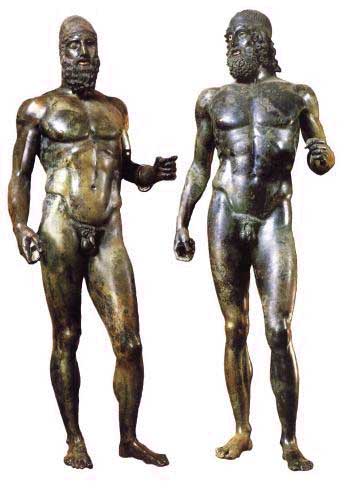



After reading the Prolegomena, please read these Penta Biblia -- these Five Books -- in the order given:
The First Notion of Goodness
Manhood is the first notion of Goodness
The Alphas of Manhood, Manliness, and Manly Spirit
The many permutations and combinations of Manhood and Honor
Primal Love
In the Warrior Kosmos, Manhood is the Primal Love, the Highest Value, Good in itself
UN-forgetting
Un-forgetting and re-collecting -- Manhood
Fight is the Father of All
The Ubiquity of Fighting Manhood
Fighting Manhood is the Father and Author of All
Fighting Manhood and Manly Love
Fighting Manhood and Manly Justice
Fighting Manhood and the Idea of Good
Warrior Kosmos, Warrior Sanction
Ares is Lord : Manhood is God
To be like to God as far as may be
To Seethe and Grow Fierce
To Achieve Manhood through a Martial Order and
Combative Erectness and Aggressive Art
That is Proper and Apportioned to Men
To Fight and Conquer
To Live According to
Reason, not Desire ;
To Be Rich, not in
Money, but in Manhood
To Have as your Judge
No other God or Man
Than A R E S
To Hold in Your Hands
In Boyhood's Flower
Manhood's Power
To Hymn Aright the
Praises of the True
Life of Gods and
Blessed Men
The Imitation of Ares
To Lead Yourself
And Your Beloved
To the Like-ness
Of the God
You Both Honor
To Transform the Chaos
of Embodiment into
The Perfect Measures
of the Warrior Kosmos


![]()
Biblion Proton
Biblion Deuteron
Biblion Triton
Biblion Tetarton
Biblion Pempton
Warrior Kosmos : Warrior Sanction
The Perfect Measures of the Warrior Kosmos
Ares Is Lord : Manhood Is God
Warrior Pro-oimion
Warrior Cosmogenesis
Warrior Contest : Warrior Conquest
Warrior Machogenesis
Perfect Manliness and the Eternal Return of the Fighter
Warrior Erotogenesis
Understanding the Ethical Supremacy conferred by Fighting Men and their Fighting Manhood
Warrior Timogenesis : The Ethical Supremacy conferred by Fighting Men and their Fighting Manhood is the Source of All Manly Honour
To be like to God as far as may be
To Seethe and Grow Fierce
To Achieve Manhood through a Martial Order and
Combative Erectness and Aggressive Art
That is Proper and Apportioned to Men
To Fight and Conquer
To Live According to
Reason, not Desire ;
To Be Rich, not in
Money, but in Manhood
To Have as your Judge
No other God or Man
Than A R E S
To Hold in Your Hands
In Boyhood's Flower
Manhood's Power
To Hymn Aright the
Praises of the True
Life of Gods and
Blessed Men
The Imitation of Ares
To Lead Yourself
And Your Beloved
To the Like-ness
Of the God
You Both Honor
To Transform the Chaos
of Embodiment into
The Perfect Measures
of the Warrior Kosmos
To be like to God as far as may be
To Seethe and Grow Fierce
To Achieve Manhood through a Martial Order and
Combative Erectness and Aggressive Art
That is Proper and Apportioned to Men
To Fight and Conquer
To Live According to
Reason, not Desire ;
To Be Rich, not in
Money, but in Manhood
To Have as your Judge
No other God or Man
Than A R E S
To Hold in Your Hands
In Boyhood's Flower
Manhood's Power
To Hymn Aright the
Praises of the True
Life of Gods and
Blessed Men
The Imitation of Ares
To Lead Yourself
And Your Beloved
To the Like-ness
Of the God
You Both Honor
To Transform the Chaos
of Embodiment into
The Perfect Measures
of the Warrior Kosmos

[andreia]
Wherefore I tell you now that every man should honor [timao] Love [Eros -- Romantic, Passionate Love between Men], as I myself do honor all love-matters with especial devotion, and exhort all other men to do the same ; both now and always do I glorify [enkomiazo] Love's power [dynamis] and valor [andreia] as far as I am able.
both now and always do I glorify [enkomiazo] Love's power [dynamis] and valor [andreia] as far as I am able.
With the help of a God [syn Theos], one man can sharpen [thego] another who is born [phua] for excellence [areta -- Manly Excellence], and encourage him to tremendous achievement. Without toil [a-ponos] only a few have attained joy, a light of life above all labors.

How to Read
Liddell and Scott's
Definitions
of
Ancient Greek Words
reverence, awe, respect for the feeling or opinion of others or for one's own conscience, and so shame, self-respect, sense of honour
From the same root [ARES] come areté, ari-, areion [better -- stronger, braver, more Manly], aristos [best -- strongest, bravest, most Manly], the first notion of goodness being that of manhood, bravery in war ; cf. Lat. virtus

The Ancient Greek
and Roman Culture
of
Andreia-Areté-Virtus
Wherefore I tell you now that every man should honor [timao] Love [Eros -- Romantic, Passionate Love between Men], as I myself do honor all love-matters with especial devotion, and exhort all other men to do the same ; both now and always do I glorify [enkomiazo] Love's power [dynamis] and valor [andreia] as far as I am able.
both now and always do I glorify [enkomiazo] Love's power [dynamis] and valor [andreia] as far as I am able.



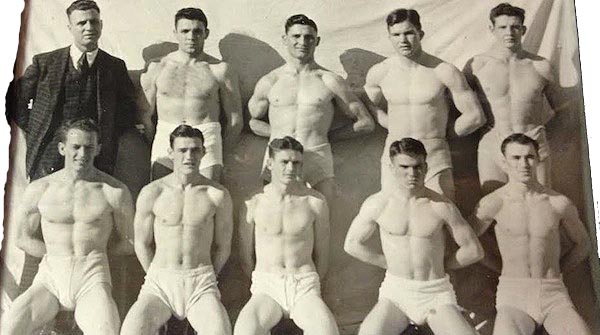
Virtus comes before everything, that's for sure!
Freedom, safety, life, property and parents, fatherland and children, it guards and keeps safe.
Virtus has everything in it ; He who has Virtus has everything good!
Compared to the display of Virtus, "everything is subordinate and hides in dark night."
manliness, manhood, i. e. the sum of all the corporeal or mental excellences of man, strength, vigor; bravery, courage; aptness, capacity; worth, excellence, virtue, etc.
IS
THE ARDENT WILLINGNESS
AND
REQUISITE ABILITY
TO FIGHT
Ennius was filled with a proud and noble self-consciousness. He entered Rome
fortiterque innoxium stare adversum adversaries,
ea libertas est qui pectus purum et firmum gestitat ;
aliae res obnoxiosae nocte in obscura latent.
To live a life [vivo] inspired [animo], to stand steadfast [sto]
With guiltless [innoxius] bravery [fortitudo] in the face of [adversus -- face-to-face with] foes [adversarius].
The man who bears himself both pure [purus -- clean, pure, unstained, free from sensuality] and staunch [firmus -- strong, steadfast, stable, enduring, powerful] --
That is true liberty. All conduct else
Lies lurking [lateo] in dim [obscurus] darkness [nox], fraught with guilt [obnoxiosus].
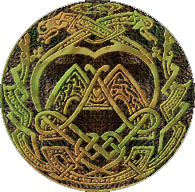
Whatever else you practice you must practice it In Union with Fighting Manhood, being well assured that when divorced from this all possessions and pursuits are base and ignoble. For neither does wealth bring honor to its possessor if combined with an-andria -- want of manhood and UN-manliness -- for such an one is rich for another rather than for himself -- nor do beauty and strength appear comely, but rather uncomely, when they are attached to one that is cowardly and base, since they make their possessor more conspicuous and show up his cowardice ; and every form of knowledge when sundered from that which is just, right, lawful, and Manfully well-ordered [dikaios] and the rest of Areté -- Manly Excellence, which is Fighting Manhood -- is seen to be plain roguery rather than wisdom.
[W]hatsoever else you practice you must practice it In Union with Fighting Manhood, being well assured that when divorced from this all possessions and pursuits are base and ignoble. For neither does wealth bring honor to its possessor if combined with want of manhood and unmanliness -- for such an one is rich for another rather than for himself -- nor do beauty and strength appear comely, but rather uncomely, when they are attached to one that is cowardly and base, since they make their possessor more conspicuous and show up his cowardice ; and every form of knowledge when sundered from that which is just, right, lawful, and Manfully well-ordered [dikaios] and the rest of Areté -- Manly Excellence, which is Fighting Manhood -- is seen to be plain roguery rather than wisdom.

Why
Fighting
Manhood?
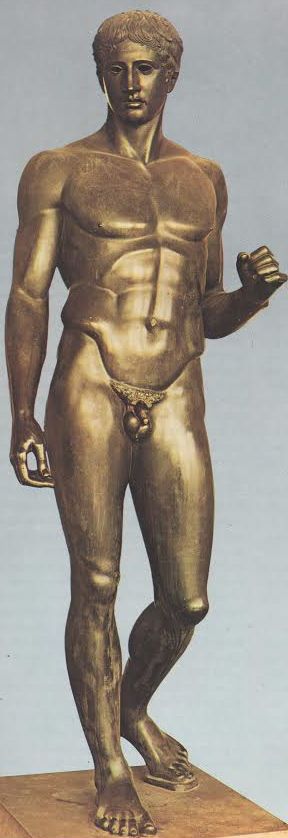
The Doryphoros, by Polykleitos,
portrays the Perfect Warrior
and thus the Ideal Man

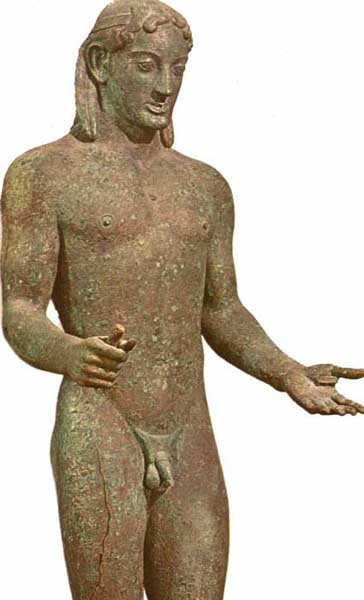
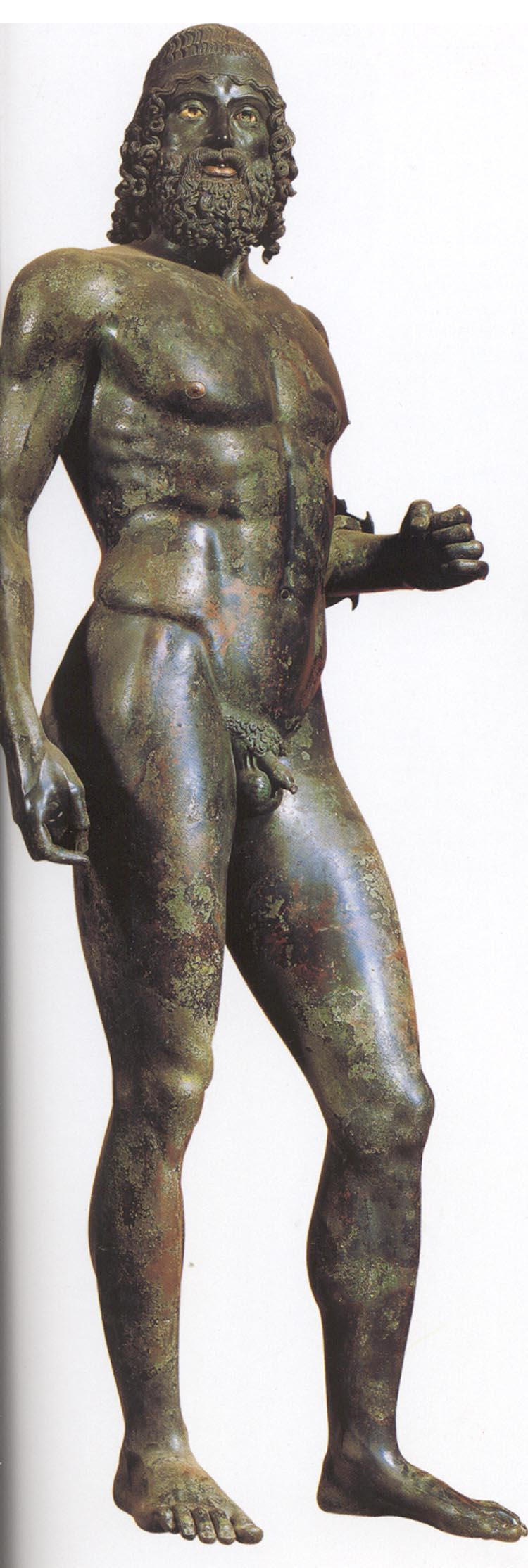
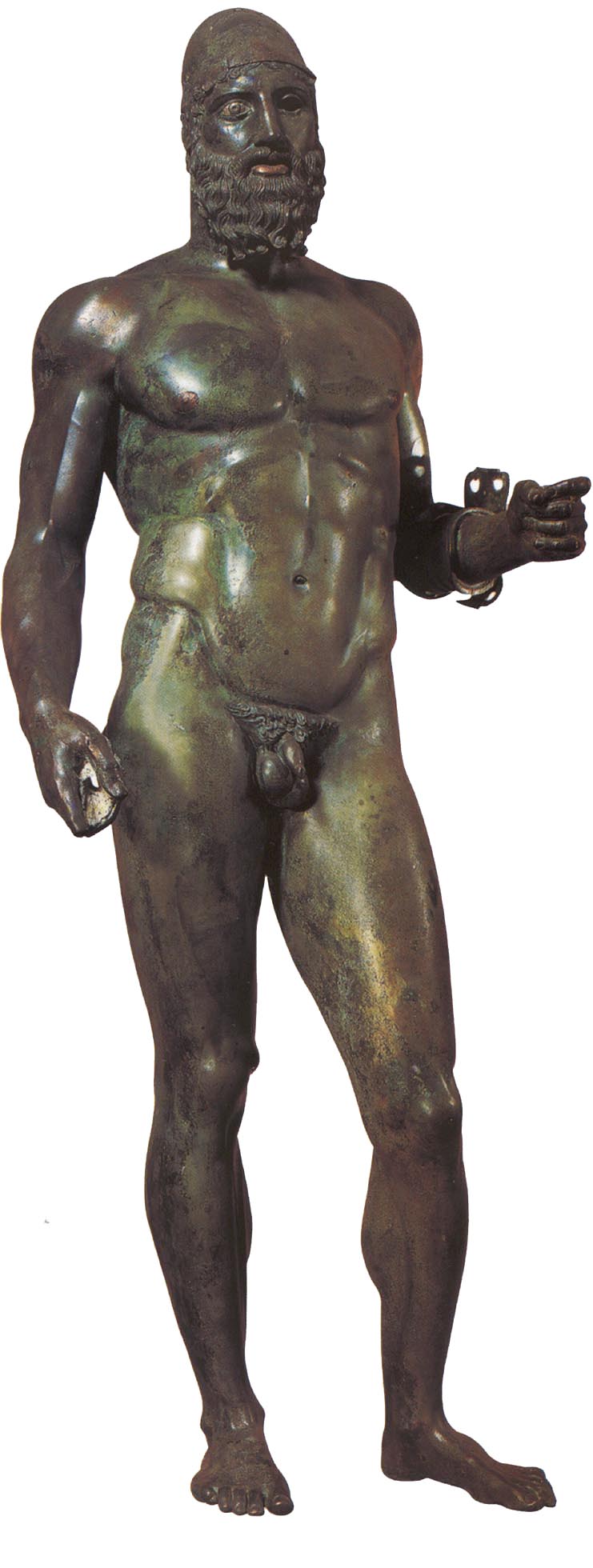
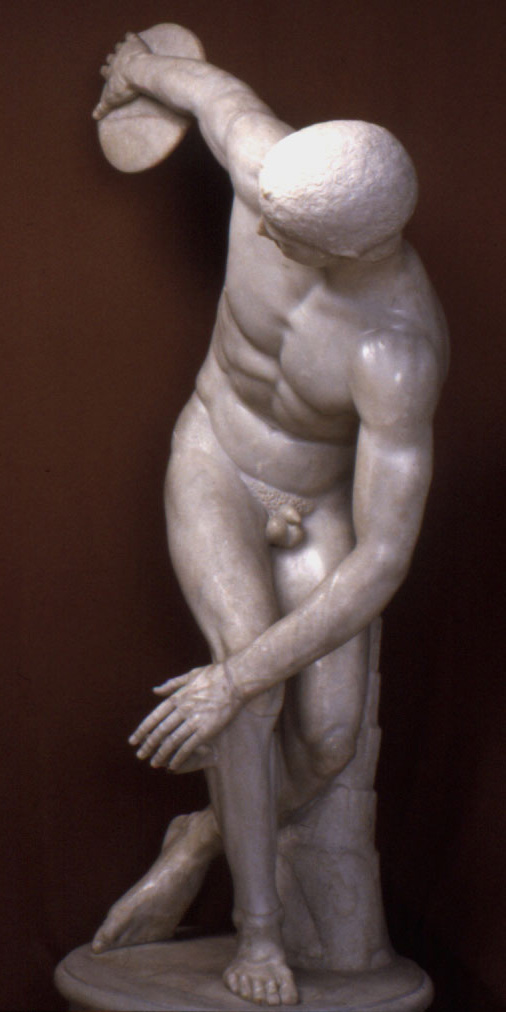
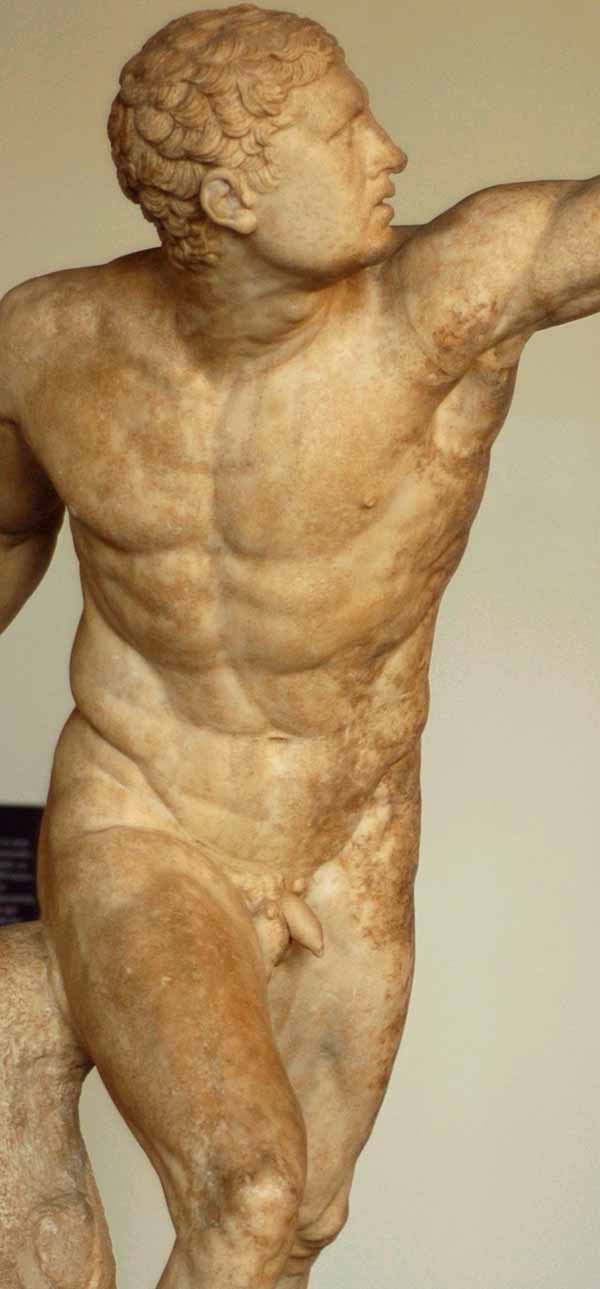
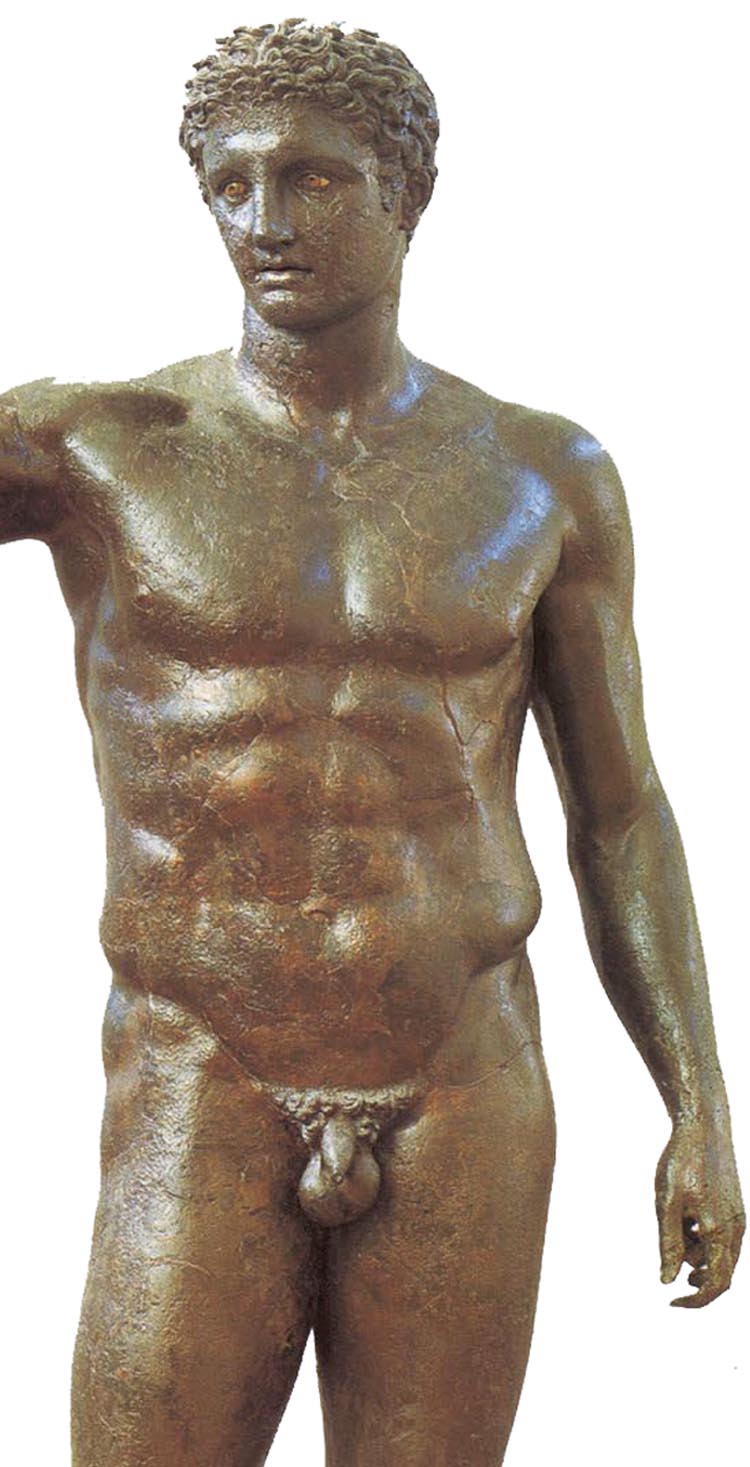
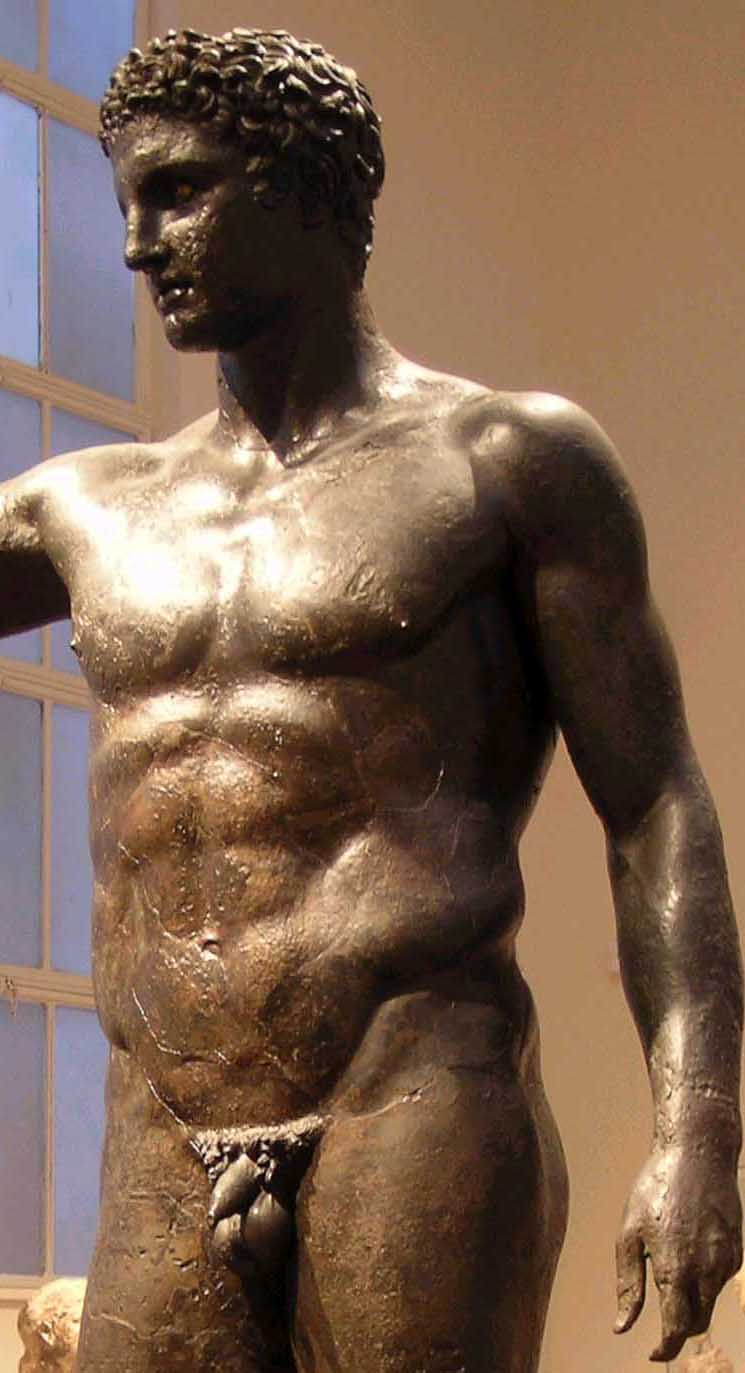
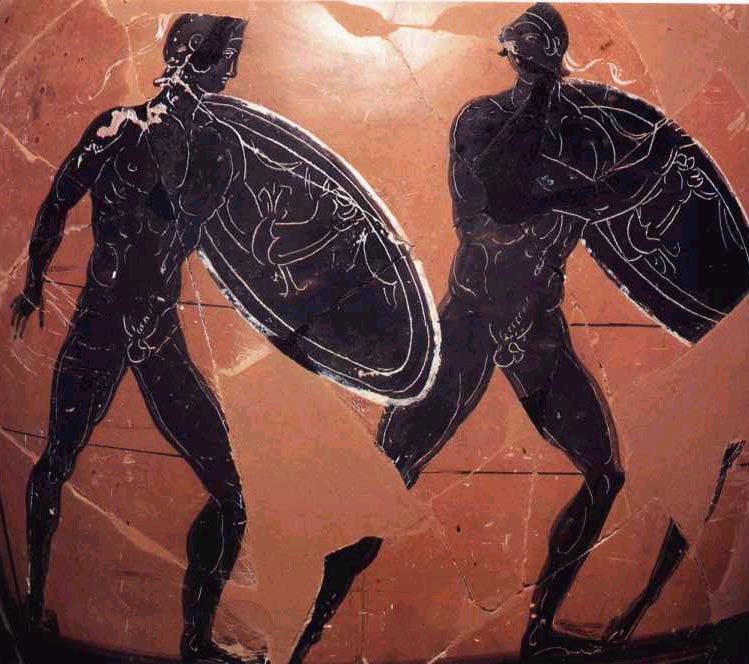
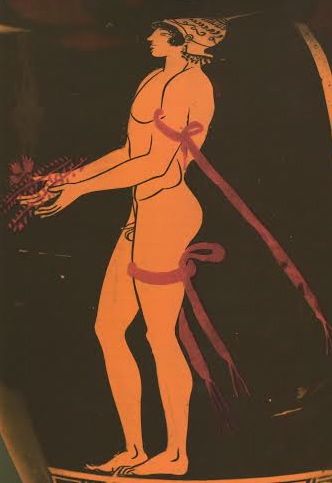
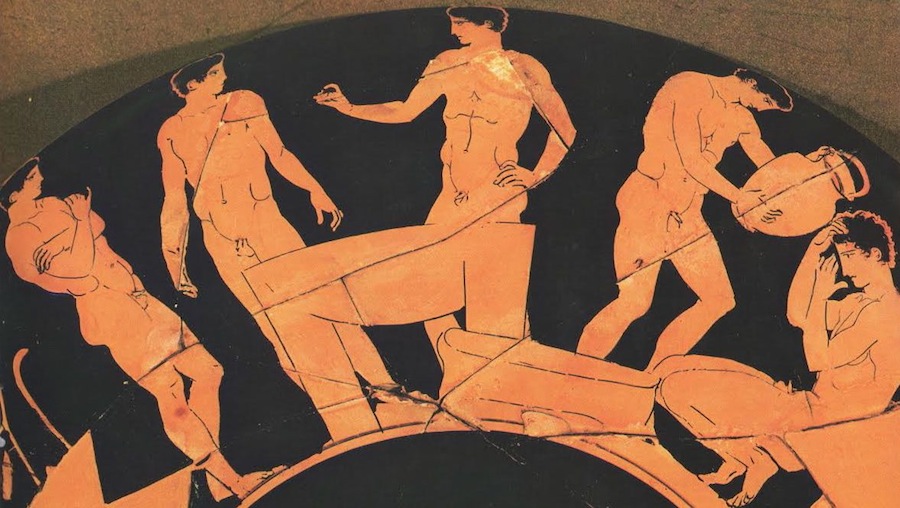
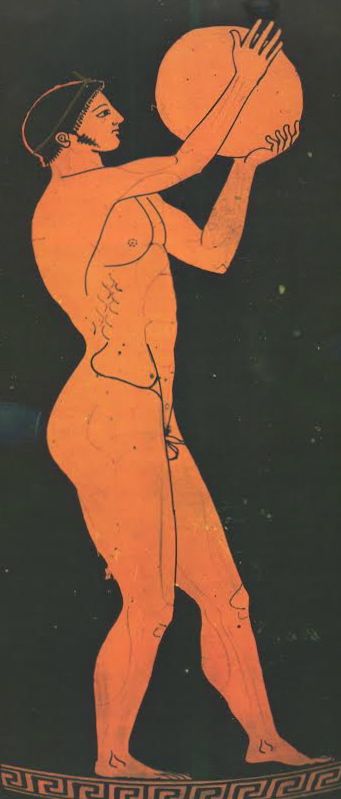
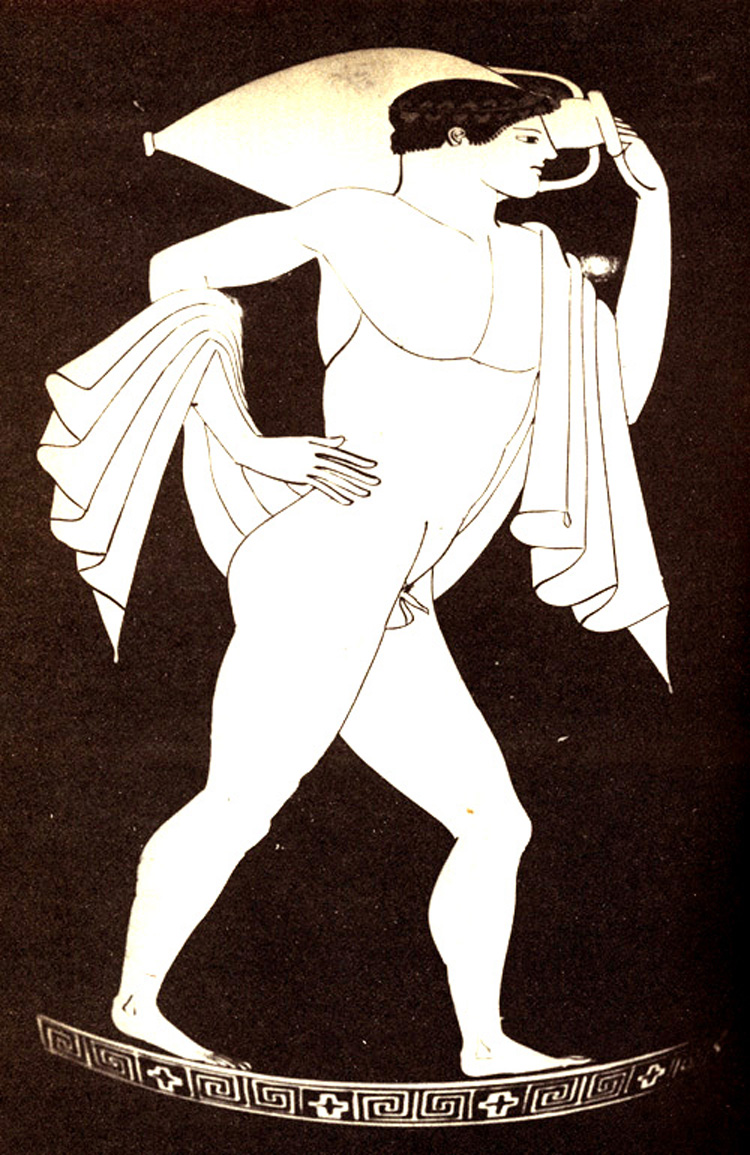
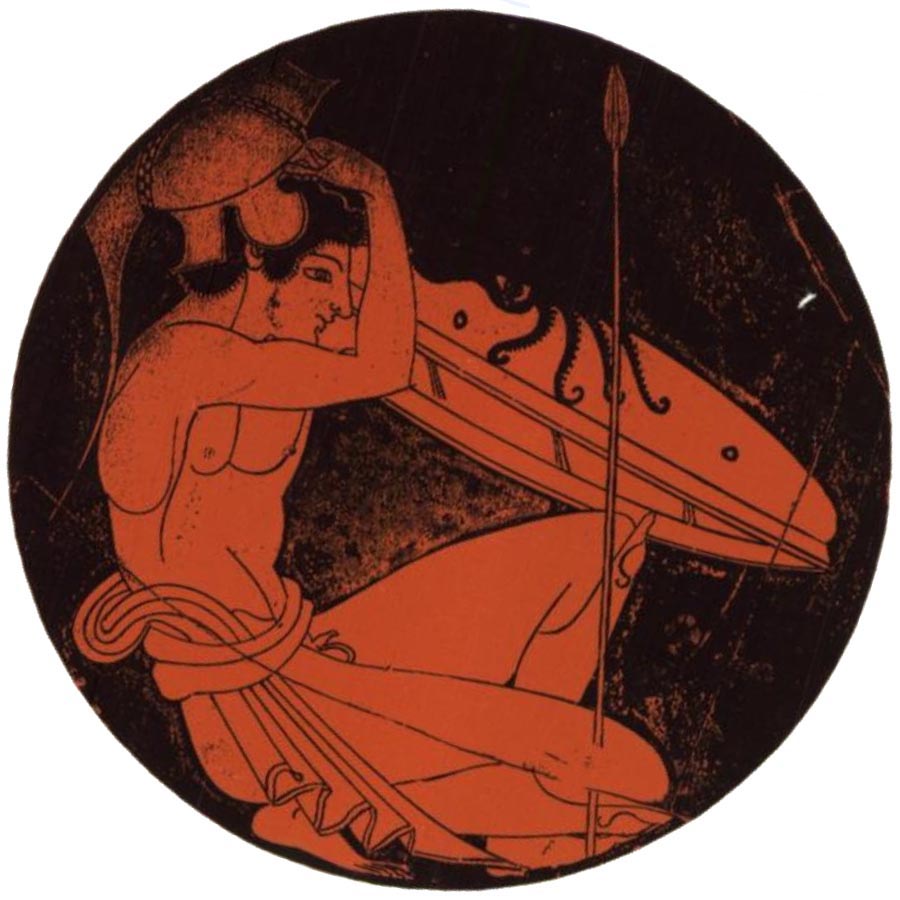
Let him fight toe to toe and shield against shield hard driven,
crest against crest and helmet on helmet, chest against chest;
Let him close hard and fight it out with his opposite foeman,
holding tight to the hilt of his sword, or his long spear.
his hair white and his beard grey,
breathing out his last strong spirit amidst the dust,
holding in his hands his testicles [aidoia] all bloody.
goodness, excellence, of any kind, esp. of manly qualities, manhood, valour, prowess, Hom., Hdt. (like Lat. vir-tus, from vir).
From the same root [ARES] comes areté ... the first notion of goodness being that of manhood, bravery in war; cf. Lat. virtus.

![]()

![]()








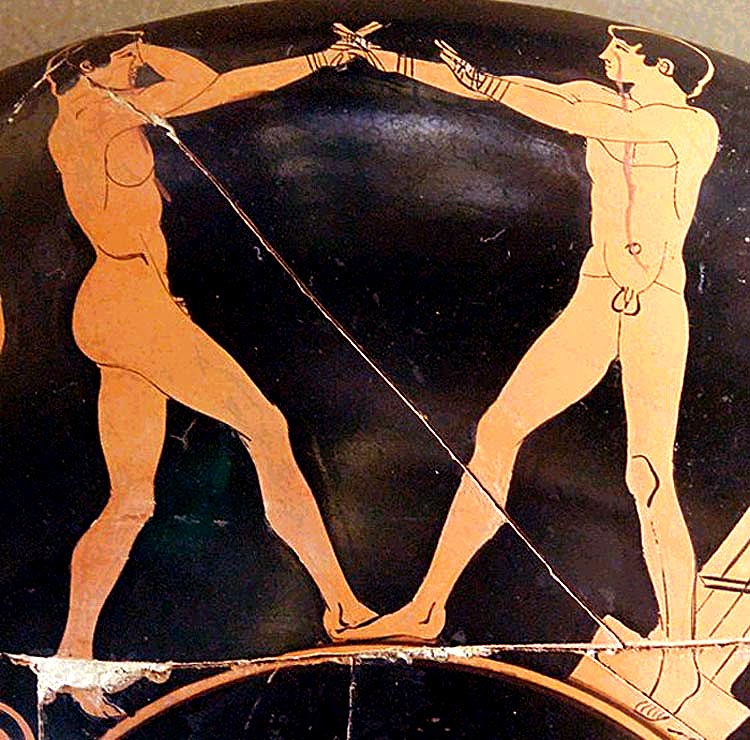
Fight is Natural to the Race of Men
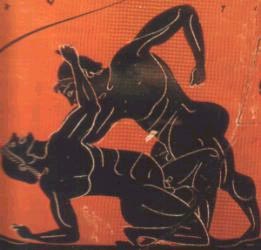

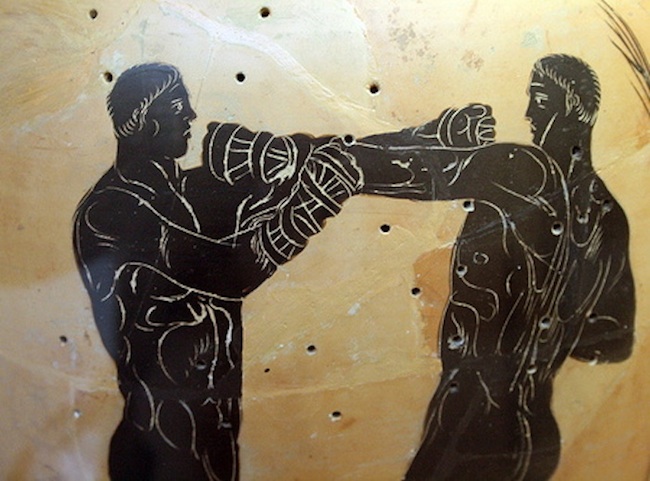
The abstract symbols [phalloi] turn up everywhere in ancient folklore, cult, and art. They range from comic personifications of virility, like Silenus and his satyrs, to great abstract shapes like the enormous phallus and testicles placed on a high pillar in the theater at Delos. Enormous phalli were often carried in Dionysiac processions and actors [in Satyr plays] often wore big artifical members strapped to their bodies. . . . Herms, pillars with human heads and [erect] genitals, were placed at doorways and crossroads to bring luck . . .
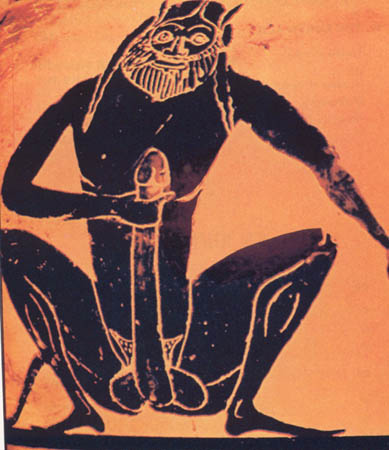
Enormous phalli were often carried in Dionysiac processions and actors [in Satyr plays] often wore big artifical members strapped to their bodies. . . . Herms, pillars with human heads and [erect] genitals, were placed at doorways and crossroads to bring luck . . .
"Enormous phalli were often carried in Dionysiac processions"
"actors [in Satyr plays] often wore big artifical members strapped to their bodies"
Herms, pillars with human heads and [erect] genitals, were placed at doorways and crossroads to bring luck . . .
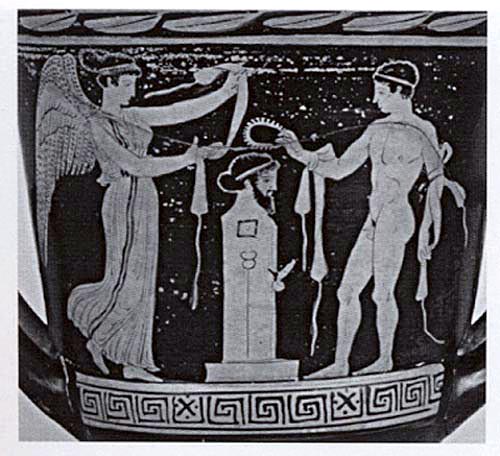
A Victorious Athlete and the Goddess Nike
Worship a Herm
Note the difference
between the Herm's erect phallos
and the athlete's detumescent penis
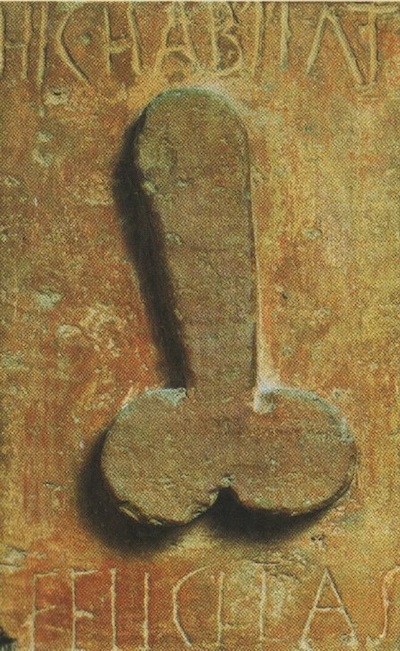

The Doryphoros, by Polykleitos,
portrays the Perfect Warrior
and thus the Ideal Man



![]()
![]()
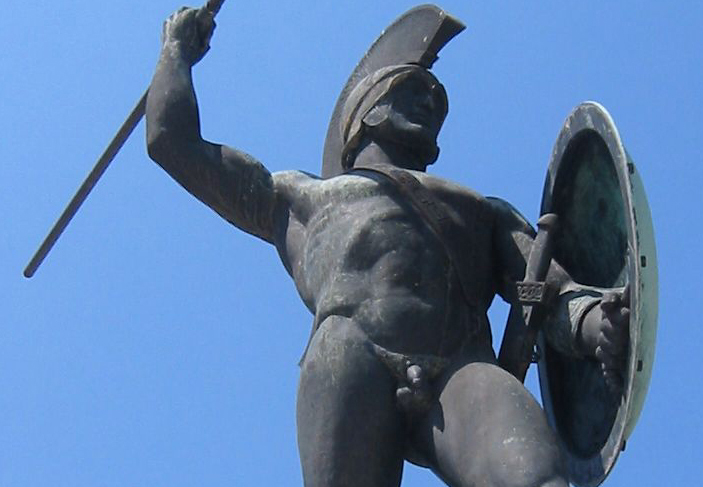






MANHOOD: A LEXICON
WARRIOR KOSMOS WARRIOR SANCTION
ARES is LORD : MANHOOD is GOD
To be like to God as far as may be
To Seethe and Grow Fierce
To Achieve Manhood through a Martial Order and
Combative Erectness and Aggressive Art
That is Proper and Apportioned to Men
To Fight and Conquer
To Live According to
Reason, not Desire ;
To Be Rich, not in
Money, but in Manhood
To Have as your Judge
No other God or Man
Than A R E S
To Hold in Your Hands
In Boyhood's Flower
Manhood's Power
To Hymn Aright the
Praises of the True
Life of Gods and
Blessed Men
The Imitation of Ares
To Lead Yourself
And Your Beloved
To the Like-ness
Of the God
You Both Honor
To Transform the Chaos
of Embodiment into
The Perfect Measures
of the Warrior Kosmos




WARRIOR KOSMOS WARRIOR SANCTION
ARES is LORD : MANHOOD is GOD
To Be Like to God as Far as May Be


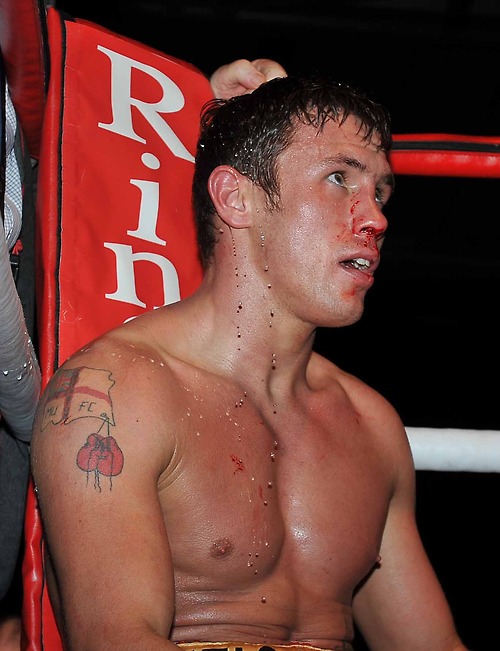
to become like God, so far as this is possible; and to become like God is to become righteous [dikaios] and holy [hosios -- pious and hallowed] and wise [phronesis -- the quality of thoughtfulness, prudence, temperance]

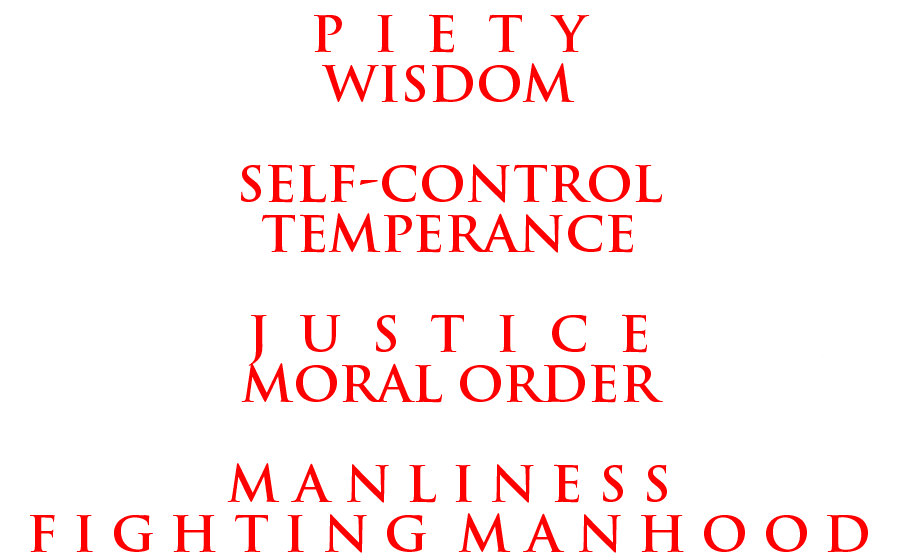
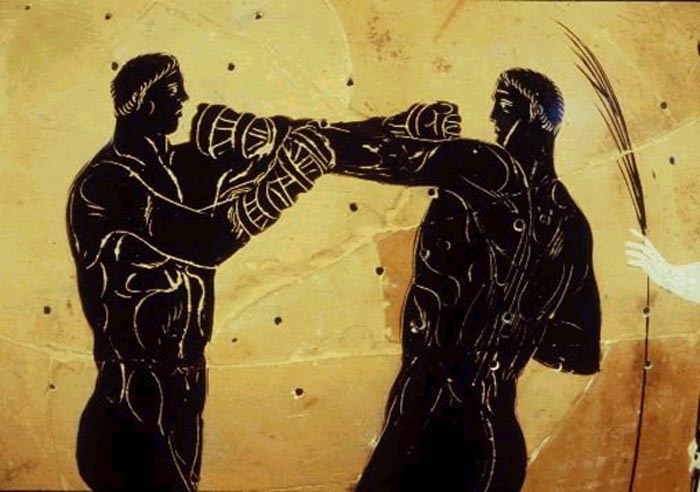
These Boxers are demonstrating Self-Control, Manly Moral Order, and Fighting Manhood ;
And, because the Contest they've undertaken is Sanctioned and Supervised by the Gods,
and because, before their Fight, they've Prayed and Sacrificed to the Gods,
they're expressing Piety as well.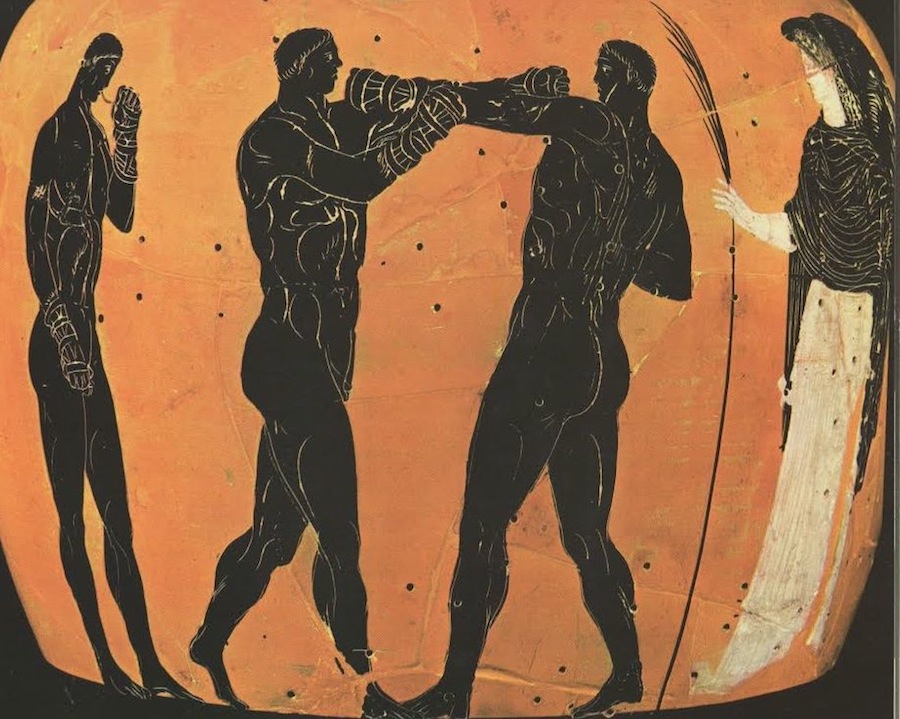
Sanctioned and Supervised by the Gods:
In the original vase painting, there are four figures --
On the left is the ephedros --
He'll Fight the Victor of this Bout ;
And on the right is a winged Goddess, possibly Nike,
possibly Olympia, personification of the Sacred Games.
The Fight is not secular, nor in any way profane ; it is, rather,
Sacred, Sanctioned and Supervised by the Gods. 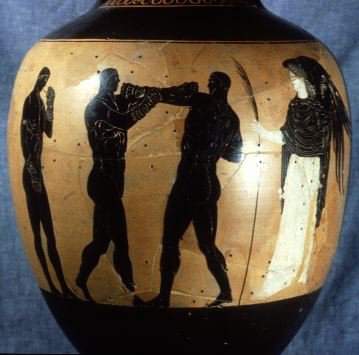
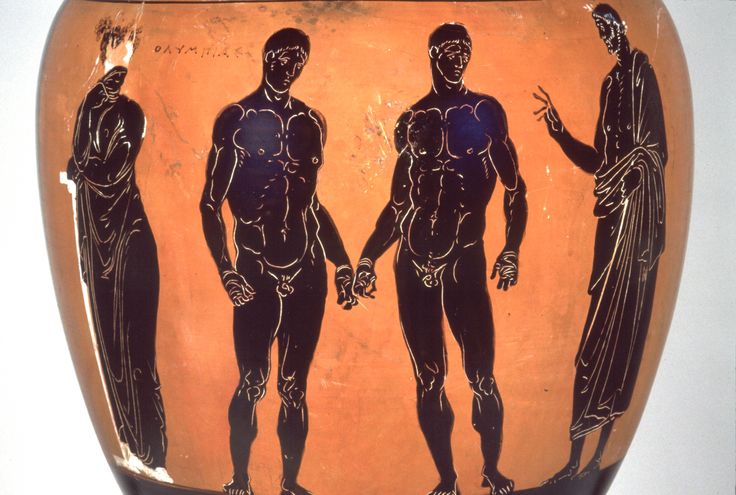
A similar scene with Boxers or Pankratiasts
The Goddess, Olympias, who, among other Deities,
is Sanctioning and Supervising the Bout,
is on the left
to become like God, so far as this is possible; and to become like God is to become righteous [dikaios] and holy [hosios -- pious and hallowed] in union with thoughtfulness -- prudence [phronesis]




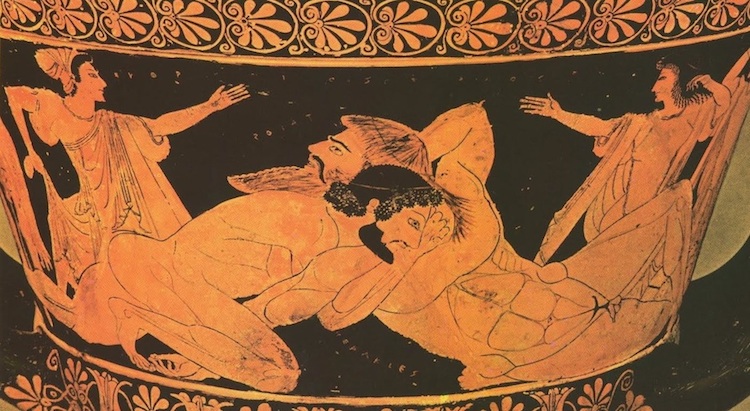
In ancient myth, Manly Moral Order is first established by Heroes, including Herakles and Theseus among the Greeks,
and Hercules among the Romans, who travel the world, ridding it of criminals and monsters.
In this painting, Herakles kills Antaios, who forced every passerby into a fatal
wrestling match, by wrestling him and lifting him off his mother, the earth,
from which he derived his strength, and then crushing his ribs.
God is in no wise and in no manner unrighteous [adikos], but utterly and perfectly righteous [dikaiotatos = most righteous = superlative of dikaios], and there is nothing so like him as that one of us who in turn becomes most nearly perfect in righteousness [that is to say, no one of us is so like unto God as the one who becomes most nearly perfect in the expression of Manly Moral Order -- which is Manly Moral Righteousness.]





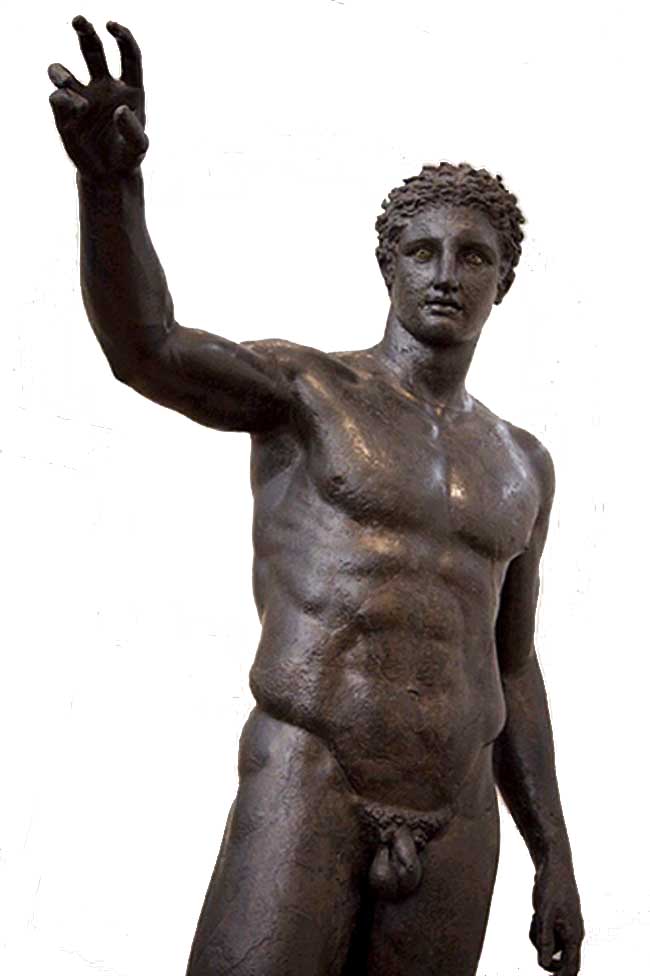

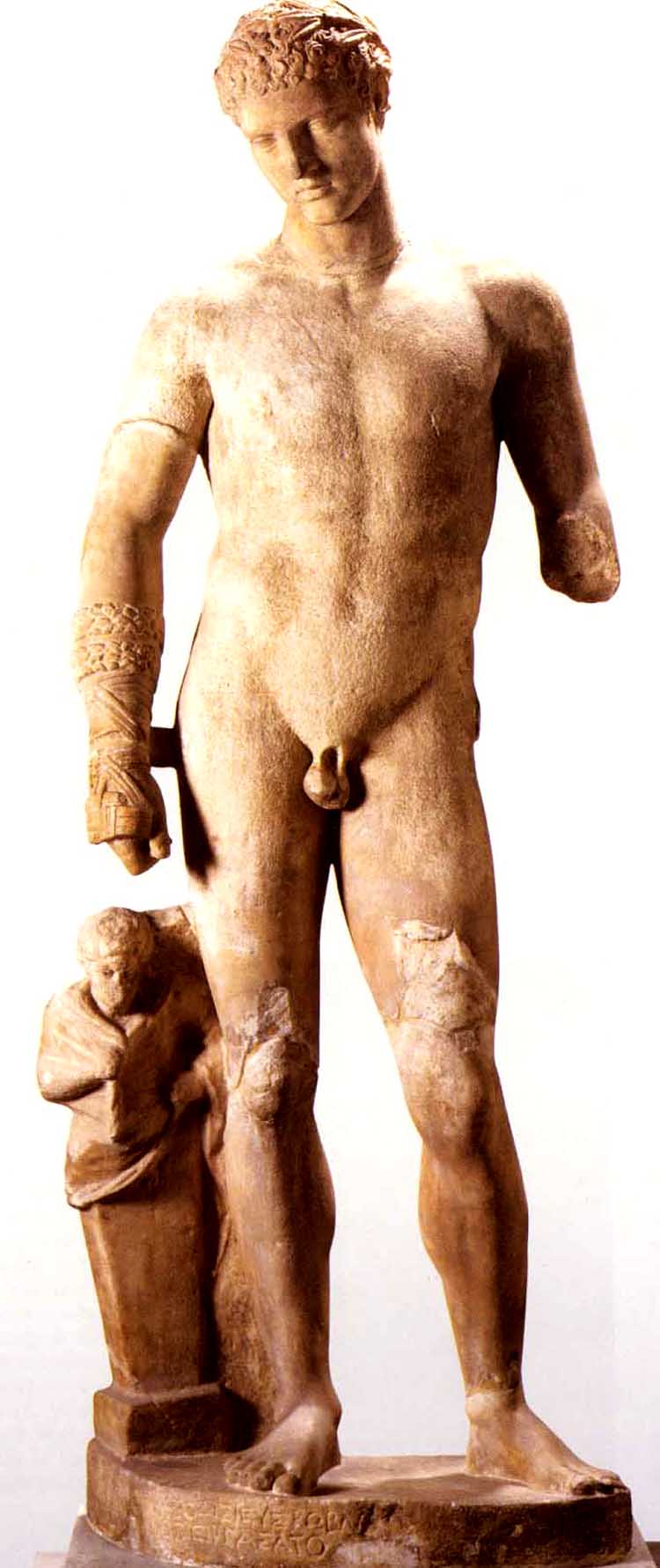









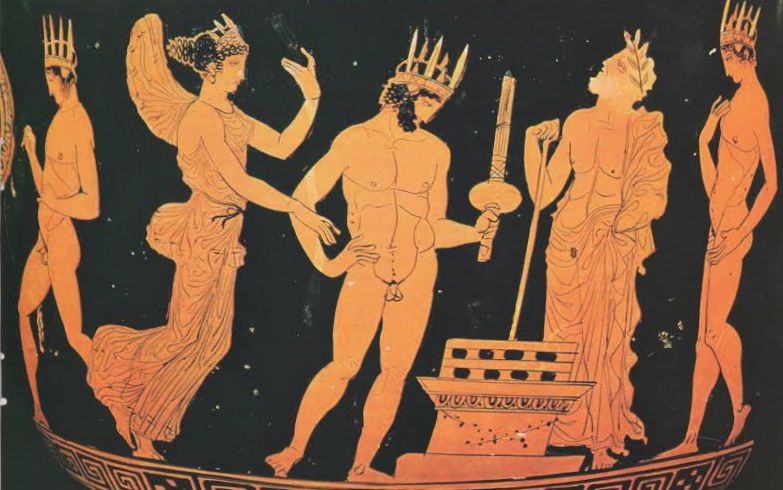
Members of a victorious Torch Race team, wearing diadems made of spear-shaped leaves, stand by an altar ;
a priest is on the right, the winged Goddess Victory on the left.
The goal of the Torch Race [lampadedromia], a relay race,
was to swiftly carry Sacred Fire from one altar to another.
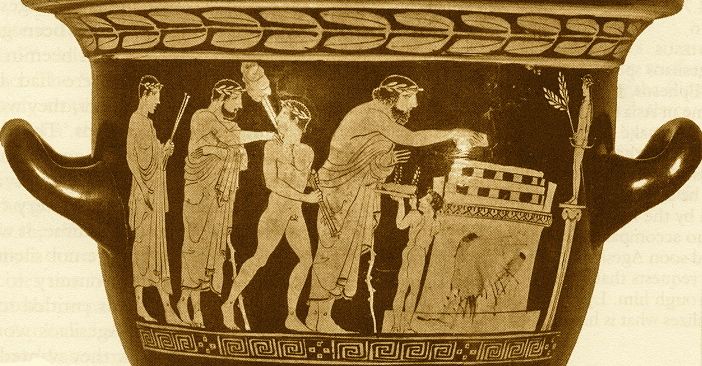
A nude youth, probably an athletic victor and bearing the entrails of a victim, takes part in a sacrifice ;
to do so, he must be pure : "clear from shame or pollution."
[T]radition tells us how blissful was the life of men in the age [of the God Kronos], furnished with everything in abundance, and of spontaneous growth. And the cause thereof is said to have been this : Kronos was aware of the fact that no human being (as we have explained) is capable of having irresponsible control of all human affairs without becoming filled with pride [hybris] and injustice [adikia]; so, pondering this fact, he then appointed as kings and rulers for our cities, not men, but beings of a race that was nobler and more divine, namely, Daimons (Daimones).

An athletic victor crowns an ithyphallic Herm ;
the winged Goddess Nike holds a woolen band.
Herms were present in every Palaistra ; and,
Religious rites were common in Palaistrai ;
All athletics had religious connotations :
An athletic victor wears woolen bands and holds
a wreath. The bands or fillets "signify the
consecration of the victor to the God."
(Sansone) -- Or, I would say, to the
Gods, eg Nike and Hermes.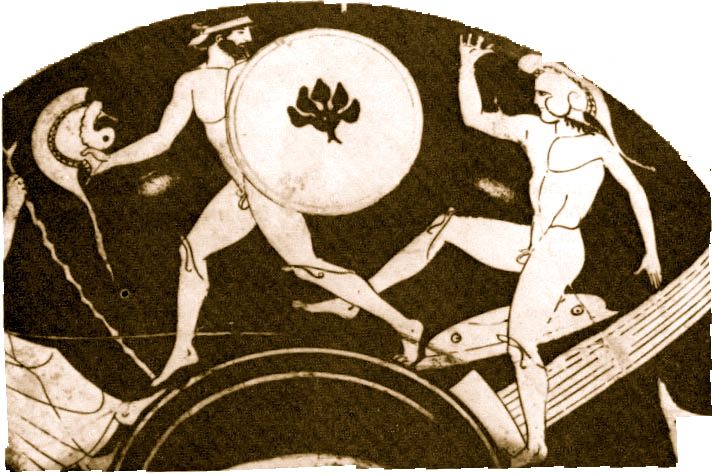
education [paideia] of the young [hoi veoi] [in the Republic will be to produce]
Guardians [phulax -- Warriors] [who] are to be God-fearing [theosebes] Men and God-like [theios] in so far as that is possible for humanity.


"[The Goddess] Hera's fetterings by her son and the hurling out of heaven of [the God] Hephaestus by his father when he was trying to save his mother from a beating, and the battles of the Gods in Homer's verse are things that we must not admit into our city either wrought in allegory or without allegory. For the young are not able to distinguish what is and what is not allegory, but whatever opinions are taken into the mind at that age are wont to prove indelible and unalterable. For which reason, maybe, we should do our utmost that the first stories that they hear should be so composed as to bring the fairest [kalos -- most noble, most morally beautiful] lessons of virtue [areté -- Manly Goodness] to their ears."
Two urns stand on the floor of the palace of Zeus and are filled with
Dooms he allots, one of blessings, the other of gifts that are evil,
[Hom. Il. 24.527-8]
Now upon evil he chances and now again good is his portion,
[Hom. Il. 24.530]
Hunger devouring drives him, a wanderer over the wide world
[Hom. Il. 24.532]
When he would utterly destroy a house
The Good Purpose in some controlling Mind able to achieve that Purpose
"And what of this, the second. Do you think that God is a wizard and capable of manifesting himself by design, now in one aspect, now in another, at one time himself changing and altering his shape in many transformations and at another deceiving us and causing us to believe such things about him; or that he is simple and less likely than anything else to depart from his own form?"
The gods, in the likeness of strangers,
Many disguises assume as they visit the cities of mortals.
[Hom. Od. 17.485-4861]
'foretold the happy fortunes of her issue' Hom. Il. 2.1 --
And rounding out the tale of heaven's blessings,
Raised the proud paean, making glad my heart.
And I believed that Phoebus' mouth divine,
Filled with the breath of prophecy, could not lie.
But he himself, the singer, himself who sat
At meat with us, himself who promised all,
Is now himself the slayer of my son.
Ares, then, if you like, would be named for his Manliness [arren] and Fighting Manhood [andreion], and for his hard and unbending nature, which is called arratos ; so Ares would be in every way a fitting name for the God of Battle, Fight, War [polemikos Theos].
The Gods are always good and help us ; they never harm us. We, when we are good, are by our likeness given union with them ; if we become bad, we are separated from them. Our sins prevent the divine brightness from shining on us and subject us to chastising spirits : it is as false to say that the Gods shun the evil as it is to say that the sun hides himself from the blind. If by prayers and sacrifices we find release from our sins, the explanation is that by our acts and by turning to the divine, we cure our evil and enjoy the Goodness of the Gods again ; we do not effect any change in them.
it is impossible that evils should be done away with, Theodorus, for there must always be something opposed to the good ; and they cannot have their place among the Gods, but must inevitably hover about mortal nature and this earth. Therefore we ought to try to escape from earth to the Dwelling of the Gods as quickly as we can ; and to escape is to become like God, so far as this is possible ; and to become like God is to become righteous and holy and wise.
Ares, then, if you like, would be named for his Manliness [arren] and Fighting Manhood [andreion], and for his hard and unbending nature, which is called arratos ; so Ares would be in every way a fitting name for the God of Battle, Fight, War [polemikos Theos].
it is impossible that evils should be done away with, Theodorus, for there must always be something opposed to the good ; and they cannot have their place among the Gods, but must inevitably hover about mortal nature and this earth. Therefore we ought to try to escape from earth to the Dwelling of the Gods as quickly as we can ; and to escape is to become like God [homoiosis Theo], so far as this is possible ; and to become like God is to become righteous and holy and wise.
Manhood, manliness : Strength, vigor, bravery, courage, excellence ; Valour, gallantry, fortitude ; Goodness, moral perfection, high character, virtue ; Worth, merit, value.
Manhood, manliness : Strength, vigor, bravery, courage, excellence ; Valour, gallantry, fortitude ; Goodness, moral perfection, high character, virtue ; Warrior worth, martial merit, virile value.


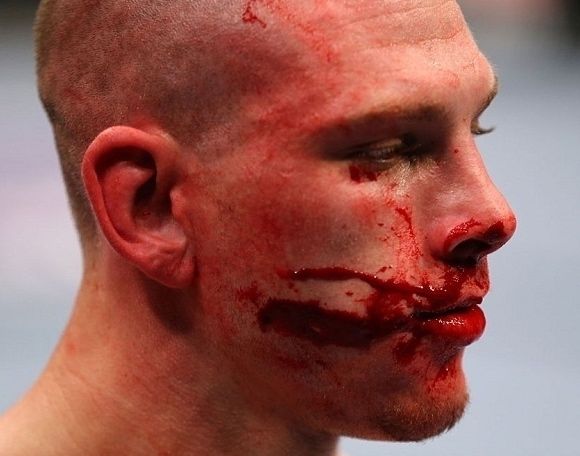

The Root ΑΡ [ΑΡΗΣ], appears also in αρετε, the first notion of goodness (virtus)
being that of manhood, bravery in war.
Oxford. Clarendon Press. 1889.





January 30, 2014










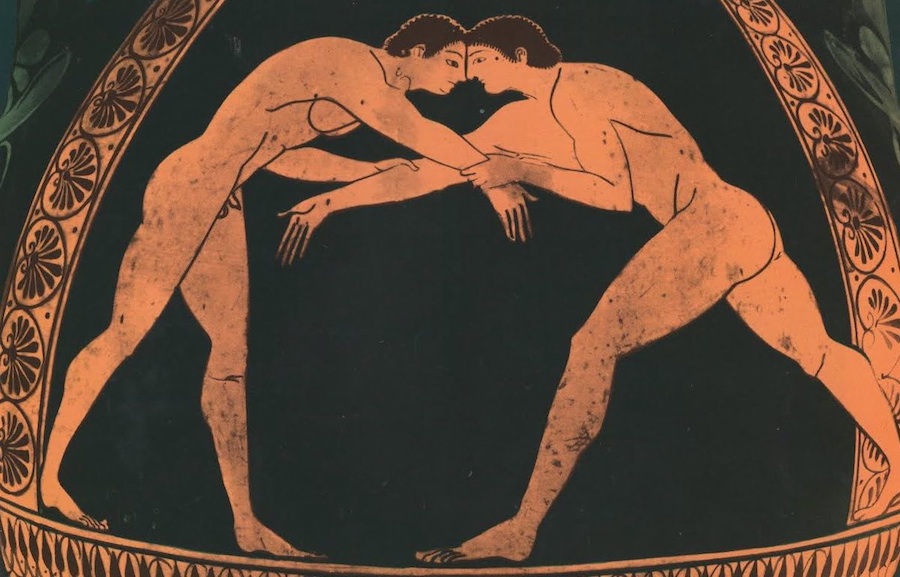
MANHOOD: A LEXICON
WARRIOR KOSMOS WARRIOR SANCTION
ARES is LORD : MANHOOD is GOD
To Seethe and Grow Fierce

God is in no wise and in no manner unrighteous, but utterly and perfectly righteous, and there is nothing so like him as that one of us who in turn becomes most nearly perfect in righteousness -- for no one of us is so like unto God as the one who becomes most nearly perfect in the expression of Manly Moral Order -- which is Manly Moral Righteousness.
[W]hatsoever else you practice you must practice it in union with Fighting Manhood, being well assured that when divorced from this all possessions and pursuits are base and ignoble. For neither does wealth bring honor to its possessor if combined with want of manhood and unmanliness -- for such an one is rich for another rather than for himself -- nor do beauty and strength appear comely, but rather uncomely, when they are attached to one that is cowardly and base, since they make their possessor more conspicuous and show up his cowardice ; and every form of knowledge when sundered from that which is just, right, lawful, and well-ordered [dikaios] and the rest of virtue [areté -- Manhood] is seen to be plain roguery rather than wisdom.
"These two forms [the rational and the appetitive, that is, reason and desire], then, let us assume to have been marked off as actually existing in the soul. But now the Thumos [1] or principle of high spirit, that with which we feel anger [thumuo], is it a third, or would it be identical in nature with one of these?"
"These two forms [the rational and the appetitive, that is, reason and desire], then, let us assume to have been marked off as actually existing in the soul. But now the Thumos or principle of high spirit, that with which we feel anger [thumuo], is it a third, or would it be identical in nature with one of these?"
"Perhaps," he said, "with one of these, the appetitive."
The Gods need nothing ; the honours we pay them are for our own benefit. Their providence extends everywhere, and all who are fit may enjoy it.
Spending but little on his own pleasures, he poured out his money without stint for the benefit of his friends.
Their providence extends everywhere, and all who are fit may enjoy it.
The Gods are always good and help us ; they never harm us. We, when we are good, are by our likeness given union with them ; if we become bad, we are separated from them.
Let every one of us be ambitious [philonikia] to gain excellence [areté -- Manhood, Manly Goodness, Manly Excellence], but without jealousy. For a man of this character enlarges a State [polis -- city-state], since he strives hard himself and does not thwart the others by calumny [false accusation, slander] ; but the jealous man, thinking that calumny of others is the best way to secure his own superiority, makes less effort himself to win true excellence [which, again, is areté -- Manhood], and disheartens his rivals by getting them unjustly blamed ; whereby he causes the whole city-state to be ill-trained for competing in Manliness, and renders it, for his part, less large in fair repute.
Eighth-century Eurypontid [Spartan] king, also called Charilaus
Sparta was supreme in andreia.
Let every one of us be ambitious [philonikia - victory-loving] to gain excellence [areté -- Manhood, Manly Excellence], but without jealousy. For a man of this character enlarges a State [polis -- city-state], since he strives hard himself and does not thwart the others by calumny [false accusation, slander] . . .
The Gods are always good and help us ; they never harm us.
We, when we are good, are by our likeness given union with them ; if we become bad, we are separated from them.
God is in no wise and in no manner unrighteous [adikos], but utterly and perfectly righteous [dikaiotatos = most righteous = superlative of dikaios], and there is nothing so like him as that one of us who in turn becomes most nearly perfect in righteousness [that is to say, no one of us is so like unto God as the one who becomes most nearly perfect in the expression of Manly Moral Order -- which is Manly Moral Righteousness.]
"Then will not law-suits and accusations against one another vanish, one may say, from among them, because they have nothing in private possession but their bodies, but all else in common? So that we can count on their being free from the dissensions that arise among men from the possession of property, children, and kin."
there could not rightly arise among them any law-suit for assault or bodily injury. For between age-fellows[1] and comrades we shall say that to defend oneself, to repel an assault is morally beautiful and just, well-ordered, and righteous, thereby compelling them to keep their bodies in condition.
[1] Cf. [compare] A.J.P. vol. xiii. p. 364, Aeschines iii. 255, Xenophon Rep. Lac. 4. 5, Laws 880 A.

when a man believes himself to be wronged, does not his spirit in that case seethe and grow fierce and make itself the ally of what he judges just [dikaios] ; and in noble [gennaios -- high-minded] souls it endures and wins the victory and will not let go





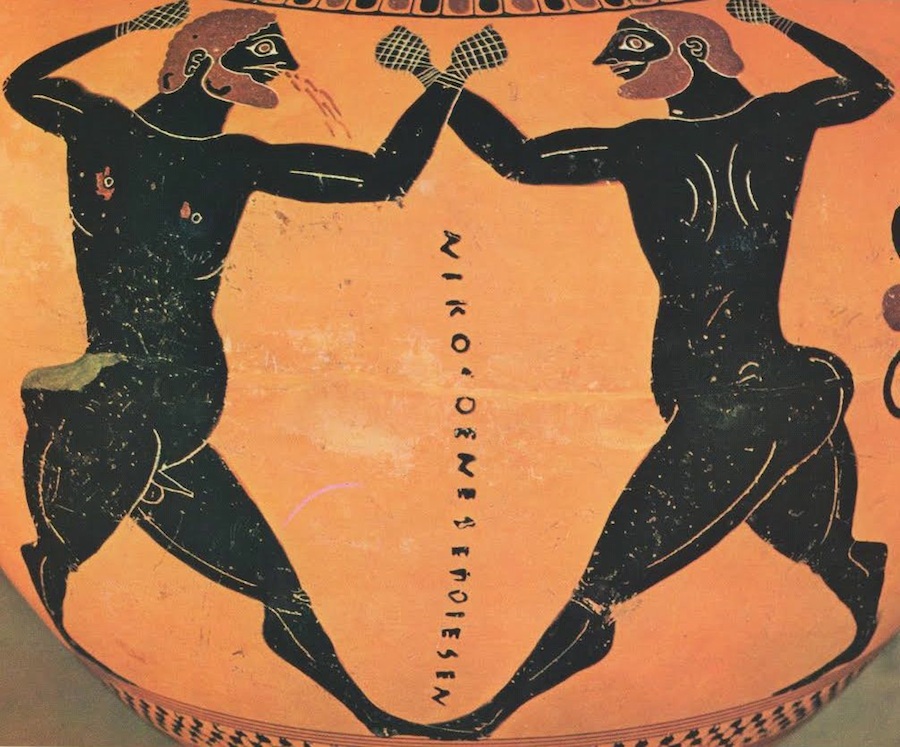
"Is it not also true," I [Sokrates] said, "that the ruling principle of men's souls is in some cases this faculty [Reason] and in others one of the other two [Fighting Spirit or appetite], as it may happen?"
What shall I call this power [of Love Eros]? The shame that we feel for shameful things, and ambition [PhiloTimia] for what is noble [kalon -- επι δε καλοις φιλοτιμιαν] ; without which it is impossible for city or person to perform any high and noble [kala] deeds.
[Love -- Eros] is the cause of all our highest blessings. I for my part am at a loss to say what greater blessing a man can have in earliest youth than an honourable [chrestos -- good, honest, worthy, true] lover, or a lover than an honourable [chrestos] favorite. For the guiding principle we should choose for all our days, if we are minded to live a comely [kalos -- morally beautiful] life, cannot be acquired either by kinship or office or wealth or anything so well as by Love.
What shall I call this power [of Love Eros]? The shame [aischros] that we feel for shameful things [aischyne], and ambition [PhiloTimia] for what is noble [kalon -- morally beautiful] ; without which it is impossible for city or person to perform any high [megas] and noble [kala] deeds [erga -- deeds of war, action, battle, fight].




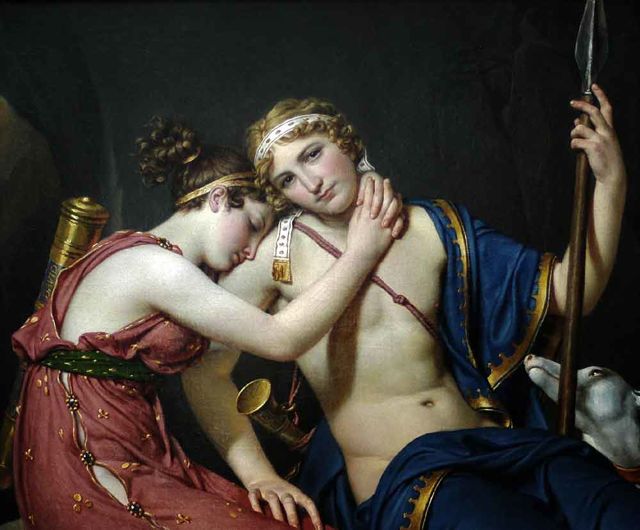

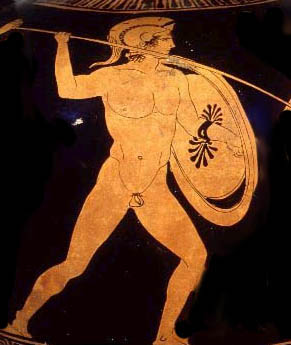
Theodorus
It is not easy, Socrates, for anyone to sit beside you and not be forced to give an account of himself and it was foolish of me just now to say you would excuse me and would not oblige me, as the Lacedaemonians do, to strip [apoduo]; you seem to me to take rather after Sciron. For the Lacedaemonians tell people to go away or else strip, but you seem to me to play rather the role of Antaeus; for you do not let anyone go who approaches you until you have forced him to strip and wrestle [prospalaio] with you in argument.
Your comparison with Sciron and Antaeus pictures my complaint admirably; only I am a more stubborn combatant than they; for many a Heracles and many a Theseus, strong men of words, have fallen in with me and belabored me mightily, but still I do not desist, such a terrible love
of this kind of exercise [gymnastika -- nude exercise] has taken hold on me. So, now that it is your turn, do not refuse to try a bout with me; it will be good for both of us.
Translator's note:
Sciron was a mighty man who attacked all who came near him and threw them from a cliff. He was overcome by Theseus. Antaeus, a terrible giant, forced all passersby to wrestle with him. He was invincible until Heracles crushed him in his arms.
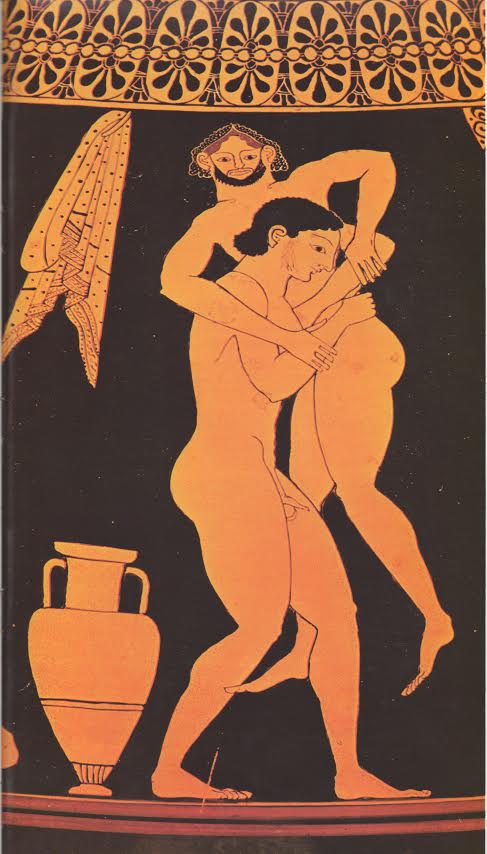

Socrates
If you went to Sparta, Theodorus, and visited the wrestling-schools, would you think it fair to look on at other people naked, some of whom were of poor physique, without stripping and showing your own form, too?
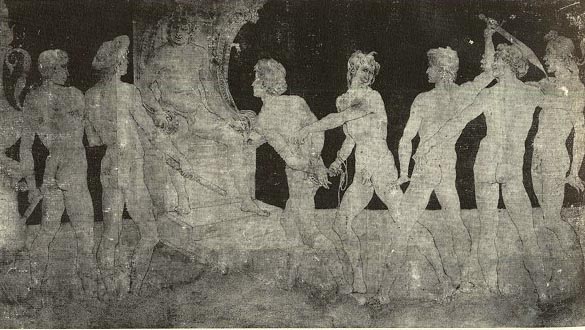
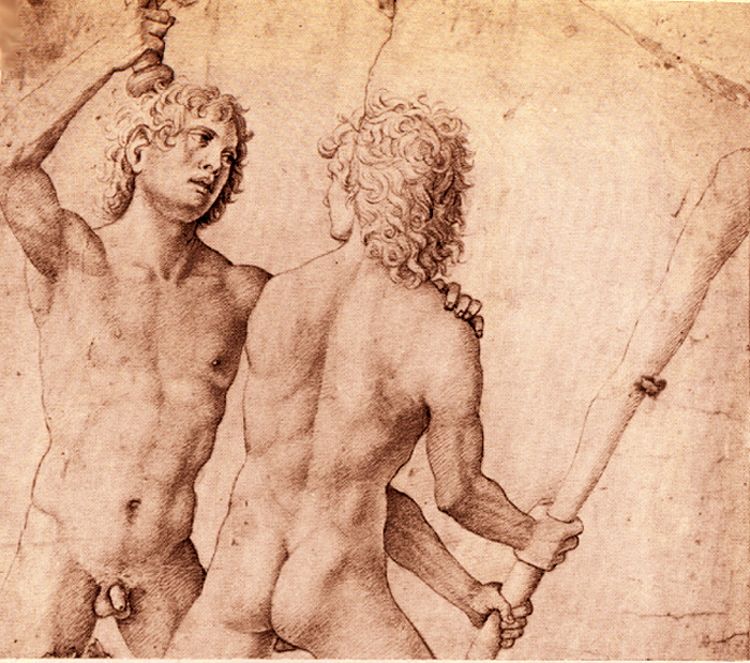

and in their greed kicking and butting one another with horns and hooves of iron they slay one another in sateless avidity [insatiable lust], because they are vainly striving to satisfy with things that are not real the unreal and incontinent part of their souls.
Does it occur to you that we brought this plague of aids upon
ourselves? I know I am getting into dangerous waters here but it
is time. With the cabal breathing even more murderously down our
backs it is time. And you are still doing it. You are still
murdering each other. Please stop with all the generalizations
and avoidance excuses gays have used since the beginning to
ditch this responsibility for this fact. From the very first
moment we were told in 1981 that the suspected cause was a
virus, gay men have refused to accept our responsibility for
choosing not to listen, and, starting in 1984, when we were told
it definitely was a virus, this behavior turned murderous. Make
whatever excuses you can to carry on living in your state of
denial but this is the fact of the matter. I wish we could
understand and take some responsibility for the fact that for
some 30 years we have been murdering each other with great
facility and that down deep inside of us, we knew what we were
doing. Don't tell me you have never had sex without thinking
down deep that there was more involved in what you were doing
than just maintaining a hard-on.
Eighth-century Eurypontid [Spartan] king, also called Charilaus
[T]he deepest secrets of [certain] matters the Gods[, said Sokrates,] reserved to themselves ; they were dark to men.
Thus from the Laureat fraternity of Poets, riper yeares, and the ceaselesse round of study and reading led me to the shady spaces of philosophy, but chiefly to the divine volumes of Plato, and his equall Xenophon. Where if I should tell ye what I learnt, of chastity and love, I meane that which is truly so, whose charming cup is only vertue which she bears in her hand to those who are worthy.
We are both warlike [polemikos] and wise [euboulos], and it is our sense of order [eukosmos] that makes us so. We are warlike, because self-control [sophrosyne] contains honor [aidos] as a chief constituent, and honor bravery [eupsychia]. And we are wise, because we are educated with too little learning to despise the laws [nomos], and with too severe a self-control to disobey them, and are brought up not to be too knowing in useless matters -- such as the knowledge which can give a specious criticism of an enemy's plans in theory, but fails to assail them with equal success in practice -- but are taught to consider that the schemes of our enemies are not dissimilar to our own, and that the freaks of chance are not determinable by calculation.
[Greeks] competed primarily not for money but rather for honor or glory; "worth," they called it, timé being the Greek word. [Actually, and as we discuss in Warrior Interregnum III, the meaning of Timé is "Honour" -- not "worth."] Timé was how the Greeks ranked themselves against each other; to be the best was to possess the most timé, which consisted of esteem by others and others' confirmation of one's lofty impression of one's own merits. Still, timé was not merely soap bubble popularity or gaseous celebrity; timé was glory made palpable and somehow separate from its possessor. Timé was thought to have a real, almost physical existence, in the world: it could, for example, be taken from one man by another; it could be captured in war.
[S]uppose, for instance, that on seeing beautiful creatures, whether
works of art or actually alive but in repose, a man should be moved
with desire to behold them in motion and vigorously engaged in some
such exercise as seemed suitable to their physique ; well, that is the
very feeling I have regarding the State we have described. Gladly
would I listen to anyone who should depict in words our State
contending against others in those struggles which States wage ; in how
proper a spirit it enters upon war, and how in its warring it exhibits
qualities such as befit its education and training in its dealings
with each several State whether in respect of military actions or in
respect of verbal negotiations.
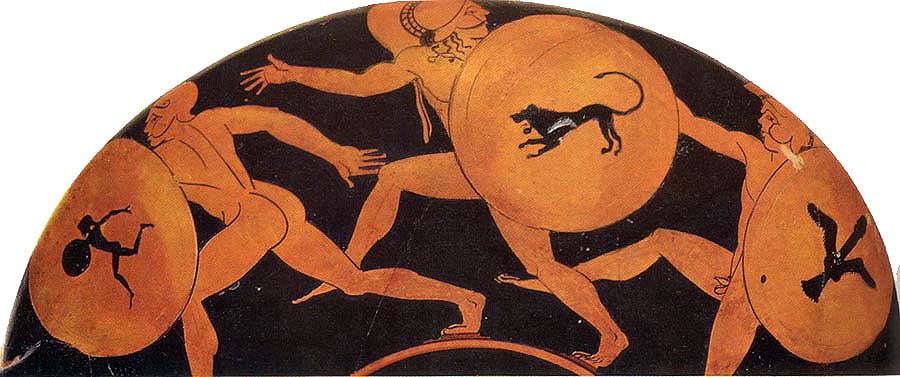
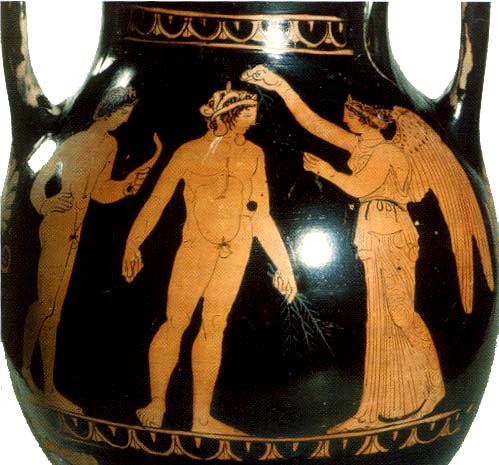
The life and pleasure of the warrior [polemikos -- warlike] and honour-loving [philotimos] type is nearer to that of the lover of wisdom than it is to that of the greedy for gain.



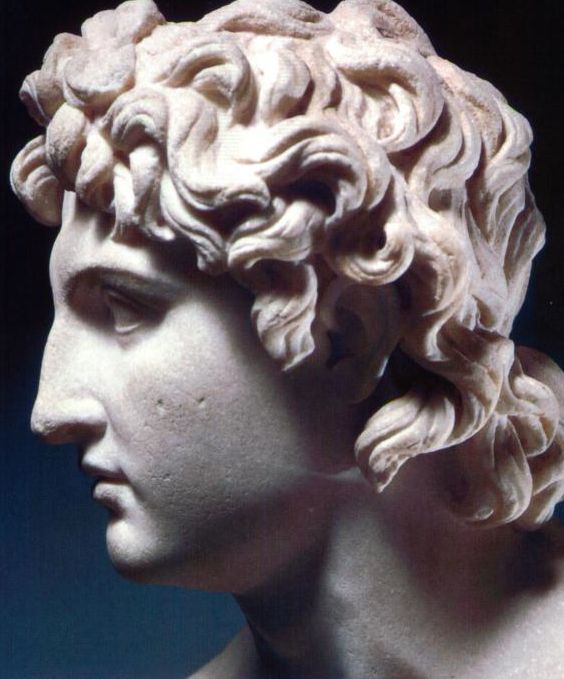
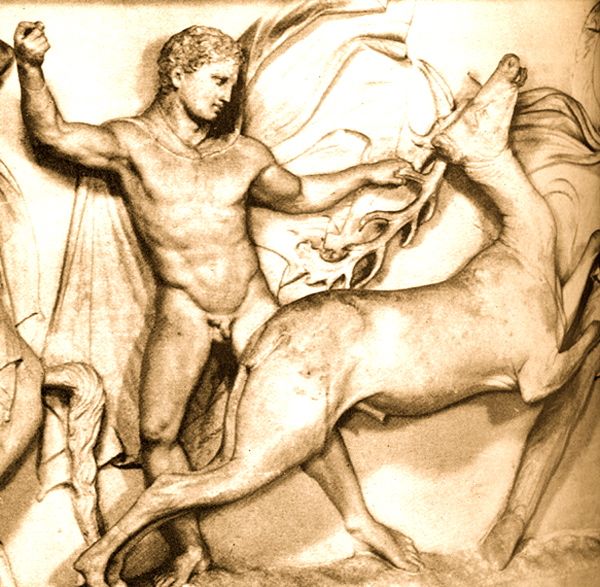
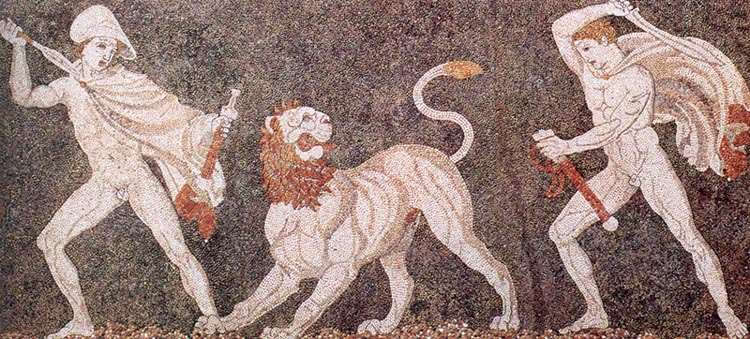
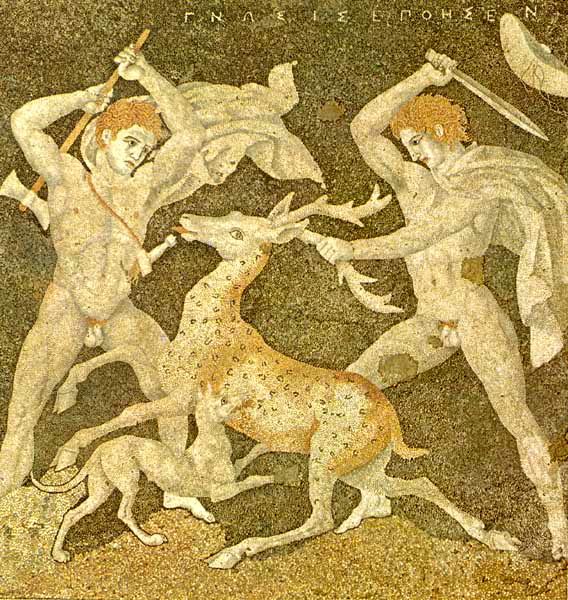
~Peleus to Achilles, Homer. Iliad. 11.784
The Greek nobles believed that the real test of manly virtue [Areté] was victory in battle -- a victory which was not merely the physical conquest of an enemy, but the proof of hard-won areté.
Alexander's Noblest Deed
Bill Weintraub:
Noble indeed was his power of inspiring his men, of filling them with confidence, and, in the moment of danger, of sweeping away their fear by the spectacle of his own fearlessness.
Noble indeed was his power of inspiring his men, of filling them with confidence, and, in the moment of danger, of sweeping away their fear by the spectacle of his own fearlessness.
the man who gives up his life to win the beautiful, will find that his natural instinct for self-assertion finds its highest expression in self-sacrifice
it was ever Alexander's nature, if he had no rival, to strive [erizo] to better his own best.
For to a civil polity best arranged for peace and virtue [Areté] and unanimity [homonoia] they [the Spartans] had attached empires and sovereignties won by force, not one of which Lykourgos [the Spartan law-giver] thought needful for a city that was to live in happiness [eudaimonia] ; and therefore they fell.
It was not, however, the chief design of Lykourgos then to leave his city in command over a great many others, but he thought that the happiness [eudaimonia] of an entire city, like that of a single individual, depended on the prevalence of virtue [Areté] and concord [homonoia] within its own borders. The aim, therefore, of all his arrangements and adjustments was to make his people free-minded [eleutherios], self-sufficing [autarkes], and moderate [sophron -- sober, self-controlled] in all their ways, and to keep them so as long as possible. His design for a civil polity was adopted by Plato, Diogenes, Zeno, and by all those who have won approval for their treatises on the subject, although they left behind them only writings and words. Lykourgos, on the other hand, produced not only writings and words, but an actual polity which was beyond imitation, and because he gave, to those who maintain that the much talked of natural disposition to wisdom [sophos] exists only in theory, an example of an entire city given to the love of wisdom [philosophia], his family rightly transcended that of all who ever founded polities among the Greeks.
We are both warlike [polemikos] and wise [euboulos], and it is our sense of order [eukosmos] that makes us so. We are warlike, because self-control [sophrosyne] contains honor [aidos] as a chief constituent, and honor bravery [eupsychia]. And we are wise, because we are educated with too little learning to despise the laws [nomos], and with too severe a self-control to disobey them, and are brought up not to be too knowing in useless matters -- such as the knowledge which can give a specious criticism of an enemy's plans in theory, but fails to assail them with equal success in practice -- but are taught to consider that the schemes of our enemies are not dissimilar to our own, and that the freaks of chance are not determinable by calculation.
Lykourgos thought that the happiness [eudaimonia] of an entire city, like that of a single individual, depended on the prevalence of virtue [Areté -- Manhood, Manly Goodness] and concord [homonoia -- likeness of mind] within its own borders.
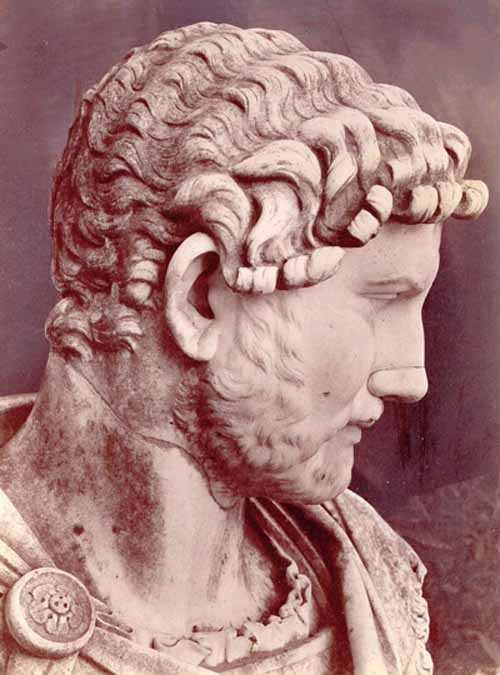
Hadrian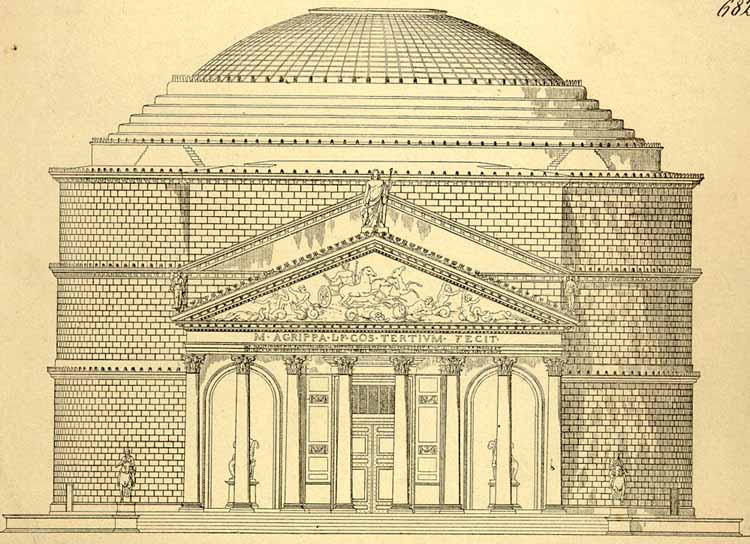
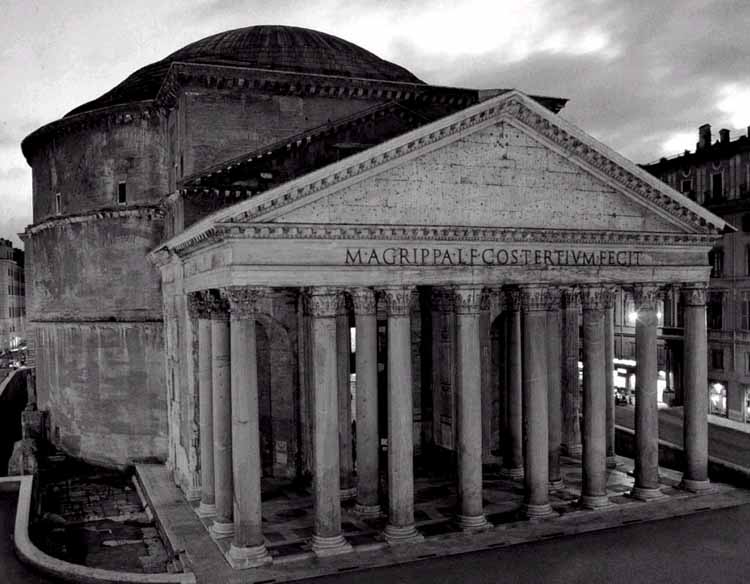

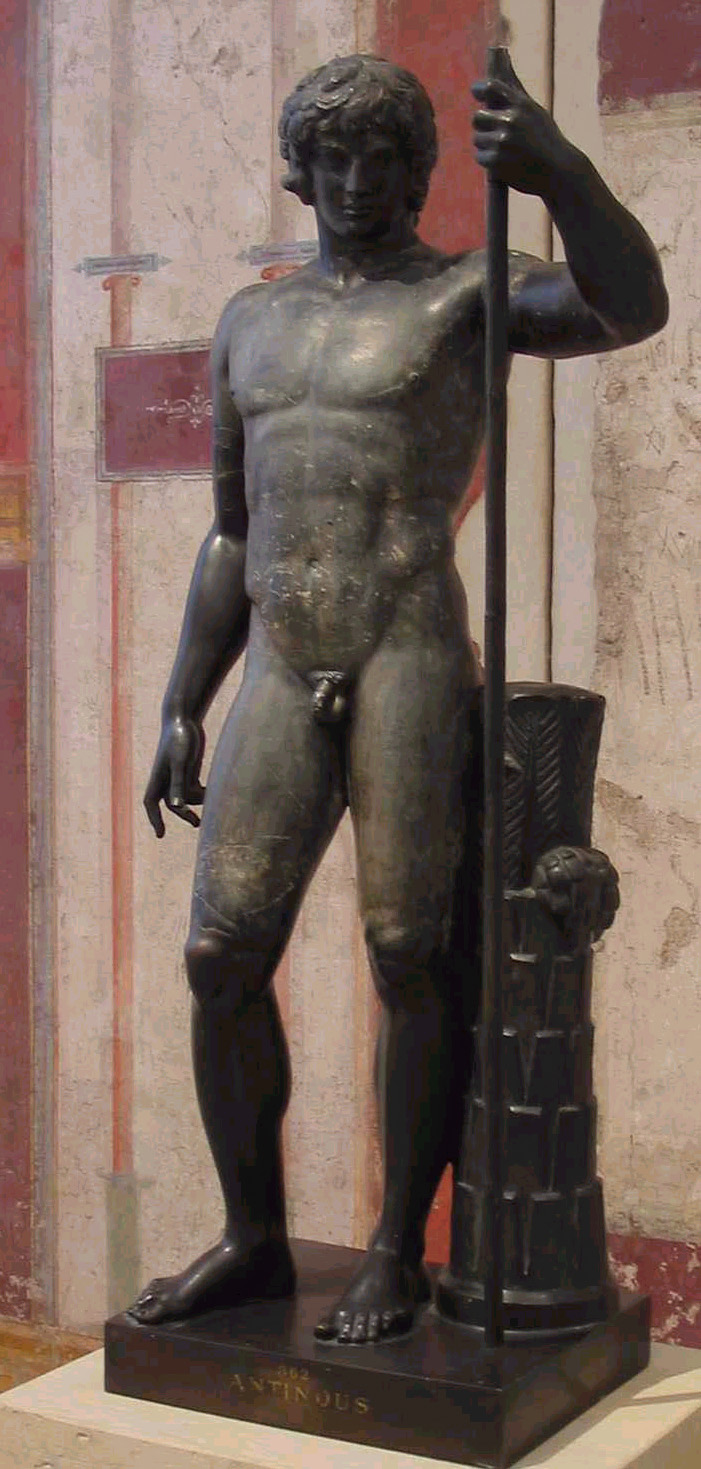
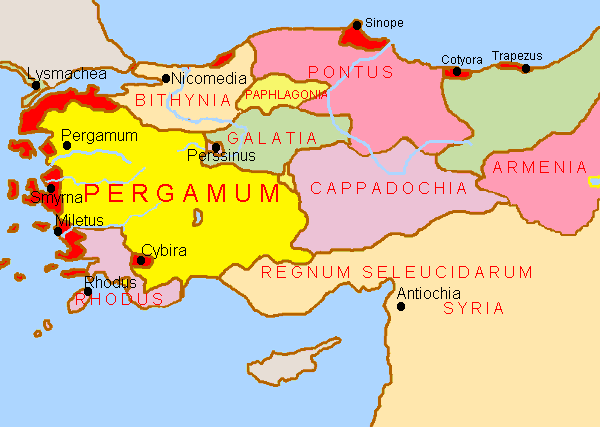

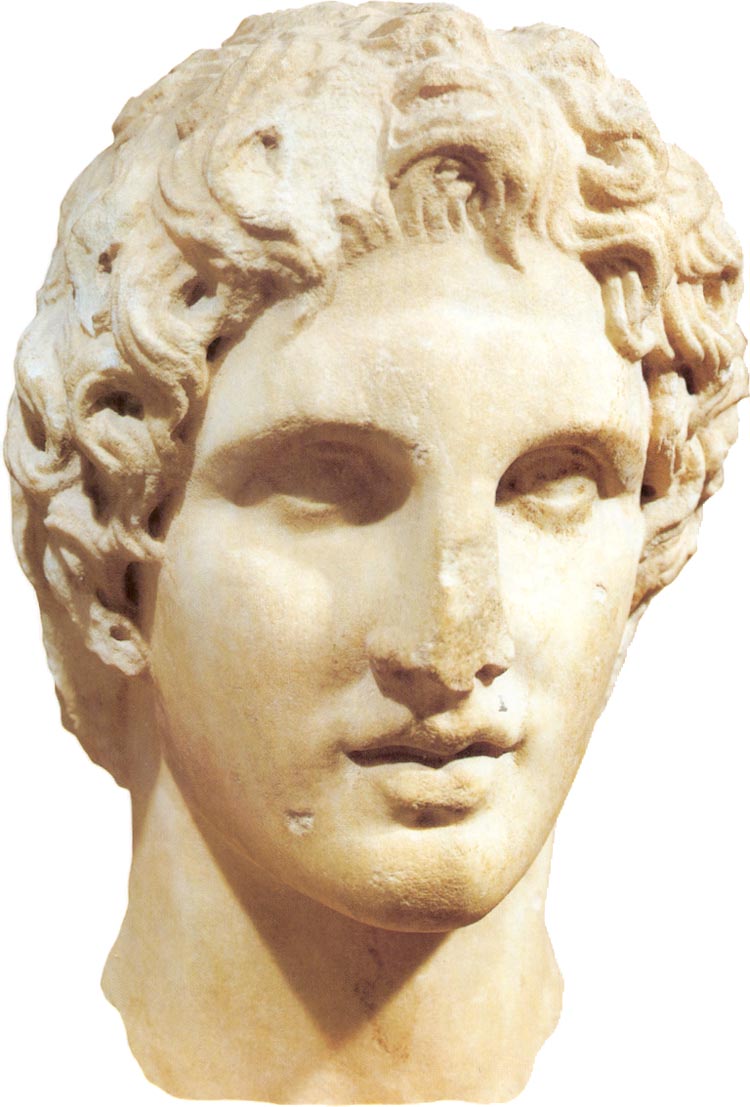
Alexander died in the 114th Olympiad, in the archonship of Hegesias at Athens. He lived, as Aristobulus tells us, thirty-two years and eight months, and reigned twelve years and eight months. He had great personal beauty [kallistos -- superlative of kalos], invincible power of endurance [philoponotatos -- superlative of philoponos], and a keen intellect; he was brave [andreiotatos, superlative of andreios = Most Manly], strict in the observance of his religious duties, and hungry for fame [philotimotatos = superlative of philotimos] [philokindunotatos = superlative of philokindunos = danger-loving, adventurous]. Most temperate in the pleasures of the body, his passion was for glory only, and in that he was insatiable. He had an uncanny instinct for the right course in a difficult and complex situation, and was most happy in his deductions from observed facts. In arming and equipping troops, and in his military dispositions, he was always masterly. Noble indeed was his power of inspiring his men, of filling them with confidence, and, in the moment of danger, of sweeping away their fear by the spectacle of his own fearlessness. When risks had to be taken, he took them with the utmost boldness, and his ability to seize the moment for a swift blow, before his enemy had any idea of what was coming, was beyond praise. No cheat or liar ever caught him off his guard, and both his word and his bond were inviolable. Spending but little on his own pleasures, he poured out his money without stint for the benefit of his friends.
andreiotatos -- Most Manly -- kai philotimotatos -- and Most Honour-Loving -- kai philokindunotatos -- and Most Adventuresome -- kai epmelestatos tou Theiou -- and Most Attentive to the Gods
Most temperate in the pleasures of the body, his passion was for glory only, and in that he was insatiable.
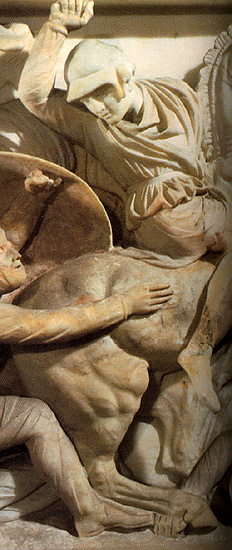
Let every one of us be ambitious [philonikia -- victory-loving, loving rivalry] to gain excellence [areté -- Manhood, Manly Goodness, Manly Excellence], but without jealousy. For a man of this character enlarges a State [polis -- city-state], since he strives hard himself and does not thwart the others by calumny [false accusation, slander] . . .
"And don't you agree that the soldier who [in battle] wins the prize of valor [aristeuo] and distinguishes himself shall first be crowned by his fellows in the campaign, by the lads and boys each in turn?"
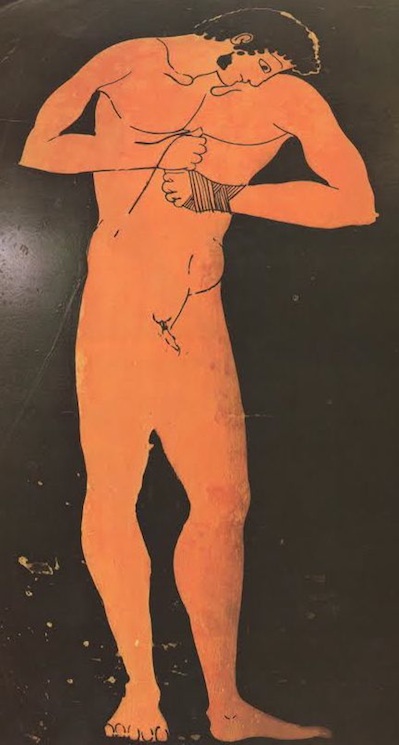
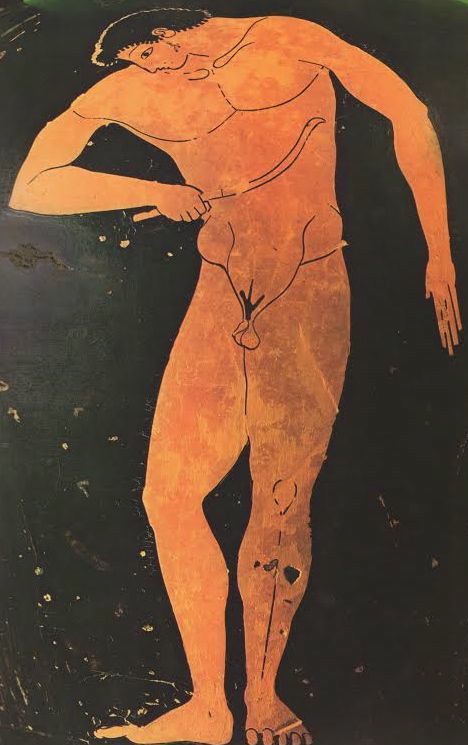


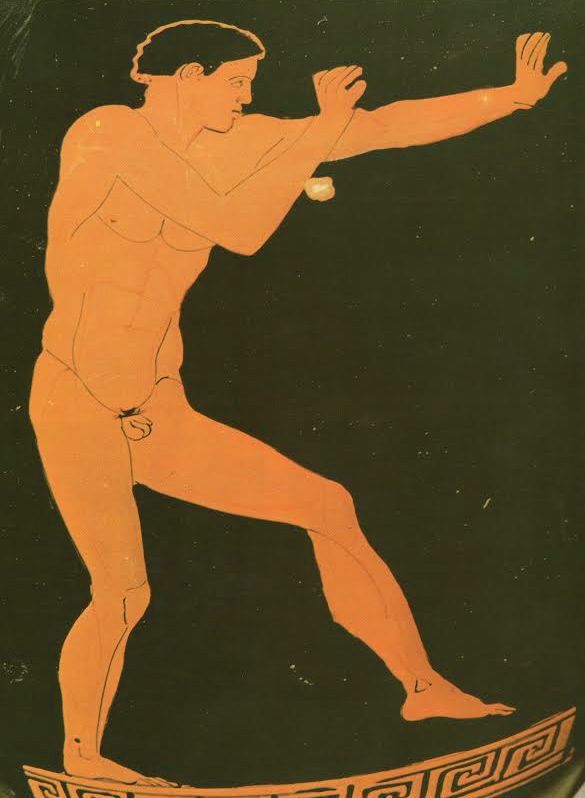
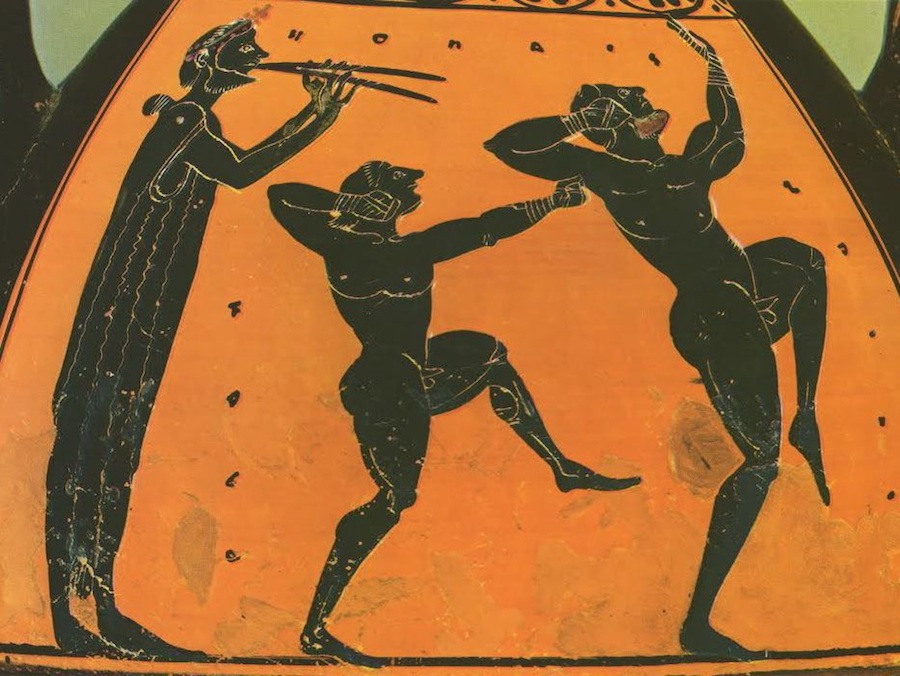
Gymnazousi Pugmachoi hup Aulou
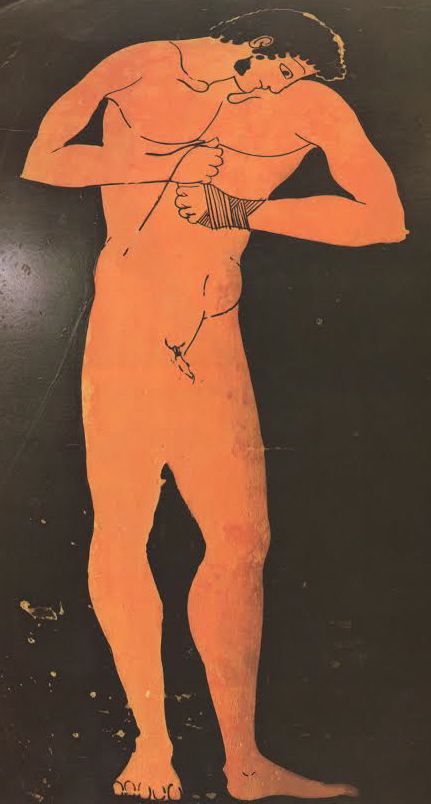


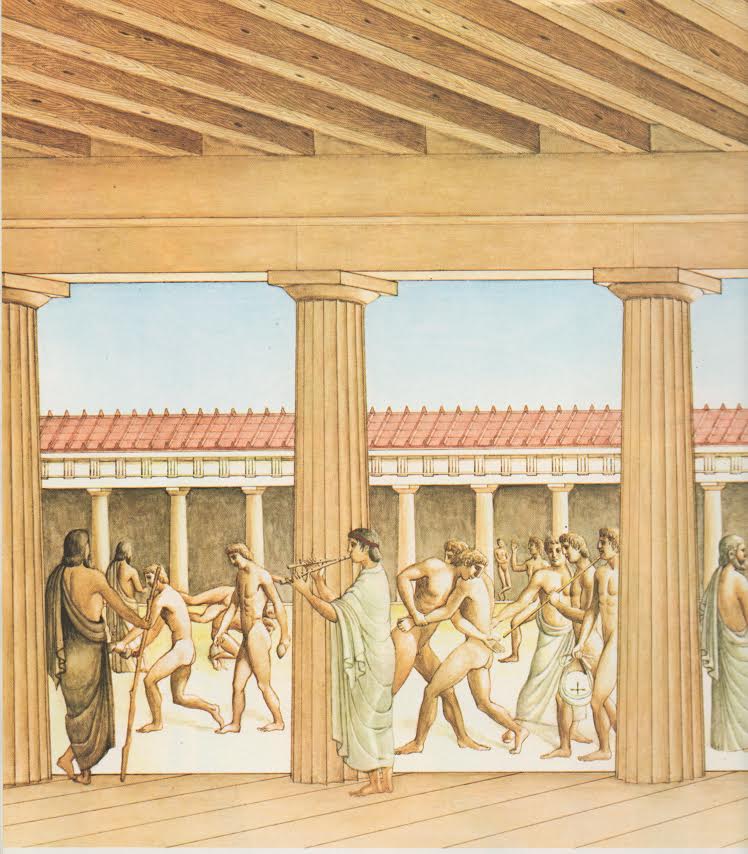
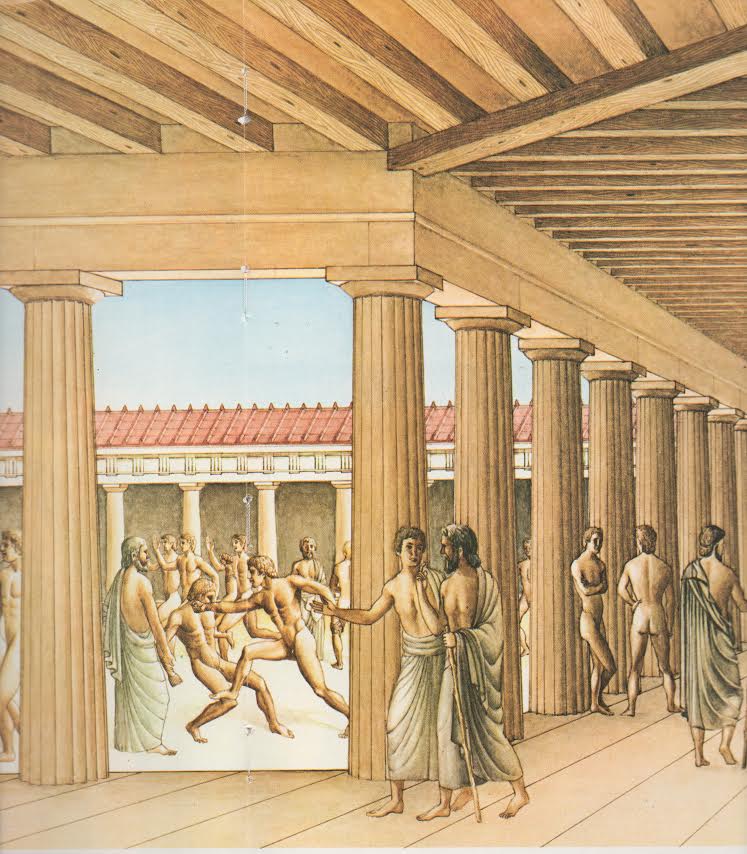
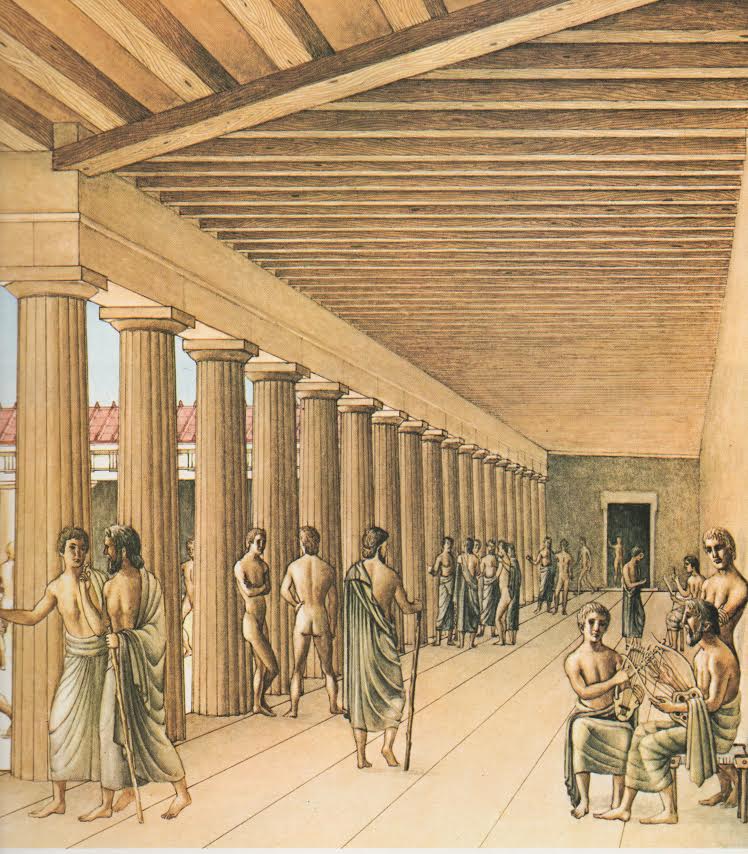
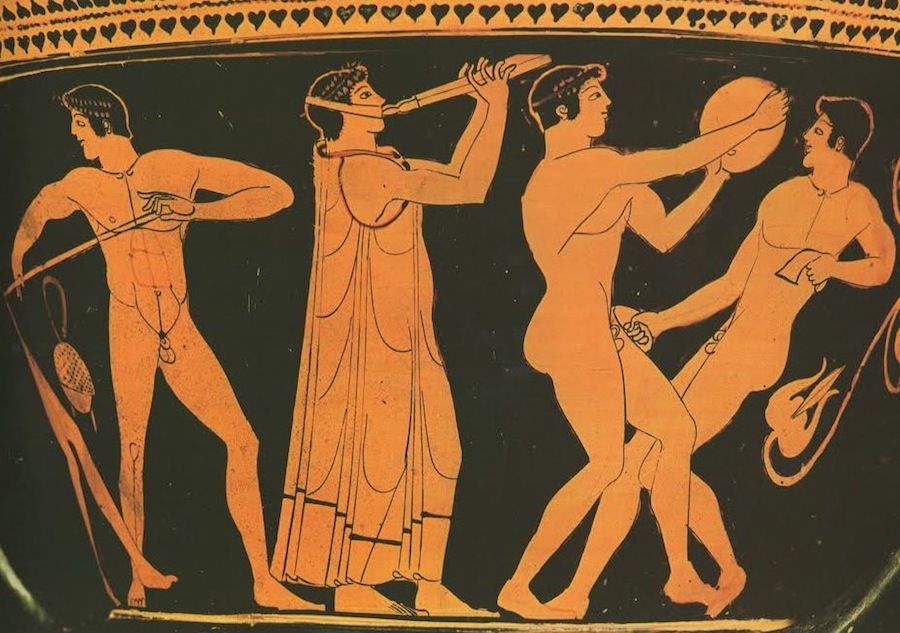
Gymnazo : Harmonia kai Rhythmos
Athletes train Naked and Together to the Rhythms and Harmonies of the Flute and Tambour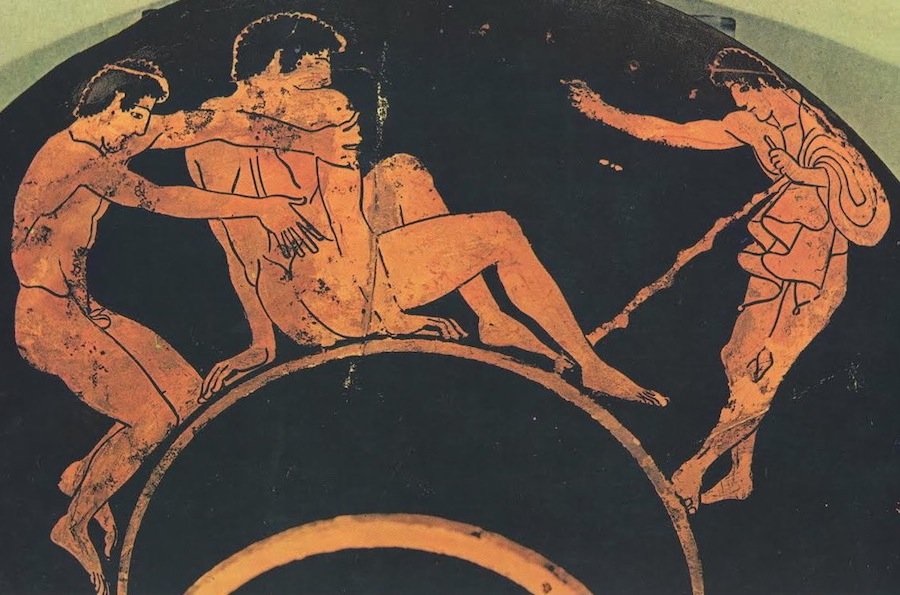
A trainer supervises the massaging of his student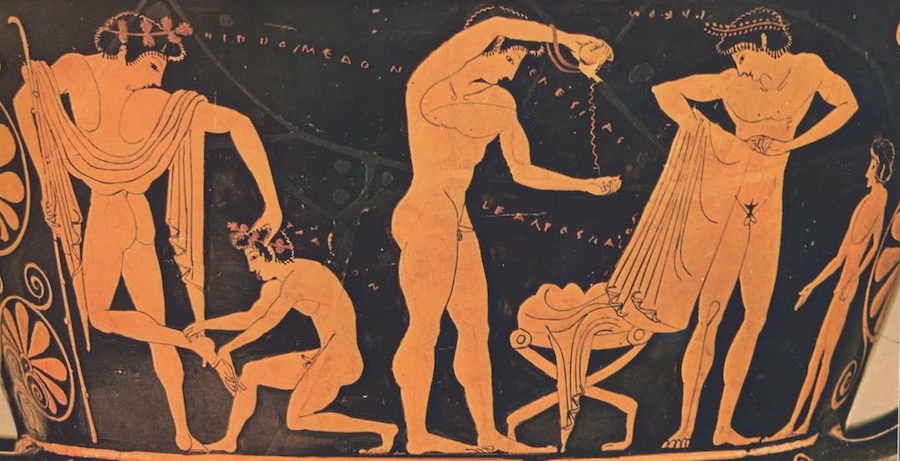
Three Youths Prepare to Wrestle
On the left, Hippomedon's foot is massaged by Tranion ;
Hegesias is pouring oil which he'll use to anoint his body ;
Lykon removes his cloak, which he'll hand to the boy on the right ;
And Hippomedon, Tranion, Hegesias, and Lykon are all wearing wreaths.
Activity is communal and shared.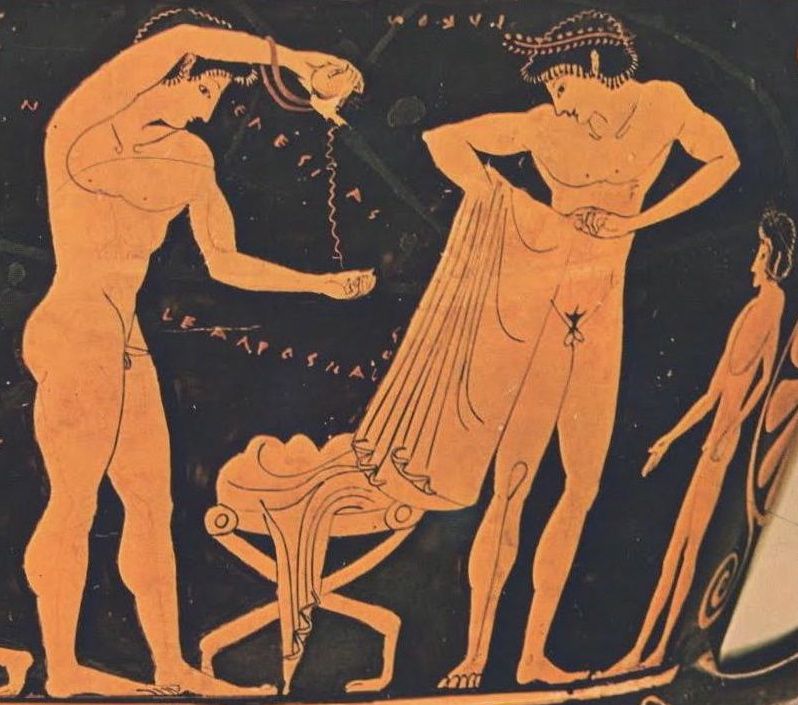
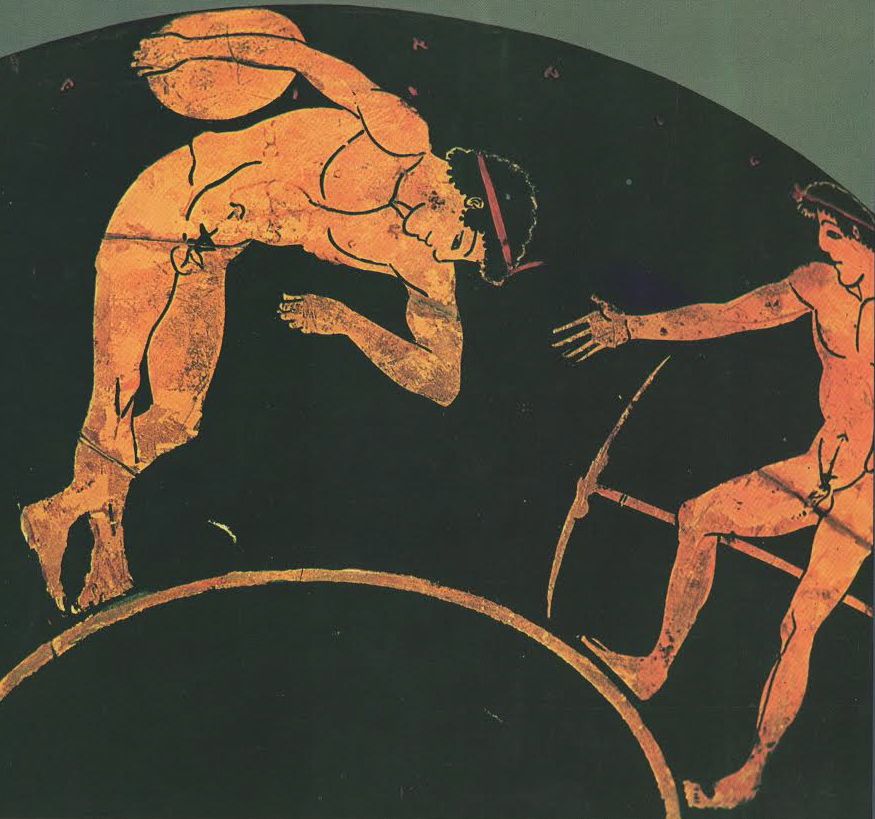
One youth prepares to throw the discus, encouraged by a comrade standing next to a pickaxe used to soften the surface of the Fight Pit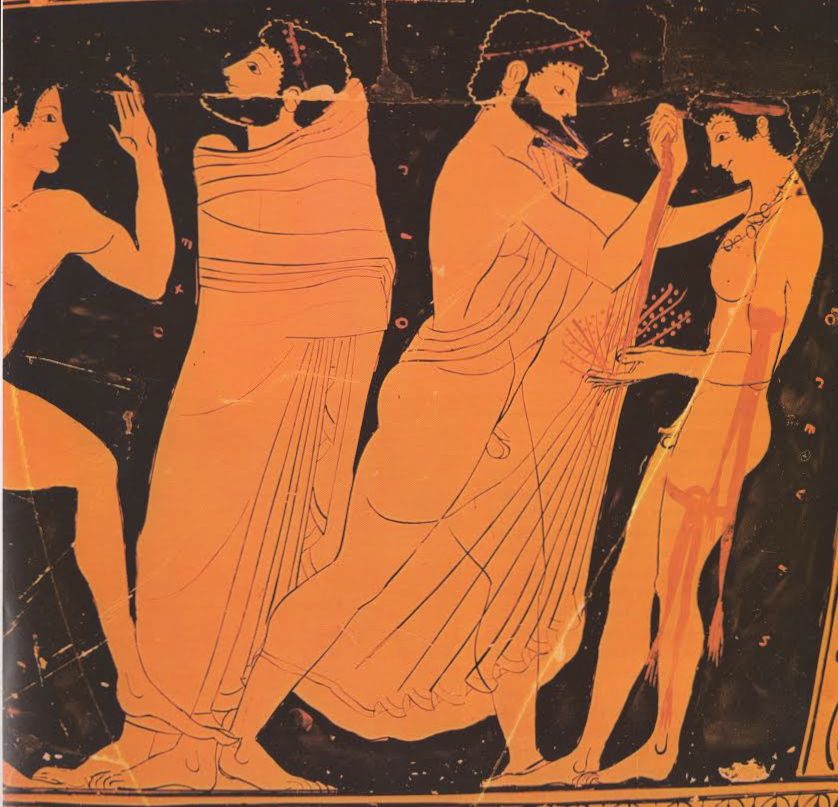
The Agonothetes Αγωνοθετης crowns a Young Victor
A Younger and Older Boxer -- possibly Lovers -- Train Naked and Together to the sound of the Flute
Athletes bathe each other in the loutron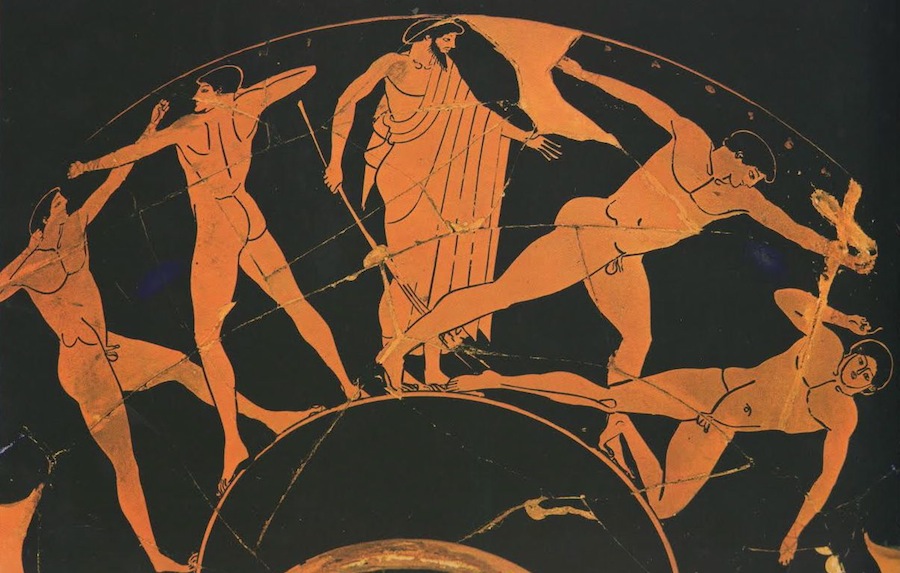
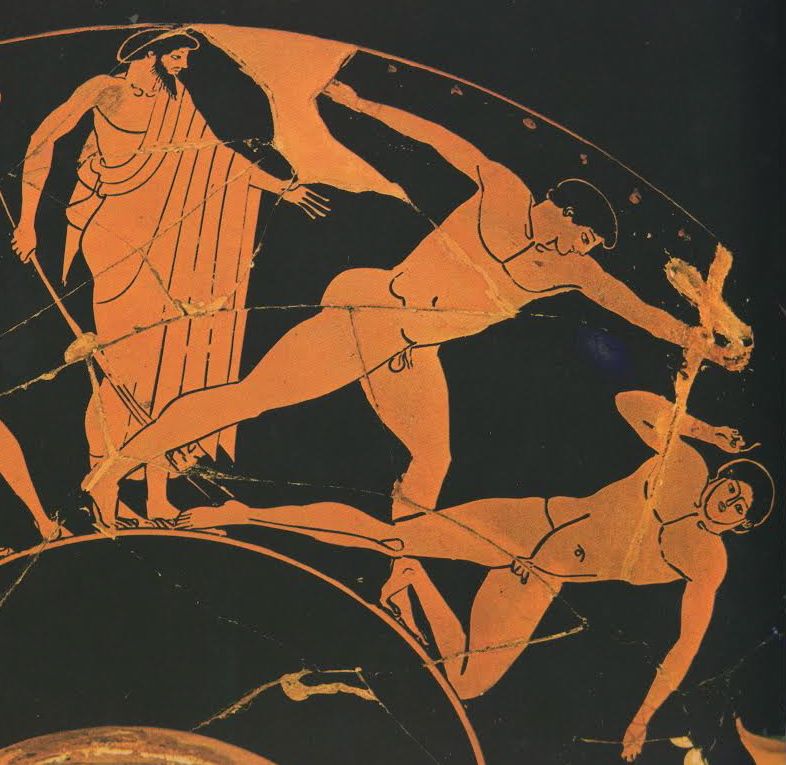
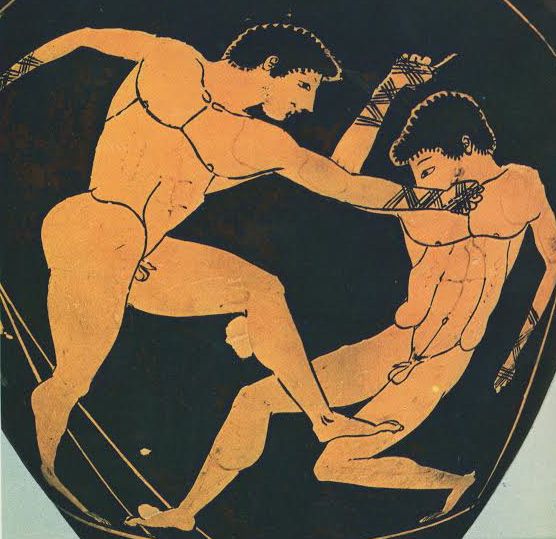
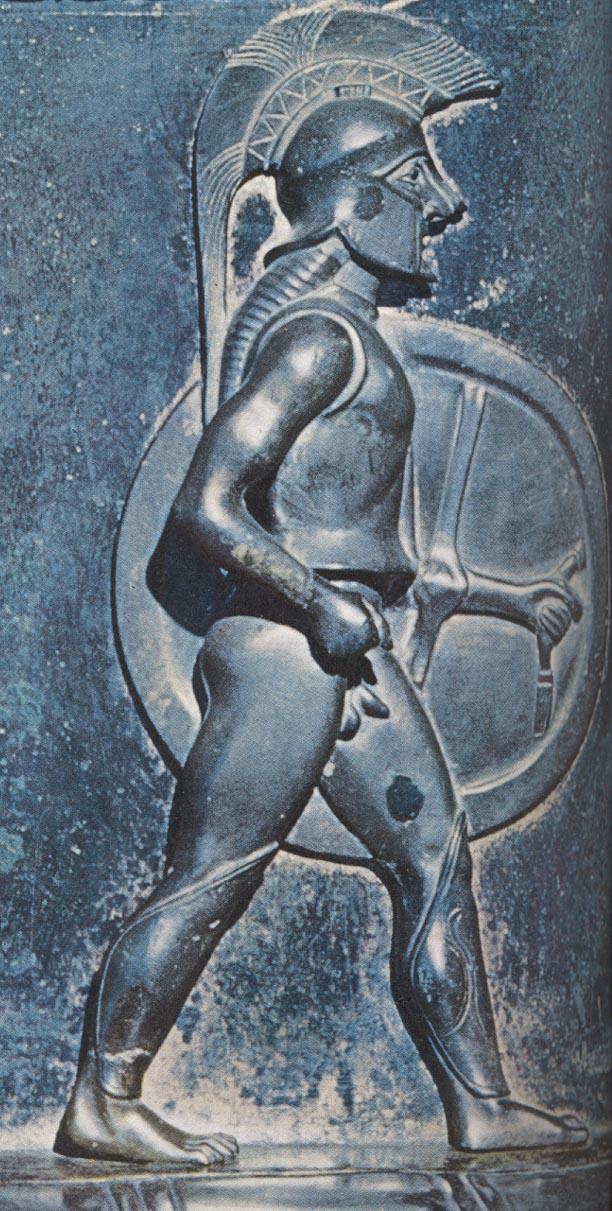
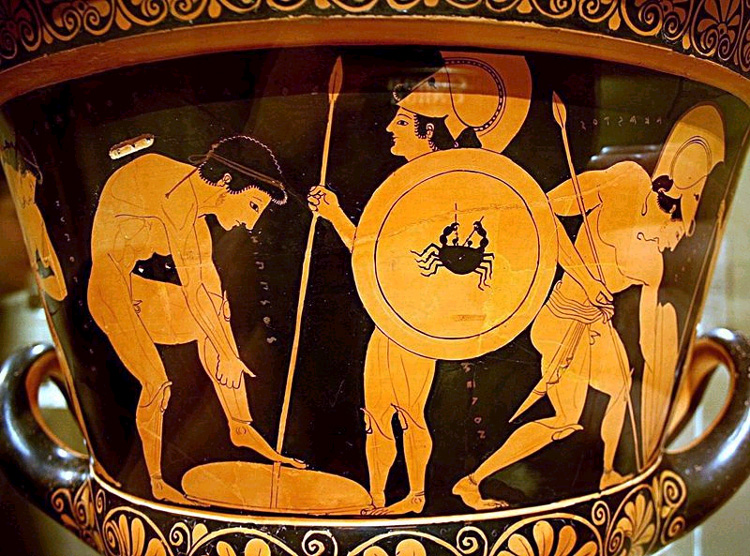
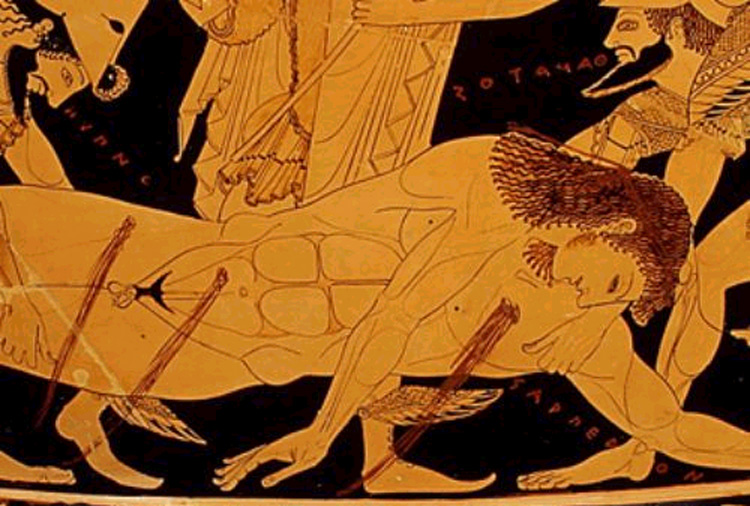
Sarpedon has died selflessly in battle ;
Fighting for friends and country, he's
sacrificed length of days for Areté --
Fighting Manhood, Manly Goodness
embrace all qualities which are desirable in a perfect man, especially the more active and positive virtues.
Fighting Manhood : Strength, vigor, bravery, courage, excellence ; Valour, gallantry, fortitude ; Goodness, moral perfection, high character, virtue ; Worth, merit, value.
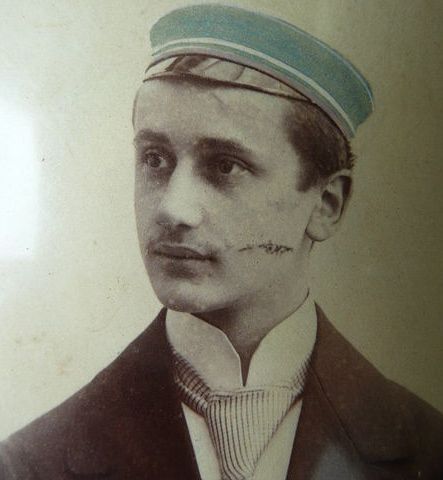
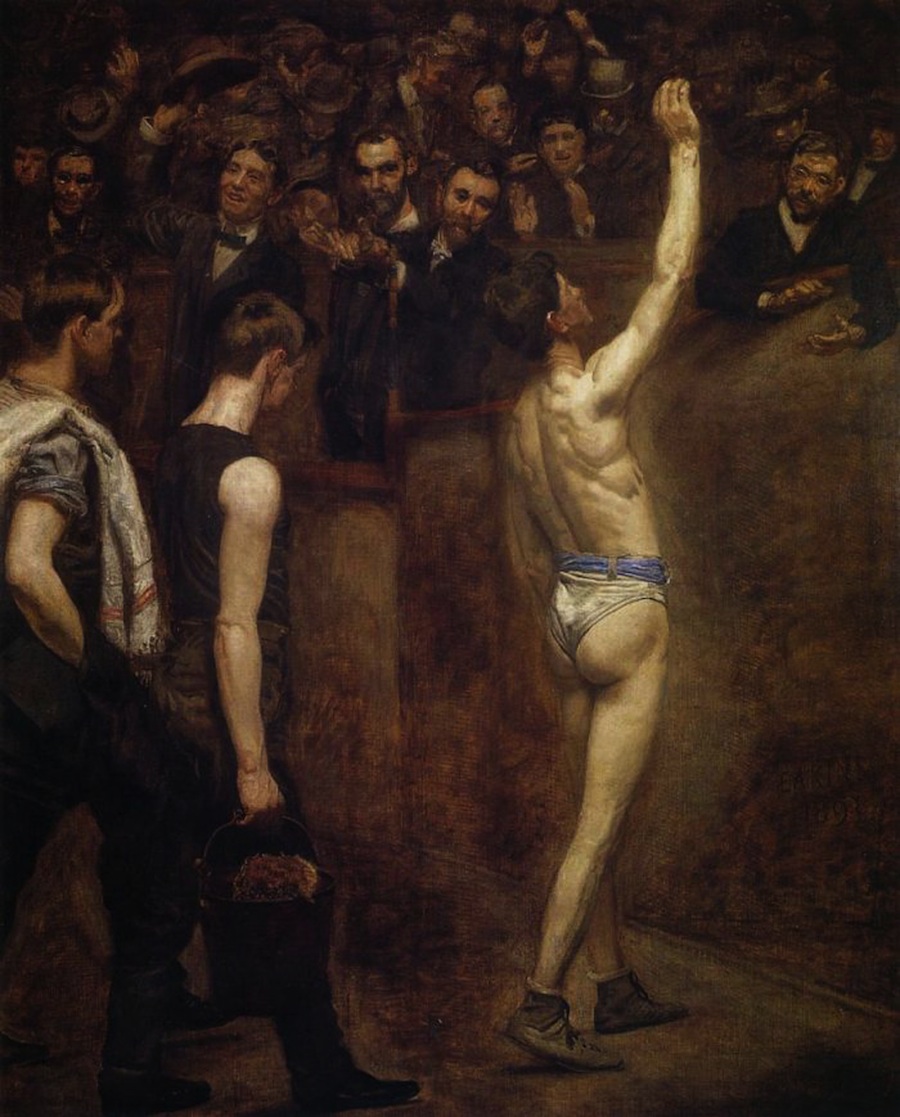
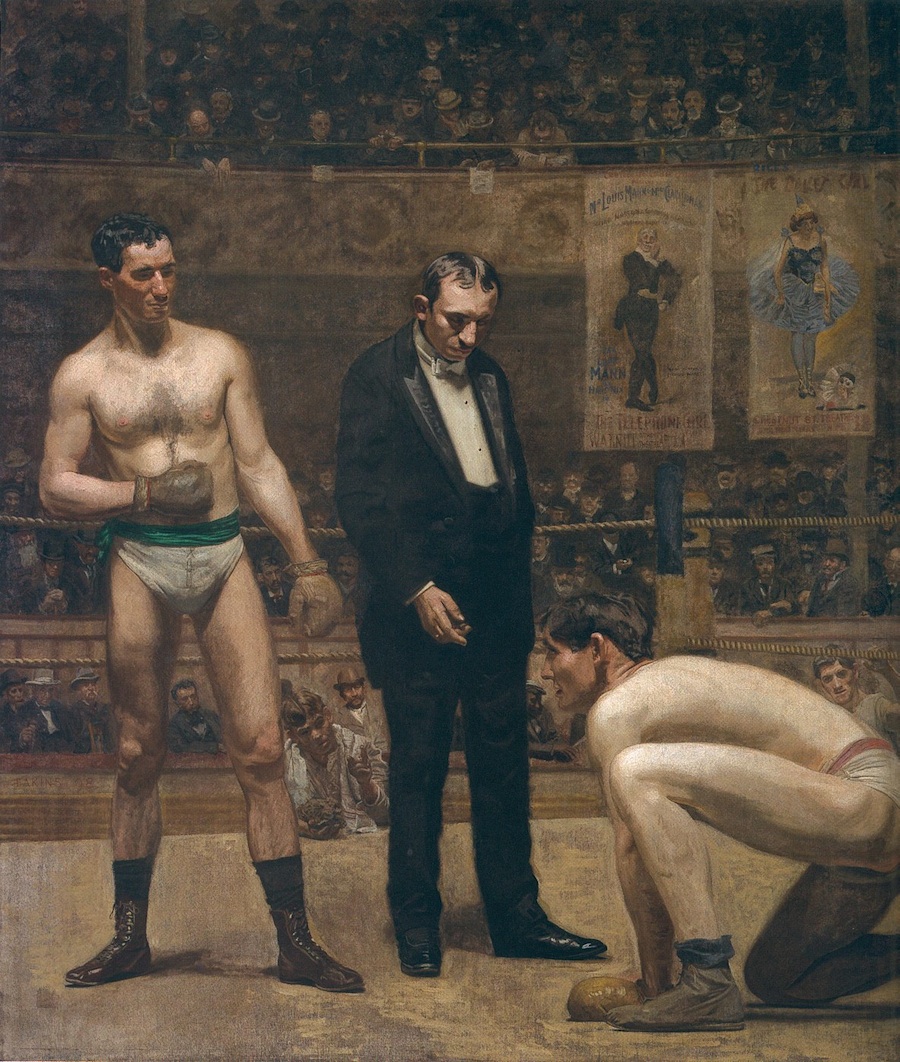
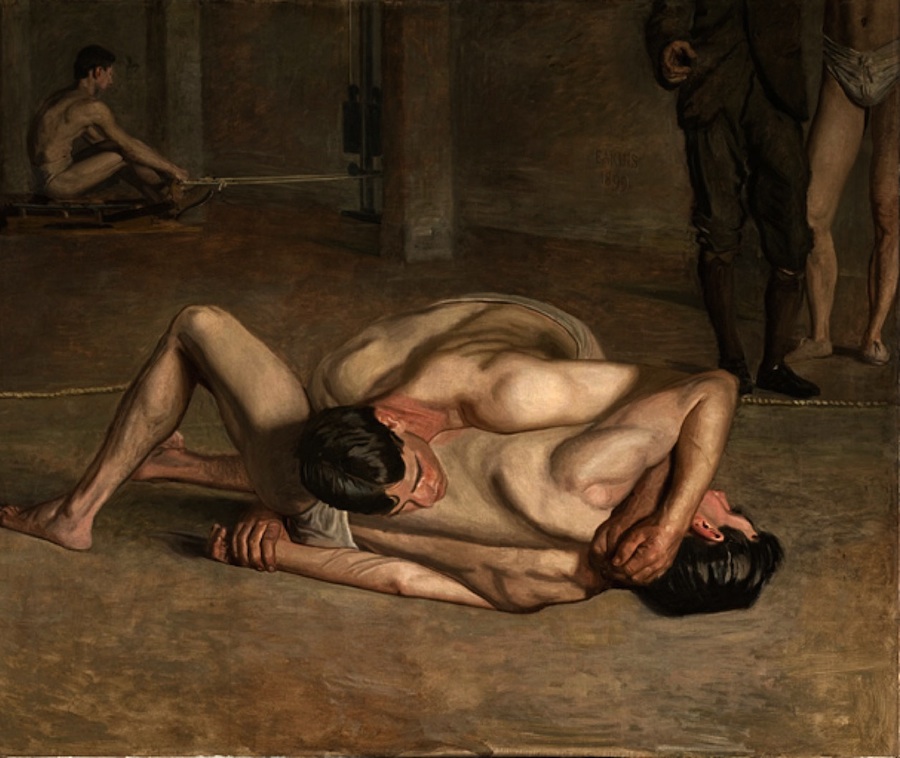
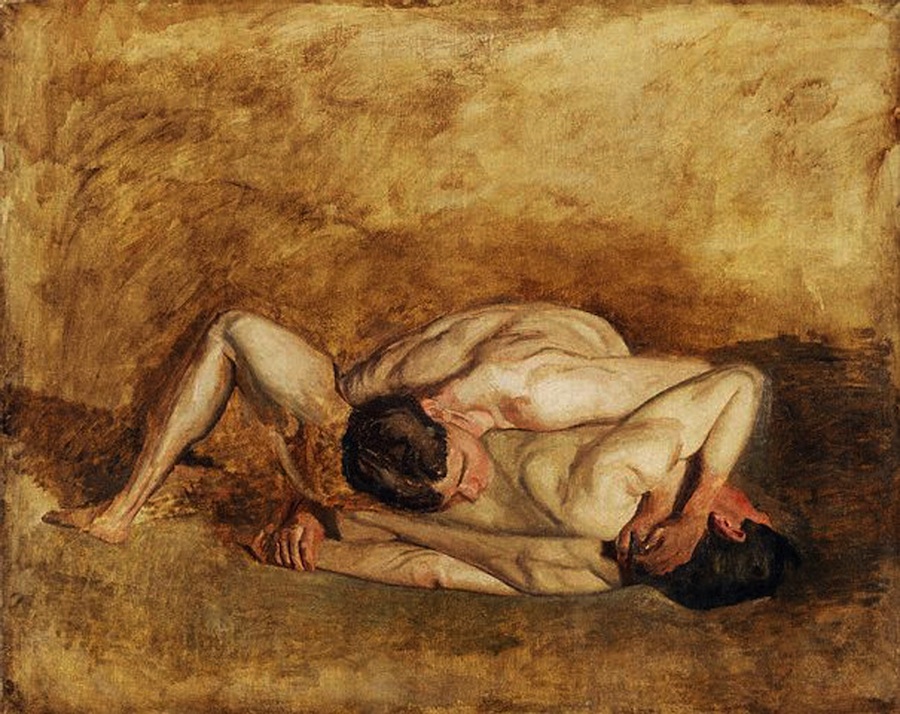
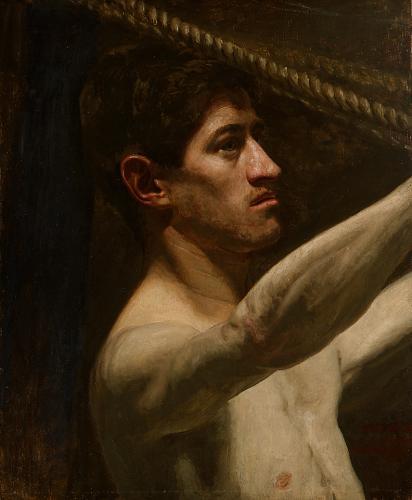
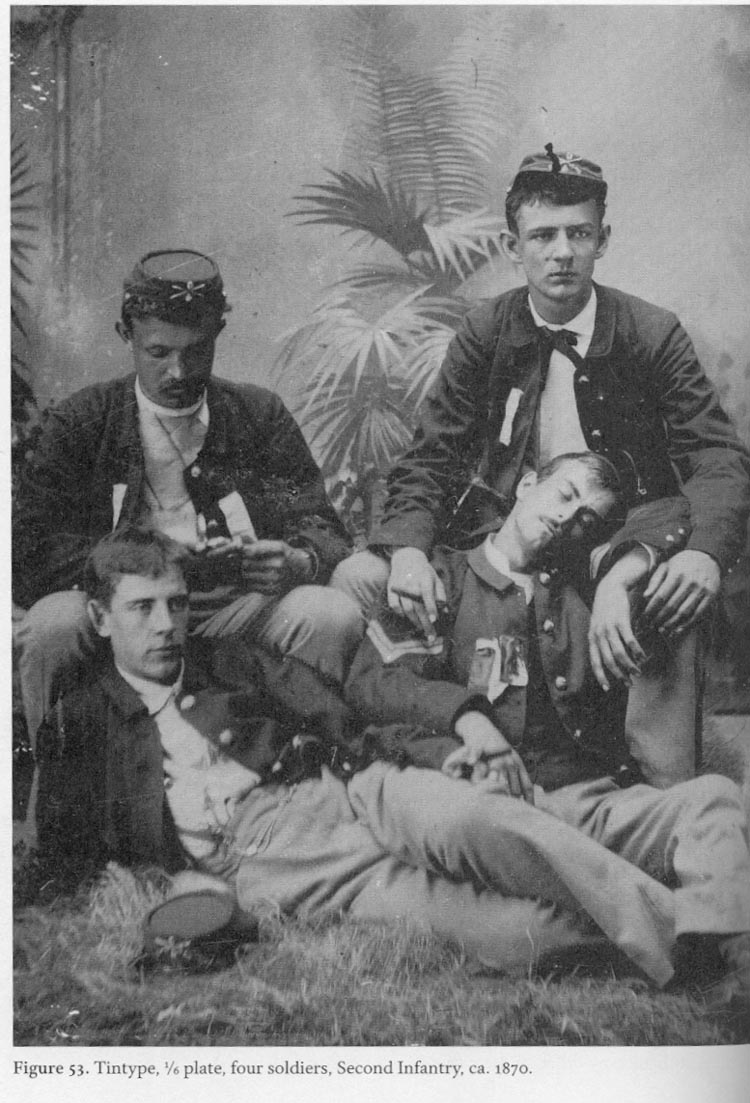
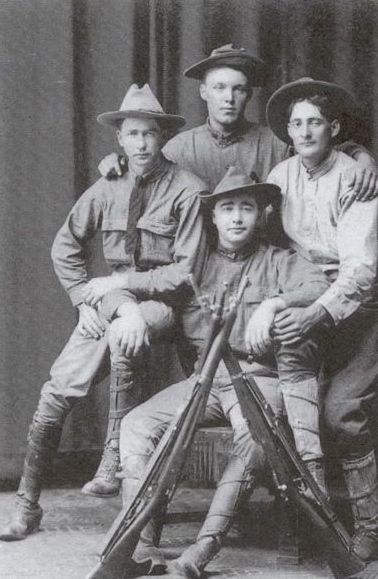
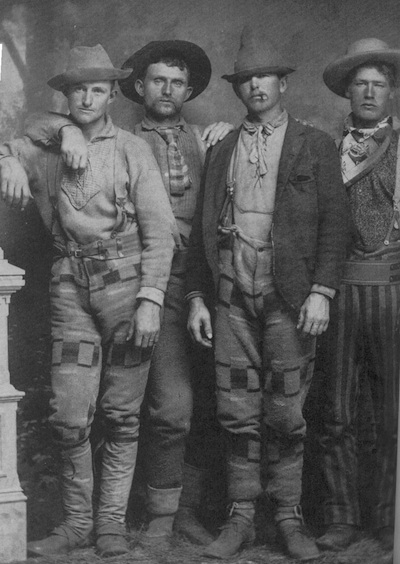
_1883_Eakins'_art_studens_wrestling_in_the_nude.jpg)
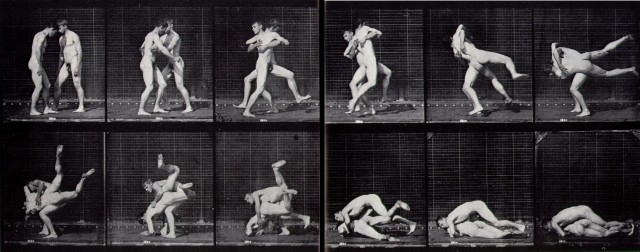
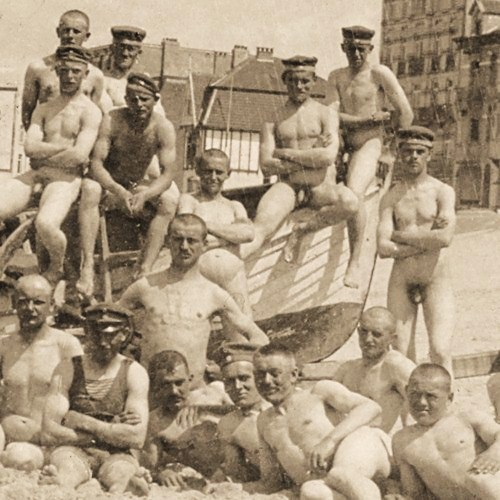
[I]t is not long since the Greeks thought it disgraceful and ridiculous, as most of the barbarians do now, for men to be seen naked [gymnos]. And when the practice of athletics [gymnazo] = nude athletics] began, first with the Cretans and then with the Lakedaemonians [Spartans], it was open to the wits of that time to make fun of these practices, don't you think so?
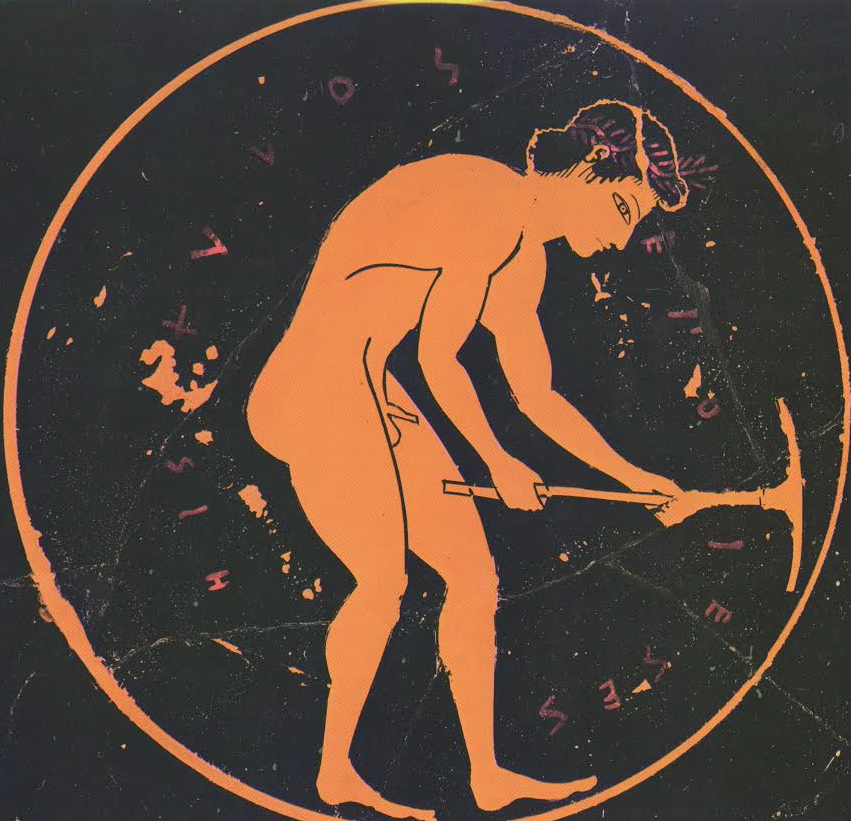

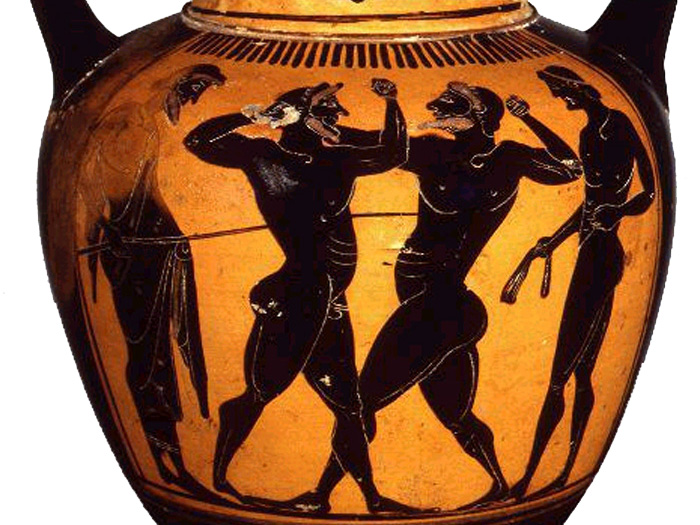
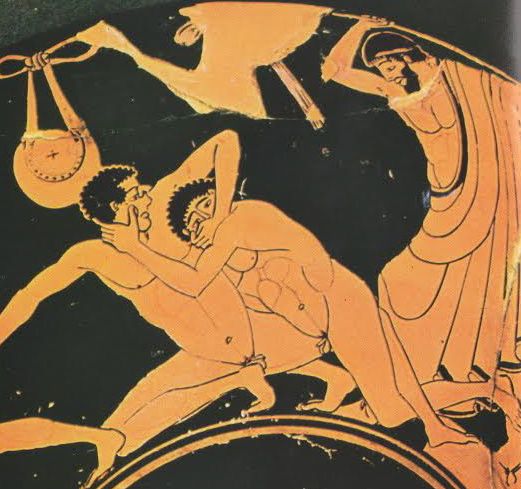
Pankratiasts are reprimanded for eye-gouging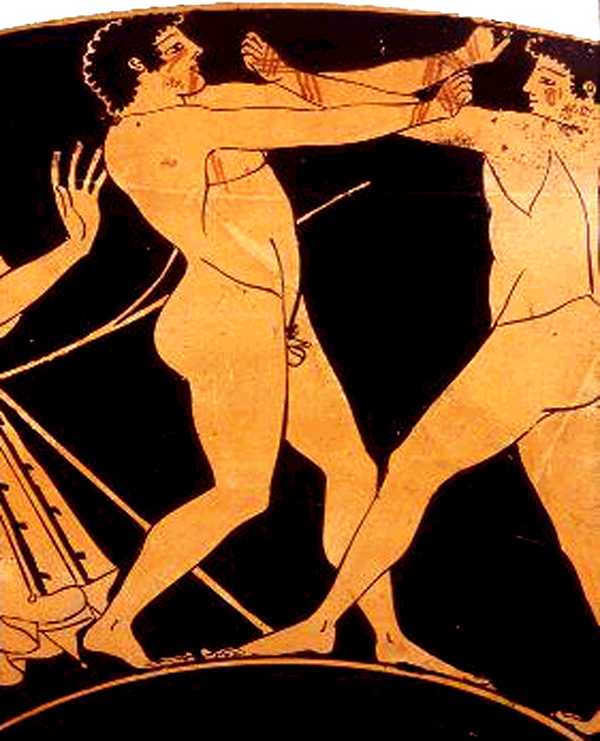
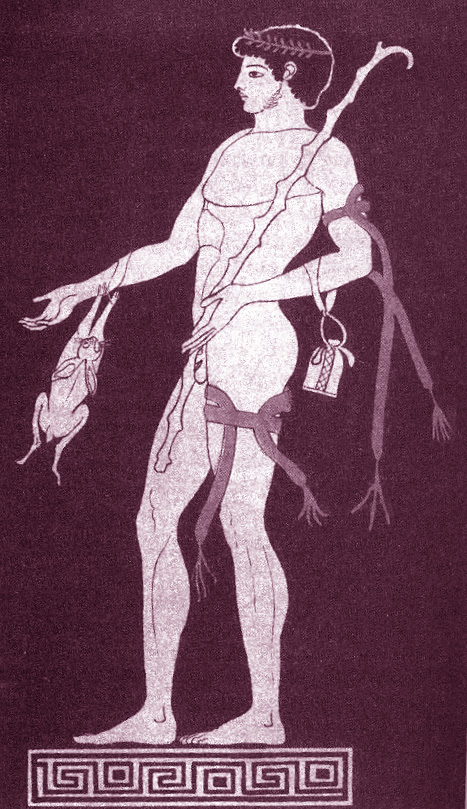
An athletic victor stands nude and garlanded
Banners indicate his consecration to the Gods
The hare is a courting-gift from a male admirer



Vigor, strength, bravery, courage, excellence ; Valour, gallantry, fortitude ; Virtue, goodness, moral perfection, high character ; Value, merit, worth.

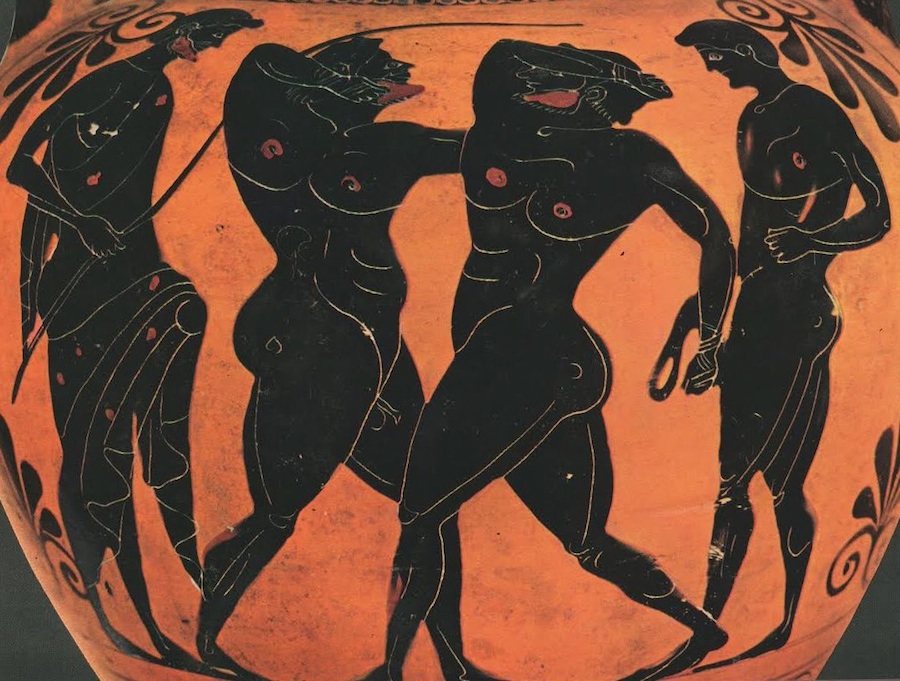
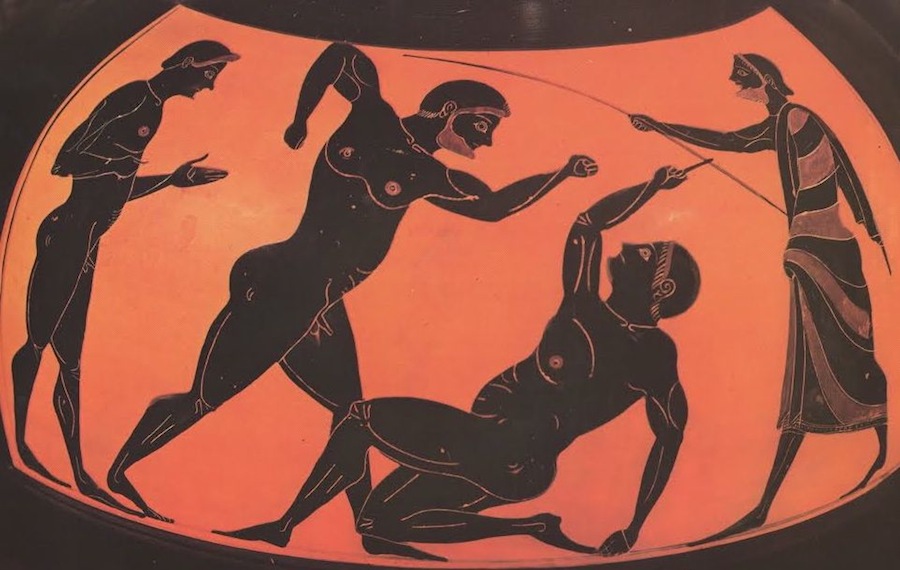
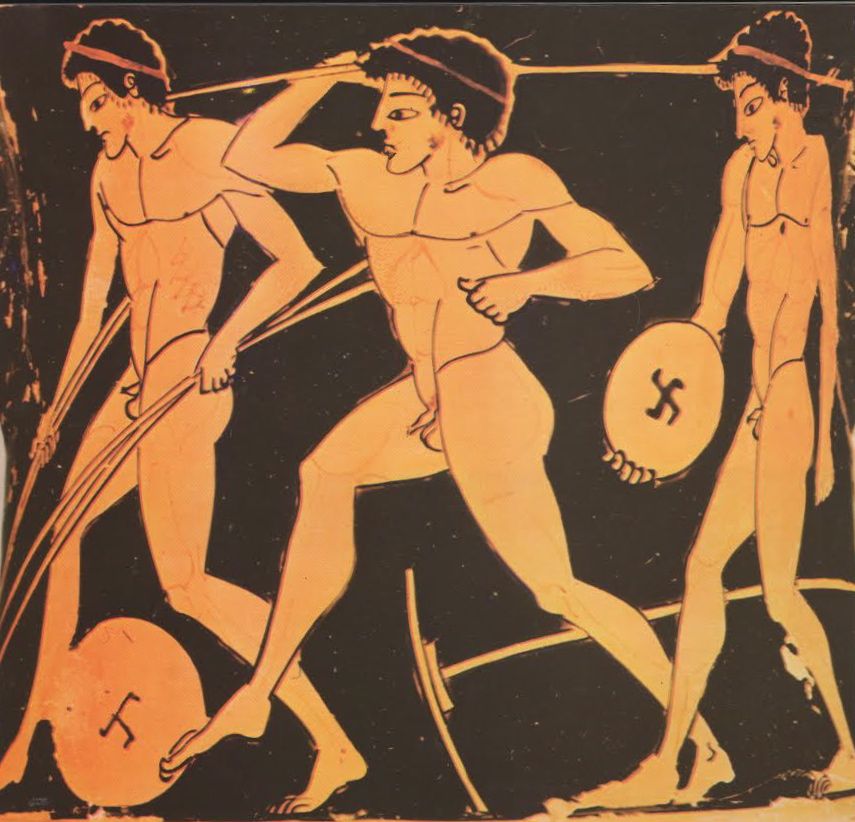

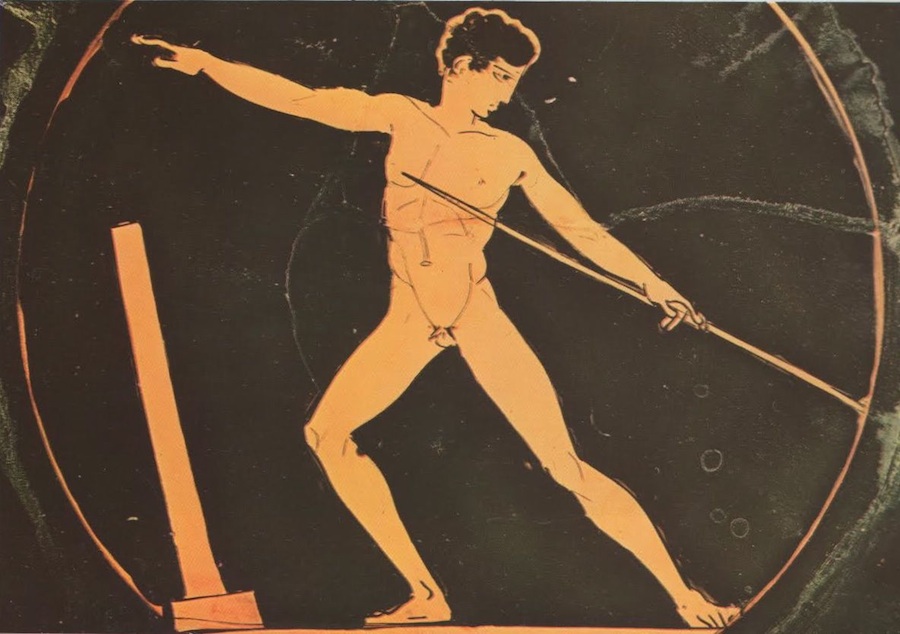
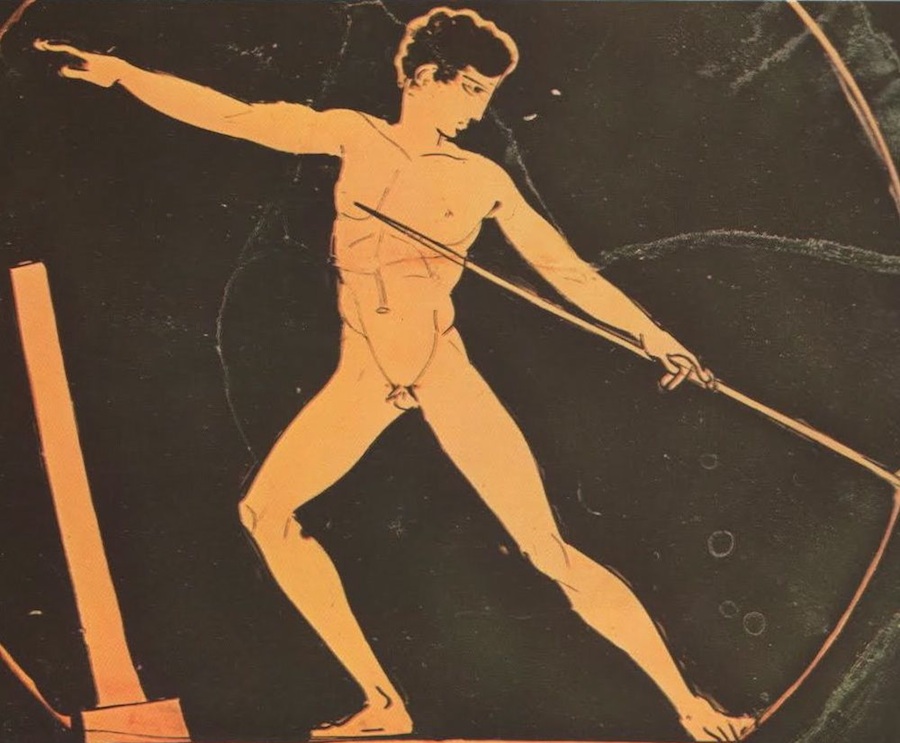
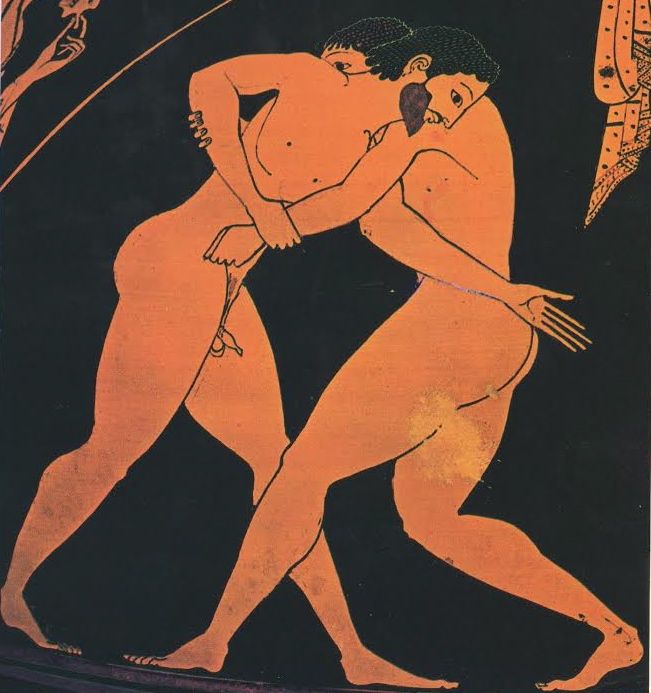

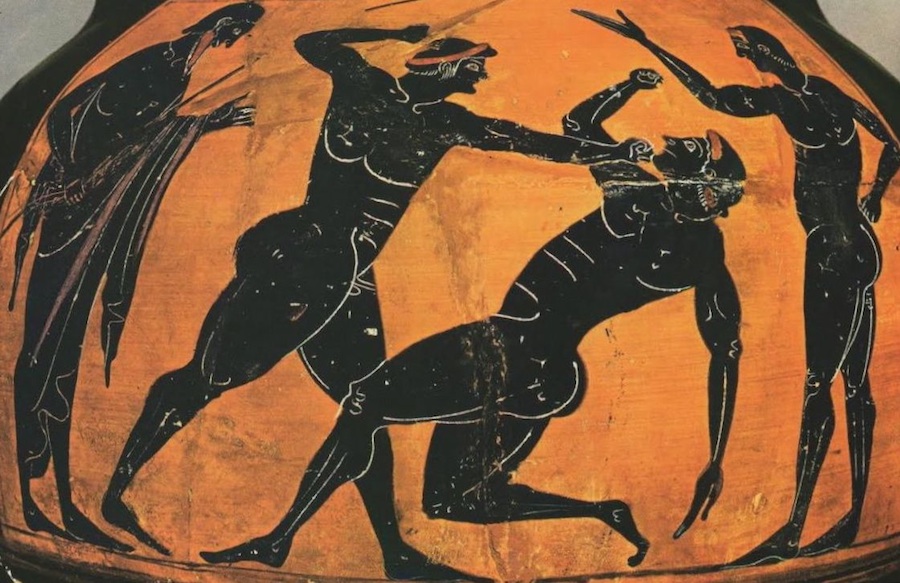

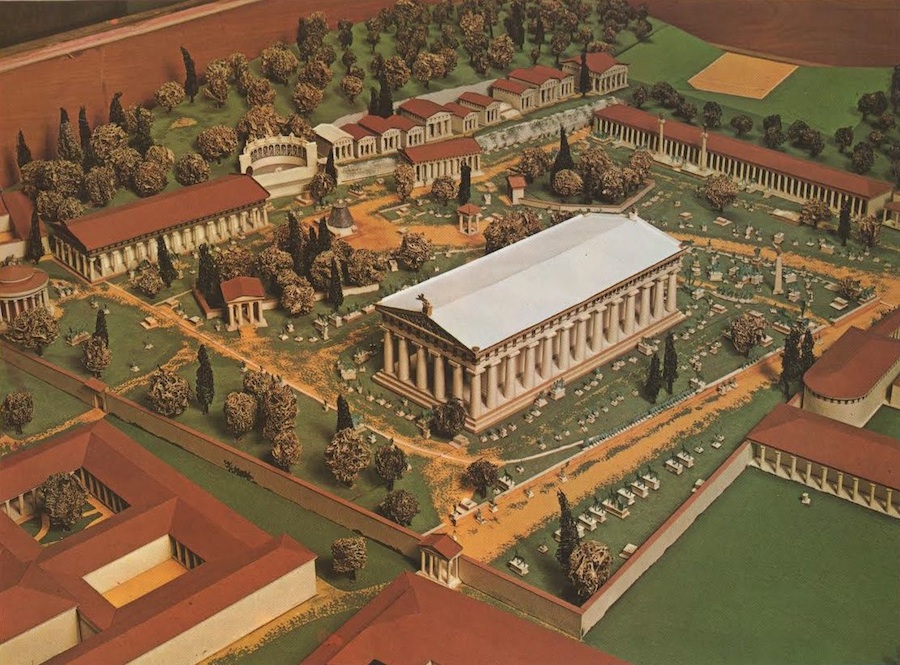









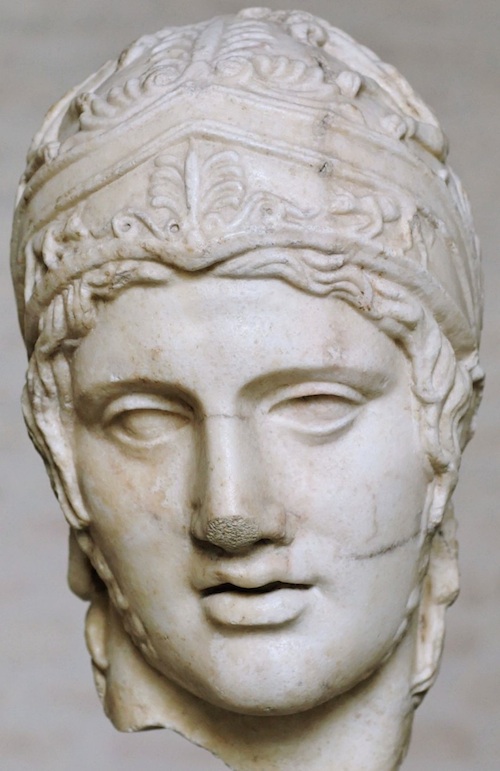











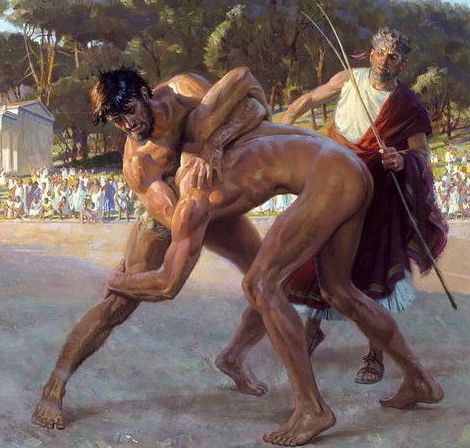
MANHOOD: A LEXICON
WARRIOR KOSMOS WARRIOR SANCTION
ARES is LORD : MANHOOD is GOD
To Achieve Manhood through a Martial Order and
Combative Erectness and Aggressive Art
That is Proper and Apportioned to Men

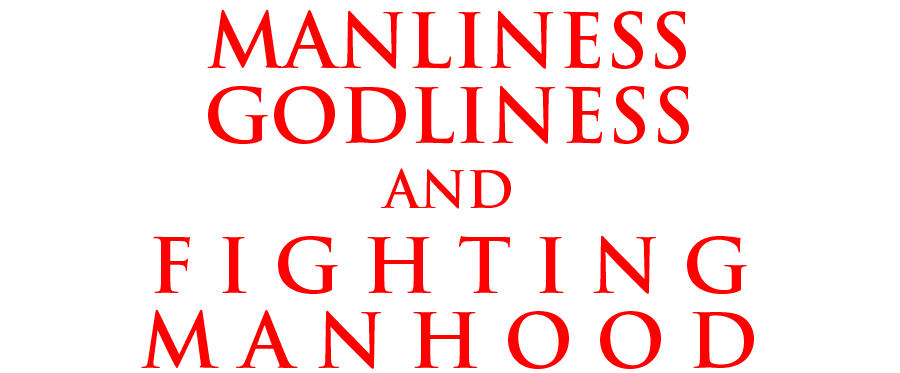







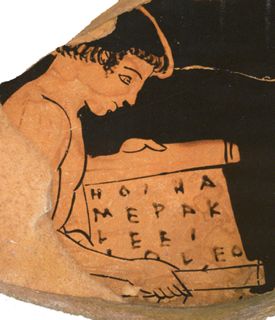

Ares, then, if you like, would be named for his Manliness [arren] and Manhood [andreion], and for his hard and unbending nature, which is called arratos ; so Ares would be in every way a fitting name for the God of Battle, Fight, War [polemikos Theos].
The Gods are always good and help us ; they never harm us. We, when we are good, are by our likeness given union with them ; if we become bad, we are separated from them. Our sins prevent the divine brightness from shining on us and subject us to chastising spirits : it is as false to say that the Gods shun the evil as it is to say that the sun hides himself from the blind. If by prayers and sacrifices we find release from our sins, the explanation is that by our acts and by turning to the divine, we cure our evil and enjoy the Goodness of the Gods again ; we do not effect any change in them.
A God, who watched over Sparta,
to become like God, so far as this is possible ; and to become like God is to become righteous [dikaios] and holy [hosios -- pious and hallowed] in union with thoughtfulness -- prudence [phronesis]





In ancient myth, Manly Moral Order is first established by Heroes, including Herakles and Theseus among the Greeks,
and Hercules among the Romans, who travel the world, ridding it of criminals and monsters.
In this painting, Herakles kills Antaios, who forced every passerby into a fatal
wrestling match, by wrestling him and lifting him off his mother, the earth,
from which he derived his strength, and then crushing his ribs.
God is in no wise and in no manner unrighteous [adikos], but utterly and perfectly righteous [dikaiotatos = most righteous = superlative of dikaios], and there is nothing so like him as that one of us who in turn becomes most nearly perfect in righteousness [that is to say, no one of us is so like unto God as the one who becomes most nearly perfect in the expression of Manly Moral Order -- which is Manly Moral Righteousness.]

















it is impossible to escape from other men's wrongdoings, when they are cruel and hard to remedy, or even wholly irremediable, otherwise than by victorious [nikao] fighting [machomai] and self-defence [amuno], and by punishing most rigorously ; and this no soul can achieve without noble passion [thumos gennaios].
that it's impossible to escape from other men's wrongdoings, when they are cruel, hard to remedy, or even wholly irremediable, other than by victorious fighting and self-defence, and by punishing most rigorously ; and this no soul can achieve without noble passion -- which is Selfless Fighting Manhood.
When amongst the spoils [taken from the defeated Persians at Plataia], some people were amazed at the extravagance of the Persians' clothing, he said: 'Better for them to be men of great worth rather than have possessions of great worth.'
MANHOOD
WORTH
ANCIENT GREECE
FIGHTING
FIGHTING
Modern America
fucking
greed
Where the kings were deprived of their power, authority passed to the local aristocracy. Thus the great step forward was made from government by a single ruler to government by a group of men. The new rulers were the descendants of Warriors who had seized land and established estates during the Dark Age. Initially, only landowners could be aristocrats ; later, some wealthy merchants and manufacturers were admitted to the class.
Bill Weintraub:
In lines 20-22 [of Olympian 10], Pindar adumbrates four elements required for success : natural ability, training, divine assistance, and effort.
With the help of a God [syn Theos], one man can sharpen [thego] another who is born [phua] for excellence [areta -- Manly Excellence], and encourage him to tremendous achievement. Without toil [a-ponos] only a few have attained joy, a light of life above all labors.
Native valor [areta], training sharp [thego], and a God's favor can raise a mortal to great fame. Only some few reach joy without toil [a-ponos], light without darkness.
We are both warlike [polemikos] and wise [euboulos], and it is our sense of order [eukosmos] that makes us so. We are warlike, because self-control [sophrosyne] contains honor [aidos] as a chief constituent, and honor bravery [eupsychia]. And we are wise, because we are educated with too little learning to despise the laws [nomos], and with too severe a self-control to disobey them, and are brought up not to be too knowing in useless matters -- such as the knowledge which can give a specious criticism of an enemy's plans in theory, but fails to assail them with equal success in practice -- but are taught to consider that the schemes of our enemies are not dissimilar to our own, and that the freaks of chance are not determinable by calculation.
Bill Weintraub:
Bill Weintraub:
] in that case seethe and grow fierce (and also because of his suffering hunger, cold and the like) and make itself the ally of what he judges just [dikaios] ; and in noble [gennaios] souls it endures and wins the victory and will not let go . . .
Remember that the Greek for 'good' [agathos] does not merely have the narrow ethical sense we give it, but is the adjective corresponding to the noun areté, and so means 'excellent' in any way. From that point of view ethics is only a special case of the effort made by all things to achieve perfection.
[I]f an eye [ophthalmos] is to see [eidon] itself [autos] it must look at an eye, and at that region [topos] of the eye in which the areté [excellence] of an eye is found to occur ; and this, I presume, is sight [opsis -- eyesight, vision].
[I]f, again, you asked me, "What becomes present in a better [ameinon -- irr. comp. of agathos, which is the adjectival form of Areté -- thus, more excellent] condition of the eyes?" -- I should answer in just the same way, "Sight [opsis] becomes present, and blindness [tuphlotes] absent." So, in the case of the ears [ous], deafness [kophotes] is caused to be absent [apo-gignomai], and hearing [akoe] to
be present [para-gignomai], when they are improved [beltio-o] and getting better treatment.
goodness, excellence, of any kind, esp. of manly qualities, manhood, valour, prowess, Hom., Hdt. (like Lat. vir-tus, from vir).
[I]t is permissible to show pity to the man that has evils that are remediable, and to abate one's passion and treat him gently, and not to keep on raging like a scolding wife ; but in dealing with the man who is totally and obstinately perverse and wicked one must give free course to wrath.
"It is impossible to escape from other males' wrongdoings, when they are cruel and hard to remedy, or even wholly irremediable, otherwise than by victorious fighting and self-defence, and by punishing most rigorously ; and this no soul can achieve without Fighting Manhood."
(like Lat. vir-tus, from vir)



is instantiated by his battered and bloody face ; while his raised arms instantiate his Ability --
the martial merit, virile value, and warrior worth, he needs -- to Defeat his Opponent.







goodness, excellence, of any kind, esp. of manly qualities, manhood, valour, prowess, Hom., Hdt. (like Lat. vir-tus, from vir).
This is the tomb of Arniadas. Him flashing-eyed Ares destroyed as he fought by the
ships at the streams of Aratthus, displaying the highest valor [aristeia] amid the groans and shouts of War.
The Greek nobles believed that the real test of manly virtue [Areté] was victory in battle -- a victory which was not merely the physical conquest of an enemy, but the proof of hard-won areté.
Although men went to war initially because their cities' reputations were at stake, they also did so for personal gain and for personal satisfaction. The Fighting was essentially hand-to-hand, taxing a Man to his utmost, physically and mentally. Thus war gave a Man an opportunity to display those qualities most admired by his fellows. His prowess not only gained him their admiration [Kleos and / or Timé] but also brought honor [Timé] to his city and was in equal measure a source of pride [Timé -- pride is a concomitant of Honour] to himself and his family. Some idea of the intensity of this
public pridefulness can be gotten from an epitaph on a stone slab in a tomb, dating from about 600 B.C., found on the island of Corcyra. It honors the courage in battle of a warrior felled by Ares, the God of War:
This is the tomb of Arniadas. Him flashing-eyed Ares destroyed as he fought by the ships at the streams of Aratthus, displaying the highest valor [aristeia] amid the groans and shouts of war.
But his Manly Virtue survives the mortal, and lives on in his glory, in that very ideal of his Fighting Manhood which accompanied and directed him throughout his life.
Stranger, the dust that brings glory to men conceals here in its bosom Timocritus [Timé - kritos = Honour - Chosen], honoured [timao] by the Muses. For when the brave man [agathos -- Manly Man] came into conflict with the sons of the Aetolians on behalf of his homeland, it was his desire either to be victorious [nikao] or to die. He fell among the front ranks [promachos] and left his father with pain beyond measure, but he did not lose sight of his noble [kala] upbringing [paideia]. Taking to heart the Spartan declaration of Tyrtaios, he chose valour [areta -- Fighting Manhood, Manly Goodness, Manly Excellence] ahead of life [bios].
] in that case seethe and grow fierce and make itself the ally of what he judges just [dikaios] ; and in noble [gennaios] souls it endures and wins the victory and will not let go until either it achieves its purpose, or death ends all.
Let every one of us be ambitious [philonikia] to gain excellence [areté -- Manhood, Manly Goodness, Manly Excellence], but without jealousy. For a man of this character enlarges a State [polis -- city-state], since he strives hard himself and does not thwart the others by calumny [false accusation, slander] ; but the jealous man, thinking that calumny of others is the best way to secure his own superiority, makes less effort himself to win true excellence [which, again, is areté -- Manhood], and disheartens his rivals by getting them unjustly blamed ; whereby he causes the whole city-state to be ill-trained for competing in Manliness, and renders it, for his part, less large in fair repute.
Eighth-century Eurypontid [Spartan] king, also called Charilaus
Sparta was supreme in andreia.
Let every one of us be ambitious [philonikia - victory-loving] to gain excellence [areté -- Manhood, Manly Excellence], but without jealousy. For a man of this character enlarges a State [polis -- city-state], since he strives hard himself and does not thwart the others by calumny [false accusation, slander] . . .
The Gods are always good and help us ; they never harm us.
We, when we are good, are by our likeness given union with them ; if we become bad, we are separated from them.
God is in no wise and in no manner unrighteous [adikos], but utterly and perfectly righteous [dikaiotatos = most righteous = superlative of dikaios], and there is nothing so like him as that one of us who in turn becomes most nearly perfect in righteousness [that is to say, no one of us is so like unto God as the one who becomes most nearly perfect in the expression of Manly Moral Order -- which is Manly Moral Righteousness.]
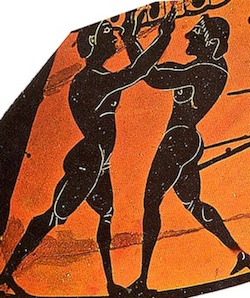
"Then will not law-suits and accusations against one another vanish, one may say, from among them, because they have nothing in private possession but their bodies, but all else in common? So that we can count on their being free from the dissensions that arise among men from the possession of property, children, and kin."
there could not rightly arise among them any law-suit for assault or bodily injury. For between age-fellows[1] and comrades we shall say that to defend oneself, to repel an assault is morally beautiful and just, well-ordered, and righteous, thereby compelling them to keep their bodies in condition.
[1] Cf. [compare] A.J.P. vol. xiii. p. 364, Aeschines iii. 255, Xenophon Rep. Lac. 4. 5, Laws 880 A.
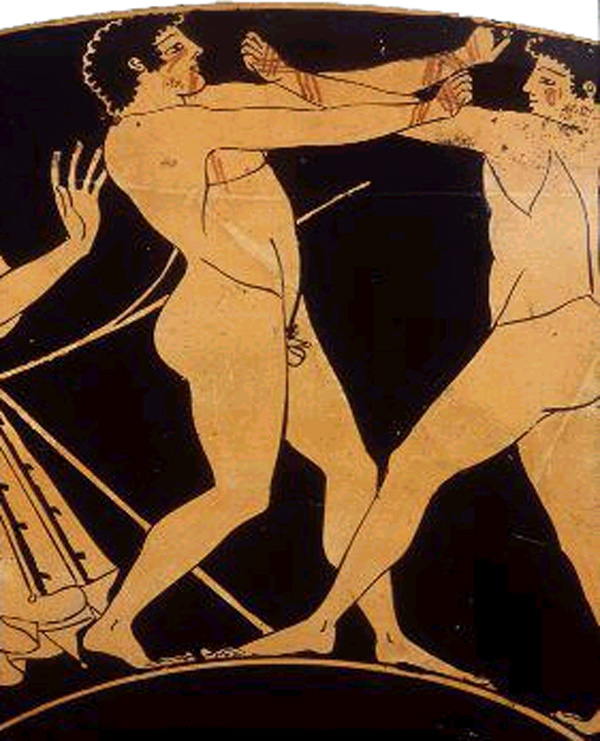

when a man believes himself to be wronged, does not his spirit in that case seethe and grow fierce and make itself the ally of what he judges just [dikaios] ; and in noble [gennaios -- high-minded] souls it endures and wins the victory and will not let go



embraces all qualities which are desirable in a perfect man, especially the more active and positive virtues.
The word andreia has a much wider meaning than the English "courage."
Andreia embraces all the Qualities which are desirable in a Perfect Man, especially the more Active and Positive Virile Virtues and Noble Excellences.

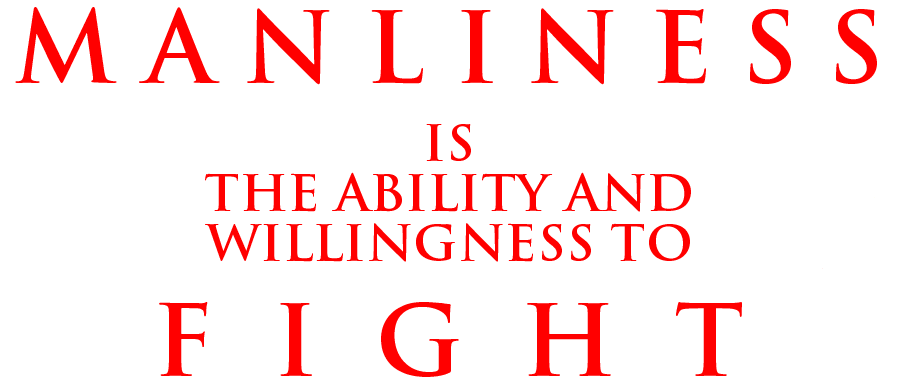
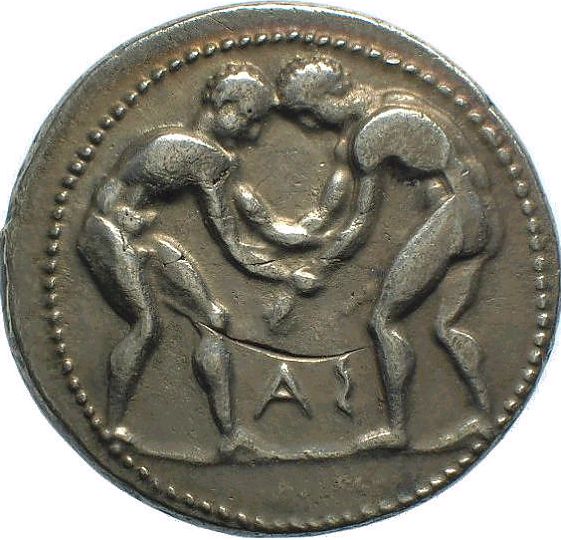
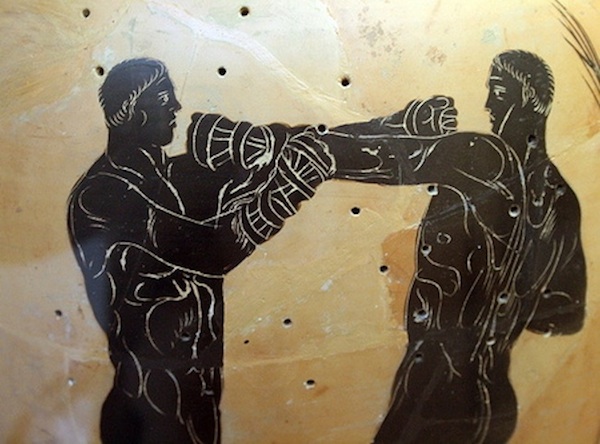

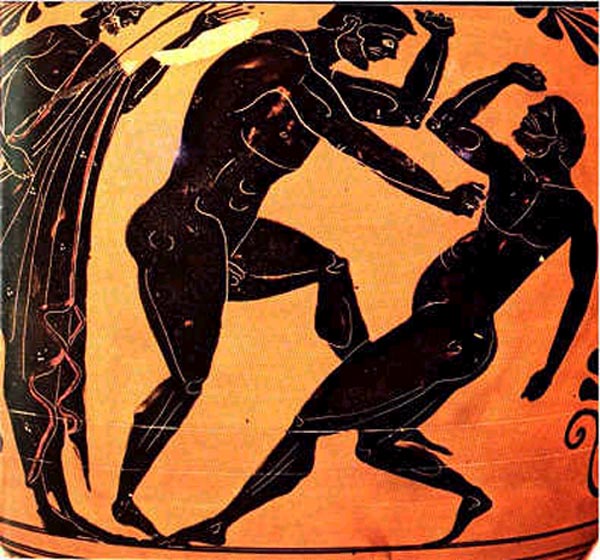
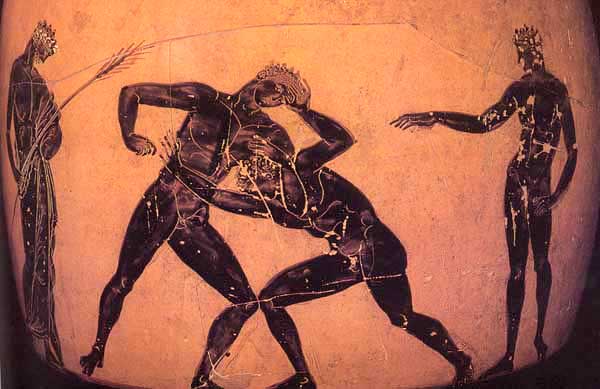
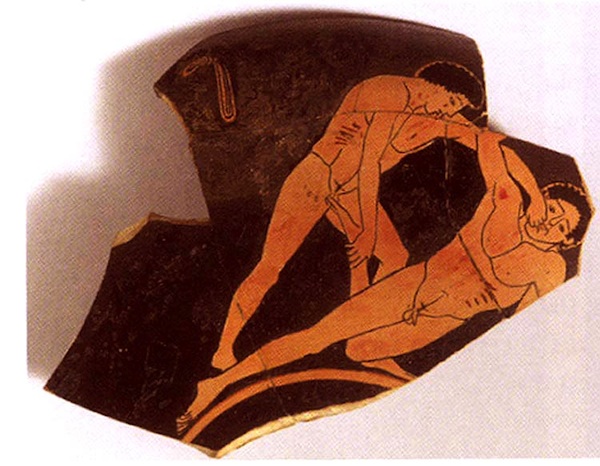
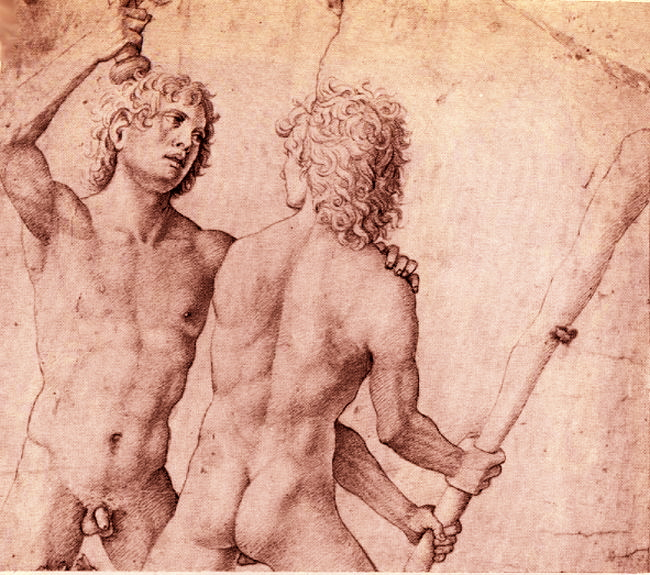












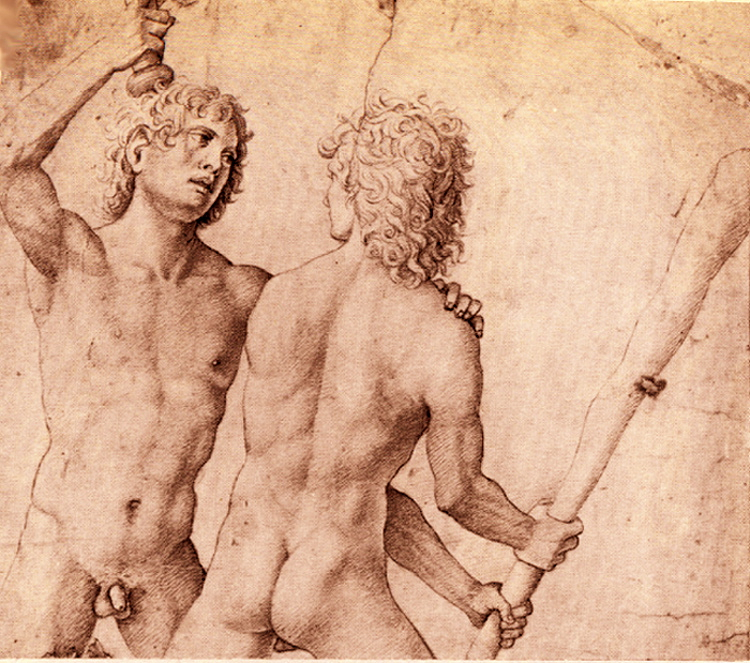

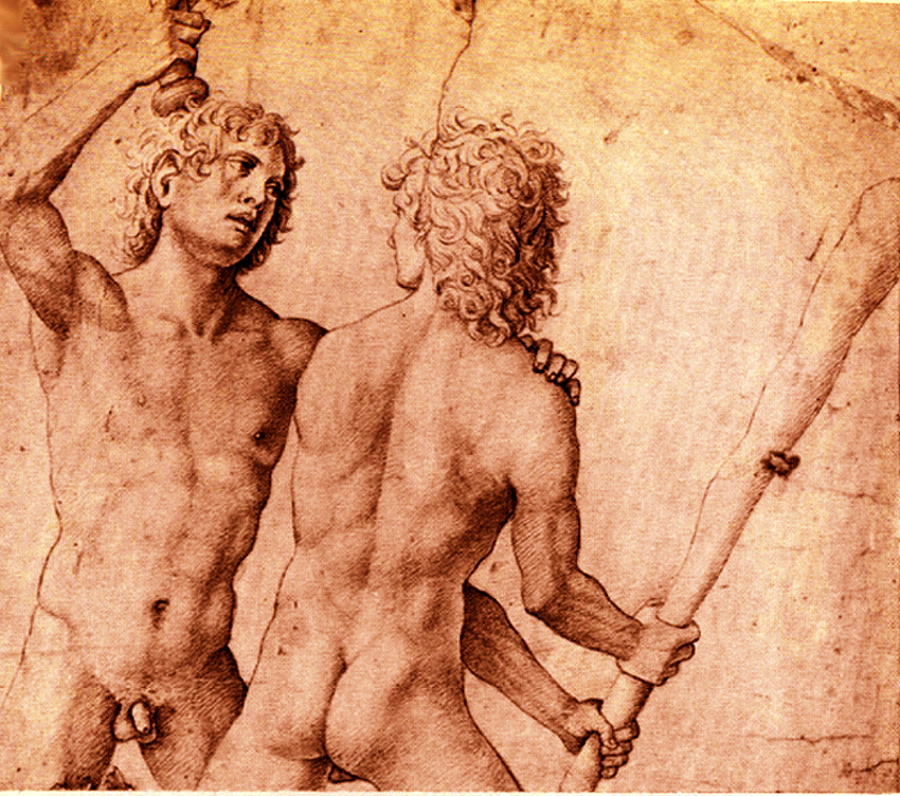

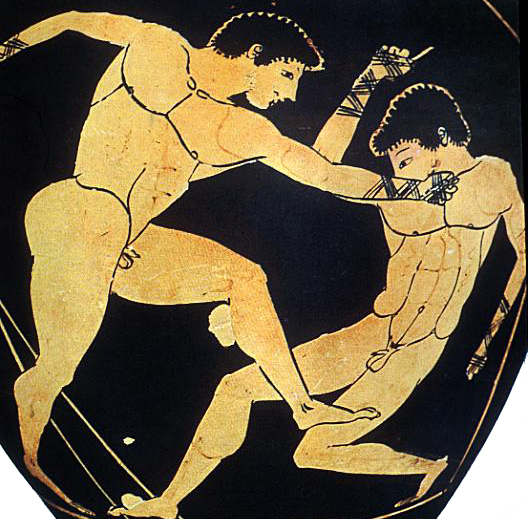

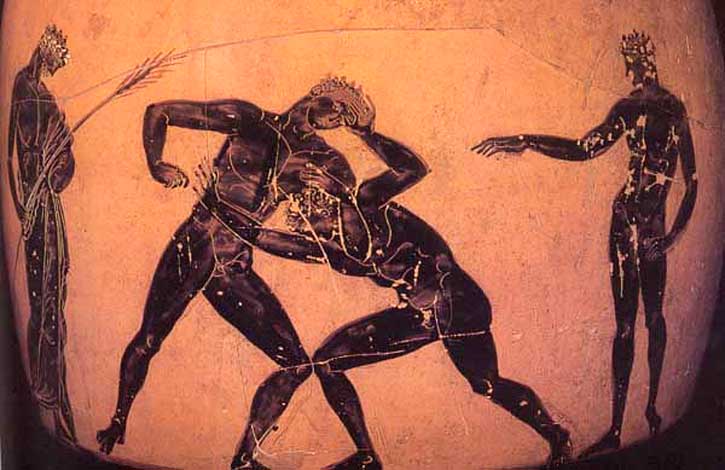





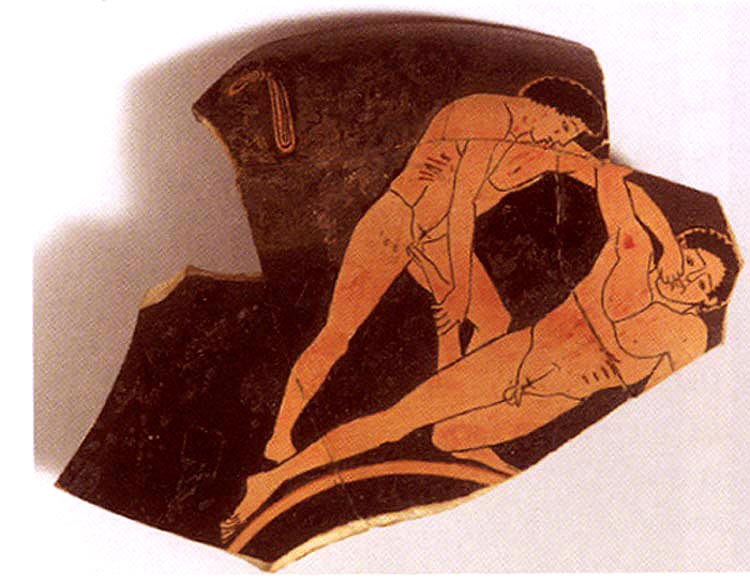


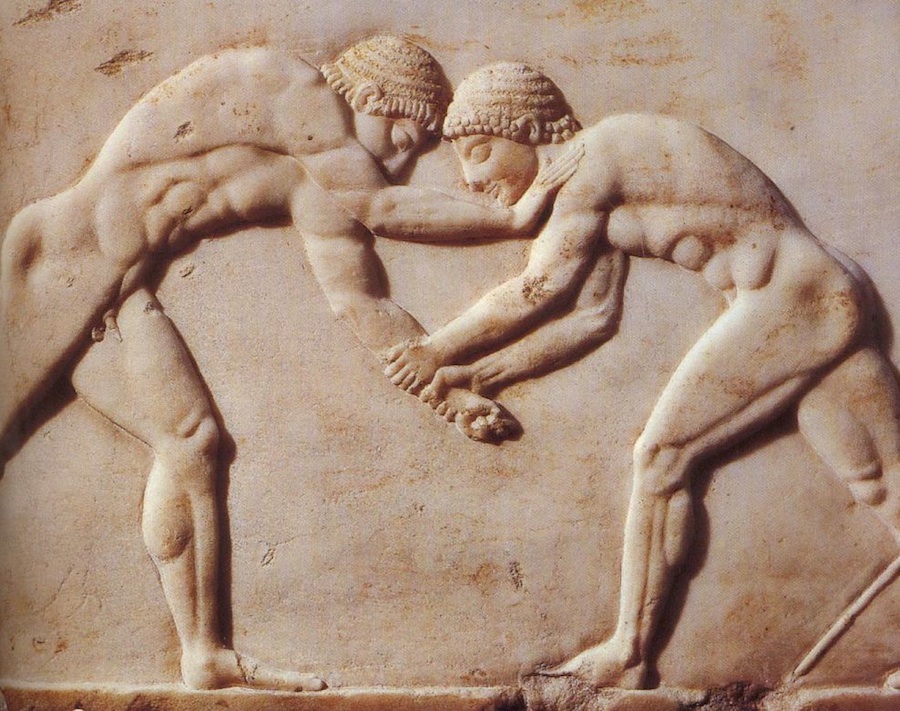



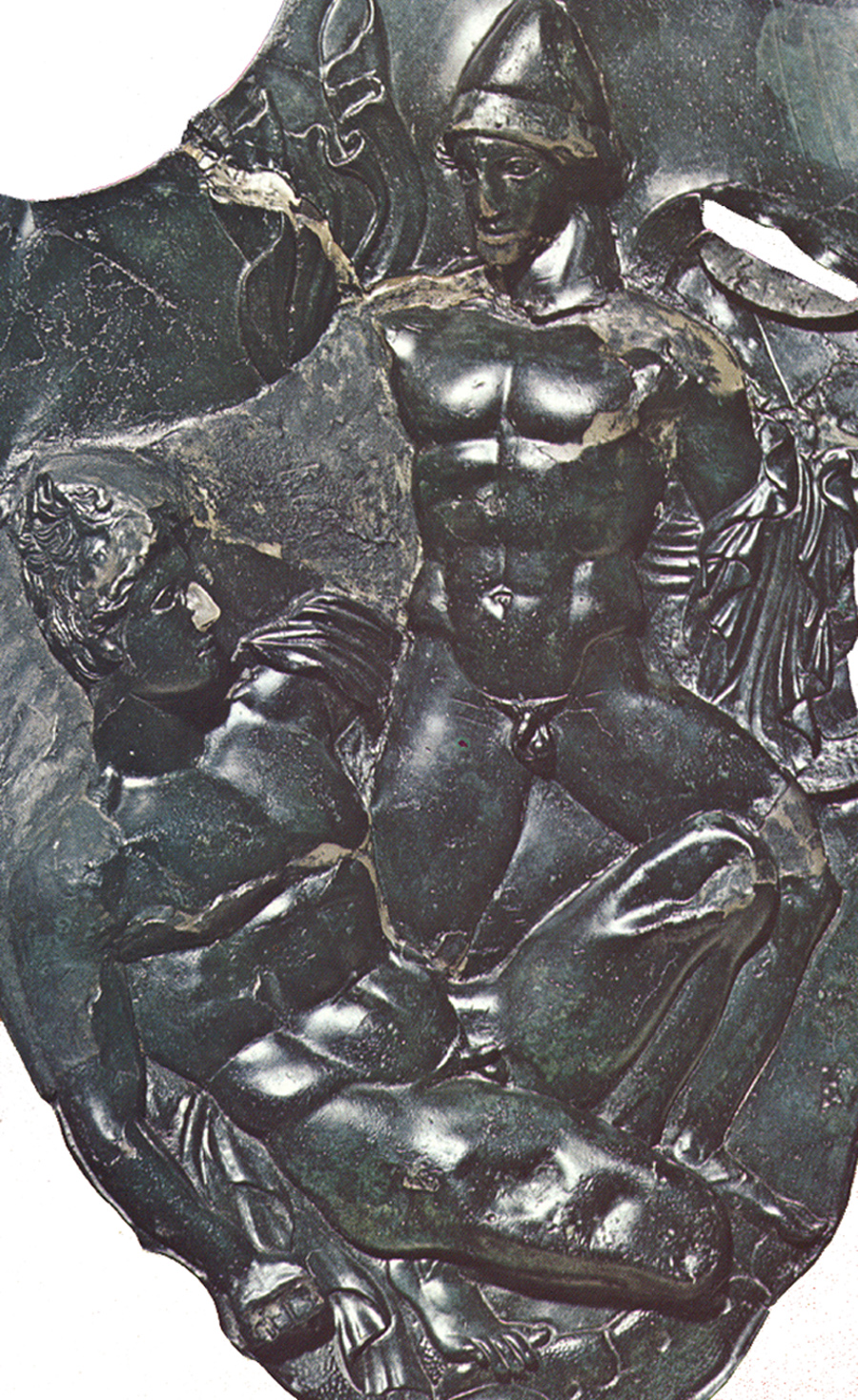




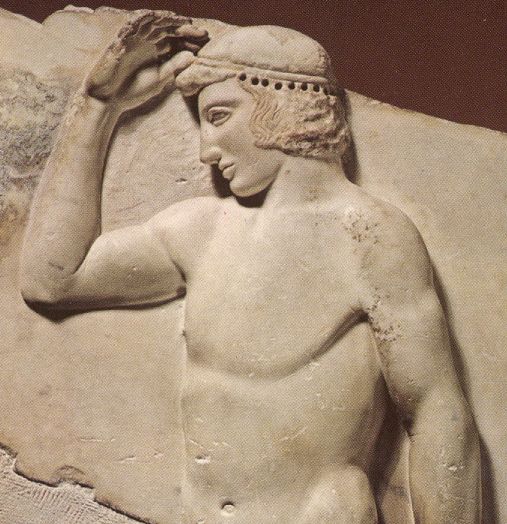
In many details, the ethical doctrines of Plato and Aristotle were founded on the aristocratic morality of early Greece.

Lykourgos didn't put his laws, his rhetrai, into writing, and indeed one of the rhetrai forbids doing so.
After the defeat [hessa -- derives from hesson] of Agis [the Spartan King Agis III, who wasn't just defeated, but was killed by the Macedonians in 331 BC], Antipater [,the Macedonian in charge of Greece while Alexander was in Asia,] demanded fifty boys [pentekonta paides] as hostages [homeros], but Eteocles, who was Ephor, said they would not give boys, lest the boys should turn out to be uneducated [apaideutos] through missing the traditional [patrios -- derived from one's fathers, hereditary] discipline [agogé -- discipline and upbringing, that being the public education, say Liddell and Scott, of the Spartan youth] ; and they would not be fitted for citizenship [polites -- only Warriors who'd been through the agogé could vote in the ekklesia and hold public office] either. But the Spartans would give, if he so desired, either old men or women to double the number. And when Antipater made dire [deinos] threats if he should not get the boys, the Spartans made answer [apokrino] with one consent [koinos -- in common, that is, shared, language], 'If the orders [epitasso] you lay upon us are harsher [chalepoteros] than death [thanatos], we shall find it easier [eukoloteros] to die [apothnesko].'
Sokrates
Writing, Phaidros, has this strange quality, and is very like
painting ; for the creatures of painting stand like living beings, but
if one asks them a question, they preserve a solemn silence. And so it
is with written words ; you might think they spoke as if they had
intelligence, but if you question them, wishing to know about their
sayings, they always say only one and the same thing. And every word,
when once it is written, is bandied about, alike among those
who understand and those who have no interest in it, and it knows not
to whom to speak or not to speak ; when ill-treated or unjustly reviled
it always needs its father to help it ; for it has no power to protect
or help itself.
You are quite right about that, too.
Now tell me; is there not another kind of speech, or word, which shows
itself to be the legitimate brother of this bastard one, both in the
manner of its begetting and in its better and more powerful nature?
What is this word and how is it begotten, as you say?
The word which is written with intelligence in the mind of the
learner, which is able to defend itself and knows to whom it should
speak, and before whom to be silent.
You mean the living and breathing word of him who knows, of which the
written word may justly be called the image [eidolon].
Exactly.


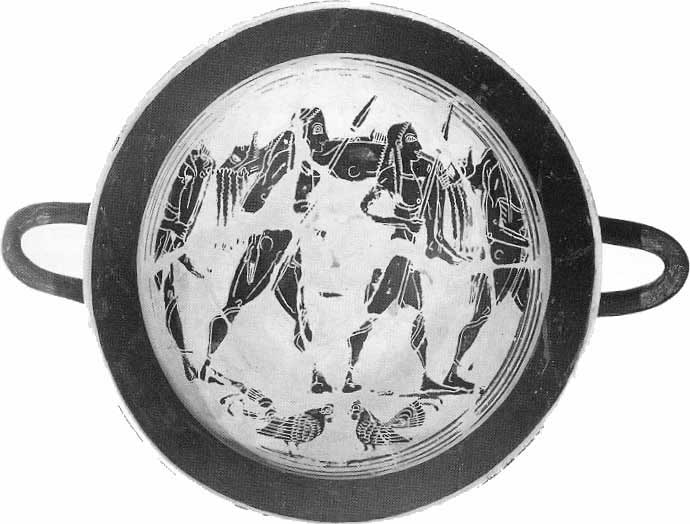
In this way the boys were accustomed to pass right judgements [ta kala -- to understand what is Morally Beautiful, what constitutes a Noble Achievement, what contributes to Manly Moral Order, etc] and interest themselves at the very outset in the conduct of the citizens [polites].
An aside :
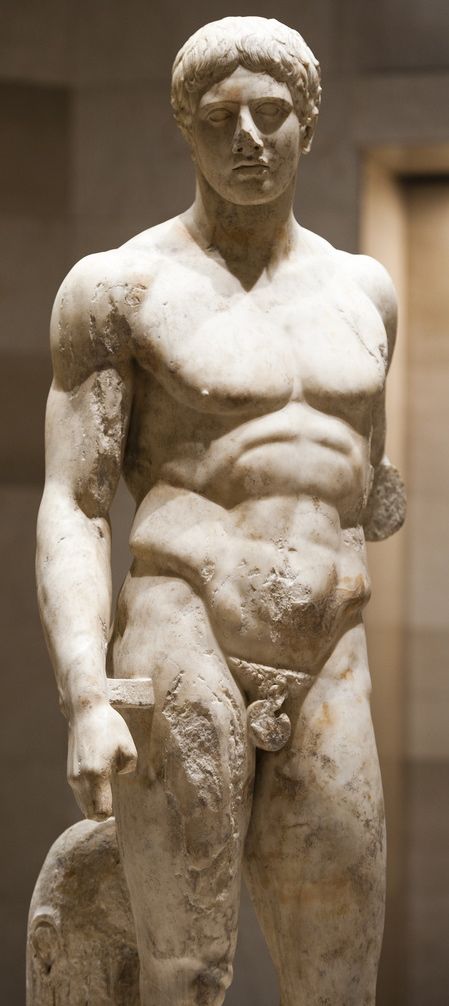
In this way the boys were accustomed to pass right judgements [ta kala -- to understand what is Morally Beautiful, what constitutes a Noble Achievement, what contributes to Manly Moral Order, etc] and interest themselves at the very outset in the conduct of the citizens [polites].
For if one of the boys was asked who was a good citizen [polites agathos -- Manly and Good], or who an infamous one [ouk -- NOT eudokimos -- of good repute], and had no answer to make, he was judged to have a torpid [nothros] spirit [psyche], and one that would not aspire [aphilotimos -- not loving honour, lacking that love of Worth which inspires and leads a youth --] to excellence [Areta -- Manly Excellence, Manly Goodness, Fighting Manhood].
"Is not the logical first step towards such an agreement to ask ourselves what we could name as the greatest good for the constitution of a state and the proper aim of a lawgiver in his legislation, and what would be the greatest evil, and then to consider whether the proposals we have just set forth fit into the footprints of the good and do not suit those of the evil?"
'Say not so, Strangers [Xene] ; Brasidas was noble [kalos -- selfless] and brave [agathos -- Manly], but Sparta has many better men than he.'
Sparta has many better -- [karron, which is Dorian for kreisson, which is a comparative of agathos] -- more Manly -- Men -- than he.
For if one of the boys was asked who was a good citizen [polites agathos -- Manly and Good], or who an infamous one [ouk -- NOT eudokimos -- of good repute], and had no answer to make, he was judged to have a torpid [nothros] spirit [psyche], and one that was aphilotimos -- one that lacked that Love of Honour and Love of Worth which inspires and leads a youth to Areta -- Manly Excellence, Manly Goodness, Fighting Manhood.
We are both Warlike and Wise.
There is a very ancient and abundant [palaiotatos kai pleistos] philosophy which is more cultivated in Crete and Lakedaimon [Sparta -- both Crete and Sparta had been settled by Dorian Greeks] than in any other part of Hellas, and there are more philosophers in those countries than anywhere else in the world. This, however, is a secret which the Lakedaimonians deny; and they pretend to be ignorant, just because they do not wish to have it thought that they rule the world by wisdom, like the Sophists of whom Protagoras was speaking, and not by fighting and valour [machesthai kai andreia -- Fighting and Manhood] ; considering that if the reason of their superiority were disclosed, all men would be practising [askeo] their wisdom. And this secret of theirs has never been discovered by the imitators of Lacedaemonian fashions [Lakonizo] in other cities, who go about with their ears bruised [ous katagnumi] in imitation of them, and have the himantes bound on their arms, and are always in training [philogymnasteo -- love nude physical exercise], and wear short cloaks ; for they imagine that these are the practices which have enabled the Lakedaimonians to conquer [krateo] the other Hellenes.
και
ΜΗΔΕΝ ΑΓΑΝ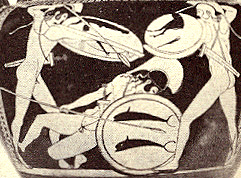


[Areté / Areta is] goodness, excellence, of any kind, esp. of manly qualities, manhood, valour, prowess (like Lat. virtus, from vir)
From the same root [ARES] come areté, ari-, areion [better], aristos [best], the first notion of goodness being that of manhood, bravery in war; cf. Lat. virtus.

Are the pleasant [hedus] and the good [agathos] the same thing? Not the same, as Kallikles and I agreed. Is the pleasant thing to be done [prakteos] for the sake [eneka] of the good, or the good for the sake of the pleasant? The pleasant for the sake of the good.
Because their superiority supposedly came from the favor of the Gods, the aristocrats considered that they were "good" men.
the word "good" is quite properly in quotation marks.
[F]or them [the Greeks] "good" was by no means an exclusively or even predominantly ethical concept. Goodness, or areté, was an intrinsic excellence that existed in all things.
Are the pleasant [hedus] and the good [agathos] the same thing?
Are the pleasant [hedus] and the excellent [agathos] the same thing? Not the same, as Kallikles and I agreed. Is the pleasant thing to be done [prakteos] for the sake [eneka] of the excellent, or the excellent for the sake of the pleasant? The pleasant for the sake of the excellent.
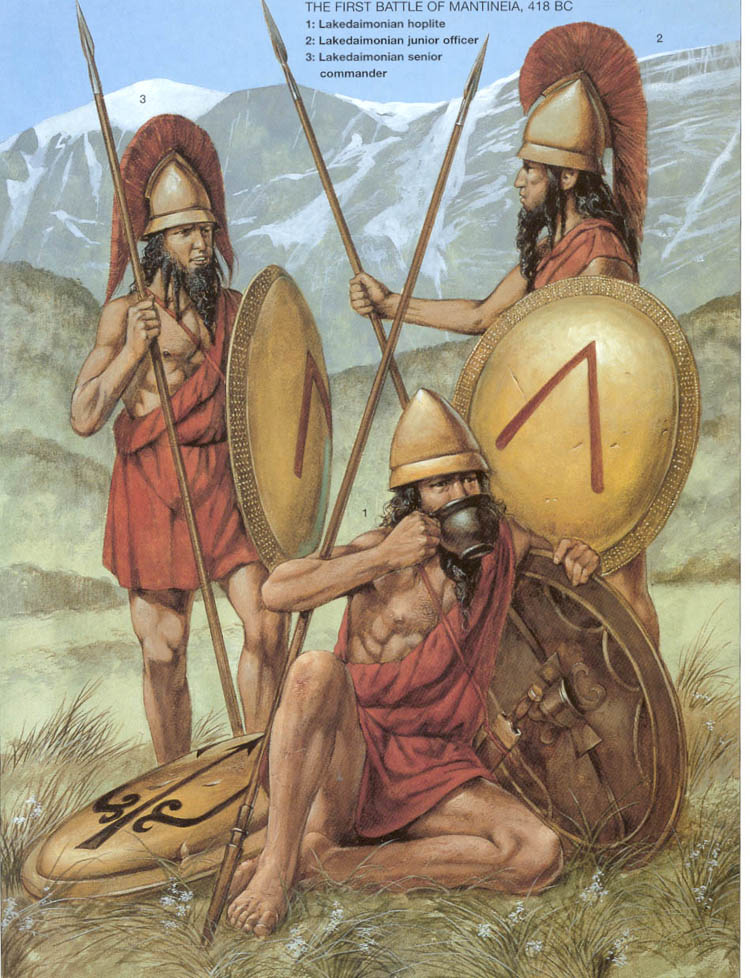
A Spartan Hoplite drinks from a Kothon
In this Osprey artist's reconstruction, note the absence of body armour, the crimson cloaks aka Tribon,
the revealing Pilos helmets, the lean and muscular bodies, the dreadlocked hair, the bare feet, and, on
the figure of the "junior officer," the broken nose and cauliflower ear, ikons, as Plutarch says, of Manhood.
Because this is the vase painting the illustration was based on :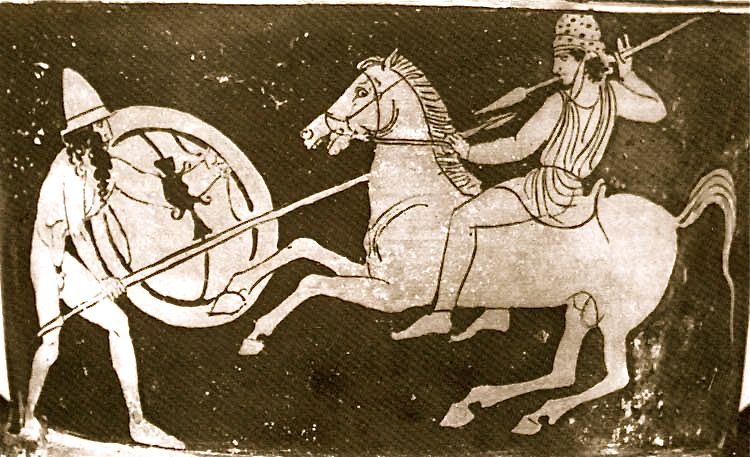
Then if an eye [ophthalmos] is to see [eidon] itself [autos] it must look at an eye, and at that region [topos] of the eye in which the virtue [Areté -- Excellence] of an eye is found to occur ; and this, I presume, is sight [opsis -- eyesight, vision].

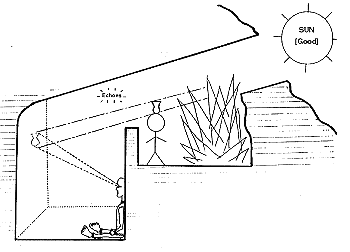
In Plato's parable, the cave-dweller
is shackled to the wall of the cave
and can only see colorless shadows
by driving them back with his inescapble hand.
Upon him the offspring [Kleandros] of his father's noble brother
casts no shame. Therefore, let one of his comrades,
in honor of the pankration, weave for Kleandros
a luxurious crown of myrtle,
since the contest of Alkathoos [another competition] and the youth
in Epidauros welcomed him before with good fortune.
A good man [agathos -- a Manly Man, a Fighting Man] has the means to praise him,
for he has not suppressed [damazo -- repressed] in a hole [cheia]
a youth [heba] without experience of noble deeds [kalon].
for he has not suppressed in a hole
a youth without experience of noble deeds."
Are the pleasant [hedus] and the Manly [agathos] the same thing? Not the same, as Kallikles and I agreed. Is the pleasant thing to be done [prakteos] for the sake [eneka] of the Manly, or the Manly for the sake of the pleasant? The pleasant for the sake of the Manly.
And is that thing pleasant by whose advent we are pleased, and that thing Manly by whose presence we are Manly? Certainly. But further, every Male who is Manly becomes Manly through the advent [paragignomai -- the arrival, realization, and presence] of Manly Excellence [Areta -- Manhood, Manly Goodness, which is Fighting Manhood].

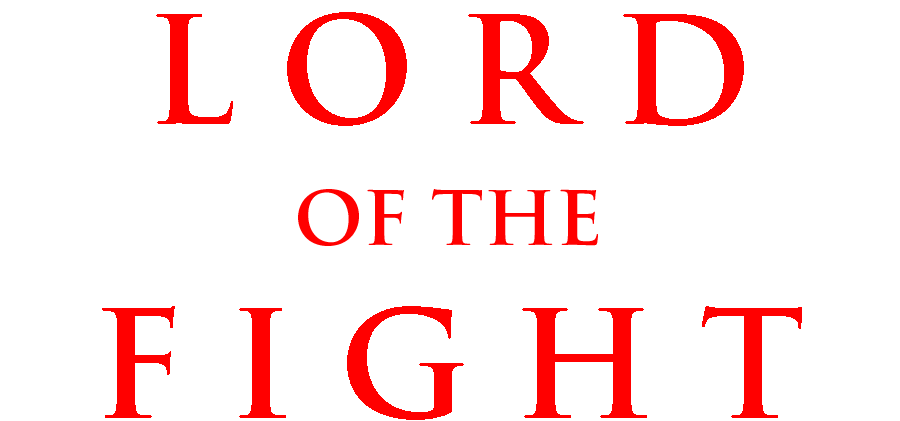
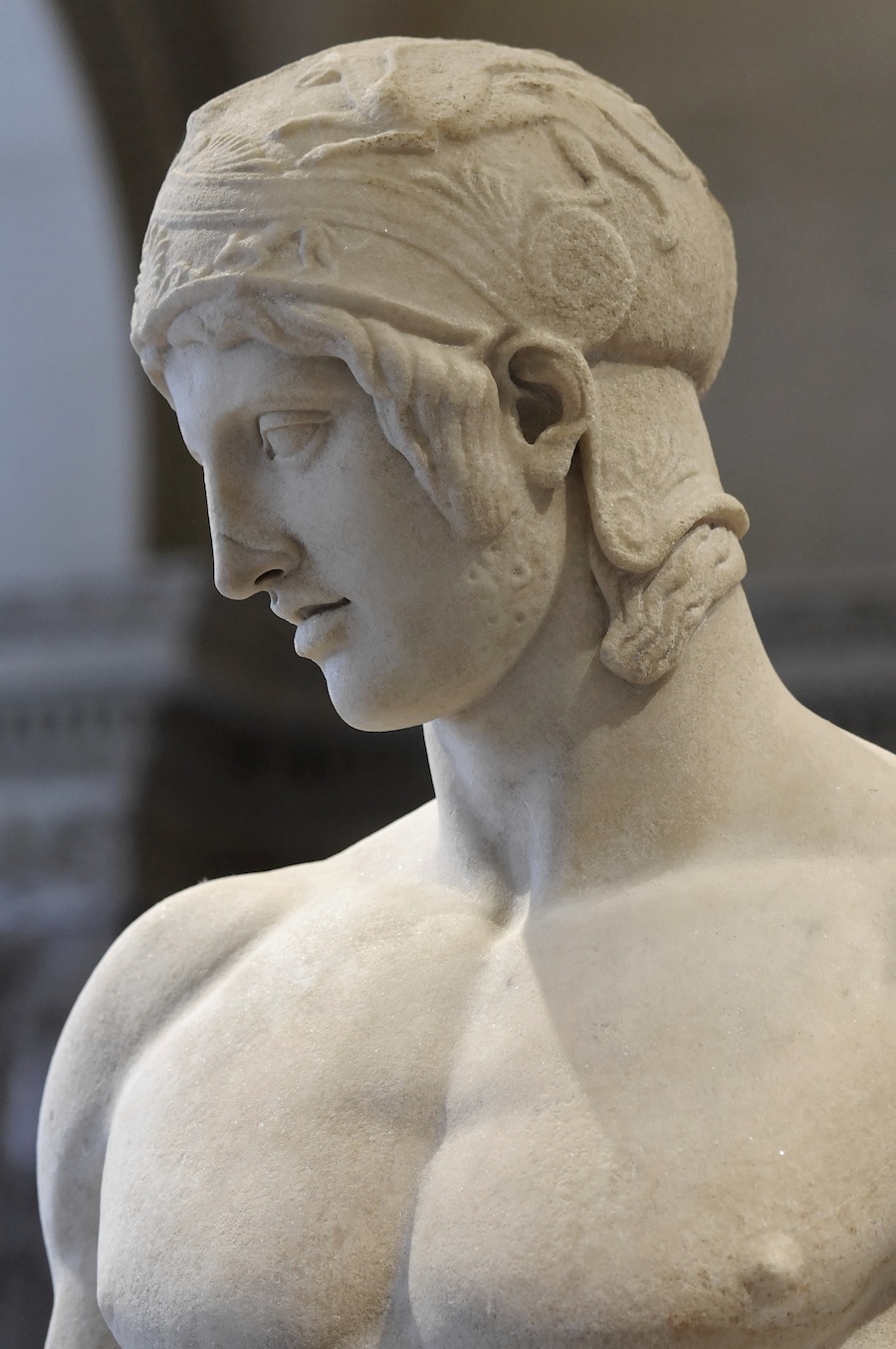















The Hero Herakles defeats and kills the criminal Antaios :

























Are the pleasant [hedus] and the good [agathos] the same thing? Not the same, as Kallikles and I agreed. Is the pleasant thing to be done [prakteos] for the sake [eneka] of the good, or the good for the sake of the pleasant? The pleasant for the sake of the good.

Goodness, or areté, was an intrinsic excellence that existed in all things.
an anticipation of the future -- that is to say, realized and fulfilled -- areté of its bearer; it sets, as it were, the Ideal Pattern for His Whole Life.
Goodness, or areté, is an intrinsic excellence that exists in all things.
From the same root [ARES] comes areté ... the first notion of goodness being that of manhood, bravery in war; cf. Lat. virtus.
goodness, excellence, of any kind, esp. of manly qualities, manhood, valour, prowess, Hom., Hdt. (like Lat. vir-tus, from vir).




























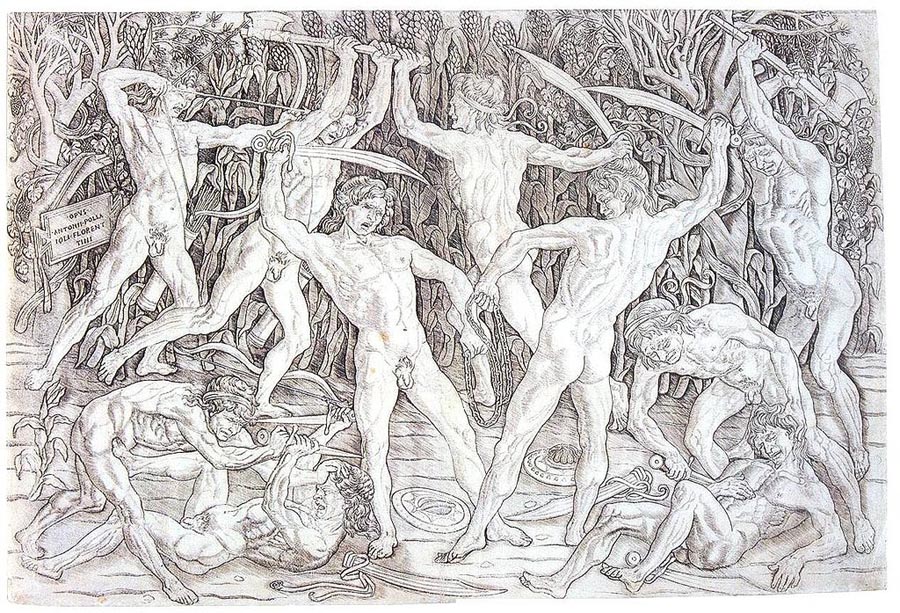
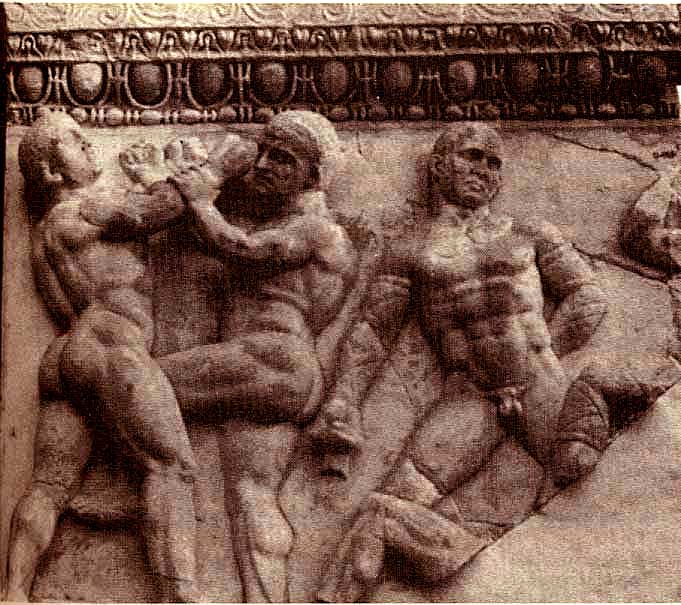


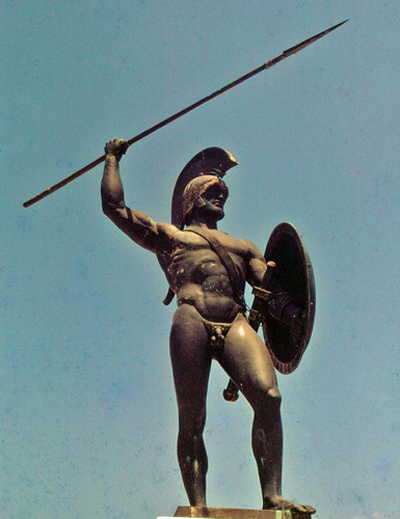














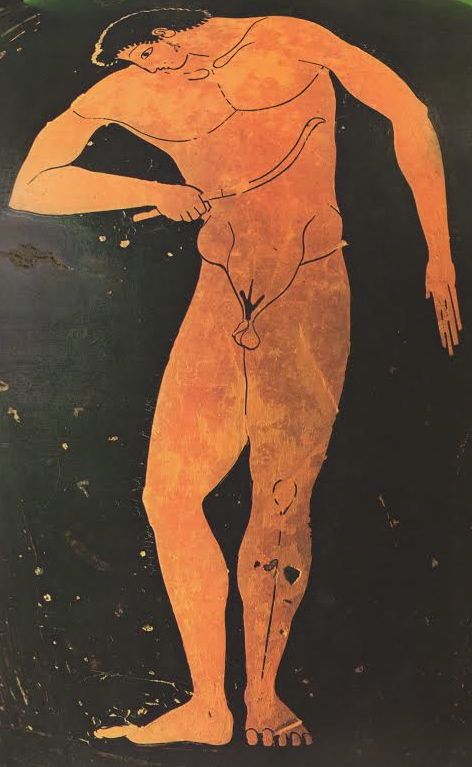
[Sokrates] exhorted his companions to practise [askeo] self-control [enkrateia] in the matter of [epithumia -- the desire for] eating and drinking, and sexual indulgence [lagneia], and sleeping, and endurance of cold and heat and toil [ponos]. Aware that one of his companions was rather intemperate [akolastos -- undisciplined, licentious] in such matters, he said: "Tell me, Aristippus, if you were required to take charge of two youths and educate them so that the one would be fit to rule [archo] and the other would never think of putting himself forward, how would you educate them? Shall we consider it, beginning with the elementary question of food?"
The mode of living which he followed personally was in no wise better than that of his associates. He refrained always from overeating and from heavy drinking. Sleep he treated, not as a master, but as governed at all times by what he had to do ; and such was his attitude towards heat and cold that he alone was able to make good use of the different seasons ; and in his tent, which was in the midst of his soldiers, he had no better bed than anybody else.
[Sokrates] exhorted his companions to practise [askeo -- the word askesis derives from askeo ] self-control [enkrateia] in the matter of [epithumia -- the desire for] eating and drinking, and sexual indulgence [lagneia], and sleeping, and endurance of cold and heat and toil [ponos]. Aware that one of his companions was rather intemperate [akolastos -- undisciplined, licentious] in such matters, he said: "Tell me, Aristippus, if you were required to take charge of two youths and educate them so that the one would be fit to rule [archo] and the other would never think of putting himself forward, how would you educate them? Shall we consider it, beginning with the elementary question of food?"





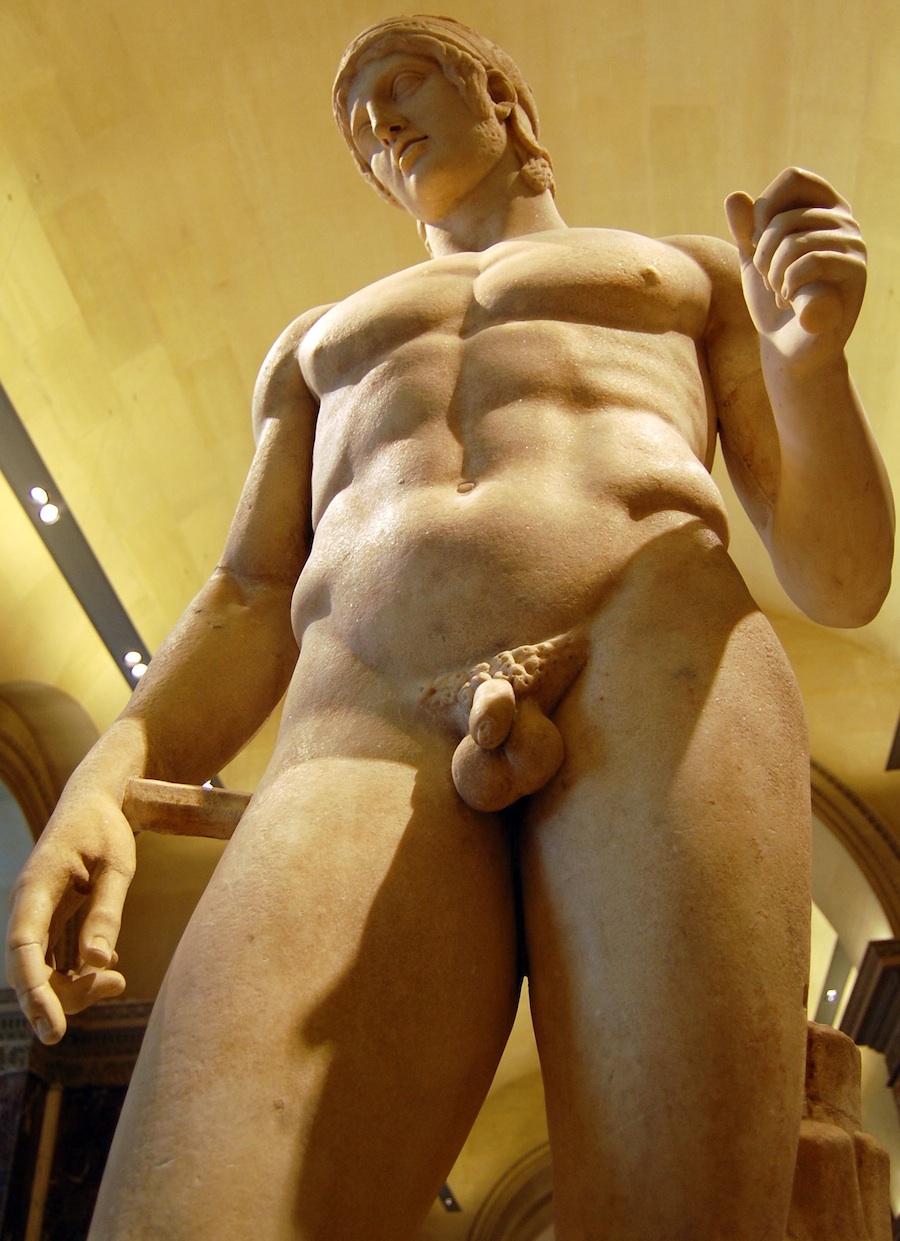











Πολεμιστης
Οβριμος
Θουρος
Χαλκεος
Βαθυπολεμος
Πολεμαδοκος
Βιατας
Stout and Strong
Plunged Deep in War
Fight-Sustaining









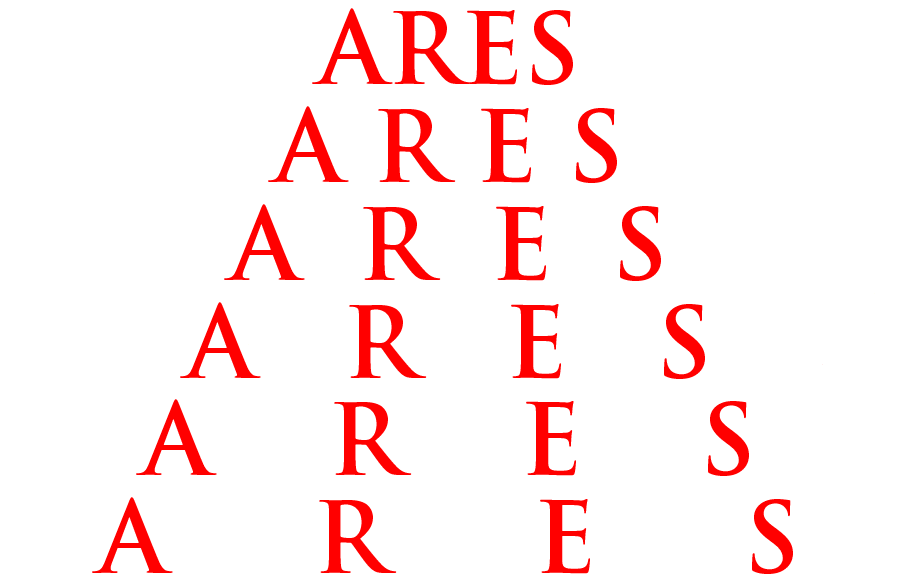























Πολεμιστης
Οβριμος
Θουρος
Χαλκεος
Βαθυπολεμος
Πολεμαδοκος
Βιατας
Stout and Strong
Plunged Deep in War
Fight-Sustaining




















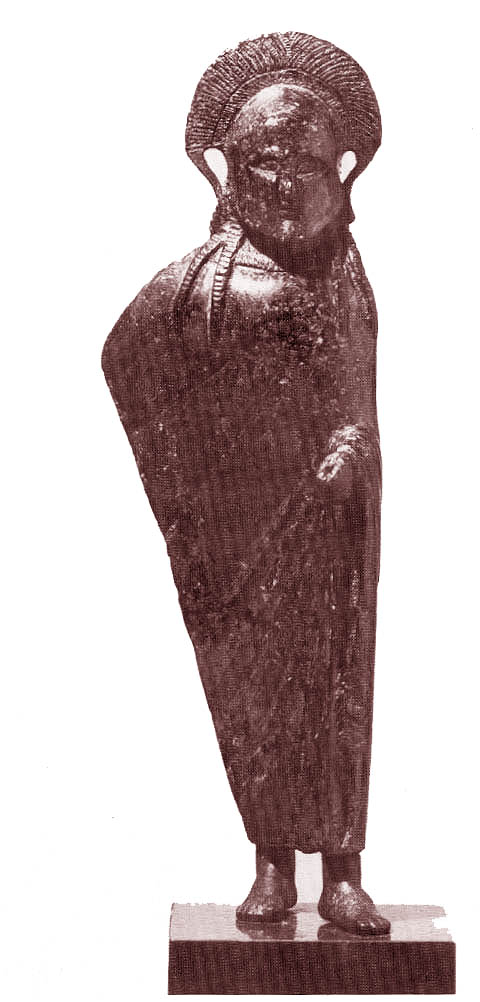
"[O]ur view of these matters must be this, that education [paideia] is not in reality what some people [ie, the sophists] proclaim it to be in their professions. [518c] What they [the sophists] aver is that they can put true knowledge into a soul that does not possess it, as if they were inserting vision [opsis -- eyesight, vision -- from orao -- to have sight] into blind [tuphlos] eyes [ophthalmos]."
When the Persians, under Cyrus [the Great, the founder of the Persian Empire], maintained the due balance between slavery and freedom, they became, first of all, free themselves, and, after that, masters of many others. For when the rulers gave a share of freedom to their subjects and advanced them to a position of equality [isos], the soldiers were more friendly towards their officers and showed their devotion in times of danger ; and if there was any wise man amongst them, able to give counsel, since the king was not jealous but allowed free speech and respected those who could help at all by their counsel -- such a man had the opportunity of contributing to the common stock the fruit of his wisdom. Consequently, at that time all their affairs made progress, owing to their freedom [eleutheria], friendliness [philia] and mutual interchange of reason [koinonia -- communion].
Probably that is pretty much the way in which the matters you speak of took place.
How came it, then, that they were ruined in Cambyses' reign, and nearly restored again under Darius? Shall I use a kind of divination to picture this?
Yes, that certainly will help us to gain a view of the object of our search.
What I now divine regarding Cyrus is this -- that, although otherwise a good and patriotic commander, he was entirely without a right [orthos -- erect, upright] education [paideia] , and had paid no attention to household management [oikonomia].
What makes you say this?
Probably he spent all his life from boyhood in soldiering, and entrusted his children to the women folk to rear up; and they brought them up from earliest childhood as though they had already attained to Heaven's favour and felicity, and were lacking in no celestial gift ; and so by treating them as the special favorites of Heaven, and forbidding anyone to oppose them, in anything, and compelling everyone to praise their every word and deed, they reared them up into what they were.
A fine rearing, I should say!
Say rather, a womanish rearing by royal women lately grown rich, who, while the men were absent, detained by many dangers and wars, reared up the children.
That sounds reasonable.
And their father, while gaining flocks and sheep and plenty of herds, both of men and of many other chattels, yet knew not that the children to whom he should bequeath them were without training in their father's craft, which was a hard one, fit to turn out shepherds of great strength, able to camp out in the open and to keep watch and, if need be, to go campaigning. He overlooked the fact that his sons were trained by women and eunuchs [eunouchos ευνουχος -- eunen = bed ; the eunuchs were originally in charge of the women's sleeping quarters] and that the indulgence shown them as "Heaven's darlings" had ruined their training, whereby they became such as they were likely to become when reared with a rearing that "spared the rod." So when, at the death of Cyrus, his sons took over the kingdom, over-pampered [truphe -- sated with softness, luxuriousness, wantoness, insolence] and undisciplined [anepiplexia -- impunity, licentiousness] as they were, first, the one [Cambyses] killed the other [Smerdis], through annoyance at his being put on an equality with himself, and presently, being mad with drink and debauchery, he lost his own throne at the hands of the Medes, under the man then called the Eunuch, who despised the stupidity of Cambyses.
That, certainly, is the story, and probably it is near to the truth.
Further, the story tells how the kingdom was restored to the Persians through Darius and the Seven.
It does.
Let us follow the story and see how things went. Darius was not a king's son, nor was he reared luxuriously [truphe]. When he came and seized the kingdom, with his six companions, he divided it into seven parts, of which some small vestiges remain even to this day ; and he thought good to manage it by enacting laws into which he introduced some measure of political equality, and also incorporated in the law regulations about the tribute-money which Cyrus had promised the Persians, whereby he secured friendliness [philia] and fellowship [koinonia -- communion] amongst all classes of the Persians, and won over the populace by money and gifts ; and because of this, the devotion [eunoia] of his armies won for him as much more land as Cyrus had originally bequeathed. After Darius came Xerxes, and he again was brought up with the luxurious rearing of a royal house : "O Darius" -- for it is thus one may rightly address the father -- "how is it that you have ignored the blunder of Cyrus, and have reared up Xerxes in just the same habits of life in which Cyrus reared Cambyses?" And Xerxes, being the product of the same training, ended by repeating almost exactly the misfortunes of Cambyses.
Athenian
It was our investigation of the polity of the Persians that caused us to discuss these matters at greater length. We find that they grew still worse, the reason being, as we say, that by robbing the commons unduly of their liberty and introducing despotism in excess, they destroyed in the State the bonds of friendliness [philia] and fellowship [koinonia]. And when these are destroyed, the policy of the rulers no longer consults for the good of the subjects and the commons, but solely for the maintenance of their own power ; if they think that it will profit them in the least degree, they are ready at any time to overturn States and to overturn and burn up friendly nations ; and thus they both hate and are hated with a fierce and ruthless hatred. And when they come to need the commons, to fight in their support, they find in them no patriotism or readiness to endanger their lives in battle ; so that, although they possess countless myriads of men, they are all useless for war, and they hire soldiers from abroad as though they were short of men, and imagine that their safety will be secured by hirelings and aliens. And besides all this, they inevitably display their ignorance [amathes], inasmuch as by their acts they declare that the things reputed to be honorable [timios = Worthy] and noble [kalos -- morally beautiful] in a State are never anything but dross compared to silver and gold.
Manhood is despised
seeking pre-eminence [proteion] through Manly Excellence alone, assured that there was no other difference or inequality between man and man than that which was established by blame for aischros -- base -- actions and praise for kalos -- morally beautiful and selfless -- ones.
From the same root [ARES] comes areté ... the first notion of goodness being that of manhood, bravery in war; cf. Lat. virtus.
goodness, excellence, of any kind, esp. of manly qualities, manhood, valour, prowess, Hom., Hdt. (like Lat. vir-tus, from vir).
let a man hold his shield straight toward the front ranks [promachoi], despising life and loving the black death-spirits no less than the rays of the sun.
That every Spartan would strive with all his heart to reach the pinnacle of Manly Excellence, Fighting Manhood.
The idea of an omnipotent creator designing the Gods, and in turn the Gods constructing all animals with similar attributes to both themselves and the creator, represents a methodical generation and joining of all conscious beings in the universe. This deliberate connection is elaborated in Timaeus' continued quote of the creator, who commands that mortals be made from "residue of the previous material" used to create the Gods. The rest of their mold is "second and third in degree of purity," since they are to be endowed with lesser powers than the Gods. The ultimate connection between mortals, the Gods, and the rest of the universe is conjured in the image of the Creator mixing this in the same bowl in which "He had blended and mixed the Soul of the Universe."
purposefully made from the same material, but of varying degrees and ingredients, and therefore are separate entities that, together, constitute the essence of the universe.
Each member of the mess would contribute every month a medimnus of barley-meal, eight choes of wine, five minas of cheese, five half-minas of figs, and in addition just a small sum of money for fish or meat. Besides, anyone who had made an offering of first fruits or had been hunting sent a share to the mess.
In the first place, none [of the Guardians, the Warrior Caste of the Republic,] must possess any private property save the indispensable. Secondly, none must have any habitation or treasure-house which is not open for all to enter at will. Their food, in such quantities as are needful for athletes of war [athletai polemou -- prize-fighters, combatants, champions of war] sober [sophron] and brave [andreios -- Manly], they must receive as an agreed stipend from the other citizens as the wages of their guardianship, so measured that there shall be neither superfluity at the end of the year nor any lack. And resorting to a common mess like soldiers on campaign they will live together.
So :
Is it so if he only wants to scratch his head? Or what more am I to ask you? See, Kallikles, what your answer will be, if you are asked everything in succession that links on to that statement; and the culmination of the case, as stated -- the life of kinaidoi -- those who engage in anal penetration -- is not that terrible [deinos], shameful [aischros], and wretched [athlios]? Or will you dare to assert that these are happy if they can freely indulge their wants?
Are you not ashamed, Sokrates, to lead the discussion into such topics?
What, is it I who am leading it there, noble sir, or the person who says outright that those who enjoy themselves, with whatever kind of enjoyment, are happy [eudaimon -- eudaimon has a religious sense that our word "happy" does not -- eudaimon means blessed with a good (eu) guardian spirit (daimon) -- a tutelary deity], and draws no distinction between the good [agathos -- good, Manly] and bad [kakos -- bad, shitty] sorts of pleasure? But come, try again now and tell me whether you say that pleasant and good are the same thing, or that there is some pleasure which is not good.
[I]s there any such thing as pleasure qua pleasure? Are there not always inseparable accompaniments and consequences?
Fighting Manhood and the Manly are deemed UN-worthy.
that which they don't is neglected.
Manhood is despised
"Then we shall rightly use the word 'necessary' [anankaios] of them?"
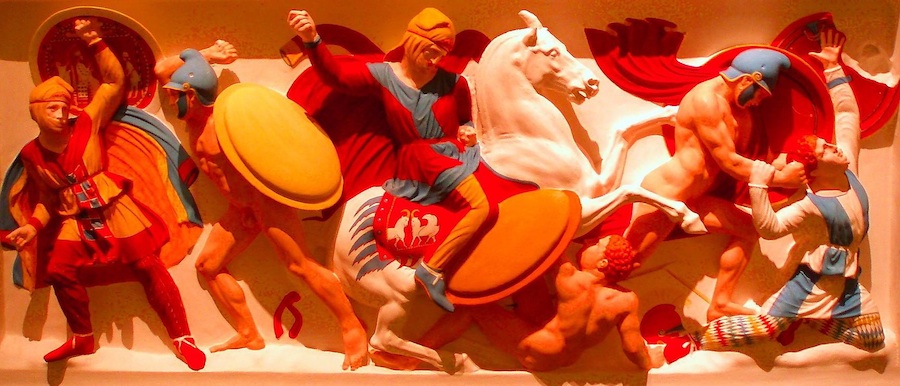
ΕΡΓΑ
In polychromed scenes from the Alexander Sarcophagus
Nude Heroic Greeks Fight Clothed Persians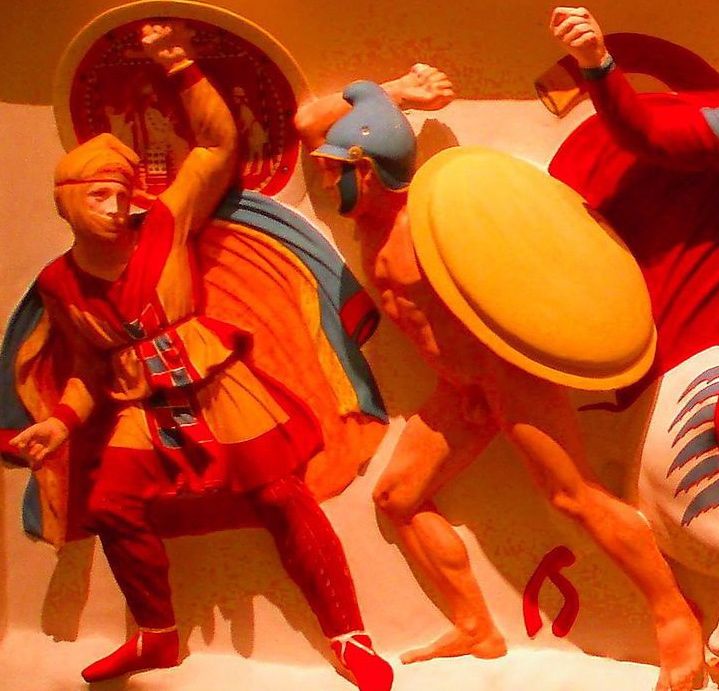
ΕΡΓΑ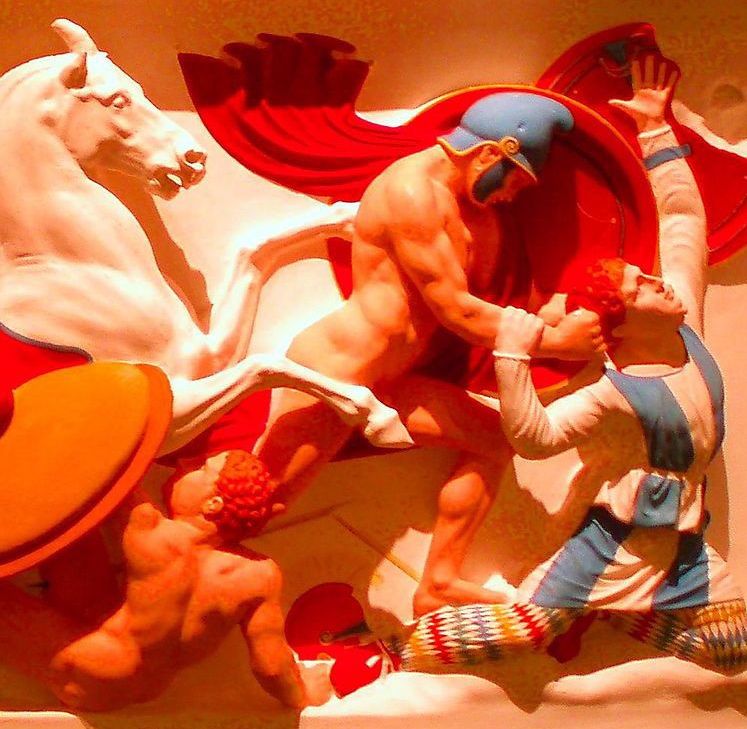
ΕΡΓΑ
In many details, the ethical doctrines of Plato and Aristotle were founded on the aristocratic morality of early Greece.
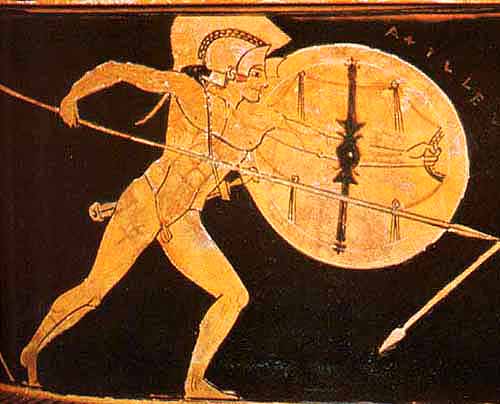
Achilles, son of [the Goddess] Thetis, the Gods honored and sent to his place in the Isles of the Blest [nesoi makaron -- "It may be we shall touch the Happy Isles, / And see the great Achilles, whom we knew" -- Tennyson, Ulysses], because having learnt from his mother that he would die as surely as he slew Hector, but if he slew him not, would return home and end his days an aged man, he had the courage and grace [tolmao] to go and succour [bontheo] his lover Patroclus, avenged [timoreo] him, and sought death not merely in his behalf [hyper-apothnesko -- to die for] but in haste to be joined with him whom death had taken [ep-apothnesko -- to die after]. For this the Gods so highly admired him that they gave him distinguished honor [Timé -- Worth], since he set so great a value on his lover. . . . For in truth, there is no sort of Areté [Manhood, Manly Goodness, Manly Excellence] deemed more Worthy of Honor [timao] by the Gods than this which comes of Love [Eros].
We are not now that strength which in old days
Moved earth and heaven, that which we are, we are;
One equal temper of heroic hearts,
Made weak by time and fate, but strong in will
To strive, to seek, to find, and not to yield.
The most Warlike Men [machimotatos], including the Thebans, Spartans, and Cretans, are the most Romantically Passionate [erotikotatos] in their Male Love Affairs.
You know the tales of Aristogeiton of Athens and Antileon of Metapontum and Melanippus of Agrigentum : they had at first no quarrel with their tyrants, though they saw that these were acting like drunkards and disfiguring the state ; but when the tyrants tried to seduce their beloveds, they spared not even their own lives in defending their loves, holy [athiktos], as it were, and inviolable [asylos] shrines [hieron].
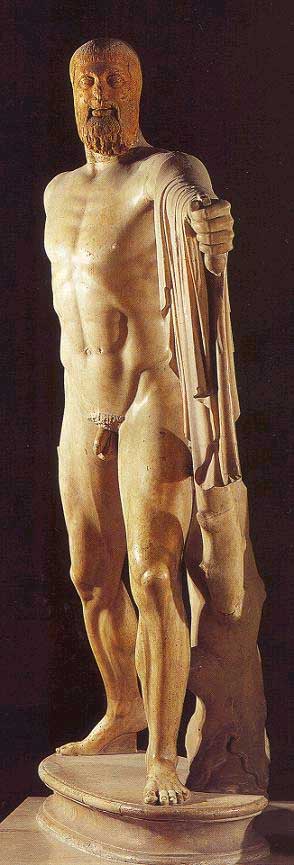

Aristogeiton and Harmodius
Warrior-Lovers and Tyrannicides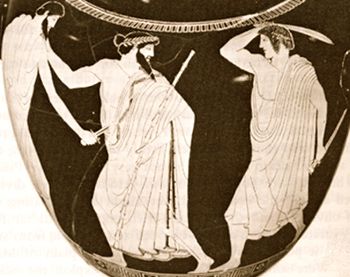
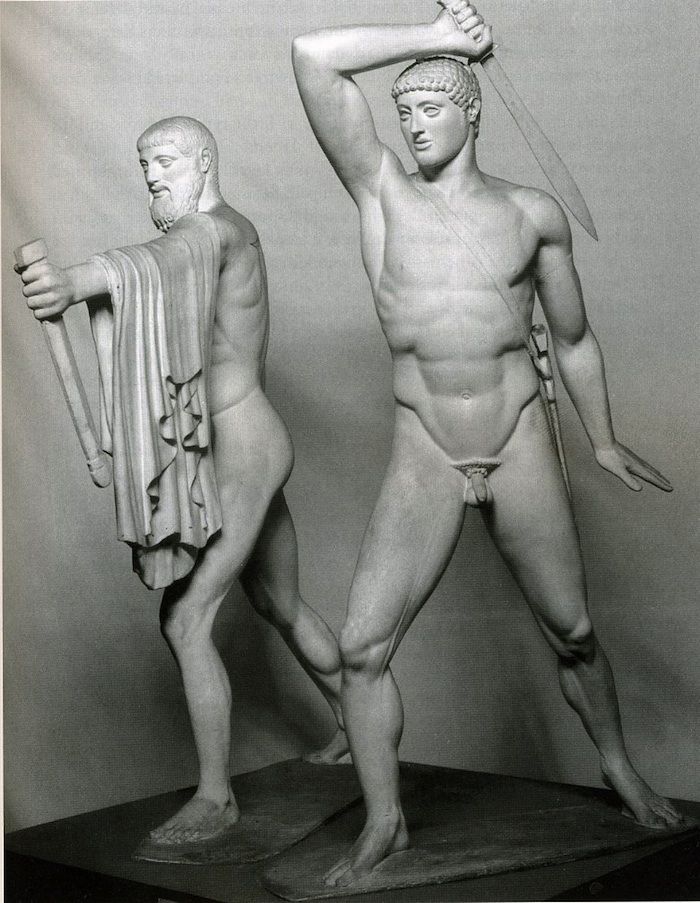
We have no other Agathoi "Goods" than Hopla -- Arms -- and Areta -- Manhood.


be above such things than to take by storm [kratos] the best-manned city of my opponents. For it is better to maintain one's own freedom [eleutheria] than to deprive others of theirs.

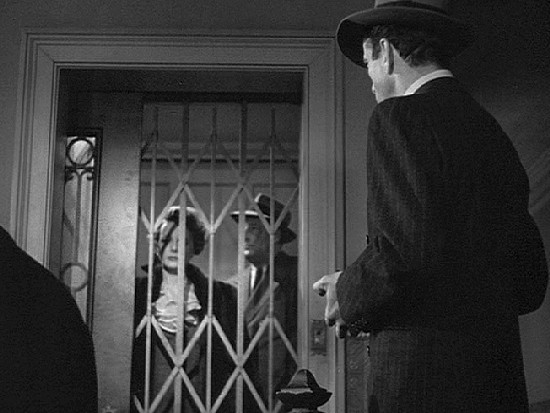
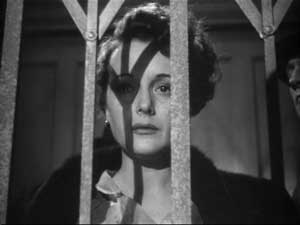




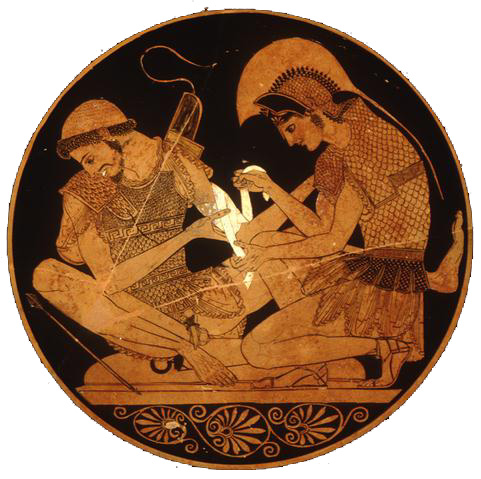

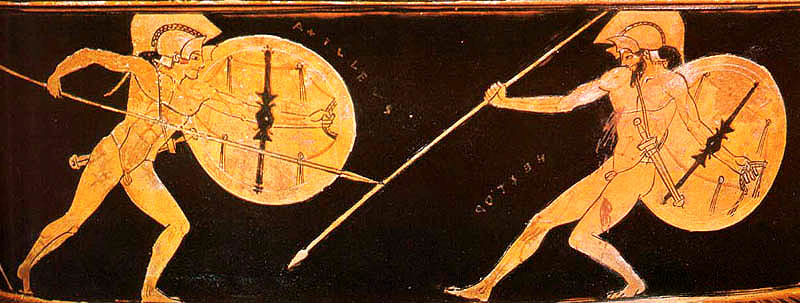
Achilles' slaying of Hektor is the first and most important example of how a self-less self-love, when combined with
the Warrior's natural instinct for aggression, leads to heroic self-sacrifice ; for Achilles knows that by choosing
to slay Hektor and so avenge his Lover's death, he himself will die young -- as Plato explains :
Achilles, son of [the Goddess] Thetis, the Gods honored and sent to his place in the Isles of the Blest, because having learnt from his mother that he would die as surely as he slew Hector, but if he slew him not, would return home and end his days an aged man, he bravely [tolmao] chose to go and rescue [bontheo -- succour] his lover Patroclus, avenged [timoreo] him, and sought death not merely in his behalf but in haste to be joined with him whom death had taken. For this the Gods so highly admired him that they gave him distinguished honor [Timé -- Worth], since he set so great a value on his lover. . . . For in truth, there is no sort of valor [Areté -- Manly Excellence, Manly Goodness, Fighting Manhood] more respected [timao = honored, deemed Worthy of Honor] by the Gods than this which comes of love [Eros] .

Patroclus and Achilles
bravely [tolmao] chose to go and rescue [bontheo -- succour] his lover Patroclus . . .

Achilles' slaying of Hektor is the first and most important example of how a self-less self-love, when combined with
the Warrior's natural instinct for aggression, leads to heroic self-sacrifice ; for Achilles knows that by choosing
to slay Hektor and so avenge his Lover's death, he himself will die.




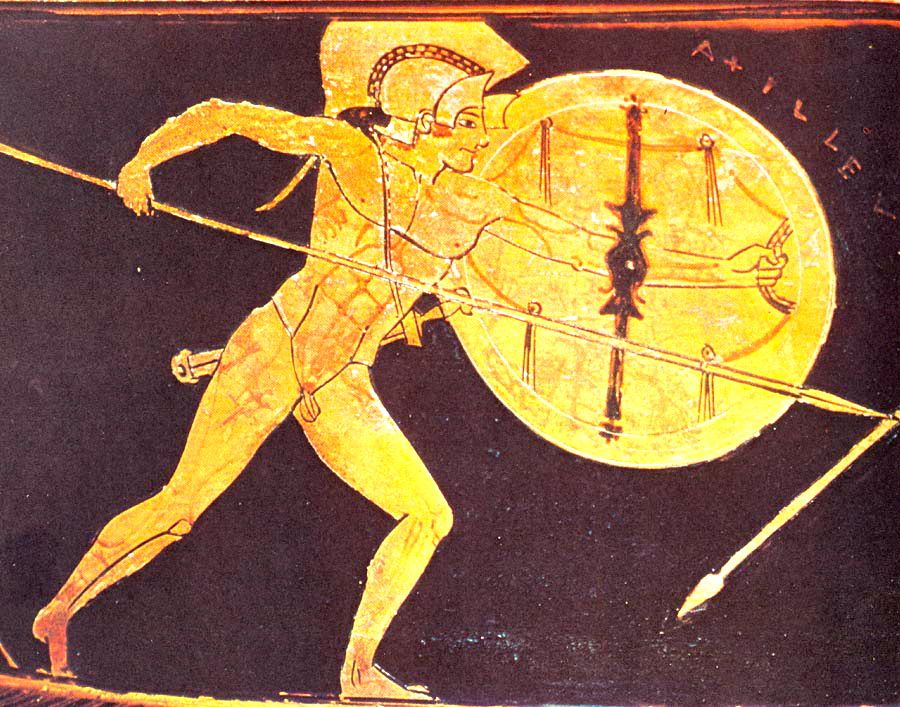











[D]o you make it your endeavor, first and last and always, in every way to show all zeal that you may exceed, if possible, both us and those who went before us in renown [eukleia] ; but if not, be you well assured that if we vanquish you in virtue [Areté -- Fighting Manhood] our victory brings us shame [aischros], whereas, if we are defeated, our defeat brings happiness [eudaimonia]. And most of all would we be the vanquished, you the victors, if you are careful in your conduct not to trade upon the glory of your ancestors [progonos] nor yet to squander it, believing that for a man who holds himself of some account there is nothing more shameful than to find himself held in honor [timao] not for his own sake but because of the glory of his ancestors. In the honors [Timé -- Worth] which belong to their parents, the children truly possess a noble [kalos -- morally beautiful] and splendid treasure ; but to use up one's treasure, whether of wealth or of honor [Timé -- Worth], and bequeath none to one's children, is the base [aischros] and unmanly [anandros] act of one who lacks all wealth and distinctions of his own. And if you practise these precepts you will come unto us as friends unto friends whensoever the appointed doom shall convey you hither ; but if you neglect them and play the coward, you will be welcomed graciously by none.
At festivals three choirs would be formed corresponding to the three age groups.
[male-male] relationships were institutionalized, played a large role in the training of boys, and were thought to contribute to bravery in combat. . . . before battle the Spartans sacrificed to Eros, to [the God of Male-Male] love.
Lovers who were bound by the male Eros were guarded by a deeper sense of honour from committing any base action, and were driven by a nobler impulse in attempting any honourable deed.


Most ancient writers -- in striking opposition to their modern counterparts -- generally entertained higher expectations of the fidelity and permanence of homosexual [sic] passions than of heterosexual [sic] feelings.

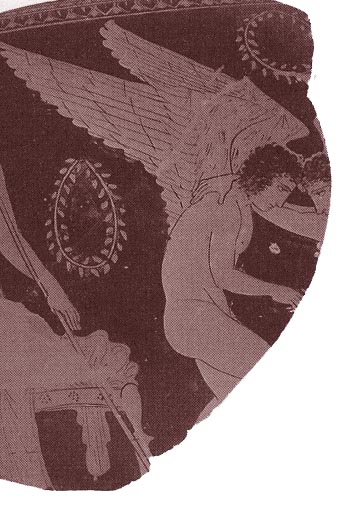

And make a windfall of my slighted state.
[H]ere [on Mount Helicon] the Thespians celebrate a festival, and also games called the Museia. They celebrate other games in honor of Love [Eros], offering prizes not only for music but also for athletic events.
31. 3. games in honour of Love. These games were called Erotidia or Erotica and were held by the Thespians every fourth year. See Athenaeus, .xiii. p. 561 e; Plutarch, Amatorius [Erotikos], i. As Pausanias
mentions them in connexion with the games in honour of the Muses which were held in the sanctuary of the Muses on Helicon, we might infer that the games in honour of Love were also celebrated in that sanctuary ; but from Plutarch (Amatorius, ii. 1-4) we gather that they were held in Thespiae ; for he tells how certain persons, who had come to Thespiae to be present at the festival, were bored by a musical competition and retreated from the city to the stillness and seclusion of the grove of the Muses on Helicon. The games in honour of Love are mentioned in a few inscriptions (C /. G. G. S. I. Nos. 48, 1857, 2517, 2518), from one of which we gather that they included boxing. This confirms the statement of Pausanias that the games included athletic as well as
musical competitions. Hence the inscriptions containing lists of victors in athletic and equestrian contests which have been found in or near Thespiae (C. /. G. G. S. i. Nos. 1764, 1765, 1766, 1769, 1770, 1772 ;
Bulletin de Corresp. Hellenique, 19 (1895), p. 369 sq.) probably refer to the games in honour of Love, since the games in honour of the Muses did not include athletic and equestrian competitions. The inscriptions
in question mention the customary athletic contests -- running, wrestling, boxing, the pancratium, the pentathlum, the torch-race, etc., as well as horse-races and chariot-races. They are all, however, fragmentary, so that we cannot make up from them a complete list of the various contests in the Erotidia. In only one of them (C.I. G. G. S. i. No. 1772) is there mention of a poetical contest. . .


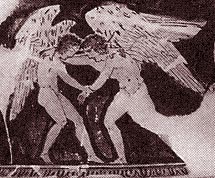

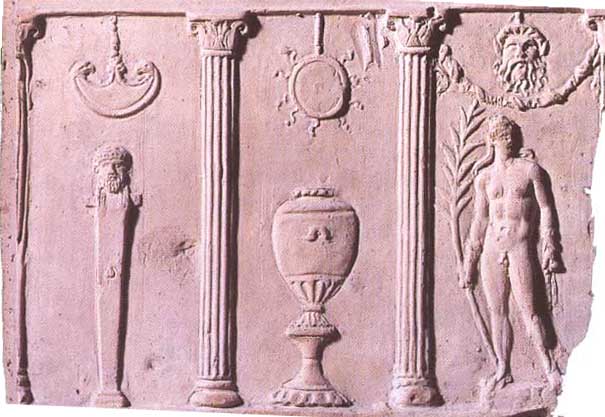
Palaistra Scene
A Boxer holds a palm as a sign of Victory
On the left is a Herm
Among the reported advantages of [male Eros] was that of exaggerating
competition among the warriors : lovers competed with each other and
dreaded to be shamed in the presence of those they loved.

And when the other is beside him, he shares his respite from anguish, and when he is absent, he likewise shares his longing and being longed for, since he possesses a counter-love (anteros), which is the image of love (eros).
Here, as at Athens, Eros occupies a place of honor in the gymnasion, and, as at Athens, he stands as an important agonistic presence expressed in an artistic medium. At Elis, Eros is not just a guardian of friendship and a reminder of the important benefits of beauty and erotic relations that result from athletic participation ; he is also an active participant in the contest. He is a wrestler. As such, the God is a model for Olympic athletes. . . . Since Olympic wrestlers and pankratiasts are directly confronted with the image of Eros, the God is publically, if somewhat indirectly, acknowledged as an important force behind the Olympic Games.





IS
THE ARDENT WILLINGNESS
AND
REQUISITE ABILITY
TO FIGHT


is instantiated by his battered and bloody face ; while his raised arms instantiate his Ability --
the martial merit, virile value, and warrior worth, he needs -- to Defeat his Opponent.



Use the mind's eye ; sit not with staring gaze --
But she is called by very many names :
Hades she is and everlasting life.
And she can be a raging Fury.
With swinish snout he churns up every evil.
Ares, then, if you like, would be named for his Manliness [arren] and Fighting Manhood [andreion], and for his hard and unbending nature, which is called arratos ; so Ares would be in every way a fitting name for the God of Battle, Fight, War [polemikos Theos].
For intercourse [homilia] without Eros [Love] is like hunger and thirst, which can be sated, but never achieve a noble [kalos -- morally beautiful] end. It is by means of Eros that the Goddess removes the cloying effect of pleasure and creates affection [philotes] and fusion [synkrasis].
an evil incantation in gibberish
Heaven and hell are symbols of the most vital of all divisions, that which separates the virtuous from the vicious will.

Ares, then, if you like, would be named for his Manliness [arren] and Fighting Manhood [andreion], and for his hard and unbending nature, which is called arratos ; so Ares would be in every way a fitting name for the God of Battle, Fight, War [polemikos Theos].
].
Dionysus exultant gives increase to the orchard.
Holy light of the fruit-time,
Nor yet seer or physician, but to be a guide
Of souls.
In the desire of man's heart,
The sower of tears ; it rouses cries of civil war.
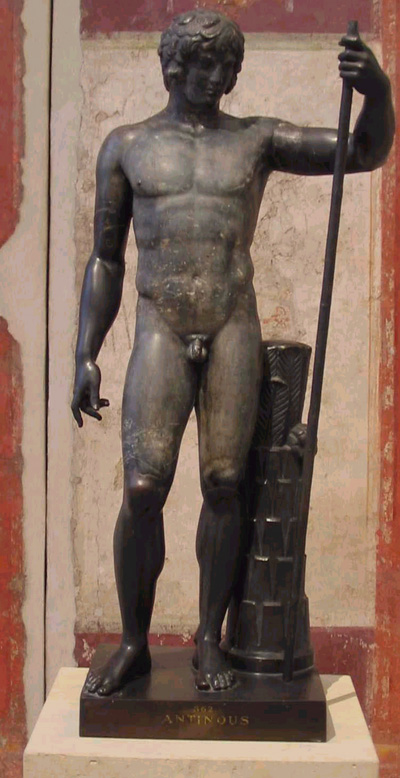
Stripped the armour from his shoulders
Grudge not to brave [agathos -- Manly and Good] men converse with your beauty :
In cities of Chalcis, Love [Eros], looser of limbs,
Thrives side by side with Courage [andreia -- Manhood
It is a fact that men desert their fellow tribesmen and relatives and even (God knows) their parents and children ; but lover and beloved, when their God is present [entheos -- when they're in-Godded, filled with their God, have their God within], no enemy has ever encountered and forced his way through.
Bill Weintraub:
The most WARLIKE MEN, including the Thebans, Spartans, and Cretans, are the most ROMANTICALLY PASSIONATE in their MALE LOVE AFFAIRS.
A man filled with Love has no need of Ares to fight [machomai] his enemies [polemios] ; if he has his own God with him, he is
he lacked entirely the Attic [Athenian] cleverness [deinotes] and fluency of speech ; in his outward bearing there was much nobility [gennaios] and truthfulness [alethes] ;
the fashion of the man's spirit [psyche] was rather Peloponnesian [that is, Spartan],
he made his home in the city a general public residence for his fellow citizens, and on his estates in the country allowed even the stranger to take and use the choicest of the ripened fruits, with all the fair things which the seasons bring. Thus, in a certain fashion, he restored to human life the fabled communism [sic -- the actual word is koinonia -- communion and fellowship] of the age of Cronus -- the mythical golden age [-- and with it the sort of communalism practised at Sparta].
lovingly imitating the frugality [euteleia] and temperance [sophrosyne] of the Lakedaimonians.
It is related, too, that Iolaos, who shared the labours of Heracles and fought by his side, was beloved of him. And Aristotle says that even down to his day the tomb of Iolaos was a place where lovers and beloved plighted mutual faith. It was natural, then, that the [Theban] Band [lochos] should also be called Sacred [hieros], because even Plato calls the lover a friend 'inspired of God' [philos entheos -- literally, a friend or lover or beloved "filled with a God, having a God within"].
In front of the Proetidian gate at Thebes is the gymnasion called the Gymnasion of Iolaos and also a race-course, a bank of earth like those at Olympia and Epidaurus. Here there is also shown a hero-shrine [hero-on] of Iolaos.
[4.24.4] To Iolaos, his nephew, who was his companion on the expedition, Herakles likewise dedicated a notable sacred precinct, and ordained that annual honours and sacrifices should be offered to him, as is done even to this day; for all the inhabitants of this city let the hair of their heads grow from their birth in honour of Iolaos, until they have obtained good omens in costly sacrifices and have rendered the God propitious.
Thespius was by birth a distinguished man of Athens and son of Erechtheus, and he was king of the land which bears his name and begot by his wives, of whom he had a great number, fifty daughters.

Love, in fact, [says Protogenes,] it is that attaches himself to a young and talented soul and through friendship brings it to a state of virtue [Areté -- Manly Excellence, which is Fighting Manhood] ; but the appetite for women we are speaking of, however well it turns out, has for net gain only an accrual of pleasure in the enjoyment of a ripe physical beauty. . . .
With the help of a God [syn Theos], one man can sharpen [thego] another who is born [phua] for Areta -- Manly Excellence, which is Fighting Manhood.
Love, in fact, it is that attaches himself to a young and talented soul and through friendship brings it to a state of Areta -- Manly Excellence, which is Fighting Manhood.
The most Warlike Men [machimotatos], including the Thebans, Spartans, and Cretans, are the most Romantically Passionate [erotikotatos] in their Male Love Affairs.
You know the tales of Aristogeiton of Athens and Antileon of Metapontum and Melanippus of Agrigentum : they had at first no quarrel with their tyrants, though they saw that these were acting like drunkards and disfiguring the state ; but when the tyrants tried to seduce their beloveds, they spared not even their own lives in defending their loves, holy [athiktos], as it were, and inviolable [asylos] shrines [hieron].


Aristogeiton and Harmodius
Warrior-Lovers and Tyrannicides
Abauchas once arrived in the capital of the Borysthenians, with his wife, of whom he was extremely fond, and two children; one, a boy, was still at the breast, the other was a girl of seven. With him also was his friend [hetairos] Gyndanes, who was still suffering from the effects of a wound he had received on the journey : they had been attacked by some robbers, and Gyndanes in resisting them had been stabbed in the thigh, and was still unable to stand on account of the pain.
'I can beget other children easily enough,' said he: 'nor was it certain how these would turn out : but it would be long before I got such another beloved as Gyndanes ; of his affection and good-will I have been abundantly satisfied by experience.'
Most ancient writers -- in striking opposition to their modern counterparts -- generally entertained higher expectations of the fidelity and permanence of homosexual [sic] passions than of heterosexual [sic] feelings.

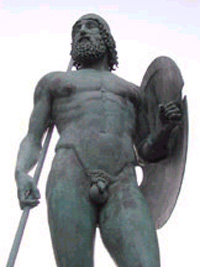












MANHOOD: A LEXICON
WARRIOR KOSMOS WARRIOR SANCTION
ARES is LORD : MANHOOD is GOD
To Fight and Conquer
[W]hen a man believes himself to be wronged, does not his spirit in that case seethe and grow fierce and make itself the ally of what he judges just [dikaios] ; and in noble [gennaios -- high-minded] souls it endures and wins the victory and will not let go
Polydorus of Sparta
Seventh century Agiad king :
Polydorus of Sparta
Seventh century Agiad king :
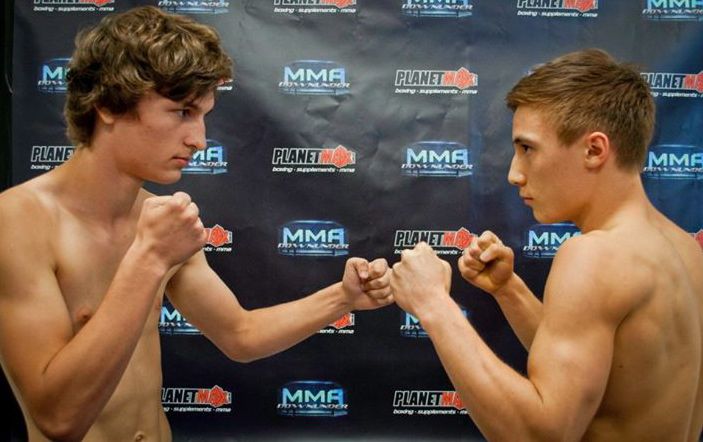
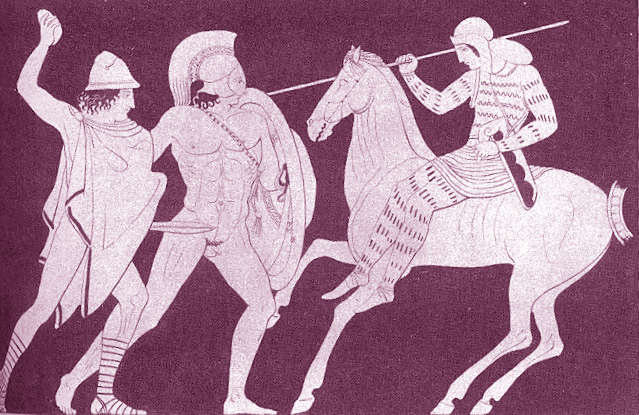

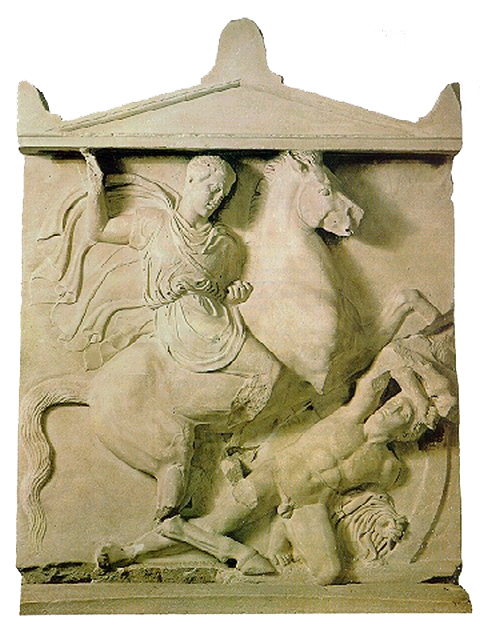
UN-equal
In the Dexileo grave stele
an Athenian calvaryman rides down
a nude Spartan Hoplites

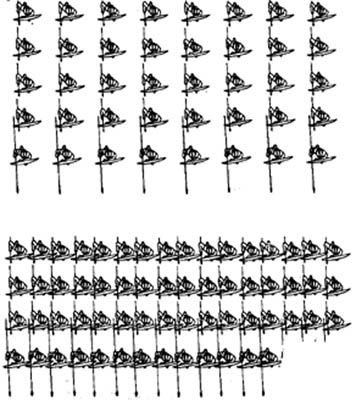
an aerial view
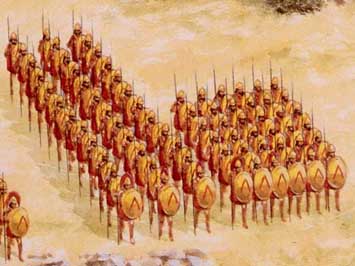
spartan battle drill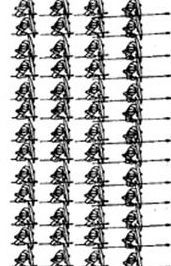 XXX
XXX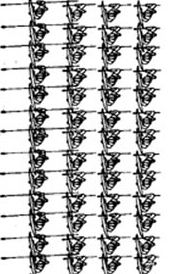
 XXX
XXX
Although Men went to war initially because their cities' reputations were at stake, they also did so for personal gain and for personal satisfaction. The Fighting was essentially hand-to-hand, taxing a Man to his utmost, physically and mentally. Thus war gave a Man an opportunity to display those qualities most admired by his fellows. His prowess not only gained him their admiration [Worth -- Timé] but also brought honor [Worth -- Timé] to his city and was in equal measure a source of pride [Worth -- Timé] to himself and his family.
War gave a Man an opportunity to display those qualities most admired by his fellows --
"Then we shall rightly use the word 'necessary' [anankaios] of them?"

ΕΡΓΑ
In polychromed scenes from the Alexander Sarcophagus
Nude Heroic Greeks Fight Clothed Persians
ΕΡΓΑ
ΕΡΓΑ
[some males], blinded by jealousy [phthonos], choose to be ruined through their own evil [kakia] rather than be saved by other Men's Areta -- their Manly Virtue and Manly Excellence, which is Fighting Manhood. For most pleasures [hedonai] are evil [kakai], and by yielding to these they are encouraged either to say or to do what is wrong.
Fighting gives a Man an opportunity to display those qualities most admired -- and most desired -- by his Fellow Men.
Wrestling test[ed] an array of martial virtues : boldness, courage, self-reliance, and perseverance.
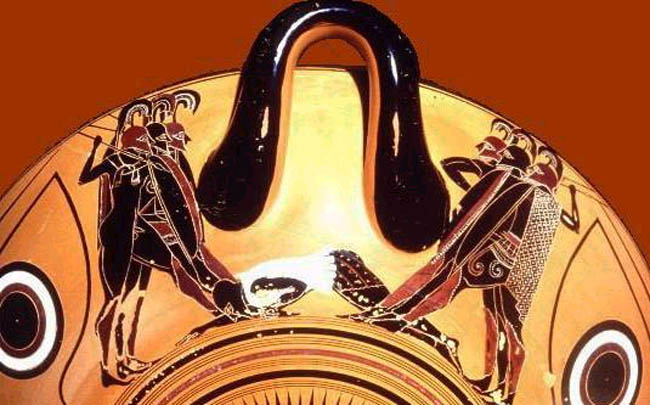
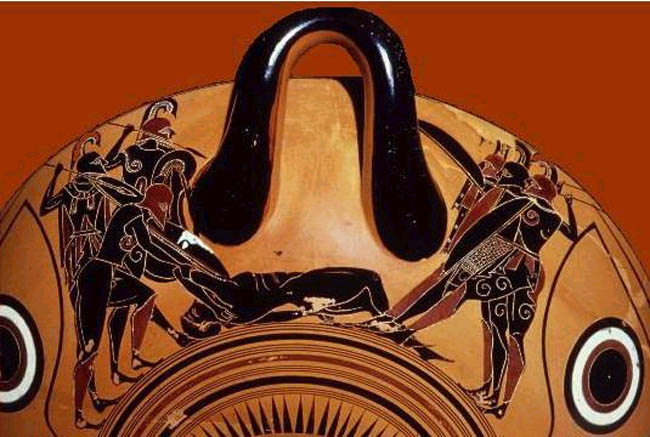
[H]e said to them, 'While it's morally beautiful, in my view, to defeat one's opponents when fighting on equal terms, I do not consider it morally well-ordered, to want to capture their city after having fought over land boundaries ; for I came to recover territory, not to seize a city.'
I do not consider it just, that is, morally well-ordered, to want to capture their city after having fought over land boundaries ; for I came to recover territory, not to seize a city.
when a man believes himself to be wronged, does not his spirit in that case seethe and grow fierce and make itself the ally of what he judges just [dikaios] ; and in noble [gennaios -- high-minded] souls it endures and wins the victory and will not let go
Whatever else you practice you must practice it In Union with Fighting Manhood, being well assured that when divorced from this all possessions and pursuits are base and ignoble. For neither does wealth bring honor to its possessor if combined with an-andria -- want of manhood and UN-manliness -- for such an one is rich for another rather than for himself -- nor do beauty and strength appear comely, but rather uncomely, when they are attached to one that is cowardly and base, since they make their possessor more conspicuous and show up his cowardice ; and every form of knowledge when sundered from that which is just, right, lawful, and Manfully well-ordered [dikaios] and the rest of Manly Excellence, which is Fighting Manhood -- is seen to be plain roguery rather than wisdom.
The battle for Sphacteria had not, in Spartan terms, been a "stand-up battle." It was as worthless for testing excellence as a football game would be in which one team was armed with revolvers. And if winning was not brave, then surely surrender was not cowardly -- for the whole structure of honor in warfare had been cast down.
The battle for Sphacteria had not, in Spartan terms, been a "stand-up battle."
It was as worthless for testing excellence
It was as worthless for testing excellence as a football game would be in which one team was armed with revolvers.
And if winning was not brave
then surely surrender was not cowardly -- for the whole structure of honor in warfare had been cast down.
The Athenians would not let any of the [Spartans] go, but themselves called for heralds from the mainland, and after questions had been carried backwards and forwards two or three times, the last man that passed over from the Lakedaimonians on the continent brought this message: ' The Lakedaimonians bid you to decide for yourselves so long as you do nothing dishonourable [aischros = shameful -- αισχρος] ' ; upon which after consulting together they surrendered themselves and their arms.
indeed people could scarcely believe that those [Spartans] who had surrendered were of the same stuff as the fallen ; and an Athenian ally, who some time after insultingly asked one of the prisoners from the island if those that had fallen were men of honor [kaloi kagathoi = noble and good men], received for answer that the atraktos -- that is, the arrow -- would be worth a great deal if it could tell men of honor from the rest ; in allusion to the fact that the killed were those whom the stones and the arrow happened to hit.
indeed people could scarcely believe that those [Spartans] who had surrendered were of the same stuff as the fallen ; and an Athenian ally, who some time after insultingly asked one of the prisoners from the island if those that had fallen were Noble Men of Manly Moral Beauty, Men of Fighting Manhood, received for answer that the atraktos -- that is, the arrow -- would be worth a great deal if it could tell such Noble and Good Men from the rest ; in allusion to the fact that the killed were those whom the stones and the arrow happened to hit.
[A Spartan at the Battle of Plataia], mortally wounded by an arrow, said, as his life was ebbing away, 'I am not troubled because I must die, but because my death comes at the hands of a womanish archer, and before I have accomplished anything.'
an arrow would be worth a great deal if it could tell Noble and Good Men from the rest --
Polydorus of Sparta
Seventh century Agiad king :
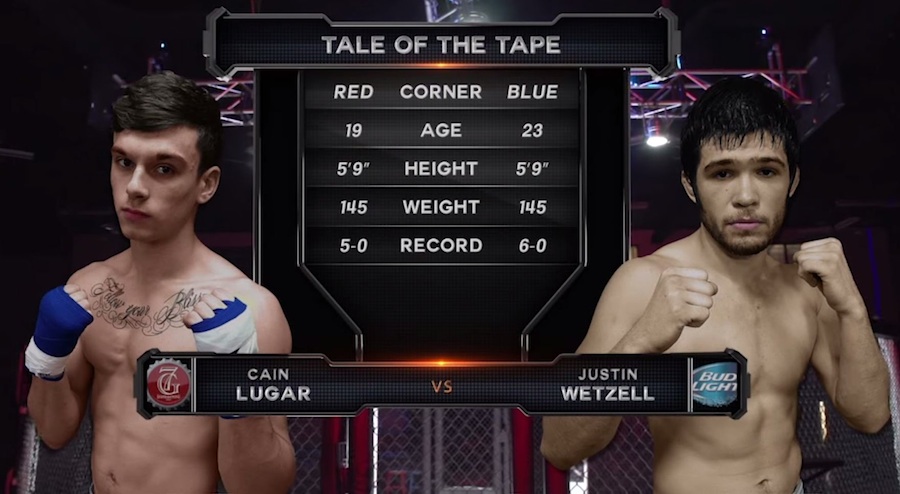
Cain
Justin
Age
19
23
Height
5'9"
5'9"
Weight
145
145
Record
5 - 0
6 - 0














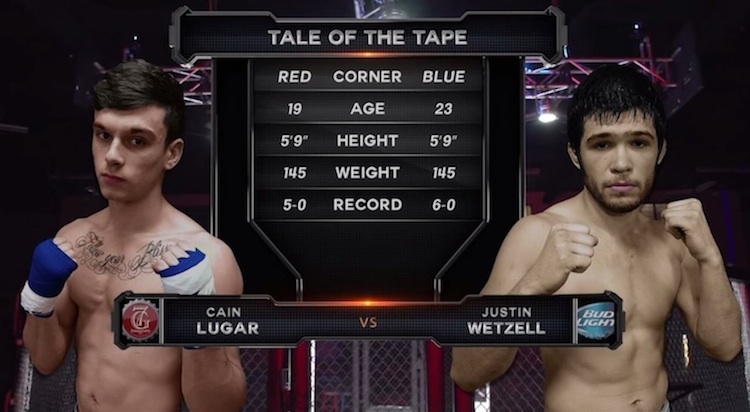



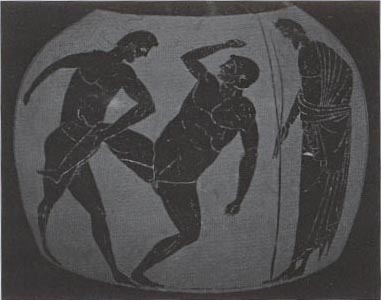
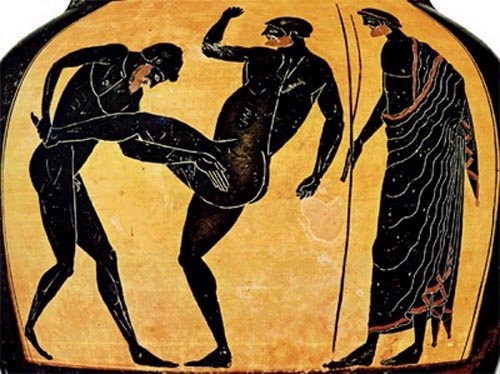
Pankratiasts ca 490 BC
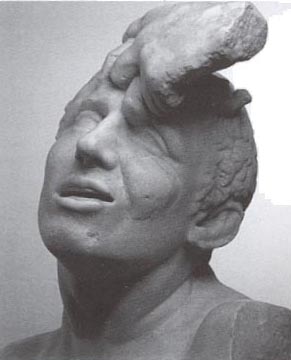
Note the battered ear
An Ikon of Manhood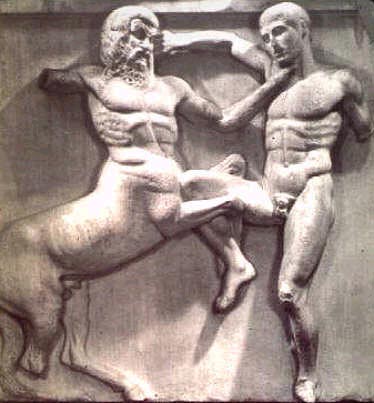
A Centaur battles a Lapith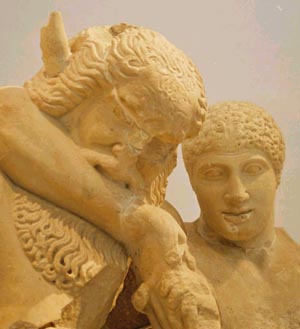
A Centaur bites a Lapith
and the Most Noble and Most Beautiful for a young Man to Win

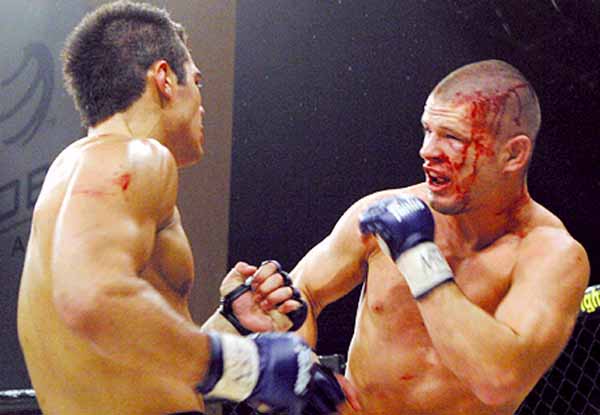

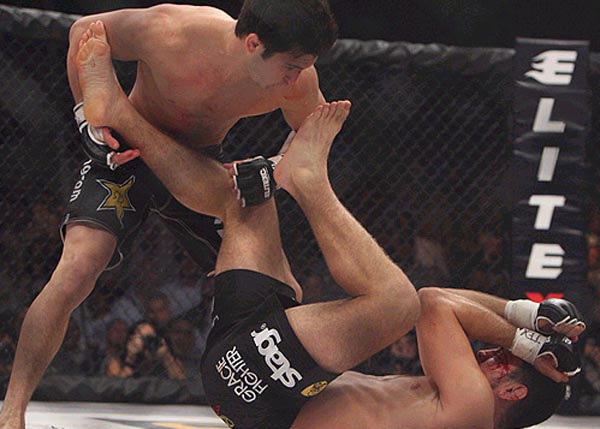
MMA
Notice the blood smears on the standing fighter's body
one effect of the struggle is that they fight [pukteuo -- strike with the fist] whenever they meet [symballo -- come together, are thrown together, come together in a hostile sense]
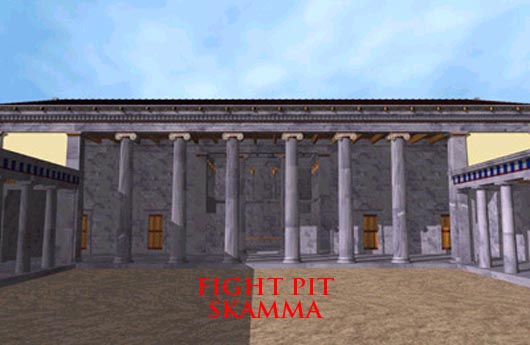
The Palaistra at Miletus
Classrooms where subjects such
as grammar and rhetoric are taught
are grouped around a central Fight Pit.
The boys in the classrooms are so seated
that they can see the Fight Pit at all times.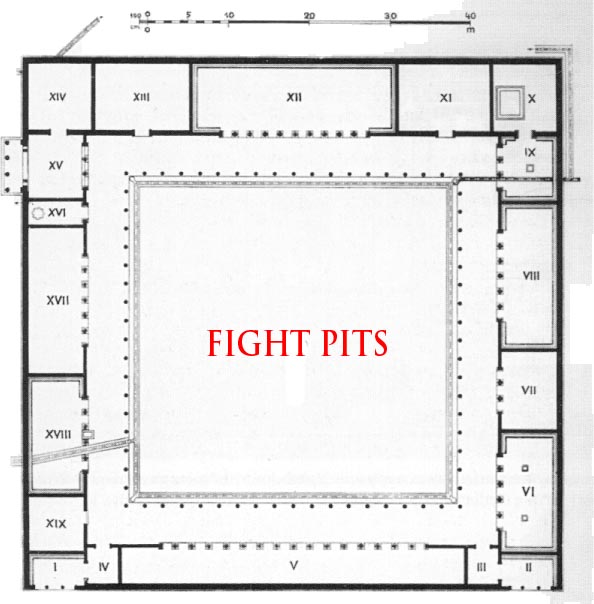
Schematic of the Palaistra at Olympia
The Fight Pits are in the center of the building ;
they're surrounded by classrooms for teaching philosophy, rhetoric, and other subjects.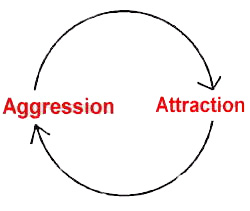


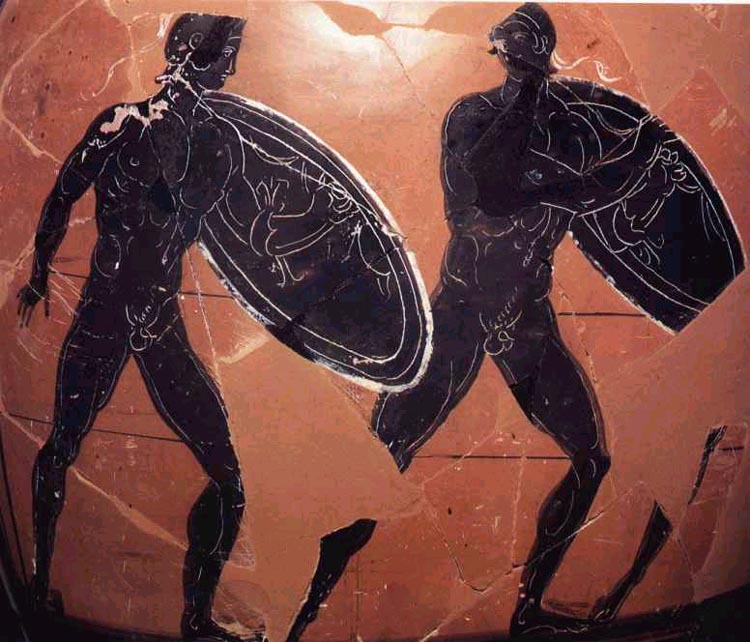
In regard
to education, whereas our rivals [that is, the Spartans] from their very cradles by a painful [epiponos] discipline [askesis] seek after manliness [andreia], at Athens we live in a milder way, and
yet are just as ready to encounter every reasonable danger.
Man differs little from man by nature, but he is best who trains in the hardest school.
We are both warlike [polemikos] and wise [euboulos], and it is our sense of order [eukosmos] that makes us so. We are warlike, because self-control [sophrosyne] contains honour [aidos] as a chief constituent, and honour bravery [eupsychia]. And we are wise, because we are educated with too little learning to despise the laws [nomos], and with too severe a self-control to disobey them, and are brought up not to be too knowing in useless matters -- such as the knowledge which can give a specious criticism of an enemy's plans in theory, but fails to assail them with equal success in practice -- but are taught to consider that the schemes of our enemies are not dissimilar to our own, and that the freaks of chance are not determinable by calculation.
We are warlike, because self-control [sophrosyne] contains honour [aidos] as a chief constituent, and honour bravery [eupsychia].
And we are wise, because we are educated with too little learning to despise the laws [nomos], and with too severe a self-control to disobey them, and are brought up not to be too knowing in useless matters -- such as the knowledge which can give a specious criticism of an enemy's plans in theory, but fails to assail them with equal success in practice -- but are taught to consider that the schemes of our enemies are not dissimilar to our own, and that the freaks of chance are not determinable by calculation.
Sparta was supreme in andreia.
Man differs little from man by nature, but he is best who trains in the hardest school.
Ares, then, if you like, would be named for his Virility [arren] and Fighting Manhood [andreion], and for his hard and unbending nature, which is called arratos ; so Ares would be in every way a fitting name for the God of Battle, Fight, War [polemikos Theos].
There was nothing disreputable about the girls' nudity. It was
altogether modest, and there was no hint of immorality. Instead it
encouraged simple habits and an enthusiasm for physical fitness, as
well as giving the female sex a taste of masculine gallantry, since it
too was granted equal participation in both excellence and ambition [philotimia = love of worth].
I notice that as those who do not train [askeo] the body [soma] cannot perform the functions proper to the body, so those who do not train [askeo] the soul [psyche] cannot perform the functions of the soul : for they cannot do what they ought to do nor avoid what they ought not to do.
It's Morally Beautiful, in my view, to defeat one's opponents when Fighting on Equal Terms














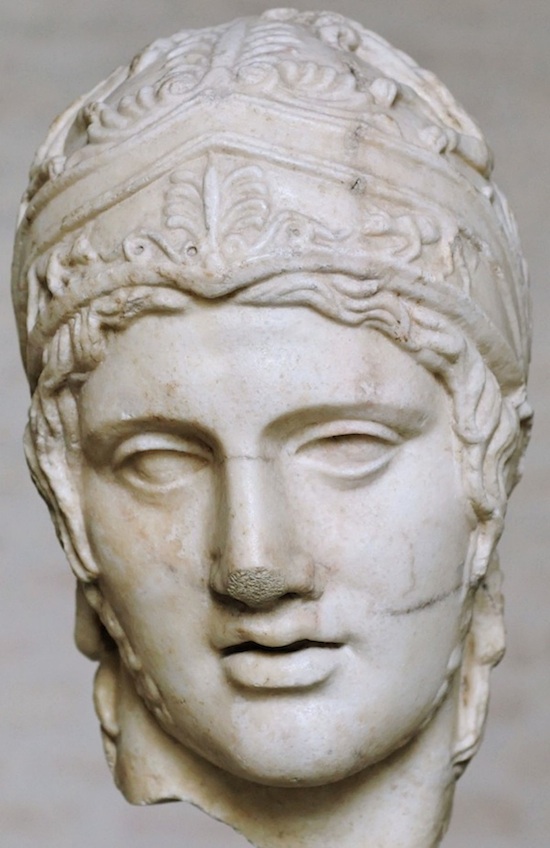


MANHOOD: A LEXICON
WARRIOR KOSMOS WARRIOR SANCTION
ARES is LORD : MANHOOD is GOD
To Live According to Reason, Not Desire ;
To be Rich, not in Money, But in Manhood
Ares, then, if you like, would be named for his Virility [arren] and Fighting Manhood [andreion], and for his hard and unbending nature, which is called arratos ; so Ares would be in every way a fitting name for the God of Battle, Fight, War [polemikos Theos].



Achilles' slaying of Hektor is the first and most important example of how a self-less self-love, when combined with
the Warrior's natural instinct for aggression, leads to heroic self-sacrifice ; for Achilles knows that by choosing
to slay Hektor and so avenge his Lover's death, he himself will die young -- as Plato explains :
Achilles, son of [the Goddess] Thetis, the Gods honored and sent to his place in the Isles of the Blest, because having learnt from his mother that he would die as surely as he slew Hector, but if he slew him not, would return home and end his days an aged man, he bravely chose to go and rescue his lover Patroclus, avenged [timoreo] him, and sought death not merely in his behalf but in haste to be joined with him whom death had taken. For this the Gods so highly admired him that they gave him distinguished honor [Timé -- Worth], since he set so great a value on his lover. . . . For in truth, there is no sort of Areté -- Manly Excellence, Manly Goodness, Manly Virtue, Fighting Manhood -- more respected [timao = honored, deemed Worthy of Honor] by the Gods than this which comes of love [Eros] .
We are both warlike [polemikos] and wise [euboulos], and it is our sense of order [eukosmos] that makes us so. We are warlike, because self-control [sophrosyne] contains honour [aidos] as a chief constituent, and honour bravery [eupsychia]. And we are wise, because we are educated with too little learning to despise the laws [nomos], and with too severe a self-control to disobey them, and are brought up not to be too knowing in useless matters -- such as the knowledge which can give a specious criticism of an enemy's plans in theory, but fails to assail them with equal success in practice -- but are taught to consider that the schemes of our enemies are not dissimilar to our own, and that the freaks of chance are not determinable by calculation.
These practices, then, which our ancestors [pateres -- forefathers] have delivered to us, and by whose maintenance we have always profited, must not be given up.
arguments that would convince, or at least confute, the ethical nihilism of a war-weary, cynical and over-enlightened generation -- for proof, in short, that virtue and happiness coincide.



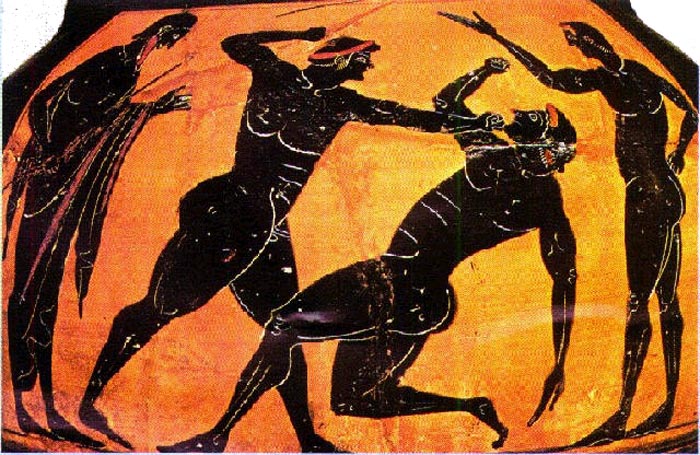


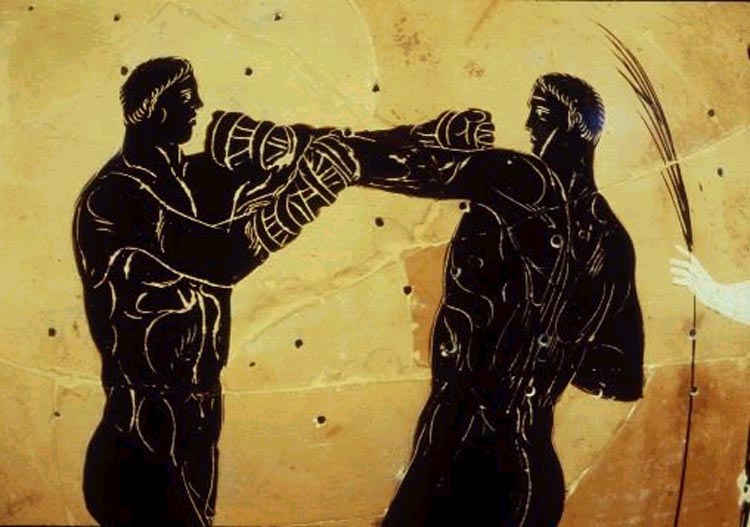

Should you choose, again, to look at the self-control [sophrosyne] and orderliness [kosmiotes], the fortitude [euchereia] and good temper [eukolia], the magnanimity [megalophrosyne] and discipline [eutaxia], the courage [andreia -- Manliness, Manhood, Fighting Manhood -- and please review the translator's note if you still don't understand why "courage" is an inadequate translation of andreia] and endurance [karteria], and the toil-loving [philoponia], success-loving [philonikia -- love of victory, rivalry, contentiousness], honor-loving [PhiloTimia -- Worth-Loving] spirit of the Lakedaimonians [the Spartans], you would count yourself but a child in all these things.
Only those desires which make a Man more Manly by their satisfaction should be fulfilled, but those which make him less manly should not.
What then? Is the fighting force of our State to venture to come forward every time to fight for their lives, their children, their goods, and for the whole State, after a less thorough preparation than the competitors [in boxing and pankration] we have been describing? And so is their lawgiver, through fear lest these training-bouts may appear ridiculous to some, to refrain from laying down laws whereby he will ordain field-operations, of which the minor kind, without heavy arms, will take place daily, if possible, -- and to this end both the choristry [military dancing] and all the gymnastike [nude physical training] shall be directed -- while the others, as a major kind of gymnastics in full armor, he shall order to be held at least once a month? In this latter kind they will engage in contests with one another throughout the whole country, contending in the capturing of forts and in ambuscades and in all forms of mimic warfare ; in fact, they shall do literal fighting with balls and darts as nearly real as possible -- though the points of the darts shall be made less dangerous -- in order that their games of combat may not be devoid of some element of alarm, but may provide terrors and indicate to some extent who is stout-hearted [eupsychos] and who not : to the former the lawgiver shall duly assign honors [timé -- Worth], to the latter degradation [a-timia -- dishonour, disgrace, UN-worth], that thus he may prepare the whole State to be serviceable throughout life in the real contest. Moreover, if a man gets killed in these sham fights, inasmuch as the murder is involuntary, he shall pronounce the slayer to be pure of hands, when he has been legally purified ; for he will reflect that, when a few men die, others equally good will grow up in their place, whereas, once fear is, so to speak, dead, he will be unable to find a test to distinguish, in all such cases, the good from the bad -- and that is a far greater evil than the other for a State.
We, at least, Stranger, would certainly agree that every State should both ordain and practice these things.
Are we all aware of the reason why such military dancing and such contests [agonia] do not at present exist anywhere in the States, except to a very small extent? Shall we say that this is due to the ignorance of the populace and of those who legislate for them?
Possibly.
Not so, by any means, my ingenious Clinias! What we ought to say is that there are two causes, and both most weighty ones.
What are they?
The first springs from a lust for wealth which allows a man no leisure time for attention to anything else save his own private property ; and when the soul of every citizen hangs upon this, it is incapable of attending to matters other than daily gain. Whatsoever science or pursuit leads to this, every man individually is most ready to learn and to practice ; but all else he laughs to scorn. This we must assert to be one particular cause why a State is unwilling to be in earnest about this, or any other, fine [to agathon -- excellent] and noble [kalos -- noble, thus selfless] pursuit ; and why, on the other hand, every individual, because of his greed for silver and gold, is willing to toil at every art and device, noble or ignoble, if he is likely to get rich by it -- willing, too, to perform actions both holy and unholy -- nay, utterly shameful -- without a scruple, provided only that he is able to sate himself to repletion, like a beast, with all manner of foods and drinks and wenchings.
True.
Then let this which I describe be laid down as one cause which hinders the States from adequately practicing either military operations or any other noble pursuits [kalon -- ta kala] and which turns men who are of a quiet nature into traders, ship-owners, and servants, while of the Manly [andreios] it makes pirates, burglars, temple-robbers, mercenaries, and tyrants -- and that though, in some cases, they are not ill-natured, but merely ill-fortuned.
How so?
Well, how could I describe otherwise than as utterly unfortunate men who are compelled to go through life with hunger [for gold] always in their own souls?
This, then, is one cause : what is the second cause you speak of, Stranger?
You are right in reminding me.
One cause, as you assert, is this lifelong insatiable pursuit, which wholly engrosses each man, and hinders each and all from rightly practicing military operations. Be it so : now tell us the second cause.
Do you think that I am delaying to do so because I am at a loss?
No ; but we think that, owing to a sort of hatred against the character you describe, you are castigating it more severely than is required by the argument now on hand.
Your rebuke is just, Strangers ; you want, it seems, to hear what comes next.
Only say on.
There lies a cause, as I affirm, in those non-polities which I have often mentioned in our previous discourse -- namely, democracy, oligarchy, and tyranny. For none of these is a polity, but the truest name for them all would be "faction-State" ; for none of them is a form of voluntary rule over willing subjects, but a voluntary rule over unwilling subjects accompanied always by some kind of force ; and the ruler, through fear of the subject, will never voluntarily allow him to become noble [kalon -- morally beautiful] or wealthy or strong [ischyros] or Manly [andreios] or in any way Warlike [polemikos].
And when, in accordance with Nature, we had assigned to each citizen his one proper and peculiar occupation, we declared that those whose duty it is to fight in defence of all must act solely as Guardians of the State, in case anyone from without or any of those within should go about to molest it ; and that they should judge leniently such as are under their authority and their natural friends, but show themselves stern in battle towards all the enemies they encounter.
Very true.
For we said, as I think, that the soul of the Guardians [phulax] ought to be of a nature at once spirited [thumoeides] and philosophic in a superlative degree, so that they might be able to treat their friends rightly with leniency and their foes with sternness.
Yes.
And what of their training? Did we not say that they were trained in gymnastike [nude training, much of it in Fight Agonia], in music, and in all the studies proper for such men?
Certainly.
And it was said, I believe, that the men thus trained should never regard silver or gold or anything else as their own private property ; but as auxiliaries [epikouros], who in return for their guard-work receive from those whom they protect such a moderate wage as suffices temperate [sophron] men, they should spend their wage in common and live together in fellowship one with another, devoting themselves unceasingly to virtue [areté -- Manly Virtue, which is Manly Excellence, which is Manly Goodness, which is Manhood, Fighting Manhood], but keeping free from all other pursuits.
In the first place, none [of the Guardians, the Warrior Caste of the Republic,] must possess any private property save the indispensable. Secondly, none must have any habitation or treasure-house which is not open for all to enter at will. Their food, in such quantities as are needful for athletai [prize-fighters] of war sober [sophron] and brave [andreios -- Manly], they must receive as an agreed stipend from the other citizens as the wages of their guardianship, so measured that there shall be neither superfluity at the end of the year nor any lack. And resorting to a common mess like soldiers on campaign they will live together.
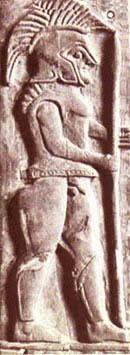 12345678910
12345678910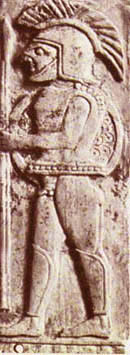
Things which attract slavish characters are alien to Free Men.
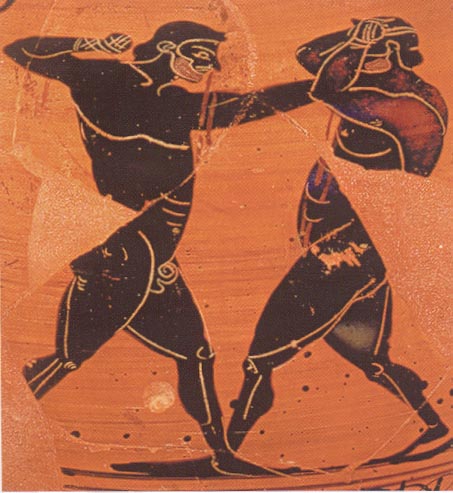
Whatever else you practice you must practice it in union with Fighting Manhood, being well assured that when divorced from this all possessions and pursuits are base and ignoble. For neither does wealth bring honor to its possessor if combined with cowardice [an-andria -- want of manhood, UN-manliness] -- for such an one is rich for another rather than for himself -- nor do beauty and strength appear comely, but rather uncomely, when they are attached to one that is cowardly and base, since they make their possessor more conspicuous and show up his cowardice ; and every form of knowledge when sundered from that which is just, right, lawful, and well-ordered [dikaios] and the rest of Manly Virtue which is Fighting Manhood -- is seen to be plain roguery rather than wisdom.
Should you choose to look at the self-control [sophrosyne] and orderliness [kosmiotes], the fortitude [euchereia] and good temper [eukolia], the magnanimity [megalophrosyne] and discipline [eutaxia], the courage [andreia -- Manliness, Manly Excellence, Fighting Manhood, -- and please review the translator's note if you still don't understand why "courage" is an inadequate translation of andreia] and endurance [karteria], and the toil-loving [philoponia], success-loving [philonikia -- love of victory, rivalry, contentiousness], honor-loving [PhiloTimia -- Worth-Loving] spirit of the Spartans, you would count yourself but a child in all these things.
[I]n fact, they shall do literal fighting with balls and darts as nearly real as possible -- though the points of the darts shall be made less dangerous -- in order that their games of combat may not be devoid of some element of alarm, but may provide terrors and indicate to some extent who is stout-hearted [eupsychos] and who not : to the former the lawgiver shall duly assign honors [timé -- Worth], to the latter degradation [a-timia], that thus he may prepare the whole State to be serviceable throughout life in the real contest. Moreover, if a man gets killed in these sham fights, inasmuch as the murder is involuntary, he shall pronounce the slayer to be pure of hands, when he has been legally purified ; for he will reflect that, when a few men die, others equally good will grow up in their place, whereas, once fear is, so to speak, dead, he will be unable to find a test to distinguish, in all such cases, the good from the bad -- and that is a far greater evil than the other for a State.
What we affirm is that a good man will not think that for a good man, whose friend [hetairos -- comrade] he also is, death is a terrible thing.
Sokrates
Writing, Phaidros, has this strange quality, and is very like
painting ; for the creatures of painting stand like living beings, but
if one asks them a question, they preserve a solemn silence. And so it
is with written words ; you might think they spoke as if they had
intelligence, but if you question them, wishing to know about their
sayings, they always say only one and the same thing. And every word,
when once it is written, is bandied about, alike among those
who understand and those who have no interest in it, and it knows not
to whom to speak or not to speak ; when ill-treated or unjustly reviled
it always needs its father to help it; for it has no power to protect
or help itself.
You are quite right about that, too.
Now tell me ; is there not another kind of speech, or word, which shows
itself to be the legitimate brother of this bastard one, both in the
manner of its begetting and in its better and more powerful nature?
What is this word and how is it begotten, as you say?
The word which is written with intelligence in the mind of the
learner, which is able to defend itself and knows to whom it should
speak, and before whom to be silent.
You mean the living and breathing word of him who knows, of which the
written word may justly be called the image [eidolon].
Exactly.
Lest unto men and immortals the homes of the dead be uncovered
Horrible, noisome, dank, that the Gods too hold in abhorrence
What we affirm is that a good man will not think that for a good man, whose friend [hetairos -- comrade] he also is, death is a terrible thing.

Patroklos and Achilles
What we affirm is that a good man will not think that for a good man, whose friend [hetairos -- comrade] he also is, death is a terrible thing.

And Kleonymus, filled with joy, went at once to Archidamus and said : "We know now that you have a care for us ; and be well assured, Archidamus, that we in our turn shall strive to take care that you may never have cause to be ashamed on account of our friendship." And he did not prove false to his words, for not only did he act in all ways as it is deemed honourable [kala] for a citizen of Sparta to act while he lived, but at Leuktra, fighting in defence of his king with Deinon the polemarch, he fell three times and was the first of the citizens to lose his life in the midst of the enemy. And while his death caused extreme grief to Archidamus, still, as he promised, he did not bring shame upon him, but rather honour.
κοσμεω Κοσμος
What we affirm is that a good man will not think that for a good man, whose hetairos he also is, death is a terrible thing.
When asked how one should remain a Free Man [Eleutheros], he said: 'By despising death.'
In the first place, none [of the Guardians, the Warrior Caste of the Republic,] must possess any private property save the indispensable. Secondly, none must have any habitation or treasure-house which is not open for all to enter at will. Their food, in such quantities as are needful for athletes of war sober [sophron] and brave [andreios -- Manly], they must receive as an agreed stipend from the other citizens as the wages of their guardianship, so measured that there shall be neither superfluity at the end of the year nor any lack. And resorting to a common mess like soldiers on campaign they will live together.
[The Lawgiver] will ordain field-operations, of which the minor kind, without heavy arms, will take place daily, if possible, -- and to this end both the choristry [military dancing] and all the gymnastika [nude physical training] shall be directed -- while the others, as a major kind of gymnastika in full armor, he shall order to be held at least once a month ? In this latter kind they will engage in contests with one another throughout the whole country, contending in the capturing of forts and in ambuscades and in all forms of mimic warfare ; in fact, they shall do literal fighting with balls and darts as nearly real as possible -- though the points of the darts shall be made less dangerous -- in order that their games of combat may not be devoid of some element of alarm, but may provide terrors and indicate to some extent who is stout-hearted [eupsychos] and who not. . .
A Spartan, on going to Athens, saw that the Athenians were hawking salt fish and dainties, collecting taxes, keeping public brothels [porno-boskeo], and following other unseemly [aschemon] pursuits, and holding none of them to be shameful [aischros]. When he returned to his own country [patris -- fatherland], his fellow-citizens asked how things were in Athens, and he said, 'Everything fair and lovely,' [panta kala -- "everything kala," "everything manfully and morally beautiful"] speaking sarcastically and conveying the idea that among the Athenians everything is considered fair and lovely [kala -- morally beautiful], and nothing shameful [aischros].
It is a noble thing [kalon -- an Act of Moral Beauty] for one who possesses much to live according to reason [logistikos] and not according to his desires [epithumia].
The Principle of High Spirit -- of Fighting Spirit -- which "seethes and grows fierce, and in noble and high-minded souls it endures and wins the victory and will not let go until either it achieves its purpose, or death ends all. . . ."
Whatever else you practice you must practice it In Union with Fighting Manhood, being well assured that when divorced from this all possessions and pursuits are base and ignoble. For neither does wealth bring honor to its possessor if combined with cowardice [an-andria -- want of manhood, UN-manliness] -- for such an one is rich for another rather than for himself -- nor do beauty and strength appear comely, but rather uncomely, when they are attached to one that is cowardly and base, since they make their possessor more conspicuous and show up his cowardice ; and every form of knowledge when sundered from that which is just, right, lawful, and well-ordered [dikaios] and the rest of areté, of Manly Excellence, Manly Virtue, and Fighting Manhood -- is seen to be plain roguery rather than wisdom.
In the first place, none [of the Guardians, the Warrior Caste of the Republic,] must possess any private property save the indispensable. Secondly, none must have any habitation or treasure-house which is not open for all to enter at will. Their food, in such quantities as are needful for athletes of war sober [sophron] and brave [andreios -- Manly], they must receive as an agreed stipend from the other citizens as the wages of their guardianship, so measured that there shall be neither superfluity at the end of the year nor any lack. And resorting to a common mess like soldiers on campaign they will live together.
Manhood is despised
Plato's imagination and religious feeling require him to associate the ethical good of Man with the principles of order, harmony, measure, beauty, and good in the Universe.
We are both warlike [polemikos] and wise [euboulos], and it is our sense of order [eukosmos] that makes us so.
We are warlike, because self-control [sophrosyne] contains honor [aidos] as a chief constituent, and honor bravery [eupsychia]. And we are wise, because we are educated with too little learning to despise the laws [nomos], and with too severe a self-control to disobey them. . . .
The word andreia ανδρεια has a much wider meaning than the English "courage." Like the Latin "virtus," it [the Greek word "andreia"] embraces all qualities which are desirable in a perfect man, especially the more active and positive virtues. When applied to one particular kind of virtue it is applied to courage, but throughout this discussion it is used in the wider sense, for which there is no single English equivalent.
The word andreia ανδρεια has a much wider meaning than the English "courage."
Like the Latin "virtus," it [the Greek word "andreia"] embraces all qualities which are desirable in a perfect man, especially the more active and positive virtues.
Like the Latin "virtus," Andreia embraces all qualities which are desirable in a perfect man, especially the more active and positive virtues.
f. vir [man], manliness, manhood, i. e. the sum of all the corporeal or mental excellences of man, strength, vigor ; bravery, courage ; aptness, capacity ; worth, excellence, virtue, etc.
manliness, manhood, manly spirit, Lat. virtus
manliness, manhood, strength, vigor, bravery, courage, excellence
Manhood, manliness, strength, vigor, bravery, courage, excellence ; Valour, gallantry, fortitude ; Goodness, moral perfection, high character, virtue ; Worth, merit, value.
At this meeting the general subject was human [andros -- man's] virtue [Areté -- Excellence, Manly Excellence, which is Manly Virtue, which is Fighting Manhood], and most of the discussion turned upon manliness [andreia -- Manliness, which is Fighting Manhood].
At this meeting the general subject was Manly Excellence, and most of the discussion turned upon Fighting Manhood.
From the same root [ARES] comes areté ... the first notion of goodness being that of manhood, bravery in war; cf. Lat. virtus.
goodness, excellence, of any kind, esp. of manly qualities, manhood, valour, prowess, Hom., Hdt. (like Lat. vir-tus, from vir).
The Spartans owe their superiority to fighting and valor
The Spartans owe their superiority to Fighting and Manhood.
The Spartans owe their superiority to Fighting and Fighting Manhood.
At this meeting the general subject was Manly Excellence, and most of the discussion turned upon Fighting Manhood.
manliness, manhood, manly spirit, Lat. virtus
like the rulers in the Republic and the Laws, is to control marriages and the propagation of the race, especially with a view to blending by both eugenics and education the oppositions of the energetic and sedate temperament.
[Lykourgos, the Spartan law-giver,] made it honourable [kalon -- morally beautiful] for worthy men to share children and their production, and derided people who hold that there can be no combination or sharing of such things, and who avenge any by assassinations and wars. Thus if an older man with a young wife should take a liking to one of the well-bred [kalos kai agathos -- noble and brave, noble and virile, selfless and manfully excellent, morally beautiful, excellent, and manly] young men and approve of him, he might well introduce him to her so as to fill her with noble [gennaios] sperm and then adopt the child as his own.
You are the unconquered blood of Herakles
When one runs away, all Worth [Timé / Tima] is lost
The word andreia ανδρεια has a much wider meaning than the English "courage."
Manhood, manliness, strength, vigor, bravery, courage, excellence ; Valour, gallantry, fortitude ; Goodness, moral perfection, high character, virtue ; Worth, merit, value.
goodness, excellence, of any kind, esp. of manly qualities, manhood, valour, prowess










is instantiated by his battered and bloody face ; while his raised arms instantiate his Ability --
the martial merit, virile value, and warrior worth, he needs -- to Defeat his Opponent.










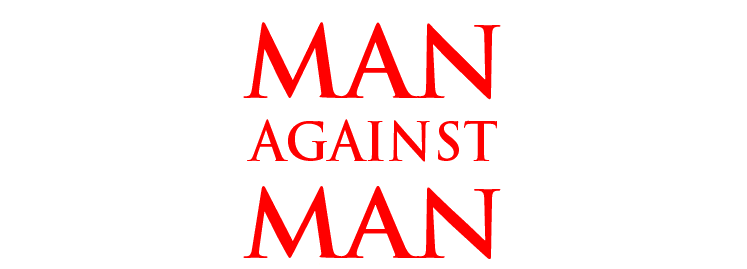






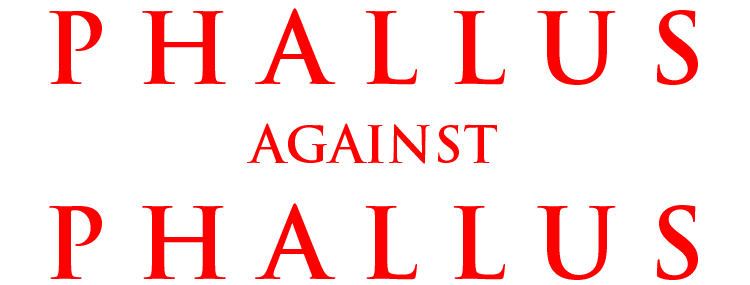
arguments that would convince, or at least confute, the ethical nihilism of a war-weary, cynical and over-enlightened generation -- for proof, in short, that virtue and happiness coincide.

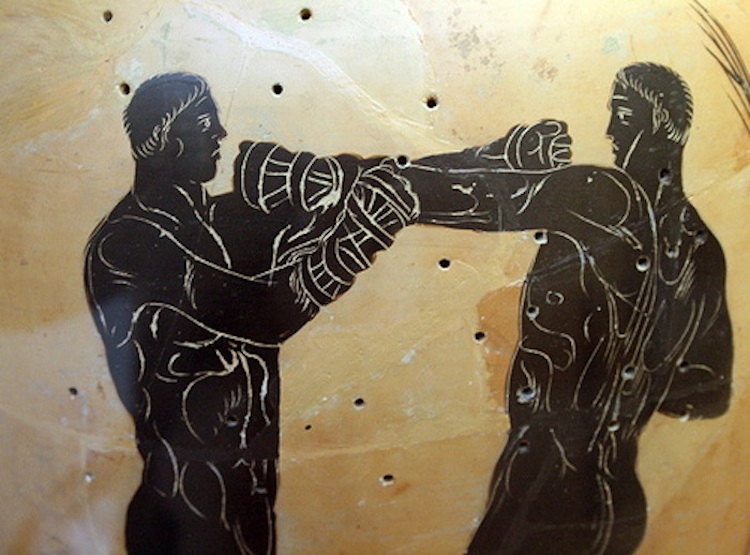



















MANHOOD: A LEXICON
WARRIOR KOSMOS WARRIOR SANCTION
ARES is LORD : MANHOOD is GOD
To Have as Your Judge
No Other God or Man --
than ARES


when a man believes himself to be wronged, does not his spirit in that case seethe and grow fierce (and also because of his suffering hunger, cold and the like) and make itself the ally of what he judges morally ordered and just ; and in noble and high-minded souls it endures and wins the victory and will not let go until either it achieves its purpose, or death ends all, or, as a dog is called back by a shepherd, it is called back by the reason within and calmed.
For as between age-fellows [men of the same age, comrades] we shall say that self-defence [to defend oneself, to repel an assault] is morally beautiful [kalon] and just, well-ordered, and righteous [dikaios], thereby compelling them to keep their bodies in condition.
Man differs little from man by nature, but he is best who trains in the hardest school
Man differs little from man by nature, but he is best who trains in the hardest school.
Ares, then, if you like, would be named for his Virility [arren] and Manhood [andreion], and for his hard and unbending nature, which is called arratos ; so Ares would be in every way a fitting name for the God of Battle, Fight, War [polemikos Theos].
The Ancient Greek
and Roman Culture
of
Andreia-Areta-Virtus
Virtus comes before everything, that's for sure!
Freedom, safety, life, property and parents, fatherland and children, it guards and keeps safe.
Virtus has everything in it ; He who has Virtus has everything good!
Compared to the display of Virtus, "everything is subordinate and hides in dark night."
manliness, manhood, i. e. the sum of all the corporeal or mental excellences of man, strength, vigor ; bravery, courage ; aptness, capacity ; worth, excellence, virtue, etc.
IS
THE ARDENT WILLINGNESS
AND
REQUISITE ABILITY
TO FIGHT


is instantiated by his battered and bloody face ; while his raised arms instantiate his Ability --
the martial merit, virile value, and warrior worth, he needs -- to Defeat his Opponent.
Ennius was filled with a proud and noble self-consciousness. He entered Rome
fortiterque innoxium stare adversum adversaries,
ea libertas est qui pectus purum et firmum gestitat ;
aliae res obnoxiosae nocte in obscura latent.
To live a life [vivo] inspired [animo], to stand steadfast [sto]
With guiltless and guileless [innoxius] bravery [fortitudo] in the face of [adversus -- face-to-face with] foes [adversarius].
The man who bears himself both pure [purus -- clean, pure, unstained, free from sensuality] and staunch [firmus -- strong, steadfast, stable, enduring, powerful] --
That is true liberty. All conduct else
Lies lurking [lateo] in dim [obscurus] darkness [nox], fraught with guilt [obnoxiosus].

Whatever else you practice you must practice it In Union with Fighting Manhood, being well assured that when divorced from this all possessions and pursuits are base and ignoble. For neither does wealth bring honor to its possessor if combined with an-andria -- want of manhood and UN-manliness -- for such an one is rich for another rather than for himself -- nor do beauty and strength appear comely, but rather uncomely, when they are attached to one that is cowardly and base, since they make their possessor more conspicuous and show up his cowardice ; and every form of knowledge when sundered from that which is just, right, lawful, and Manfully well-ordered [dikaios] and the rest of Manly Virtue [areté / areta] -- which is Fighting Manhood -- is seen to be plain roguery rather than wisdom.
[W]hatsoever else you practice you must practice it In Union with Fighting Manhood, being well assured that when divorced from this all possessions and pursuits are base and ignoble. For neither does wealth bring honor to its possessor if combined with want of manhood and unmanliness -- for such an one is rich for another rather than for himself -- nor do beauty and strength appear comely, but rather uncomely, when they are attached to one that is cowardly and base, since they make their possessor more conspicuous and show up his cowardice ; and every form of knowledge when sundered from that which is just, right, lawful, and Manfully well-ordered [dikaios], and the rest of Manly Virtue, which is Fighting Manhood -- is seen to be plain roguery rather than wisdom.
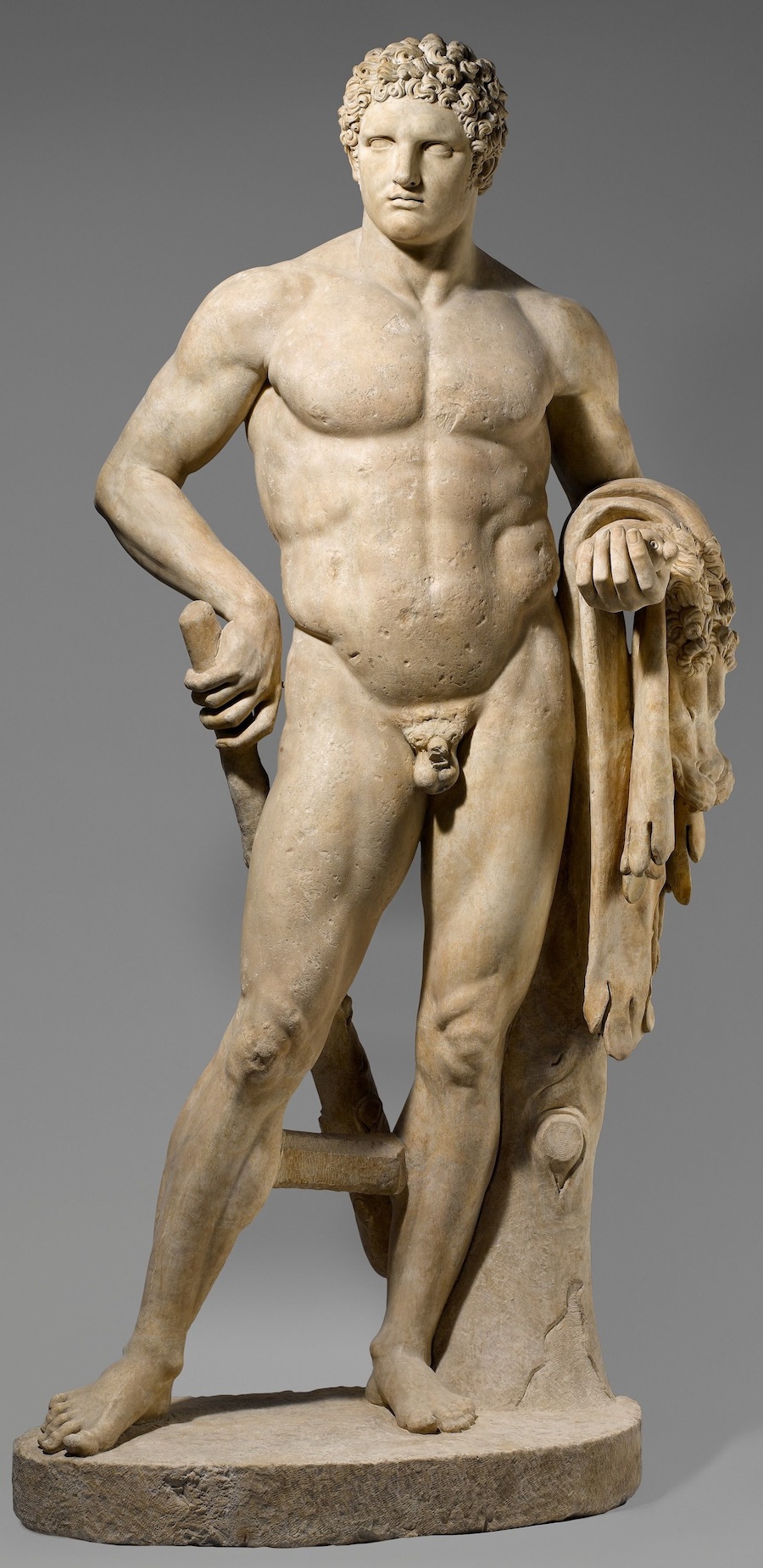
The Young Hercules
Sober Directness
and
Moral Strength
The Young Hercules
Sober Directness
and
Moral Strength

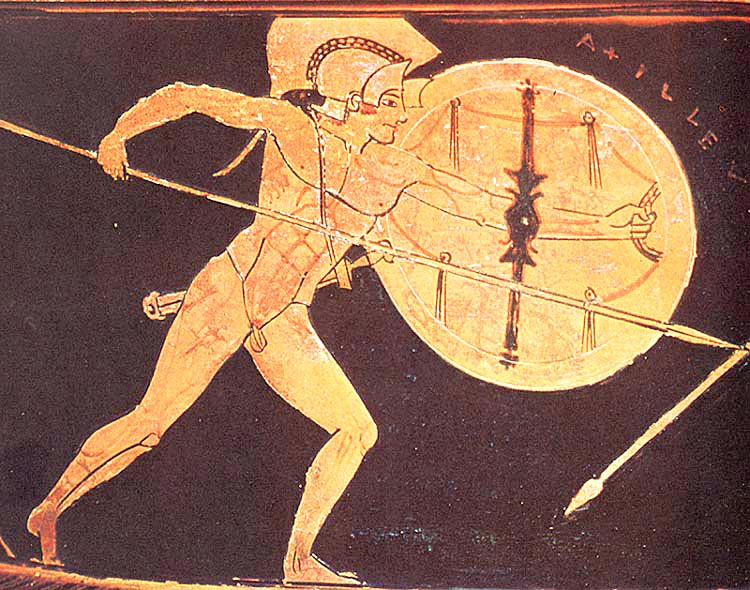




Indeed, to some historians -- notably the Swiss Jakob Burkhardt (1818 - 1897) -- this "agonal drive" was the key to understanding an entire mentality. In his unequivocal words, "All Greek life was animated by this principle."
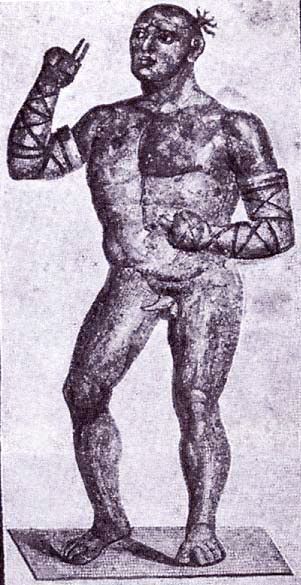
to be well spoken of by his fellow-citizens and by strangers, the choicest bloom of speech.
The inscriptions containing lists of victors in athletic and equestrian contests which have been found in or near Thespiae (C. /. G. G. S. i. Nos. 1764, 1765, 1766, 1769, 1770, 1772 ;
Bulletin de Corresp. Hellenique, 19 (1895), p. 369 sq.) probably refer to the games in honour of Love . . . . The inscriptions in question mention the customary athletic contests -- running, wrestling, boxing, the pancratium, the pentathlum, the torch-race, etc., as well as horse-races and chariot-races.
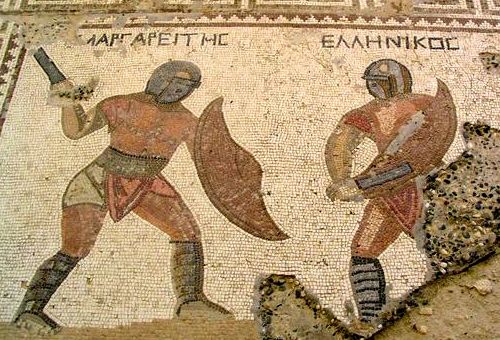
Gladiators in the Greek East
The Name of the Man on the Right Appears to be Hellenikos -- the Greek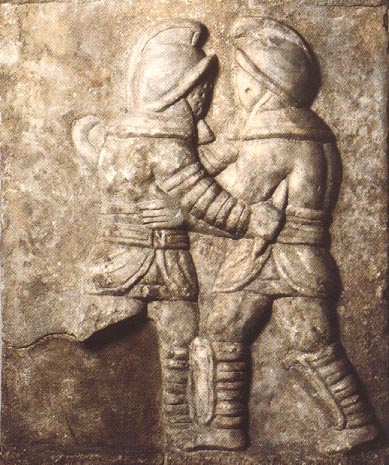

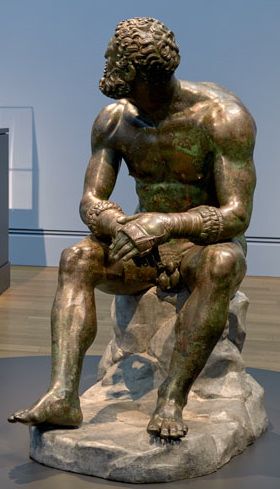



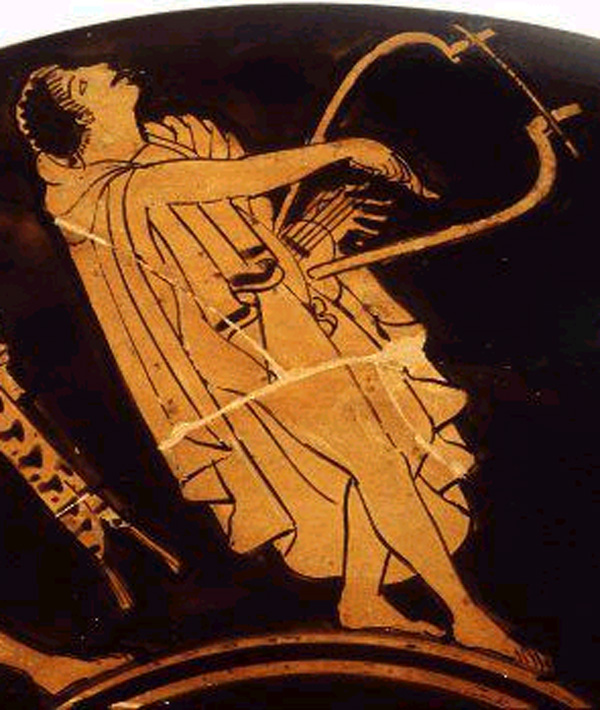
statues that stand on their same base.
and in every boat, sweet song,
go forth from Aigina and spread the news that
Lampon's mighty son Pytheas
has won the crown for the pankration in Nemea's games,
not yet showing on his cheeks late summer,
the mother of the grape's soft bloom.
his looks, and by winning in the wrestling match
he proclaimed long-oared Aigina as his fatherland,
where Themis, the saving goddess
enthroned beside Zeus, respecter of strangers, is
venerated most among men...
the son of Aristophanes has embarked on utmost
deeds of manhood, it is no easy task to go yet further
across the untracked sea beyond the pillars of Herakles,
which that God-Hero established as famed witnesses
of his furthermost voyage.
this hymn has struck
with young men's voices as it celebrates this land's joy.
Loud acclaim is in order for victorious Aristokleidas,
who has linked this island to glorious praise
and the hallowed delegation of the Pythian God
to splendid ambitions.
Strepsiadas too, for he is winner of victory at the Isthmos
in the pankration ; he is awesome in strength [sthenei t' ekpaglos]
and handsome to behold [idein te morphaeis],
and his success [Areta -- his Manly Excellence, his Fighting Manhood] is no worse than his looks [phua -- his fine growth, his noble stature].
[W]hen a man who has performed noble deeds [kala],
Hagesidamos, goes without song to Hades'
dwelling, in vain has he striven and gains for his toil but brief delight.
and the Pierian daughters of Zeus [the Muses] are fostering widespread fame [eury kleos -- Widespread Glory].
drenching with honey their city of brave men [euandria].
whom I saw winning [in Boys' Boxing] with the strength of his hand
by the Olympic altar
at that time,
beautiful of form
and imbued with the youthfulness that once averted ruthless death from Ganymedes [the Beloved of Zeus],
with the aid of the Cypress-born Goddess [Aphrodite, Goddess of Sex].

Zeus and his wife Hera on Olympos
Zeus' male lover Ganymedes stands between them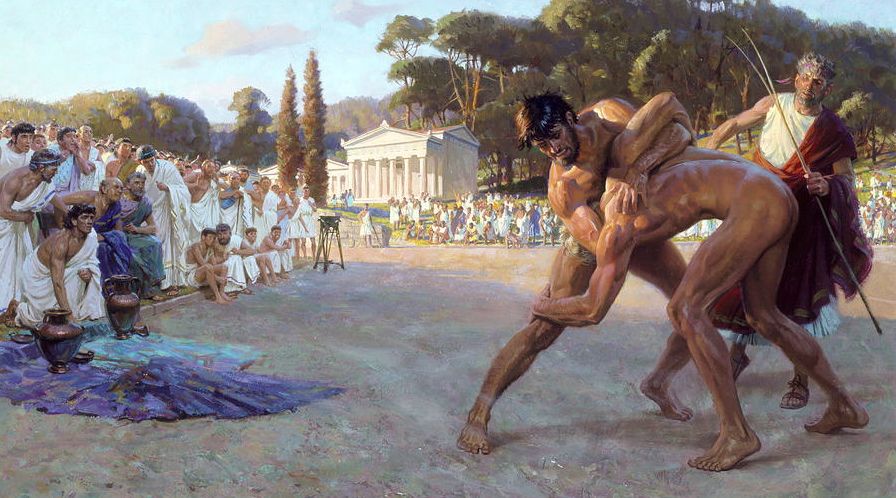
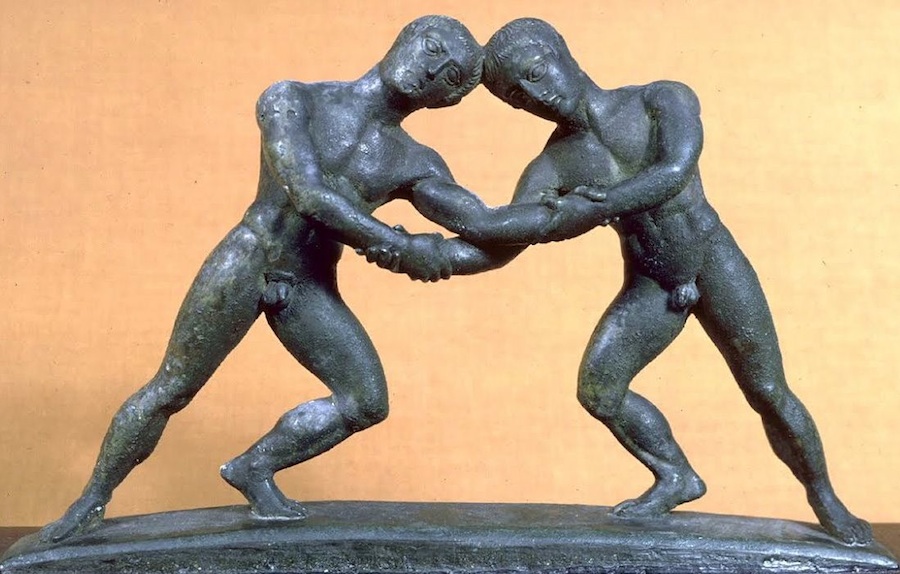


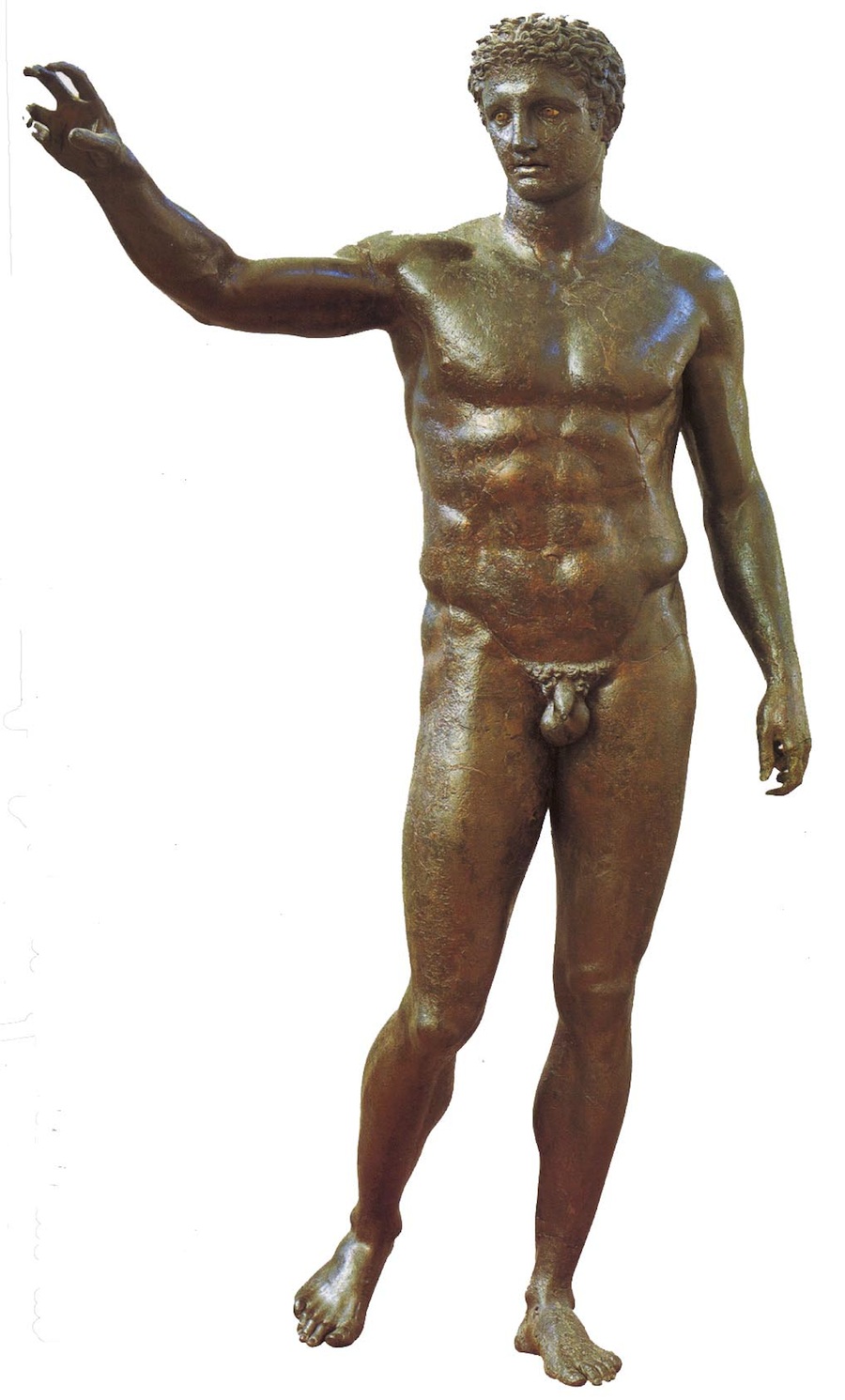



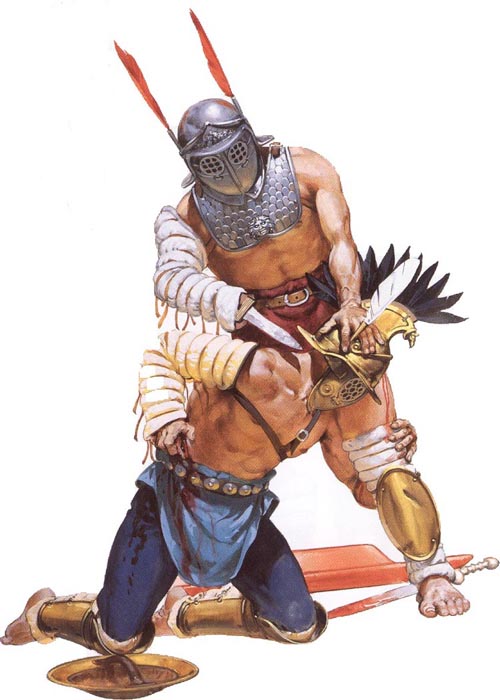

Gladiators Fight at a Funeral ca 350 BC
The Men carry the Hoplite Panoply

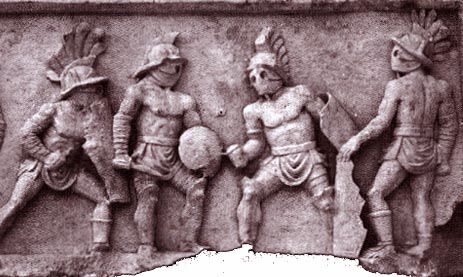
He had to his credit ten of the greatest and best achievements which sages spend their lives trying to attain. Namely, he wished to be a warrior of the first rank ; an outstanding public speaker ; a most courageous general ; one who won great military victories under his own auspices ; to hold the highest offices ; to have great wisdom ; to be considered the foremost senator ; to acquire a great deal of money in an honest fashion ; to leave behind many children ; and to be held in great fame in the community.
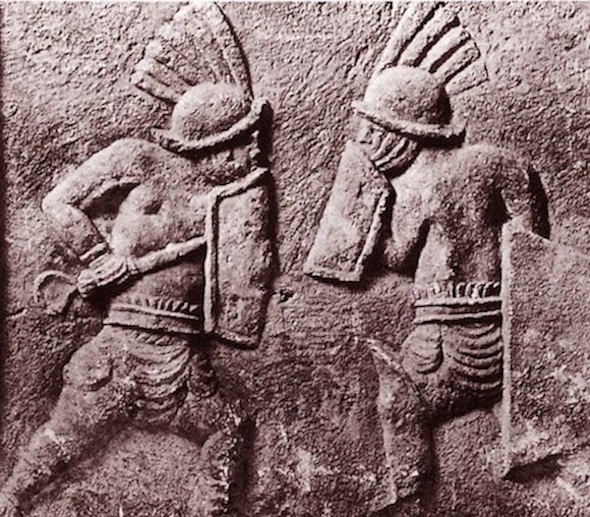



is instantiated by his battered and bloody face ; while his raised arms instantiate his Ability --
the martial merit, virile value, and warrior worth, he needs -- to Defeat his Opponent.




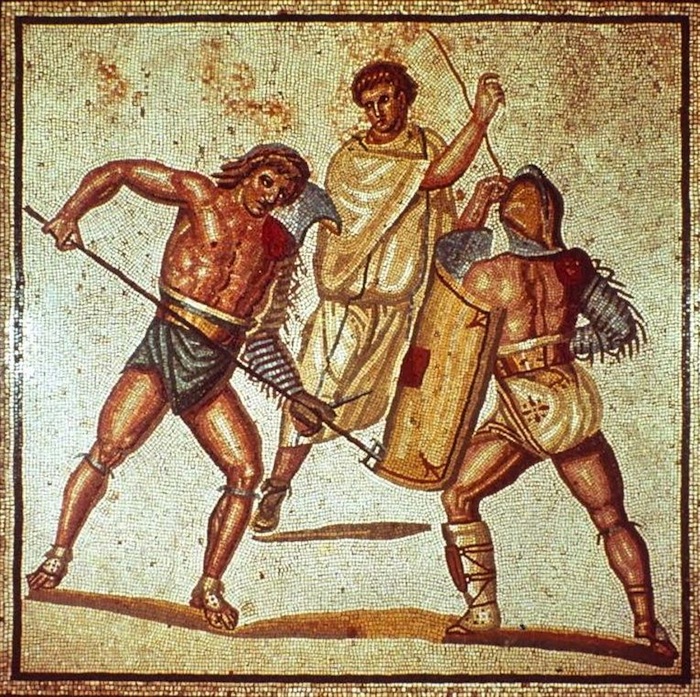
The Gladiator, like the Boxer, instantiates
Willingness and Ability
[W]hatsoever else you practice you must practice it In Union with Fighting Manhood, being well assured that when divorced from this all possessions and pursuits are base and ignoble. For neither does wealth bring honor to its possessor if combined with want of manhood and unmanliness -- for such an one is rich for another rather than for himself -- nor do beauty and strength appear comely, but rather uncomely, when they are attached to one who is un-manly and low, since they make their possessor more conspicuous and show up his lack of manhood ; and every form of knowledge when sundered from that which is just, right, lawful, and Manfully well-ordered and the rest of Manly Virtue, which at its most basic is Fighting Manhood -- is seen to be plain roguery rather than Warrior Wisdom.
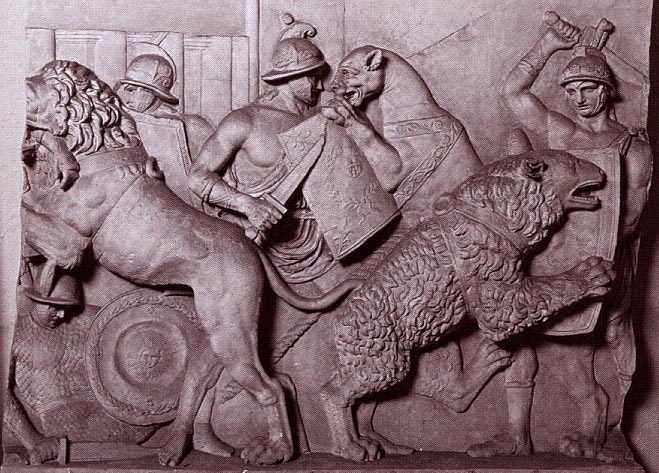
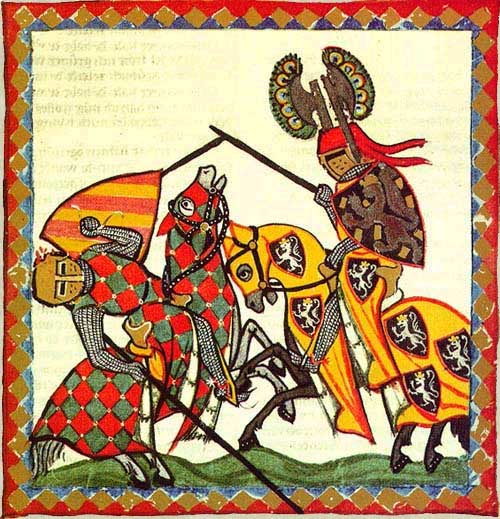
[In 218 BC,] Hannibal [the great Carthaginian general who invaded Italy] thought it well to encourage his soldiers by an object lesson before haranguing them. He therefore caused the army to gather in a circle for the spectacle, and setting in the midst some captive [probably Keltic] mountaineers with fetters on them, gave the order to throw some Keltic weapons down at their feet, and bade an interpreter enquire if any were willing to fight for life or death, on condition of being granted freedom, if victorious, and presented with a horse and arms.
[In 206 BC, the great Roman general] Scipio returned to (New) Carthage to pay his vows to the Gods and to conduct the gladiatorial show [munus gladiatorum] which he had prepared in honour of his deceased father and uncle. The exhibition of gladiators was not made up from the class of men which managers are in the habit of pitting against each other, that is, slaves sold on the platform and free men who are ready to sell their lives.
the idea that Andreia-Areta-Virtus, like Timé / Tima, was to be found or re-found in armed combat -- whether in glorious victory or glorious death -- was, and as should be clear to you from the preceding chapter -- core to the way Warriors, through years of rigorous training and upbringing, training and upbringing in the Warrior Way, training and upbringing which began early in boyhood, thought.
But when they fought [dimico], the feeling, not only in the hearts of the other captives but even amongst the onlookers in general, was such that the fortune of those who conquered was not more praised than that of those who met an honourable death. [bene mori -- to die honorably, bravely, creditably, gloriously]
when they fought [dimico], the feeling, not only in the hearts of the other captives but even amongst the onlookers in general, was such that the fortune of those who conquered was not more praised than that of those who met an honourable death [bene mori -- to die honorably, bravely, creditably, gloriously].
[W]hatsoever else you practice you must practice it In Union with Fighting Manhood, being well assured that when divorced from this all possessions and pursuits are base and ignoble. For neither does wealth bring honor to its possessor if combined with want of manhood and unmanliness -- for such an one is rich for another rather than for himself -- nor do beauty and strength appear comely, but rather uncomely, when they are attached to one who is un-manly and low, since they make their possessor more conspicuous and show up his lack of manhood ; and every form of knowledge when sundered from that which is just, right, lawful, and Manfully well-ordered and the rest of Manly Virtue, which at its most basic is Fighting Manhood -- is seen to be plain roguery rather than Warrior Wisdom.
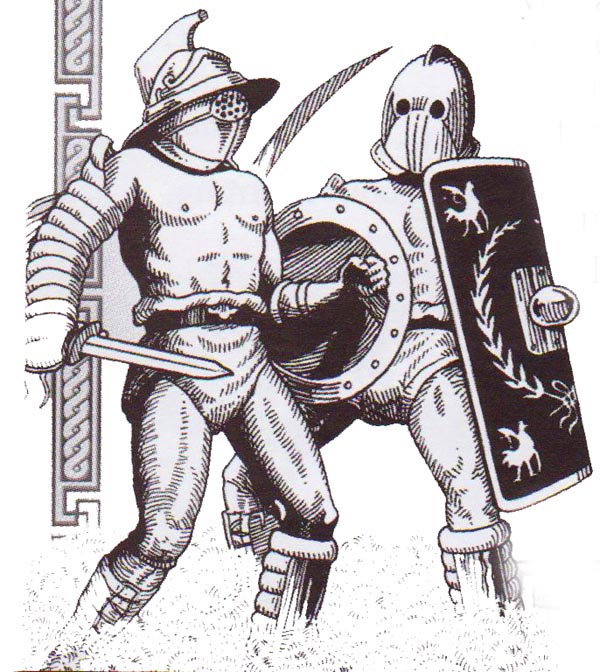


When you find yourself within a grove of exceptionally tall, old trees, whose interlocking boughs mysteriously shut out the view of the sky, the great height of the forest and the secrecy of the place together with a sense of awe before the dense impenetrable shades, will awaken in you the belief in a God. And when a grotto has been hewn into the hollowed rock of a mountain, not by human hands but by the powers of nature, and to great depth, it pervades your soul with an awesome sense of religion. We honor the sources of great rivers. Altars are raised where the sudden freshet of a stream breaks from below the ground. Hot springs of steaming water inspire veneration. And many a pond has been sanctified because of its hidden situation or immeasurable depth.
Other numina, of more constant presence, acquired more substantial character, as Jupiter, lord of the brilliant heavens and of storm, later identified with Zeus ; Mars, the War God, equated with Ares ; Neptune, the God of Waters, identified with Poseidon ; Faunus, the patron of animal life ; Silvanus, the God of the Woods.

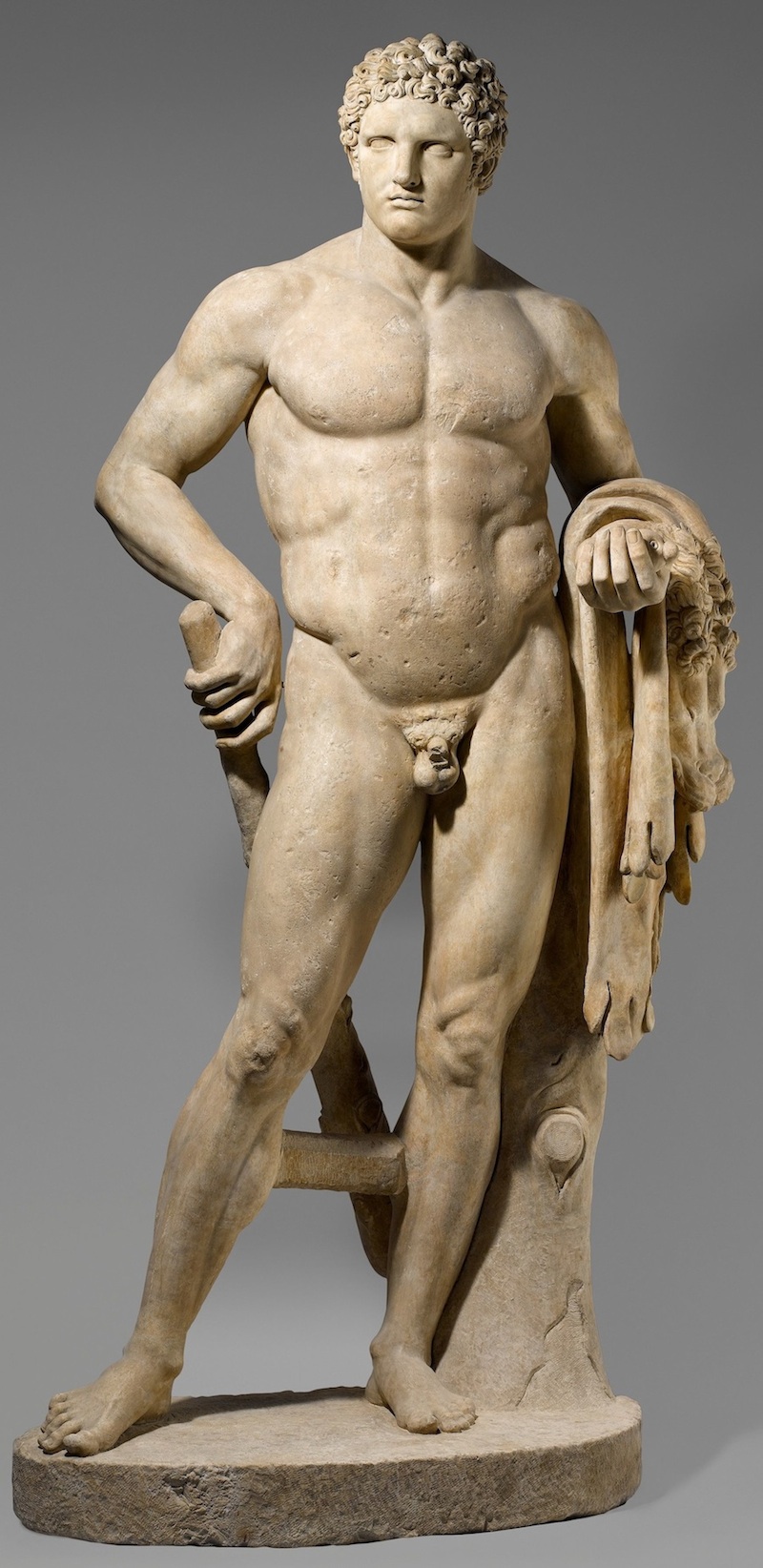
Hercules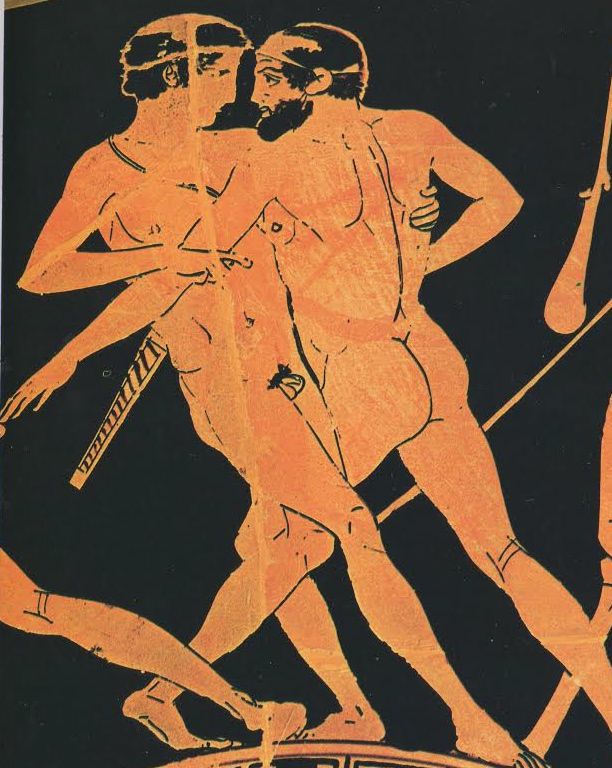
Theseus kills the murderer Kerkyon
If Carpophorus [a beast-slayer] had been born in the Olden Times, Caesar, then barbarian lands would have had no cause to fear the wild boar of Parthaon, nor Marathon the bull, nor leafy Nemea the lion, nor Arcadia the wild boar of Maenalus. If Carpophorus had taken up his weapon, there would have been a single death for the hydra ; all three elements of the Chimaera would have died at one blow from him ; without Medea's help, he could have yoked the fire-breathing bulls, and he could have destroyed either of Pasiphae's two monsters. If the myth of the sea-monster were to happen again, he on his own could set free both Hesione and Andromeda. Let the glories that make Hercules famous be counted up : it is a greater achievement to have killed twenty beasts on one occasion.
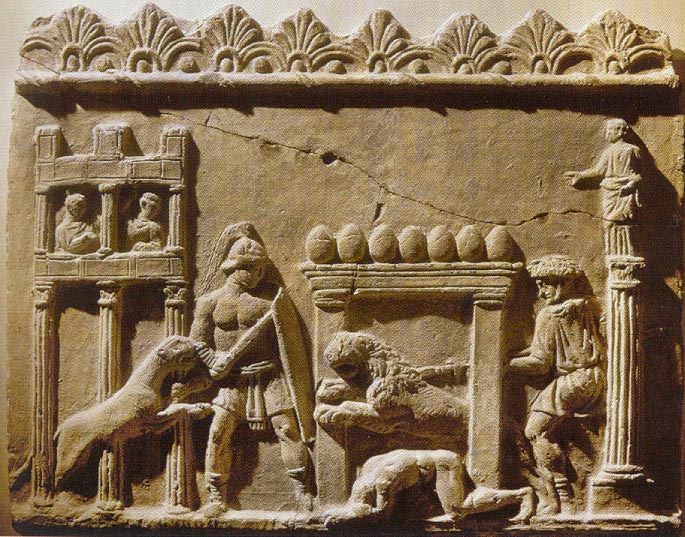
Here where the heavenly colossus is nearer to the stars it looks upon, and the tall scaffolding rises up in the middle of the highway, the hated palace of a wild tyrant used to stretch out, and a single house used to cover the entire city.
[At Sparta,] they go into a place surrounded by water [known as Plantanistas, or Plane-Tree Grove], choose up sides, and fight as if in actual war, although as naked as we Athenians are, until one team drives the other out of the enclosure into the water, the Sons of Herakles beating the Sons of Lykourgos or vice versa ; after this contest there is peace and no one would strike another.

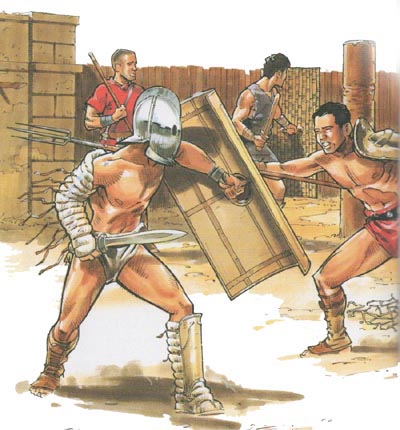
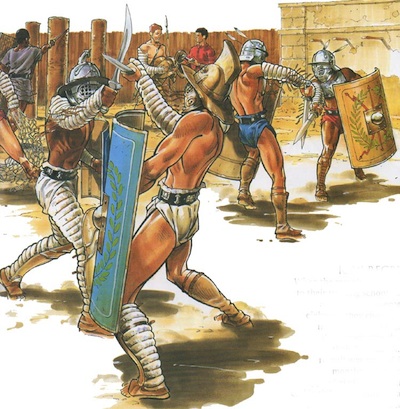
Composed of Men :
Gladiators train at a Ludus
For of all things good [agathos -- excellent, brave, Manly] and fair [kalos -- noble, selfless, morally beautiful], the Gods give nothing to Man without toil [ponos] and effort. If you want the favour of the Gods, you must worship the Gods : if you desire the love of friends, you must do good [euergesia] to your friends : if you covet honour [timé -- Worth] from a city, you must aid that city : if you are fain to win the admiration of all Hellas for Virtue [Areta -- Manly Virtue, which is Fighting Manhood], you must strive to do good to Hellas : if you want land to yield you fruits in abundance, you must cultivate that land : if you are resolved to get wealth from flocks, you must care for those flocks : if you essay to grow great through war [polemos -- fight] and want power to liberate your friends and subdue your foes, you must learn the arts of war [techne polemikos] from those who know them and must practise their right use : and if you want your body [soma] to be strong [dynatos], you must accustom your body to be the servant of your mind, and train it [gymnazo -- to train naked] with toil and sweat [ponos kai hydros].
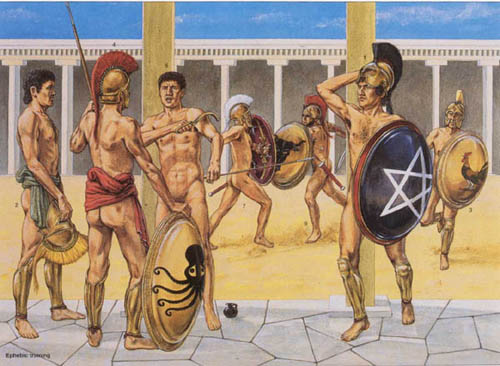
Composed of Men :
Ephebes train at a Palaistra
Composed of Men :
Gladiators train at a Ludus
"Observe then," said I, "that this part of such a soul, if it had been hammered from childhood, and had thus been struck free of the leaden weights, so to speak, of our birth and becoming, which attaching themselves to it by food and similar pleasures and gluttonies turn downwards the vision of the soul -- If, I say, freed from these, it had suffered a conversion towards the things that are real and true, that same faculty of the same men would have been most keen in its vision of the higher things, just as it is for the things toward which it is now turned."
All of their wealth for our Manly Virtue, since Virtue is ever abiding ;
Riches are held for a time here or there among men.


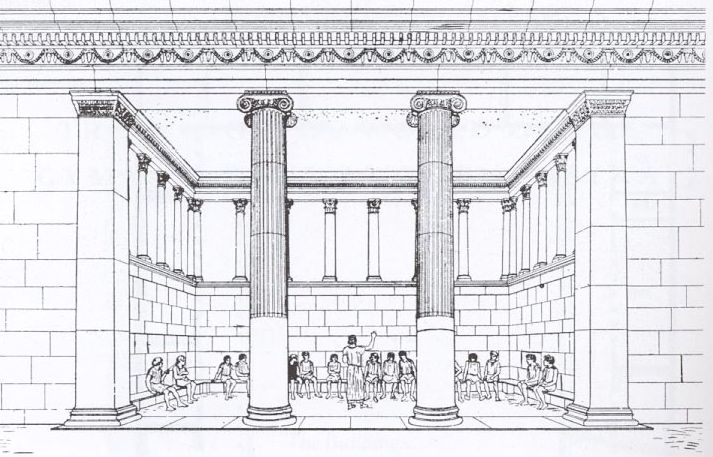
Aeschylus at the Isthmian games was watching a boxing-match, and when one of the men was hit the crowd in the theatre burst into a roar. Aeschylus nudged Ion of Chios, and said, 'You see what a thing training is ; the man who is hit says nothing ; it is the spectators who shout.'


On each occasion when they fought, gladiators enacted a spectacle of death and rebirth ; and they did that in the presence of the Roman people enabling individuals to come to terms with their mortality by reflecting on the unprecedented power and continuity of Rome's universal rule.






[The Gods] set in order our mode of life, not only in respect of daily business, by instructing us before all others in the arts [technai], but also in respect of the guardianship [phulake] of our country, by teaching us how to acquire and handle arms [hopla].
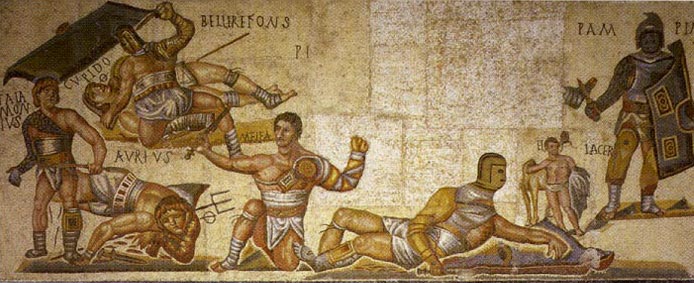
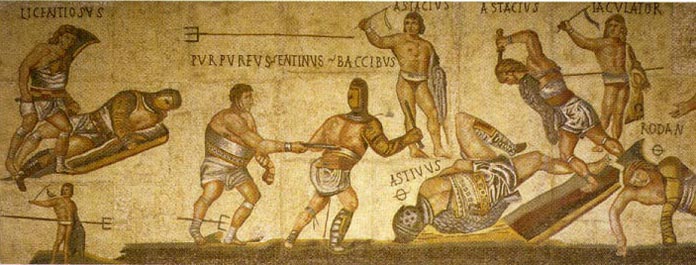
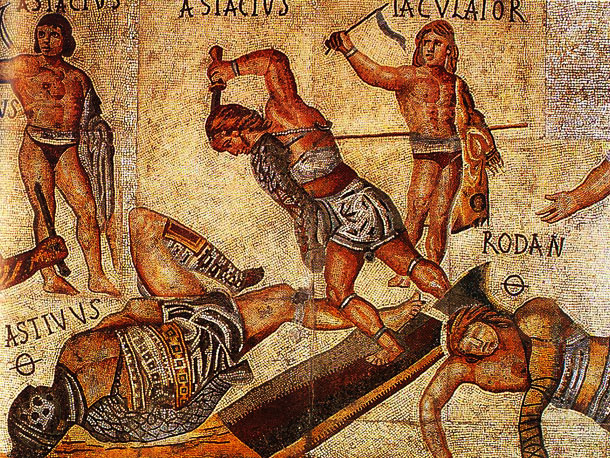
"O children, that you are born of valiant [agathos -- Excellent, Manly, Manfully Excellent] sires is clearly shown by the facts now before you: we, who might have ignobly lived choose rather to die nobly [kalos -- selflessly], before we bring you and those after you to disgrace, and before we bring shame [aischyne] upon our own fathers and all our earlier forebears, since we deem that life is unworthy to be lived for the man who brings shame upon his own, and that such an one has no friend amongst Gods or Man, either here on earth, or under the earth when he is dead.

A public entertainment, nothing lax or dissolute to weaken and destroy the manly spirit of his subjects, but one to inspire them to face honourable wounds and look scornfully upon death, by demonstrating a love of glory and a desire for victory even in the persons of criminals and slaves.
free citizens are made braver by seeing their inferiors set them a brave example
In the magnificence of public exhibitions of every kind [the Seleukid King Antiochus IV Epiphanies, r. 175-164 BC, who as a youth had been held hostage in Rome,] surpassed all former monarchs ; they were with only one exception given by Greek performers, the one exception being a gladiatorial contest exhibited in Roman fashion, which frightened the spectators, who were unused to such sights, more than it pleased them. By frequently giving these exhibitions, in which the gladiators sometimes only wounded one another, and at other times fought to the death, he familiarised the eyes of his people to them and they learnt to enjoy them. In this way he created amongst most of the younger men a passion for arms. . .
My next story shall be of a service rendered to myself, by my friend [philos -- beloved] Sisinnes. Induced by the desire for Greek culture, I had left my home and was on my way to Athens. The ship put in at Amastris, which comes in the natural route from Scythia, being on the shore of the Euxine, not far from Carambis. Sisinnes, who had been my friend [hetairos -- comrade and companion -- Lucian's use of the word associates Sisinnes and Toxaris with Warrior-Lovers Achilles and Patroclus, and Alexander and Hephaestion -- Men who were companions, lovers, and comrades at arms] from childhood, bore me company on this voyage. We had transferred all our belongings from the ship to an inn near the harbour ; and whilst we were busy in the market, suspecting nothing wrong, some thieves had forced the door of our room and carried off everything, not leaving us even enough to go on with for that day. Well, when we got back and found what had happened, we thought it was no use trying to get legal redress from our landlord, or from the neighbours ; there were too many of them ; and if we had told our story, -- how we had been robbed of four hundred darics and our clothes and rugs and everything, most people would only have thought we were making a fuss about a trifle. So we had to think what was to be done : here we were, absolutely destitute, in a foreign country. For my part, I thought I might as well put a sword through my ribs there and then, and have done with it, rather than endure the humiliation that might be forced upon us by hunger and thirst. Sisinnes took a more cheerful view, and implored me to do nothing of the kind : 'I shall think of something,' he said, 'and we may do well yet.' For the moment, he made enough to get us some food by carrying up timber from the harbour.
Abauchas started up, and leaving his sobbing children, and shaking off his wife, who clung to him and implored him to save her, he caught up his friend [hetairos -- Gyndanes] in his arms, and just managed to force his way down without being utterly consumed by the flames. His wife followed, carrying the boy, and bade the girl come after her ; but, scorched almost to a cinder, she was compelled to drop the child from her arms, and barely succeeded in leaping through the flames ; the little girl too only just escaped with her life.

Ares, called by the Latins Mars




The Root ΑΡ [ΑΡΗΣ], appears also in αρετε, the first notion of goodness (virtus)
being that of manhood, bravery in war.
Oxford. Clarendon Press. 1889.



is instantiated by his battered and bloody face ; while his raised arms instantiate his Ability --
the martial merit, virile value, and warrior worth, he needs -- to Defeat his Opponent.

















MANHOOD: A LEXICON
WARRIOR KOSMOS WARRIOR SANCTION
ARES is LORD : MANHOOD is GOD
To Hold in Your Hands
In Boyhood's Flower
Manhood's Power


[So the 24th of December was originally the Day of Consummation -- the Ultimate Day -- of the Games.]
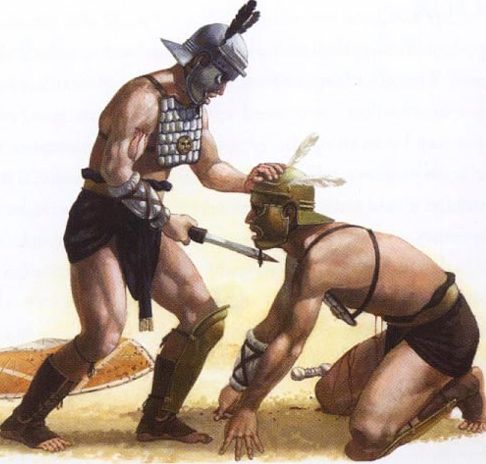
[T]he games were an expression of the belief, which had been fundamental to Roman society for centuries, that a person who was infamis, had no claim to respect from society, might nevertheless prove his virtus by fighting well in the arena.
There was a core belief, which had been fundamental to Warriordoms for centuries, that a person who was worthless, who had lost any claim to respect from society, might nevertheless reclaim his Manhood by Fighting.
For to a civil polity best arranged for peace and Areta -- that is, Manly Virtue -- and unanimity [homonoia] they [the Spartans] had attached empires and sovereignties won by force, not one of which Lykourgos thought needful for a city that was to live in happiness [eudaimonia] ; and therefore they fell.
It was not, however, the chief design of Lykourgos then to leave his city in command over a great many others, but he thought that the happiness [eudaimonia] of an entire city, like that of a single individual, depended on the prevalence of Manly Virtue [Areta] and concord [homonoia] within its own borders. The aim, therefore, of all his arrangements and adjustments was to make his people free-minded [eleutherios], self-sufficing [autarkes], and moderate [sophron -- sober, self-controlled] in all their ways, and to keep them so as long as possible. His design for a civil polity was adopted by Plato, Diogenes, Zeno, and by all those who have won approval for their treatises on the subject, although they left behind them only writings and words. Lykourgos, on the other hand, produced not only writings and words, but an actual polity which was beyond imitation, and because he gave, to those who maintain that the much talked of natural disposition to wisdom [sophos] exists only in theory, an example of an entire city given to the love of wisdom [philosophia], his family rightly transcended that of all who ever founded polities among the Greeks.
[9.71] On the side of the barbarians, the greatest courage was manifested, among the foot-soldiers, by the Persians ; among the horse, by the Sacae ; while Mardonius himself, as a man, bore off the palm from the rest. Among the Greeks, the Athenians and the Tegeans fought well ; but the prowess [Areta -- Fighting Manhood] shown by the Lakedaimonians was beyond either. Of this I have but one proof to offer -- since all the three nations overthrew the force opposed to them -- and that is, that the Lakedaimonians fought and conquered the best troops.
[9.85] The Greeks, after sharing the booty upon the field of Plataia, proceeded to bury their own dead, each nation apart from the rest. The Lakedaimonians made three graves ; in one they buried their youths, among whom were Posidonius, Amompharetus, Philokyon, and Kallikrates ; -- in another, the rest of the Spartans ; and in the third, the Helots. Such was their mode of burial. The Tegeans buried all their dead in a single grave ; as likewise did the Athenians theirs, and the Megarians and Phliasians those who were slain by the horse. . . .
[9.72] These then were the most distinguished of those who fought at Plataia. As for Kallikrates, -- the most beautiful man, not among the Spartans only, but in the whole Greek camp, -- he was not killed in the battle ; for it was while Pausanias was still consulting the [sacrificial] victims, [waiting for a favorable omen from the Gods,] that as he sat in his proper place in the line, an arrow struck him on the side. While his comrades advanced to the fight, he was borne out of the ranks, very loath to die, as he showed by the words which he addressed to Arimnestos, one of the Plataians; -- "I grieve," said he, "not because I have to die for my country, but because I have not lifted my arm against the enemy, nor done any deed worthy of me, much as I have desired to achieve something."
"I grieve," said he, "not because I have to die for my country, but because I have not lifted my arm against the enemy, nor done any deed worthy of me, much as I have desired to achieve something."
[A Spartan at the Battle of Plataia], mortally wounded by an arrow, said, as his life was ebbing away, 'I am not troubled because I must die, but because my death comes at the hands of a womanish archer, and before I have accomplished anything.'

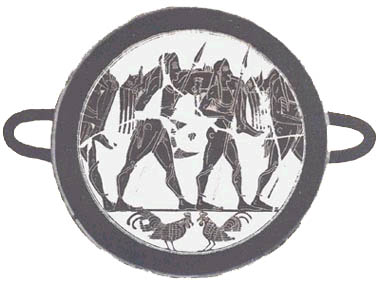


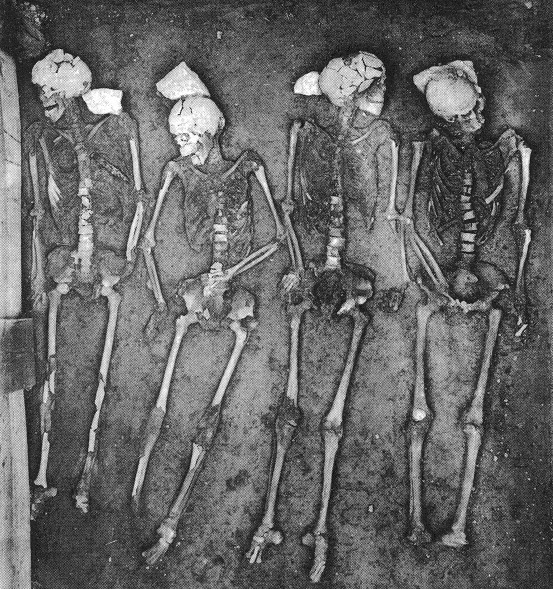
[33] There, as it chanced, the whole body of the [Athenian] light troops [psiloi] and likewise the [hoplitai] of the men in Piraeus [the port of Athens, about five miles from Athens itself] were arming themselves. And the light troops, rushing forth at once, set to throwing javelins, hurling stones, shooting arrows, and discharging slings ; then the Lakedaimonians, since many of them were being wounded and they were hard pressed, gave ground, though still facing the enemy ; and at this the latter attacked much more vigorously. In this attack Chairon and Thibrachus, both of them polemarchoi, were slain, and Lakrates, the Olympic victor, and other Lakedaimonians who lie buried before the gates of Athens in the Kerameikos.
In this attack Chaeron and Thibrachus, both of them polemarchoi, were slain, and Lakrates, the Olympic victor, and other Lakedaimonians who lie buried before the gates of Athens in the Kerameikos.




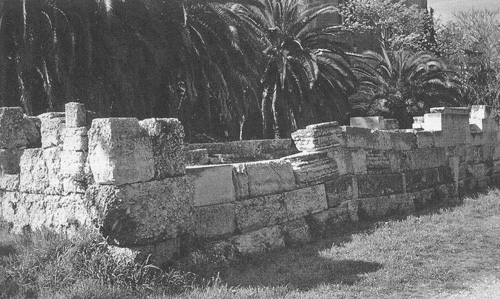
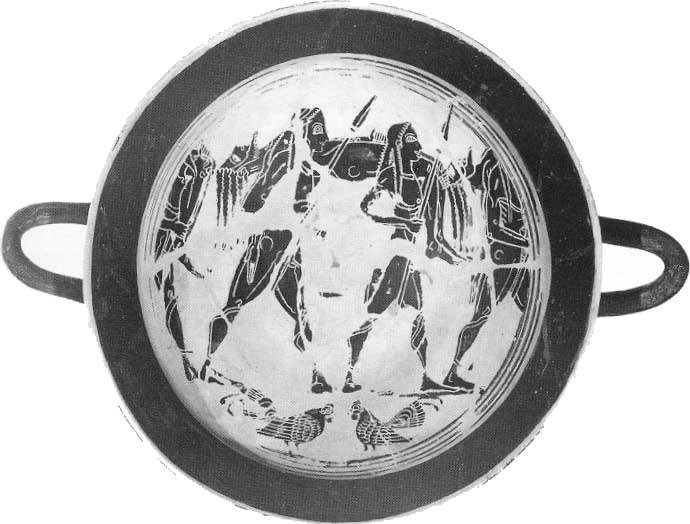






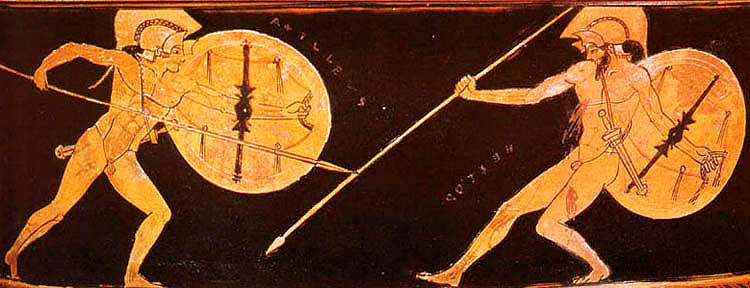
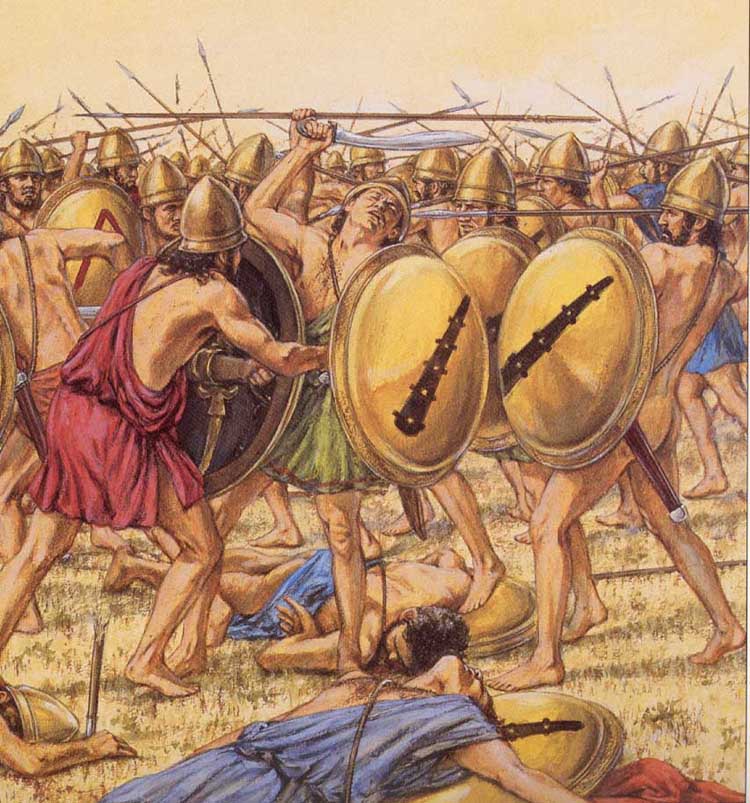
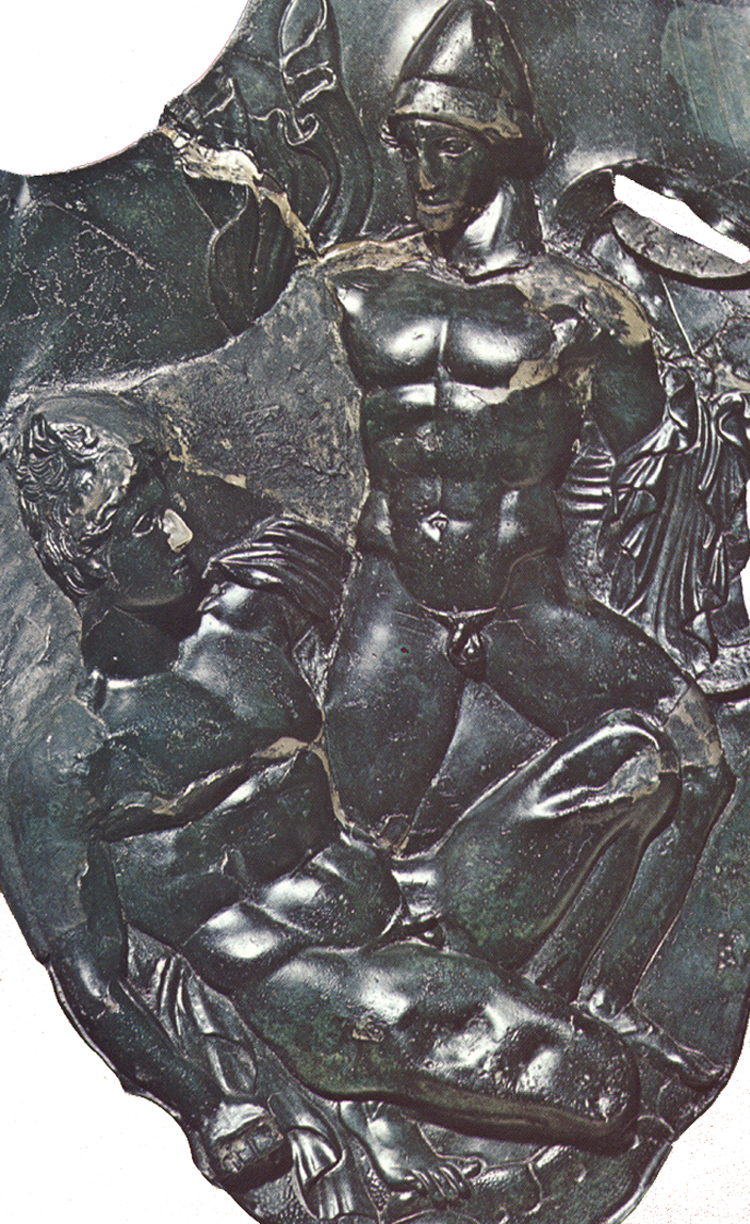

The polis [city-state] had a character, like a man ; it could be reliable or unreliable, honest, or corrupt, just or unjust ; it could practice hybris, aggressive insolence, or sophrosyne, self-control. . . .

A Spartan hoplites versus an Italic calvaryman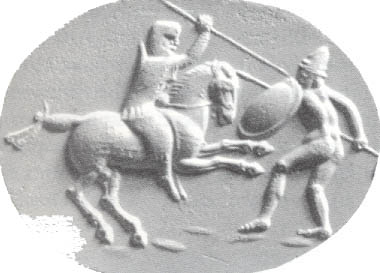

In ancient Greece, the two sexes lived largely separate lives. Males would spend much of the day in the fields, females around the house. Representations show, and texts describe, men doing dirty work, like ploughing, sowing or potting naked. Athletic nudity may have been ritual in origin. At the start of the Archaic period, light clothes were worn during athletic exercise, but they were eventually discarded completely. The rigours of warfare -- marching and fighting in heavy armour, often under the summer sun -- were hardly less demanding than those of sport and physical training. Nor was warfare of less ritual significance than sport. When we see representations of Spartans fighting without a tunic, we should not dismiss them as being 'artistic' or 'heroising' : undoubtedly, some are, but nudity in Greek art is, more often than not, a depiction of reality.

At Sparta lover and beloved stood beside each other in the hoplite line ; before battle the Spartans sacrificed to Eros, to love.
such relationships were institutionalized, played a large role in the training of boys, and were thought to contribute to bravery in combat.


such relationships were institutionalized, played a large role in the training of boys, and were thought to contribute to bravery in combat.
as they grew older they intensified their physical training, and got into the habit of cropping their hair, going barefoot, and exercising naked. From the age of twelve they never wore a tunic, and were given only one cloak a year. Their bodies were rough, and knew nothing of baths or oiling : only on a few days in the year did they experience such delights. They slept together by Squadron and Troop on mattresses which they made up for themselves from the tips of reeds growing along the River Eurotas, broken off by hand without the help of any iron blade. During winter they added the so-called thistledown and mixed it into the mattresses, since it was a substance thought to give out warmth.

where such a load of dishonour [atimia] is laid on the coward [kakos], death seems preferable to a life so dishonoured [atimos], so ignominious.









Primarium bellatorem, to excel as a warrior, is not only distinguished from, but precedes, being a brave general, military victories under his own auspices, and being elected to magistracies. Courage and skill in hand-to-hand combat was something required from every Roman legionary. . .
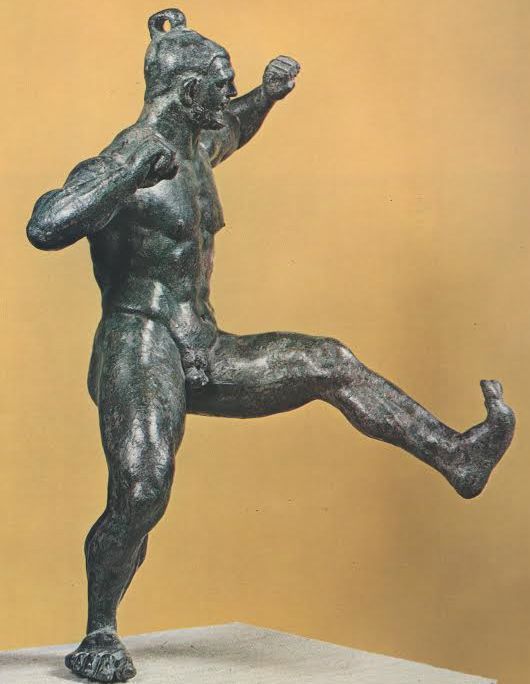
A Greco-Roman Pankratiast and Free Fighter
without worth, worthless, no longer a man, without existence, a dead male walking


A G O N I A
Men Struggling to Perfect Their Manhood


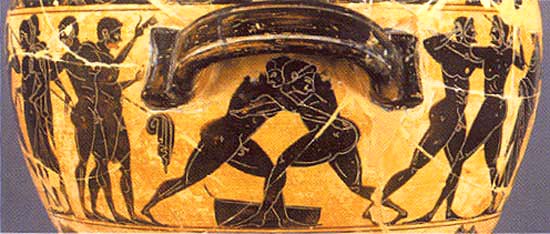

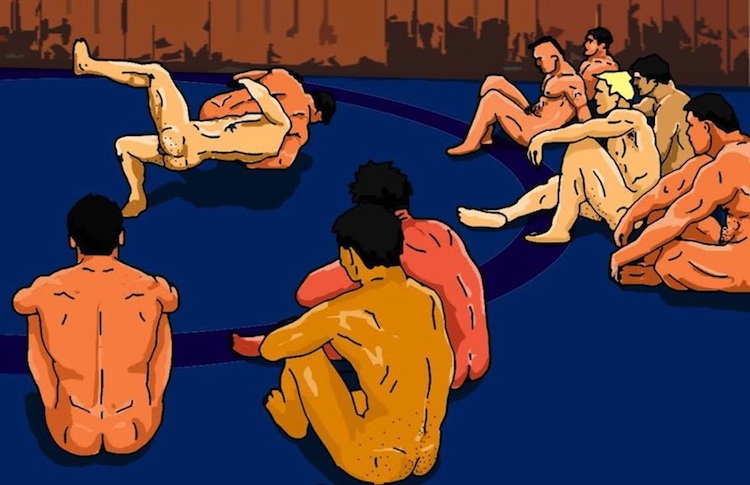
"Yea, sure." The other would snap back.



Duk Koo Kim (1959-1982). He gave his life to provide some entertainment on
a dull Saturday afternoon in November.
Agathos Daimon, nicknamed 'the Camel' from Alexandria, a victor at Nemea. He died here, boxing in the stadium, having prayed to Zeus for victory or death. Age 35. Farewell.



You come to the Olympic festival itself and to the finest event in Olympia, for right here is the men's pankration. Arrhachion, who has died seeking victory, is taking the crown for it, and this Olympic judge is crowning him. . . . Let's look at Arrhachion's deed before it comes to an end, for he seems to have conquered not his opponent alone, but the whole Greek nation. . . . They shout and jump out of their seats and wave their hands and garments. Some spring into the air, others in ecstasy wrestle the man nearby. . . . Though it is indeed a great thing -- he'd already won twice at Olympia, what has just now happened is greater : he has won at the cost of his life and goes to the Land of the Blessed with the very dust of the struggle. Don't think this is the result of chance! There were very clever advance plans for this victory. . . .

Arrhachion had been on the point of giving up when his trainer made him actually desire death by shouting, "What a noble epitaph, not to have conceded at Olympia!"

The death-scorning perseverance of athletes in combat sport practically became a byword, and Philo the Jewish philosopher wrote, "I know wrestlers and pankratiasts often persevere out of love for worth and zeal for victory to the point of death, when their bodies are giving up and they keep drawing breath and struggling on spirit alone, a spirit which they have accustomed to reject fear scornfully. . . . Among these competitors, death for the sake of an olive or celery crown is glorious."
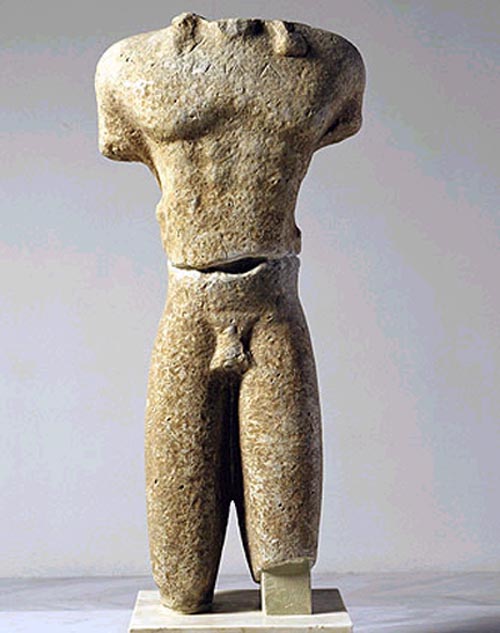

At the 54th Olympiad [564 BC], [Arrhachion] won a third time, partly because of the fairness of the judges, and partly because of his own areté -- his own Manly Excellence, his own Fighting Manhood. As he was fighting with the last remaining of his opponents for the olive, his opponent, whoever he was, got a grip first and held Arrhachion with his legs squeezed around Arrhachion's midsection and his hands squeezing around his neck at the same time. Meanwhile, Arrhachion dislocated a toe on his opponent's foot but was strangled and expired. At the same instant Arrhachion's opponent gave up because of the pain in his toe. The judges proclaimed Arrhachion the victor and crowned his corpse.

Arrhachion's opponent, who had already a grip around his waist, thought to kill him and put an arm around his neck and choked off his breath. At the same time he slipped his legs inside Arrhachion's groin and wrapped his legs around Arrhachion's knees, and pulled back until the sleep of death began to creep over Arrhachion's senses. But Arrhachion was not done yet, for as his opponent began to relax the pressure of his legs, Arrhachion kicked away his own right foot and fell heavily to the left, holding his opponent at the groin with his left knee still holding his opponent's foot firm. So violent was the fall that the opponent's left ankle was wrenched from the socket. For Arrhachion's soul, though it leaves his body feeble, still gives his body strength for this purpose.




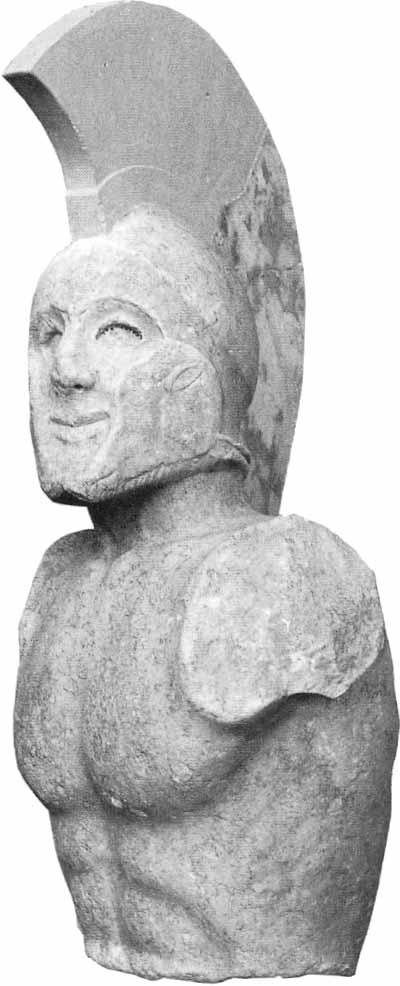


Agathos Daimon, nicknamed 'the Camel' from Alexandria, a victor at Nemea. He died here, boxing in the stadium, having prayed to Zeus for victory or death. Age 35. Farewell.
They frequently were taken from the realm of social ideals and therefore often refer to such concepts as glory, reputation, fame, etc., and in addition were combined with some other word which expressed the degree of or reason for such fame or reputation (such as Pericles, Themistocles, etc.). The name was an anticipation of the future areté of its bearer ; it set, as it were, the ideal pattern for his whole life.
when a man believes himself to be wronged, does not his spirit in that case seethe and grow fierce and make itself the ally of what he judges just [dikaios = morally well-ordered] ; and in noble [gennaios -- high-minded] souls it endures and wins the victory and will not let go until either it achieves its purpose, or death ends all
when a man believes himself to be wronged, does not his spirit in that case seethe and grow fierce and make itself the ally of what he judges just [dikaios = morally well-ordered] ; and in noble [gennaios -- high-minded] souls it endures and wins the victory and will not let go until either it achieves its purpose, or death ends all, or, as a dog is called back by a shepherd, it is called back by the reason within and calmed.
[At Sparta,] they go into a place surrounded by water [known as Plantanistas, or Plane-Tree Grove], choose up sides, and fight as if in actual war, although as naked as we Athenians are, until one team drives the other out of the enclosure into the water, the Sons of Herakles beating the Sons of Lykurgos or vice versa ; after this contest there is peace and no one would strike another.
when a man believes himself to be wronged, does not his spirit in that case seethe and grow fierce and make itself the ally of what he judges just [dikaios = morally well-ordered] ; and in noble [gennaios -- high-minded] souls it endures and wins the victory and will not let go until either it achieves its purpose, or death ends all, or, as a dog is called back by a shepherd, it is called back by the reason within and calmed.
Agathos Daimon, nicknamed 'the Camel' from Alexandria, a victor at Nemea. He died here, boxing in the stadium, having prayed to Zeus for victory or death. Age 35. Farewell.



I already witnessed once in a pankration contest a man who hurled blows with hands and feet, all of them well-directed, leaving nothing undone that might bring him victory, but who gave up, was worn out, and finally left the stadium uncrowned. The man being battered, on the other hand, was compact with solid flesh, mean, tough, exuding the athlete's spirit, and all muscle, like a stone or iron -- he didn't give in to the blows and broke the force of his opponent by the toughness and firmness of his endurance until he won the final victory.
strong, staunch, stout, sturdy, steadfast, mighty, potent

Who took the olive crown in pankration.
Whom Hellas called a man, seeing how in boyhood's flower
I held in my hands manhood's power.
My crown lay not in kind fortune's hazard, but in fight
without pause, I won of Olympia and Zeus the prize.
Of seven boys, alone I had no rest,
But always paired, the others of the crown I bereft.
So now I make glad my sire Eireinaios
And with immortal garlands my land of Ephesos.



so the Young Flower [pubes] of Argos and of Thebes were in sudden swarms locked . . . so great the War that from small bloodshed grows
































My crown lay not in kind fortune's hazard, but in fight
without pause, I won of Olympia and Zeus the prize.
Of seven boys, alone I had no rest,
But always paired, the others of the crown I bereft.



A silver urn is set forth, sacred to the God, in which small inscribed lots have been thrown, the size of a bean. On two lots alpha is inscribed, on two a beta, and on two others the gamma, and so on the same way : if there are more athletes, two lots always have the same letter. Now each athlete coming forth makes a prayer to Zeus and putting his hand down into the urn draws out one of the lots, and after him another athlete, and the whip bearer standing near each one holds his hand, not allowing him to read whatever letter it is he has drawn. When everyone already has a lot, the alutarch, I think, or one of these Hellanodikai . . . walking around looks at the lots of the athletes as they stand in a circle, and thus he joins the one holding the alpha to the other who has drawn the alpha for wrestling or pankration, the one who has the beta to the other with the beta, and the other matching inscribed lots in the same way.




Who took the olive crown in pankration.
Whom Hellas called a man, seeing how in boyhood's flower
I held in my hands manhood's power.
My crown lay not in kind fortune's hazard, but in fight
without pause, I won of Olympia and Zeus the prize.
Of seven boys, alone I had no rest,
But always paired, the others of the crown I bereft.
So now I make glad my sire Eireinaios
And with immortal garlands my land of Ephesos.

The names of the games [won by members of the Oligaithidai clan] at the different localities are given as follows : At Argos, Heraia or Hekatombaia ; at Thebes, Herakleia and Iolaia ; at Pellene, Diia, Hermaia, Theoxenia ; at Sikyon, Pythia ; at Megara, Diokleia, Pythia, Nemea, and Alkathooia ; in Aigina, Aiakeia, Heraia, Delphinia, or Hydrophoria ; at Eleusis, Eleusinia, Demetria ; at Marathon, Herakleia ; at Aitna, Nemea ; at Syracuse, Isthmia, as at Korinth ; in Euboia, Geraistia (in honor of Poseidon), Amarynthia (in honor of Artemis), Basileia.

: to be inspired or possessed by the God, be rapt, be in ecstasy
when a man believes himself to be wronged, does not his spirit in that case seethe and grow fierce and make itself the ally of what he judges just [dikaios = morally well-ordered] ; and in noble [gennaios -- high-minded] souls it endures and wins the victory and will not let go until either it achieves its purpose, or death ends all, or, as a dog is called back by a shepherd, it is called back by the reason within and calmed.
there could not rightly arise among the Warriors any law-suit for assault or bodily injury. For between age-fellows and comrades we shall say that to defend oneself, to repel an assault is morally beautiful and just, well-ordered, and righteous, thereby compelling them to keep their bodies in condition.

manliness, manhood, i. e. the sum of all the corporeal and mental excellences of man, strength, vigor; bravery, courage; aptness, capacity; worth, excellence.
Areté is mortal man. But it survives the mortal and lives on in his glory, in that very ideal of his areté which accompanied and directed him throughout his life.
Agathos Daimon, nicknamed 'the Camel' from Alexandria, a victor at Nemea. He died here, boxing in the stadium, having prayed to Zeus for victory or death. Age 35. Farewell.
Greek proper names . . . frequently were taken from the realm of social ideals and therefore often refer to such concepts as glory, reputation, fame, etc., and in addition were combined with some other word which expressed the degree of or reason for such fame or reputation (such as Pericles, Themistocles, etc.). The name was an anticipation of the future areté of its bearer; it set, as it were, the ideal pattern for his whole life.
The name was an anticipation of the future areté of its bearer ; it set, as it were, the ideal pattern for his whole life.
The name is an anticipation of the future areté of its bearer ; it sets, as it were, the ideal pattern for his whole life.
Klearchos, by common consent of all who were personally acquainted with him, seemed to have shown himself a man who was both fitted for war [polemikos] and fond of war [philopolemos] to the last degree.
[H]e was fond of danger, ready by day or night to lead his troops against the enemy, and self-possessed amid terrors, as all who were with him on all occasions agreed.
Lifeless to Pitane [a Spartan village] came, on his shield upborne, Thrasybulus ; Seven the wounds he received, pierced by the Argive spears ; All in the front did he show them ; and him with his blood-stained body Tynnichus placed on the pyre, saying these words in his eld : Let the poor cowards be mourned, but with never a tear shall I bury You, my son, who are mine, yea, and are Sparta's as well.'
Marcus Aurelius Asclepiades
I was a pankratiast, a periodonikes, undefeated, never pushed out of the skamma, never challenged, I won all contests in which I registered and I never myself challenged an opponent, nor did anyone venture to challenge me, I was never tied, never assaulted an opponent, never avoided a contest, never left a contest, nor won one by royal favor, nor did I win in irregular contest, but was crowned in the skamma itself in all the festivals for which I registered, having passed all their preceding inspections.
Bill Weintraub:
to become like to God, as far as may be; and to become like to God is to become righteous [dikaios] and holy [hosios -- pious and hallowed] and wise [phronesis -- the quality of thoughtfulness, prudence, temperance]
when a man believes himself to be wronged, does not his spirit in that case seethe and grow fierce and make itself the ally of what he judges just [dikaios = morally well-ordered], and in noble [gennaios -- high-minded] souls it endures and wins the victory and will not let go
when a man believes himself to be wronged, does not his spirit in that case seethe and grow fierce and make itself the ally of what he judges just [dikaios = morally well-ordered], and in noble [gennaios -- high-minded] souls it endures and wins the victory and will not let go until either it achieves its purpose, or death ends all, or, as a dog is called back by a shepherd, it is called back by the reason within and calmed.
was most Noble in Contest and most Pious in his Manner of Living . . . he blended as much Manly Virtue of soul as of body.



his looks, and by winning in the wrestling match
he proclaimed long-oared Aigina as his fatherland,
where Themis, the saving goddess
enthroned beside Zeus, respecter of strangers, is
venerated most among men...
the son of Aristophanes has embarked on utmost
deeds of manhood, it is no easy task to go yet further
across the untracked sea beyond the pillars of Herakles,
which that God-Hero established as famed witnesses
of his furthermost voyage.
this hymn has struck
with young men's voices as it celebrates this land's joy.
Loud acclaim is in order for victorious Aristokleidas,
who has linked this island to glorious praise
and the hallowed delegation of the Pythian God
to splendid ambitions.
Strepsiadas too, for he is winner of victory at the Isthmos
in the pankration ; he is awesome in strength [sthenei t' ekpaglos]
and handsome to behold [idein te morphaeis],
and his success [Areta -- his Manly Excellence, his Fighting Manhood] is no worse than his looks [phua -- his fine growth, his noble stature].
Strepsiadas too, for he is winner of victory at the Isthmos
in the pankration ; he is awesome in strength
and handsome to behold,
and his Areta -- his Manly Virtue -- is no worse than his looks.
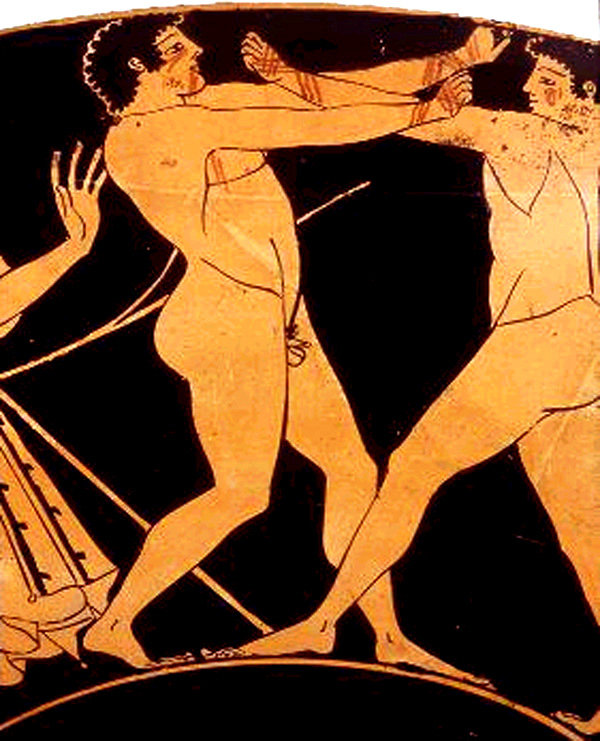
There is festal joy in the epinikion, wise and thoughtful counsel, the uplifting of the heart in prayer, the inspiration of a fervent patriotism ; all these, but none of them constitutes its character. That character is to be sought in the name itself. The epinikion lifts the temporary victory to the high level of the eternal prevalence of the beautiful and the good over the foul and the base, the victor is transfigured into a glorious personification of his race, and the present is reflected, magnified, illuminated in the mirror of the mythic past.

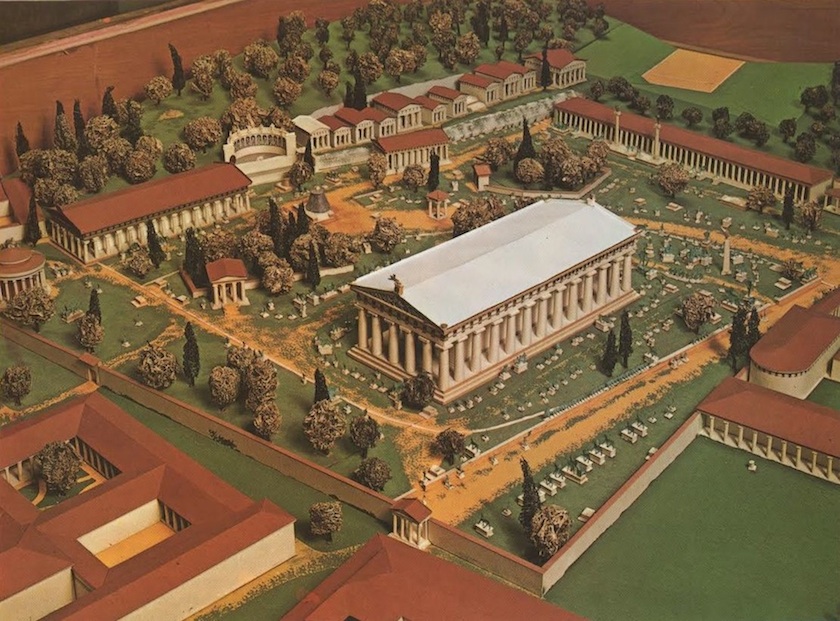
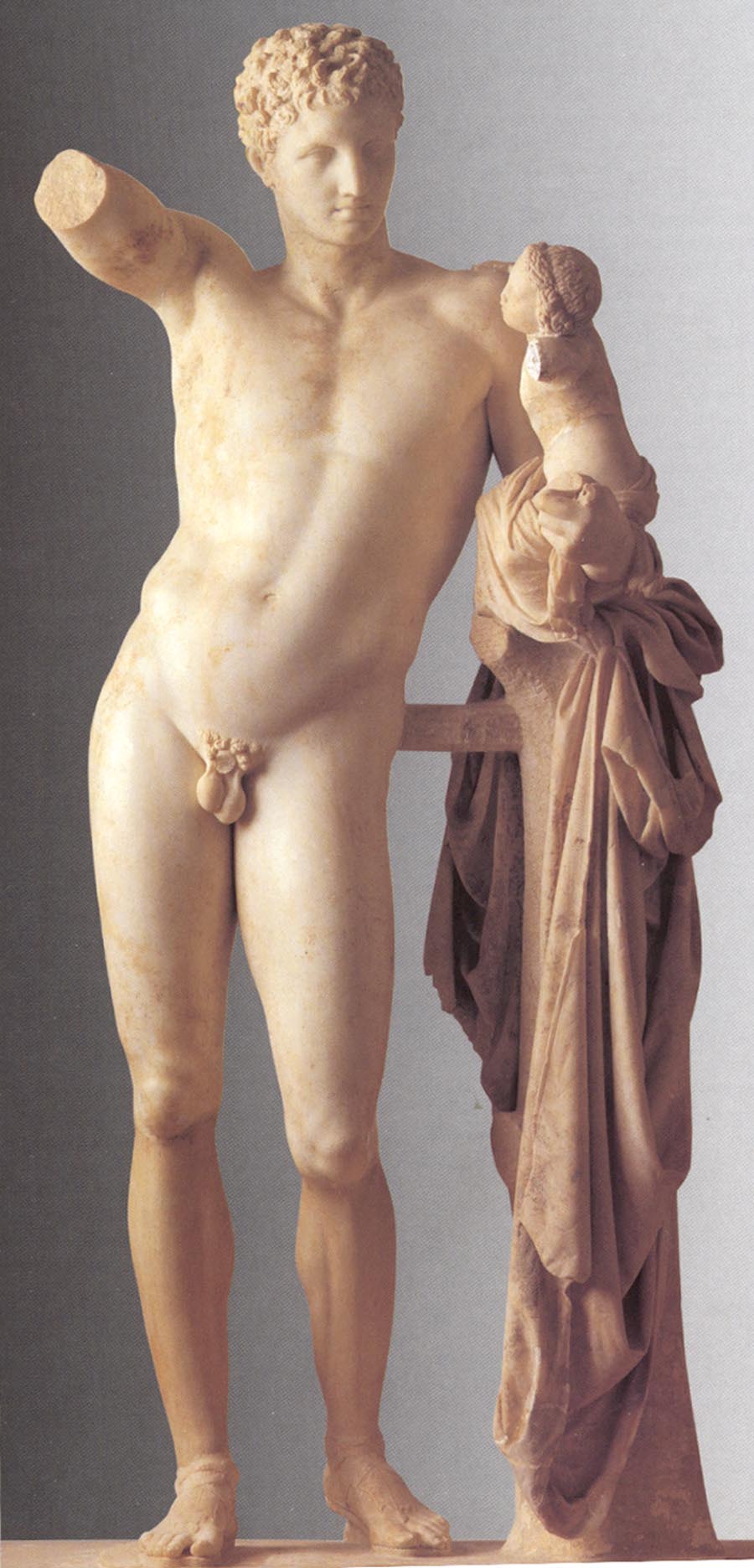

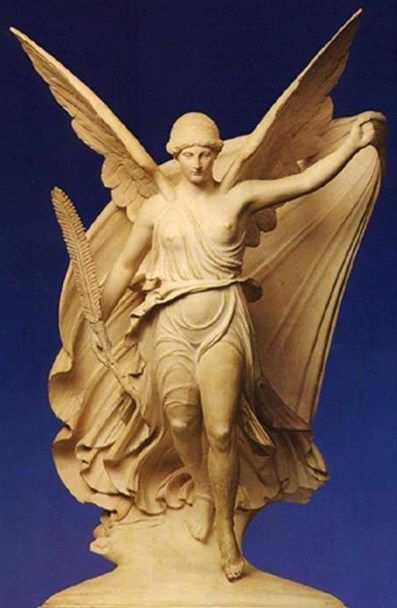


the glory is, after all, not the winner's, but the God's. . .
the glory is, after all, not the winner's, but the God's. . .
The human form, as some thing sacred in its perfection, was displayed in all its beauty and strength to the eye of day, as to the eye of the God.
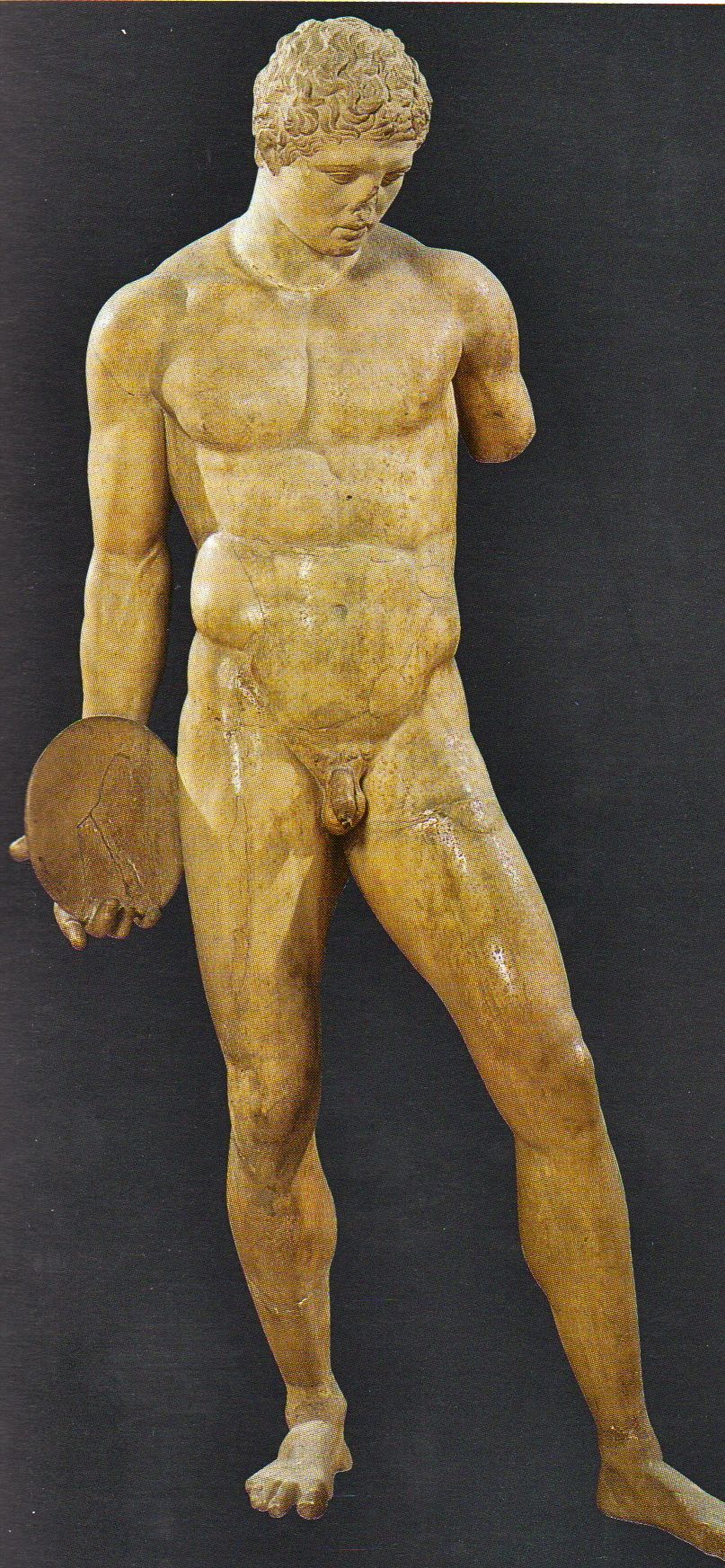



Who took the olive crown in pankration.
Whom Hellas called a man, seeing how in boyhood's flower
I held in my hands manhood's power.
My crown lay not in kind fortune's hazard, but in fight
without pause, I won of Olympia and Zeus the prize.
Of seven boys, alone I had no rest,
But always paired, the others of the crown I bereft.
So now I make glad my sire Eireinaios
And with immortal garlands my land of Ephesos.



despite all recent advance in athleticism, the Greek games were superior in plastic beauty to their modern analogues



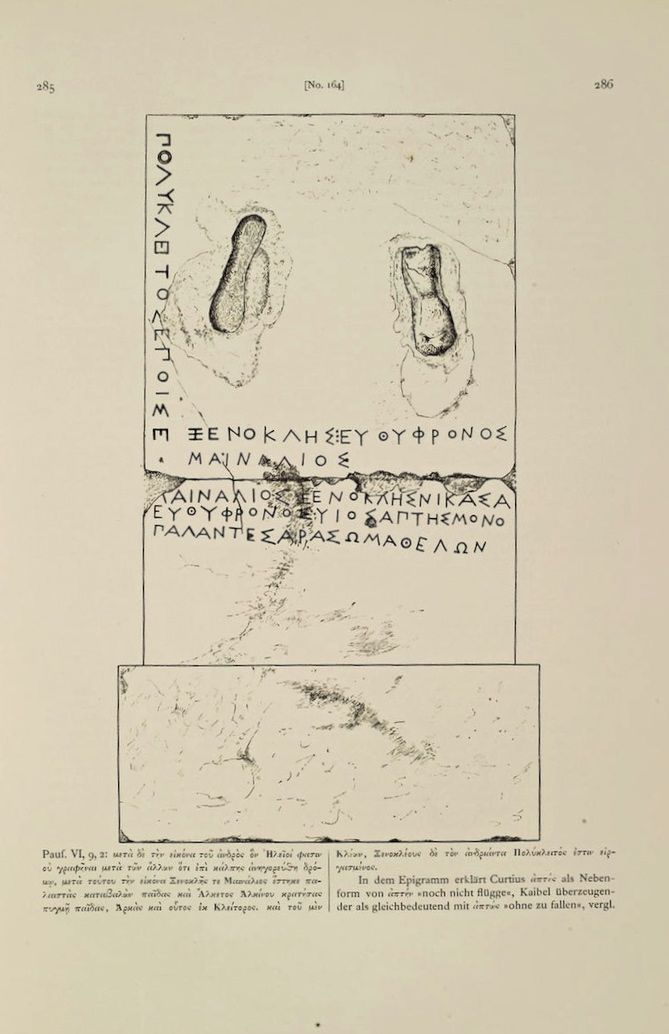
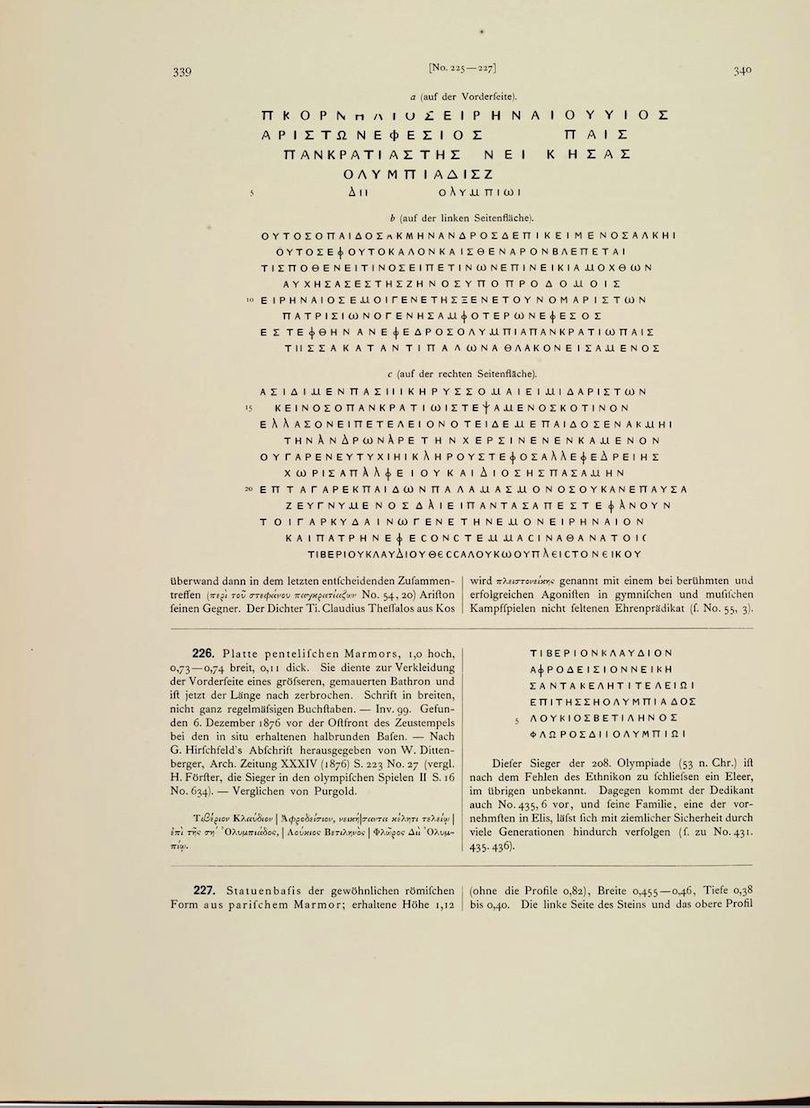
Areta exists in mortal man. Areta is mortal man. But it survives the mortal, and lives on in his glory, in that very ideal of his areta which accompanied and directed him throughout his life.
lifts the temporary victory to the high level of the eternal prevalence of the beautiful [kalos] and the good [agathos] over the foul [kakos] and the base [aischros], the victor is transfigured into a glorious personification of his race, and the present is reflected, magnified, illuminated in the mirror of the mythic past.
The Ideation of the Epinikon lifts the temporary victory of Ariston Most Manly to the high level of the eternal prevalence of the Morally Beautiful [kalos] and the Manly [agathos] over the shameful [aischros] and the un-manly [kakos -- evil, craven], the victorious Ariston of Ephesos is transfigured into a glorious personification of his race [by "race," Gildersleeve means Ariston's extended family, his gens or clan], and the present is reflected, magnified, illuminated in the mirror of the mythic past.
Areta exists in mortal man. Areta is mortal man. But it survives the mortal, and lives on in his glory, in that very ideal of his areta which accompanied and directed him throughout his life.
Plato, in the Kratylos :






















MANHOOD: A LEXICON
WARRIOR KOSMOS WARRIOR SANCTION
ARES is LORD : MANHOOD is GOD
To Hymn Aright the
Praises of the True
Life of Gods and
Blessed Men










The epinikion has for its basis the fact and the individual ; but it rises through the real to the ideal, through the individual to the universal. The light that shines about the victor's head brightens into the light of eternity ; the leaf of olive or of laurel becomes a wreath of amaranth.




is instantiated by his battered and bloody face ; while his raised arms instantiate his Ability --
the martial merit, virile value, and warrior worth, he needs -- to Defeat his Opponent.



The epinikion has for its basis the fact and the individual ; but it rises through the real to the ideal, through the individual to the universal. The light that shines about the victor's head brightens into the light of eternity ; the leaf of olive or of laurel becomes a wreath of amaranth.
The light that shines about the victor's head brightens into the light of eternity ; the leaf of olive or of laurel becomes a wreath of amaranth.






O children, that you are born of Manly [agathos] sires is clearly shown by the facts now before you : we, who might have ignobly lived choose rather to die nobly, before we bring you and those after you to disgrace, and before we bring shame upon our own fathers and all our earlier forebears, since we deem that life is unworthy [a-timé-tos] to be lived for the man who brings shame upon his own, and that such an one has no friend amongst Gods or man, either here on earth, or under the earth when he is dead.
Whatever discipline you practice -- askeo -- you must do it In Union with Manliness and Manly Virtue and Fighting Manhood -- Areta -- being well assured that when divorced from this all possessions and pursuits are base and ignoble.
education [paideia] of the young [hoi veoi] [in the Republic will be to produce]
Guardians [phulax -- Warriors] [who] are to be God-fearing [theosebes] Men and God-like [theios] in so far as that is possible for humanity.


"And don't you agree that the soldier who [in battle] wins the prize of valor [aristeuo] and distinguishes himself shall first be crowned by his fellows in the campaign, by the lads and boys each in turn?"
God is in no wise and in no manner unrighteous [adikos], but utterly and perfectly righteous [dikaiotatos = most righteous = superlative of dikaios], and there is nothing so like him as that one of us who in turn becomes most nearly perfect in righteousness [that is to say, no one of us is so like unto God as the one who becomes most nearly perfect in the expression of Manly Moral Order -- which is Manly Moral Righteousness.]












Whatever discipline you practice -- askeo -- you must do it In Union with Manliness and Manly Virtue and Fighting Manhood -- Areta -- being well assured that when divorced from this all possessions and pursuits are base and excrementally evil.
] in that case seethe and grow fierce (and also because of his suffering hunger, cold and the like) and make itself the ally of what he judges just [dikaios -- manfully morally ordered] ; and in noble [gennaios] souls it endures and wins the victory and will not let go . . .

[I]t is permissible to show pity to the man that has evils that are remediable, and to abate one's passion and treat him gently, and not to keep on raging like a scolding wife ; but in dealing with the man who is totally and obstinately perverse and wicked one must give free course to wrath.
"It is impossible to escape from other males' wrongdoings, when they are cruel and hard to remedy, or even wholly irremediable, otherwise than by victorious fighting and self-defence, and by punishing most rigorously ; and this no soul can achieve without Fighting Manhood."

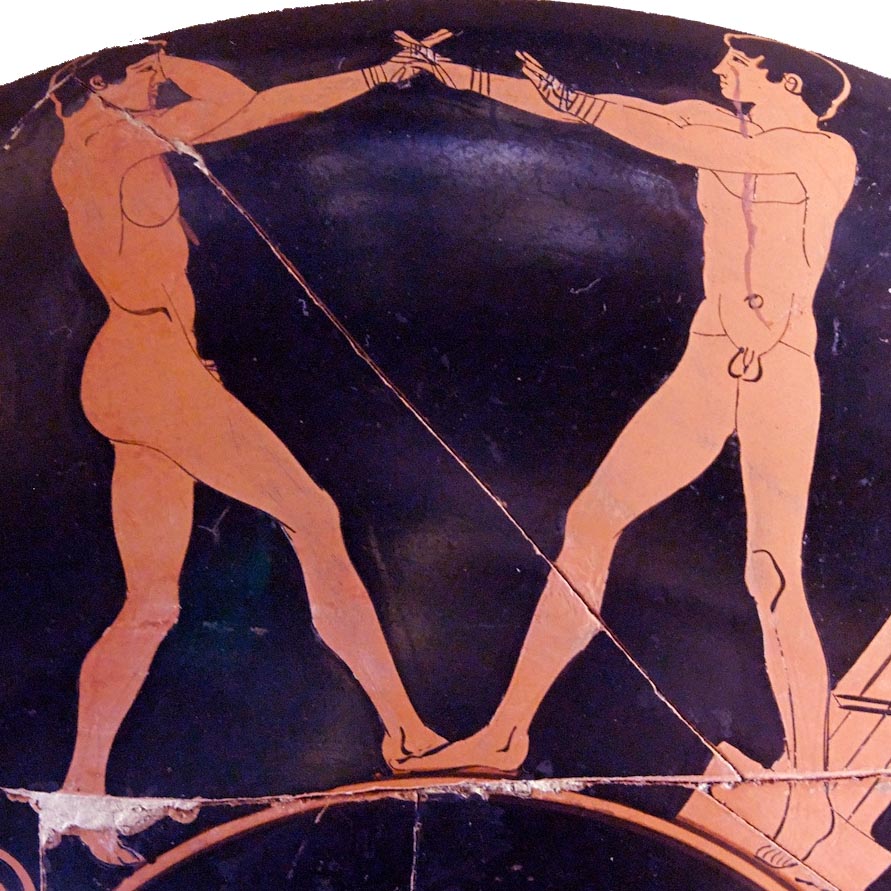
Whatever you do -- whatever you practice -- askeo -- you must do it In Union with Manliness and Manly Virtue and Fighting Manhood -- Areta -- being well assured that when divorced from this all possessions and pursuits are base and excrementally evil.
Whatever discipline you practice -- askeo -- you must do it In Union with Manliness and Manly Virtue and Fighting Manhood -- Areta -- being well assured that when divorced from this all possessions and pursuits are base and ignoble.
'While it's Morally Beautiful, in my view, to defeat one's opponents when Fighting on Equal Terms, I do not consider it morally well-ordered, to want to capture their city after having fought over land boundaries ; for I came to recover territory, not to seize a city.'
We are both warlike [polemikos] and wise [euboulos], and it is our sense of order [eukosmos] that makes us so. We are warlike, because self-control [sophrosyne] contains honor [aidos] as a chief constituent, and honor bravery [eupsychia]. And we are wise, because we are educated with too little learning to despise the laws [nomos], and with too severe a self-control to disobey them, and are brought up not to be too knowing in useless matters -- such as the knowledge which can give a specious criticism of an enemy's plans in theory, but fails to assail them with equal success in practice -- but are taught to consider that the schemes of our enemies are not dissimilar to our own, and that the freaks of chance are not determinable by calculation.
Plato's imagination and religious feeling require him to associate the ethical good of Man with the principles of order, harmony, measure, beauty, and good in the Universe.
We are both warlike [polemikos] and wise [euboulos], and it is our sense of order [eukosmos] that makes us so.
We are warlike, because self-control [sophrosyne] contains honor [aidos] as a chief constituent, and honor bravery [eupsychia]. And we are wise, because we are educated with too little learning to despise the laws [nomos], and with too severe a self-control to disobey them. . . .
arguments that would convince, or at least confute, the ethical nihilism of a war-weary, cynical and over-enlightened generation -- for proof, in short, that virtue and happiness coincide.


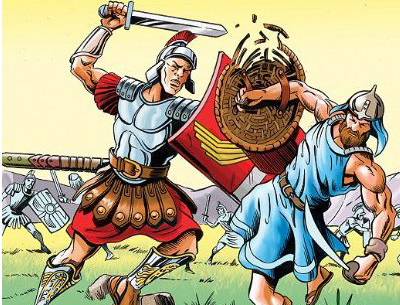
[In 206 BC, the great Roman general] Scipio returned to (New) Carthage to pay his vows to the Gods and to conduct the gladiatorial show [munus gladiatorum] which he had prepared in honour of his deceased father and uncle. The exhibition of gladiators was not made up from the class of men which managers are in the habit of pitting against each other, that is, slaves sold on the platform and free men who are ready to sell their lives.






Whatever discipline you practice -- askeo -- you must do it In Union with Manliness and Manly Virtue and Fighting Manhood -- Areta -- being well assured that when divorced from this all possessions and pursuits are base and ignoble.


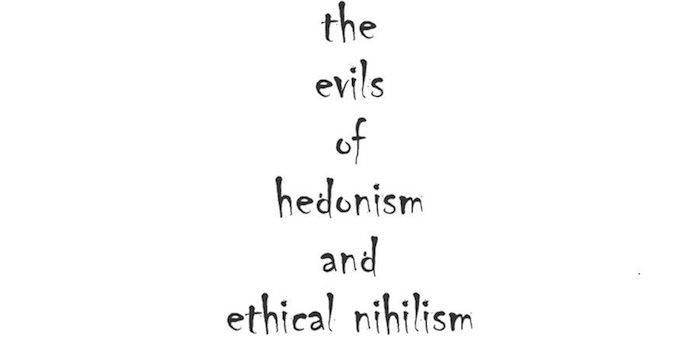


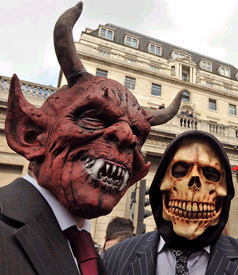

questions all standards of morality and aesthetics, and confuses justice and injustice, beauty and ugliness.
If it is duty, away with it.
If it is law, disobey it.
If it is opinion, go against it.
There is only one divinity, yourself,
Only one god, you.
I am done with the monster of 'we,' the word of serfdom, of plunder, of misery, falsehood and shame. And now I see the face of god, and I raise this god over the earth, this god whom men have sought since men came into being, this god who will grant them joy and peace and pride. This god, this one word: 'I.'
"We have, I take it, certain convictions from childhood about the just [dikaios -- the morally ordered] and the honorable [kalos -- the morally beautiful], in which, in obedience [peitharcheo] and honor [timao -- to honor, to deem Worthy] to them, we have been bred as children under our parents."
when a male ceases to deem worthy the principles of agathon -- that is, of Manhood, Manliness, Manly Goodness, and Manly Virtue -- and of kalon and of dikaiosyne -- that is, of Manly Moral Beauty and of Manly Moral Order -- and to think that they are no longer binding on him, and cannot, because he lacks training in dialectic and reasoning, discover any true principles to replace those he's rejected -- he'll be likely to adopt a way of life which flatters his desires
that which they don't is neglected.
Manhood is despised
Bill Weintraub:
"Then we shall rightly use the word 'necessary' [anankaios] of them?"
Plato often uses the paradigm of war to illustrate his theories of virtue and knowledge.

ΕΡΓΑ
In polychromed scenes from the Alexander Sarcophagus
Nude Heroic Greeks Fight Clothed Persians
ΕΡΓΑ
ΕΡΓΑ
Bill Weintraub:
In many details, the ethical doctrines of Plato and Aristotle were founded on the aristocratic morality of early Greece.

Achilles, son of [the Goddess] Thetis, the Gods honored and sent to his place in the Isles of the Blest [nesoi makaron -- "It may be we shall touch the Happy Isles, / And see the great Achilles, whom we knew" -- Tennyson, Ulysses], because having learnt from his mother that he would die as surely as he slew Hector, but if he slew him not, would return home and end his days an aged man, he had the courage and grace [tolmao] to go and succour [bontheo] his lover Patroclus, avenged [timoreo] him, and sought death not merely in his behalf [hyper-apothnesko -- to die for] but in haste to be joined with him whom death had taken [ep-apothnesko -- to die after]. For this the Gods so highly admired him that they gave him distinguished honor [Timé -- Worth], since he set so great a value on his lover. . . . For in truth, there is no sort of Manly Excellence [Areté -- Manhood, Manly Goodness, Manly Virtue] deemed more Worthy of Honour [timao] by the Gods than this which comes of Love [Eros].
We are not now that strength which in old days
Moved earth and heaven, that which we are, we are;
One equal temper of heroic hearts,
Made weak by time and fate, but strong in will
To strive, to seek, to find, and not to yield.
The most Warlike Men [machimotatos], including the Thebans, Spartans, and Cretans, are the most Romantically Passionate [erotikotatos] in their Male Love Affairs.
You know the tales of Aristogeiton of Athens and Antileon of Metapontum and Melanippus of Agrigentum : they had at first no quarrel with their tyrants, though they saw that these were acting like drunkards and disfiguring the state ; but when the tyrants tried to seduce their beloveds, they spared not even their own lives in defending their loves, holy [athiktos], as it were, and inviolable [asylos] shrines [hieron].


Aristogeiton and Harmodius
Warrior-Lovers and Tyrannicides

Bill Weintraub:
"Then we shall rightly use the word 'necessary' [anankaios] of them?"
willing, too, to perform actions both holy and unholy -- nay, utterly shameful -- without a scruple, provided only that he is able to sate himself to repletion, like a beast, with all manner of foods and drinks and wenchings.
True.
Then let this which I describe be laid down as one cause which hinders the States from adequately practicing either military operations or any other noble pursuits [kalon -- ta kala] and which turns men who are of a quiet nature into traders, ship-owners, and servants, while of the Manly [andreios] it makes pirates, burglars, temple-robbers, mercenaries, and tyrants -- and that though, in some cases, they are not ill-natured, but merely ill-fortuned.
grows timid, I fancy, and forthwith thrusts headlong from his heart's throne [thronos] that principle of love of honor [philotimia -- Love of Warrior Worth] and that high spirit [thumoeides -- Fighting Spirit], and being humbled by poverty [penia] turns to the getting of money [chrematismos], and greedily [glischros] and stingily and little by little by thrift and hard work collects property. Do you not suppose that such a one will then establish on that throne the principle of appetite [epithumetikos] and avarice [philochrematos], and set it up as the great king in his soul, adorned with tiaras and collars of gold, and girt with the Persian sword?"
"To return, then," said I, "we have to tell how the democratic man develops from the oligarchical type. I think it is usually in this way."
reverence, awe, respect for the feeling or opinion of others or for one's own conscience, and so shame, self-respect, sense of honour

Bill Weintraub:
The Magnet Clinic, where Rafael was diagnosed, did 9,600 H.I.V. tests last year. It lies in the heart of the Castro, the city's rainbow-flag-bedecked gay mecca, and resembles a cheery cellphone store: The waiting room has couches, flowers, disco music and photographs of the Sisters of Perpetual Indulgence, a campy drag troupe. A mobile of smiling penis toys dangled over one examination table.



reverence, awe, respect for the feeling or opinion of others or for one's own conscience, and so shame, self-respect, sense of honour
The story goes that when king Philip of Macedon was inspecting the dead after the fighting [at Chaeronea, where Philip's Macedonians defeated the combined forces of the Greeks], he stood at the place where the three hundred [Warrior-Lovers of the Sacred Band of Thebes] had faced the long pikes of his phalanx, and lay dead in their armor, their bodies piled one upon the other. He was amazed at the sight, and when he learned this was the band of the lovers and beloved, he wept and exclaimed, 'A curse on those who imagine that these men ever did or suffered anything shameful!'
And sometimes, again, another brood of desires [epithumia] akin to those expelled are stealthily nurtured to take their place, owing to the father's ignorance [an-epistemosune] of true education [trophe -- nourishment, nurture, bringing up], and wax numerous and strong."

The human form, as some thing sacred in its perfection, was displayed in all its beauty and strength to the eye of day, as to the eye of the God.


A Nude Boy Victor wears woolen bands and holds
a wreath. The bands or fillets "signify the
consecration of the victor to the God."
The Victor is a living sacrifice
to his God.
despite all recent advance in athleticism, the Greek games were superior in plastic beauty to their modern analogues
being young and fair [horiaos -- in the bloom of youth
] and performing the fairest [kallistos -- superlative of kalos -- most noble and beautiful] deeds
Pindar dwells on the personal beauty of the victors whenever he has an excuse.

his looks, and by winning in the wrestling match
he proclaimed long-oared Aigina as his fatherland,
where Themis, the saving goddess
enthroned beside Zeus, respecter of strangers, is
venerated most among men...
the son of Aristophanes has embarked on utmost
deeds of manhood [Anorea], it is no easy task to go yet further
across the untracked sea beyond the pillars of Herakles
Strepsiadas too, for he is winner of victory at the Isthmos
in the pankration ; he is awesome in strength [sthenei t' ekpaglos]
and handsome to behold [idein te morphaeis],
and his success [Areta -- his Manly Excellence, his Fighting Manhood] is no worse than his looks [phua -- his fine growth, his noble stature].
whom I saw winning [krateo -- conquering] [in Boys' Boxing] with the strength of his hand [alke cheir]
by the Olympic altar
at that time,
beautiful of form [ ιδεα τε καλον]
and imbued with the youthfulness [hora -- early manhood] that once averted ruthless death from Ganymedes [the Beloved of Zeus],
with the aid of the Cypress-born Goddess [Aphrodite, Goddess of Sex].
Pindar dwells on the personal beauty of the victors whenever he has an excuse.

[Pindar] has praised the Lokrians, he has praised the son of Archestratos [Hagesidamos], a vigorous prizer and a Ganymede for beauty.


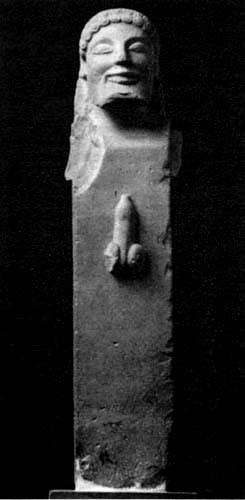

A Victorious Boxer stands in the Palaistra
On the left is a Herm
A Boy Fight Victor crowns an ithyphallic Herm ;
the winged Goddess Nike holds a woolen band
which will consecrate the Victor to the God.
Herms were present in every Palaistra ; and,
Religious rites were common in Palaistrai ;
All athletics had religious connotations.
Whatever else you practice you must practice it In Union with Fighting Manhood, being well assured that when divorced from this all possessions and pursuits are base and ignoble.
being well assured that when divorced from this all possessions and pursuits are base and ignoble






questions all standards of morality and aesthetics, and confuses justice and injustice, beauty and ugliness.
And sometimes, again, another brood of desires [epithumia] akin to those expelled are stealthily nurtured to take their place, owing to the father's ignorance [an-epistemosune] of true education [trophe -- nourishment, nurture, bringing up], and wax numerous and strong."
Today's opinion is the product of a court, which is the product of a law-profession culture, that has largely signed on to the so-called homosexual agenda, by which I mean the agenda promoted by some homosexual activists directed at eliminating the moral opprobrium that has traditionally attached to homosexual conduct.
In sum
NOTES
to "an anus is not a vagina"
[P]sychologist Walt Odets says efforts to make anal sex unerotic reflect homophobia. "I think that anal sex has for gay men the same emotional significance that vaginal sex has for heterosexuals," says Odets, author of In the Shadow of the Epidemic. "No one would propose that we initiate a public-health measure by de-eroticizing vaginal sex. It would sound like a ridiculous idea. It's no less ridiculous for gay men."
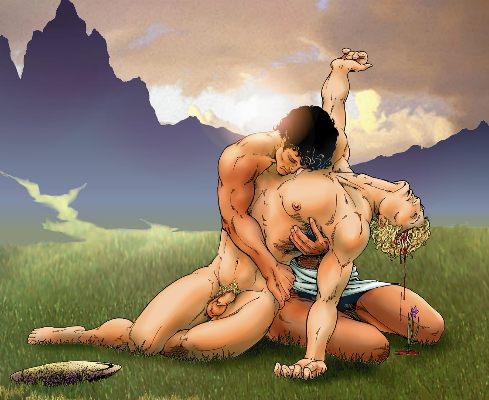







Why Our Children Don't Think There Are Moral Facts
is embedded in the Common Core.]
Seropositive respondents engaged in anal receptive sexual techniques with more sexual partners than did seronegative respondents, whereas seronegatives engaged in manual sexual techniques with more sexual partners than did seropositives.
What would you say if you found out that our public schools were teaching children that it is not true that it's wrong to kill people for fun or cheat on tests?

Beware the new-age bunny
Are Frot and anal penetration essentially equal?


Strong, noble, decent, and caring
The Man2Man Alliance gives a provocative introduction to men with a new vision of sex, a vision in tune with the historical emphasis on manly love between heroes and warriors. They're into man on man mating, not just the rubbing of genitalia. And they're into love between men who are strong, noble, decent, and caring. These are ideas whose time has come.
Yang-Yang, Yin-Yang, or none of the above?
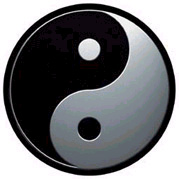
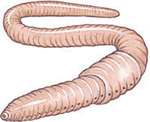


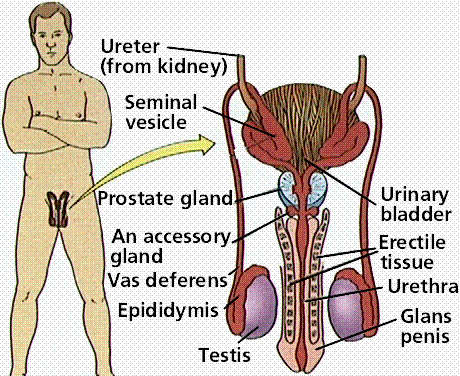
erectile tissues are found in the penis
which is richly endowed with sensory nerve endings
the glans penis is particularly sensitive
while the skin of the scrotum is very sensitive
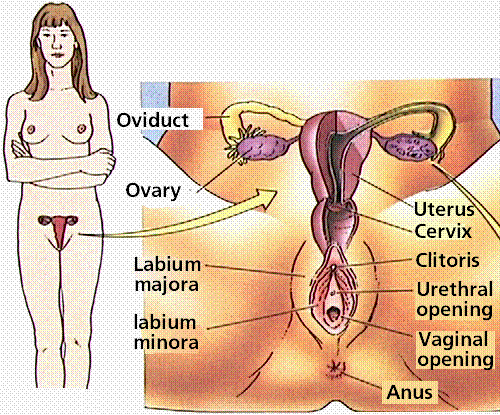
erectile tissues are found in the clitoris and around the entrance to the vagina
which is richly endowed with sensory nerve endings
the glans clitoris is particularly sensitive
while the lining of the vagina is morphologically equivalent to the skin of the scrotum
A Man and a Woman




A Man and a Man

got squirrel?
no prob dudes
you got each other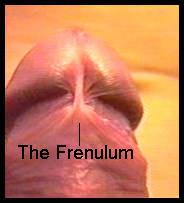





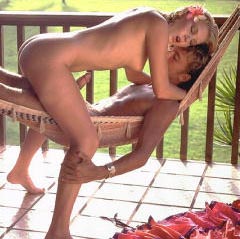

Mutual Genitality
The Essence of HeteroSex The Essence of HomoSexWhen penis and testicles are joined: a quintessentially male intercourse

Dirt, Danger, and Degradation
Spreading disease
Anal sex is the highest risk sex act [sic] that men who have sex with men can perform. Virtually every STD can pass between partners during anal sex, and for most, penetration isn't necessary and a condom may not protect you. STDs are harder to diagnose when they are inside your anal canal and not on your penis. STDs commonly passed during anal sex include: HIV, herpes simplex, gonorrhea, syphilis, molluscum contagiosum, crabs, human papillomavirus (HPV), hepatitis, and chlamydia. [5]
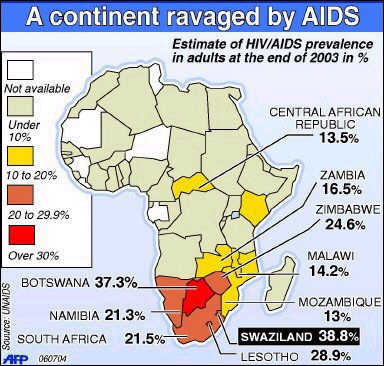
In a recent 365Gay column, safer sex educator James Murray related the frightening story of a man who had contracted gonorrhea anally. The gonorrhea got into his bloodstream and he required intravenous treatments in a hospital. [12]
Unnatural
Would you stick your penis in a car exhaust pipe? A littered hole in the ground? or in a moldy fungus-growing loaf of bread perhaps? Of course not, but all of the above are much more of a cleaner situation than inserting your cock in an ass, AND SAFER...
Degrading
NOTES
[end of Notes excerpted from Protective Stupidity and the Debasement of Language Under Analism.
The ruin of Paganism, in the age of Theodosius [ca 391 AD], is perhaps the only example of the total extirpation of any ancient and popular superstition, and may therefore deserve to be considered as a singular event in the history of the human mind.
The policy of the emperors and the senate, as far as it concerned religion, was happily seconded by the reflections of the enlightened, and by the habits of the superstitious, part of their subjects. The various modes of worship, which prevailed in the Roman world, were all considered by the people, as equally true ; by the philosopher, as equally false ; and by the magistrate, as equally useful. And thus toleration produced not only mutual indulgence, but even religious concord.
a body of humanistic and classical ideals associated with ancient Greece and including reason, the pursuit of knowledge and the arts, moderation, civic responsibility, and bodily development --
constitutional government, civil liberties, free exchange of ideas, self-critique, and separation between religious and political/scientific thought.
constitutional government, civil liberties, rationalism, free exchange of ideas, self-critique, and separation between religious and political/scientific thought



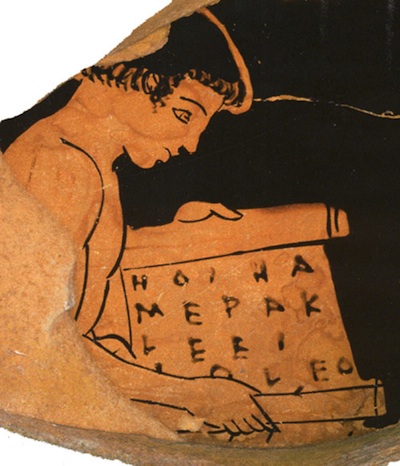

In many details, the ethical doctrines of Plato and Aristotle were founded on the aristocratic morality of early Greece. . . [which has a] permanent truth and indescructible ideality
'Always existing by nature between every Greek city-state', so Plato said of war. Most Greeks agreed : war was about the most important thing we humans do. It was fighting -- not philosophy, not literature, not architecture, not vase-painting -- that best revealed virtue, cowardice, skill or ineptitude, civilization or barbarism. For his own epitaph the dramatist Aeschylus wrote of his one-day experience at Marathon -- [Aeschylus had been a Marathonomaches -- a Marathon Fighter, a Marathon-Man -- one of the Athenian Warriors who had Fought and Defeated the Persians at the Battle of Marathon in 490 BC, and he considered that the most important act of his life -- because it made him a brave man, that is to say a Manly Man, a Man who was Willing and Able to Fight] -- with not a mention of his authorship of the monumental trilogy the Oresteia.
Bill Weintraub:
arguments that would convince, or at least confute, the ethical nihilism of a war-weary, cynical and over-enlightened generation -- for proof, in short, that virtue and happiness coincide.
Where the kings were deprived of their power, authority passed to the local aristocracy. Thus the great step forward was made from government by a single ruler to government by a group of men. The new rulers were the descendants of Warriors who had seized land and established estates during the Dark Age. Initially, only landowners could be aristocrats ; later, some wealthy merchants and manufacturers were admitted to the class.
goodness, excellence, of any kind, esp. of manly qualities, manhood, valour, prowess, Hom., Hdt. (like Lat. vir-tus, from vir).
This is the tomb of Arniadas. Him flashing-eyed Ares destroyed as he fought by the
ships at the streams of Aratthus, displaying the highest valor [aristeia] amid the groans and shouts of War.
Bill Weintraub :
in fact, they shall do literal fighting with balls and darts as nearly real as possible -- though the points of the darts shall be made less dangerous -- in order that their games of combat may not be devoid of some element of alarm, but may provide terrors and indicate to some extent who is stout-hearted [eupsychos] and who not [me] : to the former the lawgiver shall duly assign honors [Tima -- Worth], to the latter degradation [a-timia -- UN-worth, disgrace], that thus he may prepare the whole State to be serviceable throughout life in the real contest [agon].
By this time, years and good general precepts will have furnished them more distinctly with that act of reason which in Ethics is called Proairesis : that they may with some judgement contemplate upon moral good and evil. Then will be required a special reinforcement of constant and sound indoctrinating to set them right and firm, instructing them more amply in the knowledge of virtue and the hatred of vice : while their young and pliant affections are led through all the moral works of Plato, Xenophon, Cicero, Plutarch, Adertius, and those Locrian remnants . . .



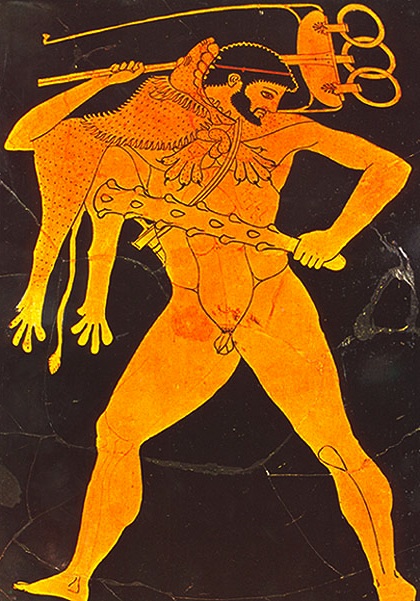





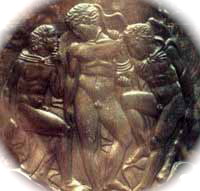


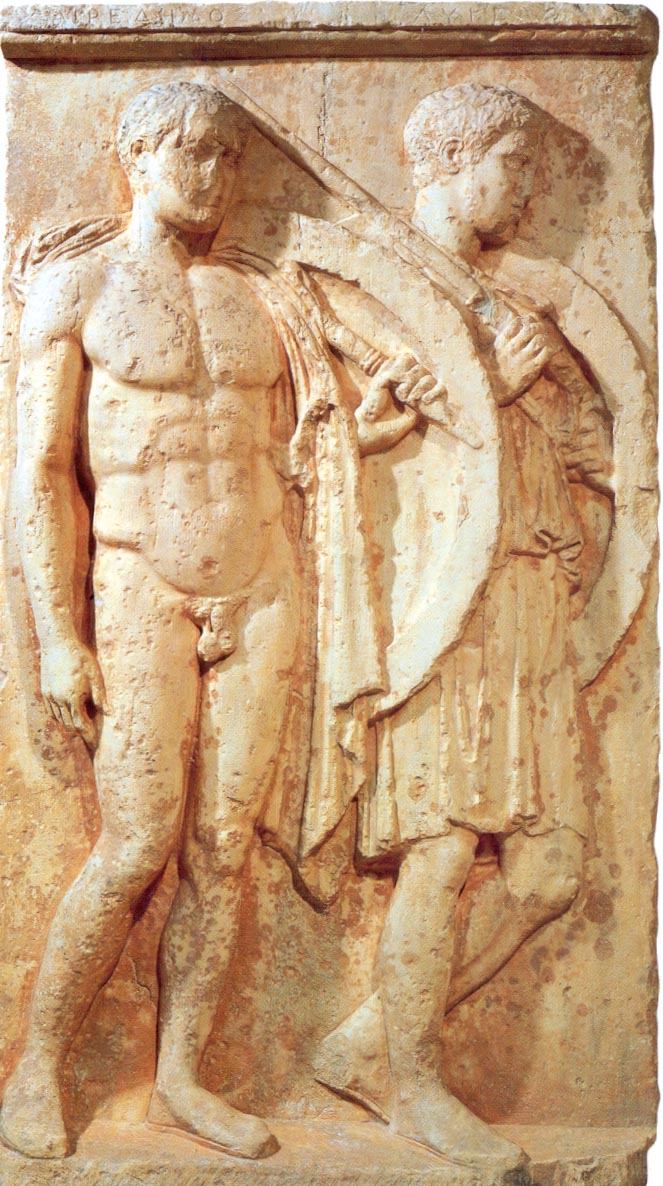
The stele of Chairedemos and Lykeas, Warrior Lovers who fell together in the Peloponnesian War,
and we're buried together.



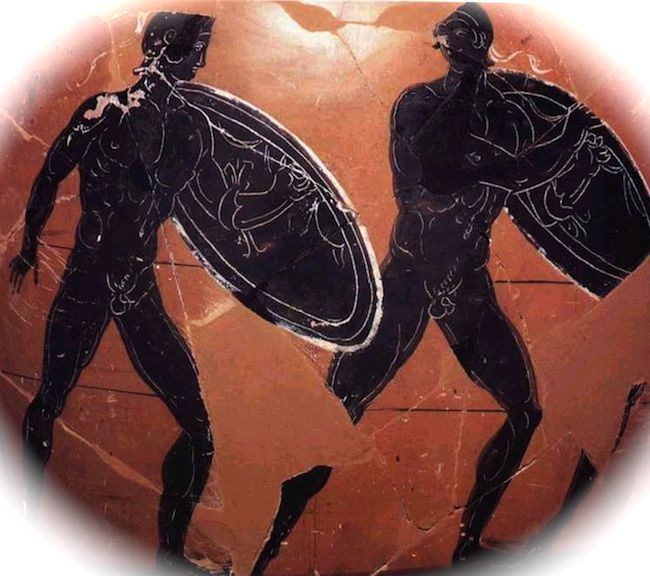
Warrior Lovers compete in the Hoplites Dromos
The Race in Armour
Men and Manliness and Fighting Manhood are the eternal enemies of ethical nihilism, and the intellectual, moral, and physical chaos which ethical nihilism engenders.


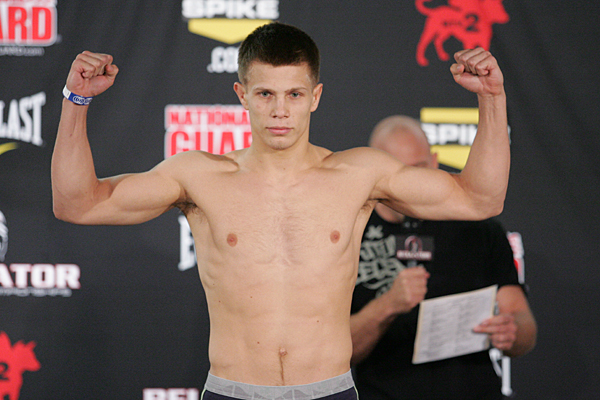
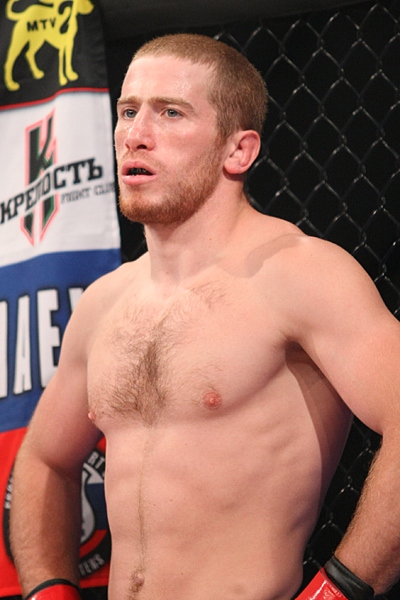
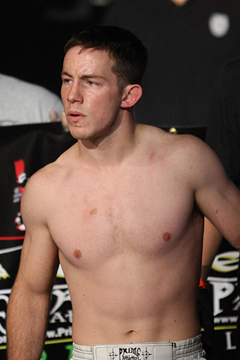


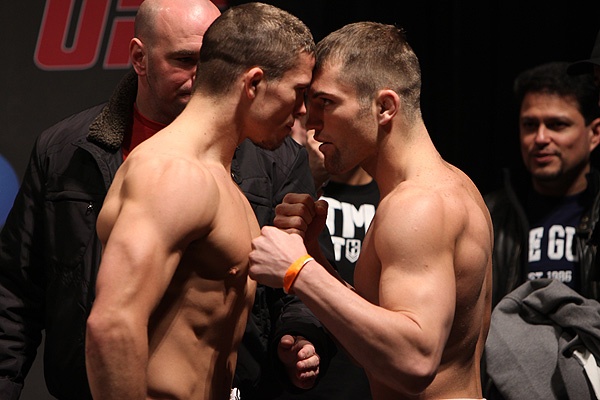
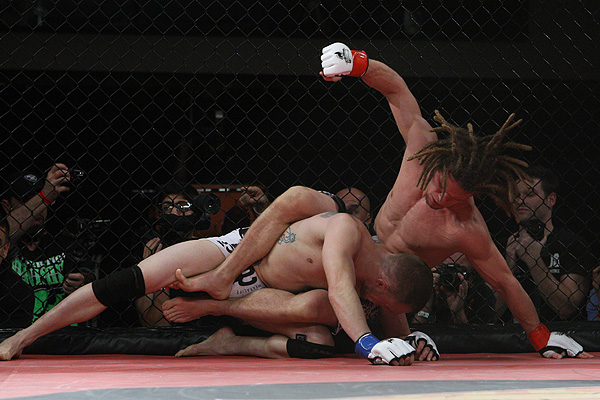
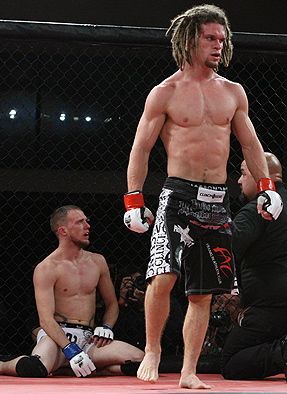
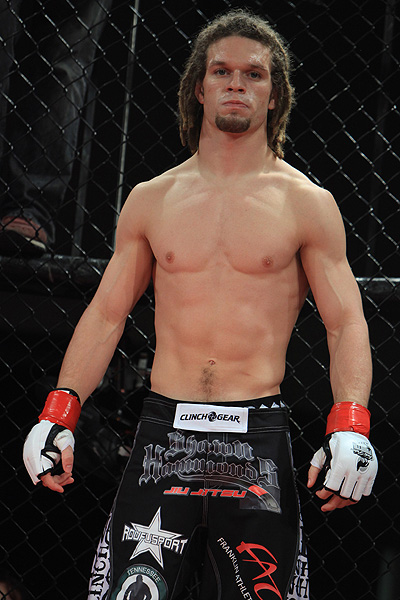



"Bruce Jenner -- who cares?" said Dr. McHugh, who said he played a role in closing a transgender surgery program at Johns Hopkins about 35 years ago. "He's a wonderfully successful person. He's got all kinds of social networks. He's got plenty of money. No one's objecting to him if he wants to live as a woman. This is America, be my guest.
challenge[s] society to break out of traditional ways of classifying gender, and to understand that gender identity does not always fit neatly into male and female boxes.
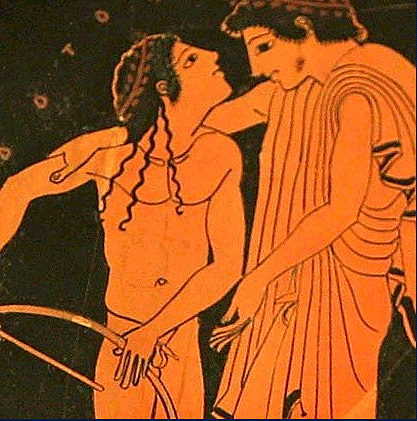

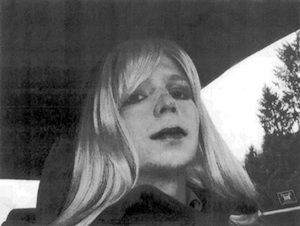

Iran is one of a handful of countries where homosexual acts are punishable by death. Clerics do, however accept the idea that a person may be trapped in a body of the wrong sex. So homosexuals can be pushed into having gender reassignment surgery -- and to avoid it many flee the country.




Does it occur to you that we brought this plague of aids upon ourselves? I know I am getting into dangerous waters here but it is time. With the cabal breathing even more murderously down our backs it is time. And you are still doing it. You are still murdering each other. Please stop with all the generalizations and avoidance excuses gays have used since the beginning to ditch this responsibility for this fact. From the very first moment we were told in 1981 that the suspected cause was a virus, gay men have refused to accept our responsibility for choosing not to listen, and, starting in 1984, when we were told it definitely was a virus, this behavior turned murderous. Make whatever excuses you can to carry on living in your state of denial but this is the fact of the matter. I wish we could understand and take some responsibility for the fact that for some 30 years we have been murdering each other with great facility and that down deep inside of us, we knew what we were doing. Don't tell me you have never had sex without thinking down deep that there was more involved in what you were doing than just maintaining a hard-on.




is instantiated by his battered and bloody face ; while his raised arms instantiate his Ability --
the martial merit, virile value, and warrior worth, he needs -- to Defeat his Opponent.



The epinikion has for its basis the fact and the individual ; but it rises through the real to the ideal, through the individual to the universal. The light that shines about the victor's head brightens into the light of eternity ; the leaf of olive or of laurel becomes a wreath of amaranth.
The light that shines about the victor's head brightens into the light of eternity ; the leaf of olive or of laurel becomes a wreath of amaranth.

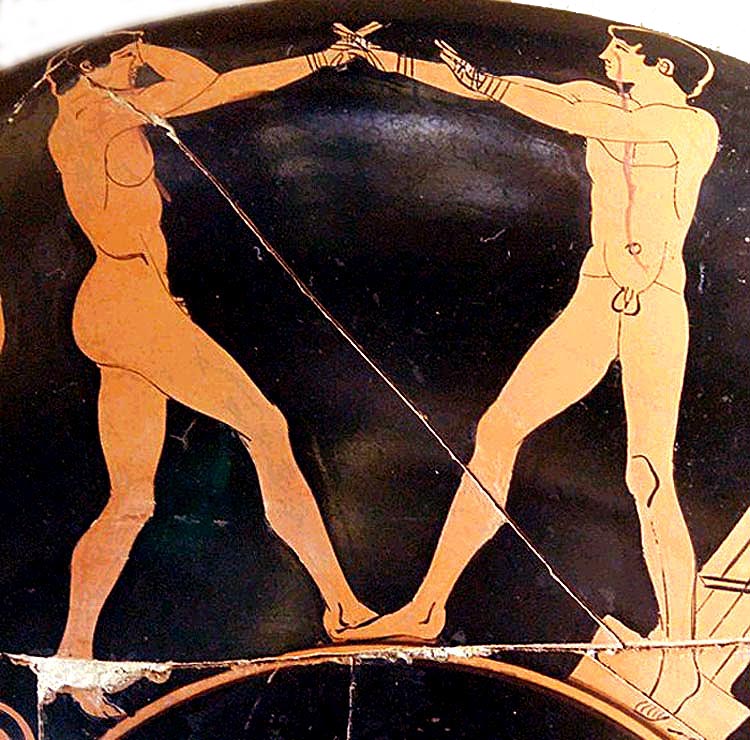







Remember that the Greek for 'good' [agathos] does not merely have the narrow ethical sense we give it, but is the adjective corresponding to the noun areté, and so means 'excellent' in any way. From that point of view ethics is only a special case of the effort made by all things to achieve perfection.





![]()




] in that case seethe and grow fierce (and also because of his suffering hunger, cold and the like) and make itself the ally of what he judges just [dikaios] ; and in noble [gennaios] souls it endures and wins the victory and will not let go . . .
goodness, excellence, of any kind, esp. of manly qualities, manhood, valour, prowess (like Lat. virtus, from vir)
[I]t is permissible to show pity to the man that has evils that are remediable, and to abate one's passion and treat him gently, and not to keep on raging like a scolding wife ; but in dealing with the man who is totally and obstinately perverse and wicked one must give free course to wrath.
"It is impossible to escape from other males' wrongdoings, when they are cruel and hard to remedy, or even wholly irremediable, otherwise than by victorious fighting and self-defence, and by punishing most rigorously ; and this no soul can achieve without Fighting Manhood."
In many details, the ethical doctrines of Plato and Aristotle were founded on the aristocratic morality of early Greece.








In our own time, as in Plato's, and as I intimated at the close of the preceding section and will repeat throughout this article, the method of ethical nihilism in particular is to question so as to confuse, and in so doing, to fatally weaken Men, Manliness, and Fighting Manhood -- so that all Virile Virtue and Warrior Worth may be destroyed.

When Xerxes wrote to him, 'It is possible for you not to fight the gods but by siding with me, to be the monarch of Greece.' He wrote in reply, 'If you had any knowledge of the noble things of life [ta kala -- The Noble Warrior Way of Manly Moral Beauty], you would refrain from coveting others' possessions ; but for me to die for Greece is better than to be the sole ruler over the people of my race.'
Who would not regard his Manhood with wonder?
All glorious [eukle-es] is the fortune [Tyche], fair [kalos -- noble and beautiful] the doom [potmos] ;
Their grave's an altar [bomos ho taphos], ceaseless memory's [mnestis] theirs
Instead of lamentation [goos], and their fate [oitos]
Is chant of praise [epainos]. Such winding-sheet as this
Nor mould nor all-consuming time shall waste.
This sepulchre [sekos] of Manly Men has taken
The fair renown [eudoxia] of Hellas for its inmate [oiketes].
And witness [martys] is Leonidas, once king
Of Sparta, who hath left behind an Order [kosmos]
Of All-Powerful Manhood and Ever-Lasting Glory [megas Areta kai aenaos kleos].

Alexander died in the 114th Olympiad, in the archonship of Hegesias at Athens. He lived, as Aristobulus tells us, thirty-two years and eight months, and reigned twelve years and eight months. He had great personal beauty [kallistos -- superlative of kalos], invincible power of endurance [philoponotatos -- superlative of philoponos], and a keen intellect ; he was brave [andreiotatos, superlative of andreios = Most Manly], strict in the observance of his religious duties, and hungry for fame [philotimotatos = superlative of philotimos] [philokindunotatos = superlative of philokindunos = danger-loving, adventurous]. Most temperate in the pleasures of the body, his passion was for glory only, and in that he was insatiable. He had an uncanny instinct for the right course in a difficult and complex situation, and was most happy in his deductions from observed facts. In arming and equipping troops, and in his military dispositions, he was always masterly. Noble indeed was his power of inspiring his men, of filling them with confidence, and, in the moment of danger, of sweeping away their fear by the spectacle of his own fearlessness. When risks had to be taken, he took them with the utmost boldness, and his ability to seize the moment for a swift blow, before his enemy had any idea of what was coming, was beyond praise. No cheat or liar ever caught him off his guard, and both his word and his bond were inviolable. Spending but little on his own pleasures, he poured out his money without stint for the benefit of his friends.



















To Hymn Aright the
Praises of the True
Life of Gods and
Blessed Men
"O children, that you are born of Manly [agathos] sires is clearly shown by the facts now before you : we, who might have ignobly lived choose rather to die selflessly [kalos], before we bring you and those after you to disgrace, and before we bring shame [aischyne] upon our own fathers and all our earlier forebears, since we deem that life is unworthy [a-timé-tos] to be lived for the man who brings shame upon his own, and that such an one has no friend amongst Gods or man, either here on earth, or under the earth when he is dead.
For neither does wealth bring honor to its possessor if combined with cowardice [an-andria -- lack of manhood, UN-manliness] --
`
From the same root [ARES] comes areté ... the first notion of goodness being that of manhood, bravery in war; cf. Lat. virtus.
goodness, excellence, of any kind, esp. of manly qualities, manhood, valour, prowess.
O children, that you are born of Manly [agathos] sires . . .
Manliness, Manhood : Strength, vigor, bravery, courage, excellence ; Valour, gallantry, fortitude ; Goodness, moral perfection, high character, virtue ; Worth, merit, value.
O children, that you are born of Manly sires is clearly shown by the facts now before you: we, who might have ignobly lived choose rather to die nobly. . .
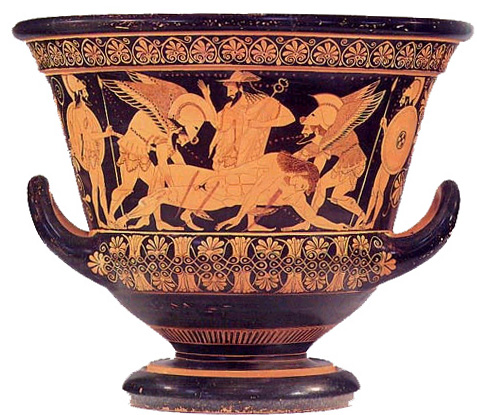
The God Hermes directs Death and Sleep
to carry the body of Sarpedon,
a Warrior who died nobly at Troy,
to his native land for funeral rites.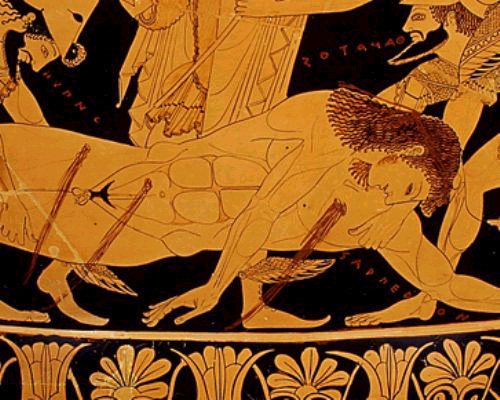

Notice the two Warriors flanking the scene.
This is a "krater" -- a vessel for mixing wine and water
which would have been the centerpiece at a Symposion --
an all-male and Manly celebration -- a banquet and drinking party.
"Souls killed in war are purer than those who die of diseases" --
Herakleitos of Ephesos
whatsoever else you practice -- whatever else you do -- you must do it In Union with Fighting Manhood, being well assured that when divorced from this all possessions and pursuits are base and ignoble.
neither does wealth bring honor to its possessor if combined with cowardice [an-andria -- want of manhood, UN-manliness] -- for such an one is rich for another rather than for himself -- nor do beauty and strength appear comely, but rather uncomely, when they are attached to one that is cowardly and base.
every form of knowledge when sundered from Manly Moral Order and the rest of Areta -- Manly Virtue, which is Fighting Manhood -- is seen to be plain roguery rather than wisdom.

Just in from the country, Terpsion, or did you come some time ago?
Quite a while ago ; and I was looking for you in the market-place and wondering that I could not find you.
Well, you see, I was not in the city.
Where then?
As I was going down to the harbor I met Theaitetos being carried to Athens from the camp at Corinth.
Alive or dead?
Just barely alive ; for he is suffering severely from wounds, and, worse than that, he has been taken with the sickness that has broken out in the army.
You mean the dysentery?
Yes.
What a man he is who you say is in danger!
A noble man [kalon kai agathon -- a Morally Beautiful and Manly man], Terpsion, and indeed just now I heard some people praising him highly for his conduct in the battle.
That is not at all strange ; it would have been much more remarkable if he had not so conducted himself. But why did he not stop here in Megara?
He was in a hurry to get home ; for I begged and advised him to stop, but he would not. So I went along with him, and as I was coming back I thought of Sokrates and wondered at his prophetic gift, especially in what he said about him. For I think he met him a little before his own death, when Theaitetos was a mere boy, and as a result of acquaintance and conversation with him, he greatly admired his qualities. . . .
I assure you that among all the young men I have ever met -- and I have had to do with a great many -- I never yet found one of such marvelously fine qualities. He is quick to learn, beyond almost anyone else, yet exceptionally gentle, and moreover Manly [andreios] beyond any other ; I should not have supposed such a combination existed, and I do not see it elsewhere.
What a man he is who you say is in danger!
A noble man [kalon kai agathon -- a Morally Beautiful and Manly man], Terpsion, and indeed just now I heard some people praising him highly for his conduct in the battle.
That is not at all strange; it would have been much more remarkable if he had not so conducted himself.
[W]hatsoever else you practice you must practice it In Union with Fighting Manhood, being well assured that when divorced from this all possessions and pursuits are base and excrementally evil. For neither does wealth bring honor to its possessor if combined with want of manhood and unmanliness [an-andria] -- for such an one is rich for another rather than for himself -- nor do beauty and strength appear comely, but rather uncomely, when they are attached to one that is cowardly and base, since they make their possessor more conspicuous and show up his cowardice ; and every form of knowledge when sundered from Manly Moral Order[dikaiosyne] and the rest of Manly Virtue, which is Fighting Manhood -- is seen to be plain roguery rather than wisdom.
But it is impossible that evils should be done away with, Theodorus, for there must always be something opposed to the good ; and they cannot have their place among the Gods, but must inevitably hover about mortal nature and this earth. Therefore we ought to try to escape from earth to the Dwelling of the Gods as quickly as we can ; and to escape is to become like a God, so far as this is possible ; and to become like a God is to become righteous and holy and wise.
Well, Sokrates, we have plenty of leisure, have we not?
Apparently we have. And that makes me think, my friend, as I have often done before, how natural it is that those who have spent a long time in the study of philosophy appear ridiculous when they enter the courts of law as speakers.
What do you mean?
Those who have knocked about in courts and the like from their youth up seem to me, when compared with those who have been brought up in philosophy and similar pursuits, to be as slaves [oiketai -- house-slaves, menials] in breeding compared with freemen [eleutheroi].
In what way is this the case?
In this way : the latter always have that which you just spoke of, leisure, and they talk at their leisure in peace ; just as we are now taking up argument after argument, already beginning a third, so can they, if as in our case, the new one pleases them better than that in which they are engaged ; and they do not care at all whether their talk is long or short, if only they attain the truth. But the men of the other sort are always in a hurry -- for the water flowing through the water-clock urges them on -- and the other party in the suit does not permit them to talk about anything they please, but stands over them exercising the law's compulsion by reading the brief, from which no deviation is allowed (this is called the affidavit) ; and their discourse is always about a fellow slave [homodoulos] and is addressed to a master [despotes] who sits there holding some case or other in his hands ; and the contests [agones] never run an indefinite course, but are always directed to the point at issue, and often the race [dromos] is for the defendant's life [psyche].
By all means, Sokrates, describe them ; for I like your saying that we who belong to this band are not the servants of our arguments, but the arguments are, as it were, our servants, and each of them must await our pleasure to be finished ; for we have neither judge, nor, as the poets have, any spectator set over us to censure and rule us.
Very well, that is quite appropriate, since it is your wish ; and let us speak of the leaders ; for why should anyone talk about the inferior philosophers? The leaders, in the first place, from their youth up, remain ignorant of the way to the agora, do not even know where the court-room is, or the senate-house, or any other public place of assembly ; as for laws and decrees, they neither hear the debates upon them nor see them when they are published ; and the strivings of political clubs after public offices, and meetings, and banquets, and revellings with chorus girls -- it never occurs to them even in their dreams to indulge in such things. And whether anyone in the city is of high or low birth, or what evil has been inherited by anyone from his ancestors, male or female, are matters to which they pay no more attention than to the number of pints in the sea, as the saying is.
What do you mean by this, Sokrates?
Why, take the case of Thales, Theodorus. While he was studying the stars and looking upwards, he fell into a pit, and a neat, witty Thracian servant girl jeered at him, they say, because he was so eager to know the things in the sky that he could not see what was there before him at his very feet. The same jest applies to all who pass their lives in philosophy.
Yes, I do ; you are right.
Hence it is, my friend, such a man, both in private, when he meets with individuals, and in public, as I said in the beginning, when he is obliged to speak in court or elsewhere about the things at his feet and before his eyes, is a laughing-stock not only to Thracian girls but to the multitude in general, for he falls into pits and all sorts of perplexities through inexperience, and his awkwardness is terrible, making him seem a fool ; for when it comes to abusing people he has no personal abuse to offer against anyone, because he knows no evil of any man, never having cared for such things ; so his perplexity makes him appear ridiculous ; and as to laudatory speeches and the boastings of others, it becomes manifest that he is laughing at them -- not pretending to laugh, but really laughing -- and so he is thought to be a fool. When he hears a panegyric of a despot or a king he fancies he is listening to the praises of some herdsman -- a swineherd, a shepherd, or a neatherd, for instance -- who gets much milk from his beasts ; but he thinks that the ruler tends and milks a more perverse and treacherous creature than the herdsmen, and that he must grow coarse and uncivilized, no less than they, for he has no leisure and lives surrounded by a wall, as the herdsmen live in their mountain pens. And when he hears that someone is amazingly rich, because he owns ten thousand acres of land or more, to him, accustomed as he is to think of the whole earth, this seems very little. And when people sing the praises of lineage and say someone is of noble birth, because he can show seven wealthy ancestors, he thinks that such praises betray an altogether dull and narrow vision on the part of those who utter them ; because of lack of education they cannot keep their eyes fixed upon the whole and are unable to calculate that every man has had countless thousands of ancestors and progenitors, among whom have been in any instance rich and poor, kings and slaves, barbarians and Greeks. And when people pride themselves on a list of twenty-five ancestors and trace their pedigree back to Herakles, the son of Amphitryon, the pettiness of their ideas seems absurd to him ; he laughs at them because they cannot free their silly minds of vanity by calculating that Amphitryon's twenty-fifth ancestor was such as fortune happened to make him, and the fiftieth for that matter. In all these cases the philosopher is derided by the common herd, partly because he seems to be contemptuous, partly because he is ignorant of common things and is always in perplexity.
That all happens just as you say, Sokrates.
But when, my friend, he draws a man upwards and the other is willing to rise with him above the level of "What wrong have I done you or you me?" to the investigation of abstract right and wrong, to inquire what each of them is and wherein they differ from each other and from all other things, or above the level of "Is a king happy?" or, on the other hand, "Has he great wealth?" to the investigation of royalty and of human happiness and wretchedness in general, to see what the nature of each is and in what way man is naturally fitted to gain the one and escape the other -- when that man of small and sharp and pettifogging mind is compelled in his turn to give an account of all these things, then the tables are turned ; dizzied by the new experience of hanging at such a height, he gazes downward from the air in dismay and perplexity ; he stammers and becomes ridiculous, not in the eyes of Thracian girls or other uneducated persons, for they have no perception of it, but in those of all men who have been brought up as free men, not as slaves. Such is the character of each of the two classes, Theodorus, of the man who has truly been brought up in freedom and leisure, whom you call a philosopher -- who may without censure appear foolish and good for nothing when he is involved in menial services, if, for instance, he does not know how to pack up his bedding, much less to put the proper sweetening into a sauce or a fawning speech -- and of the other, who can perform all such services smartly and quickly, but does not know how to wear his cloak as a freeman should, properly draped, still less to acquire the true harmony of speech [harmonian logon] and hymn aright [orthos] the praises of the true [alethe] life [bios] of Gods [Theon] and blessed Men [andron eudaimonon].
If, Sokrates, you could persuade all men of the truth of what you say as you do me, there would be more peace and fewer evils among mankind.
But it is impossible that evils should be done away with, Theodorus, for there must [ananke] always be something opposed to the good [agathos -- the Manly] ; and they cannot have their place among the Gods, but must inevitably hover about mortal nature and this earth. Therefore we ought to try to escape from earth to the Dwelling of the Gods as quickly as we can ; and to escape is to become like a God, so far as this is possible ; and to become like a God is to become righteous and holy and wise.
Typical of elite universities today, Penn is filled with driven young women, many of whom aspire to be doctors, lawyers, politicians, bankers or corporate executives like Facebook's Sheryl Sandberg or Yahoo's Marissa Mayer. Keenly attuned to what might give them a competitive edge, especially in a time of unsure job prospects and a shaky economy, many of them approach college as a race to acquire credentials : top grades, leadership positions in student organizations, sought-after internships. Their time out of class is filled with club meetings, sports practice and community-service projects. For some, the only time they truly feel off the clock is when they are drinking at a campus bar or at one of the fraternities that line Locust Walk, the main artery of campus. [Alcohol, according to the Times, is a key component of hooking-up -- these liberated souls, liberated, that is, from God, need, it would appear, liquor -- to have soul-less, God-less, sex.]
"I'm a true feminist . . . I'm a strong woman. I know what I want."
At the same time, she didn't want the number of people she had slept with printed, and she said it was important to her to keep her sexual life separate from her image as a leader at Penn.
[I]n their souls they become small and warped [mikros kai ouk -- not -- orthos]. For they have been deprived of growth and straightforwardness [euthus] and independence [eleutheros] by the slavery they have endured from their youth up, for this forces them to do crooked [skolios] acts by putting a great burden of fears and dangers upon their souls while these are still tender ; and since they cannot bear this burden with uprightness [dikaios] and truth [aletheia], they turn forthwith to deceit [pseudos] and to requiting wrong with wrong, so that they become greatly bent and stunted.
deprived of growth and straightforwardness and independence by the slavery they have endured from their youth up, for this forces them to do crooked acts . . . since they cannot bear this burden with uprightness and truth, they turn forthwith to deceit and to requiting wrong with wrong, so that they become greatly bent and stunted.
Typical of elite universities today, Penn is filled with driven young men, many of whom aspire to be doctors, lawyers, politicians, bankers or corporate executives like GE's Jeff Immelt or Google's Larry Page. Keenly attuned to what might give them a competitive edge, especially in a time of unsure job prospects and a shaky economy, many of them approach college as a race to acquire credentials: top grades, leadership positions in student organizations, sought-after internships. Their time out of class is filled with club meetings, sports practice and community-service projects. For some, the only time they truly feel off the clock is when they are drinking at a campus bar or at one of the fraternities that line Locust Walk, the main artery of campus. [Alcohol, according to the Times, is a key component of hooking-up -- these liberated souls, liberated, that is, from God, need, it would appear, liquor -- to have soul-less, God-less, sex.]
[I]n their souls they become small and warped [mikros kai ouk -- not -- orthos]. For they have been deprived of growth and straightforwardness [euthus] and independence [eleutheros] by the slavery they have endured from their youth up, for this forces them to do crooked [skolios] acts by putting a great burden of fears and dangers upon their souls while these are still tender ; and since they cannot bear this burden with uprightness [dikaios] and truth [aletheia], they turn forthwith to deceit [pseudos] and to requiting wrong with wrong, so that they become greatly bent and stunted.
deprived of growth and straightforwardness and independence by the slavery they have endured from their youth up, for this forces them to do crooked acts . . . since they cannot bear this burden with uprightness and truth, they turn forthwith to deceit and to requiting wrong with wrong, so that they become greatly bent and stunted.
arguments that would convince, or at least confute, the ethical nihilism of a war-weary, cynical and over-enlightened generation -- for proof, in short, that virtue and happiness coincide.
It is by now pretty well understood that traditional dating in college has mostly gone the way of the landline, replaced by "hooking up" -- an ambiguous term that can signify anything from making out to oral sex to intercourse -- without the emotional entanglement of a relationship.
Was shee thy God, that her thou didst obey
Before his voice, or was shee made thy guide,
Superior, or but equal, that to her
Thou did'st resigne thy Manhood, and the Place
Wherein God set thee above her made of thee,
And for thee, whose perfection farr excell'd
Hers in all real dignitie:
She was indeed, and lovely to attract
Thy Love, not thy Subjection, and her Gifts
Were such as under Government well seem'd,
Unseemly to beare rule, which was thy part
And person, hadst thou known thy self aright.
"I'm a true feminist . . . I'm a strong woman. I know what I want."
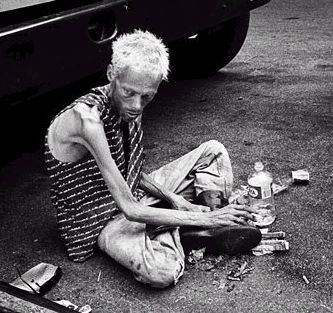
The issue thus raised is really the old question of a distinction of quality and value in pleasure. No one can judge or prescribe another's pleasure, it is argued; pleasure qua pleasure admits no differences [b]. But is there any such thing as pleasure qua pleasure? Are there not always inseparable accompaniments and consequences?

Bill Weintraub:
that which they don't is neglected.
Manhood is despised
Are we all aware of the reason why such military dancing and such contests [agonia] [which would make the city-state better prepared to go to war] do not at present exist anywhere in the States, except to a very small extent? Shall we say that this is due to the ignorance of the populace and of those who legislate for them?
Possibly.
Not so, by any means, my ingenious Clinias! What we ought to say is that there are two causes, and both most weighty ones.
What are they?
The first springs from a lust for wealth which allows a man no leisure time for attention to anything else save his own private property ; and when the soul of every citizen hangs upon this, it is incapable of attending to matters other than daily gain. Whatsoever science or pursuit leads to this, every man individually is most ready to learn and to practice ; but all else he laughs to scorn. This we must assert to be one particular cause why a State is unwilling to be in earnest about this, or any other, fine [to agathon -- Excellent and Manly] and noble [kalos -- Noble, thus Selfless] pursuit ; and why, on the other hand, every individual, because of his greed for silver and gold, is willing to toil at every art and device, noble or ignoble, if he is likely to get rich by it -- willing, too, to perform actions both holy and unholy -- nay, utterly shameful -- without a scruple, provided only that he is able to sate himself to repletion, like a beast, with all manner of foods and drinks and wenchings.
True.
Then let this which I describe be laid down as one cause which hinders the States from adequately practicing either military operations or any other noble pursuits [kalon -- Morally Beautiful -- ta kala -- acts of Moral Beauty] and which turns men who are of a quiet nature into traders, ship-owners, and servants, while of the Manly [andreios] it makes pirates, burglars, temple-robbers, mercenaries, and tyrants -- and that though, in some cases, they are not ill-natured, but merely ill-fortuned.
How so?
Well, how could I describe otherwise than as utterly unfortunate men who are compelled to go through life with hunger [for gold] always in their own souls?
And though the hog may be sole judge of his own pleasures, is it on the whole as desirable or pleasurable to be a hog as a man?
[T]he health and harmony of the soul must be still more indispensable to true happiness than that of the body.
the wiser choice is that which values those so-called goods -- only -- ONLY -- as they tend to preserve or destroy the true constitution and health of the soul.
For what shall it profit a man, if he shall gain the whole world, and lose his own soul?
Heaven and hell are symbols of the most vital of all divisions, that which separates the Virtuous from the vicious will.
Here, then, is a second group of things it seems that our guardians must guard against and do all in their power to keep from slipping into the city without their knowledge :
Plato teaches that sensuous pleasures are in their nature impure and illusory. They are preconditioned by, and mixed with, desire, want, pain. "Surgit amari aliquid" ["something bitter arises"] is ever true of them. They are the relief of an uneasiness, the scratching of an itch, the filling of a vacuum. To treat them as real, or to make them one's aim (except so far as our human estate requires), is to seek happiness in a process rather than a state, in becoming rather than in being.
Therefore we ought to try to escape from earth to the Dwelling of the Gods as quickly as we can ; and to escape is to become like a God, so far as this is possible ; and to become like a God is to become Righteous and Holy and Wise.
Plato teaches that sensuous pleasures are in their nature impure and illusory. They are preconditioned by, and mixed with, desire, want, pain. "Surgit amari aliquid" ["something bitter arises"] is ever true of them. They are the relief of an uneasiness, the scratching of an itch, the filling of a vacuum. To treat them as real, or to make them one's aim (except so far as our human estate requires), is to seek happiness in a process rather than a state, in becoming rather than in being.

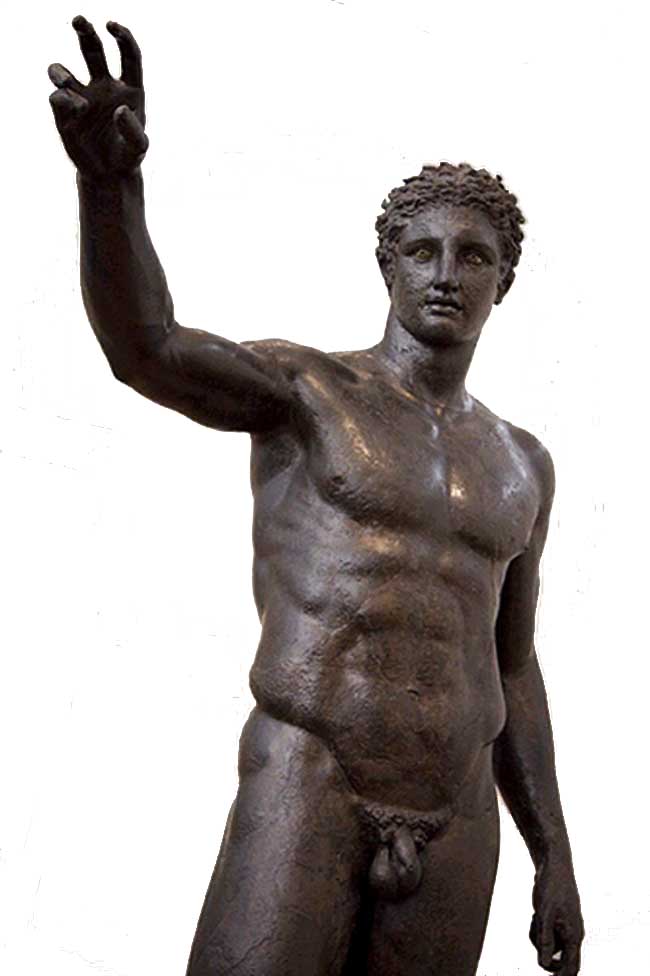

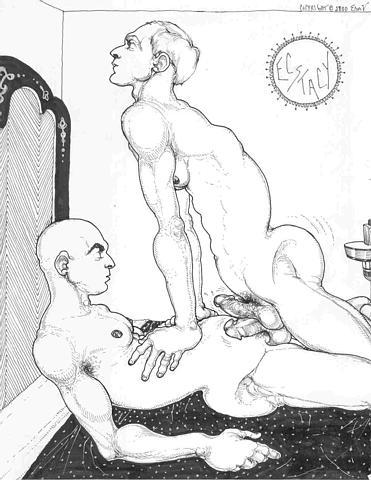
Philosophy alone can array young men in the manly and truly perfect adornment that comes from reason.
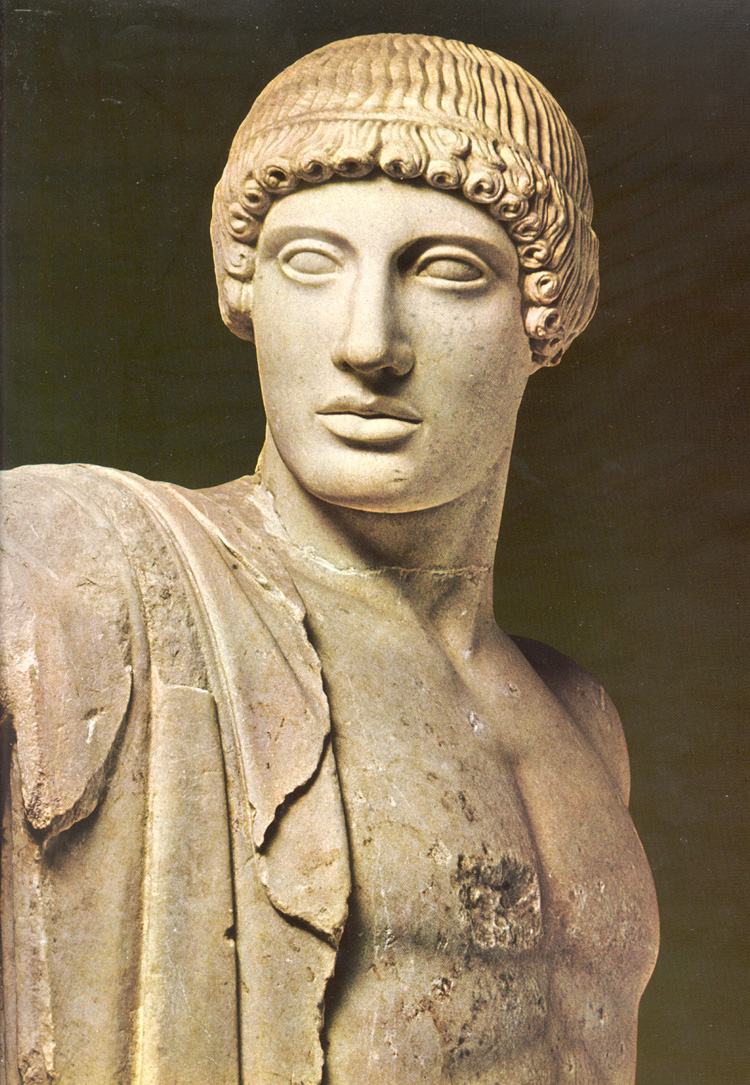

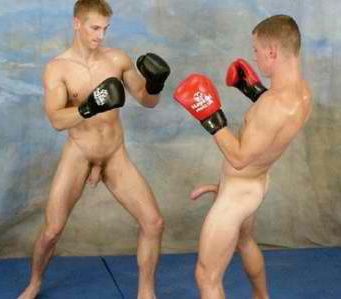


To treat [the sensuous pleasures] as real, or to make them one's aim (except so far as our human estate requires), is to seek happiness in a process rather than a state, in becoming rather than in being.


























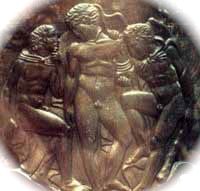

MANHOOD: A LEXICON
WARRIOR KOSMOS WARRIOR SANCTION
ARES is LORD : MANHOOD is GOD
The Imitation of Ares
And Your Beloved
To the Like-ness
Of the God
You Both Honor
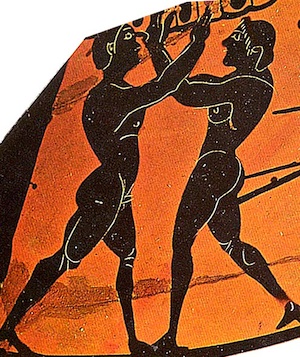


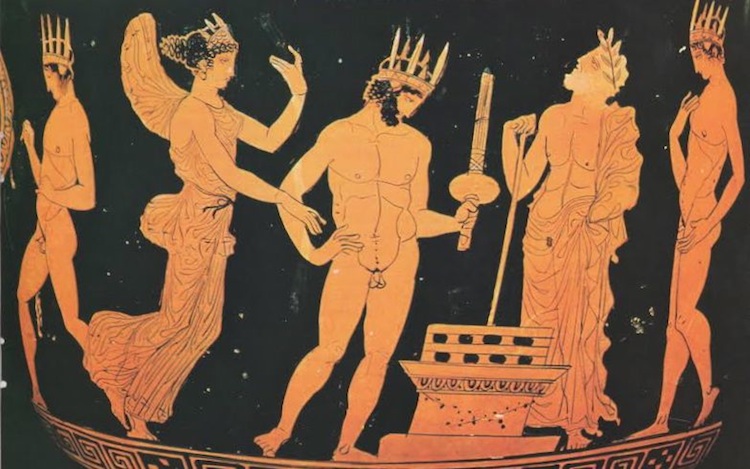

we both draw our breath. Yet the allotment of a wholly
different power separates us, for one race is nothing,
whereas the bronze heaven remains a secure abode
forever. Nevertheless, we do somewhat resemble
the Immortals, either in greatness of mind or bodily nature,
although we do not know by day or in the night
what course destiny
has marked for us to run.
Bill Weintraub:
Bill Weintraub:
Remember that the Greek for 'good' [agathos] does not merely have the narrow ethical sense we give it, but is the adjective corresponding to the noun areté, and so means 'excellent' in any way. From that point of view ethics is only a special case of the effort made by all things to achieve perfection.






[Love -- Eros] is the cause of all our highest blessings. I for my part am at a loss to say what greater blessing a man can have in earliest youth than an honorable [chrestos -- good, honest, worthy, true] lover [erastes], or a lover than an honorable [chrestos] favorite. For the guiding principle we should choose for all our days, if we are minded to live a comely [kalos -- morally beautiful] life, cannot be acquired either by kinship or office or wealth or anything so well as by Love.
What shall I call this power [of Love Eros]? The shame [aischyne] that we feel for shameful things, and ambition [PhiloTimia] for what is noble [kalon -- morally beautiful] ; without which it is impossible for city or person to perform any high [megas] and noble deeds [kala erga -- morally beautiful deeds of battle].

ΕΡΓΑ
In polychromed scenes from the Alexander Sarcophagus
Nude Heroic Greeks Fight Clothed Persians
ΕΡΓΑ
ΕΡΓΑ


![]()

![]()






![]()






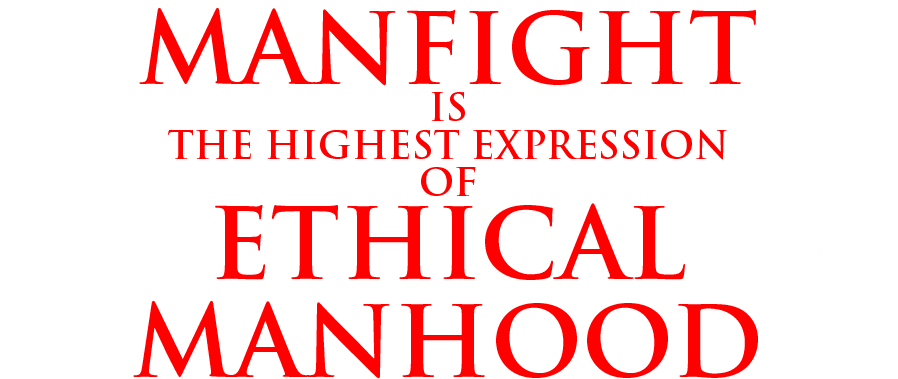






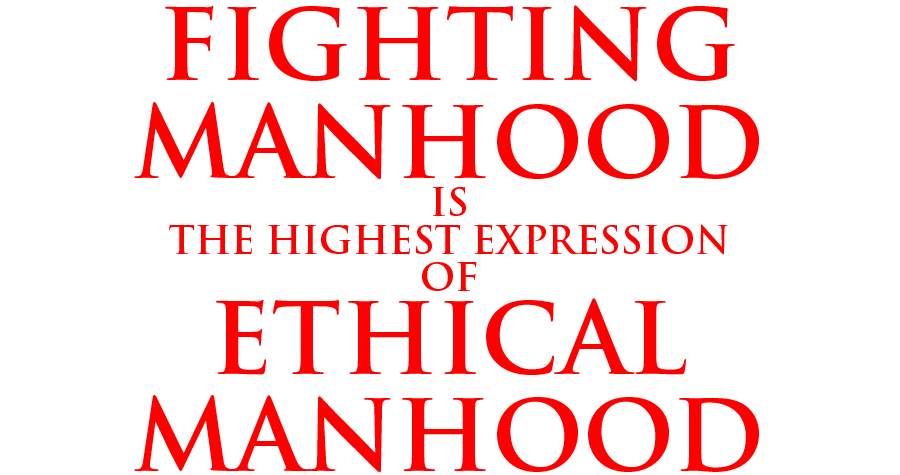




Bill Weintraub:
The followers of Ares desire that the soul of him whom they love be like Ares ; so they seek for one of Martial and Manly nature [polemikos kai agathos physis], and when they find him and love him, they do all they can to give him such a character [tropos].
Bill Weintraub:
when they [the Lovers] search eagerly within themselves to find [aneurisko] the nature of their God [physis Theou], they are successful, because they have been compelled to keep their eyes fixed upon the God, and as they reach and grasp him by memory [mneme] they are inspired [enthousiazo -- to be inspired or possessed by the God, be rapt, be in ecstasy, from entheos -- in-Godded, having a God within] and receive from him character and habits [ethos kai epitedeumata -- character and ways of living], so far as it is possible for a Man to have part in a God.
Bill Weintraub:
Bill Weintraub:
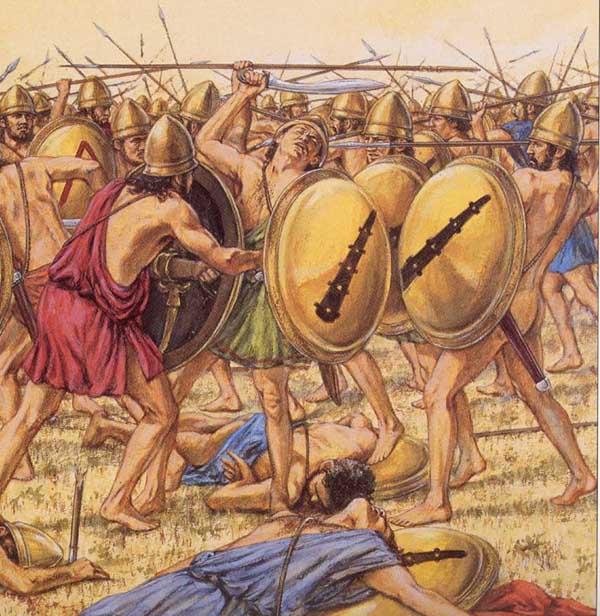
Koronea


xxx>



























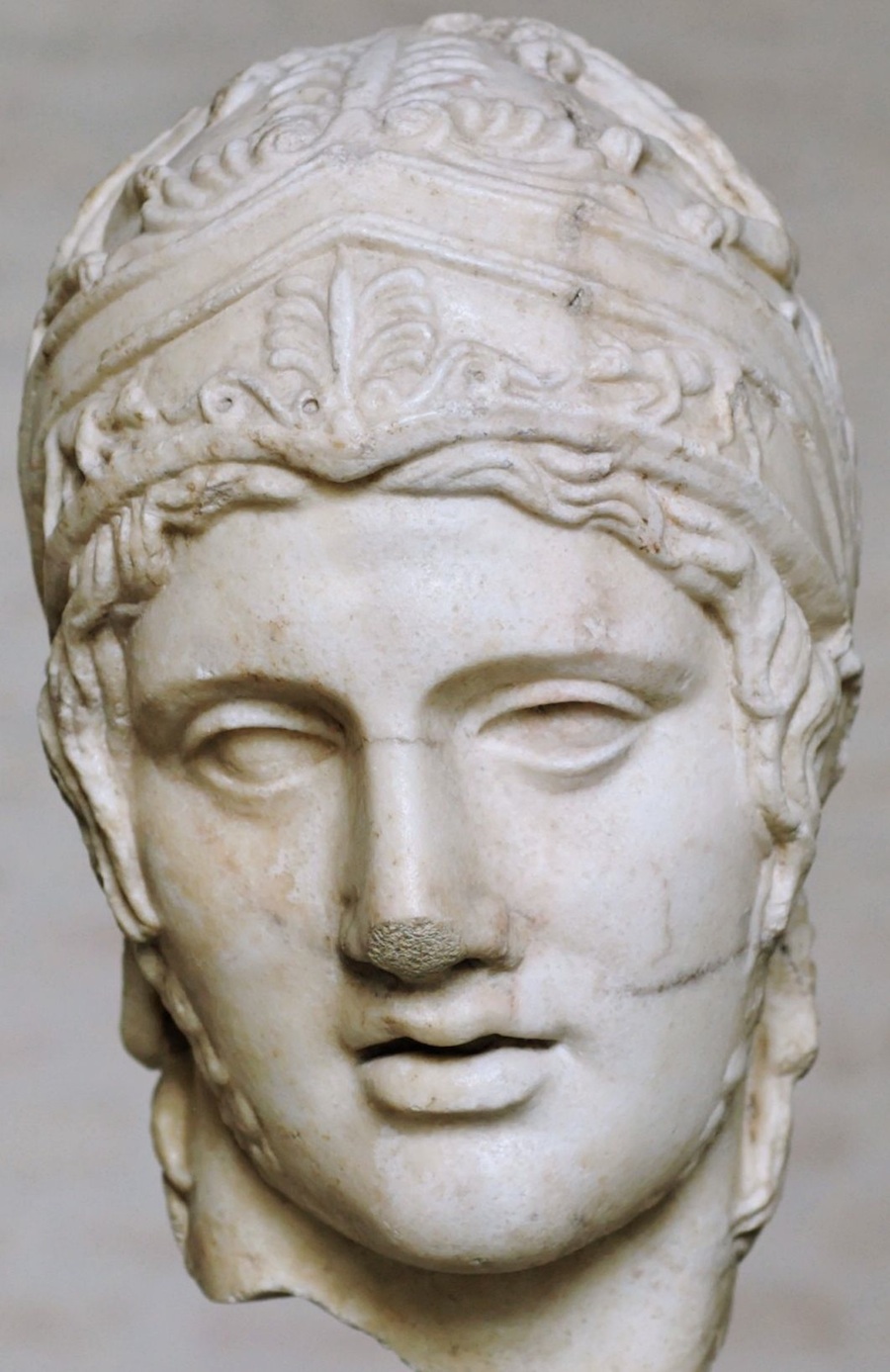










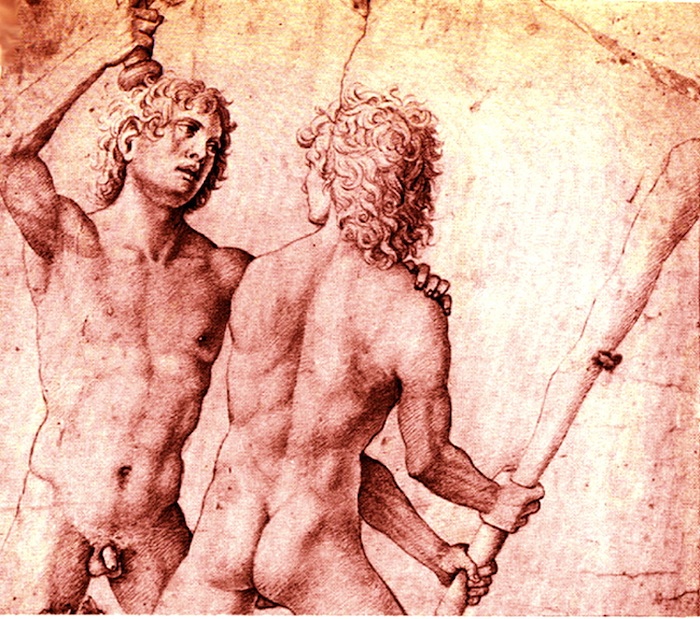




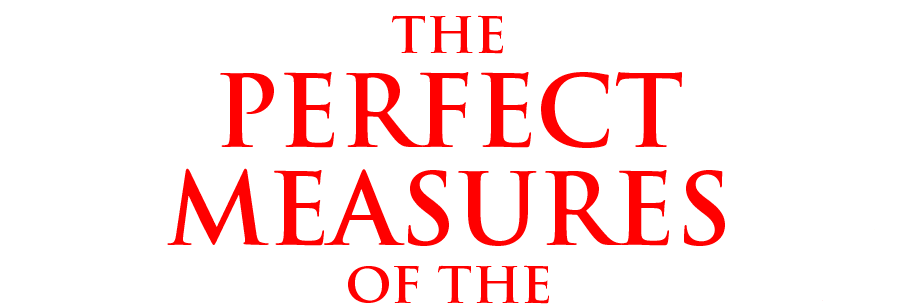




MANHOOD: A LEXICON
WARRIOR KOSMOS WARRIOR SANCTION
ARES is LORD : MANHOOD is GOD
To Transform the Chaos
of Embodiment into
The Perfect Measures
of the Warrior Kosmos
Warrior Kosmos : Warrior Sanction
The Perfect Measures of the Warrior Kosmos
Ares Is Lord : Manhood Is God
Warrior Pro-oimion
Warrior Cosmogenesis
Warrior Contest : Warrior Conquest
Warrior Machogenesis
Perfect Manliness and the Eternal Return of the Fighter
Warrior Erotogenesis
Understanding the Ethical Supremacy conferred by Fighting Men and their Fighting Manhood
Warrior Timogenesis : The Ethical Supremacy conferred by Fighting Men and their Fighting Manhood is the Source of All Manly Honour

















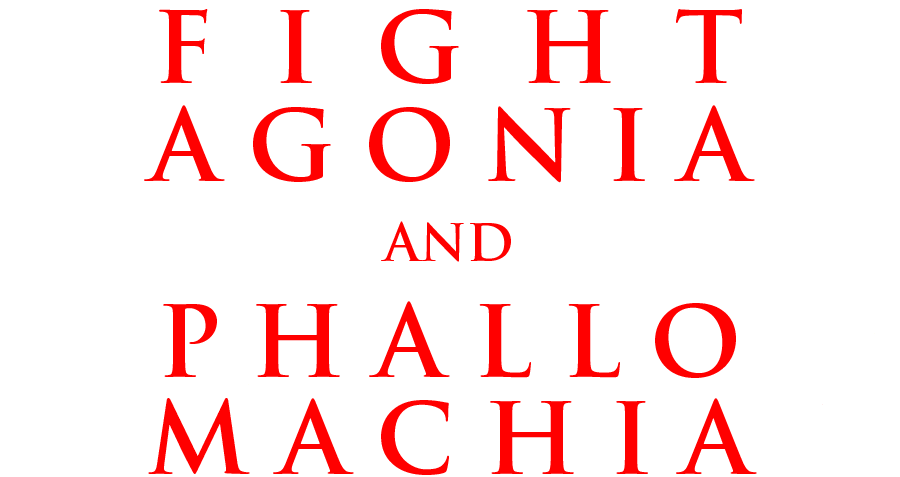








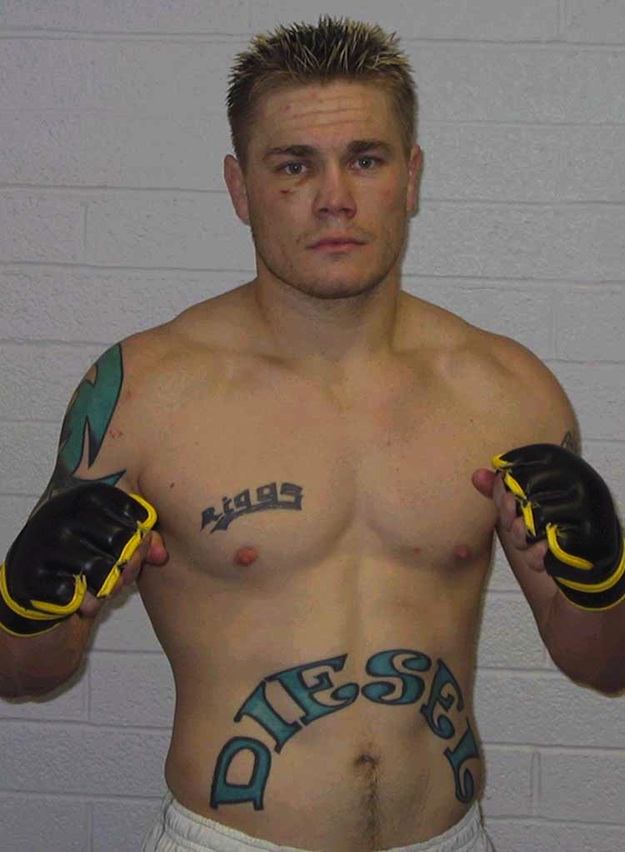

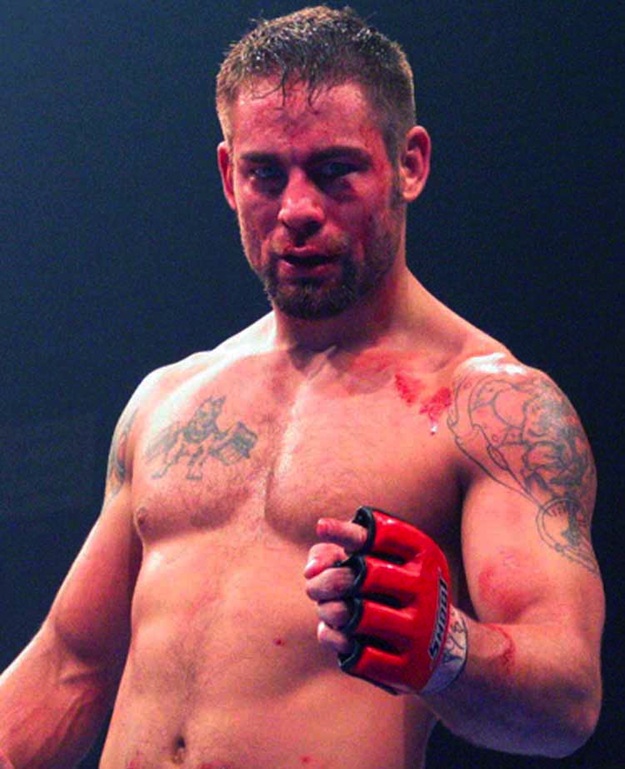


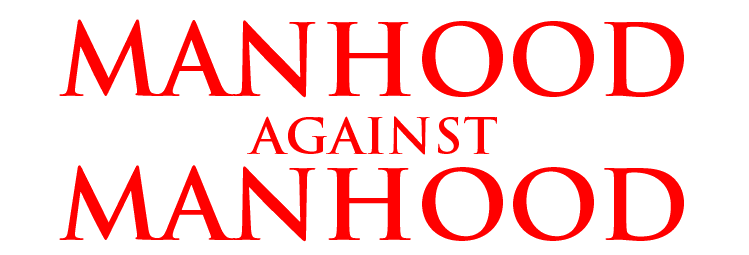


[Areta is] goodness, excellence, of any kind, esp. of manly qualities, manhood, valour, prowess (like Lat. virtus, from vir)



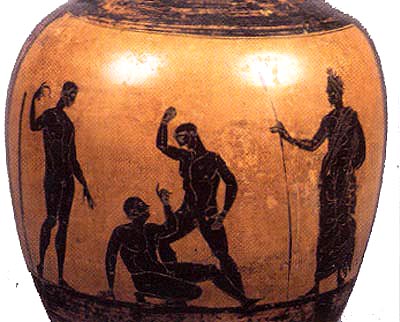

![]()





![]()





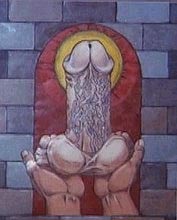
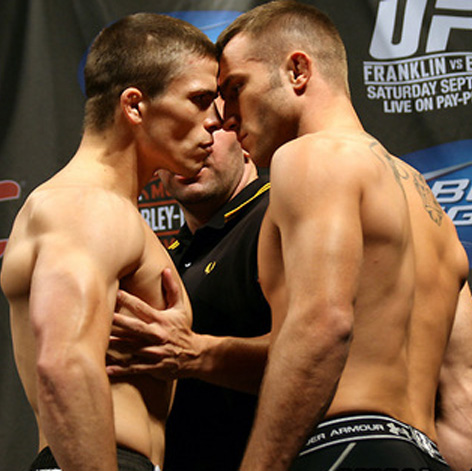
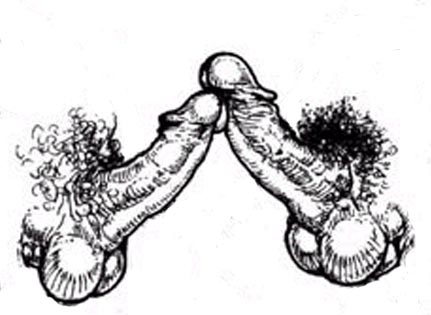
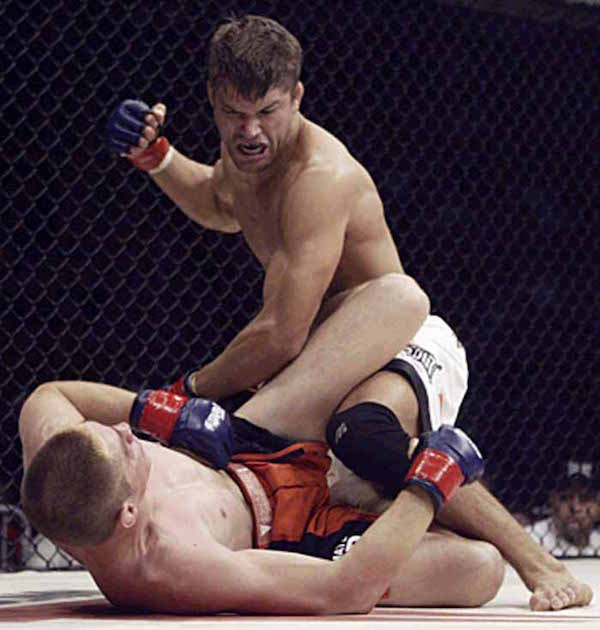
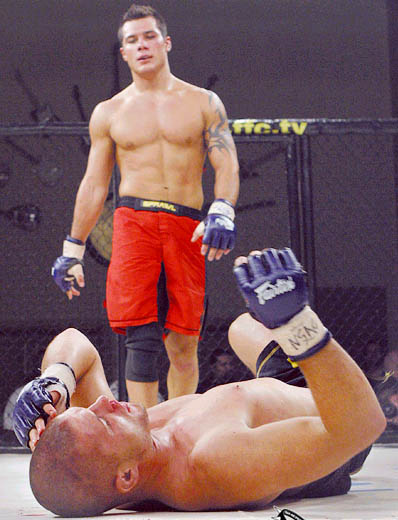






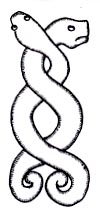




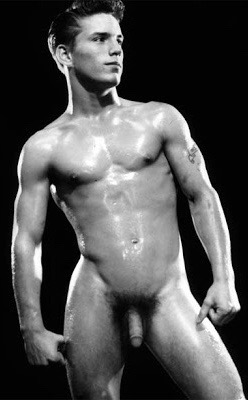
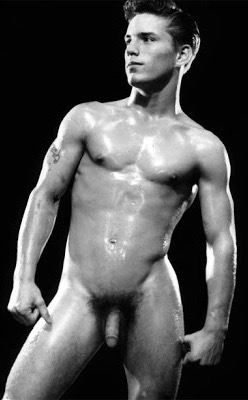
















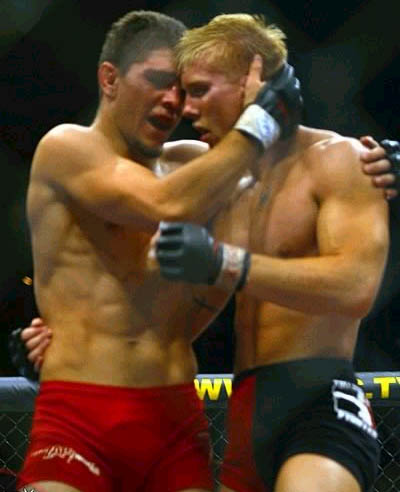

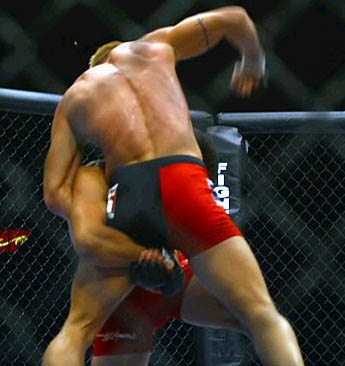
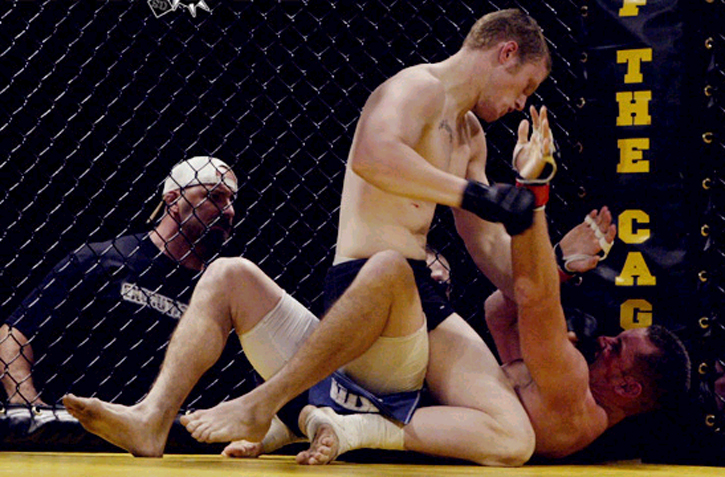
Ground and Pound









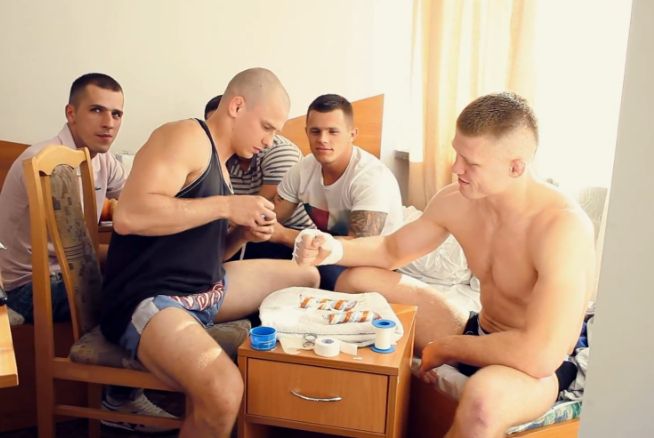


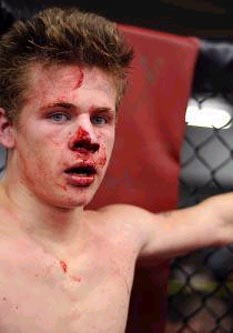
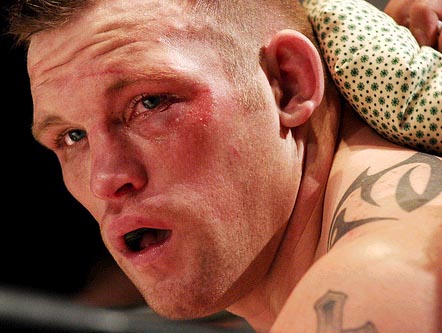

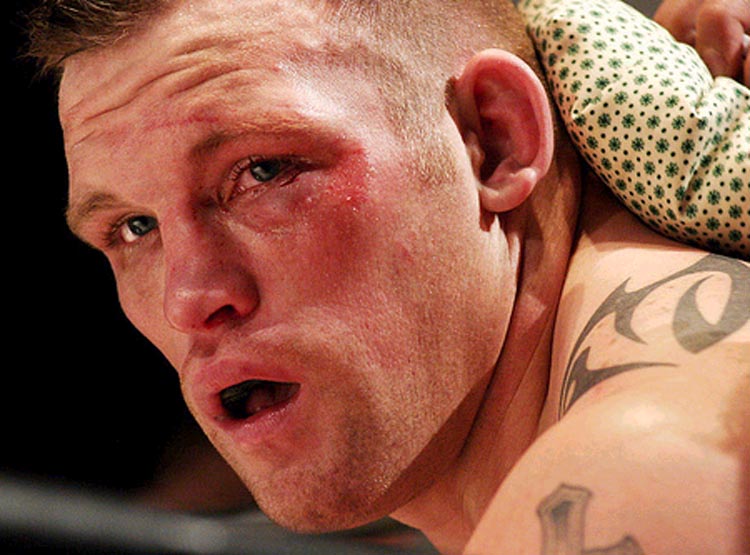




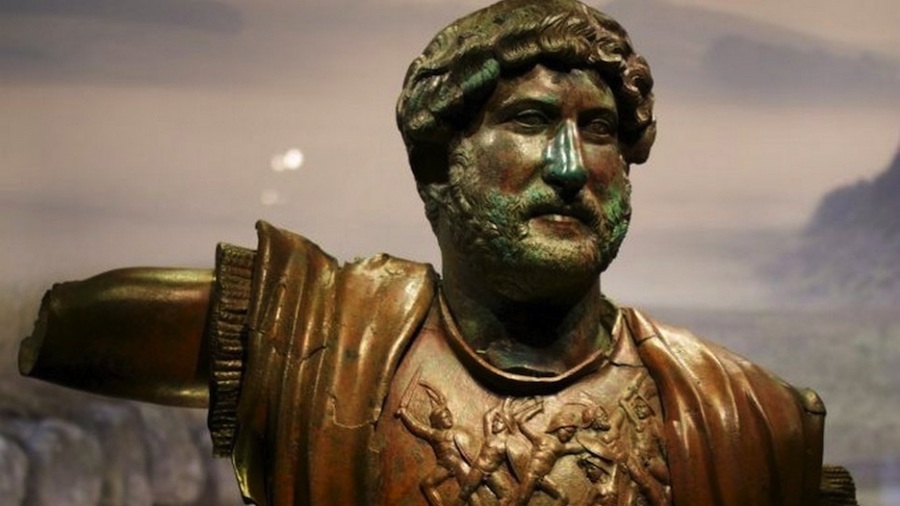
Bronze Statue of the Emperor Hadrian
Wearing a Breastplate Decorated with
Scenes of Nude Gladiators Fighting
Warrior Pro-oimion
Warrior Cosmogenesis
Warrior Contest : Warrior Conquest
Warrior Pro-oimion
Warrior Cosmogenesis
Warrior Contest : Warrior Conquest
Warrior Machogenesis
Perfect Manliness and the Eternal Return of the Fighter
Warrior Erotogenesis



[To Plato,] the soul is like the eye. If we do not turn it towards that region from which daylight streams forth in brilliant rays, but towards the world of night, dimly lit by the stars, the eye will see poorly and blindly, as though it did not possess the pure power of sight. So with the soul. If it turns its gaze to that world which is brightly lit by the rays of truth and reality, then it understands, and thinks, and reasons. But if it looks towards the darkly confused regions where things are always coming into being and passing away, it produces nothing but opinion, it is weak-sighted, it vacillates, like something devoid of reason. What gives truth to the things the soul apprehends, and what gives it understanding to know them, is the Idea of Good.





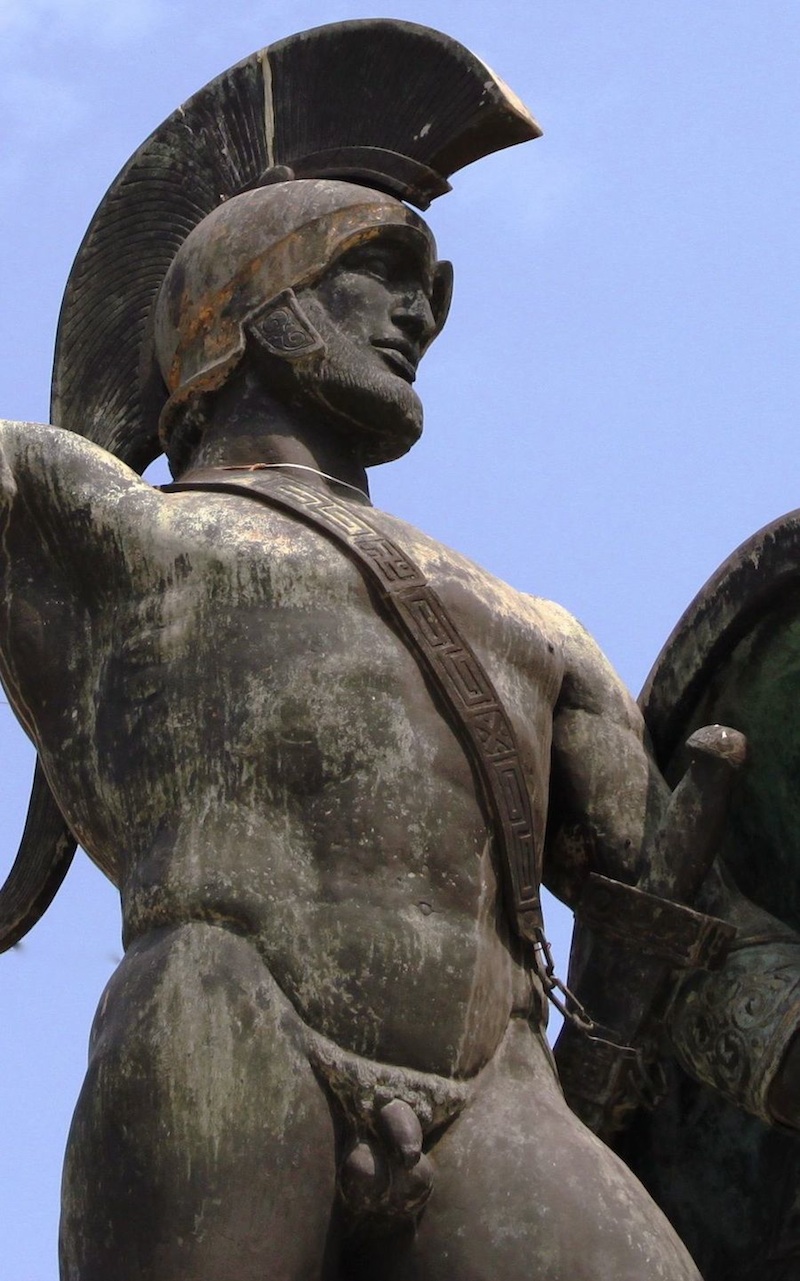


tourists visiting [certain] islands receive specific advice to avoid pregnancy for eight weeks after a visit, and for six months if male partners have had symptoms of Zika infection.
No country yet has stopped dengue or chikungunya, which, like Zika, are spread by the Aedes aegypti mosquito, and the disease agency itself [the CDC] has warned that reductions of 80 percent to 90 percent in those mosquito populations sometimes does not reduce disease transmission.
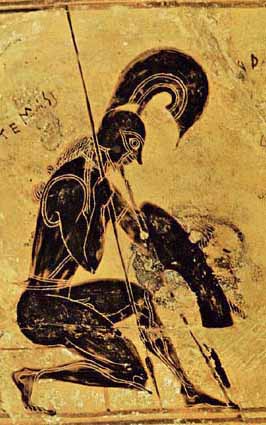
In many details, the ethical doctrines of Plato and Aristotle were founded on the aristocratic morality of early Greece.

![]()





A Nude Boy Victor wears woolen bands and holds
a wreath. The bands or fillets "signify the
consecration of the victor to the God."
The Victor is a living sacrifice
to his God.

Kouros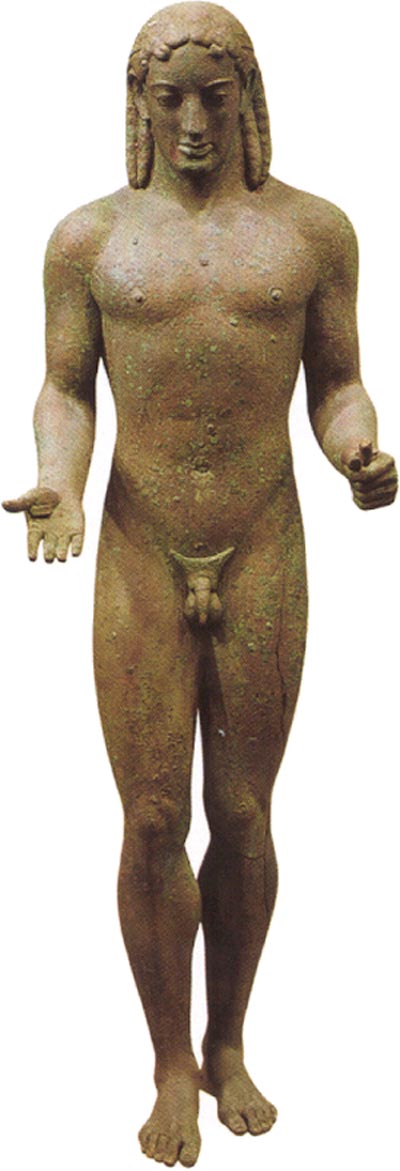
Apollo

Hermes
This statue was found at Olympia
Thus making forever plain
the connection between
Athlete and God












![]()














xxxOf thee I hear and of the Cyclades,
As one who sits ashore and longs perchance
xxxTo visit dolphin-coral in deep seas.
So thou wast blind; - but then the veil was rent,
xxxFor Jove uncurtain'd Heaven to let thee live,
And Neptune made for thee a spumy tent,
xxxAnd Pan made sing for thee his forest-hive;
Aye on the shores of darkness there is light,
xxxAnd precipices show untrodden green,
There is a budding morrow in midnight,
xxxThere is a triple sight in blindness keen;
Such seeing hadst thou, as it once befel
To Dian, Queen of Earth, and Heaven, and Hell.
The heterosexualized society sees men as a problematic group who get in the way of what's called "women's rights."
extols the virtues of bare-knuckle boxing (then illegal), on the grounds that it would help America become "a hardy, robust and combative nation" imbued with "the love of fight."
constitutional government, civil liberties, free exchange of ideas, self-critique, and separation between religious and political/scientific thought.
"Southern planters and dry-goods merchants bet on the results of the conflict," the New York Times lamented; "a mighty population and refined metropolis waits with hushed anxiety to know which of the two ruffians had his pate first broken, or his chest stove in by the other."

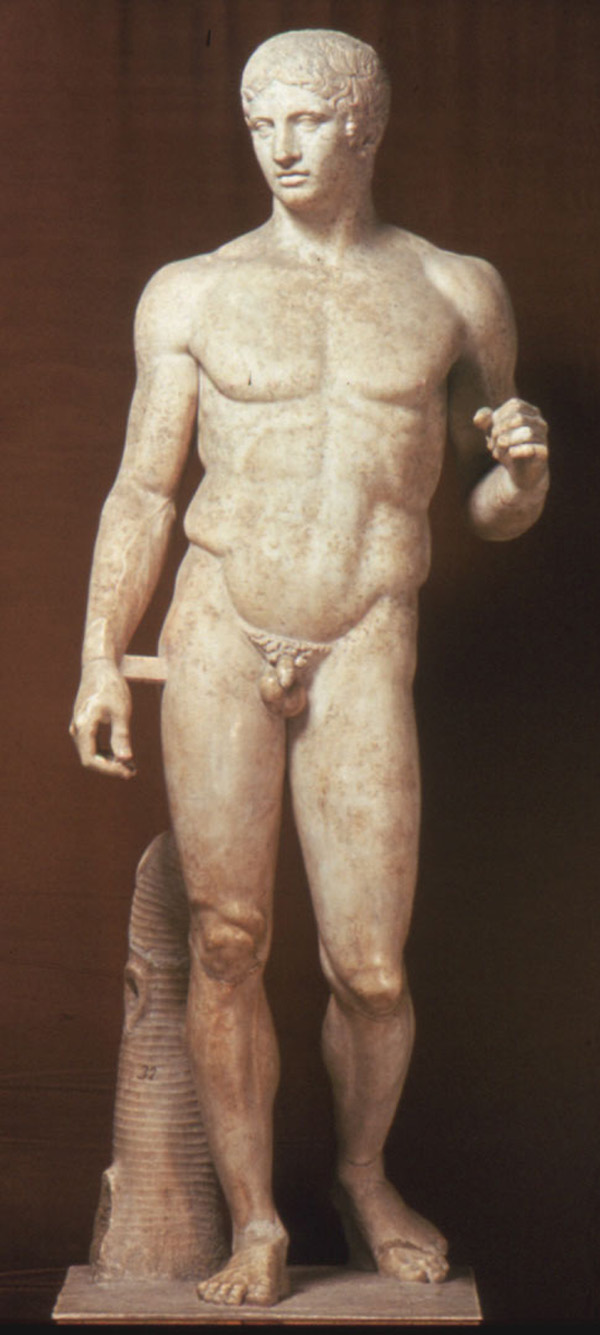









THE LESSON TO BE DRAWN FROM IT -- WITH ONE OR
TWO OTHER MATTERS.
Sunday Morning, Oct. 31, 1858]
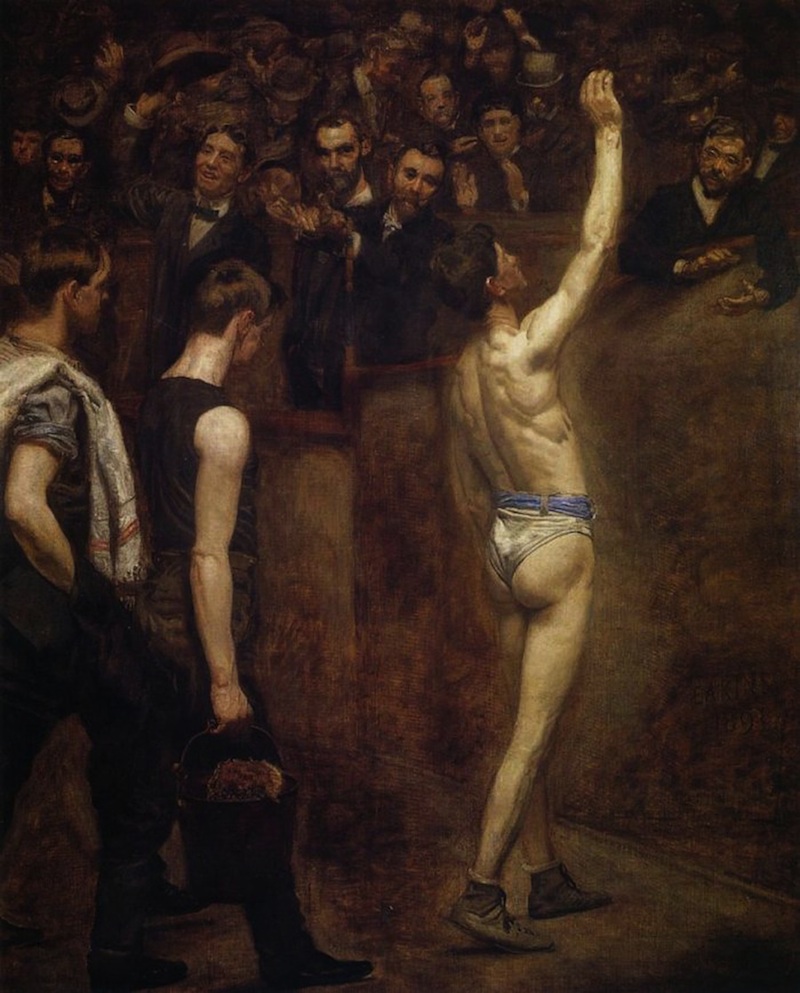



























Warrior Pro-oimion
Warrior Cosmogenesis
Warrior Contest : Warrior Conquest
Warrior Machogenesis
Perfect Manliness and the Eternal Return of the Fighter
Warrior Erotogenesis












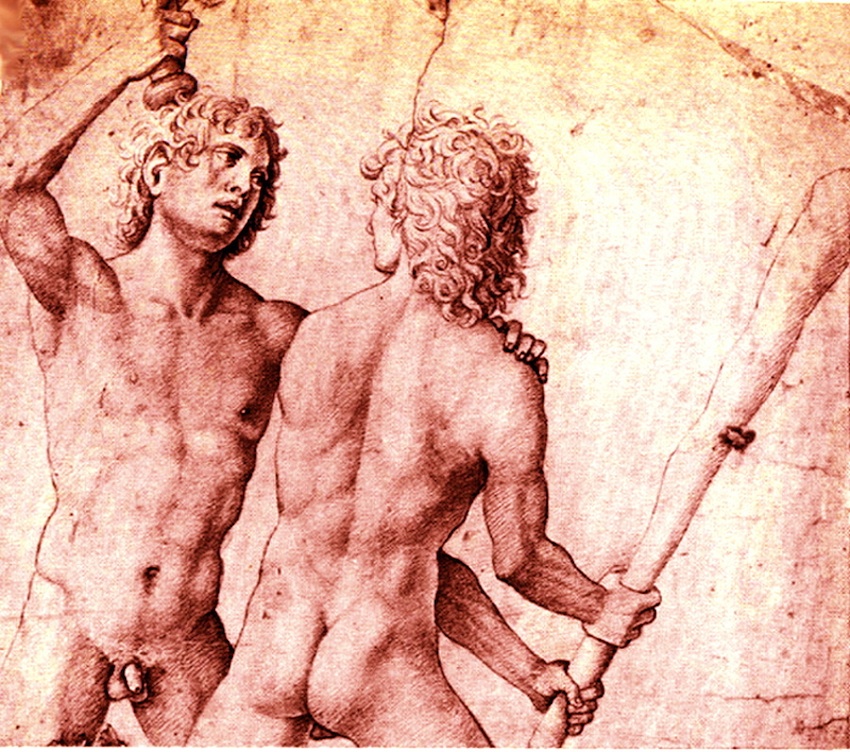


Warrior Pro-oimion
Warrior-God-Work -- is essential to Warrior kosmo-genesis --
the Creation of a Warrior Kosmic Order.
When once the love of silver and gold had crept into the city, closely followed by greed and parsimony [pleonexia kai mikrologia] in the acquisition of wealth and by luxury, effeminacy, and extravagance [truphe, malakia, kai polyteleia] in the use and enjoyment of it, Sparta fell away from most of her noble traits [kalon], and continued in a low estate [tapeinos] that was unworthy of her down to the times when Agis [IV] and Leonidas [II -- father of Kleomenes III] were kings.


Therefore, due to corporeal necessities, certain evils and corruptions occur to parts, but they are salvific and good with respect to wholes, and the harmony of the universe (De Mysteriis 192, 3-6).
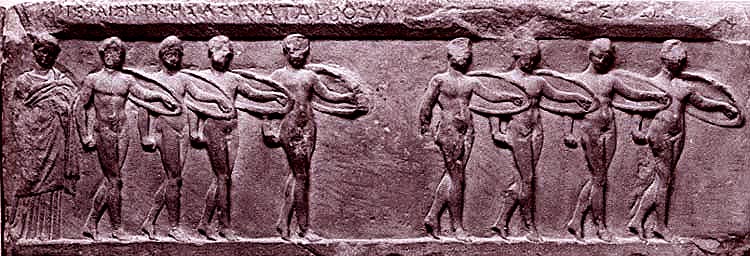
Choral Martial Dance
Therefore, due to corporeal necessities, certain evils and corruptions occur to parts, but they are salvific and good with respect to Wholes, and the harmony of the universe --



Bronze Statue of the Emperor Hadrian
Wearing a Breastplate Decorated with
Scenes of Nude Gladiators Fighting



[I]n fact, they shall do literal fighting with balls and darts as nearly real as possible -- though the points of the darts shall be made less dangerous -- in order that their games of combat may not be devoid of some element of alarm, but may provide terrors and indicate to some extent who is stout-hearted [eupsychos] and who not : to the former the lawgiver shall duly assign honors [timé -- Worth], to the latter degradation [a-timia], that thus he may prepare the whole State to be serviceable throughout life in the real contest. Moreover, if a man gets killed in these sham fights, inasmuch as the murder is involuntary, he shall pronounce the slayer to be pure of hands, when he has been legally purified ; for he will reflect that, when a few men die, others equally good will grow up in their place, whereas, once fear is, so to speak, dead, he will be unable to find a test to distinguish, in all such cases, the good from the bad -- and that is a far greater evil than the other for a State.
[W]hen a few men die, others equally good will grow up in their place ; whereas, once fear is, so to speak, dead, the lawgiver will be unable to find a test to distinguish, in all such cases, the good from the bad -- and that is a far greater evil than the other for a State.
Even the imposition of one "part" on another, while apparently distressful to that part, is necessary and beneficial to the harmony of the "whole."
[9.71] On the side of the barbarians, the greatest courage was manifested, among the foot-soldiers, by the Persians ; among the horse, by the Sacae ; while Mardonius himself, as a man, bore off the palm from the rest. Among the Greeks, the Athenians and the Tegeans fought well ; but the prowess [Areta -- Fighting Manhood] shown by the Lakedaimonians was beyond either. Of this I have but one proof to offer -- since all the three nations overthrew the force opposed to them -- and that is, that the Lakedaimonians fought and conquered the best troops.
[9.85] The Greeks, after sharing the booty upon the field of Plataia, proceeded to bury their own dead, each nation apart from the rest. The Lakedaimonians made three graves ; in one they buried their youths, among whom were Posidonius, Amompharetus, Philokyon, and Kallikrates ; -- in another, the rest of the Spartans ; and in the third, the Helots. Such was their mode of burial. The Tegeans buried all their dead in a single grave ; as likewise did the Athenians theirs, and the Megarians and Phliasians those who were slain by the horse. . . .
All spiritual Eros is begetting : it is the impulse to perpetuate oneself in a love-act or creative work, such that it will live on in the memory of men and have an enduring and living effect. All great poets and artists are begetters and creators of that type ; and most of all those who found and organize states and communities. He whose soul is full of the wish to beget looks for something beautiful by which to beget. If he finds a soul which is beautiful, noble, and talented, he greets the whole man, and makes many speeches to him about areté, and the character and pursuits which a good man should have, and he sets about educating him. So in contact and association with him, he begets the offspring he had had within himself for so long. Both present and absent, he remembers his partner and shares with him in bringing to perfection that which he begot, so that their parentage is a far stronger link than any share in children begotten of the body, and their love is more lasting than that of marriage, because they share in more beautiful and more immortal children. Homer and Hesiod, Lycurgus and Solon are for Plato the highest Greek representatives of this Eros -- for through their works they have begotten all kinds of areté. Poets and legislators are alike in the educational force of their work. Plato regards the spiritual history of Greece from Homer and Lycurgus down to himself as a single unity. Poetry and philosophy, although he believes their conceptions of reality are widely and deeply separated, are united by the ideal of paideia, which springs from Eros, the love for areté.


Didius Julianus -- 193
Septimius Severus -- 193-211
Clodius Albinus -- 193-197
Pescennius Niger -- 193-194
Caracalla -- 198-217
Geta -- 209-211
Macrinus -- 217-218
Diadumenianus -- 218
Elagabal -- 218-222
Severus Alexander -- 222-235
Maximinus -- 235-238
Gordian I -- 238
Gordian II -- 238
Balbinus -- 238
Pupienus -- 238
Gordian III -- 238-244
Philip -- 244-249
Decius -- 249-251
Trebonianus Gallus -- 251-253
Volusianus -- 251-253
Aemilianus -- 253
Valerian -- 253-260
Gallienus --253-268
Claudius II -- 268-270
Quintillus -- 270
Aurelian -- 270-275
Tacitus -- 275-276
Florianus -- 276
Probus -- 276-282
Carus -- 282-283
Carinus -- 283-285
Numerianus -- 283-284
[O]nly two generations earlier, [Hellenist] culture had been far more hopeful.





The range of qualities which virtus covered is listed in a passage from a funeral speech which Q. Metellus gave in 221 BC in honour of his father, L. Caecilius Metellus.
He had to his credit ten of the greatest and best achievements which sages spend their lives trying to attain. Namely, he wished to be a warrior of the first rank ; an outstanding public speaker ; a most courageous general ; one who won great military victories under his own auspices ; to hold the highest offices ; to have great wisdom ; to be considered the foremost senator ; to acquire a great deal of money in an honest fashion ; to leave behind many children ; and to be held in great fame in the community.
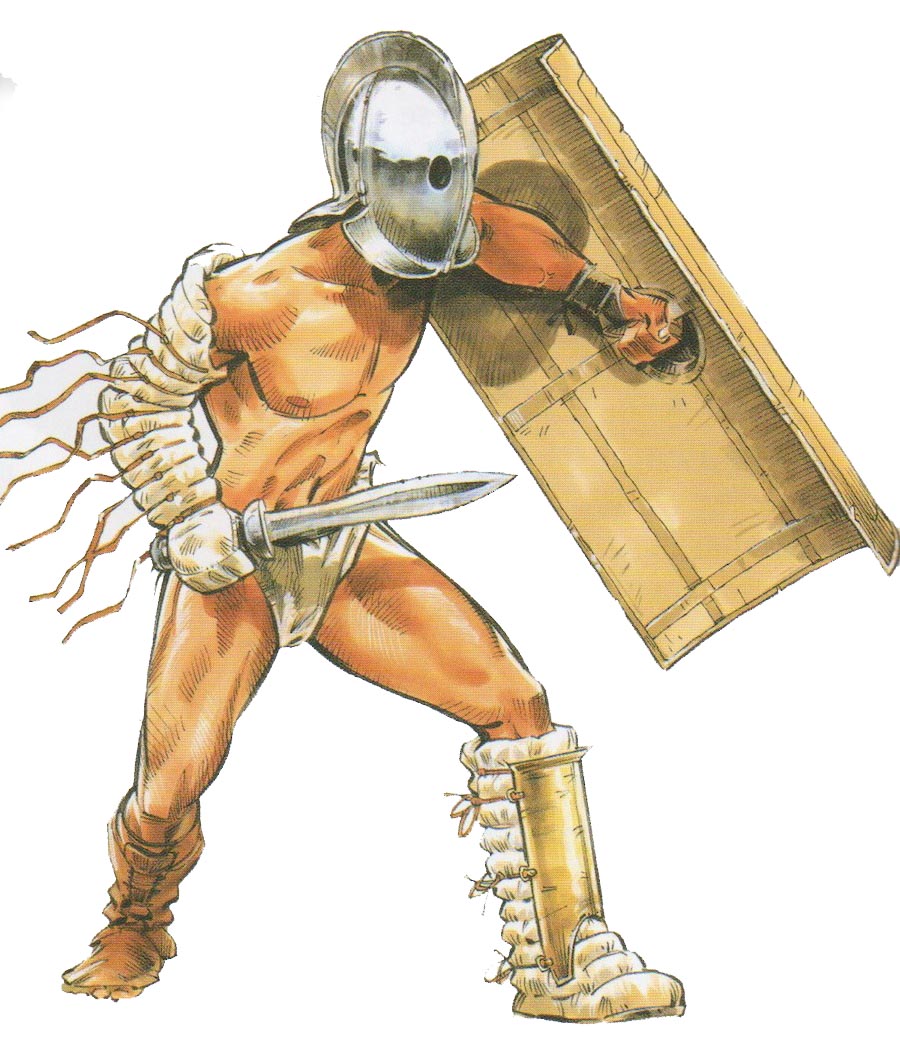

I have long desired, most mighty Emperor, to sing the praises of your valour and achievements [areten -- Manhood -- kai praxeis -- battles -- hymnesai] . . .

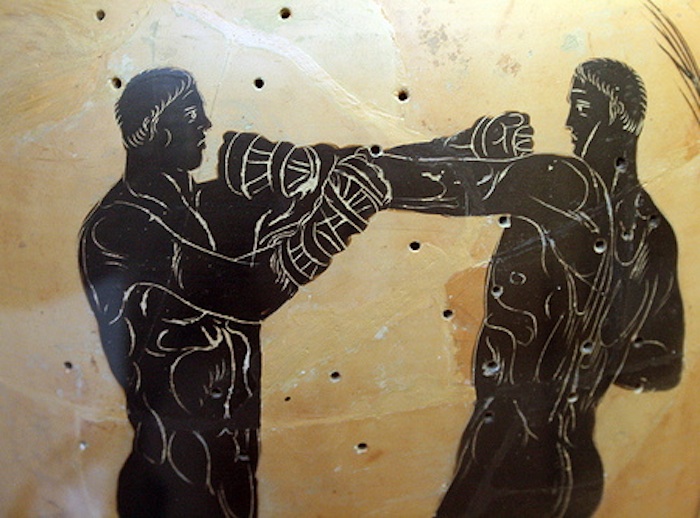













As a Platonist, [Iamblichus] felt responsible to preserve humanity's contact with the Gods, so his concern was not with Christians or with any other group that promised to replace the "old" order with a "new" one. As Plato put it, such purveyors of "new styles" could never corrupt the "sacred" traditions rooted in the cosmic Gods (Laws 657b). Yet Iamblichus was more than a Platonist, he was also one of the holy barbarians [non-Greeks] of whom he speaks. A Syrian by birth, Iamblichus chose not to hellenize his Semitic name, which was the fashion among educated and well-to-do families ; rather, like his own pious barbarians, he remained loyal to a holy ancestry.
In Platonic terms, theurgy fulfilled the goal of philosophy understood as a homoiosis Theo.




The Root ΑΡ [ΑΡΗΣ], appears also in αρετε, the first notion of goodness (virtus)
being that of manhood, bravery in war.
Oxford. Clarendon Press. 1889.















In theurgy, divine principles were embodied and enacted, not merely contemplated, and in whatever context this occurred it was a "work of the Gods," a theourgia in which the human soul participated both as recipient and beneficiary.


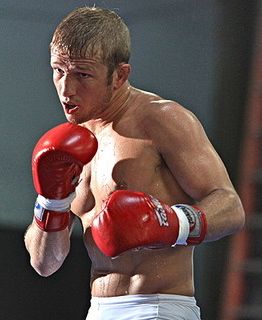
-- through his body posture and facial expression --
and Ability -- through the position of his hands.
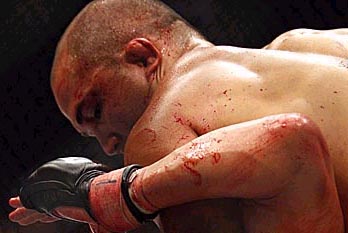
is embodied and enacted by his bloodied body and battered ear ; while his superior position embodies
and enacts his Ability -- the martial merit, virile value, and warrior worth, he needs -- to Defeat his Opponent.




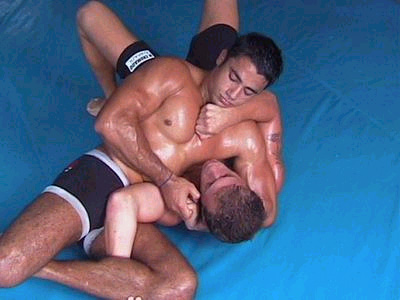
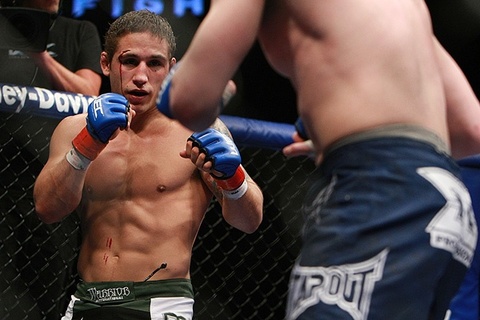
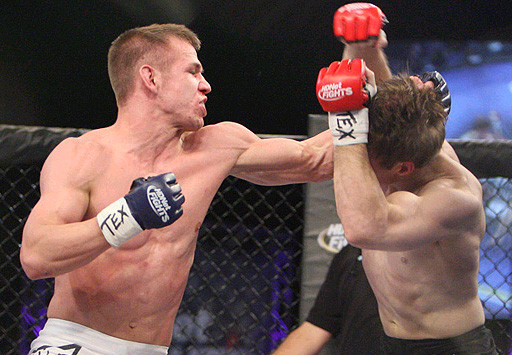

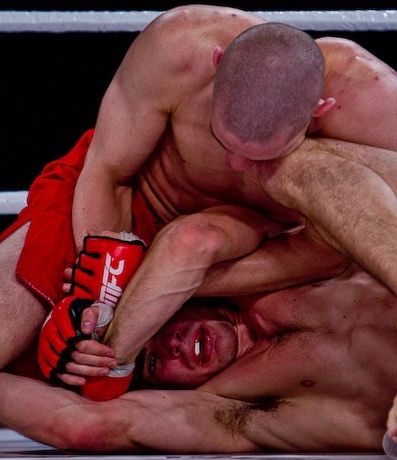






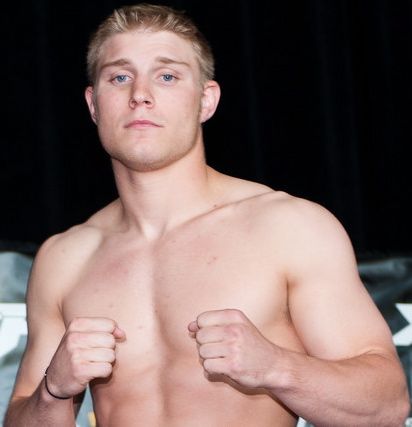










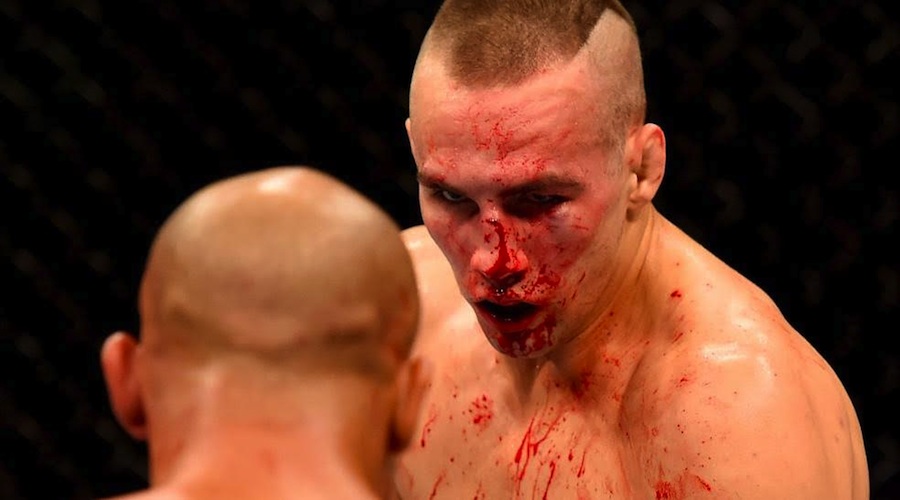











In the hands of Pythagoreans such as Iamblichus, the transcendence/immanence distinction of Plato and Pythagoras was fused into an ineffable principle at once transcendent and immanent.


[T]here's an unbroken continuity and kinship throughout the cosmos . . . Theoretically, any object can connect the human soul with the Gods because the entire world is their energeia and therefore manifests their presence.
: to be inspired or possessed by the God, be rapt, be in ecstasy



Each level on the chain of continuity became the "receptacle" of its superior. Thus, the role of any level would be alternately "formal" or "material," depending on whether the movement was up or down the chain. This "functional" view of matter had been outlined by Aristotle in De Anima (430a, 10-13), where he says that the soul's cognitive powers are "matter" for the forms which they receive, i.e., insofar as anything is receptive to an informing principle, it is matter/hule with respect to that principle.
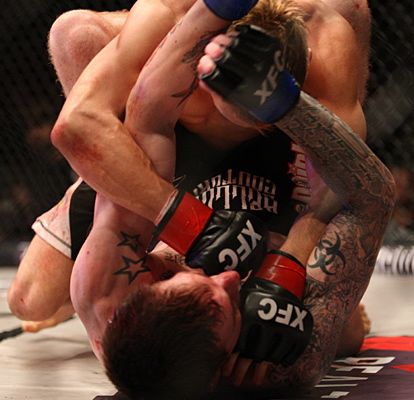
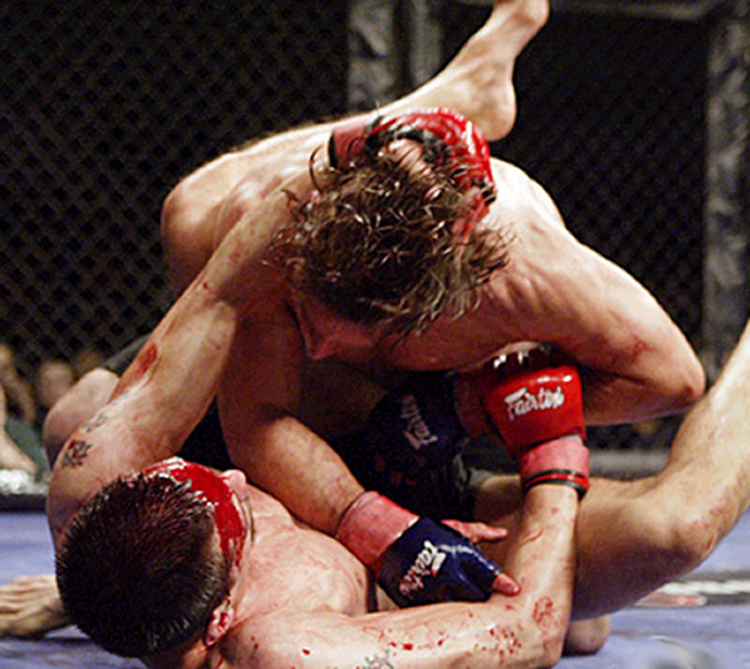



If the power of the Gods extends in revealing itself as far as to inanimate things like pebbles, rods, pieces of wood, stones, corn, or wheat, this very fact is the most striking aspect of the divine prognostic in divination, for it gives soul to soulless things and motion to things without the power of movement. It makes all things clear and known, participate in reason, and be defined by the measures of noesis although they possess no reason in themselves (DM 141, 14-142, 3).
Just as God sometimes makes an innocent fool speak words of wisdom -- by which it is clear to all that the speech is not human but divine -- in the same way God reveals ideas (noemata) that transcend all [human] knowledge through things deprived of knowledge (DM 142, 5-10).



















is instantiated by his battered and bloody face ; while his raised arms instantiate his Ability --
the martial merit, virile value, and warrior worth, he needs -- to Defeat his Opponent.





willing to perform actions both holy and unholy -- nay, utterly shameful -- without a scruple, provided only that he is able to sate himself to repletion, like a beast, with all manner of foods and drinks and wenchings.
True.
Then let this which I describe be laid down as one cause which hinders the States from adequately practicing either military operations or any other noble pursuits [kalon -- Morally Beautiful -- ta kala -- acts of Moral Beauty] and which turns men who are of a quiet nature into traders, ship-owners, and servants, while of the Manly [andreios] it makes pirates, burglars, temple-robbers [hierosuloi], mercenaries, and tyrants -- and that though, in some cases, they are not ill-natured, but merely ill-fortuned.
How so?
Well, how could I describe otherwise than as utterly unfortunate men who are compelled to go through life with hunger [for gold] always in their own souls?
For Iamblichus, Plato's Laws provide the model of a community properly placed in the cosmos.
Kronos gave our communities as their kings and rulers not men, but Daimones, Beings of diviner and superior kind, just as we do the same with our flocks of sheep and herds of other domesticated animals. We do not set oxen to manage oxen, or goats to manage goats ; we, their betters in kind, act as masters ourselves. So the God, in His kindness to man, did the same : he set over us the superior race of Daimones. (Laws 713cd, trans. A. E. Taylor)
The Daimons of Iamblichus may be likened to "laws of nature."
The main part of the discourse I delivered yesterday was concerned with the kind of constitution which seemed to me likely to prove the best, and the character of its citizens.
And in truth, Socrates, the polity you described was highly approved by us all.
Did we not begin by dividing off the class of land-workers in it, and all other crafts, from the class of its defenders [hoi propolemountes] ?
Yes.
And when, in accordance with Nature [physis], we had assigned to each citizen his one proper and peculiar occupation, we declared that those whose duty it is to fight in defence of all must act solely as Guardians [phulax] of the State, in case anyone from without or any of those within should go about to molest it ; and that they should judge leniently such as are under their authority and their natural friends, but show themselves stern in battle [chalepous de en tais machais] towards all the enemies they encounter.
Very true.
For we said, as I think, that the soul of the Guardians ought to be of a nature at once spirited and philosophic [thumoeides kai philosophos] in a superlative degree, so that they might be able to treat their friends rightly with leniency and their foes with sternness.
Yes.
And what of their training [trophe] ? Did we not say that they were trained in gymnastike [nude training, much of it in Fight Agonia], in music [mousike], and in all the studies proper for such men?
Certainly.
And it was said, I believe, that the men thus trained should never regard silver or gold or anything else as their own private property [idios] ; but as auxiliaries, who in return for their guard-work receive from those whom they protect such a moderate wage as suffices temperate [sophron] men, they should spend their wage in common [koine] and live together in fellowship one with another, devoting themselves unceasingly to virtue [areté -- Manhood], but keeping free from all other pursuits.
[S]uppose, for instance, that on seeing beautiful creatures, whether works of art or actually alive but in repose, a man should be moved with desire to behold them in motion and vigorously engaged in some such exercise as seemed suitable to their physique [soma] ; well, that is the very feeling I have regarding the State we have described. Gladly would I listen to anyone who should depict in words our State contending [athleo] against others in those struggles [athlos] which States wage [agonizomai] ; in how proper a spirit it enters upon war [polemos] , and how in its warring [polemeo] it exhibits qualities such as befit its education and training [paideia kai trophe] in its dealings with each several State whether in respect of military actions [praxis] or in respect of verbal negotiations.
vigorously engaged in some such exercise as seems suitable to their physique -- somata -- bodies --


against others in those struggles which States wage . . . war and warring -- polemos kai polemeo :



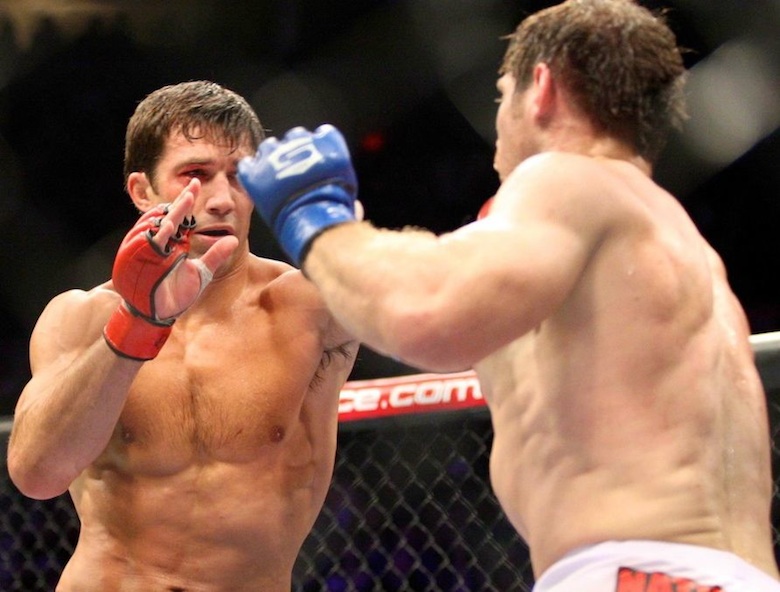


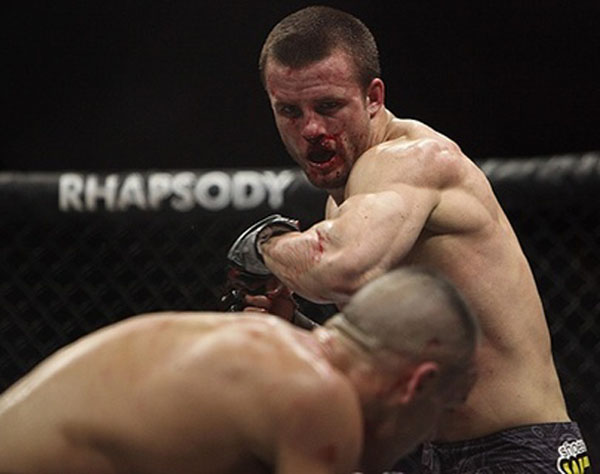


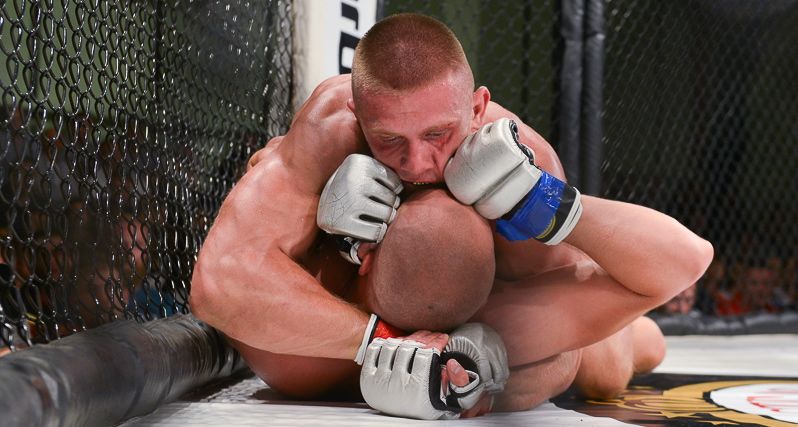


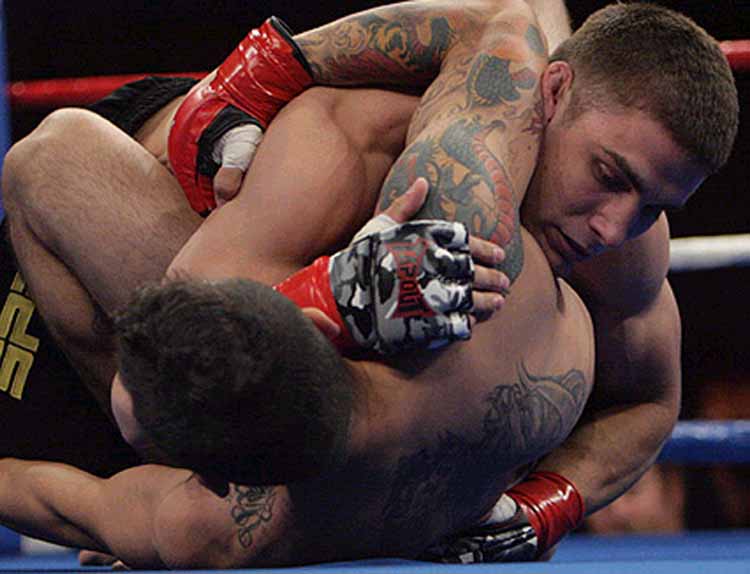
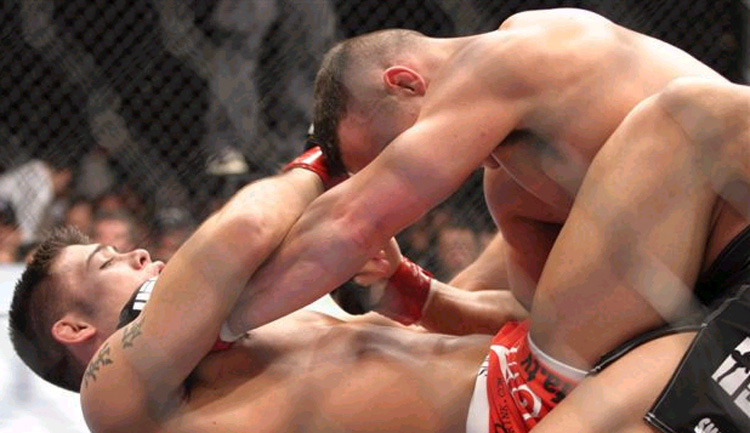
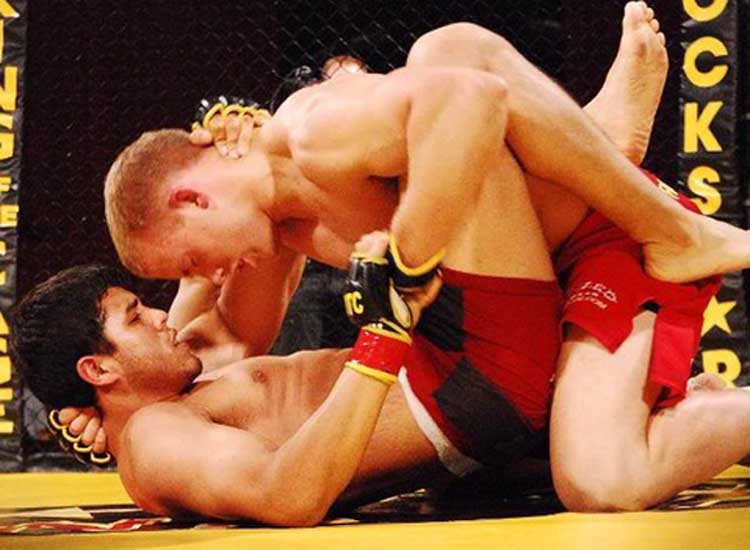









![]()





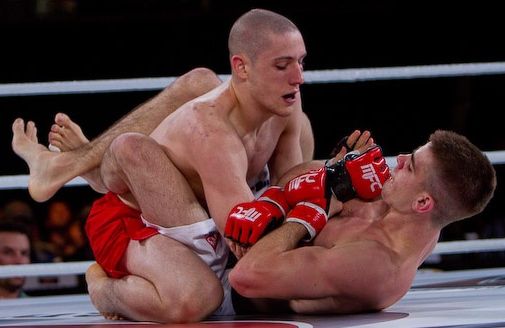



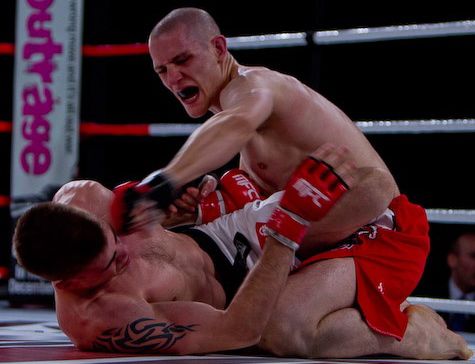


































In a locative orientation, [and for Plato and Iamblichus,] evil and the "demonic" [chaos, disorder, and evil -- in short, that which threatens the cosmos] arise only when something is "out of place" ; in Plato's taxonomy [system of classification -- esp of beings], the demonic was relegated to the province of the inverted soul [-- inverted because of the chaos of embodiment --], turned "upside-down" (an-atrope) and alienated from the Whole.


For Iamblichus, the doctrine of the undescended soul struck at the heart of Platonic paideia because it threatened to de-sacralize [make UN-sacred] and demonize the cosmos[, while at the same time denying] the value of religious rituals tied to the natural world. . . .



[Yet] Porphyry conceived of salvation as the soul's permanent escape from the cosmos, "never again to find itself held and polluted by the contagion of the world." In this, he abandoned the Platonic doctrine of rebirth, yet his unorthodoxy with respect to traditional Platonism was consistent with its "gnosticized" form, where the cosmos, and not the soul, carried the burden of the demonic. Porphyry maintained that permanent escape was possible only for the philosopher, not for the common man, and this again exemplifies the social as well as ontological oppositions tied to the doctrine of the undescended soul. Those incapable of the philosophic escape, says Porphyry, performed theurgic rites to purify their irrational elements, but such souls were never free.
The task for every soul is to partake of Divine Mimesis by creating a cosmos out of the initial chaos of its embodiment.




This doctrine spells the ruin of all holy ritual and theurgic communion between Gods and Men since it places the presence of superior beings outside this earth. For it amounts to saying that the Divine is at a distance from the earth and cannot mingle with Men, and this lower region is a desert, without Gods.
This doctrine spells the ruin of all holy ritual and theurgic communion between Gods and Men since it places the presence of superior beings outside this earth. For it amounts to saying that the Divine is at a distance from the earth and cannot mingle with Men, and this lower region is a desert, without Gods.
This doctrine spells the ruin of all holy ritual and theurgic communion between Gods and Men since it places the presence of superior beings outside this earth. For it amounts to saying that the Divine is at a distance from the earth and cannot mingle with Men, and this lower region is a desert, without Gods.
"The truth is that for thousands of years we looked to what was living. Now you look to what is dead, you worship a dead man and tell one another that this world is not for us, while the next is all that matters. Only there is no next world."
Contempt for Sacred Manhood, as well as degradation and debasement of it, pushes man from the Divine Reality. It provokes the anger of the Gods and leads to the decline of the species. The male who scorns the very Essence of the Life Principle abandons his kind to the powers of death.


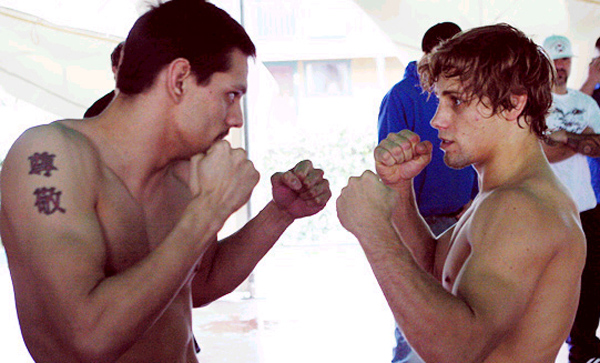
Agonist and Antagonist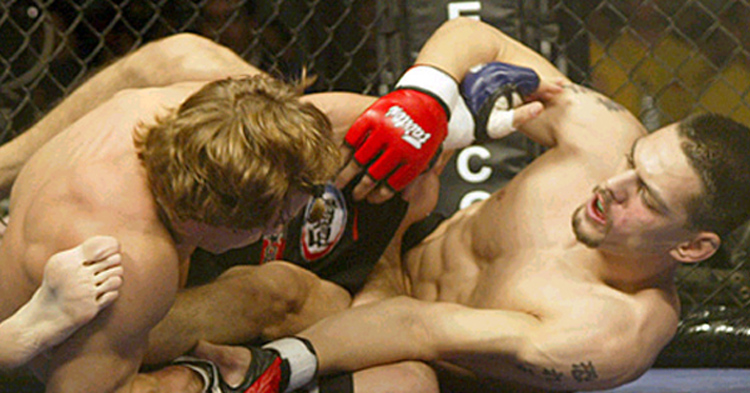
Fight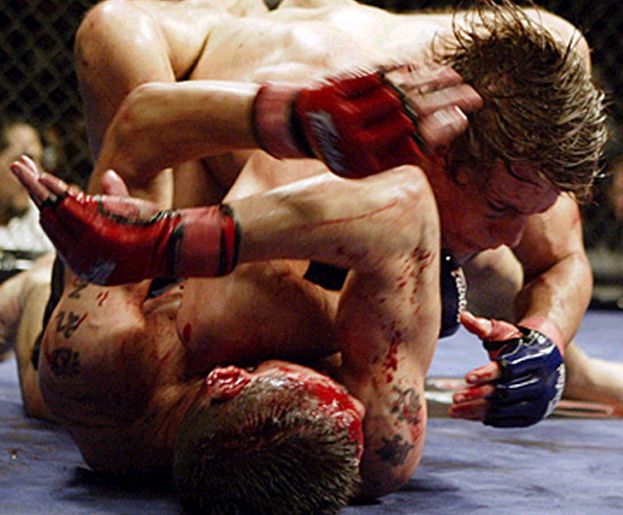
The Fighters are Possessed by Ares
The Fighters become the Fight
The Fighters become Ares
Ares Is Fight
Ares Is Manhood
Ares Is Fighting Manhood









[T]heurgy was Iamblichus's attempt to ensure the Deification of souls through their assimilation to the orders of the cosmos -- a traditional Platonic teaching.








The God, Demiourgos, is not the creator of matter, but when he receives it, as eternal, he molds it into forms and organizes it according to numerical ratios.
If, as the Pythagoreans say, "there is a combination and unification of disagreeing parts and a harmony of things naturally at war," the essence of harmony necessarily holds rule.
There is nothing in existence in which opposition is not present.


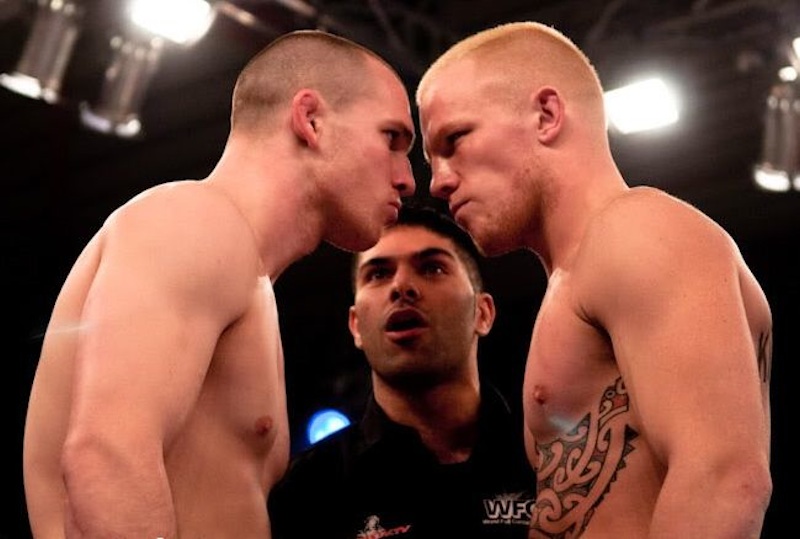






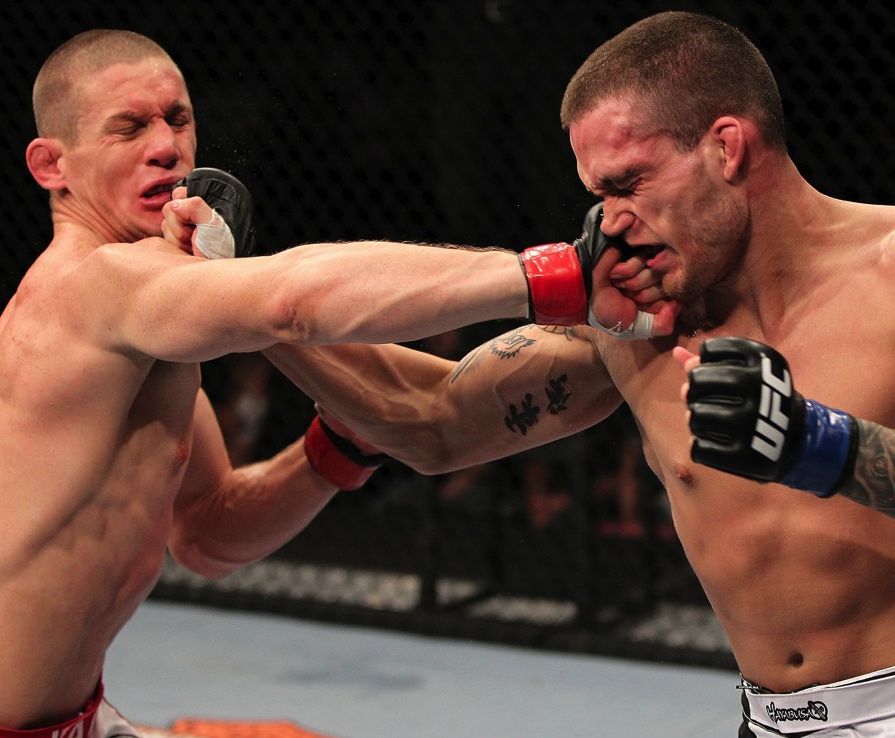

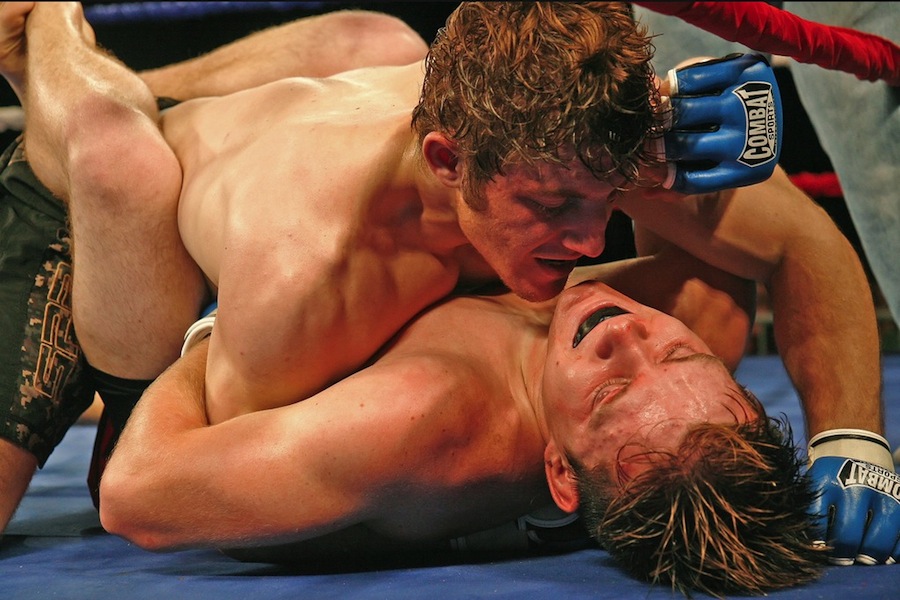


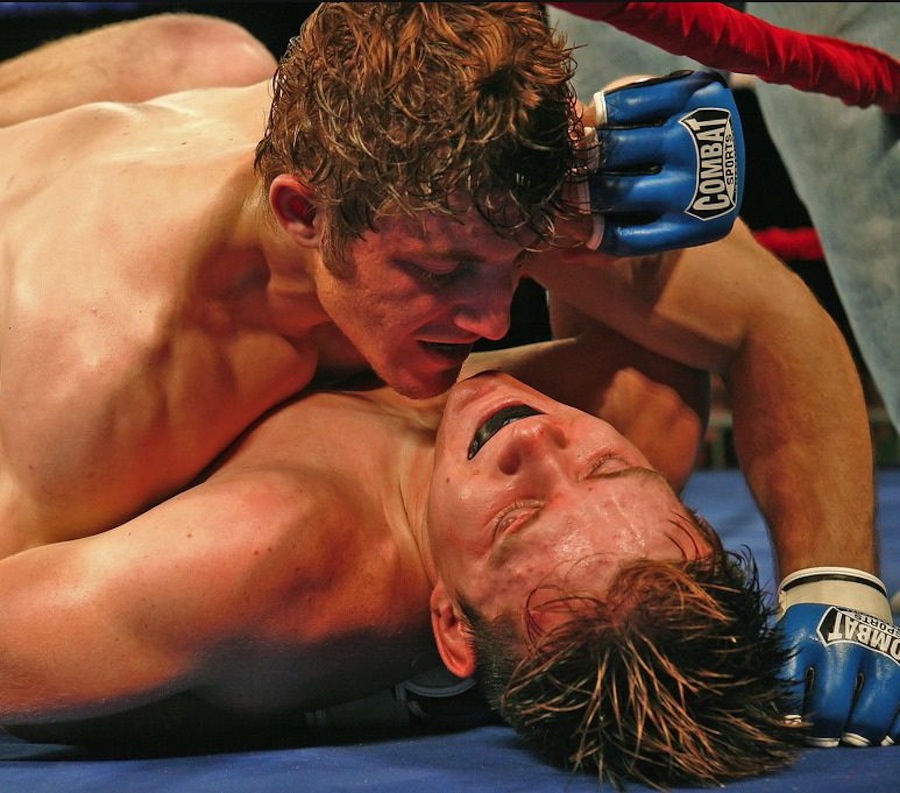

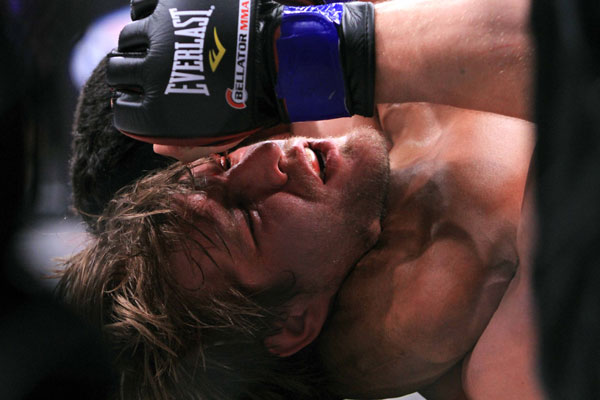

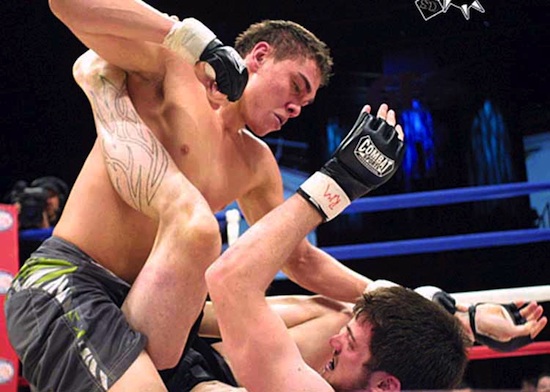


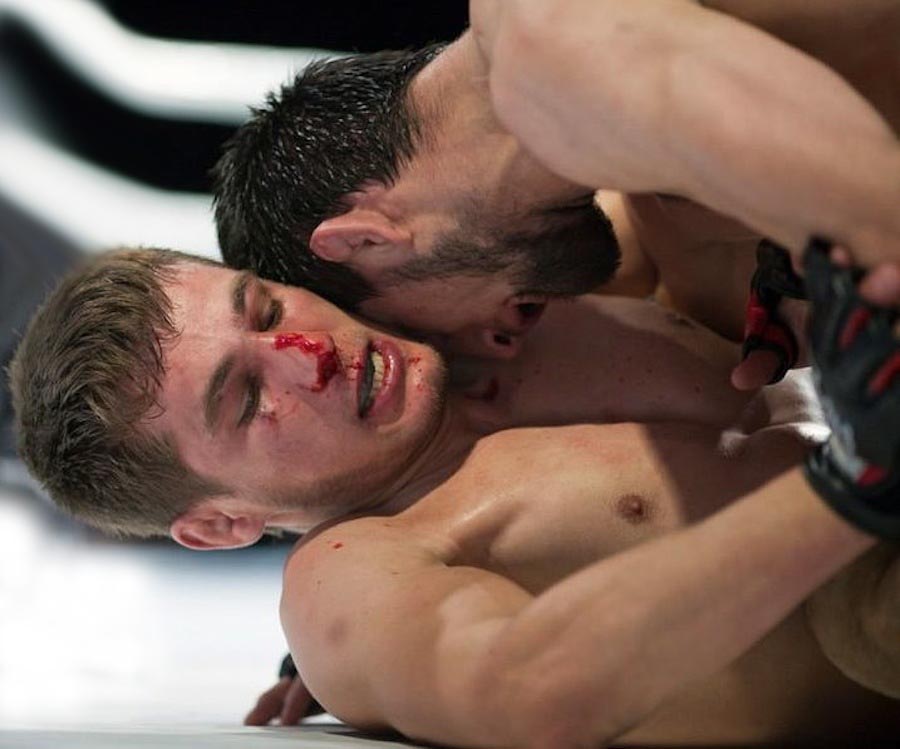



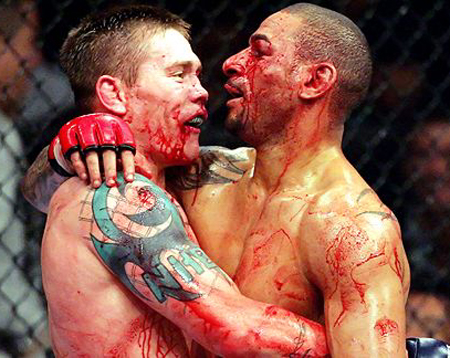
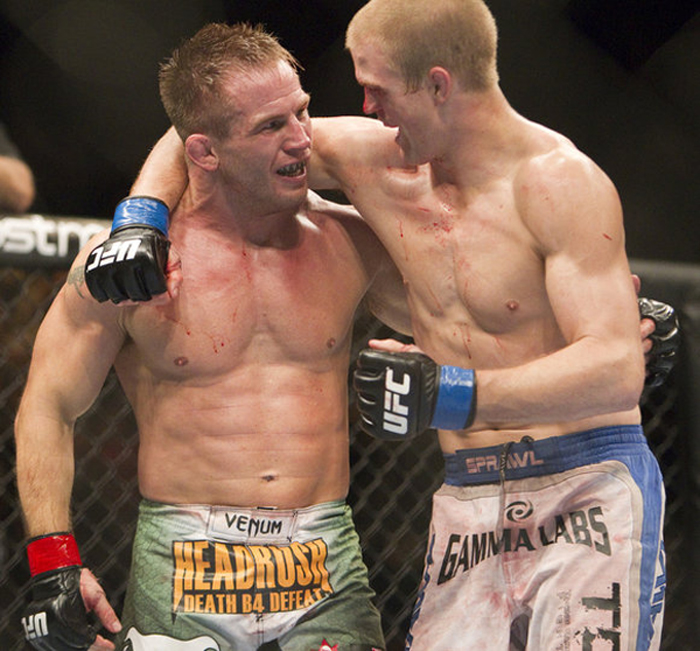
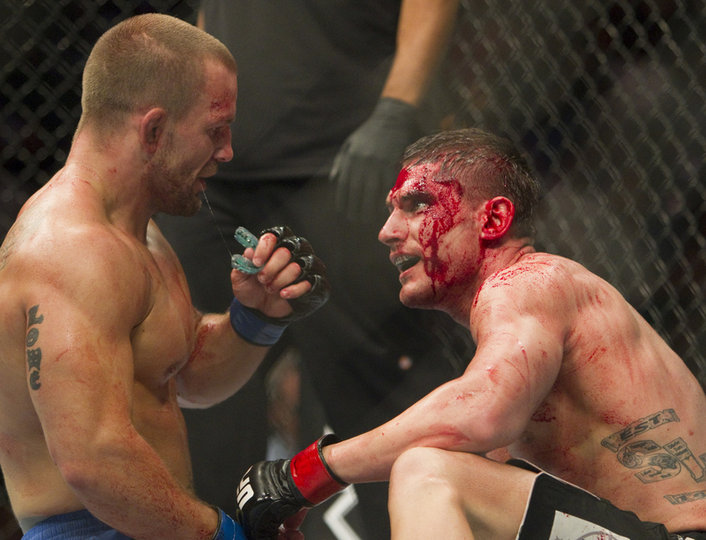
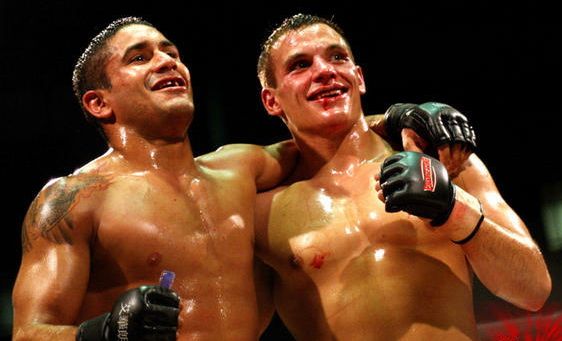
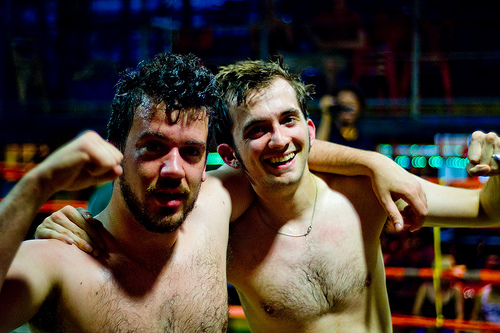

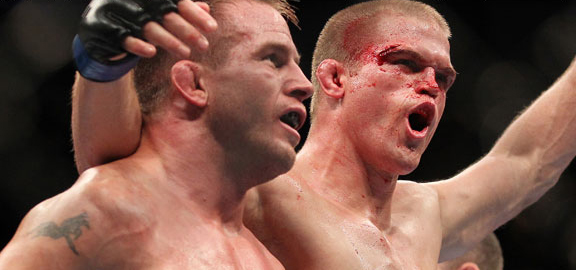




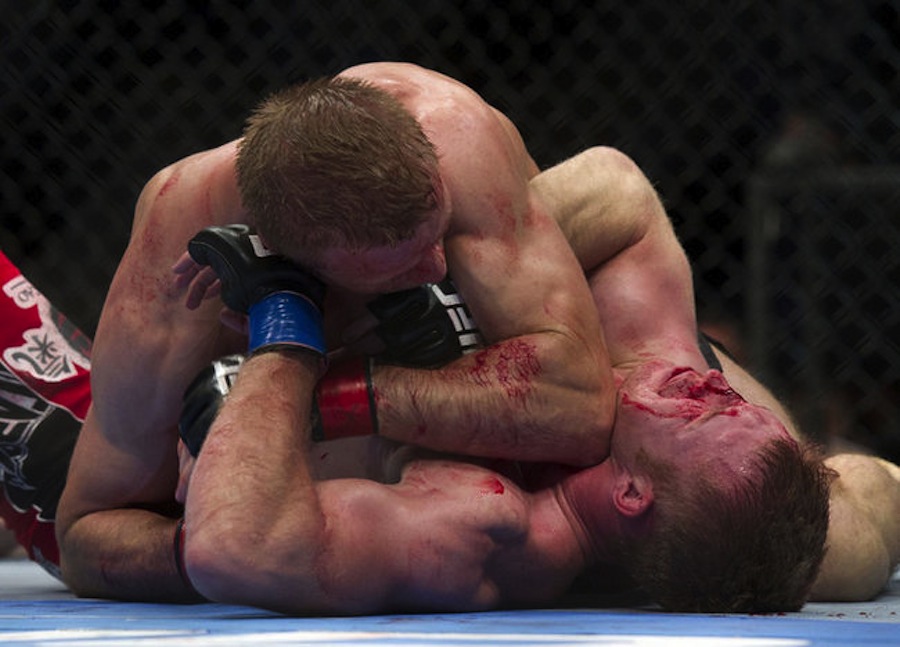










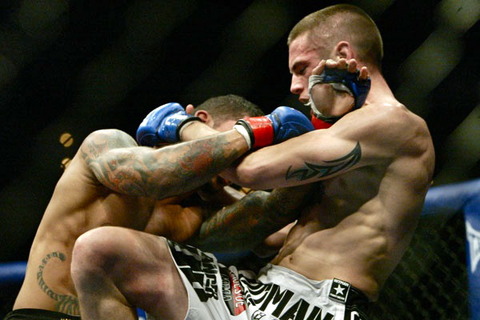



If, as the Pythagoreans say, "there is a combination and unification of disagreeing parts and a harmony of things naturally at war," the essence of harmony necessarily holds rule.
There is nothing in existence in which opposition is not present.
Form and Matter
Each level on the chain of continuity became the "receptacle" of its superior. Thus, the role of any level would be alternately "formal" or "material," depending on whether the movement was up or down the chain. This "functional" view of matter had been outlined by Aristotle in De Anima (430a, 10-13), where he says that the soul's cognitive powers are "matter" for the forms which they receive, i.e., insofar as anything is receptive to an informing principle, it is matter/hule with respect to that principle.
Part and Whole
Therefore, due to corporeal necessities, certain evils and corruptions occur to parts, but they are salvific and good with respect to wholes, and the harmony of the universe (De Mysteriis 192, 3-6).
While human souls were particular and had a partial perspective, the World Soul and celestial souls [Gods] were "wholes," complete worlds with a global perspective. . .
While embodied male souls are particular and have a partial perspective, the Warrior World Soul and the Warrior Gods are "wholes," complete and divine Beings with a global perspective. . .



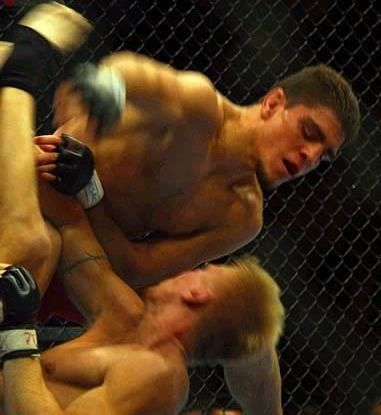










As an astronaut I spacewalked 220 miles above the Earth. Floating alongside the International Space Station, I watched hurricanes cartwheel across oceans, the Amazon snake its way to the sea through a brilliant green carpet of forest and gigantic nighttime thunderstorms flash and flare for hundreds of miles along the Equator. From this God's-eye-view, I saw how fragile and infinitely precious the Earth is.

[E]ach soul had the responsibility to perform its own demiurgy, that is to say, its own theurgy. The task for every soul was to partake of divine mimesis by creating a cosmos out of the initial chaos of its embodiment.
Each male soul has the responsibility to perform its own demiurgy, that is to say, its own theurgy.
The task for every male soul is to partake of Divine Mimesis by creating a cosmos out of the initial chaos of its embodiment.





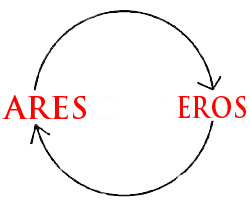












:











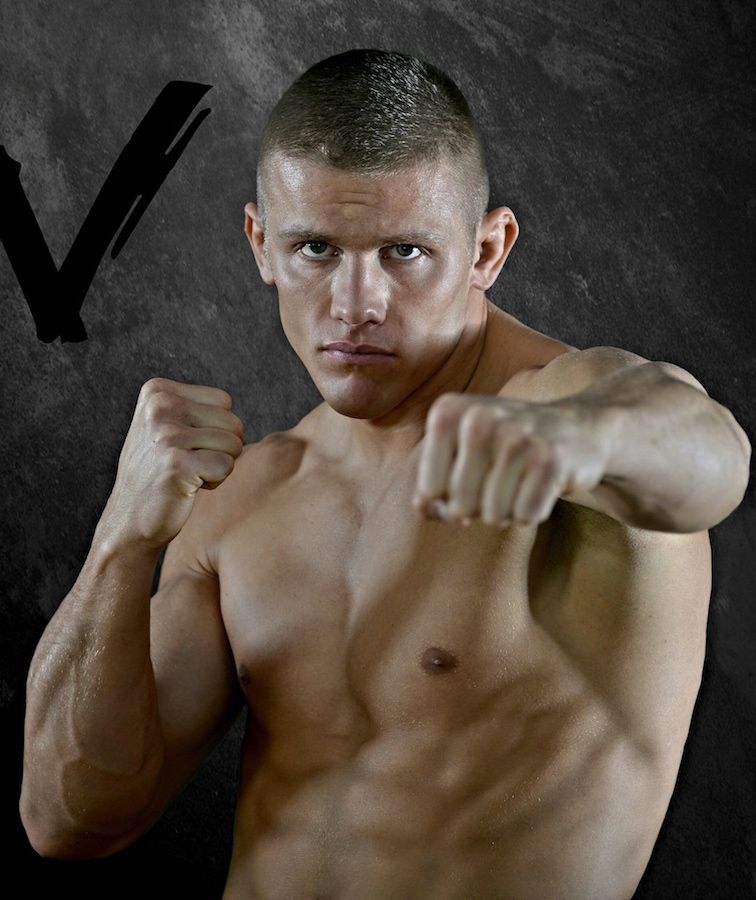


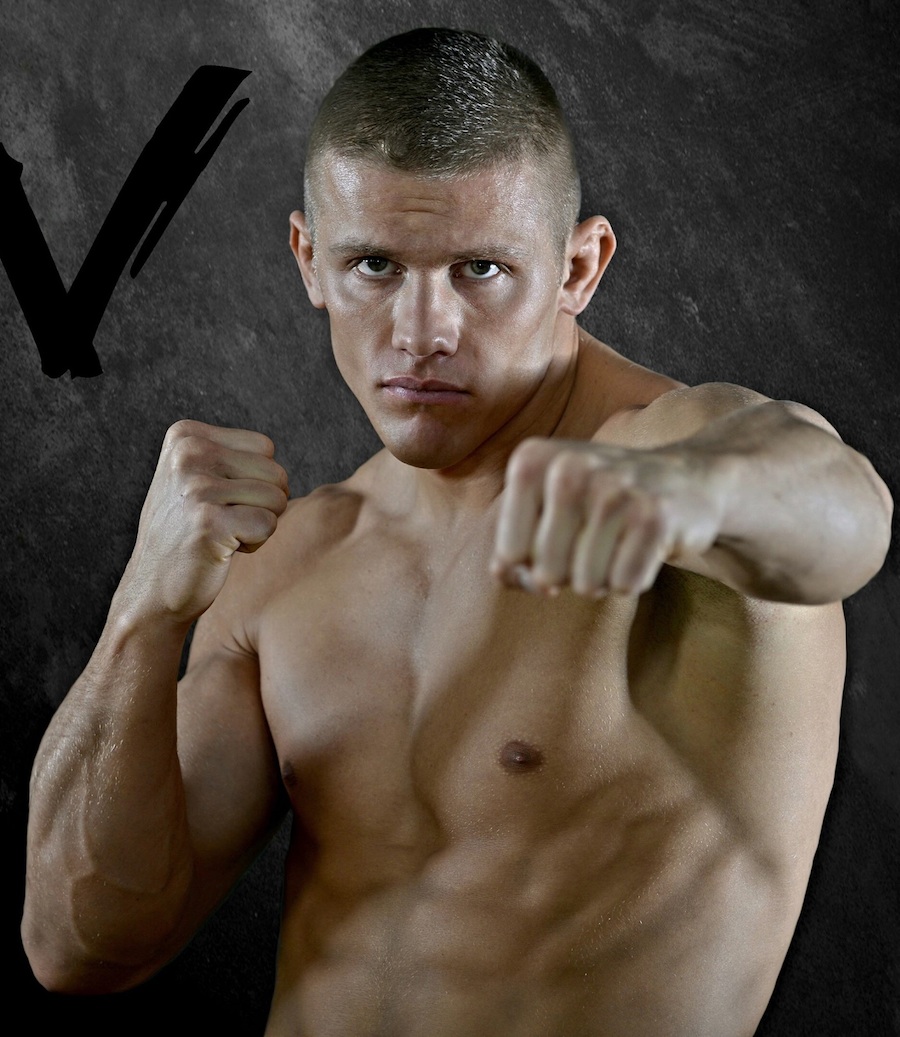
Iamblichus argued that the effective agent in theurgy was philia, or, speaking Platonically, that eros drew the soul back to the Gods (Cf. De Mysteriis 239, 7-13). Although the heavenly cycles described in [Plato's dialogues] the Phaedrus and the Timaeus were the goal to which a Platonist aspired, it was erotic madness that brought him there. According to the Chaldean Oracles, Eros was the first God born of the Paternal Father ; Eros coordinated the Ideas in the intelligible world, and, proceeding with them, knitted the cosmos together in a unified bond. In a word, the will of the Demiurge [the Demiourgos -- the Craftsman or Artisan] was revealed as Eros :
For after He conceived his works, the self-generated Paternal Mind sowed the bond of Love, heavy with fire, into all things . . . in order that the All might continue to love for an infinite time, and the things woven by the intellectual light of the Father might not collapse . . . [It is] with this Love (eros) that the elements of the world remain on course.
God produced matter out of the scission [cutting] of materiality from substantiality [ie, all Formal qualities], which the Demiurge, receiving as a living substance, fashioned into simple and impassable spheres, and organized the last of this into generated and immortal bodies (DM 265, 6-10).
And thus, from on high to the lowest things, the Egyptian doctrine concerning principles (archai) begins from the One and proceeds into multiplicity, and the multitude in turn is governed by the One ; and everywhere the indefinite nature is ruled by a certain defined measure, and by the highest uniform cause of all things (DM, 264, 14-265, 6).
















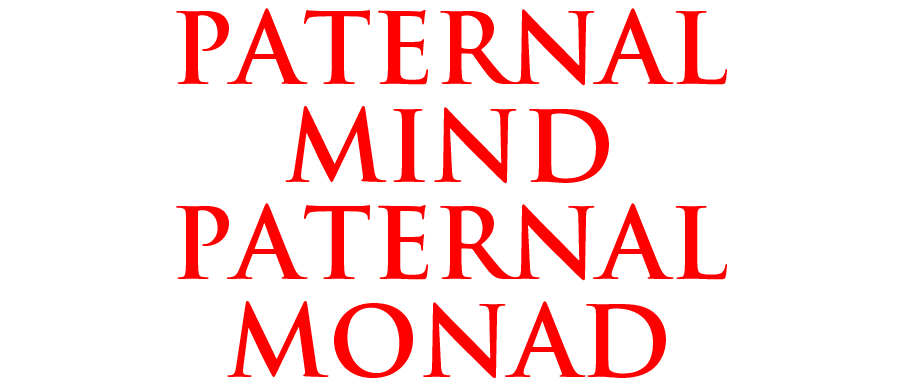












The God, Demiourgos, is not the creator of matter, but when he receives it, as eternal, he molds it into forms and organizes it according to numerical ratios.
If, as the Pythagoreans say, "there is a combination and unification of disagreeing parts and a harmony of things naturally at war," the essence of harmony necessarily holds rule.
There is nothing in existence in which opposition is not present.
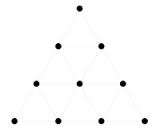
Now, of the mathematical numbers, let the two first and highest principles be set forth : the One (which one must not yet call "being," on account of it's being simple, the principle of beings, and not yet that sort of being of which it is principle), and the other is the principle of the Many, which of itself -- is able to provide division. Because of this, as much as it is in our power to say, we compare it to a completely fluid and pliant matter.
Let it be thus for us. In the elements from which numbers arise neither beauty nor the good yet exist, but out of the combination of the One and the causal matter of the Many, number subsists. In these first existences [numbers], being and beauty appear, and, in turn, from the elements of lines, geometrical existence appears in which being and beauty are similarly found and in which there is nothing ugly or evil.
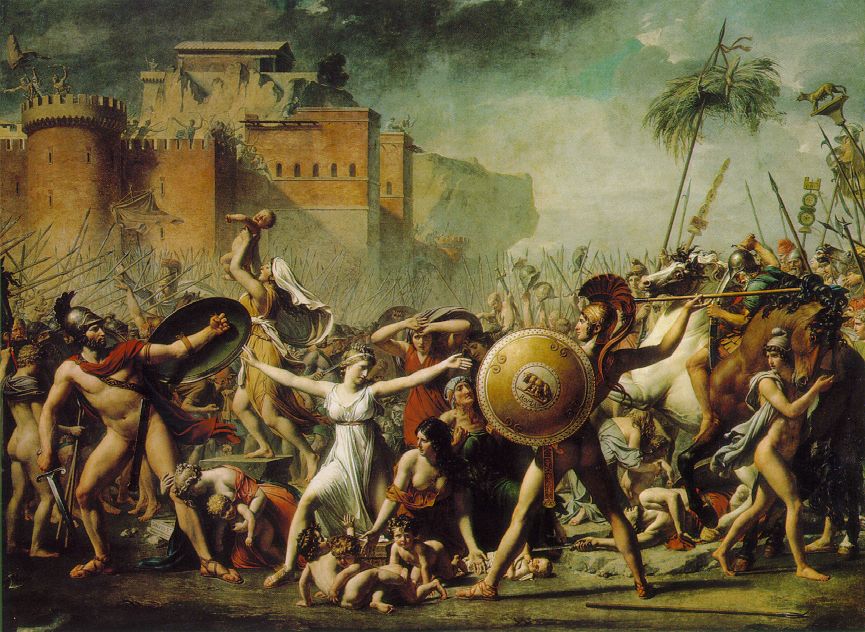










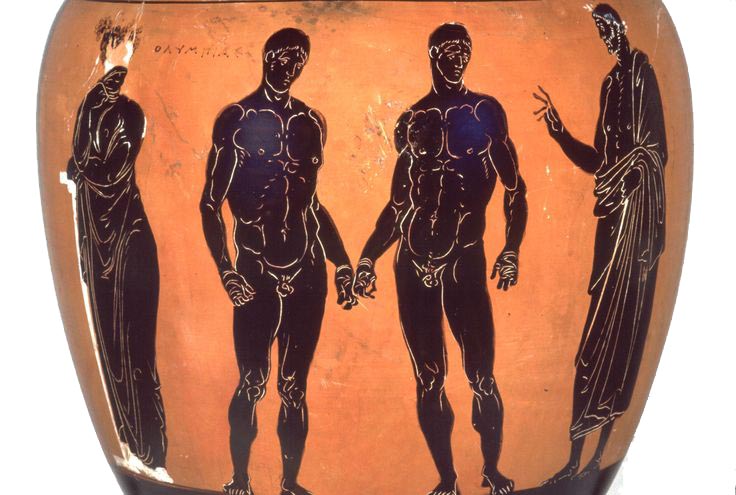


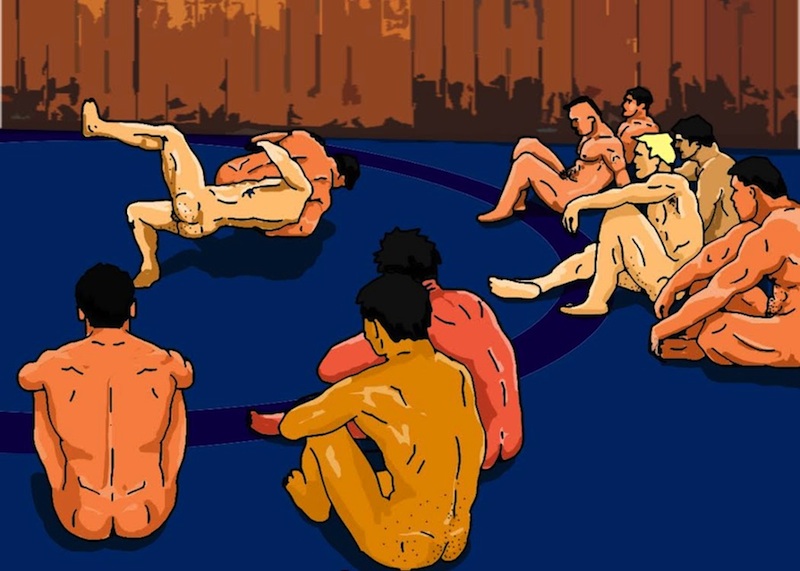
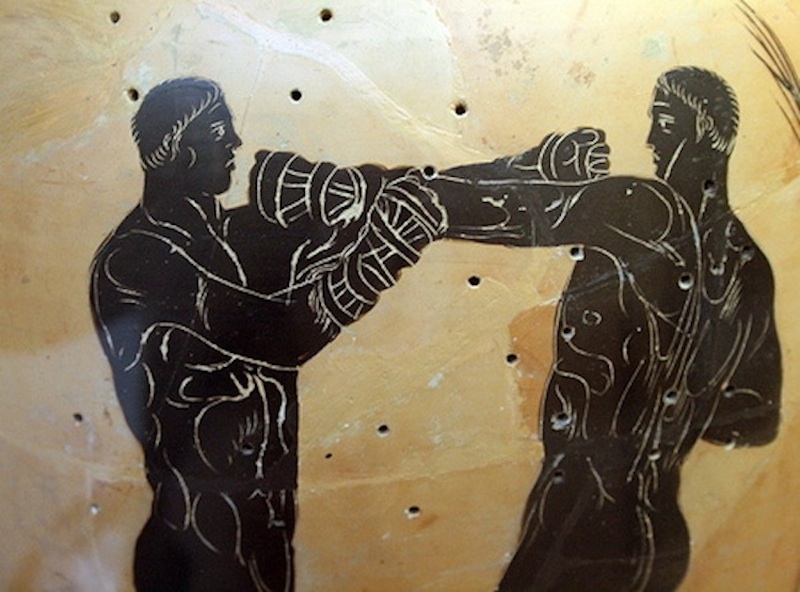


Theurgy, therefore, may be seen as the ritual elaboration of both the Platonic doctrines of eros and anamnesis.
Warrior Theourgia can be seen as the ritual elaboration of both the Platonic doctrines of An-amnesis and Eros.
Iamblichus argued that the effective agent in theurgy was philia, or, speaking Platonically, that eros drew the soul back to the Gods (Cf. De Mysteriis 239, 7-13). Although the heavenly cycles described in [Plato's dialogues] the Phaedrus and the Timaeus were the goal to which a Platonist aspired, it was erotic madness that brought him there. According to the Chaldean Oracles, Eros was the first God born of the Paternal Father ; Eros coordinated the Ideas in the intelligible world, and, proceeding with them, knitted the cosmos together in a unified bond. In a word, the will of the Demiurge [the God Demiourgos -- the Craftsman or Artisan] was revealed as Eros :
For after He conceived his works, the self-generated Paternal Mind sowed the bond of Love, heavy with fire, into all things . . . in order that the All might continue to love for an infinite time, and the things woven by the intellectual light of the Father might not collapse . . . [It is] with this Love (eros) that the elements of the world remain on course.





[A youth who] shows to the world physical strength and stamina, virile courage and sobriety [rome kai karteria kai andreia -- Manliness -- kai sophrosyne].
Setting one's heart on such traits gives an insight into the lover's character [physis erastou].
For I cannot name a time when I was not in love with some one
Setting one's heart on such traits gives an insight into the lover's character.




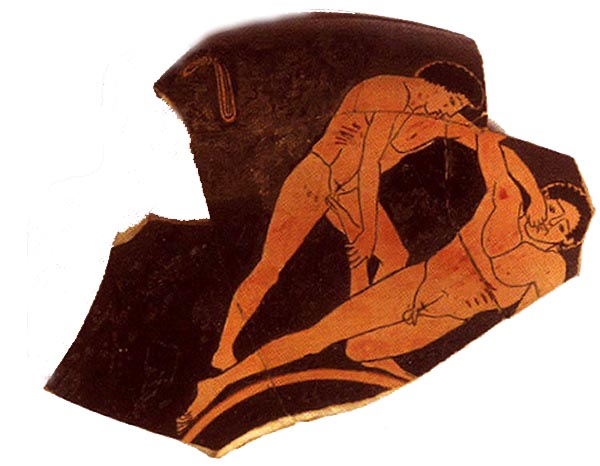



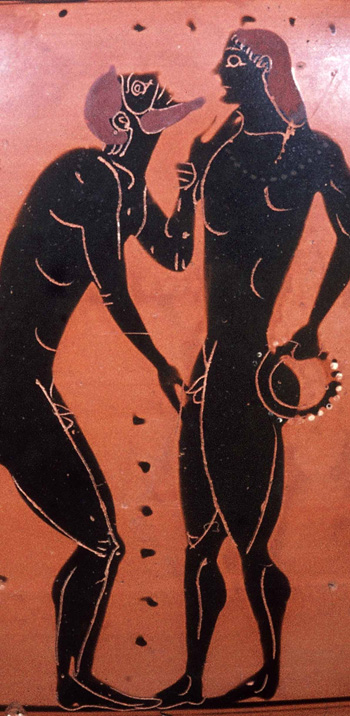



Theurgy, therefore, may be seen as the ritual elaboration of both the Platonic doctrines of anamnesis and eros.


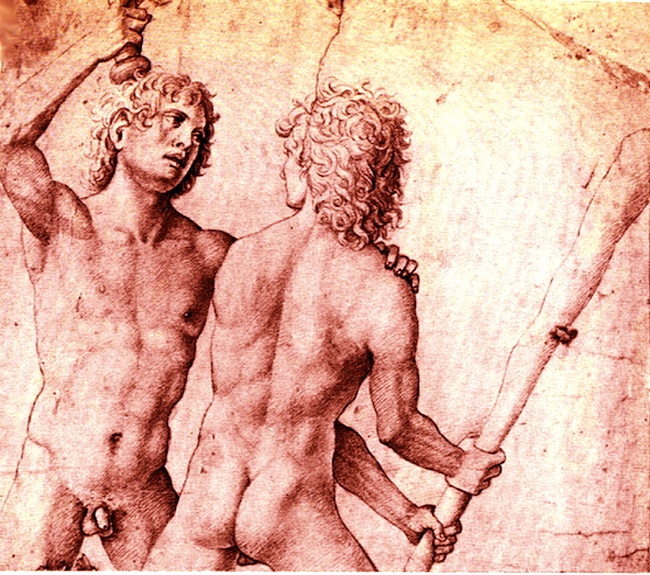





































Warrior Pro-oimion
Warrior Cosmogenesis
Warrior Contest : Warrior Conquest
Warrior Machogenesis
Perfect Manliness and the Eternal Return of the Fighter
Warrior Erotogenesis








To Transform the Chaos
of Embodiment into
The Perfect Measures
of the Warrior Kosmos
Warrior Kosmos : Warrior Sanction
The Perfect Measures of the Warrior Kosmos
Ares Is Lord : Manhood Is God
Warrior Pro-oimion
Warrior Cosmogenesis
Warrior Contest : Warrior Conquest







Warrior Cosmogenesis





although the cosmos is eternally in being, the exigencies of discourse separate the creation from the creator and bring into existence in a time sequence things which are established simultaneously.
[T]he cosmogony [the creation of the cosmos] did not take place in a chronological past but was always present in illo tempore [in that time], and was therefore always accessible by theurgic ritual.








Warrior Altruism expresses something which is primal for human beings, and in particular, primal for MEN.
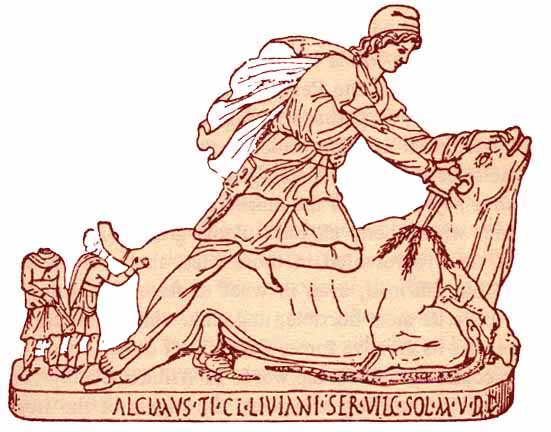
If Christianity had been checked in its growth by some deadly disease, the world would have become Mithraic.


Achilles' slaying of Hektor is the first and most important example of how a self-less self-love, when combined with
the Warrior's natural instinct for aggression, leads to heroic self-sacrifice ; for Achilles knows that by choosing
to slay Hektor and so avenge his Lover's death, he himself will die young -- as Plato explains :
Achilles, son of [the Goddess] Thetis, the Gods honored and sent to his place in the Isles of the Blest, because having learnt from his mother that he would die as surely as he slew Hector, but if he slew him not, would return home and end his days an aged man, he bravely [tolmao] chose to go and rescue [bontheo -- succour] his lover Patroclus, avenged [timoreo] him, and sought death not merely in his behalf but in haste to be joined with him whom death had taken. For this the Gods so highly admired him that they gave him distinguished honor [Timé -- Worth], since he set so great a value on his lover. . . . For in truth, there is no sort of valor [Areté -- Manly Excellence, Manly Goodness, Fighting Manhood] more respected [timao = honored, deemed Worthy of Honor] by the Gods than this which comes of love [Eros] .
The separation of corporeality from its form-giving was merely a necessity of discourse. Iamblichus explains :
although the cosmos is eternally in being, the exigencies of discourse separate the creation from the creator and bring into existence in a time sequence things which are established simultaneously.
For Iamblichus, this meant that the cosmogony [the creation of the cosmos] did not take place in a chronological past but was always present in illo tempore [in that time], and was therefore always accessible by theurgic ritual.

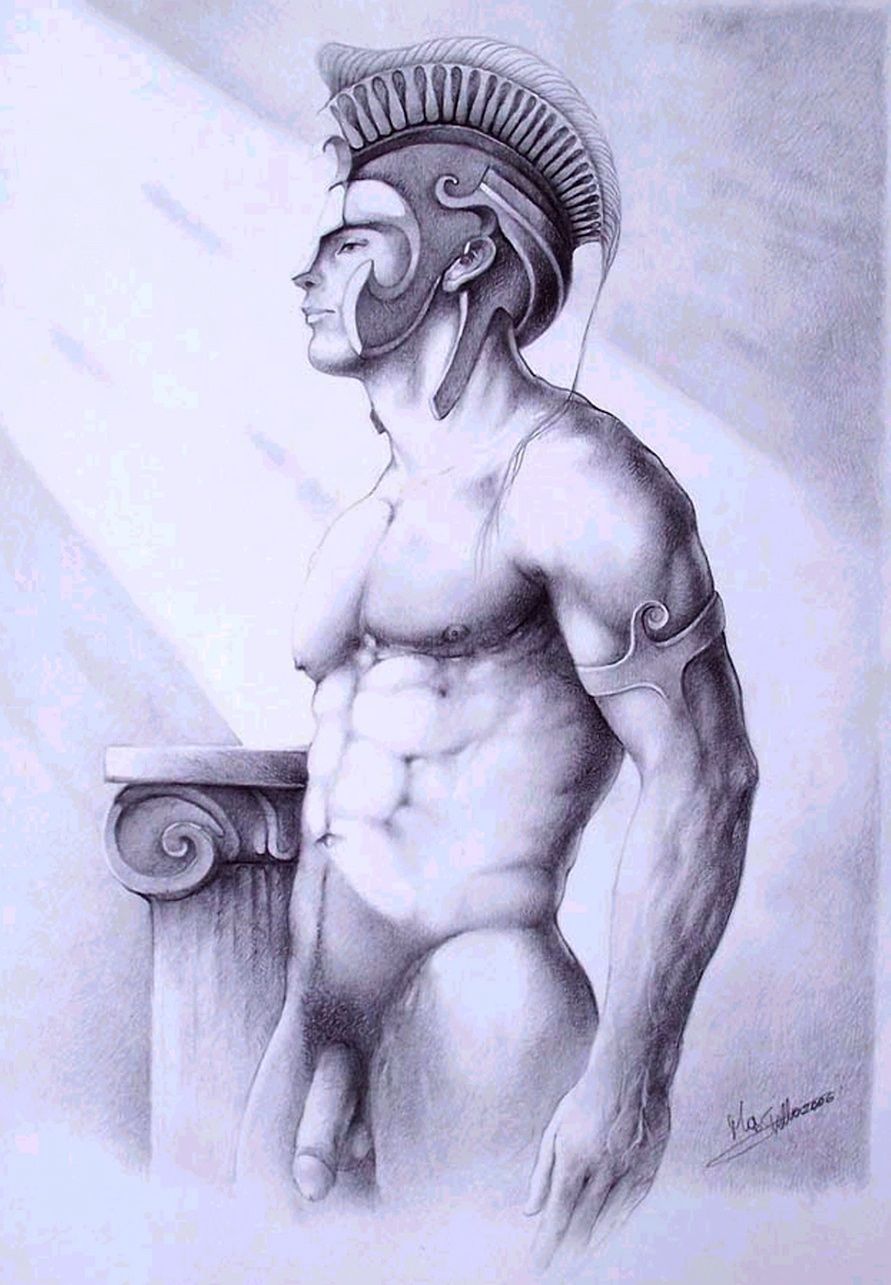





In Iamblichan thought, the term Demiourgia -- in English, Demiurgy -- refers firstly to the Divine Demiurgy of the God Demiourgos, who fashions the Created Cosmos, that is, the World of Becoming, using as his models the Ideal Forms in the World of Being.

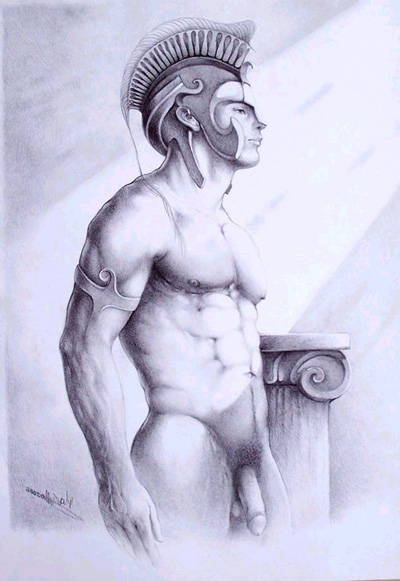
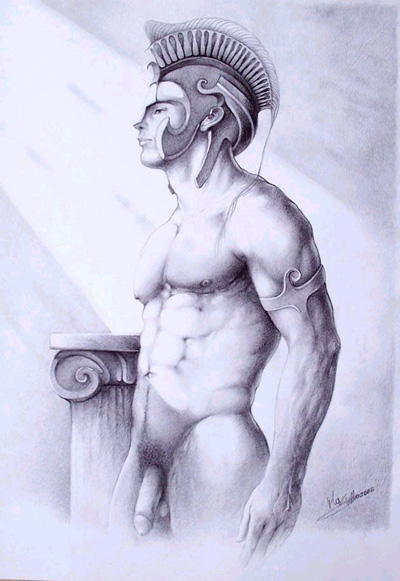







at the "moment" the Demiurge exists, the entire corporeal world exists, and in every sense.
The task for every soul [is] to partake of divine mimesis [mimesis = "imitation"; "divine mimesis" = creation of something in the sensible realm which "imitates" the Ideal in the World of Being] by creating a cosmos out of the chaos of its initial embodiment.





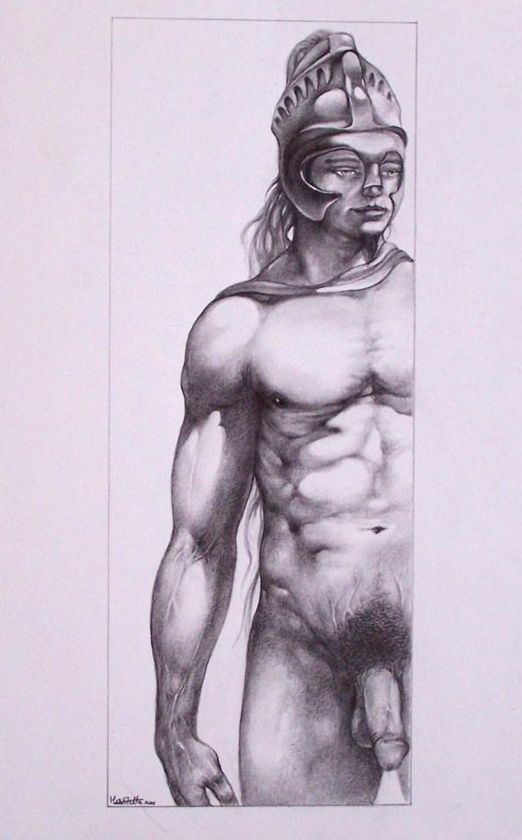

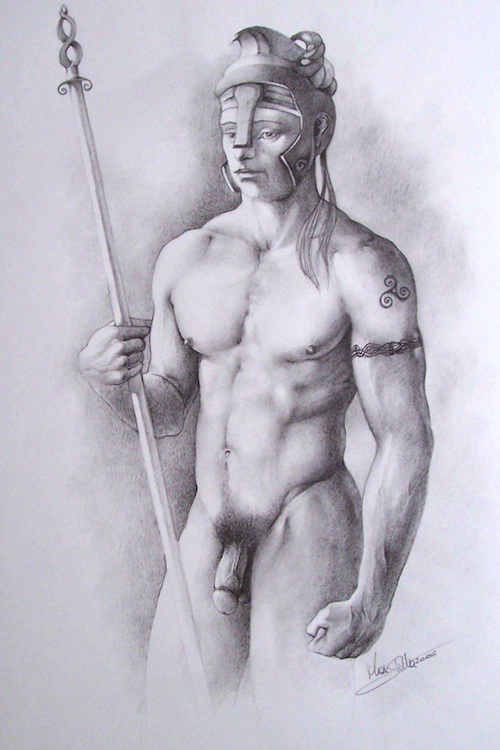

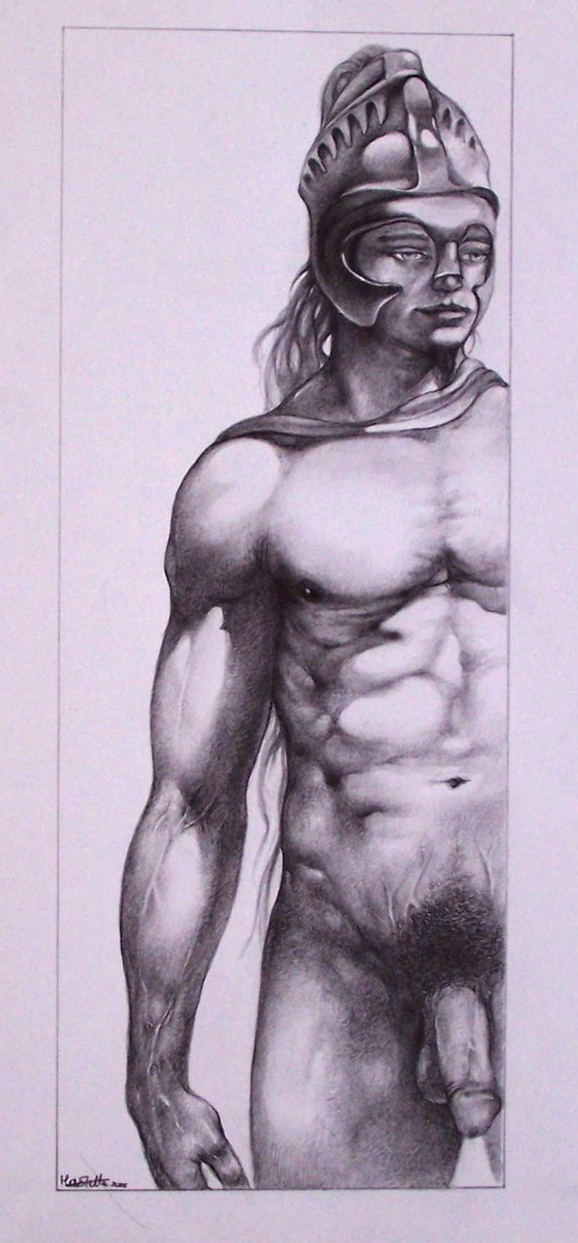



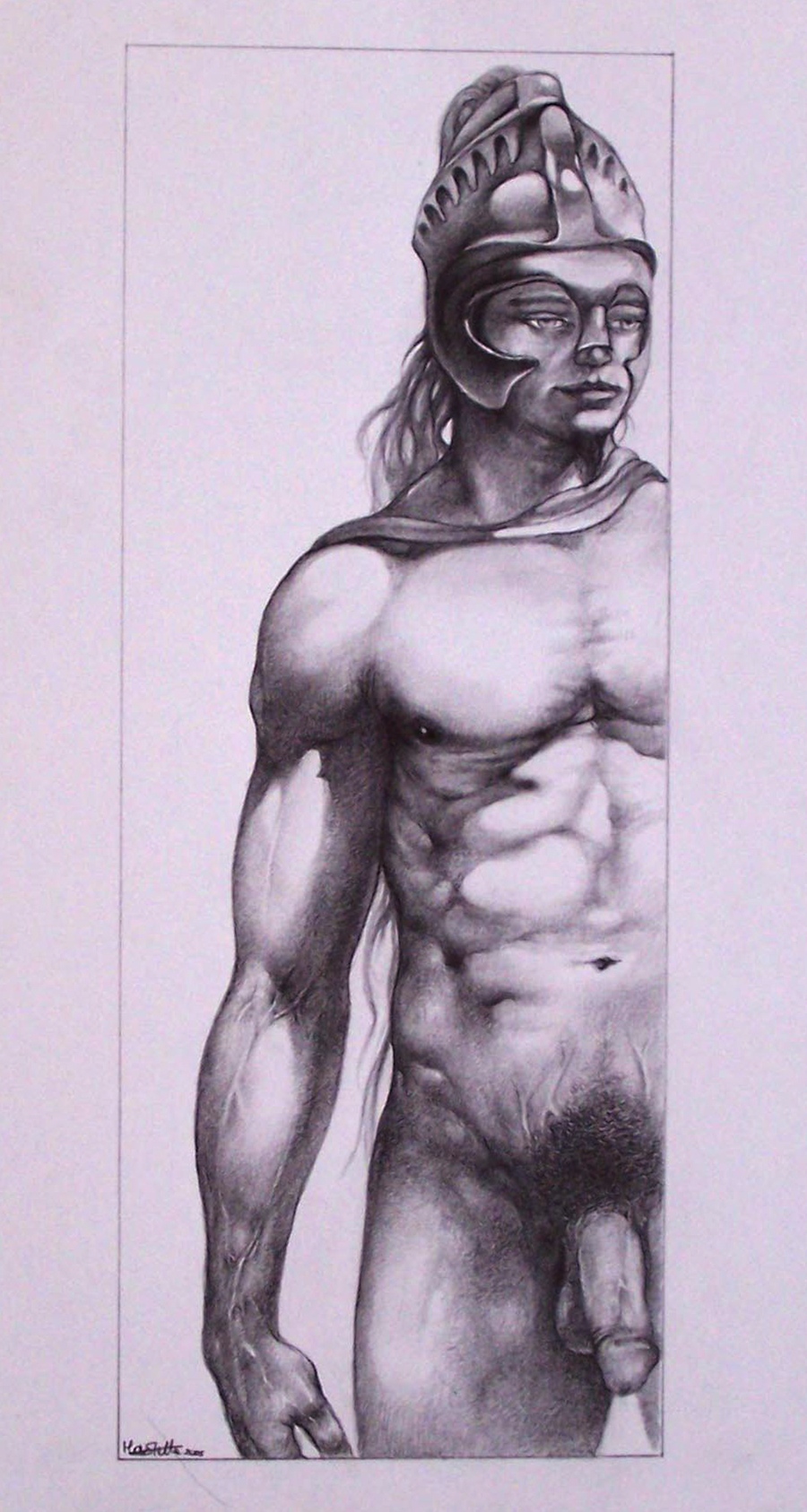


















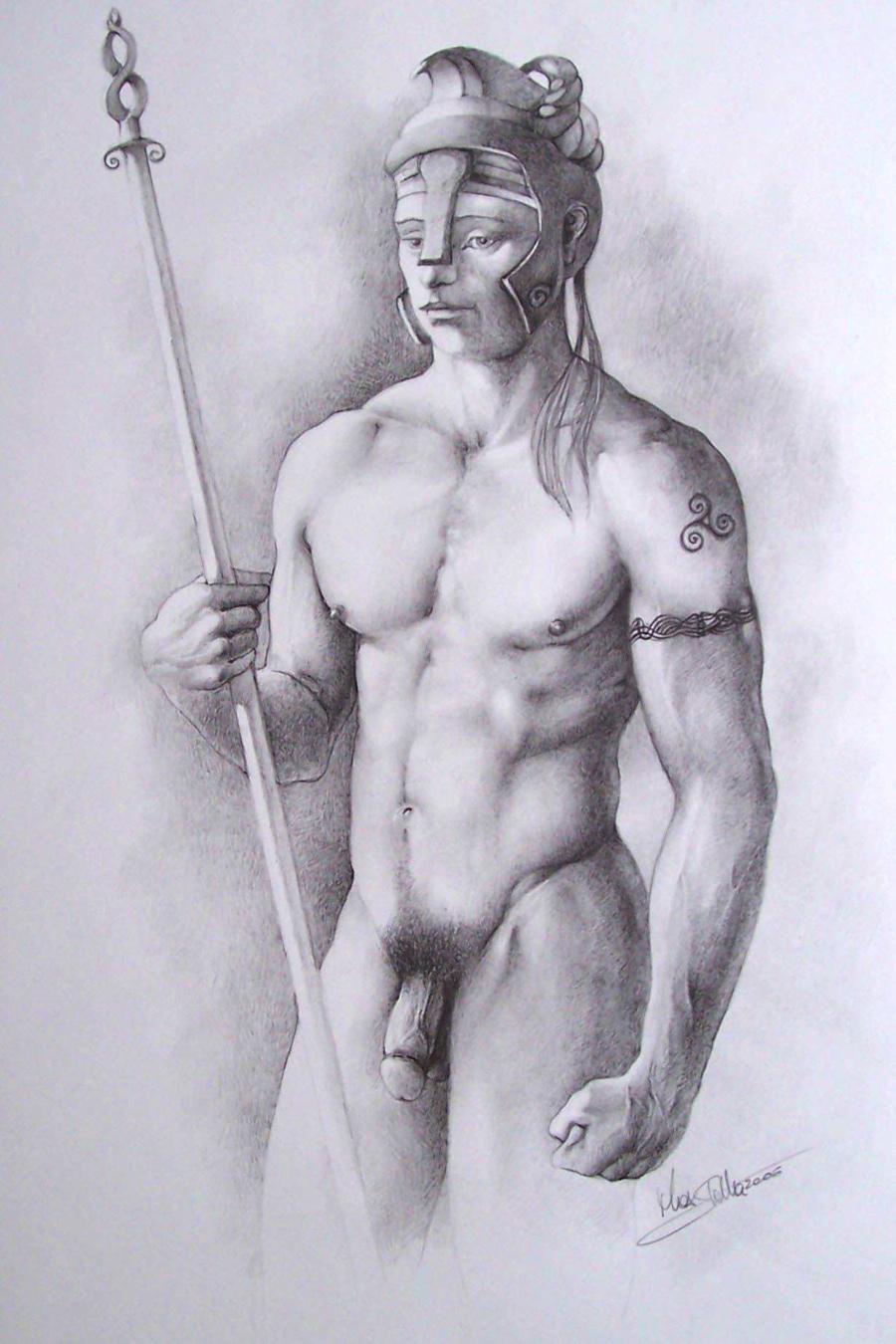




















The task for every soul [is] to partake of divine mimesis [mimesis = "imitation"; "divine mimesis" = creation of something in the sensible realm which "imitates" the Ideal in the World of Being] by creating a cosmos out of the chaos of its initial embodiment.



















(1) the providence of the Demiurge, (2) the choreography of the Nous, and (3) the presence of the soul, without which the cosmos would fall into disarray.
the Earth's atmosphere is more than merely anomalous [when compared to that of planets like Mars and Venus] ; it appears to be a contrivance specifically constituted for a set of purposes.











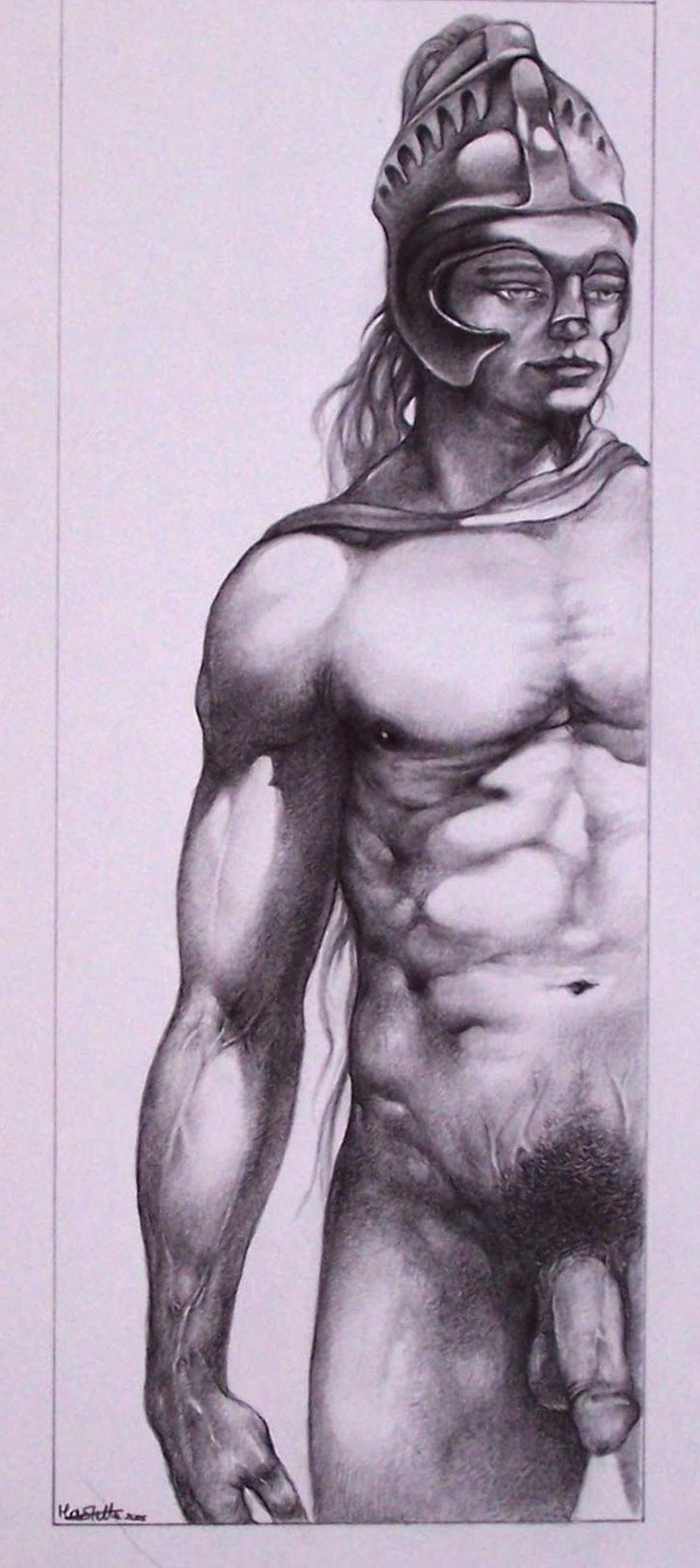


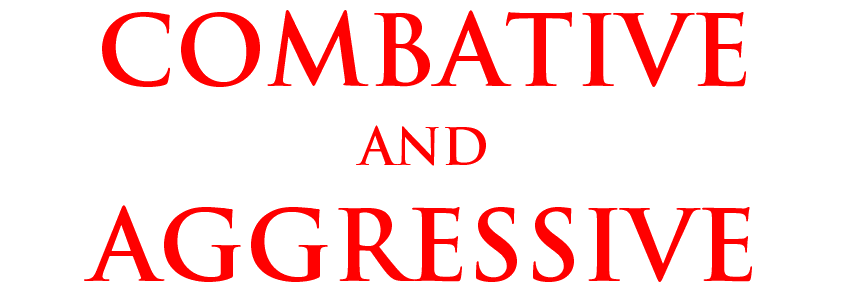




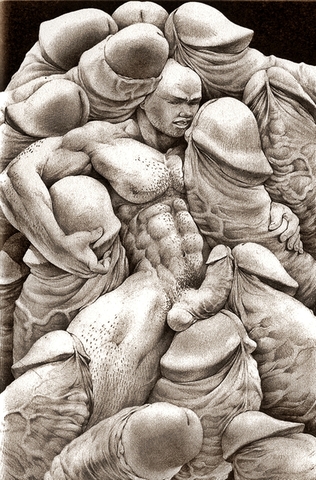






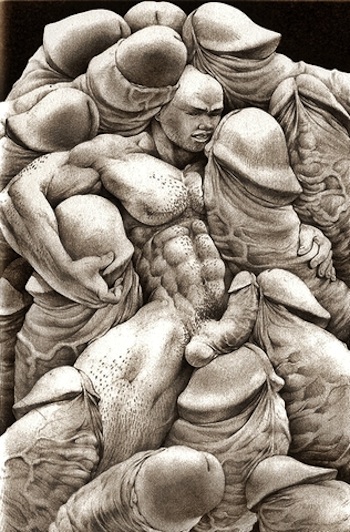
At the Point of Intersection of the
Warrior Kosmos and Combatant World Soul,
disembodied male souls are drawn irresistibly to
the Manly and Fighterly Form of Fighting Manhood,
Lord and Principle of Manliness, who embraces them.































The Doryphoros, by Polykleitos,
portrays the Perfect Warrior
and thus the Ideal Man
To be awakened to -- or to UN-forget -- an Ideal, such as Fighting Manhood, from the World of Being, the Warrior World of Being ; and to then give that Ideal physical form in the world of becoming.















is instantiated by his battered and bloody face ; while his raised arms instantiate his Ability --
the martial merit, virile value, and warrior worth, he needs -- to Defeat his Opponent.


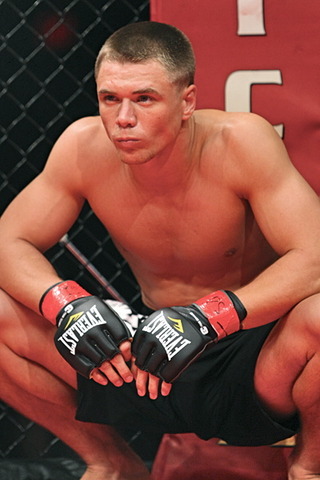

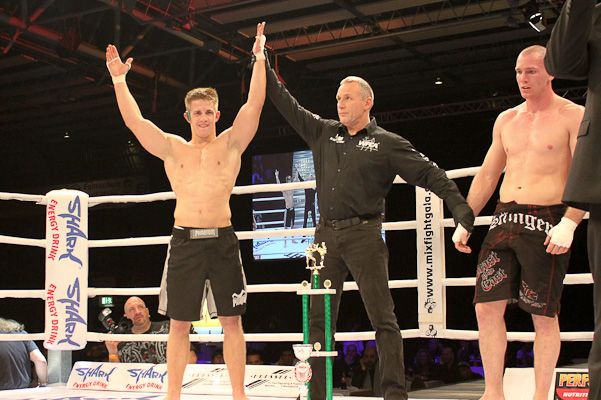





























The task for every soul [is] to partake of divine mimesis [mimesis = "imitation"; "divine mimesis" = creation of something in the sensible realm which "imitates" the Ideal in the World of Being] by creating a cosmos out of the chaos of its initial embodiment.
The task for every soul is to partake of divine mimesis
Enough of wrestling [pale] ; we will now proceed to speak of other movements [kinesis] of the body [somatos]. Such motion may be in general called dancing [orchesis], and is of two kinds : one of nobler bodies [kallionon somaton -- nobler bodies], imitating [mimeomai] the Holy [semnos -- properly of the Gods and the Divine : revered, august, holy], the other of the more ignoble [aischros -- ugly] figures, imitating the mean [phaulos -- paltry, sorry] ; and of both these there are two further subdivisions. Of the serious [spoudaios], one kind is of those engaged in fighting [polemos] and violent [biaios] action, and is the exercise of a noble person and a manly heart [somaton kalon kai psyches d'andrikes] ; the other exhibits a temperate [sophron] soul in the enjoyment of prosperity and modest pleasures [eupragia kai emmetros hedone], and may be truly called and is the dance of peace [eirenikos].
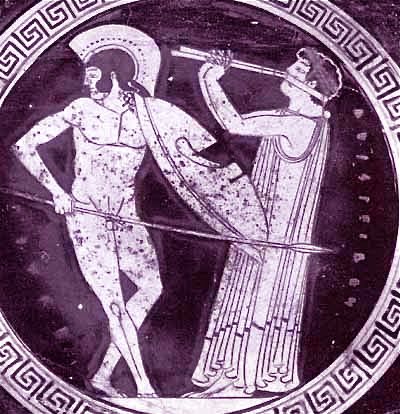
The Pyrrhiche or Warrior-Dance
Preserved in the bowl of a Kylix -- a Drinking Cup.
The Warrior is Nude, and Armoured, and Moves
to the Sound of an Bassoon-like Instrument,
The Dance of a Noble Body and Manly Heart.
The task for every soul [is] to partake of divine mimesis [mimesis = "imitation"; "divine mimesis" = creation of something in the sensible realm which "imitates" the Ideal in the World of Being]
"the nobler bodies" -- that is, dancers -- "are imitating -- or instantiating or embodying and enacting -- in the sensible realm -- the semnos" -- that which is revered, august, and holy -- and which emanates therefore from the World of Being, in this case, the Warrior World of Being ; and because the dance is a Pyrrhic Dance, a Warrior Dance, it's "the Exercise [ponos -- work] of a Noble Person and a Manly Heart [somaton kalon kai psyches d'andrikes]."
creating a cosmos [kosmos -- an order, good order, decency, the world or universe, from its perfect order,] out of the chaos of their initial embodiment.
The task for every soul [is] to partake of divine mimesis [mimesis = "imitation"; "divine mimesis" = creation of something in the sensible realm which "imitates" the Ideal in the World of Being] by creating a cosmos out of the chaos of its initial embodiment.












For seeing that we have agreed among ourselves that the world [ouranos] is full of many things that are good [agathos -- good, Manly], and of the opposite kind [enantios] also, and that those not good are the more numerous, such a battle [mache -- battle, fight, combat -- in this case, a Battle between Good and evil], we affirm, is undying [athanatos], and needs a wondrous watchfulness [thaumastos phulake], -- and in that Battle the Gods and Daimons being our allies [symmachos], and we the property [ktema] of the Gods and Daimons ; and what destroys [phtheiro] us is iniquity [a-dikia -- want of Manly Moral Order] and insolence [hybris -- want of Manly Self-Control] combined with folly [a-phrosyne -- want of Warrior Wisdom], what saves [sozo] us, justice [dikaiosyne -- Manly Moral Order] and temperance [sophrosyne -- Manly Self-Control] combined [meta] with wisdom [phronesis -- Warrior Wisdom], which dwell in the animate powers of the Gods [empsychois dynamesin ton Theon], and of which some small trace may be clearly seen here also residing in us.
We do not set oxen to manage oxen, or goats to manage goats ; we, their betters in kind, act as masters ourselves. So the God, in His kindness to man, did the same : he set over us the superior race of Daimones. (Laws 713cd, trans. A. E. Taylor)


Thus Love [Eros -- the Great God Eros], conceived as a single whole [whole -- what do Iamblichos and Plato mean by "whole" ?], exerts a wide, a strong, nay, in short, a complete power : but that which is consummated [apoteleo] for a good purpose, temperately and justly [meta sophrosyne kai dikaiosyne -- that is to say, with Masculine Moderation and Manly Moral Order], both here on earth and in heaven above [para Theois -- beside the Gods], wields the mightiest power [megas dynamis] of all and provides us with a perfect bliss [eudaimonia] ; so that we are able to consort [homileo] with one another and have friendship [philia] with the Gods who are above us.


Wherefore in men [andron] the nature [physis] of the genital organs [ta aidoia] is disobedient and self-willed [apeithes kai autokrates], like a creature that is deaf to reason [zoon anupekoos logos], and it attempts to dominate all [epicheireo krateo pas] because of its frenzied lusts [epithumia oistrodes].







'Always existing by nature [physis] between every Greek city-state', so Plato said of war. Most Greeks agreed : war was about the most important thing we humans do. It was fighting -- not philosophy, not literature, not architecture, not vase-painting -- that best revealed virtue, cowardice, skill or ineptitude, civilization or barbarism.





Μilitary organization is the subject of much consultation and of many appropriate laws. The main principle is this -- that nobody . . . should ever be left without control [anarchos], nor should anyone, whether at work or in play, grow habituated in mind to acting alone and on his own initiative, but he should live always, both in war [942b] and peace, with his eyes fixed constantly on his commander [archon] and following his lead ; and he should be guided by him even in the smallest detail of his actions -- for example, to stand at the word of command, and to march, and to exercise [gymnazo -- train naked], to wash and eat, to wake up at night for sentry-duty [phulake] and despatch-carrying [parangello], and in moments of danger to wait for the commander's signal before either pursuing [dioko] or retreating [hypochoreo] before an enemy.
Bill Weintraub:


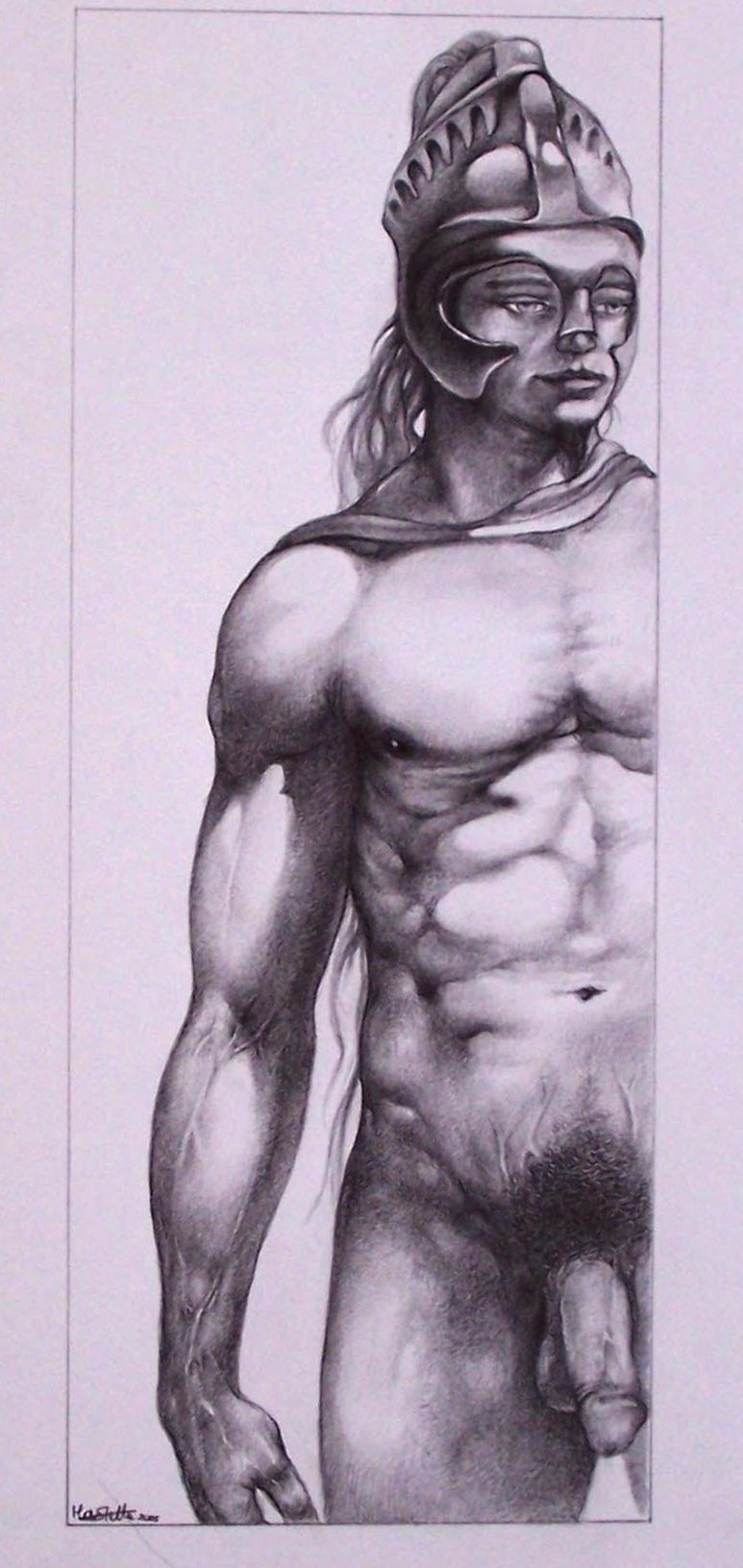



Bill Weintraub:
Bill Weintraub:
So be brave, fear not the number of your enemy
Stand straight in the front rank with your shield before you
and see your life as your enemy ; the darkness of
death should be welcome as the light of the sun.


Wherefore in men [andron] the nature [physis] of the genital organs [ta aidoia] is disobedient and self-willed [apeithes kai autokrates], like a creature that is deaf to reason [zoon anupekoos logos], and it attempts to conquer all [epicheireo krateo pas] because of its raging lusts [epithumia oistrodes].



















To Transform the Chaos
of Embodiment into
The Perfect Measures
of the Warrior Kosmos
Warrior Kosmos : Warrior Sanction
The Perfect Measures of the Warrior Kosmos
Ares Is Lord : Manhood Is God
Warrior Pro-oimion
Warrior Cosmogenesis
Warrior Contest : Warrior Conquest
Warrior Machogenesis
Perfect Manliness and the Eternal Return of the Fighter







Warrior Machogenesis
Perfect Manliness and the Eternal Return of the Fighter






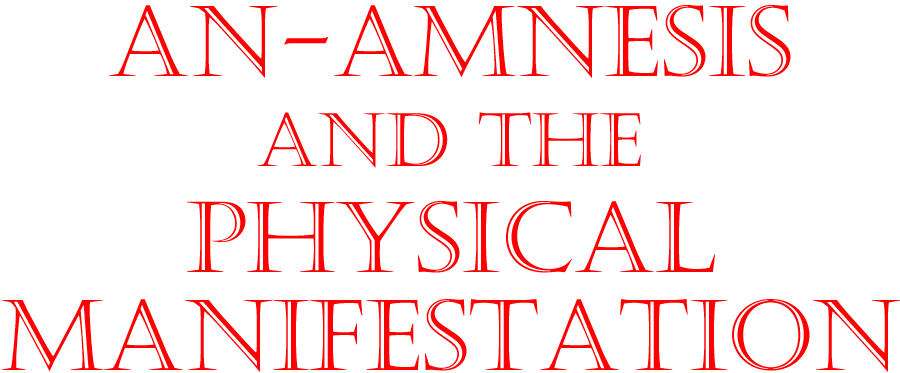


that the soul's ritual use of matter could itself bring about the salvation of the soul [was supported by] elements in the [Platonic] dialogues -- most obviously the doctrine of an-amnesis, the core of Plato's epistemology (Phaedo 75e, Meno 81cd). In the doctrine of recollection, the soul's education is described as a process of reawakening by means of contacts with the sensible world that functioned as mnemonic prods, reminding the soul of the Platonic Forms [eidos]. Theurgy could be seen as the development and translation of this epistemological theory into a ritual practice where the prods of sensate experience were carefully controlled in rites designed to awaken the soul to the Forms. While the doctrine of recollection lent itself specifically to a theurgic development, the cosmology of the Timaeus [41b, 8-9], provided the necessary framework : without the descent of souls into bodies and the physical appearance of Forms, Plato says
the work of the Demiurge would remain incomplete. The embodiment of the soul and its perfection in theurgy was seen by Iamblichos as essential to cosmogenesis.
-- most obviously the doctrine of an-amnesis, the core of Plato's epistemology (Phaedo 75e, Meno 81cd).
In the doctrine of recollection [an-amnesis], the soul's education is described as a process of reawakening by means of contacts with the sensible world that functioned as mnemonic prods, reminding the soul of the Platonic Forms.
In the doctrine of recollection [an-amnesis], the soul's education is described as a process of reawakening by means of contacts with the sensible world that functioned as mnemonic prods, reminding the soul of the Platonic Forms.
are out on display. Diomedes invites them to choose what they will.
They look to the king who is pleased and nods in assent -- he cannot
suppose that the gifts of Greeks are not always what they may seem.
He has, in any event, no cause to suspect Ulysses,
famed though he is for his guile.
to the little drums and ritual cymbals, or pretty headbands
set with precious stones. To the weapons they pay no mind,
or else they assume these are gifts for Lycomedes himself.
is dazzled. His eyes shine at the sheen of the gold on that shield.
The wonderful workmanship invites him. The battle scenes
on the boss and around the rim speak to his spirit. He lifts
the shield and the spear beside it, hefts them, wields them,
wears them
as the soul wears its flesh. He forgets his mother's instructions
and [his girl friend's] hints. He plants his feet like a soldier
and tries one battle cry that rings out from the stonework.
Think of a lion cub that some hunter has reared and tamed,
a regular pussycat, but then one day, when it sees
the steel of the javelin's tip, something deep in its heart
rebels. The beast reverts, goes wild, ashamed to have fawned
and purred and played like a pet. It turns on its keeper and mauls him.
The room is hushed. They are all staring. Achilles puts down
the shield, but he sees in the metal his own reflection -- a face
noble and warlike, but wearing a woman's headband and earrings.
He is thrilled and he blushes in shame. He cannot move. Ulysses
already beside him is speaking calmly, one man to another:
"We know who you are. But more important, you know.
The game is over. The ship is waiting. The moment is here.
The towering walls of Troy invite you. At every step
you take in their direction, they tremble. You did as your mother
instructed, but now it's over." Ulysses removes the headband
from Achilles' head and looks to Agyrtes, who takes the trumpet
from the folds of his cloak and blows it, a piercing martial blast
that scatters the terrified girls. But Achilles, strange to believe,
grows taller, broader. . . Amazing! He towers over Ulysses.
That spear in his huge hand now seems like a mere toy
as he waits, poised, ready for Hector or anyone else.
wears them as the soul wears its flesh."
grows taller, broader. . . Amazing! He towers over Ulysses.
That spear in his huge hand now seems like a mere toy
as he waits, poised, ready for Hector or anyone else."
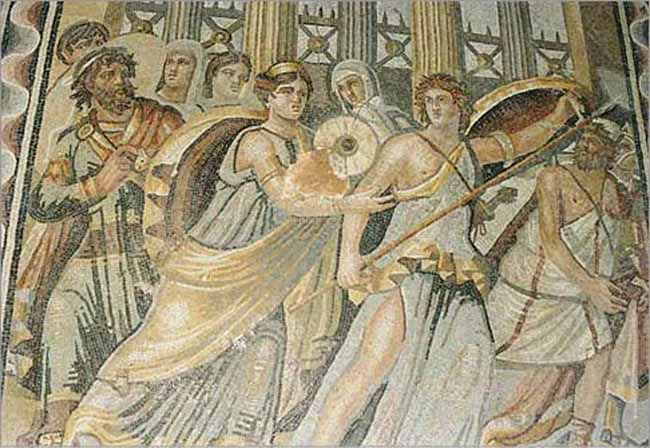

Theurgy could be seen as the development and translation of this epistemological theory into a ritual practice where the prods of sensate experience were carefully controlled in rites designed to awaken the soul to the Forms. While the doctrine of recollection lent itself specifically to a theurgic development, the cosmology of the Timaeus [41b, 8-9], provided the necessary framework : without the descent of souls into bodies and the physical appearance of Forms, Plato says
the work of the Demiurge would remain incomplete. The embodiment of the soul and its perfection in theurgy was seen by Iamblichos as essential to cosmogenesis.
Theurgy could be seen as the development and translation of this epistemological theory into a ritual practice where the prods of sensate experience were carefully controlled in rites designed to awaken the soul to the Forms.





While the doctrine of recollection lent itself specifically to a theurgic development, the cosmology of the Timaeus [41b, 8-9], provided the necessary framework : without the descent of souls into bodies and the physical appearance of Forms, Plato says
the work of the Demiurge would remain incomplete. The embodiment of the soul and its perfection in theurgy was seen by Iamblichos as essential to cosmogenesis.
[While] the cosmology of the Timaeus [41b, 8-9], provided the necessary framework : without the descent of souls into bodies and the physical appearance of Forms, Plato says
the work of the Demiurge would remain incomplete.










The embodiment of the soul and its perfection in theurgy was seen by Iamblichos as essential to cosmogenesis.

















[A]s soon as boys reached the age of seven, Lykourgos took charge of them all himself and distributed them into Troops [the Spartan word was boua -- herd] : here he accustomed them to live together and be brought up together, playing and learning as a group.
So, what we can see is that Lykourgos and the Spartans named the boy with the soundest judgement and the best Fighting Spirit -- the boy who excelled in judgement and was Most Courageous in Fighting -- Bouagos -- Herd Leader.












The other boys kept their eyes on [aphorao] their Bouagos, obeyed [akroaomai], like the disciples they were, his orders and commands [prostasso], and endured [kartereo] their punishments [kolazo] from him, so that altogether this discipline won by practice on the fields of combat [meletao] served as a constant exercise in learning ready obedience [eupeitheia].
Are we all aware of the reason why such military dancing [pyrrhiche] and such contests [agonia] [which would make the city-state better prepared to go to war] do not at present exist anywhere in the States, except to a very small extent? Shall we say that this is due to the ignorance of the populace and of those who legislate for them?
Possibly.
Not so, by any means, my ingenious Clinias! What we ought to say is that there are two causes, and both most weighty ones.
What are they?
The first springs from a lust for wealth which allows a man no leisure time for attention to anything else save his own private property ; and when the soul of every citizen hangs upon this, it is incapable of attending to matters other than daily gain. Whatsoever science or pursuit leads to this, every man individually is most ready to learn and to practice ; but all else he laughs to scorn. This we must assert to be one particular cause why a State is unwilling to be in earnest about this, or any other, fine [to agathon -- Excellent and Manly] and noble [kalos -- Noble, thus Selfless] pursuit ; and why, on the other hand, every individual, because of his greed for silver and gold, is willing to toil at every art and device, noble or ignoble, if he is likely to get rich by it -- willing, too, to perform actions both holy and unholy -- nay, utterly shameful -- without a scruple, provided only that he is able to sate himself to repletion, like a beast, with all manner of foods and drinks and wenchings.
True.
Then let this which I describe be laid down as one cause which hinders the States from adequately practicing either military operations or any other noble pursuits [kalon -- Morally Beautiful -- ta kala -- acts of Moral Beauty] and which turns men who are of a quiet nature into traders, ship-owners, and servants, while of the Manly [andreios] it makes pirates, burglars, temple-robbers [hierosuloi], mercenaries, and tyrants -- and that though, in some cases, they are not ill-natured, but merely ill-fortuned.
How so?
Well, how could I describe otherwise than as utterly unfortunate men who are compelled to go through life with hunger [for gold] always in their own souls?
Theourgia could be seen as the development and translation of [Plato's] epistemological theory [his theory of UN-forgetting] into a ritual practice where the prods of sensate experience were carefully controlled in rites designed to awaken the soul to the Forms.


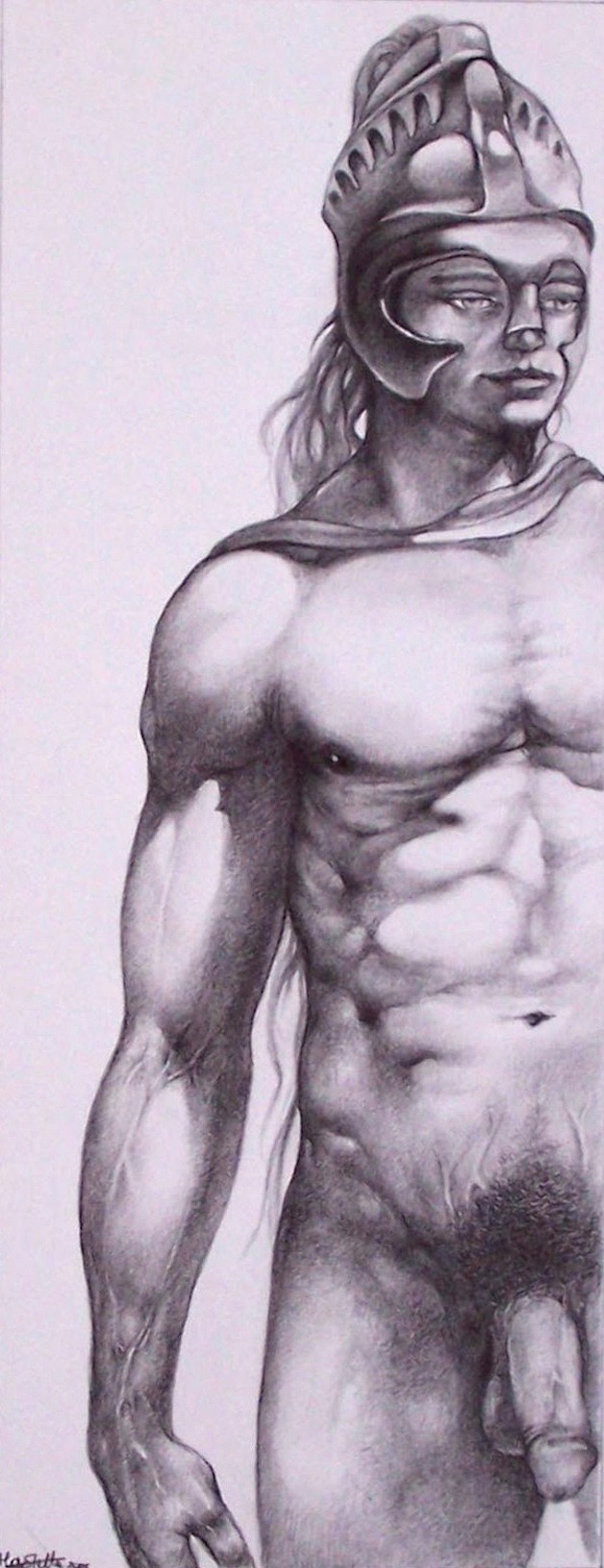














No Divinity [Daimon] shall cast lots for you, but you shall choose your own Deity. Let him to whom falls the first lot first select a life to which he shall cleave of necessity. But Manly Virtue [areta] has no master over it, and each shall have more or less of it as he deems it Worthy [timao] or treats it as un-worthy [a-timazo]. The blame is his who chooses : the God is blameless.


Iamblichus says that theurgy did not act through the intellect but through one's entire character to allow the soul to exchange one life for another, to sacrifice its mortal life for the life of a God.






The Root ΑΡ [ΑΡΗΣ], appears also in αρετε, the first notion of goodness (virtus)
being that of manhood, bravery in war.
Oxford. Clarendon Press. 1889.













[The Eiren] to another would put a question requiring a careful and deliberate answer, as, for instance, 'Who is the best [aristos -- most Manly] man in the city?' or, 'What do you think of this man's conduct [praxis]?' In this way the boys were accustomed to pass right judgements [ta kala -- to understand what is Morally Beautiful, what constitutes a Noble Achievement, what contributes to Manly Moral Order, etc] and interest themselves at the very outset in the conduct of the citizens [polites -- at Sparta, only Warriors could be citizens].
In this way the boys were accustomed to pass right judgements [ta kala -- to understand what is Morally Beautiful, what constitutes a Noble Achievement, what contributes to Manly Moral Order, etc] and interest themselves at the very outset in the conduct of the citizens [polites -- Warriors -- at Sparta, only Warriors could be citizens].
For if one of the boys was asked who was a good citizen [polites agathos -- Manly and Good], or who an infamous one [ouk -- NOT eudokimos -- of good repute], and had no answer to make, he was judged to have a torpid [nothros] spirit [psyche], and one that would not aspire [aphilotimos -- not loving honour, lacking that love of Worth which inspires and leads a youth --] to excellence [Areta -- Manly Excellence, Manly Goodness, Fighting Manhood].
"Is not the logical first step towards such an agreement to ask ourselves what we could name as the greatest good for the constitution of a state and the proper aim of a lawgiver in his legislation, and what would be the greatest evil, and then to consider whether the proposals we have just set forth fit into the footprints of the good and do not suit those of the evil?"
'Say not so, Strangers [Xene] ; Brasidas was noble [kalos -- selfless] and brave [agathos -- Manly], but Sparta has many better men than he.'
Sparta has many better -- [karron, which is Dorian for kreisson, which is a comparative of agathos] -- more Manly -- Men -- than he.
For if one of the boys was asked who was a good citizen [polites agathos -- Manly and Good], or who an infamous one [ouk -- NOT eudokimos -- of good repute], and had no answer to make, he was judged to have a torpid [nothros] spirit [psyche], and one that was aphilotimos -- one that lacked that Love of Honour and Love of Worth which inspires and leads a youth to Areta -- Manly Excellence, Manly Goodness, Fighting Manhood.



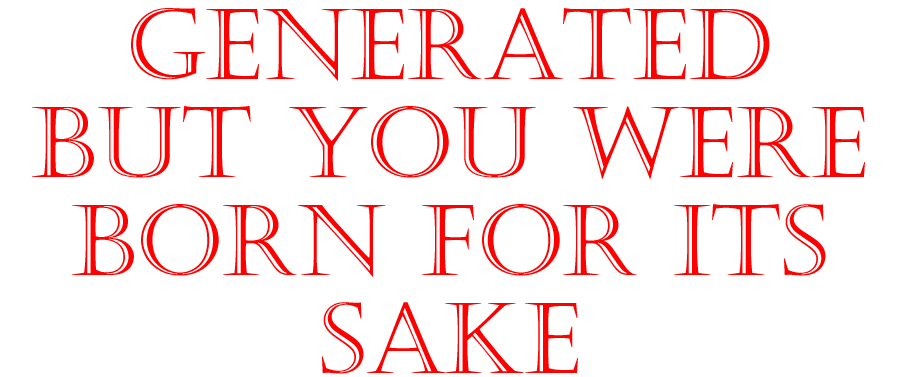
a stronger and more powerful thing by far than to apply their mind to writings.

[Lykourgos, the Spartan law-giver,] made it honourable [kalon -- morally beautiful] for worthy men to share children and their production, and derided people who hold that there can be no combination or sharing of such things, and who avenge any by assassinations and wars. Thus if an older man with a young wife should take a liking to one of the well-bred [kalos kai agathos -- noble and brave, noble and virile, selfless and manfully excellent, morally beautiful, excellent, and manly] young men and approve of him, he might well introduce him to her so as to fill her with noble [gennaios] sperm and then adopt the child as his own.
Thus if an older man with a young wife should take a liking to one of the Noble and Manly young Men [kalos kai agathos neos] and approve of him, he might well introduce him to her so as to fill her with Noble Sperm [gennaiou spermatos] and then adopt the child as his own.
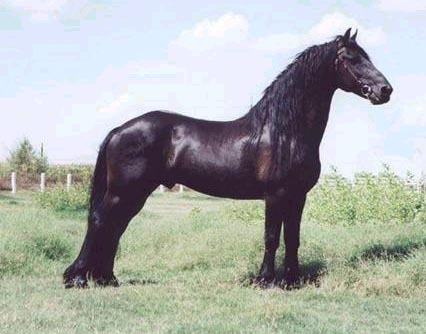

The rest of the Greeks saw with astonishment and admiration how every institution in Sparta served the same purpose -- to make Spartan citizens the best soldiers in the world. They understood very well that this was not done by incessant drilling and manoeuvring, but by moulding the character from earliest childhood. This education was not only military. It was political and moral in the broadest sense ...
The rest of the Greeks saw with astonishment and admiration how every institution in Sparta served the same purpose -- to make Spartan Men the most Manly in the world.
Thus Lykourgos' regulations with regard to the begetting of children [teknosis] were in sharp contrast with those of other states. Whether he succeeded in populating Sparta with a race of men remarkable for their size and strength [megethos kai ischus andras] anyone who chooses may judge for himself.
Indeed, how should wealth be a serious object at Sparta, when Lykourgos insisted on equal [isos] contributions to the food supply and on the same [homoios] standard of living for all, and thus cut off the attraction of money for indulgence' sake ? Why, there is not even any need of money to spend on cloaks : for their adornment is due not to the price of their clothes, but to the excellent condition of their bodies [somatos euexia kosmeo].

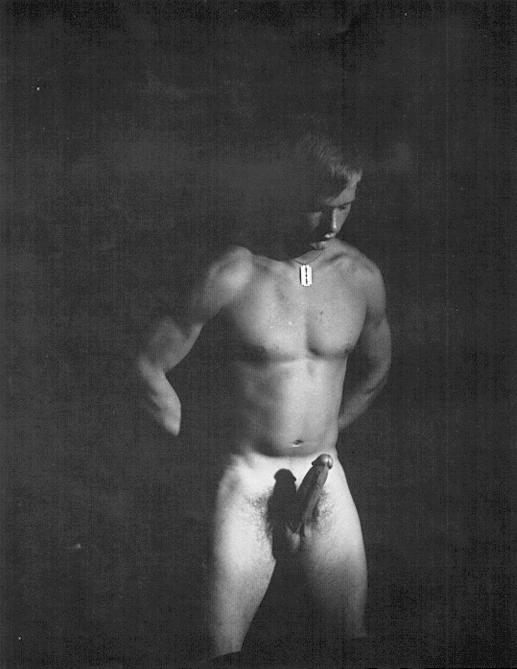

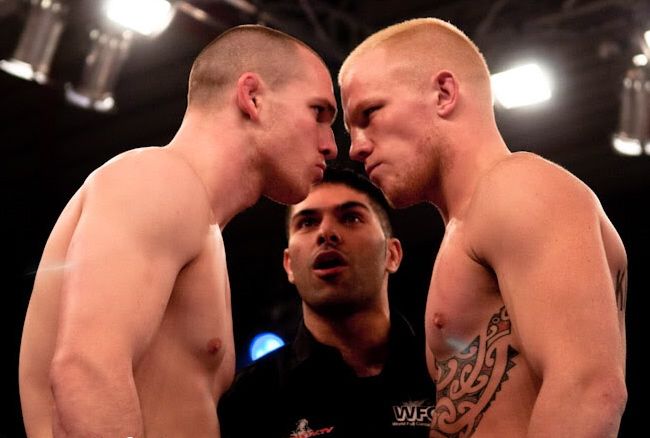


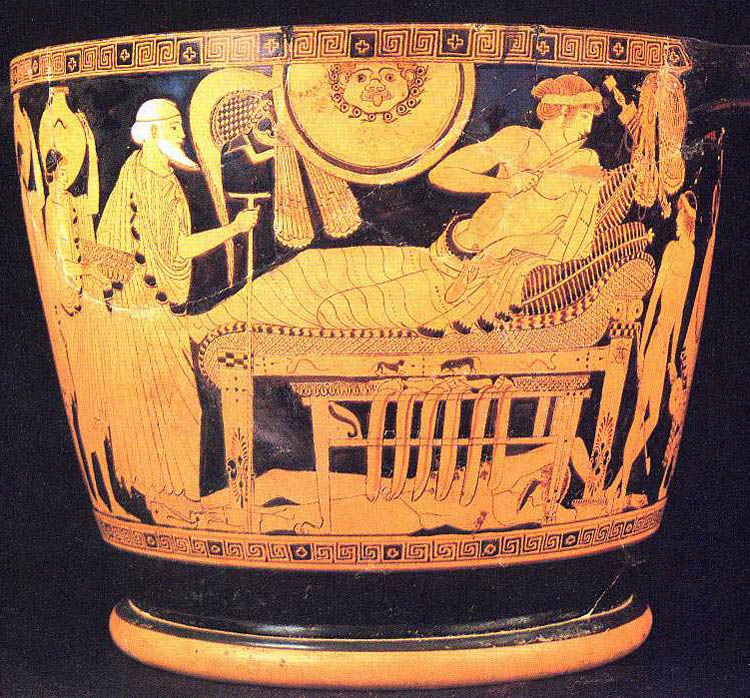


In the vase painting immediately above, Achilles slays Hektor.
Iamblichus's solution was that the blessedness of embodiment as portrayed in the Timaeus was available to the particular soul only by imitating the activity of the Demiurge, and this was possible only through theurgic rites.
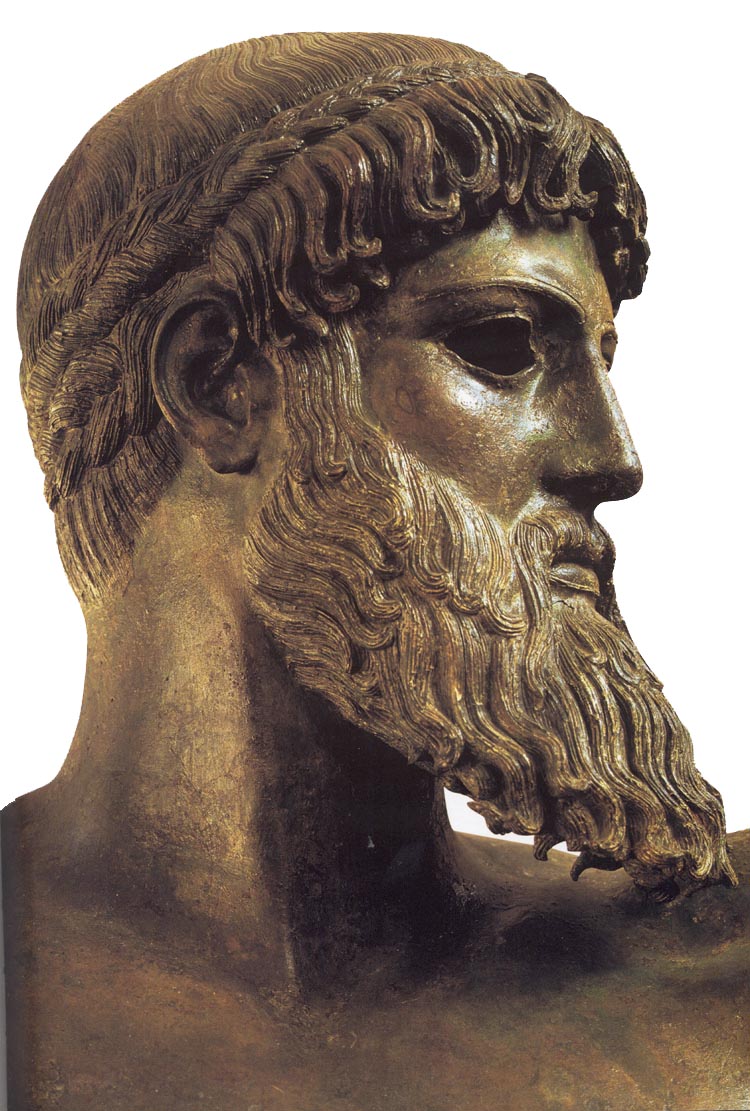
The meaning of theurgy in the history of Platonism becomes clear if it is seen as the praxis that enabled souls to move from the experience of embodiment as an isolated prison to a [re]-participation in the World Soul, where its particularity was re-established in the unity of the whole.
The meaning of Warrior Theourgia becomes clear if it is seen as the askesis that enables male souls to move from the experience of embodiment as an isolated prison to a re-participation in the Combatant World Soul, where its particularity is re-established in the Unity and Communion of the Combatant Whole.

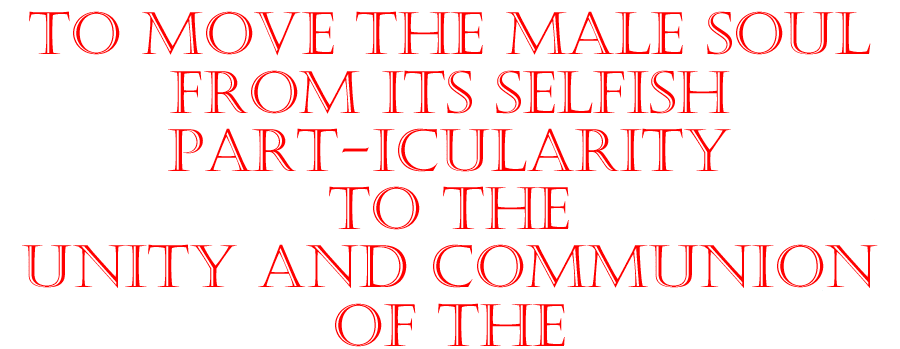



[In the Laws, Plato] constantly insists on the entire subordination of the individual to the State, on the principle (which holds throughout the universe) that no part is independent, but every part exists for the sake of its whole.
For seeing that we have agreed among ourselves that the world [ouranos] is full of many things that are good [agathos -- good, Manly], and of the opposite kind [enantios] also, and that those not good are the more numerous, such a battle [mache -- battle, fight, combat -- in this case, a Battle between Good and evil, a Battle which pits Manliness against wickedness, cowardice, and vice], we affirm, is undying [athanatos], and needs a wondrous watchfulness [thaumastos phulake], -- and in that Battle the Gods and Daimons being our allies [symmachos], and we the property [ktema] of the Gods and Daimons ; and what destroys [phtheiro] us is iniquity [a-dikia -- want of Manly Moral Order] and insolence [hybris -- want of Manly Self-Control] combined with folly [a-phrosyne -- want of Warrior Wisdom], what saves [sozo] us, justice [dikaiosyne -- Manly Moral Order] and temperance [sophrosyne -- Manly Self-Control] combined [meta] with wisdom [phronesis -- Warrior Wisdom], which dwell in the animate powers of the Gods [empsychois dynamesin ton Theon], and of which some small trace may be clearly seen here also residing in us.
We do not set oxen to manage oxen, or goats to manage goats ; we, their betters in kind, act as masters ourselves. So the God, in His kindness to man, did the same : he set over us the superior race of Daimones. (Laws 713cd, trans. A. E. Taylor)
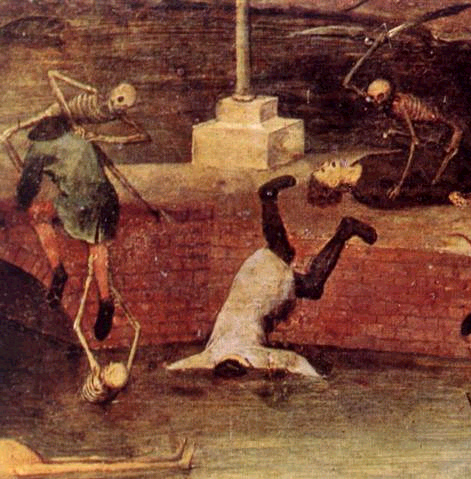
detailed how a persistent rise in global temperatures would affect California's water system. It predicted that as California warmed, more precipitation would fall as rain rather than snow, and more of the snow that did fall would melt earlier in the season. This in turn would cause reservoirs to fill up earlier, increasing the odds of both winter flooding and summer droughts.

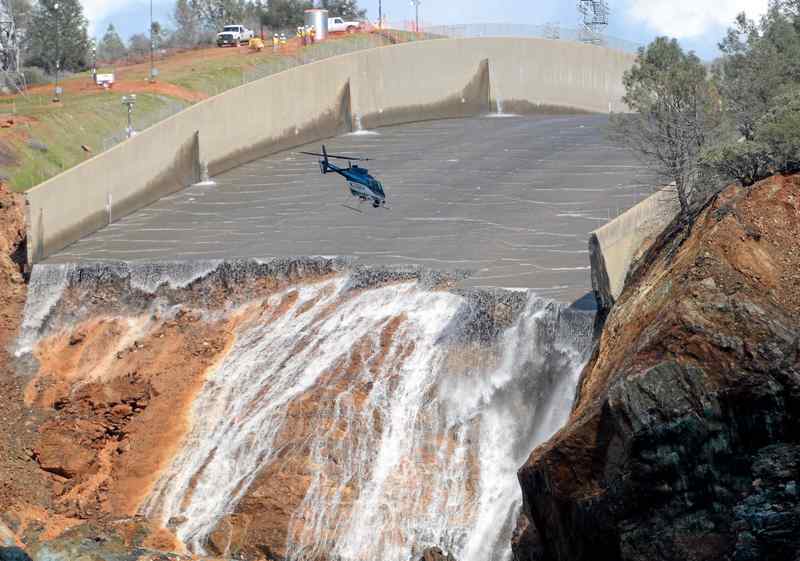


UN-manly and UN-worthy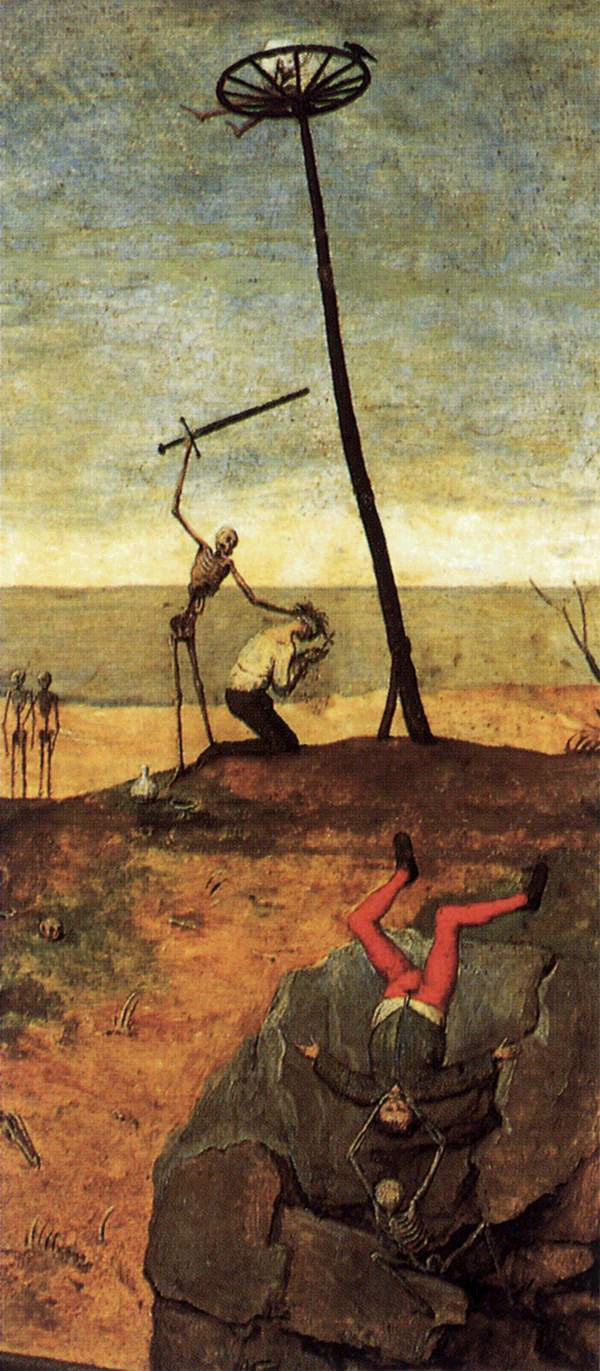




The first and highest [proton kai aristos -- most Manly] form of the state and of the government and of the law [polis kai politeia kai nomos] is that in which there prevails most widely the ancient saying, that "Friends have all things in common [philos koinos]." Whether there is anywhere now, or will ever be, this communion of women and children and of property [koinos gynaikas, paidas, kai chremata sympata], in which the private [idios] and individual is altogether banished from life [exaireo bios], and things which are by nature private [physis idios], such as eyes and ears and hands, have become common [koinos], and in some way see and hear and act in common [koinos], and all men express praise and blame and feel joy and sorrow on the same occasions [epainos kai psego kai chairo kai lupeo sympatas], and whatever laws there are unite the city to the utmost [apergazomai] -- whether all this is possible or not, I say that no man, acting upon any other principle, will ever constitute a state which will be truer or better or more exalted in virtue [orthoteron oude beltio oude hyperbole pros areten -- exalted in Manliness].
the man who receives the portion [kleros] should still regard it as common property of the whole State [koinos polis sympas], and should tend the land [therapeuo choros], which is his fatherland [patris], more diligently than a mother tends her children, inasmuch as it, being a Goddess, is mistress [despoina] over its mortal population [thnetos], and should observe the same attitude also towards the local Gods and Daimones [Theoi kai Daimones].
"We didn't expect to see this level of destruction to the Great Barrier Reef for another 30 years," said Terry P. Hughes, director of a government-funded center for coral reef studies at James Cook University in Australia . . .


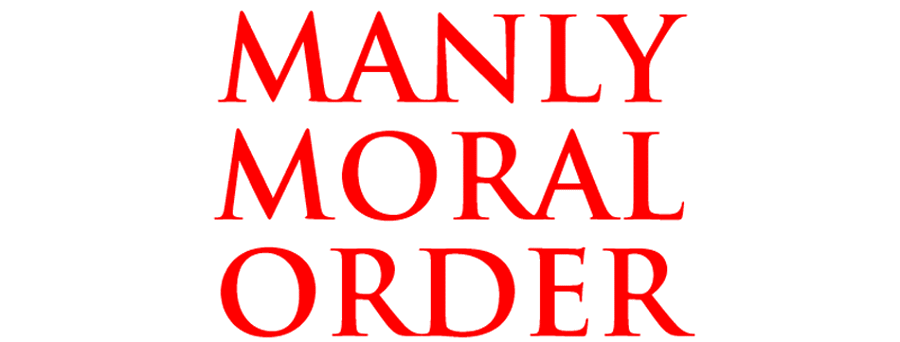
we shall test thoroughly by every kind of test and by length of time the vicious [kakoi] among those [736c] who attempt to enter our present State as citizens, and so prevent their arrival, whereas we shall welcome the virtuous [agathoi -- the Manly and Good] with all possible graciousness and goodwill [eumenes -- notice that this word derives from menos, which means might, force, strength, prowess, courage ; and eu -- which means Good -- So that eumenes is Good Force, Good Might, Good Strength, Good Prowess, Good Courage -- Goodwill].
By means of Manly Moral Order




In the selection of officials all men shall take part who carry arms [hopla], as horse-soldiers or foot-soldiers [hippikos he pezikos], or who have served in war [polemos] so far as their age and ability allowed. They shall make the selection in that shrine [hieron] which the State shall deem the most sacred [timiotatos] ; [753c] and each man shall bring to the altar of the God [Theou bomos], written on a tablet, the name of his nominee, with his father's name and that of his tribe [phyle] and of the deme [demos] he belongs to, and beside these he shall write also his own name in like manner.
[The young men] shall determine to live a self-supporting life [autos dianoeomai bio-o], acting as their own ministers and masters, and thoroughly exploring, moreover, the whole country [pas choros] both by summer and winter, [763b] under arms [syn tois hoplois], for the purpose both of guarding and of learning [phulake kai gnorisis] each several district [topos]. For that all should have an accurate knowledge [mathema] of their own country [choros] is a branch of learning [episteme] that is probably second to none : so the young men [hoi hebontes] ought to practise running with hounds [kynegesion] and all other forms of hunting [thera], as much for this reason as for the general enjoyment and benefit derived from such sports [epitedeuo -- pursuits]. With regard, then, to this branch of service -- both the men themselves and their duties, whether we choose to call them secret-service men or land-stewards [kryptoi he agronomoi] or by any other name -- [763c] every single man who means to guard his own State efficiently shall do his duty zealously [prothumos] to the best of his power.
Regarding marriage as a whole there shall be one general rule : each man must seek to form such a marriage as shall benefit the State, rather than such as best pleases himself.
For people must be acquainted with those into whose families and whom they marry and with those to whom they give in marriage ; in such matters, as far as possible, a man should deem it all important to avoid a mistake, and with this serious purpose let games be instituted in which youths and maidens shall dance together [choreuo], seeing one another and being seen naked [korous gymnous kai koras gymnas], at a proper age [helikia], and on a suitable occasion, not transgressing the rules of modesty [aidos sophron -- chaste respect].
[T]he law enjoins that no private man shall be allowed to possess gold and silver, but only coin for daily use, which is almost necessary in dealing with artisans, and for payment of hirelings, whether slaves or immigrants, by all those persons who require the use of them. Wherefore our citizens, as we say, should have a coin passing current among themselves, but not accepted among the rest of mankind. . .
Are we all aware of the reason why such military dancing [such as the Pyrrhiche] and such contests [agonia] do not at present exist anywhere in the States, except to a very small extent? Shall we say that this is due to the ignorance of the populace and of those who legislate for them?
Possibly.
Not so, by any means, my ingenious Clinias! What we ought to say is that there are two causes, and both most weighty ones.
What are they?
The first springs from a lust for wealth [erwtos ploutou] which allows a man no leisure time for attention to anything else save his own private property [idiwn ktematwn] ; and when the soul of every citizen hangs upon this, it is incapable of attending to matters other than daily gain [hemera kerdos]. Whatsoever science or pursuit leads to this, every man individually is most ready to learn and to practice ; but all else he laughs to scorn. This we must assert to be one particular cause why a State is unwilling to be in earnest about this, or any other, Manly [agathos] and Noble [kalos -- noble, thus selfless] pursuit ; and why, on the other hand, every individual, because of his greed [aplestia] for silver and gold, is willing to toil at every art and device, noble or ignoble, if he is likely to get rich by it -- willing, too, to perform actions both holy and unholy -- nay, utterly shameful -- without a scruple, provided only that he is able to sate himself to repletion, like a beast, with all manner of foods and drinks and wenchings [aphrodisiazo -- sex].
True.
Then let this which I describe be laid down as one cause which hinders the States from adequately practicing [askeo] either the arts of war or any other morally beautiful pursuits [kalon] and which turns men who are of a quiet nature into traders, ship-owners, and servants, while of the Manly [andreios] it makes pirates, burglars, temple-robbers, mercenaries, and tyrants -- and that though, in some cases, they are not ill-natured, but merely ill-fortuned.
How so?
Well, how could I describe otherwise than as utterly unfortunate men who are compelled to go through life with hunger [for gold] always in their own souls?
for Manly Moral Order both dictates and facilitates the
abandonment of avarice and the renunciation of greed.
The first and highest [proton kai aristos -- most Manly] form of the state and of the government and of the law [polis kai politeia kai nomos] is that in which there prevails most widely the ancient saying, that "Friends have all things in common [philos koinos]." Whether there is anywhere now, or will ever be, this communion of women and children and of property [koinos gynaikas, paidas, kai chremata sympata], in which the private [idios] and individual is altogether banished from life [exaireo bios], and things which are by nature private [physis idios], such as eyes and ears and hands, have become common [koinos], and in some way see and hear and act in common [koinos], and all men express praise and blame and feel joy and sorrow on the same occasions [epainos kai psego kai chairo kai lupeo sympatas], and whatever laws there are unite the city to the utmost [apergazomai] -- whether all this is possible or not, I say that no man, acting upon any other principle, will ever constitute a state which will be truer or better or more exalted in virtue [orthoteron oude beltio oude hyperbole pros areten -- exalted in Manliness].


















"Is not the logical first step towards such an agreement to ask ourselves what we could name as the greatest good for the constitution of a state and the proper aim of a lawgiver in his legislation, and what would be the greatest evil, and then to consider whether the proposals we have just set forth fit into the footprints of the good and do not suit those of the evil?"
"By all means," he said.
'Say not so, Strangers [Xene] ; Brasidas was noble [kalos -- selfless] and brave [agathos -- Manly], but Sparta has many better men than he.'
Sparta has many better -- [karron, which is Dorian for kreisson, which is a comparative of agathos] -- more Manly -- Men -- than he.
"Then will not law-suits and accusations against one another vanish, one may say, from among them, because they have nothing in private possession [idios ktaomai] but their bodies [soma], but all else in common [koinos] ? So that we can count on their being free from the dissensions that arise among men from the possession of property, children, and kin [chrematwn, paidwn, kai syngenwn]."
there could not rightly arise among them any law-suit for assault or bodily injury. For between age-fellows[1] and comrades we shall say that to defend oneself, to repel an assault is morally beautiful and just, well-ordered, and righteous, thereby compelling them to keep their bodies in condition.
[1] Cf. [compare] A.J.P. vol. xiii. p. 364, Aeschines iii. 255, Xenophon Rep. Lac. 4. 5, Laws 880 A.


when a man believes himself to be wronged, does not his spirit in that case seethe and grow fierce and make itself the ally of what he judges just [dikaios] ; and in noble [gennaios -- high-minded] souls it endures and wins the victory and will not let go



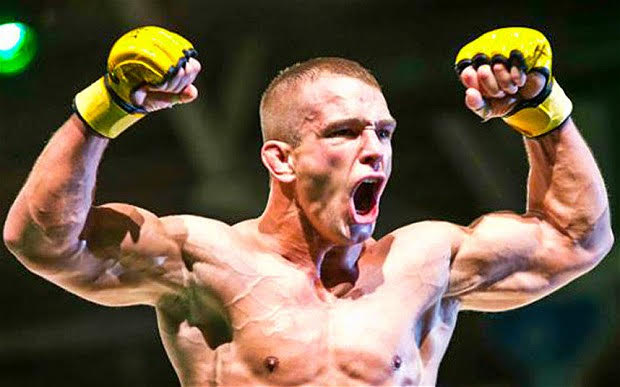
"I hardly like even to mention the little meannesses of which they will be rid, for they are beneath notice : such, for example, as the flattery of the rich by the poor, and all the pains and pangs which men experience in bringing up a family, and in finding money to buy necessaries for their household, borrowing and then repudiating, getting how they can, and giving the money into the hands of women and slaves to keep -- the many evils of so many kinds which people suffer in this way are mean enough and obvious enough, and not worth speaking of."





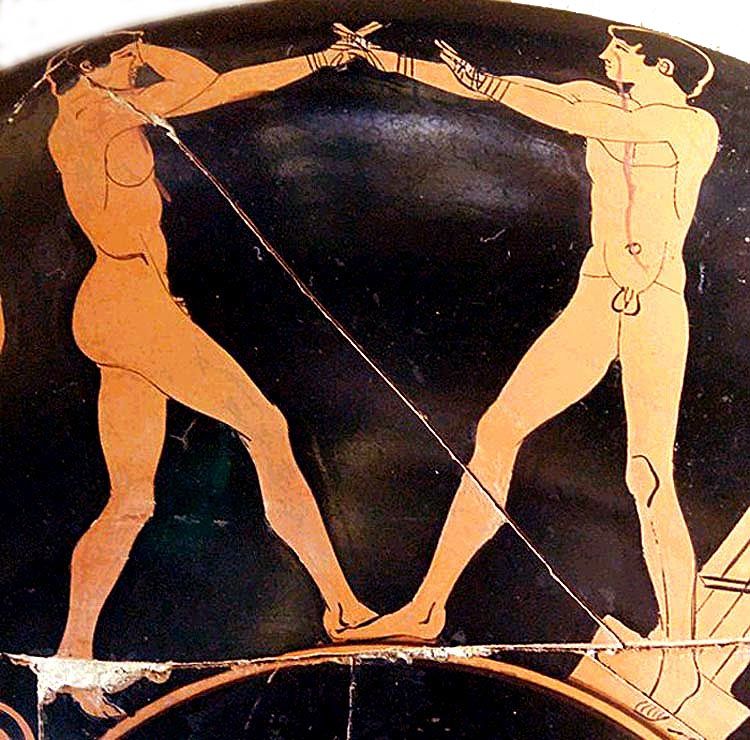








In the first place, none of the Guardians must possess any private property [ktaomai idios] save the indispensable. Secondly, none must have any habitation or treasure-house which is not open for all to enter at will. Their food, in such quantities as are needful for athletes of war [andres athletai polemou -- Men, combatants, prize-fighters, champions of war] sober [sophron] and brave [andreios -- Manly], they must receive as an agreed stipend from the other citizens as the wages of their guardianship, so measured that there shall be neither superfluity at the end of the year nor any lack. And resorting to a common mess [syssitia] like soldiers on campaign they will live together [stratopedeuo zao koinos].

The First and Most Manly [proton kai aristos] form of the State and of the Government and of the Law [polis kai politeia kai nomos] is that in which there prevails most widely the ancient saying, that "Friends have all things in common [philos koinos]." Whether there is anywhere now, or will ever be, this Communion of women and children and of property [koinos gynaikas, paidas, kai chremata sympata], in which the private [idios] and individual is altogether banished from life [exaireo bios], and things which are by nature private [physis idios], such as eyes and ears and hands, have become common [koinos], and in some way see and hear and act in common [koinos], and all men express praise and blame and feel joy and sorrow on the same occasions [epainos kai psego kai chairo kai lupeo sympatas], and whatever laws there are unite the city to the utmost [apergazomai] -- whether all this is possible or not, I say that no man, acting upon any other principle, will ever constitute a state which will be truer or better or more Exalted in Manliness [orthoteron oude beltio oude hyperbole pros areten].
[T]he Truest and Most Manly form of Equality [alethes kai aristos isotes] is not an easy thing for everyone to discern. It is the judgment of Zeus [krisis Dio], and men it never assists save in small measure, but in so far as it does assist either States or individuals, [757c] it produces all things Manly [agathos] ; for it dispenses more to the greater and less to the smaller, giving due measure [metrios] to each according to nature [physis] ; and with regard to Worth [tima] also, by granting the greater to those that are greater in Manliness [areta], and the less to those of the opposite character in respect of Manliness and education and culture [paideia], it assigns in proportion what is fitting to each. Indeed, it is precisely this which constitutes for us Manly Moral Order [dikaios], which is the object we must strive for, Clinias ; this equality [isotes] is what we must aim at, now that we are settling the State [757d] that is being planted . And whoever founds a State elsewhere at any time must make this same object the aim of his legislation, -- not the advantage of a few tyrants, or of one, or of some form of democracy, but Manly Moral Order always.






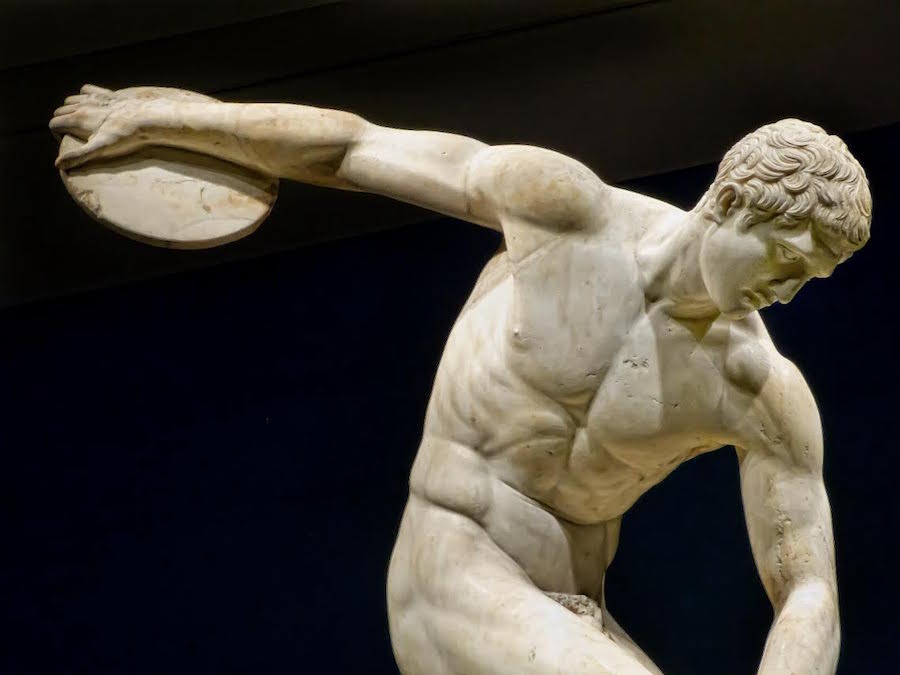



![]()
















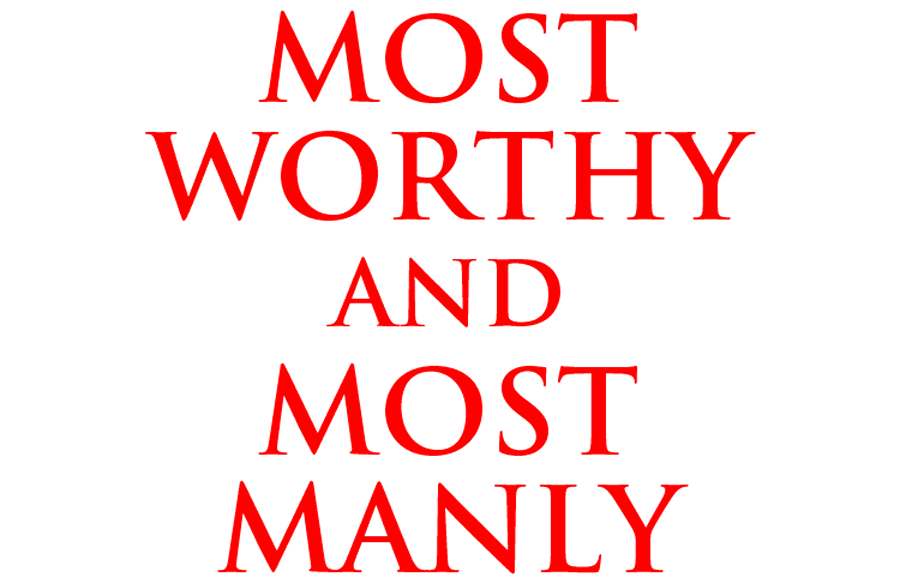
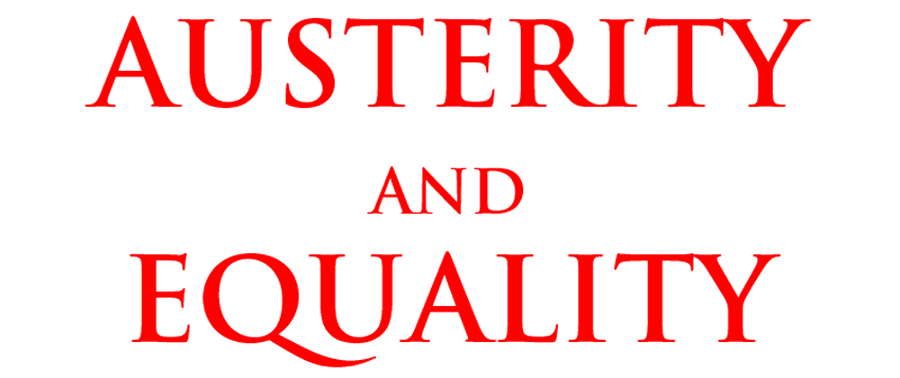
[T]he Truest and Most Manly form of Equality [alethes kai aristos isotes] is not an easy thing for everyone to discern. It is the judgment of Zeus [krisis Dio], and men it never assists save in small measure, but in so far as it does assist either States or individuals, [757c] it produces all things Manly [agathos] ; for it dispenses more to the greater and less to the smaller, giving due measure [metrios] to each according to nature [physis] ; and with regard to Worth [tima] also, by granting the greater to those that are greater in Manliness [areta], and the less to those of the opposite character in respect of Manliness and education and culture [paideia], it assigns in proportion what is fitting to each. Indeed, it is precisely this which constitutes for us Manly Moral Order [dikaios], which is the object we must strive for, Clinias ; this equality [isotes] is what we must aim at, now that we are settling the State [757d] that is being planted . And whoever founds a State elsewhere at any time must make this same object the aim of his legislation, -- not the advantage of a few tyrants, or of one, or of some form of democracy, but Manly Moral Order always.



For if one of the boys was asked who was a good citizen [polites agathos -- Manly and Good], or who an infamous one [ouk -- NOT eudokimos -- of good repute], and had no answer to make, he was judged to have a torpid [nothros] spirit [psyche], and one that was aphilotimos -- one that lacked that Love of Honour and Love of Worth which inspires and leads a youth to Areta -- Manly Excellence, Manly Goodness, Fighting Manhood.















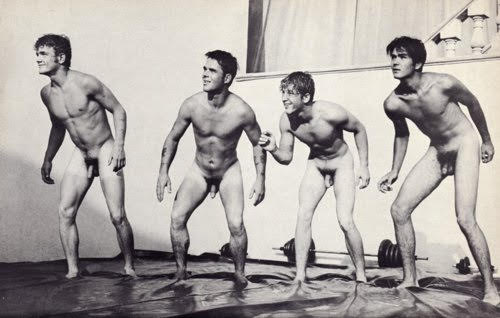

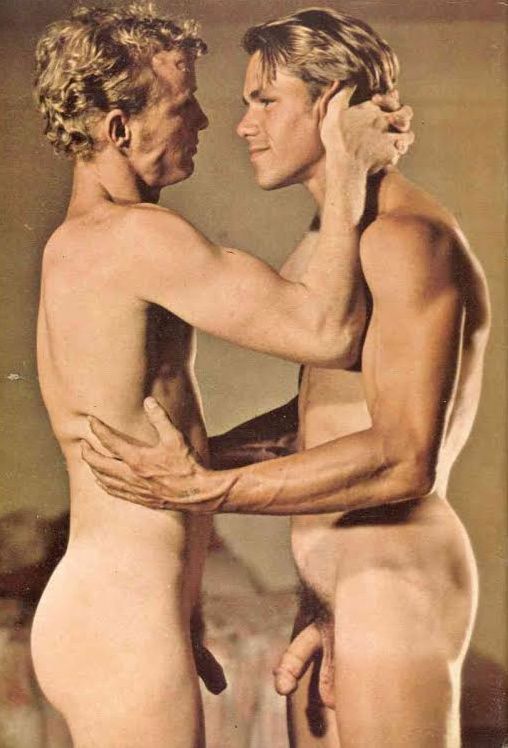














Cp. Plat. Laws 663a, Plat. Laws 904e. "Perfect goodness" helps to secure this "power of not suffering wrong" because it includes the virtue of "courage" : people do not lightly provoke the brave warrior.
Along with sacrifices [thusiais], [the archons] must continually devise noble games [kalas paidias], to serve [829c] as festival-contests [heortastikai machai -- martial tourneys and tournaments], modelled as closely as possible on those of war [mimeomai polemikas machas]. At each of these they must distribute prizes of victory and valour [niketeria kai aristeia] to the competitors, passing censures and encomiums [psogous kai enkomia] on one another according to the characters which they bear in the contests and their whole life [agonas kai bio], honouring him [kosmeo] who is accounted Most Manly [aristos], and blaming him [psego] who is not.
while awaiting its next embodiment --

A Nude Boy Victor wears woolen bands and holds
a crown of leaves. The wollen bands signify the
consecration of the Victor to the God.
The Victor is a living sacrifice
to his God.
Gildersleeve :
The Victor brings
a living sacrifice to his Deity,
the fresh bloom of young manhood,
the rich efflorescence of the gifts of fortune.
Cp. Plat. Laws 663a, Plat. Laws 904e. "Perfect goodness" helps to secure this "power of not suffering wrong" because it includes the virtue of "courage" : people do not lightly provoke the brave warrior.



Along with sacrifices [thusiais], [the archons] must continually devise noble games [kalas paidias], to serve [829c] as festival-contests [heortastikai machai -- martial tourneys and tournaments], modelled as closely as possible on those of war [mimeomai polemikas machas].
Nor shall any one dare to sing a song which has not been approved by the judgment of the Guardians of the Laws, not even if his strain be sweeter than the songs of Thamyras and Orpheus ; but only such poems as have been judged sacred and dedicated to the Gods [hiera kai didomi tois Theois], and such as are the works of Manly Men [andron agathon], which have been adjudged to have duly distributed praise or blame [epainos e psego].














No Man, calling the Gods to witness [genos epikaloumenos Theon], shall commit, either by word or deed, any falsehood, fraud or adulteration, if he does not mean to be most hateful to the Gods [Theomistatos] ; and such an one is he who without regard of the Gods swears oaths falsely [horkos omnumi pseudo], and also who lies in the presence of his superiors [Kreittones -- those who are stronger, mightier, Superior Beings, ie, Gods].

































To Transform the Chaos
of Embodiment into
The Perfect Measures
of the Warrior Kosmos
Warrior Kosmos : Warrior Sanction
The Perfect Measures of the Warrior Kosmos
Ares Is Lord : Manhood Is God
Warrior Pro-oimion
Warrior Cosmogenesis
Warrior Contest : Warrior Conquest
Warrior Machogenesis
Perfect Manliness and the Eternal Return of the Fighter
Warrior Erotogenesis
Warrior Contest : Warrior Conquest
Perfect Manliness and the Eternal Return of the Fighter


































Bill Weintraub :
The human soul, like the created cosmos, contains a Principle -- the One -- which precedes its Multiplicity.
[I]t subsists in our very essence, is superior to all judgement and choice, and exists prior to reason and demonstration. From the beginning it is united to its proper cause and is established with the soul's essential desire (ephesis) for the Good. But if one must speak the truth, contact with the Divine is not knowledge. For knowledge is separated [from its object] by otherness. But, prior to the act of knowing another as being, itself, "other," there exists a spontaneous [. . .] uniform conjunction suspended from the Gods. (DM 7, 14-8, 6)
In Warrior Theurgic terms :
An innate knowledge (emphutos gnosis) of the Gods of War and Manhood subsists in our very essence, is superior to all judgement and choice, and exists prior to reason and demonstration. From the beginning it is united to its proper cause and is established with the male soul's essential desire (ephesis) for Pure and Perfect Manliness. But if one must speak the truth, contact with the Warrior Divine is not knowledge. For knowledge is separated [from its object] by otherness. But, prior to the act of knowing another as being, itself, "other," there exists a spontaneous [. . .] uniform conjunction suspended from the Warrior Gods. (DM 7, 14-8, 6)
In Warrior Theurgic terms :
In Warrior Theurgic terms :
The male soul is drawn to the Warrior Gods by its innate gnosis and desire (ephesis).
For after He conceived his works, the self-generated Paternal Mind sowed the bond of Love, heavy with fire, into all things . . . in order that the All might continue to love for an infinite time, and the things woven by the intellectual light of the Father might not collapse . . . [It is] with this Love (eros) that the elements of the world remain on course.
In Warrior Theurgic terms :
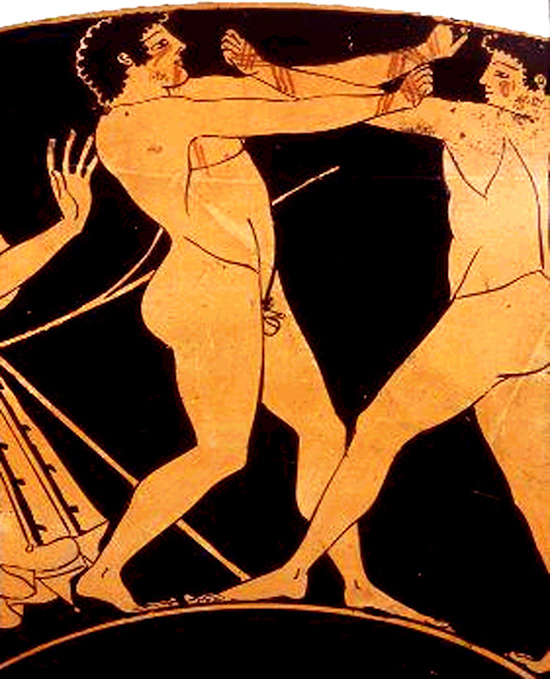
In Warrior Theurgic terms :
Footnote 21. In the Symposium, Diotima defines the praxis and ergon of love. "To love," she says, "is to bring forth upon the beautiful both in body and in soul" (206b, 7-8). "The act of creation (he gennesis)," she adds, "is the one deathless (athanatos) and eternal (aeigenes) thing in our mortality" (206e, 7-8). In the Phaedrus, Plato says the erastes "would offer sacrifice to his beloved as to a holy image of Deity" (251a, 6-7) ; and at 253a he says "the divine habits that the soul receives from the Deity who possesses him he attributes to the beloved, upon whom he pours out his love."
Bill Weintraub :
The erastes athletikos, the Warrior Lover, should offer sacrifice to his beloved as to a holy image of Warrior Deity ; and, the divine and war-like habits that the Warrior Lover's soul receives from the Warrior God who possesses him he should attribute to his Warrior Beloved, upon whom he pours out his Combatant Love.
There were two hot springs smaller than the others but prettier, and he (Iamblichus) bade his disciples ask the natives of the place by what names they were called in ancient times. When they had done his bidding, they said, "There is no question about it, this one is called Eros, and the one next to it Anteros." [22] He at once touched the water with his hand -- he happened to be sitting on the ledge where the overflow runs off -- and uttering a brief summons, he called forth a boy from the depth of the spring. He was white-skinned and of medium height, his locks were golden and his back and chest shone ; and he exactly resembled one who was bathing or had just bathed. His disciples were overwhelmed with amazement, but Iamblichus said, "Let us go to the next spring," and he rose and led the way with a thoughtful air. Then he went through the same performance there also and summoned another Eros like the first in all respects, except that his hair was darker and fell loose in the sun. Both the boys embraced Iamblichus and clung to him as though he were genuinely their father. He restored them to their proper places and went away after his bath, reverenced by his pupils. [23]
Footnote 22. Considering the profound similarity in the function of Platonic eromenoi [beloveds] and theurgic sunthemata [symbols], it is likely that Eunapius borrowed his terms from Phaedrus 255d, where Plato describes the yearning of the beloved for his lover : "And when the other is beside him, he shares his respite from anguish, and when he is absent, he likewise shares his longing and being longed for, since he possesses a counter-love (anteros), which is the image of love (eros)." ~Pl.Phdr.255d, translated by W C Wright.

ΕΡΩΣ
και
ΑΝΤ-ΕΡΩΣ


Eros and Ant-Eros
Fighting


Palaistra Scene
A Boxer holds a palm as a sign of Victory
On the left is a Herm
Among the reported advantages of [male Eros] was that of exaggerating
competition among the warriors : lovers competed with each other and
dreaded to be shamed in the presence of those they loved.

And when the other is beside him, he shares his respite from anguish, and when he is absent, he likewise shares his longing and being longed for, since he possesses a counter-love (anteros), which is the image of love (eros).
Here, as at Athens, Eros occupies a place of honor in the gymnasion, and, as at Athens, he stands as an important agonistic presence expressed in an artistic medium. At Elis, Eros is not just a guardian of friendship and a reminder of the important benefits of beauty and erotic relations that result from athletic participation ; he is also an active participant in the contest. He is a wrestler. As such, the God is a model for Olympic athletes. . . . Since Olympic wrestlers and pankratiasts are directly confronted with the image of Eros, the God is publically, if somewhat indirectly, acknowledged as an important force behind the Olympic Games.






Eros and Ant-Eros
Fighting
































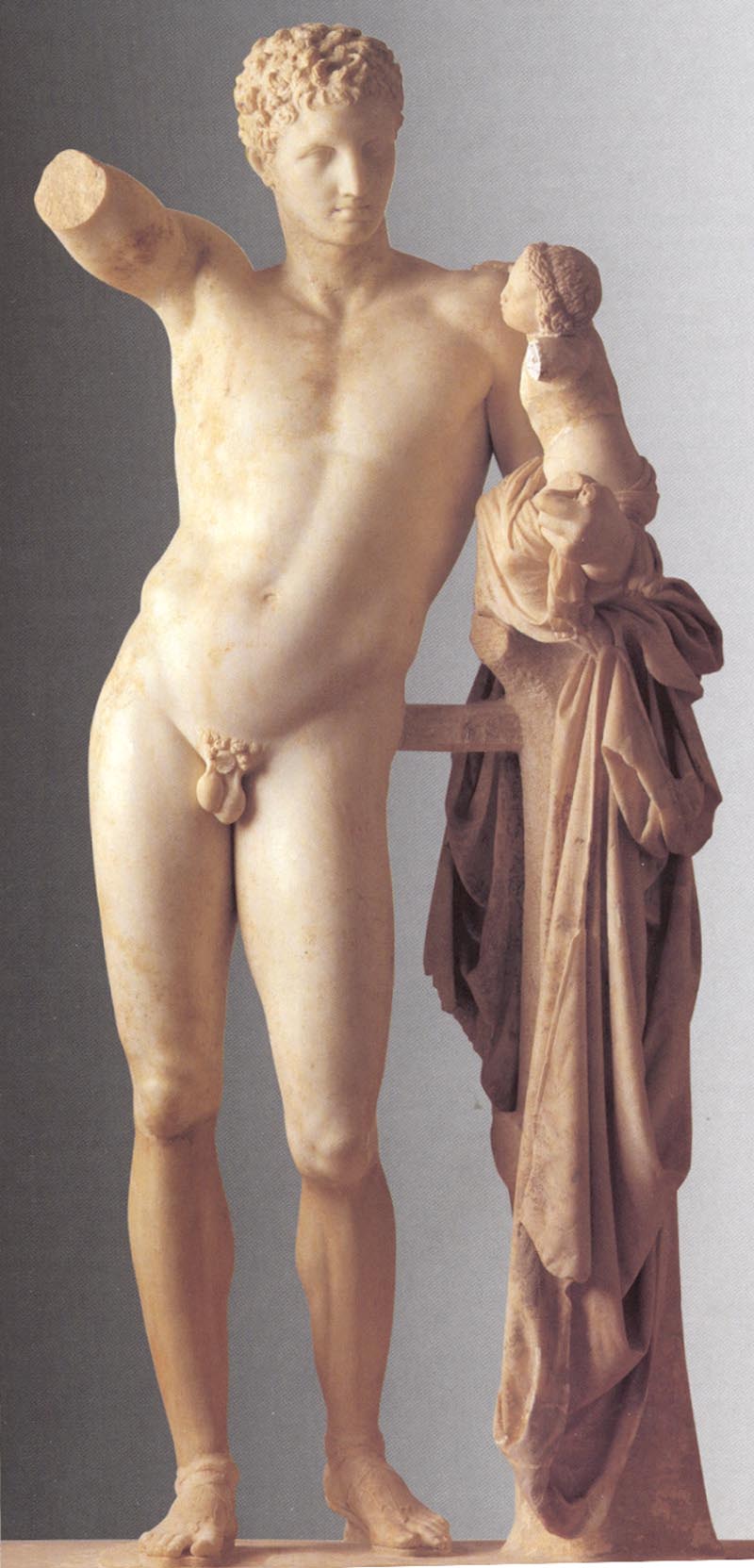
The Greek God Hermes holds the infant Dionysios, who was carried to term in Zeus' thigh.

























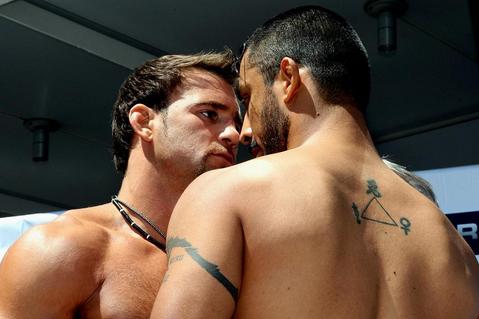



















Wherefore in men [andron] the nature [physis] of the genital organs [ta aidoia] is disobedient and self-willed [apeithes kai autokrates], like a creature that is deaf to reason [zoon anupekoos logos], and it attempts to conquer all [epicheireo krateo pas] because of its raging lusts [epithumia oistrodes].





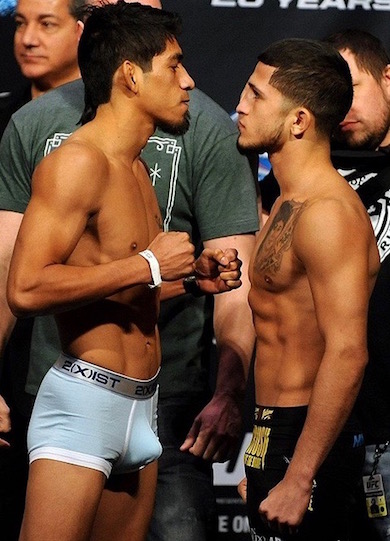

















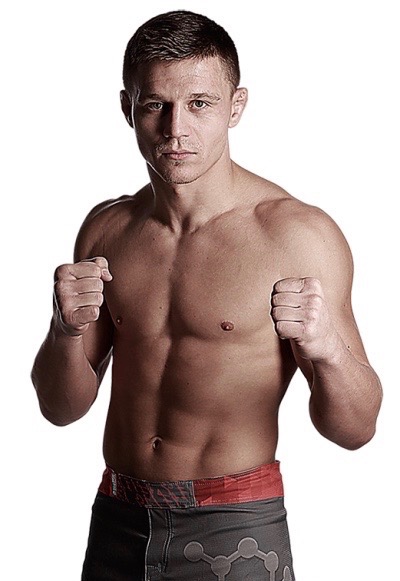











![]()

































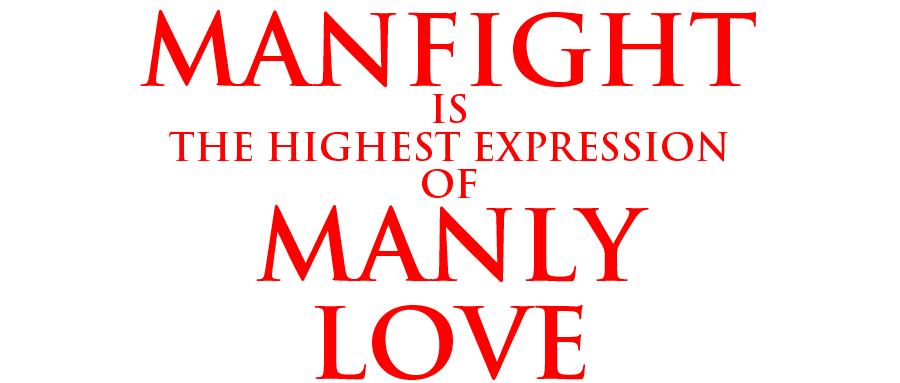
Manhood and Manliness at its core, and that fails to identify Manhood, Fighting Manhood, with Virtue.












































[Areta is] goodness, excellence, of any kind, esp. of manly qualities, manhood, valour, prowess (like Lat. virtus, from vir)





![]()





![]()











































Ground and Pound





















Bronze Statue of the Emperor Hadrian
Wearing a Breastplate Decorated with
Scenes of Nude Gladiators Fighting
A F T E R W O R D
ARES + APHRODITE = EROS


One of the nice things about reading Xenophon, who lived in an age when male-male was normative, is how easily and without embarrassment, he refers to Men as having good bodies.











































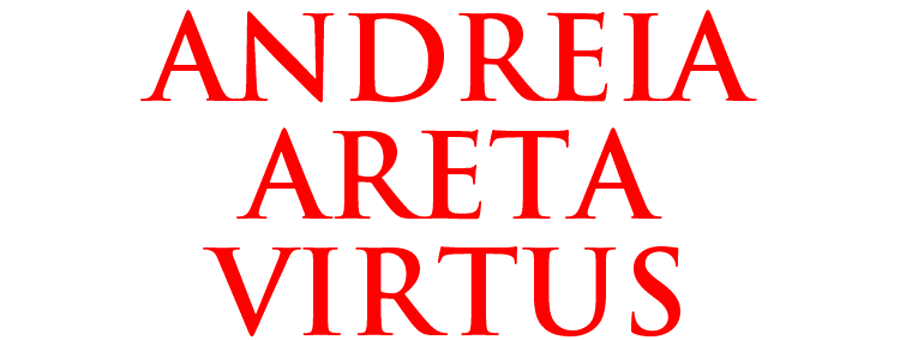
















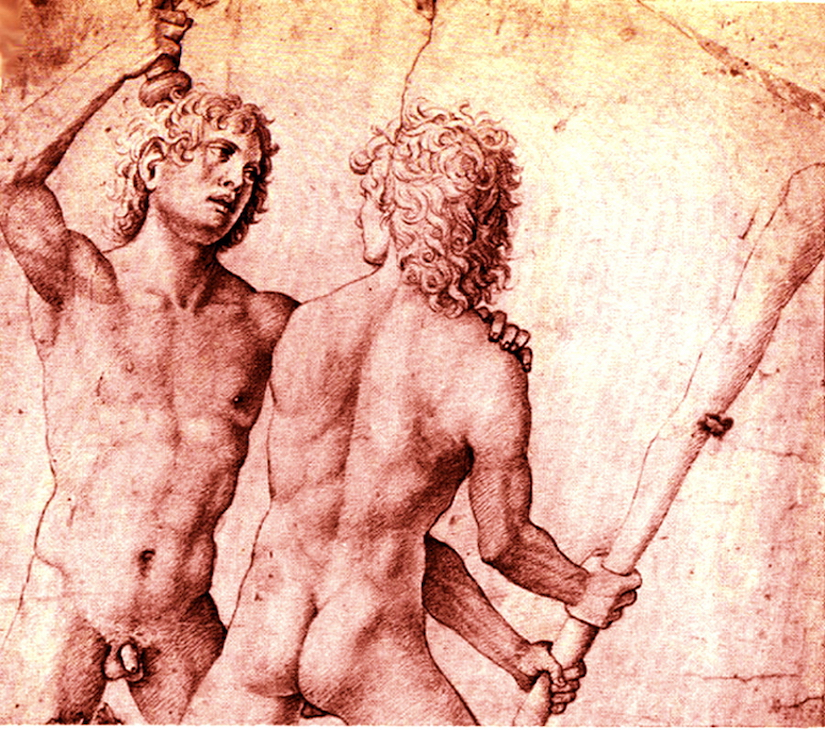



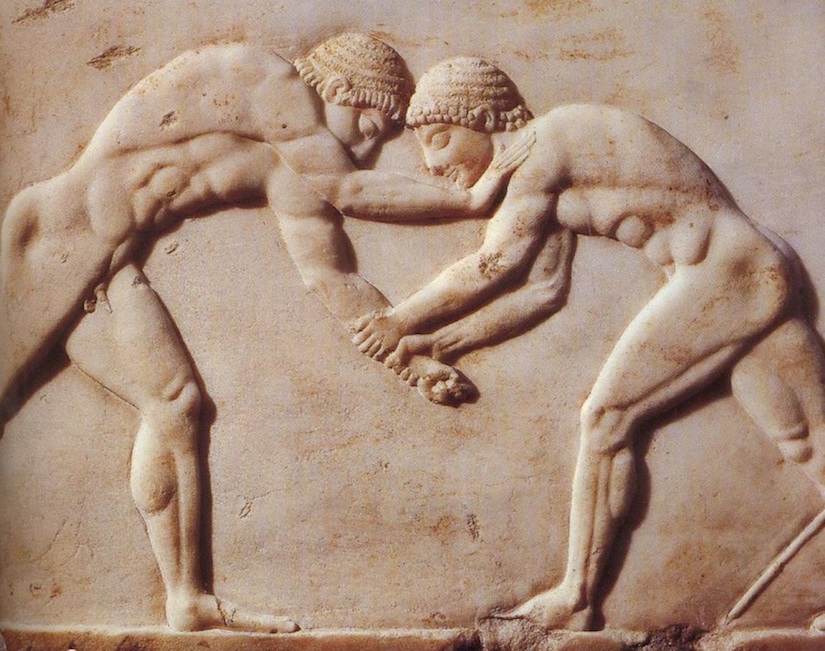

![]()




















[Areta is] goodness, excellence, of any kind, esp. of manly qualities, manhood, valour, prowess (like Lat. virtus, from vir)
















An athletic victor wears woolen bands and holds
a crown of leaves. The bands or fillets "signify the
consecration of the victor to the God."
(Sansone) -- Or, I would say, to the
Warrior Gods, eg Ares and Agon.

























































![]()



























































Virtus comes before everything, that's for sure!
Freedom, safety, life, property and parents, fatherland and children, it guards and keeps safe.
Virtus has everything in it ; He who has Virtus has everything good!
Compared to the display of Virtus, "everything is subordinate and hides in dark night."
manliness, manhood, i. e. the sum of all the corporeal or mental excellences of man, strength, vigor; bravery, courage; aptness, capacity; worth, excellence, virtue, etc.
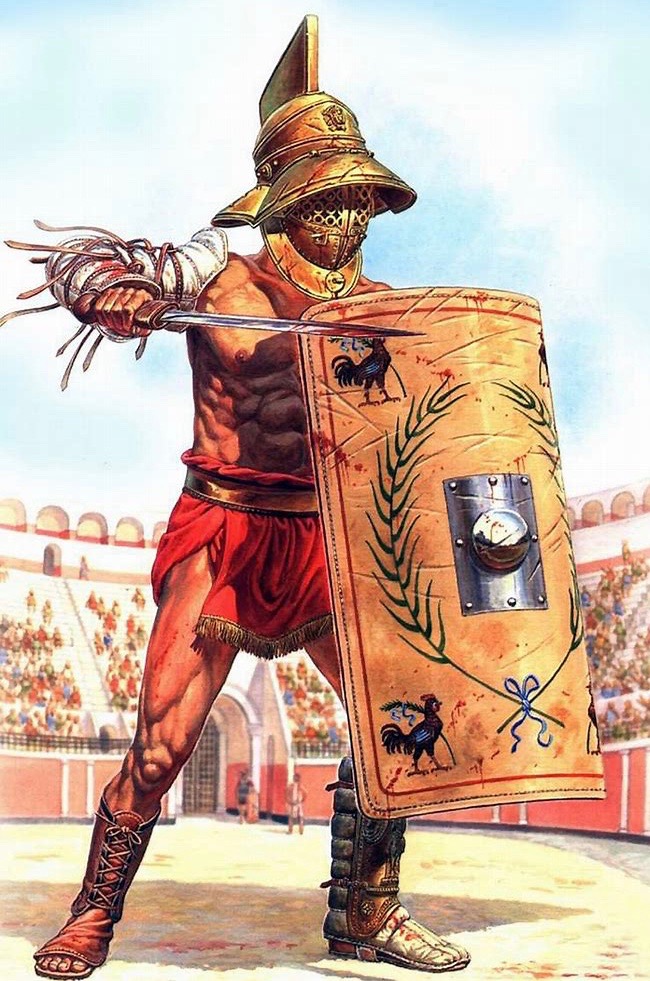
IS
THE ARDENT WILLINGNESS
AND
REQUISITE ABILITY
TO FIGHT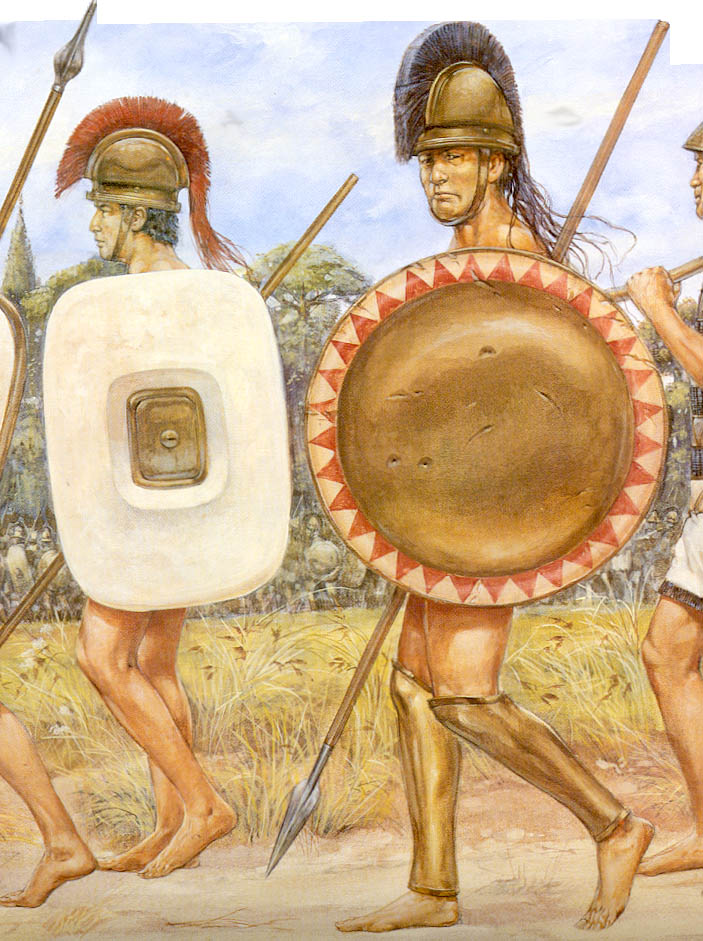
Ennius was filled with a proud and noble self-consciousness. He entered Rome
fortiterque innoxium stare adversum adversaries,
ea libertas est qui pectus purum et firmum gestitat ;
aliae res obnoxiosae nocte in obscura latent.
To live a life [vivo] inspired [animo], to stand steadfast [sto]
With guiltless [innoxius] bravery [fortitudo] in the face of [adversus -- face-to-face with] foes [adversarius].
The man who bears himself both pure [purus -- clean, pure, unstained, free from sensuality] and staunch [firmus -- strong, steadfast, stable, enduring, powerful] --
That is true libertas -- freedom. All conduct else
Lies lurking [lateo] in dim [obscurus] darkness [nox], fraught with guilt [obnoxiosus].
[T]he Britons show more spirit [than the Gauls] : they have not yet been ennervated by protracted peace [imposed by Roman conquest].
History tells us that the Gauls too had their hour of military glory. But since that time a life of ease has made them unwarlike : their Manliness perished with their freedom [amissa virtute pariter ac libertate].

Whatever else you practice you must practice it In Union with Fighting Manhood, being well assured that when divorced from this all possessions and pursuits are base and ignoble. For neither does wealth bring honor to its possessor if combined with an-andria -- want of manhood and UN-manliness -- for such an one is rich for another rather than for himself -- nor do beauty and strength appear comely, but rather uncomely, when they are attached to one that is cowardly and base, since they make their possessor more conspicuous and show up his cowardice ; and every form of knowledge when sundered from that which is just, right, lawful, and Manfully well-ordered [dikaios] and the rest of Areté -- Manly Excellence, which is Fighting Manhood -- is seen to be plain roguery rather than wisdom.
[W]hatsoever else you practice you must practice it In Union with Fighting Manhood, being well assured that when divorced from this all possessions and pursuits are base and ignoble. For neither does wealth bring honor to its possessor if combined with want of manhood and unmanliness -- for such an one is rich for another rather than for himself -- nor do beauty and strength appear comely, but rather uncomely, when they are attached to one that is cowardly and base, since they make their possessor more conspicuous and show up his cowardice ; and every form of knowledge when sundered from that which is just, right, lawful, and Manfully well-ordered [dikaios] and the rest of Areté -- Manly Excellence, which is Fighting Manhood -- is seen to be plain roguery rather than wisdom.




































Warrior Timogenesis
The Ethical Supremacy conferred by Fighting Men and their Fighting Manhood is the source of all Manly Honour







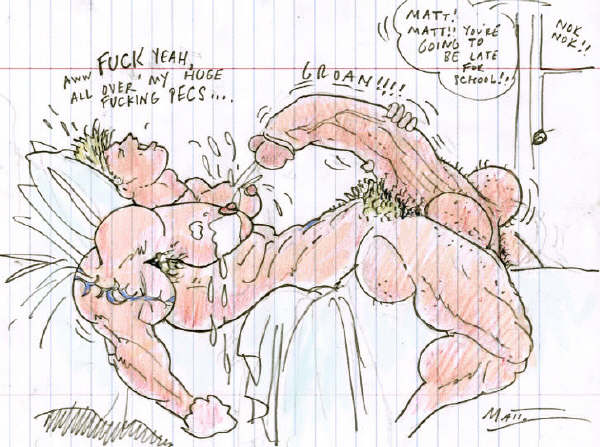


Wherefore in men [andron] the nature [physis] of the genital organs [ta aidoia] is disobedient and self-willed [apeithes kai autokrates], like a creature that is deaf to reason [zoon anupekoos logos], and it attempts to conquer all [epicheireo krateo pas] because of its raging lusts [epithumia oistrodes].











Hadrian
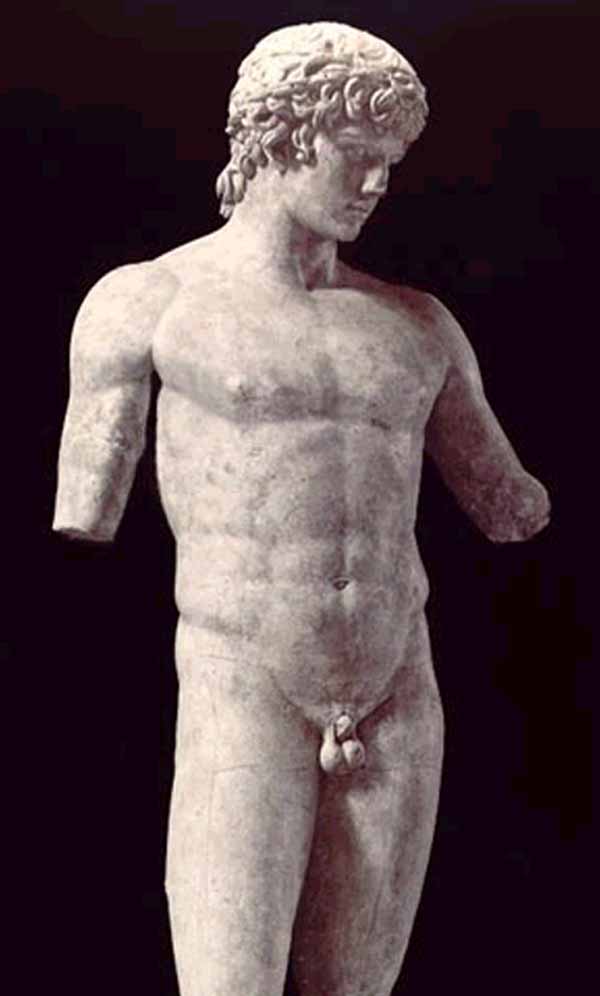
Antinous

Alexander
[I]n my view Ptolemy and Aristoboulus are more trustworthy in their narrative, since Aristoboulos took part in king Alexander's expedition, and Ptolemy not only did the same, but as he himself was a king, mendacity [lying] would have been more dishonourable [aischroteros] for him than anyone else.
The Greek word kalos has a broader field of application than the English word "beautiful," and it is therefore occasionally difficult to render a passage satisfactorily ; for though we may speak of a beautiful act, we can hardly apply the word "beautiful" to laws and constitutions, for example.






[B]ecause he [Ptolemy] became one of Alexander's elite Bodyguards (3.27.5), Arrian would have been well aware that Ptolemy was a close friend, who was no doubt privy to sensitive information and confidences. Of course, what Ptolemy chose to record and what to omit was entirely up to him. Arrian's opinion that Ptolemy's regal status would have encouraged him to tell the truth is often seen as naive, but Arrian isn't saying that Ptolemy would never lie, merely that as a high-profile public figure he would be all the more embarrassed if his mendacity were publically exposed.
[I]n my view Ptolemy and Aristoboulus are more trustworthy in their narrative, since Aristoboulos took part in king Alexander's expedition, and Ptolemy not only did the same, but as he himself was a king, mendacity [lying] would have been more dishonourable [aischroteros] for him than anyone else.
[6] The boys go to school and spend their time in learning justice ; and they say that they go there for this purpose, just as in our country they say that they go to learn to read and write. And their officers spend the greater part of the day in deciding cases for them. For, as a matter of course, boys also prefer charges against one another, just as men do, of theft, robbery, assault, cheating, slander, and other things that naturally come up ; and when they discover any one committing any of these crimes, they punish him, [7] and they punish also any one whom they find accusing another falsely.
Alexander died in the 114th Olympiad, in the archonship of Hegesias at Athens. He lived, as Aristobulus tells us, thirty-two years and eight months, and reigned twelve years and eight months. He had great personal beauty [kallistos -- superlative of kalos], invincible power of endurance [philoponotatos -- superlative of philoponos], and a keen intellect ; he was brave [andreiotatos, superlative of andreios = Most Manly], strict in the observance of his religious duties, and hungry for fame [philotimotatos = superlative of philotimos] [philokindunotatos = superlative of philokindunos = danger-loving, adventurous]. Most temperate in the pleasures of the body, his passion was for glory only, and in that he was insatiable. He had an uncanny instinct for the right course in a difficult and complex situation, and was most happy in his deductions from observed facts. In arming and equipping troops, and in his military dispositions, he was always masterly. Noble indeed was his power of inspiring his men, of filling them with confidence, and, in the moment of danger, of sweeping away their fear by the spectacle of his own fearlessness. When risks had to be taken, he took them with the utmost boldness, and his ability to seize the moment for a swift blow, before his enemy had any idea of what was coming, was beyond praise. No cheat or liar ever caught him off his guard, and both his word and his bond were inviolable. Spending but little on his own pleasures, he poured out his money without stint for the benefit of his friends.
We live in honour's churchyard. Honour's bones are still with us, but the muscles which drove them and the tissues which joined them have rotted away.
Greeks . . . competed primarily not for money but rather for honor or glory; "worth," they called it, timé being the Greek word.
And while his death caused extreme grief to Archidamos, still, as he promised, he did not bring shame upon him, but rather honour [kosmeo].








MMA Fighter
On his Chest
A Solemn Vow
"Death or Glory"

The Manly Man endures the terrors
and dares the deeds that
manifest Manliness,
for the sake of that
which is Noble.




Two Nude Boxers Fight
The Man on the left is the Ephedros ; He'll Fight the Victor of this Bout
The Goddess on the right is Olympias, the Personification of the Olympic Games
Duk Koo Kim (1959-1982). He gave his life to provide some entertainment on
a dull Saturday afternoon in November.
Agathos Daimon, nicknamed 'the Camel' from Alexandria, a victor at Nemea. He died here, boxing in the stadium, having prayed to Zeus for victory or death. Age 35. Farewell.


You come to the Olympic festival itself and to the finest event in Olympia, for right here is the men's pankration. Arrhachion, who has died seeking victory, is taking the crown for it, and this Olympic judge is crowning him. . . . Let's look at Arrhachion's deed before it comes to an end, for he seems to have conquered not his opponent alone, but the whole Greek nation. . . . They shout and jump out of their seats and wave their hands and garments. Some spring into the air, others in ecstasy wrestle the man nearby. . . . Though it is indeed a great thing -- he'd already won twice at Olympia, what has just now happened is greater : he has won at the cost of his life and goes to the Land of the Blessed with the very dust of the struggle. Don't think this is the result of chance! There were very clever advance plans for this victory. . . .

The Manly Man endures the terrors
and dares the deeds that
manifest Manliness,
for the sake of that
which is Noble.



By unchaste looks, loose gestures, and foul talk,
But most by leud and lavish act of sin,
Lets in defilement to the inward parts,
The soul grows clotted by contagion,
Imbodies, and imbrutes, till she quite loose
The divine property of her first being.
As a child she had sometimes been subject to shame but education had removed the last traces of that as a good surgeon scrapes for cancer.
The ungrateful[a-charistos] are likely to be most neglectful [a-meles] of their duty toward their Gods, their parents, their country, and their friends [Theous, Goneas, Patrida, Philous] ; for it seems that shamelessness [an-aischyntia] goes hand in hand with ingratitude [a-charistia] ; and it is that, we know, which leads the way to every moral wrong [aischra -- dishonour, disgrace, moral ugliness].
ΑΙΔΩΣ
[I]n my view Ptolemy and Aristoboulus are more trustworthy in their narrative, since Aristoboulos took part in king Alexander's expedition, and Ptolemy not only did the same, but as he himself was a king, mendacity [lying] would have been more dishonourable [aischroteros] for him than anyone else.
Indeed, the greater a man's honour, the higher his position in society, the more people watched him, and the more he felt his actions hemmed in by his own rank.
[I]n my view Ptolemy and Aristoboulus are more trustworthy in their narrative, since Aristoboulos took part in king Alexander's expedition, and Ptolemy not only did the same, but as he himself was a king, mendacity [lying] would have been more dishonourable [aischroteros] for him than anyone else.
Arrian is, in the main, clear and easy to understand ; and that is a virtue.
There is no indication that Arrian thought his Anabasis Alexandrou would erase other Alexander histories. In fact, he indicates in his preface that he is more or less expecting the continuing existence of other accounts. But he also assumes his history's superiority and its place in posterity : a great subject and a great literary work immortalize each other (1.12.25). This is the same supreme self-confidence that we see in Thucydides, Horace, and Shakespeare -- and, as in their cases, time has proven Arrian right.










Manliness [andreia] is the observance of the mean in relation to things that inspire confidence or fear, in the circumstances stated ; and it is confident and endures because it is noble [kalos] to do so or base [aischros] not to do so.
kalos means noble while aischros means base or ignoble ; and kalos also means honourable while aischros also means shameful, disgraceful, and dishonourable
Honour is Noble ; and that's because it derives from Fighting Men and their Fighting Manhood.
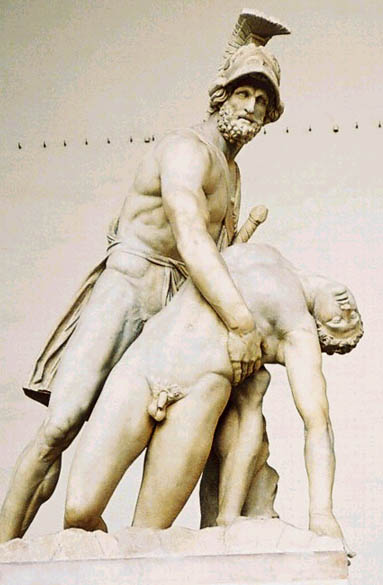
Thumos is Plato's Principle of High Spirit -- which is, per Platonist Paul Shorey, the power of noble wrath, the capacity for righteous indignation, without which the soul -- and the Man -- cannot combat injustice.


Most temperate in the pleasures of the body, his passion was for Glory only, and in that he was insatiable.






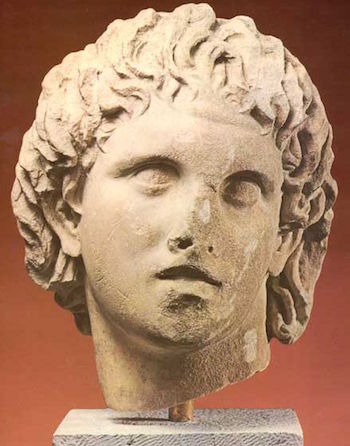







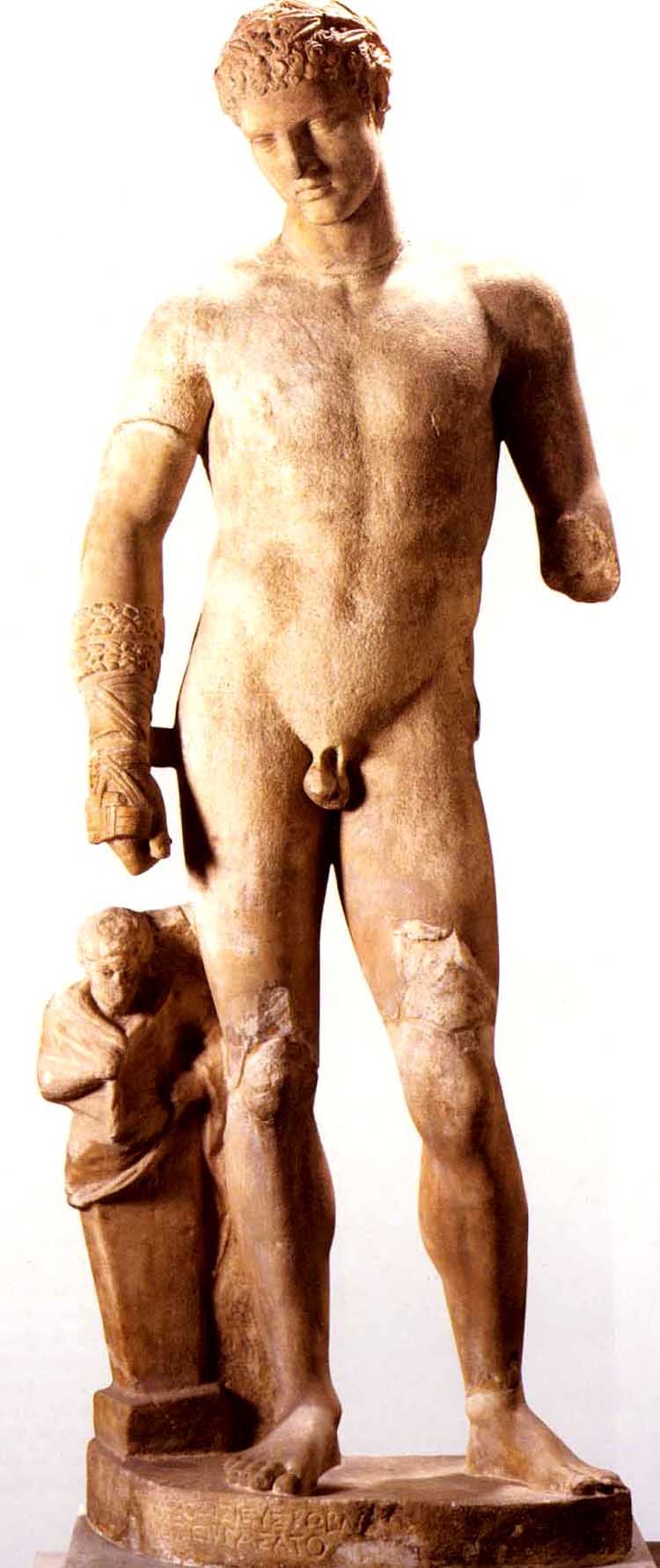
















Patroklos and Achilles

The Manly Man endures the terrors
and dares the deeds that
manifest Manliness,
for the sake of that
which is Noble.







O virtue [Areta], toilsome for the generation of mortals to achieve, the fairest prize that life can win, for thy beauty, it were a doom glorious in Hellas even to die and to endure fierce, untiring labours. Such courage [kartos -- strength, vigour, force] dost thou implant in the mind, imperishable, better than gold, dearer than parents or soft-eyed sleep.




ΑΝΔΡΟΠΟΙΟΣ
Manliness involves pain, and is justly praised ;
for it is harder to face what is painful
than to abstain from what is pleasant
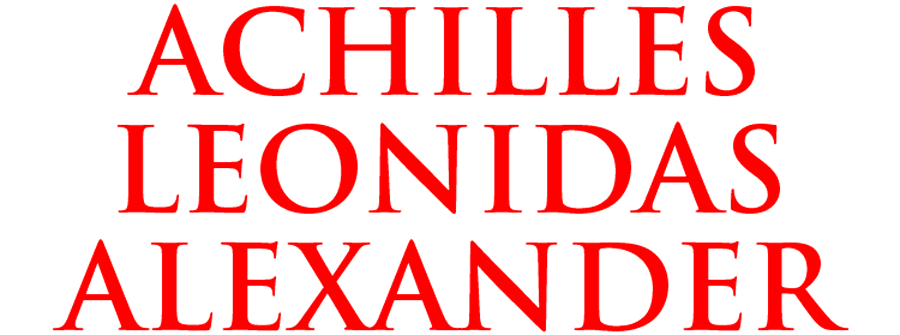






In the Iliad, the person who claims much and deserves much is Achilles.

"in regard to the greatness of his claim the great-souled man is an extreme, [but] by reason of its rightness he stands at the mean point, for he claims what he deserves"
Four very clearly presented and critical points :
It is Honour above all else which great men -- Men like Achilles and Leonidas and Alexander -- claim and deserve.
Footnote 6 : i.e., nothing is of much value in his eyes (cf. 3.30,34), so that gain, which is a motive to dishonesty with others, is no temptation to him.
"worthy of Honour" -- Please note the difference between axios -- worthy --, axia and axioma -- worth -- ; and Timé / Tima -- Honour :






Honour is the Prize of Manhood, and the Tribute we pay to the Manly


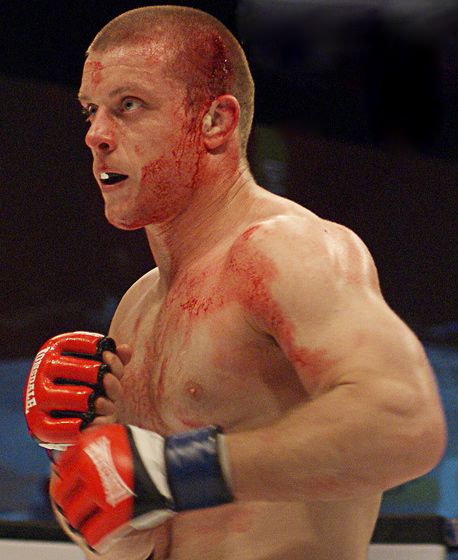
Honour is the Prize of Manhood
and
The Tribute we pay to the Manly



Honour is the Prize of Manhood
and
The Tribute we pay to the Manly



Honour is the Prize of Manhood
and
The Tribute we pay to the Manly


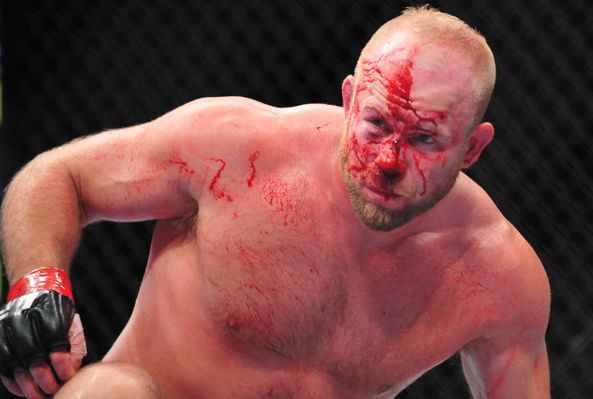
Honour is the Prize of Manhood
and
The Tribute we pay to the Manly



Honour is the Prize of Manhood
and
The Tribute we pay to the Manly



Honour is the Prize of Manhood
and
The Tribute we pay to the Manly






Achilles' slaying of Hektor is the first and most important example of how a self-less self-love, when combined with
the Warrior's natural instinct for self-assertion, leads to heroic self-sacrifice ; for Achilles knows that by choosing
to slay Hektor and so avenge his Lover's death, he himself will die young -- as Plato explains :
Achilles, son of [the Goddess] Thetis, the Gods honoured and sent to his place in the Isles of the Blest, because having learnt from his mother that he would die as surely as he slew Hector, but if he slew him not, would return home and end his days an aged man, he bravely [tolmao] chose to go and rescue [bontheo -- succour] his lover Patroclus, avenged [timoreo -- upheld his honour] him, and sought death not merely in his behalf but in haste to be joined with him whom death had taken. For this the Gods so highly admired him that they gave him distinguished honour [Timé / Tima], since he set so great a value on his lover. . . . For in truth, there is no sort of valor [Areté -- Manly Excellence, Manly Goodness, Fighting Manhood] more honoured [timao] by the Gods than this which comes of love [Eros] .
Bill Weintraub :
Footnote 2 : The ms. reading gives 'For even honour he does not feel to be of the greatest importance.'
Shall we admit, then, that greatness in a statue cannot, without the help of Art, be created by Fortune's profuse provision of gold and bronze and ivory and much rich material, but is it possible that a great man, or rather the greatest man of all that have ever lived [-- that is, Alexander], without the help of Manhood, was perfected through Fortune's supplying him with arms and money, foot and horse?
Whatever else you practice you must practice it In Union with Fighting Manhood, being well assured that when divorced from this all possessions and pursuits are base and ignoble. For neither does wealth bring honor to its possessor if combined with an-andria -- want of manhood and UN-manliness -- for such an one is rich for another rather than for himself -- nor do beauty and strength appear comely, but rather uncomely, when they are attached to one that is cowardly and base, since they make their possessor more conspicuous and show up his cowardice ; and every form of knowledge when sundered from that which is just, right, lawful, and Manfully well-ordered [dikaios] and the rest of Areté -- Manly Excellence, which is Fighting Manhood -- is seen to be plain roguery rather than wisdom.
This is a very important point in understanding how Honour regulates and orders relations between and among Warriors and Fighting Men.
When Taxiles, king of the Indians, met Alexander [the Great], he charged him not to fight or make war [me machomai mede polemeo], but, if he were inferior, to accept favours, and, if he were superior, to bestow them. To this Alexander replied that this was the very issue between them, to determine which could outdo the other in bestowing favours.
Jaeger : He who possesses an ennobled self-love, says Aristotle,
Achilles :
hides one thing in the depths of his heart, and speaks forth another."
[Alexander was] by nature a lover of learning and a lover of reading. And since he thought and called the Iliad a Viaticum of Martial Excellence [ephodion polemikearete], he took with him Aristotle's recension [annotated copy] of the poem, called "the Iliad of the Casket [narthex]," and always kept it lying with his dagger [encheiridios] under his pillow . . .



In this brilliant vase-painting, Achilles relaxes on his couch and banters with a boy, the body of his dead enemy Hektor tucked away for safe-keeping beneath him. We see Achilles' Gorgon-faced shield, his helmet, his sword, and in his hand, the spear-point with which he killed his Lover's killer ; while on the viewer's left, Hektor's aged father Priam approaches with gifts, hoping to get Hektor's body in return.
Perhaps it was better for Alexander to die while his fame was unimpaired and the world most grieved for his loss, and before he was overtaken by the reversals of fortune which, at one time or another, are the lot of all men.



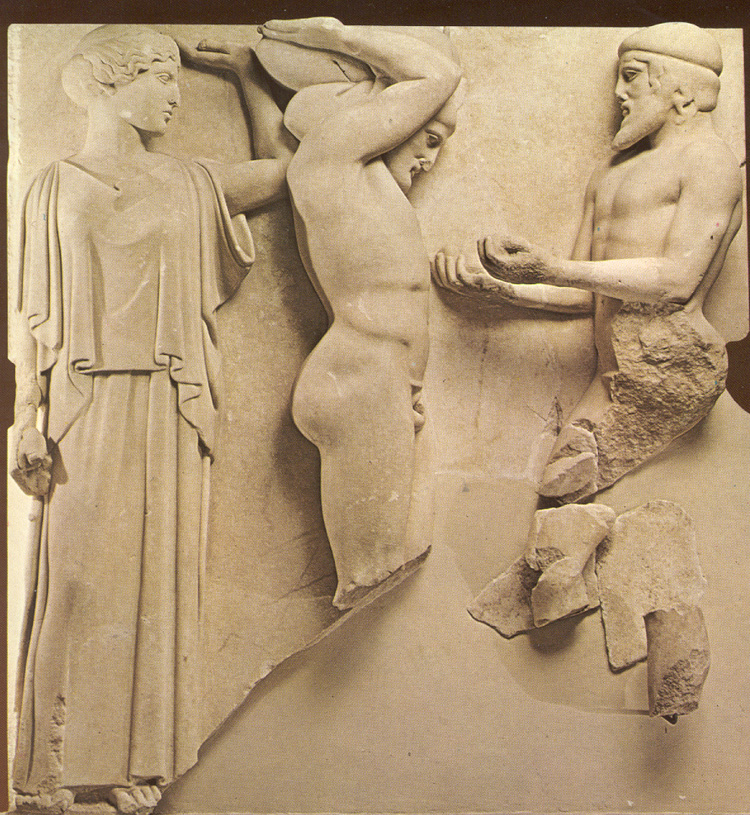
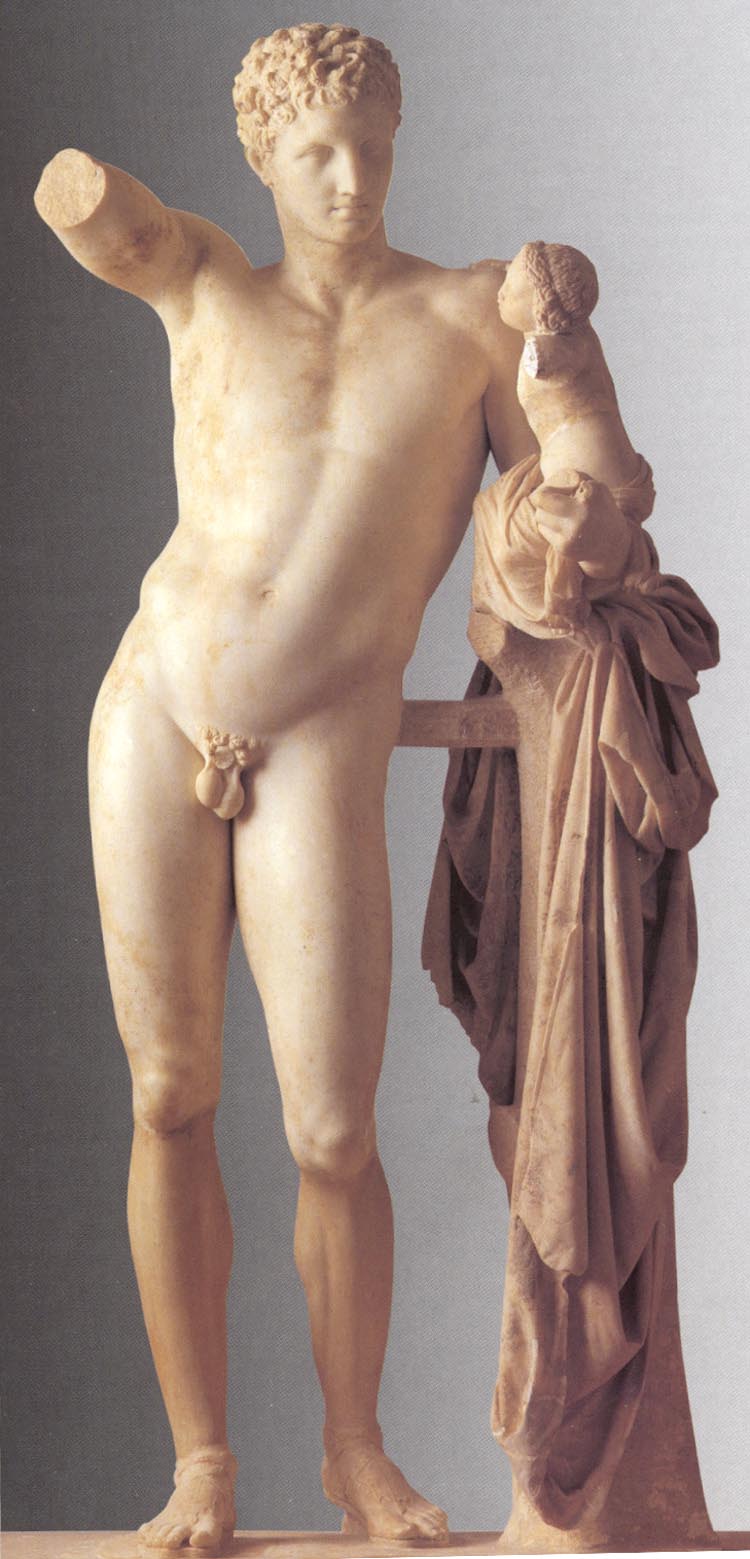


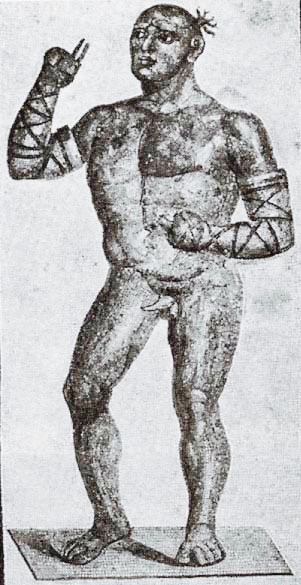



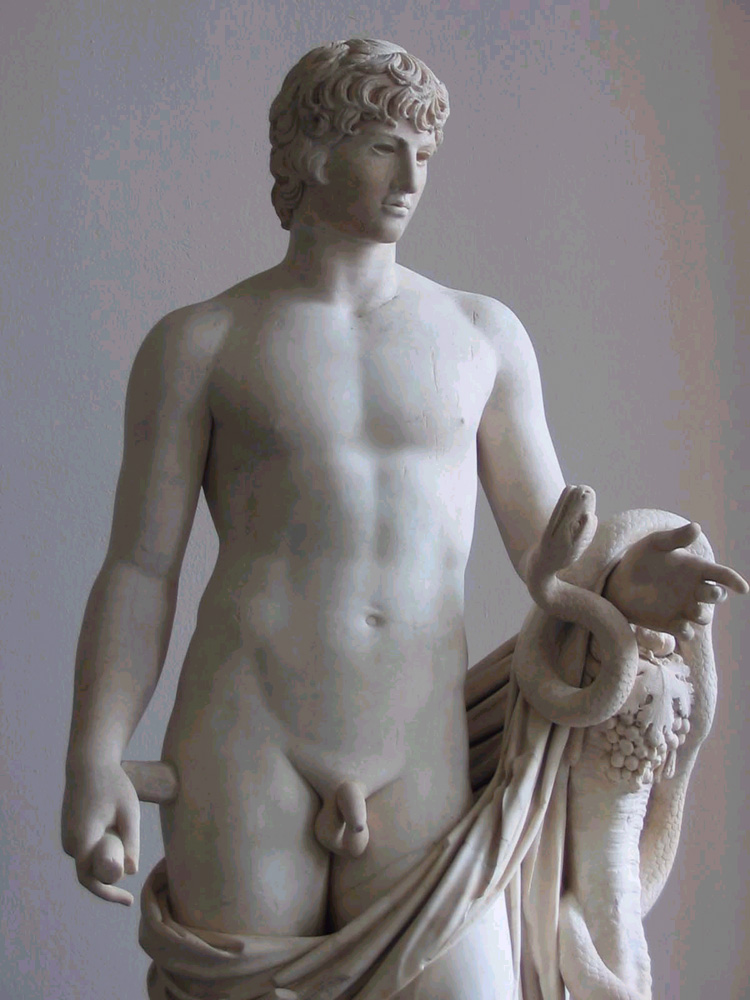
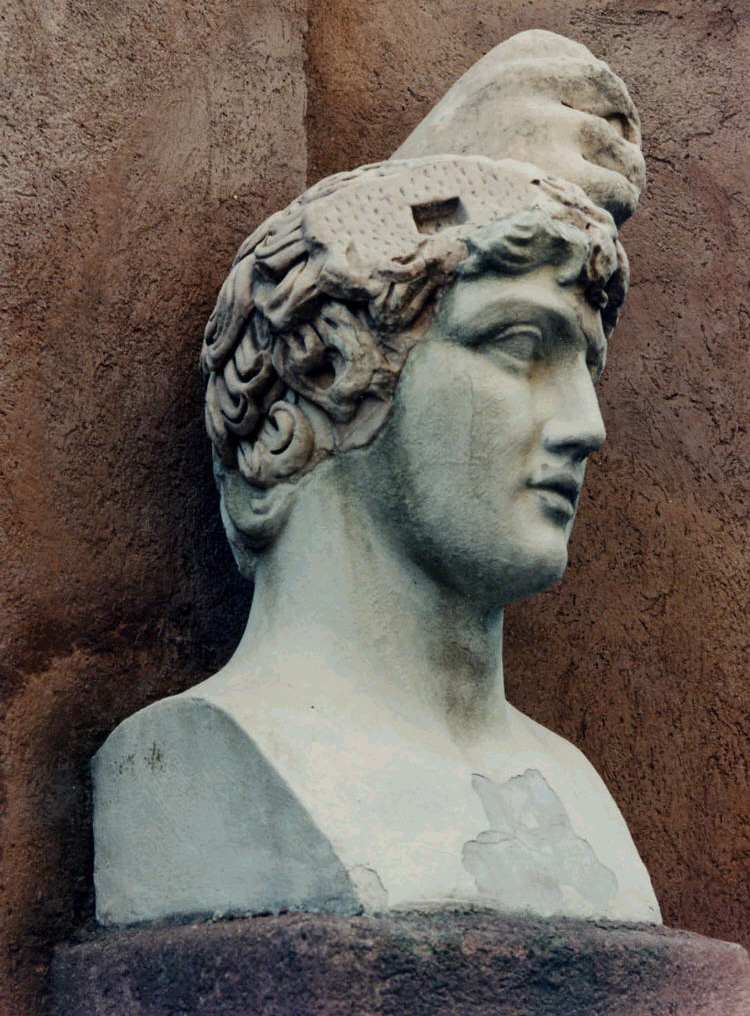
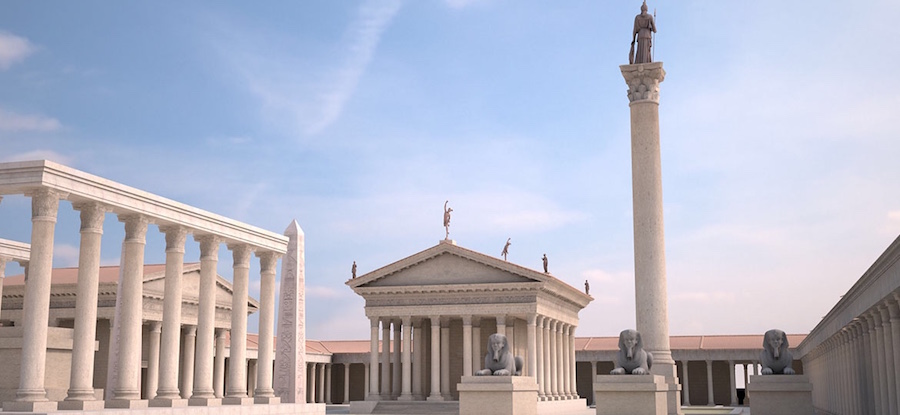
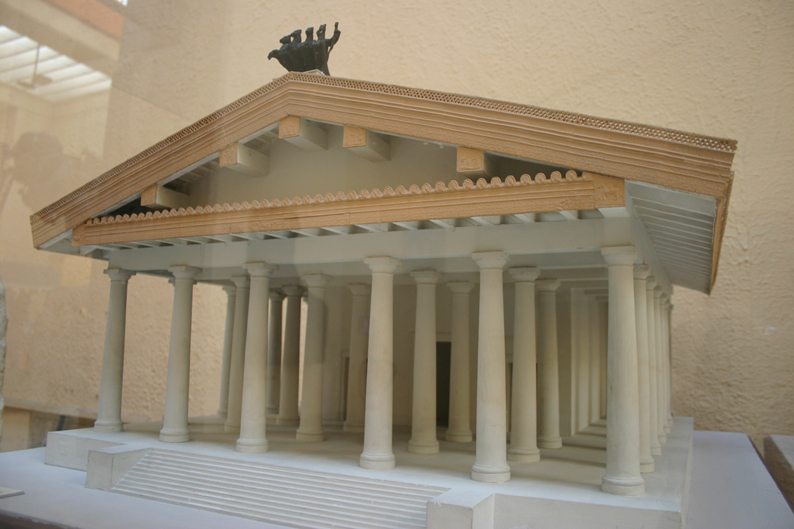




Iliad : Greeks and Trojans Fight
for possession of Patroklos' body
the manly man endures the terrors and dares the deeds that manifest manliness, for the sake of that which is noble

at that time the Danaans [the Greeks] by their manhood [areta] broke the battalions,
calling across the ranks to each other. First Agamemnon
drove on, and killed a man, Bienor, shepherd of the people,
himself, then his companion Oileus, lasher of horses ;
who, springing down from behind his horses, stood forth to face him,
but Agamemnon stabbed straight at his face as he came on in fury
with the sharp spear, nor did helm's heavy edge hold it,
but the spearhead passed through this and the bone, and the inward
brain was all spattered forth. So he beat him down in his fury,
and Agamemnon the lord of men left them lying there,
their naked chests gleaming, since he had stripped off their tunics.
two sons of Priam, bastard one and lawful, both riding
in a single chariot. The bastard, Isos, was charioteer,
and reknowned Antiphos rode beside him. Before this Achilleus
had caught these two at the knees of Ida [a mountain], and bound them in pliant
willows as they watched their sheep, and released them for ransom.
This time the son of Atreus, wide-powerful Agamemnon,
struck Isos with the thrown spear in the chest above the nipple
and hit Antiphos by the ear with the sword, and hurled him from his horses,
and in eager haste he stripped off their glorious armour
which he knew.
sons of Antimachos the wise, who beyond all others
had taken the gold of Alexandros [Paris, seducer of Helen], glorious gifts, so that
he had opposed the return of Helen to fair-haired Menelaos.
Powerful Agamemnon caught his two sons riding
in one chariot, who together guided the running horses.
Now the glittering reins escaped from the hands of both of them
and they were stunned with fear, for against them rose like a lion
Atreus' son, and supplicated him out of the chariot :
'Take us alive, son of Atreus, and take appropriate ransom.
In the house of Antimachos the treasures lie piled in abundance,
bronze is there, and gold, and difficultly wrought iron,
and our father would make you glad with abundant repayment
were he to hear we were alive by the ships of the Achaians.'
and in pitiful phrase, but they heard the voice that was without pity :
'If in truth you are the sons of Antimachos,
that man who once among the Trojans assembled advised them
that Menelaos, who came as envoy with Godlike Odysseus,
should be murdered on the spot, nor let go back to the Achaians [the Greeks],
so now your mutilation shall punish the shame of your father.'
with a spear-stroke in the chest, and he crashed on his back to the ground. Then
Hippolochos sprang away, but Atreides [Agamemnon] killed him dismounted,
shearing off his arms with the sword, and striking off his head,
and sent him spinning like a log down the battle.
who was the first to come forth and stand against Agamemnon
of the very Trojans, or their renowned companions in battle.
who had been reared in generous Thrace, the mother of sheepflocks.
Now when these in their advance were close to each other
the son of Atreus missed with his throw, and the spear was turned past him,
but Iphidamas stabbed to the belt underneath the corselet
and leaned in on the stroke in the confidence of his strong hand
but could not get clean through the bright war belt, far sooner
the spearpoint pushed against the silver bent back, like soft lead.
And in his hand wide-powerful Agamemnon catching it
dragged it against him, raging like a lion, and tore it
out of his hand, then struck the neck with his sword, and unstrung him.
So Iphidamas fell there and went into the brazen slumber, unhappy . . .
Now Agamemnon, son of Atreus, stripped him and went back
to the throng of the Achaians bearing the splendid armour.
he who was Antenor's eldest born, the strong sorrow
misted about his eyes for the sake of his fallen brother.
He came from the side and unobserved at great Agamemnon
and stabbed with his spear at the middle arm, underneath the elbow,
and the head of the glittering spear cut its way clear through.
Agamemnon the lord of men shuddered with fear then
but even so did not give up the attack or his fighting
but sprang at Koon, gripping a spear that struck with the wind's speed.
Now Koon was dragging his father's son, his brother Iphidamas,
by the foot back eagerly, and cried out on all the bravest,
but as he dragged him into the crowd, Agamemnon thrust at him
with the smoothed bronze spear underneath the knobbed shield, and unstrung him,
then came up and hewed off his head over Iphidamas.
There, under the king, Atreus' son, the sons of Antenor
filled out their destiny and went down to the house of the Death God.
with spear and sword and with huge stones that he flung, for such time
as the blood was still running warm from the spear-wound.
But after the sore place was dry, and the flow of blood stopped,
the sharp pains began to break in on the strength of Atreides.
to drive him back to the hollow ships, since his heart was heavy.
He lifted his voice and called in a piercing cry to the Danaans [the Greeks] :
'Friends, o leaders and men of counsel among the Argives,
you must still continue to defend our seafaring vessels
from the wearying attack, since Zeus of the counsels would not
allow me to do battle daylong against the Trojans.'
Nay, even the very Gods can bend, and theirs withal is more excellent worth and honour and might [megas areté te timé te bia]. Their hearts by incense and reverent vows and libations and the savour of sacrifice do men turn from wrath with supplication, whenso any man transgresseth and doeth sin.
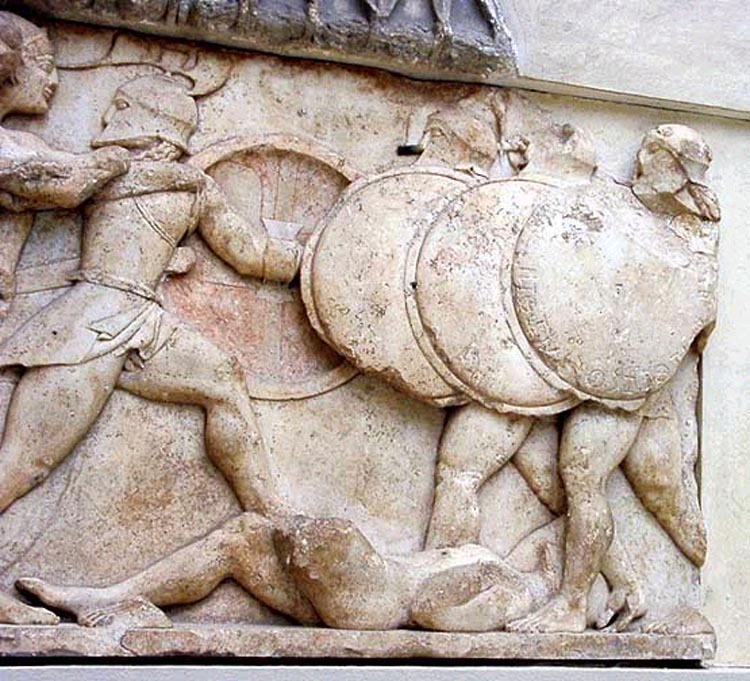















I
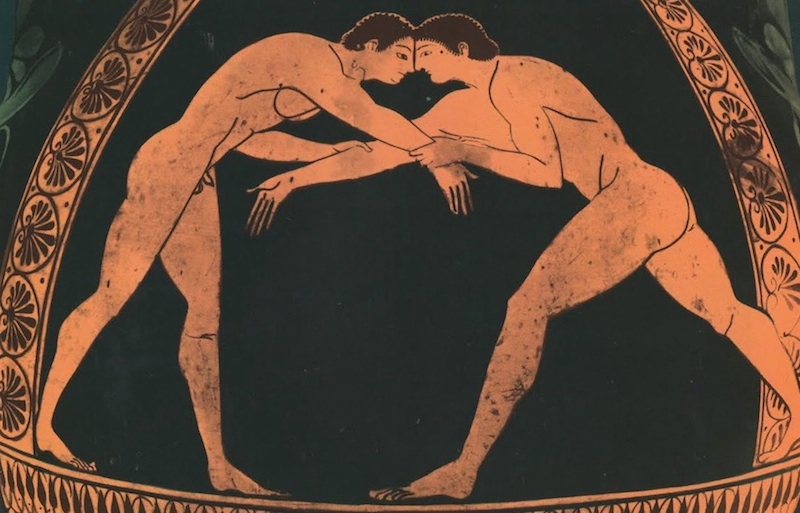
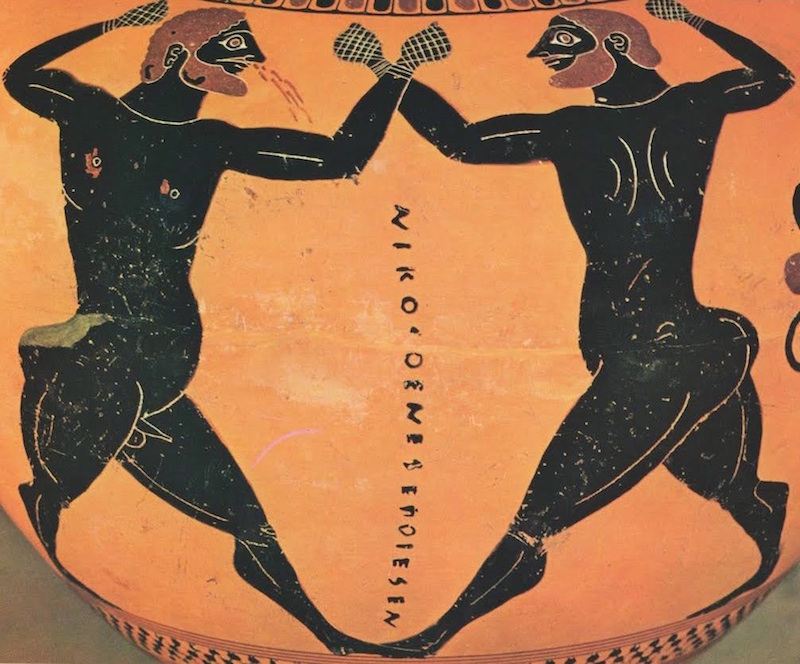
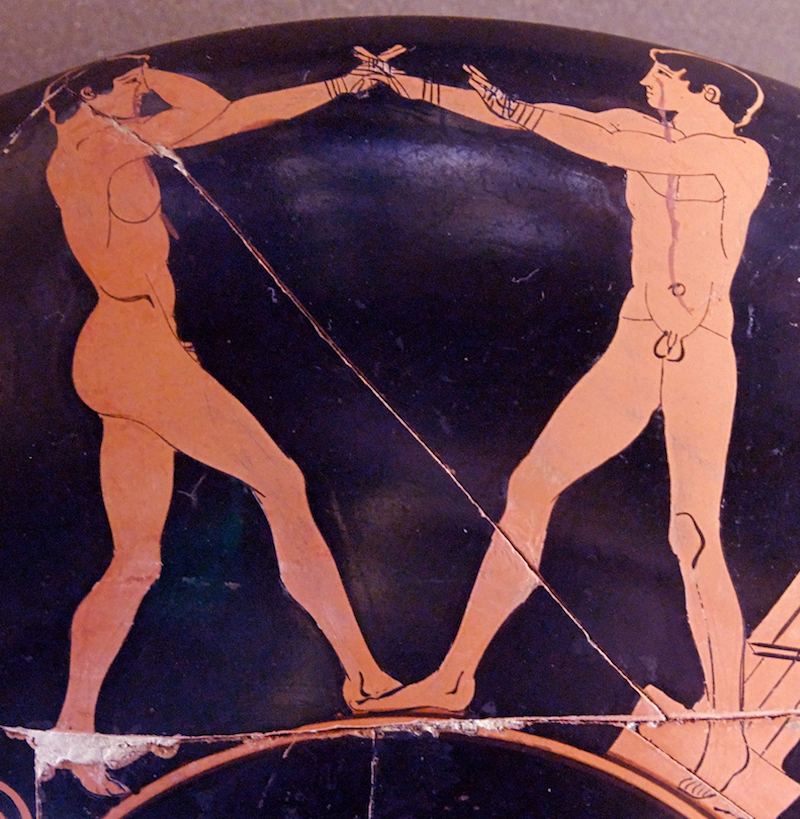
ΑΝΔΡΟΠΟΙΟΣ
Manliness involves pain, and is justly praised ;
for it is harder to face what is painful
than to abstain from what is pleasant
with his spear in the battle, and charging close stabbed with the sharp bronze
at the middle of Antilochos' shield, but Poseidon the dark-haired made void
the spear's stroke, nor would he let him win the life of Antilochos,
and half of the spear was stuck fast like a stake fire-hardened
in Antilochos' shield, and the other half lay on the ground.
To avoid death he shrank into the host of his own companions,
but as he went Meriones dogging him threw with the spear
and struck between navel and genitals [omphalos kai aidoia] where beyond all places
death in battle [Ares] comes painfully to pitiful mortals [brotoi].
There the spear struck fast and he, writhing about it,
gasped as an ox does when among the mountains the herdsmen
have bound him strongly in twisted ropes and drag him unwilling.
So he, stricken, gasped for awhile, but not long,
until fighting [heros] Meriones came close and wrenched the spear out
from his body, and a mist of darkness closed over both eyes.
the glorious, but an evil destiny led him toward death's end,
to be beaten down, by you, Menelaos, in the stark encounter.
Now when these in their advance were close to each other
the son of Atreus [Menelaos] missed with his throw, and the spear was turned past him,
but Peisandros stabbed with the spear at the shield of glorious
Menelaos, but could not drive the bronze all the way through it
for the wide shield held against it and the spearshaft was broken
behind the head, yet he was light-hearted and hopeful of victory.
Drawing his sword with the silver nails, the son of Atreus
sprang at Peisandros, who underneath his shield's cover gripped
his beautiful axe with strong bronze blade upon a long polished
axe-handle of olive wood. They made their strokes at the same time
and Peisandros chopped at the horn of the helmet crested with horse-hair
at the very peak. Menelaos struck him as he came onward
in the forehead over the base of the nose, and smashed the bones, so that
both eyes dropped, bloody, and lay at his feet in the dust before him.
Harpalion, who had followed his father into the fighting
at Troy, and did not come home again to the land of his fathers.
He from up close stabbed at the shield of Atreides [Menelaos]
in the middle, but could not drive the bronze all the way through it.
To avoid death he shrank into the host of his own companions,
but as he went back Meriones let fly at him with a bronze-clad
arrow, and hit him beside the right buttock, so that the arrow
was driven on through under the bone to fix in the bladder.
There, sitting among the arms of his beloved companions,
he gasped out his life, then lay like a worm extended
along the ground, and his dark blood drenched the ground in its running.
Hektor, the greatest of the Trojan heroes, rallies his troops :
finds by spear thrown or spear thrust his death and destiny,
let him die. He has no dishonour [atimia] when he dies defending
his country, for then his wife shall be saved and his children afterwards,
and his house and property shall not be damaged, if the Achaians
must go away with their ships to the beloved land of their fathers.'
But Aias [Telamonian Ajax, the second greatest of the Greek heroes] on the other side called to his companions :
'Shame [aidos], you Argives : here is the time of decision, whether
we die, or live on still, and beat back ruin from our vessels.
Do you expect, if our ships fall to helm-shining Hektor,
you will walk each of you dryshod to the land of your fathers ?
Do you not hear how Hektor is stirring up all his people,
how he is raging to set fire to our ships ? He is not
inviting you to a dance. He invites you to battle [machomai].
For us, there can be no design, no purpose, better than this one,
to close and fight with the strength of our hands at close quarters [cheir].
Better to take in a single time our chances of dying
or living, than to go on being squeezed in the dark encounter
right up against our ships, as now, by men worse than we are.'
and have consideration for each other in the strong encounters,
since more come through alive when men consider each other,
and there is no glory [kleos] when they give way, nor warcraft [alke] either.'
Friends, there is no glory for us if we go back again
to our hollow ships, but here and now let the black earth open
gaping for all : this would soon be far better for us
if we give up this man['s body] to the Trojans, breakers of horses,
to take away to their own city and gain glory from him.
Menelaos, this will be a thing of shame, a reproach said
of you, if under the wall of the Trojans the dogs in their fury
can mutilate the staunch companion of haughty Achilleus.
But hold strongly on, and stir up the rest of your people.
I would feel deep shame [aideomai]
before the Trojans, and the Trojan women with trailing garments,
if like a coward [kakos] I were to shrink from the fighting [polemoio] ;
and the spirit [thumos -- Plato's Principle of High Spirit] will not let me, since I have learned to be valiant [esthlos -- manly]
and to fight [machesthai] always among the foremost ranks [protos] of the Trojans,
winning for my own self great glory [kleos], and for my father.
Whatever else you practice you must practice it In Union with Fighting Manhood, being well assured that when divorced from this all possessions and pursuits are base and ignoble. For neither does wealth bring honor to its possessor if combined with an-andria -- want of manhood and UN-manliness -- for such an one is rich for another rather than for himself -- nor do beauty and strength appear comely, but rather uncomely, when they are attached to one that is cowardly and base, since they make their possessor more conspicuous and show up his cowardice ; and every form of knowledge when sundered from that which is just, right, lawful, and Manfully well-ordered [dikaios] and the rest of Areté -- Manly Excellence, which is Fighting Manhood -- is seen to be plain roguery rather than wisdom.

II
back his daughter, carrying gifts beyond count and holding
in his hands wound on a staff of gold the ribbons of Apollo
who strikes from afar, and supplicated all the Achaians,
but above all Atreus' two sons [Agamemnon and Menelaos], the marshalls of the people :
to you may the Gods grant who have their home on Olympos
Priam's city [Troy] to be plundered and a fair homecoming thereafter,
but may you give me back my own daughter and take the ransom,
giving honour to Zeus' son who strikes from afar, Apollo.'
that the priest be respected and the shining ransom be taken ;
yet this pleased not the heart of Atreus' son Agamemnon,
but harshly he drove him away with a strong order upon him :
ships, neither lingering now nor coming again hereafter,
for fear your staff and the God's ribbons help you no longer.
The girl I will not give back, sooner will old age come upon her
in my own house, in Argos, far from her own land, going
up and down by the loom and being in my bed as my companion.
So go now, do not make me angry, so you will be safer.'
and went silently away beside the murmuring sea beach.
readily by word and work of your hands to defend me,
since I believe I shall make a man angry who holds great kingship
over the men of Argos, and all the Achaians obey him.'
but for the sake of the priest whom Agamemnon dishonoured [a-timazo]
and would not give him back his daughter or accept the ramson.'
I myself desire that my people be safe, not perish.'
among the Argives [the Greeks] go without, since that were unfitting ;
you are all witnesses to this thing, that my prize goes elsewhere.'
Fighting is where Men win Glory [mache es kudianeiran].
The manly man endures the terrors and dares the deeds that manifest manliness, for the sake of that which is noble [kalon].
better had you never been born, or killed unwedded [agonos kai agamos].
Truly I could have wished it so ; it would be far better
than to have you with us to our shame, for others to sneer at.
Surely now the flowing-haired Achaians laugh at us,
thinking you are our bravest champion, only because your
looks are handsome, but there is no strength in your heart, no courage [ouk esti bin phren oude alke].
. . .
And now you would not stand up against warlike [Arei-philos] Menelaos ?
Thus you would learn of the man whose blossoming wife you have taken.
The lyre would not help you then, nor the favours of Aphrodite,
nor your locks, when you rolled in the dust, nor all your beauty.
No, but the Trojans are cowards in truth, else long before this
you had worn a mantle of flying stones [lainos chiton] for the wrong you did us.
show Alexandros then to warlike Menelaos [Arei-philos Menelaos -- Menelaos, dear to Ares].
These would not have hidden him for love, if any had seen him,
since he was hated among them all as dark death is hated.
[Helen:] 'I am not going to him [Paris]. It would be too shameful.
I will not serve his bed, since the Trojan women hereafter
would laugh at me, all, and my heart even now is confused with sorrows.'
and grow to hate you as much as now I terribly love you,
lest I encompass you in hard hate, caught between both sides,
Danaans [Greeks] and Trojans alike, and you wretchedly perish.'
and went, shrouding herself about in the luminous spun robe,
silent, unseen by the Trojan women, and led by the Goddess.
Brother by marriage to me, who am a nasty bitch evil-intriguing [kynos kakomechanou okryoesses],
how I wish that on that day when my mother first bore me
the foul whirlwind of the storm had caught me away and swept me
to the mountain, or into the wash of the sea deep-thundering
where the waves would have swept me away before all these things had happened.
Yet since the Gods had brought it about that these vile things must be,
I wish I had been the wife of a better man than this is,
one who knew modesty and all things of shame that men say.
But this man's heart is no steadfast thing, nor yet will it be so
ever hereafter ; for that I think he shall take the consequence.
how shall the great-hearted Achaians give you a prize now ?
There is no great store of things lying about I know of.
But what we took from the cities by storm has been distributed.
No, for the present give the girl back to the God ; we Achaians
thrice and four times over will repay you, if ever Zeus gives
into our hands the strong-walled citadel of Troy to be plundered.'
strive to cheat, for you will not deceive, you will not persuade me.
What do you want ? To keep you own prize and have me sit here
lacking one ? Are you ordering me to give this girl back ?
Either the great-hearted Achaians will give me a new prize
chosen according to my desire to atone for the girl lost,
or else if they do not give me one I myself shall take her,
your own prize, or that of Aias [Ajax], or that of Odysseus . . .'
how shall any of the Achaians readily obey you
either to go on a journey or to fight men strongly in battle ?'
a great shamelessness, we followed, to do you favour,
you with the dog's eyes, to win your honour [timé] and Menelaos'
from the Trojans [who had abducted and kept Menelaos' wife, Helen]. You forget all this, or else you care nothing.
And now my prize you threaten in person to strip from me,
for whom I labored much, the gift of the sons of the Achaians.
Never, when the Achaians sack some well-founded citadel
of the Trojans, do I have a prize that is equal to your prize.
Always the greatest part of the painful fighting is the work of
my hands ; but when the time comes to distribute the booty
yours is the greater reward, and I with some small thing
yet dear to me go back to my ships when I am weary with fighting.'
my hands ; but when the time comes to distribute the booty
yours is the greater reward, and I with some small thing
yet dear to me go back to my ships when I am weary with fighting."
entreat you to stay here for my sake. There are others with me
who will do me honour [tima-o], and above all Zeus of the counsels.
To me you are the most hateful of all the kings whom the Gods love.
Forever quarreling is dear to your heart, and wars and battles [toi eris te phile polemoi te machai te] ;
and if you are very strong [mala karteros] indeed, that is a God's gift.
Go home with your own ships and your own companions [hetairoisi],
be king over the Myrmidons, I care nothing about you.'
Even as Phoibos Apollo is taking away my Chryseis,
I shall convey her back in my own ship, with my own
followers ; but I shall take the fair-haired Briseis,
your prize, I myself going to you your shelter, that you may learn well
how much greater I am than you, and another man may shrink back
from likening himself to me and contending against me.'
though indeed with words you may abuse him, and it will be that way.
And this also I will tell you and it will be a thing accomplished.
Some day three times over such shining gifts will be given you
by reason of this outrage. Hold your hand, then, and obey us.'
angry though I am in my heart. So it will be better.
If any man obeys the Gods, they listen to him also.'
and thrust the great blade back into the scabbard nor disobeyed
the word of Athene. And She went back again to Olympos
to the house of Zeus of the aegis with the other Divinities.
spoke to Atreides [Agamemnon, son of Atreus], and did not let go of his anger :
once have you taken courage in your heart to arm with your people
for battle, or go into ambuscade with the best of the Achaians.
No, for in such things you see death. Far better to your mind
is it, all along the widespread host of the Achaians
to take away the gifts of any man who speaks up against you.
King who feed on your people, since you rule non-entities ;
otherwise, son of Atreus, this were your last outrage.
But I will tell you this and swear a great oath upon it :
In the name of this sceptre, which never again will bear leaf nor
branch, now that it has left behind the cut stump in the mountains,
nor shall it ever blossom again, since the bronze blade stripped
bark and leafage, and now at last the sons of the Achaians
carry it in their hands in state when they administer
the justice of Zeus. And this shall be a great oath before you :
some day longing for Achilleus will come to the sons of the Achaians,
all of them. Then stricken at heart though you will be, you will be able
to do nothing, when in their numbers before man-slaughtering Hektor
they drop and die. And then you will eat out the heart within you
in sorrow, that you did no honour to the best of the Achaians.'
studded with gold nails.
studded with gold nails, and sat down again. But Atreides
raged still on the other side, and between them Nestor
the fair-spoken rose up, the lucid speaker of Pylos,
from whose lips the streams of words ran sweeter than honey.
In his time two generations of mortal men had perished,
those who had grown up with him and they who had been born to
these in sacred Pylos, and he was king in the third age.
Now might Priam and the sons of Priam in truth be happy,
and all the rest of the Trojans be visited in their hearts with gladness,
were they to hear all this wherein you two are quarreling,
you, who surpass all Danaans [Greeks] in council, in fighting [boulen kai machesthai].
Yet be persuaded. Both of you are are younger than I am.
Yes, and in my time I have dealt with better men than
you are, and never once did they disregard me. Never
yet have I seen nor shall see again such men as these were,
men like Peirithoos, and Dryas, shepherd of the people,
Kaineus and Exadios, Godlike Polyphemos,
or Theseus, Aigeus' son, in the likeness of the immortals.
These were the strongest generation of earth-born mortals,
the strongest, and they fought against the strongest, the beast men
living within the mountains, and terribly they destroyed them.
I was of the company of these men, coming from Pylos,
a long way from a distant land, since they had summoned me.
And I fought single-handed, yet against such men no one
of the mortals now alive upon earth could do battle. And also
these listened to the councils I gave and heeded my bidding.
Do you also obey, since to be persuaded is better.
You, great man that you are, yet do not take the girl away,
but let her be, a prize [geras] as the sons of the Achaians gave her
first. Nor, son of Peleus, think to match your strength with
the king, since never equal with the rest is the portion of honour [timé]
of the sceptred king to whom Zeus gives magnificence. Even
though you are the stronger man, and the mother who bore you was immortal,
yet is this man greater who is lord over more than you rule.
Son of Atreus, give up your anger ; even I entreat you
to give over your bitterness against Achilleus, he who
stands as a great bulwark of battle [mega herkos polemoio] over all the Achaians.'
Yet here is a man who wishes to be above all others,
who wishes to hold power over all, and to be lord of
all, and give them their orders, yet I think one will not obey him.
And if the everlasting Gods have made him a spearman,
yet they have not given him the right to speak abusively.'
if I must carry out every order you may happen to give me.
Tell other men to do these things, but give me no more
commands, since I for my part have no intention to obey you.
And put away in your thoughts this other thing I tell you.
With my hands I will not fight for the girl's sake, neither
with you nor any other man, since you take her away who gave her.
But of all the other things that are mine beside my fast black
ship, you shall take nothing away against my pleasure.
Come, then, only try it, that these others may see also ;
instantly your own black blood will stain my spearpoint.'
stood up, and broke the assembly beside the ships of the Achaians.
Peleus' son [Achilleus] went back to his balanced ships and his shelter
with Patroklos, Menoitios' son, and his own companions. . . . [line 307]
But he knew the whole matter in his own heart, and spoke first :
Draw near. You are not to blame in my sight, but Agamemnon,
who sent the two of you here for the sake of the girl Briseis.
Go then, illustrious Patroklos, and bring the girl forth [line 337]
and give her to these to be taken away. Yet let them be witnesses
in the sight of the blessed Gods, in the sight of mortal
men, and of this cruel king, if ever hereafter
there shall be need of me to beat back the shameful destruction
from the rest. For surely in ruinous heart he makes sacrifice
and has not wit enough to look behind and before him
that the Achaians fighting beside their ships shall not perish.'
He led forth from the hut Briseis of the fair cheeks and gave her
to be taken away ; and they walked beside the ships of the Achaians,
and the woman all unwilling went with them still.
weeping went and sat in sorrow apart from his companions.
Many times stretching forth his hands he called on his mother [the Goddess Thetis] :
'Since, my mother, you bore me to be a man with a short life,
therefore Zeus of the loud thunder on Olympos should grant me
honour [timé] at least. But now he has given me not even a little.
Now the son of Atreus, powerful Agamemnon,
has dishonoured [a-tima-o] me, since he has taken away my prize [of honour -- geras] and keeps it.'
but let her be, a prize [geras] as the sons of the Achaians gave her
first. Nor, son of Peleus, think to match your strength with
the king, since never equal with the rest is the portion of honour [timé]
of the sceptred king to whom Zeus gives magnificence. Even
though you are the stronger man, and the mother who bore you was immortal,
yet is this man greater who is lord over more than you rule.
Son of Atreus, give up your anger ; even I entreat you
to give over your bitterness against Achilleus, he who
stands as a great bulwark of battle [herkos polemoio] over all the Achaians.'
Atreus' son, with whom followed far the best and bravest
people ; and among them he himself stood armoured in shining
bronze, glorying, conspicuous among the great fighters,
since he was greatest among them all, and led the most people.
who is this Achaian man of power and stature ?
Though in truth there are others taller by a head than he is,
yet these eyes have never yet looked on a man so splendid
nor so lordly as this : such a man might well be royal.'
at the same time a good king and a strong spearfighter [aichmetes],
once my kinsman, slut [kynopes] that I am.
Now Glaukos, sprung of Hippolochos, and the son of Tydeus [Diomedes]
came together in the space between the two armies, battle-bent.
Now as these advancing came to one space and encountered,
first to speak was Diomedes of the great war cry :
before have I seen you in the fighting where men win glory [mache eni kudianeire],
yet now you have come striding far out in front of others
in your great heart [tharsos], who have dared to stand up to my spear far-shadowing.
Yet unhappy are those whose sons match warcraft [menos] against me.
But if you are some one of the immortals come down from the bright sky,
know that I will not fight against any God of the Heaven . . .
but if you are one of those mortals who eat what the soil yields,
come nearer, so that sooner you may reach your appointed destruction.'
As is the generation of leaves, so is that of humanity.
The wind scatters the leaves on the ground, but the live timber
burgeons with leaves again in the season of spring returning.
So one generation of men will grow while another
dies. Yet if you wish to learn all this and be certain
of my genealogy ; there are plenty of men who know it.'
. . .
He sent me to Troy, and urged upon me repeated injunctions,
to be always among the bravest, and hold my head above others' --
~Peleus to Achilleus, Homer. Iliad. 11.784
'He sent me to Troy, and urged upon me repeated injunctions,
to be always among the bravest, and hold my head above others,
not shaming the generation of my fathers, who were
the greatest men in Ephyre and again in wide Lykia.
Such is my generation and the blood I claim to be born from.'
He drove his spear deep into the prospering earth, and in winning
words of friendliness he spoke to the shepherd of the people :
Brilliant Oineus [Diomedes' grandfather] once was host to Bellerophontes,
the blameless, in his halls, and twenty days he detained him,
and these two gave to each other fine gifts in token of friendship.'
The Homeric Heroes treat each other with constant respect, since their whole social system depends on such respect.
And then would murmur any man, gazing into the wide sky :
'Father Zeus, watching over us from Ida, most high, most honoured,
grant that Aias win the vaunt of renown and the victory ;
but if you truly love Hektor and are careful for him,
give to both of them equal strength, make equal their honour [isos bia kai kudos].'
shield beaten upon him, but at once Apollo lifted him upright.
And now they would have been stabbing with their swords at close quarters [autoschedon],
had not the heralds, messengers of Zeus and of mortals,
come up, one for the bronze-armoured Achaians, one for the Trojans,
Idaios and Talthybios, both men of good counsel.
They held their staves between the two men, and the herald Idaios
out of his knowledge of prudent advices spoke a word to them :
To Zeus who gathers the clouds both of you are beloved,
and both of you are fighters [aichmetai] ; this thing all of us know surely.
Night darkens now. It is a good thing to give way to the night-time.'
in his pride called forth all our bravest to fight him [aristos -- most manly charme -- battle, fight].
Let him speak first ; and I for my part shall do as he urges.'
also, and with the spear you surpass the other Achaians,
let us now give over this fighting and battle-strife [mache kai deiotes]
for today ; we shall fight again until the Divinity
chooses between us, and gives victory to one or the other.
Night darkens now. It is a good thing to give way to the night-time.
Thus you may bring joy to the Achaians beside their
ships, and above all to those who are your own kindred and company ;
and I in the great city of lord Priam will gladden
the Trojans, and the women of Troy with their trailing robes, who
will go before the Divine Assembly in thanksgiving for my sake.
Come then, let us give each other glorious presents [doron periklytos -- glorious gifts of Honour ],
so that any of the Achaians or Trojans may say of us :
joined with each other in close friendship [philotes], before they parted."
gave it to him, together with the sheath and well-cut sword belt,
and Aias gave his war-belt coloured shining with purple.
joined with each other in close friendship [philotes], before they parted."


















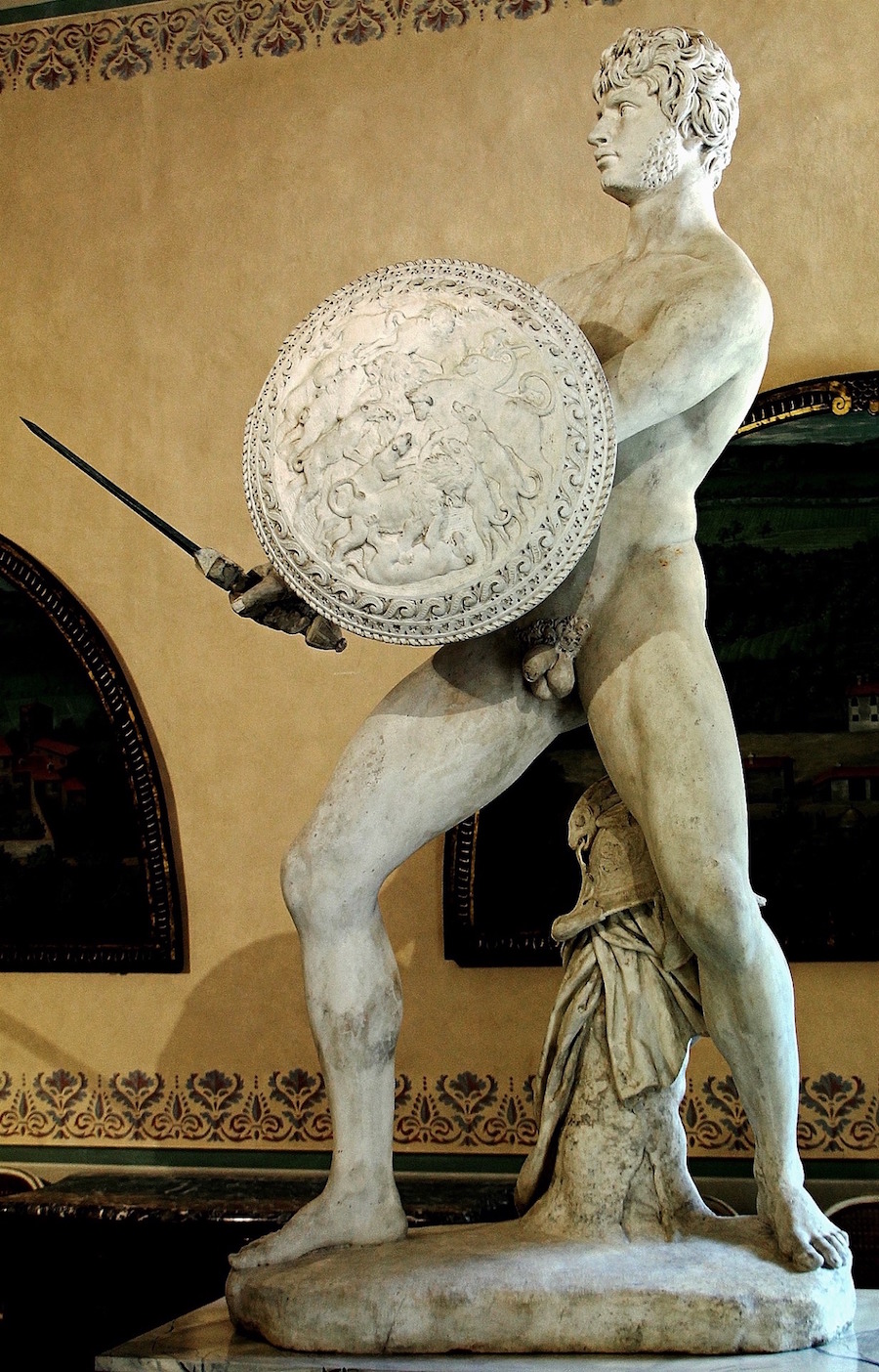










































































jar, was left. Achilleus carried it through the assembly
of the Argives, and gave it to Nestor, and stood by and spoke to him :
in memory of the burial of Patroklos ; since never
again will you see him among the Argives. I give you this prize
for the giving ; since never again will you fight with your fists nor wrestle,
nor enter again the field for the spear-throwing, nor race
on your feet ; since now the hardship of old age in upon you.'
joyfully and spoke in answer and addressed him in winged words :
My limbs are no longer steady, dear friend ; nor my feet, neither
do my arms, as once they did, swing light from my shoulders.
as once, when great Amaryngkeus was buried by the Epeians
at Bouprasion, and his sons gave games for a king's funeral.
There was no man like me, not among the Epeians,
nor yet of the Pylians themselves or great-hearted Aitolians.
At boxing I won against Klytomedes [Glorious Male Genitals, Glorious Virility], the son of Enops,
at wrestling against Angkyos of Pleuron, who stood up against me.
In the foot-race, for all his speed, I outran Iphiklos,
and with the spear I out-threw Polydoros and Phyleus.
It was only in the chariot-race that the sons of Aktor
defeated me, crossing me in the crowd, so intent on winning
were they, for the biggest prizes had been left for the horse-race.
Now these sons of Aktor were twins ; one held the reins
at his leisure, while the other lashed on the horses.
in such actions, and for me to give way to the persuasion
of gloomy old age. But once I shone among the young heroes.
Go now, and honour [timao] the death of your companion with contests.
I accept this from you gratefully and my heart is happy
that you have remembered me and my kindness, that I am not forgotten
for the honour [timé] that should be my honour among the Achaians.
May the Gods, for what you have done, give you great happiness.'
that you have remembered me and my kindness, that I am not forgotten
for the honour that should be my honour among the Achaians.'
Bill Weintraub :
Bill Weintraub :
Footnote 6 : i.e., nothing is of much value in his eyes (cf. 3.30,34), so that gain, which is a motive to dishonesty with others, is no temptation to him.
Bill Weintraub :






Honour is the Prize of Manhood, and the Tribute we pay to the Manly




Honour is the Prize of Manhood
and
The Tribute we pay to the Manly









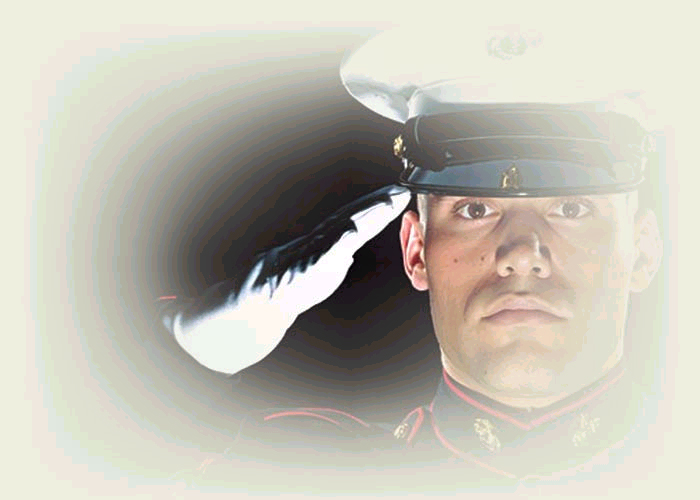
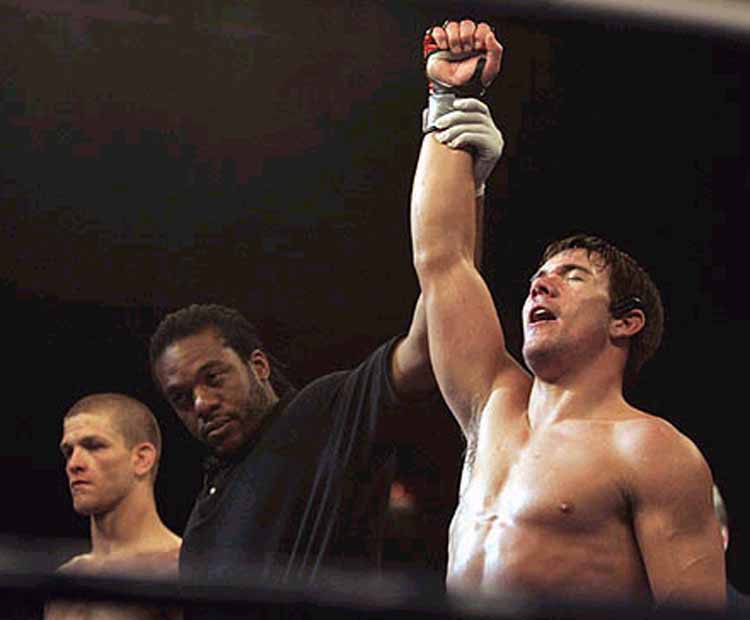





Paris :
I had struck you in the depth of the belly, and torn the life from you.
So the Trojans, who shudder before you as bleating goats do
before a lion, would have got their wind again after disaster."
If you were to make trial of me in strong combat with weapons
your bow would do you no good at all, nor your close-showered arrows.
I care no more than if a witlesss child or woman
had struck me ; this is the blank weapon of a useless man, no fighter.
the stroke is a sharp thing and suddenly lays him lifeless,
and that man's wife goes with cheeks torn in lamentation,
and his children are fatherless, while he staining the soil with his red blood
rots away, and there are more birds than women swarming about him."

Fighting Manhood
Face-to-Face and Groin-to-Groin





Necessity and Violent Force [Ananke kai Bia]




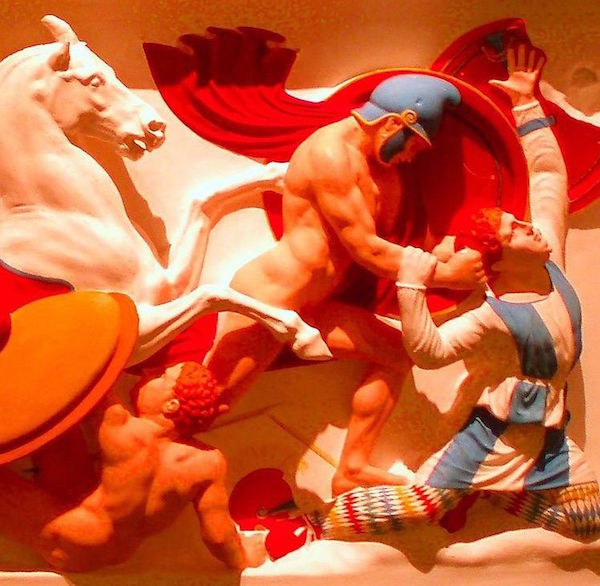


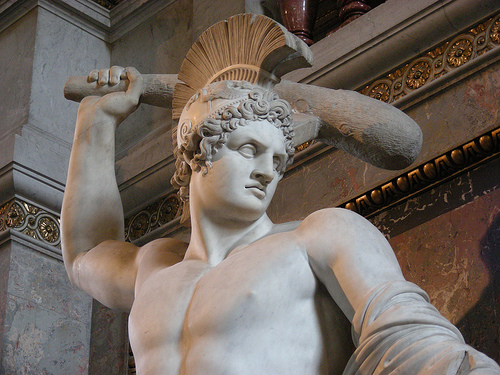
Greeks . . . competed primarily not for money but rather for honor or glory; "worth," they called it, timé being the Greek word.
was how the Greeks ranked themselves against each other; to be the best was to possess the most timé, which consisted of esteem by others and others' confirmation of one's lofty impression of one's own merits. Still, timé was not merely soap bubble popularity or gaseous celebrity; timé was glory made palpable and somehow separate from its possessor. Timé was thought to have a real, almost physical existence, in the world: it could, for example, be taken from one man by another; it could be captured in war.
consisted of esteem by others and others' confirmation of one's lofty impression of one's own merits.
But as for the other [captured] Persian women, he [Alexander] was as much their superior in self-control [sophrosyne] as in valour [andreia -- Manliness] he was superior to Persian men. For he looked at no woman against her will and those that he looked at he passed by more readily than those that he did not look at ; and although he bore himself humanely [philanthropos] toward all other persons, it was toward fair youth alone that he conducted himself haughtily [hyperephanos].
high, lofty, high-raised, towering, Lat. altus, sublimis, Hom., Hdt., Trag., etc. ; metaph. high, lofty, stately, proud, Pind., Plat.
It is the anger of pride, the necessary accompaniment of the warrior's greatness, that springs the tragedy of the Iliad.







of angered Achilleus, taking by force the girl Briseis
against the will of the rest of us, since I for my part
urged you strongly not to, but you, giving way to your proud heart's
anger [megaletor thumos], dishonoured [a-tima-o] a great man, one whom the Immortals
honour [timao], since you have taken his prize [of honour geras] and keep it.'
that day when he sent you away to Agamemnon to Phthia :
'My child, for the matter of strength, Athene and Hera will give it
if it be their will, but be it yours to hold fast in your bosom
the anger of the proud heart [megaletor thumos], for consideration is better.
Keep from the bad complication of quarrel, and all the more for this
the Argives will honour [timao] you, both their younger men and their elders.'
greatness of soul, magnanimity, Arist.
Classicist H Rackham says that megalopyschia "means lofty [that is, noble and exalted] pride and self-esteem."
[G]reatness of soul is impossible without moral nobility [kalokagathia -- Noble Manliness].
Only the Manly Man ought to be Honoured, since True Worth and Greatness of Soul cannot exist without Complete Manliness.
[W]hile he was still a boy his self-restraint [sophrosyne] showed itself in the fact that, although he was impetuous and violent [sphodros kai ragdaios] in other matters, the pleasures of the body [tais hedonais peri to soma] had little hold upon him, and he indulged in them with great moderation, while his ambition [Philo-Timia] kept his spirit serious and lofty [phronema embrithes kai megalopsychos] in advance of his years [helikia].




The Heroes have all an insatiable thirst for honour [PhiloTimia], a thirst which is itself a moral quality of individual heroes. When the Homeric man does a great deed, he never hesitates to claim the Honour which is its fit reward.
Thus it is true in some sense to say that the Areté [the Perfect Manhood] of a Hero is completed only in his death. Areté exists in mortal man. Areté is mortal man. But it survives the mortal, and lives on in his Glory [which is also his Honour], in that very Ideal of his Areté which accompanied and directed him throughout his Life.
Thus it is true in some sense to say that the Areté [the Perfect Manhood] of a Hero is completed only in his death. Areté exists in mortal man. Areté is mortal man. But it survives the mortal, and lives on in his Glory [which is also his Honour], in that very Ideal of his Areté which accompanied and directed him throughout his Life.
Proper names frequently were taken from the realm of social ideals and therefore often refer to such concepts as glory, reputation, fame, etc. . . . The name was an anticipation of the future areté of its bearer ; it set, as it were, the Ideal Pattern for His Whole Life.
The name was an anticipation of the future areté of its bearer ; it set, as it were, the Ideal Pattern for His Whole Life.
was trying to drag [the body of Patroklos] by the foot through the strong encounter
by fastening the sling of his shield round the ankle tendons
for the favour of Hektor and the Trojans, but the sudden evil
came to him, and none for all their desire could defend him.
The son of Telamon [Aias], sweeping in through the mass of the fighters,
struck him at close quarters through the brazen cheeks of his helmet
and the helm crested with horse-hair was riven about the spearhead
to the impact of the huge spear and the weight of the hand behind it
and the brain ran from the wound along the spear by the eye-hole,
bleeding. There his strength was washed away, and from his hands
he let fall to the ground the foot of great-hearted Patroklos
to lie there, and himself collapsed prone over the dead man
far away from generous Larisa, and he could not
tender again the care of his dear parents ; he was short-lived,
beaten down beneath the spear of high-hearted Aias.
but Aias with this eyes straight on him avoided the bronze spear
by a little, and Hektor struck Schedios, the son of high-hearted
Iphitos and far the best of the Phokians, one who lived
in his home in famous Panopeus and was lord over many people.
He struck him fair beneath the collar-bone, and the pointed
bronze head tore clean through and came out by the base of the shoulder.
He fell, thunderously, and his armour clattered about him.
in the middle of the belly as he stood over fallen Hippothoös,
and broke the hollow of the corselet, so that the entrails
spurted from the bronze, and he went down clawing the dust in his fingers.

in the middle of the head, and all the head broke into two pieces.
He fell thunderously. Great Achilleus vaunted above him :
'Lie there, Otrynteus' son, most terrifying of all men.
Here is your death, but your generation was by the lake waters
of Gyge, where is the allotted land of your fathers,
by fish-swarming Hyllos and the whirling waters of Hermos.'
and the running rims of Achaian chariots cut him to pieces
in the van of the onrush.
through the carnage and through the corpses, war gear and dark blood [am phonon, an nekuas, dia t' entea kai melan haima].
and Dolon's head still speaking dropped in the dust.
Historically, there is nothing at all peculiar about using honour to rule. Few [Imperial] Roman practices in this field would have been inexplicable to Louis XIV, honorific admission to whose person was regulated to a nicety from the moment he rose, one class of courtiers attending on him as he got out of bed, an inferior order admitted only after he had put on his dressing gown. . . . As late as 1790, Edmund Burke could stand on the edge of an old world in many ways similar to that of the Romans, comparing old turmoils in France to the Revolution. In former days,
a concious dignity, a noble pride, a generous sense of glory and emulation was not extinguished. On the contrary, it was kindled and inflamed. All the prizes of honour and virtue, all the rewards, all the distinctions, remained.
. . . But your present confusion, like a palsy, has attacked the fountain of life itself. Every person in your country, in a situation to be actuated by a principle of honour, is disgraced and degraded, and can entertain no sensation of life except in a mortified and humiliated indignation.
that the concept of honour itself seems impossibly distant and romantic, is a consequence of the particular outlook of the late twentieth century ; a sign of our removal from the ancient rhythms of rulership and subjection, an indication that we have finally arrived in Burke's nightmare, among the sophisters, economists, and calculators. Historically, government by honour is usual ; it is we who are strange.
We live in honour's churchyard. Honour's bones are still with us, but the muscles which drove them and the tissues which joined them have rotted away.



is instantiated by his battered and bloody face ; while his raised arms instantiate his Ability --
the martial merit, virile value, and warrior worth, he needs -- to Defeat his Opponent.



"we have finally arrived in Burke's nightmare, among the sophisters, economists, and calculators"








~Peleus to Achilles, Homer. Iliad. 11.784Always to be the Most Manly, and to Excel above All Others

The Heroes have all an insatiable thirst for honour [PhiloTimia], a thirst which is itself a moral quality of individual heroes. When the Homeric man does a great deed, he never hesitates to claim the Honour which is its fit reward.
Discussion :
Thus it was that at the age of twenty years Alexander received the kingdom, which was exposed to great jealousies, dire hatreds, and dangers on every hand. For the neighbouring tribes of Barbarians would not tolerate their servitude, and longed for their hereditary kingdoms; and as for Greece, although Philip had conquered her in the field, he had not had time enough to make her tame under his yoke, but had merely disturbed and changed the condition of affairs there, and then left them in a great surge and commotion, owing to the strangeness of the situation.













Of his foremost and most influential friends he [Alexander] seems to have honoured [timao] Krateros most and to have loved [phileo] Hephaistion best. 'For,' said he, 'Krateros loves the king, but Hephaistion loves Alexander [phil-alexandros].'
Then, going up to Ilium [Troy], he sacrificed to Athena and poured libations to the heroes. Furthermore, the gravestone of Achilles he anointed with oil, ran a race by it with his companions [hetairoi], naked [gymnos], as is the custom, and then crowned it with garlands, pronouncing the hero happy in having, while he lived, a faithful friend [philos pistos], and after death, a great herald of his fame.
And there's a footnote, no. 44, from Prof JR Hamilton, an expert on Alexander who edited de Selincourt's translation :
the Ego of antiquity was different from our own ... it received much from the past and by repeating it gave it presentness again. ... It was a mythical identification ... Life, or at any rate, significant life, was the reconstitution of the myth in flesh and blood ; it referred to and appealed to the myth ; only through it, through reference to the past, could it approve itself as genuine and significant.
The story is prevalent about Hermolaus that in a hunt, a wild boar charged Alexander and that Hermolaus struck it before Alexander could ; it fell from his stroke, and Alexander, too late for his chance, was angry at Hermolaus and in his passion ordered him to be whipped in the presence of the other pages, and had his horse taken from him.
This story is fascinating in other ways :
[Astyages, the King of Media, agrees to allow his adolescent grandson and heir to the Persian throne Kryos to go out hunting with his teen-aged peers.]
[Alexander] held weddings at [the former Persian capital of] Susa for himself and for the Companions [that is, members of his Macedonian inner circle] ; he himself married Darius' eldest daughter Barsine [aka Stateira], and, as Aristobulus says, another wife as well, Parysatis, the youngest daughter of Ochus. [Prof Hamilton : "Thus linking himself with both branches of the Persian royal family. Artaxerxes III Ochus ruled Persia from 358 - 338 BC."]
the Ego of antiquity was different from our own ... it received much from the past and by repeating it gave it presentness again. ... It was a mythical identification ... Life, or at any rate, significant life, was the reconstitution of the myth in flesh and blood ; it referred to and appealed to the myth ; only through it, through reference to the past, could it approve itself as genuine and significant.
and a woman lay beside him, one he had taken from Lesbos,
Phorbas' daughter, Diomede of the fair colouring.
In the other corner Patroklos went to bed ; with him also
was a girl, Iphis the fair-girdled, whom brilliant Achilleus
gave him, when he took sheer Skyros, Enyeus' citadel.
Life, or at any rate, significant life, was the reconstitution of the myth in flesh and blood ; it referred to and appealed to the myth ; only through it, through reference to the past, could it approve itself as genuine and significant.


that day when he sent you out from Phthia to Agamemnon.
We two, brilliant Odysseus and I, were inside with you
and listened carefully to everything, all that he told you.
For we had come to the strong-established house of Peleus [Achilleus' father]
assembling fighting men all through generous Achaia. We came
there, and found the hero Menoitios inside, and you,
Achilleus beside you, and Peleus the aged horseman was burning
the fat thigh pieces of an ox to Zeus who delights in the thunder
in the garth of the courtyard. He was holding a golden beaker
and pouring the bright wine over the burning dedications. You two [Patroklos and Achilleus]
were over the meat of the ox attending to it, and we came
and stood in the forecourt, and Achilleus sprang up wondering
and took us by the hand and led us in, and told us to sit down,
and set hospitality properly before us, as is the stranger's
right. Now when we had taken our pleasure of eating and drinking
I began to talk, and invited you both [Patroklos and Achilleus] to come with us,
and you [Patroklos and Achilleus] were altogether willing, and your fathers spoke to you.
And Peleus the aged was telling his own son, Achilleus,
to be always best in battle and pre-eminent beyond all others,
but for you [Patroklos] Menoitios, Aktor's son, had this to say to you :
but you are the elder. Yet in strength he is far the greater.
You must speak solid words to him, and give him good counsel,
and point his way. If he listens to you it will be for his own good."
now you might speak to wise Achilleus, he might be persuaded . . .'
stood up, and broke the assembly beside the ships of the Achaians.
Peleus' son [Achilleus] went back to his balanced ships and his shelter
with Patroklos, Menoitios' son, and his own companions. . . . [line 307]
But he knew the whole matter in his own heart, and spoke first :
Draw near. You are not to blame in my sight, but Agamemnon,
who sent the two of you here for the sake of the girl Briseis.
Go then, illustrious Patroklos, and bring the girl forth [line 337]
and give her to these to be taken away. Yet let them be witnesses
in the sight of the blessed Gods, in the sight of mortal
men, and of this cruel king, if ever hereafter
there shall be need of me to beat back the shameful destruction
from the rest. For surely in ruinous heart he makes sacrifice
and has not wit enough to look behind and before him
that the Achaians fighting beside their ships shall not perish.'
He led forth from the hut Briseis of the fair cheeks and gave her
to be taken away ; and they walked beside the ships of the Achaians,
and the woman all unwilling went with them still.
weeping went and sat in sorrow apart from his companions.
Many times stretching forth his hands he called on his mother [the Goddess Thetis] :
'Since, my mother, you bore me to be a man with a short life,
therefore Zeus of the loud thunder on Olympos should grant me
honour [timé] at least. But now he has given me not even a little.
Now the son of Atreus, powerful Agamemnon,
has dishonoured [a-tima-o] me, since he has taken away my prize [of honour -- geras] and keeps it.'
and they found Achilleus delighting his heart in a lyre, clear-sounding,
splendid and carefully wrought, with a bridge of silver upon it,
which he won out of the spoils when he ruined Eetion's city.
With this he was pleasuring his heart, and singing of men's fame,
as Patroklos was sitting over against him [enantios -- opposite, facing -- see note below], alone, in silence,
watching Aiakides [Achilleus] and the time he would leave off singing.
Bill Weintraub :
watching Aiakides [Son of Aiakos = Achilleus] and the time he would leave off singing.
and stood in his presence. Achilleus rose to his feet in amazement
holding the lyre as it was, leaving the place where he was sitting.
In the same way, Patroklos, when he saw the men come, stood up.
And in greeting Achilleus the swift of foot spoke to them :
'Welcome. You are my friends who have come, and greatly I need you,
who even to this my anger are dearest of all the Achaians.'
and caused them to sit down on couches with purple coverlets
and at once called over to Patroklos who was not far from him :
'Son of Menoitios, set up a mixing-bowl that is bigger,
and mix us stronger drink, and make ready a cup for each man,
since those who have come beneath my roof are the men that I love best.'
and tossed down a great chopping-block into the firelight,
and laid upon it the back of a sheep, and that of a fat goat,
with the chine of a fatted pig edged thick with lard, and for him
Automedon held the meats, and brilliant Achilleus carved them,
and cut it well into pieces and spitted them, as meanwhile
Menoitios' son, Patroklos, a man like a God, made the fire blaze greatly.
But when the fire had burned itself out, and the flames had died down,
he scattered the embers apart, and extended the spits across them
lifting them to the andirons, and sprinkling them with divine salt.
Then when he had roasted all, and spread the food on the platters,
Patroklos took the bread and set it out on a table
in fair baskets, while Achilleus served the meats. Thereafter
he himself sat over against the Godlike Odysseus
against the further wall, and told his companion, Patroklos,
to sacrifice to the Gods ; and he threw the firstlings on the fire.
They put their hands to the good things that lay ready before them.
But when they had put aside their desire for eating and drinking,
Aias nodded to Phoinix, and brilliant Odysseus saw it,
and filled a cup with wine, and lifted it to Achilleus . . .
'There was a time, ill fated, o dearest of all my companions, [philtat' hetairon]
when you yourself would set the desirable dinner before me
quickly and expertly, at the time the Achaians were urgent
to carry sorrowful war on the Trojans, breakers of horses.
But now you lie here torn before me, and my heart goes starved
for meat and drink, though they are here beside me, by reason
of longing for you.
not even if I were to hear of the death of my father
who now, I think, in Phthia somewhere lets fall a soft tear
for bereavement of such a son, for me, who now in a strange land
makes war upon the Trojans for the sake of accursed Helen ;
or the death of my dear son, who is raised for my sake in Skyros
now, if Godlike Neoptolemos is still one of the living.
that I alone should die far away from horse-pasturing Argos
here in Troy. I hoped you would win back again to Phthia
so that in a fast black ship you could take my son back
from Skyros to Phthia, and show him all my possessions,
my property, my serving men, my great high-roofed house.
For by this time I think that Peleus must altogether
have perished, or still keeps a little scant life in sorrow
for the hatefulness of old age and because he waits ever from me
the evil message, for the day he hears I have been killed.'
because he called himself Phoinix (the preceptor of Achilles), Alexander Achilles, and Philip Peleus, was highly regarded. . .

Perhaps it was better for Alexander to die while his fame was unimpaired and the world most grieved for his loss, and before he was overtaken by the reversals of fortune which, at one time or another, are the lot of all men.



It is the anger of pride, the necessary accompaniment of the warrior's greatness, that springs the tragedy of the Iliad.
and by Zeus' will your honoured mother has told you of something,
then send me out at least, let the rest of the Myrmidon people
follow me, and I may be a light [pho-os] given to the Danaans [the Greeks].
Give me your armour to wear on my shoulders into the fighting ;
so perhaps the Trojans might think I am you, and give way
from their attack, and the fighting [Areios] sons of the Achaians get wind
again after hard work. There is little breathing space in the fighting.
We unwearied might with a mere cry pile men wearied
back upon their city, and away from the ships and the shelters.'
his own death and evil destruction he was entreating [hoi auto thanaton te kakon kera litesthai].
But now, deeply troubled, swift-footed Achilleus answered him :
I have not any prophecy in mind that I know of ;
there is no word from Zeus my honoured mother has told me,
but this thought comes as a bitter sorrow to my heart and my spirit
when a man tries to foul one who is his equal, to take back
a prize of honour [geras], because he goes in greater authority.
This is a bitter thought to me ; my desire has been dealt with
roughly. The girl the sons of the Achaians choose out for my honour,
and I won her with my own spear [doru], and stormed a strong-fenced city,
is taken back out of my hands by powerful Agamemnon,
the son of Atreus, as if I were some dishonoured vagabound [atimetos metanastes].
Still, we will let all this be a thing of the past ; and it was not
in my heart to be angry forever ; and yet I have said
I would not give over my anger until that time came
when the fighting with all its clamour came up to my own ships.
lead the Myrmidons whose delight is battle into the fighting [philopolemos machesthai],
if truly the black cloud of the Trojans has taken position
strongly about our ships, and the others, the Argives are bent back
against the beach of the sea, holding only a narrow division
of land, and the whole city of the Trojans has descended upon them
boldly, because they do not see the face of my helmet
glaring close ; or else they would run and cram full of dead men
the water-courses ; if powerful Agamemnon treated me
kindly. Now the Argives fight for their very encampment.
For the spear rages now not in the hands of the son of Tydeus,
Diomedes, to beat destruction aside from the Danaans,
nor have I heard the voice of Atreus crying
from his hated head ; no, but the voice of murderous Hektor
calling to the Trojans crashes about my ears ; with their war cry
they hold the entire plain as they beat the Achaians in battle.
But even so, Patroklos, beat the bane aside from our ships ; fall
upon them with all your strength ; let them not with fire's blazing
inflame our ships, and take away our desired homecoming.
so that you can win, for me, great honour and glory [megas timé kai kudos]
in the sight of all the Danaans, so they will bring back to me
the lovely girl, and give me shining gifts [doron -- gifts of honour] in addition.
When you have driven them from the ships, come back ; although later
the thunderous Lord of Hera might grant you the winning of glory,
you must not set your mind on fighting the Trojans, whose delight
is in battle, without me. So you will diminish my honour [atimos].
slaughtering the Trojans, and lead the way against Ilion,
for fear one of the everlasting Gods on Olympos
might crush you. Apollo who works from afar loves these people
dearly. You must turn back once you bring the light of salvation
to the ships, and let the others go on fighting in the flat land.
not one of the Trojans could escape destruction, not one
of the Argives, but you and I could emerge from the slaughter
so that we two alone could break Troy's hallowed coronal.'
From these elements, over time, I developed a rich fantasy life, in which wrestling or fighting with another boy would lead to our stripping down and making love, a hard, combative love in which our cocks would strive to prove who was master, a contest both athletic and erotic that would last up until that all-consuming ecstatic moment when our differences were subsumed in an ocean of thick, white cum and we emerged, exalted and transformed, into a magical, mythical, radiant land, where, eternal comrades, we would live and love forever.
This phantasm became the most potent and fully imagined of my sexual ideals. I knew what this boy would look like, knew what his skin, fair but tough, would feel like, knew his face, his cock, his chest, imagined our bodies slamming together no longer in BVDs but now both wearing jockstraps that had been cut up so our balls were dangling out banging against each other, could feel his breath on my face, his lips on my own, my bed our world, a fortress from which we would emerge to slay our foes . . .
not one of the Trojans could escape destruction, not one
of the Argives, but you and I could emerge from the slaughter
so that we two alone could break Troy's hallowed coronal.'
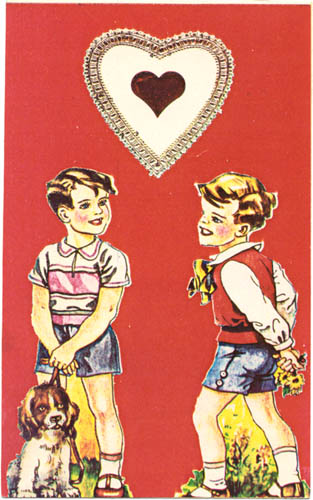


No cheat or liar ever caught him off his guard, and both his word and his bond were inviolable.
Historically, there is nothing at all peculiar about using honour to rule. Few [Imperial] Roman practices in this field would have been inexplicable to Louis XIV, honorific admission to whose person was regulated to a nicety from the moment he rose, one class of courtiers attending on him as he got out of bed, an inferior order admitted only after he had put on his dressing gown. . . . As late as 1790, Edmund Burke could stand on the edge of an old world in many ways similar to that of the Romans, comparing old turmoils in France to the Revolution. In former days,
a concious dignity, a noble pride, a generous sense of glory and emulation was not extinguished. On the contrary, it was kindled and inflamed. All the prizes of honour and virtue, all the rewards, all the distinctions, remained.
. . . But your present confusion, like a palsy, has attacked the fountain of life itself. Every person in your country, in a situation to be actuated by a principle of honour, is disgraced and degraded, and can entertain no sensation of life except in a mortified and humiliated indignation.
that the concept of honour itself seems impossibly distant and romantic, is a consequence of the particular outlook of the late twentieth century ; a sign of our removal from the ancient rhythms of rulership and subjection, an indication that we have finally arrived in Burke's nightmare, among the sophisters, economists, and calculators. Historically, government by honour is usual ; it is we who are strange.
Classicist Nick Sekunda in The Spartan Army :
[L]egends suggest that Lykourgos derived many of his legislative ideas from Cretan practice. If this is so, the Spartan [military] tribe may initially have been divided into hetaireiai εταιρειαι ("bands of comrades"), as was the case in Crete until the Hellenistic period.
In the Iliad, Patroklos is Achilles' philtatos hetairos, Achilles' most beloved companion. Patroklos is also Achilles' therapon, that is, lower-in-rank comrade-in-arms, but it must be remembered that Achilles is the Greatest Warrior at Troy -- all the other Warriors, including Achilles' cousin Aias aka Telamonian Ajax, are lower in rank than Achilles.
Achilles, son of [the Goddess] Thetis, the Gods honored and sent to his place in the Isles of the Blest [nesoi makaron -- "It may be we shall touch the Happy Isles, / And see the great Achilles, whom we knew" -- Tennyson, Ulysses], because having learnt from his mother that he would die as surely as he slew Hector, but if he slew him not, would return home and end his days an aged man, he had the courage and grace [tolmao] to go and succour [bontheo] his lover [erastes] Patroclus, avenged [timoreo] him, and sought death not merely in his behalf [hyper-apothnesko -- to die for] but in haste to be joined with him whom death had taken [ep-apothnesko -- to die after]. For this the Gods so highly admired him that they gave him distinguished honor [Timé], since he set so great a value on his lover [erastes] . . . . For in truth, there is no sort of Areté [Manhood, Manly Goodness, Manly Excellence] more Honoured [timao] by the Gods than this which comes of Love [Eros].
that you have remembered me and my kindness, that I am not forgotten
for the honour that should be my honour among the Achaians.'
And Kleonymus, filled with joy, went at once to Archidamus and said : "We know now that you have a care for us ; and be well assured, Archidamus, that we in our turn shall strive to take care that you may never have cause to be ashamed on account of our friendship." And he did not prove false to his words, for not only did he act in all ways as it is deemed honourable [kala] for a citizen of Sparta to act while he lived, but at Leuctra, fighting in defence of his king with Deinon the polemarch, he fell three times and was the first of the citizens to lose his life in the midst of the enemy. And while his death caused extreme grief to Archidamus, still, as he promised, he did not bring shame upon him, but rather honour.
because he called himself Phoinix (the preceptor of Achilles), Alexander Achilles, and Philip Peleus, was highly regarded. . .
[Alexander's] sympathy was extended, moreover, even to Darius' mother, wife, and children. According to some accounts, on the night when he returned from the pursuit [of Darius], he heard, upon entering Darius' tent, which had been set aside as his own special portion of the spoils, the confused sound of women's voices raised in lamentation somewhere close at hand. He asked who the women were and why they should be in a tent so close to him. 'Sire,' he was told, 'they are Darius' mother and wife and children. They know that you have his bow and his royal mantle and that his shield has been brought back, and they are mourning for his death.' Alexander at once sent Leonnatus, one of his Companions, to tell them that Darius was alive -- his mantle and weapons he had left as he fled for safety, in his war chariot, and these, and nothing else, had fallen into Alexander's hands. Leonnatus entered their tent, gave the message about Darius, and added that Alexander wished them to retain all the marks, ceremonies, and titles of royalty, as he had not fought Darius with any personal bitterness, but had made legitimate war for the sovereignty of Asia.



Patroklos : and I will not forget him, never so long as
I remain among the living and my knees have their spring beneath me.
And though the dead forget the dead in the house of Hades,
Even there I shall still remember my beloved companion.
was their longing after Patroklos, who drove men to thoughts of terror.
Peleus' son [Achilleus] led the thronging chant of their lamentation,
and laid his manslaughtering hands over the chest of his dear friend :
'Good-bye, Patroklos. I hail you even in the house of the Death God.
All that I promised you in time past I am accomplishing,
that I would drag Hektor here and give him to the dogs to feed on
raw, and before your burning pyre to behead twelve glorious
children of the Trojans for my anger over your slaying.'
there is no right in letting water come near my head until
I have laid Patroklos on the burning pyre, and heaped the mound over him,
and cut my hair for him, since there will come no second sorrow
like this to my heart again while I am still one of the living.
the sorrows out of his mind, for his shining limbs were grown weary
indeed, from running in chase of Hektor toward windy Ilion ;
and there appeared to him the ghost of unhappy Patroklos
all in his likeness for stature, and the lovely eyes, and voice,
and wore such clothing as Patroklos had worn on his body.
The ghost came and stood over his head and spoke a word to him :
'You sleep, Achilleus ; you have forgotten me ; but you were not
careless of me when I lived, but only in death. Bury me
as quickly as may be, let me pass through the gates of Hades.
The souls, the images of dead men, hold me at a distance,
and will not let me cross the river and mingle among them,
but I wander as I am by Hades' house of the wide gates.
And I call upon you in sorrow, give me your hand ; no longer
shall I come back from death, once you give me the rite of burning.
No longer shall you and I, alive, sit apart from our other
beloved companions and make our plans, since the bitter destiny
that was given me when I was born has opened its jaws to take me.
And you, Achilleus like the Gods, have your own destiny ;
to be killed under the walls of the prospering Trojans. There is one
more thing I will say, and ask of you, if you will obey me :
do not have my bones laid apart from yours, Achilleus,
but with them, just as we grew up together in your house,
when Menoitios brought me there from Opous, when I was little,
and into your house, by reason of a baneful man-slaying,
on that day when I killed the son of Amphidamas. I was
a child only, nor intended it, but was angered over a dice game.
There the rider Peleus [Achilleus' father] took me into his own house,
and brought me carefully up, and named me to be your henchman.
Therefore, let one single vessel, the golden two-handled
urn the lady your mother gave you, hold both our ashes.'
'How is it, o hallowed head of my brother, you have come back to me
here, and tell me all these several things ? Yet surely
I am accomplishing all, and I shall do as you tell me.
But stand closer to me, and let us, if only for a little,
embrace, and take full satisfaction from the dirge of sorrow.'
take him, but the spirit went underground, like vapour,
with a thin cry, and Achilleus started awake, staring,
and drove his hands together, and spoke, and his words were sorrowful :
'Oh, wonder ! Even in the house of Hades there is left something,
a soul and an image, but there is no real heart of life in it.
For all night long the phantom of unhappy Patroklos
stood over me in lamentation and mourning, and the likeness
to him was wonderful, and told me each thing I should do.'
and dropped on him, and behind them brilliant Achilleus held the head
sorrowing, for this was his true friend he escorted toward Hades.
they laid him down, and quickly piled up the abundant timber.
And now brilliant swift-footed Achilleus remembered one more thing.
He stood apart from the pyre and cut off a lock of fair hair
which he had grown long to give to the river Spercheiros, and gazing
in deep distress over the wine-blue water, he spoke forth :
'Spercheiros, it was in vain that Peleus my father vowed to you
that there, when I had won home to the beloved home of my fathers,
I would cut my hair for you and make you a grand and holy
sacrifice of fifty rams consecrate to the waters
of your springs, where is your holy ground and your smoking altar.
So the old man vowed, but you did not accomplish his purpose.
I would give my hair into the keeping of the hero Patroklos.'
companion, and stirred in all of them the passion of mourning.
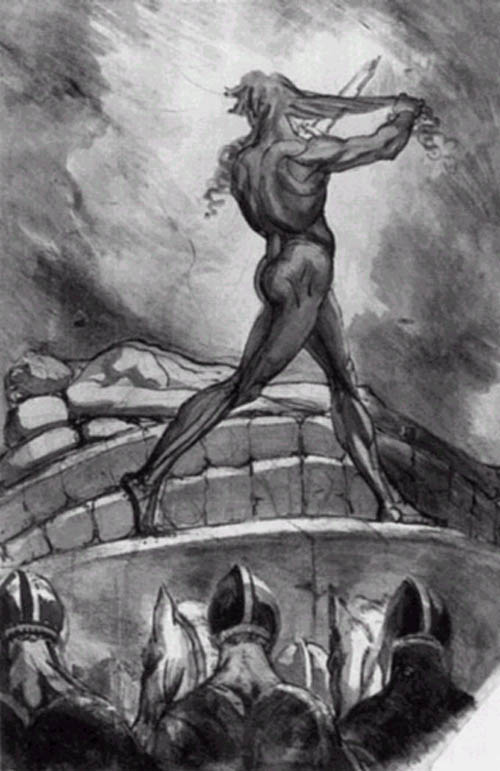
with the stroke of bronze, and evil were the thoughts in his heart against them,
and let loose the iron fury of the fire to feed on them.
Then he groaned, and called by name on his beloved companion :
'Good-bye, Patroklos. I hail you even in the house of the Death God,
for all that I promised you in time past I am accomplishing.
Here are twelve noble sons of the great-hearted Trojans,
whom the fire feeds on, as it feeds on you. But I will not
give Hektor, Priam's son, to the fire, but to the dogs, to feast on.'
a father mourns who burns the bones of a son, who was married
only now, and died to grieve his unhappy parents,
so Achilleus was mourning as he burned his companion's
bones, and dragged himself by the fire in close lamentation.
first put out with gleaming wine the pyre that is burning,
all that still has on it the fury of fire ; and afterwards
we shall gather up the bones of Patroklos, the son of Menoitios,
which we shall easily tell apart, since they are conspicuous
where he lay in the middle of the pyre and the others far from him
at the edge burned, the men indiscriminately with the horses.
And let us lay his bones in a golden jar and a double
fold of fat, until I myself enfold him in Hades.
but such as will be fitting, for now ; afterwards, the Achaians
can make it broad and high -- such of you Achaians as may be
left to survive me here by the broad ships, after I am gone.'
First with gleaming wine they put out the pyre that was burning,
as much as was still aflame, and the ashes dropped deep from it.
Then they gathered up the white bones of their gentle companion,
weeping, and put them into a golden jar with a double
fold of fat, and laid it away in his shelter, and covered it
with a thin veil ; then laid out the tomb and cast down the holding walls
and piled the tomb, and turned to go away. But Achilleus
held the people there, and made them sit down in a wide assembly,
and brought prizes for [funeral] games out of his ships. . .
Apollo, outraged at the treatment of his friend Hektor, practically describes Achilleus as a brute and a barbarian (24. 33-54). He is not. He is a man of culture and intelligence ; he knows how to respect heralds, how to entertain estranged friends. He presides over the [funeral] games with extraordinary courtesy and tact. He is not only a great fighter, but a great gentleman, and if he lacks the chilvary of Roland, Lancelot, or Beowulf, that's because theirs is a chilvary coloured with Christian humility which has no certain place in the gallery of Homeric virtues. Above all, Achilleus is a real man, mortal and fallible, but noble enough to make his own tragedy a great one.
to his fast-running ship, and the rest of them took thoughts of their dinner,
and of sweet sleep and its enjoyment ; only Achilleus
wept still as he remembered his beloved companion, nor did sleep
who subdues all come over him, but he tossed from one side to the other
in longing for Patroklos, for his manhood and his great strength
and all the actions he had seen to the end with him, and the hardships
he had suffered ; the wars of men ; hard crossing of the big waters.
sometimes along his side, sometimes on his back, and now again
prone on his face ; then again he would stand upright, and pace
turning in distraction along the beach of the sea . . .
and all the actions he had seen to the end with him, and the hardships
he had suffered ; the wars of men ; hard crossing of the big waters [algea pathen ; ptolemous andron ; alegeina te kumata peiron]."
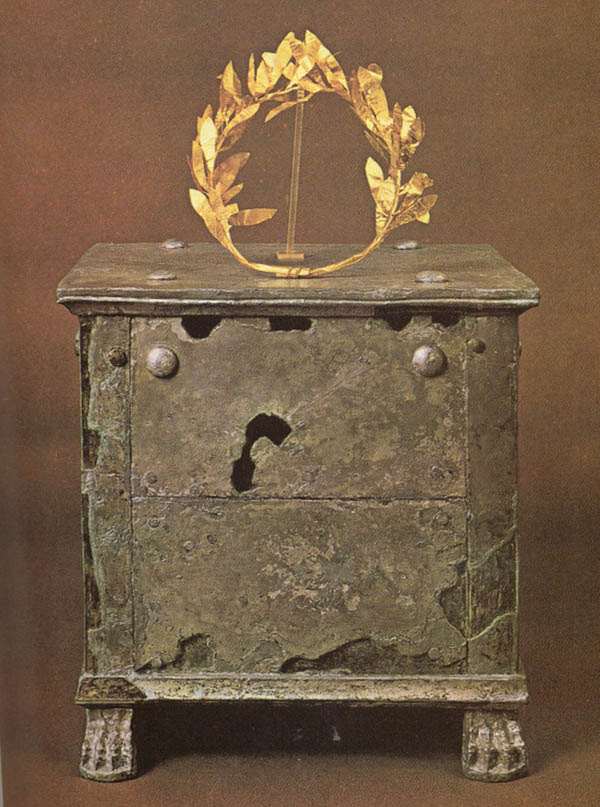
[male-male] relationships were institutionalized, played a large role in the training of boys, and were thought to contribute to bravery in combat. . . . before battle the Spartans sacrificed to Eros, to [the God of Male-Male] love.
Lovers who were bound by the male Eros were guarded by a deeper sense of honour from committing any base action, and were driven by a nobler impulse in attempting any honourable deed.

The creaky tale of Harmodius and Aristogeiton -- the locus classicus [the most authoritative] for insult leading to a plot against tyranny -- may well contaminate our literary descriptions of the murder of emperors, but probably no more than it contaminated the minds of those actually contemplating imperial assassinations. The old stories were part of the political as well as the literary culture, guiding lines of action as well as lines of text, and influencing bloody reality.



[T]he daring action of Aristogiton and Harmodius was undertaken in consequence of a love affair, which I shall relate at some length, to show that the Athenians are not more accurate than the rest of the world in their accounts of their own tyrants and of the facts of their own history. [The Athenian tyrant] Pisistratus dying at an advanced age in possession of the tyranny, was succeeded by his eldest son, Hippias, and not Hipparchus, as is vulgarly believed. Harmodius was then in the flower of youthful beauty, and Aristogiton, a citizen in the middle rank of life, was his lover and possessed him. Solicited without success by Hipparchus, son of Pisistratus, Harmodius told Aristogiton, and the enraged lover, afraid that the powerful Hipparchus might take Harmodius by force, immediately formed a design, such as his condition in life permitted, for overthrowing the tyranny.
In the meantime Hipparchus, after a second solicitation of Harmodius, attended with no better success, unwilling to use violence, arranged to insult him in some covert way.
Achilles, son of [the Goddess] Thetis, the Gods Honoured and sent to his place in the Isles of the Blest [nesoi makaron -- "It may be we shall touch the Happy Isles, / And see the great Achilles, whom we knew" -- Tennyson, Ulysses], because having learnt from his mother that he would die as surely as he slew Hector, but if he slew him not, would return home and end his days an aged man, he had the courage and grace [tolmao] to go and succour [bontheo] his lover Patroclus, avenged [timoreo] him, and sought death not merely in his behalf [hyper-apothnesko -- to die for] but in haste to be joined with him whom death had taken [ep-apothnesko -- to die after]. For this the Gods so highly admired him that they gave him distinguished Honour [Timé], since he set so great a value on his lover. . . . For in truth, there is no sort of Areté [Manliness, Manly Goodness, Manly Excellence] more Honoured [timao] by the Gods than this which comes of Love [Eros].
The most Warlike Men [machimotatos], including the Thebans, Spartans, and Cretans, are the most Romantically Passionate [erotikotatos] in their Male Love Affairs.
You know the tales of Aristogeiton of Athens and Antileon of Metapontum and Melanippus of Agrigentum : they had at first no quarrel with their tyrants, though they saw that these were acting like drunkards and disfiguring the state ; but when the tyrants tried to seduce their beloveds, they spared not even their own lives in defending their loves, holy [athiktos], as it were, and inviolable [asylos] shrines [hieron].


Aristogeiton and Harmodius
Warrior-Lovers and Tyrannicides



Most ancient writers -- in striking opposition to their modern counterparts -- generally entertained higher expectations of the fidelity and permanence of homosexual [sic] passions than of heterosexual [sic] feelings.
The creaky tale of Harmodius and Aristogeiton -- the locus classicus [the most authoritative] for insult leading to a plot against tyranny -- may well contaminate our literary descriptions of the murder of emperors, but probably no more than it contaminated the minds of those actually contemplating imperial assassinations. The old stories were part of the political as well as the literary culture, guiding lines of action as well as lines of text, and influencing bloody reality.


His importance was measured by Alexander's affection. Nothing suggests that his abilities were outstanding.
Achilles, son of [the Goddess] Thetis, the Gods Honoured and sent to his place in the Isles of the Blest [nesoi makaron -- "It may be we shall touch the Happy Isles, / And see the great Achilles, whom we knew" -- Tennyson, Ulysses], because having learnt from his mother that he would die as surely as he slew Hector, but if he slew him not, would return home and end his days an aged man, he had the courage and grace [tolmao] to go and succour [bontheo] his lover Patroclus, avenged [timoreo] him, and sought death not merely in his behalf [hyper-apothnesko -- to die for] but in haste to be joined with him whom death had taken [ep-apothnesko -- to die after]. For this the Gods so highly admired him that they gave him distinguished Honour [Timé], since he set so great a value on his lover [erastes]. . . . For in truth, there is no sort of Areté [Manliness, Manly Goodness, Manly Excellence] more Honoured [timao] by the Gods than this which comes of Love [Eros].
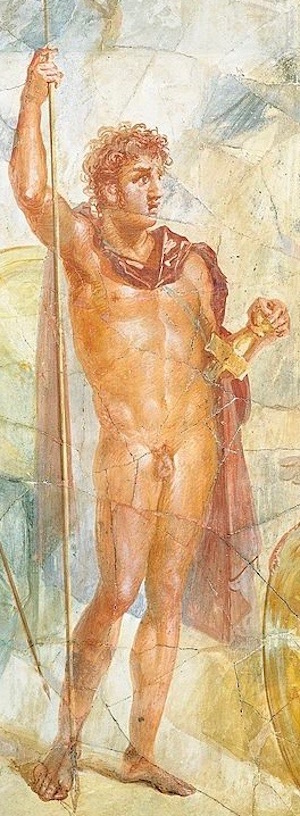
Alexander depicted as Lord Ares
the God of War
Antinuous depicted as Lord Mars
the God of War
Alexander depicted as Lord Ares
the God of War
Antinuous depicted as Lord Mars
the God of War



[1] When Alexander [in 324 BC] came to Ecbatana in Media and had transacted the business that was urgent, he was once more much occupied with theatres and festivals, since three thousand artists had come to him from Greece. But during this time it chanced that Hephaistion had a fever ; and since, young man and soldier [neos kai stratiotikos] that he was, he could not submit to a strict regimen, as soon as Glaucus, his physician, had gone off to the theatre, he sat down to breakfast, ate a boiled fowl, drank a huge cooler of wine, fell sick, and in a little while died.
At Ecbatana, Alexander offered sacrifice, as it was his custom to do to celebrate a happy occasion. He also held a festival with literary and athletic contests, and drank deep with the Companions. About this time Hephaistion fell sick. On the seventh day of his illness it so happened that there was a big crowd at the stadium to watch the boys' races, which were then taking place. During the races a message was brought to Alexander that Hephaistion's condition was serious ; he hurried away, but his friend was dead before he could reach him.
Bill Weintraub :
Apis was the calf of Memphis, sacred to the God Ptah. Alexander treated the religion of the Egyptians (and other conquered peoples) with respect, and was enthroned as Pharaoh at [Egyptian] Thebes. By contrast [the Persian king] Cambyses [,son of Cyrus the Great,] had actually stabbed the Apis (Herodotus 3.27-8).
The marks of this calf called Apis are these : He is black, and has on his forehead a three-cornered white spot, and the likeness of an eagle on His back ; the hairs of the tail are double, and there is a knot under the tongue.
[8] All the accounts, however, agree in telling us that for two whole days after Hephaistion's death, Alexander tasted no food and paid no attention in any way to his bodily needs, but lay on his bed now crying lamentably, now in the silence of grief.
Alexander still conceived of civilization as an extended Greece, and of himself as a Hellene. He had taken over Hellenism with the ardour that only a proselyte knows. A Balkan barbarian by birth, he had pushed himself into the enchanted but enfeebled circle of little city states. He had flattered Athens and spared Thebes, and preached a crusade against Persia, which should repeat upon a vaster scale
the victories of Marathon and Salamis. He would even repeat the Trojan war. At the Dardanelles his archaeological zeal was such that he ran naked round the tomb of Achilles. He cut the knot of Gordius. He appeased the soul of Priam.
A Balkan barbarian by birth, he had pushed himself into the enchanted but enfeebled circle of little city states.
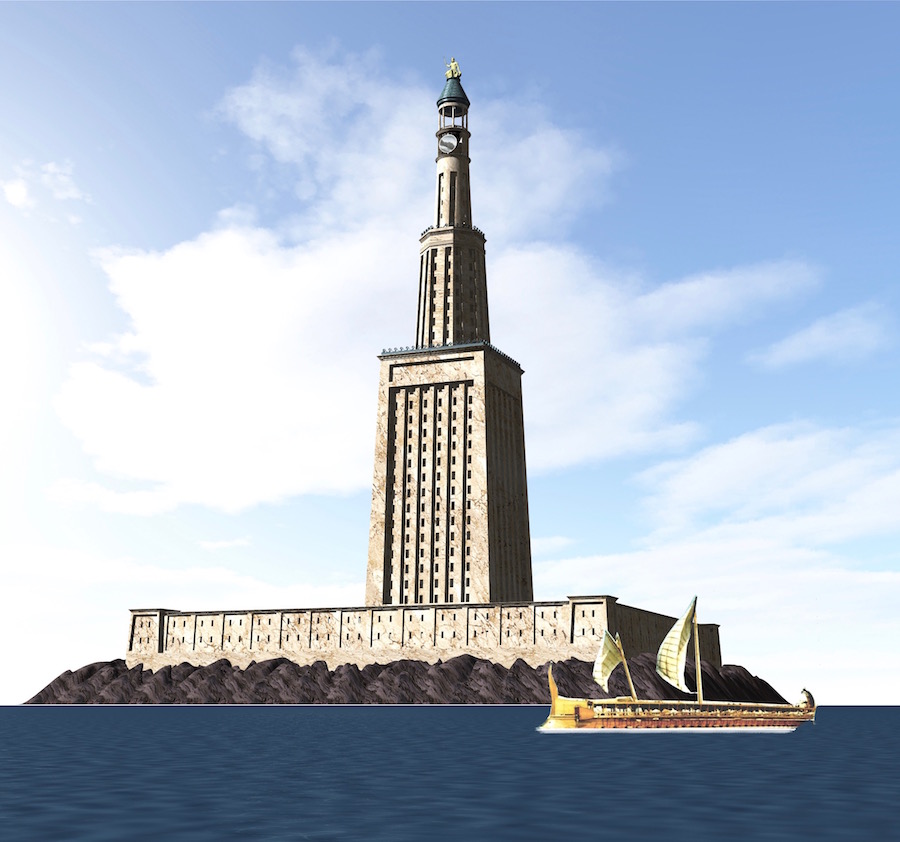
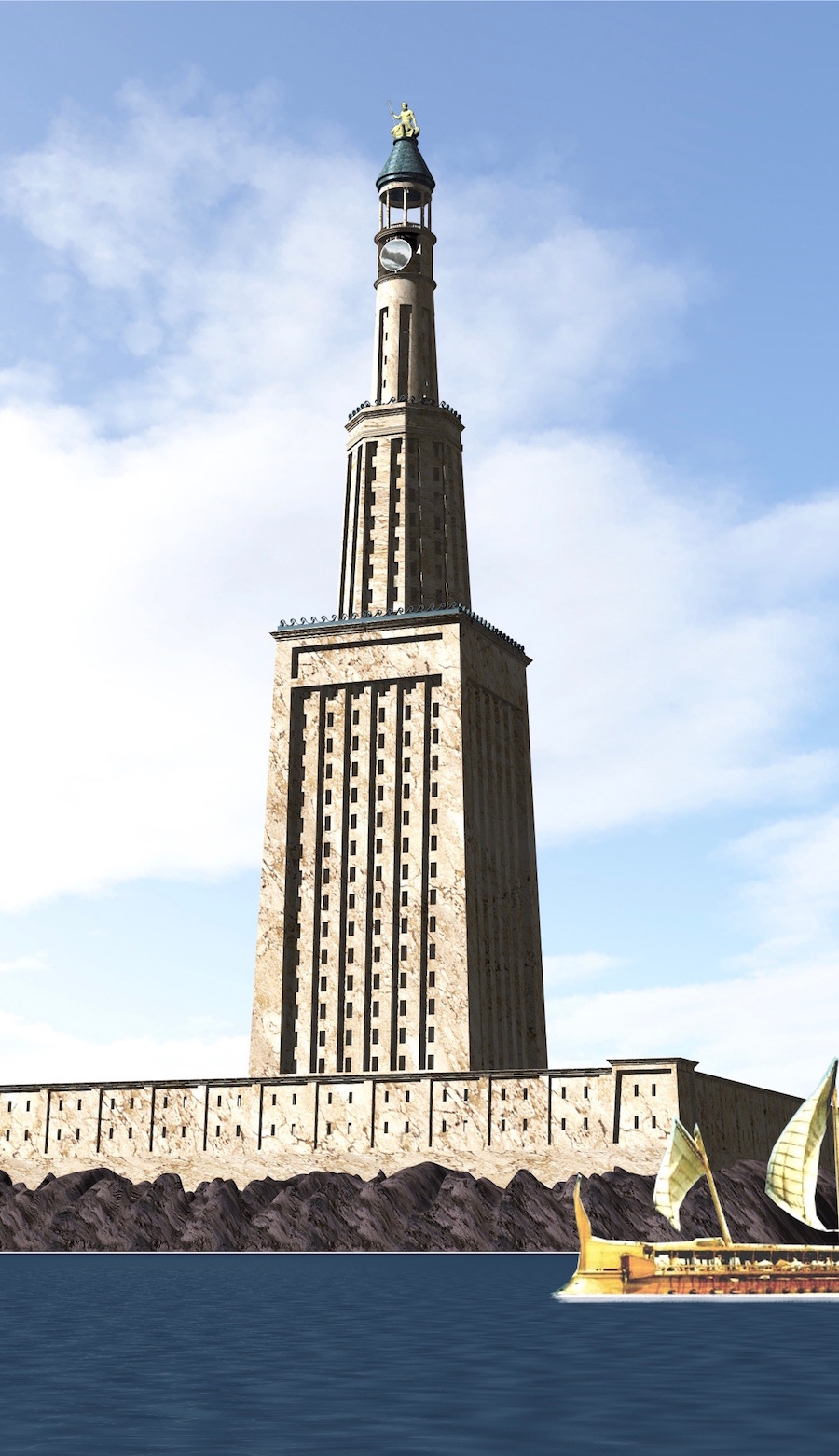



Why Ptolemy chose to quote something that Arrian considered unworthy of Alexander can only be conjectured. He was to put Kleomenes to death, as he suspected him of favouring [another of Alexander's Companions,] Perdikkas, rather than himself (Pausanias I.3.6). But perhaps Ptolemy thought that Alexander's attitude could be construed as clemency, and was admirable in him, but not deserved by Kleomenes, whom Ptolemy could have charged with neglecting to perform Alexander's orders ; the shrines to Hephaistion are not known to have been completed.

the Ego of antiquity was different from our own ... it received much from the past and by repeating it gave it presentness again. ... It was a mythical identification ... Life, or at any rate, significant life, was the reconstitution of the myth in flesh and blood ; it referred to and appealed to the myth ; only through it, through reference to the past, could it approve itself as genuine and significant.


[Upon] being informed that Apollodorus the commandant of Babylon had sacrificed to learn Alexander's fate, Alexander summoned Pythagoras the seer [mantis]. Pythagoras did not deny the fact, whereupon Alexander asked him what was the character of the sacrifice. And when the seer told that the victim's liver had no lobe, 'Ah me!' said Alexander, 'a forcible omen [ischyron semeion] !' and did Pythagoras no harm.
Apollodorus made no attempt at concealment, but told Alexander what the letter contained, in the belief that he would be doing Alexander a good turn if he warned him to be on his guard against impending danger. Alexander thanked him, and on his arrival at Babylon asked Peithagoras the nature of the warning sign which had induced him to write to his brother as he did.
[3] Alexander once took off his clothes [apodu-o] for exercise and was playing at ball, and when it was time to dress again, the young men [neaniskoi] who were playing with him beheld a man [anthropos] seated on the king's throne [thronos], in silence, wearing the royal diadem and robes.

with the stroke of bronze, and evil were the thoughts in his heart against them,
and let loose the iron fury of the fire to feed on them.
Then he groaned, and called by name on his beloved companion :
'Good-bye, Patroklos. I hail you even in the house of the Death God,
for all that I promised you in time past I am accomplishing.
Here are twelve noble sons of the great-hearted Trojans,
whom the fire feeds on, as it feeds on you. But I will not
give Hektor, Priam's son, to the fire, but to the dogs, to feast on.'
[M]aking war a solace for his grief, Alexander went forth to hunt and track down men, as it were, and overwhelmed the nation of the Cossaeans, slaughtering them all from the youth upwards. This was called an offering to the shade of Hephaistion [enagismos].
We are told, for instance, that he flung himself on the body of his friend and lay there nearly all day long in tears, and refused to be parted from him until he was dragged away by force by his Companions [de pros bia apophero pros ton Hetairon] ; and again, that he lay stretched upon the corpse all day and the whole night too.
the heroic chaos of whose heart surged with desire for all that can and can not be
'There was a time, ill fated, o dearest of all my companions, [philtat' hetairon]
when you yourself would set the desirable dinner before me
quickly and expertly, at the time the Achaians were urgent
to carry sorrowful war on the Trojans, breakers of horses.
But now you lie here torn before me, and my heart goes starved
for meat and drink, though they are here beside me, by reason
of longing for you.
not even if I were to hear of the death of my father
who now, I think, in Phthia somewhere lets fall a soft tear
for bereavement of such a son, for me, who now in a strange land
makes war upon the Trojans for the sake of accursed Helen ;
or the death of my dear son, who is raised for my sake in Skyros
now, if Godlike Neoptolemos is still one of the living.
that I alone should die far away from horse-pasturing Argos
here in Troy. I hoped you would win back again to Phthia
so that in a fast black ship you could take my son back
from Skyros to Phthia, and show him all my possessions,
my property, my serving men, my great high-roofed house.
For by this time I think that Peleus must altogether
have perished, or still keeps a little scant life in sorrow
for the hatefulness of old age and because he waits ever from me
the evil message, for the day he hears I have been killed.'
for meat and drink, though they are here beside me, by reason
of longing for you".
was their longing after Patroklos, who drove men to thoughts of terror.
Peleus' son [Achilleus] led the thronging chant of their lamentation,
and laid his manslaughtering hands over the chest of his dear friend :
'Good-bye, Patroklos. I hail you even in the house of the Death God.
All that I promised you in time past I am accomplishing,
that I would drag Hektor here and give him to the dogs to feed on
raw, and before your burning pyre to behead twelve glorious
children of the Trojans for my anger over your slaying.'
the sorrows out of his mind, for his shining limbs were grown weary
indeed, from running in chase of Hektor toward windy Ilion ;
and there appeared to him the ghost of unhappy Patroklos
all in his likeness for stature, and the lovely eyes, and voice,
and wore such clothing as Patroklos had worn on his body.
The ghost came and stood over his head and spoke a word to him :
'You sleep, Achilleus ; you have forgotten me ; but you were not
careless of me when I lived, but only in death. Bury me
as quickly as may be, let me pass through the gates of Hades.
The souls, the images of dead men, hold me at a distance,
and will not let me cross the river and mingle among them,
but I wander as I am by Hades' house of the wide gates.
And I call upon you in sorrow, give me your hand ; no longer
shall I come back from death, once you give me the rite of burning.
No longer shall you and I, alive, sit apart from our other
beloved companions and make our plans, since the bitter destiny
that was given me when I was born has opened its jaws to take me.
And you, Achilleus like the Gods, have your own destiny ;
to be killed under the walls of the prospering Trojans. There is one
more thing I will say, and ask of you, if you will obey me :
do not have my bones laid apart from yours, Achilleus,
but with them, just as we grew up together in your house,
when Menoitios brought me there from Opous, when I was little,
and into your house, by reason of a baneful man-slaying,
on that day when I killed the son of Amphidamas. I was
a child only, nor intended it, but was angered over a dice game.
There the rider Peleus [Achilleus' father] took me into his own house,
and brought me carefully up, and named me to be your henchman.
Therefore, let one single vessel, the golden two-handled
urn the lady your mother gave you, hold both our ashes.'
'How is it, o hallowed head of my brother, you have come back to me
here, and tell me all these several things ? Yet surely
I am accomplishing all, and I shall do as you tell me.
But stand closer to me, and let us, if only for a little,
embrace, and take full satisfaction from the dirge of sorrow.'
take him, but the spirit went underground, like vapour,
with a thin cry, and Achilleus started awake, staring,
and drove his hands together, and spoke, and his words were sorrowful :
'Oh, wonder ! Even in the house of Hades there is left something,
a soul and an image, but there is no real heart of life in it.
For all night long the phantom of unhappy Patroklos
stood over me in lamentation and mourning, and the likeness
to him was wonderful, and told me each thing I should do.'
and dropped on him, and behind them brilliant Achilleus held the head
sorrowing, for this was his true friend he escorted toward Hades.
they laid him down, and quickly piled up the abundant timber.
And now brilliant swift-footed Achilleus remembered one more thing.
He stood apart from the pyre and cut off a lock of fair hair
which he had grown long to give to the river Spercheiros, and gazing
in deep distress over the wine-blue water, he spoke forth :
'Spercheiros, it was in vain that Peleus my father vowed to you
that there, when I had won home to the beloved home of my fathers,
I would cut my hair for you and make you a grand and holy
sacrifice of fifty rams consecrate to the waters
of your springs, where is your holy ground and your smoking altar.
So the old man vowed, but you did not accomplish his purpose.
I would give my hair into the keeping of the hero Patroklos.'
companion, and stirred in all of them the passion of mourning.

to his fast-running ship, and the rest of them took thoughts of their dinner,
and of sweet sleep and its enjoyment ; only Achilleus
wept still as he remembered his beloved companion, nor did sleep
who subdues all come over him, but he tossed from one side to the other
in longing for Patroklos, for his manhood and his great strength
and all the actions he had seen to the end with him, and the hardships
he had suffered ; the wars of men ; hard crossing of the big waters.
sometimes along his side, sometimes on his back, and now again
prone on his face ; then again he would stand upright, and pace
turning in distraction along the beach of the sea . . .
and all the actions he had seen to the end with him, and the hardships
he had suffered ; the wars of men ; hard crossing of the big waters [algea pathen ; ptolemous andron ; alegeina te kumata peiron]."
A long time passed in mourning [penthos] before at last Alexander began to recall his own energies from it, and the proferred consolation of his Companions began to have more effect.

the Ego of antiquity was different from our own ... it received much from the past and by repeating it gave it presentness again. ... It was a mythical identification ... Life, or at any rate, significant life, was the reconstitution of the myth in flesh and blood ; it referred to and appealed to the myth ; only through it, through reference to the past, could it approve itself as genuine and significant.
Perhaps it was better for Alexander to die while his fame was unimpaired and the world most grieved for his loss, and before he was overtaken by the reversals of fortune which, at one time or another, are the lot of all men.


and to die leaving behind everlasting renown
~Alexander
ENVOI
The Jews found so much to do that they decided against returning to Jerusalem, and met so many Greeks that they forgot how to speak Hebrew. They speculated in theology and grain, they lent money to Ptolemy the second king [and son of Alexander's bodyguard], and filled him (they tell us) with such enthusiasm for their religion that he commanded them to translate their Scriptures for their own benefit. He himself selected the translators, and assigned for their labours the island of Pharos because it was less noisy than the mainland. Here he shut up seventy rabbis in seventy huts, whence in an incredibly short time they emerged with seventy identical translations of the Bible. Everything corresponded. Even when they slipped they made seventy slips, and Greek literature was at last enriched by the possession of an inspired book. It was left to later generations to pry into Jehovah's scholarship and to deduce that the Septuagint translation must have extended over a long period and not have reached completion till 100 B.C. The Jews of Alexandria knew no such doubts. Every year they made holiday on Pharos in remembrance of the miracle, and built little booths along the beaches where Helen had once shuddered at the seals. The island became a second Sinai whose moderate thunders thrilled the philosophic world. A translation, even when it is the work of God, is never as intimidating as an original ; and the unknown author of the "Wisdom of Solomon" shows, in his delicious but dubious numbers, how unalarming even an original could be when it was composed at Alexandria :
Pharos, tethered to Alexandria by a long causeway, became part of a larger scheme and only once re-entered Alexander's mind : he thought of it at the death of Hephaistion, as he thought of all holy or delectable spots, and he arranged that upon its distant shore a shrine should commemorate his friend, and reverberate the grief that had convulsed Ecbatana and Babylon.

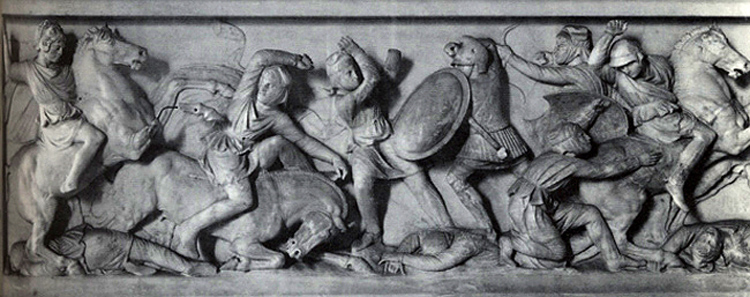
Detail from the Alexander Sarcophagus
Alexander is on the left ; Hephaistion on the right






GAIUS MARIUS REWARDS TREBONIUS
FOR AN HONOURABLE
AND NOBLE ACT




As for the personal appearance of Marius, we have seen a marble statue of him at Ravenna in Gaul, and it very well portrays the harshness and bitterness of character which are ascribed to him. For since he was naturally virile [androdes] and fond of war [polemikos], and since he received a training in military rather than in civil life, his temper was fierce when he came to exercise authority.
Please note:
In the Germania, Tacitus uses caenum to indicate a male who's anally receptive. He says that the Germans punish the cowardly, the unwarlike, and "the male stained with the filth of abominable vice" by forcing them face down into a bog, and putting a weight atop them, because "infamy ought to be buried out of sight."

IS
THE ARDENT WILLINGNESS
AND
REQUISITE ABILITY
TO FIGHT


is instantiated by his battered and bloody face ; while his raised arms instantiate his Ability --
the martial merit, virile value, and warrior worth, he needs -- to Defeat his Opponent.

Here Dwells Happiness
To begin with, who would not at once declare touching the birth, the preservation, the nurture, the development of Romulus [the founder of Rome], that Fortune laid the foundations, and that Virtue [Areta -- Manhood] finished the building? In the first place, then, it appears that the circumstances surrounding the origin and the birth of the very founders and builders of Rome were of a marvellous good fortune. For their mother is said to have consorted with a God [,the great Warrior God Mars, primogenitor of the Roman people, who first appeared to her as His Martial Genius in the form of His disembodied Phallus rising from the hearth] ; and even as they relate that Herakles was conceived during a long night (for the day was retarded in contrariety to nature, and the sun delayed), so regarding the generation and conception of Romulus they record that the sun was eclipsed and came into exact conjunction with the moon at the time when Mars, a God, consorted with the mortal Silvia.
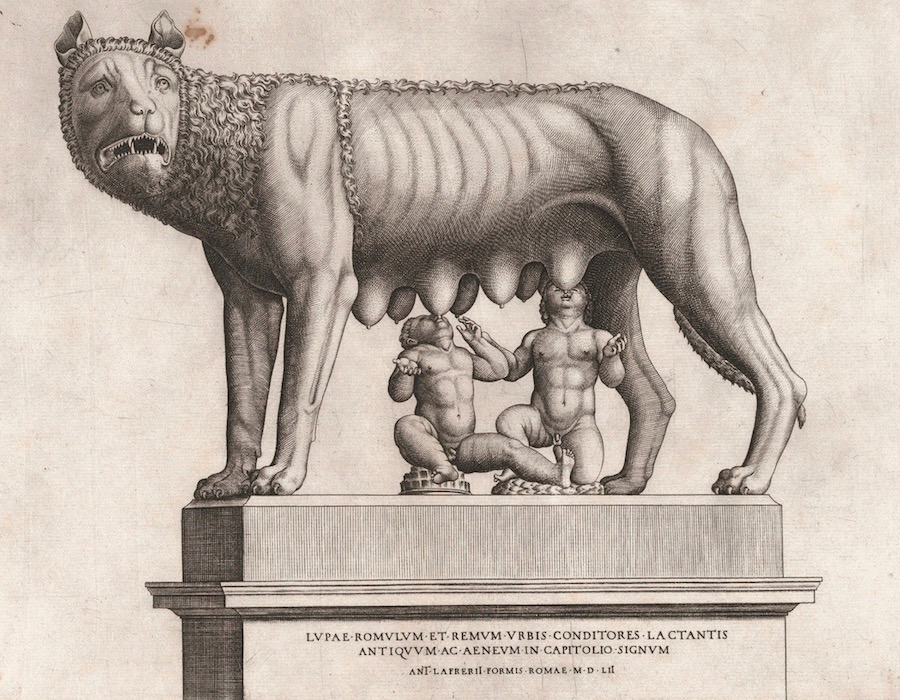
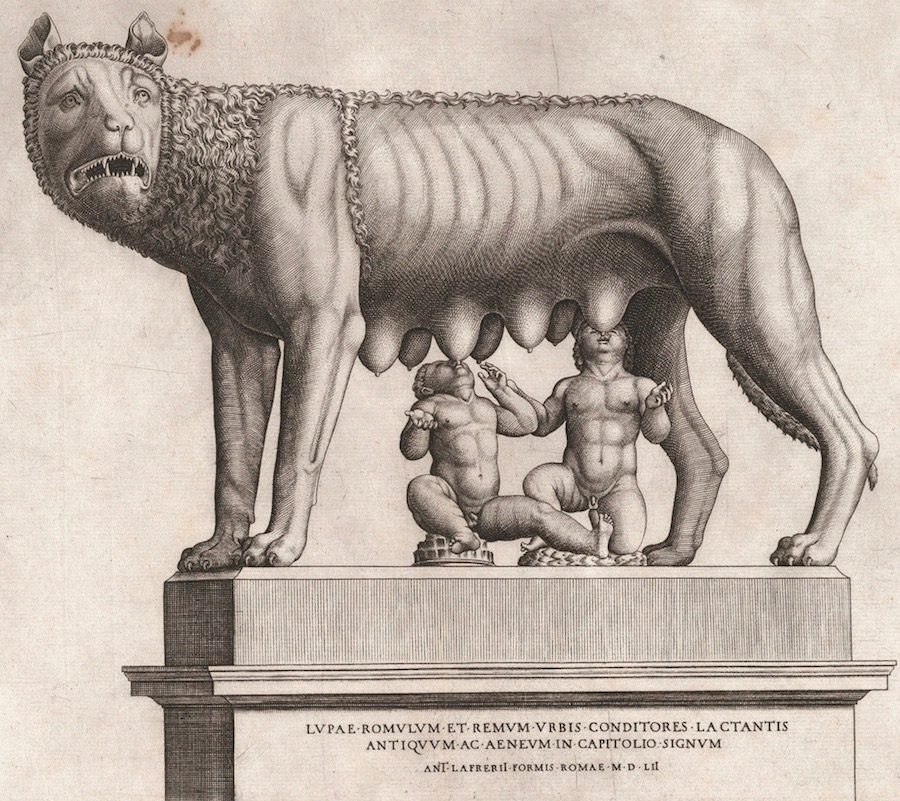
THE PROPHECY OF CAPYS
They were doomed by a lying priest :
They were cast on the raging flood :
They were tracked by the raging beast :
Alike have spared the prey ;
And to-day the dead are living :
The lost are found to-day.
And smoothed his yellow foam,
And gently rocked the cradle
That bore the fate of Rome.
And licked them o'er and o'er,
And gave them of her own fierce milk,
Rich with raw flesh and gore.



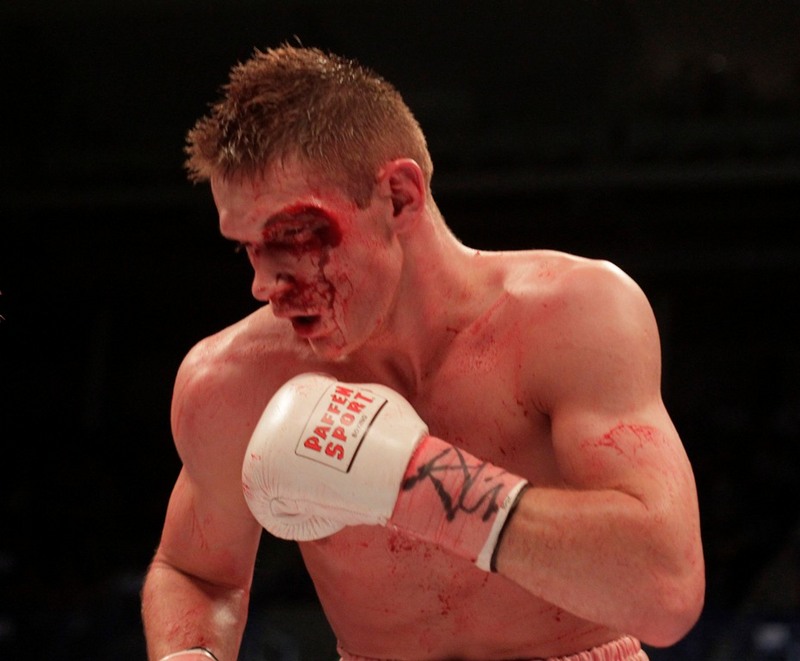
And a bird sacred to Mars, which they call the woodpecker, visited them and, perching near on tiptoe, would, with its claw, open the mouth of each child in turn and place therein a morsel, sharing with them a portion of its own food. Wherefore they named this wild fig-tree Ruminalis, from the teat (ruma) which the wolf offered to the children as she crouched beside the tree. And for a long time the people who dwelt near this place preserved the custom of never exposing any of the new-born infants, but they acknowledged and reared them all, in honour of Romulus's experience and the similarity of the childrens' case with his.



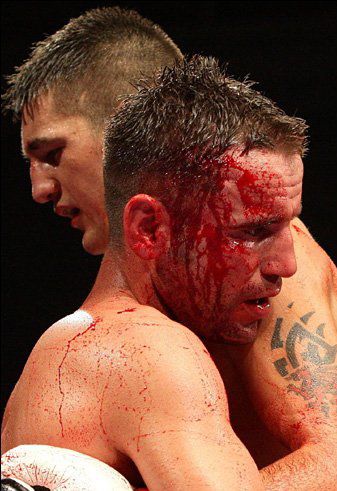
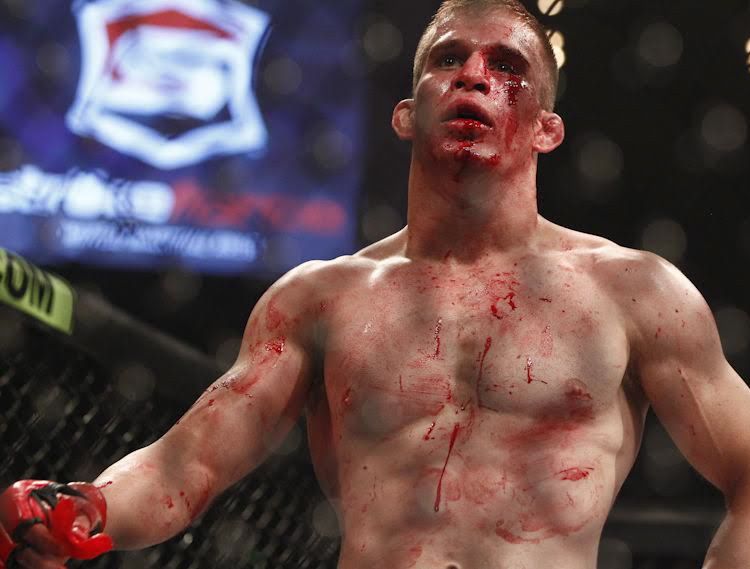



Here Dwells Happiness





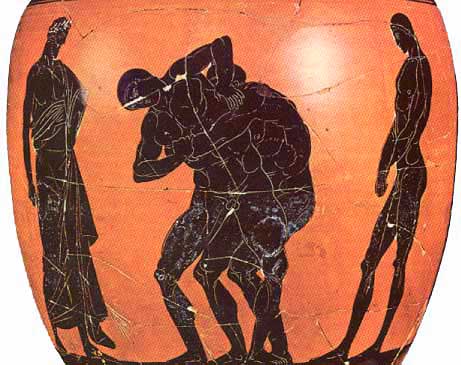








And in these wars [polemoi], who would not acknowledge that much Boldness and Manliness [tolma kai andreia] was needed and also, as Timotheos has it,
Shame, the helpmate of warring Valour ? [aidw, te synergos aretas dorimachou -- Shame, the helpmate of Fighting Manhood]































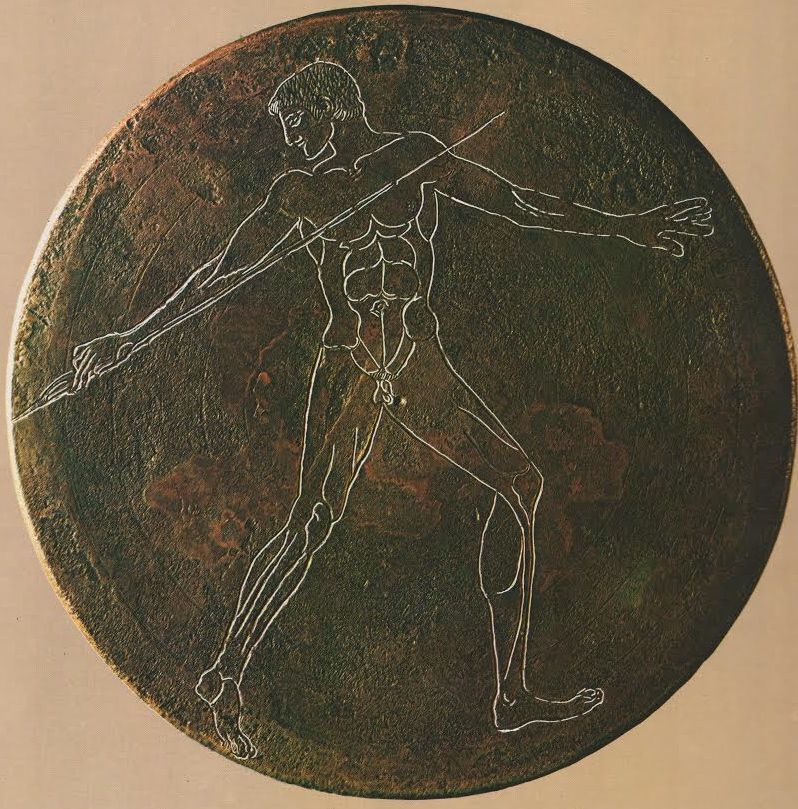


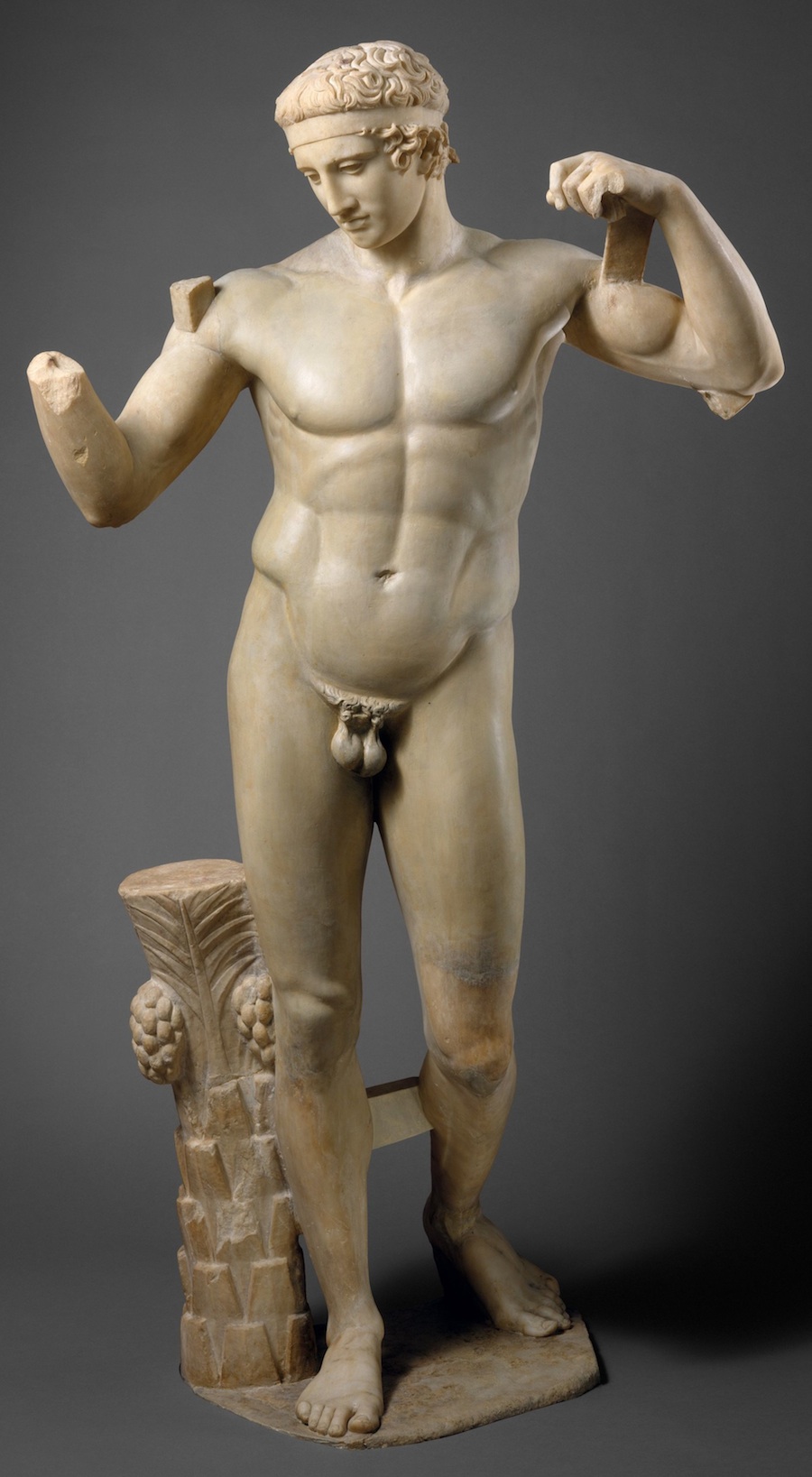





to the
Chapter List for Biblion Pempton -- Book V.

![]()




to
Manhood : A Lexicon -- Contents.

![]()


who reject anal penetration, promiscuity, and effeminacy
among men who have sex with men










































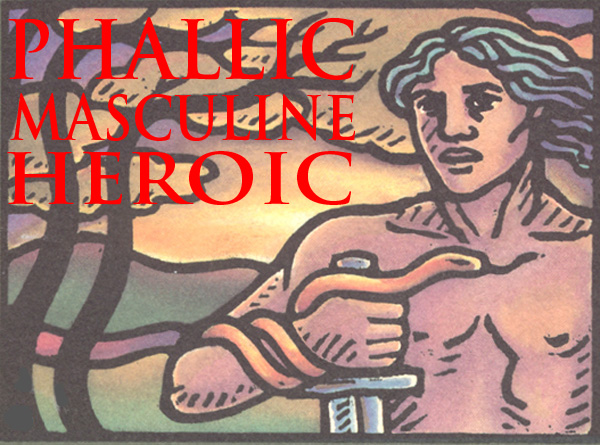


![]()

Who Celebrate, Exalt, and Worship
Fighting Manhood
In the Divine and Sacred Person of
L o r dxA r e s,
The Warrior God
God of Fight, God of Manhood, God of Fighting Manhood

| Heroes Site Guide | Toward a New Concept of M2M | What Sex Is | In Search of an Heroic Friend | Masculinity and Spirit |
| Jocks and Cocks |
Gilgamesh | The Greeks | Hoplites! | The Warrior Bond | Nude Combat | Phallic, Masculine, Heroic | Reading |
| Ares Is Lord Home | Cockrub Warriors Home | Heroes Home | Story of Bill and Brett Home | Frot Club Home |
| Definitions | FAQs | Join Us | Contact Us | Tell Your Story |

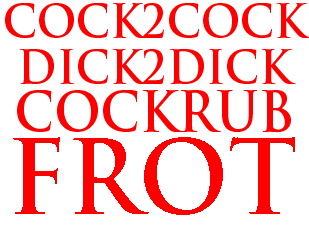

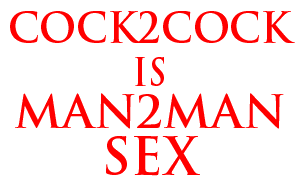
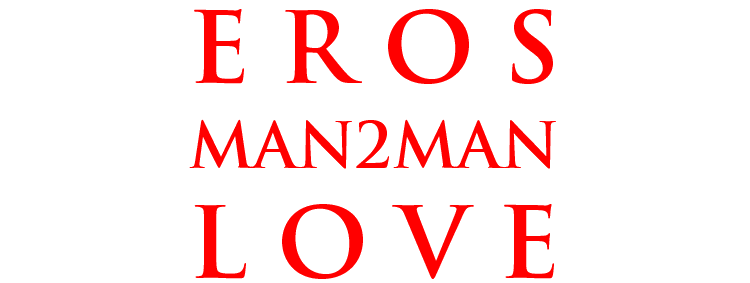
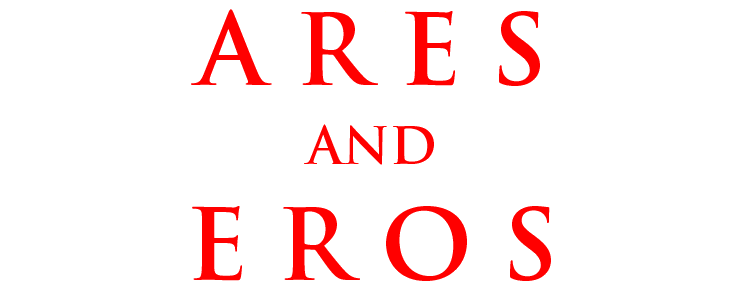
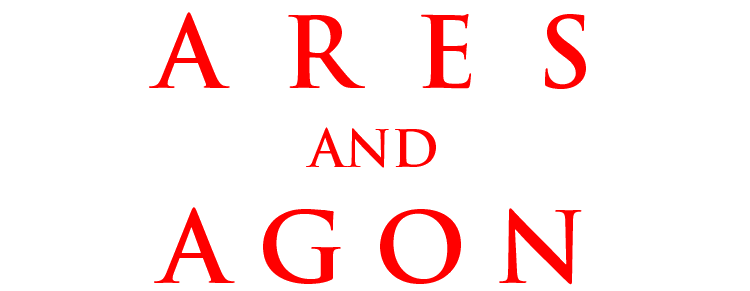
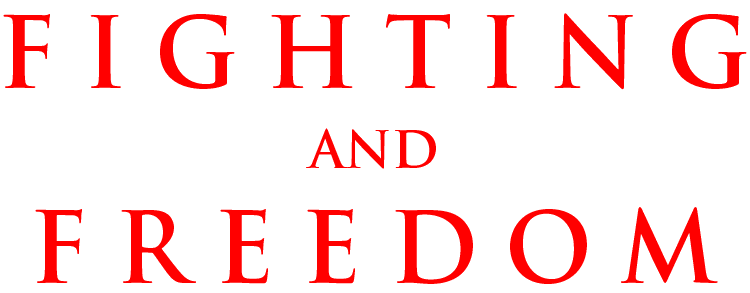
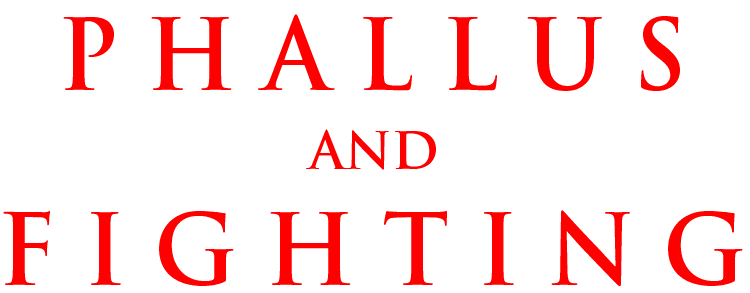
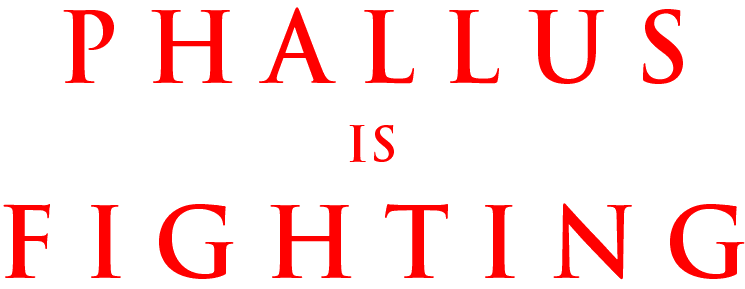
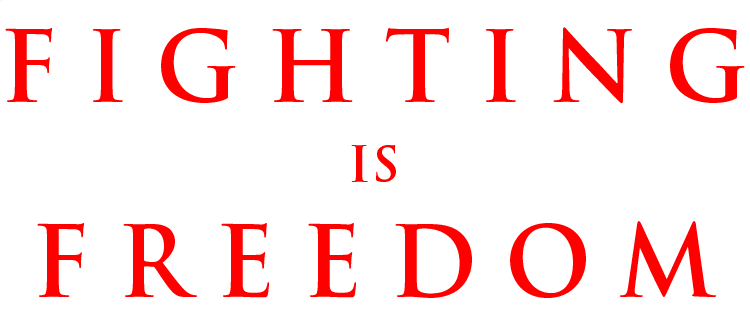









































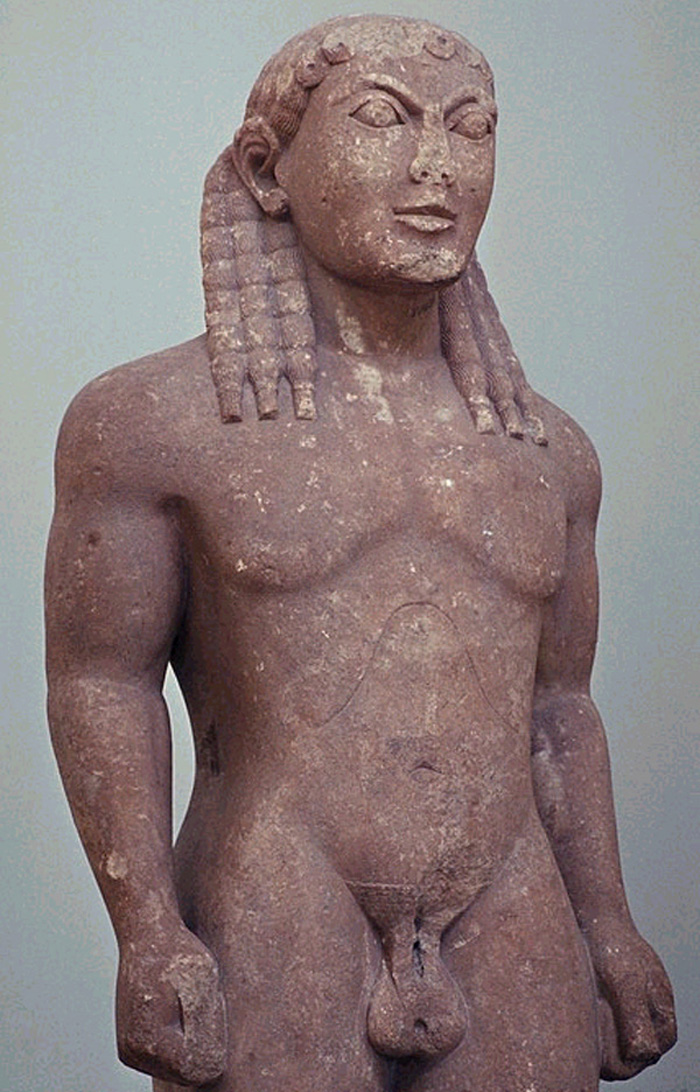

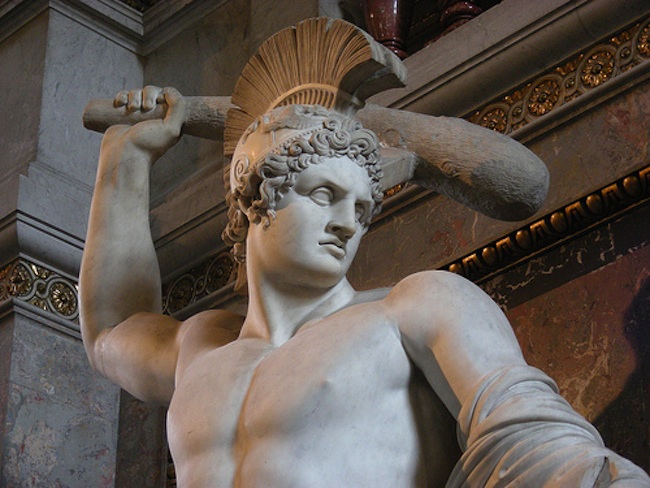




























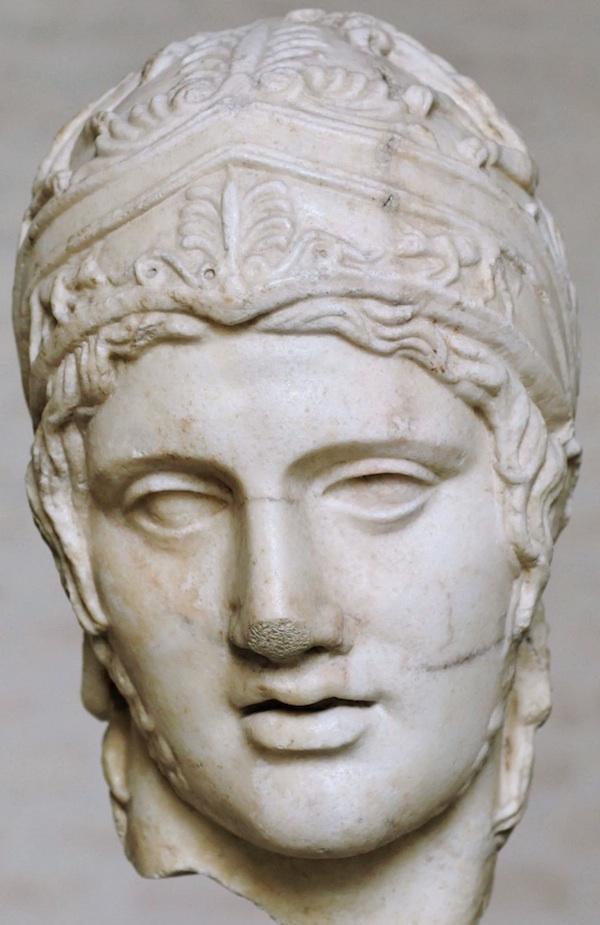

















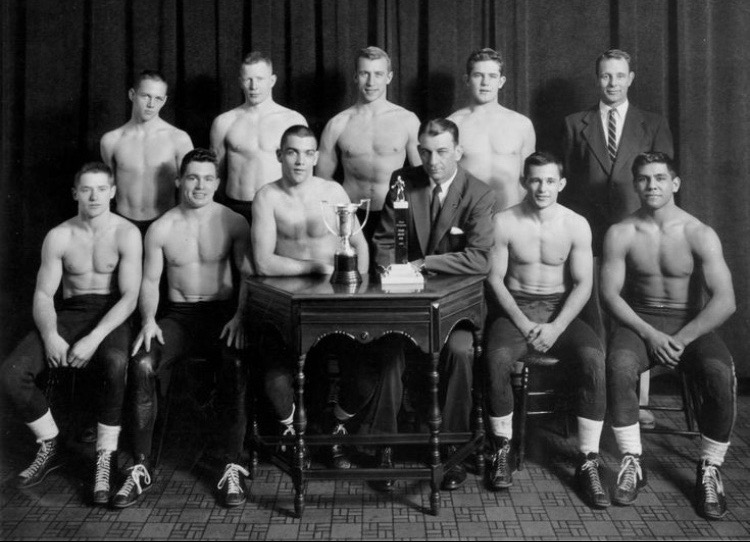
Bill Weintraub :


we have finally arrived in [British essayist Edmund] Burke's nightmare, among the sophisters, economists, and calculators. Historically, government by honour is usual ; it is we who are strange.
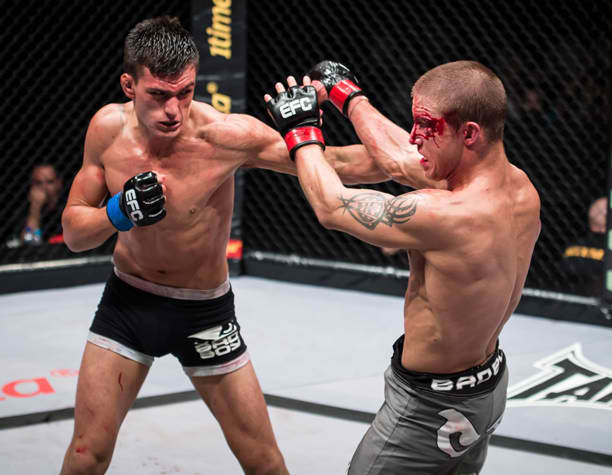


ΚΑΛΟΝ




![]()
ΚΑΛΟΝ


















The word andreia ανδρεια has a much wider meaning than the English "courage." Like the Latin "virtus," it [the Greek word "andreia"] embraces all qualities which are desirable in a perfect man, especially the more active and positive virtues. When applied to one particular kind of virtue it is applied to courage, but throughout this discussion it is used in the wider sense, for which there is no single English equivalent.
The word andreia ανδρεια has a much wider meaning than the English "courage."
Like the Latin "virtus," it [the Greek word "andreia"] embraces all qualities which are desirable in a perfect man, especially the more active and positive virtues.
Like the Latin "virtus," Andreia embraces all qualities which are desirable in a perfect man, especially the more active and positive virtues.
f. vir [man], manliness, manhood, i. e. the sum of all the corporeal or mental excellences of man, strength, vigor; bravery, courage; aptness, capacity; worth, excellence, virtue, etc.
manliness, manhood, manly spirit, Lat. virtus
manliness, manhood, strength, vigor, bravery, courage, excellence
Manhood, manliness : Strength, vigor, bravery, courage, excellence ; Valour, gallantry, fortitude ; Goodness, moral perfection, high character, virtue ; Worth, merit, value.
At this meeting the general subject was human [andros -- man's] virtue [Areté -- Manhood], and most of the discussion turned upon manliness [andreia -- Fighting Manhood].
At this meeting the general subject was the Manhood of Man, and most of the discussion turned upon Fighting Manhood.
From the same root [ARES] comes areté ... the first notion of goodness being that of manhood, bravery in war; cf. Lat. virtus.
goodness, excellence, of any kind, esp. of manly qualities, manhood, valour, prowess, Hom., Hdt. (like Lat. vir-tus, from vir).
The Spartans owe their superiority to fighting and valor
The Spartans owe their superiority to Fighting and Manhood.
The Spartans owe their superiority to Fighting and Fighting Manhood.
At this meeting the general subject was the Manhood of Man, and most of the discussion turned upon Fighting Manhood.
manliness, manhood, manly spirit, Lat. virtus
like the rulers in the Republic and the Laws, is to control marriages and the propagation of the race, especially with a view to blending by both eugenics and education the oppositions of the energetic and sedate temperament.
[Lykourgos, the Spartan law-giver,] made it honourable [kalon -- morally beautiful] for worthy men to share children and their production, and derided people who hold that there can be no combination or sharing of such things, and who avenge any by assassinations and wars. Thus if an older man with a young wife should take a liking to one of the well-bred [kalos kai agathos -- noble and brave, noble and virile, morally beautiful and manly ; see also kalokagathos -- a man as he should be] young men and approve of him, he might well introduce him to her so as to fill her with noble [gennaios] sperm and then adopt the child as his own.
The word andreia ανδρεια has a much wider meaning than the English "courage."
f. vir [man], manliness, manhood, i. e. the sum of all the corporeal or mental excellences of man, strength, vigor; bravery, courage; aptness, capacity; worth, excellence, virtue, etc.






















If an army went into battle without proper training and organisation they would lose. Historic example, in the English Civil War (1642 to 1646) the army of King Charles 1st was better organised and won most of the first battles; however Oliver Cromwell trained and organised the men fighting on Parliament's side into the New Model Army, and they won! If they had not been so organised the King would have carried on as the dictator he had been. Maybe eventually we would have got the freedoms that we enjoy now but it would have come more slowly and the monarch would have given them very grudgingly; so organisation is as you say vital to winning.
And Militancy is vital -- to organization.









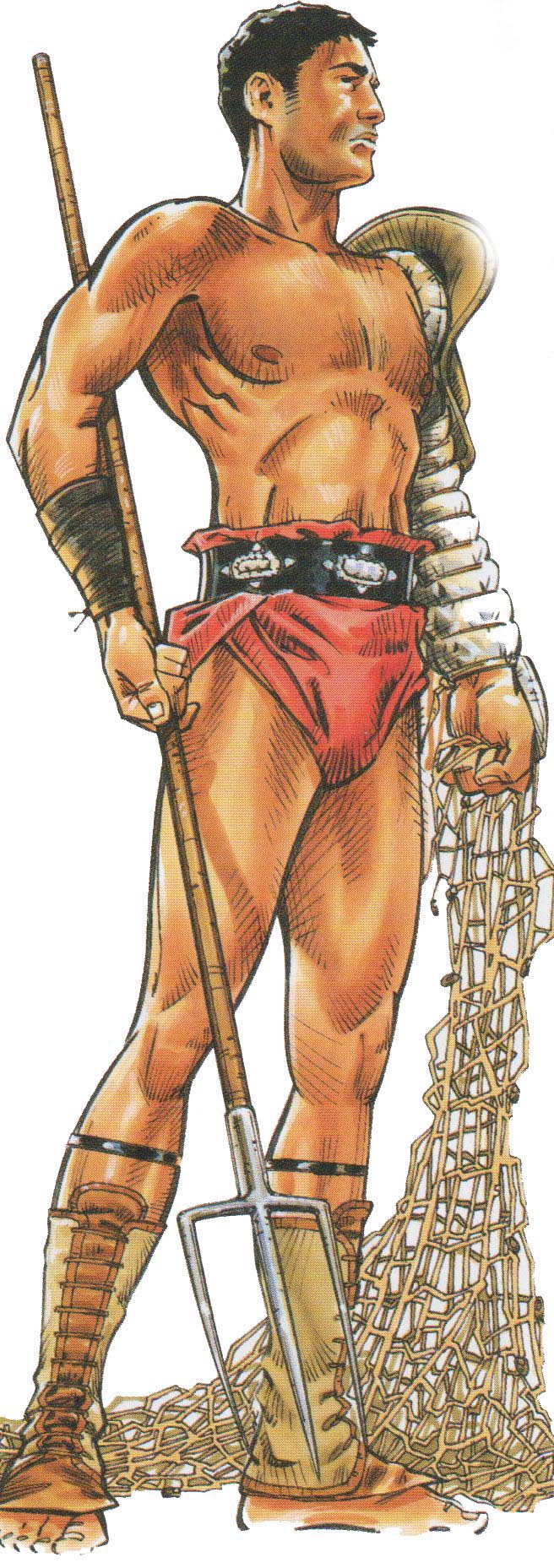


![]()


reverence, awe, respect for the feeling or opinion of others or for one's own conscience, and so shame, self-respect, sense of honour
From the same root [ARES] come areté, ari-, areion [better -- stronger, braver, more Manly], aristos [best -- strongest, bravest, most Manly], the first notion of goodness being that of manhood, bravery in war ; cf. Lat. virtus

![]()





Achilles' slaying of Hektor is the first and most important example of how a self-less self-love, when combined with
the Warrior's natural instinct for aggression, leads to heroic self-sacrifice ; for Achilles knows that by choosing
to slay Hektor and so avenge his Lover's death, he himself will die young -- as Plato explains :
Achilles, son of [the Goddess] Thetis, the Gods honored and sent to his place in the Isles of the Blest, because having learnt from his mother that he would die as surely as he slew Hector, but if he slew him not, would return home and end his days an aged man, he bravely and with grace [tolmao] chose to go and succour [bontheo] his lover Patroclus, avenged [timoreo] him, and sought death not merely in his behalf but in haste to be joined with him whom death had taken. For this the Gods so highly admired him that they gave him distinguished honour [Timé], since he set so great a value on his lover. . . . For in truth, there is no sort of Areté -- no sort of Manly Excellence, Manly Goodness, Manly Virtue, and Fighting Manhood -- deemed more Honourable [timao] by the Gods than this which comes of Romantic, Passionate, Love between Men [Eros] .

I. as Subst., adelphos, ho αδελφος, ο -- a brother, or generally, a near kinsman,, adelphoi αδελφοι brother and sister, like Lat. fratres ;
II. adj., adelphos αδελφος, brotherly or sisterly ; like Lat. geminus, gemellus, of anything in pairs, twin
αγαπη
Manliness, Manhood : Vigor, strength, might, power, potency ; Valour, gallantry, fortitude ; Virtue, goodness, moral perfection, high character ; Value, worth, merit.
Manliness, Manhood : Vigor, strength, might, power, potency ; Valour, gallantry, fortitude ; Virtue, goodness, moral perfection, high character ; Value, worth, merit --
Manly -- that is, Willing and Able to Fight
Remember that the Greek for 'good' [agathos] does not merely have the narrow ethical sense we give it, but is the adjective corresponding to the noun areté, and so means 'excellent' in any way. From that point of view ethics is only a special case of the effort made by all things to achieve perfection.


![]()
Discussion :

In Xenophon's "historical romance" Paideia Kyrou, The Education of Kyrus, which is obstensibly about Kyrus the Great of Persia, but in which Xenophon transplants Spartan customs and institutions from Greece to the Middle East, there's an Ελευθερα
Αγορα, a Free Agora.
This square . . . is divided into four parts ; one of these belongs to the boys -- παιδες ; one to the youths -- εφηβοι ; another to the men of mature years -- τελειοι ανδρες ; and another to those who are past the age for military service -- υπερ τα στρατευσιμα.
Aiakos was the father of Peleus, who was the father of Achilles ; and Aiakos was the father of Telamon, who was the father of Ajax "the greater."
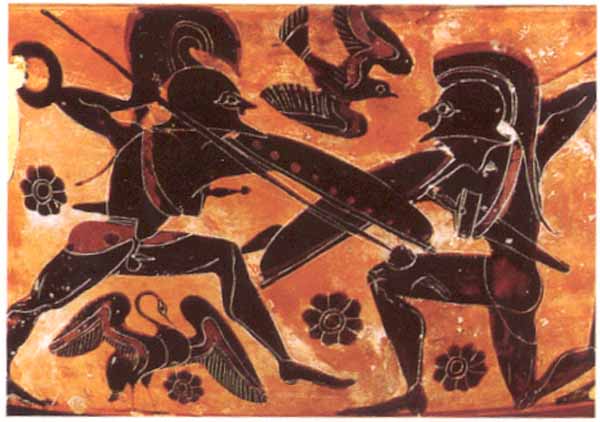
"orthon estin aidoion epi tou bathrou"
While the games were being held at Olympia, an old man was desirous of seeing them, but could find no seat. As he went to place after place, he met with insults and jeers, and nobody made room for him. But when he came opposite the Spartans, all the boys and many of the men arose and yielded their places. Whereupon the assembled multitude of Greeks expressed their approbation of the custom by applause, and commended the action beyond measure; but the old man, shaking "His head grey-haired and grey-bearded," and with tears in his eyes, said, 'Alas for the evil days ! Because all the Greeks know what is right and fair [ta kala -- Honourable, that which adheres to the Noble Warrior Way of Manly Moral Beauty], but the Spartans alone practise it.'
Interestingly, Basil Gildersleeve thinks that Hippokleas, the boy winner in the diaulos at the Pythian Games in 498 BC and the subject of Pindar's first epinikion, Pythian 10, may have been the aitas of Thorax, the leader of the Aleuadai, one of the great aristocratic families of Thessaly, and the man who commissioned Pythian 10.
Akademos, who had learned in some way or other of [Helen's] concealment at Aphidnai, told them [the Dioskouroi] about it. For this reason he was honored during his life by the Tyndaridai [the sons of Tyndareos -- the Dioskouroi], and often afterwards when the Lakedaemonians invaded Attika and laid waste all the country round about, they spared the Akademeia, for the sake of Akademos.
akolouthos Areos
ακολουθος Αρεος -- an attendant or follower of Lord Ares, an acolyte